Aver
(Oriental
Daily with video) April 3, 2016.
Yesterday "Four-eyed Brother"
Cheng Kam-mun published a Facebook post titled "The battle of the Hong Kong
Public Library: spontaneously remove simplified character books from the shelves
in order to resist brainwashing." Cheng said that the Leisure and Cultural
Services Department had purchased 600,000 simplified characters, including many
children books in praise of the Chinese Communist Party. Because library space
is finite, they also removed certain traditional character books to make room
for the simplified character books. Cheng said that this was brainwashing of the
next generation. Cheng called on citizens to spontaneously remove the simplified
character books.
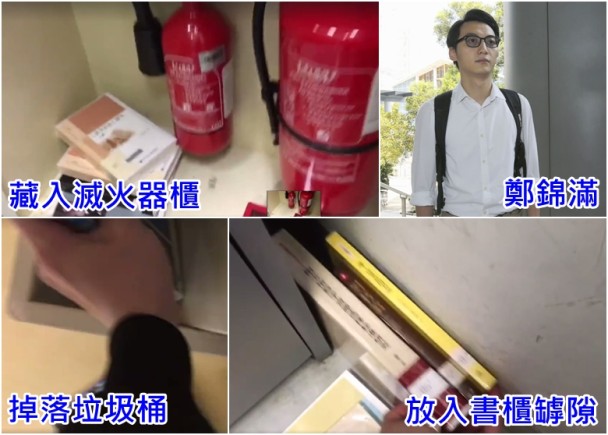
Cheng uploaded a video to
demonstrate tossing the simplified character books into trash bins, slipping
them into cracks between book shelves, stuffing them into the fire hydrant
boxes, etc.
(SCMP)
April 7, 2017.
A radical activist was arrested on Wednesday after he
allegedly appealed to the public to remove books using simplified Chinese
characters from public libraries.
Alvin Cheng Kam-mun, commonly known as �Four-eyed Gor Gor�,
27, is a member of Civic Passion, which supports localism and promotes
anti-mainland Chinese sentiment.
Cheng was arrested for theft and �access to a computer with
criminal or dishonest intent� in Shau Kei Wan as he worked at a roadside
booth set up by the radical group.
A police spokesman said they had received a report on Tuesday
from the Leisure and Cultural Services Department, which operates public
libraries in the city, that someone had removed books with simplified
Chinese characters in a library and the act was recorded in an uploaded
video clip.
The clip, lasting just over one minute, was posted on Cheng�s
Facebook page on Saturday. A male claimed on the video that he was Cheng and
was in a public library in Mong Kok.
It showed dozen of books with simplified Chinese characters
being removed from shelves and dumped in a rubbish bin or hidden inside a
fire hose compartment or gaps between bookshelves. This apparently happened
inside the library.
The clip came with a message titled �Hong Kong library war.
Spontaneously removing books with broken Chinese characters to oppose
brainwashing.�
He said in the message: �The media recently reported that
public libraries had bought 600,000 books in broken Chinese characters since
2006. Many were children�s books which praised the Chinese Communist Party.�
He also cited members of the public as saying the department
had withdrawn some books in traditional Chinese characters to give room to
books using simplified characters.
He called on the public to remove the simplified books and
let the movement �blossom everywhere�.
Simplified Chinese characters, which are used on the
mainland, are sometimes called �broken Chinese words� in Hong Kong. They
have become more common in the city.
Civic Passion�s online news portal, Passion Times, said
several police officers approached Cheng�s home in Mong Kok yesterday
morning but he was not there. He was later arrested in Shau Kei Wan. Cheng
was released on bail on Wednesday night and must report back next month.
(Hong
Kong Free Press) April 20, 2017.
Activist Alvin Cheng Kam-mun of the localist party Civic
Passion pleaded not guilty on Thursday to one count of theft at the Kowloon
City Magistrates� Courts. There are nine
prosecution witnesses, according to RTHK. The prosecution will also submit as
evidence a 75-second video posted by Cheng on social media, and 1 hour and 35
minutes of closed-circuit television footage from the library. A pre-trial
review is scheduled for May 12.
Internet comments:
- Legislator Wong Kwok-hing said
that Cheng Kam-mun is being selfish here. Just because Cheng didn't like
simplified characters himself, he is depriving all other persons from reading
those books. "If you destroy these library books, you will be legally
responsible and not Cheng Kam-mun."
- Cheng Kam-mun says that he hails
from the city of Chaozhou, Guangdong province. And now he wants to fight against
China and oust all mainland Chinese (including himself?) from Hong Kong.
- Yet another boycott campaign by
Civic Passion? The last time they called for the people of Hong Kong to boycott
Wong Jing's film, <From Vegas to Macau III>, that movie raked in HKD 27 million
in Hong Kong and RMB 1.1 billion in mainland China (see
#448).
- I also remember the case when
the rumor first surfaced that Yoshinoya was serving radiation-contaminated
Fujishima rice. Yoshinoya clarified that the company uses rice from Heilongjiang
province, China. Immediately the localists aid that they would rather eat
radiation-contaminated Fujishima rice than Heilongjiang rice. That was the perfect
supporting proof for the WWII Japanese belief that they can always count on the
Chinese to kill each other first.
- Simplified character books are
used for brainwashing? Here is a set of traditional character books that is much
more so than any simplified character book: The Selected Works of Mao Zedong.
It is the message, not the media!
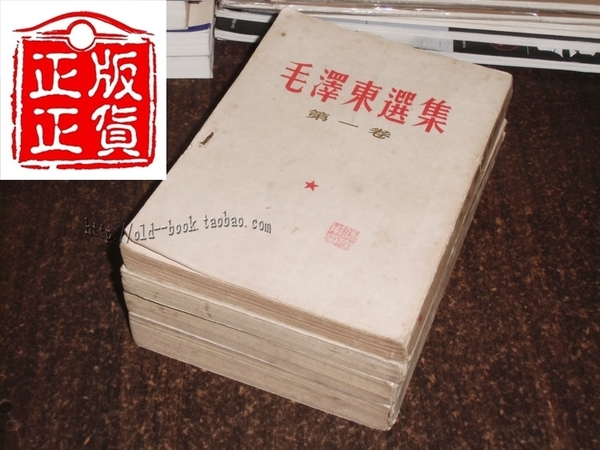
- Cheng Kam-mun is confusing the message and the medium. He thinks that the
medium is everything. You can publish The Selected Works of Wan Chin in
simplified characters and Cheng would think that this will brainwash youngsters
to become Communists.
- Cheung Kam-mun and his friends
are going to dump 600,000 books into the trash bins of the public libraries in Hong
Kong. If you have to stack 600,000 books, how tall is that? Let's assume that
each book is 10 cm thick. 600,000 books will be 600,000 x 1cm = 6,000 meters.
You need a very very tall trash bin to hold those books.
- The reason why some Hongkongers
like to go to the Shenzhen Book City to shop for books is very simple -- there
is greater variety. In China, they publish several hundred thousand new book
titles per year. All sorts of specialist books are published because the
mainland market is big enough. These books will not get published in Hong Kong,
because the market is too small.
- Most books on Chinese medicine
are published in simplified characters in China. Does Hong Kong want to shut
itself out from progress in Chinese medicine?
- (WSJ)
Guide to Hong Kong Schools and Education
The Hong Kong education system, overseen
by the Hong Kong Education Bureau, is divided into three types of schools:
government schools, subsidized schools and private international schools.
There are more than 1,100 schools in Hong Kong in total; as of 2010, more
than 1,000 of them were local government schools. Primary and secondary
education is mandatory for Hong Kong residents, but kindergarten is not.
Government schools are fully funded by
the Hong Kong government and teach in Cantonese and English � though it is
up to each school to determine how much of each language is used as the
medium of instruction. Government schools are open and free for all
children. There is a short application process in which students can
select their top school choices, but assignments are generally made based
on residency zones.
The English Schools Foundation is
subsidized by the Hong Kong government to provide an English-language
education, with priority given to students who cannot speak Chinese.
Starting in 2001, ESF schools started switching over to the International
Baccalaureate system, after years of using the British curriculum. As of
2010, there were 20 ESF schools with about 12,000 students enrolled. The
schools are delineated in geographical zones and only accept students who
reside in their applicable zone. There is also an admissions process,
which includes interviews and an application. Preference is given to
non-Chinese speakers, students of alumni and siblings of students. ESF
schools all have the same fee structure, which runs from HK$58,100 (with a
$10,000 deposit) per year for primary school to HK$89,250 (with a $16,000
deposit) for secondary school.
Hong Kong also has private international
schools, which vary in curriculum and teaching style. With a focus on
sending their students to foreign universities, these schools can be very
competitive � wait lists can approach 70 students per grade. Most
international schools use an English-based curriculum and tend to be
separated into the British, American, Canadian and International
Baccalaureate (IB) programs.
Many schools identify with a
particular country (such as Singapore, Canada or France) and offer separate
English and foreign-language sections. There are also an increasing number of
schools that emphasize a compulsory Mandarin Chinese component, reflecting
Mandarin�s growing influence in Hong Kong.
Here is the gist of the matter: At
the international schools, they teach putonghua/simplified characters and they
don't teach Cantonese/traditional characters. If Civic Passion doesn't like
this, they can protest valiantly at the international schools.
Why are the international schools
doing this? Because they want their students to be useful internationally.
Knowing Cantonese/traditional characters is not useful internationally; knowing
putonghua/simplified characters is very useful internationally.
- Chris Wat Wing-yin wrote about
the mentally retarded people who started the Hong Kong National Party, and the
Equal Opportunities Commission received complaints about her insulting that
particular class of people. So everybody lay off Cheng Kam-mun's intelligence!
- Based upon my personal
observations of many hours spent at the public library, I can tell you that it
is not efficient to dump the simplified character books into the trash bins or
hide them in the cracks. It is more efficient to hide them in plain sight. My
observation here in Hong Kong is that nobody ever uses the English-language section of the public
library and yet that section is sizeable. So all it takes is to move the
simplified character books en masse onto the shelves in the English-language section. The books
have not been stolen or vandalized. They have only been misfiled. And the
potential
readers will not never find it because nobody ever goes into the English-language
section.
- (Wen
Wei Po) April 4, 2016.
Pro:
"It was effective and fun! Well done!"
"I went down to the Tsuen Wan Public Library and slid some simplified character
books into the cracks"
"Set fire to them"
"Use markers to deface the pages of the books"
"Tear pages out of the books"
"Swipe some feces inside the books"
Con:
"Why are you picking on books such as The Encyclopedia of Dinosaurs and
Exegesis of Dream of Red Chamber?"
"Many reference books exist only in simplified editions. Why are they being
destroyed?"
"This is what the First Emperor of the Qin Dynasty did -- he burned the books
and put all the scholars to death."
"Once this catches on, it merely puts a burden on the cleaning lady who has to
carefully go through the trash bins to retrieve the discarded books. I am sure
that she is going to be very grateful to Cheng Kam-mun for keeping her
employed."
"It means that the libraries will have to hire outside help to look for missing
books."
"Civic Passion leader Wong Yeung-tat's own novel has a simplified character
edition. These guys change their tunes so quickly that they can't even keep up
with themselves."
"Well, I think that the Valiant Warriors can always borrow Deng Xiaoping's
Black/White Cat Theory: It does not matter whether a book is printed in
simplified or traditional characters; it only matters that the contents of the
book have been vetted by the Valiant Warriors to be consistent with Hong Kong
core
values as only they know."
- (Oriental
Daily) April 6, 2016. Civic Passion said that a number of police
officers went to Cheng Kam-mun's home this morning, but Cheng was not there.
Cheng was later arrested at a Civic Passion street booth in Central. Cheng was
taken down to the Chai Wan Police Station. Several Civic Passion members are
outside the police station to voice their support of Cheng. It is believed that
this was related to dishonest use of a computer to advocate certain actions at
public libraries.
- Cheng Kam-mun was not telling
people to deface simplified character books. He made it very very clear that he
was only posting certain information onto the Internet for reference's sake. How
can that be "dishonest use of a computer"? He can't be held responsible for what
persons unknown do after reading his reference materials. The Internet is
already filled with reference materials on making bombs, committing suicide,
setting up gang rape, torturing animals, posting upskirt photos,
sharing kiddie porn, etc.
- (Oriental
Daily) The Baptist University Student Union held a referendum on
scrapping putonghua competency as a graduation requirement. 89% of the students
voted to scrap putonghua. The student who started the referendum said that the
will of the students is very clear on this issue and he wants the school to
eliminate the requirement as soon as possible. By the way, the total number of
votes is 1,544 which represents 12.17% of the student body. The rest of the
student body went on with their studies and ignored this farce.
- Contrast with this.
(The
Standard) April 21, 2016.
An elite international school that has
produced three Nobel laureates plans to accept applications from
September, with parents and corporations paying between HK$800,000 and
HK$3.5 million for nomination rights. The Hong Kong campus of Malvern
College founded in Britain 150 years ago is located in Tai Po's Science
Park. It will take in 380 students from five to 14 years old for Years One
to Nine classes for the 2018-19 school year. The number of students is
expected to increase gradually, with the full capacity up to Year 13 set
at 960. Malvern College has produced three Nobel winners James Meade,
economics, 1977; Frederick Sanger, chemistry, 1958; and Francis Aston,
chemistry, 1922 as well as the renowned author of The Chronicles of Narnia,
C S Lewis.
The school only offers the
international baccalaureate curriculum with focus on science and mathematics.
Putonghua classes will be mandatory.
Malvern College does not teach
Cantonese, because it is not regarded to be an internationally spoken language.
Putonghua is where the future is.
- (EJ
Insight) May 18, 2016.
On a late night in Lan Kwai Fong, a woman
asked Ivy where she was from and what she was doing in Hong Kong. When Ivy
answered she was from the mainland and working, the woman blurted: �Why do
you steal our jobs?� Ivy is a 22-year-old education consultant at a Hong
Kong college and her case is not unique.
Antagonism between Hongkongers and their mainland cousins has been building
up since the handover to China. Many people think the main reason is
Beijing�s iron-fisted policy on political reform in Hong Kong. That includes
how its next leader will be chosen.
Hongkongers also complain that Beijing is pushing its own agenda, for
instance by making Mandarin the medium of instruction in Hong Kong schools.
�I learned Cantonese in school, so I can�t help my children with their
Mandarin lessons,� said Estella Lung, the mother of a seven-year-old boy. �I
don�t want to teach my children in such a way.�
Professor Tse Shek-kam, director of the
Center for Advancement of Chinese Language Education and Research in the
University of Hong Kong, thinks Mandarin will not only be a challenge for
parents but will also increase the burden on students. �Putonghua may not
benefit Hong Kong children at all. Firstly, it�s not their native language,�
he said.
However, some parents prefer Mandarin as a medium of instruction for
teaching Chinese. �When the
children grow up, they might end up working in China, Singapore or Malaysia.
They need to be able to speak Mandarin,� said Helen, who has an
eight-year-old girl.
Meanwhile, Margaret Chung, a Hong Kong resident in her early twenties,
believes Hong Kong people are panicked that someday Hong Kong �will lose its
values and freedoms�. �This
panic is based on some very solid grounds,� Chung said. �I think Hong Kong
people are most concerned about mainlanders coming to Hong Kong to work or
study,� she said. �If the bosses are Chinese, they might hire Chinese
workers instead of employing Hong Kong people.�
This
is why some Hong Kong parents face a dilemma over whether Mandarin is useful
to their children.
- This whole issue is preposterous. Look at
the most fervent localists -- Edward Leung, Ray Wong, Leung Chung-hang, Yau
Wai-ching, Nathan Law, Joshua Wong, Chu Hoi Dick ... when they go to Taiwan
to liaise with pro-Taiwan independence people, what do they speak?
Putonghua! When Edward Leung and Ray Wong met with members of the US
Consulate General in Hong Kong, what do they speak? Putonghua!
Because the foreign service officers of the United States are trained in
putonghua when they are posted to the Far East. The reason why they want
other Hongkongers not to learn putonghua is that they want to have exclusive
rights to act as
compradors.
- (Oriental
Daily) July 11, 2017.
The trial of Cheng Kam-mun took place
today. According to the facts not disputed by either side, the defendant
Cheng Kam-mun was at the children's section of the fourth floor of the
public library at the time of the incident on March 29, 2016. At the time,
Cheng put 9 children's books in simplified characters into the garbage bin
in the lobby. The total value of these books was $550. The act was recorded
by a video surveillance camera in the library. Later that day, a janitor
found those books while taking away the garbage. According to the janitor,
she thought at first that it was a child's prank at first.
On April 2, Cheng Kam-mun uploaded a video
on Facebook, showing himself putting the books one by one on the floor and
then putting them into the garbage bin.
According to Cheng Kam-mun himself, he read
that the public library system has 600,000 simplified-character books since
2005. Cheng was concerned that these books may "brainwash" children. So he
went to the library that day to see if the situation was as bad. He was able
to find simplified-character books easily in the children's library. So he
took the video of the books as he tossed them into the garbage bin in order
to express his dissatisfaction of the presence of these books in public
libraries. He also wanted to tell the public "to resist the cultural
invasion."
Cheng also admitted that he took some
simplified-character books from the adult section of the library and hid
them into fire hose cabinets so that readers cannot find them.
The magistrate ruled that the evidence
exists for the case. The trial will resume on August 15.
- (Oriental
Daily) August 15, 2017.
Cheng Kam-mun testified on his behalf
today. He said that he did not want to destroy the simplified-character
books. He only wanted them removed from the shelves and he also wanted the
public to be concerned about the many simplified-character books in the
public libraries.
Under cross-examination, Cheng denied that
he wanted the books to be treated as garbage. He said that the janitor
should be able to see the books in the trash bins. He said that he only he
does not have the means to destroy all 600,000 simplified-character books in
the public libraries.
- (HKG
Pao) August 15, 2017.
In his video, Cheng Kam-mun said :「用特別方式銷毀殘體字書」
(use a special method to eliminate the deformed-character books). He agreed
that "eliminate" can mean "destroy" but he said that he does not have the
means to destroy the 600,000 simplified-character books in the public
libraries. Cheng said that he did not think that putting a book in trash bin
would cause it to be discarded. He said that he did not put the lid tightly
on the trash bin because he wanted someone to find them.
- (Oriental
Daily) August 25, 2017.
The prosecution said that under the Theft
Ordinance, if the individual believes that he has the legal right to do
something, then he is not being dishonest. However, the evidence presented
showed that Cheng Kam-mun did not notify the librarians about the locations
of those books and he also did not know how the janitors will handle the
trash bin. Therefore those books can be lost permanently.
Although the books were ultimately found
and Cheng Kam-mun claimed that his objective was to express his opinion,
your goal is not your intent and therefore Cheng can still have dishonest
intent to make the books disappear forever.
The defense said that the anti-theft device
in the books were not removed, so the books cannot be taken out. Ultimately
the librarians found the books. Cheng Kam-mun also took videos and publish
those. So if Cheng Kam-mun wanted to steal the books, he would not have been
blas�. The magistrate said that supermarkets have closed-circuit television
cameras but thefts still occur every day.
The defense emphasized that Cheng Kam-mun
read the news reports about the situation at the library and he wanted to
take action to protest. Perhaps this was a prank, but it should not be
regarded as dishonest intent or permanent destruction of property.
(EJ
Insight) March 31, 2016.
Apple
Daily has been forced to apologize after running an advertorial featuring a
renowned Hong Kong-based Australian artist who disavowed it. The
newspaper said none of its editorial staff was involved but held an employee
from its classified ads department responsible after an internal
investigation. The employee has been suspended, according to media reports.
The investigation followed a Facebook
post by Gregory Charles
Rivers (河國榮) in which the 50-year-old Australian performer complained about
being used in an advertisement without his permission. Rivers said he was
approached in February to do an interview with Apple Daily in Jini Bakery
Cookies, a local bake shop, on March 7. He was to be paid HK$2,000 (US$258)
for expenses. He went to the venue on the appointed day and was quickly made
to pose inside the shop by a photographer.
Rivers
repeatedly asked the photographer if the photos were going to be used in an
article or in an advertorial and was told these were for the interview,
according to news website hk01.com.
The
interview lasted five minutes but Rivers said he did not check the media
credentials of the interviewer who asked just three questions. The
photographer did not say whether they were from Apple Daily. On March 20,
Apple Daily ran a full-page spread of Jini cookies with Rivers�s image and
it was marked �advertorial�.
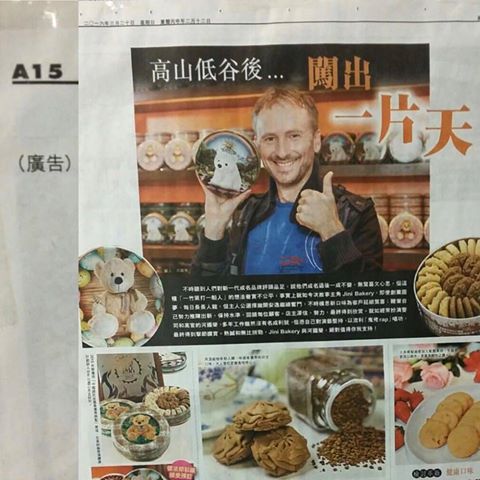
A day
earlier, the bake shop published a photo of Rivers on its Facebook page,
along with a note thanking him for �dropping by�. The post was subsequently
removed.
Netizens flooded Jini�s social media pages with angry comments and expressed
their support for Rivers. Jini
Bakery Cookies has been dismissed as a copycat version of Jenny Bakery, a
popular pastry shop which operates in Hong Kong, Singapore and mainland
China.
(Jini
Bakery Cookies Facebook) March 31, 2016.
Last night Jini Bakery Cookies
published "A Letter to Mr. Gregory Rivers" on its
Facebook in which their boss Eric Chiang Yao-ming explained:
It all began when our company
worked with Apple Daily on an advertisement ... I asked the Apple Daily
Advertising Department worker Terry to see if you will take part. He contacted a
woman named Apple who claimed to be the manager of Gregory Rivers. After Terry
sent her the advertisement, she said that Gregory Rivers has seen it, sees no
problems and will take place. The asking price was $14,000 (Terry said that the
whole sum was for you and the other costs will be billed elsewhere). I agreed to
the price and arranged for the photo session. On that day, I was away from Hong
Kong, so I asked Terry with whom I have worked many times before to assume full
responsibility.
During the session, Terry used
whatsapp to inform me that Gregory Rivers believes that this event was an
advertisement/spokesperson and wants to stop. I was obviously displeased because
your reaction was completely different from what Apple said. But I can't force
you, so I said to stop the session. However, I did not want Gregory Rivers to
lose anything on account of this, so I offered to pay the $14,000. However Terry
did not want my company to lose money so he offered to call Gregory River's
manger to see if the session could be completed at a higher price. We finished
our overseas telephone conversation. Afterwards, he called me and said that the
session was successfully completed after negotiating an additional payment. Our
company wired two sums of money into Terry's bank account, one for $14,000 and
another for $4,000 in additional payment. Although Terry insists on paying the
additional $4,000 because he said that it was his mistake, I stuck to my
principles of not wanting anyone else to lose money so I made him take the
additional sum.
After my carefully analysis of the
incident and seeing your whatsapp screen captures over at HK01, I conclude that
the woman named Apple is not your manger (Terry told me that she is your
manager) and she only paid you $2,000! She deceived you into coming to our
company for a photo session!
After this incident, our company's
reputation has been completely ruined ... At this time, this woman Apple has
deceived you, Terry (at Apple Daily) and my company. After consulting my lawyer,
I believe that this is a case of commercial fraud. It is a criminal act. I don't
know if you have to join my company's lawyer to file a police report, so that
the police can pursue this matter.
Internet comments:
- (Apple
Daily) January 27, 2015. Recently Jini Bakery Cookies took out a
full-page newspaper ad to say that certain people are selling their cookies
under other brand names in an improper manner. Jini Bakery says that they only
have two official retail outlets, one in iSquare (Tsim Sha Tsui) and the other
in Tsuen Wan Citywalk. In the ad, Jini Bakery did not name the other brands.
However, many people believe that this must be Jenny Bakery which is founded
earlier than Jini Bakery.
Our reporter went down to Jini
Bakery in iSquare. The worker there said that everybody who visits Hong Kong
will buy these "Little Bear" cookies. They line up to buy from us every day."
However, the reporter did not find any other customer at the time. By contrast,
Jenny Bakery located in the next block had more than 100 people queuing up
outside. One mainland tourist waited for more than two hours to spend more than
$1,000 to buy more than a dozen boxes of cookies as presents. Because of the
popularity of Jenny Bakery Cookies, many other stores have risen to sell
counterfeit products. Rather than producing their own counterfeit products, they
are buying Jini Bakery cookies and selling them as Jenny Bakery cookies. This is
a violation of the Trade Descriptions Ordinance.

- (Oriental
Daily) For the second day in a row, Apple Daily has apologized to
Gregory Rivers. On March 31, Apple Daily's entertainment real-time news
published a news report titled "Gregory Rivers's homemade cookies, free music
video for ATV." However, the cookies in the video were computer creations which
don't exist in reality. The video caused people to misunderstand and make
inquiries with Gregory Rivers.

- Gregory Rivers spent more than
20 years licking TVB's boots and got nowhere with his career. But he is suddenly
popular with Yellow Ribbons because of his anti-TVB, anti-government comments.
- Don't be silly. Gregory Rivers
is a veteran performer, so he will always saying things that are wishy-washy.
For example, here is what he has to say about the Mong Kok riot:
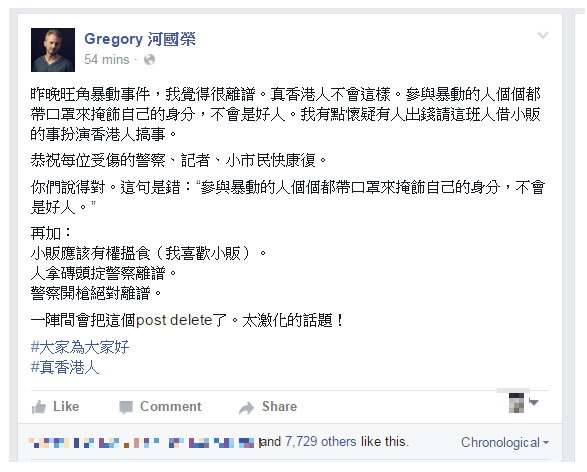
I found last night's Mong Kok
riot to be ridiculous. Real Hongkongers don't do this. Everyone who participated
in the riot used masks to cover their faces, so they must be bad guys. I have
some suspicion that someone paid these people to use the vendors' issue to cause
trouble as Hongkongers.
I pray that each injured
policeman, reporter and citizen will recover soon.
You are right. It was wrong to
say: "Everyone who participated in the riot used masks to cover their faces, so
they must be bad guys."
P.S.
Vendors should have the right
to make a living (I like the vendors).
People throwing bricks at the police is ridiculous.
The police firing shots is even more ridiculous.
In a while, I will delete this
post. It is a radicalized subject!
Can you figure out which side he
is on?
- Elephants can fly if Apple Daily
writers can be trusted to tell the truth.

(Huaxi
Dushibao) April 1, 2016.

On the morning of April 1 in Sanpu
village, Buyao town, Zhaojiao county, Liangshan prefecture, villager Ma Weiha
sensed that his chickens and sheep seemed to be scared by something. So he went
out to check and he found a panda hiding in his courtyard. Ma said that the
villagers keep about a dozen mountain hunting dogs, and he was concerned that
the panda might be chased and injured by the dogs. So he immediately informed
the community director. Meanwhile villagers heard that a panda had been found.
So they rushed over because they were all concerned that the panda might be
endandered. So they used ropes to tie up the panda and formed a human wall to
protect it. They also called the Forestry Department immediately. The panda was
eventually released back into the wilderness.
(Apple
Daily) Panda appears, villagers forcibly press it on the ground for a
group photo. April 1, 2016.

Zhaojiao country Liangzhou
prefecture Sichuan province villagers found a 100-kilogram panda in the
wilderness. Many villagers were excited and they pressed the panda on the ground
in order to take photos with this "national treasure." This was the second time
that a wild panda has been found here. The villagers found this panda very
interesting. After the Forestry Department was apprised, they immediately placed
the panda under protection, and they planned to send the panda into the Meigu
Dafongting National Nature Preservation Area.
Internet comments:
- Apple Daily does not have any
correspondents covering news in mainland China. They have dozens of writers
sitting in a large room scouring the mainland websites. The writers look for
stories which they rewrite with angles that are more aligned with the political
inclinations of Apple Daily. This is the kind of journalism practiced in Hong
Kong today. There is absolutely no reason to spend any time learning journalism
at the Journalism and Media Studies Centre at Hong Kong University.
- When Apple Daily says that
everything in China is fake, we encounter a philosophical conundrum. If Apple
Daily is lying some of the time, then is everything in China fake or not?
- This Apple Daily news story is
as dumb as it gets. Everybody in China knows that it is a serious crime to trap
a panda and hold it under captivity. Such being the case, would you pose for a
group portrait to be widely distributed by a newspaper? Is there better evidence
for a criminal conviction?
- All this was supposed to stop in
1998 as Jimmy Lai promised, but it has actually gotten worse. A lot worse.
(SCMP)
October 30, 1998.
The husband of the
woman who last week threw her two sons then herself to their deaths from a
Sheung Shui building said yesterday he had been a victim of media trickery
and his own greed.
Chan Kin-hong said
that in the days after the deaths of his wife, Lam Man-fong, 41, and sons
Ho-wai, six, and Ho-yin, 10, he accepted money from a newspaper, spending
it on prostitutes in Dongguan. 'I was tricked into allowing the newspaper
to photograph me with the women. I was greedy for the money,' Mr Chan said
in a television interview last night. He has become a figure of hate since
the media scrutiny of his sex life.
Yesterday, Mr Chan,
41, was attacked by four or five men as he burned offerings to his wife
and sons, who were cremated on Wednesday.
Mr Chan said he was afraid to travel to the
mainland since the newspaper and television reports on him and his family.
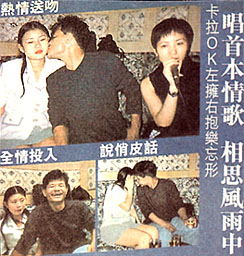
'I was set up by a
newspaper. I was greedy for $5,000 which was offered to me to have my
picture taken in bed with two women. I did it as a floor show to get the
press off my back,' Mr Chan said. 'I'm sorry for what I've done. I know
I've wronged my wife and my two sons. I deeply regret that what I did in
the past caused the deaths of my beloved wife and sons. I have been sacked
from my job and I don't have any friends any more. All my relatives have
been keeping away from me. I promise to turn over a new leaf. I have to
find a job soon because I can't depend on the allowance from the Social
Welfare Department.'
Yesterday's attack
came as Mr Chan burned the offerings at the back door of an undertaker in
Winslow Street, Hunghom, after staff refused to let him inside. Passersby
abused him as TV cameras filmed and shortly afterwards a group of men
appeared and kicked and beat him. Mr Chan suffered bruises and a cut lip,
but told police he did not want to report it.
Mr Chan urged reporters not to follow him
and said he was contemplating legal action against two newspapers for
calling him 'names', and ruining his reputation.
(SCMP)
November 11, 1998.
The Apple Daily
newspaper yesterday gave over its entire front page to an apology for its
reports on controversial widower Chan Kin-hong. Owner Jimmy Lai Chee-ying,
who signed the apology, said the incident had been handled improperly,
although he insisted the paper had not, as alleged, paid $5,000 directly
to Mr Chan. He described the reports as 'sensational' and pledged a review
of the newspaper's practices. 'The inappropriate way of handling the
stories made the readers and the public dissatisfied and led to strong
criticism. I and the editorial management of the paper are uneasy and
sorry about it,' he wrote.
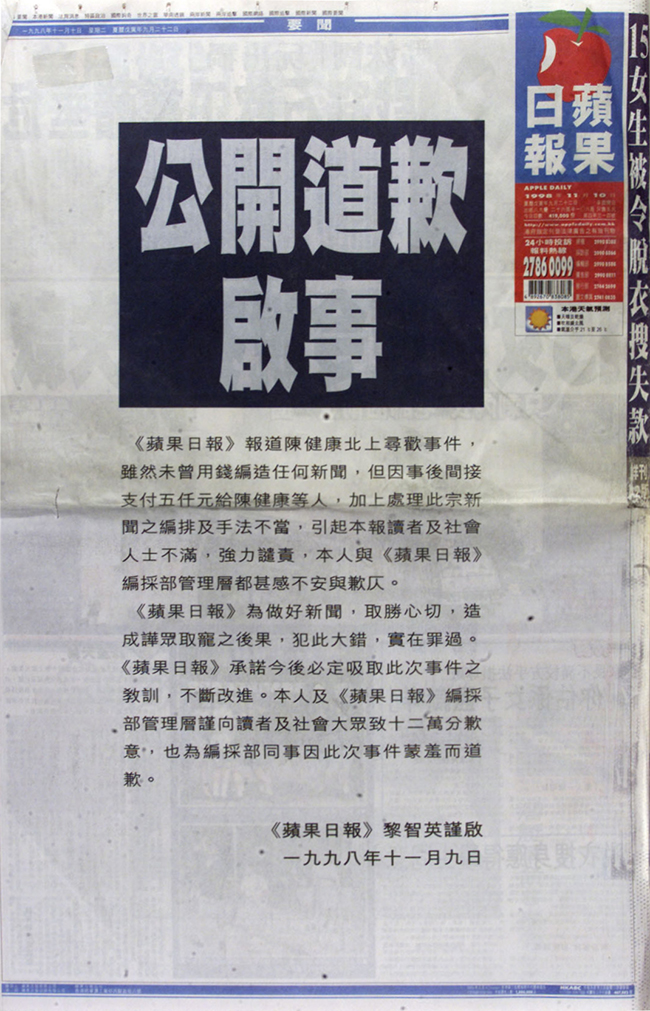
Mr Chan, 41, drew
media interest after his wife threw their two sons out of a window before
leaping to her own death from their Sheung Shui home on October 19. She
was reported to be upset about her husband's visits to mainland
prostitutes. Soon afterwards, Apple Daily printed pictures of Mr Chan in
bed with prostitutes in Dongguan. It said it had paid $5,000 to Mr Chan's
associates.

(Oriental
Daily) April 2, 2016.
Hoi Tin Tong filed a lawsuit
against Apple Daily three years ago about a newspaper report in which Hoi Tin
Tong was accused of selling rotten turtle jelly. During the civil trial, it was
revealed that Hoi Tin Tong's former partner Choi Kwok-keung had provided the
information to Apple Daily. The High Court ordered Apple Daily to turn over the
unedited video to Hoi Tin Tong. However, Apple Daily appealed to the Court of
Appeals.
In its ruling, the Court of
Appeals said that the courts will protect the confidentiality of sources for the
sake of public interest. However if the newspaper had already disclosed the
identities of the sources, then it can no longer use that as a reason. In this
case, Apple Daily published a video in which Choi Kwok-keung was identified as
the source who brought the reporter to Hoi Tin Tong to film how a female worker
processed the rotten turtle jelly. The video also showed the name badge of that
female worker. Choi Kwok-keung also admitted that he arranged for the Apple
Daily reporter to meet with the female worker.
The Court of Appeals also said
that the sworn statement by the Apple Daily reporter did not address anything
about leaking the identifies of Choi Kwok-keung and the female worker. In
considering this case, the courts noted that the sworn statements did not say
that other sources have to be protected besides those who are already known.
Therefore the court ruled the High Court was correct in ruling that Apple Daily
must provide the original video to Hoi Tin Tong.
Internet comments:
- (YouTube)
Apple Daily, September 12, 2013.
When the video began, the ID badge
of the female worker was made fuzzy. The video was said to be taken by a hidden
camera and the voice was distorted.
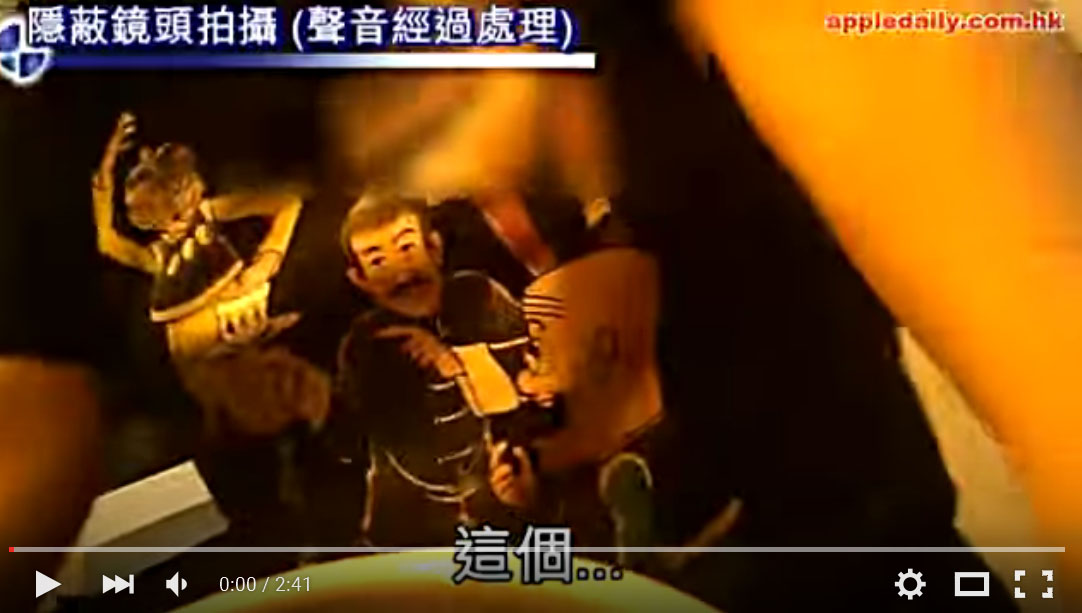
Once into the video, the protocol
was tossed into the wind. For example, at 1:21, you can see the name of the
female employee very clearly.
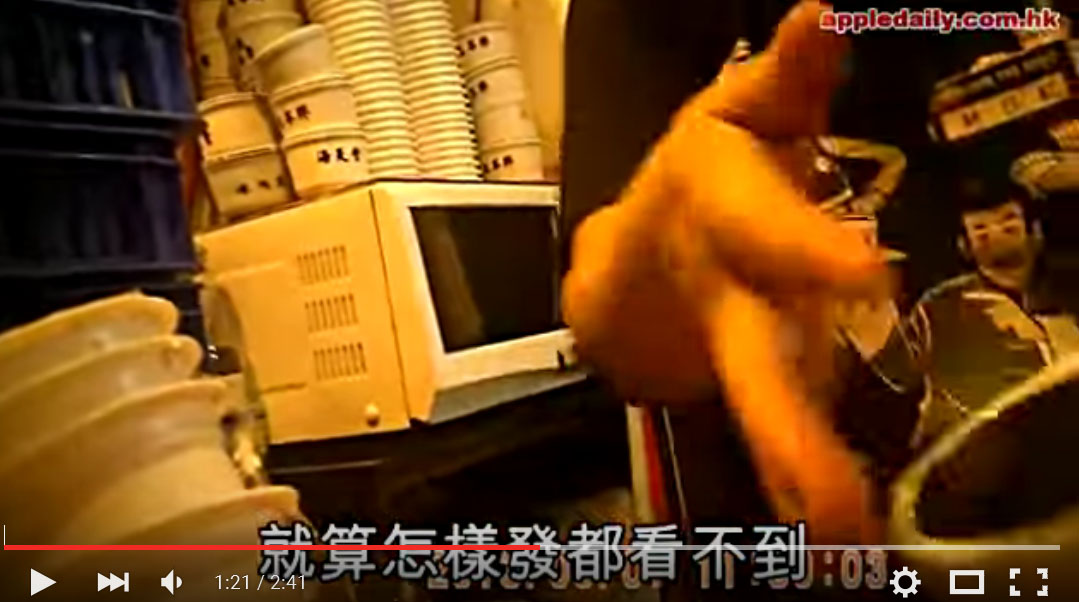
In a case like this, the
stakes are very high because a company can be destroyed. Guilty or not, the
company will file a lawsuit. Everything about this report should have been
reviewed many times by the reporter, editors and lawyers. How can this sort
of elementary mistake be missed? You get the sense that they don't care at
all. This is because the advertising revenues have far outstripped the
potential penalties. For example, you can be fined for inaccurate reporting but the costs
are less than one full-page advertisement for one day.
- (Wen
Wei Po) April 1, 2016. Apple Daily was ordered to pay $100,000 in
court fees.
- But that still pales in
the wake of the HK$1,660.8 million in lost revenue.s

(HKG
Pao) April 22, 2016.
Last week Apple Daily published an
article titled: "Winnie Tam: Leave the bootlicking to Junius Ho." In the
interview, Bar Association chairperson Winnie Tam was quoted as saying: "There
are many bootlickers. Look at Junius Ho. Leave it to him, right?" Last night
Junius Ho disclosed on his Facebook that Winnie Tam has apologized to him.
However, Tam said that the report title did not represent her views and she will
ask Apple Daily to clarify and apologize.
Ho said that Tam was astonished by
the report title. The interview had gone on for three hours, and she does not
recall how Ho came to be mentioned and she does not recall what she said. But she clarified
that she has always thought that Ho spoke sincerely and responsibly. She will
ask Apple Daily to clarify and apologize.
Ho said that he and Tam were
acquainted 31 years ago. They are good friends and he does not believe that Tam
would deliberately hurt or smear him. He accepted Tam's apology and "felt at
ease." Tam is overseas at this time, but they will have lunch together once she
returns home. Ho said that the Apple Daily has hurt both of them, and they will
discuss joint action.

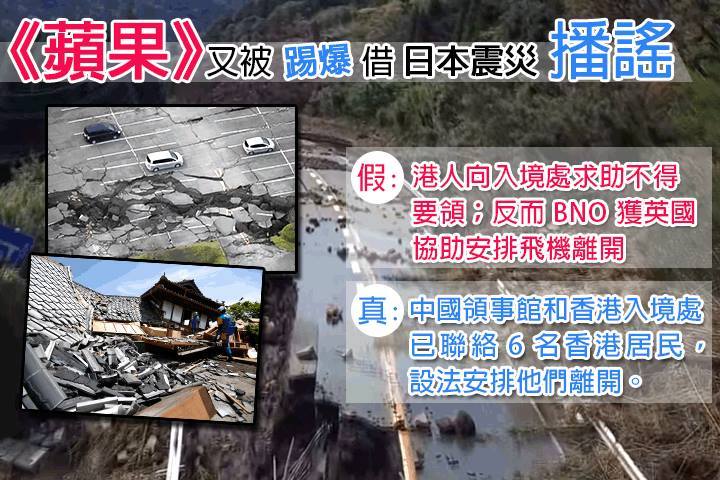
Apple Daily: According to a
Hongkonger's post on the Internet, he sought help from the Hong Kong Immigration
Department after the Kumamoto earthquake and received nothing. Instead, his BNO
enabled him to leave by airplane with the help of the British embassy.
Truth: The Chinese embassy and the
Hong Kong Immigration Department reached six Hongkongers stranded in Kumamoto and arranged for them
to leave.
[After the earthquake, Apple Daily
published an article titled "Thoughts about Hong Kong independence in terms
of consular
protection." A individual with a HKSAR passport called the Immigration
Department for help after the earthquake and got nowhere. Meanwhile, a BNO holder
called the British embassy and the British government helped the person to
purchase tickets to fly to Tokyo and then leave Japan. The difference was night
and day. The conclusion: "It was no wonder that the voices for Hong Kong
independence (or even return to United Kingdom) have been so loud."
But Wen Wei Po pointed out that
Kumamoto was an isolated city after the earthquake. The airport was only
reopened days later. Since the security screening equipment was damaged,
there are still no outbound passenger flights. It was also impossible to exit by
high-speed rail or expressway because the roads and the rails were damaged
during the earthquake. All Hongkongers stuck in Kumamoto will have to wait for
the airport, roads or railways to be repaired before they can leave.]
(Wen
Wei Po) April 20, 2016.
The source of Apple Daily's story
is a comment left at Passion Times. A Hongkonger in Miyazaki
(Kyushu) said that it was a waste of time to call 1868 (the Hong Kong Immigration Department
help line)
because the receptionist will only say to take good care of yourself. Fortunately, this person
has a BNO passport. When he called the local British consulate, he was told how to
proceed to Fukuoka. He also got help to book airline tickets at 8am to fly from
Fukuoka to Tokyo and then transfer to fly to Hong Kong. Furthermore, the fare
for the Fukuoka-Tokyo leg can be paid at the British consulate after he returns
to Hong Kong.
However, Miyazaki was not affected
by the earthquake because it is 185 kilometers away from the quake center of Kumamoto.
Miyazaki is
connected to Tokyo by expressway on which traffic had not been interrupted by
the earthquake. So it is nonsense for this person to need to seek the help of
the British consulate to reach Tokyo from Miyazaki and then to Hong Kong.

(SCMP)
March 29, 2016.
A new group appearing
to be at the extreme end of the localism movement is setting up a party to
turn Hong Kong into an independent republic, swiftly inviting scepticism
across the political divide.
Calling itself the
Hong Kong National Party, the group said it would not recognise the Basic
Law, the city�s mini-constitution, a stance that could have it mired in
legal trouble.
Led by former Occupy
Central activist Chan Ho-tin, the National Party will use �whatever
effective means� available to push for independence, including fielding
candidates in the Legislative Council elections in September and co-ordinating
with other pro-independence localist groups.
�Staging marches or
shouting slogans is obviously useless now. Regarding using violence, we
would support it if it is effective to make us heard,� said Chan at a press
conference he conducted alone on Monday at a flat in a Tuen Mun factory
building.
He claimed the party
was funded entirely by the donations of its 50-plus members, mostly
university students and young activists.
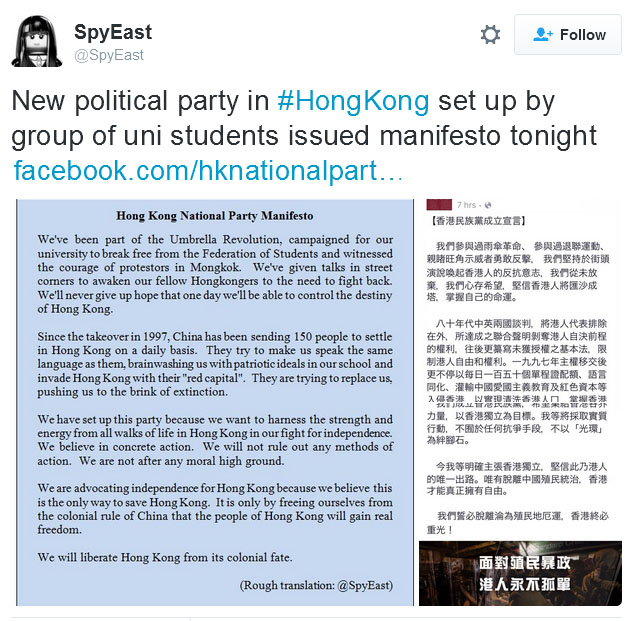
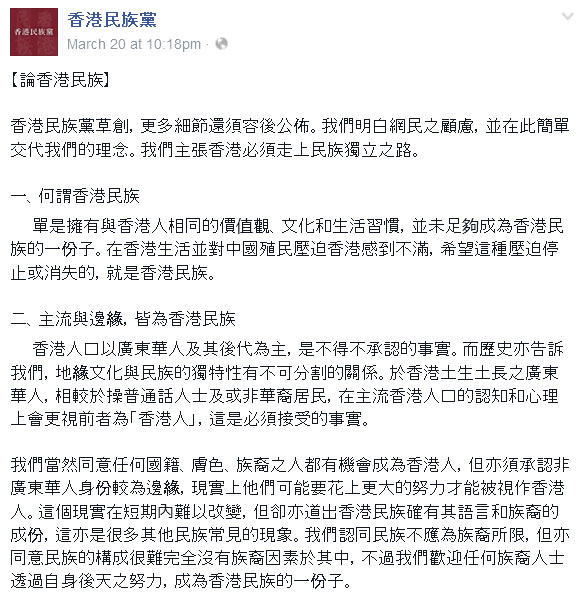
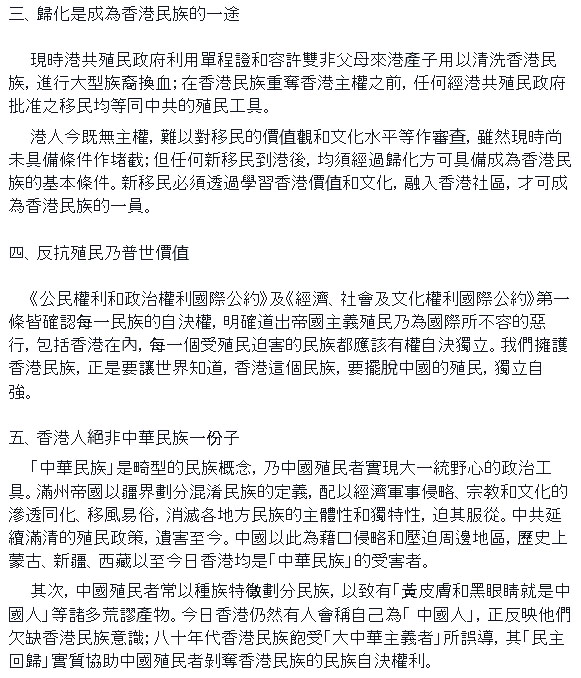
On the Hong Kong Nation:
1. What is the Hong Kong
Nation?
Just holding values, culture
and habits similar to Hongkongers isn't sufficient to become a member of the
Hong Kong nation. The Hong Kong Nation are those who are dissatisfied with the
colonial oppression of Hong Kong by China and want this oppression to stop or
disappear.
2. The mainstream and the
margins are all in the Hong Kong Nation.
It is an undeniable fact that
Hongkongers are Chinese people from Guangdong and their descendants. But history
tells us that regional culture is inseparable from unique national
characteristics. The Guangdong Chinese who were born and raised in Hong Kong
will be known and regarded by the mainstream Hongkongers as more "Hongkonger"
than those who speak putonghua or are non-Chinese residents.
Of course, we agree that
persons of any nationality, color or race can become Hongkongers. But we must
admit that non-Guangdong Chinese people are more marginal, so that they will
have to spend more effort before they can be regarded as Hongkongers in
practice. This reality cannot be altered in the short run, but it shows that the
Hong Kong Nation has its own language and race. This can be frequently found in
other nations. We believe that the nation should be restricted by race, but we
also agree that a nation cannot be formed without any racial factors. We welcome
persons of any race to become a member of the Hong Kong Nation by their efforts.
3. Naturalization is one way to
become the Hong Kong Nation
Presently the Hong Kong
Communist colonial government is using the one-way-visas and the births of
infants whose parents are not Hong Kong residents to cleanse the Hong Kong
Nation through a large-scale racial genetic transformation. Before the Hong Kong
Nation retakes its own sovereignty, any immigrant approved by the Hong Kong
Communist colonial government is an immigrant tool of the Chinese Communists.
Hongkongers do not have
sovereignty and therefore cannot screen the values and cultural levels of the
immigrants. Presently they are unable to block the immigrants. But any newly
arrived immigrant in Hong Kong must go through a naturalization process before
that meet the conditions to become part of the Hong Kong Nation. New immigrants
must melt into the Hong Kong community through learning Hong Kong values and
culture before they can become a member of the Hong Kong Nation.
4. Opposing colonialism is a
universal value
The International Covenant on
Civil and Political Rights and the International Covenant on Economic, Social
and Cultural Rights both have Articles that recognize the right of each nation
for self-determination and that colonial imperialism is an evil act that isn't
allowed by the international community. Every nation which was oppressed by
colonialism, including Hong Kong, should have the right for self-determination.
We support the Hong Kong Nation in order to let the world know that the Hong
Kong Nation will shrug off Chinese colonization and become independent and
self-sufficient.
5. Hongkongers are not part of
the Chinese Nation
The Chinese Nation is a
deformed concept for nationhood. It is a political tool used by the Chinese
colonists to rule. The Manchurian Empire used territorial boundaries to muddle
up the definitions of nations, using economic and military invasions, religious
and cultural infiltration to transform cultures and customs and destroying the
sovereignty and uniqueness of the various nations and forcing them into
submission. The Chinese Communists continued with the Manchurians' colonial
policies to now. China used these excuses to invade and oppress the neighboring
countries. Historically Mongolia, Xinjiang and Tibet and now Hong Kong today are
the victims of the Chinese Nation.
The Chinese colonialists often
used racial characteristics to distinguish among races, so that they came up
with absurd ideas such as "all those with yellow skin and dark eyes are
Chinese." Today in Hong Kong, some people still think that they are "Chinese"
which showed that they lack consciousness of Hong Kong nationhood. In the
1980's, the Hong Kong Nation was misled by the Greater China advocates, and
their "democratic return to China" actually deprived the Hong Kong Nation of the
right for self-determination.
Video: Press conference about the
establishment of the Hong Kong National Party. March 28, 2016.
https://www.youtube.com/watch?v=beC4MK6j5Ac
(SCMP)
March 30, 2016.
Beijing�s
office in charge of Hong Kong affairs has slammed the establishment of a new
political party advocating independence for the city as a serious violation
of the country�s constitution, the Basic Law and a threat to national
security.
The State Council�s
Hong Kong and Macau Affairs Office issued a strongly worded statement
through the official Xinhua news agency on Wednesday, after the Hong Kong
National Party �announced its formation on Monday. It has yet to be
�registered. The party, led by former Occupy activist Chan Ho-tin, has
pledged to push for independence by, for example, fielding candidates in the
Legislative Council elections in September.
�The establishment of
a pro-independence party by an extremely small group of people in Hong Kong
has harmed the country�s sovereignty and security, as well as endangered the
prosperity and stability of Hong Kong,� a spokesman for the office was
quoted as saying. �It has also harmed the interests of Hong Kong. It is
firmly opposed by all Chinese nationals, including some seven million Hong
Kong people. It is also a serious violation of the country�s constitution,
Hong Kong�s Basic Law and the relevant existing laws.�
The office said the
Hong Kong government would handle the matter according to the law. �We are
aware that the Hong Kong SAR government has �already rejected the party�s
registration. It was a suitable action,� the office was quoted as saying.
But the party was
undeterred. It issued a statement on Wednesday saying a constitution is
supposed to serve as a proclamation on how citizens are to be protected. �It
is ridiculous that the citizens are accused of violating the constitution,�
the party said. It also dismissed as �ridiculous� a warning on Tuesday by
the Department of Justice that it might take legal action against the party.
�We will not be afraid of such draconian laws. Bring it on. We will push
ahead with Hong Kong independence with Hong Kong people,� the party said.
A government spokesman
�replied: �Any suggestion that Hong Kong should be independent or any
movement to advocate such �independence� is against the Basic Law, and will
undermine the stability and prosperity of Hong Kong and impair the interests
of the general public. The SAR government will take action according to the
law.�
Political commentator
Johnny Lau Yui-siu said Beijing�s condemnation was �unnecessary� because
pro-independence �ideology had not gained support in the city. �The
statement would in fact drive more Hong Kong people to care about the issue
of independence. They may not support it but they will think about it,� Lau
said.

Internet comments
- (NOW
TV) The Hong Kong National Party says that they have 30 to 50 members at
this time, half of them being university students. The convener Chan Ho-tin was
the convener of the Polytechnic University Concern Group For Withdrawing From
The Hong Kong Federation of Students. Chan said that the Hong Kong National
Party will actively think about entering the Legislative Council elections. They
do not exclude the possibility of working with other Localist groups.
- (Oriental
Daily) How do you squeeze the toothpaste out of an empty tube? The press
asked Chan Ho-tin how many members were in the Hong Kong National Party. Chan
beat around the bush for a while. When finally pressed to the wall, he said that
they have 30 to 50 members. When asked who these people are, he eventually said
that half of them are students. But he won't say what the other half is. When
asked where the money comes from (for example, to rent the office at which the
press conference was being held), Chan said that all their members are funders.
- Chan Ho-tin graduated from
Polytechnic University six months ago. He is working full-time for the Hong Kong
National Party. Is there more money in political party-building than a regular
job?
- The Hong Kong National Party
opposes Hong Kong Basic Law Article 1, which states that Hong Kong Special
Administrative Region is an inalienable part of the People's Republic of China.
The reasoning is that Hong Kong began functioning as a port in 1841, which was
before the founding of the People's Republic of China in 1949.
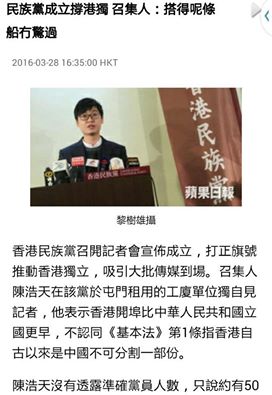
- When the Hong Kong Nation is
founded, we must immediately start a racial cleansing campaign to get rid of all
impure, inferior racial types such as new mainland Chinese immigrants and South
Asians!
- After the Hong Kong Nation is
founded, the new immigrants (=all those who came to Hong Kong after July 1,
1997) will not automatically become Hong Kong Nation citizens. Instead they will
go through special screening and subject to re-education if they fail to meet
the requirements.
- What requirements? Firstly,
there is the language test on reading/writing traditional Chinese characters,
and speaking/listening to Kong-style Cantonese (note: Canton-style Cantonese is
unacceptable). Secondly, there is the new
Constitution and the revised history of the Hong Kong Nation where Year Zero is
1841.
- Culture always starts with the
cuisine. In the Hong Kong Nation, the national foods shall be curry fish balls,
shumai, fried pork intestine, chicken feet, fake shark fin soup,
rickshaw noodles, the mixture of coffee and milk tea, pineapple bread, etc. All the foods of the Chinese
colonizers will be banned, including Peking duck, Yangchow fried rice, Guangdong
roast goose, Chung King hot pot, Wan Nam rice noodles, Shanghai stir-fried thick
noodles, Shan Tung dumplings, Sichuan fried wontons, Mongolian lamb, Lan Chow beef
noodles, Chiu Chao marinated meats, etc.
- But what should we do about
French fries, French toast, Taiwanese beef noodles, American/Swiss cheese,
American pie, Brussels sprouts, Spanish omelet, Greek salad, Danish cookies,
Norwegian/Scottish salmon, Swedish meatballs, Indian curry, New York cheese
cake, Philadelphia cheese steak, Boston lobsters, London broil, Yorkshire pudding, Hungarian goulash,
Russian cabbage soup, etc?
- It is not necessary to ban all
these traditional dishes. We only have to rename them. For example, Peking duck
becomes Tsim Sha Tsui duck, Yangchow fried rice becomes Cheung Chau fried rice,
etc. See
Freedom
Fries for international standard operating procedure (SOP).
- (Wikipedia)
The genuine indigenous Hong Kong people are the five families with the names,
Tang, Hau, Pang, Liu and Man during the Yuan dynasty (1271-1368). These are the
earliest recorded settlers of Hong Kong. It is still an open question whether
the revised history of the Hong Kong Nation will begin with these aborigines or
the Treaty of Nanking.
- Well, does American history
begin with Eric the Red, Christopher Columbus. the Mayflower pilgrims or the native Indians? No,
American history begins with the founding of the United States of America after
the War of Independence, not a moment earlier.
- Whoever wins the final battle
and exterminates all enemies will get to write history. Everybody knows that.
- Those who were born in mainland
China but came before July 1 1997 are Communist infiltration agents. It is true
that some of them may be genuine Hong Kong Nation people. But during a state of emergency, there won't
be time to sort things out. About 30% to 40% of all Hong Kong residents were
born in mainland China. The simple solution is to march them to the border and
order them to walk over to the other side. If they won't move, fire machine guns into
the air. If they still won't move, fire machine guns at them. They will all be
gone, one way or the other. Hong Kong will be a much better place to live in.
Housing prices will plummet and everyone will have at least one apartment. Food
and water will be easy to find due to reduced demand. Jobs will be begging for workers and wages will
go through the roof. Happy days will be here.
- I don't know how your economics
will work. You propose to eliminate 40% of the population, most of whom are
elderly people. The immediate impact is to those who cater mainly to these
people. For example, you won't need so many nursing homes. So most of the
nursing homes will be closed and their workers will be jobless. And when the
population shrinks by 40%, the overall economy will also shrink. For example,
the 7.3 million Hongkongers are served by around 30,000 licensed restaurants
which earn an average of 3% profit. If the population shrinks by 40%, there are
that many people eating out and therefore the restaurants can't all maintain the same revenue levels. When they become unprofitable,
they will raise prices and take austerity measures (such as reducing operating
hours, employee head counts, salaries and working hours). A large number of
these restaurants (maybe not 40%, but 20% is plausible) will be closed and their
employees jobless. This is going to happen across most economic sectors.
- When your household income falls
because some household members lost their jobs, you won't go and eat out. This means that
the catering industry will be devastated. Ditto cinemas, karaokes, department
stores, consumer durables, etc.
- About seven percent of those
with right of abode in Hong Kong are not of Chinese ancestry. They are
Europeans, Indians, Filipinos, Indonesians, etc. Unfortunately for them,
many can't pass the civics test on Hong Kong language, history and culture. We
will need the support of the United Nations Security Council members (United
States, United Kingdom, France, Russia, etc) to recognize the Hong Kong Nation,
so their citizens will be allowed to stay if they wish even if they can't pass
the civics test. But all others (such as Indians, Pakistanis, Filipinos,
Indonesians, etc) will be given a short period of time (e.g. 24 hours) to pack up and go home
where they belong.
- You fool! How do you arrange air
transportation for 400,000 people to leave in 24 hours?
- Why is that a problem? Just
march them over to Shenzhen and let them figure out to get home (by air, sea,
land, whatever).
- Even if you were born in Hong
Kong, you will still have to be screened based upon your personal history (e.g.
your schooling, your work, your family, your associates, etc). After all, CY Leung
was born in Queen Mary Hospital and studied at King's College/Polytechnic
University during the British colonial era but he is not a "genuine Hongkonger."
Here are some examples of the
criteria: If you attended the pro-China Pui
Kiu Middle School, you will be on the list of excluded people; if you work as a
policeman, you are excluded; if your retired father worked as a policeman
before, you are excluded; if your wife works for the Bank of China, you are
excluded; etc).
- Also, your Facebook will be
closely studied for Blue Ribbon tendencies which is cause for expulsion from
Hong Kong.
- It is less important to define
who is a Hong Kong Nation citizen. The important thing is to persuade others to
join the Hong Kong Nation. But no exceptions should be given to anyone born in
mainland China or whose parents were born in mainland China. These vermin belong
to the hostile invasion forces sent down here by the Chinese Communists.
- The more important point is to
get people to join the Hong Kong Nation. As for those who refuse to join the
Hong Kong Nation, they will be judged by People's Court and declared to be
Enemies of the People. It is expected that a state of emergency will exist
during the first days of the Hong Kong Nation. All Enemies of the State will be
interned, expelled or executed.
- After the Revolution takes
place, it is likely that there will be a great deal of hardship due to the
expected
embargo by mainland China and their ally toadies. If a referendum/plebiscite were held, it is likely
that a Chinese Reunification Party will make a clean sweep. Therefore, Article
1 of the Constitution of the Hong Kong Nation must necessarily be: "Hong Kong is
an inalienable part of the Hong Kong Nation."
- Basic Law Article 2 about the
National People's Congress will be erased. In its place will be "Article 1 of
the Constitution of the Hong Kong Nation cannot be amended under any
circumstance."
- ... but what if they amended
Article 2 first before they amend Article 1?
- Basic Law Article 3 about
citizenship requirements shall replace "permanent residents" by "those born in
Hong Kong, speak/write Cantonese and have passed the history/culture test."
- Basic Law Article 4 about
"safeguarding the rights and freedoms of the citizens" shall be suspended
indefinitely until as such time that all traitors and saboteurs are eradicated.
...
- (TVB)
On March 28, 2016, the Immigration Department reported that more than 576,000
persons entered Hong Kong. Of these more than 170,000 entered via Lo Wu, more
than 61,000 via Lok Ma Chau and another 90,000 plus through the airport. This is
the reason why the people of Hong Kong are up in arms about! When the Hong Kong
Nation is founded, all human traffic between borders will be halted pending
studies to be performed by experts appointed by the transitional government.
- Two types of people were
entering Hong Kong at the end of this four-day Easter holiday. Firstly, they are
mainland invaders. They obviously should not be allowed to come to Hong Kong and
defecate/urinate in the streets/subways. Secondly, they are Hongkongers who
spent their vacation in mainland China. They should not be allowed to spend
their money over there. So sealing off the borders will be in the best interests
of the Hong Kong Nation.
- When the inevitable collapse of
China occurs and the Hong Kong Nation comes into existence, we must be prepared
to immediately form a
Committee of Public Security/Revolutionary
Tribunal. All existing laws should be vacated. In the interregnum, there
should be a
Law
of 22 Prairial, which will forbid persons to employ counsel for their
defense, disallow the hearing of witnesses and make death the sole penalty.
- The assumption is often made
that when the Hong Kong Nation comes into being, the first task is to
immediately convert all the
Hong Kong Economic and Trade Offices (HKETOs) into embassies. At this
time, there are 12 HKETOs outside the Greater China region (in Berlin, Brussels,
Geneva, Jakarta, London, New York City, San Francisco, Singapore, Sydney, Tokyo,
Toronto, and Washington DC). and eight in the Greater China Region (including
one in Taiwan). Looking at this lineup, it looks like we need to set up offices
in Moscow, Paris, Sao Paulo, Mexico City Johannesburg, New Dehli, Rome, Madrid,
Stockholm, etc pretty soon in order to cover all the major powers.
- You can't declare your overseas
offices as embassies on your own. You have to establish diplomatic ties with
the home countries first. What makes you think that they will risk making
enemies with China?
- There is so much preparation
work that the Hong Kong National Party must perform in anticipation of
Independence Day. Everything costs money (e.g. the rent for the office in the
Tuen Mun industrial building), so it is time for all future Hong Kong Nation
citizens to donate money to the Cause. Since the Hong Kong National Party has neither corporate
registration nor bank account (because the name Hong Kong National Party
contravenes the Basic Law), they will accept cash donations only. So send more
money more frequently to them!
- Of course, the reason why they
have to field a candidate for the Legislative Council elections is that the job
pays $93,000 per month plus another $100,000 for staffing. By comparison, the
average starting salary for a recent university graduate is only $11,000.
- More evidence that there is
plenty of money to be made in the Hong Kong independence industry:
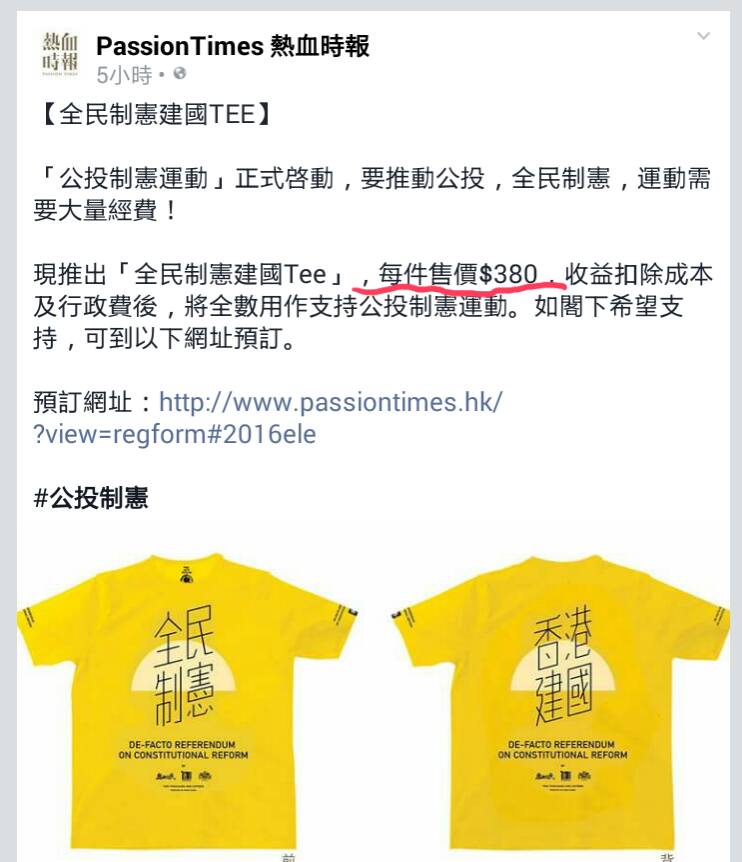
These Civic Passion t-shirts are
being sold at $380 per piece. It is for certain that these t-shirts are not made
in Hong Kong. It is most likely that they produced in China for less than $10
apiece. To not help China, the shirts can be ordered from Cambodia.
- (Facebook)
When this Civic Passion member was challenged to a one-on-one fight, what does
he do? He valiantly took out his telephone to call the Evil Police for help. Of
course.
- The share of voters for the radical Localists is fixed. More organizations coming in means greater
competition. From here
to September, it will be Localists attacking each other.
- Here is the catalog of messages:
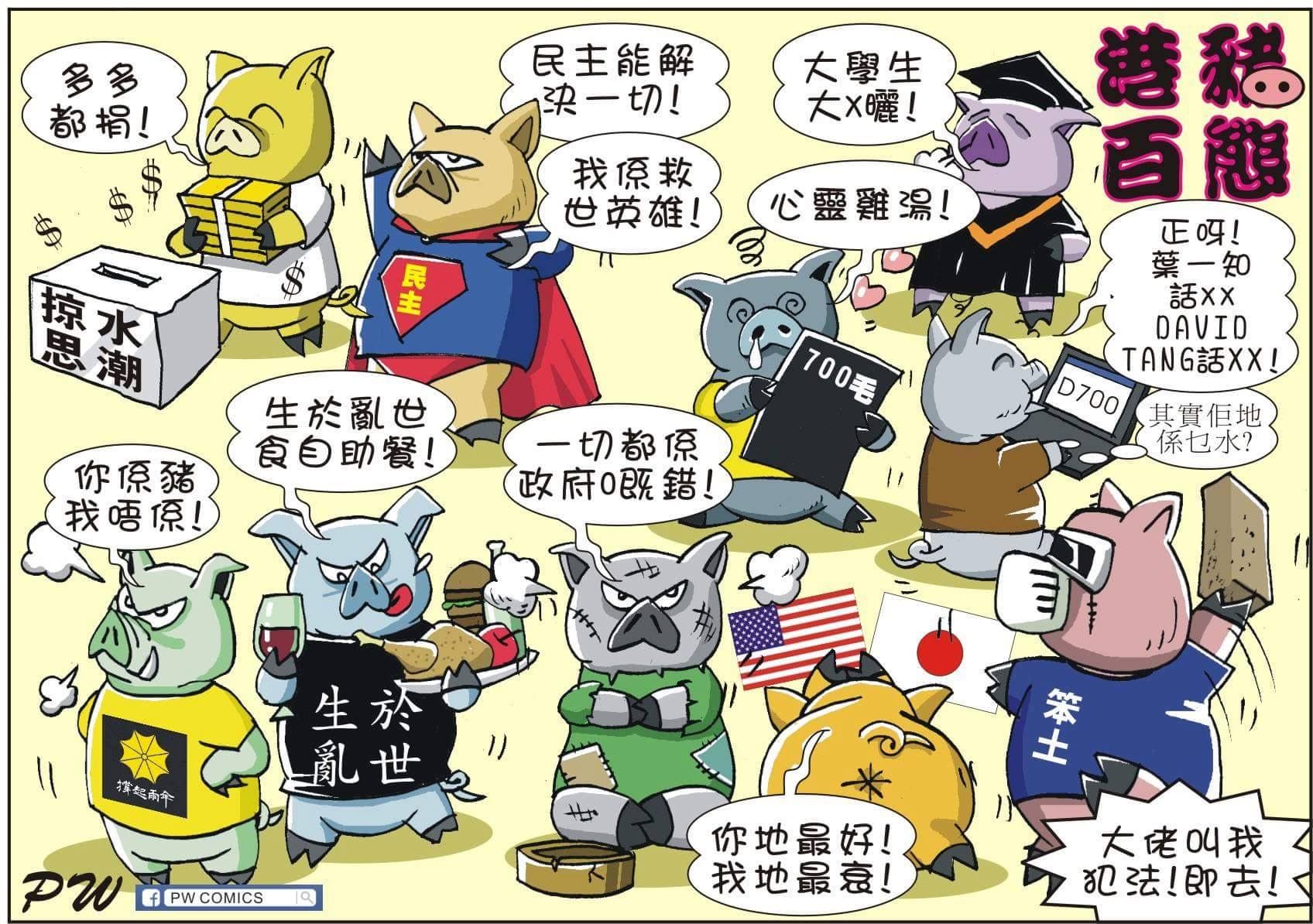
"Donate more money!"
"Democracy can solve all the problems!"
"University students rule!"
"I am your savior!"
"Chicken soup of the soul!"
"Yes! Yap Yat-tze fucking said David Tang said fucking whatever!"
"You are the pig, not me!"
"Born in a time of chaos, I am forced to eat buffet!"
"It's all the fault of the government!"
"America/Japan are the best! We're the worst!"
"When big brother tells me to break the law, I do it immediately!"
- (SCMP)
Independence party founders are both clowns and criminals � and their poison is
spreading. By Alex Lo. March 31, 2016.
It�s just a matter
of time. A new extreme localist group has been formed, calling itself the
Hong Kong National Party. It repudiates the Basic Law, the city�s
mini-constitution, seeks to establish independence for �the Republic of
Hong Kong� and will use any means, including inciting violence, to achieve
its goal.
Co-founder and
former Occupy Central activist Chan Ho-tin said his party would use
�whatever effective means� available to push for independence, including
fielding candidates in the Legislative Council elections in September and
coordinating with other pro-independence localist groups.
�Staging marches or
shouting slogans is obviously useless now. Regarding violence, we would
support it if it is effective to make us heard,� Chan said.
I am no lawyer but
it all sounds illegal. If you don�t recognise our constitution, how can
you become a lawmaker? If you advocate violence, any number of local laws
including the public order ordinance and the crimes ordinance will suffice
to define a criminal offence.
But the question is,
how should reasonable people respond to localist groups like this? Should
they be treated like clowns or criminals?
They certainly
deserve to be laughed off the stage. But as they say, it takes a village,
that is, the whole community, to stop something like that.
Alas, too many
people in Hong Kong nowadays are only too happy to make excuses for such
inexcusable individuals, exploiting their misguided efforts to spite the
government, Leung Chun-ying and Beijing.
The latter are
blamed for pushing people in Hong Kong towards extremism. I am not sure
it�s really so simple.
But for argument�s
sake, let�s say Beijing and the Hong Kong government are entirely to
blame. Does it follow we should fold our arms, shake our heads and let the
localists and their independence movement run berserk? It�s not in
anyone�s interest to let such a movement take root in Hong Kong.
Since independence
will never be a realistic option for Hong Kong, nothing good will come out
of extreme localism. This is a poison that is spreading in our body
politic. But unless we can figure out a way to channel the anger and
idealism of young people into fighting for more viable political goals,
localism will look appealing to many of them.
- (Chris
Wat Wing-yin) When my daughter first posted a message to a forum
about "a Hongkonger seeks pen pals," she got practically no response
for the whole week. Then she added "China" to her profile. Suddenly, she got
many requests from all over the world, including Slovakia, Lithuania,
Croatia, Poland and Tunisia. So in the eyes of the rest of the world, Hong
Kong is nothing but everything changes when Hong Kong becomes Hong Kong
(China). Why are these people interested in Hong Kong (China)? What do they write to
my daughter about? She said that it was mostly about daily life but many
people also asked her about homework exercises. Say what? What kind of
homework would a Polish girl need to ask my daughter about? "Chinese!" These
are young people who are learning Chinese (putonghua/simplified character
system) in school and that is why they seek out Chinese people to become
their pen pals. In this world, many people in faraway places are learning
Chinese. Meanwhile in Hong Kong, some people are proud that they don't know
Chinese (putonghua/simplified character system). Good luck to the Hong Kong
Nation! They don't know how insignificant they are in the world until Hong
Kong leaves China. At 13 years old, my daughter found this out just by posting a
message to seek pen pals.
- The Localists have a
saying that "they were born in a time of chaos and therefore they have a
certain responsibility."
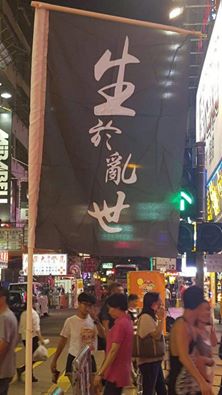
"Born in a time of chaos"? Here is the banner with those words being
displayed on bustling, prosperous Sai Yeung Choi Street South, Mong Kok
district.
Here is true chaos as it can be found in Syria. If you think revolution can
only come rise from the ashes of chaos, you need to work harder in order to
achieve
chaos (according to international standards).

- (EJ
Insight) March 31, 2016.
Beijing appears to be sufficiently alarmed by the formation of Hong Kong
National Party, which is advocating the creation of an independent
republic and the repudiation of the Basic Law.
The
SAR government promptly rejected the group�s application for registration,
warning that calling for independence is a violation of the Basic Law, the
city�s mini-constitution.
However, official condemnation of
the group has only made it well-known
over a period of just
a few days after its establishment was announced on Sunday.
In fact, attacks on the group have fueled
discussions about Hong Kong independence, prompting many people to
consider the concept of independence as an option for the city as China
tightens its grip on the territory.
A
spokesperson for the Hong Kong and Macau Affairs Office strongly opposed
any action related to Hong Kong independence, stressing that the Hong Kong
SAR is part of the People�s Republic of China under the Basic Law, and the
principles of �one country two systems� and Hong Kong people ruling Hong
Kong with a high degree of autonomy.
In
an interview with the state-owned Xinhua news agency, the spokesperson
said �an extremely small number of people� have formed a pro-independence
group, �threatening the national sovereignty and safety, as well as Hong
Kong�s stability, prosperity and basic interest�.
Such
action, the spokesperson said, is �firmly opposed by all Chinese
nationals, including some seven million Hong Kong people�.
�It
is also a serious violation of the country�s constitution, Hong Kong�s
Basic Law and the relevant existing laws.�
The
office said the SAR government would handle the matter according to the
law, and praised it for refusing to register the group.
Also
on Wednesday, the official Global Times dismissed the National Party�s
founders as �mere attention-seekers who want overnight fame�.
The paper said the idea of Hong Kong
becoming independent is �completely unrealistic�, and called on Hong Kong
people to simply ignore the group.
In a
way, Beijing�s reaction was completely understandable and expected.
In a
place where there is no freedom of expression, where people have long
lived under authoritarian rule, any concept that goes beyond the official
line is considered treason, an outright rebellion.
But
for Hong Kong people, the discussion of a topic such as Hong Kong
independence should be protected by our laws. Hong Kong, after all, highly
values its freedom of expression and thought.
That�s why we find it quite strange for
the administration of Leung Chun-ying to issue a statement echoing
Beijing�s official stance on the issue, warning that it �will take action
according to the law�.
However, the government
did not say which law it is referring to.
Even
local legislators said the government would be hard put to find
an appropriate law to sue the National Party�s members for advocating
independence.
Beijing is correct in saying that Hong Kong National Party is only a small
group.
Not
only that, it is composed mostly of university students and other
political neophytes, just like Youngspiration and Hong Kong Indigenous.
Though lacking in support from established politicians, these groups have
proved their strong influence among the youth in the district council
elections in November last year and the Legislative Council by-election
for the New Territories East last month.
In
the by-election, for example, Hong Kong Indigenous candidate Edward Leung
was able to secure more than 15 percent of the votes.
What
apparently worries Beijing and Hong Kong officials is the profile of his
supporters, which could provide some insight into the possible outcome of
the Legislative Council elections in September.
Data
provided by the electoral office shows that Leung�s votes mostly came from
traditional public estates in Tseung Kwan O, Tai Po as well as the
Northern District.
The
top 10 polling stations where Leung secured the highest votes shared the
same characteristic, which is the higher than average number of voters
born after 1990.
For
example, in the polling station of Sheung Tak Estate in Tseung Kwan O,
voters born after 1990 accounted for 23.1 percent, while in other polling
stations, they accounted for 12 percent.
That
indicates that most of the supporters of radical democrats with
independence leanings were first-time voters.
This means that most of the young voters
have a tendency to support Hong Kong independence, and this is what
Beijing authorities are most worried about.
However, Beijing�s hard-line stance on the issue could only encourage more
youngsters to register to be able to cast their votes in the September
elections.
Based on the Edward Leung�s 15 percent vote benchmark, it cannot be ruled
out that radical young democrats can secure seats in the five geographical
constituencies in Hong Kong, or five seats in total.
Hong
Kong National Party may just be an appetizer in the emerging campaign for
Hong Kong independence.
There is also a political party being formed by Scholarism stalwarts
Joshua Wong, Agnes Chow and Oscar Lai, which will be announced in
mid-April.
The new party has identified Hong Kong�s
future after 2047 as its key advocacy, which is probably another way of
saying that they will focus on the issue of Hong Kong independence.
The
three Scholarism stalwarts have deep experience in political struggle and
enjoy massive support from the youth, so it is expected that their new
party will be at the forefront of the discussion on independence.
It�s
highly likely that Beijing�s stern warning against Hong Kong National
Party is actually directed at Joshua Wong and his new party.
- (Hong
Kong Free Press) March 31, 2016.
Talk of independence for Hong Kong could
bring forward legislation to enact Article 23, the security law targeting
subversion and sedition which was abandoned in the face of mass opposition
in 2003, Hong Kong University law Professor Eric Cheung Tat-ming said on
Thursday. He added that he was worried that such discussions could touch a
nerve in the central government.
Regarding the newly-established,
pro-independence Hong Kong National Party, Cheung said that their stance
may not conform to the Constitution of China and the Basic Law, but the
suggestion that it severely endangers the country is an exaggeration,
according to a report by RTHK. Cheung said: �It�s the same as you
suggesting that �defeat the Communist Party� is against the Constitution
of China, but this does not mean that people who voiced this kind of
opinion have broken the law. The Basic Law and Bill of Rights protect
freedom of speech.�
The Hong Kong National Party announced
its establishment on Sunday, and said that they were denied registration
at the Companies Registry. �They said we could not register because of
political reasons,� said party convenor Chan Ho-tin.
With the party not being a �society� or a
�company�, those advocating for independence could be charged with
violation of the Societies Ordinance, Cheung told Apple Daily. However,
Cheung said that a lot of concern groups and alliances are also not
registered. �The government cannot enforce the law selectively.�
- (Commercial
Radio) Hong Kong University Students Union president Althea Suen
proposed to adopt Hong Kong independence as a common goal, to gain the
support of the international community and to achieve Hong Kong
independence ultimately by overthrowing the existing government by revolution
or force.
- Yippee! Let Althea Suen lead the way on
the assault of the PLA garrison in Admiralty! Millions will join and
thousand will die, but the commies will be drowned with our blood!
- Sorry that you miss the message from
Occupy Central! In a revolution, there will always be a division of labor
-- some people will charge headlong while others will stay behind to take
care of command-control-communications, logistics, propaganda, media
relations, etc. In Althea Suen's case, she will serve best as the
spokesperson interviewed by BBC/CNN/VOA/Fox News instead of throwing
bricks at PLA tanks. When the bullets start flying, someone has to be
alive and speaking from the American consulate to tell the world that we
are being slaughtered, so that our sacrifices will not go for nought.
- The Hong Kong National Party has
promised that action will begin within one month. What action? No, it's
not armed revolution. Instead, they will begin to pass out pamphlets in
the street.
- (HKG
Pao) April 5, 2016.
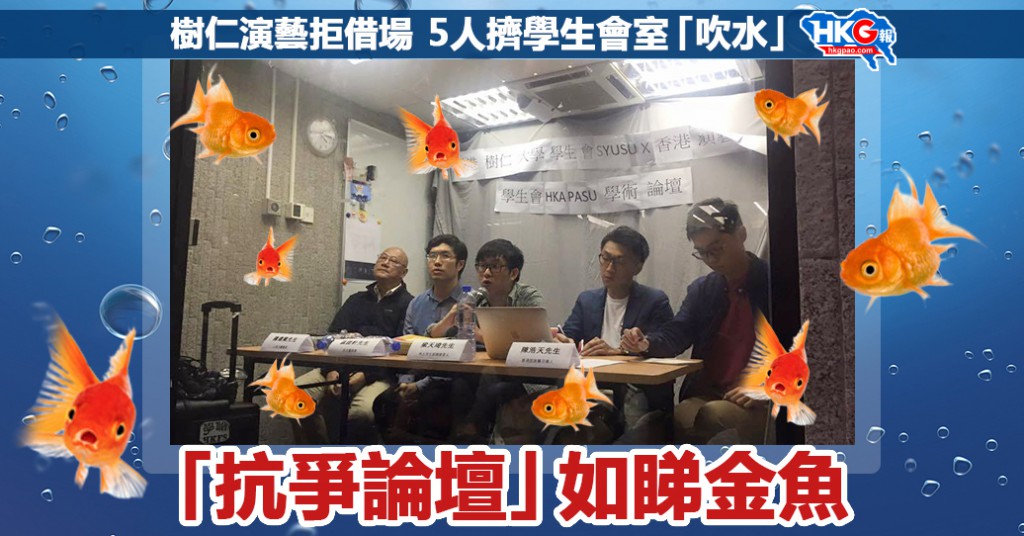
The Shue Yan University Student Union
organized a forum titled "Paths of Resistance Methods and Outcomes -- the
Debate between Peaceful Non-violence and Valiant Resistance." The school
declined to lend its facility for the event. So the event was co-sponsored
by the Academy of Performing Arts Student Union. However, that school also
declined to lend its facility. The forum was ultimately moved to the APASU
meeting room. Both Student Unions deplore their schools for obstructing
the forum. However, the Shue Yan University administrator said that the
title of the forum was different from that stated on the application and
therefore the Student Union broke their promise. Meanwhile, the Academy of
Performing Arts said that they never received a formal application from
the students. The students said that they had sent a Whatsapp message to
the school.
The forum speakers were Chan Ho-tin
(convener of the Hong Kong National Party), Edward Leung (spokesperson
for Hong Kong Indigenous), Chan Wai-yip (People Power), and Au
Nok-hin (Democratic Party). The four were seated behind a glass wall while
the audience watched them speak in the goldfish bowl. The school used the
broadcasting system every five minutes to ask people to leave this unauthorized
event.
- (HKYDS
Facebook) Baggio Leung (Youngspiration) said that since he was not
a signatory to the Sino-British Joint Declaration, he is not bound to
either learn about that Declaration or abide by it. Another guest said
that this logic means that American citizens do not have to either learn
or abide by their constitution (because the US Constitution was
created in 1787 and ratified in 1788 when none of the current American
citizens or even their parents were born yet). Leung could not come up with a riposte.
- Joe Chan's Facebook:
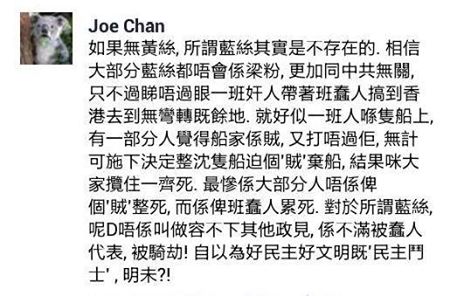
In reality, the so-called Yellow Ribbon-Blue Ribbon dichotomy does not
exist. I believe that most Blue Ribbons are not CY Leung fans and they
have no ties to the Chinese Communists. Most of them just could not stand the
sight of a bunch of crooks leading a bunch of idiots to back Hong Kong
into a dead-end alley. This is a situation in which we are all on the same
boat. Some people think that the captain is a thief, but they are not
powerful enough to stop him. So their plan is to sink the boat in order to
force the captain to abandon ship. The net result is that we all die. The
worst part is that most people were not killed by the thief, but they were
killed by the idiots who sank the boat. As for the assertion that the Blue
Ribbons are intolerant of dissident views, they are only unhappy about
being 'represented without permission' and hijacked by the idiots. Can you
understand this, you 'very civilized and very democratic warriors'?
- (SCMP)
Show us a plan if you want a revolution in Hong Kong. Michael Chugani.
August 9, 2016.
You say you
want a revolution. You say you�ll change the constitution. Well, you know,
we�d all love to see the plan.
What you�ve just read
are selected lyrics from John Lennon�s 1968 hit song Revolution.
Who would have thought that nearly 50 years later those words would come
back to haunt our politics? Revolution is in the air. Doubters need only
open their eyes to what happened so brazenly close to government
headquarters last weekend. Thousands converged on Tamar Park for Hong Kong�s
first ever independence rally where leaders electrified them with talk of a
revolution. They even urged supporters to infiltrate the government,
especially the police. Heady stuff.
Call me a soothsayer
but this is what I wrote six years ago: there�s anger in the streets.
People, mostly demoralised young adults, feel they have been suckered for
too long by the old order. Beijing should be scared. Property developers who
squeeze every last dollar out of hard-pressed families should be scared. All
those tai-tais cruising upscale malls for designer handbags should be
scared. So wake up and smell the revolution.
People laughed
me off at the time. No one�s laughing now. Hong Kong�s nascent independence
movement has so spooked the central and local governments that they even
used what many consider dirty politics to bar independence advocates from
contesting next month�s Legislative Council elections. Before Occupy few
imagined that normally docile Hongkongers would seize key districts for 79
days. Before the Mong Kok riots few believed our youths took self-rule so
seriously they would start
fires, hurl
bricks and attack police.
Now they�re
threatening a revolution unless Beijing changes the constitution to allow
self-determination. But what kind of revolution? Mahatma Gandhi�s civil
disobedience or Nelson Mandela�s guerrilla warfare? The 2014 �umbrella
movement� didn�t make Beijing blink. Now civil disobedience has flopped,
dare our independence fighters raise the stakes to armed revolt? They have
shown they don�t fear the local police, but what match are they against the
might of the People�s Liberation Army?
As Lennon said all
those years ago, show us the plan if you want a revolution. There isn�t one.
Our young revolutionaries are no doubt better at capturing Pikachu than PLA
soldiers. But just talking about revolution has already taken Hong Kong
where it has never gone before. Revolutions need not succeed to cause
turmoil. So don�t make the mistake again of laughing it off.
- (SCMP)
Independence talk is civic learning, but national education is brainwashing?
The hypocrisy defies logic. By Michael Chugani. August 16, 2016.
Listen up, all the
hypocrites out there. This is about you. Here is a question: to teach or not
to teach? When the government tried to introduce national education in
schools you said it was a ploy to brainwash our children. Such was the
outcry that the government had to ditch its plan. But now teachers and
academics who opposed national education have organised groups to discuss
Hong Kong independence on campuses. When the Education Bureau warned they
would lose their teaching credentials if they promoted independence to
students, they accused the bureau of white terror. They insist discussion of
independence is part of civic education, which helps students make their own
choices.
Let�s get this
straight. Allowing discussion of independence is part of civic education but
teaching the constitution is brainwashing? I am befuddled by this logic.
Does it mean it�s good to teach children to decide for themselves if they
want to break away from their country but bad to teach them about the
country they may choose to break away from? How can you decide if you want
to break away from your country if teaching you about that country is
brainwashing? I�m keen to know if independence discussions would involve
armed revolt as well. I know I�ll be labelled a Beijing bootlicker for
writing this but that�s the price you pay nowadays for calling out
hypocrites.
For the record, I
believe campuses should be places where young minds are exposed to all ideas
so they can make informed choices. But that�s no longer what�s happening on
our campuses. The political divide that is tearing apart our society has
invaded our campuses. Increasingly, students are being taught not to think for
themselves but to advocate. This was evident during Occupy. Many academics
backing the uprising encouraged students to do likewise. If that�s civic
education rather than brainwashing, why is national education brainwashing
instead of civic education?
I am not advocating
national education and bashing discussion of independence. My point simply is
that if we have one, we should have the other. How can young minds be groomed
to think for themselves if they are only exposed to one side? Let children
discuss independence but let them also learn about their country. Let�s do it
as part of their education, not as a back door to corrupt their minds.
(Wen
Wei Po) March 24, 2016.
The staff associations at the
eight universities held a joint referendum over three days. Today, they
announced the results. out of 26,332 qualified teachers and staff members, 4520
voted at a rate of 17.2%. On the motion to "abolish the powers of the Chief
Executive to appoint the university trustees/council members", 92% voted for. On
the motion to "increase the ratio of representation of popularly elected
teachers, staff members, graduate students and undergraduate students in the
board of trustees/councils, 94% voted for.
The organizers declared that the
approval rates were more than 90% across all the universities. This proves that
the opinions of the teachers and staff members are "clear and consistent" across
the universities. They said that they intend to hold a press conference next
Tuesday about these results.
The voting in this referendum can
be done by one of two methods. Electronic voting requires the staff association
to first send a invitation to which the staff member must provide staff ID and
other personal information to confirm before registration is complete for
voting. However, Hong Kong University declined to provide the email file to the
staff association on privacy grounds. Therefore the HKU staff association had to
use their own sources to send out the invitations. Individual staff members
complained that they received these invitations without asking and have
questions about where the senders obtained their email addresses from. The other
voting method is to appear in person at the voting booth, present ID and cast
the ballot.
(Hong
Kong Economic Times) March 25, 2016.
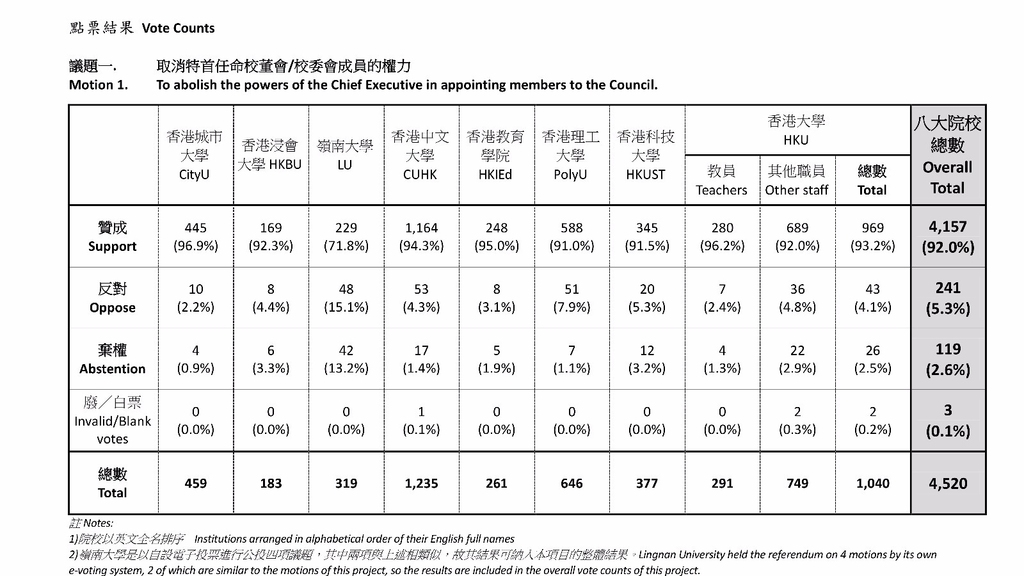
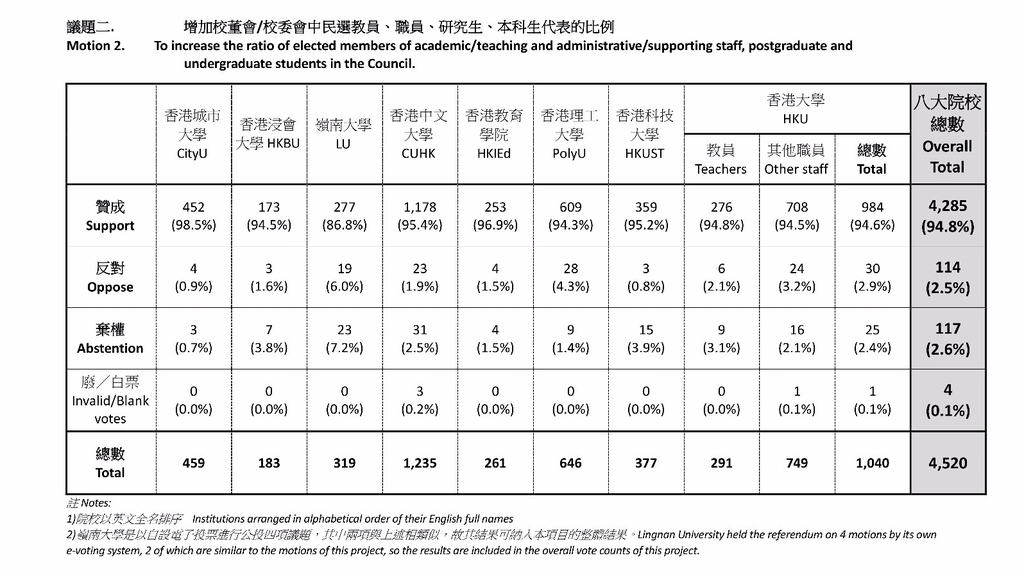
Internet comments:
- 17.2% voted of which 92.0% voted
for the motion. What is the headline? "92.0% voted for the motion."
- Most of the newspapers took
dictation from the organizers' press release. For example, Hong Kong Economic
Times' title is:
"Referendum on institutional autonomy": More than 90% of university
teachers/staff members agreed to abolish the Chief Exeuctive's powers to make
appointments.
- At least, HKET put "Referendum on institutional autonomy" in quotes to show
some reservation.
- The two tables inside the HKET report conveniently leave out the base total.
That is, you cannot deduce the voting turnout.
- And this is Ming Pao:
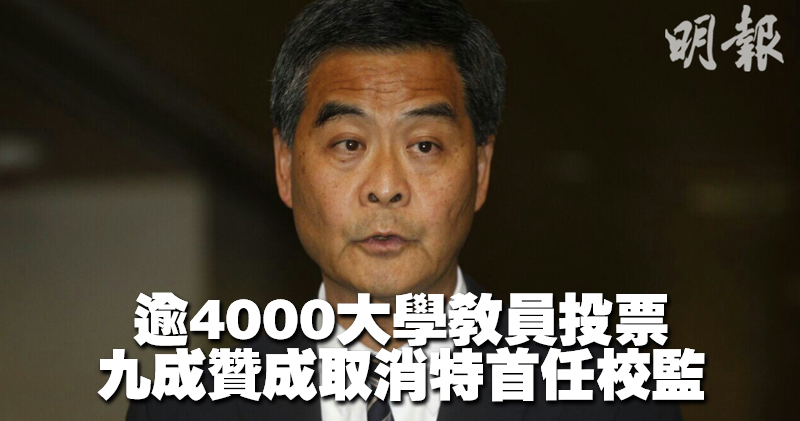
More than 4,000 university teachers voted
90% agree to eliminate Chief Executive as Chancellor.
- The Ming Pao person who wrote this must be still asleep at the time. The
voters were teachers AND staff members who don't necessarily teach. The two
motions do not include stopping the Chief Executive from becoming the
Chancellor automatically. Wake up, already!
- A 17.2% voting rate? That is an
improvement over the 17.1% voting for the
2010 mini-referendum! Democracy
is on the march to victory!
- Deep down inside, of course,
everybody knows that the response was tepid. Even supporters are embarrassed by
the organizers using such headlines in their press release. It also means that
voter turnout will be even worse the next time. Just take a look at the
referenda organized by the Hong Kong University Alumni Concern Group:
September 1, 2015: Hong Kong University
Convocation Extraordinary General Meeting #1 (#314):
9,298 voted out of about 162,000 alumni for a 5.7% participation rate
November 28, 2015: Hong Kong University
Convocation Extraordinary General Meeting #2 (#388):
4,454 out of 165,450 alumni voted for a 2.7% participation rate.
And they are not going to hold any more
of these Extraordinary General Meetings because of the backlash over the
waste of time and money.
- (Apple
Daily) The organization of this referendum is inconsistent across the
institutions. At Chinese University of Hong Kong, the staff association set up
two street booths (at the train station and by the cafeteria) operating during
8:00am-9:30am, 12n-2pm and 5pm-7pm. Student volunteers handed out leaflets to
promote the referendum. At University of Science and Technology, Institute of
Education and Baptist University, there are no booths and all voting is done
over the Internet. At Baptist University, the only promotion is through posters
on Democracy Wall and email.
- When the campaigners are
spiritless, the result will be dispiriting too.
- "Institutional autonomy" takes
two steps. The first step is the negation of the status quo in which the Chief
Executive can appoint a number of of trustees and council members. Once the
Chief Executive is out of the picture, who becomes the Chancellor? Who appoints
the trustees and council members? There is no
constructive proposal from anyone so far on this second step, because everybody
knows that any proposal will be shot down by somebody or the other.
- In society at large, it is
commonsense to say that the universities are receiving huge amounts of public
funding and therefore they must be subject to oversight from the outside. So it
will never be allowed to have the university councils/trustee boards be
dominated by teachers, staff members and students. What is left unresolved is
where these outside council members and trustees are supposed to come from.
- The students don't have any
proposals, because they are less concerned about the means than the ends -- they
don't care who is on the council as long as it votes according to what the
students want. In other words, they want domination.
- HKU Council chairman Arthur Li
met with "elite" students and made the comment that while he does not oppose
teachers and staff members being involved in politicking, he said that it was
wrong to hold a press conference during the school week. Why? Because it means
that that teachers and staff members are taking time off from their regular
business to engage in extracurricular activities. He must be referring to next
Tuesday's press conference ...
- Digression: How do you reconcile
this photo of people trying to go from Hong Kong through the Futian Border
Crossing into China with all the talk about the People of Hong Kong don't want
China?
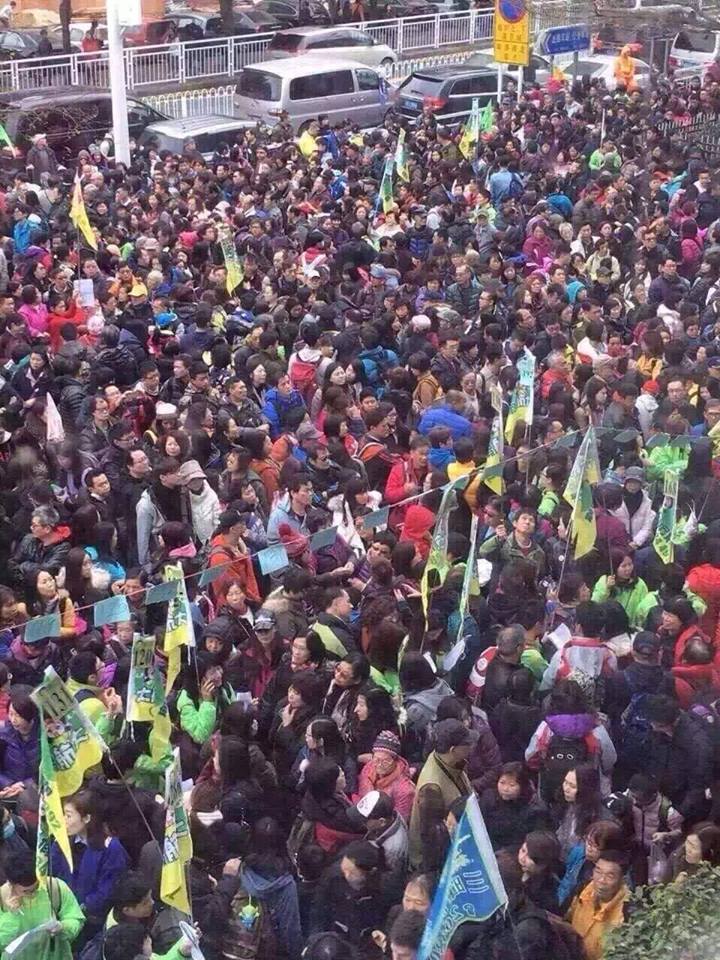
- Hongkongers go to mainland China even though they know that:
(1) you can't buy anything because everything is fake
(2) you can't eat food or drink water because everything is poisoned
(3) you can't find any entertainment because the place and its people are so
backwards
(4) you may find your body organs stolen
(5) you have no freedom of speech
(6) you are monitored by the Public Security Bureau the whole time
(7) you cannot access Facebook
(8) ...
- (Wen
Wei Po) March 27, 2016. In February, the Chinese University of Hong Kong
Student Union held a referendum on "the Chief Executive automatically becoming
the Chancellor" and "increasing the representation ratio of
staff/teachers/students on the board of directors". However the project was
ruled invalid due to improper arrangements. Although 24% of the students voted,
it was pointed out that the ballots were incorrectly printed and the voter
identity was not recorded.
Recently the CUHK Student Union
held another referendum. 17% of the students voted and that was more than the
16.66% (=2,816 votes) threshold so that all four motions were passed at approval
rates between 54% to 97%.
However, the votes came about only
because the student union pulled a number of tricks. On March 20, the Student
Union said that they will have evening voting hours "at the request of certain
members." Also the referendum was supposed to be held on nine days (March 11-23
minus Saturdays and Sundays) but they suddenly announced that voting will take
place on March 24 too "so that more members can vote." On the evening of March
24, voting was extended 30 minutes past the stated deadline due to "technical
problems." This kind of unscheduled "extra time" is even more amazing that the
"Ferguson extra minutes" that are routinely given to Manchester United when the
team is behind.
In truth, the record showed the
voter turnout was only 6.75% by March 20; on March 24, almost 900 persons voted
and pushed the total to several dozen votes past the threshold.
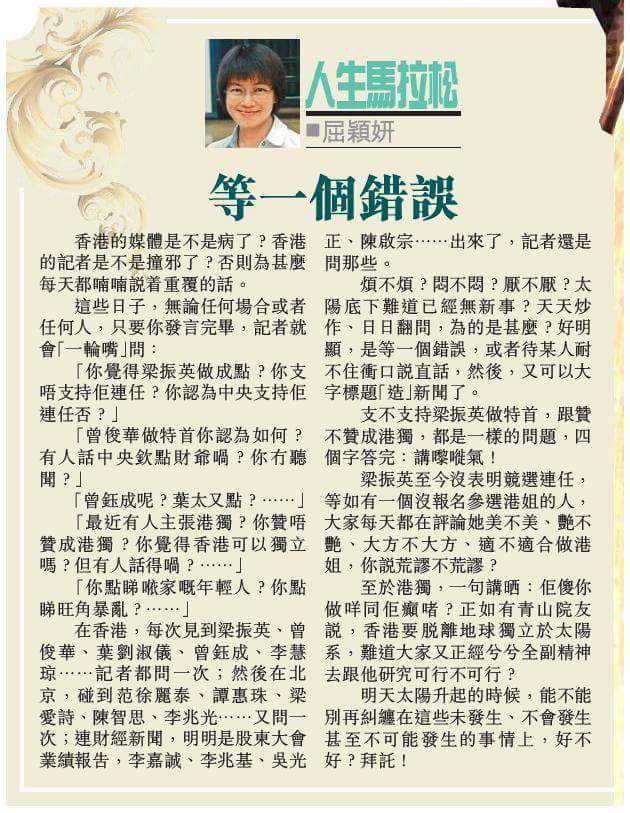
Waiting for a mistake. By Chris
Wat Wing-yin
Are the Hong Kong media sick? Are
the Hong Kong reporters losing their minds? Why else are they reiterating the
same mumbo-jumbo every day?
Nowadays no matter where or whom,
as you as you finish speaking, the reporters will fire rapid questions at you:
"What do you think of CY Leung's
performance? Do you support him for a second term? Do you think that the Central
Government supports him for a second term?"
"What you think about John Tsang
as Chief Executive? Somebody says that the Central Government has anointed our
Secretary for Finance already? Have you heard that?"
"What about Jasper Tsang? What
about Regina Ip Lau Suk-yee?"
"Recently some people are
advocating Hong Kong independence? Do you approve or disapprove Hong Kong
independence? Do you think that Hong Kong can become independent? But some
people say that it is possible? ..."
"What is your view on young people
today? What is your view on the Mong Kok riot? ..."
In Hong Kong, every time that CY
Leung, John Tsang, Regina Ip Lau, Jasper Tsang, Starry Lee etc show up, the
reporters will ask them again; when Rita Fan, Tam Wai-chu, Elsie Leung, Chan
Chi-shi, Ambrose Lee show up in Beijing, the reporters will ask them again; even
at company shareholders' meetings where Li Ka-shing, Li Siu-kei, Ng
Kwong-ching and Chan Kai-chung show up, the reporters are still asking them
these things.
Isn't this bothersome? Isn't this
boring? Isn't this annoying? Is there really nothing new under the sun? Do these
questions have to be repeated again and again day after day? Clearly the
reporters are waiting for somebody to make a mistake, or for somebody to lose
patience and blurt out something straight. That is what news is made of.
Whether someone supports CY Leung
for a second term as Chief Executive, and whether they support Hong Kong
independence share the same answer: It is a waste of time to talk about
it.
CY Leung has given no indication
that he is interested in a second term. He is like someone who hasn't entered
the Miss Hong Kong pageant, but every day people are debating whether she is
beautiful or not? Elegant or not? Composed or not? Suitable to be crowned Miss
Hong Kong or not? Don't you think that this is absurd?
As for Hong Kong independence, it
is summarized as: If they want to be idiotic, why do you have to be idiotic with
them too? The Castle Peak Psychiatric Hospital patient wants Earth to become
independent of the solar system. Are we going to conduct a feasibility
study?
When the sun rises up tomorrow,
can we stop having these intangible matters that have not happened or cannot
possibly happen? Please?

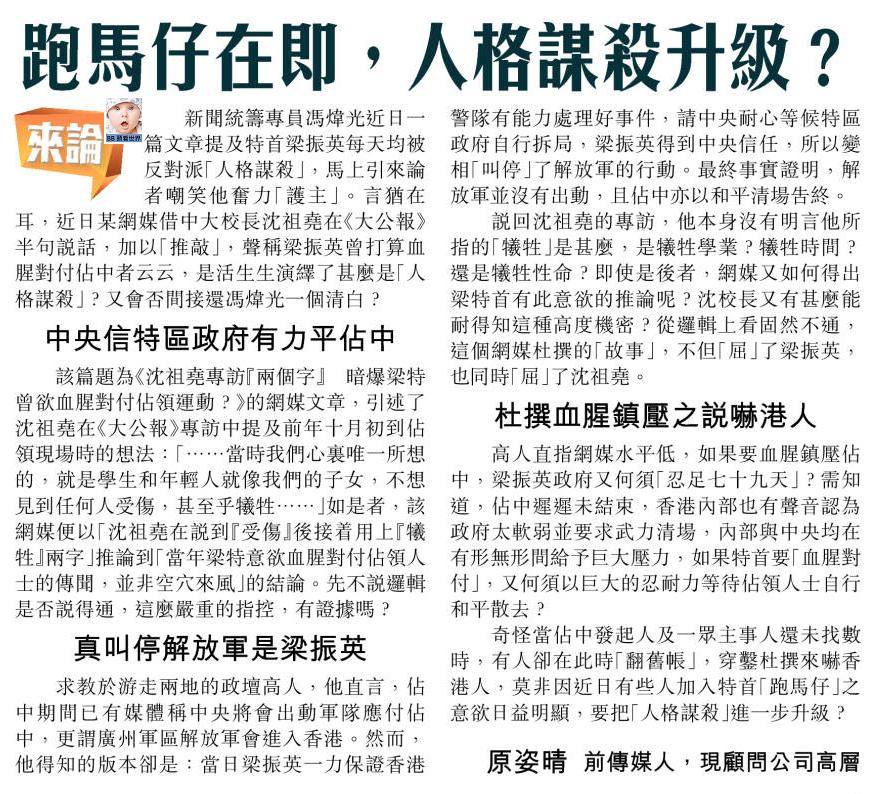
News coordinator Fung Wai-kwong
recently said that Chief Executive CY Leung is facing "character assassination"
by the opposition on a daily basis. Commentators made fun of this effort to
protect his master. But here is an example of what this "character
assassination" can be.
Previously CUHK vice-chancellor
Joseph Sung spoke to Ta Kung Pao. Sung spoke about his feelings when he went
down to the Occupy Central site in October 2014: "... at the time, our only
thoughts is that these students are like our children. We don't want to see
anyone hurt, even sacrificed ..."
An Internet media outlet
immediately seized on this to come up with their exclusive report titled: "One
word in Joseph Sung's interview disclosed that Chief Executive CY Leung wanted
bloody suppression of Occupy Movement." Where is the evidence?
I checked with a politician who is
familiar with Hong Kong as well as the mainland. He said that some media outlets
reported during the Occupy Central period that the central government was going
to send troops out to deal with it. They even spelled out that those PLA
soldiers will be coming from the Guangzhou military district. However, this
person heard a different version: At the time, CY Leung guaranteed that the Hong
Kong Police can handle the matter and he asked the central government to wait
patiently for the HK SAR government to deal with it. CY Leung had the trust of
the central government, and no PLA troops were sent. In the end, the PLA never came and Occupy Central was dispersed peacefully.
With respect to the Joseph Sung
interview, he did not spell out what "sacrifice" refers to. Does it mean
sacrificing their studies? Sacrificing their time? Or sacrificing their lives?
Even if it is the latter, how did the Internet media outlet deduce that CY Leung
wanted to do so? Logically the deduction is untenable. But in so doing, the
Internet media outlet is doing "character assassination" on CY Leung as well as
Joseph Sung.
The politician said that the
particular Internet media outlet is moronic. If CY Leung wanted a bloody suppression, he
would not have to wait for 79 days. Because Occupy Central was dragging on,
certain Hong Kong media complained that the government response was too weak and
they demand clearance by use of force. If the Hong Kong people and the Central
Government both wanted clearance and this Chief Executive wanted to carry out a
bloody suppression, he would not have to wait so long for the Occupy people to
disperse on their own.
Oddly enough, the Occupy Central
instigators and the other principals have not gotten their day in court as yet.
Meanwhile someone is already making a scare story out of some demonstrably false
old information. Could it be that some people needed to raise the level of
"character assassination" against the Chief Executive because they are
interested in entering the election too?

(Hong
Kong Free Press) March 24, 2016.
Press freedom in Hong Kong has
declined for the second year in a row, with both the public and journalists
believing that it deteriorated in 2015, a study by the Hong Kong Journalist
Association (HKJA) has found.
Although the survey only began in 2013, the
index is currently at its lowest, dropping 1.4 points to 47.4 for the
general public and 0.7 points to 38.2 for journalists compared to the
previous year. A total of 54 percent of public respondents and 85 percent of
journalists believed that it has declined.
According to HKJA Chairperson Sham Yee-lan, journalists
are usually more sensitive towards such changes but, when the public rating
also falls, it shows an increased awareness of the problem.
The survey was conducted in conjunction
with the University of Hong Kong Public Opinion Programme (HKUPOP), which
interviewed a total of 1,021 Cantonese-speaking Hong Kong adults between
January 14 and 19. Questionnaires were also received from 446 journalists.
It was also found that journalists
and the general public are of the view that self-censorship has become more
common, with both groups believing that media outlets are concerned about
criticising the central government in Beijing.
Many also reacted negatively to the
purchase of English-language daily The South China Morning Post by Chinese
e-commerce conglomerate Alibaba with 88 percent of journalists and 57
percent of the public believing that the buy-out threatened press freedom.
An overwhelming 97.7 percent of journalists
also believed that the failure to prosecute those who attacked reporters
during the pro-democracy Occupy protests in 2014 harmed press freedom, while
over 97.1 percent said the government�s release of information at
inappropriate times or through inappropriate channels was detrimental.
More than 94 percent of journalists also
believed not allowing online media to attend government press conferences
was harmful to the freedom of the press.
Sham called for the government to introduce
a Freedom of Information Act as soon as possible.
�That existing laws are insufficient to
allow journalists to obtain the information they needed for reporting also
renders undesirable effects on press freedom. With 10 being very adequate
and 0 being very inadequate, the average rate for the public is 5.7 and for
journalists 4.4, further 0.1 and 0.2 down from 2014 respectively,� the HKJA
observed.
Sham said that press freedom was pillar of
Hong Kong�s success, but it had been �eroded at its roots�, and was an
indication that fundamental rights enjoyed by the public were being
encroached upon. She urged the government to do more to safeguard press
freedom, a right guaranteed under the Basic Law.
(Hong
Kong Free Press) March 23, 2016.
Journalism students from local universities
have been rejected from TVB News� summer internship programme. Staff from
Baptist University, Shue Yan University and Chinese University confirmed
with HK01 that their journalism students had not been accepted as interns.
Shue Yan University Head of Department of
Journalism and Communication Leung Tin-wai told Apple Daily that their
students did not even get an interview.
TVB said that the arrangement to split the
eight intern places equally between Hong Kong and mainland university
students is the usual practice. The company did not confirm the rejection of
local journalism students to Apple Daily but said that the interview process
for the internship had been partially completed.
Last year, TVB News took on four local
students for its internship programme, but at least two of them were not
journalism students, HK01 reported.
Hong Kong Journalists Association (HKJA) Chairperson Sham
Yee-lan told Apple Daily that news media had independent decision-making
power, but should not forget Hong Kong students.
HKJA vice Chairperson Shirley Yam also said
that local news media should allocate intern places for local journalism
students. �Do mainland students know Hong Kong better than Hong Kong
students?� she asked. She also said that �it would be a very sad thing� if
local journalism students could not practise journalism in Hong Kong.
The news sparked much debate online, with
one netizen saying, �when TVB stops taking local students, the number of
students applying to journalism will fall, or even plummet.�
(Kinliu)
By Chris Wat Wing-yin. March 26, 2016.
After being quiescent for a while, the Hong
Kong Journalists Association has re-surfaced with a research report that
gave a failing grade to freedom of press in Hong Kong.
Indeed, there is less and less space for
freedom of press in Hong Kong. Why? Very simple. You're the problem! Don't
you see that the news reports over the past several years are only about you
people pushing Yellow Ribbon views. Those who throw bricks, assault police,
imprison others, break windows, start riots, disrupt society, destroy order
... become heroes, saints and angels according to you in full-page
interviews, cover stories and special editions.
Have you ever seen reporters interview the
policeman who fired the shots during the riot? The injured policemen? Did
you read about HKU Council members getting their clothes ripped up? No.
Instead we get to see the criminals talking about meting out justice.
Using the power of the Fourth Estate, the
media has raised the lawbreakers onto the moral high ground, protected the
criminals, hurt the citizens and wronged society. Is there freedom of press?
Yes, but it is in the hands of the opposition camp.
Common folks who don't side with the Yellow
Ribbons found that their voices are silenced. They won't be heard on radio
phone-in programs. They can only send the news around the Internet bit by
bit. As for the government's responses, very little is reported. If there
was an one-hour interview, then one sentence will be aired and that is the
sentence that you misspoke. Freedom of press? For most citizens, it was lost
long ago. We don't need the Journalists Association to tell us now.
Recently RTHK invited me to participate in
a program for Grand Reconciliation. I declined. The reason is simple. While
RTHK is funded by the taxpayers, it is the instigator of these social
conflicts. If you listen to their phone-in programs or City Forums, they are
never fair and balanced. The ratio of voices is 9:1, with 9 being the
opposition camp and 1 being regular citizens. Now they want to know how to
achieve a reconciliation? The problem is with you folks!
Earlier the new media outlet HK01 threw out
a lot of money to hire more than 300 people mostly from Ming Pao and Apple
Daily. With staff people like those, you can imagine how "fair and balanced"
they might be. The mysterious financiers are very generous, and they hired
all the university interns that TVB won't hire.
HK01 purchased advertisements on the MTR
and television. Their slogan is: "When society is torn asunder, everybody
loses. So it is time to change!" Yet the first issue of HK01 has a photo of
Chan Kam-lam and his family, saying that Internet users are encouraging
people to cause trouble at the ice cream store founded by Chan Kam-lam's
son-in-law. Thus they are indirectly promoting that campaign. So this is
HK01's idea of "change."
In Hong Kong, we have genuine freedom of
press.
Internet comments:
- HKJA vice
Chairperson Shirley Yam said that TVB is not just a commercial business
because it is regulated by the CAP 562
Broadcasting Ordinance. Therefore every one of its decisions must
convince the public.
Chinese University School of Journalism and
Communication professor Clement So said that TVB reserved intern slots for
CUHK journalism students every year, so he is perplexed by TVB's decision
not to hire any Hong Kong university students.
Have these people ever thought of what is
the consequence of full disclosure? Let me imagine how this could happen.
First, TVB issues a statement to the effect
that it hire interns on the basis of the best talents from among the pool of
applicants.
That statement won't satisfy the Hong Kong
Journalists Association, the university journalism professors or the student
unions. They demand FULL DISCLOSURE now!!!
So what if on the next day, TVB uploads the
particulars of all candidates, plus the video interviews. Here are some
samples that I made up:
Candidate #1:
Gender: Male
Age: 21
Residency: Born in Hong Kong
University: Chinese University of Hong Kong
Major: Journalism
Languages: Two languages (English and Chinese), three dialects (English,
Cantonese and putonghua)
Video interview:
Q. Many others of your generation choose to study overseas (United States, England, Australia, etc). Why did
you choose to stay in Hong Kong?
A. Because this is the place that I have known all my life. I love Hong
Kong and I want to be here forever.
Q. You are a Hongkonger. Do you have a
Home Visit Permit to visit China?
A. I don't have one. I have never applied for one because I have never
thought about going there. But I am willing to apply for one if I get this
internship.
Q. ... only if you get this internship?
A. Eh ... I am not sure. It depends.
Q. What is the difference between
Qianhai
and
Hengqin?
A. Eh. I don't know. They may something to do with places in Shenzhen. I
don't know.
Q. What do think about the unlicensed
cooked food vendors in Hong Kong? Should they be allowed to operate?
A. The cooked food vendors represent a way of life in Hong Kong and they
must be allowed to operate without interference from those government
bureaucrats.
Q. Do you have a personal Facebook page?
What do you write about?
A. Of course, every Joe has a personal Facebook page. I love to write
about what I eat. I post pictures of every dish at every meal that I eat.
I want to make a total record of everything that I eat.
Q. Do you have a Weibo?
A. No, I don't.
Q. Why not?
A. Because I don't know anyone who uses Weibo. And I don't know how to
read or write in simplified Chinese characters. Besides I hear that
everything on Weibo are lies. Why should I bother?
Q. Do you use WeChat?
A. What for!? This is Hong Kong. Everybody uses Whatsapp.
Q. Would you feel comfortable
interviewing someone in English?
A. Well ... I don't think that will come to pass. TVB Jade is a
Cantonese-language station. There is no reason to interview in English. If
it has to be, then I am confident that I can read off the questions
according to the script.
Q. (in English) And I decline to make any
response to any further questions at this time as I feel that you are
maligning my character.
A. Eh ... (in Cantonese) I think that it is totally unfair for you to
spring some English on me like this.
Candidate #2:
Gender: Female
Age: 22
Residency: Born in Suzhou, China.
University: Chinese University of Hong Kong
Major: Journalism
Languages: Three languages (English, French and Chinese), six dialects
(English, French, putonghua, Suzhou (father), Wenzhou (mother), Cantonese
(four years in Hong Kong)).
Video interview:
Q. On your resum�, you claim to know
French. How did that come about?
A. My father is a university professor in linguistics. He told me that the
French language sounds very much like the Suzhou dialect that I grew up
with. Therefore I decided to study French as an elective. It is always good
to open up your eyes to look at the rest of the world.
Q. With your university entrance exam
marks, you would have been accepted by all the top universities in China.
Why did you choose to come to study in Hong Kong?
A. I had lived in China all my life. What is the point of more of the
same? I wanted to see what the rest of the world was like and experience
the lives of others. Hong Kong is a midway point, because it is still
Chinese enough not to be completely exotic.
Q. Tell me about
Yiwu.
What, if anything, do you know?
A. Hmm. That's interesting. Yiwu is a medium-sized city in Zhejiang
province, but it has assumed mythic status in China as the city of trades.
I have not been there yet, but this is one of the places that I mark down
as one that I must visit. If you haven't been to Yiwu, you can't
understand China.
Q. What do think about the unlicensed
cooked food vendors in Hong Kong? Should they be allowed to operate?
A. Hmm. As an outsider with no detailed knowledge, I don't have any
positions. Here is what I know off the top of my head. On one hand, people should be allowed to make a living without
unnecessary restrictions. On the other hand, unlicensed and uninspected vendors seem to pose
certain risks to public health and safety. This is not a Hong Kong-only problem,
as the situations exist all around the world, whether it is my hometown Suzhou or wherever else. In the end, it depends on the particular details.
Q. Do you have a Facebook account? If so,
please describe what you typically post on?
A. Indeed I do. Every student at the university has a Facebook page, and
we are all involved in various special interest groups. My personal
Facebook is a collection of the big world news stories. I find that
maintaining such a Facebook forces me to keep up with what is going around
the world. Unlike my peers, I am not interested in posting about myself.
Q. Do you have a Weibo? If so, what's it
about?
A. Indeed I do. On my Weibo, I talk about my personal experiences as a
mainland student in Hong Kong. I have a following of about 20,000
individuals at this time. I will only post what I believe is useful or
interesting to others. People say that while my posts are infrequent, they
appreciate the thoughtfulness.
Q. How do you communicate with your
friends? Whatsapp? WeChat?
A. If I have to communicate with someone, I will use whatever suits them.
I can use Whatsapp and I can use WeChat. Whatever they prefer. The
communication medium is only a means. The message itself is the ends.
Q. Would you feel comfortable
interviewing someone in English?
A. Why not? At my university, most of the journalism are taught by
foreigners using English. Our students are all supposed to be
multi-lingual.
Q. (in English) I have doubts whether you
can understand my articulations on this particular issue as they involve
certain complex considerations of socio-cultural issues.
A. (in English) I believe that your statement is a test of my grasp of the
English language and my ability to respond in such situations. I assure
you that this is totally unnecessary.
Now the point is not so much whether you
would choose Candidate #1 over Candidate #2 or vice versa. The point is that
the lives of both candidates will be ruined forever afterwards when the data
dump at this level is done. This is a serious violation of the privacy of
the candidates. When they came in for the interview, they never expect
everything will be posted on the Internet. You don't really want FULL DISCLOSURE, or else nobody is
ever going to apply for internship again.
- This is the same issue with the case of
Johannes Chan, an applicant for the pro vice-chancellor of academic staffing
and resources. If the university made a full disclosure of his entire C.V.
plus all the comments from the referees and peers, many relations and
careers may be broken.
- TVB has several hundred people in its new
department. They are hiring eight interns for the summer to assist their
regular workers and to learn from that experience. Perhaps some day these
interns might be hired after they graduate, or perhaps not. Get real!
- What is an intern? The TV news broadcast
hostess says that she needs coffee before the show goes on and the intern rushes over to
fetch her a
cup. That intern isn't going to change the lead story on 6:30pm news. Please
do not equate intern hiring with freedom of press.
- Regular workers are obviously more important
than the interns in turns of producing news. Why stop at full disclosure of
the intern-hiring decisions? We want full disclosure on the hiring of all
workers at all the media organizations in Hong Kong!
- I consider it a far worst suppression of
freedom of press if TVB's decision to hire a summer intern has to be
approved by Organization X.
- The Journalists Association is the perfect illustration of suppression of
freedom of press.
- The
Heritage Foundation
ranked Hong Kong as the top 'country' in the world on its 2016 index of
economic freedom. But what economic freedom is there if TVB's decision to
hire a summer intern has to be approved by a special interest group, the
Hong Kong Journalists Association? PLEASE!
- (HKG
Pao) Each year TVB's news department hires mainland student interns.
But these interns are not taking over the positions of local Hong Kong
students, because the former will be with the putonghua news programs
while the latter are with the Cantonese news programs. Generally speaking,
local Hong Kong student interns won't be able to speak putonghua flawlessly.
Furthermore, the putonghua audience are liable to call in to complain
if the intern speaks atrocious putonghua!
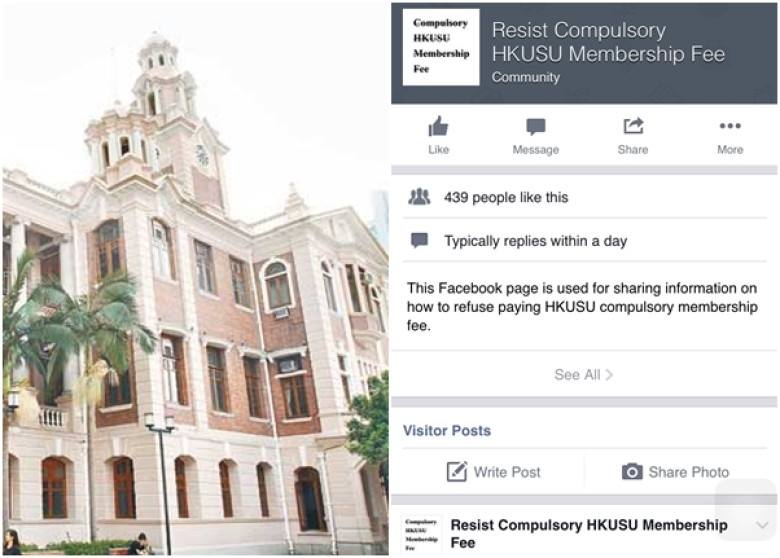
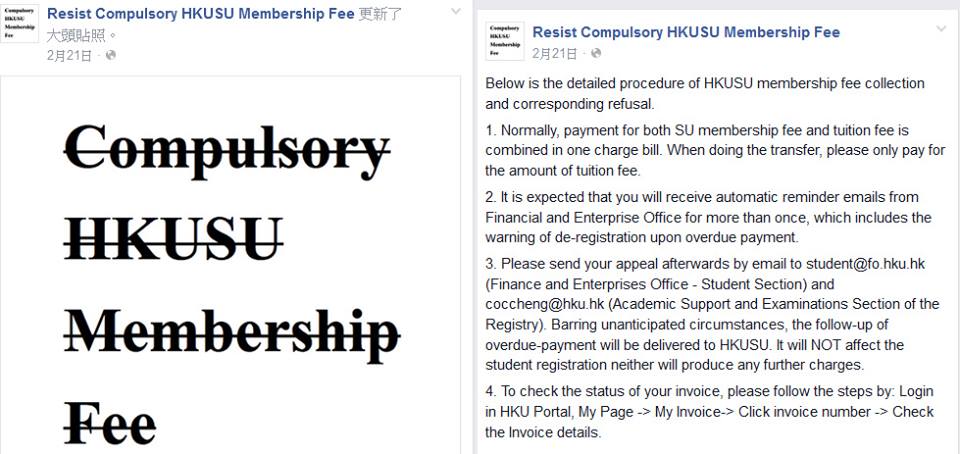
(Silent
Majority HK Facebook) March 23, 2016.
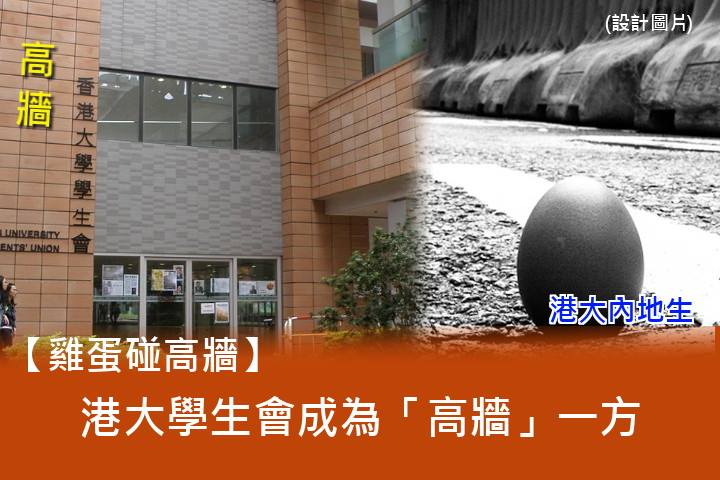
The Hong Kong University Student
Union misused freedom to speech to promote Hong Kong independence, giving
the impression that all the students agree with their union. However, this
occurs only because the students have to pay compulsory union membership dues of
more than $100 each. This was what gave the union millions of dollars a year to
spend on promoting Hong Kong independence.
Last month, the incoming union
president Althea Suen publicly stated that she supports Hong Kong independence,
and the Hong Kong University Student Union magazine Undergrad published an
entire issue on that subject. Last month, the mainland students at Hong Kong
University began an eggs-versus-high wall campaign to stop paying their union
fees.
In the past, Yellow Ribbon media
such as Apple Daily and Ming Pao love to quote Haruki Murakami:
�If there is a hard, high wall and
an egg that breaks against it, no matter how right the wall or how wrong the
egg, I will stand on the side of the egg. Why? Because each of us is an egg, a
unique soul enclosed in a fragile egg. Each of us is confronting a high wall.
The high wall is the system which forces us to do the things we would not
ordinarily see fit to do as individuals . . . We are all human beings,
individuals, fragile eggs. We have no hope against the wall: it's too high, too
dark, too cold. To fight the wall, we must join our souls together for warmth,
strength. We must not let the system control us -- create who we are. It is we
who created the system. (Jerusalem Prize acceptance speech, JERUSALEM POST, Feb.
15, 2009)�
After the Mong Kok riot earlier
this year, the Hong Kong University Student Union declared that they will not
abandon the rioters: "We will always stand on the side of the resisters."
So now with millions of its own
dollars at stake, will the Hong Kong University Student Union stand on the side
of the resisters who don't want to pay their compulsory union dues? Will they
join the mainland students to overturn the system of compulsory union
membership? Or will they crush the eggs and make an omelet?
Internet comments:
- (BBC)
By Li Zan. March 22, 2016. ... After Althea Suen stated on RTHK that she
supports Hong Kong Independence, a February 21 essay <Concerning the HKUSU
president's Hong Kong independence statements plus detailed methods for mainland
students to refuse to pay union membership dues> began to be circulated among
mainland students. The essay said: "No matter whether she was speaking for
herself or for the student union, the fact that she is the HKUSU president means
that what she says will carry weight in society and this is a severe blow to
mainland students at HKU." The sub-title of this essay: "Nothing about matters
of nationhood is too small to tolerate." On the same day, the Resist HKUSU
Compulsory Membership Fee Facebook was established.
Later that day another essay
<Student Union, give me a reason why I should pay membership dues> was
circulated. The essay said that Althea Suen can say whatever she personally
wants to say as a matter of freedom of speech. The student union is supposed to
be there as the bridge between the students and the university. Yet the student
union has made a lot of decisions without consulting the students, such as
"Billy Fung leading the students to charge into the council meeting and leaking
the confidential meeting details," "laying siege to university council chairman
Arthur Li," etc. The Student Union merely communicated with certain students
and acted.
So why should the other students who were not consulted want to join this
union?"
The writer asked: "Why should
students whose voices aren't being heard join the union?" The writer said that
the student union cannot and does not represent all the students. Usually, the
student union cabinet are all Hongkongers. The current cabinet ran with a big
"Hong Kong Priority" slogan, showing certain xenophobic attitudes. By comparison,
their platform for non-local students is a very vague: "We will attract
non-local students to attend union activities and melt into the Hong Kong
University community."
The essay said that the refusal to
pay membership dues is not intended to start a polarized war between local and
non-local students. The authors of these two essays declined to be interviewed.
However, it is clear that just about every one of the 1,200 mainland students
have seen these two essays.
"... I asked cabinet members for
comments, but there have not been any substantive replies. Althea Suen said that
she has no comments because this matter is not progressing any further. As a
student union member, I sent emails to Althea Suen, Internal Affairs
vice-president Lau Chi-hang and the Student Union official mailbox, but I got no
response."
So perhaps the discontent of the
mainland students with the student union election/communication system, the
compulsory membership system and the political directions of the student union
will die down after the new president's comments. But someday the same
discontent will rise up again.
- The Hong Kong University Student
Union is too busy with overturning the university ordinance whereby Hong Kong's
Chief Executive automatically becomes the university chancellor.
- Oh, previously, they promised
that they would try their best to stop the constitutional reform for the Chief
Executive election. They even occupied Central for 79 days. The bill was vetoed
in June 2015. What a victory for the students and the rest of the people of Hong
Kong!!! The students and the pan-democratic politicians that they would
immediately trigger a new bill with their preferred civil nomination of Chief
Executive candidates. It is March 2016 now. Not a single thing has happened.
They have moved on and now the hot topic is Hong Kong independence in 2047.
Universal suffrage is just so "YESTERDAY".
What this means is that today they
may be saying that they busily engaged in running these university referenda on
the chancellor appointment. They promise to get back to you on the compulsory
student union dues as soon as that is over. But they won't, especially when it
means that you want to take a chunk of money out of their pockets.
- Unfortunately the students have
already paid their union dues before school even started last September. Therefore
the students can't get their money back.
- A vote of no confidence in the
cabinet is better. If the motion is passed, Althea Sun will have to leave with
her tail between her legs.
- A referendum is the best
solution. The Hong Kong University withdrew from the Hong Kong Federation of
Students after such a referendum. In like manner, the students can collect
signatures to hold a referendum to make the student union fees optional rather
than compulsory. If there isn't enough money to run the student union, then
those who want to pay can pay $1,000 per person. Hereafter, the student union
can advocate Hong Kong independence or whatever else, and everybody knows that
they represent only their small number of dues-paying members and not the entire
student body. That would put an end to any future controversy.
- Althea Suen said that membership
dues payment this year is about the same as previous years, so there is no
reason to be concerned.
- Suen was referring to membership
dues payment that were made before last September.
- The students are habitually
saying that government officials are numb and indifferent to the voices of the
People. How would you characterize the response of Althea Suen and the Student
Union? How is it any different?
- Actually, it's only the mainland
students who are unhappy. The other non-local students also feel alienated. Many
of the HKUSU announcements and statements are in Chinese only, because the
student union people aren't comfortable with using English.
(Oriental
Daily with video) March 22, 2016.
Last night at around 10pm at the
intersection of Nathan Road and Shan Tung Street, two men and two women were
using a megaphone to do their Shopping Revolution thing. Three men about 40 to
50 years found them annoying and told them to quiet down. The two sides argued.
The two men and two women were attacked with punches and an umbrella. The police
were called.
By the time the police arrived,
the three men had fled. A 60-year-old man named Koo and a 39-year-old woman
named Cheung reported head injuries. 40-year-old man named Chan reported pain on
his face. A 56-year-old woman named Chin reported pain on the back of her arm.
The four were sent to the hospital. The police are treating this case as common
assault which caused actual bodily injuries.
Videos:
Resistance Live Media
https://www.youtube.com/watch?v=WCAJx02azL8
At past 10pm on March 21, the Mong Kok Shopping Revolutionaries were marching
along Nathan Road when a man wielding an umbrella attacked and injured four
Shopping Revolutionaries. The man then fled into the Sun Hing Building. The
Shopping Revolutionaries pursued the man to the building, but the security
guards blocked them from entering the lobby.
https://www.youtube.com/watch?v=FyNvz8gi5fM The men tried to leave by
taxi.
https://www.youtube.com/watch?v=x_HnKYtsuys The Shopping Revolutionaries
marched down the Mong Kok Police Station to protest police misdeed (namely, not
telling the complainants about the case number).
Internet comments:
- Why are they calling the police
when attacked? Don't they always say that the police are Black Evil Canines?
- I thank the three heroes for
taking action. Finally someone saw to it that justice is done.
- Everybody else knows that this
was inevitable except those Shopping Revolutionaries. Furthermore, this will
continue to happen again and again.
- The man escaped into the
Sun Hing
building. Where else? The Shopping Revolutionaries quickly gave up, because they
knew that if they made more noise, the triad bouncers are going to come downstairs
to confront ...
- Attacked by a man wielding an
umbrella? So they finally admit that the umbrella is an assault weapon.
(Hong
Kong Free Press) March 20, 2016.
Student group Scholarism has announced the
suspension of its operations to make way for the formation of a new student
group and a political party.
Scholarism, which was formed in May 2011,
said that it had been thinking about its future position since the end of
the pro-democracy occupy movement in 2014. It said that its model of
supporting political movements and student movements simultaneously needed
to be changed.
�A highly political Scholarism made us hard
to get into schools to educate and organise secondary school students; as a
student group it is hard for Scholarism to handle a self-determination
movement which will last for dozens of years,� it said in a statement.
Convenor Joshua Wong Chi-fung said
that he was able to visit almost 30 schools to give talks during summer breaks
before the occupy movement, but he only went to one afterwards. Protesters would
target him outside school premises, causing others to cancel appointments, he
said.
After deliberation between
members, it was decided that the group will suspect its operations though not
disband.
A new political party to be formed next
month was previously announced by some ten members including Wong and former
spokesperson Agnes Chow Ting. The group will push for a referendum on Hong
Kong�s future. Meanwhile, a new student group will also be formed in around
six months time, headed by spokesperson Prince Wong Ji-yuet.
�The new student group will not
intentionally politicise itself, as we wish for a new image, to drop the
burden of the past, and focus on works about students,� Prince Wong said.
�But if there are any [political] educational issues coming, such as TSA
tests and teaching Chinese in Mandarin, we will continue to follow up.�
Of the 120 current members, 30 have
expressed wishes to move to the new student group, though Scholarism has not
consulted every member yet.
Joshua Wong denied that a split in
political ideals led to the group being broken up into two new organisations.
�Every issue is related to politics � but
the political party will focus on discussions on political reform and
advocacy, while the student group will focus on educational issues or civic
education,� Joshua Wong said.
Of the HK$1.45 million currently held by
the group, HK$700,000 will be transferred to the new student group and
HK$750,000 will be transferred to a fund for legal assistance. None of
Scholarism�s current funds will be transferred to the new party.
�Donations previously given to Scholarism
were also agreeing to the same ideals, so we think it is suitable for the
funds to be given to the new student group,� Prince Wong said.
The Scholarism Fund for Legal Assistance
will be managed by Tang, Wong & Chow Solicitors, for providing financial
support to those in need, should they be arrested or charged due to
political actions they participated in as Scholarism members.
The fund is entrusted to six Scholarism
members including Joshua Wong, Prince Wong, Agnes Chow, Andrea Melody Chuh,
Pauline Chan Po-ling and Chung Lai-him. They are responsible for the
respective approval procedures, annual releases of audit reports and
revealing the types of cases approved for the coming seven years. Remaining
funds after seven years will be donated to human rights organisations.
Joshua Wong stressed that the fund would
not be used in a judicial review he has filed.
(SCMP
) March 20, 2016.
Student
activist group Scholarism, which played a leading role in the 2014 Occupy
protests, suspended work yesterday before completely disbanding to form a
new, �less politicised� group. The end was announced a month before the
formation of the new political party to be led by the group�s convenor,
Joshua Wong Chi-fung, alongside a few core members.
The party is preparing
to field at least two candidates in the Legislative Council elections in
September, setting the stage for younger players to enter an arena dominated
by ageing veterans. It is also planning a referendum in 10 years� time for
Hongkongers to decide their own future beyond 2047, the expiry date for
Beijing�s 50-year promise to run the city under the �one country, two
systems� formula.
Wong said the group he
formed five years ago was now too heavily politicised in the wake of the
79-day pro-democracy sit-ins in 2014, making it difficult for them to reach
out to schools. �I managed to conduct sharing in some 30 schools after I
finished the public exams, but after the umbrella movement I have been
[invited] by only one or two schools, with one being besieged by
Beijing-friendly protesters and the other cancelling the sharing session
after the incident,� Wong said on Sunday. �That�s my first-hand experience.�
Describing the
break-up of Scholarism as a tough decision, Wong said it would help the
group to reposition itself, with a new student body � to be formed in six
months � focusing on student issues and civic education, while the party
concentrated on elections and greater democracy.
Founded by Wong when
he was a secondary school student, Scholarism made a name in leading a
citywide campaign that forced the government to shelve a national education
curriculum in 2012. It then shifted its focus from education policy to the
city�s democratic development, gaining international exposure during the
Occupy protests.
What Scholarism does
with the HK$1.45 million in donations it still possesses will be closely
watched. The plan is to set aside HK$700,000 to form the new student group,
while the remaining HK$750,000 will be pumped into Scholarism�s fund for
legal assistance � managed by lawyers and entrusted to six core group
members � to offer financial support to group members who were arrested in
previous protests. No money will be passed on to the new party. Any money in
the legal assistance fund left over after seven years will be donated to
human rights groups.
Prince Wong Ji-yuet,
the Scholarism spokeswoman who will lead the new student body, said the
financial arrangements would not go against the donors� wishes as the new
body would uphold the principles and philosophy advocated by the original
group. She added the new student group would not be deliberately �depoliticised�,
but would focus on promoting civic education.
(Oriental
Daily) March 20, 2016.
After the dissolution
of Scholarism, the whole world is interested in where the millions in assets
are going. Joshua Wong said that the $1.45 million of Scholarism will be
split into two pieces: $700,000 to establish and operate a new student
organization, and another $750,000 for the legal defense fund of Scholarism
members. Joshua Wong's new political party won't get a cent of the money.
However, this
statement is contrary to a comment that Joshua Wong posted on his Facebook
on March 14. The comment was titled "The last membership meeting of
Scholarism." The recommendation was made to turn over $1.2 million of the
Scholarism assets to the new political party to establish itself. This
motion was passed on the meeting of March 6. This new political party will
pay all the legal fees of the Scholarism members. Another $500,000 was
allocated to establish the new student organization. Please note that the
total assets amount to $1,200,000 + $500,000 = $1,700,000 at the time. But
now Joshua Wong has declared that the total assets are only $1,450,000.
Where is that missing $250,000?
On the Internet,
people wondered that if the money was donated to Scholarism, by what right
can this as-yet-unnamed student organization take over the money? Some
people are saying that they will form a Scholarism Victims' Alliance to get
their money back.
Why wasn't Scholarism
allowed to continue? What was it necessary to form a new brand student
organization? One explanation was that if Scholarism is not dissolved, the
money could not be dispensed. Furthermore, Scholarism has a constitution of
some kind whereas a new student organization can be more malleable so as to
make Joshua Wong the permanent supreme regent to direct all matters in conjunction
with the new political party. However, the leader of the new student
organization Prince Wong said that Scholarism had been too politicized and
makes it hard to push for civic education, and therefore they wanted the new
organization to focus for improving education. You can decide for yourself
whether you believe this?
Videos
INT New Channel
https://www.youtube.com/watch?v=i9zSGHwxJVE Full press conference
Internet comments:
- (Wen
Wei Po) When Scholarism was founded in 2011, they had only a single
issue: to oppose national education. The members were all students with no
political party background (note: Joshua Wong's parents were revealed to be
Civic Party members later on). They gave the impression of being "very pure,
very sincere." That was the period when Scholarism gained the most by way of
aura.
Once the fight over national
education was over, Scholarism had to go into the political arena in order
to live on. During the July 1st march, they took in more in donations than
the traditional pan-democratic political parties. During the Occupy Central
"referendum", they proposed civil nomination of the Chief Executive
candidates. Occupy Central was also started in support of Joshua Wong and
company's intrusion into Civic Plaza.
Unfortunately, once
they became highly politicized, the schools began to shut them out for that
reason. Meanwhile as youngsters who are not adults yet, they cannot enter
the adult world of politics. They don't know anything and yet they think
that they are exceptional and brilliant. Are they too young, or too
ignorant, or too narcissistic?
- (Wen
Wei Po) March 22, 2016.
Yesterday morning,
Joshua Wong was scheduled to appear on Commercial Radio at 8am along with
Prince Wong. Prince Wong arrived on time, but Joshua Wong was not to be
seen. The host sighed and said: "I have been a radio host for such a long
time, and I am saddened by the sight that young guests are usually late.
Within the same group, the women are usually on time but the men are usually late. Why?"
He said: "This is 8:22am now. Prince Wong is sitting by my side. Joshua Wong
is late ... I hereby publicly denounce Joshua Wong for being late." Prince
Wong sat and smiled in embarrassment.
Finally Joshua Wong
showed up at 9am. The host said: "Every listener knows that we have been
waiting for the arrival of former Scholarism convener Joshua Wong. He has
finally shown up. Good morning." The host said that Joshua Wong is about to
form a new political party: "So you have been telling the old farts that
trustworthiness is the most important thing. Hey, here you are late by one
full hour.
As you take your first step into politics, can you explain to us
your thoughts on trustworthiness?"
Joshua Wong apologized
to the hosts and the audience for his tardiness. But he said that being late
once does not affect his "trustworthiness."
During the program,
Joshua Wong said that they plan to field candidates in Hong Kong Island and
New Territories East for the 2016 Legislative Council elections in
September. Based upon the experience of certain other political parties,
each district will require $800,000 to $1,000,000 in election campaign
funding. Therefore the new political party will need $2 million in funds.
- (Wen
Wei Po) March 22, 2016. Earlier this month at a court hearing about
the taking of Civic Plaza, Joshua Wong was late by half an hour. The
magistrate ordered him to stand still and be lectured. The magistrate said:
"People who want to carry out great things should reserve the time" and
"Being late for a meeting is waste of other people's time." At the time, Joshua Wong said
that he "totally understood." Less than three weeks later, Joshua Wong was
an hour late for the Commercial Radio program. Does he "totally understand"
that he was wasting other people's time?
- August 13, 2016. At
this Hong Kong University forum, the empty chair was meant for Joshua Wong.
He was only 30 minutes late this time.
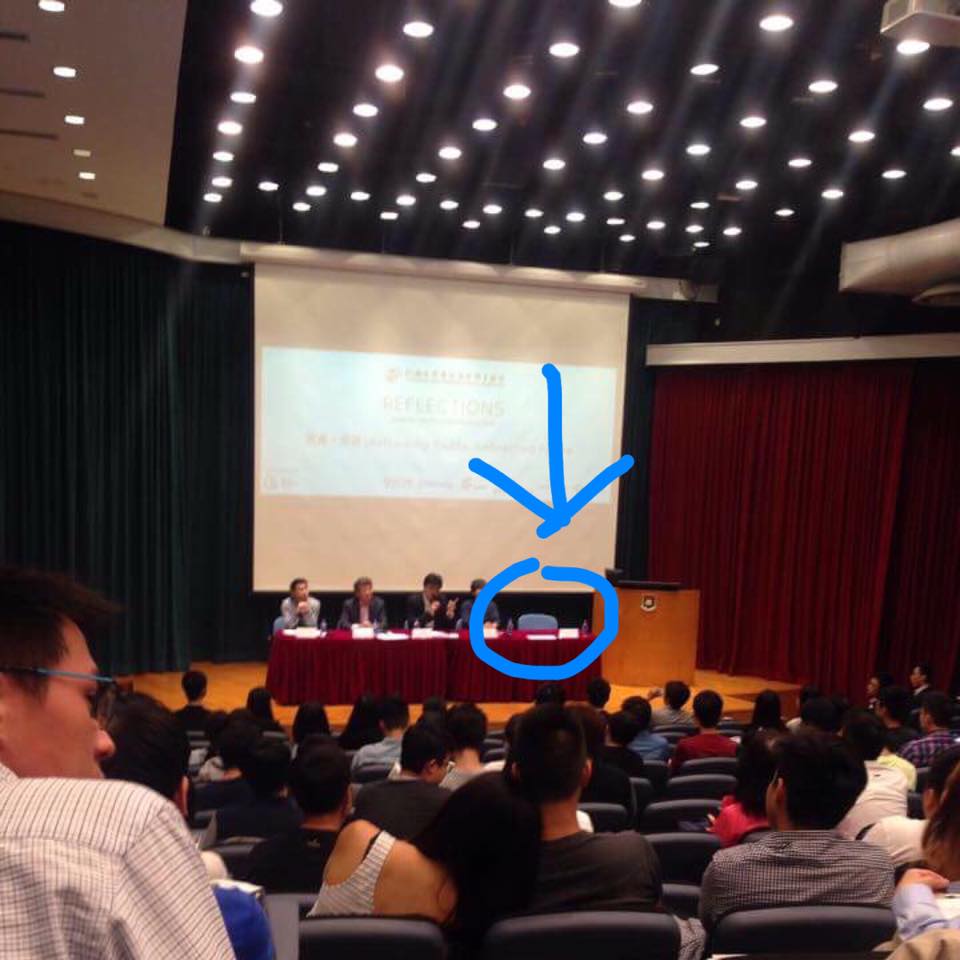
- (Kinliu)
On Monday, Joshua Wong went on radio to talk about his new political party.
Afterwards, he went to the HSBC Bank to open a new account for his new
political party. However, the bank determined that this organization does
not meet their requirements and rejected his application. HSBC Bank
declined to comment to the media, saying that all client information is
confidential.
According to
information, the Scholarism account had about $1.45 million. Scholarism said
that none of the money will be forwarded to the new political party, which
therefore has nothing to operate with. No wonder Wong is anxious to
establish a bank account for the new political party so that he can start
another round of fund-raising.
- Joshua Wong has
started fund-raising even before he got a bank account.
(Hong
Kong Free Press) March 21, 2016.
Scholarism convenor
Joshua Wong said that HK$2 million would be needed to field two candidates
in the upcoming LegCo elections, after the student activist group announced
its suspension of operations to focus on a political party and a student
group.
�At the moment, new political groups
don�t even have one dollar. In April, [we] have to start paying rent.
Hence we are in immediate and dire straits,� said Wong on Monday.
�In the future, we will use a
crowdfunding movement, hoping to raise funds,� he said. �If we are
elected by citizens, we hope to receive their small donations, even if
it was ten or eight dollars, or even 50 or 100 dollars.�
- At $10 per person, Joshua Wong needs
200,000 suckers to raise $2 million. Alternately, Joshua Wong can travel
to Kadoorie Hill to pay homage, and Jimmy Lai will give him a suitcase
loaded with spanking new $1,000 bills.
- Wait, did he ask for Viagra pills too?
- (Bastille
Post) Immediately after the New Territories East Legislative Council
by-election, the Localists including Raymond Wong (Proletariat Political
Institute), Wong Yeung-tat (Civic Passion) and Wan Chin (City-State)
announced that they intend to field five candidates in five districts for
the Legislative Council elections in September. Edward Leung (Hong Kong
Indigenous) was not on their list.
Scholarism now says
that they want to field two candidates, Oscar Lai in Kowloon East and Nathan
Law in Hong Kong Island. Joshua Wong is only 19 years old and won't meet the
21-years-old age requirement. Scholarism will be trying to take away the
votes from both the mainstream pan-democrats and the radicals.
In the 2012
Legislative Council Kowloon East elections, Wong Yeung-tat (Civic Passion)
got 36,600 votes and Andrew To (League of Social Democrats) got 27,300
votes. The two split up the radical votes and enabled the pro-establishment
Paul Tse to sneak into the final position at 38,500 votes. The entry of
Oscar Lai means that the radical vote may be further divided.
In the 2012
Legislative Council Hong Kong Island elections, the Civic Party led with 70,400
votes but they could only send one candidate into the Legislative Council. Labour Party's Cyd Ho got in with 31,500 votes. In this case, Scholarism
needs to take votes away from the Democratic Party, Civic Party and Labour
Party.
Overall the situation
is that the total votes for the pan-democratic and the pro-establishment
camps will be about the same. However, the pan-democrats will be split up
into (1) mainstream pan-democratic political parties; (2) mainstream radical
political parties; and (3) Localists/Scholarisms.
- Scholarism Victims
Alliance Facebook
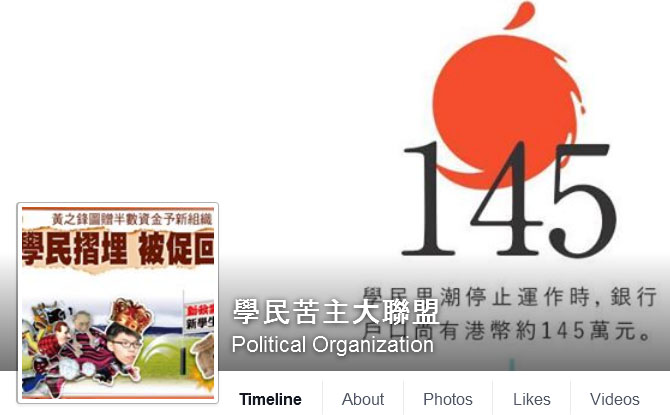
- Thievery:
Yesterday Scholarism
said that they are disbanding. After all these years, they have $1.45
million left. Another $2.74 million is unaccounted for.
Previously Scholarism
had given Ming Pao the following information:
2012 June - 2013 June
Futak Building office rent = $1,000 x 12 = $12,000
2013 July - 2016 June
Lai Chi Kok office rent = $21,000 x 36 = $756,000
Printing news and
miscellaneous expenses = $250,000 per year x 4 years = $1,000,000.
So the total expenses
over the past four years is $1,768,000. Where is the remaining $972,000? This
does not include the donations from June 4th event, the Lunar New Year's
event, online donations, etc. According to the above, the July 1st march
raises at least $200,000 each year. So that is $600,000 for the three dates
per year. For the two years, the total would be $1,200,000.
Added to the $960,000,
this means that $2,160,000 is missing!
- For the final group
photo of Scholarism, Joshua Wong told everybody to wear their black
t-shirts. But he shows up in a bright orange t-shirt to match the orange
banners in the background. This shows who is the superstar and who are the
background props.
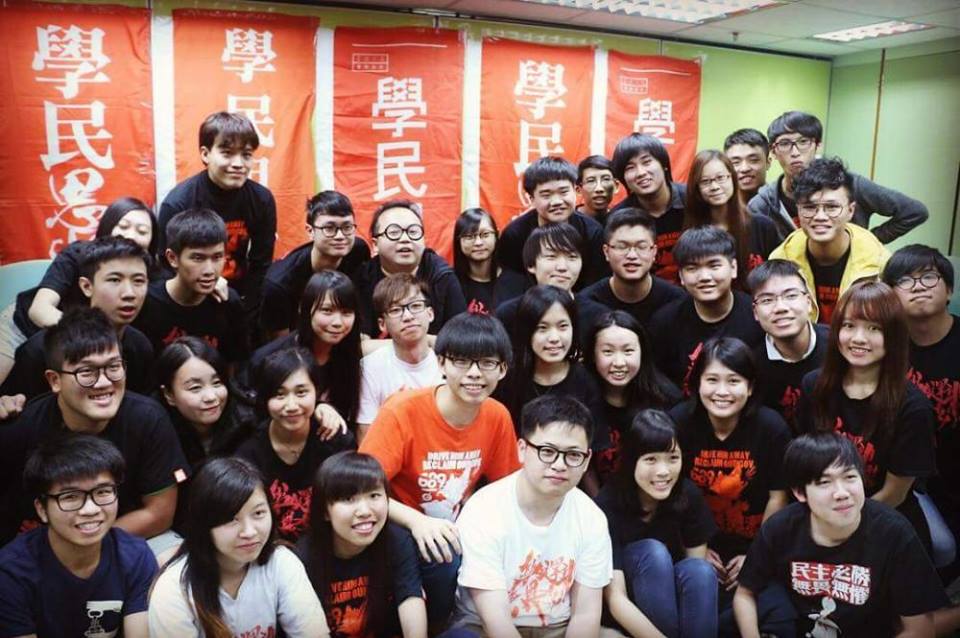
- (Headline
Daily) Scholarism was founded by Joshua Wong, Queenie Chung and Ivan
Lam. It began under the name "Scholarism-Anti-National Education Alliance."
At the time, Joshua Wong promised that the organization will be disbanded if
and when national education is vetoed. In 2012, Wong changed the name of the
organization to "Scholarism" which began to deal with other political
issues. Queenie Chung decided to quit because the nature of the organization
had changed. She characterized the current Scholarism as over-expanding like
a nouveau riche with volunteers of uneven quality. In the end, there are
opinion differences which made it hard for students to focus on education
issues.
Ivan Lam said that
Scholarism had been facing up to internal dissension and public
disappointment for some time. The dissolution after four years will be good
for both members and supporters. He said: "Scholarism wanted people to unite
together. But another way of looking at this is that they did not know how
to deal with opinion differences."
- Whereas Scholarism
began as a single-issue organization, it later began to engage in various
political issues. This made it hard for schools to invite Scholarism
speakers like Joshua Wong, Prince Wong, etc to address students because they
have become an overtly political organization. In future, Scholarism members
who are interested in education issues should be with the new student
organization and those who are interested in political issues should be
with the new political party. That is the stated reason for the split-up.
- Joshua Wong and his
friends are following an established model of political party/special
interest group. An example is the Democratic Party/Professional Teachers
Union. Another example is the Labour Party/Confederation of Trade Unions.
The special interest group can draw in certain supporters but who may be
turned off by politics. For example, students are interested in the issue of
national education but they are not interested in the request for additional funding for the
Express Rail Link. Therefore these organizations split themselves into
different brands that compliment each other.
- Five years ago when
Scholarism started, Joshua Wong, Oscar Lai, Queenie Chung, Ivan Lam, Prince
Wong, Agnes Chow and others were secondary school students. Five years
later, they are no longer in secondary school. So Scholarism has difficulty defining itself as an
organization representing secondary school students. Some of these people
have left secondary school and gone on to tertiary education. But their
scholastic records were so terrible such that none of them managed to enroll in
the top eight universities. For example, Joshua Wong was said to be in Open
University. So it was clear that Scholarism had no future.
- On January 3, 2015,
Joshua wong said: "I want to complete my four years of university first and
then I will consider the future. At this time, I don't intend to follow a
political party, enter politics or take part in any elections ..."
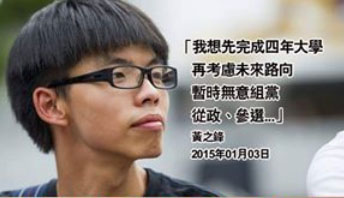
So much for that ...
- Scholarism always
featured Joshua Wong in center stage and there is was no attempt to
cultivate a new leader who is currently a secondary school student. As
Joshua Wong and others got older, they can no longer be perceived as
representing secondary school students. So it was a matter of time before
the end game.
If Scholarism is to
continue with the same cast of characters, it has to abandon the student
market and become a political party going after voters who were born in the
1990's. However, Scholarism is at an awkward stage because people such as
Joshua Wong are not yet old enough to run for the Legislative Council. But
if they don't do anything before then, their support base will shrink
severely. So they have to form a political party before they are
marginalized and forgotten.
- After Occupy
Central, the pan-democrats can see that Occupy tactics can't force the Chief
Executive to quit or even squeeze a very small concession out of the
government. Thus the new view is to engage in "valiant resistance by force"
in the manner of the Localists. However, Scholarism's political narrative
and methods follow those of the traditional pan-democrats, except that they
have a few neatly packaged baby faces. Eventually, the faces of these young
people will no longer be fresh. Therefore they will be facing an uphill
battle. Will Joshua Wong still be remembered by the time that the 2020
Legislative Council elections come around?
- Civic Passion's Wong
Yeung-tat said that the ideas of Scholarism and its convener Joshua Wong do
not overlap with Civic Passion or the Localists. Civic Passion is more
radical and Scholarism is more moderate and closer to the mainstream
pan-democrats. However, other people say that Scholarism may be on speaking
terms with the pan-democrats but their methods are more radical.
Scholarism's main support base is young people, so they will be
competing with the Localists and the radical pan-democrats such as People
Power and League of Social Democrats. This means all-out civil war in the
September Legislative Council elections.
- (Strait
Times) March 18, 2016.
Billionaire Li Ka Shing said yesterday
that Hong Kong's economy is at its worst in 20 years, and warned that the
city's stock market could fall by more than half if the financial hub does
not get backing from mainland China.
Mr Li, who held court with reporters for
over an hour at an earnings news conference, is the latest person to sound
the alarm after Moody's downgraded Hong Kong's sovereign credit rating at
the weekend, citing its links to China's economic slowdown.
"Today's Hong Kong is getting worse...
the worst I've seen in 20 years," said Mr Li, 88, referring to the Asian
financial crisis in the late 1990s. "Our home sales and retail now is
worse than in the Sars period. During Sars, (the effect) was short-lived
but now it is long," he said, in a reference to the severe acute
respiratory syndrome that crippled the city in 2003.
Hong Kong retail sales, which suffered
their worst decline in 13 years last year, have been hit by a slump in
tourists from the mainland which has been blamed in part on increasing
cross-border tensions.
"If we respect tourists, no matter where
they're from, today our retail, hotels would not be this bad. So everyone
has to reflect on themselves, there are a lot of issues the politicians
need to reflect on how they can do better," Mr Li said.
A contrary opinion came from Joshua Wong: (Speakout
HK @ YouTube)
0:07 Wong: I have not seen any large companies
being affected because Occupy took place so as to carry out mass-scale
layoffs. The Hong Kong stock market did not go down. So how was the
economy affected?
- On radio this
morning, Prince Wong said that she was happiest during Occupy Central and
saddest when Occupy Central was over. So she is also a member of the "Don't
Worry Be Happy" faction.
(Headline
Daily @ YouTube)
0:38 Mr. Li Ka-shing said earlier
that the Hong Kong economy is the worst now over the past 20 years. He is right
to say that it is the worst. Every sector is at its worst. How did this happen?
It started from Occupy Central. This does not have anything to do with political
governance. It was a manmade disaster. It was caused by people. A group of
hopeless people.
1:11 For example, Benny Tai. This
inexperienced, rigid person. (applause) He walks around the street telling
people to do this sort of thing. Of course, he was overtaken by others. He
couldn't stop it, right or not? You teach at a school, but you tell people to go
into the streets and break the law. I think that as a professor, you should be
teaching people how to study. But you teach people to take to the
streets. Soon other people took the wind out of your sail when it came to taking
to the streets.
1:47 You let that ... what's his
name? ... Wong what ... (laughter) He doesn't even look human, right or not? He
couldn't stop things. How are you going how to deliver a lecture? When he
failed, he looked as if he was going to cry. If you lose, you shouldn't be
crying. You should just shut up. But now you come out again to start something
else. Of course you are going to wind up with another failure.
2:18 I have previously spoken
about the ill effects of Occupy Central. They shouldn't be very happy. First
there are the ill effects of Occupy Central. Next there is anti-parallel trade.
Now all the ill effects are showing themselves. The ill effects are becoming
clearer and clearer now.
2:39 Firstly, your international
image is bad. At the time, it was a lot of fun, a lot of fun. But you are
hurting other people. You should not think that you are just hurting business
people. You are hurting your friends and relatives, even your parents. Because
if the economy is bad, they will cut wages and hire fewer people. Did you think
about that? They haven't thought about that. There is a causal effect.
3:16 You should not think that if
you cause trouble out there in Hong Kong, it won't affect you. You will be
hurting the people around you. Dozens of them. Hundreds of them. You don't know
for sure.
3:50 So you go ahead to riot. I
have never heard of collecting donations while rioting. Brand new money bills. I
have never heard of that. If you have to donate to them, you iron new money bills
for them with Viagra inside, etc. This group of people is truly awesome. I don't
know how they did it.
4:23 So there is this one person
named Leung. He says that he is a Localist. He is the king of liars. I was born
in Hong Kong and I am a Localist. He was born in mainland China and he says
that he is also a Localist. That is deceiving people, that is conning people.
Today there are many young kids who don't know any better and they are willing to
follow him to death because they think that he is such a hero. He calls other
people "locusts" but he is also a "locust" himself. Why didn't he say so
himself? He thought that he could just gloss over it.
4:58 Does Hong Kong have any
chance to become independent? If he goes to Paradise, he may have a chance.
Because Paradise is his world. Paradise. That is the Paradise that he created
for himself.
5:20 Anyone with even a modicum of
thought would know that there is no possibility for independence. He talks these
about these sorts of things. Now I, Charles Ho, have traveled to the mainland
for many times over many years. I frequently see those current affairs
commentators talking about the mainland and then the United States. They are
lousy. I guarantee that I know one billion times more than they do.
5:58 Over the years, I have seen
so many policies coming from the central government and I have met so many
people. Nobody has ever said that they want to trample upon Hong Kong or
otherwise not support Hong Kong. So you have to be fair according to your
conscience.
6:15 So when these guys want to go
independent, I don't know what they are up to. So when they say how bad the
Communists are and the democrats are whatever ... all that I have observed and
experienced over the years, none of the many government teams over have ever
wanted Hong Kong's economy not to be good. That is why I say that the Hong Kong
economy is bad today because it is a manmade disaster.
6:46 So why can't Hong Kong not be
independent or become like those Middle Eastern countries? Please don't trust
what the Americans say. Those revolutions. Today the Middle East created so many
broken families and refugees. Please don't believe in this sort of thing.
Therefore I sometimes say that Hong Kong is a lucky land.
7:17 Today the students like the
one named Leung who graduated after studying so many years. Today you are
studying there in those schools because we are giving you the money to enable
you to study, because the government is subsidizing you. You have no idea how
lucky you are. You should think about this. The structure of this government is
tops among the world.
7:56 When the Civic Party first
showed up more than a decade ago, I had some hopes. But I find that the Civic
Party is becoming worse and worse as time goes by. When I heard that Leong ...
what's his name ... oh, Alan Leong ... each time that I hear Alan Leong speak, I
visualize him wearing a Chinese-style suit and speaking inside a funeral parlor.
Do you think that is what he looks like? (laughter) He looks like a master of
ceremony for funeral rites.
8:26 These people have no original
ideas. They watch what others do and they repeat the same. They see Long Hair do
something, they do the same. Brother, how educated is Long Hair? He is just a
bum. But they follow Long Hair and act in the same lowly manner. So don't you
think that the Civic Party people have damaged their brains with too much
studying?
8:51 A colleague of mine told me
that Joshua Wong may be going to study at Harvard. He was going to study
overseas. I said that this punk won't go. He asked me why. Take a look at him
and you know that he can't pass the SAT. Right or not? If he gets into Harvard,
he can't even keep up with ABC. Right or not?
9:11 Today there is a very tragic
situation in Hong Kong. When our university students graduate, their English
skills are worse than the Hong Kong University students from thirty or forty
years ago. You can find any Hong Kong University student from thirty years ago,
forty years ago and see how their English is.
There is no comparison. They are ten times better. The reason why you see so
many people still working is that the quality of those coming from behind is so
poor.
9:55 Over the years, Hong Kong
education has been been a complete failure. There are two reasons for the
failure. One of them is about using the mother tongue to teach. The other is is
liberal studies. When I talk about education, many people don't want to listen.
They came up with this before. But I have to speak out. Teaching in the mother
tongue. I, Charles Ho, only found out three years ago that teaching in the
mother tongue means teaching in Cantonese. If you want to learn, you should
learn in Mandarin. At least you can get around in mainland China. Therefore
English-language skills are getting worse.
(Oriental
Daily) (Oriental
Daily with video) March 19, 2016.
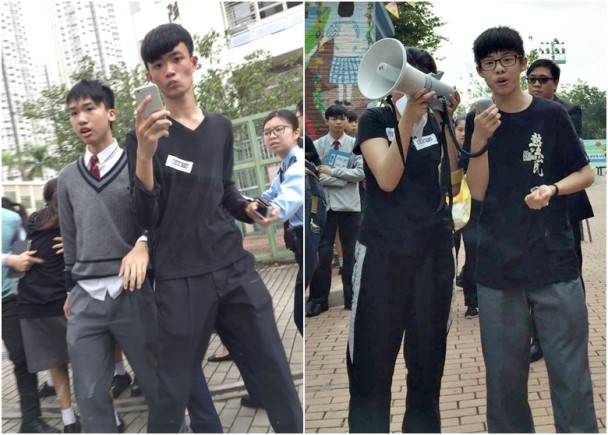
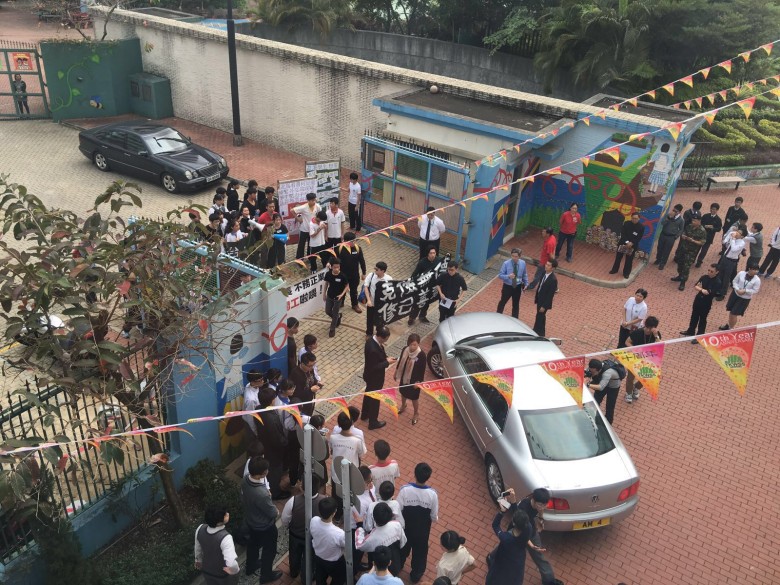
Today after attending a school
anniversary event at the Queen Elizabeth Secondary School Alumni Association
Tong Kwok-wah Secondary School in Tin Shui Wai, Department of Education
secretary Eddie Ng found his vehicle surrounded by more than one hundred
demonstrators. According to eyewitnesses, some of the demonstrators wore black
clothes with stickers saying "Down with Eddie Ng", "Cancel TSA" and "Defend
traditional Chinese characters." Other demonstrators wearing Civic Passion
t-shirts used megaphones. When the demonstrators saw Eddie Ng coming out, they
surrounded the car, banged on the car and demanded that Eddie Ng get out of the
car and received the letter signed by 335 students.
The Department of Education news
office said that Ng was invited the Queen Elizabeth Secondary School Tong Kwok-wah
Secondary School to celebrate their anniversary. Unfortunately the event was
disrupted by persons from the outside and Ng expressed regret that a shadow was
cast upon the celebrations. Ng did not step out of the car in view of the
personal safety of all those present.
The school said that they learned
from the students' Facebook group that they intended to petition Eddie Ng today.
The school said that they respect the students' freedom of expression, and they
set up an area for the students to express their opinions to Eddie Ng.
However, the 100 or demonstrators
contained only three to four alumni or current students. Most of those standing
in front were outsiders not wearing school uniforms. In consideration of
personal safety, the school summoned the police.
(Apple
Daily with video) March 19, 2016.
When Eddie Ng left, he encountered the
student demonstrators. More than 100 students took part in the demonstration.
But Eddie Ng hid inside his car, played with his mobile phone and checked his watch.
He did not accept the petition letter and he did not speak to the students.
After about 30 minutes, the police arrived. The students clashed with the
police, with one student falling down on the ground. The students broke through
the police blockade several times to block Ng's exit. The police tightened their
cordon and closed the side entrance. Finally Ng was able to leave after the
police opened a path for him.
(Wen
Wei Po) March 20, 2016.
Yesterday morning at 10am, a
Golden Forum user began posting on "(People needed quickly) Eddie Ng is at Tong
Kwok-wah
Secondary School in Tin Shui Wai". He taught outsiders to take the 705 and 706
buses to get off at Tin Yuet Stop. This internet user continued to post updates:
"Quick, the students are waiting to start and the Apple Daily reporter has
arrived", "Open day at the school anniversary, so everyone can enter" and
"people are needed as well as equipment."
The internet user also uploaded
photos taken at the school. Even before Eddie Ng arrived, someone had laid down
a banner on the ground. There were photos of Eddie Ng arriving and being
surrounded by the demonstrators. "The police are helping him to leave so we need
people quickly" and "the police are pushing us aside and blocking us."
Other commentators added: "Magnify
this! We have to push push push," "the police have charged into the school and
they are assaulting the students!" "there are three police vehicles plus one
water cannon vehicle" and "let us hope that no student would jump off the
building to land on top of Eddie Ng's vehicle."
But eventually the show was over.
What did they have to say? "Although the school is somewhat useless, many of the
teachers are anti-government. Previously some teachers told the students to go
and occupy Central." "The teachers took part in the anti-national education
campaigns upon the orders of the principal." "Many teachers gave tacit
permission, and even said that they will support anything and everything." "The
teachers did not stop the students; they encouraged them" and "I saw some teachers
holding the police back. Also the teachers started the black-shirt movement, so
it is hard to say whether the black-shirt people were teachers or outsiders."
(EJ
Insight) March 21, 2016.
Education Secretary Eddie Ng Hak-kim has dismissed criticism that he chose
to sit in his car and play with his smartphone rather than meet some
students and activists who had staged a protest over the weekend. Ng was
accused of taking refuge in his car for about 30 minutes on Saturday after
the vehicle was surrounded by protesters who were calling for, among other
things, abolishment of the controversial Territory-wide System Assessment (TSA)
for local students.
The incident happened after Ng attended an
anniversary celebration at the Queen Elizabeth School Old Students�
Association Tong Kwok Wah Secondary School in Tin Shui Wai on the morning of
March 19.
As Ng was preparing to leave, he was
accosted by protesters. Rather than engage with the activists, the education
chief sneaked into his car and tried to get away from the scene, according
to reports.
Students then blocked the car in protest,
prompting Ng to remain in the vehicle. He was seen sitting with his legs
crossed and his eyes firmly glued to his mobile phone. Ng took out some
documents to read at one point, and checked the time on his watch several
times, turning a deaf ear to the chants by protesters.
The
protesters, who were around a hundred in number, were demanding that Ng come
out of the car to receive a petition on education-related issues. Some of
the activists had also raised slogans that Ng should step down from his
post. Around 20 police officers arrived at the scene as the standoff
continued for about half an hour. The officers then formed human chains to
allow Ng�s car to leave.
Following the incident, Ng, through a
secretary, sought to justify his actions, saying the decision to remain in
the car was made in view of the situation.
His top concern was ensuring safety of all the people present
there, he said, adding that it
is regrettable that a school event was disrupted.
He lashed out at the protesters, saying that
blocking roads and surrounding people�s cars is not the right way to express
one�s opinions.
Ng later said during the tenth anniversary
of the Hong Kong Woman Teachers� Organization that he is unhappy that some
people are making the local education system the scapegoat for every social
issue. The education chief said that he communicates with teachers,
students, parents and principals on a daily basis and that over 40 schools
have participated in the enhanced edition of the TSA, which he insists is a
good evaluation tool.
Lawmaker Ip Kin-yuen, who represents the
education functional constituency in Legco, was quoted as saying by RTHK on
Sunday that Ng was wrong in not getting off his car and listening to the
students. The official�s handling
of the incident on Saturday was poor, he said, suggesting that his actions
will be deemed as arrogance and lack of empathy toward students.
Internet comments:
- Oriental Daily says that the
school said that it was 100 persons, with three to four alumni/students and the
rest outsiders. Apple Daily says 100 student demonstrators. The video is at
https://www.youtube.com/watch?v=oPp-dzwXgBE. How many people look like
secondary school students?
- The best part of the Apple Daily
video is this guy giving an impassioned speech:
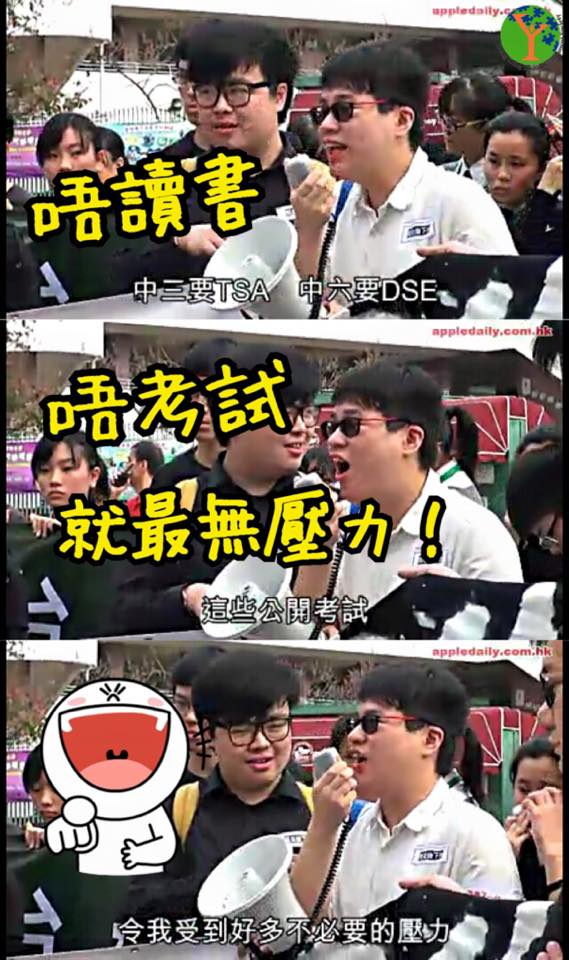
Secondary School third year students have to take the TSA, sixth year
students have take the DSE. These open exams have caused me to be under a lot of
unnecessary pressure!
Even the guy next to him had to
giggle and others were looking away. In summary, he is saying: "I don't like
studying. So let there be no exams and then there won't be any pressure on me!"
- Secondary students protest
against TSA! That should have been a good news story. Instead, the story
became Civic Passion Hot Dogs causing trouble again! and has no news
value anymore.
- (Cable
TV) The black hand behind the assault today was Queen Elizabeth
Secondary School Alumni Association Tong Kwok-wah Secondary School principal Chu
Kwok-wah.
Frame 1: I would be very proud
Frame 2: Good students, good students
Frame 3: I don't think that they committed any real wrongs
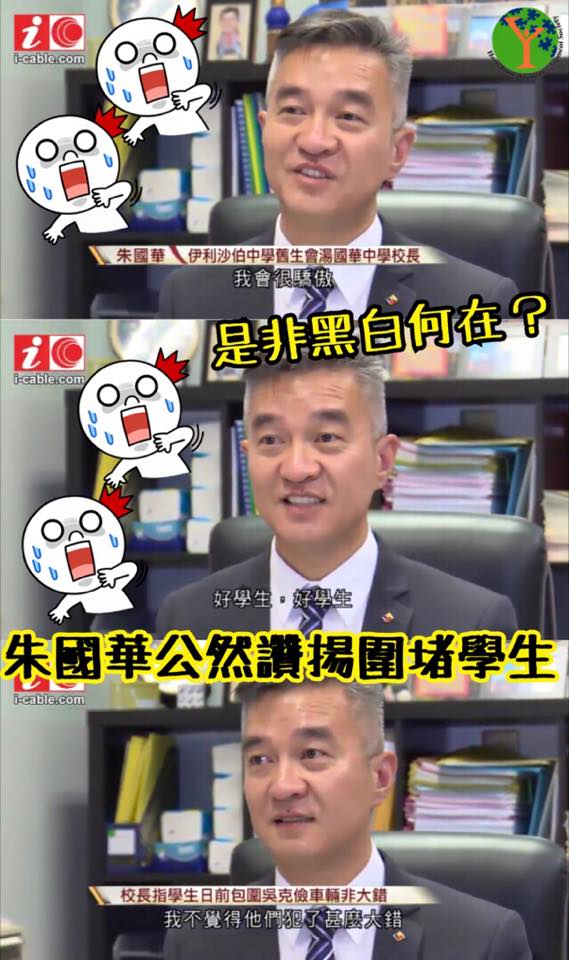
- You don't get it -- Principal Chu was talking about his students, not the
Civic Passion Hot Dogs from the outside.
- No, Principal Chu is clearly suffering a case of the
Stockholm syndrome. Just take a look at that completely inappropriate
smirk on his face.
- (HGK
Pao) March 23, 2016. The school has issued an open letter to accuse the
media of taking Principal Chu's partial statements out of context. For example,
the open letter said that Principal Chu did indeed say that "he was proud of the
students." However, the original full statement was: "During the anniversary
ceremony and the open day activities, the students behaved in a well-mannered,
proper and appropriate, and they deserve to be proud of." However, when our
reporter reviewed the video, Principal Chu's original full statement was: "Good
students! Good students! I would be very proud!" with no sign of being edited.
As another example, when Principal
Chu said "I don't think that they committed any real wrongs", the school said
that original full statement was: "During the process of learning and maturing,
the actions and deeds of the students will definitely contain some
imperfections. Even if they sometimes break the rules, they haven't make any big
mistakes." But what Principal Chu said in the video clip was "I don't think that
they committed any real wrongs." This is not what the claimed original full
statement contains, and it is inconsistent with the preceding part of the
claimed original full statement.
The format of the letter is
also odd. The letter began as a statement from the school but it was signed by
Principal Chu. So does this letter represent the school or Principal Chu? Are
they one and the same? Or are they separate entities with different interests?
Was Principal Chu trying to clarify what he meant, or what he being 'apologized'
by persons unknown? And what is the position of the Queen Elizabeth Secondary
School Alumni Association in all this?\
- (Cable
TV) The school has sent out a letter to the parents to say that Cable TV
edited the response of the principal. Cable TV is now presenting the full video
segment. The principal said that he was proud of the overall performances of his
students on the school anniversary. However, the full video showed the principal
was saying that he was proud of the student demonstrators. The school is not
responding to further inquiries from Cable TV.
- The Tong Kwok Wah Secondary
School board of trustees chairman commented on a statement by the student Tong
Kam-ting:

As a teacher, I agree that
everybody should care about society and actively express their views. At the
same time, I wish that the students could learn to heed and respect the opinion
of others even as they demand these others to listen to them. They should not
mishear or speculate. They should base everything on facts and communicate
objectively and reasonably.
After the ceremony, you published
<It is useless to cry. Who is going to listen to our voices?> which drew broad
discussions on the Internet. As a responsible educator, I must made the
following response:
You wrote: "Today I was the master
of ceremony. I stood on the stage and heard Secretary Ng endlessly repeating CY
Leung's old tune on One Belt One Road, and speaking about the failure of our
education system ... in Secretary Ng's view, students gave up living because
they are not trying hard enough."
I did not want to rely solely on
my own memory, so I asked a colleague to help me review the videotape of the
ceremony many times. I can confirm that Secretary Ng did not mention education
in Dongguan during his entire speech. He did not address the student suicides in
Hong Kong, and he did not say that the cause of the student suicides was not
because they don't try hard enough. As for One Belt One Road, Secretary Ng in
his 10-1/2 minute speech spent 90 seconds on this topic, using the term "One
Belt One Road" exactly four times. Do you think that it is correct to say that
he repeated it endlessly? Besides, I want our students to know that One Belt One
Road was a general direction of development set by the state three years ago,
and not the personal proposal from Chief Executive CY Leung. So do you think
that it was accurate and objective to characterize it as "CY Leung's own tune"?
I hope that every Hongkonger can
understand that to discuss, share or exchange rationally, we must speak
reasonably based upon facts. If you try to persuade your readers through the use
of unrelated or even fabricated information to arouse people in order to achieve
your goal, you are being irresponsible. Reporting the facts, disseminating
information and discussing politics are different from writing literature. You
should be rational and objective. It is inappropriate to present your subjective
feelings and judgments as objective facts in order to arouse and stir.
Rather than saying "Secretary Ng cowered cowardly inside the car," I would have
objectively said: "Secretary Ng remained inside the car." Rather than saying
"behind was a group of students who were forcibly obstructed by the police," I
would have said: "behind was a group of students who were kept away by the
police." There are many similar instances. I think that I should leave it up to
the principal and the teachers to analyze in detail with everybody.
Sometimes, we will also pay too
much attention to what we care about and ignore the needs and feelings of
others. According to the original itinerary, Secretary Eddie Ng was scheduled to
go to a Hong Kong Tree Planting Day event in Yuen Long right after his
appearance as VIP guest at our joint school anniversary. Did our students even
consider that when they block Secretary Ng's car for 45 minutes, they might
be disrupting the subsequent event? Have you considered how anxious and nervous the
organizers of that event were getting?
- (Wen
Wei Po) March 23, 2016. Department of Education secretary Eddie Ng's
mother recently passed away. This became a hot topic for the Localists!
Localists including Civic Passion, Hong Kong People Awaken, Anti-Communist
Party/Anti Colonialization and Golden Forum posted the good news. Many people
using the Edward Leung icon said that Ng's mother died because of the sins of
her son, and that Eddie Ng sent his mother to meet the school children who
committed suicide. They wondered when it will come to the turn of Ng's own
children. This is the sort of thing that you can expect if and when the radical
elements takes over in Hong Kong.
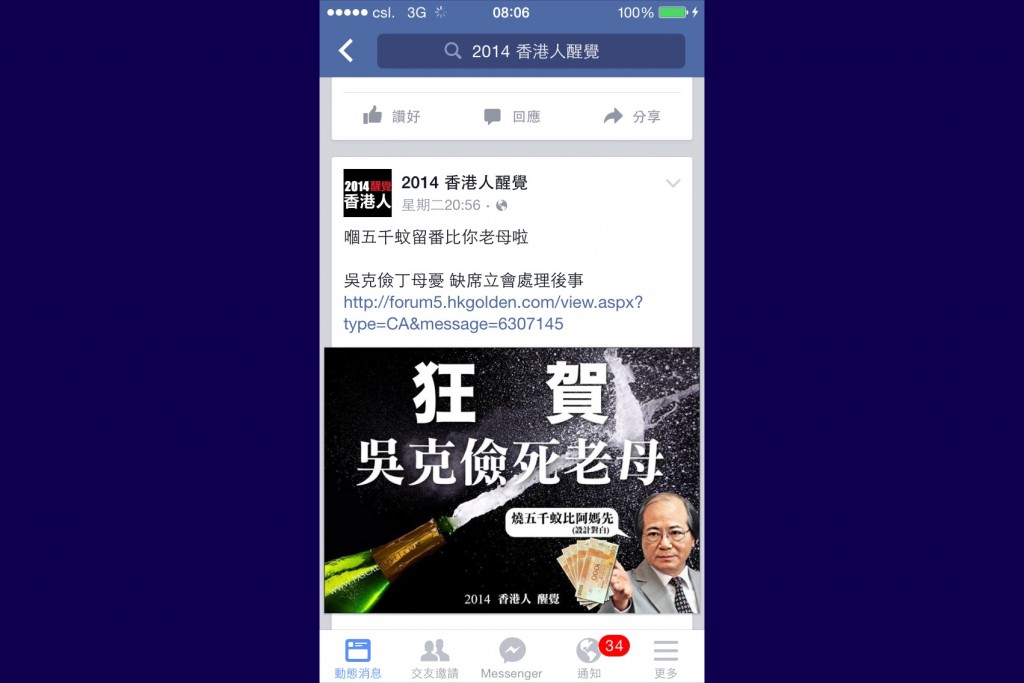

(Oriental
Daily with video) March 19, 2016.
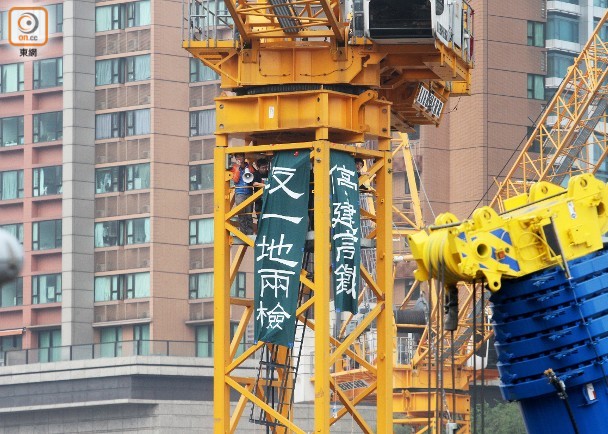
Eight demonstrators charged into
the Express Rail Link construction site on Austin Road, Tsim Sha Tsui district
at 6am. Three of them climbed up a crane, hung down two banners "Stop
construction of Express Rail Link" and "Oppose Co-location." The police and fire
departments were summoned. At 9am, the three individuals were persuaded to come
down. One of the demonstrators was League of Social Democrats vice-chairman
Raphael Wong.
(Wen
Wei Po) March 20, 2016.
According to information, this
action was pre-planned. Raphael Wong said on his Facebook, they attempted to
enter the construction site two nights ago but were discovered and forced to
withdraw. Afterwards, the eight persons (including Wong, Land Justice League's
Chu Hoi-dick and Yip Wing-lam plus other League of Social Democrats members
sneaked into the construction site between 1am and 2am. They even went up a
crane and hung out two banners. They used Facebook to hold a live broadcast of
the process.
At around 7am, the construction
workers showed up to work. The demonstrators used their megaphones to chant
slogans. They said that the extra funding process was illegal, the co-location
arrangement violates One Country Two Systems and they demanded to stop
construction immediately and all the MTR and government officials bear the
responsibility. According to the construction workers, those people were
shouting from ten floors up and nobody could hear what they were saying.
The construction management could
not persuade those people to come down. So they called the police. Fire engines,
ambulances and police vehicles were sent to the scene. At around 9am, the
demonstrators came back down. The police inspected them to make sure that they
did not remove anything that belongs to the construction site. Then the police
took down their Hong Kong ID information and let them leave.
Afterwards these people chanted
slogans outside the construction site. Raphael Wong said that they "used their
own methods" to enter the construction site, and they were willing to bear the
consequences of this act of civil disobedience.
Yesterday, Initium posted an
exclusive report. They said that the eight demonstrators entered construction
site at 130am. At 200am, the demonstrators used a metal ladder to scale a
two-storey high wall and entered the emergency exit to reach the construction
site for the lower levels. At 3pm, they reached a crane. At 530pm, they began to
go up the crane. At 6pm, they hung out the banners.
Raphael Wong said that Chu
Hoi-dick had been in and out of the construction site three times already. The
crane appeared to have only seven floors high, but it is actually 20 floors
high. He said that they recognized that the act of civil disobedience carries
the risk of being prosecuted, or being sued by the MTR in a civil case which may
cause bankruptcy. However, "we have prepared ourselves with that awareness."
Internet comments
- Not wonder there was a huge traffic jam
on Wui Cheung Road today. Fire engines, ambulances and police vehicles were
parked along one lane. Plus the reporters too. That road is always congested
already! Please find some other way of expressing your opinions! The fire engines and
ambulances are needed to help others who are really in need. Why don't you
people just leap down?
- Stop the Express Rail Link project? Are
you going to provide for the livelihood of several thousand families? As the
Chinese saying goes, ruining somebody's livelihood is like killing their
parents! ..
- Those people who opposed the MTR system
back then are probably riding it every day now! High Speed Rail is something
that all modern cities around the world have. These people keep trying to
block economic development in Hong Kong. What do they want?
- The answer is simple: Raphael Wong and
Chu Hoi-dick are running for Legislative Council in September. They need the
publicity.
- They think that by staging these shows, they will get as many votes as
Edward Leung. Then they will get a job that (1) pays $93,000 per month; (2)
does not entail much hard work -- just show up occasionally, shout and
scream from your seat, get expelled by the chairman and go to lunch.
- The astonishing thing is that the police
only took down their Hong Kong ID information and did not arrest them. This
is as straightforward a case of trespassing as there ever will be.
- (Wen
Wei Po) March 20, 2016.
Reactions from the radical Localists.
- They went when nobody was working. This
is like protesting after the Legislative Council passed the extra funding.
Only leftist retards do this!
- They succeeded in delaying the project
by four hours?
- Actually you are not occupying the
entire construction site. You just went up to hang two banners and then
you came back down. You are putting up a show more than anything else.
- They talk as if this action was valiant
and courageous. But actually everything took place between 6am and 8am.
With due respect, what is the purpose of all this? If you want to put on a
show, you should put on a full show.
- Bastards, you ought to leap down.
Construction sites stop work when someone gets injured or dies. Please
don't pretend as if you are engaged in resistance.
- What a fucking big halo! This is yet
another partial victory that will bring your bastards closer to that
Legislative Council seat!
- Raphael Wong had to find a way to stand
out because his boss Leung Kwok-hung had just gotten himself in trouble by
insulting Wong Yeung-tat's wife with a sexist comment ("a thousand heads
rested on her arms of jade").
- Yo, bro! You had plenty of chance to
filibuster/block the extra funding of the Express Rail Link inside the
Legislative Council, but you let the government off. After Edward Leung
got many votes, you suddenly remembered that you guys are radicals too. So
you pretended to charge the Legco. After you let the government off, you
come to cause trouble at the construction site? I will definitely vote
against you in September!
Reactions against the radical Localists.
- This is funny. Is anti-Express Rail
Link the sole right of the Localists? For anybody else, if they take
action, the Localists scold them; if they don't take action, the Localists
scold them too. Only the Localists can do no wrong; everybody else is
wrong all of the time.
- Only the Localists can "fight valiantly
with force." All others are traitors.
- Well, at least these people today did
not wear masks to conceal their identities. And they are not facing ten
years in jail for rioting. I don't understand what the Localists want to
incite a riot and go to jail for ten years.
- Well, the Localists always throw the
first brick in an assembly and then they leave by taxi. This is what they
do best.
- Those who claim to be "valiant" are
usually the fastest to leave. By now, the term "valiant" is actually
negative thanks to the Localists.
- Civic Passion member Dr. Cheng
Chung-tai is different from the people today. He is "valiantly resisting"
the Express Rail Link by standing at a street booth and doing voter
registration.
- Why does Cheng Chung-tai want to
resist/oppose the system (which includes the Legislative Council which is
dominated by pro-establishment side) on one hand and then actively
campaigning for a Legco seat on the other hand? Because the job fucking
pays $93,000 a month. It only takes 10% of the votes to get elected, so
Cheng is trying to register enough people who want to destroy everything.

(Agence
Presse France) March 20, 2016.
Rights groups have condemned
China after a Beijing-based journalist went
missing, linking his disappearance to an unusual open letter calling for
President Xi Jinping�s resignation. Jia Jia, a freelance journalist, has not
been seen since Tuesday, his lawyer told AFP, without giving further
details.
Amnesty International said a close friend
of Jia told the group he disappeared some time after going through customs
at Beijing airport when about to board a flight to Hong Kong. �He went
missing on the 15th,� lawyer Yan Xin said, citing the journalist�s wife.
City University of Hong Kong also confirmed
to AFP that Jia had not turned up to a seminar he was due to give on
Thursday.
�We are deeply concerned by Chinese
journalist Jia Jia�s disappearance,� said Bob Dietz, Asia program
coordinator for the Committee to Protect Journalists. �If he is in police
custody, officials must disclose where they are holding him and why. If
anyone else knows where he is, they should step forward and clarify this
worrisome mystery.�
Under Xi, China�s ruling Communist Party
has tightened controls over civil society, detaining or interrogating more
than 200 human rights lawyers and activists last year in what analysts have
called one of the biggest crackdowns on dissent in recent times.
Sophie Richardson, China director for Human
Rights Watch, voiced concern over Jia on Twitter. �#China disapps journo�no
longer enough to just erase all trace of criticism. Trend now is to erase
critics, too,� she tweeted. Both Amnesty and the CPJ have linked Jia�s
disappearance to an open letter published on the news website Wujie News
earlier this month calling for Xi�s resignation. The letter, which was
rapidly removed, was signed �Loyal Communist Party members�, but little else
is known about its authorship.
�His going missing is most likely related
to the publishing of the letter and perhaps the authorities� implication of
his involvement or knowledge of the letter,� Amnesty China researcher
William Nee told AFP. �Journalists and activists are forced all the time to
�drink tea� with the authorities� but it generally doesn�t last this long,�
he said, adding that officials usually try to extract information during
such meetings.
However, Jia�s lawyer Yan said his
disappearance may not be connected to the letter.
(Apple
Daily) March 19, 2016.
About 10 League of Social
Democrats members marched from the Western District Police Station to the China
Liaison Office to demand an account of Jia Jia's whereabouts. Because nobody
came out to accept their letter, they burned it in front of the bu ilding. They
also pasted posters on the front door.
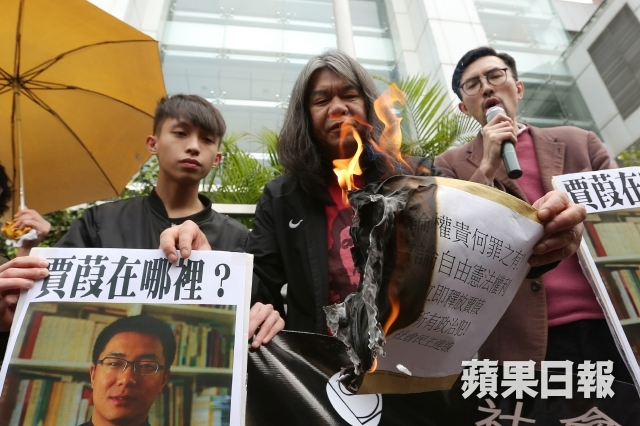

(SCMP)
March 20, 2016.
At least eight
activists and a lawmaker were arrested over a dramatic protest on Sunday
morning when they entered the site of a massive, illegal waste hill in Tin
Shui Wai and attempted to shovel earth into bags to take to government
offices. They were frustrated by the slow pace of government action to
tackle the illegal dumping that formed a four-storey-high mound over an area
the size of two football pitches.
This was the second
daring stunt by the group this weekend. On Saturday, they entered the
construction site of the controversial high-speed rail link in Austin,
scaled cranes and unfurled banners at the top, calling for the work to be
stopped. No one was arrested.
On Sunday, lugging
shovels, trollies and canvas sacks, about a dozen activists from the Land
Justice League entered the dump site, opposite the private Kingswood Gardens
estate, at around 7am. They climbed the waste hill and erected large banners
that read �shame to dumping� and �government responsibility�. They then
started filling the bags with earth.
Police stopped the
activists from leaving after receiving reports from the site manager,
warning them that removing earth from the private site would be tantamount
to theft of private property. After a tense standoff, eight activists were
arrested and sent to Yuen Long police station, at least six of them for
suspected theft, while others had their particulars recorded and told to
leave.
Labour Party lawmaker
Lee Cheuk-yan also arrived to show his support for the protesters, but after
a struggle to enter the site, he was physically carried out by officers who
handcuffed him and drove him away. Another Labour Party member, Eddie Tse
Sai-kit, was also arrested.
�To date, we have not
seen the Planning Department use the Town Planning Ordinance to take
enforcement action,� league member Chu Hoi-dick said as he was also
arrested. �[Tin Shui Wai] is not an isolated example. Across Hong Kong, many
illegal dumping cases go unresolved ... If the government keeps ignoring
this, we residents will not continue to let the environment be destroyed.�
Two weeks ago,
government departments said the �illegal site formation� was potentially
�unstable� and �dangerous�. An order to the landowners to �shotcrete� the
mound with high pressure air and concrete within a week went ignored. The
Lands Department said nothing could be done as it was on private land and
there was no breach of lease. Environment officials said the dumping did not
constitute illegal waste dumping but possibly a breach of air pollution
laws. The Planning Department said it would look into whether there was any
unauthorised development. And after nearly three weeks, the illegal mound
remains on the site despite the government pledging to take �join
enforcement action�. On Sunday, development minister Paul Chan Mo-po
reassured the public that the departments were taking �stringent follow-up
action� and was in contact with the landowners. �We need to collect lots of
evidence, including satellite imagery from different times and study the
relevant laws and their applications,� he said.
Internet comments:
- (Oriental
Daily) According to Civic Party legislator Kwok Ka-ki, Labour Party
legislator Lee Cheuk-yan was arrested because he "talked too loudly" when
speaking to the police commander at the scene. Kwok said that the arrest was
"unnecessary" and that the Hong Kong Police are becoming just like the
mainland Public Security Bureau.
- Kwok Ka-ki was
addressing about 50 people outside the Yuen Long Police Station demanding
the release of the arrestees. You have eight persons arrested in the original
incident and 50 people showed up later down at the police station. Why
didn't the 50 people show up in the first place? Because nobody wants to
hike out early in the morning to an event at which nothing may be
happening. They will go down to the police station after they hear that
something has happened.
- Kwok Ka-ki was not
present at the scene of the arrest either. So he was just either making it
up or repeating some hearsay. (Oriental
Daily)'s version was:
According to
information from the scene, Lee Cheuk-yan arrived earlier than the
others. Twice he attempted to charge into the site, but the police
stopped him. He argued with and bellowed at the police. He sat down on
the ground and refused to leave. So he was carried away by six police
officers. He was even handcuffed. The police report said that a
59-year-old man named Lee was arrested for disorderly conduct in a public
place.
As for the other
Labour Party member Eddie Tse Sai-kit, he was arrested for the more
mundane charge of not carrying his Hong Kong ID.
Police.gov.hk In accordance with Section 17C "Carrying and
production of proof of identity' of "Immigration Ordinance" (Cap 115)
of Hong Kong Law, a police officer has power to inspect the proof of
identity of any person. Any person who fails to produce proof of his
identity for inspection as required by the law will commit an offence.
If any person fails to produce his proof of identity for inspection on
demand, he should give a reasonable explanation and evidence to prove
his identify to any police officer in a reasonable time and
circumstance. Depending on the circumstances and attitude of the
person being checked, a police officer may issue a verbal warning,
bring the person back to the police station for further enquiry, take
summons action or even arrest the person concerned.
- I am not sure if
Lee Cheuk-yan's arrest was necessary or not, but I do know that Tse Sai-kit's
arrest was not unnecessary on his part. When he left home his morning to
come here, he must surely know what he was going to do and that there is a
good chance for ID checks. So why didn't he bring his ID? Or is he an
illegal mainlander?
- (Ming
Pao)'s version was:
Lee Cheuk-yan
attempted to charge past the gate and got into an argument with the
police. Lee said: "The land owner can build a mound but we cannot go
back in to clean up the mound?" The female police officer responded:
"There is no problem with you expressing your views. But this is a
private lot. You should pay attention to your behavior. Do you
understand?" Lee said: "My behavior right now is very good. Right now we
are protecting the environment. What is the problem with clearing the
mound?" Lee was then surrounded and taken away by several police
officers on the grounds of disturbing the peace.
- LOL. It took six
police officers to carry that big fat slob Lee Cheuk-yan away (see
TVB news report).
- Why did Lee
Cheuk-yan have to bellow? (see
RTHK video) The police officers aren't hard of hearing. He is
doing it for the news camera. If he speaks in a normal reasonable tone,
the audio recording microphone may miss him.
- Whenever the
government is unwilling or unable to enforce the law, citizens must take
matters into their own hands. That is the logic. So when the government is
unwilling or unable to remove that mound, citizens must do so themselves.
Similarly when Hong Kong is being swept by a crime spree committed by South
Asians and the police can't stop them, citizens must take matters into their
own hands.
- When the earth was
being unloaded, nobody (such as the residents of Kingswood Garden) called
the police. So the police did not do anything. Now these people break into
the property and start removing earth, the owner calls the police to report
theft of property. Of course, the police have to act. That's the only thing
that the police can do.
- Suppose that you are
a scavenger/collector by habit. Your apartment is stacked to the ceiling
with newspapers that you scavenged over the past thirty years. Your neighbors
think that this is a disgrace that subtracts from the value of their real
estate. They call the police but the police say that what you do in your own
home is none of their business. Any complaints should go to the Fire
Department (for fire hazard), Food and Environmental Hygiene Department (for
vermin), and other departments for specific reasons. The neighbors break into your house to remove the
heaps. You call the police about these thieves. The police arrest them. That is the story here.
- If someone goes down
to Repulse Bay and removes a bagful of sand for keepsake, she is guilty of
theft. The sand belongs to the government. In like manner, you remove earth
from anywhere without permission from the owner (either the government or a
private owner), you commit theft.
- (Cable
TV) A Kingswood Garden resident has a photo from 12 years ago that
the mound was already present. This is disappointing because CY Leung can't
be blamed for everything. However, it is still a possibility for the rumor that
the operator is a personal buddy of CY Leung. This has not been proven to be
false, so it must be true. Or something. Anyway, CY Leung BAD!
- If Lee Cheuk-yan
believes that the government must repay the citizens $19.6 billion for that extra
funding of Express Rail Link, then can he march down to the Money Authority
and take matters into his own hands to carry out his justice?
- When he gets the
$19.6 billion from the Money Authority, he'll keep it in his pockets for
now, just as he did to the $500,000 that Jimmy Lai donated to the Labour
Party.
- A few members of the
Land Justice League showed up this morning and began filling sandbags with
earth from that mound. They eventually filled about 50 sandbags. Do you know
how tall that mound is? At 50 sandbags per day, it will take several decades
to do it yourself. So you are only doing this for show. You were never
serious about doing the job yourself.
- The purpose of the
Land Justice League action today was to take some of the earth and dump it
outside Government House/Government Headquarters in order to gain attention.
The action was symbolic.
- If the Land
Justice League people were seen dumping in front of Government
Headquarters and the police are called, they will be caught red-handed for
illegal dumping. The land belongs to the government and the perpetrators
were caught dumping without permission from the owner.
- Indeed, the
Contemporary Manual for Social Activism says that the first step is to
do something to attract attention. The second step is to raise money. The
third step is to run for elective office. So far so good. Everything is
working according to plan.
- That was the Hong
Kong Indigenous model that everyone is now adopting: (1) the Mong Kok
riot; (2) $1,000,000 in donations kept by the organization plus $530,000
kept by Ray Wong; (3) Edward Leung gets 60,000+ votes in the Legco
by-elections.
- The media has
already made the determination that this was an illegal waste hill. The
'hill' is visibly confirmed. The 'illegal' and 'waste' parts have really not
been clearly defined yet. If the government charges in and levels the hill
to the ground, the same Civic Party will pop out and say that rule-of-law is
dead in Hong Kong which is becoming just like Red China.
- Your break into
private property and you remove contents without permission. The owner calls
the police. But the police can't arrest you. This sort of thing may be
typical in Communist China, but it shouldn't be happening in a place with
'rule-of-law' as its core value.
- No, you don't
understand. Breaking-and-entering/theft is illegal ... but not if you are
doing it for FREEDOM DEMOCRACY HUMAN RIGHTS UNIVERSAL SUFFRAGE OPENNESS
TRANSPARENCY UNIVERSAL VALUES etc. That is called meting out public justice.
- It is wrong to dig
up the bricks from the pavement. But if you are using the bricks to throw
at the police, then it's alright. It is just sand particles in the grand
scheme of things. Also sprach Edward Leung.
- There are two views
of the relationship between Lee Cheuk-yan and Chu Hoi-dick. On one hand, Chu
Hoi-dick ran in the Pat Heung South district council election, got 1482
votes compared to the winner Lai Wai-hung's 2872 votes. Therefore Chu
Hoi-dick can be a good precinct captain for the Labour Party. On the other
hand, Chu Hoi-dick seemed to harbor Legco ambitions along with Lau Siu-lai
and other 'scholars'. So he would be competing for the same voter base with
Lee Cheuk-yan.
- (NOW
TV) (Speakout
HK) March 28, 2016. A group of Land Justice League members and
Labour Party legislator Lee Cheuk-yan carried soil and trash to the
Government Headquarters building in Admiralty. They dumped the trash onto a
sheet of canvas in order to demonstrate their dissatisfaction with how the
government dealt with the Tin Shui Wai case. The police told them to remove
the rubbish when they leave, but they left without doing so. The government
sent in sub-contractors to remove the pile of trash after the demonstrators
left.
(HKG
Pao) March 18, 2016.
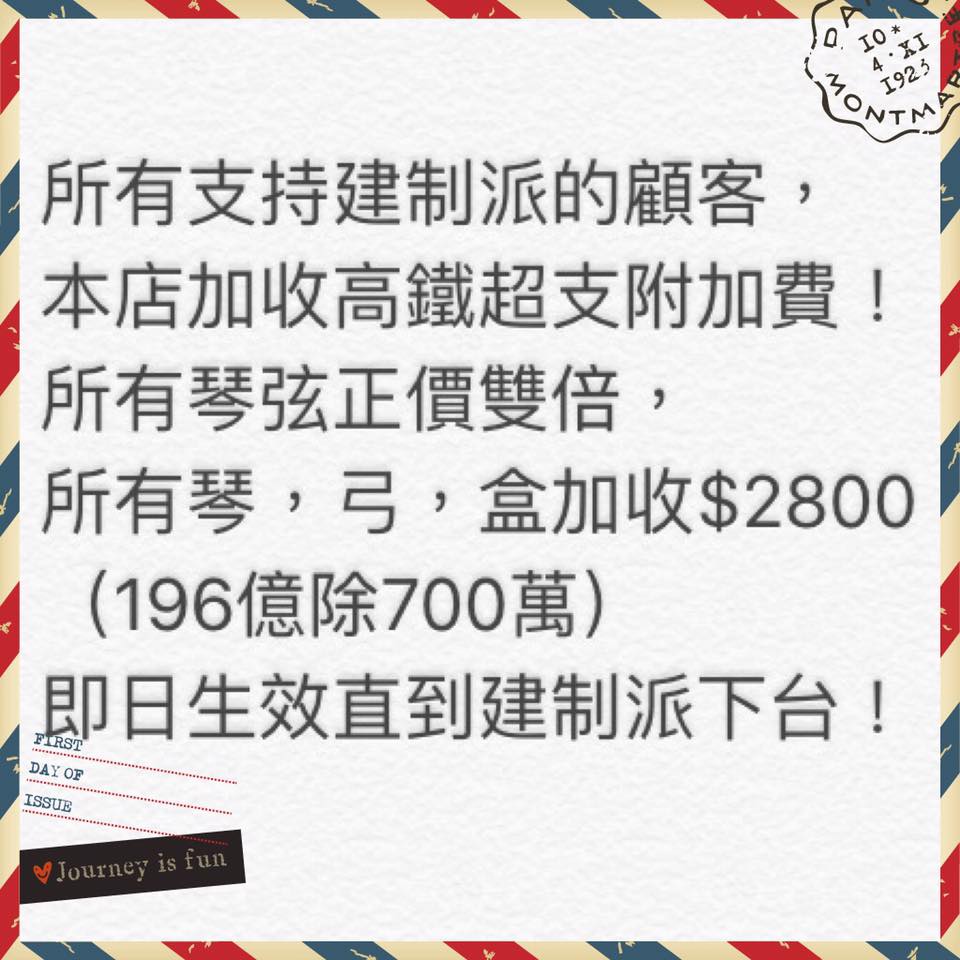
After the passage of the extra
funding bill for the Express Rail Link, the Sincere Strings issued a
declaration:
We will be imposing additional
fees for the Express Rail Link on all pro-establishment customers. All violins,
bows and cases will be assessed $2,800 more (=$19.6 billion extra funding
divided by 7 million Hongkongers). This measure is effectively immediately until
the pro-establishment camp are gone!
So far, the Sincere Strings
Facebook has successfully obtained more than 2,000 LIKE's and more than 120
comments. It is apparent that the promotion is quite effective. However, since
most of the comments are unfavorable, it is not clear whether the effect was
positive or negative.
We checked with the Equal
Opportunities Commission and the Consumer Council. Under existing regulations,
"politically-based prejudice" is not regulated. There is nothing that citizens
can do about this.
We checked the history of Sincere
Strings. It was established in February 2013 in a small office on the eleventh
floor of the Witty Commercial Building, Tung Choi Street, Mong Kok district.
When we visited the location, the door was closed. Most of those who came and
went were the workers. There were very few customers.
The name of the owner of Sincere
Strings is Bob Lam. He learned to play violin as a child, taking the music
courses at the Hong Kong Academy of Performance Arts. He holds a Grade 8 violin
certificate. He was an interscholastic violin champion. Lam was a member of the
Hong Kong Philharmonic at one time, but was later dropped to the Hong Kong Youth
Symphonic Orchestra. Lam makes a living mostly from teaching violin and selling
violin instruments and equipment.
Like most Yellow Ribbons, Lam
attributes his lack of success to society, government and country. In his
personal Facebook, Lam is relatively silent. Mostly he shares Yellow Ribbon news
stories and and commentaries. But it is clearly that he is anti-China, anti-police,
anti-CY Leung, anti-establishment and pro-Occupy. In February last year, Lam 'unfriended'
a student due to differences in opinion, saying "I am better off not teaching
this idiot of a student."
Although Lam is not a professional
performing musician, he has not given up that dream. On October 8, 2014 (ten
days after Occupy Central broke out), Lam traveled to Shanghai; on April 6 last
year, he said that he just made a same-day round trip to Guangzhou. We tried to
reach Lam for comments on his differential pricing policy. Nobody picked up his
mobile phone. There were two numbers for Sincere Strings. One of them was taken
by a worker who declined to comment. The other was forwarded to mainland China.
Is Lam performing in mainland China again?
So do we have yet another
anti-China but pro-RMB Yellow Ribbon? Such people are a dime a dozen in the
post-Occupy era, so there is no need to be surprised. However, should parents
allow their children to be taught and brainwashed by this hate-filled Yellow
Ribbon?

(HKG
Pao) March 17, 2016.
After their successful awards
show, TV Most is going to have an anniversary party in May. Today Apple Daily,
Ming Pao and HK01 are reporting that TV Most is demanding $3.28 million for
event sponsorship, which is a significant increase over the $1 million that
Shell Oil paid for event sponsorship of the awards show. If that is too much,
there are other tiers of sponsorship at $1.28 million, $640,000 and $280,000. TV Most's goal is to bring in between $7 to $10 million.
Yesterday TV Most boss Lam Yat-hei
acknowledged on Facebook that the price list is correct. "But we are being quite
reasonable here. It is nothing to pay a few million in sponsorship. We deserve
that." "Other media outlets wondered if our price is too high, but they cannot
doubt that we have worked very hard ... and we make lots of money along the way.
It's going to be great ..."
Even as TV Most declared that that
they deserve to get rich, there is news that certain people are organizing to
target the TV Most sponsors. According to one person, "Politics and politics,
and business is business. Any advertising agency or advertiser who wants to jump
in will be targeted." The event sponsor will definitely be targeted, and so will
the other sponsors at the lower tiers. "Anyone who wants to make money by
causing chaos in Hong Kong will be our targets! Rather than attacking TV Most,
we will be attending their sponsors. Hong Kong is the battlefield, but the
mainland Internet users will join in to form an even larger battlefield. We'll
see who is going to challenge us."
This person did not spell out the
tactics in detail. But it is believed that it will included negative Internet
publicity, boycotts and complaints. The person did not respond whether there
will be protests at the event itself.
Silent Majority HK Facebook. March
17, 2016.
Last night Pricerite announced on
its Facebook that it will be the event sponsor for TV Most's anniversary
programme. So praises were heaped upon Pricerite owner Guan Baiho.
In 2004, Guan bought the
debt-ridden Pricerite and turned the company around. Clearly Guan has the
ability to become the God of TV Most. However, what did Guan attribute his
success to? Guan said that there were two major reasons: (1) the motherland and
(2) trust.
Guan Baiho said that young people
in Hong Kong should strive to become better by going north to start their
businesses. "You ought to realize that you will be serving all of China and not
just the 7 million in Hong Kong." Furthermore this is the trend: "I hired Hong
Kong university graduates in mainland China, because they knew enough to seek
their opportunities in Shanghai."
Guan also aid that his dad taught
him that a man cannot succeed without gaining trust. "The ideology and culture
of the motherland is no longer like before. They are getting closer and closer
to Hong Kong." Guan said that young people need to improve themselves constant
in order to get ahead.
Does Pricerite stand to profit
with its marketing strategy of sponsoring TV Most? Well, don't count on it. Look
at what happened to Shell when they became the event sponsor of the TV Most's
music award show. As usual, TV Most fans posted hashtags to thank Shell. But
after the show, they will only say "I enjoy TV Most but I can't say thanks to
Shell" and "I encourage Shell's sponsorship but I am not going to thank Shell."
Once the money changes hands, the hell with you!
(HKG
Pao) March 20, 2016.
We contacted Pricerite and wanted
to interview Chief Executive Mr. Ng, Customer Communications director Mr. Leung,
Marketing Department and Brand manager Ms. Lam and Executive Director Ms. Leung
about the TV Most sponsorship. The receptionist said that Pricerite does not use
Chinese names and so we had to ask for Mr. John Leung. Thus we reached Customer
Communications director Mr. Leung.
As soon as we told Mr. Leung that
we wanted to ask about the TV Most sponsorship, Mr. Leung said that he cannot
respond and he referred us to the public relations specialist Ms. Tsang who is
responsible to answer on behalf of Pricerite. Ms. Tsang is a very busy person
and we finally got through to her at 5pm. Interestingly, Ms. Tsang said that she
cannot answer on her own. She asked us to give her the questions and she
emphasized that she will have to discuss with the director in charge of this
matter before she can respond. But isn't the "director in charge" precisely
Customer Communications director Mr. Leung?
Pricerite has not made their
response by our deadline. We have this idea that if Pricerite is paying $3.28
million, why not go all the way? They can invite all the big bosses led by
Shanghai Chinese Communist Party Consultative Conference member Mr. Guan to get
on stage to receive the thanks of the thousands of audience members. And they
get invite the Shanghai city leaders to attend as VIP guests!
Previously our detailed reports on
Pricerite may have created the impression that we are about to start a boycott
movement. That could not be more wrong! We urge everybody at TV Most, HKG Pao,
Facebook and the discussion forums to support Pricerite and we urge all our
Yellow Ribbon friends to proceed to Pricerite to buy buy buy everything in order
to support CCPCC member Mr. Guan and his company. Pricerite paid $3.28 million
to TV Most and the furniture industry typically has a very low profit margin of
1%, so Yellow Ribbons must buy $328 million in furniture and electronic goods to
make good for Pricerite.
Internet comments:
- Looking up Pricerite's
performance, they earned $9.8 million for the first half of 2015. They have 31
stores at the time, which means that each store earns only about $50,000 per
month. Well, this is a waste of time and they are better off looking for
opportunities elsewhere.
- If they make only $9.8 million over 6 months and they want to spend $3.28
million to sponsor the TV Most show, then Pricerite deserves to go bankrupt.

(Wen
Wei Po) March 17, 2016.
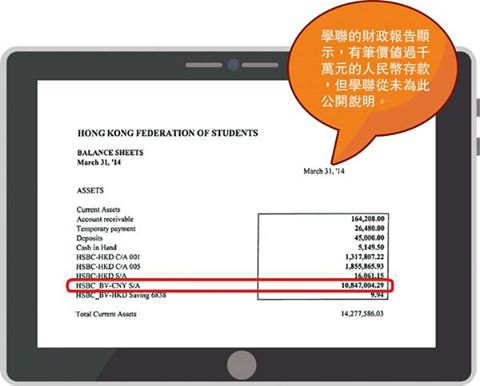
Previously, the Hong Kong
Federation of Students had to disclose its financial statement under public
pressure. However, the information simply created more problems. According to
the 2013/2014 financial statement posted in June 2015, the Federation has a HSBC
account with more than 10 million RMB which is a "strategic investment." Where
did this money come from? Why was it never reported previously?
According to Localist Ventus Lau,
who was the convenor of the Localist Study Group at the Chinese University of
Hong Kong, "the Localists' strategy should not be to divide the political
spectrum into three segments. We should only have two segments. To do so, we
have to take over the assets of the pan-democrats. From the Tertiary Student
Unions to the Federation of Students to the District Councils to the Legislative
Council. We have to take over everything to form a new pyramid for the Localists."
Ho Kwan is the successor to Ventus
Lau. Ho has participated in the anti-parallel trade protests and he organized
the CUHK to withdraw from the Federation of Students. Ho is running to become
secretary-general of the Hong Kong Federation of Students. He proposed to use
the Federation's Hong Kong Democracy Fund to support democratic movements in
Hong Kong, such as posting bail for students who are arrested during the
resistance.
Ho also pointed out that the
Federation of Students had a property nicknamed Self-Rule Eighth Floor which is
being used rent-free by "social organizations." Ho said that if elected as
secretary-general, he will order the "social organizations" to vacate the
premises within one month. "Afterwards, the property may be rented out or just
to be used by students. In any case, we won't let the social organizations
benefit."
Ho reposted Ventus Lau on Facebook:
"If the Federation of Students is ultimately going to be dissolved, where do you
think that the remaining assets should go to? The Localists or the Leftist
Retards? Who do you want to deal with Self-Rule Eighth Floor? Politics is always
a battle for resources!" Ho said: "This is one reason why I am running for
secretary-general."
(Wen
Wei Po) March 30, 2016.
In 1989, the Hong Kong Federation
of Students established the Democracy for China Fund in order to aid peaceful,
rational means of promoting Chinese democracy and social progress. How is the
money spent? The fund began with $10,000,000 in assets but it has only $1.6
million now.
In April last year, the Lingnan
University Student Union held a music concert in which singers sang
Fuck the Police and other obscenities.
It turns out that the Hong Kong Federation of Students gave $12,370 from the
Democracy for China Fund to fund that concert. At the time, then Hong Kong
Federation of Students secretary-general Nathan Law was part of the preceding
cabinet at the Lingnan University Student Union. This raises the question of
whether Nathan Law used personal influence to make this happen, when the event
appeared not to be "peaceful and rational in promoting Chinese democracy and
social progress."
(Wen
Wei Po) March 30, 2016.
Our reporter went through several
dozens of documents that the Hong Kong Federation of Students released.
In the reports on the Emergency
Reserve Fund for the HKFS' finance committee, it explained that they put some of
the emergency reserve fund into a RBM fixed deposit account and then decided to
convert into Hong Kong dollars. However, none of these reports indicate the
amounts involved.
By comparison, the Interim Finance
Report by the HKFS finance committee was more detailed. The monthly charges of
approximately $1,000 for photocopying is listed with a trend chart to
illustrate. For example, we now know that they spent $1,500 on photocopying in
April but they spent $0 in September. What happened? The machine broke down! Of
course, you don't expect to see them explain the $10 million RMB account, do
you?
Another fantastic piece of
financial reporting was the annual budget forecast produced on June 28 last
year. The budget included the membership dues pf more than $270,000 from
the three universities at which students voted in May to withdraw from the HKFS!
Many of the HKFS documents were
clearly copy-and-paste jobs. For example, the value of one investment fund in
the Emergency Reserved Fund used a number from six months ago without updating.
The HKFS explained that this was because the investment fund's website was not
working. However, they don't explain whether the investment fund's website could
be down for six months or the HKFS only looks at the value every other six
months.
The trend charts for the
electricity bill and the photocopying charges are clearly the same chart with a
different title. Maybe someone has eyesight problems.
The Hong Kong Federation of
Students and Student Activities Foundation Limited Company has the exactly the
same amount of $1.365 million in June 2015 as in the three working reports in
February 2016. So this was yet another copy-and-paste job.
In the annual report, a director
who had left nine months ago was suddenly "reappointed." The description of the
status of the Foundation Company was exactly the same as the previous year. So
that was yet another copy-and-paste job.
In the latest report, the company
said that they were able to "contact the directors." So what happened in
previous years? How did the board of directors meet to discuss financial matters
if they cannot be contacted? In the June 2015 work report, they said that they
will re-assess the value of their owned properties. However, the most recent
report submitted at the annual meeting lists the old estimate from the year
before last. Meanwhile, the savings deposit which hadn't change at all in the
past 6 months suddenly leaped by more than $90,000. Meanwhile the total assets
now exclude the real estate properties so that the total asset value just
crashed from more than $14 million to just over $1 million.
Our reporter attempted to reach
Nathan Law multiple times recently, but he has not responded.
(Wen
Wei Po) March 30, 2016.
Three unanswered questions:
Q1. What is the current financial
state of the Hong Kong Federation of Students?
What is the value of the real
estate properties sometimes soaring and sometimes disappearing? Where is the
money from the HKFS and Student Activities Foundation Limited Company to the
HKFS going? What are multiple years of financial statements missing? Where does
the $10 million RMB deposit come from from? Why are citizens' donations being
disappeared? And for those universities that have withdrawn from the Federation,
should they be getting their money back? The HKFS has said nothing so far.
Q2. Who is operating Self-Rule
Eighth Floor?
In the past, the HKFS has let
certain social groups use the Self-Rule Eighth Floor, including paying their
utility bills, real estate taxes and wages of about $50,000. The HKFS admits
that those people are not HKFS members, and they are doing so in order to gain
the influence of these people to help the HKFS have broader participation from
the masses. But who are these mysterious people? How can you just leave it with
saying that "they have an understanding"?
Q3. When are the personnel issues
at the HKFS going to be resolved?
The HKFS has been accused of
holding "small circle elections." The past HKFS secretary-general Nathan Law won
election because he received 37 votes, so he became nicknamed "Law 37." The
reason is that the HKFS people are elected by those who serve in the cabinet the
previous year. Recently, all the candidates for secretary-general/deputy
secretary-general withdraw their candidacy because they don't want to be get
nicknames based upon the small number of votes that they will get. Therefore,
the positions are vacant for now.
(Hong
Kong Free Press) November 6, 2017.
The Hong Kong Federation of
Students (HKFS) have launched a fund to assist prosecuted pro-democracy
protesters, regardless of their political affiliation.
The Federation will inject HK$1 million and
launch a crowdfunding campaign to reach HK$3.5 million, in order to provide
the activists and their families help with daily expenses, legal costs,
transport fees, medical fees, among others.
�We will not discriminate among people if
they have different means of protesting [or] political views, or even a
different imagination of the future � as long as their intention was to
fight for Hong Kong�s freedom and democracy,� said Poon Ka-kit, the external
secretary of the Lingnan University student union. But he ruled out helping
those use indiscriminate violence.
The fund will be managed by a committee
consisting of the chair of the HKFS Standing Committee, three student
representatives, and three members of the public � one of which will be a
practicing barrister. Its priority will be helping jailed protesters. It
will also help those who do not receive assistance from other funds such as
the Justice Defence Fund, which mainly assists 16 jailed activists and
disqualified lawmakers.
Au Tze-ho, president of the Chinese
University of Hong Kong student union, said the make-up of the committee was
to avoid biased decisions, adding that the application criteria is not
strict. He also said applications will be confidential, but a regular
financial report will be published.
Tommy Cheung, a former student leader who
has now graduated, is one of the committee members representing the public.
He was charged by the government over the 2014 pro-democracy protests.
Cheung said he could personally afford the bail money and other legal fees,
but the same could not be said for other protesters: �This HKFS fund can
help bringing the voices of these protesters back to the mainstream, so that
more Hong Kong people will know about them.�
Fermi Wong, founder of the NGO Hong Kong
Unison and another public committee member, said the government has been
taking a �ruthless� approach in targeting young people. She said the
protesters will also need emotional support, such as prison visits. �This is
a sad and worrying situation,� she said. �We should help those fighting for
Hong Kong�s development, to make them less lonely.�
- Where is the $1,000,000 coming from?
From the union membership dues that all university students are compelled
to pay? If so,then in their own immortal words about anything the
government proposes, "Have public consultations been held?"

(EJ
Insight) March 17, 2016.
A
decision by key leaders of Scholarism to run in the Legislative Council
elections in September has raised speculation that the student activist
group will soon be disbanded. There are also rumors that the key leaders
will form a new political party while Scholarism will be replaced by a new
student body, Apple Daily reports.
Scholarism spokesperson Wong Tsz-yuet said
no decision has been made and discussions are still going on.
He remained
tight-lipped on rumors
that the student organization will dissolve on March 20.
Former spokesperson Oscar Lai Man-lok
refused to comment, adding that questions about the matter should be
addressed to the group�s convenor or spokesperson.
Lai
announced earlier that he is forming a political party with convenor Joshua
Wong and former spokesperson Agnes Chow to compete in the Legco elections.
Wong, however, has yet to reach the legal age of 21 to be eligible as a
candidate and is awaiting the result of a judicial review on the issue.
Founded in 2011, Scholarism used to have more than 600 full-fledged members,
but now only has about 120 members after several restructuring exercises.
According to its rules, all
members must not belong to any other political party. This means that Legco
hopefuls like Joshua Wong and Agnes Chow must first quit Scholarism in order
to form their own political party.
Professor Dixon Sing Ming of the Hong Kong
University of Science & Technology said it would be a pity if Scholarism
were dissolved, noting that the group has yet to complete its �historical
mission� after the Occupy protests in 2014. Sing, however, believes that any
new political party to be formed by the Scholarism leaders would be able to
solicit support from young people as well as middle-age and older voters who
have become disappointed with the pan-democrats.
According to news website hk01.com, Scholarism has been outstanding in
raising funds through public donations, sometimes even outperforming some
pan-democrat parties.
Last March, Oscar Lai revealed the student
group had a cash reserve of HK$2.5 million.
Current
spokesperson Wong Tsz-yuet said should the organization disband, its funds
could be donated to other organizations sharing their beliefs.
It was reported that Scholarism had an
income of HK$1.937 million between July 1, 2013 and June 30, 2014, with a
surplus of HK$810,000 for the 12-month period.
The group
also raised HK$1.31 million from a July 1 protest in 2014.
(Oriental
Daily) March 17, 2016.
On March 15, the news came that
Scholarism will disband. So far there has been no denials coming from Scholarism
members. People speculate that they will split up into two halves: a political
party and a student organization.
Previously last March, former
Scholarism spokesperson Oscar Lai disclosed that Scholarism has reserve funds of
$2.52 million coming from donations. So where is that money going to go after
Scholarism disbands? The public is keenly interested. Yesterday an alleged
member of Scholarism said that the money will be split between the two new
groups. But if a citizen donated money to the student group Scholarism, is it
fair to take that money to give to a political party?
Scholarism spokesperson Prince
Wong responded that "according to the organization rules, the assets will be
donated to organizations with similar ideas." This was immediately taken to mean
the new organizations. Critics also said that the organization rules have never
been publicly disclosed, so that the rules are whatever those people say.

(Ta
Kung Pao) March 26, 2016.
Previously Raymond Wong announced
that he would be running in the Legco elections in a slate with Civic Passion
and Hong Kong Resurgence Order candidates. But before they start, they need
money. So last Thursday Wong's Proletariat Politics Institute held a fund
raising dinner, with $600 to $2,500 per person (or $20,000 to $30,000 per
table). Last October, the Proletariat Politics Institute held a dinner at the
same restaurant with VIP tables priced at $12,000 and ordinary tables at $3,600.
So the prices have more than doubled in less than one year.
According to the leaflet, an
ordinary table for twelve costs $7,200 or $600 per person. According to the
restaurant, even the nine-course seafood meal with American lobsters, abalone,
scallops, shrimps etc costs only $2,880 for twelve persons. Thus, the hosts are
collecting 2-1/2 times more than their costs. The VIP table for twelve costs
$30,000 or $2,500 per person. For that nine-course seafood meal, the hosts are
collecting more than 10 times more than their costs.
Earlier, Wong said on Internet
radio that if his slate wins all five districts, they will resign and trigger a
de facto referendum. For these two elections, they would need $20 million. It is
estimated that Wong raised about $1 million on this night.

(Wen
Wei Po) March 27, 2016.
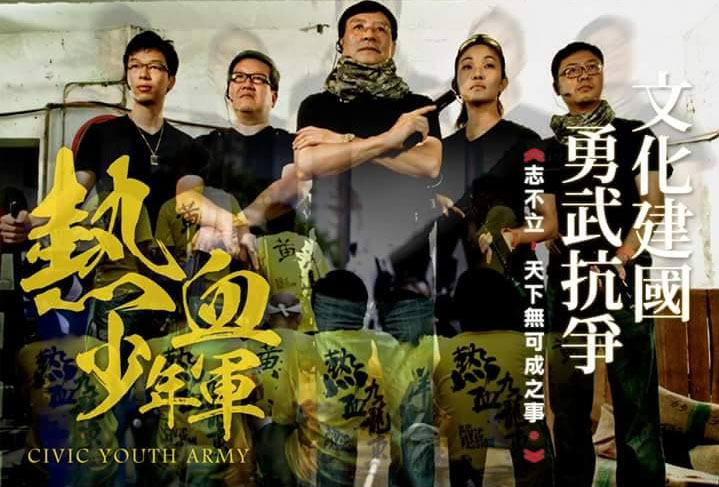
On February 1st this year, Civic
Passion leader Wong Yeung-tat announced that they have a plan to recruit a
"Civic Youth Army" to raise fresh troops for the Resistance. He said that the
Civic Youth Army training will include combat techniques and wilderness survival
plus the correct culture/history of Hong Kong. Each class shall consist of 50
teenagers starting this summer. He said that the fees per Youth Army soldier
shall be $15,000, so that each class of 50 will bring in $750,000.
However, Civic Passion is not a
licensed educational institution. So Wong Yeung-tat came up with the idea that
instead of collecting tuition fees, they will sell military coupons valued at
$2,500 each. If you buy 6 coupons (totaling $15,000), you can "sponsor" one
teenager to join the Civic Youth Army; if you buy only one coupon, you can
"nominate" one teenager.
Further conditions are attached to
the use of these military coupons. First of all, the coupons must be used up in
the next two periods of the Civic Youth Army recruitment drive or else they
expire without any possibility of refund. Secondly, if the buyer fails to nominate a
candidate, the right of selection goes to Civic Passion.
On March 24, Civic Passion removed
the Civic Youth Army recruitment poster from its Facebook. Nowadays they are
just recruiting regular Civic Passion members. According to information, there
were few takers and there was no way to reach the goal of 50 recruits.
Earlier a citizen Chiu said that
his son told him to purchase military coupons. In the mid-March, he contacted a
Civic Passion executive editor named Ho and was told that they are still raising
funds and have not yet begun to accept applications. When Chiu asked whether the
money will be refunded if there are insufficient applicants to form a class, Ho
said no refunds.
Citizen Chiu said that if he was
paying tuition and the class could not be formed, he should be getting a refund.
But now Civic Passion is selling military coupons and not collecting tuition, so
they are saying that they won't do any refunds on the military coupons. Citizen
Chiu said the "the Hot Dogs (=Civic Passion) are using this ruse to rip people
off!"
(SCMP)
May 4, 2016.
Pro-independence
militant group Civic Passion is enlisting teenagers for �military style
training� and �lectures on localism� as part of plans to launch a youth corps
over the summer.
The group says it wants
to counter a government education system it sees as trying to brainwash
students to be obedient to the Communist Party, citing the controversy over a
proposal a few years back to introduce national education in Hong Kong and
plans to use Putonghua to teach Chinese.
Civic Passion�s move,
which comes amid a rising tide of calls for Hong Kong independence, has been
treated with suspicion by critics, who fear the group could use the summer
activities to instil radical ideas in young people.
Civic Passion
leader Wong Yeung-tat, who is the youth corps� commander-in-chief,
said: �As the Communist Party is stretching its hands over Hong Kong,
we believe there is a need to develop a sense of belonging to Hong
Kong culture among our young people and develop their critical
thinking.�
He dismissed his
critics and said: �It would be crazy to think we are building an army
to fight against the government. We are not teaching teens how to use
guns. You can see our youth corps is like the army cadet force led by
Leung Chun-ying�s wife.�
He was referring
to the Hong Kong Army Cadets Association, a uniformed youth group
modelled on the People�s Liberation Army and formed last year by
leftist groups with Regina Leung Tong Ching-yee as commander.
A Mr Wan, 31,
who declined to give his full name but claimed he had served the
British army, said: �There will be fitness training and survival
skills in the wild.�
Wong said they
had been planning the project for a year.
Formally called
the Passion Teens Squad, it started a month-long �recruitment� drive
on Wednesday. The 30 places � first come, first served � are open to
anyone aged 14 to 17. There is no fee but parents� consent is
required.
Wong said the
project was funded by supporters donating HK$2,500 for �army pay�
coupons. He previously said the project would cost HK$400,000.
Wong said the project
was funded by supporters donating HK$2,500 for �army pay� coupons. He
previously said the project would cost HK$400,000.

Internet comments:
- You forgot two more recent
cases: the $530,000 and 100 Viagra pills found with
Ray Wong (Hong Kong Indigenous) and the
holy mess with Leticia Lee and others over at the Justice Alliance etc.
(Facebook video)
https://www.facebook.com/1517304251910273/videos/1518333415140690/
On the No. 9 bus, a Kong girl sat
on the outside
priority
seat reserved for the elderly, the disabled, pregnant women and persons
with special needs. The bus companies introduce these priority seats to enhance
the awareness of offering seats to the people with special needs so as to
cultivate a culture of being considerate and sacrificing themselves.
A senior citizen wanted to sit on
the inside seat. The Kong girl got up, moved her suitcase and let the senior
citizen in. Then she sat back down and threw the suitcase on the foot of the
senior citizen. This is when the video starts.
Kong Girl: Is it the case that I
am not letting you sit down? You want the outcome. Why are you arguing about the
process? Is it the case that I am not letting you sit down? SHUT UP! Or else you
can call the police. Alright or not?
Senior citizen: Call the police.
Kong Girl: You call the police! I
have plenty of time to play with you. I did not hit you (with the
suitcase)!
Senior citizen: You say ...
Kong Girl: If I did, you call the
police!
Senior citizen: You call the
police.
Kong Girl: You call the police! I
hit you. So why do I have to call the police!?
Male: Forget it. You're only
riding for several stops.
Kong Girl: Fucking insane! You
tell her to shut up. If you tell her to shut up, then I won't make any noise. I
am not letting her sit. Do you think that you are everything? Just because you
are a senior citizen, do you think that you are everything? Sooner or later I
will become a senior citizen too!
Senior citizen: You are sitting
here.
Kong Girl: It is not that I am not
allowing you to sit down. Why are you arguing?
Senior citizen: Why ...?
Kong Girl: YOU SHUT UP!!!
Senior citizen: Why don't you stop
talking?
Kong Girl: I let you sit down.
What more do you want?
Woman: This is a priority seat.
Kong Girl: I have a suitcase! You
get off the bus! What fucking business is this to you!? Or else you can call the
police! Leave! Go away, bitch!
- (EJ
Insight) Young people avoid priority seats to escape �public trials�.
January 18, 2017.
Nearly
80 percent of secondary students are under pressure not to use priority seats
on public transport for fear they would be subjected to discrimination if they
fail to offer them to those in need, according to a survey.
About 96 percent of 1,715 respondents would
voluntarily offer their seat to passengers in need, Apple Daily reports.
The survey was conducted by Beacon Pop Index
and Truth Light Society in December.
It found
that 73 percent of the students never used a priority seat while 22 percent
said priority seats should be abolished altogether.
About 26 percent said they would not offer their
seat to another person unless asked. Eight in 10 students said they fear being
under scrutiny if they do not offer their seat voluntarily.
Truth
Light Society vice president Helen Fu said young people are fearful of online
abuse directed at people who don�t offer their seats. Priority seats have in a
way become a source of humiliation for them, she said. �When members of the
community are willing to offer their seats voluntarily, the need to designate
priority seats will no longer exist,� Fu was quoted as saying by am730. There
are many instances where priority seats are vacant while the train compartment
is jampacked, Fu said. She said people should not take it too seriously. Using
the seats under certain circumstances could help ease congestion, she said.
MTR said
priority seats are assigned as part of an effort to encourage the culture of
offering help to the needy. However, all passengers are free to use those
seats, it said.
(SCMP)
Trump card � Hong Kong politicians have followed US tycoon into the gutter by
fanning racist fears. By Michael Chugani. March 15, 2016.
Election year brings gutter politics.
In America, presidential candidate Donald Trump is fanning the prejudices of
voters with promises to ban Muslims and to keep out Mexicans with a border
wall.
In Hong Kong, legislator Elizabeth
Quat has learnt from Trump ahead of September�s Legislative Council
elections. She wants to intern South Asian asylum seekers. Trounced in last
November�s district council elections, Quat likely believes she can score
points by labelling dark-skinned asylum seekers as criminals who should be
locked up.
She is not the only pro-Beijing
politician to play the race card. Her Democratic Alliance for the Betterment
and Progress of Hong Kong is aping the Liberal Party, whose Dominic Lee Tsz-king
on Tuesday labelled South Asian asylum seekers as murderers and rapists. He
talked of �over 3,800 crimes for the past few years�, but glossed over how
many were murders and rapes.
Former security secretary Ambrose
Lee Siu-kwong has joined the drumbeat for Hong Kong to quit a UN convention on
asylum claimants, denigrating Indians as so poor that they come for the HK$3,000
monthly refugee allowance. These are the same people who denounce localists as
bigots for confronting mainlanders who abuse their tourist status to trade in
parallel goods.
Lee cited Europe�s refugee crisis as an
alarm bell for Hong Kong. Quat cited our 1980s refugee camps for Vietnamese
as reason to intern South Asians. Over a million refugees flooded Europe
last year. Hong Kong had over 100,000 Vietnamese refugees. And the
accumulative backlog of South Asian claimants? About 11,000. Oh my, we�re
really being swamped.
How are people like Dominic Lee different
from Trump when they demonise a race? An Immigration Department statement to
Public Eye�s questions was no better, accusing South Asian claimants of
gaming the system, a claim dismissed by human rights lawyer Mark Daly.
Let�s do a reality check. Just 230 asylum
seekers were caught working illegally last year. The number for mainland
Chinese was 1,609. This does not include the hundreds of mainland women who
come here illegally as sex workers or the foreign sex workers in Wan Chai
bars. Let�s not forget the mainland gangs who burgle upscale homes and
kidnap rich people.
Who has ruined our quality of life more �
the 11,000 asylum seekers or the millions of mainlanders whom the localists
oppose?
Quat and the others won�t dare answer. They
belong to a group whose hands are tied to a puppet string that leads to the
liaison office. Hong Kong has only accepted a tiny handful of asylum
seekers. Most are fakes who need to be stopped. But let�s not do it by
fanning racist fears.

Michael Chugani may be impeccably politically
correct about his situational analysis, but the information being fed daily to
the people of Hong Kong is this
table at
Oriental Daily:
1/6/2016: Happy Valley. Three South Asians
armed with knives showed up outside the home of a wealthy businessman but
were arrested by the police. A total of 8 men and women were arrested, with
one man being prosecuted to conspire to cause grave physical harm to a
businessman.
1/7/2016: Sham Shui Po. Eight South Asian
males chased and chopped a male asylum seeker.
1/8/2016: Yau Ma Ti. Police arrested a
South Asian man who was running an unlicensed pub.
1/8/2016: Yuen Long. A male asylum seeker
from India slashed the neck and chest of his Indonesian girlfriend.
1/9/2016. Tin Shui Wai. Eight Pakistanis
were arrested for illegal assembly and carrying concealed weapons.
1/9/2016. Yuen Long. A South Asian was
arrested fro stealing the mobile phone of a female vegetable stand operator.
1/10/2016. Hung Hom. Three South Asian men
went into a car washing place and assaulted a worker.
1/10/2016. Sham Shui Po. A South Asian male
armed with a knife robbed $4,500 from a convenience store.
1/10/2016. Central. The Customs Department
arrested three South Asian males at a warehouse for contraband merchandise.
1/14/2016. Tsim Sha Tsui. Two South Asian
men destroyed property at the Oriental Daily office with red paint and hard
objects.
1/14/2016. Aberdeen. A male asylum seeker
was arrested for working illegally and assaulting the police.
1/15-16/2016. Yuen Long/Tin Shui Wai. 30
South Asians were arrested at an unlicensed pub.
1/19/2016. Tsuen Wan. The Customs
Department arrested a Pakistani man at a contraband cigarette warehouse in
an industrial building.
1/22/2016. Yuen Long. A drunken South Asian
male was arrested for assaulting a male who was trying to help street
people.
1/22/2016. Yuen Long. A South Asian male
was arrested for defacing a store with red paint.
1/23/2016. Sheung Shui. A South Asian male
was arrested for selling drugs. $5,500 worth of drugs was seized.
1/27/2016. Shan Shui Po. Two South Asian
thieves stole from the donation box at Lord Guan's Temple.
1/30/2016. North Point. Four South Asian
robbers robbed a garage owner of $100,000 in cash. (see
YouTube)
1/30/2016. Mong Kok. Four South Asian
pickpockets stole $10,000 RMB from a male pedestrian.
1/31/2016. Yuen Long. A South Asian male
snatched a mobile phone from a woman who was waiting for a bus.
1/31/2016. Mong Kok. Six South Asian men
stole $19,000 from a man and a woman.
1/31/2016. Mong Kok. A South Asian man
holding a broken bottle charged onto the road to stop a car and robbed $100
from the driver.
1/31/2016. Tsim Sha Tsui. A number of South
Asians robbed more than $27,000 from an Indian tourists. Four Indians were
arrested.
2/1/2016. Admiralty. A doctor was bashed on
the head by a South Asian man and needed four stiches at the hospital.
2/3/2016. Tsim Sha Tsui. A Pakistani male
asylum seeker robbed a woman of $58,000 in cash, but he was subdued by
citizens.
2/3/2016. Yuen Long. A Bangladesh male
attacked a compatriot and robbed him of a mobile phone worth about $1,000.
2/4/2016. Yau Ma Ti. Five South Asians
robbed a $10,000 gold chain off a compatriot.
2/4/2016/ Yau Ma Ti. A Bangladesh male was
arrested for drug possession and loitering.
2/5/2016. Yau Ma Ti. A South Asian asylum
seeker was arrested for possession of an assault weapon and resisting
arrest.
2/5/2016. Tai Kok Tsui. A South Asian male
charged onto the road to stop a car and commit robbery.
2/5/2016. Tsim Sha Tsui. A Nepalese man was
assaulted by compatriots.
2/6/2016. Causeway Bay. Two South Asian
asylum seekers quarreled over money and assaulted/injured each other with
knives.
2/7/2016. Sham Shui Po. Three to four South
Asian males set fire to a foot bath facility.
2/8/2016. Two South Asian Males stole
$8,000 RMB from an African man.
2/8/2016. Wanchai. Four Indian men robbed a
mainland Chinese male of $1,000. The police arrested three Indian men at the
scene.
2/9/2016. Pat Heung. Three South Asian men
entered a village house to assault a Bengladesh man and robbed him to
$3,000.
2/13/2016. Cheung Sha Wan. A South Asian
man snatched a mobile phone from a female pedestrian and fled.
2/14/2016. Yuen Long. A Thai man was
arrested while committing burglary at a store room.
2/14/2016. Tsim Sha Tsui. Four intoxicated
Ugandans were arrested for fighting.
2/17/2016. Causeway Bay. A South Asian man
stole $78,000 in cash from a male MTR passenger.
2/18/2016. Tsuen Wan. Two South Asians
attempted to rob the bag of a male pedestrian.
2/18/2016. Yuen Long. A female Indonesian
asylum seeker was arrested with $800,000 worth of drugs.
2/19/2016. Sham Shui Po. A South Asian male
stole a wallet from a man containing $1,500.
2/20/2016. Tin Shui Wai. A South Asian man
assaulted citizens playing chess in the park.
2/22/2016. Wan Chai. Three South Asians
attacked a truck driver with hard objects to cause injuries on hands and
feet.
2/24/2016. Sham Shui Po. Two Vietnamese
asylum seekers were caught stealing 34 chickens.
2/24/2016. Yuen Long. Two South Asian
burglars stole $200,000 from a villa.
2/24/2016. Sham Shui Po. A male Vietnamese
asylum seeker was arrested for assaulting a female compatriot.
2/25/2016. Tin Shui Wai. A male South Asian
asylum was arrested for sexual assault against a female neighbor whose South
Asian boyfriend was arrested for physical assault against the transgressor.
2/25/2016. Tai Wai. Two South Asian men
stole $5,000 RMB from a male MTR passenger.
2/25/2016. Mong Kok. A South Asian asylum
seeker was arrested for stealing perfume worth $180.
2/26/2016. Tuen Mun. Three South Asian
males robbed a woman's handbag which carried $7,000.
2/26/2016. Tuen Mun. Six South Asian men
bashed the head of a compatriot and fled.
2/27/2016. Sham Shui Po. Eight South Asian
males and two Hong Kong males stopped a van, assaulted the driver and the
male passenger and robbed $270,000. (see
YouTube) (see
Facebook)
2/28/2016. Yuen Long. A South Asian man was
spotted by restaurant workers for eating without paying. He smashed a beer
bottle against the wall and fled.
3/2/2016. Yau Ma Ti. A South Asian man was
arrested for pounding on the keyboard at the Jockey Club betting station.
3/3/2016. Kwun Tong. Four South Asians
stole a $170 speaker.
3/4/2016. Mong Kok. A South Asian smashed a
taxi window and ripped off the camera.
3/6/2016. Central. Two South Asian males
bashed the heads of two compatriots and fled.
3/6/2016. Tsim Sha Tsui. Five persons were
engaged in a melee, and two South Asian men were arrested.
3/6/2016. Tsim Sha Tsui. An Indian man was
arrested for shoplifting.
3/6/2016. Yuen Long. Three South Asian men
attacked an Indian man with wooden poles and took the money in his pockets.
3/7/2016. To Kwa Wan. A South Asian man
attacked an Indian man and stole his bicycle.
3/7/2016. Yuen Long. Three South Asian men
broke into a villa and took almost $10,000.
3/8/2016. Tsim Sha Tsui. A South Asian man
robbed a mainland tourists of $3,000.
3/8/2016. Hung Hom. A Pakistani man
assaulted two compatriots after a dispute over a transaction.
3/8/2016. Yau Ma Ti. A Vietnamese man was
stealing a bag of potato chips from a 7-11 store. When detected, he stabbed
and killed the owner. (see
YouTube)
3/9/2016. Jordan. A male Pakistani asylum
seekers was arrested for extorting drivers over public parking space.
3/10/2016. Yuen Long. Three South Asian men
robbed a woman of $1,500.
3/10/2016. Tsuen Wan. Two South Asian men
pretended to be buying flowers and stole $14,000. (see
YouTube)
3/11/2016. Cheung Sha Wan. Two South Asian
men stole $2,000 from a compatriot.
3/12/2016. Tin Shui Wai. Two South Asian
men were arrested for punching a young man who was coming home late at
night. [Note: they didn't like the way that he looked at them]
3/15/2016. Tsim Sha Tsui. A male African
asylum seeker was arrested for drug possession and resisting arrest.
3/15/2016. Mong Kok. A Nigerian man using
drugs was injured when he jumped out of the window to avoid arrest.
3/15/2016/ Yuen Long. A South Asian man was
arrested for sexual assault against an 18-year-old female.
3/16/2016. Yuen Long. Two South Asian men
robbed a male pedestrian of $5,000 cash.
3/16/2016. Yuen Long. A Pakistani man
assaulted and robbed a young man of $1,600.
Internet comments:
- Why is Oriental Daily so keen on tracking
crimes committed by South Asians? You need to go back to this series of
stories about The Shanghai Kid and his South Asian poster gang.
(Oriental
Daily) January 16, 2016.
Previously a wealthy tycoon had received
an extortion text message from former Wo Shing Wo triad leader Kwok
Wing-hung (nicknamed The Shanghai Kid). The tycoon reported the matter to
the police and called Oriental Daily too. On January 6, the tycoon noticed
three South Asian men and a Chinese man outside his residence. He believed
that these people meant him hardm. So he called the police. The police
came and the men fled. In the vehicle that the men came in, the police
found three knives, gloves and masks. So the police gave protection to the
tycoon and his family and then the Organized Crime Unit followed up on the
case. Yesterday the police arrested seven men and one woman. Of these,
three were South Asian men. The arrested included "Paki Ming", a
lieutenant for the The Shanghai Kid.
The tycoon said that he is not afraid of
evil triad forces and that he will testify against them. He said that the
Shanghai Kid has looked for and gotten trouble. "It is a up to God whether
to forgive these triad gangsters. My duty is to send them to see God!"
(Oriental
Daily) January 16, 2016.
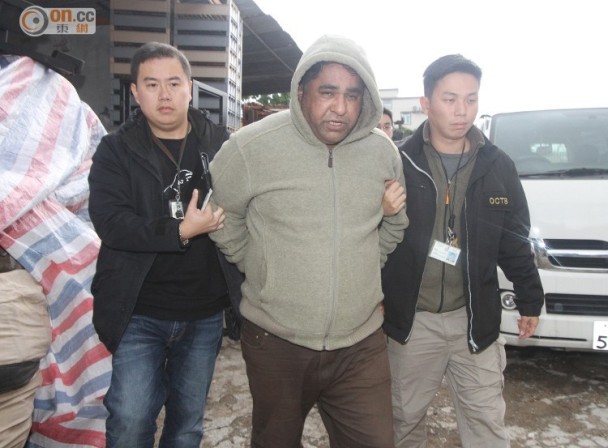
Former Wo Shing Wo triad leader Kwok
Wing-hung's lieutenant "Paki Ming" was arrested with seven other
individuals and taken back to a container park in Yuen Long to
gather evidence.
(Oriental
Daily) January 22, 2016.
In recent years, the problem of South
Asians and Africans coming to seek asylum in Hong Kong and then joining
triad gangs afterwards is become more serious. Former Wo Shing Wo triad
leader Kwok Wing-hung (nicknamed The Shanghai Kid) is said to directly
send selectors to India and Pakistan to pick his troops. Then he provided
full service to have them come over here to seek asylum; before they come,
they are taught how to claim torture and hence obtain temporary residence
while their asylum application is being considered. once they get here, he
provided legal services and food/board, and they get assigned to their
respective jobs (such as bouncers, extortionists, drug dealers, etc).
(Oriental
Daily) March 3, 2016.
Former Wo Shing Wo triad leader Kwok
Wing-hung (nicknamed The Shanghai Kid) hired unemployed young people and
South Asians to paste posters all over hong Kong to smear and blackmail a
number of wealth Hong Kong tycoons.
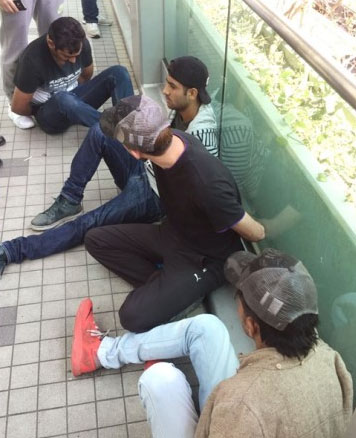
Today at around 1pm, four South Asian men
was pasting posters at the pedestrian overpass across T.mark Plaza, Tai Ho
Road, Tsuen Wan district. More than 10 police officers who had been
staking out the location rushed up to arrest them. The four men were 3
Pakistanis and one Indian. They all have temporary resident papers while
awaiting resolution on their petition for asylum because they feared
torture at home. According to eyewitnesses, these four men were very
efficient with their work and they put up thirty to forty posters in a
matter of minutes. When the police appeared, the four tossed their glue
bottles and posters into the flower bed and fled. They struggled hard even
after the police pushed them onto the ground.
The four men were posting threatening
posters directed at senior personnel at Oriental Daily.
Oriental Daily has counted 71 instances
in which posters directed at Oriental Daily were posted between January 7
and March 3 at various locations all over Hong Kong.
- Given that this type of information is
flooding the news, it is no surprise to find:
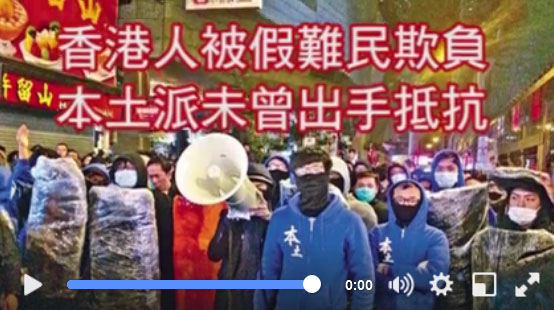
The people of Hong Kong are being bullied
and harassed by fake asylum seekers
The Localists have never done anything to fight back and resist.
The Localists (such as Hong Kong
Indigenous, Hong Kong Localism Power, etc) are not expected to do the work
of law enforcement. However, they also said that the the people of Hong Kong
are suffering at the hands of the mainland parallel traders who are clogging
up the sidewalks of Sheung Shui, Yuen Long and Tuen Mun and therefore they
are taking action into their own hands to valiantly defeat the parallel
traders. Fine. Now the people of Hong Kong (especially in Yuen Long, Tin
Shui Wai, Sham Shui Po, Mong Kok, Tsim Sha Tsui) are terrified by the South
Asian crime spree. So why aren't the Localists out there to valiantly defeat
the South Asian criminals.
- Remember that while the Localists say
that they are valiantly fighting the parallel traders, they were actually
targeting anyone who looks a mainlander. So in this case they need to
target every South Asian that they come across.
- Labour Party legislator Fernando Cheung
defends the asylum policy: "I see no evidence that every asylum seeker is
fake." (YouTube)
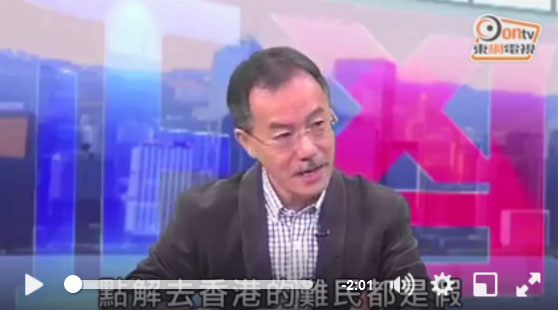
Of course, Cheung is right. Some asylum seekers came under false pretenses
but it is unlikely that every single one of them is. But if some asylum
seekers come under false pretenses, abuse the system, use up Hong Kong
taxpayers money to the tune of $1.6 billion a year and commit all sorts of
crimes, then something should be done.
- Fernando Cheung seems to take the
position that nothing must be done because we may be sending back some
person who is genuinely under the threat of torture. God forbid!
- Well, it defies credulity to see so
many asylum seekers who fear torture back in their home countries of
India, Pakistan, etc. Don't those countries already have
FREEDOM/DEMOCRACY/HUMAN RIGHTS/UNIVERSAL SUFFRAGE/RULE OF LAW/UNIVERSAL
VALUES? If we Hongkongers living in a time of chaos are better off than
they are, why do we need FREEDOM/DEMOCRACY/HUMAN RIGHTS/UNIVERSAL
SUFFRAGE/RULE OF LAW/UNIVERSAL VALUES?
- In 2014, Fernando Cheung argued at the
Legislative Council that the asylum seekers should receive the same level
of money that Hong Kong residents receive for social welfare. He said that
this was the basic level of need, and it is their fundamental human right. The
government should find them jobs so that they can make their own living.
Presently the asylum seekers receive $3,000 a month and they are not
allowed to work.
- A poster against the Labour Party:
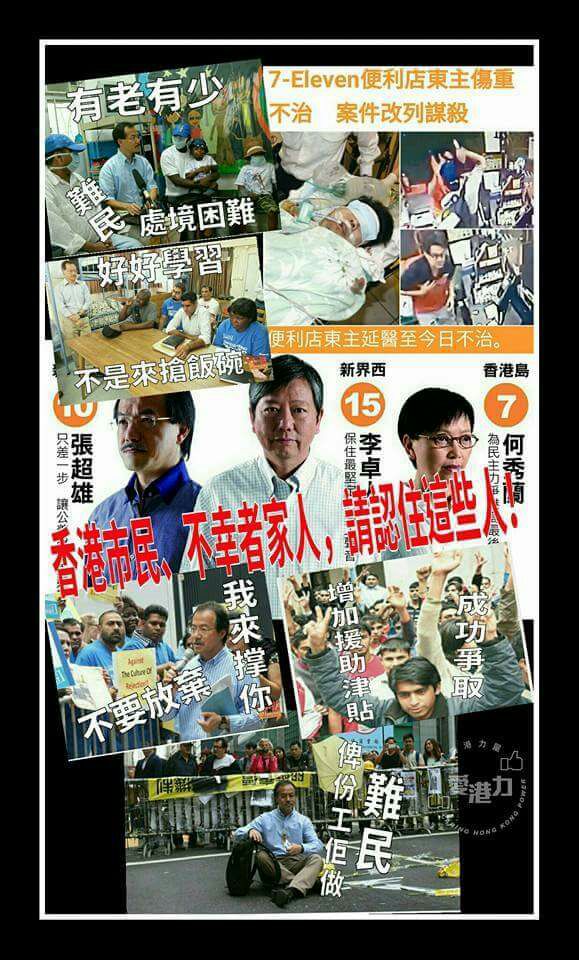
- Here are some more ...
(Oriental
Daily) March 16, 2016. Late breaking news! At 0:55, a 17-year-old
boy was at an electronic game centre in Kwong Wah Plaza, Yuen Long district.
He got into an argument with three men, including one South Asian. He was
attacked and robbed of $100 cash plus a game card containing $1,500 worth of
game points. The police arrested 28-year-old Pakistani asylum seeker man
Alimjiid for drug possession and common assault. According to a female
worker, there have been frequent quarrels between South Asians and
Hongkongers there.
- (Oriental
Daily) March 16, 2016. An 18-year-old woman went past Sau Fu Street,
Yuen Long Street when she was groped on the buttocks by a 25-year-old male
Pakistani asylum seeker. She called the police who came to arrest the man.
One commentator wrote: "Do Yuen Long residents have to form their own
civilian self-defense militia?"
- (Oriental
Daily) March 17, 2016. At 4am on Lugard Road, Wanchai district, a
slightly intoxicated 24-year-old Englishman Josh quarreled with ten men some
of whom were South Asians. Josh was punched and injured in his head and
hands. His attackers fled.
Since this is never going to stop, this
stream will be stopped here arbitrarily.
- Here are some videos from the Hong Kong
subway.
The first video
https://www.facebook.com/HKDiscussForum/videos/1207597232622673/ was
taken from inside the subway car. A family is quarreling with three South
Asians.
The second video
https://www.facebook.com/HKDiscussForum/videos/1207609432621453/ was
taken from the subway platform by another person. The three South Asians are
being chased and beaten.
What happened? As with Internet videos, the
original source with the full and accurate story will be hard to trace. But
here are the two common versions:
Version #1: The family of ten had just had
dinner and were taking the subway home. The three clearly intoxicated South
Asians and one of them made an unsolicited sexual advancement against a
young woman with the family. You can see what happened next. It is said that
one family member is an off-duty policeman (short hair, white t-shirt, black
pants, white athletic shoes) who did not participate in the fighting.
Version #2: The three intoxicated South
Asians got into the train and began to harass a white-haired smallish old
man. A family traveling in the same car intervened. The South Asians
escalated the situation with a stream of curses. You can see what happened
next.
Related link:
South Asians in Hong Kong.
(EJ
Insight) Game over for Hong Kong. By Michael Chugani. January 5, 2016.
Is it game over for Hong Kong?
I have asked this question in two previous
articles.
In a 2013 article, I wrote: �I do not think
Hong Kong is �game over�. But I do think we are in danger of becoming that.�
In a 2014 article, I wrote: �I asked in a
previous column if it is �game over� for Hong Kong. I now believe it is
indeed game over for us if we compare ourselves to what we were.�
A year has passed since I wrote that. I
have not changed my mind.
I still think it is game over for Hong
Kong.
But let me explain what I mean when I say
Hong Kong is game over.
I do not mean we are going to become a
third-world city. We will remain a
highly developed and wealthy city.
But we will no longer be the pride of Asia.
We will no longer excel and succeed in
everything we do, like we did before.
We will no longer unite and put the overall
interests of our society above our own interests when necessary, like we did
before.
Our politics will not be driven by common
sense but by divisive self-interest.
This divisiveness will produce political
leaders who lack the conscience to do what is morally right for our society.
In fact, we are already seeing all of this
now. I believe it will only get worse, not better.
The reason I believe it will only get worse
is our political leaders are not making any effort to make it better.
They seem to prefer a chaotic and divisive
political atmosphere to a rational one.
Without a doubt, we were once the pride of
Asia, especially during the era of the four Asian Tigers.
The term refers to Hong Kong, Singapore,
Taiwan and South Korea. The high economic growth rate of these four
economies from the 1960s to the �90s was admired by the world.
Many considered British-ruled Hong Kong to
be the most successful of the four Asian Tigers.
The economic models of these four Tigers
were the envy of developing nations. Many other places tried to copy our
road to success.
Can we honestly say today that Hong Kong is
more successful than Singapore, South Korea and Taiwan?
Of course not.
To be brutally honest, we are the least
successful of the four Tigers today.
We lose to Singapore virtually all the time
in global surveys on housing standards, innovation, standard of English and
quality of life.
We were once the most economically
competitive city in China but lost the No. 1 position to Shanghai two years
ago.
We are now in second place, but the latest
survey warns that Shenzhen is poised to overtake us soon.
Shenzhen�s gross domestic product will
overtake Hong Kong�s in the coming year.
We admire Korean TV dramas, Korean music
and pop stars, but we have created nothing for others to admire.
Koreans don�t care too much about Hong Kong
dramas or Cantopop.
We were far ahead of Taiwan in innovation,
lifestyle and many other things, but now Taiwan even has a higher standard
of English than Hong Kong.
When our first post-handover chief
executive, Tung Chee-hwa, tried to position Hong Kong as Asia�s world city
in his 1999 annual policy speech in the Legislative Council, many wondered
what he meant by it.
His administration explained that it meant
making Hong Kong excel in areas such as innovation, quality of life,
education and tourism, and become a coordinator of global economic activity
so we could be on an equal ranking with such great cities as New York and
London.
But a recent study by
PricewaterhouseCoopers showed Hong Kong ranked only 11th on livability out
of 28 cities in the Asia Pacific Economic Cooperation, behind Singapore and
even Seoul.
Everyone knows our quality of life has
plunged because of factors such as air pollution, housing unaffordability,
which has forced families to live in subdivided homes, and the flood of
mainland tourists.
Our tourism industry is in a mess, mostly
because of our overreliance on mainland tourists.
Our universities have been dropping in
global rankings, and our neighbors now far outperform us in innovation.
Our MTR was once the pride of Hong Kong and
envied by the world.
Today, it has become the shame of Hong
Kong. It is horrendously overcrowded, and every new project is delayed and
over budget.
Far from being Asia�s world city, we are
now a city in decline.
I believe Hong Kong has already reached its
peak and is now on the way down.
We no longer have the political will, the
competitiveness, the unity and the yearning to be No. 1.
We don�t have leaders who can bring us back
up to our former peak.
It is hard to climb up. It is easy to fall
down. Once you begin falling down, it is even harder to stop the fall.
That�s why I say I believe it�s game over
for Hong Kong.
Our political system is largely to blame
for our decline.
Hong Kong is neither a democracy nor a
totalitarian city.
After the end of British colonial rule in
1997, we switched to a unique, executive-led political model under the �one
country, two systems� principle.
The model allowed Hong Kong to continue as
a free society governed by the rule of law, unlike mainland China, our new
sovereign.
It worked for a while after the
reunification but has now become so dysfunctional that it is the cause of
our political polarization, stagnation and Legislative Council gridlock.
The executive is no longer able to lead,
because the political model does not allow the chief executive to be the
leader of a political party.
The political system allows half of the
70-member legislature to be directly elected and the other half to be
indirectly elected through functional constituencies.
The proportional representation system of
Legco direct elections means that candidates can win a seat with as few as
30,000 or 40,000 votes.
This has enabled candidates hostile to the
government to win seats, creating an opposition with enough Legco members to
vote down important proposals from the executive branch.
The model allows even a handful of hostile
Legco members to derail government policies through filibusters and quorum
calls.
In other free societies, ruling parties can
overcome this, but since the chief executive cannot be a member of a party,
there is no ruling party in Hong Kong.
The executive must depend on the support of
our so-called pro-establishment Legco members, but these members are not
always united.
Our political system is now so
dysfunctional that it took over three years for the executive-led government
to get Legco funding for a new Innovation and Technology Bureau.
Most countries updated their laws years ago
to protect copyright in the internet age, but a copyright protection
amendment bill has been stuck in Legco for years even though it meets
international standards and is supported by western countries, including the
United States.
Legco members in the democracy camp will
continue to block the bill unless the government meets the demands of young
netizens to make it even more liberal than international standards.
Opposition legislators are now so fearful
of losing their seats in next year�s Legco elections that they have become
hostages of young people who were politicized by Occupy Central and are now
registering as voters.
The copyright bill and the technology
bureau are not the only victims of our dysfunctional system.
New towns to solve the housing shortage, a
dual immigration control point at the West Kowloon high-speed railway
terminus and even landfill expansions have all become victims.
The chief executive is unable to even
appoint council members at publicly funded universities without facing a
mountain of criticism.
This opposition to everything that the
executive-led government does is driven mostly by a reluctance of many Hong
Kong people to accept and trust the one-party communist system of China.
Opposition politicians and a large sector
of the local media feed on this mistrust to create even more mistrust by
whipping up anti-mainland sentiment within the population.
They are far better at using mistrust to
win hearts and minds than government officials, pro-establishment
politicians, and the pro-establishment media are at using trust to win
hearts and minds.
It is, of course, easier to ask Hong Kong
people, who are so used to living in a free society, to mistrust a communist
regime than it is to ask them to trust a communist regime that jails
political dissidents, restricts freedoms and even bans popular internet
sites such as Facebook, YouTube and Twitter.
But our highly paid senior officials are
now so devoid of leadership qualities and innovative new ideas to compete in
today�s world that you can�t really blame Hong Kong people for having so
little trust and so much contempt for the government.
When the number of mainland tourists to
Hong Kong began to fall, the only idea our officials could come up with was
a �Happy @ Hong Kong Super Jetso� campaign of discounts to promote
shopping.aaaaaa
It was a stupid idea that failed miserably.
Now our highly paid financial secretary has
come up with the idea of food trucks to promote tourism after watching a
movie about food trucks.
Surely, such a senior official should be
taking a macro view instead of proposing food trucks, which is not a novel
idea and should be dealt with by far junior officials.
Would the finance ministers of Singapore or
South Korea propose food trucks to promote tourism? Of course not.
It is too late to reboot Hong Kong and hope
that will fix our problems.
We need to reinvent Hong Kong.
We need a new political system to get us
moving again.
We can either have a less democratic and
more dictatorial system, such as the successful Singapore model, where the
executive-led government holds real power through a ruling party, or a more
democratic system where the leader has a mandate from the people to rule.
Either system will be better and more
effective than the one we have now.
But there are no signs that we will change
our political system any time soon.
That�s why I believe it�s game over for
Hong Kong.
(EJ
Insight) Hong Kong has reached a political dead end. By Michael Chugani.
March 15, 2016.
You can change Hong Kong this coming
September.
I wish I could say you have a chance to
change it for the better. But the sad
reality is that you cannot.
It doesn�t really matter which way you vote
in September�s Legislative Council elections.
Our politics have now become so divisive
that Hong Kong will continue to be an angry city dominated by rancorous
politics regardless of whether the so-called democracy camp or the so-called
establishment camp wins.
This will be the case even if voters choose
to keep the status quo so that neither side wins.
A politically divided city that sometimes
erupts in violence is the new normal for Hong Kong.
The Mong Kok riot on the first day of the
Lunar New Year proved in graphic terms that the old Hong Kong we knew is
gone for good.
We must all learn to live with this new
normal of protests becoming more and more violent with no solutions in sight
to heal our society.
Some will say I am too pessimistic. But
the truth is I am being realistic.
Let me explain why you cannot change Hong
Kong for the better, whichever way you vote in September�s Legco elections.
Many people may choose to vote for
pan-democrats because they are angry about the mainland�s abduction of
bookseller Lee Bo and four of his associates for selling books critical of
the Communist Party.
And many may vote for establishment camp
candidates because they are angry at the way young rioters set fires, hurled
bricks and fought with police throughout the night in Mong Kok on the first
day of the Lunar New Year.
But it won�t make any difference whichever
side wins.
Neither side has a strategy or the
political courage to unite Hong Kong.
Supposing the so-called democracy camp wins
at least 35 of the 70 Legco seats.
Occupy Central co-initiator Benny Tai Yiu-ting
has proposed a strategy to do this.
He used the English word �enemy� to
describe the so-called pro-establishment camp during media interviews about
his proposed strategy.
His use of the word �enemy� to describe the
establishment camp already shows how rancorous our politics has become.
The establishment camp consists of Legco
and district council members, the Leung Chun-ying administration, and the
central government.
It is common knowledge that many in the
democracy camp consider Leung Chun-ying and the central government as
enemies.
But should establishment camp Legco members
and district councilors also be regarded as enemies?
Over 800,000 people voted for establishment
camp candidates in the 2012 Legco elections.
If the establishment camp is the enemy,
then the 800,000 voters who supported the camp are also enemies by
association.
How can the democracy camp unite Hong Kong
if it wins in September when it considers the Hong Kong and central
governments and 800,000 voters as enemies?
Perhaps Tai Yiu-ting should have said
�political opponent� instead of �enemy�.
He believes it will strengthen the hand of
the so-called democracy camp if it can win at least 35 Legco seats.
Yes, the hand of the pan-democrats in Legco
will indeed be stronger if they control half the seats.
But what�s the use of this stronger hand in
practical terms?
The only use that I can see is that the
pan-democrats will find it far easier to block government policies if they
control at least 35 votes.
But they are already quite successful now
in delaying and blocking government policies through filibusters and quorum
calls.
They cannot propose and push through their
own policies even if they have control of half of Legco because the
constitution, which provides for an executive-led government for Hong
Kong, greatly limits the power of Legco to propose policies.
Important policies must come from the
government.
Legco only has the power to block such
policies, like it did with the central government�s political reform
framework for the 2017 election for chief executive.
And it needs to be understood that two can
play at the game of filibusters and quorum calls.
If the pan-democrats win half the Legco
seats and try to push through even non-binding motions, such as condemning
the June 4, 1989, crackdown, the establishment camp can thwart this by using
the democracy camp�s tactic of filibusters and quorum calls.
It would be foolish for the democracy camp
to think that if it wins over half the Legco seats it can proclaim that Hong
Kong�s people have voted for so-called genuine democracy and force the
central government to allow it.
The central government will never allow
genuine democracy as defined by the democracy camp.
It did not allow it even after the 79-day
Occupy civil disobedience protest, which paralyzed parts of the city.
And it will not allow it even if Hong Kong
people give the democracy camp a major victory in the September Legco
elections.
It should be clear by now that Beijing�s
top priority is national security.
That�s why it even risked damaging the �one
country, two systems� principle by detaining Lee Bo.
Beijing will not undermine national
security by allowing an election system for Hong Kong that could produce a
chief executive it does not trust, especially now that so many young people
are willing to use violent means to agitate for self-rule and even
independence.
I do not want to belittle Tai Yiu-ting.
I consider him a friend. He has been on my
television show several times, and he was kind enough to write a foreword
for one of my books.
But I just do not see how so-called genuine
democracy can be furthered if the pan-democrats win half the Legco seats.
How much or how little democracy Hong Kong
has is in the hands of the central government. Nothing can change that.
Tai Yiu-ting believed he could force the
hand of Beijing with Occupy Central.
The civil disobedience protest, which came
to be known as the Umbrella Movement, caught the attention of the whole
world.
Did it bring the central government to its
knees? Of course not.
Instead of allowing so-called genuine
democracy, the central government became even tougher toward Hong Kong.
Now let�s suppose the establishment camp
wins such a big victory in September�s election that the democracy camp no
longer has enough votes to block policies in the same way it blocked the
political reform framework for the 2017 election for chief executive.
The central government would then most
likely reintroduce the same reform framework for the 2022 election for chief
executive.
As we all know, the framework allows one
person one vote, but people can only vote for candidates prescreened by a
nominating committee.
That�s why the democracy camp voted it down
as fake democracy.
But if the establishment camp wins big in
September, it will have enough votes to easily pass it.
The central government would most likely
also instruct the Hong Kong government to reintroduce the controversial
Article 23 national security legislation, which was abandoned in 2003 after
mass street protests against it.
Would it bring political unity and harmony
if a victory by the establishment camp in September gives it enough votes to
pass Article 23 legislation and Beijing�s framework for the 2022 election
for chief executive?
Of course not.
A part of society, especially the younger
generation, will see it as the central government imposing its policies on
Hong Kong.
They will hate the establishment camp even
more for kowtowing to Beijing�s wishes.
The establishment camp will be seen as the
enemy by a part of society even though it can legitimately claim it had a
mandate from voters to approve the framework and Article 23.
That�s why I say Hong Kong will be as
divided as it is now regardless of which side wins.
In reality, everyone will be a loser.
Hong Kong people have dug themselves a hole
and they are sinking deeper into it every day.
Is there a way out of this hole?
Yes, there is always a way out of a
predicament, but you have to know how to find the right door.
The first step is to accept the fact that
Hong Kong is part of China and that China is ruled by the Communist Party.
Hong Kong�s freedoms allow people to hate
the Communist Party, but it is futile to fight it.
The second step is for the pan-democrats
and young people to understand that they are free to hate Leung Chun-ying
but must accept the fact that he is the chief executive and he has Beijing�s
support.
They have to realize that Hong Kong can
only have a democratic system that Beijing trusts.
The third step is for the democracy camp,
particularly the Civic Party, to be willing to cooperate with Leung Chun-ying
to find middle ground.
The Civic Party must end the stupidity of
boycotting him because they refuse to accept that he is the chief executive.
The Democratic Party must end the
childishness of refusing even to invite him to its anniversary dinners.
The democracy camp must also not allow
radical young groups to set the political agenda or tell it what to do.
In return, Leung Chun-ying must end his
hostile attitude toward the democracy camp, and the central government must
trust Hong Kong people and listen more to their views instead of using a
hardline approach.
Sadly, I do not see any of this happening
any time soon.
Neither side is willing to compromise.
That�s why I say we cannot change Hong Kong
for the better.
And that�s why I have said in past articles
that it�s game over for Hong Kong.
(Wikipedia)
One Country Two Systems
Deng Xiaoping proposed to apply the
principle to Hong Kong in the negotiation with the British Prime Minister,
Margaret Thatcher over the future of Hong Kong when the lease of the New
Territories (including New Kowloon) of Hong Kong to the United Kingdom was
to expire in 1997. The same principle was proposed in talks with Portugal
about Macau.
The principle is that, upon reunification,
despite the practice of socialism in mainland China, both Hong Kong and
Macau, which were colonies of the UK and Portugal respectively, can retain
their established system under a high degree of autonomy for at least 50
years after reunification. What will happen after 2047 (Hong Kong) and 2049
(Macau) has never been publicly stated.
(Hong
Kong University Student Union's Undergrad magazine) Our 2047
The Joint Sino-British
Declaration's promise of no changes for 50 years will reach the end of its term
in 2047. The fate of Hong Kong is unknown. Will it be an independent country?
Continue in it present form? Or become a Chinese city? This is seldom discussed
by society. 2047 seems to be remote, but the Hongkongers began talking about the
1997 in the late 1970's already. Based upon the rapid Communization of Hong
Kong, we must be ready to deal with the second discussion of Hong Kong's future
in order to increase our bargaining trips at the table. With respect to the
second discussion of Hong Kong future, we have the following demands:
(1) Hong Kong becomes an
independent sovereign country that is recognized by the United Nations;
(2) The establishment of a democratic government;
(3) A Hong Kong constitution drawn up by the people of Hong Kong.
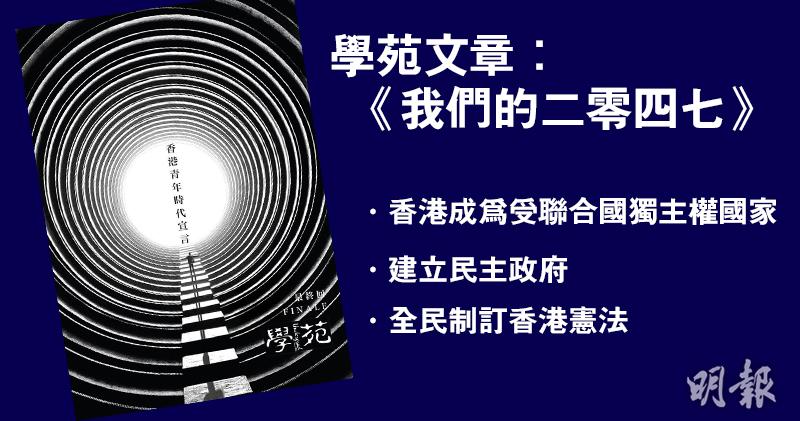
The Hong Kong government has
become a puppet of the Chinese Communists. Its governance is blindly tilted
towards the Chinese Communists. They weaken autonomy and self-rule in Hong Kong,
they developed Northeast New Territories for no reason, they gloss over the
endless cost overruns at the Express Rail Link, they cooperated with the Chinese
Communists' Qianhai project and the government report became a One Belt One Rail
report. Even if Hong Kong does not have the ability to become independent in
terms of hardware, and even if the Chinese economy continues to be strong, our
main consideration is not whether we can become independent. Instead, the
important point should be whether Hong Kong should become independent or not.
We yearn to defend the Cantonese
dialect and the traditional characters, the historical markings on our
mailboxes, an independent and solemn judicial system, the unique humanities and
social ecology of Hong Kong and a democratic government that is oriented towards
the interests of Hong Kong. These demands are not based upon hatred. They comes
from every single soul that longs for freedom. Fighting for independence does
not take place overnight. At this moment, we are only at the beginning. Very
often, advocates of Greater China chauvinism say that we must support democratic
movements in Hong Kong because Hong Kong can't have democracy if China does not
have it. Yet can promoting the democratization of China be easier than building
an independent nation? Absolutely not.
(SCMP)
March 16, 2016.
Hong Kong should
become a sovereign state recognised by the United Nations in 2047, according
to the latest issue of the University of Hong Kong student magazine
Undergrad.
An article
headed �Hong Kong Youth�s Declaration� argues for the city�s independence on
expiry of the Sino-British Joint Declaration, which stipulates that Hong
Kong should remain unchanged for 50 years from the handover. �Even though
Hong Kong doesn�t have the conditions to become independent yet ... whether
independence is viable or not is not our main concern. The main point is
whether Hong Kong should become independent�, the article says.
In addition to
independence, it demands a democratic government be set up after 2047 and
for the public to draw up the city�s constitution. It also denounces the
Hong Kong government for becoming a �puppet� of the Communist Party,
�weakening� the city�s �autonomy.
But the article�s
claims were on Tuesday dismissed by Chief Executive Leung Chun-ying. Leung
said that while Beijing had promised Hong Kong�s capitalistic systems and
way of life would remain unchanged at least until 2047, �Hong Kong has been
a part of China since ancient times, and this is a fact that will not change
after 2047�. In last year�s policy address, Leung criticised the student
publication for discussing independence.
The article was also
slammed by a number of prominent Beijing loyalists. HKU council chairman
Arthur Li Kwok-cheung described the idea of independence as nonsense,
adding: �I don�t think any wise person would listen.� Alluding to mainland
China, Li said: �Where would our water and food come from? Hong Kong�s
future is good � it is a blessed place.� Basic Law Committee vice-chairwoman
Elsie Leung Oi-sie said independence would be impossible. �In terms of
culture, lineage and nationhood, we are one with the country,� she said.
Marcus Lau Yee-ching,
editor of Undergrad, argued that �only Hongkongers can decide the
future of Hong Kong when the Basic Law expires in 50 years�.
Ivan Choy Chi-keung, a
political scientist at Chinese University, said calls for independence
represent a �natural progression� in the city�s politics, as the SAR
government has repeatedly failed to maintain Hong Kong�s high degree of
autonomy. �Many young people are disappointed, in terms of political reform
and failure to achieve universal suffrage,� Choy said.
(EJ
Insight) 2047: Who can predict what will happen? By Alan Lee.
March 21, 2016.
The Hong Kong University Students� Union�s
official periodical, the Undergrad, recently published an article in which the
author says the year 2047 will mark another crossroads in Hong Kong�s history.
By that time Hong Kong people, he says, should seize the opportunity and
rethink the future of our city and its relationship with China.
As the Sino-British treaty governing Hong
Kong�s handover is set to expire, the city must consider declaring
independence and seek the United Nations� recognition as a sovereign state,
and then build its own democratic government and draft its own constitution,
the author suggests.
He believes it could be the best way out for
our city as Beijing continues to deny us greater democracy, and as our civil
rights and way of life are under serious threat due to the mainland�s
increasingly aggressive interference in our affairs.
As expected, the article immediately came
under heavy fire from the pro-establishment camp and pro-Beijing heavyweights
such as Rita Fan Hsu Lai-tai, member of the National People�s Congress
Standing Committee; Elsie Leung Oi-sie, former Secretary for Justice; and
Arthur Li Kwok-cheung, chairman of the Hong Kong University Council and former
Secretary for Education.
Dismissing the article�s proposals as
�nonsense� and �ridiculous�, the heavyweights urged the people contemplating
Hong Kong independence to stop wasting their time on something that is
absolutely impossible and will never happen.
Then it was our Chief Executive Leung Chun-ying�s
turn to weigh in on the matter.
Speaking to reporters, Leung pointed out with
absolute conviction that Hong Kong has been a part of China since ancient
times and that it will definitely remain so after 2047.
Now, while our leaders have dismissed the
idea of Hong Kong�s independence as ridiculous and far-fetched, isn�t it
equally ridiculous and far-fetched when a bunch of people tell you firmly that
something will definitely not happen 30 years from now, when none of them will
live to see it?
Do they all have a crystal ball at home
through which they can predict what exactly will happen in the future?
Let�s imagine, if a Russian guy back in 1961
had told everybody around him that the Soviet Union would cease to exist by
1991, I bet people would definitely have called him insane and ridiculous.
Likewise, if a Chinese person had in, say,
1881 told his friends that the Qing Emperor would abdicate in 1911, I�m sure
his buddies would definitely have dismissed that as nonsense as well.
Now, let�s push our imagination a little
further.
If Mao Zedong had proclaimed at the first
national congress and founding ceremony of the Chinese Communist Party � which
took place at a non-descript urban apartment in July 1921 in Shanghai, and
which saw the attendance of just 12 people including Mao � that the party
would take power in around 30 years� time, I bet his fellow party members who
were at that meeting would probably have laughed at him in the way like Arthur
Li laughed at the Undergrad.
Let�s bear in mind the fact that in 1921
there were less than a hundred registered Chinese Communist Party members
across the entire China.
As we all know now, all of the above
�nonsensical� and �ridiculous predictions� have turned out to be true.
So who could tell � apart from God � what
exactly is or is not going to happen 30 years from now?
Of course I understand that our prominent
pro-Beijing figures, given the positions they hold and the prospect of
midnight phone calls from Beijing, had no choice but to denounce the calls for
Hong Kong�s independence without any delay.
However, they would be completely ignorant
and na�ve if they truly and faithfully believe that the status quo in Hong
Kong � or even the mainland � would definitely remain intact in and beyond
2047. Do they really think they are Nostradamus or something?
The fact that the pro-independence discourse
which used to be shrugged off by the overwhelming majority of the public in
Hong Kong before the handover has now reached the mainstream media and is
quickly gaining momentum indicates that something must have gone seriously
wrong with the SAR government and Beijing�s policies towards Hong Kong over
the past 20 years.
As a matter of fact, one could hardly have
imagined in the 90s that the idea of Hong Kong seeking independence from China
would one day become a legitimate topic up for serious discussion in local and
even international media and quickly gain popularity among the younger
generation in our city.
Instead of denouncing the idea and labeling
those who advocate it as �separationists�, isn�t it time for our chief
executive and his bosses in Beijing to reflect on what they have done to
alienate the people of Hong Kong, especially the younger ones, so much over
the past two decades?
And why independence sentiments appear to be
gaining ground in Hong Kong, while 10 or 20 years ago the idea would have been
dismissed out of hand by most people!
Internet comments:
- With respect to demand (1) in
the Our 2047 essay, this Undergrad writer is stating his/her own wishful
thinking without bothering to
familiarize himself/herself with what the
United
Nations has to say about its procedures:
How does a country become a Member of
the United Nations?
Membership in the Organization, in
accordance with the Charter of the United Nations, �is open to all
peace-loving States that accept the obligations contained in the United
Nations Charter and, in the judgment of the Organization, are able to
carry out these obligations�. States are admitted to membership in the
United Nations by decision of the General Assembly upon the recommendation
of the Security Council.
How does a new State or Government
obtain recognition by the United Nations?
The recognition of a new State or
Government is an act that only other States and Governments may grant or
withhold. It generally implies readiness to assume diplomatic relations.
The United Nations is neither a State nor a Government, and therefore does
not possess any authority to recognize either a State or a Government. As
an organization of independent States, it may admit a new State to its
membership or accept the credentials of the representatives of a new
Government.
Membership in the Organization, in
accordance with the Charter of the United Nations, �is open to all
peace-loving States which accept the obligations contained in the [United
Nations Charter] and, in the judgment of the Organization, are able to
carry out these obligations�. States are admitted to membership in the
United Nations by decision of the General Assembly upon the recommendation
of the Security Council. The procedure is briefly as follows:
1. The State submits an application to
the Secretary-General and a letter formally stating that it accepts the
obligations under the Charter.
2. The Security Council considers the
application. Any recommendation for admission must receive the
affirmative votes of 9 of the 15 members of the Council, provided that
none of its five permanent members � China, France, the Russian
Federation, the United Kingdom of Great Britain and Northern Ireland and
the United States of America � have voted against the application.
3. If the Council recommends admission,
the recommendation is presented to the General Assembly for
consideration. A two-thirds majority vote is necessary in the Assembly
for admission of a new State.
4. Membership becomes effective the
date the resolution for admission is adopted.
So if Hong Kong wants to become an
independent sovereign nation in the future, it better start lobbying 9 out
of 15 Security Council members (including China, France, Russia, United
Kingdom and United States) plus two-thirds of the
majority in the General Assembly.
The obvious barrier is: CHINA, which is a
permanent member of the Security Council with veto power. If you
cannot hurdle past this first barrier, don't bother with the rest.
- But of course if it is the usual vaporware
again, then never mind ... just go back to your other business.
- Strategy #1: Buy their votes. The current members of the Security
Council members are:
Permanent members
- China
- France
- Russian Federation
- United Kingdom
- United States
Non-permanent members
- Angola
- Egypt
- Japan
- Malaysia
- New Zealand
- Senegal
- Spain
- Ukraine
- Uruguay
- Venezuela
You can't pay enough to buy the votes of
the five permanent members. If one or more of the permanent members vote
for Hong Kong, China will break off diplomatic relations. That may mean
the end of the United Nations as a whole. So the five permanent members
will vote as China wishes. Of the current nine non-permanent members,
Angola and Venezuela are politically aligned with China. That means you
have eight votes at a maximum. Everybody can count this. Therefore nobody
except perhaps Japan will even grant you the courtesy of a meeting. And
Japan will meet with you only to anger China and not because they
really sympathize with your cause.
- The path is actually clear. Singapore
achieved independence because it had the blessing of Malaysia. Hong Kong
can achieve independence if and when it gets the blessing of China. If
China supports Hong Kong independence, so will everybody else. So you need
a strategy to get China's consent. The only strategy that the Localists
have so far is "valiant resistance with force." So the Localists will rip
the bricks out of the pavement, throw the bricks at the Hong Kong Police and
thus force the Chinese Communists to bend to
the will of the people of Hong Kong. Or something.
- (Wen
Wei Po) March 31, 2016. at a forum, China-Australia Legal Exchange
Foundation chairman Lawrence Ma said that Hong Kong cannot possibly be
recognized by the United Nations as a sovereign nation under the United
Nations Charter. Ma asked former Undergrad editor-in-chief Marcus Lau Yee-ching if
Lau was willing to fight the People's Liberation Army to his death. Lau who had
said that he would "valiant retaliate" immediately retreated and said that
force was unnecessary because Hong Kong wants to conduct a referendum like
Scotland. Hong Kong Federation of Education Workers chairman Tang Fei said
that Scotland was historically a separate country that was conquered by
England. Tang asked: "Has Hong Kong ever been an independent country?" Tang
said that Scotland could hold a referendum because the British Parliament
agreed to let it. "Do you believe that the National People's Congress will
allow this subject to be brought up?"
- How hard is it to gain United Nations
recognition as a sovereign nation? A case for comparison is Taiwan, with a
seemingly better argument than Hong Kong.
(Wikipedia)
Foreign relations of Taiwan.
Entities with full diplomatic relations
with Taiwan
Oceania:
- Kiribati
- Marshall Islands
- Naurau
- Palau
- Solomon Islands
- Tuvalu
Africa:
- Burkina Faso
- Sao Tome and Principe
- Swaziland
Europe:
- Holy See
Central America:
- Belize
- El Salvador
- Guatemala
- Honduras
- Nicaragua
- Panama
Caribbean
- Dominican Republic
- Haiti
- Saint Kitts and Nevis
- Saint Lucia
- Saint Vincent and the Grenadines
South America
- Paraguay
The current members of the Security
Council members are:
Permanent members
- China
- France
- Russian Federation
- United Kingdom
- United States
Non-permanent members
- Angola
- Egypt
- Japan
- Malaysia
- New Zealand
- Senegal
- Spain
- Ukraine
- Uruguay
- Venezuela
Taiwan has no diplomatic relations with
any of the 15 Security Council members.
Under the
One China policy, countries that seek diplomatic relations with
the People's Republic of China must break official relations with the
Republic of China (ROC) and vice versa. Recognizing Hong Kong would mean
breaking diplomatic relations with Security Council permanent member
China. Good luck with all your future issues before the United Nations
Security Council.
P.S. Breaking news: Gambia just ditched
Taiwan for China (New
York Times).
- (Wen
Wei Po) March 21, 2016. at a forum, China-Australia Legal Exchange
Foundation chairman Lawrence Ma said that Hong Kong cannot possibly be
recognized by the United Nations as a sovereign nation under the United
Nations Charter. Ma asked former Undergrad editor-in-chief Lau Yi-ching if
Lau was willing to fight the People's Liberation Army to death. Lau who had
said that he would "valiantly resist" beat a quick retreat and said that
force was unnecessary because Hong Kong wants to do a referendum like
Scotland. Hong Kong Federation of Education Workers chairman Tang Fei said
that Scotland was historically a different country that was conquered by
England. Tang asked: "Has Hong Kong ever been an independent country?" Tang
said that Scotland could hold a referendum because the British Parliament
agreed to let it. "Do you believe that the National People's Congress will
allow this matter to be put to a vote?"
- With respect to demand (2), the same
issue of Undergrad enunciated clearly that the lesson from Occupy
Central is that they don't want a Grand Stage from which orders are issued
by the leaders. In other words, they won't allow any government to function.
You can clearly see what will happen under a democratic government. You can
name the person whom you believe is best qualified to become Chief
Executive, and I can give you a long list of people who will be his enemies
via street protests, pelting eggs at events, filibustering in the
Legislative Council, etc.
- With respect to demand (3) about the Hong
Kong constitution drawn up by the people of Hong Kong, this is hilarious
because it ignores the history of democratic referendum and constitutional
reform.
As one example, see the
Civic Referendum during Occupy Central with Love and Peace:
OCLP commissioned the University of Hong
Kong Public Opinion Programme (HKUPOP) to run a poll on three proposals �
all of which involve allowing citizens to directly nominate candidates �
to present to the Beijing government. It ran from 20 to 29 June 2014.
A total of 792,808 people, equivalent to
a fifth of the registered electorate, took part in the poll by either
voting online or going to designated polling stations. The two referendum
questions were
Item 1: For CE Election 2017, I support
OCLP to submit this proposal to the Government:
1. Alliance for True Democracy
Proposal;
2. People Power Proposal;
3. Students Proposal, or Abstention;
Item 2: If the government proposal
cannot satisfy international standards allowing genuine choices by
electors, LegCo should veto it, my stance is:
LegCo should veto;
LegCo should not veto;
or abstain
The proposal tabled by the Alliance for
True Democracy, a group comprising 26 of the 27 pan-democratic lawmakers,
won the unofficial "referendum" by securing 331,427 votes, or 42.1 per
cent of the 787,767 valid ballots. A joint blueprint put forward by
Scholarism and the Hong Kong Federation of Students came second with
302,567 votes (38.4 per cent), followed by a People Power's proposal,
which clinched 81,588 votes (10.4 per cent).
Please note the two problems:
- A referendum can let voters choose
among one (or more) among a small number of options. Whoever comes up with
the list of options has circumscribed the possible outcomes. For example,
you are not allowed to state "None of the above" in item 1, or otherwise
state your own proposal (such as One County One System). So when you run a so-called referendum, you will
only generate more irresolvable controversies.
- The response rate is "one-fifth of the
registered electorate." The total population will be "represented" by those who voted as
if the whole world will have the identical preferences. So when you run a so-called
referendum, you will only generate more irresolvable controversies.
As another example, consider the
Hong Kong Legislative Council by-election 2010:
The 2010 Hong Kong by-election was an
election held on 16 May 2010 in Hong Kong, triggered by the resignation of
five pan-democrat Legislative Councillors in January of the same year.[1]
Discussions among the pan-democrats
commenced in July 2009 for five legislators to resign to force a
territory-wide by-election. The plan, which they dubbed the Five
Constituencies Referendum (五區公投/五區總辭), involved one pan-democratic
legislator resigning from each of the five geographical constituencies,
thereby triggering a by-election in which all Hong Kong citizens could
participate.
Although the Basic Law of Hong Kong does
not provide for official referenda, the pan-democrats hope that by
returning the resignees to the Legislative Council, on their manifesto of
real political reform in Hong Kong and the abolition of functional
constituencies, the election can be seen as a de facto referendum and an
endorsement of these issues. The five LegCo members resigned their seats
on 21 January 2010 with the by-election taking place on 16 May 2010.
Only 17.1% of HK's registered voters cast
ballots, as compared to the record of 45.2% for the 2008 legco election.
We have the same two problems here.
For the 2016 September Legislative Council
elections, it is announced that five Localists candidates will participate:
- "Four Eyed-Brother "Cheng Kam-mun in
Hong Kong Island
- Raymond Wong Yuk-man in Kowloon East
- Wong Yeung-tat (Civic Passion) in Kowloon West
- Wan Chin in New Territories East
- Cheng Chung-tai (Civic Passion) in New Territories West
If elected, they plan to resign immediately
in order to trigger yet another Five Constituencies Referendum on something
or the other. They haven't learned a thing from history. They think that "banging
your head against the wall" is an act of courage.
- I like the part about "Even if Hong Kong
does not have the ability to become independent in terms of hardware, and
even if the Chinese economy continues to be strong, our main consideration
is not whether we can become independent. Instead, the important point
should be whether Hong Kong ought to become independent or not." That is to
say, the important thing is for you to waste your time on this. But I don't
want to waste my time on it.
- This is going to start a new wave of
analogous statements, such as: I know that physics says that I cannot fly to
the moon by bicycle, but the important point should be whether I ought fly
to Mars or not.
- I know that I won't be able to win the
Mark 6 lottery because I did not buy a ticket, but the important point
ought to be how I plan to spend my winnings.
- Very funny! (Wen
Wei Po) Education constituency legislator and Professional Teachers
Union vice-chairman Ip Kin-yuen was asked about Undergrad promoting
Hong Kong Independence. He said that the situation is "somewhat
complicated." Since he hadn't read the publication, it was "inappropriate
for him to comment." Although his answer did not answer anything, he added:
"In these situations, your newspaper usually says that I am dodging the
issue." Our reporter said that Ip Kin-yuen can contact us anytime after he
finishes reading this issue of Undergrad.
- Of course, Ip Kin-yuen will make every effort to make sure that he does
not read Undergrad.
- (TVB)
Hong Kong University council chairman Arthur Li Kwok-cheung said that the
students have freedom of speech, but Hong Kong independence after 2047 is
just impossible. Li said: "If Hong Kong independence means returning to the
United Kingdom, which does not want you, and you don't even have right of abode
here,
then this is sheer nonsense. If Hong Kong becomes independent, where does the
food and water come from? These are two very basic things without which you
cannot be independent. Everybody knows that Hong Kong has been part of China
the whole time, even after the Opium Wars. It is absurd to talk about Hong
Kong leaving China. I am not going to waste time to debate or comment on
this. Any intelligent person knows that this is infeasible and a dead end.
There is no point in wasting time."
- If all Arthur Li can come up with are old
gags about
food and water, then I think that he is pathetic. I wish
he could come up with some other points the next time. It's only food and
water. Hongkongers are valiant and ingenuous. We will think of some way of
solving these minor problems.
- Indeed, we'll just hire the best experts
out there to tell us how to get the food and water to feed 7.3 million
people. These will be people who know what they're talking about, unlike the
political hacks who are clueless. (Acknowledgement: I borrowed this quote
from Donald Trump)
- If we all eat and drink less, we will
pull through.
- Apart from food and water, Arthur Li can
also mentioned gas and electricity. Natural gas is imported from China via
submarine pipelines for electricity generation and gas production. No gas
means that people will have to head to the hills to gather firewood for
cooking. Electricity is generated by local plants using coal and natural gas
imported from mainland China plus the Daya Bay nuclear power station in
mainland China. No electricity means no mobile phones and computers, which
means no Facebook. Now that is going to be a big problem ...
- TVB didn't report that Arthur Li said he
was born a Hongkonger and proud to be Chinese. But if someone wants to become
a Jap, then Li said that he can't stop them.
- Everybody knows that Li's elders held
important positions during the Japanese occupation of Hong Kong. So how dare
he denigrate those Hongkongers who want to be Japs?
- You say that if you pay with real money,
China they must sell it to you. If that's the case, then why do you want to
go out and stop mainland tourists and parallel traders from coming here to
pay real money to buy your milk powder and other merchandise? It comes down to if you hate them, you
won't sell to them at any price. The Commies may just flush the Dongjiang
water into the ocean rather than sell to you.
- Democratic Party legislator Albert Ho
said that Undergrad has freedom of speech, which means that no subjects or
viewpoints should be taboo. In so doing, Ho is trying to fawn on young
people. Unfortunately the radical youth thinks that his comments represents
"leftist retardism" because the only acceptable course of action is "valiant
resistance by force."
- (EJ
Insight) Why can�t we talk about independence? By SC Yeung.
March 16, 2016.
Hong
Kong independence has once again become a topic of conversation after a
student publication featured it in its latest issue.
Civic Party helped turn it into a political
talking point by raising the importance of autonomy in the context of 2047,
when Hong Kong fully reverts to Chinese sovereignty.
That is when the Basic Law and other
agreements under the Sino-British Declaration, the basis of Hong Kong�s 1997
handover to China, expire.
That is also more than 31 years out, a
generation away and a distant future for older Hongkongers.
But
for younger people who have the most at stake in that future, there�s no
time to lose to ensure the next phase of Hong Kong�s political development.
Which is why such issues as self-determination and autonomy will remain in
our consciousness even if we don�t actually talk about them.
But
why not? If we have been discussing autonomy, why can�t we talk about
independence?
Hong
Kong people were already excluded from the Sino-British talks on their own
future. They want to make sure that this time around, their views will be
heard. Hong Kong�s political class is not ready or willing to accept the
fact that independence could be an option.
Realistically, that notion is a non-starter. China will not allow it to
flourish, let alone happen, and it will take a yeoman�s job to get the Hong
Kong government, with the pro-Beijing camp behind it, to let it enter the
political mainstream.
Leung
Chun-ying famously excoriated Undergrad magazine, the University of Hong
Kong student publication in question, in his 2015 policy address for an
article about self-determination. He accused it of inciting separatism.
Yesterday, he responded to Undergrad�s latest issue as emphatically. �It�s
�common sense that Hong Kong will continue to be part of China after 2047
when the Basic Law guaranteeing the way of life in the Special
Administrative Region is to expire,� he said, adding that Hong Kong�s
capitalist system �should not and need not change� after 2047.
Leung�s remarks are straight out of
Beijing�s playbook. Chinese officials have repeatedly stressed that Hong
Kong is part of China and that fact will not change, although they might
allow certain rights and freedoms of its citizens beyond 2047. And in case
anyone is in doubt, they keep reminding us that independence is impossible.
Now comes Arthur Li, the HKU council
chairman and not the biggest fan of Undergrad magazine, who is playing to
our worst fears. �Where will our fresh water come from? Where will our food
come from?� he said.
Nonsense. Li�s scaremongering shows his
ignorance of how market economics work.
First
of all, our water supply does not come free. We buy it from Guangdong under
a commercial agreement. Some of our food supply comes from the mainland but
we also pay for it.
Second, the world is a marketplace of commodities and services. If
China does not want to sell food and water to us, someone else will come
forward. That�s not to mention that Hong Kong will soon have a desalination
plant to turn sea water into fresh water.
When
Singapore left the Malaysian Federation in the 1960s to go it alone, it
didn�t go thirsty or hungry. They have kept their border open to allow the
flow of goods. The two countries
have maintained a long-term water supply contract.
Li�s
argument is as implausible as the idea of Hong Kong independence.
And that is precisely the point.
We need to talk about these issues because
we are being plied with ideas that don�t make sense. And we are being warned
about certain �unmentionables� lest we provoke Beijing. Yet, we are told at
the same time that there�s freedom of thought and free speech in Hong Kong.
- Joshua Wong's argument about why Hong Kong
should be independent: Hong Kong port began in 1841 but the People's Republic of
China was founded only one century later in 1949.
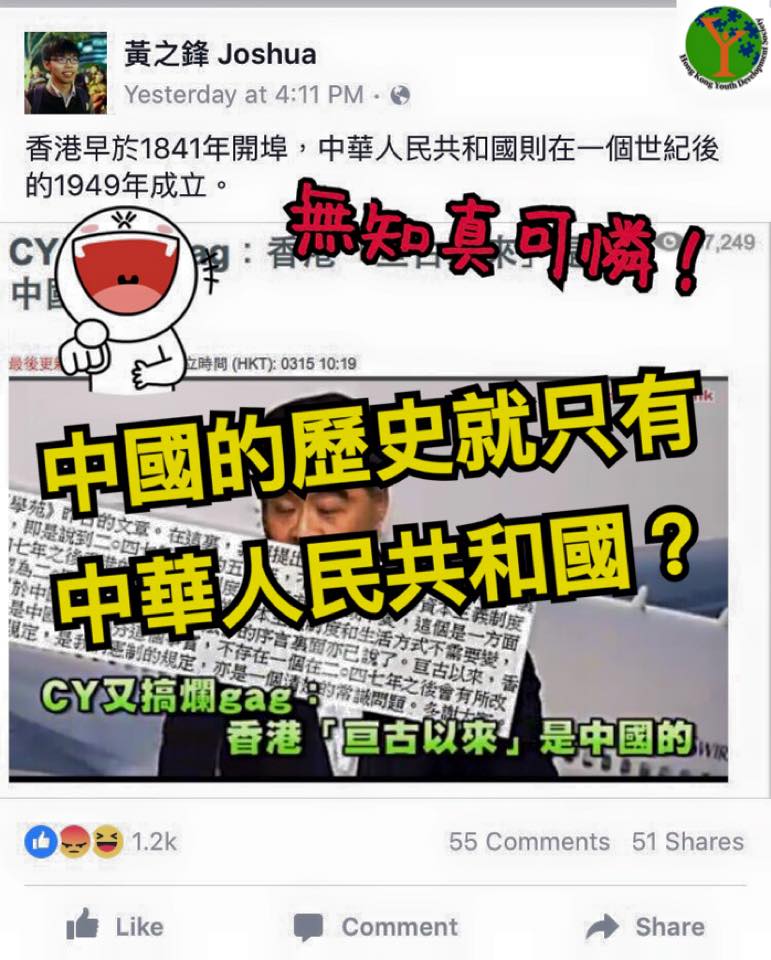
Internet comment:
- In 214 BC, the first emperor of the Qin
Dynasty Qin Shi Huang conquered the territories of the southern tribes, and the
uninhabited island known today as Hong Kong became a part of Greater China.
But Joshua Wong was not a good student and he wasn't even admitted to
regular university, so he can only be expected to be ignorant about basic history.
- (Ta
Kung Pao) What is the significance of 2047 anyway?
According to
Basic Law Article 5,
The socialist system and policies shall not
be practised in the Hong Kong Special Administrative Region, and the previous
capitalist system and way of life shall remain unchanged for 50 years.
So 2047 is in a way a dividing line. But what
is it dividing? The socialist/capitalist economic and/or lifestyle systems? Or
something else?
Some people will have you believe that 2047 is
the moment to decide upon territoriality and sovereignty. But
Basic Law Article 1 clearly states:
The Hong Kong Special Administrative Region
is an unalienable part of the People's Republic of China.
This means that territoriality and sovereignty
are not up for discussion at all. So any talk of dividing lines such as
independent state-building etc is just a pack of lies.
- Reasons for Hong Kong independence from the
University of Science and Technology students:
(1) Hong Kong only imports 90% of its water,
pork, beef, fish and vegetables plus 20% of the packaged foods from mainland
China. The rest is produced locally or supplied by other countries. So if
Hongkongers eat only 10% of what they used to eat, they'll be okay. Besides
they can always increase their imports of Japanese A5 wagyu beef, Norwegian
salmon, Alaskan king crabs and Boston lobsters to replace the mainland food.
(2) Scotland can demand independence even
though it does not have an army. But Hong Kong has 6,000 PLA soldiers and more
than 33,000+ police officers. So the PLA and the police are a formidable
ready-made army.
- Unfortunately, the PLA soldiers are all mainlanders who are
under the command of the Central Military Commission of the People's Republic
of China. Furthermore, the 33,000+ are Evil Police Dogs who will be purged
immediately if and when the Revolution for Independence succeeds, do why
should they help you?
(3) 25 sovereign countries around the world
have even less land than Hong Kong. So Hong Kong can become an independent
nation like S�o Tom� and Pr�ncipe, Kiribati, Saint Lucia, Seychelles, Palau,
Maldives, Saint Kitts and Nevis, Marshall Island, Liechtenstein, San Marino,
Tuvalu, Nauru, Monaco, Vatican City, etc. [Note: Eh, please note the
population density in these small states! They don't have 7 million people to
feed.]
- (SCMP)
March 18, 2016.
Act strategically
instead of just venting anger, one of the world�s leading political scientists
told activists in Hong Kong as he warned that the rise of separatist
sentiments was counterproductive if not suicidal for the city�s democratic
future.
Professor Larry Diamond,
senior fellow at the Hoover Institution of Stanford University in the United
States, said any attempt to advocate independence or regard it as a way out
beyond 2047, the expiry date of Beijing�s 50-year promise under the �one
country, two systems� formula, would only push the central authorities to
crack down on Hong Kong and further marginalise the already weak pro-democracy
camp.
�I think it is suicidal,� Diamond, who was
visiting the city, told the South China Morning Post in an interview
on Friday. �It is not the way Hong Kong is going to achieve democracy and
deeper or more meaningful autonomy. It is just going to play into the hands of
the hardest hardliners in China.�
Diamond was commenting
on the rise of localism as reflected most recently in the Legislative Council
by-election last month, in which young candidate Edward Leung Tin-kei of Hong
Kong Indigenous scored a significant 16 per cent vote share despite a short
period of campaigning.
The convenor of the
student-led group Scholarism, Joshua Wong Chi-fung, who played a significant
role in the Occupy protests in 2014 and planned to form a new political party
next month, also pledged to hold a referendum in 10 years to let Hongkongers
express their desire for self-determination after 2047.
Diamond, founding
co-editor of the Journal of Democracy who has studied democratisation
across continents, pointed to the basic strategic rules of social movement �
�to unify your ranks and divide your adversaries�.
Noting the strong
sentiment of nationalism in mainland China, he said advocating independence
would only divide Hongkongers but unify everybody in China, not to mention
drive away some moderates across the border who had looked forward to more
engagement with the city.
The same theory applied
to the relationship between police and pro-democracy activists, which had
turned confrontational in the wake of the 79-day Occupy sit-ins. The scholar
believed the protesters should be more empathetic and get into the minds of
their political adversaries in a bid to neutralise the opposition.
Emphasising his empathy
towards the young�s frustrations, Diamond stressed he was not asking them to
change their aspirations, just to act strategically with an analytical mind.
�When you have been
victimised � and been treated unjustly, as the whole Hong Kong population has
been, the natural reaction is anger, frustration and resentment,� he said.
�But being mad as hell and resolving that you are not taking it anymore is an
emotion but not a strategy.�
He added that the
democratic camp, which had little power and resources compared to its
counterparts, did not �have the luxury of simply venting emotion�, like what
the Philippines went through in 1986.
Meanwhile, Diamond
believed the mainland could eventually evolve into an asymmetrical federal
system, which allowed the two special administrative regions to enjoy more
autonomy than the other provinces, and this could be a possible way out for
Hong Kong.
He said the Communist
Party should lead a process of gradual political reform like the KMT did in
Taiwan and that could �buy themselves a lot of time�.
�I think if the Chinese
Communist Party would move to that direction and lead and shape the process of
political reform, they would be able to remain in the driver�s seat like the
KMT did,� said Diamond.
- (SCMP)
Nationalism reigns whatever the ideology. By Alex Lo. March 19, 2016.
According to numerous accounts, Margaret
Thatcher at one time considered the options of either retaining Hong Kong
post-1997 or granting it independence. At a crucial meeting with her senior
staff and military advisers, she voiced both possibilities.
Her generals promptly showed her maps of the
city in relations to the Chinese hinterland. They reportedly said there was no
possibility of holding or defending Hong Kong against a China committed to
retaking it.
China, they reportedly said, could just choke
off the city by cutting off food and water supplies. That meeting put an end
to her musings and set her on the path to negotiations that led to the
Sino-British Joint Declaration.
Localists, who fantasise about independence
now or after 2047, may well ponder the history of that episode. Independence
is not for us to gain, but for China to grant. As an abstract intellectual
exercise, let us consider what kind of a China it would have to become to be
willing to grant such a thing. It�s obviously out of the question under
communist China. The supposition by some people is that only a democratic
China would be willing to entertain real independence or autonomy for Hong
Kong.
This way of thinking is most recently raised
by Larry Diamond, an anti-communist conservative ideologue from the US. He reportedly said the Chinese Communist
Party regime was going down. �It is not what China can do for Hong Kong but
what Hong Kong can do to advance democratisation in China,� Diamond said.
If you want Hong Kong to be free, you must
help China democratise. That�s his logic. I would not bet on the demise of the
CCP so easily. Leaving aside his call for subversion, Diamond�s proposition is
historically and logically dubious.
Why would a democratic or politically liberal
China be any less interfering? In one of his more lucid writings, Horace Chin
Wan-kan, the godfather of localism, wrote that a democratic China would be as
nationalistic as it is now, if not more so. Why would it let Hong Kong go?
Perhaps Diamond should spend more time in his
own country. Would most right-thinking patriotic Americans even consider
independence for Texas, something that is advocated time and again?
- (EJ
Insight) Joshua Wong and the pan-dems should get their priorities
right. By Wong On-yin. March 23, 2016.
It appears politicians in Hong Kong have
suddenly become exceptionally visionary, as they rush to join in the
discussion of Hong Kong�s way forward after 2047.
Many say we should start fighting now for our
right to determine our own future after 2047.
However, that begs the question: what about
the unfinished business of fighting for universal suffrage that is still lying
right in front of us?
Are the pan-democrats really that concerned
about planning ahead for the days after 2047, or are they just deliberately
changing the subject in order to hide their failure and incompetence?
Apart from rushing to change the subject in
order to divert public attention from the pro-democracy campaign, there is
also a stampede among the pan-democrats to claim they are �indigenous parties�
in an apparent attempt to ride on the tidal wave of popular support for
nativism and widen their support base.
For example, the Civic Party, which rose to
prominence after the July 1 rally in 2003, has recently changed its party�s
main theme by replacing �fighting for democracy� with �defending our
indigenous self-determination�.
Also replacing its goal is Scholarism, which
announced Sunday that it will shortly cease to exist and split into two
different wings, one of which will form a political party and send members to
run for public office pledging �self-determination in 2047�.
But what about the idea of �popular
nomination� in the election of the chief executive that these parties pushed
for during the Occupy movement?
Have they all ditched the idea already?
Don�t the pan-democrats who are pitching the
2047 issue owe the public an explanation as to whether they will, from now on,
focus on promoting nativism rather than fighting for democracy, something we
have been relying on them to do for us for the past 30 years?
In fact it is undeniable that the subject of
�2047 and beyond� is important, but at this moment, discussion of this topic
should be confined to academic circles and remain on a theoretical level only.
It is because there is something far more
urgent lying immediately before us, which is the fight for universal suffrage
and the right to choose our own leader, and it is this ongoing and unfinished
fight that people like Joshua Wong should remain focused on right now.
The freedom and civil rights promised under
the Basic Law, although continuously deteriorating, still give us a window of
opportunity to fight for as much democracy as we can.
What we should be doing now is making full
use of that window of opportunity to get the best deal from Beijing before
that window is closed, rather than worrying about something 30 years from now.
- (AM
730) By Zhou Xian. March 23, 2016.
... Even the most stubborn Hong Kong
independence advocate knows clearly that Hong Kong cannot become independent
under the present objective circumstances. However, just because it is
impossible today does not mean the same in the future.
The fast-track Hong Kong independence people
make the assumption that China will collapse economically and politically in the
near future. Once the central government loses control, there may be a chance
for Hong Kong independence.
The slow-track Hong Kong independence people
do not believe that a rapid collapse of China will take place. Furthermore,
the people of Hong Kong still do not have a sufficient sense of nationhood.
Therefore, they are actively spreading ideas such as "Hongkongers are
different from Chinese people," "Hongkongers are not Chinese," "Hongkongers
are a separate race," etc. If they repeat this sort of thing often enough, the
Hongkongers will be sufficiently detached from China. When the opportunity
arises, Hong Kong can become independent. Specifically, the slow-track people
will resist One Country and increase the gap between the Two Systems.
Otherwise, Hong Kong will be eaten up by mainland China before independence.
There is another basic assumption, which is
that Hong Kong is irreplaceable as a financial centre for China. For example,
where would the corrupt officials hide their money without Hong Kong? So no
matter how bad things get here, the central government will not strip away
One Country Two Systems and take over Hong Kong. Back then Deng Xiaoping
refused to make any compromise in taking Hong Kong back. The Hong Kong
independence view is that the central government leaders today do not have the
standing and courage of Deng Xiaoping.
These assumptions cannot be shown to be
implausible. But I have an idea: Do you think the central government will sit
and watch helplessly as the Hong Kong independence people play out their
script until 2047, when today's young people have grown up and became the
majority who will vote for independence?
I respectfully disagree with Li Ka-shing who
said: "It may be One Country One System in 2047." I personally believe that
the central government will act first, and it may be One Country One System
before 2027 already.
- Spoof of Apple Daily: Security lapse at
Castle Peak Psychiatric Hospital, large number of patients escape to disseminate
message of Hong Kong independence
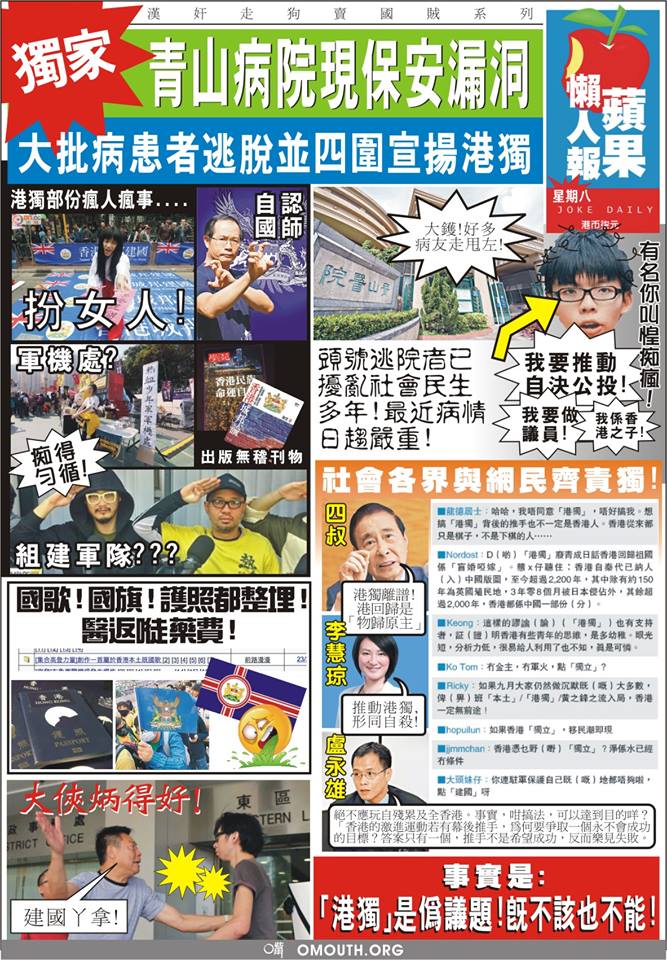
- (HKG
Pao) In an Apple Daily essay, professor Benny Tai began by talking about
water, electricity and food. He says that you can buy these things with money.
Even the mainland will continue to sell to Hong Kong because they make money.
Tai said that he does not see any possibility
for Hong Kong independence in the short run. But he predicted that the Chinese
Communists and mainland China will run into a huge political crisis before 2047.
"Only when mainland China falls into political chaos can Hong Kong become
independent. If China is so chaotic that even its own sovereignty is uncertain,
then the sovereignty of Hong Kong is even less certain. That is the opportunity
for Hong Kong to become independent."
Tai said that "it is beyond subjective desires
of people to know how China will change." There should not be just "the China
opportunity" without "the China crisis." Tai called for Hong Kong independence
young men to "be concerned" about mainland political developments and "fight for
international attention." Tai said: "At the key moment, the Hong Kong people
will be able to gain international recognition to become an independent
sovereign nation.
Internet comments:
- The only way for Hong Kong to become
independent is for China to fall into total chaos like Iraq or Syria? When
that happens, Hong Kong will be in the middle of all that chaos. Millions of
refugees will try to rush in because the independent sovereign nation of Hong
Kong will be a safe haven. What will you do then? Set up machine guns on the
border to mow down these refugees? Tow their boats back out to open sea and
sink them along with their passengers?
- This is the same old script that Wan Chin
has peddled before. At least Wan Chin said that when China collapses, Hong
Kong must be independent in order to survive ... "Hong Kong has to establish
its city-state sovereignty, consolidate internal governance and implement
double universal suffrage in accordance with the method of Wan Chin." The only
difference is that Benny Tai is speaking as a scholar while Wan Chin is
speaking as the Grandmaster of the City-State of Hong Kong.
- (Speakout
HK) Immigration is an individual right. If a Hongkonger wants to
immigrate to Canada or Australia, the Hong Kong government will not obstruct.
Independence is not an individual right. Marcus Lau may want Hong Kong to be
independent, but this is not up to Marcus Lau to decide. Because this is an
issue of national sovereignty of China, the 1.4 billion Chinese citizens will
have a say on the matter. Hong Kong is not Scotland. Whereas the British
Parliament allowed a referendum to be held in Scotland, the Chinese government
holds the position that Hong Kong independence is splittism/separatism/treason. Given this
position, why bother holding these referenda in Hong Kong? The Chinese
government won't let independence happen, and the 1.4 billion people won't either. Why
bother?
In Hong Kong, the most basic question about
independence is this: "Do you want to be Chinese or not?" Marcus Lau wants
independence because he thinks that he is not Chinese. Fine. But what about
other Hongkongers who want to be Chinese? What about their rights? Never mind
that these other people might be the majority. Even if they are a minority, will
they quietly accept this "annexation" of their homes to a foreign country?
It is total fraud to package Hong Kong
independence as an individual right. It is not an individual choice like
immigration. It is forcing other people to give up being Chinese. "It's alright
for you not to want to be Chinese, but why are you forcing me to give up being
Chinese?"
(Hong
Kong Free Press) March 11, 2016.
Additional funds totalling HK$19.6
billion for the Guangzhou-Shenzhen-Hong Kong Express Rail Link (XRL) have been
approved by the legislature�s Finance Committee, despite fierce protests and
filibustering from pan-democratic lawmakers.
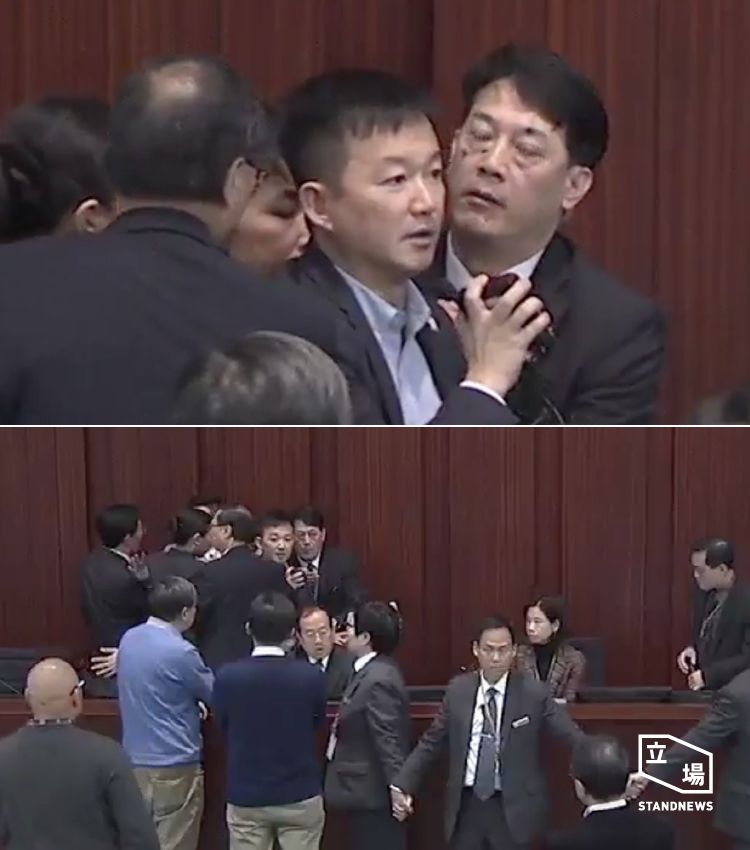
Ray Chan Chi-chuen and his handheld mini-megaphone
Pan-democrats questioned the
procedure set by acting chairman of the committee Chan Kam-lam whereby newly
elected lawmaker Alvin Yeung Ngok-kiu could only ask questions after motions put
forward by pan-democratic lawmakers were dealt with. The 19 pan-democratic
lawmakers moved 1,262 motions, but Chan only approved 36.
Lawmakers such as Ray Chan Chi-chuen, Lee
Cheuk-yan and Claudia Mo Man-ching rushed to the chairman�s table in attempt
to take away Chan Kam-lam�s microphone, in order to stall the meeting. Leung
Kwok-hung sprayed ink on Chan, and was told to leave.
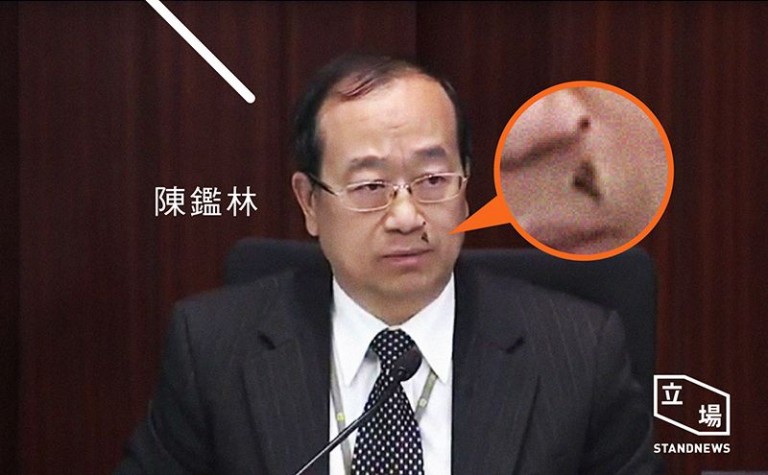
Leung Kwok-hung sprayed ink on Chan Kam-lam.
Chan Kam-lam also ordered
four other pan-democratic lawmakers, Albert Chan Wai-yip, Ray Chan, Lee
Cheuk-yan and Claudia Mo, to leave the meeting room but the order could not
be executed by security guards, who were trying to block lawmakers from getting
close to the chairman�s table. Chan then suspended the meeting three times, with
each suspension lasting 10 minutes each. He then moved the meeting into the
Legislative Council chamber. Chan decided to bypass the 7-minute question time
allocated to Civic Party lawmaker Alvin Yeung, and begin the discussion of the
motions put forward by lawmakers. Yeung then took out a loudspeaker and
questioned Chan�s decision to bypass him.
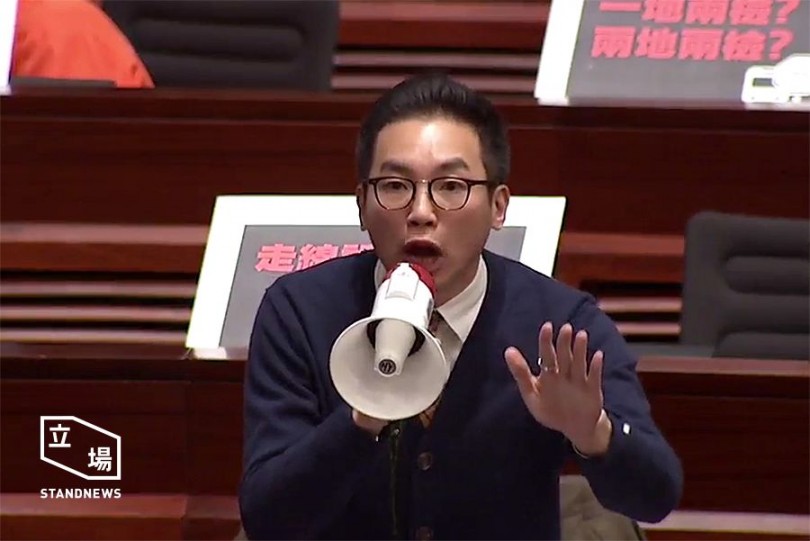
Alvin Yeung protesting using a loudspeaker
Large numbers of pan-democratic lawmakers
protested in support of Yeung, leaving their seats and rushing to the front
of the chamber. They were asked by Chan to leave.
At 5.10 pm, Chan suddenly asked lawmakers
to vote on the motion, but only counted the votes of those seated. The
HK$19.6 billion extra funds for controversial rail project was passed.
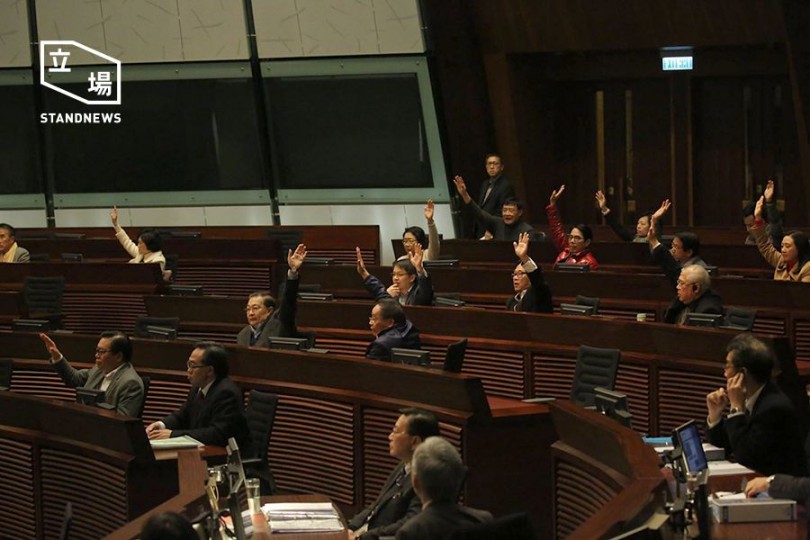
Yeung later added that he would
apply for judicial review over Chan ignoring his request to have a recorded
vote, which he claimed was in violation of the Basic Law.
Protesters stormed into LegCo
building as the funding was passed and stayed on an escalator leading up to the
chamber. Police officers went into LegCo to maintain order. Some protesters were
holding loudspeakers. A LegCo staff member asked protesters to leave the
building or face police action.
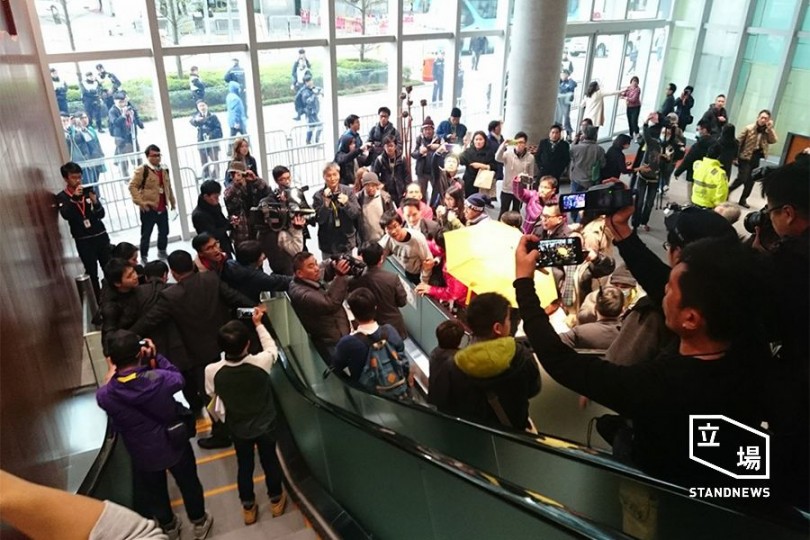
(SCMP)
March 12, 2016.
The HK$19.6 billion extra funding
request for the controversial express rail link from Hong Kong to Guangdong
was abruptly passed by the legislature�s Finance Committee yesterday,
triggering chaos inside and outside the chamber.
An angry legislator threw ink at acting
committee chairman Chan Kam-lam as he out-manoeuvred pan-democratic
lawmakers� efforts to stall the vote, while police had to forcibly remove
protesters who had the building.
The drama erupted at around 5pm, two hours
into the meeting, when Chan suddenly called for a vote on the government�s
request for extra money to complete the railway that will link Hong Kong to
Shenzhen and Guangzhou.
Moments before the vote, newly elected
Civic Party lawmaker Alvin Yeung Ngok-kiu, used a megaphone to complain that
he was only given seven minutes to ask questions even though he had not
participated in the funding request debates before.
�I know Mr Alvin Yeung has been returned by
160,000 voters� but while you are here [in the chamber], you have to act
according to the rules of procedure,� Chan told Yeung. �You don�t enjoy any
privilege just because you have gained a certain number of votes.� As Yeung
continued to protest, Chan called for security to remove him from the
chamber, at which point, all the pan-democrats left their seats and stood
around their new colleague.
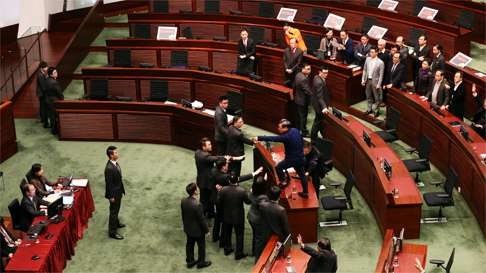
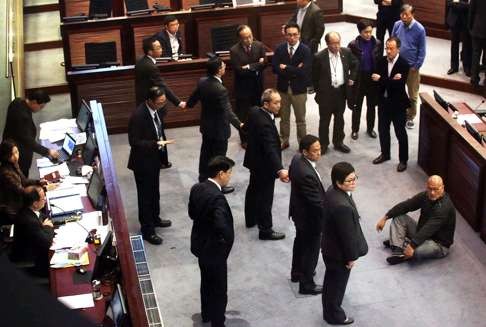
When they refused to return to their seats,
the acting chairman suddenly put the funding request to a vote, relying on
raised hands among pro-establishment lawmakers still in their seats . The
vote was taken in the main chamber after the meeting had to be suspended
three times in another room, where radical lawmaker �Long Hair� Leung
Kwok-hung threw ink at Chan, forcing him to go the bathroom to clean up.
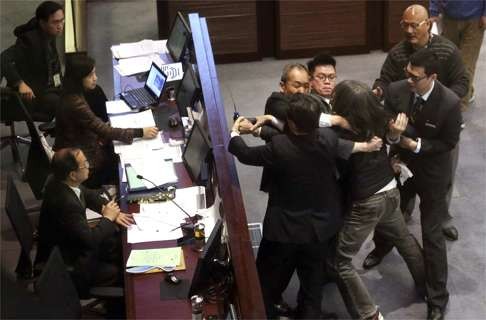
Soon after the vote, around a dozen
activists from Leung�s party, the League of Social Democrats, and the Land
Justice League stormed into the Legislative Council�s lobby.
Scuffles broke out between the activists
and security guards as they tried to rush into the chamber. �The vote is
void! Shame on Chan Kam-lam!� they shouted as they grappled with security,
and police were called in. The activists remained in the legislature for
around three hours before being removed by officers, who carried them out
one by one without any violence.
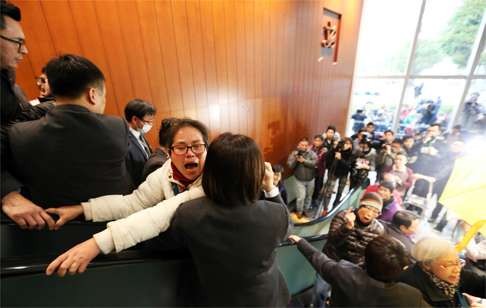
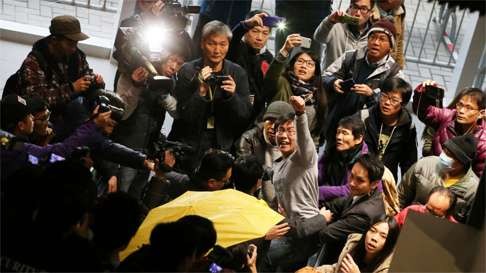
The arguments raged on after the meeting,
over whether Chan�s surprise move was in accordance with Legco rules.
Speaking to the media after the snap vote, lawmaker Cyd Ho Sau-lan, convenor
of an alliance of 23 pan-democrats, apologised to the public for not being
able to block the funding. Ho accused Chan of abusing his power and
described the vote as �violence in Legco�. She did not rule out seeking a
judicial review to overturn the decision.
The pro-establishment camp, however,
insisted that Chan acted fairly and rationally, in accordance with the
rules. Veteran lawmaker Tam Yiu-chung of the Democratic Alliance for the
Betterment and Progress of Hong Kong hailed Chan�s �patient and careful�
conduct. �Chan repeatedly asked the pan-democrats to stop messing around and
return to their seats in order to proceed with the motions,� Tam said. �But
sadly they kept breaking order.� Tam, also an executive councillor, said the
debate had been delayed too many times by the pan-democrats� filibustering.
Former Civic Party lawmaker and barrister
Ronny Tong Ka-wah said it was hard to discern at this stage if there were
reasonable grounds to challenge the handling of the vote in court. Tong
noted that courts had reiterated in previous legal challenges against Legco
president Jasper Tsang Yok-tsing�s decisions to halt filibusters that they
had no intention of interfering with legislative proceedings.
(EJ
Insight) How pan-democrats deceive their supporters. By Wong On-yin.
March 16, 2016.
One of the most disappointing things about
Hong Kong�s pan-democrats is that they are not only incompetent, but they
also, from time to time, deliberately create misconceptions in the minds of
the public in order to deceive the citizens and hold their support base.
The most recent example of that was
seen during the Legco New Territories East by-election late last month,
when pan-democrats
were begging their supporters to vote for Alvin Yeung Ngok-kiu of the Civic
Party.
Yeung
must win to ensure the marginal majority of the pan-democrats in the
geographical constituency in the legislature, the pan-democrats said.
Otherwise, the pro-establishment camp will have enough votes to amend the
Rules of Procedures of the Legco to ban filibuster, which is the only means
the opposition camp has to stop the legco from passing unpopular or unjust
bills submitted by the Leung Chun-ying regime, pan-democrats warned.
Many voters seemed to buy into their sales
pitch and voted for Yeung, who finally beat the DAB candidate by more than
10,000 votes and got elected.
However, what the pan-democrats didn�t tell
their supporters is that filibuster as a means of resistance in Legco had
already been ruled null and void by the High Court four years ago, and as a
result had completely lost its effect both tactically and constitutionally.
The fact that pan-democrats were hiding
this truth from their supporters, so that they can continue to claim moral
high ground and create a deceptive impression that they are bravely standing
up against tyranny, suggests that these people are a bunch of hypocrites
with no integrity whatsoever.
Some of you might doubt that I am wrong, as
a filibuster mounted by the pan-democrats in the Legco recently did strike
down the so-called �Cyber Article 23�. So filibuster still works, doesn�t
it?
At first glance it might have been so.
However the truth is that the government withdrew the Copyright (Amendment)
Bill 2014 not because it was brought to its knees by the pan-democrats, but
simply because the administration just didn�t mind doing so as the bill
itself was politically insignificant and the only people that would be let
down by its withdrawal were a handful of American copyright holders only.
However, based on what happened in the past
few years in Legco, when it comes to important bills that mean life and
death to the government such as the Appropriation Bill, filibusters might
have postponed voting on these bills for a couple of weeks on a few
occasions, but have never succeeded in striking down any single one of these
bills. Simply put, filibusters are just a useless performance in front of
camera staged by the pan-democrats to impress their supporters.
One might still remember that after Legco
President Jasper Tsang Yuk-shing had invoked cloture in May 2011 on a bill
that banned any legislator who had tendered his resignation from running
again in the by-election that followed, radical lawmaker �Long Hair� Leung
Kwok-hung took the case to the High Court and filed a judicial review
application over Tsang�s power to force a vote on the bill.
In May 2012 the High Court ruled in favor
of Tsang, saying that under the principle of the separation of the three
branches, the judiciary had no constitutional right to interfere in how the
legislature was run, and therefore the court agreed that the decision on
invoking cloture rested completely with the Legco president himself.
Then in September 2014 the Court of Final
Appeal again ruled in favour of Tsang citing the same arguments. However,
the significance of these court rulings largely went unnoticed as the public
was captivated by the Occupy Movement at that time.
As Tsang has already vowed that he will not
be running in the upcoming Legco election, the next Legco president,
certainly someone from the pro-establishment camp, might not be as profound
and tolerant as the incumbent, and may invoke cloture much more frequently.
Hence, there will certainly be even less room for filibusters in the next
Legco.
To members of the �Valor Faction (勇武派)� who
intend to run in the election in September, it�s time for them to understand
the truth: filibuster no longer works and is nothing but a farce staged by
the pan-democrats who otherwise cannot come up with any other trick to
please their supporters.
Therefore, it would be a complete waste of
time for anyone who really wants to make a difference to join the washed-up
pan-democrats and take part in their scam in the next Legco.
Videos:
NOW TV
http://news.now.com/home/local/player?newsId=171858 Many
interruptions during the morning. When the meeting resumed at 230am, People
Power's Chan Wai-yip and Chan Chi-chuen and League of Social Democrats'
Leung Kwok-hung took over the chairman's post and refused to leave. The
meeting was suspended again.
NOW TV
http://news.now.com/home/local/player?newsId=171790 At around 740pm,
the police cleared out demonstrators inside the Legislative Council building
at the request of the secretariat.
Oriental Daily
http://hk.on.cc/hk/bkn/cnt/news/20160311/bkn-20160311161125217-0311_00822_001.html
Pan-democratic legislators Chan Chi-chuen, Chan Wai-yip, Lee Cheuk-yan,
Leung Kwok-hung and Gary Fan Kwok-wai rushed up to the acting chairman's
post. Leung Kwok-hung splashed the ink that he brought with him. Chan Chi-chuen
occupied the chairman's seat. Chan Wai-yip sat down on the floor.
Oriental Daily
http://hk.on.cc/hk/bkn/cnt/news/20160311/bkn-20160311194138222-0311_00822_001.html
Demonstrators outside the Legislative Council.
TVB News
http://news.tvb.com/local/56e2c1a76db28ccf38000007/ Demonstrators
charged into the Legislative Council to protest the vote. A number of them
tried to go up the escalator but security guards stopped them. Other
demonstrators were locked outside the building. Both pro-democracy and
pro-establishment camps speak to the press.
Cable TV
https://www.facebook.com/bbtauseeworld/videos/461365950727454/
Demonstration outside the Legislative Council building
RTHK
https://www.facebook.com/bbtauseeworld/videos/461280594069323/ Leung
Kwok-hung splashed black ink on Chan Kam-lam and the secretariat. Four
pan-democratic legislators were ejected.
Ming Pao
https://www.youtube.com/watch?v=49Vm4eHein8 Demonstrators charged
into the Legislative Council building
https://www.youtube.com/watch?v=m0lm0tzpYMU Twelve demonstrators
were carried off by the police
Headline Daily
http://hd.stheadline.com/news/realtime/hk/1054635/
Demonstrators charge into the Legislative Council building after the vote.
Epoch Times
https://www.youtube.com/watch?v=dJnaLdrGNXM Alvin Yeung speaks with
megaphone
https://www.youtube.com/watch?v=KdYX_lL3RZI Leung Kwok-fung vs. Chan
Kam-lam
https://www.youtube.com/watch?v=okxixWuvtGU Occupation of the
chairman's post - Part 1
https://www.youtube.com/watch?v=ypLYGbGTvgo Occupation of the
chairman's post - Part 2
https://www.youtube.com/watch?v=P5rsH598ydw Demonstrators carried
off by the police
Chu Hoi-dick's Facebook
https://www.facebook.com/HongKongGoodNews/videos/1048226825251253/
Demonstration outside the Legislative Council
Oliver Yip
https://www.facebook.com/yin.yip.96/videos/448955638643915/ Young
man harassing uncles and aunties is harassed by them outside the Legislative
Council.
Resistance Live Media
https://www.youtube.com/watch?v=bAAtQec0d7U
https://www.youtube.com/watch?v=6wz1Qqr0DHc
Demonstrators charge into the Legco building
https://www.facebook.com/HKDiscussForum/videos/943341829048216/
Legislative Council session on the two votes to fund Express Rail Link.
Internet comments:
- (Bastille
Post) In 2010, there were 10,000 persons voicing their opposition to
the funding of the Express Rail Link at the Legislative Council. Yesterday
when the Legislative Council passed the extra funding of the Express Rail
Link, 12 protestors were arrested.
Land Justice League member Chu Hoi-dick was
present in 2010 as well as yesterday. He founded the Land Justice League
after the 2010 demonstration and he has continued to oppose the Express Rail
Link since. Yesterday he gave two reasons on why the turnouts were so
differently. Firstly, the people have lost confidence in the effectiveness
of protests, because it was like banging your head against the wall with no
effect. Even idealism will have to deal with defeat.
Secondly, different factions and different
thoughts are no longer mutually inclusive. In recent years, the Valiant
Resistance movement have criticized the lefist social activists relentless
for insisting on moral correctness but achieving nothing. Therefore many
activists have left because they don't want to be stereotyped, smeared, and
insulted.
An informed source said that Chu Hoi-dick
was only scratching the surface without getting to the underlying reason.
Nothing fails or succeeds without reason. The reason why there were 10,000
people was because various forces mobilized their people. Today nobody came
for the simple reason that those forces did not mobilize their people.
For example, the Localists (Hong Kong
Indigenous, Civic Passion, etc) want to focus on the issues that they are
leading on, such as radical resistance actions and legislative council
elections. They do not regard Express Rail Link as a major issue for them.
If they show up, they will only be lending their support to their rivals. Therefore
you don't see them around.
- Present to be counted: League of Social
Democrats (Raphael Wong, Tsang Kin-sing); People Power; Shopping
Revolutionaries (Chin Po-fun); Land Justice League; Lau Siu-lai, etc.
Absent/missing in action: Civic Passion; Hong Kong Indigenous; Hong Kong
Localism Power; Valiant Frontier; Keyboard Frontier; North District
Parallel Imports Concern Group; Hong Kong City-State; Scholarism; Hong
Kong Federation of Students; etc.
- (Bastille
Post) The Legislative Council Finance Committee passed the extra
funding of the Express Rail Link in a seemingly controversial manner.
Previously, informed sources told me that they were confident that the
measure would pass. This was not because they knew that committee acting
chairman Chan Kam-lam would violently stop the filibustering. Instead, they
said that they were coordinating through middlemen with the pan-democratic
legislators all along, including both the large traditional parties and the
small radical parties. These middlemen believed that the pan-democrats knew
that they could not afford to bear the responsibility if the project was
killed off at this stage.
On television, you see the pan-democrats
surround the acting chairman to scream and yell before the vote, but in
truth they had no intention of stopping him. After the vote, the
pan-democratic camp said that the vote was invalid while the
pro-establishment camp said that the vote was justified under the
circumstances blah blah blah. In truth, all that was just a sideshow because
all the actors and actresses knew what the outcome had to be.
- (HKG
Pao) Last time around on the Copyright Amendment Bill, the
pan-democrats dallied around with filibustering and quorum calls. But the
government made a surprise move by withdrawing the bill from further
consideration and thus putting the blame squarely on the pan-democrats. On
television the pan-democrats were in complete disarray, as they wished the
government could make some symbolic concession to let them pass the bill in
order to satisfy the American copyright holders. So the pan-democrats knew
this time that they could not let this happen again. Therefore, we have this
piece of lousy acting.
- The whole affair is like the
Shumai
offered by the restaurant this morning -- it was all prepared overnight.
When you order it, it is heated up and brought out. However, the acting was
incredibly bad (especially "Village Mayor" Raphael Wong (League of Social
Democrats vice-chairman and legislator Leung Kwok-hung's aide).
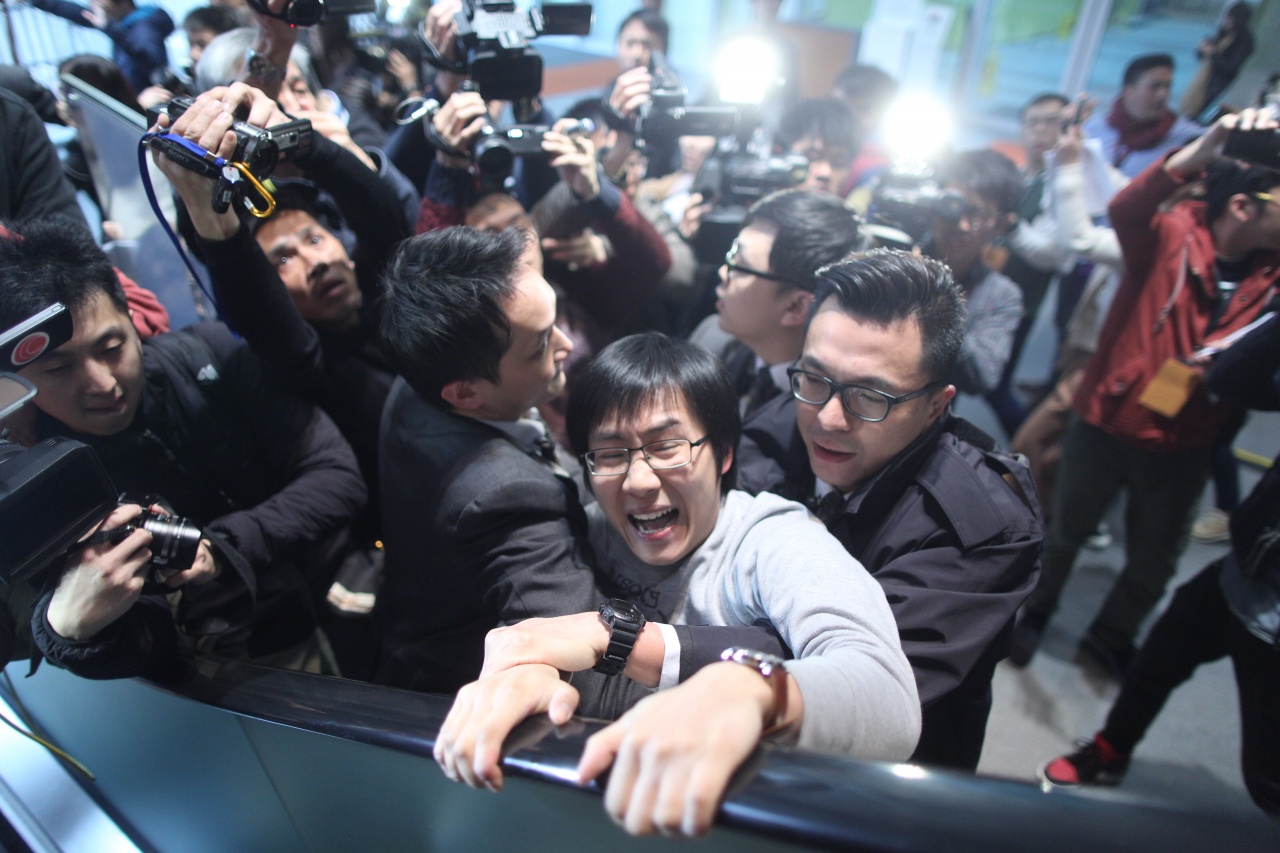
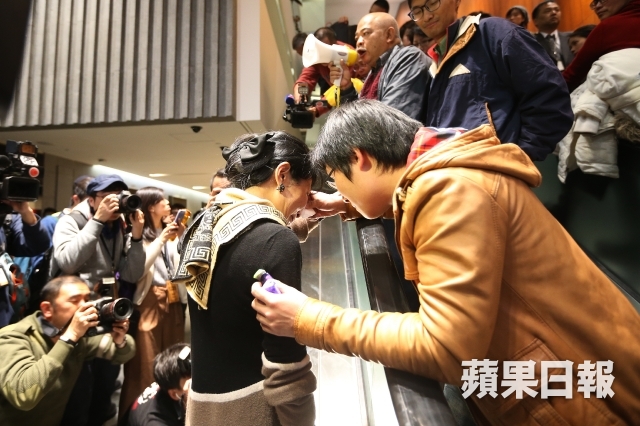
Raphael Wong (League of Social Democrats) and
Claudia Mo (Civic Party) embrace and shed tears at not being able to fight
for that big hole in the ground in Kowloon West.
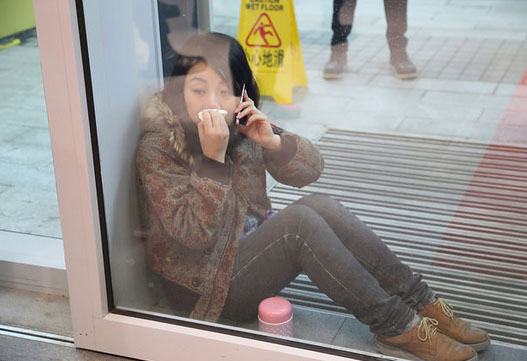
Best Actress Award goes to Lau Siu-lai, who
was crying because the PLA will be
coming down to Hong Kong via the Express Rail Link. (InMediaHK)
Lau was shut out of the building before the doors were locked. She began
crying outside. A policeman said: "Is she done with crying? She is really
annoying."
- (Oriental
Daily) When acting Chairman Chan Kam-lam decided to call for a vote, no
pan-democratic legislator offered any motion in objection. Chan Kam-lam then
ordered a vote on the first motion to allocate extra funding to the Express
Rail Link. The motion was passed without anyone objecting. Chan Kam-lam then
ordered a vote on the second motion to allocate extra funding to the Express Rail
Link. The motion was also passed without anyone objecting. The meeting was
then adjourned. So the pan-democrats had at least three chances to postpone
the voting. They did not act.
The explanation from one pan-democratic
legislator was that Alvin Yeung was speaking very loudly through his
megaphone, and the nearby pan-democratic legislators could not hear what
Chan Kam-lam was saying. Meanwhile the pro-establishment legislators said
that the pan-democrats deliberately let the motions pass because they knew
that they would be held responsible for a large number of construction
workers losing their jobs as well as tens of billions of sunk costs going
down the drain. Therefore the pan-democrats acted deaf and dumb, and blamed
the pro-establishment camp for pulling off a dirty trick.
- Were the pan-democrats fighting every
inch of the way? You betcha!
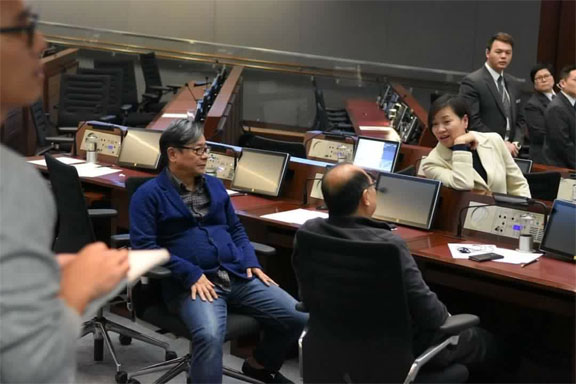
Here is radical legislator Raymond Wong shooting the breeze with
pro-establishment legislators Leung Mei-fun and Lam Tai-fai. Wong jumped
on the table to pose for television after the vote.
- (HKG
Pao) March 12, 2016. Everybody had expected the Legco debates would
go down the wire. But amidst the chaos of flying ink and three adjournments,
it was the turn for newcomer Alvin Yeung. He brought along a megaphone to
make his speech, and acting chairman Chan Kam-lam ordered him to leave
immediately for disorderly conduct. Immediately the pan-democrats jumped up
from their seats and rushed over to form a human wall to defend Yeung and
his megaphone. So
there we have the sight of more than twenty pan-democrats worth millions of
dollars in pay per month trying to defend the Yeung's megaphone which is a
low-tech gadget worth just a few hundred dollars. In the end, Chan Kam-lam
asked several times "If you don't get back into your seats, I'll take the
vote" without response and so he went ahead with the vote. That was the rout
of the battle to stop extra funding of the Express Rail Link.
After the dust settled, Chan Chi-chuen ran
around and babbled nonsense. Cyd Ho was in tears apologizing to the 7.3
million Hong Kong citizens. So this was a even bigger fiasco than the veto
of the reform of the Chief Executive election when the pro-establishment
legislators went outside to wait for Lau Wong-fat to arrive.
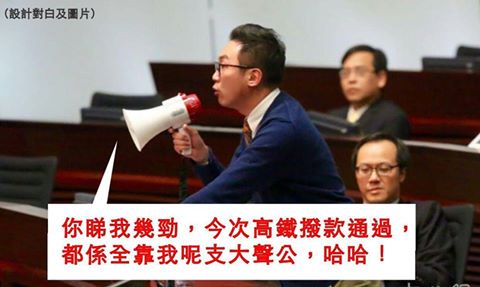
Spoof of Alvin Yeung: See how awesome I am!
The extra funding of the Express Rail Link was passed because of my
megaphone. Haha!
- Alvin Yeung is a barrister by profession.
What is the purpose of the megaphone? With a megaphone, you can outshout someone
else without a megaphone. This means that you rest your case not on some
reasoning, but on the volume of your voice. You don't need to go to Law
School to do this. All you need is to buy the loudest megaphone out there.
- Alvin Yeung is such a weirdo, because
(1) When he was studying in Beijing, he sang praises of mainland China. Now
that he is back in Hong Kong, he says mainland China is hell on earth.
(2) He was politically mentored by his predecessor Ronny Tong Ka-wah, but
they are not on speaking terms now.
(3) When there was a riot in Mong Kok on Lunar New Year's Day, he said that he was
providing legal service. But he got evasive when it was pointed out that
barristers cannot be making direct solicitations for business. He showered loving care on
the rioters, but not a single word of sympathy went to injured reporters and
police officers.
(4) He said that he wanted to enter the Legislative Council in order to get
things done. So his first act as a Legislator was to demand a quorum call in order
to filibuster.
- (Oriental
Daily) Alvin Yeung said that the vote was taken before he used his
allotted
seven minutes. He said that what he had to say may influence the preferences of
the pro-establishment legislators and therefore he wanted the vote to be
taken again. However Finance Committee chairman Chan Kin-por said that only
the Legislative Council chairman has the right to nullify the vote. Chan added:
"I understand that you are a new legislator and you are unfamiliar with
a lot of
things." Legislator Wong Kwok-kin said that Alvin Yeung violated discipline
by using a megaphone to speak. Acting chairman Chan Kam-lam had kicked Yeung
out of the chamber already, so Yeung had lost his right to speak.
- On8 Channel (Wong On-yin) Facebook
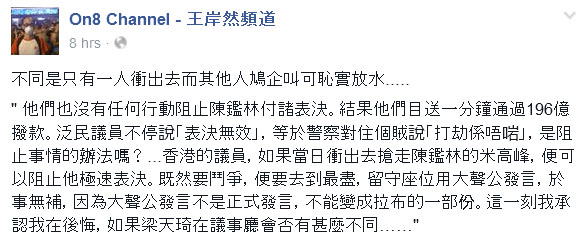
Only one person rushed out while the others stood around chanting.
Shameful! They were deliberately shirking off ...
"They did not take any action to prevent Chan Kam-lam from calling for the
vote. In the end, they watched $19.6 billion in funding passed within one
minute. The pan-democratic legislators kept saying that "the vote was
invalid", but this is the same as the police telling the robber that "it is
wrong to rob." Is this anyway to stop it from happening? ... If the Hong
Kong legislators charged out and took away Chan Kam-lam's microphone, they
would have stopped him from calling for that quick vote. If you want to
resist, you must go all the way. It is no use to stay in your seat and yell
with a megaphone, because what you say on the megaphone is not part of the
official transcript and cannot be part of the filibustering. At this moment,
I admit that I am sorry about how things might be different if Edward Leung
was the one in the Legislative Council ..."
What is this talk about how Alvin Yeung was
useless and that things would have been different had Edward Leung been
elected instead? Well, well, well. At the time when Chan Kam-lam announced a
vote was on, five legislators (Chan Wai-yip, Chan Chi-chuen, Leung
Kwok-hung, Lee Cheuk-yan and Claudia Mo) had already been expelled for
disorderly conduct. Furthermore, the doors were barred so that the five could
not re-enter. Back in the main chamber, Alvin Yeung brought out his
megaphone to speak and he too was ejected. However, the other pan-democrats
formed a ring around Yeung to prevent the security guards from removing him
and Raymond Wong stood on his desk to speak. Then Chan Kam-lam announced that the vote
was on. Gary Fan Kwok-wai, Raymond Wong and Alvin Yeung rushed towards the
chairman but there were stopped by a row of about a dozen security guards.
Given these circumstances, what do you
think Edward Leung can do? Do you think that he is so valiant, brave and
powerful that he will be able to overwhelm a dozen security guards with his
bare hands? Or did he bring a bottle of acid in his pocket to take out and
use at the right moment? Or a petrol bomb? Unfortunately we don't know the
answer, because this is just speculative. We will have to wait until
September. If and when Edward Leung is elected, we will see what he can so
that he won't be expelled or stopped by the security guards like everyone
else so far.
- Edward Leung would have tried to break
through but he will be stopped. Then he will post on the Hong Kong
Indigenous Facebook that they need people to donate more money to them.
- The premise of Hong Kong Indigenous is
that they need someone inside the Legislative Council to work with those on
the outside, in the same way that Hong Kong University Student Union
president Billy Fung let the demonstrators gain entrance to the university
council meetings. But you cannot assume that the Legislative Council
security arrangements are static like the
Great Wall of China. Because if the existing arrangement is breached
once, it will justifiably be upgraded in the future. If ten security guards
are not enough this time, they will have thirty next time. If thirty
security guards are not enough, they will invite the police Special Tactical
Squad in. If the STS is not enough, they will invite the PLA in.
- (TVB)
The next day at the Finance Committee meeting, Lee Cheuk-yan said:
"Yesterday Chan Kam-lam clearly took advantage of the confusion to help the
government rob the citizens out of $19.6 billion. The questioning was not
completed and the 37A was not processed yet before the vote. We feel that
the vote was invalid. I have a motion of no confidence in the manner by
which acting chairman Chan Kam-lam handled things. I ask you to declare
today that the vote yesterday was invalid." To which chairman Chan Kin-por
said: "Because the agenda today does not contain the item that you are
talking about, your question is out of order. I've heard
what you said. Next!"
- (Facebook)
On the next day, the Legislative Council Finance Committee was supposed to
meet on matters related to healthcare. As soon as the meeting started, Civic
Party legislator Alan Leong motioned for an adjournment. The reason that Leong gave was
that he was not in a good mood!!! Also Chan Chi-chuen thought that he liked
Raymond Wong's standing-on-the-desk act yesterday, so he took off his shoes
and jumped on the desk too.
- Why do the pan-democratic legislators do
these things?
(1) The job pays $93,000 a month.
(2) And you have fun and joy every day at work. Just look at the beaming
smiles on the faces of Chan Wai-yip, Chan Chi-chuen and Leung Kwok-hung.
Oh what fun and joy it is to filibuster!
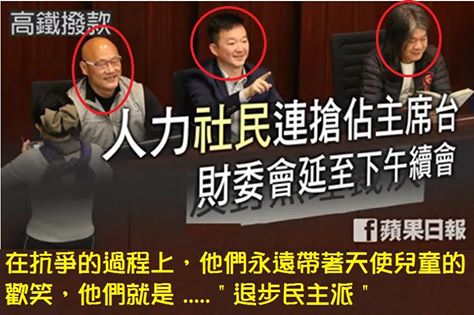
- D100
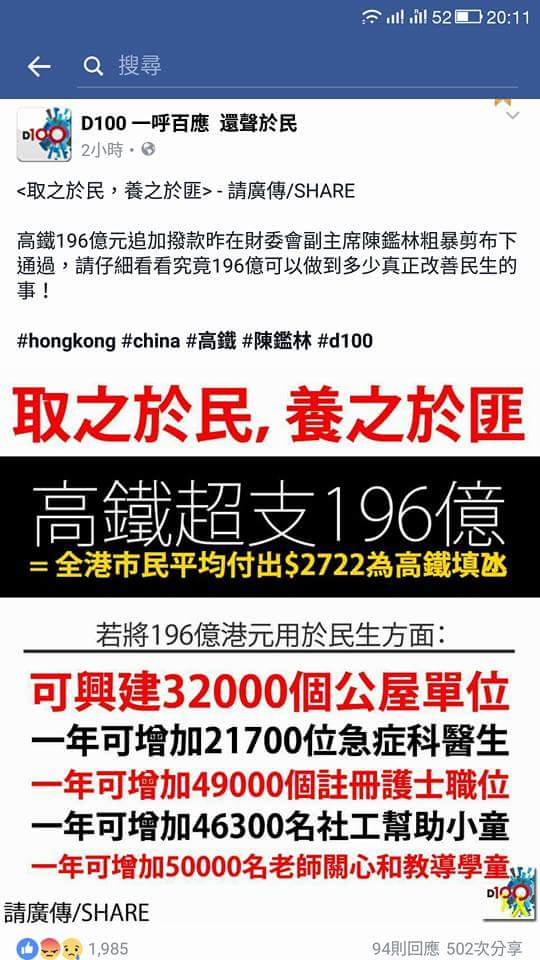
- Express Rail Link's $19.6 billion cost overrun could be used on livelihood
issues:
It can build 32,000 public housing units
It can pay for 21,700 more emergency room doctors for one year
It can pay for 49,000 more registered nurses for one year
It can pay for 46,300 more social workers to look after small children
It can pay for 50,000 more teachers to teach and care for students
That may all be technically true,
but the $19.6 billion to complete the Express Rail Link is a one-time-only cost.
The cost of the healthcare system is more than $50 billion per year, which
recurs year after year. You cannot just hire 21,700 more emergency room doctors,
because they have to work in some kind of facility with the proper equipment
(such as hospital beds, x-ray machines, CT/MRI/Ultrasound devices, waste
disposal systems, air
conditioning, morgue, etc) and supporting personnel (such as nurses,
radiologists, physical therapists, nutritionists, pharmacists, database programmers, cashiers,
administrators, insurance processors, telephone operators, ambulances, etc). Besides, you can't hire 21,700 more emergency room
doctors even if you want to because qualified people are not available in such
numbers.
- Hong Kong Localism Power
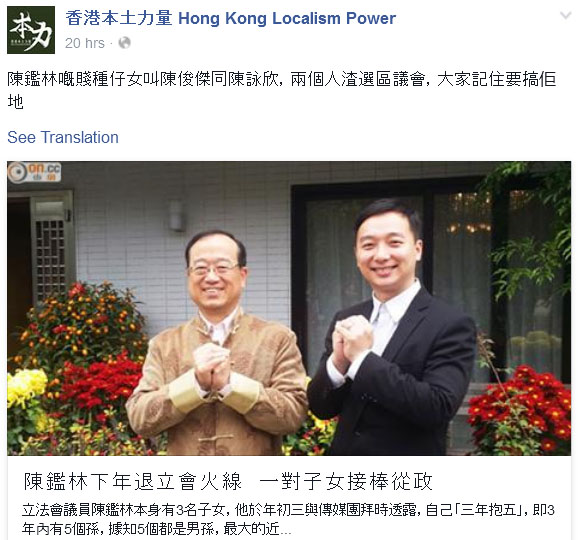
Chan Kam-lam's children are named Chan Chun-kit and Chan Wing-yan. These two
pieces of trash will be running for district councilor. Everybody remember to
harass them.
(Wen
Wei Po) March 14, 2016.
After the vote for extra funding
for the Express Rail Link, League of Social Democrats vice-chairman Tam Tak-chi
wrote on Facebook: "Somebody asked me where Chan Kam-lam lives. Does that person
want to do something stunning? I told that person to be careful. Sha Tin Pass
Road, Shap Yi Watt Village. Everybody knows that." Then Tam used a conversation
between husband and wife to pinpoint Chan Kam-lam to be "near the Kuan Yin
Temple in Shap Yi Watt village."
One Internet user noted that after
tonight, "there is good chance that Chan Kam-lam will be living in Wo Hop Shek
tomorrow." Wo Hop Shek is the name of a major cemetery in Hong Kong. Another
Internet user said that while nothing will change because the vote was final,
"at least we can give Chan Kam-lam's mother a fright." A third Internet
user wrote: "Tam Tak-chi, do it quickly. You are a Hot Dog (=Civic Passion)
bastard if you expect others to do what you fervently wish for in your heart. I
hope that's not what you are." Tam replied: "I have always followed the
non-violent path" and "Do I want to beat up Chan Kam-lam? Today at the
Legislative Council ... I wanted to go over and beat him up. Long Hair (=League
of Social Democrats legislator Leung Kwok-hung) said it would be doing that
piece of shit a favor." A fourth Internet user wrote: "Hey, I want a take-out
food order. Two bowls of lotus seed soup." In Chinese, the lotus seed is the
term for bullet.
Meanwhile the Longsee Facebook
posted Chan Kam-Lam's address as Number 14, Shap Yi Watt Village, Sha Tin, New
Territories. They suggested: "If Hong Kong citizens are interested, they can
look up Legislator Chan and thank him for his great accomplishments. Hey hey
hey, this is information publicly disclosed by the Election Affairs Committee so
it is not illegal. Don't blame me."
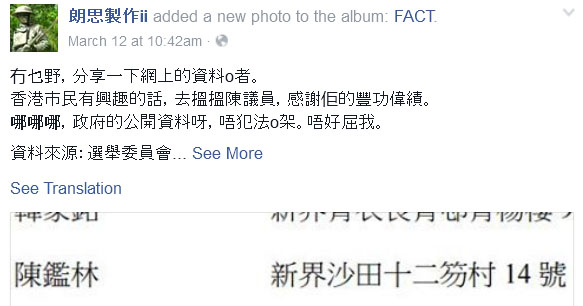
- If you can't reach Chan Kam-lam
personally, you can reach his family. According to information, the Korean ice
cream shop Honey Creme in Lei Garden Road in Causeway Bay was founded by Chan
Kam-lam's son-in-law. Recently, Internet users went to Honey Creme's Facebook
and left comments demanding repayment of the $19.6 billion that Chan Kam-lam
stole from the people of Hong Kong. As of today, the Honey Creme Facebook has
been deleted
so that people cannot leave more comments. An Internet user also went to the
location on March 16 and spotted only about 6 customers between 7pm to 8pm. Will
Honey Creme be heading the way of the
Hei Kee Crab General?
- The problem with using a
megaphone is that what comes around comes around. You are not the only who has a
megaphone. If you use it on someone, someone else will use it for you.
(Oriental
Daily) March 27, 2016. The Hong Kong Self-Rule Movement organized a
forum featuring speakers Leung Kam-shing (North District Parallel Trade Concern
Group), Martin Wong, Chan Wai-yip (League of Social Democrats), Gary Fan Kwok-wai
(Neo-Democrats) and Tam Tak-chi (People Power). After the presentations, there
was a Q&A session. The localist nicknamed Steamed Fish On got up and posed a
question to Chan Wai-yip. As Chan responded, Tam took out a megaphone to drown
out Chan. Another audience member named Chiu tried to stop Tam. There was a
quarrel between Tam and Chiu. At the end, Tam summoned the police because he
said that his megaphone was damaged. The police came. After mediation, Tam
agreed not to file charges.
SocREC video:
https://www.youtube.com/watch?v=NG0ROyMmk1w
(Hong
Kong Research Association) 1,187 persons interviewed by automated
telephone in Hong Kong during March 1-7 2016.
Q1. Did you pay attention to the
results from the New Territories East Legislative Council by-election?
74%: Paid attention
15%: Half-half
7%: Paid no attention
2%: Hard to say
3%: No opinion
Q2. Traditionally the political
spectrum in Hong Kong is divided into the pro-establishment camp and the
pan-democratic camp. Some people think that this by-election shows that the
radical localists have become a third force in the political spectrum. Do you
agree?
43%: Agree
30%: Disagree
22%: Hard to say
5%: No opinion
Q3. Are you a New Territories East
registered voter?
35%: Yes
66%: No
The rest of the questions are
asked of NTE registered voters only:
Q4. How satisfied are you with the
overall arrangements for this by-election?
50%: Satisfied
30%: Half-half
13%: Dissatisfied
7%: No opinion
Q5. Do you think that there was an
intense atmosphere around this by-election:
40%: Intense
45%: Half-half
11%: Not intense
4%: No opinon
Q6. Did you vote in this New
Territories East Legco by-election?
85%: Yes
15%: No
Q7. What is the main reason why
you voted? [Base: Those registered voters who voted on election day]
35%: To show that I oppose a certain candidate/political group/faction
41%: To show that I support a certain candidate/political group/faction
4%: Habit
17%: Fulfill my civic duty
3%: Other
0%: No opinion
Q8. What is the main reason why
you did not vote? [Base: Those registered voters who did not vote on election
day]
9%: Unsure which candidate/political group to choose
12%: Don't care about politics
18%: Don't agree with the political groups to which the candidates belong
13%: No time to vote
14%: No candidates that I like
8%: Voting can't change things
4%: A by-election is unimportant
16%: Other
5%: No opinion
Q9. When did you made the final
decision on whom to vote for? [Base: Those registered voters who voted on
election day]
20%: On the day of the vote
30%: Within one week of the vote
12%: Within two weeks of the vote
36%: More than two weeks before the vote
3%: No opinion
Q10. Whom did you vote for? [Base:
Those registered voters who voted on election day]
2%: Lau Chi-shing
4%: Nelson Wong
27%: Holden Chow
1%: Leung Shi-ho
5%: Christine Fong
15%: Edward Leung
35%: Alvin Yeung
3%: Blank/void
8%: No opinion
Q11. Which political party/group
do you support most?
6%: People Power/League of Social Democrats
21%: Federation of Trade Unions/DAB
3%: Labour Party/ADPL/Street and Neighbourhood Workers
11%: Civic Party
10%: Democratic Party
2%: Liberal Party
3%: New People's Party
9%: Other political parties
35%: No clear preferences (including those who support no political parties;
independents; don't know)
In the cross-tabulation of
candidates voted for versus most supported political parties,
Holden Chow:
69%: FTU/DAB
13%: New People's Party
4%: Liberal Party
13%: Others
Edward Leung:
25%: People Power/League of Social Democrats
19%: Civic Party
3%: Democratic Party
3%: FTU/DAB
3%: Labour Party/ADPL/Street and Neighbourhood Workers
38%: Others
Alvin Yeung:
33%: Civic Party
15%: Democratic Party
10%: People Power/League of Social Democrats
3%: Labour Party/ADPL/Street and Neighbourhood Workers
3%: Others
(Hong
Kong Free Press) New �localist� CUHK student leader will not veto any
method if effective and supported by students. February 22, 2016.
A group of students who identify as �localists� have been elected to run
the student union in the Chinese University of Hong Kong (CUHK). When asked
about what their �bottom line� is, the newly-elected leader of the student
union stated that they would not veto any method of resistance so long as it
was effective and supported by students.
The win marked a change from the usual �leftist� student leadership in
the school in previous years. Chow Shue-fung, president of incoming localist
cabinet Spark, said that the election was a battle between the traditional
left-wing ideology and the ideas of localism. He also said that the victory
was not just a result of his cabinet�s efforts; rather, it was a triumph of
the rise of localism.
Chow also said that the voting results showed that localism had become an
unstoppable force amongst students. He believed that even if Spark was not
elected, CUHK would also become gradually �localised�, and that it was the
general trend amongst students.
The localist camp is tied with various movements related to the expansion
of Hong Kong�s autonomy, for example advocating for city-state status or
outright independence. Last week, new University of Hong Kong (HKU) student
union president Althea Suen associated localism with �seeing Hong Kong as
their �home�, and wanting to prioritise the interests of Hongkongers and
protect the city�s core values.�
For the first time in 19 years, there was more than one cabinet running
for student union in CUHK. Spark obtained 2,343 votes � meaning around 60
percent of the total � beating its competition, Illuminant, by around 800
votes.
The voting turnout, however, was only around 23 percent, similar to
previous years. Chow said that this was because the incumbent student union
faced a manpower shortage problem, leading to long queues at polling
stations which put students off, Ming Pao reported. Chow also said that the
voting turnout went up following the Mong Kok unrest which broke out over
the government�s clearing of street hawkers earlier this month.
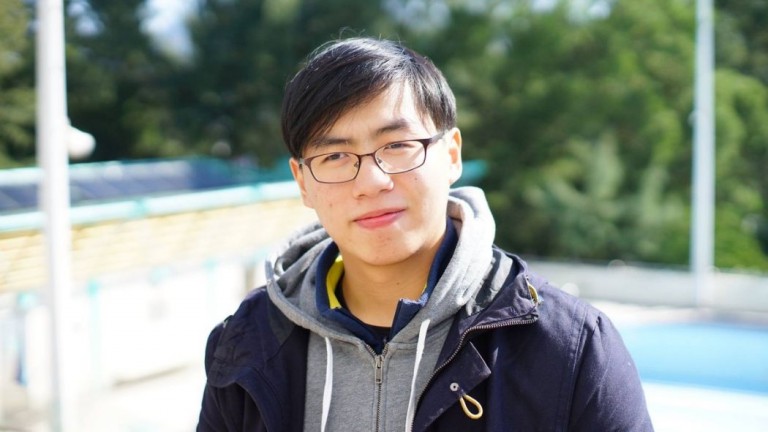
A member of Chow�s cabinet was arrested in connection with the
Mong Kok unrest earlier this month. Chow said that he respected that
member�s decision and was confident that his performance in student union tasks
would not be affected by his legal troubles.
In an earlier interview, Chow had said that they would �fight valiantly
with force�. When asked whether there was any bottom line with regards to
the use of force, Chow said that the cabinet would not veto any method so
long as it was effective and was not opposed to by CUHK students.
However, like HKU�s Althea Suen, Chow said that the student union was not
a political party and that they would have to take into considerations the
students� interests, RTHK reported. He also said that the traditional
peaceful methods of protest, such as singing and marching, had been proven
to be ineffective.
Reforms proposed by Spark included introducing fast food chains such as
McDonald�s into the campus and holding the first-ever e-Sports competitions
at the university.
(HK01)
March 9, 2016.
The Nazi salute is illegal in Germany and
other countries, but recently a Hong Kong student aroused controversy with
the Nazi salute. <HK01> received a complaint from a foreign student at
Chinese University of Hong Kong about the incoming student union president
Chow Shue-fung making a Nazi salute-like pose at a recent event. The student
said that he was shocked at the photo and felt offended by the gesture. He
thought that this was not something that a student leader or anyone who knows
and respects history should do. The student said that he sent the email to
HK01 because he wants public attention to the tragic history behind the
gesture. Chow admits that he was the individual in the photo.
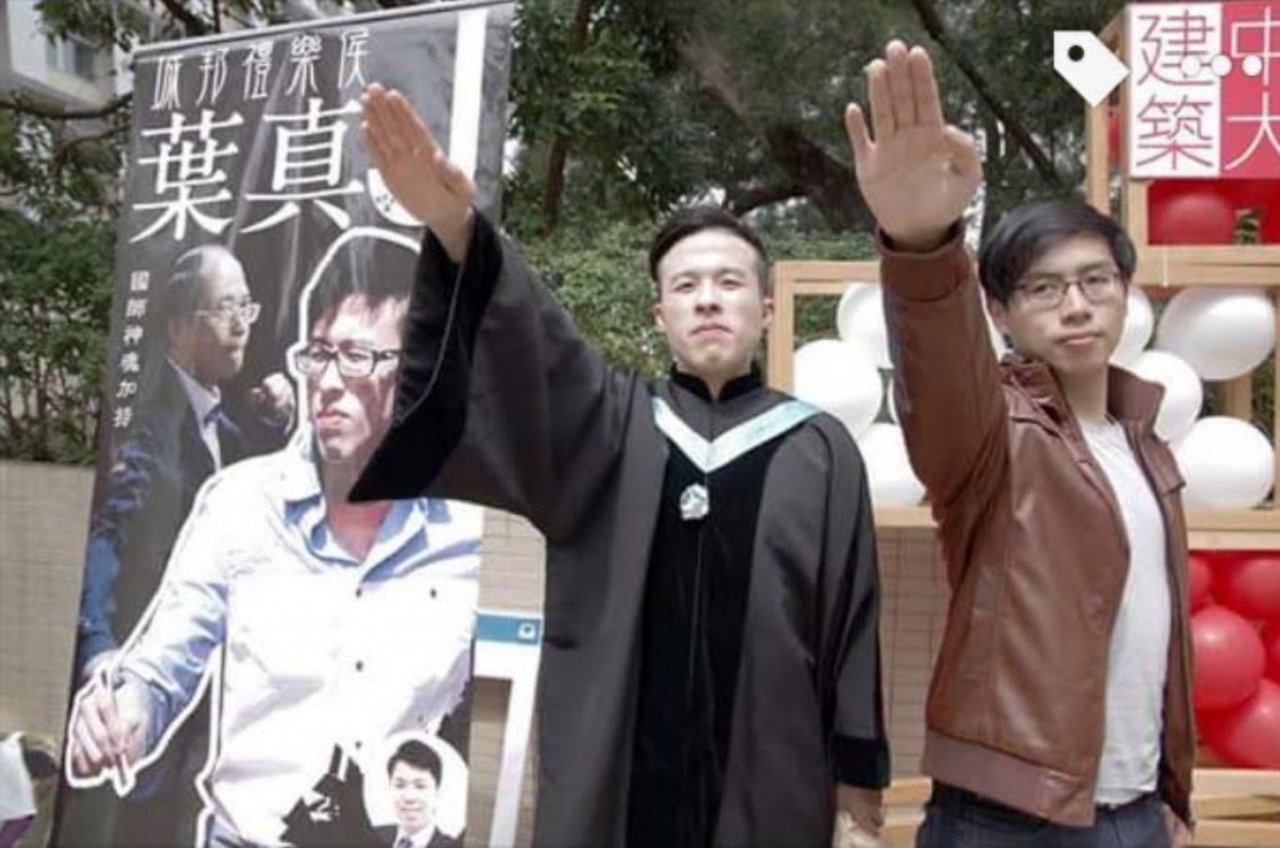
Chow Shue-fung replied: "I made that pose
at the request of a friend. That pose can stand for many things, just as
Superman ready to take flight. If that student felt offended, he can contact
me. I will explain it to him in person."
Chow Shue-fung's Facebook
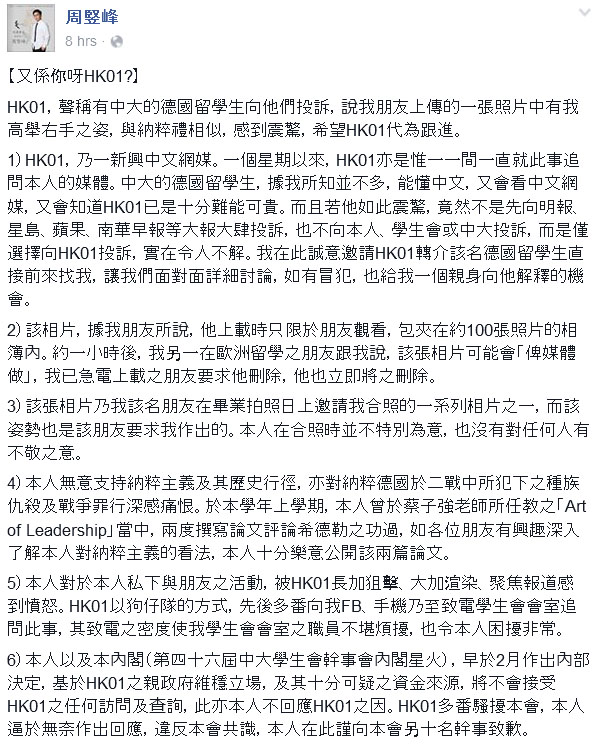
Chow Shue-fung
[You again, HK01?]
HK01 claimed that a foreign student from Germany at Chinese University of
Hong Kong complained to them that a photo that my friend uploaded had me
raising my right hand in the manner of the Nazi salute. That photo shocked
him and he wanted HK01 to follow up.
(1) HK01 is a new Chinese-language Internet media outlet. For the past
week, HK01 is the only media outlet that has been pursuing this case with
me. According to what I know, there are not many German students at CUHK and
it is rare that there is one student who knows Chinese, reads
Chinese-language Internet and knows about HK01. If he was so shocked, then
why didn't he complain to Ming Pao, Sing Tao, Apple Daily, South China
Morning Post and other newspapers? Why didn't he complain to me, the Student
Union or the University? Why did he only complain to HK01? This is puzzling.
Here I sincerely ask HK01 to refer the student to seek me out directly so
that we can discuss this in person. If I offended him, I want an opportunity
to explain to him in person.
(2) As my friend said, this photo was uploaded for viewing by his friends.
It was included in a folder of about 100 photos. About one hour later,
another friend who is studying in Europe told me that the photo is likely
being used by the media to create a story. So I immediately called the
friend who uploaded the photo to remove it. He removed it immediately.
(3) This photo was among the photos that my friend took with me at his
graduation ceremony. The pose was made at the request of this friend. I did
not pay any special attention when I took the photo, and I did not intend
any disrespect to anyone.
(4) I do not support Nazism and its historical acts. I detest the racism and
war crimes that Nazi Germany committed during WWII. In the first semester
this year, I attended Ivan Choi's Art of Leadership class and I wrote two
essays about Hitler's rights and wrongs. I am willing to publish those two
essays for anyone who is interested in my views on Nazism.
(5) I am angry that HK01 would ambush me over my private activities with my
friends. HK01 used the paparazzi method to ask me about this affair via my
Facebook, mobile phone and the Student Union office. The frequency of calls
annoyed the Student Union workers and myself.
(6) I along with our cabinet (the 46th CUHK Student Union cabinet Spark)
have made an internal decision in February that since HK01 has a
pro-government position and its funding is very suspicious, we will not take
any interviews or inquiries from HK01. This is the reason why I will not
respond to HK01. HK01 has harassed our union many times and I am forced to
make this response against the union's consensus. So here I have to
apologize to the other executives of the Student Union.
Internet comments:
- (Wikipedia)
Today in Germany, Nazi salutes in written form, vocally, and even
straight-extending the right arm as a saluting gesture (with or without the
phrase), are illegal. It is a criminal offence punishable by up to three
years of prison (Strafgesetzbuch section 86a).
- Chow Shu-fung said: "If that student felt
offended, he can contact me. I will explain it to him in person." Indeed,
Chow will "fight valiantly with force" against that whiner.
- Unless, of course, that complainant is a 6'10" 320-pound American football
player in which case Chow will just shut the fuck up.
- Chow said that he pose in that manner at
the request of his friend. If his friend told him to pull his pants down,
would he? Probably not, because even Chow knows that it is wrong. In this
case, Chow doesn't know that performing the Nazi salute is wrong, especially
when it is totally unnecessary.
- The focus so far has been on Chow. He is fair game because he is the
president of the CUHK Students Union and therefore a public figure/official.
But what about his friend who made Chow pose that way? Chow said that he did
not mean offense, but who was his friend trying to intimidate/insult/mock?
- Chow said that the pose can mean many things, such as Superman getting
ready to fly. But he simply won't say what he or his friend meant at that
particular moment.
- One of the consequences of the 'opening'
of Eastern Europe (including Poland, Ukraine, etc) is the emergence of
pro-Nazi
skinhead
movements. As Hong Kong 'opens' up, we should expect to see how own pro-Nazi
racist movements, in the manner of White Aryan Resistance, Blood and Honour,
and Hammerskins. We expect that they will expound a theory of racial
cleansing to make sure that the Blood of the Hong Kong Race is not
contaminated by inferior mainland Chinese species.
- On the Hong Kong Internet, there is a
saying that there is truth when there is a photo. Here is a photo of Adolf
Hitler demonstrating the proper Nazi salute by extending the right arm in
the air with a straightened hand. Then there is a photo of tens of thousands
of Germans making the Nazi salute. Finally there is a photo of Superman
extending his right arm in the air with a closed fist. Conclusion: Chow Shue-fung does not read his comics very closely.

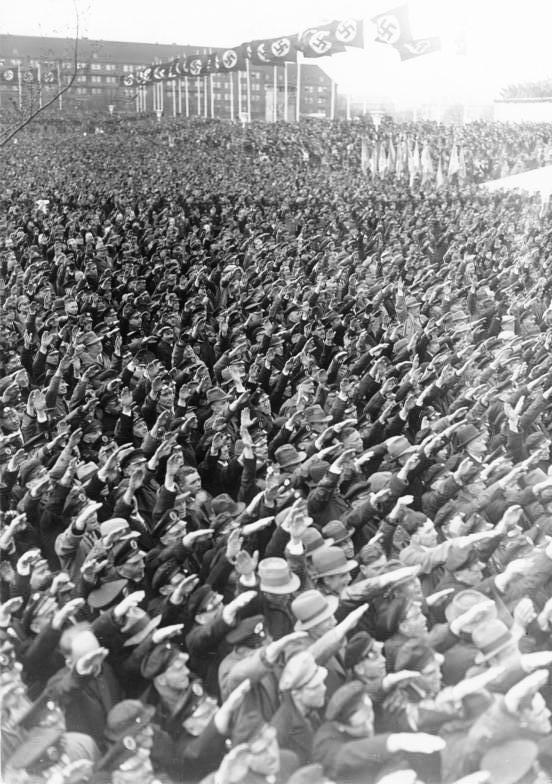

- On July 18 2015, The Sun published an
image of the Elizabeth II (then a young girl) and the Queen Mother
performing the Nazi salute.
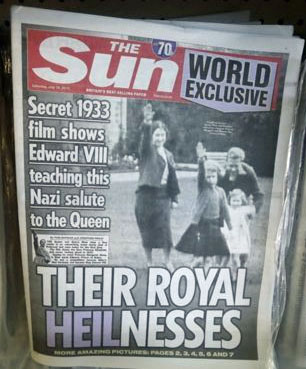
If the Hong Kong localists believe that the path to independence is by
returning Hong Kong sovereignty from Hong Kong to the United Kingdom and the
Queen of England can perform the Nazi salute, then so too can localist Chow
Shue-fung.
- If the Journalists Association threw a
fit when TVB said that they will refuse to take any more Next Media
interviews, what will they do when the CUHK Student Union refuses to take
any more HK01 interviews/inquiries?
- (BBC)
August 6, 2017.
Two Chinese tourists were arrested in
Berlin for making Hitler salutes outside the German parliament on Saturday.
Criminal proceedings have been started
against the middle-aged men for using symbols from a banned organisation.
The pair have been released on bail of �500 (�450; $600) each. Germany has
strict laws on hate speech and symbols linked to Hitler and the Nazis. The
men - aged 36 and 49 - could face a fine or a prison sentence of up to three
years, according to police.
- In Hong Kong, we have genuine freedom of
expression. We can do all the Nazi salutes that we want, and we won't get
into legal trouble.
Sieg
Heil!
(Oriental
Daily) March 9, 2016.
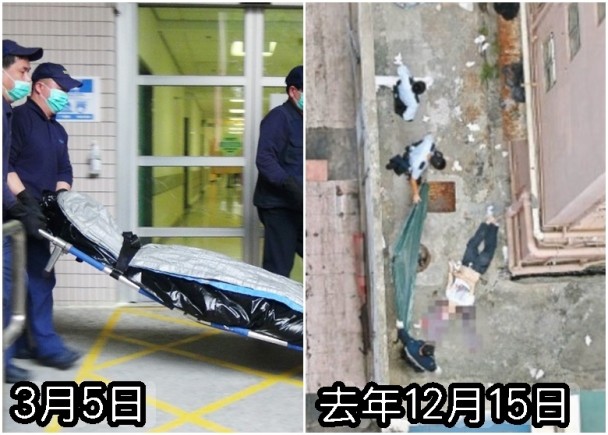
September 7, 2015: 21-year-old
Chinese University of Hong Kong Diploma of Education male student leaped to his
death from his Tsz Wan Shan home due to problems with his studies.
November 3, 2015: 21-year-old
Polytechnic University Electronic and Information Engineering male student
leaped from his Sha Tin home due to family problems.
November 4, 2015: 21-year-old Shue
Yan University Counseling and Psychology female student leaped from a building
in Sau Kei Wan due to problems with studies and emotions.
November 19, 2015: 18-year-old
Chinese University of Hong Kong English Department female student leaped from
her Aberdeen home due to academic pressures.
December 15, 2015: 22-year-old
Chinese University of Hong Kong male student leaped from his Sai Wan home.
January 20, 2016: 21-year-old City
University female research graduate student leaped to her death in the Sha Tin
campus due to problems with studies and emotions.
March 5, 2016: 22-year-old Chinese
University of Hong Kong female medicine student leaped to her death from her Fan
Ling home due to problems with studies and emotions.
March 8, 2016: 20-year-old Hong
Kong University male literature student leaped to her death in Wong Tai Sin.
(HKG
Pao) March 9, 2016.
Recently there has been a spate of
student suicides in Hong Kong. This should be a time to seriously look at the
emotional problems of young people. However, certain political types are using
these suicides to fan hatred and violent and thus accumulate political
candidate.
Yesterday Civic Passion member
"Four-eyed Brother" Cheng Kam-mun posted on Facebook to connect the student
suicides with the Mong Kok riot.
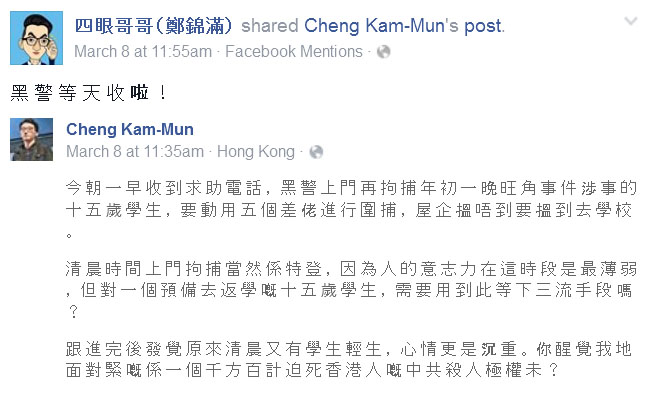
Cheng Kam-mun
March 8, 2016
This morning I called a telephone phone for help. The Evil Police arrested a
15-year-old student in his home for the Mong Kok affair on Lunar New
Year's Day. Five policemen were sent to make the arrest. They didn't find him at
home so they went to his school.
They obviously went to his home early morning deliberately, because that is when
a person's will is at its weaker. Is it necessary to use such lowly tactics
against a 15-year-old student who was getting ready to go to school?
After I followed up on the
case, I learned another student has committed suicide this morning. My heart
grew even heavier. Do you realize that we are facing up against a murderous
Chinese Communist regime that is trying to drive Hongkongers to death in every
way possible?

Next Cheng Kam-mun posted a
question posed by some 'tutor' to a student. The question is: "If the government
imposes draconian measures, why other methods are there to deal with this apart
from moving elsewhere?" The student wrote: "Suicide or endurance, because we
don't have the ability to resist the government." Cheng annotated: "It really
makes my heart ache to see these small children think this way. Thanks to those
old farts who keep saying that Hong Kong is very prosperous and peaceful, while
they drove the next generation into such desperate straits to become so cowardly
that they won't even dare to resist draconian measures ..."
Meanwhile Sammy Wan (a General of
the City-State) shared the Ming Pao suicide suicide and added: "Before you die, please
actively consider going to fight in the streets."
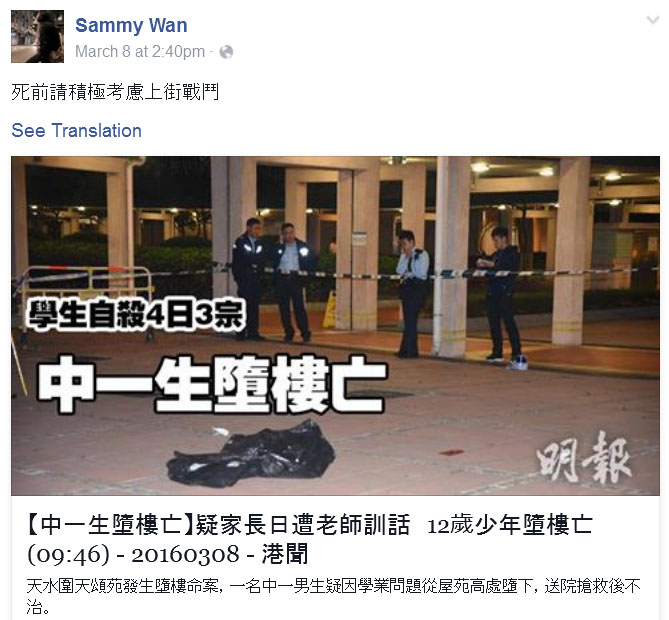
Sammy Wan:
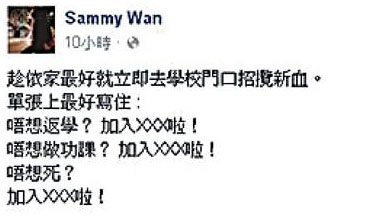
Right now the best thing to do is to recruit new blood at school entrances.
The best thing to write on the leaflet is:
You don't want to go to school? Join XXX!
You don't want to do homework? Join XXX!
You don't want to die? Join XXX!
Over at Passion Times, a writer
wrote: "Why do students go to commit suicide when they have a long life ahead of
them? It is very simple. They don't see any future." Then the writer goes on to
oppose TSA and other government policies. The essay was titled: "Your own child,
you kill him yourself."
Meanwhile the Lego Studio Facebook wrote: "You live on not to survive, but to retain your life in order to
take revenge."
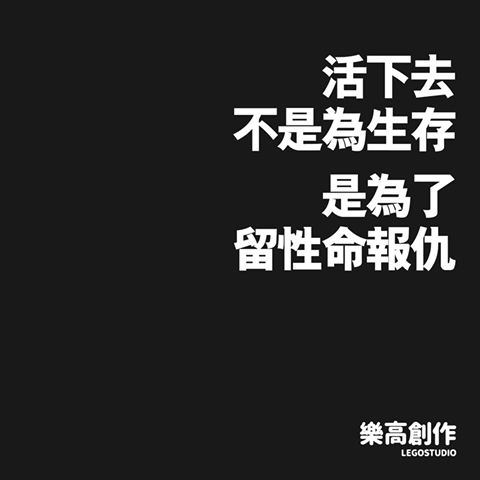
Wan Chin wrote on Facebook:
Before a huge earthquake or tsunami hits, alert small animals will flee or
commit suicide.
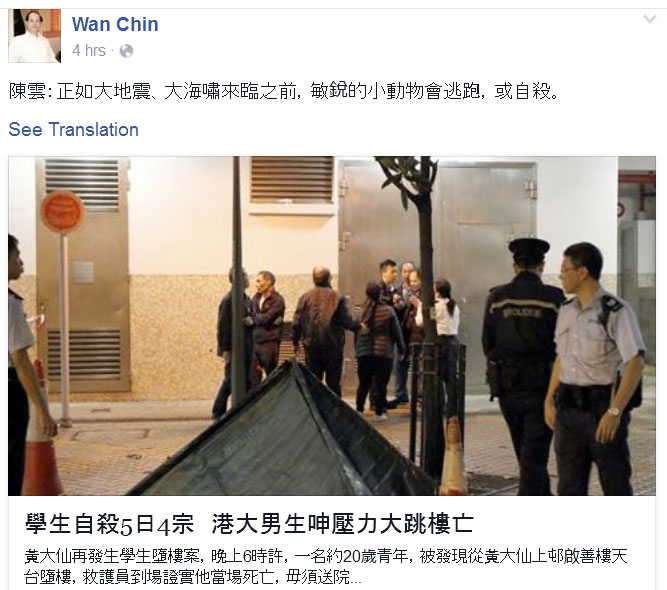
(EJ
Insight) March 10, 2016.
On
Wednesday evening, a 20-year-old arts student from the University of Hong
Kong jumped to his death from the rooftop of a building in Wong Tai Sin
where he lived with his parents.
The student reportedly left a note suggesting
he was depressed due to academic and other pressures. His death brought to
20 the number of student suicides since the beginning of the current school
year in September last year.
While
the number of cases mounted, the government of Chief Executive Leung Chun-ying
appeared not to be bothered at all, until of late when education minister
Eddie Ng finally decided to call a meeting on the issue.
What�s
happening to our children? Many teachers and parents are at a loss, and tend
to blame themselves, although it can�t be said that they�re not doing their
utmost for the benefit of our kids.
Others
blame the current education system that focuses on academic performance
rather than the individual development of the students, and this has put so
much pressure on the students, some of whom find it hard to cope.
Of
course, the government will be quick to deny that these cases are directly
related to the education policy.
The education minister expressed his regret
over the cases. He was scheduled to hold a meeting with teachers, parents
and psychologists on Thursday to try to sort out the issue.
His
department has stressed that the school system has mechanism to deal with
the crisis, and the current curriculum has been devised to help students
build their character and develop a positive outlook in life.
All those efforts, however, didn�t seem to
have worked for at least 20 students who chose to end their lives in the
current school year.
Why are our government officials so slow in
responding to this crisis? It
may be that they feel suicides are outside the scope of government policy,
that despite their best efforts, there is hardly anything they can do to
prevent people who are suffering from depression from taking their own
lives. That�s probably the reason for their silence.
On
Wednesday, pro-Beijing newspaper Ta Kung Pao came out with a column that
seeks to shed light on the rise in the number of student suicides. The
title: �Student suicides related to extreme violence�. Apart from the
�traditional� factors linked to suicides, says the article, it cannot be
ruled out that, based on the rising incidence and frequency, the cases may
have something to do with the fact that society is full of contradictions
and violence.
Some
students fail to exercise resilience in the face of pressure, such as when
they are criticized by their parents and teachers, and such psychological
weakness could push them to a dark view of life, according to the article,
which was published next to the newspaper editorial.
�If society is harmonious, prosperous and full
of hope, young people may see the light of hope, and they may chat with
their friends and teachers. But when society is full of resentment,
controversies and hostility, some may only see the darkness. The
parliament is full of chaos. There was even a riot in Mong Kok when people
celebrated the first day of the Lunar New Year. The youngsters attacked the
police with bricks on the streets. The young people who witnessed such
circumstances will feel frustrated and disappointed. How can they find hope
and happiness?� The
article concludes: �For the sake of our youth, to
those who continue to mess up Hong Kong, please stop.�
It�s
quite surprising that the column avoided mentioning the role played by the
government�s education policy in shaping the attitude of students and their
view towards life. Shifting the
blame to radical activists is pointless, and may even be dangerous.
Of
course, everyone desires a harmonious society. But the current political
deadlock, which is the source of so much tension and conflicts in society at
present, is mainly due to the government�s refusal to listen to public
opinion.
The
Hong Kong government insists on pouring billions of dollars into white
elephants to please Beijing and inject politics into the school curriculum,
such as the pro-Beijing patriotic education curriculum. All this creates
resentment and hostility.
So who
is to blame for the discord in society? The radical groups who are reacting
to these pro-Beijing policies or the government which insists on foisting
these policies on the people? In fact, we should stop this blame game.
Instead, we should try to look into the roots of the issues affecting our
students and think of ways to help them cope with the pressures of studies
and family, of society and life.
For
starters, the education department may consider reducing the workload of
both teachers and students, leaving sufficient time for them to better
communicate with each other and build mutual trust. That could help in
reducing the pressures on both sides.
In
primary school, for example, kids on average study for more than seven hours
at school and spend another hour on their homework each day. That�s
certainly a lot longer than the global average of six hours. The massive
volume of academic work placed on the students deprives them of the time to
enjoy their childhood and relieve themselves of the pressure at school.
Teachers, students and parents all suffer from the pressure of having to
follow the government curriculum and meeting the teaching requirements.
Government does have the responsibility to ease the pressure on our
children. If the government has to point the finger at the violence and
hostility in society, it should also blame itself. Were it not for its
indifference and intransigence, we should be having a harmonious society.
Internet comments:
- (Wikipedia)
Copycat Suicide: Journalism Code
Various countries have national
journalism codes which range from one extreme of, "Suicide and attempted suicide
should in general never be given any mention" (Norway) to a more moderate, "In
cases of suicide, publishing or broadcasting information in an exaggerated way
that goes beyond normal dimensions of reporting with the purpose of influencing
readers or spectators should not occur."
The study's author, University of
London psychologist Alex Mesoudi, recommends that reporters follow the sort of
guidelines the World Health Organization and others endorse for coverage of any
suicide: Use extreme restraint in covering these deaths � keep the word
"suicide" out of the headline, don't romanticize the death, and limit the number
of stories. Photography, pictures, visual images or film depicting such cases
should not be made public" (Turkey).
While many countries do not have
national codes, media outlets still often have in-house guidelines along similar
lines. In the United States there are no industry-wide standards and a survey of
in-house guides of 16 US daily newspapers showed that only three mentioned the
word suicide and none gave guidelines about publishing the method of suicide.
Craig Branson, online director of
the American Society of News Editors (ASNE), has been quoted as saying,
"Industry codes are very generic and totally voluntary. Most ethical decisions
are left to individual editors at individual papers. The industry would fight
any attempt to create more specific rules or standards, and editors would no
doubt ignore them."
- The student suicides over the
past 6 months were due to a variety of reasons. Some students couldn't keep up
with the studies, some had family problems, some have personal emotional
problems, etc. It is surely wrong to reduce everything to government policies
for which the answer is street-fighting.
- Youngspiration spokesperson
Baggio Leung is more blunt by saying that these students died because
Youngspiration hasn't done its work well enough. He begs the students to give
"the old brothers and sisters" (that is to say, Youngspiration") a little bit
more time to rectify matters.
- When a child dies, the family is
in deep mourning. Will Civic Passion, Joshua Wong, etc please shut up and give
the family a little bit more space?
- Only the worst type of people
could suggest that if you perform poorly in school, you should go into the
streets and take revenge against the police. So you kill a few policemen. Does
that solve the problem?
- They probably have the idea that
they perform poorly in school because the Education Department is setting
unreasonable requirements. They want a world in which they wake up whenever they
feel like, they go to a school that resembles a coffee shop where they
socialized and play online games, and they can graduate whenever they want and
automatically get a job that pays $50,000+ a month.
- I'll tell you another reason for
students to be depressed. A young man wants to enroll in a university because
everybody knows that university graduates will get better jobs and pay. However,
it is expensive even though the government picks up three-quarters of the costs
on the average. Therefore, the young man must have the support of his parents,
siblings and the rest of the extended family. Now you have a situation in which
the economy is dipping into recession and, thanks to these rioters, and the
corporations are saying that they won't hire any local university graduate. It
is depressing to carry the expectations of everyone in your life but the
prospects are grim. So who should be held responsible?
- If CY Leung/Eddie Ng are to be
blamed for student suicides, then who is to blame for this suicide?: (The
Sun) March 10 2016. Yesterday around midnight, a security guard at the
Next Media building in Tseung Kwun O found an unconscious woman in her 30's in
the parking lot. He called the police. The emergency workers found that the
woman still had a live pulse, so they took her to the hospital. The woman did
not have any identification on her. The police found a suitcase, a water bottle,
a number of love letters, an empty medicine bottle and another medicine bottle
with only two pills left. There was a final letter that read: "I end my life at
the same time that I end my 18-year-long affair with a celestial king!"
Note: Apple Daily explained that the "celestial king" is Leon Lai.
- (Wen
Wei Po) Wan Chin's explanation of the string of suicides: It is the dark
green plastic tent that is used to screen off the public glaze. It is in the
shape of the ancient Egyptian pyramid, which is the most mysterious
architectural structure of humankind. The pyramid is the cause of all these
suicides. If the pyramidal tent is changed to some other shape, the string of
suicides will come to a halt!
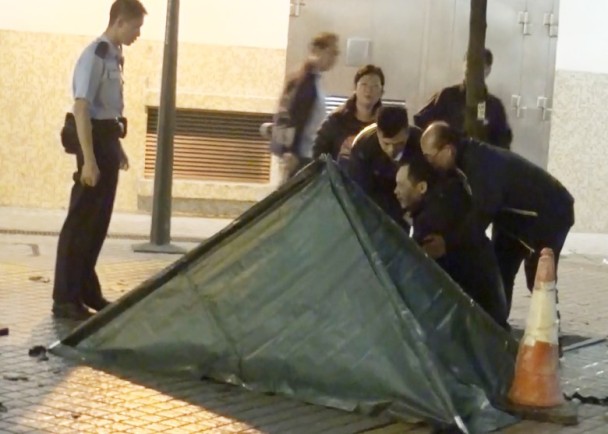
- (Local
Press) Wan Chin: Why children in Hong Kong commit suicide?
Why children in Hong Kong commit suicide?
Do you know why? Wan Chin is going to tell you why Hong Kong children have
been hounded to death. Hong Kong children have been subjected to overtly
excessive, premature academic and skills training, and also various
monitorings of achievement. But opportunities for further education and
prospects for employment are blatantly disproportionate to the arduous
cultivation the children have to go through; and prospects unfortunately
remain unattractive for those who complete higher education. Hong Kong is
obviously not the same kind of society that Japan had in the past, in which
there were big corporations and enterprises that would absorb brilliant
students. Over-trained, over-educated for nothing in return is a harsh
reality of the Hong Kong society. How has Hong Kong come to this?
The culprit is not the schools nor the
parents; the culprit is politics! The reason Hong Kong has gotten into this
plight is because Hong Kong�s form of government is an undemocratic modern
politics and its society has lost its traditional moral judgement.
But Hong Kong is an affluent society having
in its possession an abundance of public funds for the support of public
educational services, and parents too have surplus funds to pay for all
kinds of commercial training services.
As the legitimacy of modern politics comes
from the empowerment of the citizens, every citizen therefore is endowed
with the natural right to enjoy all kinds of governmental care, from which a
large number of public services and commerical services are derived. As long
as a place has entered the stage of affluent society, public money will be
used to take care of the various desires of the citizens. Public service
providers would create for the citizens all sorts of needs, which would be
scheduled for regular assessment and upgrade.
Hong Kong�s existing education is one
adopted after Hong Kong has become an affluent society. But since Hong Kong
has not the checks and balances of a democracy, and has not the concepts of
national moral values, the educational bureaucrats can thus draw on a range
of educational demands (multi-intelligence, synthesized abilities, etc.) to
oblige the schools to provide many extraordinarily intricate educational
services and achievement monitoring schemes, accumulated one after another,
unstoppable by anybody! However, the children who survive such education
also fail to be competent, most of them are just dull and stupid.
After the British colonial government�s
departure from Hong Kong, the society has lost its moral judgment. And as
Hong Kong has not done a thing for nation-building, we have neither our own
national values nor democratic monitoring of our educational funding and
bureaucrats. Hence, the officials of the Education Bureau act domineeringly
on their own, and educational business groups, tutoring centers, children
skills centers, textbook publishers all deem children of Hong Kong to be
milch cows.
Under the pressure of various academic
authorities, public educational services and chargeable training services,
parents are kept constantly on the go, not knowing what to do to hold out
against the strain. Deep into the night, parents and children, and even the
whole family would cry under the burden of the children�s schoolwork!
The way to fight against all that insanity
is simple: democratize Hong Kong, so that educational funding, educational
management and policy-making will all be subjected to democratic scrutiny,
moral values assessment and constraining, and there will be people who have
the sense to call for a halt when things have gone wrong.
The issue is that you need to pick the
right council members who have the wit to wrestle and tangle with the
bureaucrats, and who have a strong sense of ethical responsibility. In Hong
Kong, we don�t have many choices for such people, perhaps only one.
- More shameless politicking
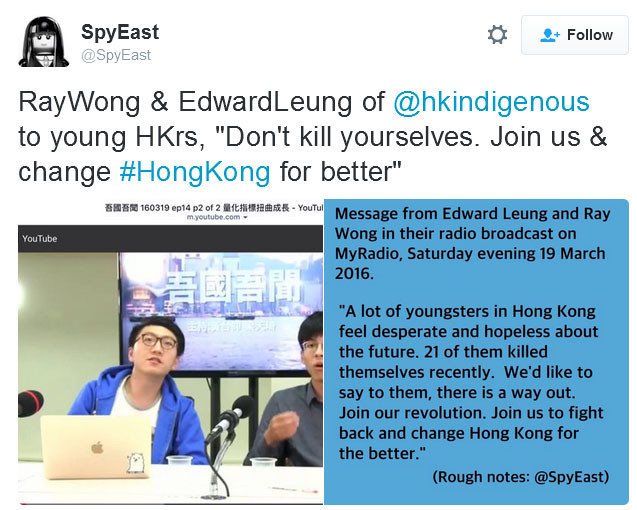
P.S. You don't actually have to join us. You can just send money to us.
- Sing Pao: Message from Lau
Mei-yee to all managers:
During this academic year, there
have been more than 20 student suicides. The most recent case is the 7th case in
9 days.
Based upon the fact that there is
a copycat effect, media outlets should be careful about how to deal with
reporting these news stories:
Accordingly our Hong Kong news
section will adhere to the following principles:
1. We will make direct reports of
student suicides, but not on the front page.
2. We will not publish photos of
the students unless their families voluntarily provide them.
3. We will not publish bloody
photos from the suicide scenes.
4. The suicide news reports will
be accompanied by a telephone number for a helpline.
5. The suicide news reports will
not include a detailed description of the process.
6. The suicide news reports will
explore possible causes and follow-up measures.
7. The headlines of the stories
should not be designed to inflame emotions.
8. Reporters should pay extra
considerations to feelings of the families and persons from the schools.
The same principles apply to other
sections when it comes to this topic. For example, an actor may be commenting on
the suicides in the entertainment section.
Any commentaries on the suicides
should be submitted to myself or Brother Wai for screening.
Thank you for your cooperation.
- (Oriental
Daily) Recently children have been playing all sorts of suicide-related
games. For example, a variation of Stone Paper Scissors begin with two kids
standing on top of the stairwell. They play Stone Paper Scissors. The loser has
to leap one step down while shouting "Leap out of the building!" The game
continues and the first to reach the bottom loses his life.
As another example, the game
Falling Fred for Apple/Android mobile phones lets the user control the movements
of the free-falling Fred. Various obstacles (such as electric saws, fans, etc)
appear. If Fred gets hit, he will sustain various degrees of injury, even death.
In another game, the user is
tasked to find a way of committing suicide in order to reach the next level.
Although this game is labeled for adults only, anyone can download it.
- (Facebook)
Hong Kong parents think that the school exams are killing their children, so
they are setting fire to the TSA papers.
(NOW
TV) May 25, 2012.
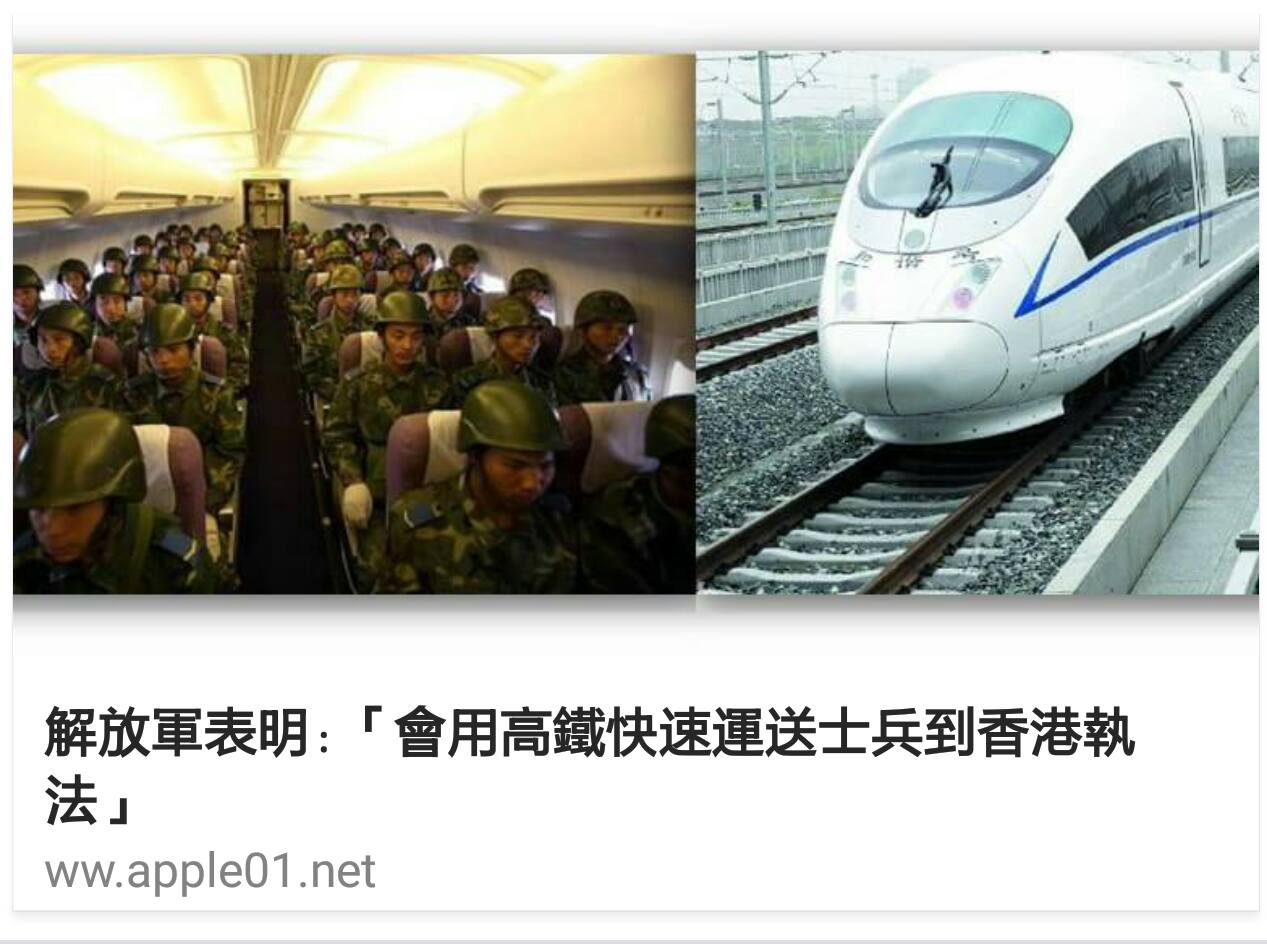
<People's Liberation Army News> (Jie
Fang Jun Bao) recently reported for the first time that the military is
using the High Speed Rail system to deploy troops quickly.
Traditionally, the military has
used the regular railway to deliver tanks, guided missiles and other heavy
equipment, and the High Speed Rail to deliver soldiers, rifles, mortars and
other light weapons.
The report says that the High
Speed Rail system was designed for dual civilian-military use. The civilian train
terminals can be converted rapidly for military use and thus reduce military
response time. For example, in the expansion project for the Nanjing terminal,
the soldiers can go directly to the platforms to board the trains.
In terms of the dispatch system,
the PLA commanders can take over the High Speed Rail system and insert military
trains into the networks of routes.
The High Speed Rail trains are
also designed to be bigger and wider than the regular ones, and the military has
developed equipment that can fit into these trains.
The High Speed Rail trains have
doors on both sides, which allow soldiers to enter on one side while other
soldiers leave on the other side. The time is therefore reduced by 50%. To date,
more than 43,000 soldiers have been safely sent to their destinations via High
Speed Rail.
In early May, the Nanjing Military
District arranged for a group of soldiers carrying light weapons to take the
High Speed Rail and join the hypothetical battle as soon as they arrive. This
will increase the likelihood of victory for the People's Liberation Army.
(SCMP)
February 2, 2016.
MTR Corp management warned of
�catastrophic� consequences if legislators reject a proposal to plug the HK$19
billion funding gap facing the much delayed cross-border high-speed railway
after its independent shareholders voted almost unanimously for the funding
arrangement.
Hours after 99.83 per cent of the vote of
independent shareholders backed the funding proposal at a meeting yesterday,
Chief Executive Leung Chun-ying said the government would try its best to
get approval from the Legislative Council - the last hurdle for the extra
HK$19.6 billion needed for the Hong Kong section of the
Guangzhou-Shenzhen-Hong Kong Express Rail Link.
Secretary for Transport and Housing
Professor Anthony Cheung Bing-leung hinted that the government might
consider as early as today whether to bypass Legco�s public works
subcommittee and go directly to the Finance Committee.
MTR chairman Frederick Ma Si-hang called on
pan-democratic lawmakers to � raise their hands high in mercy� to give the
project a pass this time. �From MTRC�s perspective, our biggest concern is
the filibuster in the Legco,� he said. Ma said the HK$65 billion budget
approved by Legco in 2009 would be used up by mid-year and the company
needed to notify its building contractors by next month to allow time to
make preparations, whether Legco gave the green or red light. �The
consequences would be catastrophic in terms of unemployment and reputational
damage,� Ma warned if lawmakers rejected the extra funding. �Hong Kong would
become an internal joke in the international construction industry. What�s
more, we would lose a key rail connection with the mainland�s high-speed
railway network which would link Hong Kong to other parts of Asia and
Europe.� He claimed last week that between 5,000 and 7,000 workers and
engineers in the construction industry would lose their jobs if work was
suspended.
(EJ
Insight) Why the express rail link is a Trojan Horse. By Joseph Lian
Yizheng. March 15, 2016.
Beijing has made public its plan to build a
giant tunnel across the Taiwan Strait for an express rail link between
Beijing and Taipei. Observers believe the proposed project would allow the
People�s Liberation Army to seize the island a lot easier. The cross-strait
rail link is among the key projects under China�s 13th Five-Year Plan
(2016-2020). Taiwan people had never heard of the plan until Beijing
announced it.
Taiwan�s Mainland Affairs Council told the
island�s lawmakers that the project was �something impossible� to happen,
and Premier Chang San-cheng (張善政) issued a verbal protest to Beijing for not
notifying Taipei beforehand. But mainland cadres, including Wang Mengshu
(王夢恕), one of the country�s top railway engineers, said the two sides had
been discussing the plan for a decade and that Taiwan�s President Ma Ying-jeou
(馬英九) was aware of, and possibly facilitating, the proposal.
According to Beijing, the mega project
involves the construction of a 122-kilometer tunnel spanning the strait, and
linking Fuzhou (福州), the capital of Fujian (福建) province, with Taiwan�s
Hsinchu (新竹) County.
We have reasons to conclude that the
ultra-long tunnel will give the Chinese military a shortcut to the island to
deploy tens of thousands of soldiers if they can control the Hsinchu exit
for just a couple of hours. Taipei is just some 80 kilometers north of the
beachhead. Beijing wants the tunnel to be up and running in five years.
In an editorial, China�s state-run Global
Times branded Taiwanese opposing the project as �cowards� and said the rail
link has effectively frightened them to �urinate�. Many Hongkongers are also
frightened. The HK$19.6 billion additional funding for the city�s own
Express Rail Link is no big deal after the disputed voting at the
Legislative Council last Friday, but what makes us wary is Beijing�s thinly
veiled warning.
Wang was quoted as saying that the central
authorities would never allow the construction of the rail link to Guangzhou
and Shenzhen to be halted, adding that the Hong Kong side has no say in the
fate of the project. He said the mainland can even help foot the bill for
cost overruns, which he said is �a paltry amount� compared to China�s annual
budget of 800 billion yuan for rail projects this year.
The Guangzhou-Shenzhen-Hong Kong rail link
is of little military significance as Chinese troops are already posted in
the territory and reinforcements can easily come in from across the border.
The project aims to serve a political purpose.
Seoul and Tokyo once discussed a tunnel to
bridge the Tsushima Strait but Koreans scrapped the project for fear that
Japan might extend its economic clout across the narrow waters and undermine
their own interests. Moscow also broached a tunnel linking its Sakhalin
island with Japan�s Hokkaido prefecture but was rebuffed by Tokyo as
Sakhalin was once under Japanese control until it was lost to the Soviet
Union after World War II.
Mega transport projects between two
jurisdictions always entail a raft of intricately-related political facts.
Beijing likes to tell Hongkongers not to politicize everything yet every one
of its own initiatives has a political agenda.
Hong Kong�s still unfolding infrastructure
fiasco may serve as a warning to Taiwan. The express rail link to China is
not just a hugely expensive white elephant, it�s indeed Beijing�s Trojan
Horse. �When China prospers, Hong Kong prospers as well.� That�s a phrase
Tung Chee-hwa has repeated ad nauseam.
Indeed, the mainland economy was humming
during Tung�s reign as chief executive, and China at the time adopted a
relatively lax political stance toward Hong Kong. But now exactly the
opposite is true: When China tumbles, Hong Kong tumbles as well.
Moody�s suddenly downgraded Hong Kong�s
credit outlook to �negative�, citing Hong Kong�s vulnerability to mainland
economic upheavals and political meddling, like the 2014 white paper that
distorted the �one country, two systems� principle. Moody�s was on a solid
footing when it issued the downgrade. All signs, from mounting debts to
shrinking foreign reserves, present a gloomy picture for the Chinese
economy. It�s doubtful if Beijing still has enough ammunition in store �
given its rocketing bad loans and fleeing capital � to fight the downturn
and restore market confidence.
Many Hongkongers see eye to eye with the
rating agency but the SAR government rushed to follow Beijing�s rhetoric,
lambasting the move as �purely speculative and subjective without any
ground�. Now we know that when Beijing cadres lie, their Hong Kong stooges
lie as well.
Internet comments:
- What happens if the
pan-democratic legislators manage to stop funding the High Speed Rail by
filibustering? What kind of achievement is that to claim for the Legislative
Council elections coming in September?
"Well, we filibustered long and
hard and we have successfully fought to make sure that Kowloon West ends up with
a deep hole in the ground." That does not sound very good.
"Well, we made 7,000 construction
workers and engineers lose their jobs so that they can spend more time with
their families." That does not sound very good either.
So here comes the Fear Factor
based upon the 2012 NOW TV report:
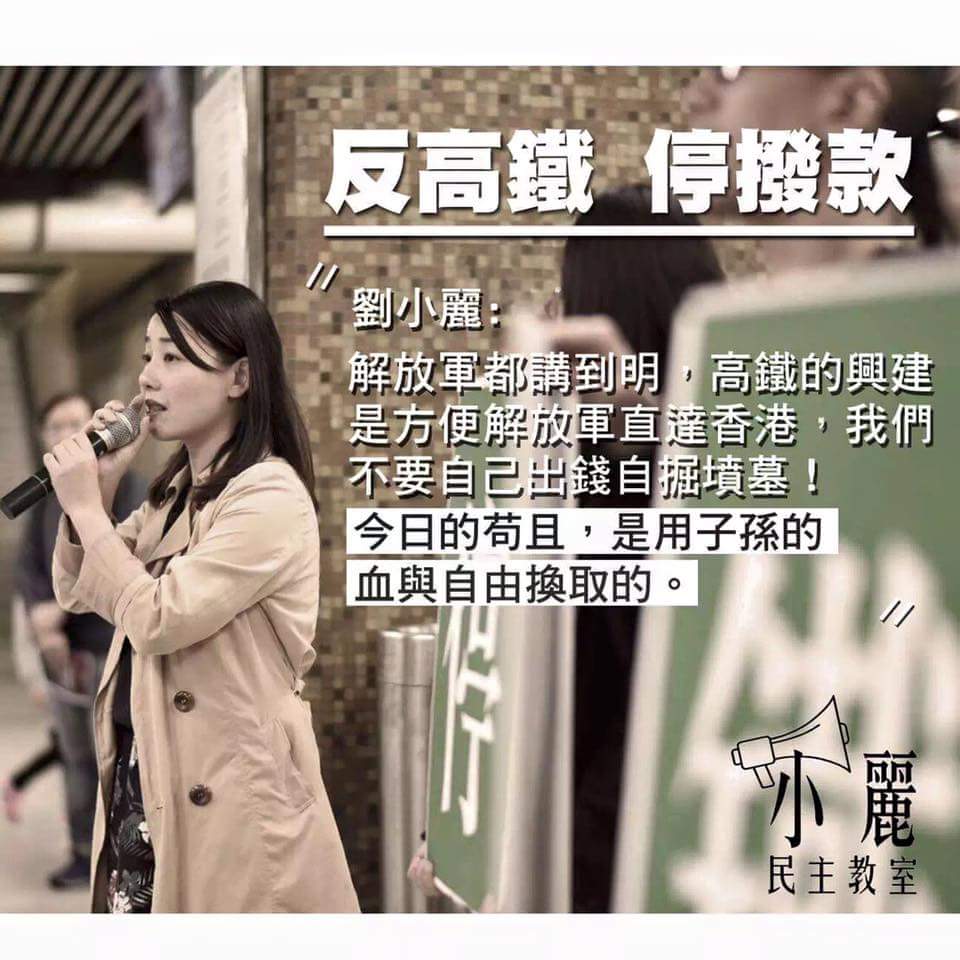
Lau Siu-lai's Democracy Classroom
Oppose the High Speed Rail, Cut Off The Funding
Lau Siu-lai:
The People's Liberation Army has stated clearly that the High Speed Railway was
constructed in order to facilitate them to come directly to Hong Kong. We must
not dig our own graves with our own money!
Our negligence today will be paid for by the blood and freedom of our children
and their children.
- Did I miss something? Why does
the People's Liberation Army need to transport soldiers from mainland China to
Hong Kong via High Speed Rail when they are already here? Right in the heart of
Admiralty there is a
Chinese People's Liberation Army Forces Building. There are also many
other
PLA Garrison bases: Ching Yi To, Kowloon East, Stanley, Western,
Stonecutter navy base, Shek Kong Airfield, San Tin, Tam Mei, Sha Tau Kok, Gun
Club Hill. The troop strength of the garrison is about 6,000 personnel.
- Look, here is a map of the
network of expressways in Hong Kong. (Transport
Department) All expressways and most of the trunk roads are high
standard multi-lane dual carriageways with grade separated interchanges and are
designed to carry a high volume of traffic at a higher speed.
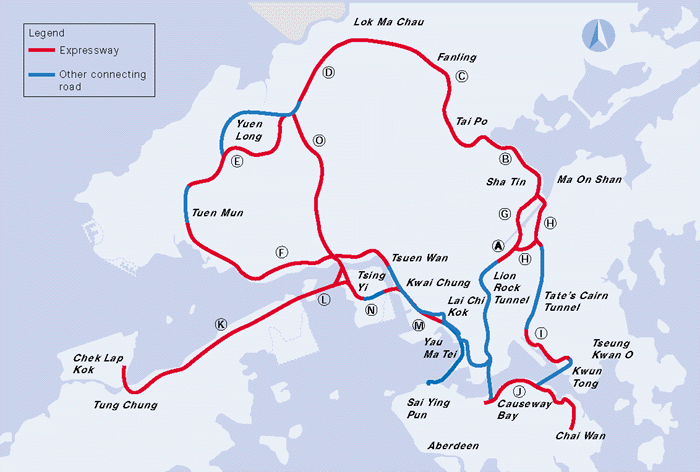
Hong Kong shares a border with
mainland China. There are any number of ways in which People's Liberation Army
military trucks, armored personnel carriers and tanks can drive across the border and enter the
central areas by any number of expressways, trunk roads and tunnels. By stopping
the High Speed Rail project, you can delay the People's Liberation Army for a
few more minutes at the most.
- You've stated the problem. The
solution is easy. All the roads and tunnels in Hong Kong will be mined. At a
signal from the Hong Kong City-State leadership advised by Grandmaster Wan Chin, the
charges will be set off. There will be no way for the PLA to come to Hong Kong
by road. All the bridges and tunnels will be destroyed. And then we'll just sit and wait for the US Seventh Fleet to come and
defend us. And they will, because Captain America defends freedom and democracy
everywhere.
- The
People's Liberation Army also has a helicopter fleet with Z15, Z20 and
Mi-17 troop transporters. They can drop troops off in any open space, such as
sport fields (e.g.
Hong Kong Stadium,
Victoria Park,
Wan Chai Sports Ground,
Happy Valley Racecourse,
Kowloon Cricket Club,
Kowloon Bowling Green Club,
Kowloon Tsai Park,
Sha
Tin Racecourse,
etc) and rooftops (e.g.
Peninsula Hotel) in Hong Kong. So we need to mine all open spaces in
Hong Kong as well.
- You forgot about the biggest
landing area -
Hong
Kong International Airport. It is impossible to defend Lantau Island
anyway because the landing can take place anywhere. So we'll just blow up the Tsingma Bridge and leave that island to the
Commies. They can have Disneyland for all we care.
- Hong Kong has many
beaches. The People's Liberation Army has
landing crafts. So we need to build concrete barriers at all of the Hong
Kong beaches in order to stop those PLA landing crafts.
- Stop being stupid! The PLA Navy can show up with half a dozen destroyers
escorting landing crafts to enter Victoria Harbor and disembark at Central
Piers. What are you going to do? Dig up bricks from the sidewalk to throw at the
PLA soldiers? Do you count on them not shooting you just because you are
live-broadcasting on Facebook?
- Once upon a time, Taiwan had a
plan to switch road signs if they are invaded. Also their published maps
contained intentional mistakes. This was all under the belief that the Chinese
Communists don't know the way and will be confused by the switched road signs
and incorrect maps. Today, everybody uses GPS-based navigational systems so this
is no longer relevant.
- (Wikipedia)
Current train journey times
MTR subway (Hung Hom-Lo Wu (Hong
Kong)): 45 minutes, plus time for border checks (both on Hong Kong side and
China side)
High Speed Rail (West Kowloon to
Futian (Shenzhen)): 14 minutes
Net savings for time of arrival of
the PLA solders = 45 - 14 = 31 minutes. Stopping the Express Rail Link should give us the
critical time needed to ready
our defenses.
- (Apple
Daily) October 14, 2015. According to <Hanwoo Defense Commentary> from
Vancouver, Canada, the PLA Air Force has built a ground-to-air formation with
six Hongqi-6 (HQ6) missile batteries at their Shek Kong base in New Territories.
According to information, the Hongqi-6 covers a maximum distance of 18
kilometers and a maximum altitude of 12,000 meters to defend against low- and
medium-altitude guided missiles. Hongqi-9 batteries are deployed in Shenzhen to
defend against high-altitude guided missiles.
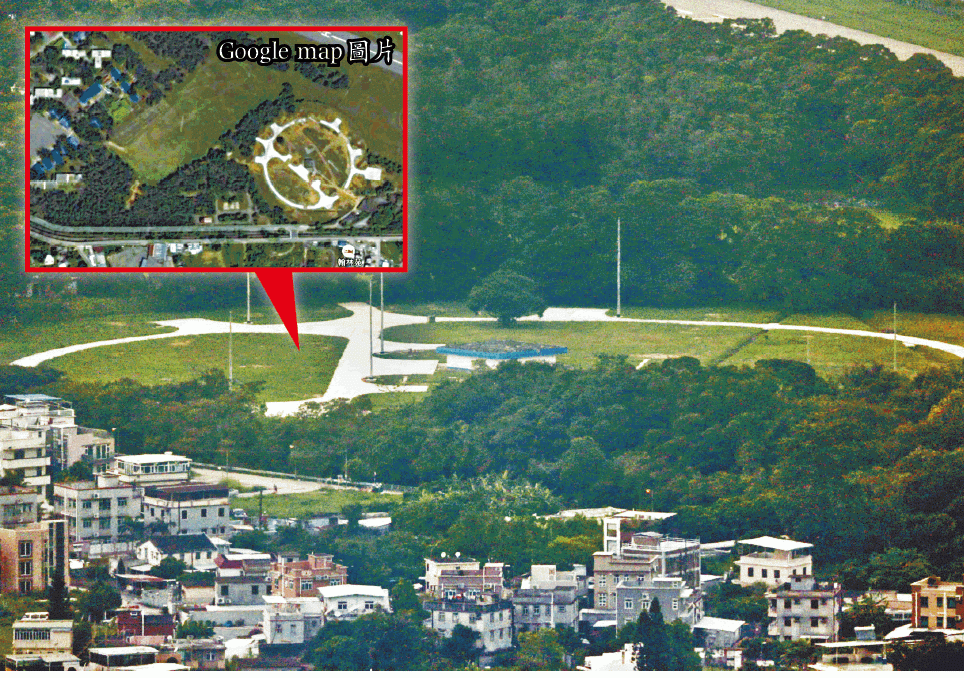
- Well, these missile batteries
must not be deployed in Hong Kong. When Hong Kong becomes an independent
City-State, the United States will send the Seventh Fleet to defend against the
Commie hordes which will be defended by these missiles.
- By the way, those missiles are
too big to fit inside the Express Rail Link trains.
- Are you stupid? Shek Kong is
12,085 meters away from the Hong Kong-Shenzhen border and a matter of minutes
away by truck over land. If they took the High Speed Rail, they will have to
disembark in West Kowloon and find transportation back up to Shek Kong.
- Well, if all else fails, there
is always the same old excuse: the High Speed Rail project died because of CY
Leung.
- As for what to do with the deep
hole in the ground in Kowloon West, Legislator Chan Wai-yip knows: "We'll let
the government find some experts to tell us what can be done with it."
- Chan Wai-yip sounds exactly the
same as Donald Trump, who says that he can solve America's problems because he
is a deal maker. What kind of deals will he make? (Huffington
Post) "My specifics are very -- I'm going to get great people that know
what they're doing, not a bunch of political hacks that have no idea idea what
they're doing ... appointed by President Obama ... that doesn't have a clue. I
mean that man doesn't have a clue."
- There are two proposals for the
soon-to-be-abandoned Kowloon West site already. Proposal #1: A shopping mall
that will look exactly the same as Elements next door. Proposal #2: A columbarium
to store the ashes of ancestors. Both proposals are designed to meet popular
demand.
- Estimated cleanup cost if the
project is abandoned: $10 billion. No problem. We'll just raise corporate taxes.
- When the Hong Kong City-State
Revolutionary Government takes over, China must do ... NOTHING except to cut off
all ties with Hong Kong "because the situation is unclear." But it also means
stopping people, food, water, electricity, fuel, money, cars, trains, boats, and
everything else from crossing the border in either direction. Within one week,
there will be riots in Hong Kong. On one side, the new government is holding
parties and parades to celebrate the victory. On the other side, people want
basic essentials which the new government is not able to supply. People will be
digging up pavement bricks to throw at each other. Pretty soon, there is a
chorus: Will the PLA come down as quickly as possible to put down the rebellion?
Then the PLA will come on the High Speed Rail trains to be greeted with kisses
and flowers
while the members of the Hong Kong City-State Revolutionary Government take
shelter in the American, British and Swedish consulates.
- China should do SOMETHING, like issuing a 'black' travel advisory and stop all
traffic from mainland China into Hong Kong because the situation is very
dangerous. It will also thoroughly search all ships heading for Hong Kong (including those
carrying food and water) in case they carry nuclear/biochemical weapons.
- Raphael Wong (League of Social
Democrats) demonstrated against the High Speed Rail today in Wong Tai Sin and
ran across the Blue Ribbon tough guy nicknamed "Magnifying Glass":
https://www.facebook.com/100006584053689/videos/1780814932147958/ who
used standard Yellow Ribbon tactic (=a constant stream of invectives with no
room for any rational discourse).
- (Wen
Wei Po) And why is Lau Siu-lai so high-profiled nowadays? She is
planning to run for Legislative Council along with Chu Hoi-dick (Land Justice
League) and other 'scholars.'
- (Hong
Kong Institute of Asia-Pacific Studies) 805 adults were interviewed by
telephone from 19 to 24 February 2016.
Q1. Do you support the extra
funding to complete the Hong Kong Express Rail Link?
Agree: 55.0%
Disagree: 36.0%.
Don't know/hard to say: 8.9%
Q2. Why do you support the extra
funding? (Base: Those who answered Agree on Q1)
42.0%: It is a waste of resources if we stop the construction of Express Rail
Link which is mostly completed
26.9%: It is favorable to Hong Kong's economic development
13.8%: It enables more convenient transportation between Hong Kong and mainland
China
11.3%: It facilitates the social and economic integration between Hong Kong and
mainland China
1.8%: It is cheaper to travel by Express Rail Link than by airplane
2.5%: Other reason
1.8%: Don't know/hard to say
Q3. Why do you oppose the extra
funding? (Base: Those who answered Disagree on Q1)
44.8%: It is not necessary for Hong Kong to build the Express Rail Link
27.6%: The issue of co-location arrangement has not been resolved
10.0%: Lack of confidence in the Hong Kong government
5.9%: Oppose Hong Kong and mainland China coming together
4.8%: More beneficial to develop the Kowloon West Terminal into a shopping mall
6.2%: Other reasons
0.7%: Don't know/hard to say
With the polling results to Q1,
how can you justify that you are standing up on behalf of the 7.3 million
citizens of Hong Kong?
- Hey, it's easy. All you need is a thick skin.
- If some day the PLA wants to
invade Hong Kong, they will assemble in Shenzhen first and then they will
steamroll down the expressways right into the city. The Localists who kept
shouting about shedding first blood will be watching everything on television at
home. They will boil with anger but they also know that they are powerless to
stop the PLA.
In reality, the only way to resist the PLA is to hope that they take the
High Speed Rail. Those trains run pretty much on schedule, so when one of them
comes along carrying 1,000 PLA soldiers, you wait with an 18-wheeler truck by
the side. When the train comes, you shout "God Save The Queen" and you ram the
truck along with yourself into the oncoming train. Everybody dies. The tracks
will be disrupted and no more trains can come through anymore. The PLA knows
this. Never in military history did an invasion into hostile territory take place by ferrying soldiers
into the heart of that territory by railway. So if the PLA is going to come, they
will come by land, air and sea but they definitely won't be coming on a train.
- More from Siu-Lai's Democracy
Classroom
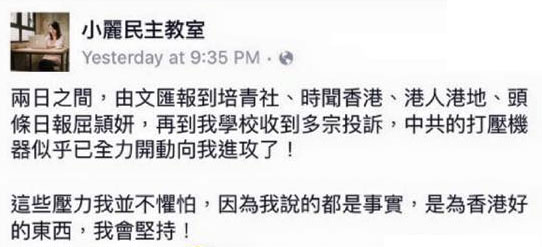
Within two days, from Wen Wei Po, the Youth Development Society, Good News
Hong Kong, Speakout Hong Kong, and Headline Daily's Chris Wat to the many
complaints to my school, the Chinese Communist suppression apparatus appears to
me making an all-out attack against me!
I am not afraid of these pressures, because everything that I saw is factual and
for the good of Hong Kong. I will persist.
- 100mao
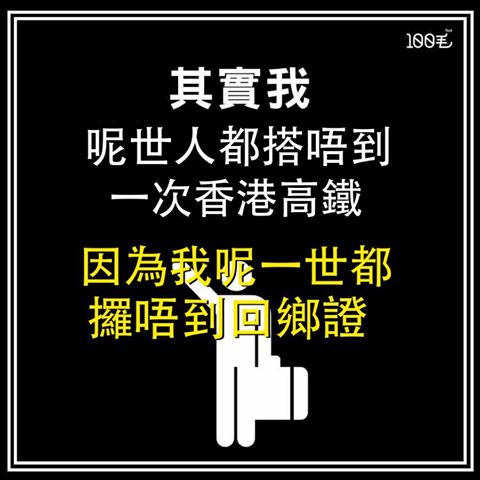
Actually I will never even take the Hong Kong Express Rail Link once
Because I will never ever be able to obtain a Home Visit Permit
Just because you won't be able to
use it, it shouldn't be funded. By extension, the same logic applies to these
situations (spoof of 100 Mao from 100 Blind Mao):
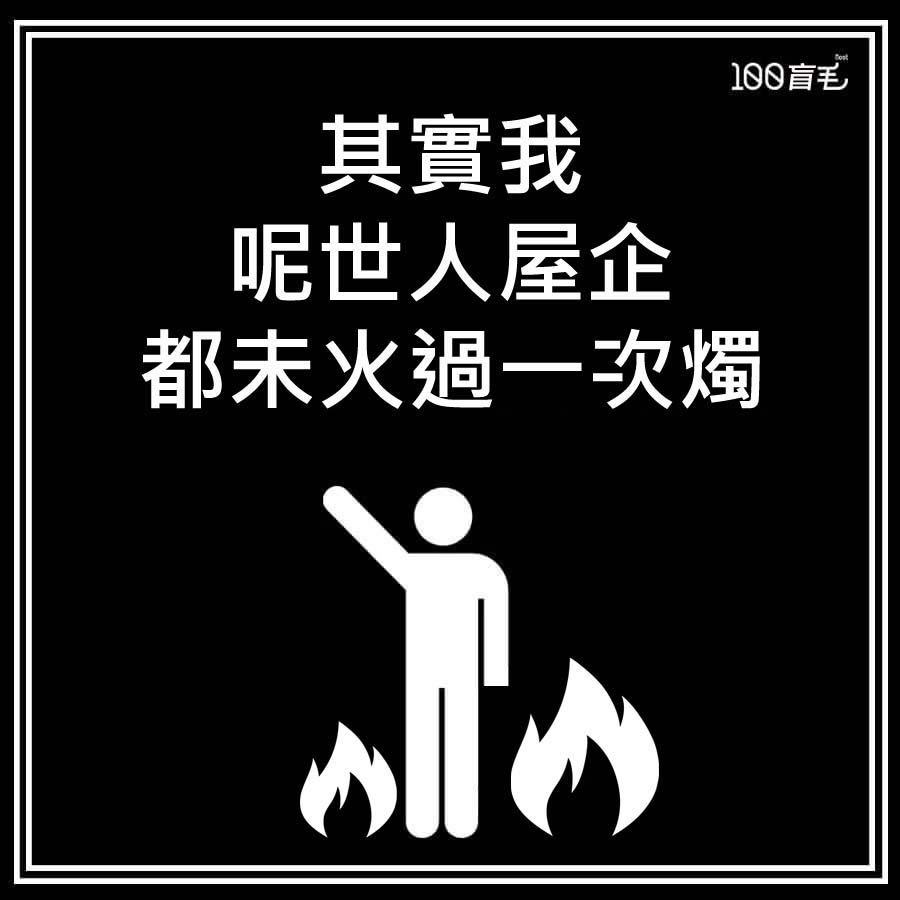
Actually, there has never been a fire inside my home.
Therefore we should get rid of the Fire Department.
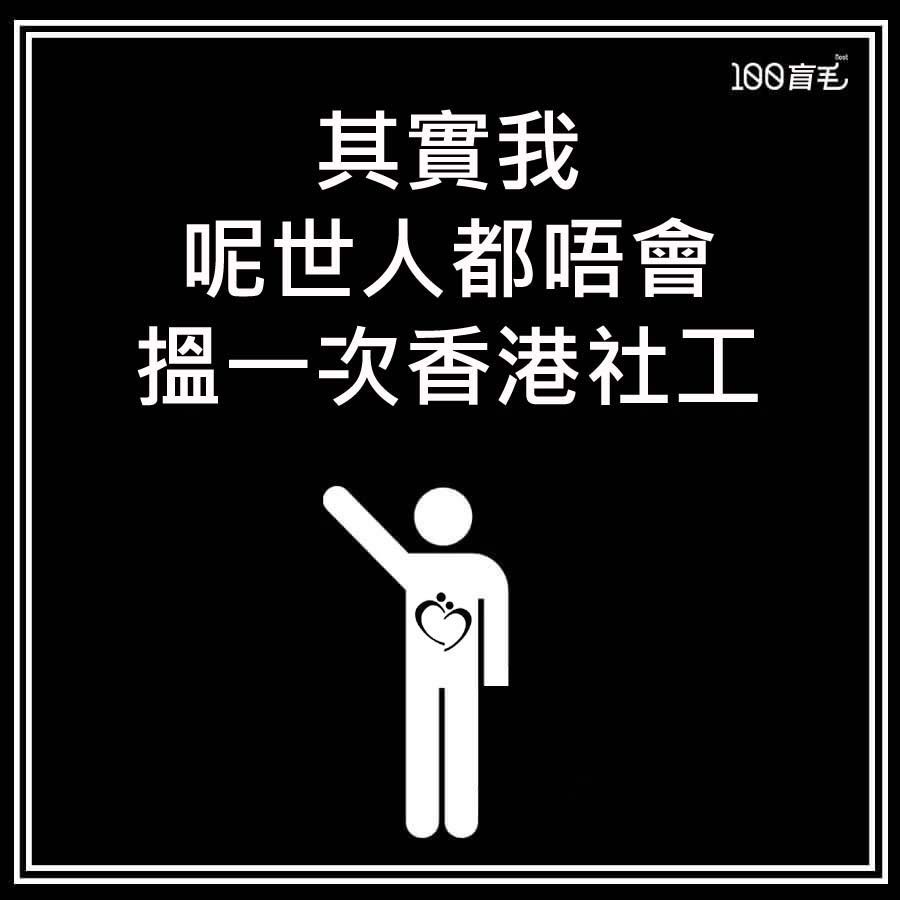
Actually, I have never had to visit a social worker in Hong Kong.
Therefore we should fire all the 8,000 Hong Kong social workers.
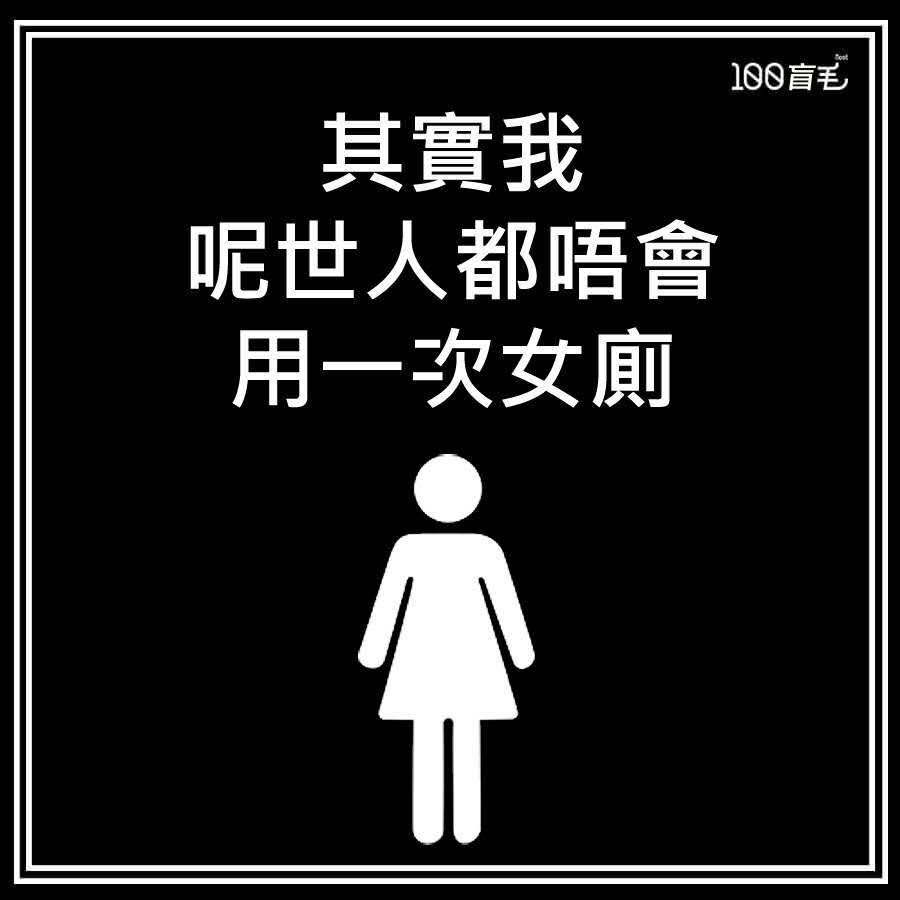
Man: Actually I will never use a women's restroom.
Therefore we should get rid of all women's restrooms.
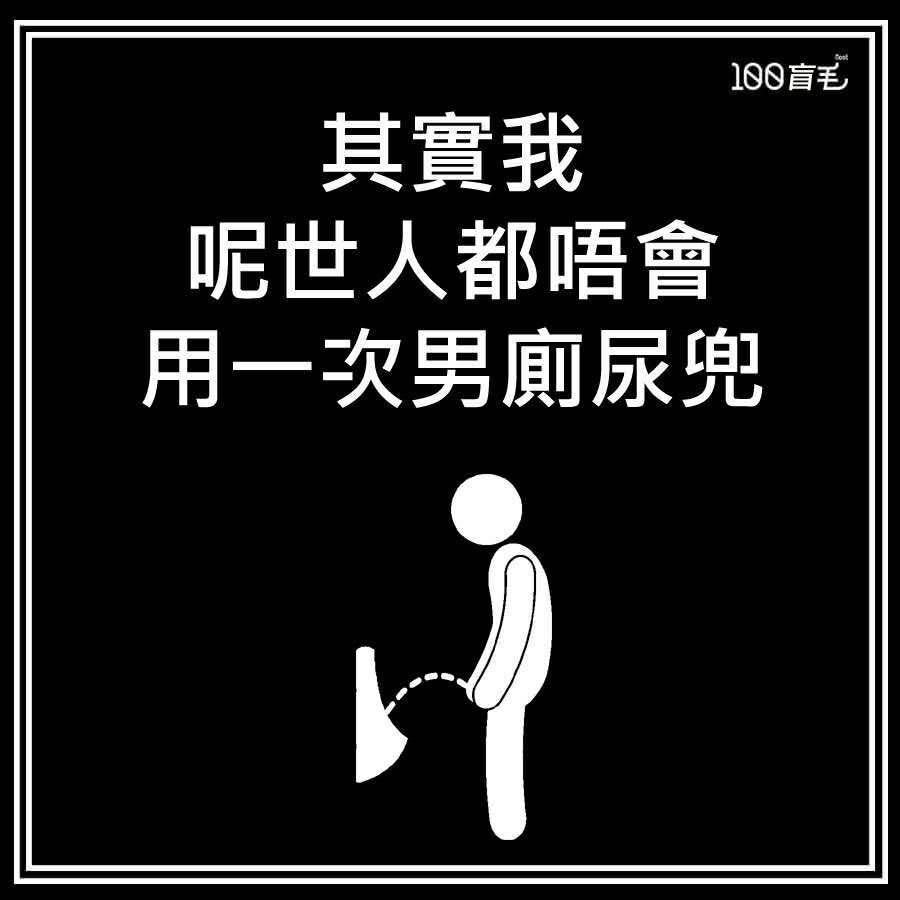
Woman: Actually I will never use a men's urinal.
Therefore we should get rid of all men's urinals.
(Hong
Kong Free Press) March 7, 2016.
The student unions of nine Hong Kong
universities and higher education institutes are to sell �banned� books in
protest, following the recent case of the five detained booksellers which many
feel curbs freedom of expression and publication.
In a post by the Hong Kong Federation of
Students (HKFS) on social media, the student association said that Causeway
Bay Books � which specialises in gossipy titles banned in China � is
currently mostly empty, and book printers have destroyed most of the unsold
�banned� titles. It said the case was �solid proof� China was disrespecting
the one country, two systems principle and interfering with Hong Kong�s
freedom of publication, speech and personal safety. HKFS stated that it has
obtained a small amount of the �banned� books and will sell them at the
student unions of nine universities and higher education institutes starting
this week.
�Hong Kong is a free city, universities are
the fortresses of freedom and defending freedom is the righteous thing to do
for students,� HKFS said in the post.
The schools where the books will be sold
are:
- University of Hong Kong
- Chinese University of Hong Kong
- Hong Kong University of Science and
Technology
- Polytechnic University
- Baptist University
- Lingnan University
- Shue Yan University
- Hang Seng Management College
- Technological and Higher Education
Institute of Hong Kong
Internet comments:
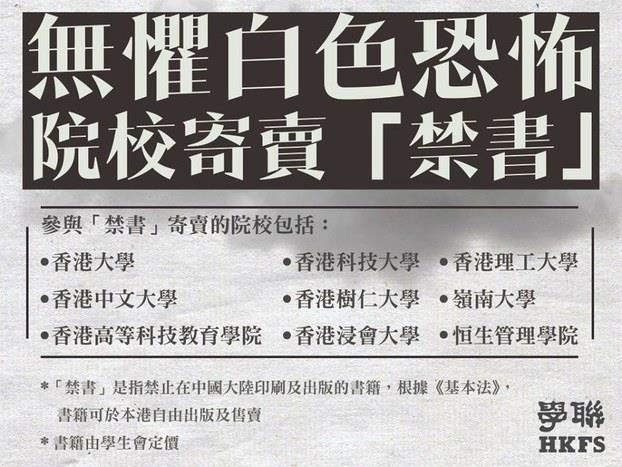
Hong Kong Federation of Students
Unafraid of White Terror
Higher education institutions selling "banned book" by consignment
* "Banned books" refer to those books that
are not allowed to be printed and published on mainland China. According to the
Basic Law, the books can be freely published and sold in Hong Kong
* The prices of the books will be set by the Student Unions
- What are these so-called banned books?
You can't figure this out from what the Hong Kong Federation of Students is
saying on that page. They put the term "banned books" in quotes, so it is not what it normally means. So
what do they really mean?
In China, more than 100,000 new book titles
are published legally each year. Before publication, a book has to be read
by a reviewer who approves, rejects or makes recommendations for revisions.
Some books are not approved for various reasons (such as politics,
pornography, sexism, violence, racism, separatism, libel, financial fraud,
superstition, teaching how to commit crime, etc). Those books which are approved receive a ISBN number for
publication. It is against the law to publish a book without an authorized
ISBN number.
So in China, a banned book is either
(a) a book that was submitted by a
publishing house for review and the government did not approve
publication. An example might be Yu Hua's <China's Best Actor: Wen Jiabao>.
or
(b) a book that was not submitted for
review because the publisher had no expectations for approval. Examples
might be
(i) <The Six Women of Xi Jinping>, the
unauthorized story of the six women in the life and times of the current
Chinese Communist leader;
(ii) <The Complete Teachings of Falun
Gong> by Master Li Hongzi;
(iii) <Freedom in Exile>, the
autobiography of the Dalai Lama;
(iv) <Complete Works of Chairman Mao>,
the collected works of Mao Zedong published unofficially without
authorization from his literary estate;
(v) <The Heart of the Young Girl>, the
pornographic novel which was widely circulated in hand-copied form
during the Cultural Revolution;
(vi) Tips on how to buy lottery tickets
based upon the interpretation of dreams;
(vii) Tips on how to cure cancer by
meditation;
(viii) How to make $1,000,000 RMB by
leveraging your stock market speculations;
etc
In Hong Kong, it is not the case that
publishers are completely free to publish any book as they wish. It is true
that books about Xi Jinping, Falun Gong, Dalai Lama, separatism, Hong Kong
independence, etc are freely published. There are at least two categories in
which publication can run into legal problems.
Firstly, there are copyright violations.
For example, the martial arts novels of
Jin Yong
cannot be published in any form without his authorization. Because his books
sell so well, plenty of fools rush in and face the legal consequences.
Secondly, there are violations of other
statutes of law. For example,
child pornography. As another example,
trade descriptions (e.g. miracle diets/treatments that are in fact
harmful). The situation would be similar in the United States as well as
mainland China. Don't kid yourself that anything goes in Hong Kong or should
go in China.
When the Hong Kong Federation of Students
say that they are selling "banned books," they are narrowly referring to a
certain distinct class of books that are not available on mainland China for
political reasons. They are not referring to books that are banned in Hong
Kong (for reason of copyright violation, child pornography, deceptive
advertising, etc).
- Are the student unions performing a
social service by allowing mainland visitors to buy these political books
that are not available on mainland China? You must be kidding me!
(New
York Times) Hong Kong Bookstores display Beijing's Clout. October 19,
2015.
The tiny book stall next to the popular
Star Ferry terminal in Hong Kong does a brisk business catering to the
thousands of visitors from mainland China who pass by every day. About half
of its books are political, including titles about the private lives,
back-room politics and fabulous fortunes of the Communist Party elite in
China. The other half are pornographic. Both types are banned in the
mainland. �Political books and pornography books both have market value,�
said the owner, Mak Kuen-tat, as he leafed through a tabloid about local
celebrity gossip.
That is to say, you can buy any of these
books at newsstands and bookstores all over Hong Kong. At the Hong Kong
International Airport, each of the bookstores has at least one complete
bookshelf dedicated to the latest titles. These other outlets have a better
selection than what the HKFS is offering. As the Hong Kong Federation
of Students noted, "According to the
Hong Kong Basic Law, the books can be freely published and sold in Hong Kong."
The books are not banned in Hong Kong if you can buy them everywhere.
The Hong Kong Federation of Students says
that the prices of the books will be determined by the student unions. You
can trek out to Tuen Mun or Tai Po to find out whether they have marked the
prices up or down. The books should have a listed price printed on the back
cover. If they black the original prices out and put new price stickers in,
you can always obtain the listed price over the Internet.
- I do not for one moment think that the
Hong Kong Federation of Students is 'valiant' in this attempt to resist
the Chinese Communist Party. This is just a PR show that is coming off
very poorly.
- If the students are truly valiant, they
should cross the border in a van loaded with the books and sell them at
Shenzhen University or Zhongshan University.
- Next Weekly is not allowed to be
sold on mainland China. The student unions should be selling Next
Weekly too.
- "HKFS stated that it has obtained a
small amount of the �banned� books and will sell them at the student unions."
Earlier, the lease for the ninth floor Chai Wan warehouse of Causeway
Bay Books was up and they decided to close the place down, unloading all the
worthless unsold inventory. Some of those books were routed to the Hong Kong
Federation of Students and others to the Alliance for Support of Patriotic
Democratic Movements in Hong Kong on the way to the landfill. (see
SCMP)
There were two warehouses under Mighty
Current, the parent publishing company of Causeway Bay Books. Both units
held over 100,000 printed books when Lee disappeared. �There were 45,000
copies on the 9th floor of the warehouse, which was a rented unit whose
lease expired last month. The rest were on the 10th floor office owned by
the Lees,� Woo Chih-wai said. He recalled seeing all the copies being
cleared out from the 9th floor unit on January 25 on the orders of Sophie
Choi Ka-ping, Lee�s wife. �They were all packed and ready to go to whoever
the buyers were. But then Sophie ordered them to be destroyed instead of
selling them,� he said.
If you are interested in paying $150 for a
2010 book about how Hu Jintao plans to exact revenge on Jiang Zemin before
leaving his post in 2012, you should go ahead by all means if it makes you
feel good that you are supporting freedom, democracy and human rights. This
is a dishonest sales pitch.
- This is not a freedom of academic
research issue. The argument is not about whether information flow is being
cut off by the mainland ban. There is no useful information in those books,
which even those involved in the production/printing/sales of these books
will freely acknowledge. For example, how does the author know exactly what
words Li Keqiang used during the second November 2015 meeting of the
Politburo? Was the room bugged? Did the secretariat leak the recording to a
Hong Kong freelance writer?
- It is not that all the information is
false. Out of the entire ocean of information, perhaps one bit is true. But
how do you tell that bit from the rest? Given this being the case, why would
any insider leak their knowledge to one of these book publishers to produce
a book that will be placed alongside the "Sex Lives of XXX/YYY" etc? There
is no political effect and the money is nothing compared to the risk of
being caught.
- The Hong Kong Federation of Students said
that the case of Causeway Bay Books was �solid proof� that China was
disrespecting the one country, two systems principle. Well, China was
willing to let Mighty Current publish whatever they publish and Causeway Bay
Books sell whatever they sell in Hong Kong. The problem was that the
booksellers got greedy and decided to sell directly into mainland China.
They took orders from mainland customers, put covers of romance novels on
the political books and tried to sneak them through the Shenzhen post office.
So these Hongkongers were violating mainland laws and thus "disrespecting
the one country, two systems principle."
- If you say that Gui Minhai and Lee Bo
did right, then what about the reverse situation? A printing house in
Shenzhen prints a deluxe collected works of Jin Yong in traditional
characters and sells them to Hongkongers via Taobao for 10 RMB. Is that okay with you
too?
- (HK01)
In 2012, Gui Minhai and Lee Bo founded
Mighty Current, which incorporated Lee's three publishing houses and Gui's
nine publishing houses which used to be with Frontline Magazine. They also
hired away two Frontline Magazine stalwarts, Lui Por and Cheung Chi-ping.
Mighty Current purchased a 200-square-meter warehouse on the tenth floor
of Hong Man Industrial Building in Chai Wan and rented another
100-square-meter warehouse on the ninth floor of that building. For a
while, they were doing even better than Frontline Magazine in total
revenues.
In 2014, Gui Minhai and Lee Bo invested
money together to buy Causeway Bay Books from Lam Wing-kee. The bookstore
became the contact point between the publisher Mighty Current and its
readers, and formed the chain from publishing to retail sales. At the
time, the former owner Lam Wing-kee was getting old and had lost $200,000
over the years. Therefore Lam was happy to make the deal.
So you should get real about the situation
of the bookstore -- it was ready to go under at any moment unless the new
owners can make the plan for direct sales into mainland China work. In other
words, they had to succeed in operating an illegal business in mainland
China. So must China sit and watch?
- This sounds like the Opium Wars. China
says that they don't want the opium to come into their country. Great
Britain says that they have the right to conduct commerce across the
border. Who won? The folks with the superior gunboats.
- How many gunboats does the Hong Kong
Federation of Students have?
(SpeakoutHK
@ YouTube) [Note: This radio session should be watched on video to see
his facial expressions)
0:01 RTHK radio host: If the
actions injured some citizens who were passing by, then what is your view?
0:06 Edward Leung, spokesperson
for Hong Kong Indigenous: Even I don't want it to happen.
0:10 Host: But it is possible.
0:11 Leung: It is possible. At
every large-scale conflict, such things are hard to avoid completely.
0:33 Caller Mr. Yeung: Actually I
am very worried. After listening to what he said today, I and my wife want to
have a child. One day I and my wife will be walking down the street. Will what
Mr. Leung said happen to her? Injuring a pregnant woman, injuring a child.
I am very worried as a soon-to-be dad. On Lunar New Year's Day, I saw someone
ready to set fire to a taxi. I don't know if you remember a fire in Mong Kok a
few years ago. How many people died? How many families met tragedy? If an
explosion occurred that night, how many families will be broken?
1:05 Leung: To think about how to
do something that will be directed against the state apparatus but at the same
time reduce the impact on innocent citizens. I think that there should be some
thinking about this.
1:20 Host: Do you have any answer?
1:21 Leung: Not so far.
1:23 Host: Will you remind the
demonstrators?
1:24 Leung: Remind them?
1:26 Host: "Don't do it. Think
about it carefully first."
1:27 Leung: It is hard to instruct
every member of an angry crowd.

(SpeakoutHK
@ YouTube)
In response to the a radio host
saying that the police came to maintain order but were assaulted by the mob.
0:12 Edward Leung, spokesperson
for Hong Kong Indigenous: Ultimately, they are a disciplinary force. That is,
shots have been fired already. If they (the police) don't want to be pawns for
the authorities, they should get another job.

(SpeakoutHK
@ YouTube)
In response to the radio host
speaking about reporters being injured in the line of duty.
0:12 Edward Leung, spokesperson
for Hong Kong Indigenous: All of Mong Kok was already a battlefield. The
demonstrators and the police were all in the heat of battle.
0:20 Radio host: You're the one
who is declaring it to be a battlefield. But the reporters were only doing their
jobs.
0:24 Leung: If there is another
clash like this one, everybody should be fully prepared.
Internet comments:
- This mad man says that the
reason why the police and reporters were injured was that they were not properly
equipped for a riot whereas the rioters were fully prepared for the event.
(Sigh)!.
- Please tell me what else this
TVB cameraman should be equipped with?
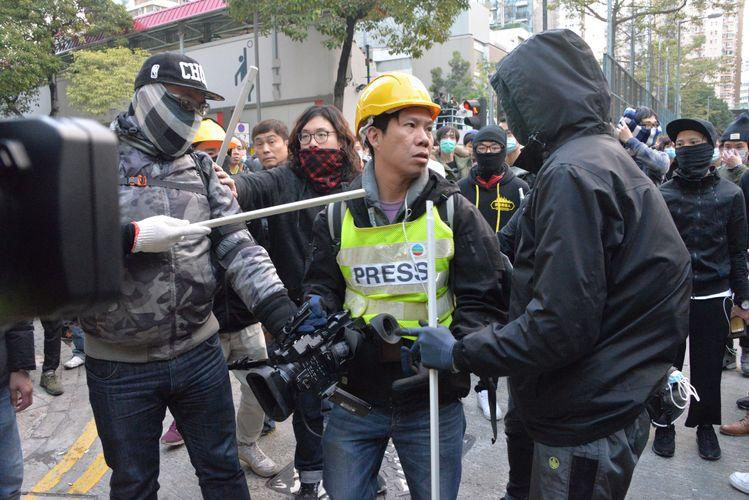
- Leung said that everybody was in
the heat of battle and therefore injuries were unavoidable. But the reporters
were not accidentally injured. The rioters wanted to remove evidence of their
criminal activities. They threatened the reporters with vulgar curses, they
destroyed camera equipment and they assaulted reporters. They interfered with
news gathering. Will Edward Leung come out and state that he is willing to
defend the Press as the Fourth Estate?

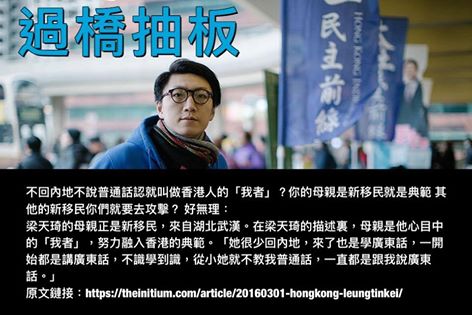
(Initium)
March 1, 2016.
"A new immigrant is not
necessarily an Other. If a new immigrant arrives in Hong Kong, actively learn
Cantonese and accepts Hong Kong culture and core values, then he/she can become
one of Us." Edward Leung told the Initium reporter. He said that the people of
Hong Kong should be able to define who is a new Hongkonger. They advocate that
the right of approval of one-way immigrant visas from mainland China to Hong
Kong should be in the hands of the Hong Kong government.
But will a society that keep
emphasizing Us versus Them erect barriers and cause fears?
Sitting in the teahouse
restaurant, Edward Leung stayed silent for a few seconds and then leaned his
body forward, smiled and said: "These walls do not exist as long as you are
willing to blend in."
Edward Leung's mother is a new
immigrant from Wuhan city, Hubei province, China. His father is a Hongkonger who
taught Chinese history at a secondary school. On a field trip to Wuhan, he met
Edward's mother. After they got married, he applied for her to come down to Hong
Kong to live. Thereafter she was a housewife.
In Edward Leung's narrative, his
mother is one of Us to me, a model of how to actively blend into Hong Kong. "She
seldom goes back to mainland China. She learned to speak Cantonese after she got
here. From the start, she spoke Cantonese. At first she couldn't speak
Cantonese, but she learned it. She never taught me putonghua. She spoke
Cantonese all the time."
His mother loved Chinese
literature. She introduced Edward Leung to Tang and Song dynasty poems, and
introduced him to the books of Qian Zhongshu and Shen Congwen. But China is
still very alien to him.
"It is clear that the place where
I live in is called Hong Kong and everybody says that I am a Hongkonger. I have
been to China much. Have I really Chinese?" He recalled his perplexity. At age 5
and again age age 13, he went back to Wuhan with his mother. But apart from
seeing snow, he does not have much of an impression of China.
In 1997, Hong Kong was returned to
China. Edward Leung was 6 years old. He said that he vaguely pondered "why Hong
Kong was returned to China" and "why did the blue flag of Hong Kong become a red
flag."
As for identity, Edwad Leung's
father did not have these perplexities. "He is anti-Communist but also very
patriotic. He votes for the Democratic Party each time." His father was
particularly interested in studying the Late Qing dynasty, the northern campaign
of the Nationalist Revolution, the War of Resistance against Japan and the Civil
war between the Communists and the Nationalists. He gave history lessons to his
son. "At heart, my father is anti-communists. His frequent conclusion was that
the revolutionary efforts of the forebears managed to establish a nation. But
because the Communists seized power through the Civil War, the New China is
awashed in abject poverty and corruption is everywhere."
Internet comments:
- How localist is our Localist
candidate?
His mother is a mainland locust
who came from Wuhan city, Hubei province, China.
His father is a Hongkonger who
chose to marry a mainlander instead of a Hongkonger. She spoke no Cantonese at
the time.
After the parents married, the
father applied for the mother to come down to Hong Kong on a one-way immigrant
visa, like the hundreds of thousand of other female mainland locusts.
Afterwards, the mother became a
housewife. This means that she was stealing resources from genuine Hongkongers
without making any contributions of her own, like the hundreds of thousands of other
female mainland moocher locusts who sponge off the genuine Hongkongers who pay
genuine taxes.
Late breaking news: Even the
candidate was born in mainland China. He and his mother came after his birth for
family reunion, like hundreds of thousands of others. And the candidate is in
his fifth year of undergraduate studies majoring in Philosophy, soaking up more
money from the Hong Kong taxpayers.
- The time of this disclosure is
strategic. Edward Leung must have known that this is a problem. The only issue
is that he wants to set his own terms for the disclosure. To do so before the New
Territories East Legislative Council by-election would torpedo his campaign.
Therefore he kept the lid on. However, he knew that he could not do so forever.
Therefore he chose to do so now while he was still riding on the tide. If he
waited until later, the campaign season for the September Legislative Council
elections would have started and the disclosure would come from his enemies. So
he chose to come clean now and hope that the impact on the election six months
later will be minimal.
- This may not be the whole story
yet. For example, what are the ages of the parents? The most typical story is
the one in Ann Hui's
Night and Fog:
An elderly man from Hong Kong takes a wife from mainland China and goes on to
neglect and abuse the woman. So was the father 60 and the mother 20 when they
met? ...
- (Hong
Kong Census 2011)
Place of birth of Overall
Population, 2011
Hong Kong: 4,278,126 (60.5%)
Mainland China/Macau/Taiwan: 2,267,917 (21.1%)
Elsewhere: 525,533 (7.4%)
By age, most persons over age 65+
were born in mainland China/Macau/Taiwan.
- So what is the real problem?
Nationalism? Racism?
Ageism?
Jeunism?
- Edward Leung said that a new
Hongkonger is not defined by place of origin. Instead, a new Hongkonger is
someone who learns to speak Cantonese and accepts the culture and core values of
Hong Kong.
Conclusion #1: If you can't speak
Cantonese, you are not a new Hongkonger. Please take note, all you South Asians,
Americans, Brits, Aussies, Kiwis, Canucks, etc.
Conclusion #2: There is no
consensus on what are the culture and core values of Hong Kong. If you offer a
list, that is your opinion. Edward Leung is saying that a new Hongkonger must
accept the culture and core values as listed by Edward Leung.
- Don't count on there being a
list from Edward Leung. He isn't sure what those things are and he is going to
be shifty about it.
- Well, people like to say that
rule-of-law is a core value in Hong Kong. That is not the case as far as the
Localists are concerned. Under any system of law, it is reasonable to assume
that must be ordinances against rioting, criminal destruction of property,
physical assault, arson, etc. The Localists do not believe that such laws are
applicable to them.
- In practice, the Localists will
judge a person based upon external appearance. They never bother to obtain a
sworn statement of loyalty to the cause of Localism. For example, see the Tuen
Mun mother-daughter (https://www.youtube.com/watch?v=n02bbn_7aKw).
Interesting when the mother opened her suitcase to show that she was not
'smuggling' anything, the response was "Maybe you didn't but your compatriots
are." So that was guilty by association through place of origin which covers
Edward Leung.
- A true Localist speaks
Weitou
dialect. Everybody else is a locust, with only generational differences.
- (YZZK)
According to the localists, they are the genuine Hongkongers whereas all those
who came from mainland China and speak accented Cantonese are not. Based upon
this standard, people like Ming Pao founder Jin Rong (who speaks with a Zhejiang
accent), Sir Run Run Shaw (who speaks Ningbo-accented Shanghainese all his life) and
Asia's richest man Li Ka-shing (who speaks with a Jiaozhou accent) are not
Hongkongers! But who are you to say that they are not Hongkongers? Who amongst
you have contributed more to make Hong Kong great than them?
- If Edward Leung's mother is
stopped in the street by angry Shopping Revolutionaries because she is a
"mainland Chinese middle-aged woman (大媽)",
how would he respond?
- What is this psychoanalytical
babble about the mind of Edward Leung? The whole thing is very simple: Edward
Leung is a
Revisionist Maximalist, which is a Jewish movement that supported Nazi
Germany for its anti-communist stances while opposing their antisemitism. Or
something. Whatever.
- Why is this an issue for some
Localists? Some of the City-State advocates say that Hongkongers are a different
race and the Communists are moving large numbers of mainlanders down
to dilute the purity of the blood of the race of the Hongkongers. Therefore,
they demand an immediate and permanent stop to all immigration from the
mainland. Such being the case, Edward Leung and his mother are part of the
problem, and they must be exterminated in the Final Solution in order to
preserve the purity of the
Herrenvolk.

Supporters of Edward Leung used a kind of Deng Xiaoping "Black Cat White Cat"
argument to say that the only thing that matters is that he supports Localism!
This issue will be raised along the way to the September Legco elections.
- Let me quote the Grandmaster Wan
Chin:
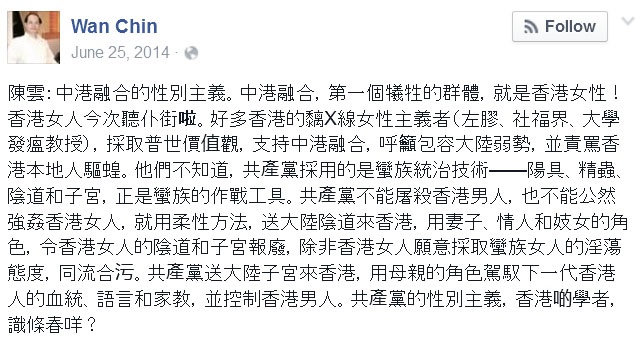
Wan Chin's Facebook
June 25, 2014
The gender theory of Hong Kong-China melting together. If Hong Kong and China
should melt together, the first group of victims will be the women of Hong Kong!
Hong Kong women can anticipate doom! Many fucking stupid feminists (including
leftist retards, social welfare workers, feverish university professors)
advocate universal values and support Hong Kong-China melting together. They
called to welcome mainlanders and they condemn those in Hong Kong who want to
oust the locusts. But they don't realize that the Communist Party is employing
the strategy for ruling over barbarians -- penises, sperms, vaginas and uteruses
are the weapons of the barbarians. The Communist Party cannot slaughter all of
the men in Hong Kong, and they cannot openly rape all of the women in Hong Kong.
So they used the soft method by sending mainland vaginas. As wives, lovers and
prostitutes, these mainland women put waste to the vaginas and uteruses of the
women of Hong Kong, unless they can become as slutty as those barbarian women.
The Communist Party is sending all these mainland uteruses to Hong Kong. Using
the role of motherhood, they will dominate the bloodline, language and family
upbringing of the next generation of Hong Kong people. They will also control
the men of Hong Kong. What the fuck do the Hong Kong scholars know about the
gender theory of the Communist Party?
The fact that Edward Leung is
still praising his mother so effusively means that he has been brainwashed just
as the Communist Party intended to.
More from Wan Chin:
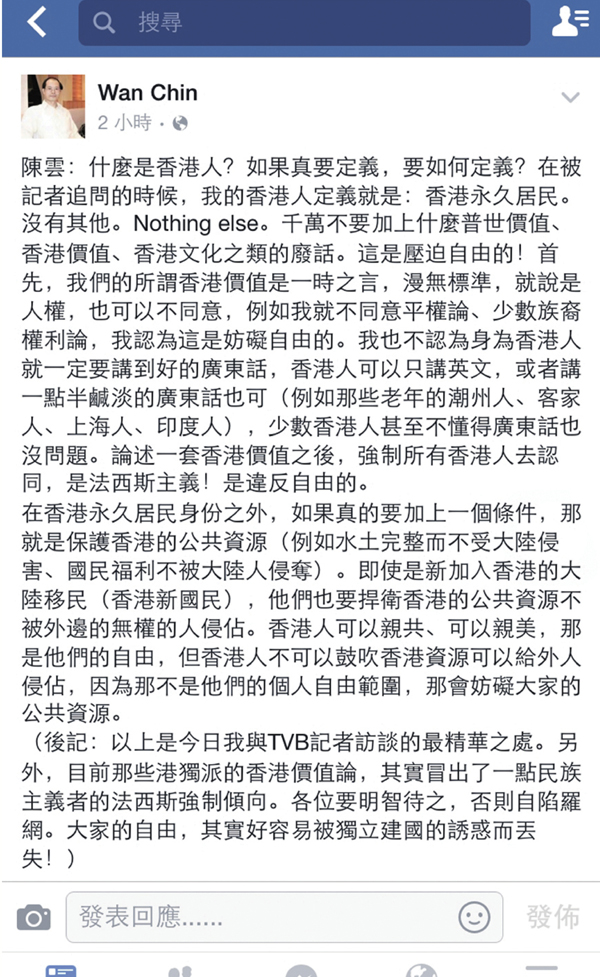
What is a Hongkonger? If you really have to define
it, what is that definition? When asked by repporters, my definition of a
Hongkongers is: A permanent resident of Hong Kong. Nothing else. Please do not
attach any nonsense such as universal values, Hong Kong values, Hong Kong
culture, etc. That would be suppressing freedom!
First of all, our so-called Hong
Kong values are arbitrary without any standards. You can say that it is about
human rights but you can also disagree with that. For example, I disagree with
equal rights, minority rights, etc. I think this interferes with freedom. I
don't think that Hongkongers must speak Cantonese well. Hongkongers can speak
English or they can speak poor Cantonese (as those elderly Chaozhou people,
Hakka people, Shanghainese peole, Indians). It does not matter if a small number
of Hongkongers can't speak Cantonese. To come up with a list of Hong Kong values
and then force all Hongkongers to accept this is Fascism. It stands on the
opposite side of freedom and liberty.
If another condition has to be
added on top of permanent residence, then it would be the defense of Hong
Kong's public resources (for example, making sure that land and sea are not
taken over by the mainlanders, social welfare is not robbed by the mainlanders).
Even newly arrived mainlanders can also defend public resources in Hong Kong to
prevent them from being robbed by outsiders who have no rights. Hongkongers can
be pro-Communist China or pro-America. That is their freedom. But Hongkongers
cannot advocate public resources being handed over to outsiders. That would not
longer be an issue of their personal freedom, because public resources are at
issue.
(Local
Press) Wan Chin: What is a Hongkonger?
What is a Hongkonger? If a definition is
really wanted, what definition are we going to give? When pressed by the
reporters for an answer, my definition for a Hongkonger would be this: Hong
Kong permanent resident. Nothing else. Never tack on those craps what are
known as universal values, Hong Kong values, or Hong Kong culture and the
like. All of these would oppress freedom!
First, our so-called Hong Kong values are
only transient words going by without standard. Even with the postulate of
human rights, we can still disagree with what it entails. For example, I for
one do not agree with the equal rights proposition nor that of ethnic minority
rights, for I think they impede freedom. Also, I don�t hold that as a
Hongkonger one must be able to speak Cantonese well.
It�s perfectly alright for a Hongkonger to
speak only English or just be able to speak some broken Cantonese (for
example, Cantonese spoken by those elderly Ch�aochounese, Hakkas, Shanghainese,
and Indians). It�s not a problem even for a minority of Hongkongers not be
able to speak Cantonese.
To expound on a set of Hong Kong values and
then force all Hongkongers to accept it is fascism! A contravention of
freedom.
If besides the status of being Hong Kong
permanent resident another condition is to be tacked on, it should be the
protection of Hong Kong�s public resources (for instance, to safeguard the
intactness of our natural environment, ensuring that it is free from mainland
encroachment; to prevent our national welfare from being robbed by the
mainlanders). Even the new mainland immigrants to Hong Kong are obliged to
safeguard Hong Kong�s public resources against encroachment by outsiders who
have no rights for their use.
Hongkongers can choose to be pro-communist or pro-US � that�s their own
freedom, but Hongkongers must not preach the encroachment of Hong Kong�s
public resources by people from outside, because this is an action outside the
domain of their individual freedom, and it�s an action that would hamper our
public resources.
(postscript: The above is the quintessence of
the interview I had with TVB reporters today. Apart from all that is said, I
observe that the discourse on Hong Kong values by the pro-Hong Kong
independence camp has revealed a little of the nationalists� fascist, coercive
tone. You have to exercise your wit in dealing with this, lest you let
yourself fall into a snare. In fact, it�s easy for us to lose our freedom
under the temptation of nation-building through independence!)
Wan Chin: As a libertarian, I oppose the
postulates of �universal values� or �Hong Kong values�. These theses about
values can be extremely dangerous. All of you should reflect on them many a
time, lest you fall into the trap.
Wan Chin: The theory of �Hong Kong values�
expounded by those proponents of Hong Kong independence has in fact revealed
traces of the nationalists� fascist tendency. Exercise your wit in dealing
with it.
Wan Chin: You can acquaint yourself somewhat
with what sort of a thing a philosopher�s intellectual capacity is.
Nonetheless, I never have the slightest wish to brag about myself being a
philosopher. I have no need to do that.
Ivy Fang: It is okay to be pro-China or
pro-US or pro-Britain but never do anything to betray Hong Kong. It�s easy to
understand all this. Don�t see why so many pig-heads are hell-bent on selling
out Hong Kong.
Wan Chin: Yes indeed. Even pro-Taiwan is
okay.
Wan Chin: In fact many young people enjoy
servitude � for the sake of nation-building through independence, they
wouldn�t mind to subject themselves to servitude. You see, many people simply
do not deserve to enjoy freedom.
Wan Chin: During the early years of the
Republic of China, many young people took a liking to communism and
collectivism, but they simply didn�t like freedom.
- (Oriental
Daily) In the Initium interview, Edward Wong stated that his mother was
a native of Wuhan city, Hubei Province, China. Afterwards, someone dug out an
old photo of Edward Leung with long hair and said that he clearly looked like a
mainland country hick.
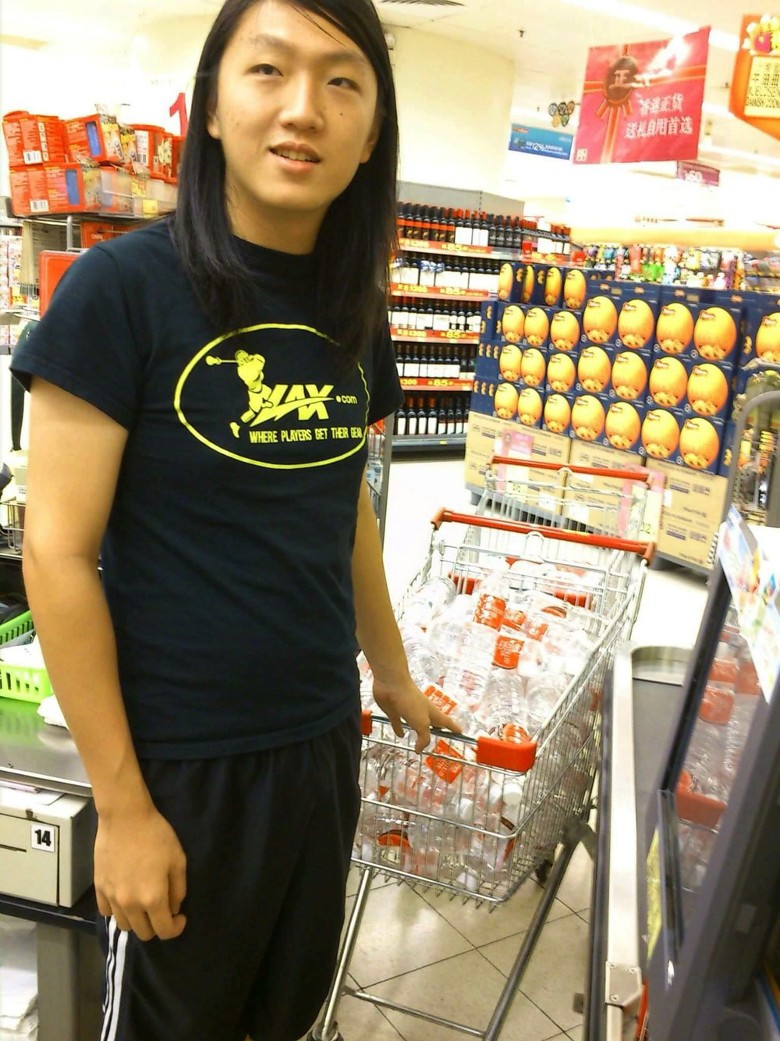
[P.S. In this photo, he is hauling
a cart full of bottled water in a supermarket. This cannot possibly be for
personal consumption. So he is hogging valuable resources for profit, and that makes him
a parallel trader. And because this mainland locust has bought up all the
bottled water, a genuine Hongkonger who comes in later will only find an empty
shelf.]
- Today Edward Leung admitted that
he was not born in Hong Kong. However, he said that the place of birth is
immaterial as long as you speak Cantonese and embrace Hong Kong values.
- I am flummoxed by Edward Leung's
multiple statements.
Proposition #1: In the Initium
interview, he said that he is 23 years old and his mother has been in Hong Kong
for 24 years.
Proposition #2: In the Initium
interview, he said that he has only been to mainland twice, respectively when he
was 5 years old and 13 years old.
Proposition #3: Today he came out
to tell the press that he was not born in Hong Kong.
So where was he born? Not on
mainland China, according to Proposition #2. So his mother got married, applied
to come to come to Hong Kong for family reunification, got pregnant, and traveled
overseas somewhere (Taiwan? Thailand? Vietnam?) to give birth to Edward Leung.
Why?
- Circa 1992, the more likely
scenario is: 55-year-old never-married secondary school history teacher Mr.
Leung went to a Shenzhen nightclub and met a 19-year-old fortune-hunting
nightclub waitress from Wuhan city, Hubei province. They got married and she
stayed at first in an apartment in Shenzhen. Later she got pregnant and gave
birth to a son. Mr. Leung applied for mother and son to join him for family
reunion. Chances are that Mr. and Mrs. Leung won't even tell their son
that this was what really happened.
- A year ago, 19-year-old Betty
Wong wrote an autobiography about illegally entering Hong Kong when she was
eight, successfully obtained right of abode and getting accepted by the
Hong Kong University School of Medicine. Internet users criticized this Chinawoman for robbing the resources of the people of Hong Kong. Well, it seems
that Betty Wong speaks Cantonese and embraces Hong Kong values. Now what?
- If a Hongkonger is one who
speaks Cantonese and embraces Hong Kong values, then I nominate
Siu Yau-wai. He speaks Cantonese and
his behavior suggests that he will excel in bullying the weak, cursing the
police, kicking suitcases and throwing bricks.
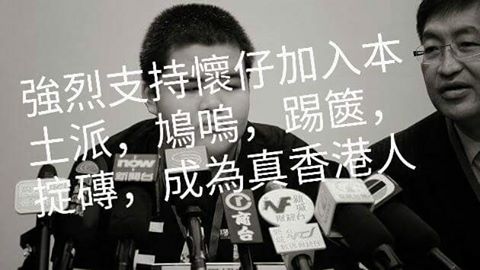
- Poster for Edward Leung's
September Legco campaign:
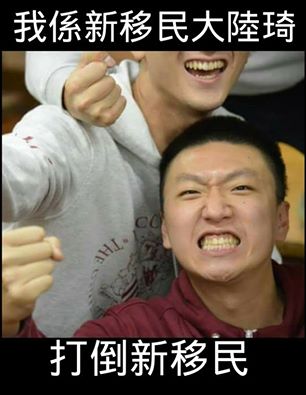
I am mainland immigrant Leung Tin-kei
Death to all mainland immigrants

Poster ad: Are you willing for
Hong Kong to spend $1,000,000 every 18 minutes to educate/raise the children of
"locusts"?
Locust Edward Leung: After I
came to Hong Kong and laid eggs, I saw that Hong Kong was being destroyed by
more and more locusts. Therefore I decided to start a anti-Locust campaign. I am
not a Chinaman. All locusts should scram back to China.
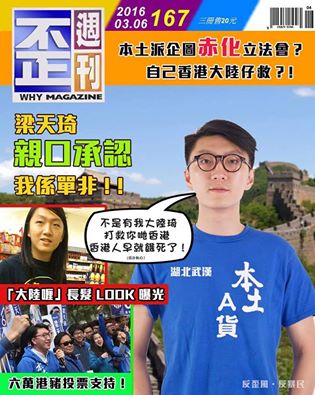
Why Magazine
2016.03.06
Localists trying to turn the Legislative Council red?
Our own Hong Kong mainland kid will save us?!
Edward Leung acknowledges with his own mouth that he is a Single NO!!
"Without me, Mainlander Kei, you Hongkongers would all be dead by now?
T-shirt letters "Hubei province, Wuhan city, Localist fake product."
"Mainlander Kei" long-hair look is shown
60,000 Hong Kong pigs voted to support!
Addendum:
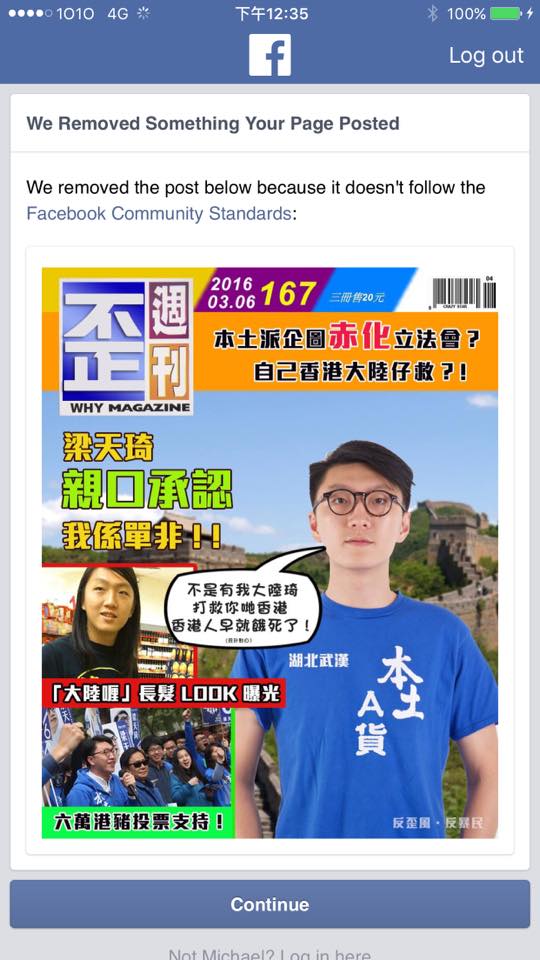
Freedom of speech as practiced in the United
States of Amerika.
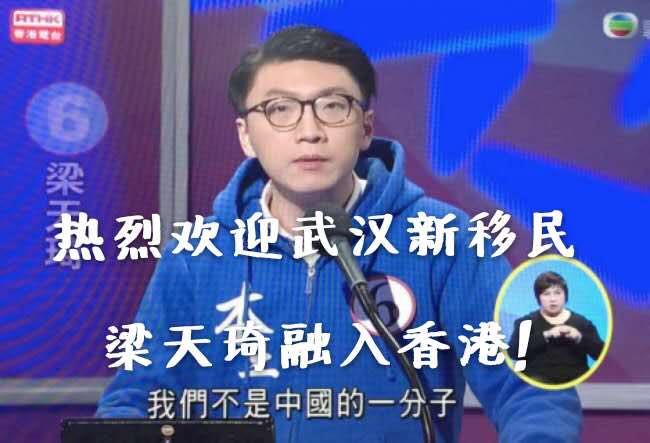
Warm welcome to new immigrant from Wuhan
Edward Leung Tin-kei melting into Hong Kong
"We are not part of China"
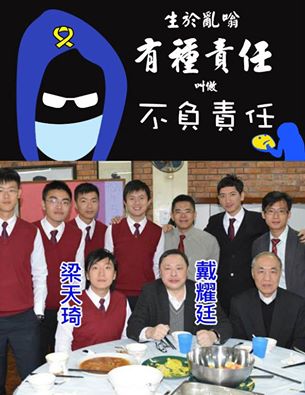
Photo of HKU student Edward Leung and teacher
Benny Tai.
Born in a time of bullshit talk, we have the responsibility to be
irresponsible.
Benny Tai started Occupy Central, but bailed out midway to resume teaching
duties.
Edward Leung was born in mainland China, but went on to fight for Localists as a
Local.
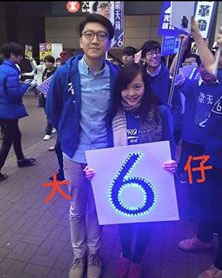
Edward Leung was candidate #6 in the New Territories East Legco by-election. But
we never realized the significance that "Number 6 kid" is a Cantonese homonym
for "Mainland kid".
- When Edward Leung 'fessed up, it
is the golden opportunity for other Localists to 'fess up as well because a
shared limelight is less heated than a solo appearance.
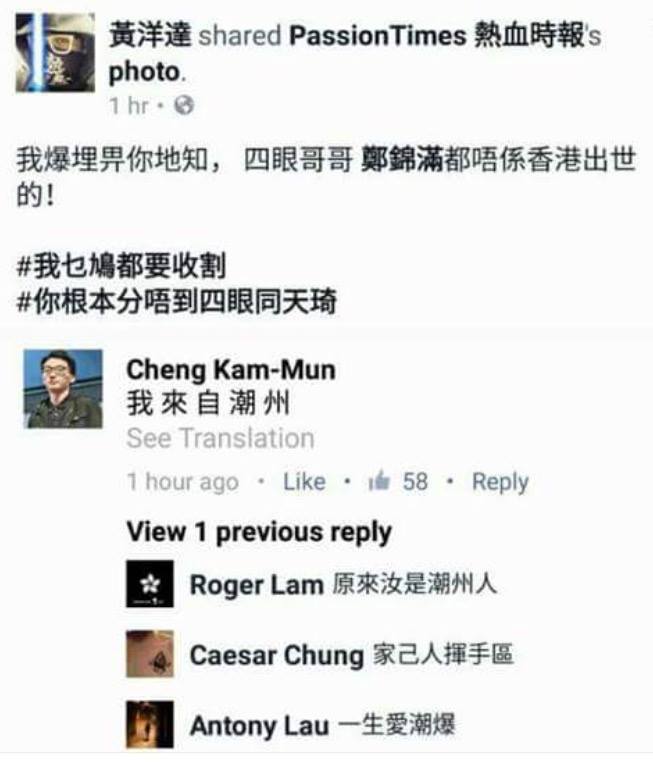
"Four-eyed Brother Cheng Kam-mun admitted that he
is from Chaozhou (Chieuchow/Teochew) city, Guangdong province, China.
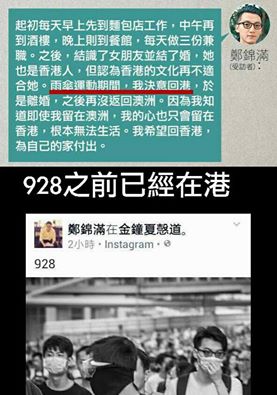
"Four-eyed Brother" Cheng Kam-mun gave further
details: "Each morning (in Australia), I went to work first at the bakery; at
noon, I went to work at one restaurant; in the evening I went to work at another
restaurant. I was holding three jobs. I met my girlfriend and we got married.
She is also a Hongkonger, but she no longer thought that Hong Kong culture
suited her. During the Umbrella Movement, I decided to return to Hong Kong. We
got divorced. I haven't been back to Australia since. I knew that even if I
stayed in Australia, my heart will be in Hong Kong and I can't live with that. I
wanted to return to Hong Kong and contribute to my homeland."
Good story, but how do you explain the photo of you on Harcourt Road, Admiralty
on September 28, 2014? Weren't you supposed to be still living in Australia?
- (Oriental
Daily) June 7, 2016. The interviewer pointed out that former Hong Kong
University Student Union president Billy Fung Jing-en holds a Singapore
passport. Fung did not deny this. He said that after June 4th 1989, his parents
wanted to immigrate and therefore arranged for Billy to be born in Singapore. If
Hong Kong comes under One Country One System, the family would leave. But so far
things have not gotten so desperate yet. In other words, if things go awry in
Hong Kong, Billy Fung Jing-en will just use his Singapore passport to leave.
- Dr.
Cheng Chung-tai, Teaching Fellow, Department of Applied Social Sciences,
Polytechnic University and member of Civic Passion lists as his educational
credentials: Bachelor of Arts (Polytechnic University) and Doctor of Philosophy
(Peking University). And Hong Kong University students opposed the mainland
student exchange program because of a fear of being brainwashed. Or something.
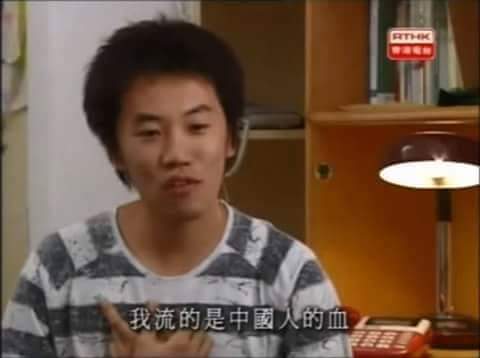
The young Cheng Chung-tai interviewed by RTHK in
2005:
"What flows in me is the blood of a Chinese person."
http://www.hk01.com/%E7%86%B1%E8%A9%B1/43226/%E9%84%AD%E6%9D%BE%E6%B3%B0-%E6%A5%8A%E5%B2%B3%E6%A9%8B05%E5%B9%B4%E4%BA%AE%E7%9B%B8-%E9%8F%97%E9%8F%98%E9%9B%86-%E6%B3%B0%E5%8D%9A-%E4%BF%82%E9%BB%91%E6%AD%B7%E5%8F%B2
https://www.facebook.com/franky.leung.754/videos/2117183761839381/
In the 2005 RTHK program, Cheng
Chung Tai (Civic Passion) and Alvin Yeung Ngok-kiu were both studying in Beijing
at the time. Cheng said that he wanted to go outside Hong Kong because he thinks
that being in Hong Kong too long means that he gets less sensitive to what is
happening around him. He said that the Hong Kong, Macau and Taiwan students are
treated as neither local nor foreign students. He asked: "What flows in me
is the blood of a Chinese person, but I don't know how to sing the national
anthem. Does that mean that a Chinese person is someone who knows how to sing
the national anthem?"
Yeung said that he wanted to live
in China, understand the people and develop his career.
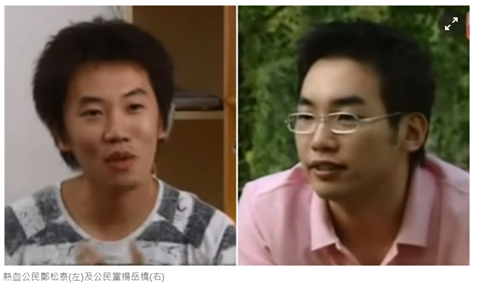
- Yau Wai-ching (Youngspiration):
I am a Hongkonger. Because I love this place, I don't want to see it buried in
the hands of the Hong Kong Communist government. How much I am willing to give
to this place was never about the English letters on the ID or the DNA. If I
came from the outside and grew up in Hong Kong, I think I will still love this
place in the end. No matter how bad things get, I am not willing to leave
because I don't want to give it up. [Attachment: Birth Certificate from the
Births and Deaths Registry, Hong Kong.
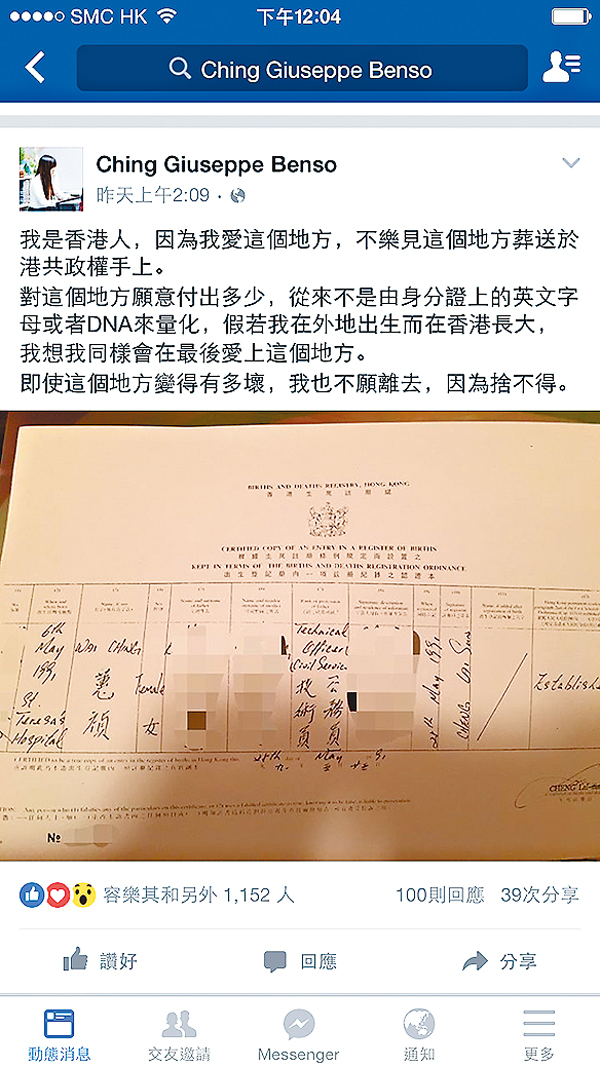
- Ho Chi-kwong (Hong Kong
Localism Power) I thank Yau Wai-ching for her response. Here I will disclose
some of the personal information on my Hong Kong ID. I am setting an example. I
hope that the other Localist leaders who planned to participate in the September
Legislative Council elections won't hide their places of origins in order to
cheat Localist votes.
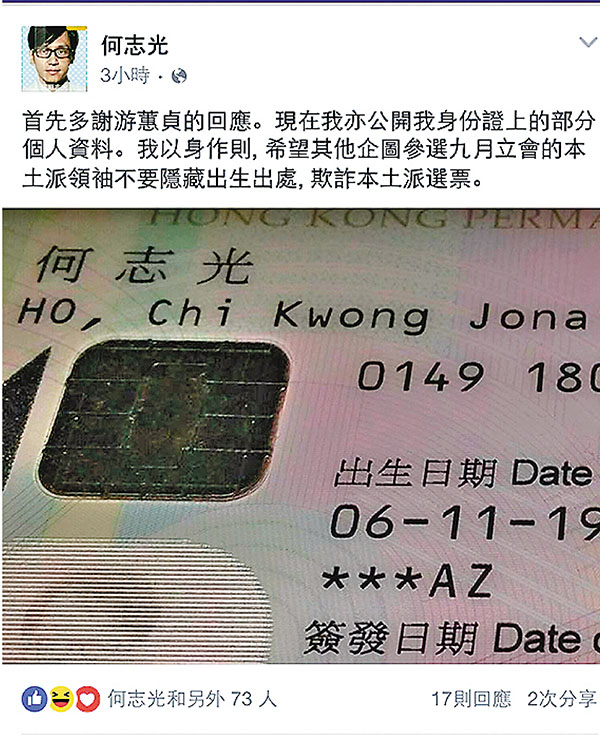
- (HKG
Pao) On Mother's Day, Ming Pao published an interview with Demosisto
chairman Nathan Law Kwun-chung about how he plans to spend Mother's Day with his
mother. Inside the article, there is this sentence: "50-something-years-old
Mother Law (known as Ah Lan) arrived in Hong Kong in 1999 with 6-year-old Ah
Chung to reunite with Ah Chung's father and other family members." Hey, this
means that Nathan Law is a new immigrant who was born in mainland China!? In
November 2014, Ming Pao also interviewed Nathan Law: "Nathan arrived when he was
5 or 6 years old with his mother from Guangdong province. On the mainland, he
attended a Hong Kong-funded kindergarten: 'I learned to write traditional
Chinese characters and I didn't get the impression that I was injected with any
points of view.'" No wonder Demosisto does not position itself as Localist --
its chairman is a mainland immigrant too!
- In mainland China, everything is
fake -- infant milk formula, maotai wine, hairy crabs, etc. In Hong Kong,
everything is real except for the Localists.
- This disclosure throws a wrench
into the definition of a "new Hongkonger."
On one hand, a "new Hongkonger" is
no longer someone who has to be born in Hong Kong, because of the long list of
exemptions: Edward Leung, Cheng Kam-mun, Nathan Law, Claudia Mo, Lee Cheuk-yan, etc.
On the other hand, a person who is
born in Hong Kong is not automatically a "new Hongkonger", because of the long
list of exceptions: CY Leung, Carrie Lam, Lau Kong-wah, Lau Wong-fat, Regina Ip
Lau Suk-yee, etc. These people have been said to betray Hong Kong to the Chinese
Communists.
So the definition has to shift
towards language and values.
But a "new Hongkonger" cannot be
just someone who speaks Cantonese. Of the 8.5 million people in Guangzhou, about
half of them have Cantonese as their only language. And there are many more
Cantonese-speakers outside of Guangzhou within Guangdong province. They cannot be
allowed to become Hongkongers.
So a "new Hongkonger" must be
defined in terms of values.
In the United States, this is done
through an
Oath of Allegiance which must be taken by all immigrants who wish to
become United States citizens.
I hereby declare, on oath, that I
absolutely and entirely renounce and abjure all allegiance and fidelity to any
foreign prince, potentate, state, or sovereignty of whom or which I have
heretofore been a subject or citizen; that I will support and defend the
Constitution and laws of the United States of America against all enemies,
foreign and domestic; that I will bear true faith and allegiance to the same;
that I will bear arms on behalf of the United States when required by the law;
that I will perform noncombatant service in the Armed Forces of the United
States when required by the law; that I will perform work of national importance
under civilian direction when required by the law; and that I take this
obligation freely without any mental reservation or purpose of evasion; so help
me God.
Can such an oath be used? There
are loads of problems with this version. For example, many Hongkongers with
right of abode still hold foreign citizenship, and they must be made to
absolutely and entirely renounce all allegiance and loyalty to their countries
of citizenship or else they can't become a "new Hongkonger." As another example,
to "support and defend the constitution and laws against all enemies, foreign
and domestic" means defending the Hong Kong Basic Law (Article 1: The Hong Kong
Special Administrative Region is an inalienable part of the People's Republic of
China ...) as well as laws against unlawful gatherings, riots, obstruction of
police business, assaulting police officers, copyright violation, etc. And there
is also this thing about "bearing arms when required by the law"? And how can
God help when the people of Hong Kong have diverse religions (Catholicism,
Christianity, Taoism, Buddhism, Falun Gong, atheism, Hinduism, Islam, etc).
So what you need first is a
Constitution under which Hong Kong becomes a City-State and a new law code under
which certain activities such as riots, assaulting police officers, destroying
property, copyright
violation, tax evasion, money laundering, etc are acceptable under certain circumstances.
And finally you must remember the
Chinese saying that some people regards oaths as "eating lettuce" (that is, you
take an oath out of necessity but you promptly toss it to the back of your mind).
- Collection of short comments:
-"我要真本土!"(I
want genuine Localist!) Who is going to make that banner to hang down from Lion
Rock?
- If Edward Leung is from Hubei,
then he must surely defecate/urinate on subway trains. According to Localists,
all mainlanders do that.
- I have never discriminated
against mainlanders who settle down in Hong Kong, I have never discriminated
against mainland tourists, and I will never call them locusts. But I am very much
prejudiced against the mainland immigrant named Edward Leung, because he is a
locust.
- So the localist is not local and
the Hongkonger is not from Hong Kong. Why don't you go back to your home in Wuhan city, Hubei
province, China to discuss Localism with the central government?
- More than 60,000 Hong Kong pigs
donated more than $1 million to support the election campaign of a mainland
locust. They seemed to be really working hard to achieve One County One System.
When the opposition is like this, the Communist grandpas don't even need
friends.
- "生於斯長於斯"
(born here, raised here) was the motto on his campaign election materials. He is
suspected of violating both the election and advertising laws. The Independent
Commission Against Corruption and the Customs Department should be informed.
- He wants to stop the daily
immigration of 150 mainlanders to Hong Kong. He forgot to mention that he was
one of those.
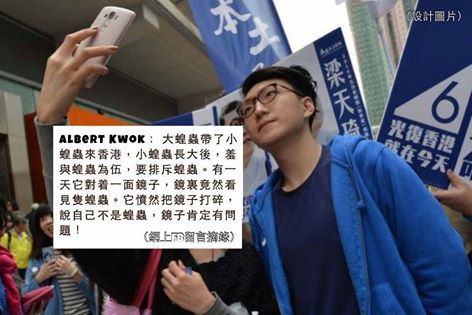
Fable:
Once upon a time, a big locust brought a little locust to Hong Kong. When the
little locust grew up, he was embarrassed to be a locust. So he ostracized the
other locusts. One day, the little locust looked into the mirror and was
surprised to see a locust! Angrily the little locust smashed the mirror. He
said: "I am not a locust! The mirror lied!"
- In mainland China, there is a
famous saying: "天上九頭鳥、地上湖北佬"
(High up on the sky is the nine-headed bird, down on the ground is the Hubei
guy) meaning that neither can be trusted. If even mainlanders can't trust Hubei
people, why would anyone trust Edward Leung, place of birth Wuhan city, Hubei
province, People's Republic of China?
- Quick, there is a commercial idea here -- sell nine-headed birds to the 60,000
Hong Kong pigs who voted for Edward Leung!
- A Hubei-dialect rap song
https://www.youtube.com/watch?v=djBLYQhKr3M
- There is an empirical social law
about mainlanders:
一雞二賊三乞兒
(they are either (1) prostitutes; (2) thieves/robbers; (3) beggars).
How many of these attributes does Edward Leung have?
- Adolf Hitler adored blue-eyed
blonde-haired Aryans and hated his own brown-eyed dark-haired Jewish blood, so
he started the Holocaust to exterminate all Jews (but not himself, of course).
Edward Leung adored the valiant Hongkongers and their values and hated the
cowardly mainlanders and their total lack of values, so he started the Brick
Revolution to exterminate all mainlanders (but not himself, of course).
- Here is the logical inference:
Step 1: All those who are born in
China and immigrate to Hong Kong later are "new immigrants". This is a
definition.
Step 2: A "new immigrant" is a
"locust" which came to Hong Kong to extract the social welfare benefits. This is
a central tenet of Localism.
Step 3: All "locusts" should be
expelled back to mainland China. This is the goal of Localism.
Step 4: Edward Leung was born in
China and immigrated to Hong Kong. By Step 1, he is a "new immigrant." By Step
2, he is a "locust." Therefore, by Step 3, he should be expelled back to
mainland China.
- Frankly, my dear, I don't give a
damn where Edward Leung was born. I only want to know: Whatever happened to the
escalation without any bottom line that he promised to give us?
- (HKG
Pao) Speaking in defense of Edward Leung, Civic Passion's Cheng
Chung-tai said that all along the so-called Hongkonger is someone who abides by
Hong Kong culture and values and lives in Hong Kong. Thus, the place of birth is
unimportant. "We are talking about using culture to build Hong Kong, using
culture to build a nation as opposed to checking where you were born and where
you came from." "Even people who are born on the mainland can be Hongkongers if
they take the viewpoint of Hongkongers and respect the local rights of
Hongkongers."
Previously, Civic Passion had been
fighting for the right for Hong Kong to examine and approve one-way immigration
visas from the mainland. "It is not that we won't let mainlanders come. But they
have to be examined and approved by us." Cheng Chung-tai explained that there
has to be examinations of Cantonese fluency and Hong Kong cultural knowledge before they
can be considered to pass.
Well, does this sound like an
examination for a doctorate degree or what? The important point was that Edward
Leung was one or two years old when his mother brought him to Hong Kong. At that
age, Edward Leung could not have passed the examinations of Cantonese fluency
and cultural knowledge! When asked about this, Cheung Chung-tai said: "I don't
know if Edward Leung went through this type of examination. You'll have to ask
him yourself because I really don't know."
- Also, Edward Leung said that his
mother learned to speak Cantonese after she arrived in Hong Kong. It was
'after', not 'before.'
- I take it that the same applies
to every immigrant into Hong Kong, not just mainlanders but also
American, Brits, Aussies, Vietnamese, South Asians, etc? For example, a Hong
Kong student goes to study in France and marries a French woman. When he
graduates and returns to work in Hong Kong, his French wife cannot come to live
here because she can't speak Cantonese. Is that the idea? [Of course, she can
stay here on an extendable tourist visa but she can't work and be paid here
until as such time that she can pass the Cantonese fluency and Hong Kong
cultural knowledge tests.]
- (U.S.
Citizenship and Immigration Services) To become a naturalized U.S.
citizen, you must pass the naturalization test. At your naturalization
interview, you will be required to answer questions about your application and
background. You will also take an English and civics test unless you qualify for
an exemption or waiver.
Please note: The naturalization
test is not administered before the immigrant arrives in the United States, nor
soon after. It is administered only when the immigrant wants to apply to become
a naturalized U.S. citizen. Cheng Chung-tai wants to administer a
language/civics test before approval to come.
There are some unintended results
that Cheng Chung-tai may not have thought about. Of the 1.4 billion population in
mainland China, 100 million live in Guangdong province and a large number of them
speak Cantonese. Very few people outside of Guangdong province speak Cantonese.
So the language requirement is going to restrict the pool of immigrants to Guangdong. Next, if
someone living in Guangdong is doing well career-wise in Guangzhou, Shenzhen or
wherever, moving to Hong Kong at this time would be a step down. Therefore, you
won't get the cream of the crop. You will only be getting impoverished old
people with only elementary school education.
Now these applicants will pass the
Cantonese fluency test easily because that is their first language. There will
also be tutors, classes, textbooks and apps to help the applicants pass the
civics test. (Go to any U.S. Chinatown and you will find many bilingual civics test books
on sale.) As with any school anywhere in the world, they don't have to
appreciate or believe in it; they only have to recite by rote. So this is just
the stuff that apparatchiks come up with in order to appear to be actively doing
something but it is actually a total waste of everybody's time.
- (EJ
Insight) March 8, 2016.
Hong Kong is a land of immigrants, with
people having come here from different places over the years and making
the city their home. While most
locals can trace their ancestral roots to mainland China,
there has also been an influx of people from other parts of the world in
recent times. Given
this situation, who can call himself a �genuine� Hongkonger? Can a person
who has his origins elsewhere have any right to wage a �localist� fight
against new immigrants? And,
is it not hypocrisy if someone who was born outside Hong Kong seeks to
identify himself with a so-called indigenous group?
Well, these are the questions that Edward
Leung Tin-kei of the radical group Hong Kong Indigenous is facing now
following revelations over the weekend about the activist�s background.
Leung, who contested in the Legislative Council by-election last month and
took a respectable third place with more than 60,000 votes, admitted on
Saturday that he was born in the mainland, and not in Hong Kong. The
comments, which were made as Leung made a trip to New Territories East to
thank voters, came after he acknowledged earlier that his mother had been
an immigrant from China.
The
news prompted intense debates and sharp criticism in online forums, with
people wondering if Leung had any right to take the �localist� position
given his place of birth and family background. Critics mocked him for
spearheading pro-hawker protests in Mong Kong last month and for
organizing fierce demonstrations last year against the so-called parallel
traders.
Leung�s politics flies in the face of his
actual background, netizens jeered, questioning his claims of Hong Kong
identity. Meanwhile, some people were interested in knowing how
traditional localists will now deal with Leung.
Civic Passion, a radical localist group
that has close ties with lawmaker Wong Yuk-man and Lingnan University
professor Horace Chin, had been among the groups that had been quite firm
in recent months on the issue of immigrants from China.
Those groups
had been the first in Hong Kong to use the word �locusts� to describe new
immigrants, accusing them of unfairly tapping into the city�s social
welfare resources. Chin
had also stirred a controversy by suggesting that Chinese women settled in
Hong Kong were taking orders from the Communist Party to monitor local
men.
Interestingly, after Leung�s
background was revealed, the groups suddenly stopped railing against new
immigrants.
Instead, they said that they welcome the
immigrants, but the migrants should pass tests on Cantonese and Hong Kong
culture to show their loyalty and commitment to the city. The change in
stance suggests that Civic Passion realizes that it may have gone wrong
previously in targeting all new immigrants. Immigrants should also have
the freedom to embrace localism, and one cannot determine a person�s
loyalties by just looking at his place of birth, the thinking goes.
�CY Leung was born in Hong Kong, but
is he a true Hongkonger?� � a member of Civic Passion wondered aloud,
calling for new mindset on the issue of localism.
The rise of localism has triggered a
debate on Hong Kong identity in the recent past. According to the Basic
Law, anyone who lives in Hong Kong for seven consecutive years will
qualify for permanent resident status. Such people are entitled social
welfare benefits from the government. But since the 1997 handover, there
has a new term called �New Hong Kong people�, which is defined as new
immigrants from China who moved to Hong Kong via the single-trip visa
mechanism. Such visas were granted by the Chinese government to its
people, to enable family reunions in Hong Kong, at the rate of up to 150
visas per day. Due to the flow of immigrants since 1997, such immigrants
account for about 12 percent of Hong Kong�s population as of now.
The localist groups in Hong Kong have
slammed the 150-visa-quota by Beijing as another way of colonialism. China
is trying to change the character of Hong Kong by moving hundreds of
thousands of mainland people to the special administrative region,
localists argued, accusing Beijing of seeking to extend the Communist
Party�s influence.
Against this backdrop, social conflicts
between old Hong Kong residents and new immigrants have been widening.
Locals have been griping as more and more new immigrants were being
allowed to apply for government subsidies as well as public housing
despite not fulfilling the 7-year stay requirement. Taxpayers say their
money should be used on Hong Kong people, rather than helping the new
immigrants. Some have even said that new immigrants should be made to move
back to China if they fail to adopt the Hong Kong way of life.
Despite all these arguments, there is
growing acceptance among people now that one shouldn�t automatically view
immigrants with suspicion and discriminate against them.
One can�t assume that the people are
moving due to political reasons, or that the new immigrants won�t embrace
the Hong Kong
way of life. If people
are willing to embrace core Hong Kong values, learn Cantonese and English,
and stand with Hong Kong people in their fight for the city�s future,
there is no reason for localist groups to target the immigrants.
It�s
worth noting that new immigrants from China will play a key role in
deciding the outcome of many seats in the upcoming LegCo election in
September.
The
rise of localism will no doubt will be a key agenda in the election as
traditional democrats, radical groups and some from the so-called neutral
camp will all try to play the �local� card to win public support. But one
should remember that the place of birth is not the determining factor as
to whether a person is a genuine Hongkonger. The more important aspect is
a person�s belief in the core values of Hong Kong, and their pride in
being Hongkongers. Rather than quibble about a person�s identity, it will
be good if all Hong Kong people stand united in safeguarding the city�s
freedoms and autonomy.
- (SCMP)
Localist leader Edward Leung between a rock and hard place. By Alex Lo.
March 8, 2016.
For decent people, it should not matter
whether localist radical Edward Leung Tin-kei was born on the mainland or
not. His mother was a mainland immigrant who came to the city 24 years
ago, after he was born. But given his extreme xenophobic ideology and that
of his group Hong Kong Indigenous, he opens himself up to accusations of
hypocrisy.
At the weekend, he admitted he was born
on the mainland but came to Hong Kong with his mother at a very young age.
His mother worked hard to secure a future
for her child. And Leung was obviously a good student, to be admitted to
the University of Hong Kong, where he is studying philosophy and politics.
The city did not spit in their faces, as localists do on mainland
visitors. Instead, it embraced and offered them a chance at a better life
that they wouldn�t have on the mainland.
That�s what our city has always about, a
great metropolis built on the back of hard-working and entrepreneurial
migrants, transients and colonials.
Leung has not even graduated and already
has a massive political following. In the New Territories East Legco
by-election last month, he finished in third place by securing more than
60,000 votes, an impressive feat.
Too bad it was run on a populist platform
grounded in hate and resentment against mainlanders and China in general.
His group organised numerous protests
last year that singled out those they took to be parallel-goods traders
and mainlanders for harassment, and has been accused of inciting the Mong
Kok riot.
Given his own mainland background, it�s
fair to ask: what happened?
It�s not unusual that for some people
desperate for a sense of belonging, they reject or refuse to acknowledge
their own past and go so far as to subvert or fight against their own
kind.
Some localists have argued they are not
haters, but defenders of Hong Kong�s autonomy, culture and values. That is
legitimate. But it�s often a fine line between legitimate defence and
hateful aggression. Leung�s Hong Kong Indigenous and other, similar
radical groups crossed that line long ago.
As Leung�s political career advances, he
may want to ponder his own past. He may yet become a decent person and a
good politician.
- (EJ
Insight) Why an immigrant can also be a nativist. By Joseph Lian
Yizheng. March 9, 2016.
There are many who snigger at Edward
Leung Tin-kei�s assertion that his popularity, as proven in last month�s
Legislative Council by-election, shows that Hong Kong�s politics has
shifted toward a �three-way race� of Beijing loyalists, pan-democrats and
the nativist groups that he represents.
Some, including those from the mainstream
democratic bloc, say that in order to make his point more valid, Edward
should have garnered at least a third of the vote, rather than his actual
share of around 15 percent, in the New Territories East election.
I would advise these people to take a
look at the results of last year�s Canadian federal election.
Led by Justin Trudeau, who later became
the Prime Minister, Canada�s Liberal Party beat its two major rivals,
Conservative Party and the New Democratic Party, and grabbed more seats �
184 in total in the House of Commons � than that of the other two parties
combined.
The landslide victory was never
anticipated as most observers had expected a neck-and-neck race. In the
previous election in 2011, the Liberal Party was a laggard, trailing the
other two rivals.
The likelihood of candidates from Hong
Kong Indigenous and like-minded groups winning a seat in each geographical
constituency citywide in the upcoming Legco elections in September can be
higher than you think.
By then everyone will have to admit the
formidable rise of the young nativists.
I noted in a previous column that �Hong
Kong people�s national recognition has been waning alongside the influx of
mainlanders totaling 900,000 since the handover � immigrants who settle
down in the territory under the 150 per day, one-way permit scheme
implemented for family reunions. One in every eight Hong Kong residents
today is from mainland China�.
But these immigrants as a whole do not
tend towards patriotism or political allegiance, though there is no
denying that some still constitute the voter base of the pro-Beijing
parties.
They are not innate opponents of freedom
and nativism either. As of now, Beijing cannot claim to have succeeded in
a scheme to use new immigrants to water down the local democratic push.
Data from the University of Hong Kong�s
public opinion program also reveal that there has been little change,
between 1995 and 2015, in the percentage of respondents who regard
themselves solely as Hongkongers vis-�-vis those that called themselves
Chinese.
The ratio remained at around 2:1 in both
the years. This is evidence that the political inclination of new
immigrants constantly evolves towards localism.
No one likes to live in complete
subservience to the state. Longing for freedom is something inherent; one
cannot buy people�s hearts and minds and make them more �patriotic� by
giving out banquets and freebies.
To nurture localism further, we need to
adopt a new �touch base� concept and see the newcomers who have settled
permanently in Hong Kong as potential nativists and people who share the
same aspirations for democracy.
Edward didn�t hide the fact that he was
born on the mainland and that his mother migrated to Hong Kong some twenty
years ago.
He is a living example that a nod to the
city�s core values makes one a Hongkonger.
There�s no other viable way to
differentiate between Hongkongers and outsiders, as otherwise the only
�genuine� locals will be descendants of indigenous villagers living in New
Territories back in the 19th century.
Japan offers an interesting perspective
as to how newcomers are assimilated into the host society.
Though Chinese tourists have tattered
reputation in Japan and elsewhere, I found, during my years of stay in
Japan, that some of my colleagues from the mainland were equally suave and
deferential just like the Japanese.
These mainlanders living in Japan admire
and are willing to accept the Japanese ways of conducting oneself and
getting along with others.
It�s no exaggeration to say that having
spent some time in Japan, even the most hardcore anti-Japan patriots would
develop some genuine affection for the country.
Among Chinese expats in Japan, it is
almost a cult now to follow Japanese culture and etiquette.
Given the rush of mainlanders into our
city, how can we say that Hong Kong will also not have the same effect on
newcomers?
- (EJ
Insight) Who Can Speak for Hong Kong? By Stephen Vines. March 12,
2016.
Who is
qualified to speak for Hong Kong?
This
question arises from the so-called revelation that Edward Leung Tin-kei was
born in the mainland.
Leung,
as most people know, is a leader of the Hong Kong Indigenous movement, who
made a spectacular debut at the recent Legislative Council by-election,
winning more than 60,000 votes.
He presumably volunteered the information
about being born in the mainland in the interest of full transparency, but the
mini storm on the internet this revelation provoked has produced more
confusion than clarity.
Even if the obvious point about Leung being
brought up in Hong Kong is ignored, this begs the bigger question of whether
an accident of birth should be the determinant of identification or indeed
qualification to lead a group advocating localism.
While it is both predictable and slightly
pathetic to see localism�s opponents seizing on the minor issue of Leung�s
birth, it is more worrying to hear localism sympathizers expressing doubts on
the basis of whether a person needs to be born in Hong Kong in order to assert
a loyalty to Hong Kong.
The dimwits who are hyperventilating over
Leung�s place of birth find themselves in the bad company of sundry racists
and other lowlifes who think that a person�s origins are far more important
than their views, actions or indeed record.
There is some very bad history here.
For example, there was no more loyal German
community, prior to the advent of Nazism, than German Jews.
The well-established Jewish community was
prominent in spreading German culture beyond the nation�s borders and well
represented in the armies that fought German wars.
They also made stellar contributions to the
country�s economy.
Yet the Nazis were obsessed by their
�foreignness� and insisted that their origins were far more important than
anything else.
Fast forward to Hong Kong in 2016 and,
depressingly, you will find a body of opinion that lurks uncomfortably close
to the sewers from which Nazism emanated.
There is, for example, an unwillingness to
accept that the well-established community from the Indian sub-continent, many
of whose members have lived here far longer than so called �real Hongkongers�,
can be considered to be genuine heung gong yan.
As for other communities who have made their
homes here, they too are deemed to be irredeemably foreign.
Unlike the flag-waving patriots who go out
and buy foreign passports for their families and establish scuttle holes
overseas, these �foreigners� are doomed to be forever foreign.
I know something about this because I am one
of those foreigners.
I also happen to be �merely� third-generation
British, as my grandparents arrived in London as literally penniless
immigrants.
One set of grandparents never quite mastered
the English language, but my parent�s generation had no linguistic problems
and never thought of themselves as anything but British.
It may be argued that it was helpful that
they were white, but even conservative Britain has changed a great deal, and
people of all colors have achieved a level of integration that seems to be a
distant dream in Hong Kong.
Those who search the world for overseas
examples that justify backward thinking in Hong Kong will have no problem
heading off to the United States, another place based on immigration, where
there was a tremendous furor over whether Barack Obama, the first black
president, was truly an American.
Despite the considerable efforts of a
grandson of German immigrants to cast doubt on his American identity, the vast
majority of fine American folk voted for him to be their president.
You might have heard of the man who led this
futile campaign to dislodge Obama, for he is Donald Trump and may himself
become president if we are all very unlucky.
Meanwhile, back in Hong Kong, part of the
blame for a lack of what is supposed to be a United States-style melting pot
must also be apportioned to some of the people who have settled here without
bothering or even attempting to learn Cantonese while preferring to stick with
their own communities.
This resolute apartness also affected some
ethnic Chinese immigrants to Hong Kong, who initially stuck close to their own
communities, be they Shanghainese, Fujianese or whatever.
What matters or should matter, is how they
see themselves in relation to Hong Kong identity and what contribution they
make to the community.
Whether Edward Leung was born on the Moon or
somewhere in the mainland is really irrelevant, yet this question is being
seriously discussed as though it matters.
Thankfully, many people in Hong Kong have
moved on from obsessing over place of birth, but there are many holdouts.
As ever, they are well on the wrong side of
history.
Internet comment:
- Actually nobody cares about where Edward
Leung was born in as much as they don't care that Wong Kwok-hing was born in
Vietnam and therefore his loyalty is suspect. Edward Leung became an issue
only because his group Hong Kong Indigenous and Wan Chin's City-State used
to say that the people of Hong Kong are a completely different race and
therefore they want to stem the tide of inferior Chinese immigrants. The
farce here is really about the rapid backtracking of those racist theories by
Hong Kong Indigenous and City-State.
- (Line
Post) March 14, 2016.
Why the fuss over Edward Leung's
birthplace? That is because certain Localists Internet users and opinion
leaders have been exhibiting strong xenophobia and protectionism. They are
used to giving blanket labels to mainlanders and new immigrants with terms
such as "locusts" and "Strong Nation citizens." They have advocated many
ideas that are protectionist in nature for local-born Hongkongers. For
example, they object to the Basic Law giving right of abode to children when
neither of the parents are Hong Kong residents; they oppose the Final
Court's decision to allow new immigrants to apply for social welfare; they
oppose new immigrants being able to apply for social welfare after one year
of residents. Some Internet users said that all new immigrants are welfare
cheats who rob the resources of the people of Hong Kong.
Without this kind of xenophobia directed
against mainlanders, nobody would care about where Edward Leung was born.
But after the information came out, certain Localist opinion leaders came
out to assure everybody that they are not against all new immigrants from
the mainland or the mainland spouses of Hongkongers. Immediately their
previous prejudicial comments were retrieved by Internet users. For example,
over at Hong Kong Indigenous: "Hong Kong has limited land and resources. If
the government keeps bringing in new mainland immigrants with no apparent
reason, everything that belonged to us Hongkongers and even this piece of
earth will fall into the pockets of the new immigrants."
In so saying, Hong Kong Indigenous is
pitting "Hongkongers" against "new immigrants." But if a "Hongkonger" does
not have to be born locally and "new immigrants" can become Hongkongers,
then what is the definition of "new immigrants""? If you think that
"the government keeps bringing in new mainland immigrants for no apparent
reason," then Edward Leung and his mother came under this policy. So why can
they become "new immigrants" and "Hongkongers"?
I believe that the self-contradiction of
the Hong Kong Indigenous lies in the English word "Indigenous". The term
came from the combination of the Greek words
ενδό (for "within") and
γέννoυς (for "born"), meaning
"born locally" or "born within". In anthropology and law, the term is
usually "native" or "aboriginal." Thus, the name Hong Kong Indigenous
clearly intends to show that they are trying to defend those are born and
grow up in Hong Kong. If now Hong Kong Indigenous say that the "Hongkongers"
that they are defending are not just those who are born and grow up here,
then the impression of "moving the goal posts" cannot be avoided.
Another issue is that the Localists have
often criticized the mainstream pan-democrats as "leftist retards" for
following certain idealistic principles. But now we have Edward Leung
saying: "As long as someone respects Hong Kong culture and defends Hong Kong
core values, he is a Hongkonger no matter if he was born in Hong Kong or
elsewhere." This is exactly the kind of thing that "leftist retards" say. So what
now is wrong with the mainstream pan-democrats insisting on defending Hong
Kong core values, and conserving local architecture and culture?
If a new immigrant satisfies Edward Leung's
criterion for being a Hongkonger, should she not be allowed to apply for
social welfare after residing here for one year? A baby whose parents are
not Hong Kong residents can grow up in Hong Kong speaking Cantonese and
defending Hong Kong core values as required by Edward Leung. So why does
Hong Kong Indigenous insist that the baby must be expelled, or not be allowed
to attend school here?
- The real issue is that Hong Kong should
have the right to screen and approve/disapprove mainlanders who want to
immigrate here. So who should be allowed to come here? Here we can adopt the
universal values as defined by the United States Public Health Service in
its Manual for the Physical Inspection of Aliens (1917).
The Manual has a list of excludables:
"imbeciles, idiots, feeble-minded person, persons of constitutional
psychopathic inferiority (homosexuals), vagrants, physical defectives,
chronic alcoholics, polygamists, anarchists, persons afflicted with
loathsome or dangerous contagious diseases, prostitutes, contracts laborers,
all aliens over 16 who cannot read." So there you have it.
- (HKG
Pao) To raise even more money, Edward Leung decided to pose as a
model to sell t-shirts. The Use It Or Lose It Facebook is selling two
t-shirts. One has the words "I FUCKING WANT FREEDOM" and the other says "I
DON'T NEED SEX BECAUSE GOVERNMENT FUCKS ME EVERYDAY."
- (Hong
Kong Free Press) July 31, 2016.
Born in mainland China in 1991 to a mother
from Wuhan, he arrived in Hong Kong as an immigrant at the age of one.
He attended a top-tier English-language
secondary school in Yuen Long, and regularly supported his local football
team, Tin Shui Wai Pegasus. Introduced to the Hong Kong music scene, he now
cites indie group The Yours as his favourite local band. Following
acceptance into the University of Hong Kong, he represented his all-male
hall of residence in three sports, and was elected chairman of its student
association.
Then, in the early hours of February 9,
2016, he was arrested on charges of rioting, during the �Fishball
Revolution� that saw bloody clashes in Mong Kok between protesters and
police.
What led the boy from Wuhan to choose such
a path?
Edward Leung Tin-kei, the face of localist
party Hong Kong Indigenous, became the subject of controversy in March this
year when his Wuhan roots were made public. Internet users criticised the
hypocrisy of the perceived anti-Chinese immigration � or even xenophobic �
stance shared by many localist groups, when one of their own best-known
figures was an immigrant himself.
Leung responded by claiming that
Hongkongers are defined by their �common values, cultures and institutions�,
rather than place of birth.
Internationally, Leung�s civic � as opposed
to ethnic � conception of national identity is hardly a new idea. But how
has a common identity been constructed in Hong Kong, a refugee city whose
population has exploded almost tenfold since the end of the Second World
War? An ever-increasing number of young Hongkongers no longer identify as
Chinese, but there is no single all-encompassing reason why.
Some immigrants like Leung have come to
adopt this nascent identity, calling for Hong Kong�s interests to be
prioritised over those of China. Others are less enthusiastic, preferring to
retain their Chinese identity despite sympathising with the city�s struggles
for democracy and autonomy.
Glen, 26, was born in China�s Zhejiang
province, but he now calls himself a Hong Kong localist. Like Leung, he has
almost no recollection of his infant years in mainland China, as he came to
Hong Kong at the age of two. He compares the revelations of Leung�s
birthplace to �coming out of the closet�, leading the way for greater
acceptance of immigrants like himself who have come to embrace the localism
movement.
�Initially, I had reservations against
telling others in the movement that I was from Zhejiang. But as political
events have developed, I feel more comfortable doing it, and the more I do
so, the less �Chinese� I feel.�
Likewise, King Wong, a 20-year-old student
activist, agrees that the support for Leung has clarified an important
principle: �localism is not racism�. He admits that the ideological
underpinnings of localism were not always so clear, and that the movement
was sometimes criticised as �fascist� � at least until the appearance of
Hong Kong Nationalism (香港民族論) in September 2014.
Published by the Hong Kong University
student magazine Undergrad, Hong Kong Nationalism was a
seminal collection of writings from activists and commentators. Many drew
reference to historian Benedict Anderson�s theory that nations were merely
socially-constructed �imagined communities�. They refuted the idea that
Hongkongers necessarily belonged to the Chinese nation, and cited the city�s
own cultural artefacts � such as its television, film and music industries
since the 1960s � as elements of a society that has developed independently
from China. It would therefore be possible to construct, through
�imagination�, an independent nation.
King Wong believes that constructing a Hong
Kong national identity is a necessary step to protect the city�s interests.
Awareness of this identity is �a way to maintain a degree of separation
between Hong Kong and China, given that the city is seriously succumbing to
Communist influences.�
Yet in reality, circumstances of birth and
formative years appear to be key in determining whether or not mainland-born
immigrants grow up to join the ranks of their �enemies�. Civil society in
mainland China and in Hong Kong are very different, and some immigrants find
it hard to adapt.
Although Glen understands the Zhejiang
dialect and visits his ancestral home every other year, his parents were
very conscious of the need to integrate him into Hong Kong society. His
mother enrolled him into a local kindergarten a year earlier than other
children.
When she discovered that his primary school
had, in her opinion, �too many immigrant students�, she removed him, and
sent him to a government-run school instead. When growing up, he never
experienced any discrimination.
King Wong, in contrast, may have
experienced a more drastic change of environment. He arrived in Hong Kong
from Shantou � a coastal city near the Guangdong-Fujian border � only four
years ago, and spent most of his education in mainland China. He spoke the
local Teochew and Cantonese languages, and identified as a Chinese person.
One of the subjects taught in his Shantou
secondary school was politics, which introduced students to China�s
electoral system, and heralded the National People�s Congress � the
country�s legislature � as a body elected by the people. �The ultimate
goal,� he recalls, �was to convince us students of the Chinese Communist
Party�s legitimacy.�
Although he neither had any strong
political opinions nor any particular enthusiasm for the Party, many of his
friends held anti-Japanese views � a populist aspect of contemporary Chinese
patriotism. �Everywhere around me there was a sense that the Japanese were
our enemies. They invaded us, and never apologised for it.�
Although he was educated in Shantou, King
Wong�s father was from Hong Kong. When he crossed the border at the age of
16, he attended a local Catholic school, where his new friends commented
that his �habits and mannerisms� were unlike those of other mainland Chinese
teenagers. Like Glen, he adapted quickly, and did not meet any
discrimination.
Both Glen and King Wong trace their sense
of historical awareness to their parents. During the Mao Zedong years, the
Communist Party and its policies led to the deaths of tens of millions, and
the persecution of many more. The older generation experienced these events
first hand.
Before the establishment of the new Chinese
state in 1949, Glen�s family of traditional medicine practitioners had owned
�almost an entire street full of property� in a city in Zhejiang. As part of
the �bourgeoisie�, they naturally became targets of persecution in the
1950s, and their distrust of Communist rule continues today.
Similarly, King Wong�s father often brought
newspapers from Hong Kong across the border to Shantou, in order to expose
his son to the outside world. From these clippings, he learnt about the 1989
Tiananmen Square Massacre.
China is not one monolithically nationalist
society: some communities appear less susceptible than others to patriotic
fervour. Like King Wong, 29-year-old Sophie spent most of her life � until
2014 � in her native province of Guangdong, speaking Cantonese before
learning Mandarin.
Yet her family�s village has never really
been submissive to full Communist control. �It wasn�t seriously affected by
the Cultural Revolution, and despite the One Child Policy, it was common for
couples there to have three children.�
�Nobody really believes in the traditional
abstract concept of nationalism in that rural part of Guangdong. There�s a
really local vibe.� Sophie likens the Communist Party to a classical
�dynasty�, and points out that political power has constantly consolidated
and fragmented between central and regional governments over the 5,000-year
course of Chinese history.
She has always expressed her feelings for
the continued friction between China and Japan, such as over the sovereignty
of the Diaoyu/Senkaku Islands, in two words: �who cares?�
Rather than grouping all ethnic Chinese
into one nation, Sophie has always tended to notice the cultural differences
among the various peoples living in China. �National sovereignty has nothing
to do with the daily lives of real people� but unfortunately not everyone
thinks like this in the inland provinces,� she laments.
Feeling an affinity with Hong Kong�s
democratic values, both Glen and King Wong began their political
participation by attending the July 1 rally. But like many others, they
became involved in more organised protest groups on September 28, 2014, when
police fired 87 canisters of tear gas at protesters in Central and
Admiralty, signalling the start of the �Umbrella Revolution�.
�During the initial stages of Umbrella
Revolution, I joined a leftard [idealistic pro-democracy] group,�
recalls King Wong, �as I felt that we needed to bring democracy to China and
liberate the people in the mainland.� However, he claims that the group was
notorious for conducting too much public fundraising, and felt that �there
were problems with its finances�. He left the group, disappointed, after
several meetings.
Seventy-nine days later, the last remaining
protest site in Causeway Bay � by then virtually empty � was cleared out by
the police. In his quest to investigate why the Umbrella Movement had
�failed�, King Wong took to the Internet. He became exposed to the localist
writings of Lingnan University professor Chin Wan and online media outlet
Passion Times, and started to contemplate his own identity.
�I thought that if I had to choose between
defending the interests of China and those of Hong Kong, I would choose the
latter. At that point, I realised I was a Hongkonger.�
On the recommendation of a friend, he
signed up to join a localist organisation online. When he told some other
members that he was born in mainland China, they did not react with
hostility, but instead applauded him. ��You are a true Hongkonger,� they
told me.�
King Wong has now experienced clashes on
the front line of protests, and volunteers his time setting up booths for
Hong Kong Indigenous and the Hong Kong National Party. He has also done the
same work for mainstream pro-democracy parties, but laughs and claims that
it was a paid �summer job�.
Glen has not officially joined any localist
organisation, preferring to act in smaller, more mobile groups with his
like-minded friends. His once-persecuted family does not object to his
participation in the movement, but only cares for his safety.
Asked why more mainland immigrants have not
joined Hong Kong�s localism movement, King Wong claims that many do not have
a deep interest in politics. �It is easier to persuade them to support the
pan-democrats, by talking to them about the atrocities committed by the
Communist Party. But to introduce them to the concept and rationale
behind Hong Kong independence is� difficult.�
�One of my [mainland-born] friends believes
that federalism is the best way forward for China; he is the single person
who has come closest to identifying with my point of view.� He adds that
many immigrant families would object to their children engaging in dangerous
localist political activities, when they still have relatives or business
interests across the border.
Glen believes that the age at which
immigrants arrive in Hong Kong is the most important factor in determining
their political beliefs, because �ideologies � once they take root in a
person�s subconscious � are very stubborn�. Unless confronted with a sudden
event or a policy change, he does not think that many immigrants would
readily switch allegiance to the localists.
Sophie still identifies as Chinese, despite
expressing moral support for Hong Kong localism and independence. She agrees
that she has spent too many years in mainland China to consider herself a
Hongkonger, at least for the foreseeable future.
But perhaps more importantly, she is
pessimistic about the city�s prospects: �as the city is quickly succumbing
to mainland influences, the �Hong Kong identity� is also becoming
increasingly devoid of meaning. Foreigners don�t think that Hong Kong is
particularly special or distinct from China anymore.�
Yet Sophie has even stronger words of
scepticism for the phenomenon of Chinese nationalism. �Everyone around me �
whether friends or family � is trying to leave China and move abroad. They
don�t trust the system and want security in daily life. As long as they have
the [financial] means, they don�t want to stay in mainland China.�
�The people who loudly boast about how
patriotic they are� it�s just because they don�t have the means to leave.�
Since the 1997 handover, 879,000 immigrants
from mainland China have arrived in Hong Kong via the so-called One-way
Permits, representing over 12 per cent of the city�s population. China�s
Public Security Bureau � not the Hong Kong authorities � approves the
immigration applications, limited to 150 per day.
Localist groups have demanded a change in
these policies. They want Hong Kong to take back the right to approve
immigration applications from Chinese authorities, while the Youngspiration
political party also advocates Cantonese-plus-traditional-Chinese or English
tests for all prospective immigrants.
Mainland Chinese immigrants can be seen on
all sides of Hong Kong�s political spectrum � including in the nascent
localism movement � but ultimately, participation rates remain low. In a
June 2015 study, the Hong Kong Institute of Education interviewed over 1,000
immigrants who have lived in the city for approximately four years, and
found that more than 90 per cent had never participated in activities held
by political parties, district councillors or even community organisations.
More than 50 per cent support demonstrations as a means of political
expression in Hong Kong, but around 30 per cent oppose protests.
Glen is personally cautious about welcoming
new arrivals, although he also encourages locals to introduce immigrants to
the city�s political affairs. He fears that Beijing aims to gradually change
the city�s political make-up through immigration.
�The Chinese Communist Party wants
possession of Hong Kong,� he says, �but what it really wants is a Hong Kong
without Hongkongers.�
- (SCMP)
Wake up and see your skin colour: self-denial for Hongkongers to say they�re
not Chinese. By Michael Chugani. June 13, 2017.
Hate Hong Kong Chief Executive Leung Chun-ying
all you want but he spoke the truth last week about being Chinese. What he
said in essence was that if you�re born Chinese, others will always regard
you as Chinese no matter what passport you hold or how much you want to
disown your identity.
Many young people distance themselves from
being Chinese. They identify themselves solely as Hongkongers. You can say
you�re from outer space but unless you have bulging eyes, pointy ears, and
scaly green skin, only kooks will believe you.
You can neither run nor hide from your
ethnicity. Cosmetic surgery can only go so far, as the late and great
Michael Jackson discovered.
Hongkongers who loathe being Chinese can
wear foreign or SAR passports on their foreheads, but it�s human nature to
view others not by nationality but by facial features. I speak with
authority on this.
I always say I�m American when people ask
what I am. But then they always ask again what I really am.
Saying I�m from Hong Kong won�t suffice.
They always retort I don�t look Chinese. The only way to satisfy them is to
say I�m Hong Kong-born with Indian parents and that I�m also a naturalised
American.
When I explained this to an inquisitive
Shenzhen bartender, he said: �Ah, you Indian. Bollywood movies good.� It
mattered little that I�ve never lived in India and can barely speak the
language.
When Hongkongers travel, it is natural for Thais, Europeans,
Americans, and others to assume they�re Chinese. You cannot expect them to
differentiate between Hongkongers, mainlanders, and Taiwanese. Some cannot
even tell apart Chinese, Japanese, and Koreans.
Whenever mainland Chinese tourists behave
obnoxiously abroad, Hongkongers often get caught up in the scornful local
backlash. One way out is to wear T-shirts proclaiming they�re Hongkongers.
Unlike young Hongkongers, Chinese in the
United States are proud of their ethnic origin. They consider it an insult
to be called American-Chinese and insist on being identified as
Chinese-American.
OK, that�s an unfair comparison.
Chinese-Americans live in a democracy. Young Hongkongers fear the growing
shadow of communist China will darken their future freedoms.
It�s fine for them to boycott the June 4
candlelight vigil with the rationale that the Tiananmen crackdown had
nothing to do with them. But it�s self-denial to say they�re not Chinese.
They need to wake up and see the colour of their skin.
(Hong
Kong Free Press) Hong Kong identity� what exactly is it? By Tim
Hamlett. June 18, 2017.
This question has lately become so mainstream
that social scientists and politicians are weighing in. Unfortunately much of
the discussion has been along rather crude lines. The matter in dispute is
whether Hong Kong youngsters consider their identity to be Chinese, and if
not, is this a problem?
Mr Leung Chun-ying�s offering on the subject
was, like so much that falls from that particular pair of lips, difficult to
square with reality. Governments, he said, would regard you as Chinese if you
had a Chinese name and face, whatever passport you held. This is, to put it
politely, not the way it usually works. A passport is an official document
issued by a government, and governments are of all possibilities the one most
likely to take it seriously.
Indeed those comfortable countries whose
passports are regarded as most attractive often make a point of disregarding
the ethnic origin of their citizens, and many of them have laws against
discrimination on that basis. I wondered, actually, if Mr Leung�s remarks had
been distorted in translation and he had actually meant �the government�,
rather than governments in general. For there is one government of which Mr
Leung�s observation is palpably true: the PRC regards all ethnic Chinese as
subject to its control, wherever they may be and whatever passport they carry.
Such people can be kidnapped in foreign countries and carted back to the
People�s Paradise, to face charges relating to �crimes� which were not
offences in the place where they were committed. In the eyes of their
government Chinese people are not served, they are owned.
Possibly sensing that his master�s voice had
been enjoying one of its less lucid moments, Michael Chugani repeated the
point, but with a subtle difference. In Mr Chugani�s version it was not
governments which would refuse to recognise a different national identity from
that of your face, but �other people�. Apparently Mr Chugani�s
fellow-Americans often insist that he is �really� Indian because he looks that
way. This seemed rather a poor argument for recognising yourself as Chinese
rather than a Hong Konger. After all many Americans are lamentably misinformed
about �abroad�. One gets used to explaining that Hong Kong is not in Japan.
Also it is generally considered that the main determinant of a person�s
identity should be that person�s choice, and other people�s failure to
recognise that choice should be resisted rather than appeased.
But this is all rather unsubtle. It assumes
that identity is something unitary, logically consistent and permanent. This
seems rather unlikely. In tolerant countries, after all, one person does not
have one identity. He or she has a variety of identities in different
contexts. Someone who is born and raised in London, and spent most of his life
there, will certainly identify himself as a Londoner. That does not mean he is
a traitor or a seeker of independence. In the World Cup he supports England,
in the Olympics he supports Great Britain, and in the Ryder Cup he supports
Europe.
Besides this geographical onion, she may have
other loyalties or memberships. Some of these are within national boundaries,
like the National Trust or the Boy Scouts of America, while some of them cross
it, like the Catholic Church or the Freemasons. In Hong Kong this is still
allowed. It is an arrangement we rarely think about. We have multiple
identities which are not mutually exclusive. Someone who thinks he is a Hong
Konger may also consider himself Chinese, Muslim, and a member of Amnesty
International. Asking people which identity they prefer is asking for trouble.
The answer depends on the time and the context. Consequently we should not
draw too many conclusions from it. A young Hong Konger who considers Hong Kong
his most important identity is not necessarily rejecting all the alternatives
out of hand.
Totalitarian regimes are different, alas.
Multiple loyalties are not allowed. We are supposed to have �Ein Volk, Ein
Reich, Ein Fuhrer� as one unhappy precedent had it. One people, one country,
one leader. And this trinity, like its religious counterpart, is not supposed
to be divisible. It has to be swallowed whole. If you do not admire the leader
you are also betraying the country and the people. The difference between Hong
Kong and China on this point was not covered in the Basic Law. I suppose the
drafters thought that having provided for a high degree of autonomy and
capitalism continuing for 50 years they had dealt with the matter. Clearly Mr
Leung has had the necessary brain surgery to meet the standards of devotion
required. The prospect of the rest of us having to go the same way may explain
some of the disillusionment among young people contemplating a future here.
In fairness to Messrs Leung and Chugani we
should perhaps note that ethnic identities have a unique characteristic: they
are the first thing people see. When you meet a stranger, before either of you
says anything, and without conscious effort on either side, you have an
initial impression of gender, age, ethnicity and perhaps other superficial
things. People I meet in lifts occasionally comment on my height. If you met
President Obama in the street the first thing that would register would be
that he is black, more or less. A man interviewing potential students is
deceiving himself if he thinks he does not notice that some of the ladies are
pretty.
This initial impression quickly fades into
the background as you get to know other things about the person concerned.
Your first unconscious thought may be �This kid is Chinese�. But once you have
discovered that he is a gay vegetarian anarchist who supports Manchester
United the ethnic classification is overwhelmed. Of course there are people
for whom it remains a problem. No matter how well they know the person the
ethnic category still obliterates everything else. This is known as racism and
it should be opposed, not accepted as an unavoidable fact of life.

(YouTube)
TVB news coverage of the taking of Civic Plaza on September 26, 2017.
(Hong
Kong Free Press) March 3, 2016.
The leaders of student activist groups
Scholarism and Hong Kong Federation of Students (HKFS) defended themselves
on Thursday, after a court ruled that they had a case to answer for their
involvement in the charging of the east wing forecourt of the Government
Headquarters in 2014.
The hearing of the case continued at
Eastern Magistrates� Courts. The student activists � Joshua Wong Chi-fung,
Alex Chow Yong-kang and Nathan Law Kwun-chung � were charged with inciting
others to join, and taking part in unlawful assembly. They were accused over
their roles during the charging of the Government Headquarters on September
26, 2014 following a week-long class boycott campaign, a prelude to the
pro-democracy Occupy protests that started on September 28.
After hearing from the prosecution, the
magistrate ruled that all three defendants would have a case to answer.
In defence, Wong said that he had planned
to protest peacefully without the use of violence. He said that following an
assembly that night, he only called on protesters to enter the east wing
forecourt of the Government Headquarters � dubbed �Civic Square� by
protesters � because he thought that staff members would open the gate for
the demonstrators. He said he had never thought of climbing fences to enter
the area, adding that he only later did so because there were too many
people at the gate. Wong also cited the anti-National Education protests
outside the Government Headquarters, arguing that police never arrested him
at that time.
Protests against the unpopular Moral and
National Education subject broke out in 2012 as demonstrators occupied the
Civic Square for more than a week. They accused the government of using the
subject as a political tool to build a sense of patriotism among local
students. The subject was eventually scrapped following the demonstrations.
Law also defended himself in court on
Thursday afternoon. He said that HKFS had planned to break into Civic Square
following the student protests, but said that they did so using non-violent
means. However, he added that the student group did not have plans to
retreat when they were stopped by security officers.
Last Friday, the United States
Congressional-Executive Commission on China
released a statement, quoting a congressman as saying that the trials
appeared to be �nothing more than political flexing, targeting those who
dared to stand up for freedom of democracy.� The Hong Kong government
responded to the statement on Monday, saying that it was inappropriate for
the commission to make open comments on cases that are the subject of legal
proceedings.
(EJ
Insight) March 4, 2016.
Student leader Joshua Wong said he did not expect clashes when he rallied
protesters to enter Civic Square outside government headquarters at the
height of the 2014 street occupation.
Wong, 18, founder of student activist group
Scholarism, told a magistrates� court that their actions in the Sept. 26
incident were based on �peaceful and rational principles�. He said the group
had planned a three-day sit-in to press the government for talks, Apple
Daily reports. Civic Square was chosen because of its proximity to the
central government offices, Wong said. He said they had learned their lesson
after Chief Executive Leung Chun-ying met them only once during an
anti-national education protest in 2012.
Wong is accused of inciting others and
participating in an illegal assembly. He said they had planned to enter the
square, declared off-limits to the public by the police, by piggybacking on
reporters and employees. When he climbed over a fence to get to the other
side, he was merely following others, Wong said.
However, Wong said he did
not expect their actions to erupt in violence, adding no one had been
ejected from the public square before.
Asked
by the prosecution if he considered injuring security guards as a peaceful
action, Wong said yes but added he expected to be asked to leave, not
manhandled. He said he was surprised at being surrounded by police officers
and being held in a police station for 46 hours.
Co-defendant Nathan Law, 22, secretary general of the Hong Kong Federation
of Students (HKFS), said his group had discussed whether they should break
into Civic Square. Even so, the move did not mean they were going to charge
the police, he said. Law, also charged with inciting others and
participating in an illegal assembly, said their presence in Civic Square
made it harder for the government to ignore their demands for a peaceful
dialogue.
A
third accused, former HKFS secretary general Alex Chow, will appear in court
on Friday, charged with taking part in an unlawful assembly.
The
hearing continues.
(SCMP)
July 21, 2016.
Three prominent
student leaders who spearheaded the 2014 Occupy movement were convicted on
Thursday over the storming of government headquarters � an �incident that
led to the blocking of key roads for 79 days.
Former Scholarism
convenor Joshua Wong Chi-fung was found guilty at Eastern Court of unlawful
assembly along with former Federation of Students secretary general Alex
Chow Yong-kang, 25. Demosisto chairman Nathan Law Kwun-chung, 23, was
convicted of inciting others to join an unlawful assembly.
Wong beat the
incitement charge, and all three were released on bail. Their case marked
the first criminal convictions of the student leaders who played a pivotal
role in the civil disobedience movement for greater democracy after Beijing
set a framework for political reform that was seen as too restrictive.
The trio will be
sentenced on August 15, pending reports on the suitability of probation and
community service orders. The maximum penalty is a HK$5,000 fine and three
years� imprisonment.
Wong, currently
Demosisto�s secretary general, remained defiant, and said they would seek
legal advice on whether to appeal. �We do not regret what we have done,� he
said
Law was also
unrepentant. �Because of our actions, the Umbrella Movement started, and we
believe it is very important for Hong Kong,� he said. �We still think we did
something right.� Law said he felt calm when the verdict was delivered, as
it had been almost two years since his initial arrest.
But it was uncertain
whether his conviction would affect his bid to run for a Legislative Council
seat in September. His lawyer, Michael Chai Chun, told Magistrate June
Cheung Tin-ngan in mitigation that Law would be disqualified from the race
if he was jailed for three months or more, even if it was a suspended
sentence.
Law was tight-lipped
about his plans, only saying he trusted his political campaign team to
fulfil their duties if he was incarcerated.
The case centred on
the key protest two days before the roads were occupied, when student
activists stormed the east wing forecourt at government headquarters,
unofficially dubbed Civic Square, when it was closed for security reasons on
September 26.
Cheung emphasised in
her hour-long verdict delivery that the court would only rule in accordance
with the law, regardless of the evidence touching upon some political or
highly sensitive social issues.
The court heard that
Wong encouraged others to enter the forecourt before he climbed over its
newly erected three-metre�security fence. Law then took over the microphone
in calling for more people to surround police officers and block the
complex, with Chow among those who broke in. The protest was held without
police permission or the government Administrative Wing�s consent to enter
the compound.
The incitement charge
against Wong did not stick as the court could not be sure that his brief
call on stage for the storming of the compound would prompt disorderly entry
causing fear � the two elements to prove incitement � when there was no
evidence to suggest that he knew they would be physically obstructed by
security guards at the scene.
(The
Wall Street Journal) Convicting Hong Kong�s Democrats. July 21,
2016.
A Hong Kong court convicted three student
activists Thursday for their roles in leading the mass pro-democracy protests
that occupied downtown streets and captured international attention in 2014.
The question now is whether these convictions reflect merely the price of
civil disobedience, or an acceleration of Hong Kong�s descent into the
authoritarian politics of mainland China.
Joshua Wong, age 19, and Alex Chow, 25, were
found guilty of unlawful assembly for leading protesters into a walled-off
plaza outside local government headquarters on Sept. 26, 2014. Nathan Law, 23,
was convicted of inciting demonstrators during the same incident, which led
two days later to police using batons and tear gas against peaceful protesters
nearby, a move that drew tens of thousands more into the streets. Some 75 days
later the crowds dispersed peacefully but empty-handed, as local officials and
their Beijing masters refused to compromise on democratic reform.
�We believe we have done something right and
will not regret it,� said Mr. Law after the verdict Thursday. �Democracy
doesn�t just come out of thin air. We�re up against the world�s largest
authoritarian regime,� said Mr. Wong. �I had prepared to pay the price for my
actions, and compared to rights activists on the mainland, the price I pay is
nothing.�
That�s true, but the young men face up to two
years in prison at sentencing Aug. 15. The just penalty would be no more than
community service or a suspended sentence, especially because of the overbroad
nature of the colonial-era law under which they were convicted. As
human-rights groups have noted, it squeezes peaceful-protest rights by
requiring advanced police approval for any public demonstration of more than
30 people.
o the 2014 protests. This isn�t surprising,
as the protests were overwhelmingly peaceful and generally popular. Officials
may not want to make martyrs of charismatic leaders like young Mr. Wong, who
rose to prominence at age 14 fighting a government plan for courses on
patriotism in public schools.
But there�s evidence that Thursday�s verdict
could be part of a broader turn toward harsher treatment of democrats.
Prosecutors recently charged outspoken lawmaker Leung Kwok-hung with
misconduct for allegedly failing to disclose a donation from pro-democracy
media tycoon Jimmy Lai. That case appeared dormant for two years.
The Independent Commission Against Corruption
then fired its head of operations in an unprecedented move that democrats
believe is retribution for her greater focus on investigating pro-Beijing
Chief Executive Leung Chun-ying than his democratic critics. The ICAC says she
was underperforming but offers no evidence.
Late last year, five local booksellers
critical of Beijing vanished into mainland police custody, one of them
abducted from Hong Kong. Local officials have failed to resolve the matter
with Beijing. The case suggests that Beijing has decided to use hard-line
tactics to curb dissent.
Next month�s sentencing of Messrs. Wong, Chow
and Law will be an important test. If they are sent to prison, they will
become Hong Kong�s first political prisoners. That could herald a new era in
which protests for democracy become less peaceful.
(SCMP)
August 15, 2016.
Aspiring lawmaker Nathan Law Kwun-chung is
clear to run for next month�s Legislative Council elections as he and former
Scholarism convenor Joshua Wong Chi-fung were spared jail over the storming of
government headquarters two days before the 2014 Occupy movement, while a
third student leader was given a suspended sentence.
Magistrate June Cheung Tin-ngan had intended
to sentence all three to community service orders. But she eventually jailed former Federation
of Students secretary general Alex Chow Yong-kang, 25, for three weeks,
suspended for one year, because he needed to study abroad.
Former Scholarism convenor Joshua Wong Chi-fung,
19, and Demosisto president Nathan Law Kwun-chung, 23, were given 80 and 120
hours of community service orders for their respective convictions on one
count of unlawful assembly and one of inciting others to take part in an
unlawful assembly.
Sentencing reports
previously ordered by the court suggested community service orders of up to
160 and 140 hours for Wong and Law respectively. Chow�s counsel said neither
community service nor probation was suitable for his client because he would
be studying abroad.
Cheung said sentencing
for the case was atypical. She said the court had to adopt a more lenient and
understanding attitude towards the student leaders, whom she described as
passionate and genuinely believing their political ideals.
The judge said their actions were not
self-serving but moderate compared with the protests that followed the
storming.
Law�s non-custodial sentence meant his bid to
run for a Legislative Council seat next month would not be affected as
candidates are only disqualified if they are jailed for three months or
longer.
(The
Standard) September 22, 2017.
A court has rejected a government bid to put three
student leaders behind bars.
The trio had stormed into the forecourt of government
headquarters, or Civic Square, on September 24, 2014, sparking the
Occupy protests two days later.
Magistrate June Cheung Tin-ngan last month handed down
non-custodial sentences to Demosisto secretary- general Joshua Wong Chi-fung,
party chairman and legislator-elect Nathan Law Kwun-chung, and former
Hong Kong Federation of Students secretary general Alex Chow Yong-kang
for their participation in the illegal assembly and inciting others to
take part in an illegal assembly.
But the Department of Justice was not happy and asked
Cheung to review her decision, arguing that an immediate custodial
sentence was the only appropriate punishment. At Eastern Court
yesterday, the prosecution said the act was premeditated, adding that
there were more than 100 people at the illegal assembly and that several
security guards were injured.
Submitting precedents to the magistrate, the prosecution
asked for the student leaders to be imprisoned.
However, Cheung pointed out that all the precedents
submitted involved violent acts by triad members or armed attackers.
"The students were seeking their ideal and there's a big
difference from the triad members who looked after their interests."
The magistrate further doubted that the prosecution's
claim that "immediate imprisonment is the only appropriate sentence" and
asked the prosecutors if they had gathered statistics of the sentencing
of illegal assembly cases.
As to claims the non-custodial sentences handed could not
reflect the seriousness of the case, the magistrate said: "I would have
handed a fine if it was not serious."
The prosecution also argued that the trio did not show
genuine remorse. Cheung said pleading guilty is not the only way to
demonstrate remorse, adding that accepting the court's ruling is also a
way.
Barrister Edwin Choy Wai-bond, for Chow, cited a biblical
reference and urged the magistrate not to become Pontius Pilate, the
Roman governor who succumbed to pressure to crucify Jesus.
Cheung upheld the previous ruling as the prosecution
failed to provide sufficient grounds. Wong, 19, was given 80 hours of
community service for his conviction on one count of unlawful assembly
and Law, 23, 120 hours for one count of inciting others to take part in
an unlawful assembly.
Chow, 25, who is leaving for Britain for postgraduate
studies, was given a three-week jail term suspended for one year
(Hong
Kong Free Press) May 12, 2017.
Activists Joshua Wong, Nathan Law and
Alex Chow have given up appeals against their convictions for unlawful
assembly offences arising from the storming of Civic Square. Their
actions gave rise to Hong Kong�s 2014 pro-democracy Occupy protests.
Wong and Law have completed significant
parts of their sentences, whilst Law also voiced concerns about his
other court cases. Both were convicted of participating in an unlawful
assembly, whilst Law was also found guilty of inciting others to take
part in an unlawful assembly.
Wong and Law were given 80 and 120
hours of community service respectively, while Chow was sentenced to
three weeks in jail, suspended for one year, in August last year. They
lodged the appeal two weeks after the conviction.
The Court of Appeal granted the
Department of Justice leave to appeal against the sentencing of the
trio. The case has yet to be scheduled.
The trio�s appeal was scheduled to be
heard on May 22, but they decided to give it up a few weeks ago upon
receiving legal advice.
Wong told HKFP that he had only around
ten hours of community service left to complete, so there was not much
point in appealing. He also hoped to demonstrate to those who criticised
them for being irresponsible in joining the Occupy protests that they
would take responsibility. Even if the situation amounted to a political
prosecution.
Law said that they may not have the
best chance in winning the appeal. He said he faces other court cases,
and potential cases related to Occupy protests, so he decided to give up
appealing as legal procedures are very cumbersome. He has completed more
than half of his community service.
Videos:
TVB
https://www.youtube.com/watch?v=ozGAXU5M3us September 27, 2014,
6:30pm news report
TVB News
https://www.youtube.com/watch?v=YgVIHOuD5xw
ATV
https://www.youtube.com/watch?v=7PEJcURJVus September 27, 2014,
6:00pm news report
Lianain Films @ Vimeo
First Umbrella �
September 26, 2014
Fix Easz @ YouTube
https://www.youtube.com/watch?v=nyGzUykAZdc . At 5:23, Joshua Wong
suddenly called on people to enter Government Headquarters. At 5:34, people
began to scale the wall. At 6:25, there are physical struggles.
Internet comments:
-
CAP 245 Public Order Ordinance Section 18 Unlawful assembly
(1) When 3 or more persons, assembled
together, conduct themselves in a disorderly, intimidating, insulting or
provocative manner intended or likely to cause any person reasonably to
fear that the persons so assembled will commit a breach of the peace, or
will by such conduct provoke other persons to commit a breach of the
peace, they are an unlawful assembly. (Amended 31 of 1970 s. 11)
(2) It is immaterial that the original
assembly was lawful if being assembled, they conduct themselves in such a
manner as aforesaid.
(3) Any person who takes part in an
assembly which is an unlawful assembly by virtue of subsection (1) shall
be guilty of the offence of unlawful assembly and shall be liable-
(Amended 31 of 1970 s. 11)
(a) on conviction on indictment, to
imprisonment for 5 years; and
(b) on summary conviction, to a fine at
level 2 and to imprisonment for 3 years.
- Here is the defense strategy:
I was not there, so I am not guilty.
Even if I was filmed to be present there,
I did not commit the alleged acts.
Even if I was filmed to have committed
the alleged acts, I was temporarily insane at the time and I am therefore
not responsible for my actions.
Even if I was filmed to be mentally alert
giving speeches and interviews at the time, the law does not apply in this
case because I did it for Freedom, Democracy, Human Rights and Universal
Suffrage.
Even if my motives cannot excuse my
crime, the magistrate will let me off lightly because I am contrite and
remorseful for having caused dozens of injuries to the security guards.
Besides I have the rest of my life ahead of me, and I cannot afford to let
a criminal record stop my ascension.
Even if I say that I am contrite and sorry, I will
walk out after the court and tell the media that I am not in the least bit
contrite and remorseful and that I have no compunction about doing this
again.
So there you have it. You don't have to
follow this story anymore.
- The mystery is just why they would want
to take over this so-called Civic Plaza. Ostensibly this is for its symbolic
value. But can someone explain what it symbolizes? What larger goals is the
takeover connected to? How does taking over this plaza further those goals?
- The action was intended to highlight the demands of the demonstrators;
instead the action drew attention to the action itself. After all, violence
sells on television; talking heads don't (unless they have big tits).
- The defense started by challenging
accounts of the incident. It is not easy to challenge the TVB news video,
but the human witnesses can be challenged.
(Oriental
Daily) March 1, 2016. Security guard Fung Chung-kwun testified
that he was on duty at the flag pole around 10pm that night. A person
claiming to be the assistant of a legislator brought several dozen
individuals and argued with other security guards at the gate. Fung said
that he has seen the man before and knew him to be with the Legislative
Council. Therefore he opened the gate in try to understand what was going
on. As soon as the gate was opened, the man bumped him and tried to enter
the plaza. He grabbed the man's shirt to stop him. The man hit him twice
on the chest. During the struggle with other demonstrators, he was also
bruised on his neck, back and knees. Ultimately the demonstrators charged
past the gate.
The defense questioned why the doctor did
not note the bruises after the medical examination at the hospital. Fung
said that he doesn't know why. The defense said that Fung had previously
claimed in his statement that the man hit him on the wrists, neck, knees,
etc, but now he is testifying that the man hit him on the chest while the
other injuries were caused by other persons. Fung said that he did not
notice that section when he read over the police statement.
- (Oriental
Daily) March 3, 2016.
In his self-defense, Joshua Wong said
that he has always advocated peaceful and rational demonstrations and that
he personally abides by non-violence resistance. He recalled that when
they occupied Civic Plaza for nine days in 2012 to protest against
National Education, they did not apply for a letter of non-objection from
the police, and the police only advised them but did not stop or arrest
them. On the night of this assembly, the crowd was about to leave when
Wong got on stage and encouraged people to enter Civic Plaza in order to
express their demands.
He originally wanted to wait for a worker
to enter the grounds while holding a pass, and then rushed over to hold
the door open to let the crowd in. But there were too many people before
the gate already. So he decided to scale the wall. As soon as he reached
the plaza, he was stopped and arrested by a number of police. He was quite
astonished and kept yelling: "What are stopping me?" He was taken down to
the Central District police station and held for 46 hours before his
mother obtained a habeas corpus from the High Court to secure his release.
Under cross-examination, Wong admitted he
was willing to break the law in order to fight for justice. He did not
apply to enter Civic Plaza, because "I knew that the application would be
rejected." He also understood that if a large number of people entered
Civic Plaza at the same time, there might be injuries. Therefore he chose
to scale the wall to enter. He thought that the security guards and the
police will try to dissuade him just like last time. He never imagined
that there would really be a physical calsh.
In his self-defense, Nathan Law said that
he acted as the Master of Ceremony on stage. He was in charge of
disseminating information and so he did not enter Civic Plaza. He
emphasized that he did not call on the persons in the assembly to cause
property damage or personal injuries. The prosecutor said that after the
police applied pepper spray on the demonstrators who attempted to barge
into Civic Plaza, Law continued to stand on the stage and urged the crowd
to "retake Civic Plaza." Law replied: "That was just slogan-shouting. It
does not mean advocacy of specific actions." He disagreed with the
prosecutor's characterization of the retaking of Civic Plaza being
violent.
- (Oriental
Daily) As befitting his superstar status, Joshua Wong was late 25
minutes in court. He pleaded traffic jams because he lives in South Horizons
(Aberdeen) and has to travel to the Eastern District Court. The magistrate
lectured Wong about leaving more time for the "important things in life."
- Yes, I told you that White Elephant
projects such as the Aberdeen Tunnel don't work or Joshua Wong wouldn't be
late. They should convert the tunnel into a public park so that the cars
can go back to use Wong Nai Chung Gap. Maybe it is too late but we can
still stop the other White Elephant projects High Speed Rail, the Zhuahai-Macau-Hong
Kong bridge, the third runway at the Hong Kong International Airport, etc.
- Indeed, that's exactly what I expect
you to say. Let me help you by adding: "It's all 689's fault." You mustn't
forget that one.
- (Congressional-Executive
Commission on China) Representative Christopher Smith, Chairman;
Senator Marco Rubio, Cochairman
Congressman Chris Smith and Senator Marco
Rubio, the chair and cochair respectively of the Congressional-Executive
Commission on China, today expressed concern about recent developments in
Hong Kong and indicated that the U.S. Congress would be watching closely
how the upcoming trial of student pro-democracy leader Joshua Wong and
several other prominent protesters unfolds, characterizing it as an
important bellwether of democratic freedoms and true autonomy in Hong
Kong.
�Instead of putting Joshua Wong on trial,
the Hong Kong government should be promoting and consulting him, and his
fellow student activists, as the best hope for Hong Kong�s future,� said
Congressman Smith. �This trial appears to be nothing more than political
muscle flexing, targeting those who dared to stand up for freedom and
democracy, and it continues a very disturbing trend. Beijing�s expanded
influence and reach in Hong Kong are undermining the future of the �one
country, two systems� model. The Administration should do more to help
protect Hong Kong�s autonomy, which is clearly in U.S. interests. Hong
Kong�s unique vitality and prosperity are rooted in its guaranteed
freedoms and the rule of law, if they are further eroded and Hong Kong�s
autonomy is undermined, the Congress and the Administration must decide
whether separate treatment for Hong Kong remains warranted.�
�A year and a half ago, thousands of Hong
Kong residents peacefully gathered in the streets, yellow umbrellas in
hand, to demand electoral reforms and greater democracy. Student leader
Joshua Wong was at the forefront of that movement. He and his fellow
protesters tapped into a yearning for true democracy. Since that time
Beijing�s grip on Hong Kong has only tightened. We�ve seen booksellers
disappear, academic and media freedom shrinking, and growing disaffection
among Hong Kong�s youth,� said Senator Rubio. �The trajectory is troubling
and merits greater attention from the Obama Administration. These most
recent actions call into direct question Beijing�s commitment to the
principle of �one country, two systems.� It is against this backdrop that
Joshua�s case goes to trial. We will be watching closely how it is
handled. He and his fellow students represent the future of Hong Kong, not
Beijing�s tired tactics of repression and intimidation.�
In addition to Wong, head of Scholarism,
Nathan Law, head of the Hong Kong Federation of Students, and Alex Chow
will also face trial, currently scheduled for February 29, for their
involvement in the September 2014 pro-democracy protests.
- (Info.gov.hk)
February 28, 2016.
In response to media
enquiries on the statement issued by the US Congressional-Executive
Commission on China about its concern for the trial of student leaders
involved in the 2014 illegal occupy Central movement, the Hong Kong
Special Administrative Region Government (SAR Government) today
(February 28) issued the following statement:
"The SAR Government is committed to upholding the rule of law. Any
arrest and prosecution are conducted according to the laws of Hong Kong
and those being prosecuted will be tried by the court in an independent,
fair and open manner.
The Department of Justice (Department) of the Hong Kong SAR handles
all criminal prosecutions independently and free from any interference.
When making a prosecutorial decision, the Department does not take into
account any political considerations and there is no question of
political prosecution whatsoever.
Prosecution and trial in Hong Kong are entirely affairs of the SAR
and no foreign governments should intervene. The SAR Government regrets
that the US Congressional-Executive Commission on China has openly made
comments on cases that are subject of pending legal proceedings. The
Commission should respect the legal and judicial system as well as the
judicial independence of the Hong Kong SAR. It is inappropriate for the
Commission to make any open comment on cases that are subject of pending
legal proceedings.
(Wen
Wei Po) March 2, 2016.
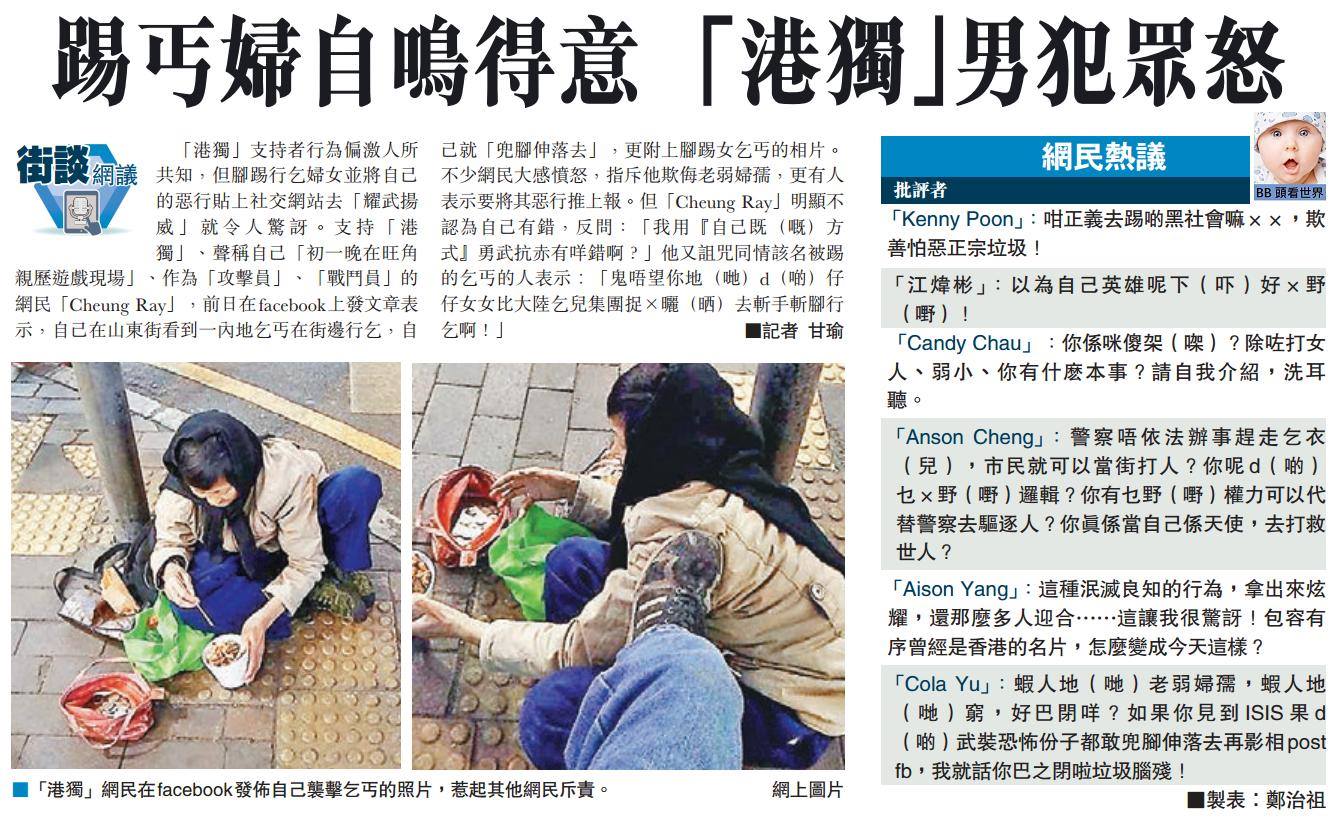
Previously a Hong Kong
independence supporter (see
#310) gained fame
through his bigotry but this time he has shocked more people by posting photos
of himself kicking a beggar woman. Cheung Ray has said that he "went through the
game experience on the night of Lunar New Year's day in Mong Kok. As an
"attacker" and "warrior", he said that he spotted a mainlander begging on Shan
Tung Street so he "stuck his foot out." He even posted photos of himself kicking
the female beggar. A lot of Internet users were angry because he bullies elders,
women and children. They said that they will continue to promote the case until
the newspapers report it. Cheung Ray obviously did not think that he was wrong
and said: "What is wrong with me using my method to resist valiant?" He cursed
the beggar woman: "Everybody wishes that her children will all be kidnapped by
beggar gangs, get their hands and legs chopped off and beg for money!"
Internet comments:
Kenny Poon: If you so full of
justice, why don't you go kick some gangsters! Bastard! What a piece of trash
which bullies the weak and fears the bullies!
Kong Wai-bun: You think that you
are a hero and you are fucking impressing people this time!
Candy Chau: Are you stupid? What
else can you do other that beating up women and children? Please tell me. I'm
waiting to hear.
Anson Cheng: When the police won't
enforce the law to oust the beggars, then citizens can beat people right there
in the street? What kind of fucking logic is this? By what authority can you act
on behalf of the police to oust people? Do you think that you are the angel here
to save the world?
Aison Yang: This is is
unconscionable action, which is being brought out to show off to the praise of
so many people ... I am very astonished? Tolerance used to be the calling card
for Hong Kong. How did it become like this today?
Cola Yu: Bullying people because
they are women or children, bullying people because they are impoverished. Is
that supposed to be impressive? If you dare to kick the ISIS terrorists and then
post photos onto Facebook, I would be impressed. Brain-damaged trash!
- Keeping the score ...
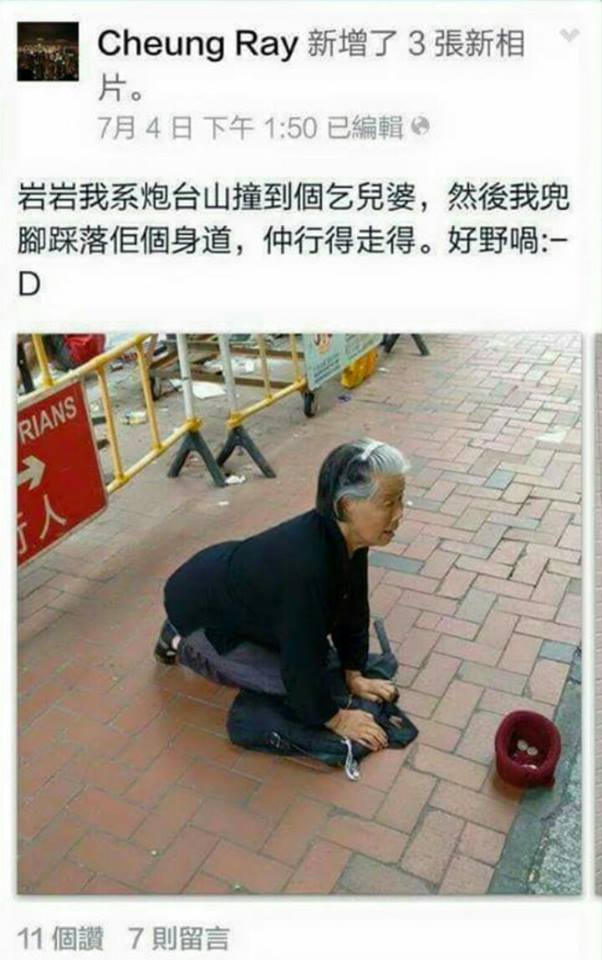
Cheung Ray
July 3 1:50pm
I ran across a old beggar woman at Fortress Hill. I stepped right on her. She
was still able to walk away. That was awesome. Smile.

Cheung Ray is not the only one. He
has company.
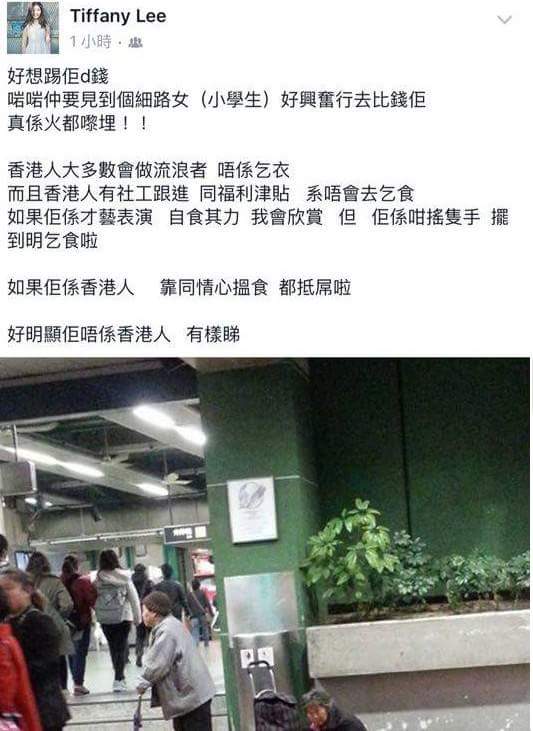
Tiffany Lee's Facebook
I really wanted to kick her money.
I just saw a young girl (primary school student) happily walking over to give
money to her
I was hopping made!!
Most Hongkongers would rather be vagrants than beggars
Hongkongers have social workers to follow on their cases, along with welfare
subsidies.
They won't go out ot bag.
I would appreciate her if she was giving an artistic performance to earn a
living.
But she was just waving her hand.
She was clearly begging.
Even if she were a Hongkonger and wanted to make a living by playing on people's
sympathy, she still deserves to be cursed out.
But she clearly isn't a Hongkonger. Her look shows it.
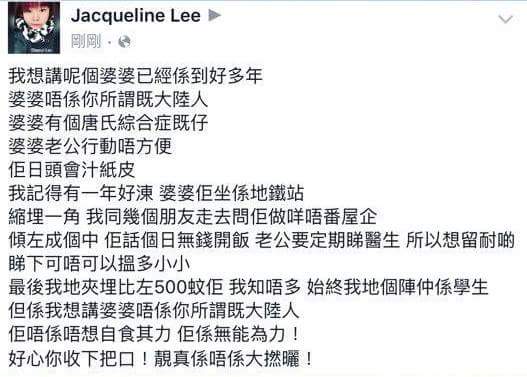
Jacqueline Lee's Facebook
I want to say that this old man has been here for many years already
Grandma is not your so-called mainlander.
Grandma has a son with Down's Syndrome.
Grandma's spouse cannot move around.
During the day, she scavengers for cardboard boxes.
I remember one year when it was very cold when Grandma sat shivering at the MTR
station.
I and my friends asked Grandma why she wasn't home.
We spoke for an hour. She said that she has no money to buy good to make dinner.
Her husband has to visit the doctor regularly.
So she wanted to hang around longer to see if she can get a little bit more.
Finally we got pooled our money and gave her $500.
I know that isn't a lot. I was just a student at the time.
But I want to say that Grandma is not your so-called mainlander.
She wanted to help herself, but she has no means!
Please watch your mouth! Being pretty doesn't mean that you can fucking boss
everybody else!
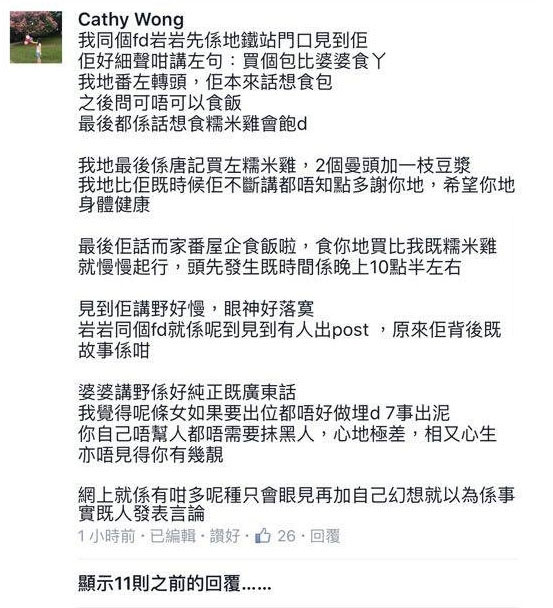
Cathy Wong's Facebook
My friend and I just saw her at the MTR entrance
She whispered: Buy a bun for grandma to eat.
I turned around. She said that she wanted a bun
Then she asked if she could have rice instead
Finally she said that she wanted sticky rice chicken because it is more filling.
Ultimately we bought her stick rice chicken from Tong Kee, plus two buns and a
bottle of soy milk.
As we gave the food to her, she kept saying thanks and wish us good health
Then she that she was going home to eat the sticky rice chicken that we bought
her
She walked away slowly. This just happened at around 1030pm.
She spoke very slowly, looking very lost and lonely
My friend and I saw a Facebook post and found out the story behind her case.
Grandma spoke perfect Cantonese.
I thought that the chick should not be doing such a fucking stupid think in
order to become famous.
Even if you don't want to help someone, you don't have to smear them.
You have an evil mind and your looks come from that. You are not that pretty.
On the Internet there is plenty of talk based upon your own fantasies converted
into facts.
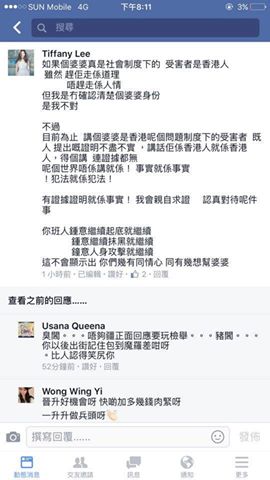
Tiffany Lee
If this woman is really a Hongkonger victim under the social system
Even though it is justified to chase her off and it is human compassion not to,
I was wrong because I did not verify her status
But so far the person who claimed that she is a Hongkonger victim under the
social system
has provided no solid evidence.
Just because you say that she is a Hongkonger means that she is Hongkonger.
That's is just talk without any evidence.
If you break the law, you break the law.
Facts are based upon evidence!
I will personally go and seek the evidence.
If you people like to find out about my background, go ahead.
If you people like to continue to smear me, go ahead.
If you people like to make personal attacks against me, go ahead.
This isn't going to showcase how compassionate you are and how you really want
to help grandma.
Usana Queena
Stinking cunt ... you don't dare to respond directly and you only want to make
denunciations (to the Facebook administrator) ... pig cunt ... when you go
outside again, please remember to wrap yourself up in a sharia ... if you are
recognized, you will be fucking laughed at.
Internet comments:
- What about Tiffany Lee? There is
the Facebook video in which she said that she was born in mainland China and
came to Hong Kong just in time to start first-year Primary School. In other
words, she is just another stinking mainland locust.
- More about Tiffany Lee:
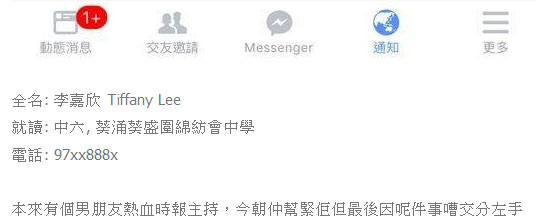
Full name: Lee Ka-yan/Tiffany Lee
School: Sixth year, Cotton Spinners Association Secondary School, Kwai Shing Wai,
Kwai Chung district
Telephone: 97xx888x
She used to have a boyfriend
who is a Passion Times host. She is still helping him this morning but they broke up after
an argument over this incident.
(EJ
Insight) March 1, 2016.
A Hong
Kong bookseller is doubling down on his claim that he returned to China
voluntarily after being reported missing last year in an alleged abduction
orchestrated by Beijing. Lee Bo told Hong Kong police in an arranged meeting
on Monday that he was not kidnapped or taken to the mainland against his
will but gave no further details, Apple Daily reports. Lee agreed to the
meeting organised by the Guandgong interpol office at the request of the
Hong Kong government. Two officers from the Hong Kong police crime unit and
an immigration official traveled to a location outside Guangdong provoince.
The hour-long interview, which took place in a guesthouse, came with the
understanding that Lee would not be asked about his pending cases in the
mainland, the report said. Lee said he was �free and safe at the moment� and
was assisting in an unspecified investigation into a �person named Gui�. He
said he plans to return to Hong Kong once the investigation is completed.
Sources said Lee might have been referring to fellow Hong Kong publisher Gui
Minhai, who earlier said he had voluntarily surrendered to Chinese
authorities for a 2003 traffic conviction. Gui had been reported missing in
Thailand in October, believed kidnapped by Chinese agents. He was later
paraded by the authorities on national television. He initially said he was
assisting in an investigation. Lee and Gui are among five men from Mighty
Current Media Ltd., a Hong Kong bookseller that publishes material critical
of the Chinese elite, who mysteriously disappeared last year.
Lee asked the Hong Kong police to
cancel any pending cases against him relating to his disappearance and that
his exact location not be disclosed, according to an official press release.
Sources said Lee
and Gui returned to the mainland to help in an investigation into missing
confidential documents relating to national security. Lee, who holds a
British passport, has extensive knowledge about the matter, they said.
In an
interview aired by Phoenix Television Monday night, Lee said he has decided
to give up his British residency because his case has made life complicated
for him and his wife. He said his wife agreed with his decision. Britain�s
Foreign and Commonwealth Affairs Office declined to comment on Lee�s
remarks. Democratic Party legislator James To said giving up citizenship is
not a simple process. The applicant must prove the act is voluntary and not
made under duress and that he or she is in a proper state of mind, To said.
Political commentator Willy Lam said Beijing might allow Lee and the rest of
his missing colleagues to return to Hong Kong to ease pressure on the
National People�s Congress which begins its plenary session on Saturday.
However, Gui might be held to account and punished severely, he said.
(South
China Morning Post) March 1, 2016.
One of the missing booksellers from
Causeway Bay Books appeared on television and admitted for the first time he
had sneaked into the mainland illegally to assist in an investigation,
Lee Po, who runs the bookstore specialising
in selling politically sensitive publications banned on the mainland,
reiterated in the 20-minute interview aired by Phoenix TV on Monday night
that he had visited the mainland of his own free will to assist as a witness
in an investigation into Gui Minhai, co-owner of publishing house Mighty
Current, which runs the bookstore. Lee appeared calm and smiled throughout
the interview, conducted in a well decorated room in an unknown location
On the mystery surrounding his
disappearance, Lee said: �I sneaked into the mainland with the help of a
friend [or friends] so I didn�t use my home return permit.� But he declined
to elaborate. �It�s not convenient to disclose the details,� he said.
He explained the fact that the
investigation might make someone angry which might bring harm to him and his
family was the reason he adopted a secret way to visit the mainland without
using his travel document. �I wanted to secretly visit the mainland and
solve my own matters as soon as possible, and then return home secretly,�
Lee said.
The interview was aired hours after Hong
Kong police disclosed they had met Lee in a guest house at an undisclosed
location on the mainland.
Secretary for Security Lai Tung-kwok said
on Tuesday morning that during the meeting, Lee did not tell the police how
he got to the mainland without going through proper channels. But police
will continue to follow up on this matter, the security chief said. Lai also
said that there has been no evidence so far to show that mainland law
enforcement officers had carried out their work in Hong Kong. Chief
Executive Leung Chun-ying would say only that even though Lee�s wife has
withdrawn her request for police assistance, the force has continued to look
into the case.
The content of the interview was also
carried on Monday night by Shanghai-based online portal Thepaper.cn and Hong
Kong newspaper Sing Tao Daily�s website.
Lee dismissed speculation that he was in
trouble for buying sex on the mainland or blackmailing public figures there
by publishing books with material on their negative side. He said Gui had
published a lot of books about mainland issues in recent years, but all
these books were compiled carelessly with copied and in some cases
fabricated material. �I was to blame too. And I took this opportunity to
confess my wrongdoing.� He also said he had not yet been able to go home as
the investigation was continuing. But he could return whenever his
assistance was finished.
The British citizen said he had never
sought help from the UK government and he had always called himself a
�Hongkonger� and a �Chinese�. He said he and his wife had decided to abandon
their UK citizenship as this had complicated the case. He had notified the
British side about their decision. �I haven�t been to Britain for more than
20 years. And I haven�t enjoyed any rights or benefits as a citizen.� The
couple�s daughter is studying at a British university where she is paying
fees imposed on ordinary foreign students, he said.
�My life now on the mainland is very good.
I�m very safe and free. And you can see my health is still not bad. I get
along well with the law enforcement workers, who treat me well,� Lee said.
Two pictures of the couple taken on the
mainland during the Lunar New Year holiday were also made available with
reports about the interview. Lee said his wife Sophie Choi Ka-ping had met
him and they had had some fun.
(Hong
Kong Free Press) March 1, 2016.
Several Hong Kong lawmakers have said that
claims made by detained bookseller Lee Bo in a Phoenix TV �interview� are
difficult to believe.
Lee spoke to China�s Phoenix TV on Monday,
in which he said: �I came to the mainland to assist with the judicial
investigation, and I had to incriminate some people. I was really scared
that if these people found out, they will cause harm to me and my family, so
I didn�t want anyone to know, and I didn�t want to leave any immigration
records. So I chose to smuggle [to the mainland].�
Speaking on RTHK radio, Alvin
Yeung, newly elected Civic Party Legislative Council member, said: �I understand
that right now, many �kind-hearted� people want to cover up the story and
whitewash, to make the story as [least serious] as possible. But any Hongkonger
with common sense will know� how can it be so simple?� He also asked if the
police could reveal more about the meeting with Lee. �When did they meet? They
met him through who? Through what methods?� he asked.
Former lawmaker Ronny Tong Ka-wah also told
RTHK that it was difficult to judge whether what Lee said was political PR
or the truth. He said that the main point in the matter was why he needed to
smuggle himself back to the mainland and that there are more political
problems involved than legal problems.
James To Kun-sun, pro-democracy lawmaker
and member of the Legislative Council�s Panel on Security said to Ming Pao:
�[Lee Bo] went back to the mainland to assist the [Chinese] government�s
investigation, but he doesn�t have the confidence in the [Chinese] police to
protect his personal safety?� He said that there were still many suspicious
aspects regarding Lee�s case.
Michael Tien Puk-sun, pro-establishment
lawmaker and a Hong Kong deputy to the National People�s Congress (NPC) told
Ming Pao that it would be difficult to follow up the case in future [NPC]
meetings because �Lee Bo said himself that he was not kidnapped, so
accusations of cross-border law enforcement will be difficult to hold up.�
The police met with Lee on Monday morning
and took a statement from him at a guesthouse in the mainland. Lee told the
police that he arrived in China voluntarily to assist the authorities and
that �it was not an abduction�.
Secretary for Security Lai Tung-kwok said
to local media on Tuesday: �As to how Lee Bo left Hong Kong, when a police
officer and immigration department representative talked to him yesterday,
Lee Bo did not reveal any further details. We will follow up in this
regard.� He also said that he did not see any proof or evidence of
cross-border law enforcement, according to Apple Daily.
(SCMP)
March 2, 2016.
Hong Kong�s police chief said on Tuesday he
suspected Causeway Bay bookseller Lee Po was hiding something, but that the
force would have to accept his story that he had sneaked into the mainland
of his own free will in order to help with an investigation.
Commissioner Stephen Lo Wai-chung said
there was no point in seeking another meeting with Lee in the near future,
after he met a police officer and an immigration officer on Monday, six
weeks after Hong Kong made the request.
Lo also said there was no evidence to
support speculation that Lee was kidnapped by mainland agents last December
over the sale of banned books across the border.
The force is in a dilemma as to how to
proceed with its investigation into Lee�s mysterious disappearance, as he
has made clear to the visiting officers that he does not want their help.
The controversy took yet another diplomatic
twist on Tuesday, with a British government spokesman telling the Post
the UK was still �ready to provide consular assistance� to Lee and his wife,
even though they had both decided to give up their British citizenship.
The Swedish foreign ministry also told the
Post that its staff from the Beijing embassy on February 24 had
been allowed to visit Gui Minhai, a colleague of Lee�s and a Swedish
national, who also went missing and turned up on the mainland. A ministry
spokesman would only say Gui was �well�.
Grilled by reporters about Lee on Tuesday,
Hong Kong�s police chief said: �We don�t see [evidence] that he was forcibly
taken away. We have met Mr Lee in person, and he said that he used his own
means to leave Hong Kong for the mainland. Thus, at this moment when we do
not have other evidence, we have accepted what he said.�
However, Lo admitted that Lee was not
telling them the full story.
�I believe that if we are to meet him again
in the near future, there will be no new updates. There was something he did
not reveal to us,� Lo said.
Before Lee vanished at the end of December,
Gui disappeared from Pattaya in Thailand in October. Their publishing
colleagues, Lui Por, Lam Wing-kee and Cheung Chi-ping, disappeared that same
month, but everyone surfaced across the border later.
Lee stuck to his story on Monday that he
was not kidnapped and was helping with an investigation into Gui, who has
been accused of smuggling banned books into the mainland. He asked Hong Kong
police to drop their investigation. But the police chief said the
investigation was not yet over.
�We will wait for him to come back to Hong
Kong. Once he is here in Hong Kong, when we have the right to carry out law
enforcement duties, we will meet him again,� Lo said.
(EJ
Insight) How China�s spin doctors bungled the latest Lee Bo script. By
SC Yeung. March 3, 2016.
Hong
Kong bookseller Lee Bo shot his own story full of holes when he talked to
Hong Kong police officials during an arranged meeting in Guandong on
Monday. Whoever wrote the script
knew it was an utter fabrication, but who is still surprised by a Chinese
propaganda spin?
The gist of it is that Lee was not
kidnapped by Chinese agents as reported; he spirited himself to the
mainland, bypassing immigration authorities, to help in an official
investigation. It�s a rehash of his previous �clarification� but it gets
weirder every time the story line is repeated because it does not make sense
any way you cut it.
If Lee is on official business in the
mainland (to assist in an official investigation), why smuggle himself in?
The only thing that is new here
is that Lee wants out of his British passport, saying the controversy has
made life difficult for him and his wife, as if he was in trouble in
Britain. Yet, Lee paraded
himself before state media with his tall tale and hewed to the script.
The
whole mucky episode begins to take on mythic proportions when you throw in
the entire cast of characters.
It happens that three of Lee�s colleagues in book publisher Mighty Current
Media Ltd. are also �assisting in an investigation� after being reported
missing last year and saying they voluntarily returned to China.
The
target of the investigation turns out to be Gui Minhai, who owns Mighty
Current Media and whose own story is the stuff of fiction.
When he surfaced in the mainland after
disappearing in Thailand in October, he said he voluntarily returned to
China to turn himself in for a 2003 traffic homicide.
To be
fair, Gui and his colleagues are probably the last people to have a hand in
all of this spin-doctoring. The communist propaganda machine is known to
stretch credulity and bend the truth for its own ends.
The
truth is this: Gui�s publishing company is a purveyor of unsourced damning
books and articles about the Chinese elite. It�s the kind of gossip the
Chinese masses love and the communist bosses loathe. One such book satirized
President Xi Xinping�s foibles.
Thanks
to a hole in the Great Firewall, China�s infamous internet filter, the
booksellers� saga has reached the Chinese masses.
Netizens who have been sharing Lee�s cover
story on social media are having a field day taking it apart. �Even a fool
won�t fall for it,� a commenter said. �Is his brain filled with water?� said
another. One summed up the collective response of the online community,
saying be doesn�t believe an iota of what he read, even the punctuation
marks.
In
Hong Kong, reaction is decidedly mixed. The government insists there�s no
evidence Chinese police took any one of the booksellers away. Political
observers expressed concern about the implications of the booksellers�
troubles for press freedom in Hong Kong. Commentator Lee Yee wrote that
cross-border missing-persons cases will be harder to report to the police
because this might mean trouble for the disappeared.
All of
which remind us that nothing you see on state television in China is what it
seems.

(Thepaper.cn
with video) February 29, 2016
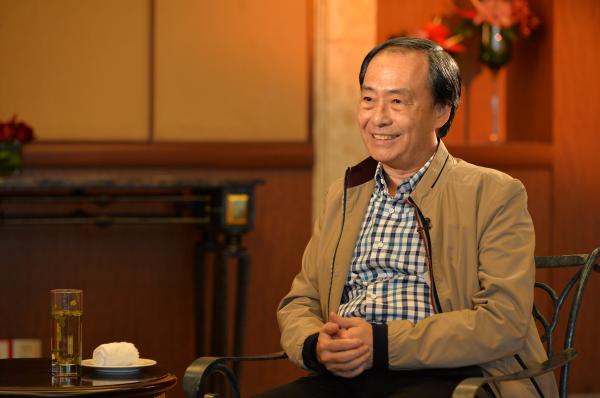
Q. Earlier when your status was unclear,
many people speculated that you "were disappeared" by mainland police
crossing the border to kidnap you. What is the truth of the matter?
A. Absolutely no such thing. I have stated
to the outside world through the Hong Kong police and my wife that I
voluntarily returned to mainland China to assist in an investigation. This
was a personal act. I was never "kidnapped" or "disappeared." I was not
threatened or lured by anyone. As for the assertion being "kidnapped" or
"disappeared", I considered it to be fabrications with ulterior motives.
Q. You said that you returned voluntarily
to mainland China. But your wife said that you did not bring you Home Visit
Permit with you. So how did you get to the mainland?
A. I went back to the mainland secretly
with the help of friends. Therefore I did not use my Home Visit Permit. I
cannot disclose the details.
Q. Why did you go back to the mainland
secretly?
A. The reasons are somewhat complicated.
After the problems at Mighty Current, I wanted to return secretly to the
mainland to take care of my own problems and then come secretly back to Hong
Kong without anyone knowing. So I did not want a record of my exit. I am
worried that if I work with the mainland authorities on the investigation, I
may have to testify against others, and they and their families may get
angry at me and cause harm to me and my family. In order to ensure the
safety of myself and my family, I chose to return secretly without using my
Home Visit Permit.
Q. After you went back to the
mainland, your wife Ms. Choi filed a police report to say that you were
missing. She suspected that you were kidnapped and taken back to the
mainland. The affair became more complicated and politicized. Why didn't you
tell your family about your whereabouts?
Q. This is not what actually happened. On
the night when I got back to the mainland, I called my wife and told her
that I was on the mainland. Based upon what I know, my wife did not file the
police report first. Somebody else did it, and then persuaded my wife to
file a police report. Afterwards, I met with my wife on the mainland and I
learned from her the details of how she filed the police report. So I let
her to withdraw the police report. My wife did not make the matter more
complicated. Somebody else made it more complicated.
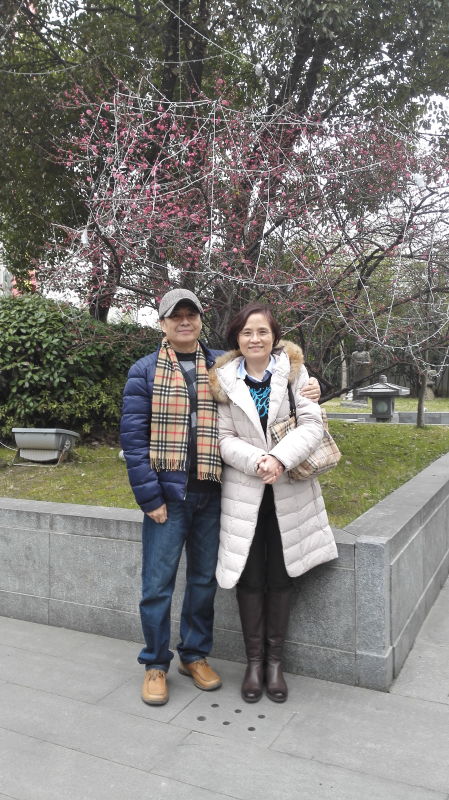
Q. Previously there was a media report that
said that the closed circuit television camera at the Hong Man Industrial
Centre in Chai Wan caught you being taken onto a van by several men as you
left. Did this happen?
A. I can formally say that this did not
happen.
Q. In Hong Kong, somebody said that you
were arrested while patronizing a prostitute on the mainland. Some media
said that you published books with negative information on mainland
personalities and then you used these books to blackmail the principals.
Therefore you are facing criminal charges. What do you think about these
views?
A. This is nonsense. I have never
patronized any prostitutes on the mainland, and I have never blackmailed
anyone. These sayings are an insult to my character. I reserve the right to
seek legal redress.
Q. You say that you returned voluntarily to
the mainland to assist in an investigation? What is your status in the
investigation? What is the subject? How is the progress so far?
A. I returned to assist in the
investigation as a witness. I am assisting in the investigation of my
company's internal affairs and employees. There is also the suspected crimes
of Gui Minhai. The case is ongoing at this time.
Q. Why does it take so long to assist in an
investigation.
A. The case involves my company plus
several employees. As the person who is responsible for them, I have the
duty to resolve this case. According to the law enforcement people, this
case is somewhat complicated and many issues need to be resolved. Therefore,
they look to get more details. I don't know all the details.
Q. Are you free to return to Hong Kong?
A. In order to assist in the investigation,
I don't think that I can return to Hong Kong for now. There is another
reason. The case was not so complicated originally. But certain people in
Hong Kong hyped it up and brought a lot of pressure on me. When the outside
world stops hyping the case, the pressure will be less. After the
investigation is completed, I can return to Hong Kong anytime. And I can
also visit the mainland legally.
Q. When you returned to the mainland to
assist in the investigation, many outsiders thought that you "were
disappeared" and this created a storm. Some people protested against the
trampling of One Country Two Systems, and other people protested against the
Hong Kong government and the police for not protecting the safety of Hong
Kong people. Others worried about freedom of speech and freedom of
publications. What is your opinion about these developments?
Q. I only came to mainland China to assist
in an investigation. This is a strictly personal matter, that concerns
myself, my company and its employees. I don't think that this has anything
to do with "One Country Two Systems" and "the threat against the personal
safety of the people of Hong Kong." As for what you said about freedom of
speech and freedom of publication, I believe that Hong Kong still has
freedom of speech and freedom of publication. Of course, freedom of speech
and freedom of publication does not mean that you can fabricate rumors or
make things up.
Q. There is a view that your affair is
being hyped by certain groups or individuals. Do you agree with this view?
A. I very much agree. Actually, it was my
personal business to return to the mainland in order to assist in the
investigation. My wife and I don't want to be exploited as political tools.
I wish those people who are hyping up my case would stop magnifying the
matter.
Q. A lot of people are voicing their
support and demonstrating against your "being disappeared." How do you look
at that?
A. Let me say this once more. It was my
personal business to return to the mainland in order to assist in the
investigation. But certain groups used my case to start demonstrations. They
even encouraged my wife to join. Also some groups went to petition at the
British and American consulates in Hong Kong. I think that what they are
doing only hurts me and does not help me. On one hand, this disrupts the
normal life of my family. On the other hand, it does not help to revolve my
situation.
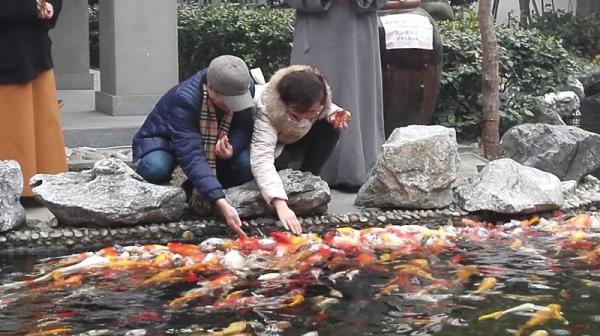
Q. Do you hold a British passport?
A. Yes, that's correct.
Q. Did you seek help from the British side?
A. I have absolutely made not request fro
any help from the British side. Here I have something to say. In the 1990's
I applied and received the right of abode in the United Kingdom. But over
the past 20 plus years, I have never stayed in the United Kingdom, and I
have never enjoyed any rights or benefits of British citizens. My daughter
is studying in England as this time. She pay tuition fees at the rate of
foreign students. I have always thought of myself as a Hongkongers. I am
Chinese.
Q. But the United Kingdom is paying close
attention to your case. They said that you were "involuntarily transferred
to mainland China" and that this was a "serious violation of the Joint
Sino-British Declaration" and destructive to One Country Two Systems. What
do you think of the British opinions?
A. As for this, I hope that their attitude
was based upon incorrect judgment and misinterpretation of incorrect
information. I hope that the case will calm down following this public
clarification. Some people wanted to use my right-of-abode in the United
Kingdom to hype the case and make matters more complicated. I have decided
to give up my right-of-abode in the United Kingdom. I have discussed this
with my wife and she agrees. Concerning giving up right-of-abode, I have
notified the British side through the relevant channels.
Q. Your letter to your wife mentioned that
Gui Minhai was suspected of being involved in crimes. What is your
relationship with Gui Minhai? What is your opinion of him?
A. I have known Gui Minhai for many years.
I started Mighty Current with him with his encouragement. He is morally
suspect, because I only found out later that he caused a death during a
traffic accident and he fled China during the suspended sentence period. In
addition, Gui Minghai published many books about the mainland through Mighty
Current. These books are all fabricated and/or plagiarized, with many of
them being pulled out of the thin air. You can copy some of the contents
from these books and check them on the Internet. You are bound to find a
whole lot of them. I was aware of the situation. Mighty Current was selling
these books to the mainland. I was at fault too. I want to use this
opportunity to express my regret, and to apologize to those who were hurt.
This was one of the reasons why I voluntarily returned to the mainland to
assist in the investigation.
Q. The outside world is very interested in
your current situation. How are you living on the mainland? How about your
health? How are the mainland law enforcement people treating you?
A. Firstly, I have to thank everybody for
your concern. I am living very well on the mainland. Very safe, very much at
liberty. As for my health, you can see that my health is pretty good. I get
along very well with the law enforcement people. They are very friendly
towards me.
Q. You have been assisting in the
investigation for quite a while. Did you spend the Lunar New Year on
mainland China? Did you meet with your family?
A. Yes. I met with my wife during the Lunar
New Year. I went out with her to enjoy ourselves. We were very happy.
Q. As you said before, you will return to
Hong Kong after finishing to assist in the investigation. You also
acknowledged openly that you left Hong Kong illegally. Are you worried that
you will be charged with illegal exit when you return? Are you worried that
you will be pursued relentlessly by the media?
A. It is a fact that I exited illegally,
for which I am prepared to bear the corresponding responsibility. I am
worried that the relentless media pursuit after I return will disrupt the
normal lives of me and my family. I hope that after you read this interview,
you should stop pursuing me and my family. This is all I want to say. If you
ask me one thousand more times, I will still be saying the same thing.
| Time of Day |
2012 Legco Election
Voter Turnout |
2016 Legco
By-election
Voter Turnout |
| 8:30am |
1.31% |
0.70% |
| 9:30am |
3.70% |
2.43% |
| 10:30am |
7.14% |
5.19% |
| 11:30am |
10.90% |
8.66% |
| 12:30pm |
14.77% |
12.99% |
| 13:30pm |
18.06% |
15.71% |
| 14:30pm |
21.83% |
19.23% |
| 15:30pm |
25.20% |
22.60% |
| 16:30pm |
28.65% |
26.03% |
| 17:30pm |
32.21% |
29.39% |
| 18:30pm |
35.91% |
32.75% |
| 19:30pm |
39.80% |
36.33% |
| 20:30pm |
43.78% |
39.39% |
| 21:30pm |
48.39% |
42.69% |
| 22:30pm |
53.86% |
46.1% |
(Hong
Kong Research Association) February 28, 2016 11:20pm. Exit poll of
14,895 voters at 22.9% response rate.
33.2%: Alvin Yeung
30.5%: Holden Chow
20.4%: Edward Leung
8.7%: Christine Fong
4.5%: Nelson Wong
1.6%: Leung Sze-ho
1.1%: Lau Chi-shing
Technical note: This exit poll is
based upon 51 out of the 146 voting stations, with 11 in North District, 8 in
Tai Po, 13 in Sai Kung and 19 in Sha Tin.
(Electoral
Affairs Commission)
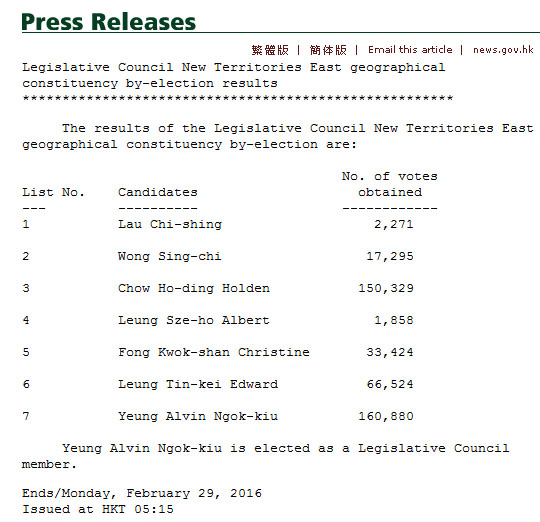
(SCMP)
February 24, 2016.
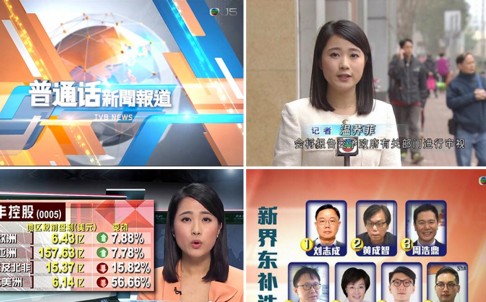
Nearly 10,000 complaints
have been made against TVB�s decision to use simplified characters during
its Putonghua newscasts on its J5 channel, the Communications Authority
said.
TVB, Hong Kong�s largest
television station, made the change on Monday, switching its Putonghua
newscasts from the Pearl channel to the HD Jade channel, which it renamed
J5.
Subtitles, news graphics
and other characters now feature simplified Chinese rather than the
traditional form widely used in Hong Kong.
An authority spokesman
said it had received almost 10,000 complaints by 5pm on Tuesday. He said
that under the terms of its licence, TVB was required to provide Chinese
subtitles in its newscasts, weather forecasts and current affairs programmes.
But TVB was allowed to
decide how subtitles were presented, a spokesman said.
This is the second such controversy over
the use of simplified and traditional characters that have hit the city this
month, after the discovery of a public consultation document prompted fears
the Education Bureau was planning to replace the use of traditional
characters with the simplified ones in teaching.
Many web users on the popular HKGolden.com
forum said TVB�s decision was �insane�.
�What�s the problem with mainlanders
learning traditional characters and Cantonese when they are here in Hong
Kong?� one wrote.
Another said: �Way to go TVB for being a
tool to help push for mainlandisation.�
A template that is being circulated online
says that TVB should not have made use of public airwaves in Hong Kong to
broadcast simplified characters in its newscasts.
�Cantonese and traditional characters are a
part of Hong Kong�s tradition and culture,� the template reads, adding that
the way of life in the city should remain unchanged for 50 years as
guaranteed in the Basic Law.
Civic Party�s lawmaker Claudia Mo wrote a
letter to TVB Group chief executive Mark Lee Po-on, asking the station to
provide both traditional and simplified characters in the Putonghua
newscasts and let the viewers choose which form they want.
TVB defended the decision. A spokesman said
that Hong Kong is an international city and the new arrangement would
�better serve different audience needs�.
In an article in its overseas edition
yesterday, the state-run People�s Daily defended the use of simplified
characters, drawing as a reference the other controversy that took place
earlier this month. It also cited the Education Bureau as clarifying it has
never advocated replacing traditional characters with the simplified ones.
�From an education point of view, for Hong
Kong students learning simplified characters, not only will they be able to
access wider reading materials, they will also get more opportunities in the
future,� the article said.
�Simplified characters are commonly used in
Taiwan, Singapore and Malaysia today. That happened because they wanted to
connect to the market in mainland China. Isn�t it strange that Hong Kong, as
a Special Administrative Region of China, is sensitive towards the use of
simplified characters?� it said.
(EJ
Insight) February 24, 2016.
The
Communications Authority has received about 10,000 complaints from viewers
furious about Television Broadcasts Ltd. (00511.HK) starting to use
simplified Chinese in subtitles for news programs on its J5 channel.
TVB, the city�s dominant free-to-air
station, started Monday to offer a 45-minute prime-time news and information
program in Putonghua with simplified Chinese characters for the subtitles.
Regulations for the domestic free TV
program service license require all newscasts, weather reports and
current-affairs programs aired by the broadcaster to provide Chinese or
English subtitles, Apple Daily reported Wednesday.
However, the license did not specify how
the subtitles are presented, it quoted a representative of the authority as
saying.
TVB defended its decision, saying the new
arrangement will offer viewers more choices and better serve the needs of
different audiences.
Hong Kong Baptist University�s student
union condemned TVB for attempting to please mainland China and urged the
station to reverse the change.
Civic Party lawmaker Claudia Mo Man-ching
and the party�s candidate in the upcoming Legislative Council by-election,
Alvin Yeung Ngok-kiu, protested outside TVB�s headquarters in Tseung Kwan O.
Mo said TVB has the responsibility to protect the interests of the public.
She said she is worried traditional Chinese characters will follow the path
of the Uyghur language and the Tibetan language, both of which are fading
away.
Meanwhile, the People�s Daily,
the mouthpiece of the Chinese Communist Party, published an article arguing
there is no conflict between simplified Chinese and traditional Chinese, so
people should not politicize the issue. The Beijing-based newspaper
criticized radicals in the city for encouraging a sense of cultural
superiority on this issue, which it said is too shallow and na�ve. It said
that if we must appeal to history, we might as well revive ancient Chinese
writing systems such as seal characters and the oracle bones script.
Well-known Hong Kong novelist Ni Kuang
called on TVB viewers to avoid watching the broadcaster�s programs if they
use simplified Chinese subtitles.
However, Ivan Choy Chi-keung, a political
commentator and senior lecturer at the Chinese University of Hong Kong, said
there is now only one TVB program that uses simplified Chinese subtitles, so
Hongkongers should not criticize the broadcaster too much, as they live in a
diverse city.
(HKG
Pao) By Robert Chow. February 24, 2016.
There are more and more weird things
happening in Hong Kong! A bunch of self-described Internet users and media
politicize everything. Since they have the communication channels, they can
smear everything and they turn white into black. The latest example is when
they are challenging TVB's J5 channel showing putonghua news with subtitles
in simplified characters.
It is even weirder that ten thousand
persons are complaining against J5 with the Communications Authority! The
number seems astonishing, so we have to ask just what they are complaining
about. So which is this?
(1) They hate TVB
(2) They hate simplified characters
(3) J5's putonghua news with subtitles in
simplified characters is depriving them the opportunity of watching the
news.
It is likely that (1) is true; (2) is
definitely true. But these are not plausible reasons for complaining.
So is (3) true?
If a Cantonese speaker wants to watch
Cantonese news, the TVB Jade Channel (Channel 81) has better schedules. Also
the TVB News Channel (Channel 82) can be watched all day. So what are they
being deprived of? What do ten thousand unhappy people want to deprive the
rest of the world the right to watch putonghua news with subtitles in
simplified characters?
When a Frenchman watches French news, there
is nothing strange about having French subtitles. English news with English
subtitles is okay too. Cantonese news with traditional characters is normal
too. Everybody accepts these three normal ways. So why is putonghua news
with subtitles in simplified characters so objectionable?
Hong Kong would be truly finished if the
Communications Authority agrees.
Like it or not, it is estimated that about
1 million people in Hong Kong have putonghua as their mother tongue. They
came from mainland China where they received education in simplified
characters. They are more fluent in putonghua than Cantonese. In addition,
another 800,000 Hong Kong students from kindergarten to secondary school are
learning putonghua.
Based upon commercial considerations, TVB
already dominates Cantonese programs and now they want J5 to dominate the 2
million person putonghua population as well. So isn't it normal to have
putonghua news with subtitles in simplified characters?
Today a bunch of people are making some noise.
It does not matter whether they don't want to stoop down to use putonghua or
they don't know putonghua. They are a bunch of people who don't want to keep
up with the times. The world will surely pass them by.
How many Hong Kong parents would tell their
children not to take putonghua lessons out of localist passion and thus
force them to get zeros for grades?
Someone asked me why the TVB Pearl Channel
English-language programs have traditional character subtitles. Hey, those
programs let non-English speakers watch English-language programs. Frankly,
it is a lot more difficult to learn English by watching Chinese subtitles.
If you want to learn English, it is much better to watch English-language
news with English subtitles.
Putonghua news with subtitles in simplified
characters is intended for those who speak putonghua. What is the point of
these Localists who think that the world must obey their wishes? Normal people and normal television stations will ignore them!
Actually what are they complaining about?
There are other Cantonese programs on J5 using traditional characters in the
subtitles. Programs from Taiwan are the same.
Sigh, Hong Kong is really being brought
down by this group people! Let's quickly dissociate from them!
(EJ
Insight) February 25, 2016.
Civic
Party lawmaker Claudia Mo Man-ching has blasted TVB�s decision, saying she
is worried that traditional Chinese characters will go the way of the Tibetan and Uyghur languages, which are now
dying out.
In his reply, TVB chief executive Lee Po-on called Mo�s comments �specious�
and accused the legislator of discrimination for overlooking the needs of
people who only read simplified Chinese characters.
Lee said the broadcaster did not reduce the airtime of
newscasts that use Cantonese and traditional Chinese characters for
subtitles, stressing that it always serves Hong Kong people first. He also
said the change complies with the domestic free TV program service license
requirements. Lee said Mo, who has worked previously at a TV station, should know that
it takes time to prepare for and change the subtitles, and it is not a
change meant to please Beijing.
Mo, after receiving Lee�s reply,
noted that TVB is sounding like a mouthpiece of Beijing.
She said radio waves are
valuable public assets, and local TV viewers should always be given
priority. �We will not ask for Chinese subtitles if we were in UK,� Mo said.
(Hong
Kong Free Press) March 2, 2016.
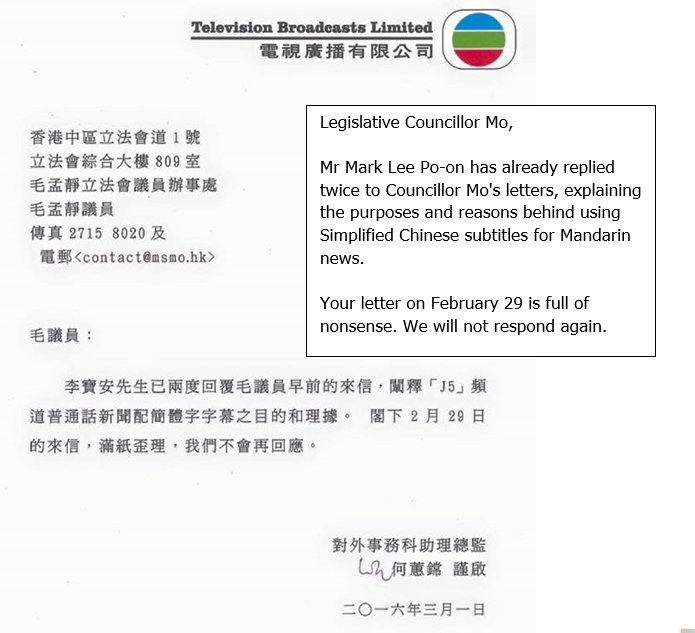
Broadcaster TVB and legislative councilor
Claudia Mo have been locked in a bitter exchange over the use of simplified
Chinese subtitles for a Mandarin news programme on TV channel J5. �Your letter
on February 29 is full of nonsense. We will not respond again,� TVB wrote in
its latest response to Mo.
Mo�s original letter, sent on the same day,
said: �If pointing out that simplified characters are not complete is
discrimination, is TVB deliberately switching to use simplified characters and
belittling the traditional characters that Hong Kong audience
uses [and] discriminating against traditional characters?� On her Facebook
page, Mo joked that the broadcaster�s CEO Mark Lee Po-on has stopped being her
pen-friend.
Netizens reacted quickly to Mo�s Facebook
post, with the TVB letter receiving 8,900 �angry� face emojis, as Facebook
users took advantage of the social networking website�s new �reaction�
function. Many commented on the post in support of Mo. �They know they�re in
the wrong. They can�t win, so they claimed [Mo] is speaking nonsense and
even said they wouldn�t �play� with you. Childish!� one said. �I�ll share
this to PR disaster [Facebook group],� joked another.
(Headline
Daily) Hong Kong society has fogged clear thinking. By Michael
Chugani. February 3, 2016.
Hong Kong's politically polarized (divided)
society has fogged clear thinking. Fog is a thick cloud close to the ground
caused by tiny water drops that hang in the air. This makes it hard for people
to see. But if you say something has fogged clear thinking, it means it has
made it difficult for people to think sensibly. A good example is the
irrational (unreasonable, illogical) opposition to TVB's use of simplified
Chinese characters for its Putonghua news on the new J5 channel. I host a TVB
show but I don't think it�s a conflict of interest to write about TVB. Many
Hong Kong people are understandably afraid simplified characters used on the
mainland will gradually replace traditional characters used here. They become
incensed (very angry) whenever they see simplified characters replacing
traditional characters.
I became incensed two years ago when a
well-known hotel switched (changed) to simplified characters for its lift
directory. I get incensed when restaurants switch their menus to simplified
characters. But there is a big difference between that and J5 using simplified
subtitle characters for Putonghua news. Restaurant menus are for Hong Kong
people too, not just mainlanders but the J5 Putonghua news is for mainlanders
living here who may not understand traditional characters. Most
Cantonese-speakers do not watch Putonghua news. They watch Cantonese news on
the Jade and iNews channels which use traditional characters. Putonghua news
takes up only 4.7 of the 203 hours of news that TVB broadcasts weekly.
(SCMP)
Character assassination? Hong Kong�s furore over simplified Chinese. March
3, 2016.
Hongkongers� sensitivity about their
language has been pricked again by a mooted plan to teach simplified Chinese
in schools.
At the start of last month, it emerged that
the Education Bureau�s latest consultation document said local pupils should
learn to read simplified characters.
Traditional characters are the norm. The
simplified form is used on the mainland, but deemed inferior to the
traditional form by some, and sometimes mocked as �crippled� or �mutilated
characters�. Intellectuals, educators, parents and localists have all aired
views, and public sentiment on the matter was evidenced last week when TVB
started using simplified characters during Putonghua newscasts on its J5
channel � sparking 10,000 complaints.
The debate has heightened potency, raging
against the backdrop of the Mong Kok riot and the resulting prominence of
localism evidenced in last weekend�s New Territories East by-election.
The state-run People�s Daily urged
people not to politicise the issue and pin derogatory labels on simplified
characters, while Legco president Jasper Tsang Yok-sing said people didn�t
need teaching simplified characters and could learn them on their own.
Some say the policy is part of a hidden
government agenda to do away with traditional characters along with Cantonese
and further �mainlandisation�.
Education chief Eddie Ng Hak-kim denied any
political intent behind the move, accusing some of distorting the facts and
sowing discord. The bureau pointed out that learning simplified Chinese was
not an item for consultation now as it had already been stated as a goal in
the Chinese Language Education Key Learning Area Curriculum Guide in 2002.
The policy most likely went unnoticed then
because attention was on other major education reforms, such as the benchmark
assessments for teachers, according to Hong Kong Aided Primary School Heads
Association honorary chairman Lam Sheung-wan.
The document states that after mastering
traditional Chinese, pupils should be able to read simplified characters to
widen their reading range and foster better communication with the mainland
and overseas, while schools should promote �using Putonghua to teach Chinese
language� on campus as a long-term goal. But the bureau admitted it did not
have any evidence that using Putonghua to teach Chinese language would be more
effective than using Cantonese.
Last week it received a total of 22,000
public submissions and replies from 338 primary schools, 355 secondary schools
and 37 special schools over the consultation, issued in December. While
acknowledging the practical functions of simplified characters, those
interviewed by the Post all resoundingly rejected the idea of using
them in schools, saying there was no need. Supporters, especially the city�s
international schools � which mostly teach simplified characters � maintain
simplification can speed up learning and writing, as well as aiding
integration with the mainland.
Local scholars stood by their conviction that
traditional script is a legacy of ancient Chinese culture that needs to be
preserved. They believe as long as students achieved a good grasp of
traditional characters, it would be easy for them to read and recognise the
simplified characters without needing extra lessons.
Some academics say traditional characters
make it easier to trace meaning and the stories behind their formation. �I beg
the government not to create problems where there are none,� said Chinese
language expert Professor Ho Man-koon, of Caritas Institute of Higher
Education. �Teachers do not need to specifically teach simplified characters.
Students can naturally learn them by guessing and making logical inferences.�
The heads� association�s Lam agreed. He said:
�Students should learn simplified characters only after they achieve a good
foundation on traditional characters, usually when they are in high school.
The government should refrain from turning a guest into a host otherwise Hong
Kong students will be caught in the middle. Traditional characters should
serve as the basis of our Chinese language learning, not their simplified
forms.�
Legislator Lam Tai-fai, representing the
Chinese Manufacturers� Association of Hong Kong and supervisor of Lam Tai Fai
College, said the business sector was ambivalent about students learning
simplified characters.
�The knowledge of simplified Chinese has
nothing to do with making profits,� he said. �Since traditional Chinese is
widely recognised and adopted in Hong Kong, it is better to encourage students
to learn simplified Chinese [of their own accord] rather than to make it
mandatory.�
Professor Brian Tse Shek-kam, director of the
Centre for Advancement of Chinese Language Education and Research at the
University of Hong Kong, pointed out that even South Korea realised the
importance of learning traditional Chinese characters; it restored them to
Korean language and literature textbooks for elementary pupils this year.
There are rising fears that simplified
Chinese will gradually replace the traditional form if it becomes part of the
subject curriculum. Professor Ho said he believed this was a major concern for
the city�s teachers. �They fear that after students achieve a good grasp of
simplified characters and Putonghua, many years later simplified Chinese will
fully replace traditional script in their textbooks,� he said. �They fear
simplified characters will bring an end to traditional Chinese teaching and
even replace traditional script.�
Eva Chan Sik-chee, convenor of the Parents
Concern Group on National Education, warned that the issue being overlooked in
2002 does not mean that there is a consensus on it now. �The government has
not really consulted the public. Many people in the education sector are not
even aware of this proposal,� she said. �We are highly concerned about the
overall impact of the proposals, including using Putonghua to teach Chinese as
a long-term goal. We have a feeling that the whole consultation exercise is
leaning towards the mainland culture, and made out of a political motive.�
And Lam Sheung-wan believed the government
intended to please the Central government with the initiatives. �I believe
after the handover, the government has deliberately done something to please
the central government. But something done deliberately can backfire and may
end up offending Beijing,� he said. �If the government wants to use one thing
to suppress the other, then it is bound to trigger conflicts. Although the
government says this is not compulsory, I think during this sensitive period
it should not wake the sleeping dog.�
But Principal Fung Pik-yee of the Aplichau
Kaifong Primary School in Ap Lei Chau, said people should not be so sensitive
about the issue. �People are taking it too seriously. I think it is harmless
to learn simplified characters as they can serve as a learning tool for
reading more mainland textbooks. �I won�t discourage [my students] to learn by
themselves,� she said. �Do we really need to exaggerate things and conjure up
so many conspiracy theories like mainlandisation?� That said, Fung did not
recommend teaching simplified characters in primary schools because students
will be easily confused by the two types.
Professor Ho said that was always a key
concern for teachers. According to public exam reports, pupils easily made
typos in traditional characters because they mix them up with simplified ones.
Lam Sheung-wan said even local teachers are
not conversant with the simplification methodology, questioning how they could
teach students good Chinese. He said: �Some simplified words are simply devoid
of logic and totally unrelated with their traditional forms or meanings.
Students will have difficulties associating the simplified characters with
their traditional forms.�
On the subject of mingling cultures, Lam
said: �I think there are a lot of good qualities about Hong Kong people that
mainland people should learn. �The most important thing is the qualities of
people � staying true to themselves and being an upright person. These
qualities are what make Hong Kong a true world-class cosmopolitan city.
Without these Hong Kong is nothing more than a cosmopolitan city on the
mainland.�
Internet comments:
- News on the five TVB channels:
TVB Jade (Channel 81) (read in Cantonese
and subtitles (if any) in traditional characters)
6:30am-9:00am Good Morning Hong Kong/News Around The World
1:00pm-1:20pm News at Noon
6:30pm-7:00pm 630 News Report
11:00pm-12:00m Nightly News
TVB Pearl (Channel 84) (read in English and
subtitles (if any) in English)
7:30am-8:00am NBC Nightly News
12:00pm-01:00pm CCTV News - Live
7:30pm-8:00pm News at Seven-Thirty
11:40pm-12:00m News Roundup
News Channel (Channel 83)
24-hours of news each day (read in Cantonese and subtitles (if any) in
traditional characters)
J5 (Channel 85)
8:30pm-9:00pm Putonghua News Report (read in putonghua and subtitles (if
any) in simplified characters)
If you want to watch news any time of the
day, you can always reach for the TVB News Channel. If you want to watch news
neatly packaged once a day, you can watch the morning, noon, evening or
night news on the flagship TVB Jade Channel. If you want to watch the news
read in English, you have TVB Pearl Channel. If you want to watch the news
read in putonghua, you can watch J5 once a day at 8:30pm-9:00pm. Given that
you want to watch it read out in putonghua, it is logical that you would want
the subtitles (if any) to be in simplified characters.
- The whole thing is a business decision by
TVB. Right now, they already dominate over-the-air broadcast news with their
TVB Jade programs. Their main competitors are the cable broadcasters (Cable
TV and NOW TV). Because some Hong Kong residents don't understand Chinese,
they run English-language reports on TVB Pearl. They don't even have any
local competitors (given that ATV is defunct). And because they think that
there is a market for those who are not fluent in Cantonese, they air a
half-hour putongua news show on J5 once a day. It stands to reason
that this show would have subtitles in simplified characters.
If nobody watches that show, TVB will have
to cancel it eventually due to lack of interest. If that show is watched by
enough people, then TVB is serving that segment of the public well. Let the
market decide, instead of big-mouthed women (BMW).
- If you are concerned about simplified
characters corrupting Chinese culture, what about Kongish corrupting
English? There are plenty of examples of Kongish at
Kongish Daily Facebook. Add oil!
- Hongkongers won't let simplified
characters corrupt our culture. That is why the English-language name for
the "Labour Party" will never become "Labor Party."
- In 2003, the New York Times had to apologize to the American National
Theatre for referring to them as the American National Theater.
- Yes, and the Hong Kong Exhibition and Convention Centre must never become
a Center.
- So did you watch that Legco debate program programme last
night?
- (Wen
Wei Po) Hongkongers will also say "You must can do it" like certain
persons in northern England and never "You must do it" or "You can do it" or
"You must and you can do it." It has to be "You must can do it" and nothing
else.
- But you better be careful when you call someone "plastic." In Kongish,
this meant that the person is a doctrinarian egghead. In English, this means
that the person is a hypocrite. The meanings are different.
- Before we even get to the matter of TVB
J5, we should first deal with RTHK which is fully funded by the Hong Kong
SAR government.
RTHK
operates 12 radio channels. Presently RTHK 5 is running some putonghua
progammes. RTHK Putonghua runs almost all putonghua programmes. RTHK DAB 2
carries a 24-hour relay of China National Radio for Hong Kong. These channels
must be replaced by ones that use Cantonese.
- I also noticed that RTHK 6 and RTHK DAB 4 run a 24-hour relay of the
United Kingdom's BBC World Service. I think these channels must be replaced
by ones that use Cantonese.
- I know that RTHK won't be able to find replacement programmes so easily.
But MyRadio and D100 are immediately available and also widely popular among
young people.
- MyRadio and D100? Not so easy to go on air, because they won't bleep out
the obscenities.
- While Claudia Mo desperately wants to
shield Hongkongers from the pernicious influence of putonghua and simplified
characters, the rest of the world is moving in the opposite direction. (Oriental
Daily) In New York City, it is estimated that the number of
residents who understand Chinese increased from 260,000 to 350,000 from 2001
to 2011. At the current rate, the Chinese will surpass the Dominicans to
become the largest immigrant group in New York City. The Fire Department
started a Chinese class last fall so that the firemen will be able to speak
Chinese in emergency situations.
- Here is who is using what where:
People's Republic of China, population 1,400,000,000, simplified characters
Singapore, population 5,000,000, simplified characters
Malaysia, Chinese population 6,500,000, simplified characters
Hong Kong, population 7,300,000, traditional characters
Taiwan, population, 23,000,000, traditional characters
-Taiwan switched to Hanyu Pinyin in 2009,
which is recognized as the international standard for romanized Chinese.
- When a Hongkonger goes to Taipei, he will
find that the major streets have names such as Zhongxiao Road, Zhongshan
Road, Fuxing Road, Nanjing Road, etc.
- And the central districts have names such as Zhongzheng, Daan, Xinyi,
Songshan, Datong, Wanhua, etc.
- In the People's Republic of China, the
pinyin pronunciation of 'China' is Zhongguo.
Ditto in Taiwan, Singapore and Malaysia.
Only in Hong Kong must it be Chungkwok.
When outsiders come to Hong Kong, they
don't know what Chungkwok is.
When Hongkongers travel outside, they don't know Zhongguo is.
- On 18 December 1973, General Assembly
resolution 3189
(XXVIII) included Chinese as a working language of the General
Assembly and suggested the Security Council consider adding Chinese as a
working language.
The General Assembly,
Recognizing that Chinese is one of the five
official languages of the United Nations,
Noting that four of the five official
languages have already been made working languages of the General Assembly
and the Security Council, and affirming that in the interest of efficiency
in the work of the United Nations, Chinese should be accorded the same
status as the four official languages,
1. Decides to include Chinese among the
working languages of the General Assembly and to amend accordingly the
relevant provisions of the rules of procedure of the Assembly;
2. Considers it desirable to include
Chinese among the working languages of the Security Council;
3. Requests the Secretary-General to
transmit the present resolution to the President of the Security Council.
2206th plenary meeting
18 December 1973
However, Claudia Mo insists that the Hong
Kong people must remain illiterate with respect to Chinese (which is taken
by the United Nations to be spoken putonghua and written simplified
characters) because Hong Kong is a cosmopolitan city.
- (SCMP)
Localists must understand that to succeed in the world today, you must be
able to speak and write the languages of business. By Alex Lo. March 21,
2016.
My late father was a teenager when the
Japanese occupied Hong Kong. By the end of the war, he and many of his
friends were fluent in Japanese, having been forced to learn the language
and sing the national anthem at school.
After the war, he made a conscious effort
to unlearn Japanese, as he considered it the language of imperialism. By
the time he qualified as a solicitor, he couldn�t speak the language
anymore, though he still understood it when spoken to.
That was unfortunate as it was the 1960s,
when the Japanese economy was taking off. Many Japanese companies such as
car dealerships came to Hong Kong to set up shop, and they all needed
legal services. There were clearly good business opportunities for my
father. But he became self-conscious and easily embarrassed when he tried
to speak Japanese.
The lesson he wanted to impart to his
children was that learning a new language or dialect is never a bad thing,
under whatever circumstances. And never let pride get it the way of
learning new things.
It�s therefore sad that many young people
today, especially those who are politically motivated, are increasingly
rejecting Putonghua and simplified written Chinese scripts in the name of
localism.
Since 1997, the government has actively
promoted biliteracy and trilingualism � often referred to as mastering two
languages (Chinese and English) and three ways of speaking (Cantonese,
Putonghua and English).
It�s a tall order. But as a goal, there
was for many years a consensus that such abilities were necessary for
success. That consensus has broken down, thanks to our highly divisive
politics.
The issue is so highly charged that mere
mention of teaching simplified Chinese characters in schools is enough to
spark an outcry. The latest furore focuses on the Curriculum Development
Council, which has just completed a consultation on Chinese language
curriculum. It wants to adopt the teaching of simplified characters but
only as an eventual goal with no time frame for introduction.
Critics and activists say such a policy
is just to placate Beijing. That may well be the case, but so what?
Cantonese localism is all very well. But you need Putonghua and English to
succeed in the world today.
- (EJ
Insight) Radio Television Hong Kong (RTHK) confirmed it will take
over the television channels of the defunct Asia Television Ltd. April 2
and will run programs from 6:30 a.m. to 1:30 a.m. every day, Apple Daily
reported Thursday. Assistant director of broadcasting Chan Man-kuen said
RTHK has yet to develop its newscast service, so no news anchors will be
seen on the news telecasts, and initially there will be no
English-language news bulletin. Chan said RTHK�s program Hong Kong Story
will be aired with Indonesian subtitles for the first time, to help
Indonesians integrate into the local community.
No comments are coming from the Localist
groups about the Indonesian subtitles. As Ray Wong says, they are on
speaking terms with anyone except the Chinese.
(SCMP)
February 25, 2016.
If you speak Cantonese, by now you
have must have watched it at least once or possibly more times. You must
have shared the link with your family and friends and urged them to watch it
too. If asked, you can probably quote a few zingers from it verbatim.
I am referring to the anti-government
tirade by Kwan Ying-yi, a self-described �concerned citizen�, at a special
Legislative Council meeting to discuss retirement protection earlier this
week. The video went viral on social media, receiving 300,000 views on
YouTube in just 48 hours. Netizens have added English subtitles, turned her
words into a rap song and even called on her to run for Legco in the
September election.
For those who haven�t had the
pleasure of viewing � or understanding � the Cantonese-only clip, here�s a recap
of Kwan�s three-minute rant.
On the government�s proposed pension
scheme:
Your so-called �universal� retirement
plan puts an HK$80,000 asset limit on applicants but only offers them a
paltry payment of HK$3,230 per month. Are you kidding me? There is so much
government-business collusion and inflation these days that we can�t even
buy a catty of contaminated vegetables for HK$30!
Chief Secretary Carrie Lam rejected
the need-blind proposal [favoured by the public] because she claimed it
would lead to a government deficit. What she said made me laugh out loud!
The government spends hundreds of billions of taxpayers� dollars on white
elephant projects like the Hong Kong-Zhuhai-Macau bridge and the
high-speed rail link, only to nickel and dime the poor on social
programmes. How dare she mention the word deficit.
On law and order:
What happened after [Chief Executive]
Leung Chun-ying was accused of accepting HK$50 million in secret payments?
Nothing.
What happened to the pro-Beijing camp
after it blatantly rigged the district elections? Nothing.
In our topsy-turvy city, firing
shots into the air is considered compliant with police protocol. The
ethical standards for the government and the police are as �flexible�
as the arm of the officer who hit passers-by
with his baton and called it an �extension of his arm�. Lawmakers are
permitted to spread unfounded rumours in Legco, like the one about one of
the abducted booksellers taking a speedboat to China to procure
prostitution.
To be honest, I am worried that after
making this speech today I, too, may disappear and �go to the mainland
using my own methods�.[Kwan was again referring to the missing booksellers
who had presumably entered mainland China without proper documentation].
Why bother with retirement protection when our personal security is
unprotected?
On the chief executive and his cabinet:
I want to offer Leung, his senior
staff and the Hong Kong police a piece of advice: there is something
called karma in this world.
There isn�t much we can do to stop
you now, but future generations of Hongkongers will be watching you. Your
karma will catch up with you one day!
As soon as Kwan�s speaking time was up, the
meeting�s chairman, pro-establishment lawmaker Wong Kwok-kin, switched off
her microphone to stop her from spewing more anti-government venom. But the
damage was already done. Her harangue was uploaded to YouTube within minutes
and was held up in the echo chamber of the internet as the ultimate
indictment of CY Leung�s �failed administration�. Kwan became an overnight
social media sensation, all for venting frustrations that so many others
have failed to put into words.
Netizens credited her success to her
well-chosen tone. She delivered the sort of angry wife scolding based on
logic understood by ordinary citizens, with none of the abstruse political
speak preferred by the traditional pan-dems. Even a C9 � an unsophisticated
housewife in the local vernacular � is able to grasp the convoluted
political issues covered in her speech.
But perhaps it is who she is that has made
her tongue-lashing so powerful.
Kwan has no discernible political
affiliation or agenda. She has no constituent to please or ideology to
preach. She is, it seems, just a fed-up citizen who is tired of being a
passive bystander and has to blurt out the truth, like the child in The
Emperor�s New Clothes. By calling out the government in a simple,
relatable way, Kwan might have changed more minds in a few days than any of
the slogan-shouting pan-dems or brick-throwing localists have in years.
Gong chu,
which literally means a Hong Kong pig, is a popular Cantonese catchphrase to
describe citizens who choose a steady livelihood over civil liberties, or
those who are thankful for economic hand-outs from Beijing despite having
their freedoms gradually taken away. Kwan�s refusal to be a docile farm
animal is a testament to the long-term impact of the Occupy movement, which
put citizens through a kind of social awakening not experienced since the
protests at Tiananmen Square in 1989.
Impressive as it was, Kwan�s Legco
appearance has not been universally praised. Criticisms are coming from both
ends of the political spectrum: the moderates found her rhetoric too
aggressive, while the radicals said it wasn�t nearly aggressive enough.
The latter group, comprising mainly
localists, took particular issue with her reliance on karma as a form of
political comeuppance. To them, the Buddhist belief in retribution is just a
self-deluding old wives� tale to make the oppressed feel better about their
plight when they lack the courage to take real action to change it. Karma
won�t stop bad governments from doing bad things, the localists sneer � only
a revolution will.
If there is a moral in this story, it is
that to counter the ruling elite�s growing impunity, the opposition needs
all the help it can get. The pan-dem lawmakers will push back government
officials in Legco debates, the radicals will resist riot police in street
protests, and ordinary citizens like Kwan will use their sharp tongues to
engage and educate the masses in every day dialogues. They will each do
their part and give what they can, instead of constantly ripping into each
other and bickering over whose method is the only way forward. As the city
heads into an election weekend where two opposition candidates are siphoning
off votes from each other and effectively handing the victory to the other
side, citizens are well-served to remember the fortune cookie wisdom that we
are stronger together than apart.
(Hong
Kong Free Press) February 23, 2016.
A woman who delivered a voracious tirade
against Leung Chun-ying�s government has won the approval of netizens after
she called officials �worse than thieves� during a meeting at the
legislature.
Kwan Ying-yi identified herself as �a
citizen who loves Hong Kong� during a special meeting held by the Panel on
Welfare Services on Monday. Kwan was unhappy that the government was willing
to spend billions on �white elephant� projects such as the Hong Kong-Zhuhai-Macao
Bridge, but much less on Hong Kong citizens.
In response to Chief Secretary for
Administration Carrie Lam Cheng Yuet-ngor saying that retirement protection
plans may lead to budget deficits, Kwan said: �When I heard it, I couldn�t
help but laugh� You�re spending billions and billions on these
infrastructure projects and you never think it�s too much. You�re telling me
that spending one cent on welfare is too much? You�re talking to me about a
deficit?�
She criticised officials for not
understanding how difficult life is for average Hong Kong residents. Kwan asked
if the government was kidding when it suggested that those qualifying for
retirement protection would need to have assets totalling under HK$80,000 and
that the monthly assistance in the programme would only be HK$3,230.
�Of course [Secretary for Labour and
Welfare] Cheung Kin Chung, who gets more than HK$300,000 in monthly salary,
does not understand the plight of the common Hongkonger. Or else, he would
not say cold and inconsiderate things like getting HK$16,000 per month is
already very good.�
Kwan also said that Hong Kong has �morally
degenerated� and questioned why nobody had held Chief Executive Leung Chun-ying
accountable for receiving a secret payment of HK$50 million from Australian
company UGL, or why there is still no progress on the case where seven
police allegedly beat up a protester during the pro-democracy Occupy
protests in 2014.
Her angry speech received
enthusiastic support from netizens.
�I really agree with what Miss Kwan said.
Thank you for voicing our opinions. There are not many Hong Kongers who dare
to speak out like that,� one said on Facebook. Another said: �Excellent! We
are proud of you!�
However, not all were impressed: �Everyone
knows how to scold, but it is of no help. You�re only good if you can give
some effective suggestions,� one said. Another said: �Construction projects
have economic returns, but retirement protection is just spending. If there
are no construction projects, [government] income will decrease in the
future, how will there be money for retirement protection? Hong Kong already
has comprehensive social security assistance and public housing for those
who need it!�
The special meeting was held to discuss
social security and retirement protections. Members of the public were
invited to attend and speak about the issue.
(EJ
Insight) February 24, 2016.
A woman who vented her anger recently at a
LegCo panel hearing as she spoke about the various problems faced by
Hongkongers has now won even more fame and attention.
The reason: Her three-minute rant, during
which she lashed out at the government and lawmakers over issues such as
retirement protection and street violence, has been converted into a rap
song.
After her speech at a hearing of the LegCo
sub-committee on retirement protection went viral, some netizens used her
words to create a catchy song that is now being shared widely on social
media.
The woman � a person surnamed Kwan � can
now perhaps consider claiming royalties on the derivative work that was
inspired by her speech.
Well, here are the lyrics of the new
rap title that was composed to the tunes of a famous
pop song called Hong Kong (香港地).
[Intro] 0:00
Today�s topic is about retirement protection. According to the government�s
proposed so-called retirement protection scheme, the assets limit is
HK$80,000 while applicants can only get HK$3,230 a month. As a resident who
loves Hong Kong, I want to ask the government � are you kidding?
[Chorus] 0:23
We love this
land. Sad or happy, alive or dead, it�s our Hong Kong.
[Verse] 0:36
In a city with high prices amid collusion between businessmen and government
officials, all wet markets are acquired by Link Real Estate Investment
Trust. A catty of poisoned vegetables is priced at HK$30. What can people
buy with HK$3,230?
The government spends hundreds of millions
on incidental expenses.
Secretary for Labour and Welfare Mathew
Cheung Kin-chung, who makes more than HK$300,000 a month, of course doesn�t
know how difficult it is for people to make ends meet. If he knows it, he
wouldn�t have said mean words such as �it is not so bad as [a construction
worker] can make HK$16,000 a month�.
Many informal groups have proposed
suggestions to the government on retirement protection but Chief Secretary
Carrie Lam has rejected the proposals by saying that Chief Executive Leung
Chun-ying has never agreed to launch such plan.
When Leung was running for election in
2012, he said he will talk to the public with a pen and paper. What
happened?
[Chorus] 1:20
We love this
land. Sad or happy, alive or dead, it�s our Hong Kong.
[Verse] 1:32
Frustrated by the government, Hong Kong people stayed on streets during the
Umbrella Movement while students had to be taken to hospitals after they
joined a hunger strike in cold weather. Did Leung listen to the people?
Lam said a retirement protection scheme
without assets limit will lead to fiscal deficit. I can�t help laughing when
hearing this.
The government keeps seeking extra funding
for white elephants such as the Hong Kong-Zhuhai-Macau Bridge, Express Rail
Link and Liantang Boundary Control Point. It even bypassed the public works
subcommittee of LegCo. These projects cost hundreds of billions of dollars.
How come it is expensive to spend on
people? Fiscal deficit?
Be honest. Bad government officials are
worse than thieves.
In a society of moral degeneration, a
policeman firing shots into the air is said to be acting within the rules.
Police can freely beat people with batons, just like an extension of their
arms.
Lawmakers can spread unconfirmed stories in
LegCo � that someone (missing booksellers) took boats to the mainland and
engaged prostitutes there.
I am worried that I will disappear tomorrow
after giving this speech, and the public informed that I traveled to the
mainland on my own volition. I don�t see protection for my person, not to
mention retirement protection.
CY Leung received HK$50 million from UGL.
No follow-up.
Seven police officers beat a protestor at a
dark corner. No follow-up.
Now-retired police commander Franklin Chu
King-wai beat pedestrians with his baton. No follow-up.
Secretary for Development Paul Chan Mo-po
hoarded sites [while pushing forward the development of the Northeast New
Territories district]. No follow-up.
Timothy Tong, former Commissioner of
Independent Commission Against Corruption, violated the commission�s rules.
No follow-up.
Pro-establishment camp was found to have
involved in vote-manipulation many times. No follow-up.
[Laughter sound] 3:03
To me, retirement protection does not only
mean the pension but also a right to vote.
We want to elect our Chief Executive with
6.89 million votes but not to have a poor candidate chosen by the central
government with only 689 votes.
I want to remind Leung, who might have
forgotten his bottom line or has never got one, and many other officials,
lawmakers and Hong Kong police, that there is something called retribution
in this world.
Hong Kong people have no say at this moment
but will see how all you fall in future.
[Chorus] End
Videos:
Kwan Wing-yin's speech
https://www.youtube.com/watch?v=oCRO2PfRK3c (in Cantonese)
https://www.youtube.com/watch?v=CtYcZ0-crYs (interpreted in English)
(Hong
Kong Institute of Asia-Pacific Studies, The Chinese University of Hong Kong)
790 adults were interviewed by telephone January 25-28, 2016.
Q1. Do you agree that every senior citizen
should receive a uniform retirement payment?
46.1%: Yes
27.0%: In-between
24.6%: No
3.0%: Don't know/hard to say
Q2. Do you agree that seniors must
pass a means test on assets to get the retirement payment?
39.3%: Yes
26.4%: In-between
31.1%: No
3.2%: Don't know/hard to say
Q3. Which scheme do you prefer?
45.7%: All senior citizens should receive uniform payments
43.1%: Only those senior citizens who pass the means test can receive
pension payments
11.2%: Don't know/hard to say
Q5. What is(are) the funding source(s) of
the pension scheme? (multiple choices allowed)
52.7%: Using the government fiscal reserve
15.2%: Raising the rates of existing taxes
24.4%: Imposition of new taxes (such as sales tax, pension tax, etc)
11.8%: Transferring from the Mandatory Provident Fund in part or in full
18.2%: Imposing a new contribution scheme
5.1%: Other
9.2%: Don't know/hard to say
0.5%: Refused to answer
Q6. What is your opinion of setting $80,000
as the asset limit?
11.9%: Too high
17.4%: Just right
62.1%: Too low
8.6%: Don't know/hard to say
Q7. What should the asset limit be set at?
27.8%: Less than $200,000
23.3%: Less than $400,000
23.5%: Less than $600,000
11.2%: $600,000 or above
5.5%: Other
8.6%: Don't know/hard to say
Q8. Views on retirement protection
If all senior citizens get it, the
government expenditure must increase substantially and eventually it will be
unsustainable
31.1%: Yes
26.9%: In-between
38.2%: No
3.7% Don't know/hard to say
If an asset limit is imposed, then this is a
different kind of welfare scheme and not a truly universal retirement
protection
37.9%: Yes
25.5%: In-between
30.0%: No
6.6%: Don't know/hard to say
If all senior citizens get it, the next
generation will have to pay more taxes or otherwise provide funding, which
is therefore unfair to young people
25.6%: Yes
27.0%: In-between
41.9%: No
5.5%: Don't know/hard to say
Q9. In order for one's life after
retirement be protected, which should one rely upon more?
41.8%: Oneself
11.0%: One's family
23.7%: The government
10.4%: All three are equally important
10.5%: Other
2.5%: Don't know/hard to say
Conclusion: Overall, the researchers feel
that a consensus is not yet formed in public opinion about the best form of
retirement protection in Hong Kong.
(SCMP)
Lose-lose situation on Hong Kong pension options: face much higher taxes or
force elderly means-testing. December 23, 2015.
Hongkongers have two extreme options to
choose from if the city is to have a proper pension scheme: one that is
universal and covers all retirees but will cost a fortune and require higher
taxes; and the other catering only to those in need, but subject to a means
test that will shut out most elderly citizens.
Chief Secretary Carrie Lam Cheng Yuet-ngor
yesterday launched a six-month public consultation exercise on the highly
contentious issue, following up on work of the Commission on Poverty, which
she headed.
�Even if there is clear consensus among the
public, to have anything concrete, delivering the money into the hands of
the elderly would be impossible to achieve [within this administration�s
tenure],� said Lam.
�If the public overwhelmingly say that they
don�t mind the tax hikes in order to pay for the �regardless of rich or
poor� option, a responsible government will still have to respond, but we
also need to be responsible and let the public know the high expenses.�
The non-universal option, catering to
�those with financial needs�, would be much cheaper. Elderly people with
assets below HK$80,000 and monthly income capped at HK$7,340 would get a
monthly allowance of HK$3,230. For a couple, assets cannot exceed HK$125,000
and their monthly income limit is HK$11,830.
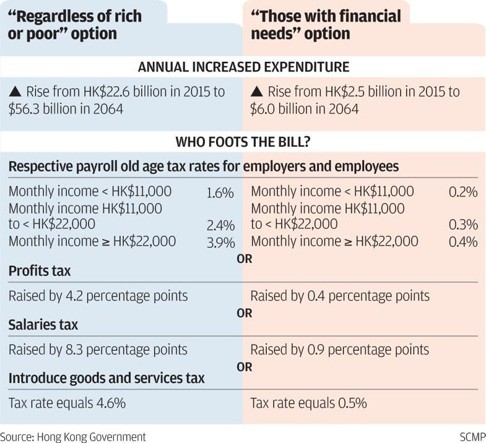
Only about 250,000 among 1.12 million
elderly would be eligible today. By 2064, when the elderly population is
projected to reach 3.58 million, only 600,000 � around 23 per cent � would
be eligible. Total elderly welfare expenditure that year would hit HK$55.8
billion.
The universal option, �regardless of rich
or poor�, would benefit all elderly people to the tune of HK$3,230 a month.
But, according to the government, it would mean an additional HK$22.6
billion in welfare expenditure, and HK$56.3 billion extra for 2.58 million
elderly by 2064.
Total elderly welfare expenditure would be
HK$106.1 billion by 2064. But statistics show that if Hong Kong sticks to
its current retirement policies, total elderly welfare expenditure will
reach HK$49.5 billion by 2064.
To cover the expenses over the next 50
years, the universal pension plan would require a 4.2 per cent increase in
profits tax , or an 8.3 per cent increase in salaries tax, overturning Hong
Kong�s low tax regime which is a cornerstone of the local economy. Other
options to foot the bill include introducing a goods and services tax of
4.5 per cent.
While Lam expressed reservation about the
universal pension option, she denied that the government was scaremongering
to ensure the public would reject it.
The government based its �regardless of
rich or poor� option on a study it commissioned, led by University of Hong
Kong academic Nelson Chow Wing-sun. A disappointed Chow yesterday criticised
the government for presenting his proposal in such a way that it appeared to
put the public purse in danger. �The only reason why the government did so
is that it does not want people to support the universal scheme,� Chow said.
Both the labour and business sectors gave
the thumbs-down to the consultation proposals, with Labour Party lawmaker
Lee Cheuk-yan noting that very few people would benefit under the
non-universal plan. Stanley Lau Chin-ho, honorary president of the
Federation of Hong Kong Industries, was against both options in the
consultation because of the tax implications. Chua Hoi-wai, chief executive
of the Council of Social Service, said the threshold of the non-universal
proposal was set too high.
(Project
Syndicate) The Closing of the Academic Mind. By Chris Patten.
LONDON � I would wager that I have been
Chancellor of more universities than anyone alive today. This is partly
because when I was Governor of Hong Kong, I was made Chancellor of every
university in the city. I protested that it would surely be better for the
universities to choose their own constitutional heads. But the universities
would not allow me to resign gracefully. So for five years I enjoyed the
experience of giving tens of thousands of students their degrees and
watching what this rite of passage meant for them and their families.
When I came back to Britain in 1997, I was
asked to become Chancellor of Newcastle University. Then, in 2003, I was
elected Chancellor by the graduates of Oxford University, one of the world�s
greatest institutions of learning. So it should not be surprising that I
have strong views about what it means to be a university and to teach, do
research, or study at one.
Universities should be bastions of freedom
in any society. They should be free from government interference in their
primary purposes of research and teaching; and they should control their own
academic governance. I do not believe it is possible for a university to
become or remain a world-class institution if these conditions do not exist.
The role of a university is to promote the
clash of ideas, to test the results of research with other scholars, and to
impart new knowledge to students. Freedom of speech is thus fundamental to
what universities are, enabling them to sustain a sense of common humanity
and uphold the mutual tolerance and understanding that underpin any free
society. That, of course, makes universities dangerous to authoritarian
governments, which seek to stifle the ability to raise and attempt to answer
difficult questions.
But if any denial of academic liberty is a
blow struck against the meaning of a university, the irony today is that
some of the most worrying attacks on these values have been coming from
inside universities.
In the United States and the United
Kingdom, some students and teachers now seek to constrain argument and
debate. They contend that people should not be exposed to ideas with which
they strongly disagree. Moreover, they argue that history should be
rewritten to expunge the names (though not the endowments) of those who fail
to pass today�s tests of political correctness. Thomas Jefferson and Cecil
Rhodes, among others, have been targeted. And how would Churchill and
Washington fare if the same tests were applied to them?
Some people are being denied the chance to
speak as well � so-called �no platforming�, in the awful jargon of some
clearly not very literate campuses. There are calls for �safe spaces� where
students can be protected from anything that assaults their sense of what is
moral and appropriate. This reflects and inevitably nurtures a harmful
politics of victimization � defining one�s own identity (and thus one�s
interests) in opposition to others.
When I was a student 50 years ago, my
principal teacher was a leading Marxist historian and former member of the
Communist Party. The British security services were deeply suspicious of
him. He was a great historian and teacher, but these days I might be
encouraged to think that he had threatened my �safe space.� In fact, he made
me a great deal better informed, more open to discussion of ideas that
challenged my own, more capable of distinguishing between an argument and a
quarrel, and more prepared to think for myself.
Of course, some ideas � incitement of
racial hatred, gender hostility, or political violence � are anathema in
every free society. Liberty requires some limits (decided freely by
democratic argument under the rule of law) in order to exist.
Universities should be trusted to exercise
that degree of control themselves. But intolerance of debate, of discussion,
and of particular branches of scholarship should never be tolerated. As the
great political philosopher Karl Popper taught us, the only thing we should
be intolerant of is intolerance itself. That is especially true at
universities.
Yet some American and British academics and
students are themselves undermining freedom; paradoxically, they have the
liberty to do so. Meanwhile, universities in China and Hong Kong are faced
with threats to their autonomy and freedom, not from within, but from an
authoritarian government.
In Hong Kong, the autonomy of universities
and free speech itself, guaranteed in the city�s Basic Law and the 50-year
treaty between Britain and China on the city�s status, are under threat. The
rationale seems to be that, because students strongly supported the
pro-democracy protests in 2014, the universities where they study should be
brought to heel. So the city�s government blunders away, stirring up
trouble, clearly on the orders of the government in Beijing.
Indeed, the Chinese authorities only
recently showed what they think of treaty obligations and of the �golden
age� of Sino-British relations (much advertised by British ministers), by
abducting a British citizen (and four other Hong Kong residents) on the
city�s streets. The five were publishing books that exposed some of the
dirty secrets of China�s leaders.
On the mainland, the Chinese Communist
Party has launched the biggest crackdown on universities since the aftermath
of the killings in Tiananmen Square in 1989. There is to be no discussion of
so-called Western values in China�s universities. Only Marxism can be
taught. Did no one tell President Xi Jinping and his Politburo colleagues
where Karl Marx came from? The trouble these days is precisely that they
know little about Marx but a lot about Lenin.
Westerners should take a closer interest in
what is happening in China�s universities and what that tells us about the
real values underpinning scholarship, teaching, and the academy. Compare and
contrast, as students are asked to do.
Do you want universities where the
government decides what it is allegedly safe for you to learn and discuss?
Or do you want universities that regard the idea of a �safe space� � in
terms of closing down debate in case it offends someone � as an oxymoron in
an academic setting? Western students should think occasionally about their
counterparts in Hong Kong and China who must fight for freedoms that they
take for granted � and too often abuse.
(info.gov.hk)
February 24, 2016.
Education Bureau's response to Chris
Patten's article
*****************************************************
On February 22, Lord Patten published
an article entitled "The Closing of the Academic Mind" on Project
Syndicate's website, in which he mentioned the head of the Hong Kong
Government being the Chancellor of all government-funded universities. Upon
receiving media enquiries, a spokesperson for the Education Bureau of the
Government of the Hong Kong Special Administrative Region (HKSAR) gave the
following response today (February 24):
During his tenure as Governor of Hong Kong, Lord Patten, in
consultation with the Executive Council, approved to grant university status
to three institutions, namely the City Polytechnic, Baptist College and the
Polytechnic in 1994. At the same time he also reaffirmed the statutory
mechanism for the Governor to be the Chancellor of all government-funded
universities in Hong Kong, and this mechanism was enshrined through
legislation. Throughout the remainder of his term, Lord Patten had not
revised this mechanism or the relevant legislation. Neither was the
mechanism and legislation abolished at the time of Hong Kong's return to
China. Therefore, the current practice of the Chief Executive being the
Chancellor of the government-funded universities precisely stems from the
then Governor Patten's decision. In putting forward his arguments in an
article after an interval of more than 20 years, Lord Patten was acting in
complete ignorance of the facts.
Lord Patten claimed that "the rationale seems to be that, because
students strongly supported the pro-democracy protests in 2014, the
universities where they study should be brought to heel. So the city's
government blunders away, stirring up trouble, clearly on the orders of the
government in Beijing." Such a claim is totally groundless and a sheer
fabrication and the HKSAR Government expresses deep regret.
Regarding academic freedom and institutional autonomy, we note that the
President and Vice-Chancellor of the University of Hong Kong, Professor
Peter Mathieson, also talked about this subject in his speech delivered on
December 17, 2015. An excerpt of the speech is produced below:
"I want to finish by saying something about academic freedom and
institutional autonomy. These two terms are often confused or used
interchangeably and they should not be, because they are different. Academic
freedom is the critical underpinning of university life: the freedom to
study, research, read, write and/or talk about whatever subjects that we
find most interesting, stimulating or important, no matter how controversial
they might be or how the findings may challenge dogmas or official
viewpoints. In my opinion, academic freedom is alive and well at (the
University of Hong Kong). We do not however have complete institutional
autonomy and nor can we expect it. We are a publicly funded institution and
it is entirely appropriate that we are responsible to the public, and hence
to the government that represents them, to assess, justify and adjust our
activities according to societal impact and need. Publicly funded
institutions all over the world have similar responsibilities. Look at
recent events in universities in the UK, the US, Canada and Japan or schools
in Korea: none of them have complete institutional autonomy, so no one in
Hong Kong should think that this issue is purely a local matter."
The HKSAR Government reiterates that academic freedom is an important
social value treasured by Hong Kong and safeguarded by the Basic Law. It is
also a cornerstone of the success of the higher education sector. The HKSAR
Government attaches great importance to upholding academic freedom and
institutional autonomy. The eight University Grants Committee (UGC)-funded
institutions are all independent and autonomous statutory bodies. They have
their own governing ordinances and statutes which set out their objectives,
functions and governance structures. The legislation provides the
institutions with the power and freedom to carry out their objectives and
functions.
In fact, the roles of the UGC, the Government and the institutions in
the higher education sector are clearly defined in the UGC Notes on
Procedures, which sets out five major areas of institutional autonomy,
namely selection of staff, selection of students, curricula and academic
standards, acceptance of research programmes, and allocation of funds within
the institution.
Internet comments:
- The Closing of the Academic
Mind? This is clearly a play on the book The Closing of the American Mind
by Allan Bloom. But this comparison is hilarious, because
Wikipedia explains:
The Closing of the American
Mind is a 1987 book by Allan Bloom, who describes "how higher education has
failed democracy and impoverished the souls of today's students." He focuses
especially upon the "openness" of relativism as leading paradoxically to the
great "closing" referenced in the book's title. Bloom argues that "openness" and
absolute understanding undermine critical thinking and eliminate the "point of
view" that defines cultures.
This is the exact opposite of what
Chris Patten is arguing for.
- Chris Patten wrote: "When I was
Governor of Hong Kong, I was made Chancellor of every university in the city. I
protested that it would surely be better for the universities to choose their
own constitutional heads. But the universities would not allow me to resign
gracefully." All three Hong Kong Special Administrative Region Chief Executives
that came after the handover automatically become the constitutional heads of
all the universities in Hong Kong. Can they 'resign gracefully'? No, because
this is not a matter up to the Chief Executive or the respective universities to
decide upon. Each university has a university ordinance encoded into Hong Kong
law.
Even if the Chief Executive
resigns as chancellor, he is still the chancellor by law; nobody else can assume
that position. The university ordinances were in existence when Chris Patten was
governor and he became the chancellor automatically under those ordinances. He
was talking rubbish when he suggested that he wanted to resign gracefully but
the universities would not allow him to do so. The truth is that the university
ordinances wouldn't allow it.
If you want things changed, you
will have to change the law. You should ask the Executive Council and the
Legislative Council to do so, as opposed to writing articles in British
newspapers.
- If Chris Patten really didn't
want to be chancellor, he should have sought to change the university
ordinances. He did nothing of the sort. What he meant to say that the British
governors were omnipotent and he could have made the Legislative Council enact
any law of his desire. So all he had to do was to snap his fingers and the
university ordinances would be amended to his liking and allow him to resign.
- Chris Patten wrote: "On the
mainland, the Chinese Communist Party has launched the biggest crackdown on
universities since the aftermath of the killings in Tiananmen Square in 1989.
There is to be no discussion of so-called Western values in China�s
universities. Only Marxism can be taught." I don't know what to say. Let me
proceed to the Peking University website and look for the courses under the
School of International Studies:
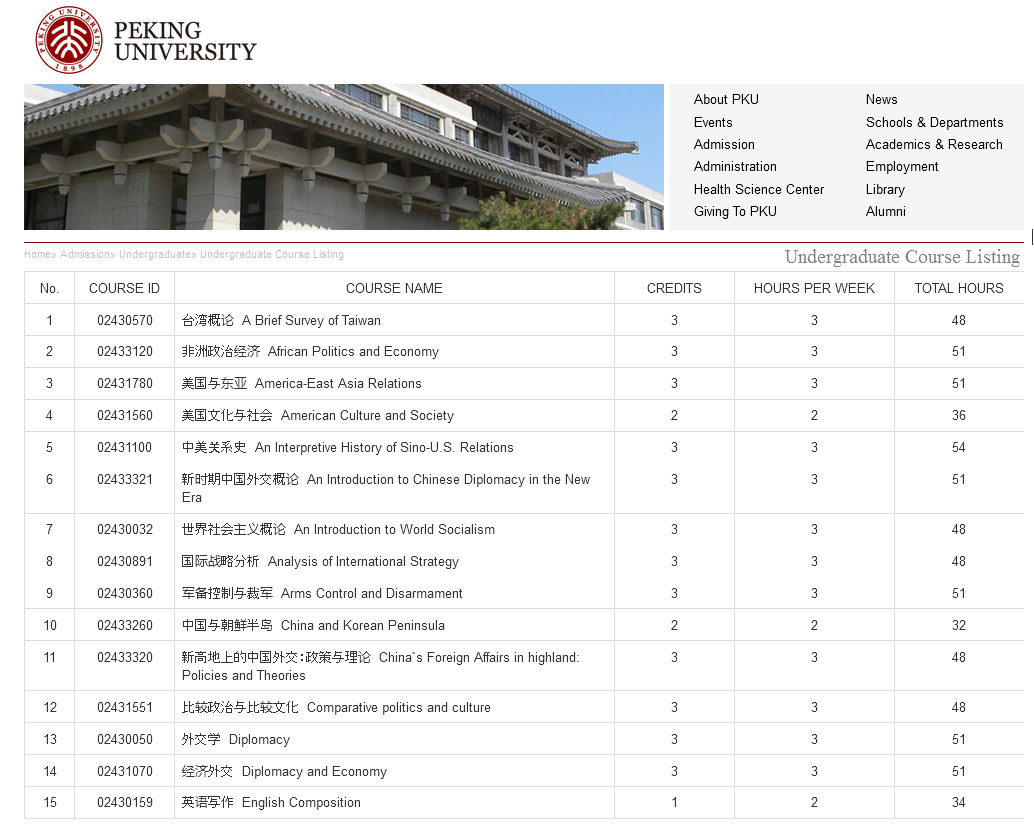
Or this partial listing from the
School of Government:
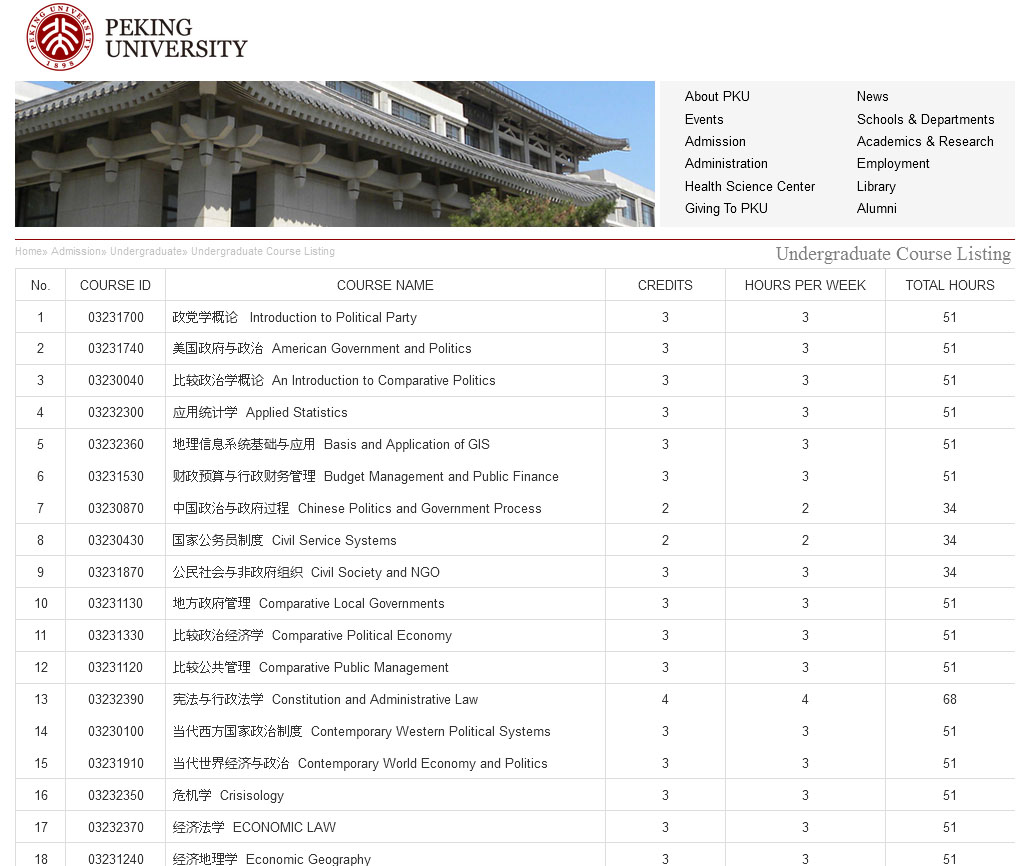
I recommend that "Westerners
should take a closer interest in what is happening in China�s universities and
what that tells us about the real values underpinning scholarship, teaching, and
the academy. Compare and contrast, as students are asked to do."
- I like this bit: (The
Guardian) Chris Patten, the chancellor of Oxford University, has told
students involved in the campaign to remove a statue of Cecil Rhodes that they
must be prepared to embrace freedom of thought or �think about being educated
elsewhere�. Patten accused students who had criticised Rhodes, who regarded the
English as racially superior, of trying to shut down debate. He said that by
failing to face up to historical facts which they did not like, students were
not abiding by the values of a liberal, open society that �tolerates freedom of
speech across the board�.
- In like manner, those Hong Kong University students who don't like Arthur Li
should "think about being educated elsewhere."
- Chris Patten wrote: "So the
city�s government blunders away, stirring up trouble, clearly on the orders of
the government in Beijing." Can Chris Patten please share the order from the
government in Beijing to the Hong Kong government with us?
- Also, the simultaneous use of "blunders," "stirring up trouble" and "on the
orders" in the same sentence is very confusing. Can Patten please make up his
mind? Were these blunders? Or were these nefarious trouble-making schemes? Or
were these written scripts to be carried out?
- I am more perplexed by the use of "clearly" in that sentence. With due
respect, it is not clear to me. Can Patten please provide some evidence?
Q. If the New Territories East
Legislative Council by-election were held tomorrow, who would you vote for? The
Hong Kong-wide results are as follows:
14%: Alvin Yeung
14%: Holden Chow
8%: Edward Leung
7%: Christine Fong
5%: Nelson Wong
4%: Leung Sze-ho
2%: Lau Chi-shing
20%: None of the above
25%: Undecided
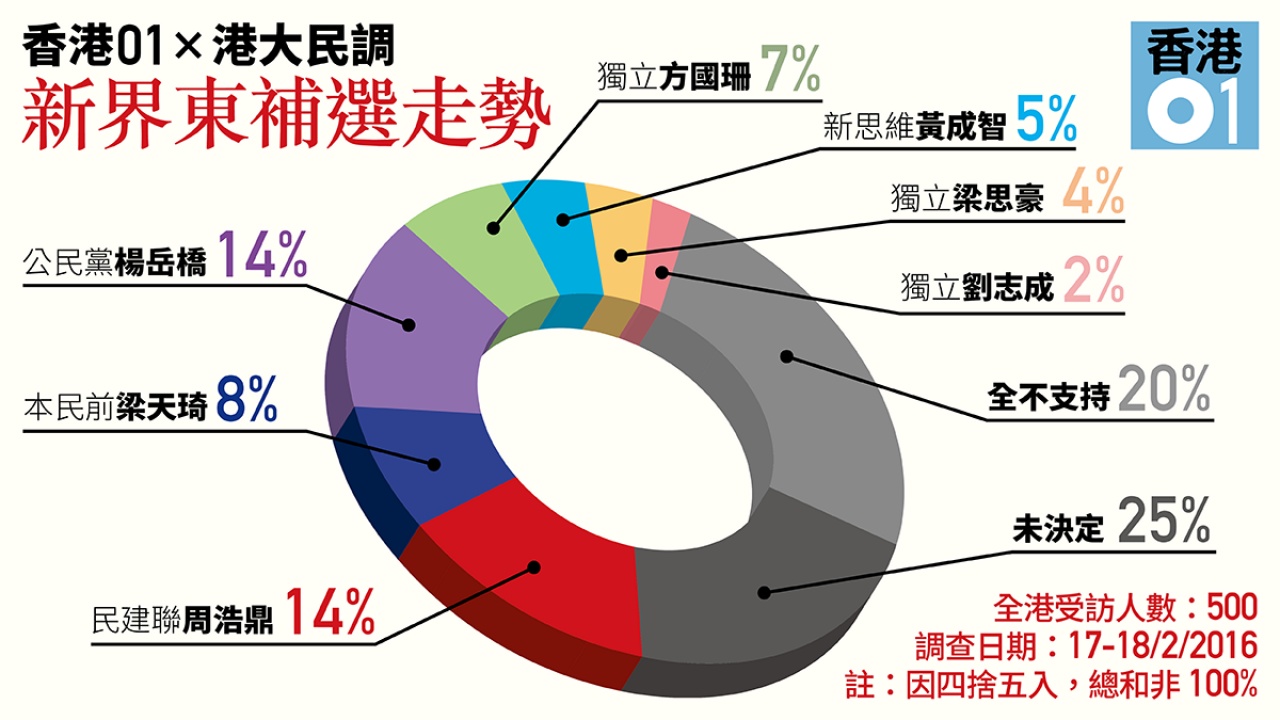
Of course, only New Territories
East registered voters can to vote in this by-election. The results for the 130
New Territories East residents are:
15%: Alvin Yeung
14%: Holden Chow
9%: Edward Leung
8%: Christine Fong
6%: Lau Chi-shing
4%: Nelson Wong
4%: Leung Sze-ho
9%: None of the above
31%: Undecided
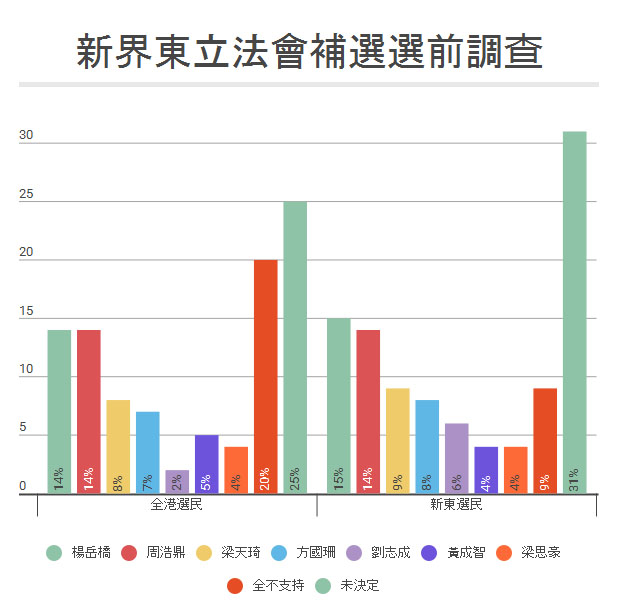

(Hong
Kong Economic Journal) February 26, 2016.
D100 commissioned the Hong Kong
University Public Opinion Programme to interview registered voters in New
Territories East from January 22 to January 23.
The results are:
24%: Alvin Yeung
20%: Holden Chow
12%: Edward Leung
11%: Christine Fong
8%: Nelson Wong
1%: Lau Chi-shing
1%: Leung Sze-ho
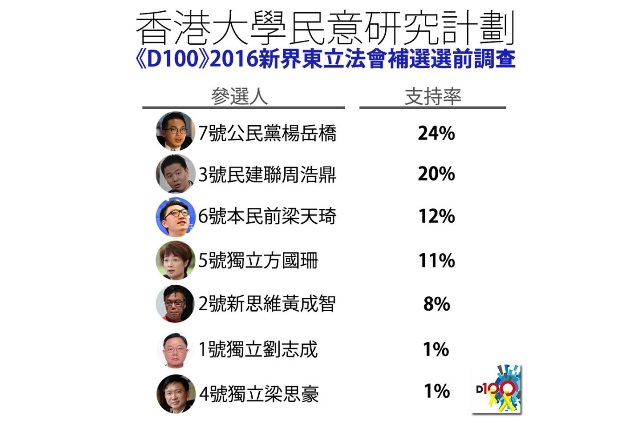
(The
Stand) February 27, 2016.
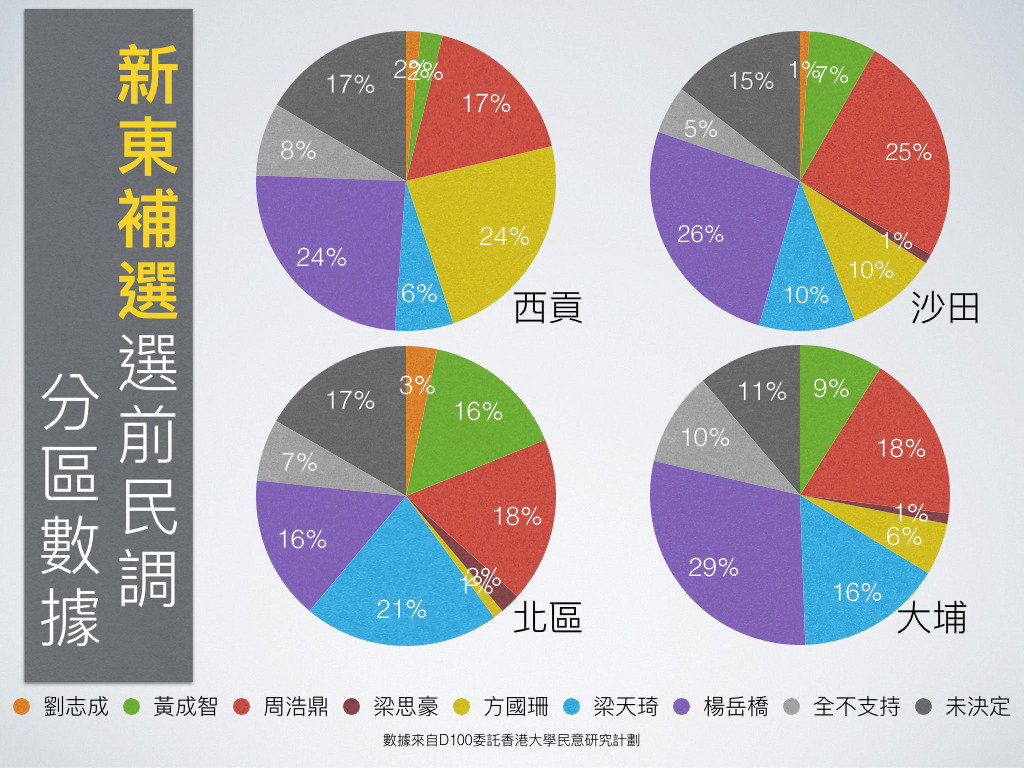
Here are the breakdown of the
D100-HKU POP survey by sub-district:
Sai Kung
2%: Lau Chi-shing
8%: Nelson Wong
17%: Holden Chow
0%: Leung Sze-ho
24%: Christine Fong
6%: Edward Leung
24%: Alvin Yeung
8%: None of the above
17%: Undecided
Sha Tin
1%: Lau Chi-shing
7%: Nelson Wong
25%: Holden Chow
1%: Leung Sze-ho
10%: Christine Fong
10%: Edward Leung
26%: Alvin Yeung
5%: None of the above
15%: Undecided
North District
3%: Lau Chi-shing
16%: Nelson Wong
18%: Holden Chow
2%: Leung Sze-ho
1%: Christine Fong
21%: Edward Leung
16%: Alvin Yeung
7%: None of the above
17%: Undecided
Tai Po
0%: Lau Chi-shing
9%: Nelson Wong
18%: Holden Chow
1%: Leung Sze-ho
6%: Christine Fong
16%: Edward Leung
29%: Alvin Yeung
10%: None of the above
11%: Undecided

(Hong
Kong Research Association) 1071 persons were interviewed February 11-20,
2016.
Q1. How much attention are you
paying towards the New Territories East Legislative Council by-election?
51%: A lot of attention
21%: Some attention
23%: So-so
2%: Not much attention
2%: No attention whatsoever
2%: No opinion
Q2. Do you think the election
atmosphere is intense at this time?
15%: Very intense
25%: Somewhat intense
44%: So-so
11%: Not too intense
2%: Not intense at all
3%: No opinion
Q3. What is the major factor in
your choice of candidate?
2%: Recognition
18%: Policy platform
51%: Political party background/political position
2%: Personal image
19%: Past performance
3%: Other
6%: No opinion
Q4. Do you want the candidate to
focus on Hong Kong-wide issues or district-specific issues
69%: Hong Kong-wide issues
18%: District-specific issues
9%: No opinion
4%: No opinion
Q5. When will you decide on who to
vote for?
25%: On voting day
30%: Within one week before voting day
7%: Within two weeks before voting day
23%: More than two weeks before voting day
15%: No opinion
Q6. Will you be voting in this New
Territories East Legislative Council by-election?
62%: For certain
23%: Most likely
5%: Most likely not
2%: Definitely not
7%: Undecided
2%: No opinion
Q7: Who would you vote if tomorrow
were voting day?
3%: Lau Chi-shing
11%: Nelson Wong
20%: Holden Chow
1%: Leung Chi-ho
5%: Christine Fong
10%: Edward Leung
22%: Alvin Yeung
26%: Undecided
2%: No opinion
Q8. What is your main source
information about the election?
22%: Internet
23%: Print newspapers/magazines
6%: Friends/relatives
3%: Radio
8%: Television
15%: Election promotional materials
13%: Other
11%: No opinion
(SCMP)
February 22, 2016.
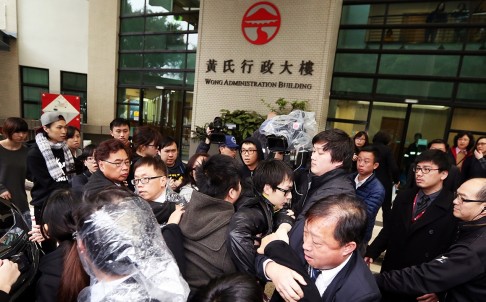
Lingnan University�s governing
council cancelled its meeting on Monday after a group of students seeking
governance reform tried to block members from entering the meeting venue. A
group of around 30 Lingnan students clashed with a council member and
university president Professor Leonard Cheng Kwok-hon separately when they
tried to enter the meeting venue on the university�s campus in Tuen Mun. A
security guard fell to the ground in the brief chaos. Students also grabbed
Cheng�s clothes and tried to prevent him from leaving. Three police cars
were seen briefly outside the university. The council later announced its
decision to cancel the meeting.
The protesting students said they were
angry at the council�s decision not to consider student demands that the
chief executive should be stripped of the power to appoint council members
and that the ratio of elected members from inside the university should be
increased. They said without the reform, the council would be susceptible to
political interference, citing the recent appointment of three
pro-government members as an example. �We just wanted to ask the
government-appointed members why they opposed [student demands],� said
student union president Philip Lau Chun-lam. �Are they ignoring students�
opinions?�
But one of the council members, sociology
professor Peter Baehr, said students� action was �alarming� and �can easily
turn into violence�. �I believe this is wrong,� said Baehr. �I think the
treatment of the president is bad. I don�t think that you should be mobbing
the president or other people.� With students insisting on their demands and
the council not backing down, Baehr said he did not know how the
disagreement could be resolved. �Sooner or later people are going to have to
talk and come to some kind of arrangement,� he said.
(Wen
Wei Po) February 23, 2016.
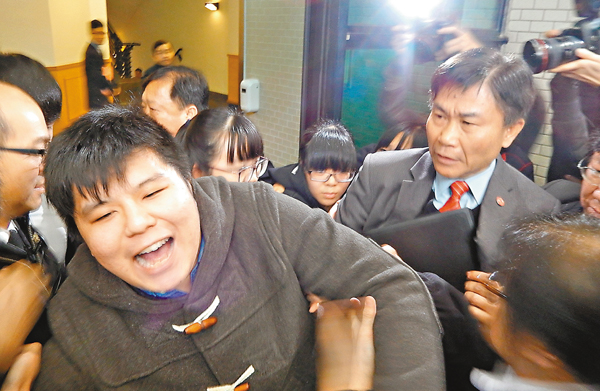
Lingnan University's government council was
scheduled to meet yesterday at 330pm. Student Union president Philip Lau
Chun-lam and about twenty students arrived early at 300pm. They surrounded
any council member that they saw approaching and clashed with the security
guards. During the chaos, one security guard was pushed down onto the
ground. Fortunately there was no serious bloodshed. Council chairman Auyeung
Pak-kuen and president Leonard Cheung Kwok-hon went up to see what was going
on. Auyeung clarified that the council members agreed to discuss the issue
last October. However, that was not a guarantee as such, because the council
members cannot be made to vote one particular way only. Cheng repeated to
the students that the council members "agreed to discuss" and not "agreed to
establish" a special committee.
However, the students continued to blockade
the council members. They pulled at Cheng's suit. Ultimately Cheng was able
to enter the meeting place. Auyeung continued to explain to the students
that as council chairman, he has to balance the demands of various
stakeholders and cannot just cater to the wishes of one faction. He said
that the council has many matters to handle and cannot "ignore everything
else to deal with one issue." He implored the students to let him pass. But
the situation did not get any better. Eventually Auyeung was forced to leave
and the meeting was canceled.
Council member Peter Baehr disapproved of
the blockade. He specifically mentioned that Leonard Cheng was pushed and
shoved by the students, which was "just one thread away from violence." He
expressed concerned that this can become a violent incident. He said that
the students have the right to express their dissatisfaction, but campus
violence will not be tolerated.
(Oriental
Daily with video) February 23, 2016.
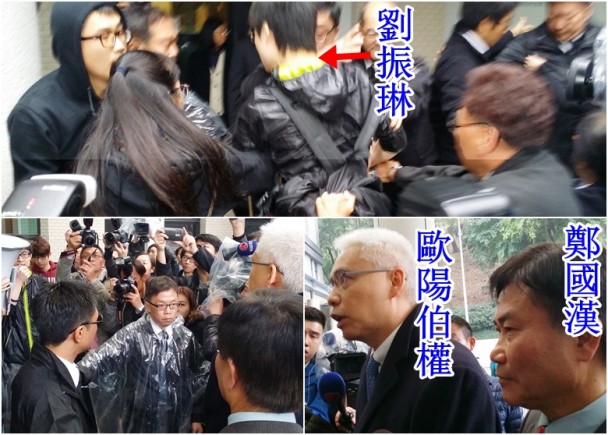
About 3:20pm, Leonard Cheng and Auyeung
Pak-kuen arrived at the Wong Administration Building and were about to enter
from the right-hand entrance. The students rushed forward to block them and
demanded that a special committee be formed to evaluate the University
Ordinance. Cheng clarified to the students that after the last student
blockade incident, the council agreed to discuss the formation of such a
committee but not to immediately form one. Cheng attempted to enter the
left-hand entrance, but Student Union president Philip Lau and several other
students rushed forward to stop him and they struggled with the security
guards. Eventually, Cheng went back and entered through the side entrance.
Auyeung Pak-kuen continued to be blockaded.
He explained that the council members did not think that this was the right
moment to form a special committee and therefore they tabled the motion and
decided to deal with education issues. Auyeung was not able to break through
the blockade. Eventually he left.
Last night, the Lingnan University Student
Union posted "The university council is shameless: they must immediately
fulfill their promise made during the blockade." They said that a student
referendum was held last November during which more than 1,000 students
voted to pass three motions: change the University Ordinance; not make the
Chief Executive automatically the university vice-chancellor; remove the
power of the Chief Executive to appoint council members. The Student Union
demanded the council members to fulfill their promise during last year's
blockade and immediately form a special committee to evaluate the University
Council. They also called on the students to attend the demonstration today.
(Hong
Kong Free Press) March 23, 2016.
Two Lingnan University students, who were
formerly members of its student union, have been summoned to a disciplinary
hearing over a protest last month against its governing council.
Lau Chun-lam and Lo Ngai-yin, who were
president and executive member respectively of last year�s student union,
protested outside a Council meeting venue on February 22. They
demanded council members set up a committee to review its structure
and questioned whether the Chief Executive should be the chancellor of the
school. The meeting was terminated prematurely as the duo and other student
protesters blocked some Council members from entering the venue.
Lau and Lo requested help from the student
union after they received news of the hearing, saying they did not understand
the intention of the hearing and they were feeling �great pressure�.
�[Our] freedom of protest should be
protected,� they wrote in a statement. �We feel that since the intention of
the hearing is unknown, attending the hearing may subject [us] to political
suppression, therefore we refuse to attend this hearing.� They added that they
did not regret their actions.
The student union of Lingnan University also
issued a statement saying that the disciplinary hearing was a �retroactive
punishment� since Lau and Lo had finished their elected term.
The union urged a public investigation,
instead of a closed door hearing, to let students know about the issue. It
said that its representative � a member of the disciplinary committee � will
be present at the hearing to �prevent the school from conducting a political
trial�. �The student union strongly objects to the school interfering with
students� freedom of assembly and protest on the campus,� the statement read.
- This is the same rubbish from the Occupy
Central people. During the siege, they proclaimed that they realized that
their actions were illegal and that they will accept the consequences. When
the moment of reckoning comes, they say that they cannot be held responsible
because that would be political oppression.
- Those two students talk about their
freedom of assembly and freedom of speech. Under Article 27 of the Basic
Law: "Article 27 Hong Kong residents shall have freedom of speech, of the
press and of publication; freedom of association, of assembly, of procession
and of demonstration; and the right and freedom to form and join trade
unions, and to strike. "
The issue here is Article 28 of the Basic
Law: "The freedom of the person of Hong Kong residents shall be inviolable.
No Hong Kong resident shall be subjected to arbitrary or unlawful arrest,
detention or imprisonment. Arbitrary or unlawful search of the body of any
resident or deprivation or restriction of the freedom of the person shall be
prohibited." The students were depriving/restricting the freedom of the
council members.
- "I want genuine expulsion from school."
Videos:
RTHK
http://news.rthk.hk/rthk/ch/component/k2/1243684-20160222.htm
https://www.facebook.com/RTHKVNEWS/videos/965676106873779/ Interview
with council member Peter Baehr
TVB
http://news.tvb.com/local/56cb18f96db28cbb13000004/
Cable TV
https://www.youtube.com/watch?v=-pUvZc2zp0U
(SCMP)
February 21, 2016.
Activist Ray Wong Toi-yeung, a key figure
in the localist group �accused of starting the Mong Kok riot, was arrested
yesterday for �inciting others to take part in the violence, after chemicals
that could be used to make explosives were found inside a flat. Wong, 22,
convenor of Hong Kong Indigenous, was said to have gone missing after
publishing a �final message to Hong�kongers� on February 11 in which he said
it was �better to die with honour than survive in disgrace�.
He was arrested at about 2pm yesterday when
police broke into a flat in Tin Shui Wai where officers seized the
chemicals. They also seized an extendable baton, one electromagnetic gun,
HK$530,000 in cash and about 100 pills of suspected part one poison,
including boxes of the erectile dysfunction medication sildenafil and
marijuana. A Guy Fawkes mask, protective gear used in war games and a
computer along with some circuit boards were also found. A bomb disposal
unit was called to the site. A 28-year-old man was also arrested in the flat
for participating in a riot and assisting an offender.
Wong was held for questioning on suspicion
of being involved in the violence that rocked Mong Kok when hundreds of
protesters clashed with police, setting fires on the streets and hurling
bricks at front-line officers on the night of February 8.
Hong Kong Indigenous announced Wong�s
arrest on its Facebook page before it was confirmed by police. Wong, a
freelance interior designer, co-founded Hong Kong Indigenous in January last
year and has been a core member and spokesman for the group. It operates on
the principle of using violence to fight �oppression�, and has rejected the
more peaceful approach adopted by the Occupy movement in 2014.
(Oriental
Daily) February 22, 2016.
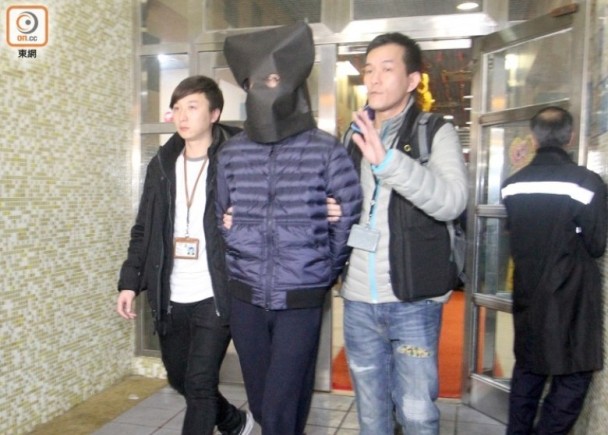
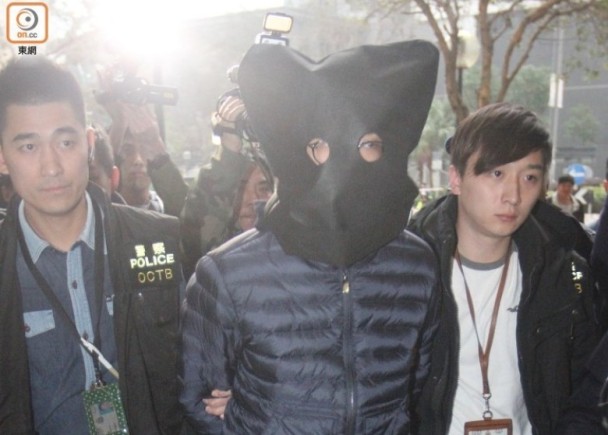
The police brought Ray Wong
(handcuffed behind his back and wearing a black hood) back to his Tseung Kwan O
apartment to collect evidence. They left with a laptop computer. According to
information, Ray Wong told the police that the $530,000 found in Tin Shui Wai
were legal fees. The police are investigating about possible money laundering.
(SCMP)
February 23, 2016.
Activist Ray Wong Toi-yeung, convenor
of the localist group �accused of instigating the Mong Kok riot, was brought
to Kowloon City Court on Tuesday afternoon to face a rioting charge.
The fresh prosecution brings the number
charged in connection with the riot to 46, with all but one of those charged
with one count of rioting over alleged participation in the Mong Kok riot of
February 8 and 9. Wong, 22, a freelance interior decorator, was not required
to enter a plea before chief magistrate Clement Lee Hing-nin as he sat
surrounded by seven police officers in the defendant�s dock.
Assistant director of public prosecutions
Ned Lai Ka-yee said Wong took part in the riot along with others. He opposed
Wong�s bail application. But in rejecting that request by the prosecution,
the chief magistrate said: �My view is that stringent bail conditions can
alleviate the risk of absconding.�
Wong�s case will return to the same court
on March 22, pending police investigations and the Department of Justice�s
legal advice.
In the meantime, Wong was released on
HK$100,00 cash bail and a HK$100,000 cash surety from his mother, on the
condition he resides at a reported address, remains in Hong Kong and
refrains from entering parts of Mong Kok except while on a mode of
transportation. He was also required to surrender his passport and home
return permit within 48 hours of his release from custody, obey a curfew
from midnight to 6am, and report to Tseung Kwan O police station three times
a week.
Lee said: �All these conditions are
recorded in the bail sheet, with a copy that will be given to you. Is that
clear?� �Yes,� Wong replied through an interpreter during the hearing, which
was conducted in English. Lee also reminded Wong�s mother, who was sworn in
to serve as his surety, to ensure Wong abides by the bail conditions or she
would risk the confiscation of the HK$100,000. Wong�s lawyer, senior counsel
Nigel Kat, revealed that �a reputable member of society�, whose identity was
not mentioned in the open court hearing, was also willing to pay HK$100,000
as a cash surety.
Dozens of Wong�s supporters queued up
outside the court building before the afternoon hearing, and then filled up
the seats upon admission. Among them were Wong�s mother, his group�s
spokesman Edward Leung Tin-kei, who was also charged with rioting earlier
this month, and founder of now-defunct political group Student Front, Alvin
Cheng Kam-mun.
Rioting is liable to a maximum sentence of
ten years in prison upon conviction on indictment, or five years on summary
conviction.
(SCMP)
Localist delinquent movement seeking independence makes fashionable move to
violence, but it�s a political dead end. By Alex Lo. February 23, 2016.
Some people seem to be mesmerised by
the sound of their voice. Ray Wong Toi-yeung, a key figure in the
localist group Hong Kong Indigenous, is no doubt one of them.
After allegedly helping to start the riot in Mong Kok, the
militant activist seeking independence for Hong Kong posted a last
message on the internet and then disappeared. He said it was
�better to die with honour than survive in disgrace�. His
subsequent action says the opposite. Instead of bravely
confronting his supposed oppressors � presumably the police and
the government � he sneaked off and never returned home. Not only
was he not ready to die, he was probably not even ready for jail.
Police raided a flat in Tin Shui Wai and arrested Wong on Sunday.
Officers also turned up some interesting evidence. Besides
chemicals that allegedly could be used to make bombs, they also
found a retractable baton, one stun gun, more than half a million
dollars in cash and about 100 pills of suspected restricted drugs,
including Sildenafil, the active ingredient in Viagra, and also
marijuana. Police also found a Guy Fawkes mask and protective gear
used in war games along with computer circuit boards. His
inclinations towards violence and sex are rather pronounced. And
this guy is the convenor of Hong Kong Indigenous. So what does
that say about this group and localism?
Those who have tried to justify and explain away the delinquent
nature of this movement have helped create this monster. Their
hatred of the government and Beijing has been blind to the danger
this movement is posing to Hong Kong. And it�s not just Hong Kong
Indigenous. Seeking independence through violence is fashionable
these days among the young. The newly elected leaders of Chinese
University�s student union, who have formed Spark, an activist
group that advocates independence, have said that there is �no
bottom line� when �fighting with force�. The incoming University
of Hong Kong student union president Althea Suen is less violent
in her rhetoric but is also seeking independence for Hong Kong.
This is a political dead end that will only spell ruin for Hong
Kong. However bad our government may be � and it�s really not so
bad as pan-democrats have made it out to be � nothing justifies
such a fruitless and dangerous path.
(SCMP)
March 2, 2016.
A key figure of localist group Hong Kong
Indigenous claims his family has received threats from �powerful people� to
make him disappear like Lee Po, the bookseller allegedly spirited to the
mainland late last year.
Speaking of his experiences since his
February 21 arrest over his alleged role in the Mong Kok riot, Ray Wong
Toi-yeung said his relatives were contacted by different people through
various channels, including by phone and middlemen, in the days after the
event.
Wong refused to identify the callers but
claimed they were not from Hong Kong, did not speak Cantonese and wanted to
meet him directly. �These were people with powerful backgrounds. I think
everyone can guess who these people are,� he said. �Some of these people
succeeded in reaching my family members and in the course of their
conversations, there was coercion and cajoling.
�They said they�d be able to find me and
when they do, they would catch me. They also referred to the case of Mr Lee
Po.� Asked why he did not report it to the police, Wong said police �did not
have enough power� to investigate such people.
Lee, a seller of politically sensitive
books, was last seen on December 30. He was later revealed to be in Shenzhen
but there was no record of him leaving Hong Kong. Many speculated that Lee
was abducted by mainland law enforcement agents in Hong Kong and taken
across the border. Lee denied this in a mainland television interview this
week.
(Wen
Wei Po) December 1, 2017.
According to the court documents, the bail
conditions for Ray Wong are such that he has to report to the police station
once a week. Earlier, he had applied to the court for a one week leave to
travel to England. He left Hong Kong in early November. Afterwards, Wong did
not make his weekly appearance at the Tai Po Police Station. Under the
established procedure, the police will issue an arrest warrant after due
diligence.
Ray Wong is supposed to the host of a Hong
Kong Indigenous online programme. This programme has not been aired for the
five weeks between November 1 and November 29. On each occasion, the Hong
Kong Indigenous website announced the cancellation several hours beforehand
without offering any explanation. Ray Wong's personal Facebook has not been
updated since November 12.
On the night of November 3, a group of
pro-Hong Kong independence people gathered for a BBQ party on the rooftop of
a Kwun Tong industrial building. Ray Wong was present and he seemed
light-hearted about his upcoming trial. In retrospect, he was light-hearted
only because he had planned to to skip bail.
When Ray Wong applied for bail in February
2016, the prosecutor opposed because there was a risk of flight. But the
magistrate set severe conditions to reduce the risk. Bail was granted for a
$100,000 cash bond plus $100,000 of personal bond by his mother, along with
the requirements that he must not leave Hong Kong, that he must keep a
midnight-6am curfew and that he cannot enter certain parts of Mong Kok. If
Ray Wong skips bail, the $200,000 bond money will be confiscated. Since then
Ray Wong has applied many times to travel overseas because he was invited by
foreign organizations. Most of the time, the court allowed him to go and he
has always returned until this time.
(SCMP)
December 1, 2017.
The High Court has issued an arrest warrant
for a high-profile Hong Kong activist accused of instigating a riot last
year that left 130 people injured, after he breached multiple bail
conditions, the Post has learned.
Ray Wong Toi-yeung,
who led the once-active radical group Hong Kong Indigenous, failed to report
to police last week and return his travel documents to the court after a
judge-approved trip to Europe.
He was said to be
in the UK, according to pro-Beijing newspaper Wen Wei Po. The British
consulate would not comment on the report.
A police
spokeswoman, while declining to comment on Wong�s case, added: �The force
would, in the light of the circumstances of each case, locate the suspects at
large through different channels and then apprehend them.�
Wong could not be
immediately contacted. He was due to stand in an 80-day trial starting next
month accused of three charges including rioting. He also faces charges of
joint incitement and inciting others to take part in an unlawful assembly.
Wong, 24, was
earlier granted permission by the court to travel to Germany to attend an
event.
The Post
understood that the court issued the warrant of arrest after he breached the
bail conditions imposed by the court requiring him to report to Tai Po police
station on November 22 and surrender his travel document to the court.
Wong was released weeks after the
disturbances last year on condition of a HK$100,000 cash bail and a
HK$100,000 cash surety from his mother. He was also ordered to live at a
reported address and remain in Hong Kong.
At that time the
Department of Justice objected to Wong�s bail application. But Clement Lee
Hing-nin, chief magistrate at Kowloon City Court, granted him bail and ruled
that �stringent bail conditions can alleviate the risk of absconding�.
It is not
immediately clear whether Wong is still legally represented. The Post
learned that two lawyers who were earlier instructed by Wong, Nigel Kat SC and
Ronny Leung, no longer represented him.
Anyone subject to
an arrest warrant made by the court in such circumstances risks being held in
custody until the trial begins.
(SCMP)
December 9, 2017.
A second man alleged to
have taken part in a riot in a busy Hong Kong district last year was hit with
an arrest warrant on Saturday, a week after a leading pro-independence
activist was served a similar order. The High Court issued the warrant for Li
Tung-sing, making him the second person sought ahead of a riot trial due to
take place next month. Li was found to have violated his bail conditions, as
was Ray Wong Toi-yeung, who led the once-active radical group Hong Kong
Indigenous.
Neither Wong nor
Li appeared at the hearing on Saturday. It was held in preparation for the
trial slated to open on January 18.
At the closed-door
proceeding, Madam Justice Anthea Pang Po-kam issued a second arrest warrant
for Wong. It supersedes the first warrant issued for the activist on December
1 after he failed to return his passport to police following a judge-approved
trip to Europe.
The judge also
imposed new bail conditions on the rest of the six, requiring them to hand
over their travel documents on Monday and not to leave Hong Kong. Asked on
Saturday whether the conditions would affect him, Leung said �of course�
before leaving court.
The rest of the
defendants are Lam Lun-hing, Lam Ngo-hin, Lee Nok-man, Lo Kin-man and Wong Ka-kui.
Videos:
Headline Daily
https://www.youtube.com/watch?v=MUAITCIVxaQ
http://pop.stheadline.com/content.php?vid=40956&cat=a
TVB
http://news.tvb.com/local/56c9c5ac6db28ce130000002/
http://news.tvb.com/local/56cad71b6db28c9013000006/
https://www.facebook.com/bbtauseeworld/videos/457851044412278/
Cable TV
https://www.facebook.com/1634608756778242/videos/1676048315967619/
Internet comments:
- Internet rumor: The police knew the
whereabouts of Ray Wong yesterday already. But since Edward Leung was
holding a campaign rally last night, they decided to postpone the arrest
until today. After all the newspapers have reported on the rally, they took
action today.
- The police busted the door down in order
to arrest the two individuals holed up inside. Well, the Housing Department
(and therefore the taxpayers) will have to repair that door.
- (Reddit)
Ray Wong's final message:
My fellow Hongkongers, this is Ray Wong
of Hong Kong Indigenous. I am recording this because I am unsure about my
immediate future. This may well be my last chance to express my thoughts
in public.
I am a young man from Hong Kong, born and
bred. I care about this city. Once Hong Kong was the land of the
Hongkongers, but as I grew older, I noticed that it is no longer the case.
When I stand on the platform of the MTR, I often wonder if I was in the
Mainland. So I became an activist - I was there when we protested against
the introduction of the National Education curriculum, I was there when we
protested against the development plans of the Northeastern Territories.
But I (and we) always failed. I was, for the longest time, disillusioned,
and I feared that Hong Kong was beyond help, until the 28th of September
2014. That was the day when the Government confronted us with guns and
tear gas, but we did not back down. It was at that moment I realised us
Hongkongers could stand up and be counted, that resistance was not futile.
The so-called Umbrella Revolution ended in failure, but it changed my mind
about Hong Kong.
Now I believe Hong Kong can change.
I formed Hong Kong Indigenous as a result
of the Umbrella Revolution. Our first campaign was to reclaim areas that
were disrupted by smugglers. We were labelled thugs by the Government, by
the mainstream media, by the general public. But we persisted because we
believed we had to act to protect our City. The Government eventually
acted, and tightened the visa requirements. Smugglers no longer roam our
City with the same swagger.
On the 8th of February 2016, we were in
Mongkok to protect the annual Chinese New Year night market. As always, we
believed persistence would bring changes. Many things happened that night,
and many arrests were made. But I urge you to look back to how we
reclaimed Tuen Mun, and how we didn�t back down despite the public�s
criticism and the Government�s hard-handed crack down. Our persistence
brought changes.
2016 is going to be a tough year. There
are going to be more protests. But I urge you, my fellow Hongkongers, to
persist. We shall overcome, and Hong Kong will change for the better.
Lastly, I give you these words, and I hope they will give you strength at
this difficult time: It�s better to burn out than to fade away (literal
translation: we would rather be broken pieces of jade than a tile that is
whole).
Ray Wong's idea of 'burning out' into
'broken pieces of jade' is to hole up in a public housing flat in
Tin
Shui Wai, which is best known for youth gangs, domestic violence,
mental illness, suicides, and newly arrived mainland immigrants.
- The joke around the Internet tonight is
about minced meat. Why? Because 'broken pieces of jade' in Cantonese is a
homonym with 'minced meat.' Tonight we are all going to have steamed minced
pork meat for dinner in celebration.
- Yesterday Edward Leung said that the
goals of the revolution can only be reached by stepping on the corpses of
others. Today, Edward Leung reached higher by stepping on the body of Ray
Wong.
- Edward Leung also said that the primary goal is the Revolution. Under
these circumstances, it was right to wear mask to cover one's face because
it is more important to be able to continue the fight. In like manner, Ray
Wong might have talked about broken jade but it is more important to be able
to continue the fight.
- Excuse me, holing up in a Tin Shui Wai apartment is not continuing any
fight.
- Hong Kong Indigenous raised $100,000
after the Mong Kok riot which they said would be used to provide legal aid
to all arrestees, but non-members haven't gotten anything from them. Now
with Ray Wong arrested, it is time to raise even more money.
- Whereas the other arrestees so far have
been bailed out for several thousand dollars each, Ray Wong may not get
bail because he was on the run for almost two weeks and therefore he is a
flight risk.
- He is not a flight risk because he's got nowhere to flee to. He can't
possibly want to sneak across the border into China, right? And he won't be
able to pass Immigration Control to get on an airplane to fly somewhere. And
it is hard to see which consulate would offer political asylum to a rioter.
- He is also a danger to society because he was found with chemicals
(ammonium nitrate) used by terrorists to build bombs. He is in the same
situation as those who were arrested while testing bombs in the abandoned
ATV studio last year.
- Usually in a movie about a revolution,
there is a canned piece of dialogue which goes something like: "If one Ray
Wong falls down, there will be tens of thousands of other Ray Wong's coming
forth!" I wonder if such a recording has already been made.
- (Oriental
Daily) The report says: "Police received information that Ray Wong
has been hiding in an apartment in Ching Hoi House, Tin Ching Estate, Tin
Shui Wai district. After a lot of investigation and checking closed-circuit
surveillance videos, they finally zeroed in on the target." The key phrase
is "the police received information." Somebody told the police, but the
information was not specific (i.e. a specific apartment unit). So somebody
informed the police about the general whereabouts of Ray Wong.
- (Wen
Wei Po) The report says: "The police had more than a hundred
detectives at the campaign rally. A number of individuals who may know the
whereabouts of Ray Wong showed up. After the rally, many teams of detectives
trailed these target persons. After a lot of analysis, the police determined
that the home of one of the targets is most likely to be Ray Wong's hiding
place. Yesterday afternoon, the police completed their preparations and
charged inside an apartment unit in Ching Hoi House, Tin Ching Estate, Tin
Shui Wai district to arrest Ray Wong and another man."
- (Apple
Daily) Earlier the police received a tip that Ray Wong has shown up
in Tin Shui Wai for the past week. The detectives checked the surveillance
videos and finally determined that Ray Wong was in Ching Hoi House, Tin
Ching Estate. During the morning, the police did not see Ray Wong coming
out. In the afternoon, the police went and knocked on the door of the
eighth-floor apartment. Nobody answered. So the police decided to break down
the door and entered. Wong and a 28-year-old male named Cheung were inside.
The two were uncooperative with the police after being arrested.
On social media, someone speculated whether
this has to do with Ray Wong posting a photo of himself showing some barges
in the background. Perhaps that allowed the police to identify the location.
Also, another resident on the same floor that he saw two men going into that
apartment four days ago but he did not recognize Ray Wong.
- (Oriental
Daily) The police found
ammonium nitrate,
silicon dioxide and
polyethylene glycol. Ammonium nitrate can be used with fuel oil to
form an explosive (ANFO).
Ramzi Yousef used ANFO to try to destroy the
World Trade Centre in 1993. The worst terrorist act in the history
of the People's Republic of China were the
Shijiazhuang bombings in which several ANFO bombs exploded across
the city to kill 108 people in 2001.
- They found bomb-making chemicals? Quick,
let's find some environmental preservation activists and show us how to make
soap from those chemicals!
- The police found $530,000 cash in the Tin
Shui Wai apartment. According to (HKG
Pao),
He was rebellious and was not a good
student. In the Hong Kong Certificate of Education Exam, he did not score high enough
to be accepted by any university. So he entered the Caritas Bianchi College of Careers
to pursue an associate degree in interior decoration. In 2013, in the last
year of his studies, he dropped out of school due to a difference of
opinion with the teaching staff. Thereafter he worked as a freelancer in
interior decoration. His income was unsteady, and his clients were mainly
introduced by friends and previous clients. Last year before he entered
radical politics, he claimed to have engaged six jobs averaging $60,000 in
profits per job. So his income was good.
Ever since he started the anti-parallel
traders demonstrations, his business was greatly affected. He admitted
that "China-capital companies won't seek me out and Blue Ribbon decorators
won't work with me. Some clients are worried that if I got arrested in the
middle of a project, then what happens to the project and the deposit?"
Therefore, he has not gotten any more business since the Lunar New Year.
But now he is sitting on a pile of cash.
Meanwhile Hong Kong Indigenous was using the Mong Kok riot to raise money,
getting $100,000 immediately. The money was intended to help all the
arrestees but arrestee Ken Lo said that Hong Kong Indigenous refused to help
him. So now it transpires that Ray Wong was sitting on a stash of $530,000.
Where did it come from? Could it be those "foreign hostile forces"?
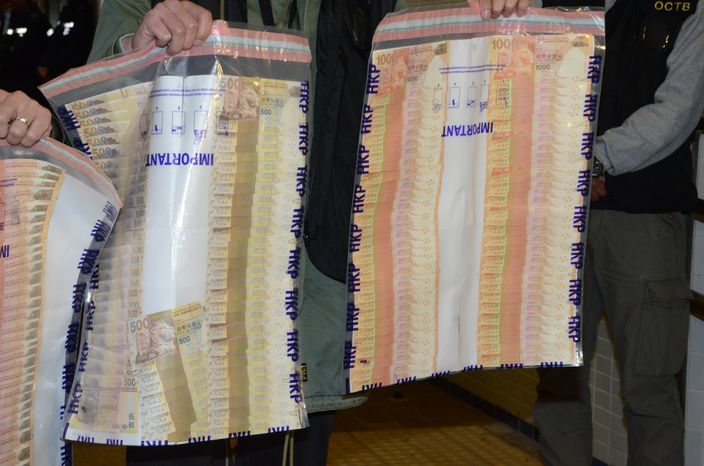
- If you have $530,000 in cash, would you
keep in a bank account or under your mattress? The only reason why it is
not in the bank is because you don't want it be known.
- Somebody suggested that the brand new
bills are used for lai see money during the Lunar New Year. There
is $530,000 in cash there. At $1,000 per red envelop, there are 530
envelops. How many people do you know hand out $1,000 each to 530 persons?
- (EJ
Insight) Police seized HK$530,000 (US$68,182) in cash, a small
amount of marijuana, a stun gun, a baton, a mask and dozens of Viagra
pills. Hong Kong Indigenous, which confirmed Wong�s arrest on its Facebook
page, said its lawyers are assisting in the investigation. It said the
cash seized by the police was donated by citizens and was part of a legal
defense fund.
- It sounded nice to say that not a
single resister will be left behind but the reality is that some of the
arrestees did not receive any legal aid from either Hong Kong Indigenous
or the Civic Party. And we know that it was not because Hong Kong
Indigenous did not have money -- they were sitting on at least $530,000.
- If the $530,000 was set aside for legal
defense, then why was it not placed at the lawyers' office? Why was it in
the possession of a fugitive? When the money is eventually needed, someone
will have to fetch it and thus expose the whereabouts of Ray Wong.
- After the Mong Kok riot, Hong Kong
Indigenous said that it would be taking in donations for the first time.
They now say that the $530,000 was raised as a result of that call. Take a
look at the photo of the $500 and $1,000 bills. They are spanking new. It
seems that the donations did not come through small donations from a large
number of citizens. Most of that money came from the proverbial bagman
carrying a large plastic red-white-blue canvas bag. Who was that? What was
the money really for?
- Ray Wong can also say that the $530,000
belongs to his friend. This other guy lives in a public housing unit for
which there is an upper asset limit of $236,000. So he'll have to hand the
apartment back to the Housing Authority.
- (Oriental
Daily) Ray Wong told the police that the $530,000 found in Tin
Shui Wai were for legal fees.
- No wonder the Civic Party barristers
support rioting -- they stand to make a lot in legal fees!
- (Ming
Pao) Hong Kong Indigenous spokesperson Wai Pik-kwun emphasized
strongly that the $530,000 found by the police in Tin Shui Wai was not the
donations that the organization recently raised for the Mong Kok clash.
"We understand that some people think that Ray took the money in order
to flee. But I can confidently tell everybody that the donations did not
end up in Ray's hands. They are being held by members who are under no
risk of arrest." Wai said that over the past 10 or more days, the
organization had not been able to contact Ray Wong who was out of reach.
As to whether the $530,000 belongs to the organization, Wai said that they
know exactly whether it came from but they cannot comment because this was
case evidence. "The money was not found on Wong's person, so people
shouldn't speculate too much."
On February 10, Hong Kong Indigenous
began to solicit donations to provide legal aid to those who were arrested
for the big clash in Mong Kok. So far they have raised more than $1
million. Wai said that they were receiving one to two hundred donations
per day, but now it has dropped down to dozens per day. "It was expected
that the reaction would cool down." She said that she understands that
some people are concerned about how the money is being spent and she
promised public disclosure.
As for the 28-year-old man named Cheung
who took Ray Wong in, Hong Kong Indigenous said that Cheung is not a
member and so they are considering whether to provide aid to him. "It also
depends on what he wants." According to information, Cheung and his mother
moved into that unit last summer. Recently the mother has been living in
mainland China and Cheung was by himself. Neighbors characterized Cheung
as "shifty" because if they step out of the elevator together, Cheung
would hid in the stairwell and wait for the neighbors to enter their
apartment before coming out to enter his own apartment. Neighbors said
that they have not seen Ray Wong, but they often see courier boxes left in
front of Cheung's door.
- (Oriental
Daily) During the action, the police found about 100 pills that were
suspected to be Part 1 Poisons. What is a Part 1 Poison? According to
Drug Office, "Poison" means a substance which is specified in the
Poisons List under Tenth Schedule of Pharmacy and Poisons Regulation (Cap.
138A). Confusing? Just look at the photo of what the police found:
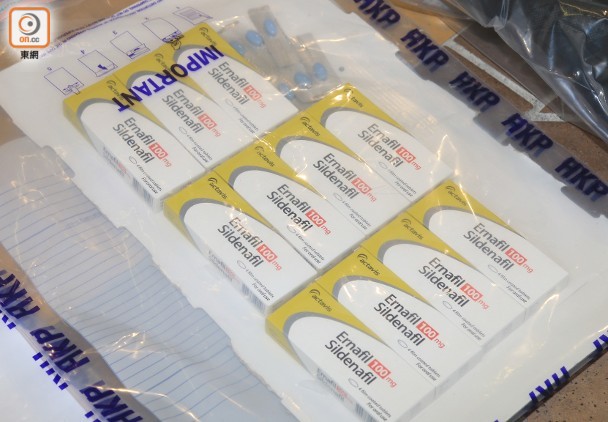
So what is this? (Wikipedia)
Sildenafil, sold as Viagra and other trade names, is a medication used to
treat erectile dysfunction.
- Oh ... no wonder Ray Wong feels valiant all the time.
- Cable TV also mentioned "a small amount of marijuana."
- (Ming
Pao) The police said that there was a coil gun. Internet users found
from Taobao that coil guns are available for as low as 22 RMB. This is a
device that uses electromagnetism to fire projectiles over a short distance.
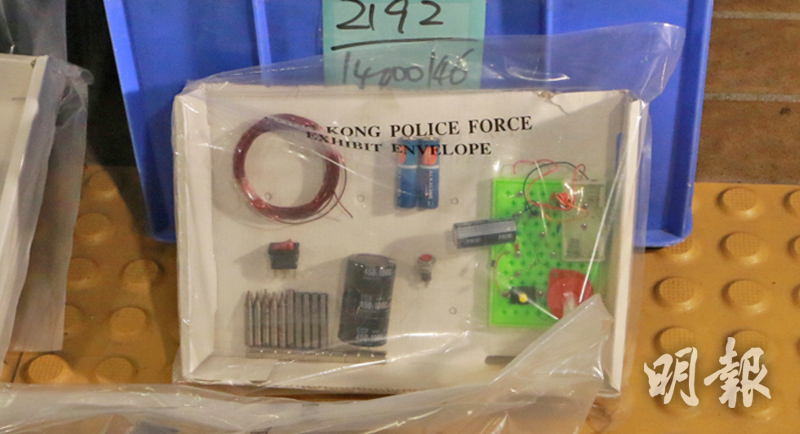
- (HKG
Pao) Weapons? drugs? cash? What was Mr. Wong up to? Here are four
questions:
(1) Mr. Wong will be 23 years old on September 23. How many 22-year-old's in
Hong Kong hold $530,000 cash with him?
(2) Mr. Wong had chemicals that could be used to inflict a lot of damages.
Is he concerned that this could affect innocent citizens? Or those scholars
who have been automatically justifying his actions so far?
(3) It is understandable that Mr. Wong needs weapons to run his revolution.
But what about the 100 Viagra pills and the marijuana?
(4) Why do the scholars such Edward Yiu, Cheung Tat-ming, Ma Ngok and the
Civic Party barristers let the children of other people take drugs, wreck
havoc and face ten years in jail for rioting but they won't let their own
children join in? Why don't you tell your children to join in, you
pseudo-intellectuals!
- (Oriental
Daily) At the bail hearing, the prosecutor said that they found a
recipe on how to manufacture smoke bombs and pepper spray.
- In the
K�bler-Ross model, the five emotional stages experienced by
survivors of an intimate's death are: denial, anger, bargaining, depression
and acceptance. So we are in the first stage of denial, where people believe
that there must have been a mistake and cling to a false preferable reality.
What explosive? What weapons? What drugs? The police must have planted all
these objects. After all, they control the scene and they can plant anything
that they want. We must not believe any of this.
- This is a case in which the Internet rule "Do not follow the preceding car
too closely or you'll get into an accident" applies. You know nothing beyond
the scratchy details from news report. So don't make any bold conclusions.
On the Internet, you can say anything. But once you lose credibility,
nothing you say will matter anymore.
- Ray Wong is being detained on suspicion
of involvement in the Mong Kok riot. What is the evidence against him? In
TVB News Magazine
http://mytv.tvb.com/tc/cat_news/newsmagazine/230649,
At 3:03 Ray Wong is shouting from the top
of the van about "I am a Hongkonger" and "down with the Communist Party";
Hong Kong Indigenous announced that they are exercising the right of an
election candidate to hold a rally and since they are less than 30 in
numbers, they don't need prior notification to or approval by the police.
At 3:31, Ray Wong used the megaphone to
shout: "If you want to play, we the people of Hong Kong ... we Hong Kong
Indigenous ... we will surely play even bigger."
At 3:47 (which was 1:45am), someone said
"Three, two, one" and the blue jackets charged into the police line.
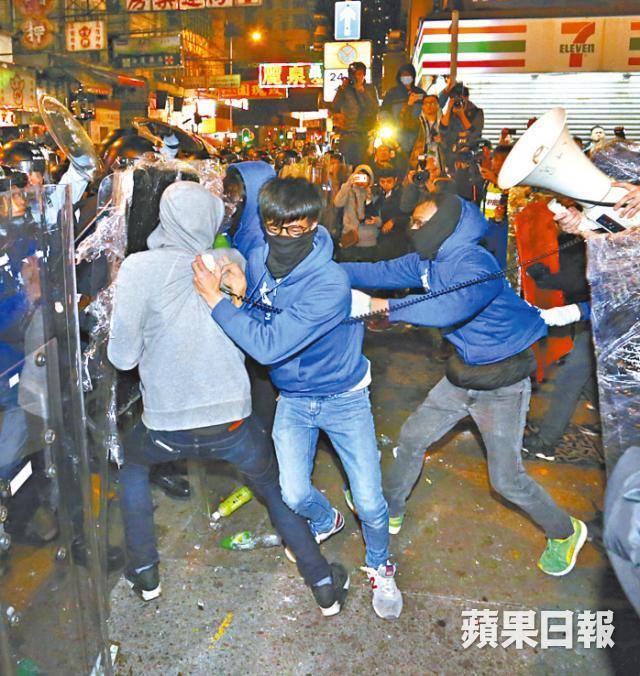
Ray Wong is in the middle of the scrum in this Apple Daily photo
- The arrest of Ray Wong has sapped the
energy from his buddy Edward Leung's election campaign. Instead the talk of
the town is about the many possible interpretations around these elements:
(1) $530,000 in cash; (2) 100 Viagra pills; (3) a boyfriend; (4) a flexible
police baton; (5) an electromagnetic coil gun. So what was Brother Minced
Meat doing with them?
- Not a single item seized during the
raid can be tied to the Mong Kok riot. Period. So shut the fuck up!
- (EJ
Insight) Ray Wong, convenor of localist group Hong Kong Indigenous,
was captured in a Tin Shui Wai hideout by officers from the Organized Crime
and Triad Bureau acting on numerous leads, Apple Daily reports. Wong, 22,
was found in an eighth-floor flat in Ching Hoi House, part of the Tin Chung
public housing estate, after officers broke in when no one answered the
door. A 28-year-old man, surnamed Cheung, was arrested for aiding and
abetting a suspect. Wong and Cheung put up a fight before they were subdued
and hauled to the Tin Shui Wai police station, the report said.
- This proves that Ray Wong was as
valiant as he says he is. He put up a good fight but was overwhelmed by
the cowardly police who attacked him in numbers.
- Ray Wong could have flushed the
ammonium nitrate and Viagra pills down the toilet and tossed the baton and
coil gun out of the window.
- If Ray Wong was truly valiant, he would
have jumped out of the eight-floor window without being captured alive.
- (Wen
Wei Po) February 24, 2016.
22-year-old unemployed male Ray Wong
appeared in court facing one charge of rioting. The prosecutor said that
he participated in rioting with other persons at around midnight on
February 8th. The prosecutor asked the defendant be remanded for further
legal advice. The prosecutor opposed bail because the riot chare carries a
maximum jail sentence of 10 years and Wong is a flight risk. He said that
the police tried to find Wong but were only able to find him recently
because Wong was avoiding them. The magistrate asked whether the police
had a search warrant. The prosecutor said that the police had a search
warrant but had to break down the apartment door because the persons
inside pretended that no one was home. Lai also said the police found
guides to manufacture smoke bombs, pepper spray and tear gas, which means
that Wong is using it to manufacture or teaching others. The prosecutor
said that more serious charges may be filed later.
Wong's lawyer Nigel Kat said that Ray
Wong was not wanted by the police. Although the police went to Wong's
residence in Tseung Kwan O on five occasions, they did not contact him or
his mother who also lives there. Therefore the prosecutor made a
misleading statement. He said that Wong is a public figure and the leader
of an organization dedicated to defending Hong Kong values. Wong will be
helping his friend Edward Leung to campaign in the New Territories East
Legislative Council by-election.
Nigel Kat said that some people out there
disapprove of the ideas of Wong and his organization and have made
personal attacks. Therefore Wong stayed at a friend's apartment out of
concern for his own personal safety. Kat said that 28-year-old man
arrested in Tin Shui Wai along with Wong is the treasurer for Hong Kong
Indigenous. Therefore it was no surprise to find so much cash. As for the
Viagra pills, these are popular medications in Hong Kong. Kat also said
that the materials found in the apartment do not belong to Wong. Kat said
that Wong has no prior record and therefore the chances of him breaking
the law again is minimal. Kat proposed posting a $100,000 bail. Wong's
mother and friends were also willing to post $100,000 as personal bonds.
The prosecutor said that Wong was
involved in inciting and directing the rioters to charge at the police
line. The magistrate considered the arguments from both sides, and allowed
Wong to post $100,000 bail together with his mother posting $100,000
personal bond.
- Nigel Kat's vigorous defense of his
client only raises more questions for me. Here is a list:
(1) Since when has Viagra become a common, popular medication in Hong Kong?
Is Viagra supposed to help Localist quest for Hong Kong independence such
that one must have 100 Viagra pills?
(2) A small organization Hong Kong Indigenous's treasurer holds $530,000
cash in his public housing apartment. Many Hongkongers will be very jealous.
Are all Localist organizations and their leaders just as wealthy? Why do
these organizations have so much money? Where does the money come from? Is
this Black Gold? Who is the funder? Did they pay taxes?
- (SCMP)
Riot reality: denouncing mob violence of Mong Kok doesn�t make me a
pro-China shoeshiner. By Michael Chugani. February 23, 2016.
Let�s talk about being
pro-China. To do that, Public Eye will switch to the first
person. I have often been labelled pro-establishment or
pro-China. The two are interchangeable in Hong Kong�s political
lexicon. But after the Mong Kok riot, the label is being hurled
at me as an expletive. In Hong Kong�s noxious politics, you are
a Beijing shoeshiner unless you shoeshine the so-called
democracy camp. I denounced the rioters as brick-hurling mobs
who started fires, smashed windows and bludgeoned a downed
policeman. I mocked legislator Cyd Ho Sau-lan for blaming the
Mong Kok mayhem entirely on bad governance.
How does denouncing
violence make me pro-China? Am I pro-establishment if I say it
sickened me that the rioters put bricks under fire engines to
stop firefighters from dousing flames that threatened residents?
Pan-democrats often cite
Mahatma Gandhi and Martin Luther King as idols. Both fought real
oppression, unlike our pampered democrats. Both shunned
violence. Would that make them shoeshiners if they were alive
today?
Am I pro-China if I point out
that Ray Wong Toi-yeung, convenor of the localist group Hong
Kong Indigenous, was in a flat with bomb-making chemicals,
weapons, drugs and over half a million dollars in cash when
police arrested him in connection with the riots? I have often
said I take no issue with Hong Kong Indigenous for opposing
parallel goods traders and the flood of mainlanders who have
made life hell for Hongkongers. I have said the central
authorities damaged one country, two systems by detaining
bookseller Lee Po and that he should be promptly freed. I have
said the central government is clueless about Hong Kong�s values
19 years after the handover. I have repeatedly criticised our
unfair society where a handful of tycoons dominate.
But that is not enough for the
so-called democrats. I am pro-China unless I agree that bad
governance is totally to blame for the riots. Those who label me
pro-China even mock me for having an American passport. What�s
that got to do with anything? I am a loyal American and will
gladly shine the shoes of my country�s great democracy but never
the shoes of the so-called democrats here.
Friends have urged me not to
stare down the dirty looks I now sometimes get on the MTR. But
that would be giving in to hypocrites who say they want true
democracy yet won�t let others have an opinion.
I don�t intend to give in. So
bring it on.
- (Oriental
Daily) February 24, 2016.
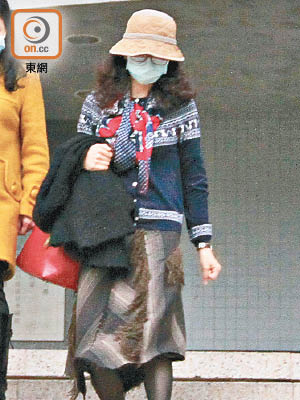
One of the bail conditions set by
the magistrate is to make Ray Wong's mother post a personal bond. She went up to
the witness stand to take the oath. The magistrate told her that she must follow
court procedure and show her face before she took the oath. She did so. The
defense lawyer explained that she wore a mask because she was ill and she did
not mean any offense. Afterwards she was asked if she would tell her son not to
touch politics. She said, "I will, I will" and then she left in a hurry.
- (Wen
Wei Po) February 24, 2016.
Hong Kong Peanuts host Cheung
Cheung said that most political parties in Hong Kong are either registered as a
social group with the police or as a limited company at the Companies Registry.
He said that he checked at the police website and did not find any social group
for Hong Kong Indigenous. He checked the Companies Registry and did not find
Hong Kong Indigenous either.
He checked to find Ray Wong as a
company director and found that Ray Wong and Edward Leung were directors of a
company named Channel i (HK) Limited. Thus, Cheung Cheung concluded that Hong
Kong Indigenous does not exist under the law. "Strictly speaking it is merely a
Facebook page."
Cheung Cheung said that since Hong
Kong Indigenous is not registered, it wouldn't be able to get a bank account.
"So where did the donations that Hong Kong Indigenous solicited go?" He said
that Ming Pao quoted Hong Kong Indigenous spokesperson Wai Pik-kwun as saying
that they have raised more than $1 million in support of the arrestees in the
Mong Kok riot. "Since Hong Kong Indigenous does not have a bank account, where
is that $1 million being kept?"
Cheung Cheung cited another report
which said that the Hong Kong Indigenous is denying that the $530,000 cash found
by the police when they arrested Ray Wong represent donations from citizens.
Also, Hong Kong Indigenous said that the person arrested along with Ray Wong is
not a member. However, Apple Daily and Ming Pao both quoted Ray Wong's lawyer
Nigel Kat as saying that the arrested man is Hong Kong Indigenous' treasurer and
"it is not unusual to find a lot of cash."
Cheung Cheung said: "Hong Kong
Indigenous does not have a bank account. So there is a big question about how
they handle donations. There is this further cloud over the $530,000 cash. This
shows that Hong Kong Indigenous' explanation about its finances does not meet
what the public expects from a political party ... Hong Kong Indigenous members
are mostly young people, but they are now handling millions in funds. This is
worrying. If the money is held in trust of some individual's bank account and it
gets misused, then this is a betrayal of the citizens. Worse yet, the money
could be used for an election campaign and that would be even more troubling.
Therefore, Hong Kong Indigenous must give a clear account."
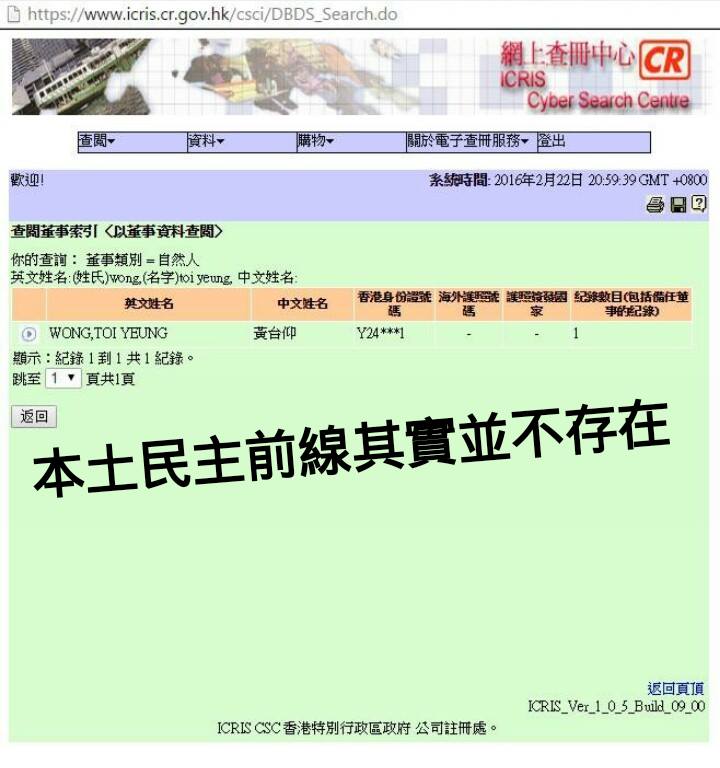
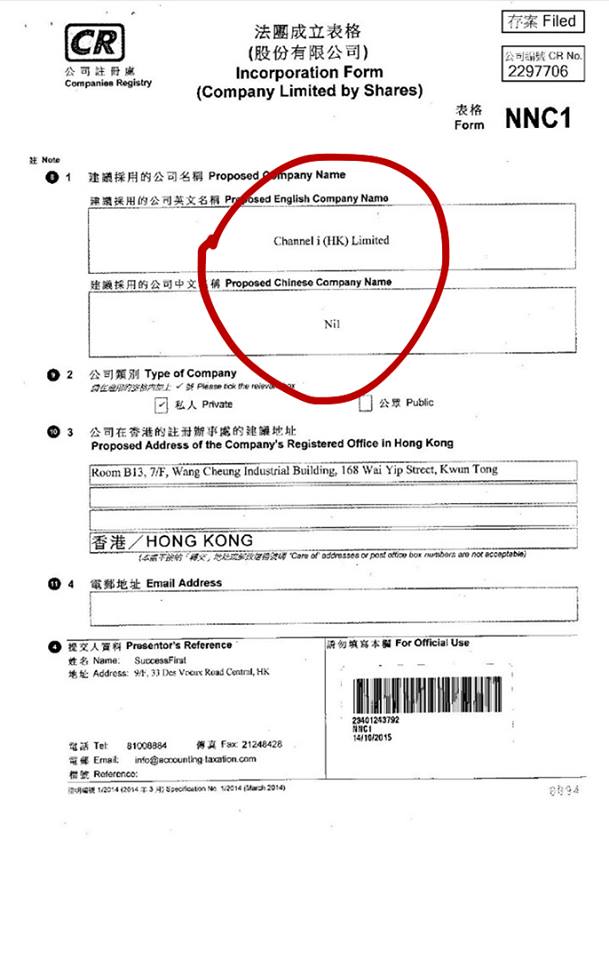
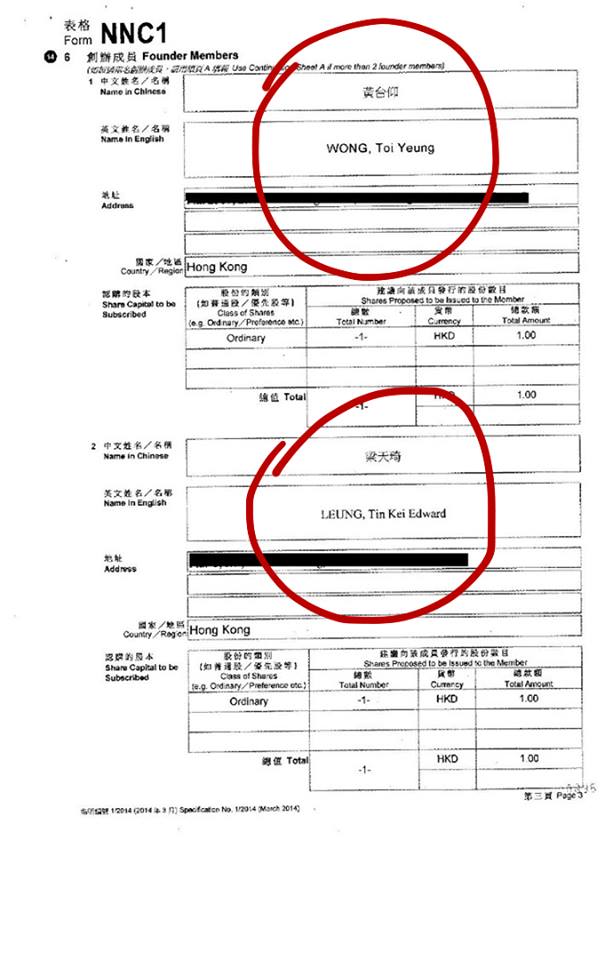
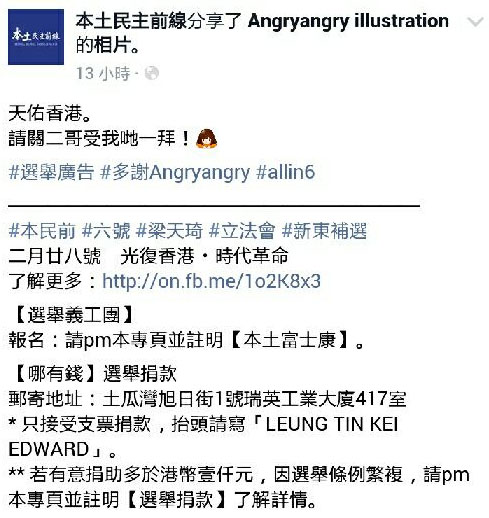
Hong Kong Indigenous Facebook says to write all
donation checks to "Leung Tin Kei Edward."
- By starting a riot in Mong Kok,
fifth-year university student Edward Leung is now a millionaire. This beats
studying philosophy for five years.
- Hong Kong Indigenous has a
Chinese-language Facebook page. But take a took at the locations of their Facebook friends:
(1) 63%: Hong Kong
(2) 5.8%: Egypt
(3) 3.8%: Algeria
(4) 3.7%: Syria
(5) 3.3%: Iraq
You didn't realize that so many Middle Easterners can read Chinese, did you?
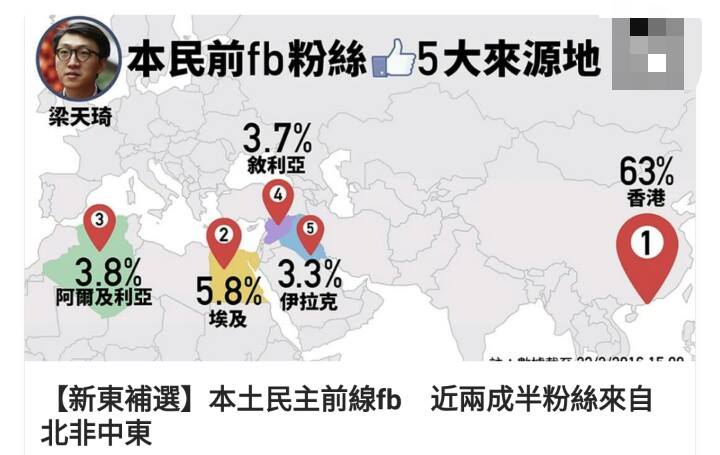
- After being criticized for
taking so much in donations but not actually helping arrestees, Hong Kong
Indigenous issued this public appeal about the most recent arrestee (Ming Pao
February 26, 2016 08:26 breaking news): "Does anyone know this arrestee? Please
sent the information via PM and we will arrange for lawyers to provide full
support."
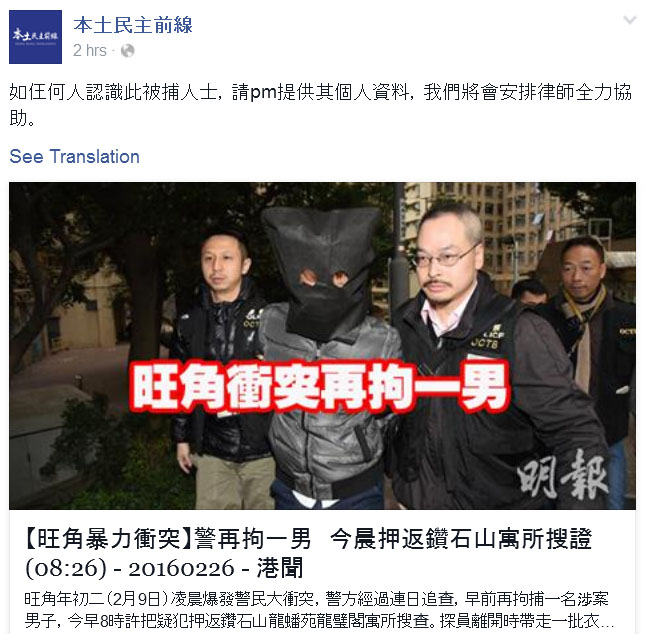
- Well, do you recognize this man? Is this man identifiable at all with the hood
over his head? Hong Kong Indigenous is asking precisely because the man is
unidentifiable. Do you get it?
- (Bastille
Post) March 9, 2016.
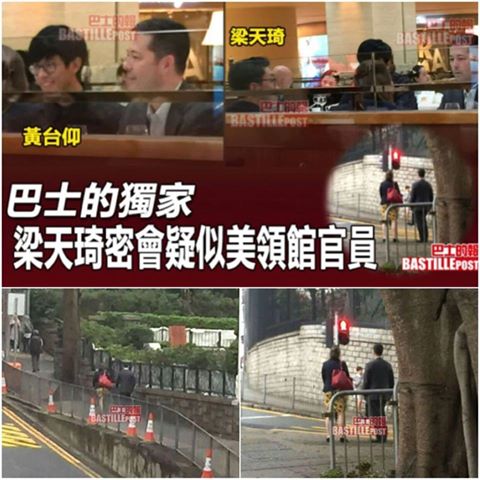
This afternoon our reporter found
Edward Leung and Ray Wong of Hong Kong Indigenous meeting for almost two hours
with two individuals who are believed to be with the US Consulate in Hong Kong.
At around 3pm inside the Cova
restaurant on the third floor of Pacific Place in Admiralty, five persons were
meeting including one foreign male and one foreign female. Some of the
conversation was conducted in putonghua.
Leung and Wong sat across each
other. The foreign man sat next to Wong. The foreign woman sat next to Leung.
The foreign man listened and also spoke. They talked for a long time, and left
around 430pm. Leung, Wong and another woman left first. The two foreigners
stayed to settle the bill. Afterwards our reporter trailed the two foreigners
who left Pacific Place and walked to the US Consulate on Garden Road. The two
were able to enter by showing identification. So they are likely to work at the
US Consulate.
Our reporter called Ray Wong to
ask if he met with US Consulate personnel and what they talked about. Wong said
that it was personal business and he does not have to explain it to the public.
Our reporter was unable to reach Edward Leung.
Internet comments:
- The language issue is
interesting. Trade school dropout Ray Wong speaks no English while HKU fifth-year
philosophy student Edward Leung's English is hilarious with his invention of new
terms (e.g. "walk in the street" means "demonstrate"/"go into the streets").
The Americans don't speak Cantonese. Thus, the fifth woman was likely to be an
interpreter brought along by Wong and Leung. However, they found it easier to
communicate in putonghua, because the Americans were probably trained in
putonghua at the Foreign Services Institute before being sent
off to China. But didn't Edward Leung say that his mother would always speak in
Cantonese and never in putonghua? And what is Ray Wong's story?
- (am730)
By Ko Ming-ya. March 11, 2016. Ray Wong told the press that the meeting was held
to discuss the concepts behind Localism and that they are willing to speak to
everybody except the Chinese. Actually, if Ray Wong and Edward Leung don't want
to be Chinese, it is their own business and nobody cares about what they do.
However, it is hilarious that they would always say that Cantonese is the
official language of Hong Kong Localism and they refuse to accept putonghua, and
now they use putonghua to communicate with the people from the US Consulate
General? This is one of those funny plot twists straight from Stephen Chow
movies.
The truth is that putonghua is used by most Chinese around the world as
well as many foreigners who deal with China. This is a trend that Localists Ray
Wong and Edward Leung cannot reverse. They can have their principles, but they
have to bow to reality and use putonghua. In the final analysis, the purpose is
to have communication so no language is naturally superior to any other.
Whatever works works.
Compared to the xenophobic Localism of Ray Wong and Edward Leung, the Americans
were flexible. They did not insist on speaking in English but they were willing
to use putonghua. What a contrast to the rigid Localist doctrinarians!
- Did the US Consulate give Ray
Wong the $530,000? Did the Viagra pills come from the dispensary inside the US
Consulate General compound?
- (HKG
Pao) The pro-government Bastille Post had an exclusive report on the
meeting between two Americans and Ray Wong/Edward Leung of Hong Kong Indigenous.
Ray Wong and Edward Leung are presently out on bail pending riot charges. So
they are of great interest to the Hong Kong media, which are famous for the
paparazzi. So how could the Americans be so dumb as to hold a meeting with
those two in
public?
My guess is that the Americans
wanted to give the pan-democrats a message: If you don't follow my orders, I
will use someone else even more radical to take your place. Earlier
the Americans were very unhappy about the stalling of the Copyright (Amendment)
Bill because American companies are the largest copyright holders with the
most at stake.
At the same time, they want to put
a damper on the Localists. By having afternoon tea with the Americans, Ray Wong
and Edward Leung are now branded traitors. This will help the pan-democrats in
the September Legislative Council elections.
The media arrangements were also
fanciful. They found a pro-government media outlet to deliver an exclusive
story. That is very convincing. The reporters were clearly tipped beforehand, because they
came with the entire array of photographic equipment. This could not have been a
chance encounter. After the meeting, the Americans walked to the US Consulate to
make sure that they can be trailed, and then they showed their passes at the
gate to enter the compound!
It is pathetic that the two young
men thought that they were being taken seriously when in fact they were
unwitting actors in a staged play.
- (EJ
Insight) March 10, 2016.
Two
key members of Hong Kong Indigenous were spotted meeting with two
westerners thought to be staff from the US Consulate General, Sing Tao
Daily reported Thursday, citing online newspaper Bastille Post.
Bastille Post and Sing Tao Daily are
owned by Sing Tao News Corp. Ltd., chaired by Beijing-friendly businessman
Charles Ho Tsu-kwok.
One of the HKI members was Ray Wong
Toi-yeung, convener of the localist group, who was arrested Feb. 21 on a
charge of inciting violence during the Mong Kok clashes on the night of
Feb 8. He was granted bail with conditions on Feb. 23.
The other was Edward Leung Tin-kei, a
University of Hong Kong student who was among those arrested for taking
part in the clashes. While out on bail, he came in third in the
Legislative Council by-election for the New Territories East geographical
constituency on Feb. 28.
The two men, along with an unidentified
young woman, were seen talking with two westerners, a man and a woman, in
a Pacific Place restaurant for nearly two hours Wednesday.
The three locals left first, and the
foreigners paid the bill.
Bastille Post reported that the language
used in the meeting was Putonghua.
A spokeswoman for HKI denied she was
present at the afternoon tea gathering.
Wong later confirmed to an Apple Daily
reporter that the meeting on Wednesday was with staff from the US
Consulate General. He said they wanted to know more
about localism, but they
didn�t talk about the by-election during the meeting, Wong said. Wong said it was normal for the localists
to meet with people from various fields, �except from China�, Apple Daily
reported.
Officers of the US Consulate General have allegedly been keeping close
contact with local political groups in Hong Kong and providing suggestions
to them, Sing Tao said. Early last year, with regard to the
government�s political reform package, they advised pan-democratic
lawmakers to �take it first�, the newspaper said.
- (VOA
China) March 24, 2016. Ray Wong is interviewed by VOA China ... in accented
putonghua! This is because the national language of the Republic of Hong
Kong is Cantonese and it is not spoken around the world except by people in Hong
Kong, Macau, Guangdong and Guanxi provinces. To communicate with the rest of the
world, Ray Wong could not use English because he speaks English even worse than
he speaks putonghua. So we are now left with Ray Wong speaking in the
tongue of the Enemy.
- (HKG
Pao) March 26, 2016. When asked by VOA about the Mong Kok riot, Ray Wong
said that the previous resistance methods of the pan-democrats have proven to be
ineffective, so it is "necessary" to use more radical methods of expression. "In
the past, the Hong Kong pan-democrats used peace, reason and non-violence. We
see that this method of resistance is useless against a government with no 'bottomline'.
We feel that if we continue to do this, we will be locking up the power of the
people." Ray Wong also said that "valiantly fight with force" is not violence;
it is "a spirit to fight to the end" in order to show the government about the
power of the people. "In the Lunar New Year's Day riot, in many videos you can
see the demonstrators holding bricks in one hand and purchasing drinks from the
convenience stores. If our demonstrators are truly violent, they would be
robbing and stealing."
- Spoof of Apple Daily front page
-- they would do this if only Hong Kong Indigenous were a pro-establishment
political party meeting with a chauffeur from the China Liaison Office.
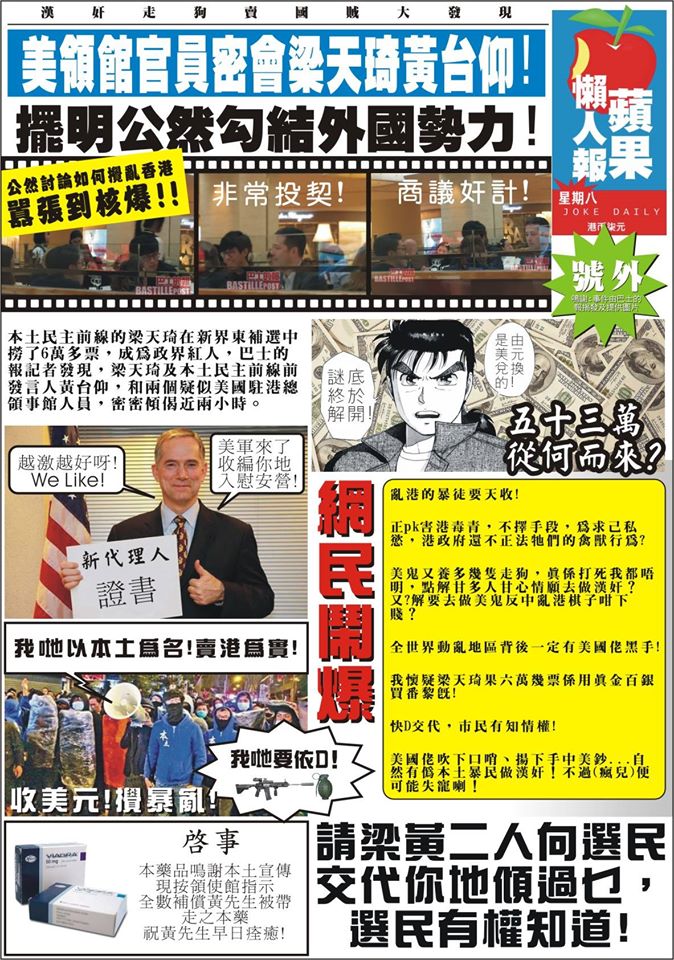
- Wan Chin's Facebook: Hong
Kong students should not despair! It is essential to learn English well. The American soldiers will be coming soon and
they need you to show the way! "This way, Sir!"
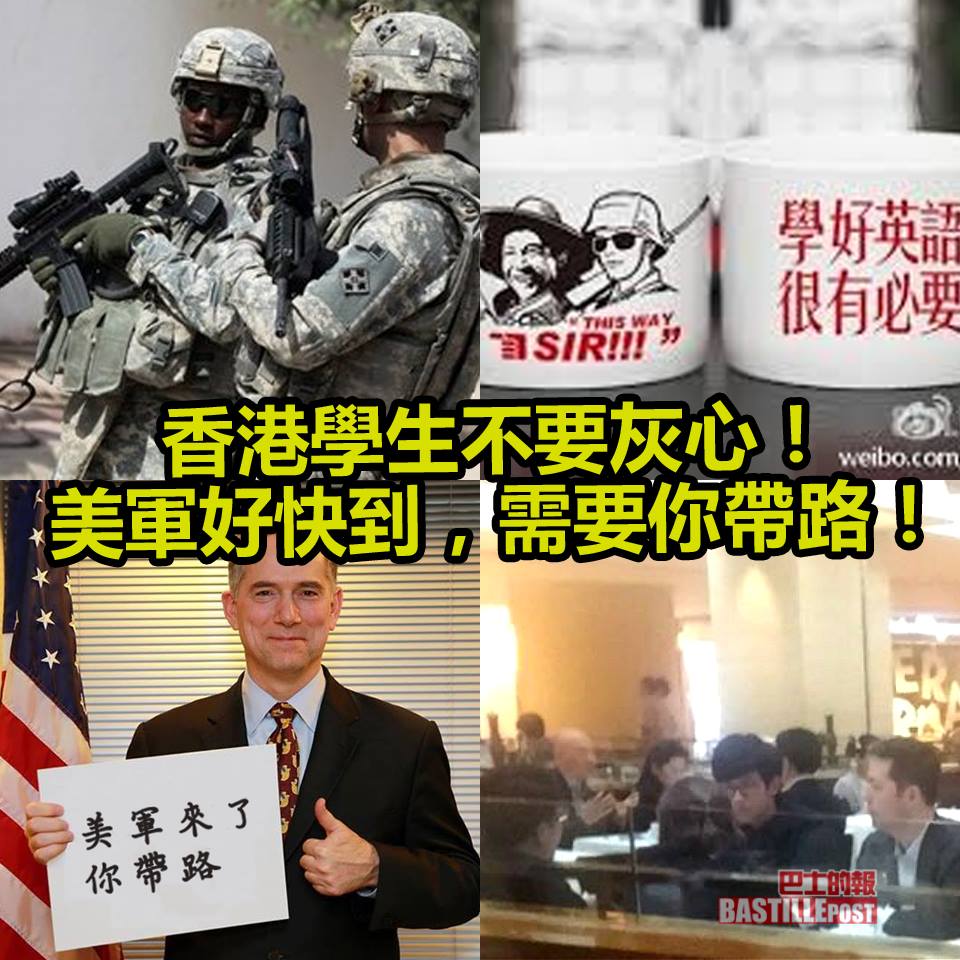
- (Oriental
Daily with video) March 22, 2016.
Ray Wong was met by about 50
demonstrators when he came for a court hearing today. The demonstrators wanted
to punish the rioters severely and restore rule-of-law. Wong was escorted into
the building by police officers. His lawyer told the magistrate that Wong wants
to attend the Eleventh InterFaith InterEthnic Conference in India from April 26
to May 5. The prosecutor said that he was neutral . The magistrate approved the
application with the promise that Wong will turn in his passport to the police
within 24 hours of returning to Hong Kong. Afterwards Wong said that he is going
there to talk about ethnic issues and Hong Kong matters.
- (Wen
Wei Po) The title of this conference is "Strengthening Our Alliance to
Advance the People's Dream: Freedom, Justice, Equality and Peace." Previous
attendees include World Uyghur Congress president Ribaya Kadeer and spokespman
Dilshat Reshit and Falun Gong reprsentatives.
Ray Wong says that he was invited
by the Dalai Lama last mnoth to attend the conference at the Dalai Lama's
residence in Dharsamsala, India. Does he look forward to meeting with the Dalai
Lama? Wong said "that the main reason was not to meet with the Dalai Lama but to
meet some genuine separatists."
The conference is organized by
Initiatives of China, which was founded by
Yang
Jianli in 2008. The principal funding comes from the National Endowment
for Democracy, which is a branch of the Central Intelligence Agency (CIA).
Between 2008 and 2001, Initiatives of China received about US$50,000 to
US$70,000 per year from the NED. Since 2010, they have been receiving about
US$60,000 per year from the Bridge Fund and other sources.
- Ray Wong tells the media that he
believes in Tibetan Buddhism.
- An essential part of Tibetan
Buddhism must be about throwing bricks at people?
- (Oriental
Daily) April 24, 2016.
Ray Wong found that his
application for e-Tourist visa to India was rejected without any explanation.
Meanwhile Edward Leung got his e-Tourist visa. However, the message
indicated that Wong is still eligible for a Regular Visa. So Wong has decided to
find an agent to file an Urgent Visa application.
- (Oriental
Daily) April 29, 2016.
The agent has informed Ray Wong
that the application for an Urgent Visa has also been rejected. Wong went down
to the Indian consulate to try to get a visa, but was told that it will take at
least 3 to 5 days. So Wong will not be able to make the trip. Meanwhile former
Hong Kong Federation of Students secretary-general Alex Chow was also unable to
get a visa to attend the same event.
- (Wen
Wei Po) August 6, 2016.
Yesterday Hong Kong Indigenous
spokesperson Ray Wong said that he has been accepted by Oxford University to
enroll two-year degree course in Philosophy beginning in October. He told the
media that he will get an Undergraduate Certificate of Higher Education.
For his supporters, this is proof
that they are not young wastrels.
According to the
University of Oxford
Department for Continuing Education, the
Undergraduate Certificate of Higher Education courses can be taken as
weekly classes, short online courses, linked day schools, or classes offered in
Oxford University Summer School for Adults (OUSSA). The Certificate is
equivalent to the first year of full-time undergraduate study (FHEQ Level 4).
Oxford University�s Department for Continuing Education does not offer
undergraduate degrees, but students who obtain the Certificate may, if they
wish, apply to transfer the credit from the Certificate to another academic
institution, such as the Open University, which does offer degrees. The
transfer-in of credit is always at the receiving institution's discretion.
This course requires no formal
academic qualifications. Successful applicants will be those able to demonstrate
genuine interest in and enthusiasm for the subjects that they propose to study.
They will need to have the time and commitment needed to work for a University
qualification. Candidates will need to meet the University`s standard English
Language requirement for undergraduate entry, details of which can be found
here.
The programme does not have any
formal academic acquirements. All students applying for registration will be
given an interview, via Skype. The interviewer will be looking for evidence of
genuine interest in the subjects selected as the main and the secondary subject
areas; understanding of the commitment that will be needed to pursue study on a
part-time basis; and the availability of sufficient time to devote to the
course.
International students will by HKD
17,000 in tuition fees per year. At FHEQ Level 4, this is not a degree as such
because it is just Year One Undergraduate. At FHEQ Level 5, this is a Diploma of
Higher Degree which is like an Associate Degree in Hong Kong. At FHEQ Level 6,
this is a Bacherlor's degree. At FHEQ Level 7, this is a Master's degree. At
FHEQ Level 8, this is a Doctorate.
- Ray Wong is taking continuing
education at Oxford University for one and only one reason. If and when he is
convicted of incitement of and participation in rioting, this will be a
mitigating factor -- a nice young man with no prior records and a desire to
educate himself should be given a second chance, and therefore justice will be
done with 80 hours of community service.
- Besides, Ray Wong is telling
everyone that Oxford University accepted him, but not before asking him whether
he has ever been convicted of a crime. If and when is convicted for the Mong Kok
rioting, he may be facing 7 to 10 years in jail and therefore miss out on his
Oxford education. Surely no judge can deprive him of that excellent opportunity, right?
- (Taipei
Times) July 2, 2017.
Two decades after Hong Kong�s handover
to China, Hong Kongers have come to realize that despite sharing the
same roots, Hong Kongers �are not Chinese,� said Ray Wong (黃台仰), a
spokesperson for the pro-independence group Hong Kong Indigenous.
Wong made the remarks in an interview
with the Liberty Times (sister newspaper of the Taipei Times).
There is �no other way� to safeguard
Hong Kong values than to become independent, he said.
The erosion of the values Hong Kong
holds dear by the spread of �Chinese-centric� ideals via the education
system and the gradual loss of the ability to speak Cantonese is proof
that the �one country, two systems� model has failed, he said.
The localism camp that came to the
fore after 2014�s Umbrella movement emphasizes nationalistic ideals
and stresses that Hong Kong is different from China, because they
differ historically and culturally and have fundamentally different
aspirations.
In a poll published last year by the
Chinese University of Hong Kong, 17.4 percent of Hong Kongers said the
territory should declare independence in 2047 following the
termination of �one country, two systems.�
In the 15-to-24 age group, 39.2
percent supported independence.
The number of independence supporters
exceeds academics� expectations, especially among young people who
have received higher education, Wong said, adding that various polls
have shown that Hong Kongers have declining faith in �one country, two
systems.�
A poll conducted in 1997 � the year
of the handover � by Hong Kong University showed that 63.6 percent of
Hong Kongers were confident in the proposed �one country, two systems�
method, while 18.1 percent were not, he said.
However, a poll last month showed
that the number of supporters has dropped to 49.1 percent, while the
rate of disillusionment grew to 43.2 percent, he added.
Wong, born in Hong Kong in 1993, is
an icon in the localism camp.
He said the Hong Kong in which he
grew up, compared with Hong Kong before it was returned to China, made
him feel �greatly different from Chinese.�
Many see the localism camp as
�radical pro-democrats,� but Wong said that the two camps differ in
protest methods and identity.
The pro-democracy camp had witnessed
Hong Kong under both British colonial rule and the Chinese economy�s
take-off, and therefore harbors �romantic illusions� of China, he
said.
The pro-democracy camp believes that
the territory should be responsible for spreading democracy throughout
China, which is vastly different from the localism camp�s ideology
that China and Hong Kong are fundamentally different.
Wong during the interview repeatedly
mentioned how there is a tide of Chinese moving into Hong Kong who
have not only brought great change, but also �do not learn Cantonese
or follow our customs.�
Hong Kongers have no say about the
150 Chinese who come to live in Hong Kong every day, making living
space even more cramped, Wong said, adding that the surge in Chinese
investment after the handover has caused housing prices to skyrocket,
further limiting the places young people can live.
�We do not seek to drive out all
Chinese, we just do not wish to be under an excessive amount of
Chinese control,� he said.
Politically, Hong Kongers are under
the constraint of �one country, two systems� and cannot hold true
general elections. Economically, it has entered a stage of decline,
which makes it even more dependent on a rising China. Socially, China
is �diluting� Hong Kong culture with its immigrants.
Just 20 years after its return, Hong
Kong is slowly being turned toward communism, he said.
Localists� choice to promote
independence through protest is essentially a forced decision, for as
long as Hong Kong is still under the influence of the Chinese Communist
Party, �the conclusion that Hong Kong must be independent will not
change,� Wong said.
He stressed the importance of
education, adding that the reason young Taiwanese are so enthusiastic
about politics and for the nation�s prevalence of civic activities is
because education conveys a civic society�s values.
Wong said he hopes he can induce the
thought of rebellion and protest in the minds of young Hong Kongers
through education.
While Hong Kongers themselves are
pessimistic about the localist movement, Wong was optimistic, saying
that despite only existing for a few years, the movement has already
garnered support from 17 percent of Hong Kongers.
�For us, it is growing fast,� he said.
For young people who are unable to
leave, the solution is to find ways to make Hong Kong better, Wong said,
adding that Hong Kongers must become more active and attack the Chinese
Communist Party with claims of independence, thus hastening its collapse
and dissolution.
- (Wen
Wei Po) December 1, 2017.
Yesterday, our newspaper published
an exclusive story about Ray Wong jumping bail and absconding. According to
informed persons at Hong Kong Indigenous, our story began to circulate within
the group early in the morning. Many Hong Kong Indigenous were caught surprised.
Some of them felt directionless. Even our source looked bewildered when he spoke
about this development.
But very quickly, the leaders of
Hong Kong Indigenous and other pro-Hong Kong independence groups issued "gag
orders" to all their members to refrain from openly discussing this matter, so
as not to reveal sensitive information or to offer evidence of unlawful
behavior.
So far none of the Facebook of the
leaders of these groups have a single mention of Ray Wong. They are acting as if
nothing has happened.
Meanwhile our story was being read
tens of thousands of times with thousands of comments to pillory Ray Wong. At
the same time, people are wondering whether the other Hong Kong Indigenous
leader Edward Leung has done the same since he has not been heard from recently.
- By jumping bail, Ray Wong has
stiffed his mother for her $100,000 cash surety. Not to fear, because the people
of Hong Kong will organize a crowdfunding campaign to raise $100,000 for her and
then much more for Ray Wong so that he can continue the fight for Hong Kong
independence! Long live the revolution!
- (Wen
Wei Po) December 10, 2017.
24-year-old Li Tung-sing is a
student at Open University. He attended the Shung Tak Catholic English School in
Yuen Long district and therefore got to know fellow secondary school student
Edward Leung. Li is a founding member of Hong Kong Indigenous, and it was Li who
invited Edward Leung to join the party.
On July 28, 2016, Li
"strategically" resigned from Hong Kong Indigenous in order to run on the same
ticket as Leung Chung-hang (Youngspiration) in the New Territories East
Legislative Council elections. After the election, he "rejoined" Hong Kong
Indigenous. At the time, Hong Kong Indigenous spokesperson Ray Wong identified
Li as the third-ranking member of their party.
(Bastille
Post) December 10, 2017.
In September this year, Ray Wong
and Li Tung-sing traveled together to London to attend commemorative activities
for the third anniversary of the Umbrella Movement. The two had photos takes
outside Westminster Parliament with yellow umbrellas in hand.
Ray Wong's bail condition is such
that he must obtain court approval in order to travel outside of Hong Kong. He
was approved to travel to Germany and Belgium during November 4-20. He was
supposed to report to the Tai Po Police Station within 24 hours of returning to
Hong Kong. But he was a no-show.
Li Tung-sing's bail condition does
not involve any travel ban and he does not have to report regularly to the
police. So the court only found out that he had absconded when he failed to show
up for the pre-trial hearing.
Li Tung-sing had been an aide for
disqualified legislator-elect Leung Chung-hang.
(Bastille
Post) February 17, 2016.
At the Legislative Council Panel
on Security meeting today, Secretary for Security Lai Tung-kwok said that the
Mong Kok riot involved as many as 700 rioters who fought the police on fourteen
streets and dug up 2,000 bricks to throw a rain forest of bricks at the police.
The pro-establishment legislators introduced a motion to condemn the lawlessness
of the rioters and to support the police to enforce the law with more manpower
and equipment. It is no surprise that 16 pro-establishment legislators would
vote in favor of this motion. More surprising is the fact that 9 pan-democratic
legislators voted against the motion while Democratic Party legislator James To
abstained.
By voting this way, the
pan-democrats have clearly indicated that they are on the side of the rioters.
The main consideration is the upcoming by-election, because Civic Party's Alvin
Yeung is being dogged by the suspected rioter Edward Leung. Therefore, Alvin
Yeung has to fight for the votes by coming out in support of the rioters. On the
night of the riot, he immediately rushed out to provide legal aid to the
arrestees. The Civic Party supports him fully, so they obviously will not vote
in favor of any motion that deplores the rioters. What would the moderate Civic
Party supporters do now, when the Civic Party has made the full transition from
a moderate middle-class political party into a radical party?
Internet comments:
- Why did James To abstain?
Because he positions himself as the pan-democratic expert on security matters
and an abstention would destroy his credibility.
- (YZZK)
By 2am on February 8, Hong Kong Indigenous spokesperson Edward Leung who is
running in the Legislative Council New Territories East by-election suddenly
announced that he was exercising his election right to hold a campaign rally. At
2am,' shouting "One, Two, Three" a group of masked men wearing the blue Hong
Kong Indigenous jackets charged at the police line.

Center stage: Ray Wong (Hong Kong Indigenous) holding the megaphone and leading
the charge at the police line.
The whole thing about Fishball
Revolution was baloney. The Mong Kok riot was simply a promotional event for
Edward Leung's campaign. So if you support the Mong Kok riot, you should vote
for Edward Leung; otherwise you should vote for anyone else or not vote at all.

(EJ
Insight) Why Edward Leung�s candidacy makes LegCo bypoll more
interesting February 17, 2016.
The pro-Beijing camp is stepping up its
propaganda battle to paint opposition groups in a negative light following
the violent clashes between protesters and police in Mong Kok last week. The
immediate goal is to nullify any chance of success that democratic
candidates may have in a Legislative Council by-election later this month.
The establishment camp is also hoping to capitalize on a potential split in
the opposition vote as a �localist� has joined the fray in the by-election,
throwing a challenge to the moderate democrats.
With less than two weeks to go for
the by-election for the New Territories East geographical constituency,
democrat supporters find themselves in a bind as to who they should back � Alvin
Yeung of the Civic Party, or Edward Leung of the radical group Hong Kong
Indigenous (HKI).
The contest has become interesting as there
have been calls from some youth that it may be better to support the HKI
candidate and try to send him to the LegCo, rather than the nominee of
the traditional democracy camp.
Those
backing Leung argue that he will bring a fresh approach to taking on the
government and opposing controversial policies, rather than rely on the
usual � and often ineffective � tactics of the democrats. However, a
decision to support HKI is not easy as the group has been accused of being a
key player in the Feb. 8 clashes in Mong Kok. Moreover, Leung was among
those who were arrested and are facing possible prosecution.
Prior
to the Mong Kok clashes, the by-election was seen as a strong fight between
Yeung and Holden Chow of the Democratic Alliance for the Betterment and
Progress of Hong Kong (DAB), a pro-Beijing group.
But after last week�s incidents, a survey has
shown that Chow�s approval rate has surpassed that of Yeung, putting the
former in a winning position.
Yeung, a barrister by profession, has seen
his support fall as he has offered legal support to some of the protesters
involved in last week�s clashes, which authorities have labeled as a �riot�.
While Yeung has insisted that he is merely doing his professional duty, the
pro-Beijing camp has sought to portray his actions as implicit encouragement
of the use of violence during protests.
As Yeung is being attacked in a propaganda
war, several young online commentators have started urging democrat
supporters to throw their weight behind HKI�s Leung. The young candidate can
help initiate change in the dull political landscape in Hong Kong, even
though he will be holding the seat only for about four months, the
supporters say.
Hong Kong will hold its regular Legislative
Council elections later this year.
The New
Territories East by-election will be held on Feb. 28, as the seat became
vacant following the resignation last year of Ronny Tong who quit the Civic
Party.
While Leung faces a tough contest, his
chances have improved as the entire localist camp is now throwing its weight
behind him.
The
HKI candidate has also won support from some online opinion leaders,
including Roy Tsui, the founder of the popular satirical publication
100Most. Tsui said that
while he isn�t a voter in the upcoming by-election, he and his family fully
support Leung. He
said he wants new faces in the LegCo �to buy a hope for change�.
Online blogger Wong Sai-chak is another
person who has expressed support for Leung. Citing Taiwan politician Ju
Gau-Jeng as an example, Wong said he expects Leung to be brave enough to
challenge other lawmakers in the Legco and help overcome the tyranny of the
pro-Beijing camp.
Some online commentators also urged
qualified voters to cast their votes to Leung to show that Hong Kong people
will stand firm in the face of a propaganda machine, and that they will not
be brainwashed by pro-Beijing media.
As two
democrats will share the same voting pool, the situation will no doubt
benefit DAB�s Chow and possibly help him win the election under the simple
majority mechanism.
Given
the electoral system, democrat supporters will have to think and strategize
carefully to make their votes count if they want to send an opposition
candidate to the LegCo.
Based on the 2012 election results,
democrats secured 255,546 votes with 55 percent share of votes in the New
Territories East constituency, while the pro-Beijing camp secured only
166,578 or 36 percent share of votes. That could be an easy win for a
democrat candidate under one-on-one election.
But as Leung and Yeung are fighting for the
same pool of votes, they will dilute each other�s support. Even if Leung
wins the radical democrat votes of around 110,000 and Yeung takes the votes
of around 140,000 from traditional democrats, they may still lag behind
Chow�s pro-Beijing camp votes that could add up to 170,000. That�s the
reason why voting for Leung may actually help send Chow to the LegCo.
Also running in the by-election are Third
Side�s Nelson Wong, and independents Christine Fong, Albert Leung and Lau
Chi-shing.
Of course, it may not be appropriate to
predict the upcoming election results based on the actual turnouts four
years ago, given that there have been massive changes in the political
landscape in the recent past. The
2014 Occupy campaign and concerns over Beijing�s tightening grip over Hong
Kong may lead to some shift in voting patterns, while the latest Mong
Kok clashes could also affect the election results.
On
Wednesday, Leung accused the Registration and Electoral Office of censoring
his election leaflets, after it refused to post them to voters citing some
objectionable words. Leung said
he was told by the office on Monday that certain words and phrases he used,
such as �self-determination� and �Hong Kong has a different history from
China�, violate Article One of the Basic Law. It is just another example of
the obstacles he will have to overcome in his bid for a political career.
The HKI candidate may have the support of
youth who prefer a tougher stance toward authorities, but he will need the
backing of democrats from across the spectrum � radicals as well as
moderates � if he is to score a win. That looks difficult but Leung is still
unwilling to accept defeat.
Given the current political climate, one
wonders if the traditional democrats should have perhaps given way to Leung
and done a big experiment ahead of the LegCo polls in September.

(EJ
Insight) Why Alvin Yeung faces a tough battle in the Legco by-election.
February 19, 2016.
As the
by-election for a Legislative Council seat draws near, the pro-democracy
camp finds itself torn between two candidates, one representing the moderate
faction and the other the more radical side.
The dire scenario that is being presented
by the traditional democrats is that the rivalry within the camp could make
it easier for the pro-establishment forces to win the contest, and this would
have far-reaching consequences as far as the democratic struggle is
concerned.
For
one, they said, it could facilitate the pro-Beijing camp�s long-standing
desire to launch a bill revising the legislature�s rules and
procedures. This would, in turn, substantially reduce the power of the
pan-democrats to oppose the government�s legislative proposals and funding
requests, and deprive them of their favorite method of blocking bills, which
is through filibusters.
And so
the democrats are now focusing on how to prevent the pro-Beijing camp from
grabbing the seat, rather than convincing the public to vote for their
candidates.
The
New Territories East geographical constituency has always been a democracy
bulwark. But many of the voters in the constituency feel that their years of
support for the pan-democrats have not resulted in any real gains in the
democratic struggle. This growing sense of disillusionment is particularly
keen among the youngsters who were on the frontlines of the Occupy protests
in 2014 as well as the localists campaigns last year. Many of these
youngsters are now voting for the first time.
Against this backdrop, Alvin Yeung of the Civic Party is facing a tough
fight against other candidates in the election, especially after the recent
clashes between the localists and the police in Mong Kok.
The raging debate in the democratic camp is
whether to support Yeung, who is seen as representing the traditional
democrats, or Edward Leung of the
radical localist group, Hong Kong Indigenous. Leung, who is facing
charges for his alleged participation in the Mong Kok clashes, is urging
voters to support him to bring changes to the dull political situation in
Hong Kong. On the other hand, Yeung, who is supported
by all leading democrats, is urging voters to choose him to prevent the
pro-Beijing camp from winning the seat.
Yeung�s election pitch has drawn the ire of many voters in the constituency,
particularly those identified with the radical camp, who stress that the
essence of democracy is to choose the one who best represents their
interests rather than to choose one candidate to prevent another from
winning.
Roy
Tsui, founder of the satirical magazine 100Most, poked fun at Civic Party,
which he said is �urging the voters to vote for traditional democrats for
macro reasons�. To gain the sympathy of the New Territories East voters,
Yeung should first sincerely apologize to them for his former colleague
Ronny Tong�s resignation, which triggered the by-election. This is important
to assure the voters of his commitment to the democratic fight, that he
won�t follow in Tong�s footsteps and side with the administration camp.
Yeung,
in fact, is highly qualified to become a legislator, and his being a
barrister should help him win the support of a wide range of voters.
However, his main rival, Holden Chow of the pro-Beijing Democratic Alliance
for the Betterment and Progress of Hong Kong, is also a lawyer, thereby
eliminating any advantage that Yeung may have as a result of his
professional background. The Civic Party has also failed to raise the
voters� awareness of Yeung�s credentials as a candidate.
In the
meantime, Leung�s reputation among the young voters has sharply increased as
a result of his arrest in connection with the Mong Kok clashes. First-time
voters know him and what his election platform is.
Commenting on the rivalry between Leung and Yeung, Audrey Yu, chairwoman of
the Civic Party, said voters should pay attention to the qualities of the
candidates. She said Yeung is energetic, well-spoken and has been
serving the New Territories East constituency for years, adding that other
candidates like Leung and Chow cannot
compare with his caliber.
If Yeung is such an outstanding candidate,
the democratic camp should proactively promote Yeung as a courageous lawyer
who assisted the young activists arrested during the Occupy campaign.
Promoting Yeung as an outspoken lawyer and fighter for justice should help
win support from voters in a district dominated by democrats.
But will such a strategy work? Why
should the democratic camp bask on its glorious past instead of trying to
understand the youth�s current sentiment?
Many
of today�s youngsters believe that the traditional democrats have become too
moderate and complacent in the struggle to break the political deadlock.
Many of the young activists who joined the Occupy campaign and other
protests feel that the traditional democrats have failed to adopt to the new
generation. That�s why many of these youngsters feel more affinity
with radical democrats like Leung, who are not afraid to use more forceful
means to advance the democratic struggle. For them, it is quite
strange that traditional democrats are playing up the impact of Chow�s
victory by raising the possibility of changes to Legco�s rules and
procedures.
The
general public don�t want to waste their time discussing such difficult and
boring issues. From their point of view, if the democrats really care about
retaining the Legco seat, why didn�t they just convince their comrade Ronny
Tong to stay on until July? Or why did the Civic Party not nominate Audrey
Yu herself to keep the seat?
For them, the risk of a pro-Beijing
candidate�s victory is simply a bogeyman being raised by the traditional
democrats to scare them into voting the Civic Party candidate.
If they are so afraid of any possible
changes to the Legco rules and procedures, why don�t the pan-democratic
lawmakers actively block such a bill to safeguard their right to speak in
the chamber? Instead of scaring voters with dire scenarios, traditional
democrats should respect the intelligence of the voters to choose the right
candidate who can represent their interests. The only consideration is the
candidate�s commitment to the voters, and not the interest of political
camps.

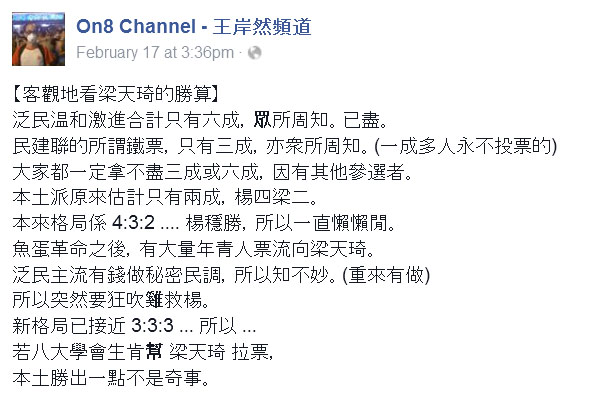
Wong On-yin's Facebook
(Objectively looking at Edward Leung's chances)
Pan-democratic moderates plus radicals add to 60%. Everybody knows that. That's
the maximum.
DAB's so-called ironclad votes add to 30%. Everybody knows that too.
10% or so never vote.
So nobody can get either 30% or 60% because there are other candidates.
The Localists originally expect to get 20%. So it would be Yeung 40% and Leung
20%.
The original picture is therefore Yeung: Chow: Leung at 4:3:2. Yeung is a sure
win, which is why he was strolling along.
After the Fishball Revolution, there is a huge swing of votes towards Edward
Leung.
The mainstream pan-democrats have the money to conduct secret polls. Therefore
they realized that things have gone awry.
That is why they are panicking and calling for everyone to save Yeung.
The new picture is closer to 3:3:3 ... therefore ...
If the eight university student unions are willing to come out to lobby for
Edward Leung
It wouldn't be shocking at all for the Localists to win.
Internet comments:
- This is a subjective analysis,
not an objective one. Certainly there are no polling data to support this.
However, it is a known fact that the radical parties such as People Power,
League of Social Democrats etc are on the side of Alvin Yeung on this one.

(Bastille
Post) By Lo Wing-hung. February 19, 2016.
Before the Mong Kok riot, the
public opinion polls showed that Civic Party's Alvin Yeung leading with DAB's
Holden Chow and the district councilor Christine Long behind. After the riot,
support for Hong Kong Indigenous spokesperson Edward Leung is surging and
threatening Alvin Yeung.
How much damage can Leung inflict?
It is hard to estimate, but it is enough to make the Civic Party very nervous.
Even Civic Party chairperson Audrey Eu has gone on Facebook to praise Yeung
while belittling the other candidates as not being in the same class. Audrey
Eu's 'theory of blue blood' is completely out of tune with the Internet era.
Let me analyze this at two levels.
Firstly, who can say with
certainty that Edward Leung will not be elected? This event is a Black Swan
event. Without the Mong Kok riot, Leung will certainly not be elected. After the
riot, it becomes unknown. Among the New Territories East voters, there are more
radical pan-democrats than moderate ones. In the 2012 Legislative Council
elections, Leung Kwok-hung (League of Social Democrats) got 48,295 votes; Chan
Chi-chuen (People Power) got 38,042 votes. These are hard-core radical votes.
Fernando Cheung (Labour Party) got 39,650 votes and Gary Fan (Neo Democrats) got
28621 votes. These four got 154,608 votes together as a radical bloc. By
comparison, the moderate pan-democrats (including the Democratic Party and the
Civic Party) only got 100,938 democrats. Civic Party's Ronny Tong only got
32,753 votes. Therefore the moderates are fewer than the radicals.
New Territories East is a hotbed
for radical pan-democrats. Although the pan-democrats reached an agreement for
Leung Kwok-hung, Chan Chi-chuen, Fernando Cheung and Gary Fan to mobilize their
voters on behalf of Alvin Yeung, it is not certain that the voters will do their
biding. Thus, it is not clear that Edward Leung cannot win.
Secondly, who says that the
candidates are looking only at this election? If Edward Leung manages to get
40,000 or 50,000 votes this time, it will be a sure ticket for the Legislative
Council elections in September. In the 2012 Legco elections, Gary Fan was
elected on only 28,621 votes. With the experience this time, Edward Leung may
easily get more than 30,000 in September.
The traditional pan-democratic
parties think that they have reached a consensus to run Alvin Yeung and so they
want Edward Leung to give up his campaign. This is a joke to the radical
parties. They won't abandon Leung and they will in fact mobilize the Internet to
vote for Leung.
The winner of this Legco
by-election will only serve for six months, so it does not mean much. The true
significance is that this is the first election after the Mong Kok riot. So who
is going to come out? The middle-aged and elderly voters who oppose the riot or
the young people who support the riot? If the young people continue not to vote
in large numbers, it means that the radicals won't make much headway in the
September elections. Conversely, if a large number of first-time voters come out
as in Taiwan, the political map of Hong Kong may have to be re-written.

For this by-election, there has
not been a single public opinion poll published so far. So all the talk about
who is leading/lagging is made up out of the thin air.
(The
Stand News) Was it a smart thing for Edward Leung to hold a rally?
At this point, Edward Leung
seemed to have overwhelming on the Internet against all other comers. But
holding a rally will give an indication of his real-world support level.
If the rally drew tens of
thousands of supporters, this will prove that his real-world support level
matches his Internet one. That would be nice.
If the rally drew a thousand
or so supporters or even less, this will tell the rest of the world that his
support level won't be enough to threaten either Alvin Yeung or Holden Chow.
Even if all the one thousand supporters are New Territories East voters and
each one can bringing in 20 others to vote the same way, that is a mere
20,000 in total. In Edward Leung's language, these are just particles of
sand among the 200,000 pan-democratic voters.
So in the end, the rally was a
demonstration of Edward Leung's weakness and not any strength. This will
allow the pan-democratic voters to safely proceed to vote for Yeung against
Chow, because they now know that even though the Internet is flooded with
pro-Leung messages and even if Raymond Wong, Youngspiration and the ex-HKU
Student Union president come out in support of Leung, the true believers are
just a few hundred people forming a circle and talking to each other.
If in the end, Edward Leung
fails to get many votes in the by-election, it will also tell everybody that
Internet public opinion cannot be counted as real-world public opinion. That
will affect the chances of all the radical candidates in the September
elections because they campaign mainly on the Internet.

(SCMP)
The road to ruin: Hong Kong�s pan-democrats are eating each others� lunch. By
Alex Lo. February 22, 2016.
Pan-democratic candidates are cannibalising
each other in upcoming elections. The irony is that recent mass protests and
a riot have galvanised radical and fringe groups to form political parties
of their own, but their attempt to join the political process may prove to
be self-defeating.
Start with the New Territories East
by-election. My bet is with Holden Chow Ho-ding, who is vice-chairman of the
Democratic Alliance for the Betterment and Progress of Hong Kong. It won�t
be through any particular personal merits, though.
The by-election this Sunday was triggered
by the resignation of former Civic Party lawmaker Ronny Tong Ka-wah. At the
moment, two candidates with the highest profile are localist Hong Kong
Indigenous candidate Edward Leung Tin-kei and the Civic Party�s Alvin Yeung
Ngok-kiu. But they look to be stealing votes from each other.
Some 20 members of Hong Kong Indigenous
have been arrested for their suspected role in the Mong Kok riot, including
Leung. The group calls for independence for Hong Kong and has been branded
by Beijing as a �separatist� organisation. In spite of, or rather because
of, his alleged role in the riot, Leung � who came out of nowhere � is
taking votes from Yeung. He was treated like a rock star when hundreds of
supporters showed up at a gathering outside New Town Plaza in Sha Tin at the
weekend.
Once mainstream, the Civic Party is
increasingly taking on more extreme positions. To fight Leung and retain
votes, Yeung has condemned the police for their �brutality� in the Mong Kok
riot. This was after reports that more than 90 officers were injured, some
seriously. But pandering to extreme elements is a risky move. He could
alienate traditional supporters � who may be upset at the government and
Beijing but are not ready to turn to violence and riot � without attracting
the radical votes from Leung.
Meanwhile, the student activist group
Scholarism is forming a political party and planning to field at least two
candidates to run in the Legislative Council election in September.
They will prove a greater threat to the
more old-style pan-democratic candidates than anyone else. The
establishment�s candidates tend to have a fixed support base, so the more
volatile and unpredictable votes will likely be those going to the
pan-democrats. This can�t be good for them.

(EJ
Insight) Yeung or Leung? Who to vote for in upcoming Legco by-election.
February 22, 2016.
On
Sunday, residents of the New Territories East electoral district � which
includes Sha Tin, Tai Po, Sai Kung and the surrounding areas � will get to
decide the political future of the entire city.
That�s
when a by-election to fill the Legislative Council seat vacated by former
Civic Party member Ronny Tong Ka-wah will be held.
A
social media war over how the district�s residents should vote has reached a
fever pitch.
Not
since the five-constituency de facto referendum in 2012 has a by-election
drawn so much public attention and polarized the city into such
diametrically opposed extremes.
Why the election matters
We begin with a refresher on local
politics.
Legco is a 70-seat legislative body
comprising two sections � the functional constituencies (FCs) and the
geographical constituencies (GCs) � each having 35 seats.
The FCs are stacked with Beijing loyalists
handpicked by big business and special interest groups.
Because they march in lockstep with our
equally unelected chief executive, the FCs are a lost cause as far as
government oversight is concerned.
By contrast, the GCs (including Tong�s
vacated seat) are democratically elected and represent our only hope within
the Legco to impose some form of checks and balances on government actions.
When it comes to making laws, the Legco is
clinically schizophrenic.
While all 70 legislators must vote at the
same time on bills introduced by the government, bills proposed by
individual Legco members must be passed by the GCs and the FCs, one group
voting separately from the other.
This bizarre, only-in-Hong Kong voting
procedure is commonly referred to as the �separate vote count.�
Until Tong resigned in June following the
defeat of the government�s electoral reform bill, opposition lawmakers
carried a razor-thin 18-17 majority in the GCs over their pro-Beijing
rivals.
As a result, motions initiated by the
pan-democratic lawmakers, such as the one to investigate police violence
during the 2014 Occupy movement, would be passed by the GCs but defeated by
the FCs.
Likewise, any proposal from the pro-Beijing
camp would sail through the FCs but get shot down by the GCs.
That�s about as fair as our lopsided
legislative system gets.
But this dubious balance of power only
works if the opposition controls the GCs.
Should one of the pro-Beijing candidates
snatch the contested seat in the by-election on Sunday, the balance would be
tipped from 18-17 to 17-18, thereby handing majority control to the other
side � at least until all the Legco seats are once again up for grabs in the
next general election, in September.
In
other words, if the opposition fails to hold on to that critical seat, there
will be nothing to stop a lawmaker from the dark side from initiating
dangerous proposals and having them rubber-stamped by both the Beijing
loyalist-controlled sections of the legislature.
Under this doomsday scenario, the biggest
worry is a rule change to put an end to filibusters, a motion that only
members of Legco�s Committee on Rules of Procedure can initiate (and hence
having a majority of the GCs matters).
The filibuster is currently the
opposition�s only effective weapon to delay or derail bad government bills
like the copyright amendment bill (dubbed �Article 23 of the internet�) and
funding requests for wasteful infrastructure projects that squander billions
of taxpayer dollars.
For instance, Chief Executive Leung Chun-ying�s
pet project to create an innovation and technology bureau � accused by the
pan-dems of being yet another pork barrel project to benefit political
friends � was stalled for several years by League of Social Democrats
chairman �Long Hair� Leung Kwok-hung and his People Power friends.
But if the opposition�s GC majority goes,
so goes its ability to filibuster.
Front runner�s blues
There are seven candidates vying for the
New Territories East seat.
All but two of them are Beijing loyalists
(such as Holden Chow Ho-ding, vice-chairman of the Democratic Alliance for
the Betterment and Progress of Hong Kong) or faux opposition (such as
Democratic Party reject Nelson Wong Sing-chi).
For most freedom-loving voters in the
constituency, the real choice comes down to two candidates: Alvin Yeung
Ngok-kiu, a barrister and longtime Civic Party member, and Edward Leung Tin-kei,
a University of Hong Kong philosophy student and spokesman for nativist
group Hong Kong Indigenous.
The by-election is a first-past-the-post,
winner-takes-all proposition, which means Yeung and Leung are in the same
quagmire that beset Eric Chu Li-luan and James Soong Chu-yu in Taiwan�s
general election last month, or, for those with a longer memory, George H.W.
Bush and Ross Perot in the 1992 US presidential election.
It is a political truism: candidates with
similar political leanings siphon votes from each other and often end up
handing the election to the other side.
Political cannibalism is every bit as
savage and tragic as it sounds.
In the past, if two pan-dem candidates
found themselves running head-to-head in the same election, they would
either hold a primary or work it out between themselves behind the scenes.
In the latter scenario, the candidate with
weaker poll numbers would graciously bow out in the best interest of the
entire opposition camp � the �big picture� argument.
But not this time.
Front runner Yeung and political newbie
Leung are strange bedfellows who represent two vastly different factions
within the opposition camp: the mainstream pan-dems and the nativists.
Whereas one prefers to sit down and talk,
the other demands that supporters stand up and fight.
That Yeung and Leung share a common
political enemy is not enough to make them friends, much less allies.
To the delight of their pro-Beijing rivals,
there has been no coordination within the opposition.
A gracious bow-out by either candidate is
out of the question.
For months, the pan-dems had hoped that
Yeung would carry enough votes in New Territories East, a pan-dem
stronghold, to win the election notwithstanding the leaking of votes to
Leung.
But the �fishball riot� on Lunar New Year�s
Day altered the calculus.
Overnight, radical groups like Hong Kong
Indigenous became the people�s heroes, especially among the post-80s and
post-90s generation.
To these young (and many of them
first-time) voters, nativist warriors finally put their money where their
mouth was and risked prison by standing up to the authorities during the
clashes with police.
Dozens of them have been arrested and
charged with rioting, which carries a maximum sentence of 10 years if
convicted.
Their personal sacrifices have added fuel
to the rising localist movement in the post-Occupy era.
The �fishball riot� has bolstered Leung�s
popularity and strengthened his poll numbers (Leung himself is on bail after
being charged with participating in a riot).
In the zero-sum game that is the Legco
by-election, Yeung finds his front-runner status greatly diminished.
That, combined with the prevalent view
among the new generation that traditional pan-dem parties are out of touch
and don�t �get� them, is giving Yeung a taste of Hillary Clinton�s blues
after Bernie Sanders came out of nowhere and won the New Hampshire
Democratic primary in the US presidential race.
Why you should vote for Yeung
If you subscribe to the �big picture�
argument, as do the majority of pro-democracy citizens aged 30 or above,
then the clear choice is Alvin Yeung.
After all, no matter how much some
Democrats in the United States are �feeling the Bern�, they need to consider
the reality that Clinton has a much better chance of defeating the
Republican nominee in the presidential election.
Likewise, even if you prefer Leung�s �any
means necessary� rhetoric to Yeung�s waistcoat-and-necktie preppy charm, why
�waste� your vote on a political unknown who won�t win and will effectively
deliver the seat to the pro-Beijing camp?
Strategic voting aside, Yeung is a likable
guy.
For years, he has offered pro bono legal
services to anti-government protesters, including many in the Occupy
movement and most recently the �fishball rioters� � the very people who are
now jeopardizing his quest for a Legco seat.
Although Leung�s supporters have questioned
Yeung�s motive for defending the Mong Kok protesters in the run-up to the
by-election, their accusation does not hold up, considering that any
association with street violence would and did invite attacks from the
establishment and alienate Yeung�s peace-loving electoral base.
Yeung also represents a new generation of
pan-dems who is less saddled with political baggage.
The 35-year-old barrister is determined to
change the old boys� club culture and bridge the generation gap between
traditional parties and young voters.
Unlike Tong, his mentor, he is more
inclined to fight the system from within by joining forces with Long Hair
and other firebrand lawmakers.
Yeung does not want voters to �settle� for
him solely because of the �big picture� argument. He wants them to pick him
for who he is and what he stands for.
Why you should vote for Leung
If you believe that parliamentary politics
in Hong Kong is dead and that the battle to free the city from the
ever-extending claws of Beijing is best fought on the streets and not in
Legco, then 24-year-old Edward Leung is your man.
The logic is simple: why bother with the
�big picture� argument or any of the gibberish about the 18-17 majority when
the legislative process is so inherently and hopelessly unfair?
Forget about blocking bills and
filibustering, because local politics needs not small fixes but a complete
overhaul, and an overhaul can only come about through resistance and revolt.
Sending another slogan-shouting,
finger-wagging pan-dem like Yeung to Legco will do absolutely nothing to
change the status quo.
Voting for Leung, even if he doesn�t win,
will send a clear message to the establishment that nativism is a force to
reckon with.
And if he does win, CY Leung and his
cronies will have to brace themselves for a lot worse than projectile
bananas on the Legco floor.
In fact, who ultimately wins the
by-election doesn�t matter all that much to Leung and his supporters.
In their minds, the �big picture� argument
is simply another permutation of the pan-dems� fear tactics designed to
protect their dwindling political power.
For all the nativists care, Chow can take
the contested seat, and the pro-Beijing camp should go ahead and wreak even
more havoc in the Legco than they already have � it will only serve to
expose how utterly grotesque the system is and galvanize the city all the
more for an all-out revolt.
Scorch the earth and torch the sky, and a
new world order will emerge.
As radical as the rhetoric sounds, it has
its appeal � especially to frustrated youth.
For one thing, Leung�s platform of violent
resistance is clear and easily understood (compared with Yeung�s sometimes
muffled message).
For another, many voters are growing
increasingly disillusioned with the pan-dems, who have been in the fight for
democracy since the 1980s but don�t have much to show for it.
Their efforts have created an illusion of
doing something but amounted to achieving nothing.
Long Hair�s filibusters might have
succeeded in delaying the technology bureau for years, but who had the last
laugh when funding for it was eventually approved?
The Legco rules are so stacked against the
opposition that it is likened to a four-card hand in a poker game: knowing
that you could never ever win with one card missing, would you keep playing
or would you throw the cards and flip the table?
Leung has successfully turned the
by-election debate into a referendum on the entire pan-dem platform.
Running as an outsider and gaining momentum
with his rare combination of youth, intellect and passion, he has tapped
into the bubbling public anger and is sucking up the youth vote faster than
Bernie Sanders.
There is much more to this nondescript,
bespectacled college student than meets the eye.
With power comes responsibility
With the way things are going, neither
Alvin Yeung nor Edward Leung will win the by-election, and Holden Chow is
poised to become the chief beneficiary of the vote split.
But will it actually matter, if Legco is
broken and beyond repair?
That question is being put to hundreds of
thousands of New Territories East residents entrusted with the power to
determine the political fate of Hong Kong.
If you happen to be one of them and haven�t
yet made up your mind, your deliberation over the next few days boils down
to this: what direction should the opposition take going forward?
It is the eternal struggle between
evolution and revolution, between peaceful resistance and violent rebellion,
between fixing what is broken and breaking what cannot be fixed.
It is as much a battle of ideologies as it
is a question of morality.
So while this article does not purport to
tell you how to vote, it does entreat you to think clearly and choose
carefully, no matter whom you end up voting for.
You owe the city that much.
Internet comments:
- Edward Leung is pro-riot because his
group Hong Kong Indigenous single-handedly started the Mong Kok riot.
Alvin Yeung is pro-riot because he offered free legal aid to rioters and
because he refused to condemn the riot.
This article is pro-riot because it tells you to choose between Leung and
Yeung, both of whom are pro-riot.
So are you pro-riot? If not, vote for any of the other candidates or stay
home.

(The
Stand News) The Inadequacies of the Localist Narrative.
1. I respect the Localists for
their noble ideals, but they haven't been able to spell out how they are
different from their pan-democratic opponents in terms of methods both inside
and outside the Legislature? Why are they better to get "freedom and democracy"
for the people of Hong Kong? Why are they more effective?
2. Do the Localists agree that the
movement can succeed only if they are supported by more Hongkongers? Will the
valiant methods that they so adored do that for them?
3. During the clash on the early
morning of February 9tth, I do not get the sense that anything was accomplished.
Maybe the Localists felt good about themselves. But the "unnecessary sacrifices"
did not gain the support of more citizens. Instead they became excuses for the
government and the pro-establishment camp. International coverage was mostly
negative. By comparison, the 79 days of Occupy/Umbrella Movement were affirmed
by international opinion. This shows that a peaceful, non-violent movement is
more effective.
4. The Localists may be thinking
that they had to resort to "valiant resistance" because nothing was accomplished
after 79 days of peaceful occupation. During the 79 days of occupation, traffic
was paralyzed at three hubs and government operations were severely crippled.
But our government did not seem perturbed at all. So how are several hundred
people, even several thousand people, making "valiant charges" and "causing"
large-scale bloodshed going to make the government kneel down? Instead, they are
happy that they got the snakes to crawl out of their holes and they will be
praised in Beijing.
Today, the Hong Kong Police Force
has more than 30,000 personnel. There are also 6,000 People's Liberation Army
personnel stationed in Hong Kong. They are equipped with the best anti-riot
weapons. How are the Localists going to fight against them?
Whether the Localists want to have
a revolution or just threat by violence, there is no chance for any of this to
succeed. Besides, the rest of the people of Hong Kong are not supporting this.
So why do it?
5. The Localists want to be join
the Legislature Council in order to charge the Legco chairman and stop evil
legislation from being passed! The Localists also to occupy the Legislative
Council if necessary.
Given the police force, it won't
be easy to occupy the Legislative Council. How many people will have to
"sacrifice" themselves? Even if the Localists succeed, the government will use
its old tricks once again and suspend all funding of livelihood needs (such as
healthcare, education, welfare, housing, etc) and blame it all on the Localists.
How do you think the people of Hong Kong will react? They will rise up and
oppose the Localists? When that time comes, will the Localists persist on their
occupation? So how can this type of violent occupation succeed?
Localists may not agree with this
analysis. They may use the Sunflower Movement in Taiwan as the model of a
successful occupation of the parliament. But there are two important
differences. Taiwan is a democratic society with the President and the
parliamentarians being elected by universal suffrage. These people are
responsible to public opinion. They need to compromise, concede and resolve in a
peaceful manner. But CY Leung does not have to compromise or concede. He can use
administrative means and the mainstream media to pressure any occupiers.
So will the resistance techniques
of the Localists work in the Legislative Council? Will this make Hong Kong get
closer to freedom and democracy? Will this be more effective than the current
filibustering?
6. Finally I hope that Localists
won't use inflated narratives to mislead voters not from the pro-establishment
camp.
For the February 28th by-election,
Alvin Yeung's ability and non-violence resistance approach should be the best
choice.

(NOW
TV) February 19, 2016.
The Third Side which fielded
Nelson Wong as its candidate commissioned an independent organization to conduct
a public opinion poll. From February 15-18, 1,000 persons were interviewed by
telephone about which candidate they supported. The ranking was:
(1) Holden Chow
(2) Nelson Wong
(3) Christine Fong
(4) Alvin Yeung
(5) Lau Chi-shing
(6) Leung Sze-ho
(7) Edward Leung.
A previous poll had been conducted
during the Lunar New Year. At the time, Holden Chow was already leading and his
lead has increased steadily. Meanwhile, the support levels for both Alvin Yeung
and Edward Leung fell by almost 50% each.
The Third Side will conduct one
more poll before the vote.

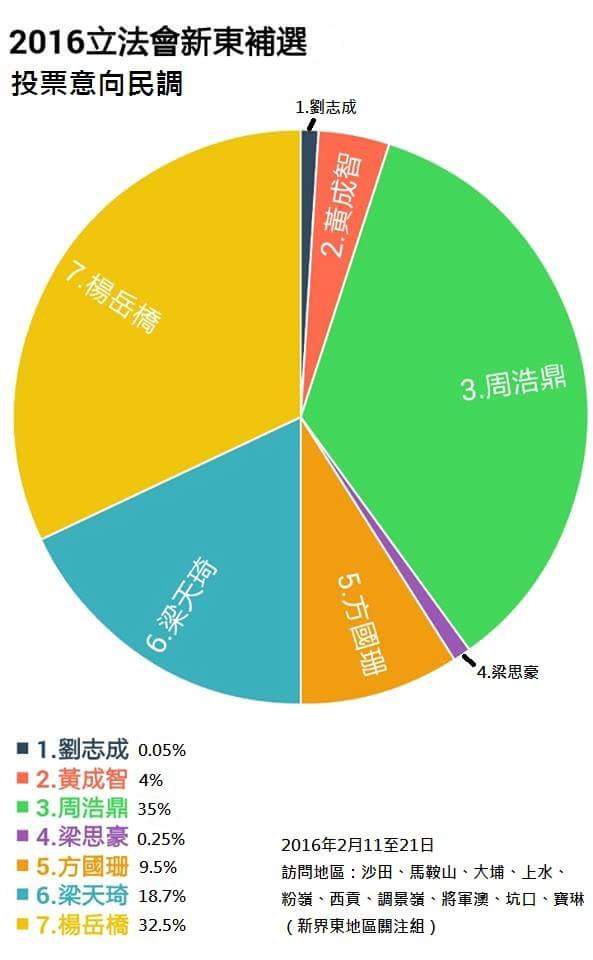
New Territories East District
Concern Group conducted interviews in Sha Tin, Ma On Shan, Tai Po, Sheung Shui,
Fan Ling, Sai Kung, Tiu King Leng, Tseung Kwan O, Hang Kou and Po Lam. The
voting preferences were divided as follows:
35%: Holden Chow
32.5%: Alvin Yeung
18.7%: Edward Leung
9.5%: Christine Fong
4%: Nelson Wong
0.25%: Leung Sze-ho
0.05%: Lau Chi-shing

(Bastille
Post) By Lo Wai-hung. February 26, 2016.
I spoke to a pollster and he said
that the situation is clearer now. The polls showed that Edward Leung won't get
more than 10% of the votes. Most likely it will be 8%. If Edward Leung wins, it
would be a true super-Black Swan event. He said that the population structure of
Hong Kong is like a Christmas Tree with many more older and middle-aged person
than young people. More than twenty years ago, the secondary school certificate
exam was taken by 120,000 to 130,000 students. Today, there are only about
70,000. This showed that there were are fewer young people now than people. Even
though they are fewer, they tend to be radical and vocal. Yet an election is
about the number of votes and not the volume of your voice. Election-wise,
Edward Leung is relatively weak in this by-election.
Right now the contest is between
Alvin Yeung (Civic Party) and Holden Chow (DAB). Both have about 30% support.
Holden Chow is leading in the public opinion polls but the outcome will only be
know after the votes are cast.
Alvin Yeung is facing two
problems. Firstly, he has a competitor who is fighting for the same voters.
Secondly, the other pan-democrats are not genuinely supporting him.
Vote-wise, the pan-democrats had
55% of the votes in 2012. The Third Way's Nelson Wong will siphon away about
21,000 votes. Of the 50.4% that remains, Edward Leung will siphon away about
10%. When Alvin Yeung went down to the police station to help Mong Kok rioters,
he was trying to appease the radicals but he was also alienating the moderate
pan-democratic voters and driving them towards Nelson Wong and Christine Fong.
Holden Chow will lose some votes to Christine Fong but he is not in serious
trouble.
In 2007 Hong Kong Island Legco
by-election, Anson Chan faced off against Regina Ip Lau. At the time, the DAB
mobilized their people to support Regina Ip Lau. After that by-election, a lot
of those voters left DAB for Regina Ip Lau for good. Regina Ip Lau did not even
say thanks. So the other pan-democratic parties are not going to repeat that
mistake. While they pay service to support Alvin Yeung, they won't mobilize
their people to vote for Yeung because those votes may not come back in
September.
But if Edward Leung can get 8%
this time, he will have a good chance to gain a Legco seat in September. In
2012, pan-democrat gained a seat with only 28,621 votes (=6.1%). So 8% should be
good enough.

(Oriental
Daily) February 17, 2016.
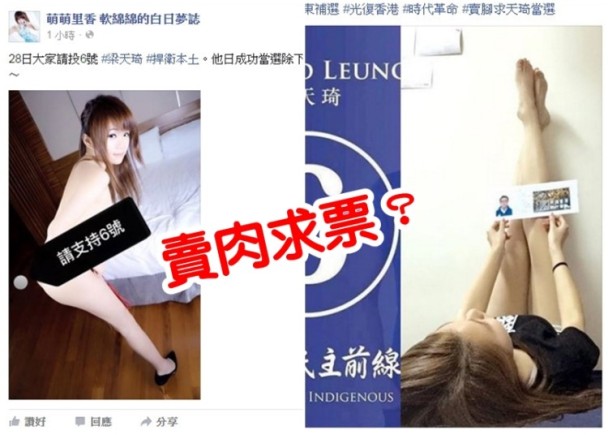
A number of young women are
showing their bodies and asking voters to cast a vote for candidate Number 6:
Edward Leung. These include the bikini girl who was paid $2,000 to help
Nakade Hitsujiko's run
in the District Council elections. This time she pose almost completely nude and
promised to remove the "Please support Number 6" sign if Edward Leung should
win. Meanwhile Keyboard Frontier's Glacier Kwong is showing off her long legs in
support.
(Oriental
Daily) February 19, 2016.
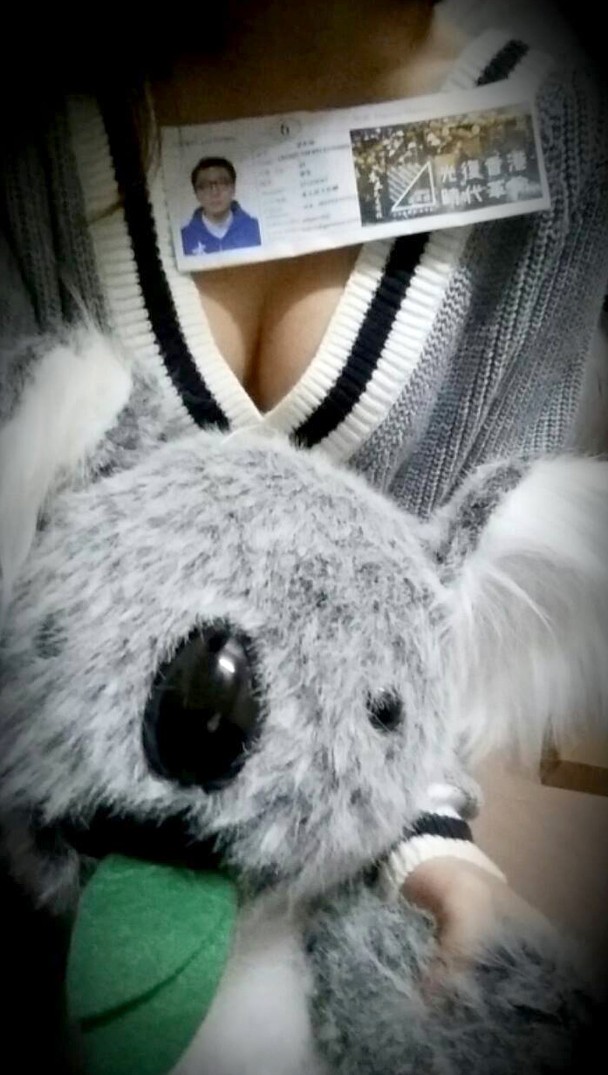

(Oriental
Daily) February 18, 2016.
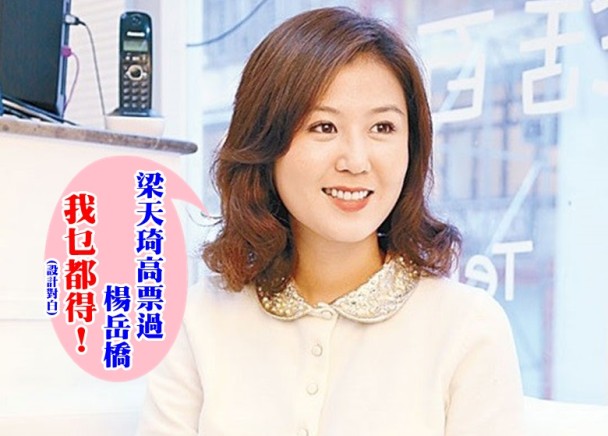
People Power chairwoman Erica Yuen: "I will do anything if Edward Leung gets
more votes than Alvin Yeung!"
On Facebook, People Power chairman
Erica Yuen has been calling on Internet users to vote for Alvin Yeung, because
only Yeung can defeat the DAB candidate Holden Chow whereas all other candidates
have less than a 0.01% chance of doing so. An Internet users asked: "If Holden
Chow wins but Edward Leung gets more votes than Alvin Yeung, then what?" Yuen
replied: "I will do anything if Edward Leung gets more votes than Alvin Yeung!"
Internet users wondered: "Really?" "We look forward to Miss Yuen run naked
through Mong Kok."

Edward Leung is a fifth-year
student of philosophy at Hong Kong University where most classes are taught in
English. When he gives an interview on RTHK3 recently in English, he
taught us many new terms:
Speakout HK
https://www.youtube.com/watch?v=bxOQit-Fg5A
"... only when we walk on the
street, only when we protest, only when we make noise ..."
[If you are in the street and you
are not walking, what can you be doing? Standing still? Crawling on hands and
feet? Well, it is possible that he meant to say
take to the streets, with synonyms such as "rampage", "debauch", "run
riot" and "stir up trouble".]
"... unjustice ..."
[Well, if you type in unjustice
on Google, you will be asked "Do you mean injustice?" But in truth,
Merriam-Webster says that the word exists in Scottish, which proves that
Edward Leung is fluent in many languages and dialects.
"... effectively and targetively
..."
[Well, I found one use of the word
at
Danilblissblog: I believe the desired response was to get people
(parents targetively (yes, I know �targetively� is not a word, but it made me
giggle to write it) ) hot and bothered ...
"... welfare transferment ..."
[Nyanenglish:
Transferment was used multiple times in the translation of Dead Souls written by
the Russian Nikolai Vasilievich Gogol.

(Wen
Wei Po) February 21, 2016.
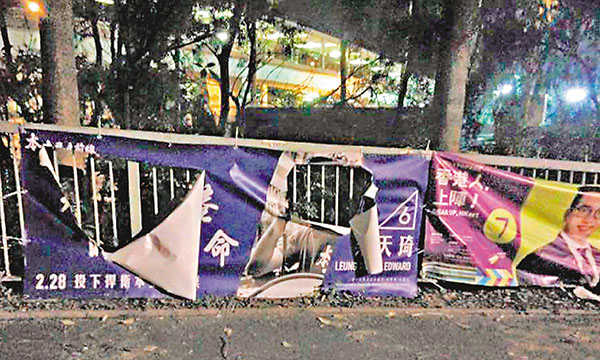
The radical Mong Kok People Mong
Kok Affairs group uploaded a number of mutilated banners for various Legislative
Council New Territories East candidates. On the last photo, it would appear that
the banner for Candidate Number 7 Alvin Cheng (Civic Party) was the only intact
one. This hints that the vandalism was committed by Alvin Yeung's people. But
people should think carefully about whether this is the case or somebody else is
framing Alvin Yeung.

(Wen
Wei Po) February 21, 2016.
People Power has been sending its
people out to help Alvin Yeung's campaign. People Power member Tam Tak-chi
posted on his Facebook about his experience in Hung Hom on behalf of Yeung. He
wrote gleefully: "A cunt-faced housewife came over and pointed at Alvin Yeung to
say 'Eat shit!' I responded: 'Alvin Yeung eats brains, he does not eat shit. You
already look fucking stupid, so please don't act fucking stupid, please."

(SCMP)
February 21, 2016.
The localist group Beijing
apparently referred to as the �radical separatist organisation�
behind the Lunar New Year riot in Mong Kok staged a well-attended
outdoor rally last night in Sha Tin. The event, which attracted
hundreds of people, was organised by Hong Kong Indigenous to
pledge support for Edward Leung Tin-kei, its candidate in the
Legislative Council New Territories East by-election next Sunday.
�Take back our future and our Hong Kong,� Leung, who has been
charged with rioting over the Mong Kok violence, told the crowd
outside New Town Plaza.
During the rally, on which the group said police had imposed a
crowd limit of 100, Leung called his electioneering �a revolution
of the time�. �We have no connection to the vested interest in the
old system,� he added, referring to the traditional pan-democrats
from whom he distanced his group, despite their anti-mainland
stance.
The crowd booed and sometimes
swore when whenever a lawmaker�s name was mentioned on stage. The
only legislator present was radical Wong Yuk-man, who supports
Leung. Lingnan University
scholar Horace Chin Wan-kam, whose book advocated independence for
Hong Kong, also backed Leung, saying: �Edward is an honest young
man [and] fought bravely the tyranny of [Chief Executive Leung
Chun-ying].�
Leung�s rise in popularity is
seen as a direct threat to Civic Party�s Alvin Yeung Ngok-kiu.
Yeung, who will host his own rallies today.
Videos:
United Social Press
https://www.youtube.com/watch?v=2NEkmUW4Vaw Wan Chin's speech
(excerpted)
https://www.youtube.com/watch?v=dca6vcR4XXc Raymond Wong Yuk-man's
speech
Resistance Live Media
https://www.youtube.com/watch?v=sdMht1_AMP0

(Passion
Times) Wan Chin in support of Edward Leung.
Ladies and gentlemen, I come here to support Mr. Edward Leung, No. 6 in
the list of election. Edward is an honest young man blessed by God, and he
fought bravely against the tyrannay of C.Y. Leung in Mongkok. And he has
fought bravely in many actions for the good of the Hong Kong people. He
carried bricks, but bricks are not enough. He needs a machine gun, but his
machine gun is not yet loaded with bullets. Where are the bullets? You
guys have got the bullets! Each of you, with your vote, could give Edward
a bullet and load his machine gun and fight in the Legislative Council for
us Hongkongers. Long live Hong Kong! Long live Hong Kong! Long live Hong
Kong! Thank you!
- 熱血時報網站連結
http://www.passiontimes.hk/article/02-21-2016/28904
- Copyright � 2016
Ladies and gentlemen, I come here to support Mr. Edward Leung, No. 6 in
the list of election. Edward is an honest young man blessed by God, and he
fought bravely against the tyrannay of C.Y. Leung in Mongkok. And he has
fought bravely in many actions for the good of the Hong Kong people. He
carried bricks, but bricks are not enough. He needs a machine gun, but his
machine gun is not yet loaded with bullets. Where are the bullets? You
guys have got the bullets! Each of you, with your vote, could give Edward
a bullet and load his machine gun and fight in the Legislative Council for
us Hongkongers. Long live Hong Kong! Long live Hong Kong! Long live Hong
Kong! Thank you!
- 熱血時報網站連結
http://www.passiontimes.hk/article/02-21-2016/28904
- Copyright � 2016
Ladies and gentlemen, I come here to support Mr. Edward Leung, No. 6 in
the list of election. Edward is an honest young man blessed by God, and he
fought bravely against the tyrannay of C.Y. Leung in Mongkok. And he has
fought bravely in many actions for the good of the Hong Kong people. He
carried bricks, but bricks are not enough. He needs a machine gun, but his
machine gun is not yet loaded with bullets. Where are the bullets? You
guys have got the bullets! Each of you, with your vote, could give Edward
a bullet and load his machine gun and fight in the Legislative Council for
us Hongkongers. Long live Hong Kong! Long live Hong Kong! Long live Hong
Kong! Thank you!
- 熱血時報網站連結
http://www.passiontimes.hk/article/02-21-2016/28904
- Copyright � 2016
Ladies and gentlemen, I come here
to support Mr. Edward Leung, No. 6 in the list of election. Edward is an honest
young man blessed by God, and he fought bravely against the tyranny of C.Y.
Leung in Mongkok. And he has fought bravely in many actions for the good of the
Hong Kong people. He carried bricks, but bricks are not enough. He needs a
machine gun, but his machine gun is not yet loaded with bullets. Where are the
bullets? You guys have got the bullets! Each of you, with your vote, could give
Edward a bullet and load his machine gun and fight in the Legislative Council
for us Hongkongers.
Long live Hong Kong! Long live
Hong Kong! Long live Hong Kong! Thank you!

(Ming
Pao) February 22, 2016.
Today some Internet users are
reporting that Wikipedia's Holden Chow page is saying that in 2000 as a student
he was involved in a sexual assault case against a British woman in a pub.
However, the woman decided not to press charges and the police could not
prosecute. Holden Chow said that anyone can edit Wikipedia and this entry was a
total fabrication. At midnight he said that he was going to file a police
report.
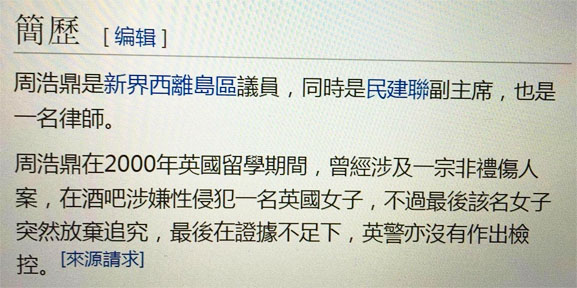


Wan Chin's Facebook
Ray Wong has been arrested. Please canvas votes for Edward Leung. Call your
relatives and friends in New Territories East and persuade them to vote for
Edward Leung. You can lobby by saying if Edward Leung is elected, then C.Y.
Leung will be gone and the bitter days of the people of Hong Kong will be
relieved.

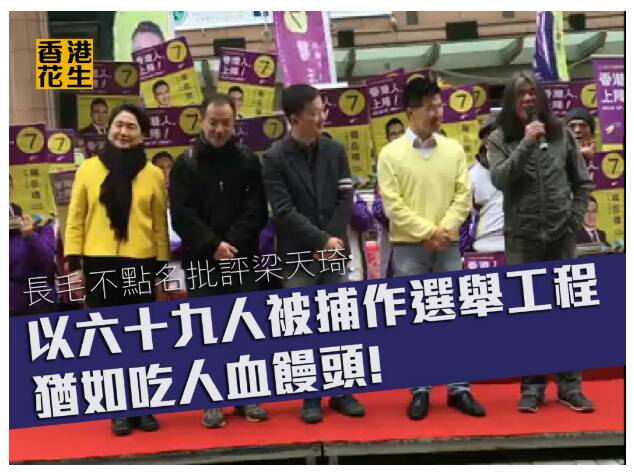
At a rally for Alvin Yeung (Civic
Party), League of Social Democrats legislator Leung Kwok-hung said that using
the arrests of 69 persons as an election campaign prop is like eating a
human-blood bun!

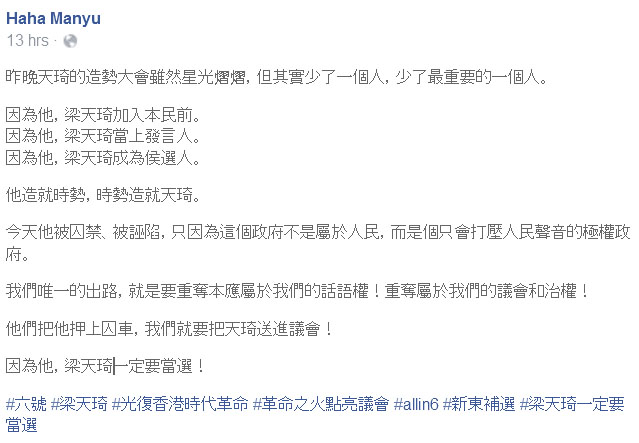
Haha Manyu's Facebook
Last night there were plenty of
stars at the rally for Edward Leung, but one person was missing. A very
important person.
Because of him, Edward Leung
joined Hong Kong Indigenous
Because of him, Edward Leung became their spokesperson
Because of him, Edward Leung became their candidate
He created the times, and the
times created Edward Leung.
Today he is imprisoned on false
pretense, because this government does not belong to the people and is only a
tyranny that only knows to suppress the voices of the people
Our only way out is to take
back our speech rights! To take back our legislature and authority to govern!
They can put on a prison van,
but we will send Edward Leung into the Legislature!
Because of him, Edward Leung
will surely be elected!

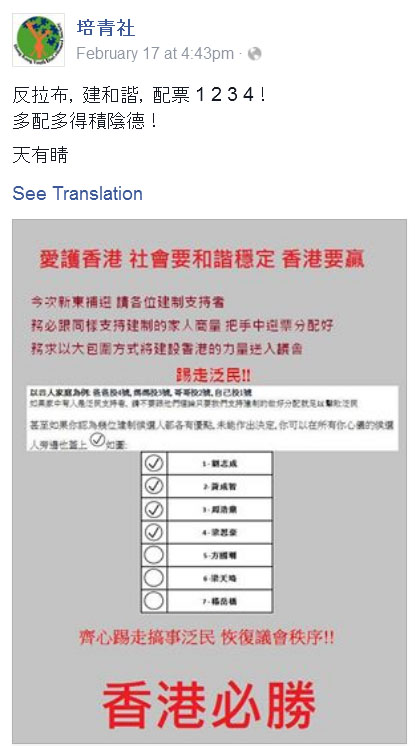
A faked pro-establishment Facebook
tells voters to check candidates 1, 2, 3 and 4 on their ballots. Get rid of
the pan-democratic troublemakers and restore order in the Legislative Council.
Hong Kong will win!
Of course, they don't bother to
tell you that the ballot would be voided if more than one candidate is checked.
Another version with photos:
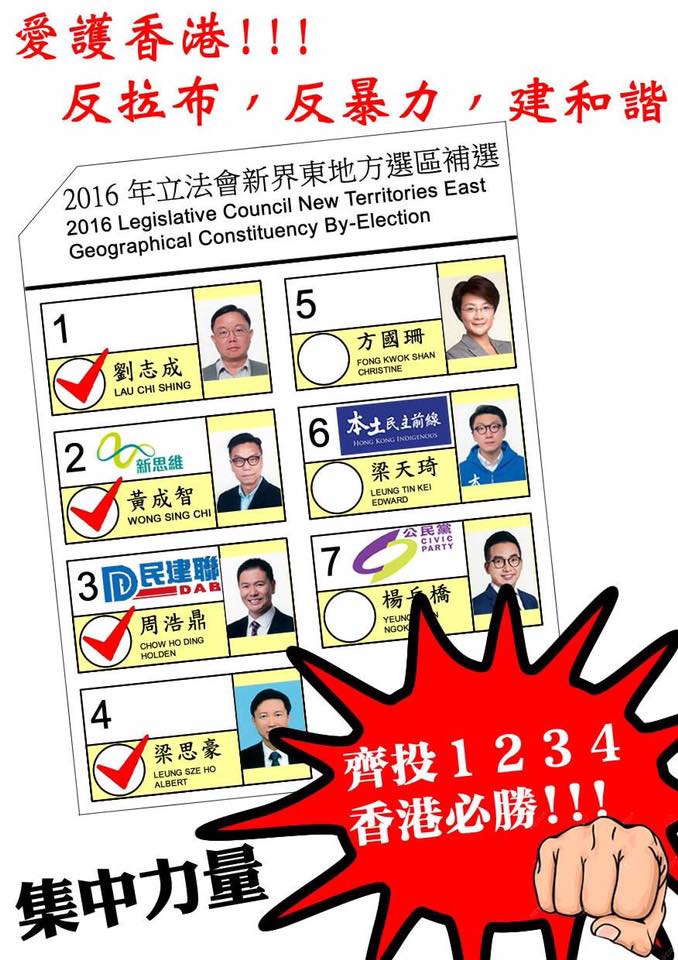
(HKG
Pao) A large number of campaign posters are emerging on the Internet
telling people to vote for Candidate #6 Holden Chow in order to express
opposition to the Mong Kok riot. Of course, if you cast a vote for Candidate #6,
that would be a vote for Edward Leung. Holden Chow is actually Candidate #3. On
the Hong Kong Internet, we have freedom of speech, etc.
Jenny Wong's Facebook forwards a
Tai Po Facebook post: My choice has always been for Candidate #1: Holden
Chow!
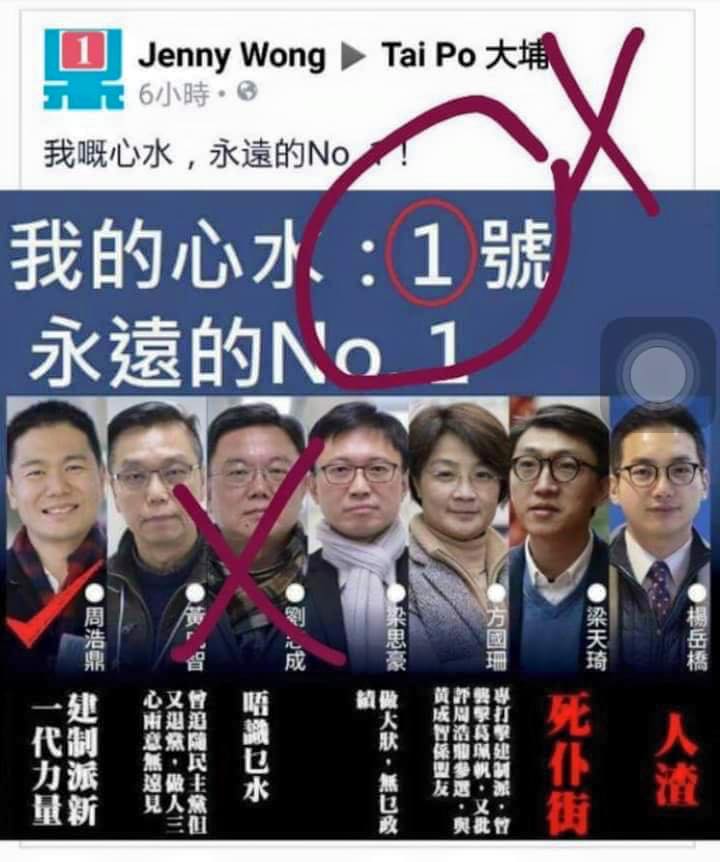

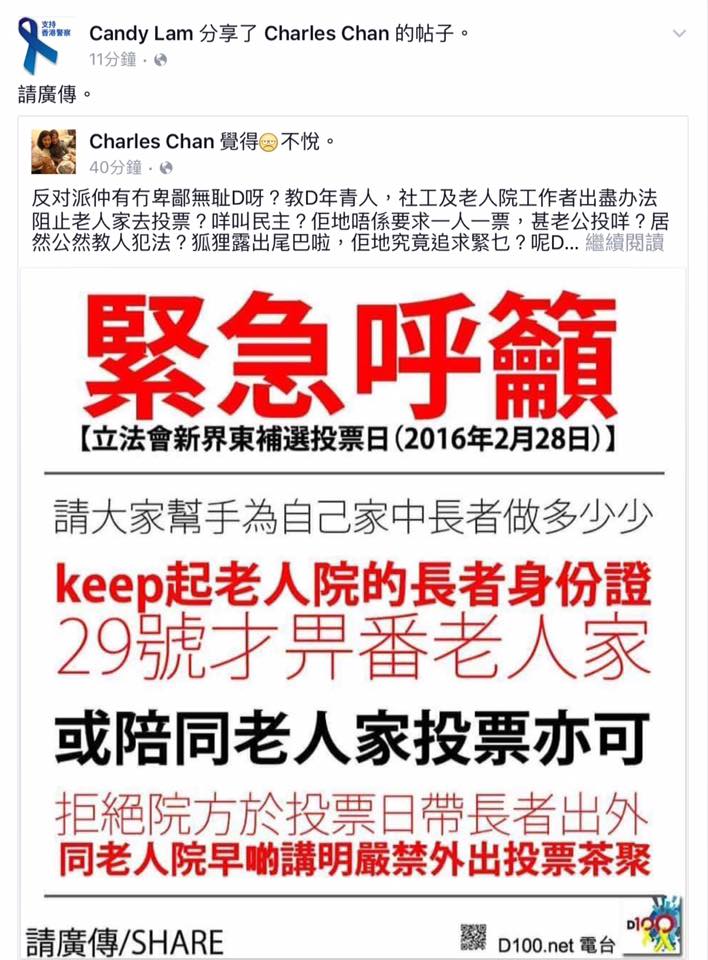
Emergency appeal
(New Territories East Legislative Council By-election Voting Day (February 28,
2016)
Please do something for the senior elders of your family
Take away their Hong Kong ID's from the retirement home
Give it back only on February 29th
Or else you accompany the senior citizens to vote
Refuse to let the retirement home take the senior citizens out on election day
Tell the retirement home early that the senior citizens are forbidden to go out
to vote or have tea
Please share
D100.net Radio
Internet comments:
- CAP 177 Registration of Persons
Ordinance Section 7AA: Any person who without lawful authority or reasonable
excuse transfers to another person an identity card of other document issued
under this Ordinance commits an offense and is liable on conviction on
indictment to a fine at level 6 and to imprisonment for 10 years.
- The founding partner of D100
is
Albert Cheng, born on July 3, 1946 and currently aged 68. Will his
family please take away his identity card?
- The cowards over at D100
realized that they might be committing a crime and so they yanked the text about
taking away identity card.
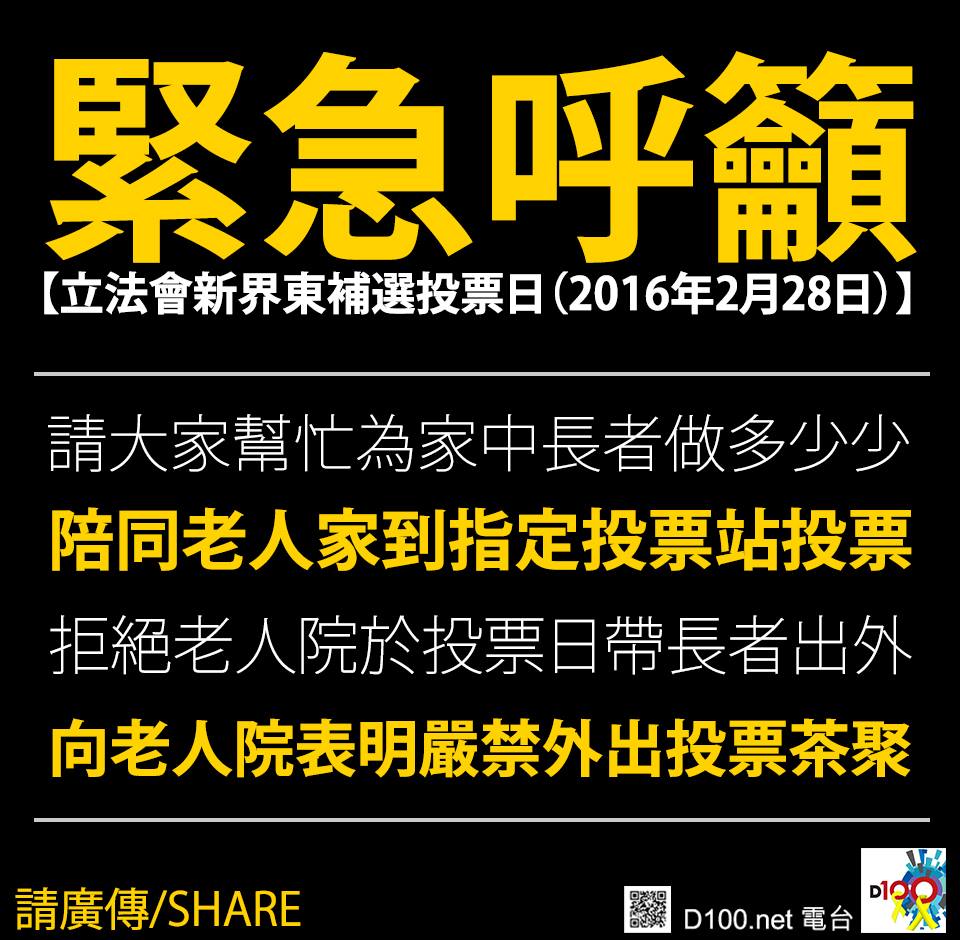

(Bastille
Post) By Lo Wai-hung. February 26, 2016.
I spoke to a pollster and he said
that the situation is clearer now. The polls showed that Edward Leung won't get
more than 10% of the votes. Most likely it will be 8%. If Edward Leung wins, it
would be a true super-Black Swan event. He said that the population structure of
Hong Kong is like a Christmas Tree with many more older and middle-aged person
than young people. More than twenty years ago, the secondary school certificate
exam was taken by 120,000 to 130,000 students. Today, there are only about
70,000. This showed that there were are fewer young people now than people. Even
though they are fewer, they tend to be radical and vocal. Yet an election is
about the number of votes and not the volume of your voice. Election-wise,
Edward Leung is relatively weak in this by-election.
Right now the contest is between
Alvin Yeung (Civic Party) and Holden Chow (DAB). Both have about 30% support.
Holden Chow is leading in the public opinion polls but the outcome will only be
know after the votes are cast.
Alvin Yeung is facing two
problems. Firstly, he has a competitor who is fighting for the same voters.
Secondly, the other pan-democrats are not genuinely supporting him.
Vote-wise, the pan-democrats had
55% of the votes in 2012. The Third Way's Nelson Wong will siphon away about
21,000 votes. Of the 50.4% that remains, Edward Leung will siphon away about
10%. When Alvin Yeung went down to the police station to help Mong Kok rioters,
he was trying to appease the radicals but he was also alienating the moderate
pan-democratic voters and driving them towards Nelson Wong and Christine Fong.
Holden Chow will lose some votes to Christine Fong but he is not in serious
trouble.
In 2007 Hong Kong Island Legco
by-election, Anson Chan faced off against Regina Ip Lau. At the time, the DAB
mobilized their people to support Regina Ip Lau. After that by-election, a lot
of those voters left DAB for Regina Ip Lau for good. Regina Ip Lau did not even
say thanks. So the other pan-democratic parties are not going to repeat that
mistake. While they pay service to support Alvin Yeung, they won't mobilize
their people to vote for Yeung because those votes may not come back in
September.
But if Edward Leung can get 8%
this time, he will have a good chance to gain a Legco seat in September. In
2012, pan-democrat gained a seat with only 28,621 votes (=6.1%). So 8% should be
good enough.

(Hong
Kong Free Press) Who came out for whom? Famous figures and who they
backed on by-election day. February 28, 2016.
Holden Chow, DAB
- Jasper Tsang Yok-sing, Legislative
Council president and founder of DAB.
- Starry Lee, Legislative Council member
and DAB chairwoman.
- Ann Chiang Lai-wan, Ip Kwok-him, Tam Yiu-Chung,
Elizabeth Quat Pui-fan, and Chris Chung Shu-kun, all Legislative Council
members and members of DAB.
- Regina Ip Lau Suk-yee, Legislative
Council member and member of New People�s Party.
- Jeffrey Lam Kin-fung, Legislative
Council member and vice president of the pro-business Business and
Professionals Alliance for Hong Kong.
Edward Leung, Hong Kong Indigenous
- Raymond Wong Yuk-man, Legislative
Council member.
- Szetosifu, a YouTube personality who
makes political videos.
- Chin Wan, a Hong Kong scholar advocating
localism.
- Wong Yeung-tat and Cheng Chung-tai,
leaders of localist group Civic Passion.
- Baggio Leung and Yau Wai-ching from
Youngspiration, an �Umbrella Soldier� political party.
Alvin Yeung, Civic Party
- Oscar Lai, previously of Scholarism, a
student activist group.
- Martin Lee, lawyer, political activist
and former Legislative Council member.
- Cyd Ho Sau-lan, Fernando Cheung
Chiu-hung, and Lee Cheuk-yan, all Legislative Council members and
vice-chairmen and representatives of the pro-democracy Labour Party.
- Alan Leong Kah-kit, Claudia Mo Man-ching
and Kenneth Chan Ka-lok, Legislative Council members and members of the
Civic Party.
- Tanya Chan Suk-Chong and Audrey Eu Yuet-mee,
members of the Civic Party and former Legislative Council members.
- Gary Fan Kwok-wai, Legislative Council
member and member of pro-democracy Neo Democrats.
- James To Kun-sun, and Helena Wong Pik-wan,
Legislative Council members and members of the pro-democracy Democratic
Party.
- Alex Chow, and Lester Shum, social
activists and formerly the secretary-general and vice secretary-general of
Hong Kong Federation of Students respectively, a student organisation
which took part in the pro-Democracy Occupy Movement in 2014.
- Leung Kwok-hung, Legislative Council
member and member of the centre left social democratic political party
League of Social Democrats.
Internet comments:
- Well, as the saying goes, you are not
afraid of fearsome enemies but you should be afraid of stupid allies.
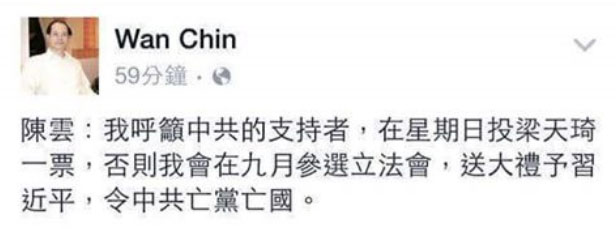
Wan Chin's Facebook
I call on all supporters of the Chinese Communist Party to vote for Edward
Leung or else I will enter the Legislative Council elections in September and
give Xi Jiping a big present such that the Chinese Communists will lose their
party and their nation.
- And even more!
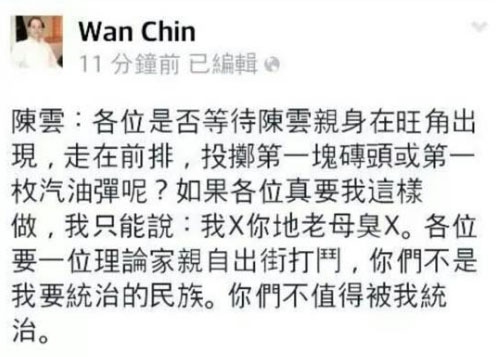
Wan Chin's Facebook
Are you waiting for Wan Chin to show up personally in Mong Kok to stand in the
front line and throw the first bomb or first petrol bomb? If you really want
me to do that, then I can only say: I fuck your mothers' sticking cunts! You
want a theoretician to come out in person to fight in the streets. You are not
a people whom I want to rule over. You are not worthy of me to rule over.

(EJ
Insight) A 'rioter' is born in Mong Kok. February 20, 2016.
I saw
a young friend of mine appear in a TV news report about the Mong Kok clashes
on the second day of the Lunar New Year. Asked what happened to them that
night, his girlfriend replied:
�It was like the Exodus. I almost got hit
twice by a baton when I was simply giving a lift to someone who had fallen
down. I managed to grab the end of the baton, and for a split second I
thought of pulling it out of the policeman�s grasp. However, I let go of
it in the end.
�We had no intention of causing trouble.
We had finished meeting relatives in Tsim Sha Tsui East, but our uncle was
in such a happy mood and he wanted us to have a few drinks in Mong Kok.
�My boyfriend and I didn�t want to come
along, but when we saw the night market, we thought it might be a good
idea to try some snacks offered by street hawkers and see if we still had
room for a few drinks after that.
�Well, instead of enjoying street food,
we were first pushed by shields, attacked by pepper spray and got beaten
up. We then heard warning shots but we could not leave as we were
surrounded. You got beaten up regardless of whether you were leaving or
staying.
�What I did that night was to help
others. You�d got to resist in order to free yourself from being beaten
up. That�s why my boyfriend dashed out. He burst into tears out of extreme
rage because the geared-up officer was holding a gun targeting the
�rioters� who happened to be just there.
�Under no circumstances should people set
fire on things or throw objects. However, such resistance happened only
because people had been driven into a tight corner.
�Who would ever want to engage in a
life-or-death struggle during the Lunar New Year, especially on the very
first day, really? We managed to survive and return home, and we felt we
really needed a shower.
�He was in so much pain when the shower
went down on his body. He couldn�t help squatting down and curling himself
up. I dried him gently with kitchen paper. At that moment I wondered how
many people out there would cry angry tears and come forward to help a
stranger at whom a gun was pointed?
�I think he is my Mr. Right.
�Many people could go elsewhere. We had
nowhere else to go but here.�
Standing in front of you is a 22-year-old
youngster � a body of flesh and bones.
He is a vivid figure that provides you a
fresh perspective that is different from what the media or the government
has been telling you about the Mong Kok clashes.
He was indignant because the police drew
their guns at people. He was standing among the �rioters� because he could
not find an exit. �We have nowhere else to go but here� � Hong Kong.
Society may not be able to accept their
behavior but it has an obligation to understand why they did what they did.
If we ignore their explanations
and the reasons for their actions, our
community would only be torn further apart.
However, the SAR government issued a statement that it does not consider it
necessary to set up an independent commission of inquiry, headed by a judge,
to look into the incident. In other words, the authorities themselves were
under the impression that they could turn a blind eye and a deaf ear to
social issues, that law enforcement and police violence could resolve the
problems.
It is
necessary to set up an independent commission of inquiry to ferret out the
truth and the causes of the clashes. Since the government has decided to
shrug it off, non-governmental organizations might take up the
responsibility of conducting the investigation.

(TVB)
February 17, 2016.
Last night at around 11pm, a man
came out of the Sai Yeung Choi Street South exit of the Mong Kok MTR station.
Acting on a tip, the police intercepted and arrested him on suspicion of
involvement in the Mong Kok riot on early morning of February 9.
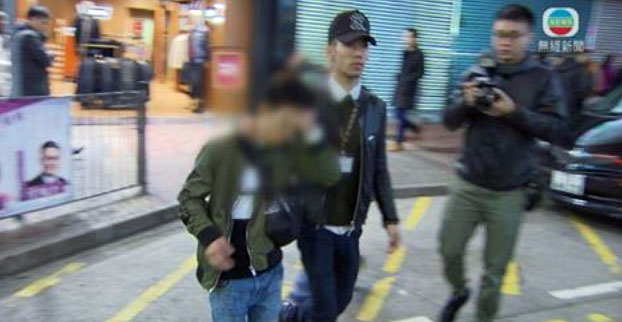
Internet comments:
- This was not "caught in the
act." This was "acting on a tip."
- There is a rat fink somewhere.

(TVB)
February 16, 2016
The police arrested two men in
conjunction with the Mong Kok riot. The police said that the 17-year-old and the
21-year-old claimed to be air conditioning technicians and were suspected of
throwing bricks on the night of the Mong Kok riot. The police were making a
routine patrol of an electronic game centre in Tusen Wan when they came across
these two men. The two men admitted that they went down to Mong Kok on their own
own on that night. The police took one of the men back to his home in Tsuen Wan
to gather evidence. The two men will be charged with rioting.
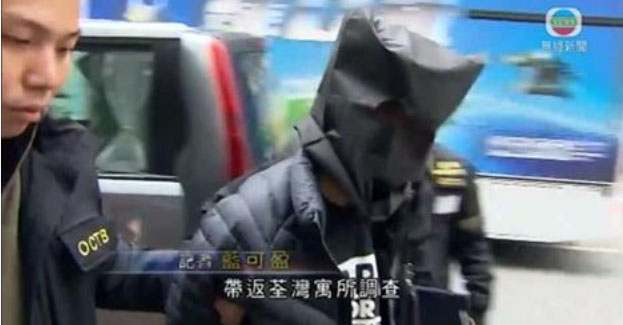
(Oriental
Daily) February 16, 2016.
According to information, the
police were on a routine patrol at a Tsuen Wan electronic gaming center when
they looked at the mobile phones of these two individuals. There the police
found photos of the two individuals handling what appears to be chili oil at
the Mong Kok scene. Upon interrogation, the two admitted that they were watching
television that night and went down to offer "support," including throwing
bricks at the police.
In the TVB news clip, there was a
man in black clothes, duck bill cap and mask opening a can of red liquid.
Another man wearing a blue denim jacket and mask and another man wearing black
jacket and hoodie taking out paper napkins to manufacture pepper spray. When
they saw the media filming them, they blocked the camera and removed the can of
red liquid. One of the arrestees was dressed the same way as the person seen in
the video.
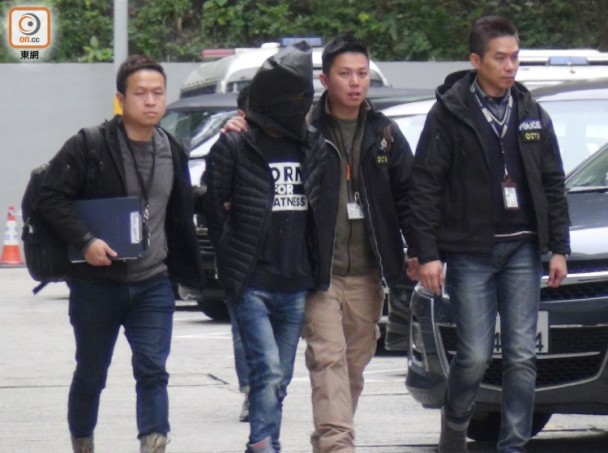
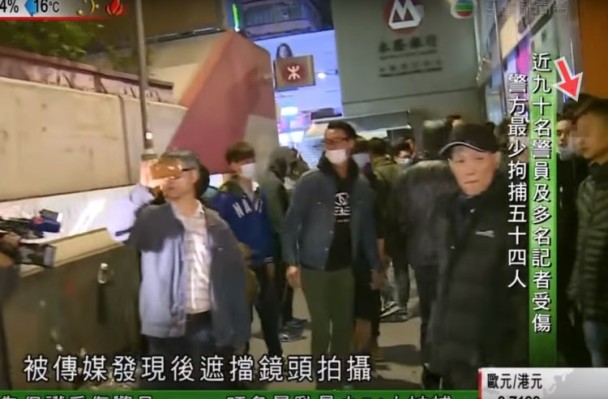
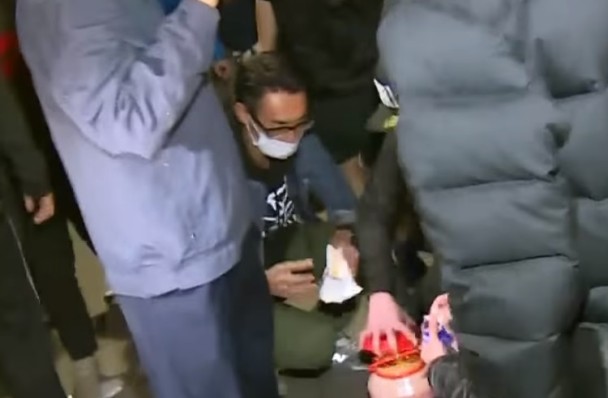
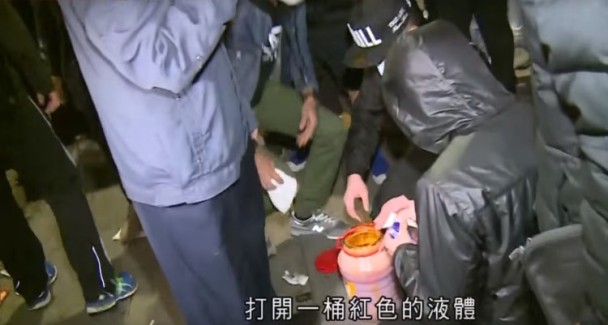
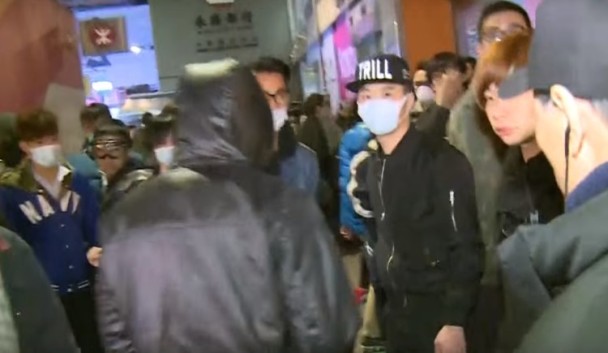

(Apple
Daily) February 19, 2016.
The police have arrested two more
individuals for rioting. According to information, 29-year-old Chung Chi-wah was
previously identified by the police during Shopping Revolutionary activities in
Mong Kok. This time, the police recognized Chung in media videos of
brick-throwing rioters. At the court hearing, the prosecutor said that Chung
admitted his culpability to the police after being cautioned, but Chung's lawyer
said that the admission was coerced. Chung was originally granted bail of
$5,000. However, Chung said that he only has $200. Finally a friend who was
present in the courtroom offered to help and Chung was bailed out for $2,000.

(Wen
Wei Po) February 18, 2016.
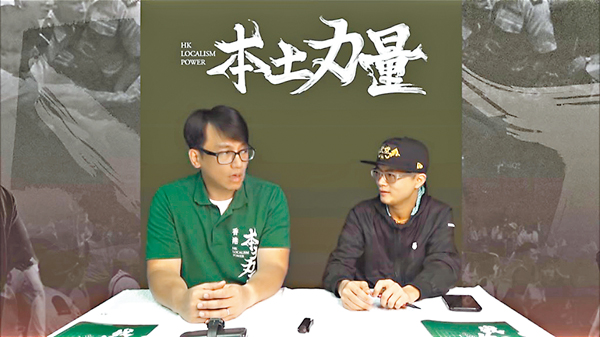
Ken Lo Kin-man was interviewed by
CK Ho on HK Localism Power's online show. He said that he was in Mong Kok at
around 830pm to take photos of the vendors in order to post on the Internet.
About 9pm, Hong Kong Indigenous members wearing blue jackets arrived to push the
vendors to set up near Langham Place. About 30 blue-clothed persons suddenly
raised their flags and called for everybody to join in an election campaign
march. They said that they wanted to "help" others. By 1230am, there were about
2,000 persons present. A Hong Kong Indigenous van loaded with equipment was
present too.
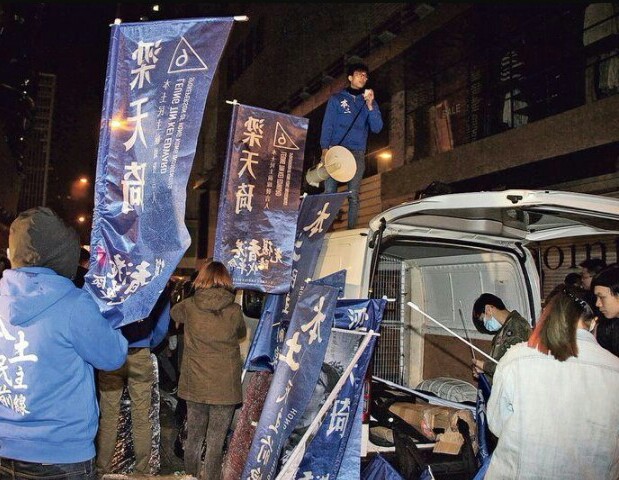
Ray Wong atop the Hong Kong Indigenous van as the
Edward Leung (6) flags are brought out
He said that at the moment when
the election campaign flags were raised, he realized that he had been exploited.
"When you raise the flag, you are not protecting me. You can only protect
those thirty people wearing blue jackets. The others are not protected." Later a
Police Public Relations Bureau officer asked to speak to Ray Wong, but Wong
demanded the police withdraw. A riot broke out afterwards. Lo said that he
did not participate in the riot. After his arrest, two lawyers met with him, one
being the volunteer lawyer appointed by the Civic Party's New Territories East
by-election candidate Alvin Yeung and the other being a lawyer for Civic
Passion. But he ultimately raised bail when his friends came up with $2,000.
About this riot, Lo said that it
was weird. "I felt being exploited in the whole thing. Somebody was using what
happened to make money." He said that Hong Kong Indigenous needed money and so
they had to find a way of getting more money to meet operational needs.
He also said: "The blue-shirts
said that they were raising money for the arrestees. According to the reports,
Hong Kong Indigenous raised $100,000. They got a lawyer for Edward Leung. But
they won't help us. I asked his lawyer, who told me to use the lawyer on duty
instead because of asset screening."
He said that he was an
arrestee who did not have the money to hire the lawyer on duty. When he asked
others for help, they said that they already gave to Hong Kong Indigenous and
suspected him of trying to swindle money.
At the time, Civic Passion leader
Wong Yeung-tat was also present at the Mong Kong scene. Lo said that the Civic
Passion lawyer only gave him basic advice, such as getting a medical
examination, not answering any questions and not signing any papers. After he
got out on bail with the help of his own friends, Civic Passion people helped
him cover his face. There was no substantive aid otherwise.
He said that even the Civic
Passion lawyer met with only a few people. He doesn't know why the others were
ignored. Nobody helped Andy "Captain America" Yung. A recycling person was also
unable to post bail because no lawyer would help.
Previously Hong Kong Indigenous
posted on the Internet that they are openly soliciting donations. "The whole
amount will be used to help the arrested justice fighters. Afterwards the
remaining funds will be used to help other arrested justice fighters in the
future." The notice also said that "any arrestee needing legal or other help"
can contact them and they will "do everything possible to provide assistance."
"We will not abandon any justice fighter."
After the Mong Kok riot, Ray Wong
who is suspected of inciting the riot, released a final recording on February 11
and has disappeared since. Some Internet users think that Ray Wong has absconded
with the money.
According to information, Ken Lo
is a member of the DLLM Orchid Group. In June 2014, he was found guilty of
disorderly conduct in public after he cursed out Voice of Loving Hong Kong
members in spite of police warnings. The case was heard in March of last year.
Lo agreed to an 18-month probation. During this period, he was not to use force
or otherwise threaten others and disturb social peace. This arrest is a
violation of the terms of probation.
Internet comments:
- (EJ
Insight) Police seized HK$530,000 (US$68,182) in cash, a small amount of
marijuana, a stun gun, a baton, a mask and dozens of Viagra pills. Hong Kong
Indigenous, which confirmed Wong�s arrest on its Facebook page, said its lawyers
are assisting in the investigation. It said the cash seized by the police was
donated by citizens and was part of a legal defense fund.
- Ken Lo could have applied for an
instant Hong Kong Indigenous membership and the cash would have been flowing
immediately.
- (Oriental
Daily) December 5, 2017.
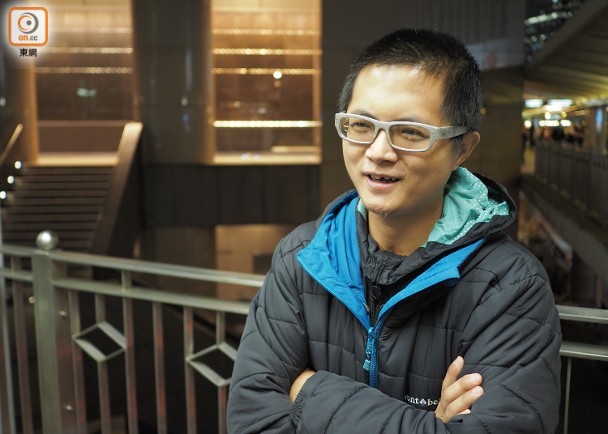
31-year-old Ah Man holds a regular
job delivering office documents in the Central District. Ah Man also acts as a
"beggar hunter" who chases away the beggars that he comes across. On this day,
he spotted an old female beggar on the pedestrian bridge leading to the IFC. He
went over and spoke in his Hong Kong accented putonghua: "Grandma, you can't do
this year! You leave quickly. If you don't, I will call the police to arrest
you."
The old woman mumbled: "Oh, I
can't leave ..." "I don't understand. How old are you?" "One hundred and three!
I came here to get medical treatment. Leg pains. Diabetes ..." Ah Man folded his
arms and ordered to old woman to pack up and leave.
Many passersby looked at Ah Man
with contempt and disgust. Some even criticized him for bullying old women. But
Ah Man doesn't care. "If they care so much about the beggars, they should take
them home with them!" "If more people act like me, refusing to give them money
and telling them to leave, there won't be as many beggars around!"

(Sing
Pao) February 27, 2016.
At around 6am, the police arrested
38-year-old Ho Kam-sum in Lung Poon Court, Diamond Hill district. At around 8am,
the police took Ho back to his residence to gather evidence. The police removed
a walkie-talkie, a pair of eyeshades, a laptop computer, clothing and gloves.
According to information, Ho Kam-sum
claimed to be an artiste. In reality, he is a street musician without any
gainful employment. He has multiple prior criminal records, including managing a
brothel, AOABH (Assault Occasioning Actual Bodily Harm), etc. He is a member of
the Shopping Revolution people in Mong Kok. Under police caution, Ho admitted
that he was present in Mong Kok on the night of the riot. The police have videos
of Yeung throwing bricks at the scene of the riot.

(Sing
Tao) February 28, 2016.
The Organized Crime Unit pored
through the surveillance videos and tips from citizens, and determined that a
Justice Alliance member Yuen Chi-kui had thrown bricks at the police as well as
used a long bamboo pole to hit a police vehicle. The police went down to Yuen's
home in Po Tat district, but they couldn't find him because he was in hiding.
Yesterday, the police saw Yuen announced on Facebook that he would be at the
Hollywood Plaza, Diamond Hill district to teach people how to fold origamis. The
Organized Crime Unit team waited for him at the Hollywood Plaza. When Yuen
showed up at 1pm, the police arrested him on suspicion of rioting. Yuen is a
member of the
Civil
Justice Alliance.
YouTube video
https://www.youtube.com/watch?v=EpeSQl_sAuk Rioters attacking a police
vehicle
(Oriental
Daily) February 29, 2016.
At a court, three defendants were
granted bail. 31-year-old technician Yeung Ka-lun was accused of participating
in a riot and setting a taxi on hire. He was granted bail of $30,000.
25-year-old designer Yuen Chi-kui was accused of throwing bricks and using a
pole to attack a police officer who was in the process of arresting another
person. He was granted bail of $10,000. 37-year-old wedding planner Ho Kam-sum
was accused of throwing bricks. Under police caution, he admitted that he was
present but he said that he did not participate in the riot. He was granted
$1,000 bail.
(SCMP)
February 29, 2016.
Three more men,
including one who allegedly set fire to a taxi, have been barred from
entering parts of Mong Kok as they face rioting and arson charges over the
Lunar New Year riot.
Designer Yuen
Chi-kui, 25, and actor Anthony Ho Kam-sum, 37, were both charged with one
count of rioting over their alleged participation on February 8 and 9.
Another man, Yeung Ka-lun, 31, faces the same charge over his alleged
involvement on February 9 along with an additional charge of arson for
allegedly burning a taxi at the junction of Fa Yuen Street and Soy Street on
the same day. None was required to enter a plea before principal magistrate
Peter Law Tak-chuen at Kowloon City Court yesterday.
Prosecutor Andy
Lo Tin-wai said: �The prosecution does not object to bail but, considering
the particulars of the offences, we hope the court will impose appropriate
conditions to prevent the defendants reoffending while on bail.� All three
men were granted cash bail of between HK$1,000 and HK$30,000 with the
condition that they live in their reported addresses, remain in Hong Kong
and refrain from entering parts of Mong Kok except on transport.
Yeung and Ho were further required to
regularly report to Yuen Long and Wong Tai Sin police stations respectively.
Yeung, a technician, was also required
to surrender his travel documents and obey a curfew from midnight to 5am
each day.
Their cases will
return to the same court on April 28, pending police investigations and the
Department of Justice�s legal advice. The magistrate reminded the three to
report back as required or risk facing a fresh criminal charge.
(HK
ET) October 11, 2016.
Today Yeung Ka-lun pleaded not
guilty against the charges of rioting and attempted arson. The trial will be held
on March 13, and is estimated to last five days. The prosecution intends to
summon six civilians and twelve police officers as witness. The defense will
plead not guilty and argue that Yeung was not present at the scene and did not
participate in the incident. The judge reminded that the defense should offer
evidence of not being present as soon as possible (so that the trial does not
even need to be held). The defendant posted bail of $30,000 while awaiting
trial. He also has to observe a curfew and a ban from setting foot in the Mong
Kok area.
Internet comments:
- Here is the decisive evidence
against Yeung Ka-lun:
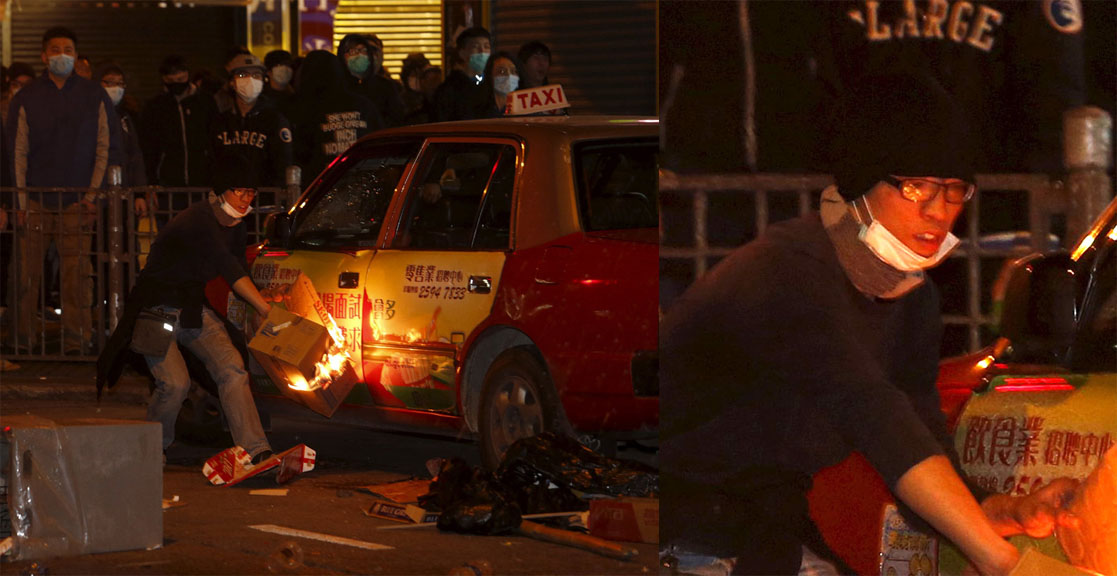

(Oriental
Daily) March 7, 2016
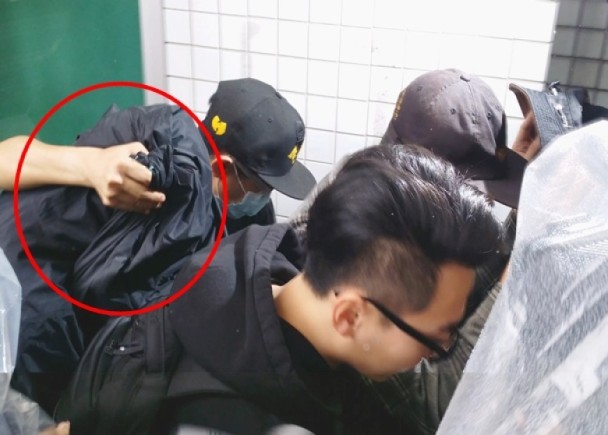
21-year-old technician Lam Ngo-hin
appeared in court today to face charges of participating in a riot with other
persons on Portland Street outside Langham Place, Mong Kok district on the early
morning of February 9.

(Oriental
Daily) March 30, 2016.
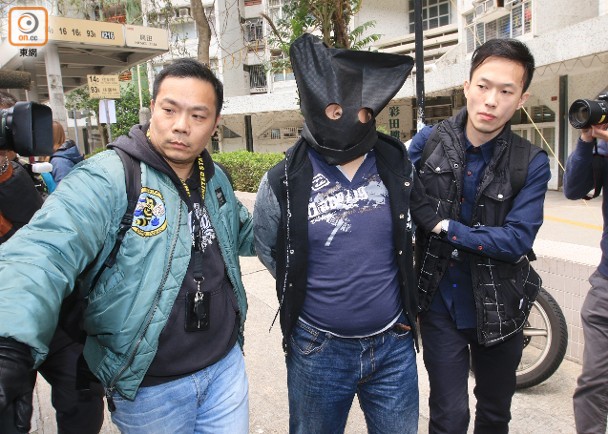
The police arrested a 42-year-old
man named Chan in Mei Tin House, Hing Tin Estates, Lam Tin district for
involvement in the Mong Kok riot. The police took away evidence that included
protest posers, mobile phone and computer.
Internet comments:
- This is the Civic Passion fat
slob who was arrested. He is the easiest person in the world to recognize, and
he has been seen at previous disturbances (shopping revolution, anti-parallel
trade, music instruments in MTR; etc).
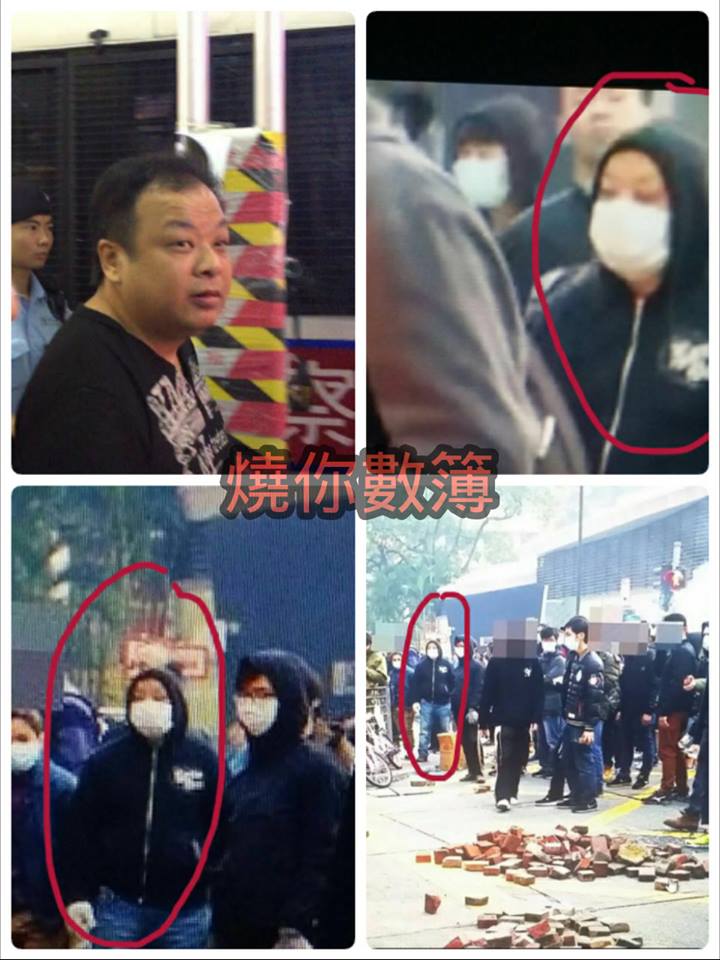

(SCMP)
April 1, 2016.
A housewife complained
of rough police treatment during her arrest as she became the latest
defendant brought to Kowloon City Court to face a rioting charge.
Yang Jianfang, 40, was
not required to enter a plea on one count of riot during her first court
appearance on Friday.
The Sham Shui Po
resident was arrested in Cheung Sha Wan last month for allegedly taking part
in a riot with others at 1.45am on February 9, at the Portland Street
junction of Shantung Street in Mong Kok.
Prosecutor Andy Lo
Tin-wai requested an adjournment to June 1, pending further police
investigation and the Department of Justice�s legal advice. He did not
oppose bail, but asked the court to impose appropriate bail conditions,
which included restricting Yang from entering parts of Mong Kok except on
transportation. Yang�s defence counsel agreed.
The defence also told
the court that Yang was given rough treatment during her arrest as the
police officers who handcuffed her injured her wrists. Magistrate So Wai-tak
replied: �I will record that in the file.� He granted Yang cash bail of
HK$2,000, with the condition that she reside at the reported address and
inform the Cheung Sha Wan police station 24 hours ahead of any move. She was
also required to abide by the injunction order as requested by the
prosecution.
Yang left the
courtroom under the escort of a dozen friends and supporters as well as a
security guard, who accompanied her to file a report to the Complaints
Against Police Office within the court building.
Internet comments:
- Her name on the court file is
Yang Jianfang, not Yeung Kin-fong. That means that she is a mainland locust and
not an indigenous Hongkonger. She should be expelled immediately.

(Headline
Daily) June 28, 2016.
(with video) At around 850am,
forty defendants in the Mong Kok riot case were escorted by a wall of umbrellas
into the courthouse.
(Headline
Daily) June 28, 2016.
The cases of ten defendants were
consolidated into one case, with 11 counts involving rioting, incitement to
riot, incitement to participate in an illegal assembly, participation in an
illegal assembly, assaulting police officers, etc.
Among these defendants, Andy ("Captain
America") Yung drew 6 counts (3 for rioting, 1 for incitement to
participate in an illegal assembly, 1 for illegal assembly and 1 for assaulting
a police officer).
Ray Wong (Hong Kong Indigenous)
drew 3 counts (rioting, incitement to riot, incitement to participate in an
illegal assembly).
Edward Wong (Hong Kong Indigenous)
drew 3 counts (two counts of rioting, one count of incitement to riot).
Chan Pak-yeung (Civic Passion) was
charged previously with 1 count of rioting. Today two more counts (assaulting
police and interfering with the police in the course of duty) were added.
The prosecutor said that they have
6 witnesses, two hours of video recording and one TVB news video. The initial
hearing will be held on July 26th at the Kowloon City Court.

(EJ
Insight) August 10, 2016.
A
Kowloon City Magistrates� Court, accepting a motion from the prosecution,
dropped the charge of rioting against four people who were previously
accused of participating in the Feb. 8 clashes between police officers and
protesters in Mong Kok, Apple Daily reports.
Including the four, aged between 20 and 39, a total of 20 people have been
cleared in the case by the court so far.
One of
the four accused asked for reimbursement of his litigation cost, but
Magistrate Peter Law denied the request following the prosecution�s
objection.
Meanwhile, two men, aged 18 and 20, were
added to the list of defendants in the case, charged with one count of
rioting.
The younger one was granted bail but the
other had to serve his sentence for a separate case related to drugs.
The rioting charge against another two were
changed to one count of assaulting police officers and one count of injuring
others, according to Ming Pao Daily.
The cases involving 26 defendants, who were
all present in the courtroom, were merged with several others that will be
transferred to the district court for separate hearings in the following
months.

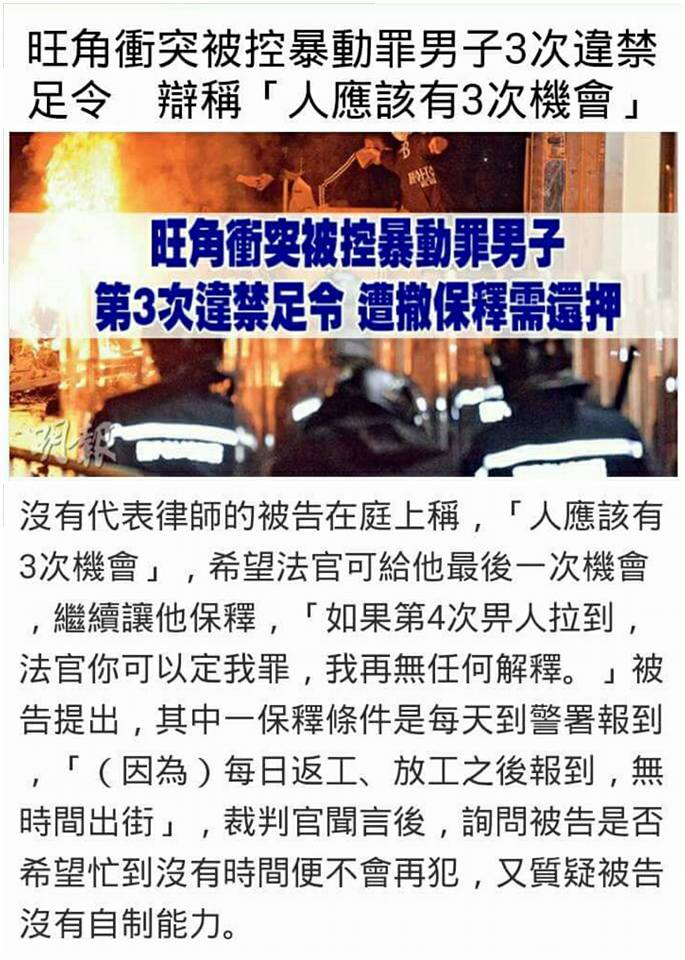
The defendant Tang King-chung was
charged with rioting in Mong Kok and posted bail with a ban not to enter Mong
Kok. However, he has been arrested for the third time for violating the ban.
Today the defendant appeared in
court without a lawyer to represent him. He told the magistrate that everybody
should "three chances". Therefore he hopes that the magistrate can give him one
last chance by letting him post bail. "If I get arrested a fourth time, you can
sentence me. I will have no excuses left." The defendant said that one of the
bail conditions was that he has to report down at the police station every day.
"Because I had to report before and after work every day, I had no time left to
go out." The magistrate asked the defendant whether he wants to have no free
time in order to insure that he won't break the ban again. The magistrate
wondered if the defendant had any self-control.
Internet comments:
- A cat has nine lives, so a
Fishball Revolutionary should get three chances at bail.
- (Oriental
Daily) September 19, 2016. The defendant explained that he was in Mong
Kong to do shopping. What is there that is only sold in Mong Kok and nowhere
else?
- (Sing
Tao) September 19, 2016. The magistrate denied bail and remanded the
defendant to the detention centre until October 4, 2016. Serves him right.

(Oriental
Daily) September 22, 2016.
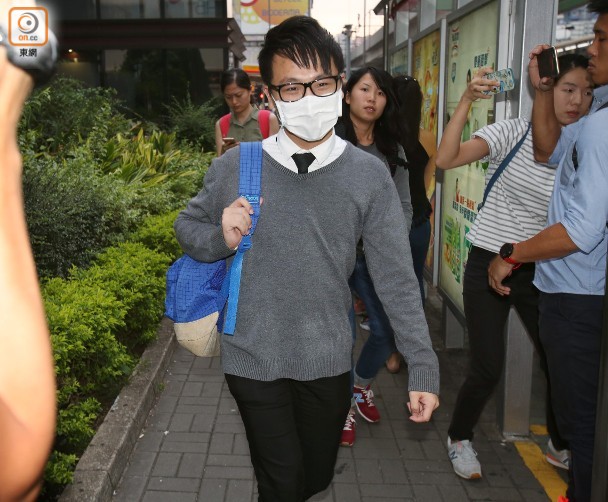
18-year-old first year Hong Kong
University student Bruce Ng Cheuk-hang was charged with possession of a controlled
weapon of assault. The trial took place in Kwun Tong Court today.
According to police officer Lee,
he saw Ng standing alone and looking around at around 11pm on February 9, the
day after the Mong Kok riot. Ng was stationary, but his pockets were bulging
with hard objects. Lee observed Ng for one minute and then approached to search
Ng. Lee found a knife and a pair of pliers. After being cautioned, Lee said that
"I bring these three instruments after I was threatened by my Seventh Uncle
three years ago."
According to Ng, he graduated from
Sing Yin Secondary School and is now a second-year history student at Hong Kong
University. Three years ago, his parents were threatened by the Seventh Uncle
who works as a nightclub bouncer over a dispute about property rights.
Thereafter Ng has the habit of carrying the knifes and pliers. Sometimes he uses
the knife to cut paper or the pliers to open soda bottles. Ng said that he was
unaware that he was breaking the law.
Ng said that he is the president
of the Historical Society at school. This year, they were going to publishing a
book about demonstrations and riots around the world. On that day, he went to
Mong Kok to gather information and take photos. "I wanted to see if any major
incident was happening" and "I wanted to film the burnt marks and loosened
bricks" for the sake of historical documentation. Ng emphasized that he did not
participate in the riot of the previous night.
Under cross-examination, Ng
admitted that the planned book was not published. As for the Seventh Uncle, the
police record showed that Ng's family filed a police report after the criminal
threat and the Seventh Uncle was eventually sentenced to a good behavior bond.
Ng said that he was not aware of the court sentence.
During the testimony, Ng was
shaking. The magistrate asked him if he was cold. He said that he was too
nervous.
(Oriental
Daily) October 6, 2016.
The magistrate found Ng Cheuk-hang
not guilty of possession of a controlled weapon. The magistrate said that it was
a reasonable explanation for the defendant to be carrying a foldable knife
because his Seventh Uncle had threatened the family. Since the knife was folded
at the time of arrest without exposing the blade, there was no intention to use
it to harm. The police said that the defendant was only looking around at the
time. So the magistrate said that the defendant gets the benefit of doubt.
The defense did not request for
court expenses to be paid, but said that the defendant has been told not to
bring such implements with him in the future. The magistrate agreed
wholeheartedly.

(SCMP)
February 19, 2016.
The University of Hong Kong�s newly elected
student body leader confirmed on Friday morning that she supported Hong
Kong�s independence, saying that it is a �viable way� for the city. During a
Commercial Radio programme, HKU student union president Althea Suen was
asked if she supported Hong Kong�s independence. She said: �I think it is a
viable solution, so I support it.�
Suen was speaking a week after
hundreds of protesters clashed with the police in Mong Kok last Monday night in
the worst violence Hong Kong has seen in decades. About 130 people, including 90
police officers, were injured, and about 70 people have been arrested so far.
Localist group Hong Kong Indigenous has
been singled out for condemnation as its members were identified as rioters.
Beijing�s liaison office chief Zhang Xiaoming also branded them �radical
separatists�, putting them in a similar category to separatists in Tibet and
Xinjiang.
When asked if she supported localism, Suen
said: �Some equate localism with Hong Kong�s independence and say it�s bad.
But for me, it is natural or unarguable to have localist thinking as I
regard Hong Kong as my home, and want to safeguard the interests of the
people here as well as to defend our core values.�
The 20-year-old social work student also
said: �It is unacceptable to inflict bodily harm on someone else. I won�t
take the lead to do that as the student union president. Instead, I would
try the means that are allowed in the system, such as a �non-cooperative
movement�.�
Academics and pro-establishment lawmakers
have argued that it would be impossible for Hong Kong, a small economy
dependent on mainland China, to survive if it becomes independent. But in a
phone interview with the Post on Friday morning, Suen said
independence is not an unthinkable taboo.
�We are just exploring the idea, and we
would not ignore factors such as economic ones ... I don�t think Hong Kong
could not survive without [mainland] China as we are an international city,
and it is impossible for economic exchanges to end between the city and the
mainland,� she said.
(Hong
Kong Free Press) February 19, 2016.
The new University of Hong Kong Students�
Union President Althea Suen Hiu-nam has expressed her support for Hong Kong
independence and has stated that, as leader of the student body, she would
not accept acts of physical harm in resistance against the regime.
Suen and her cabinet, Valiance, assumed
office on Monday. She is the successor of Billy Fung Jing-en, whose term was
embroiled in controversy following his decision to leak details of a
closed-door HKU Council meeting which rejected the appointment of liberal
law scholar Johannes Chan.
During an interview with Commercial Radio
on Friday morning, Suen said that political pressure affecting the school
has been increasingly felt since the HKU Vice-chancellor debacle, and that
there was a serious �mainlandisation� issue on campus. She took on the role
because she felt a need to defend the school�s institutional independence
and academic freedom.
Suen said that some aspects of localism �
such as seeing Hong Kong as their �home�, and wanting to prioritise the
interests of Hongkongers and protect the city�s core values � were
understandable, and these were also the beliefs of the student union, she
said.
�I believe that Hong Kong independence is a
viable way out and I do [personally] support it� but it�s not directly
related to [the student union would do],� she said.
When asked about her earlier comments on
how students besieging the HKU council meeting was not very �radical�, Suen
said that such labels do not mean anything, Ming Pao reported. Suen said
that the student union merely represents the student body and was not a
social activist organisation. As its president, her �bottom line� would be
not not to accept, nor lead the union to engage in, any acts that would
cause physical harm to others.
The host asked Suen about the Mong Kok
unrest last Monday, during which people were injured. Suen said that
although she would not engage in those actions herself, she had empathy with
protesters, Commercial Radio reported. �These people have been engaged in
[different forms] of resistance for a while now� they believe they were left
with no options apart from violence,� she said. The protest broadened
people�s imaginations with new methods of resistance, she said, and it also
sent a serious warning to the governing regime.
Internet comments:
- (Hong
Kong Free Press) February 19, 2016.
Hong Kong has been used by the US to
�mess with China�, and there will be no future for the city if it
separates from or resists Beijing, Lingnan University President Leonard
Cheng Kwok-hon has said.
At the spring media reception on
Thursday, Cheng criticised youths that took part in last week�s unrest in
Mong Kok, which was triggered by the clearing of the street hawkers. He
said they had no right to destroy the core values of Hong Kong, and that
he was �very shocked to see Hong Kong becoming like this�, Ming Pao
reported.
However, Cheng also said that there have
been a series of social movements in recent years and that, if the
government paid more attention to the voices of the people, it would have
more support.
He said, with regards to rise of
localism, that Hong Kong is a part of China and some people may not agree,
but if the city resisted that fact or if it tried to separate from China,
�there would be no future�. He asked whether Hong Kong wanted to force
China to govern the city as it does with Xinjiang and Tibet.
Cheng stressed the importance of the rule
of the Communist Party, saying: �if the Communist Party fell, China would
also be disintegrated�. He also said that the US is a hegemony and now
that they see a challenger on the rise, they would �of course be thinking
of ways to attack it� I don�t believe that the US has not used Hong Kong
to mess with China�, Stand News reported.
Cheng discussed the referendum on
amending the universities� ordinances, saying that he would not take part
himself, but would respect the views of the teaching staff. He said that
the voter turnout would have to be �very high� for the referendum to be
representative. However, the issue of the Chief Executive being the
Chancellor of universities by default was not something Lingnan University
could resolve, he said.
- (Headline
Daily) By Chris Wat Wing-yin. February 18, 2016.
On this day, I saw a Facebook photo of a
group of innocent-looking university students holding a group photo of
Localists with the subject titles being: "We are all rioters!" ... When
education can't teach the students right from wrong and the judiciary
enters to distort those values, only the civil sector can rectify thing. I
recommend the business community and the alumni community to stop all
donations to the universities, because your money is being used to raise
rioters. It is true that innocent students will be hurt because there is
only a small number of troublemakers. However, the silence of the majority
abets the rioters. Because you are willing to be "represented" by them,
you are bound to be dragged into it. Cutting off the donations is the
biggest penalty for the universities' inability to provide a good
education.
I also recommend that the business
community and wealth individuals to offer bounties to help the police find
the rioters. I recommend the reporters who covered the riot to turn their
photos over to the police.
Headline Daily video:
http://pop.stheadline.com/content.php?vid=40332&cat=a
- Althea Suen is a religious nut. All her
statements begin with "I believe" and are supported by any factual basis.
For example, "I believe that Hong Kong independence is a viable way out" or
"I don�t think Hong Kong could not survive without [mainland] China as we
are an international city." This is the worst flaw of these frogs sitting at
the bottom of the well and looking at the starry night above.
- If you think this or that about "justice standards," or "confidentiality,"
or "violence" then all is permitted. Just because you believe or think.
- Since her predecessor Billy Fung Jing-en
famously broke confidentiality, what is Suen's position on this? (TVB)
Suen said: 'This will all be based upon the public's right to know. If I
think that the students should know about something, or the decision was
unreasonable, or there are issues of public justice, then it is appropriate
to inform the public." So it is back to "I think, therefore I am."

A banner outside Hong Kong University:
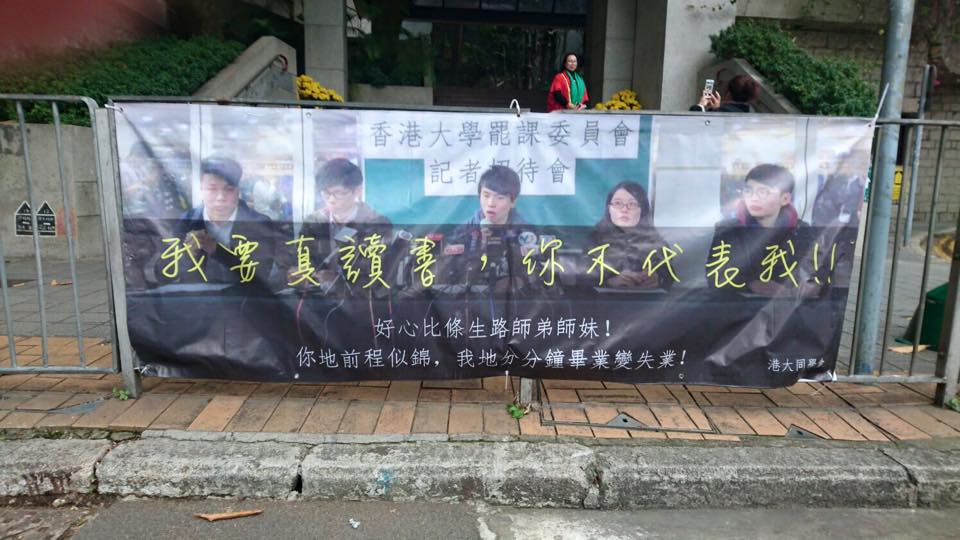
Outside Hong Kong University: "I want genuine
studying, you do not represent me!" banner with a photo of the Hong Kong
University Strike Committee
"Please gave your yournger fellow students a chance!
You have wonderful careers ahead of you, but we may become unemployed as soon
as we graduate!"
Hong Kong University Student Union
This one is even better, because the
Strike Committee members are behind bars:
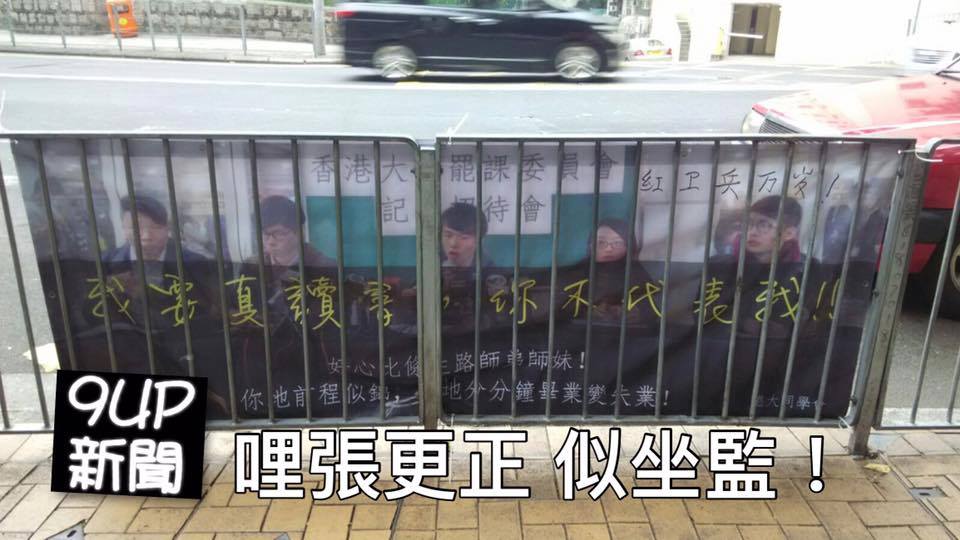
(Oriental
Daily) February 16, 2016.
In mid-January, former HKU Student Union
president Yvonne Leung, Undergrad deputy chief-editor Keyvin Wonad
and others started a class boycott. After holding three meetings, they
decided to blockade the university council to demand a dialogue with Arthur
Li. But Li left under police escort and the action failed. At the fourth
meeting, Leung declared that the strike would be suspended. Although the
students voted against the meeting with Arthur Li, they elected five student
representatives and a Student Union representative for a future meeting with
Arthur Li.
Does this mean that the Strike Committee
has been disbanded? One committee member admitted to being disheartened and
said that they will step down. After that fourth meeting, no further action
has been mentioned and neither the university nor the students have brought
up the subject of a meeting with Arthur Li again. According to information,
Leung and Wong are busy supporting the Hong Kong University students who
were arrested during the Mong Kok riot. They have basically given up the
Strike Committee.
Many other universities are holding
referenda about the Chief Executive automatically becoming the university
chancellor, but the Hong Kong University referendum is over before it ever
got started.
Some students ask: The Hong Kong University
Student Union started something, but couldn't finish anything. Apart from
one after another failed clash, what did they win for the students? Well,
they can demand explanations. But who is there left to explain? Billy Fung
Jing-en and Yvonne Leung Lai-kwok are both long gone.
Internet comments:
- (HKG
Pao) Why did the strike fail?
(1) The Student Union has built an image of violence which is not supported
by the students as a whole;
(2) It was always the same small group of students leading the way, which gave the rest
of the students that a small group was causing trouble;
(3) Society outside the student body (including university staff, alumni and
regular citizens) did not support the action;
(4) Arthur Li was firm and principled, and gave no opening for the students.
- [461] The
Martyrs of the Umbrella Revolution - Part 8 (2016/02/20)
(Wen
Wei Po) March 1, 2016.
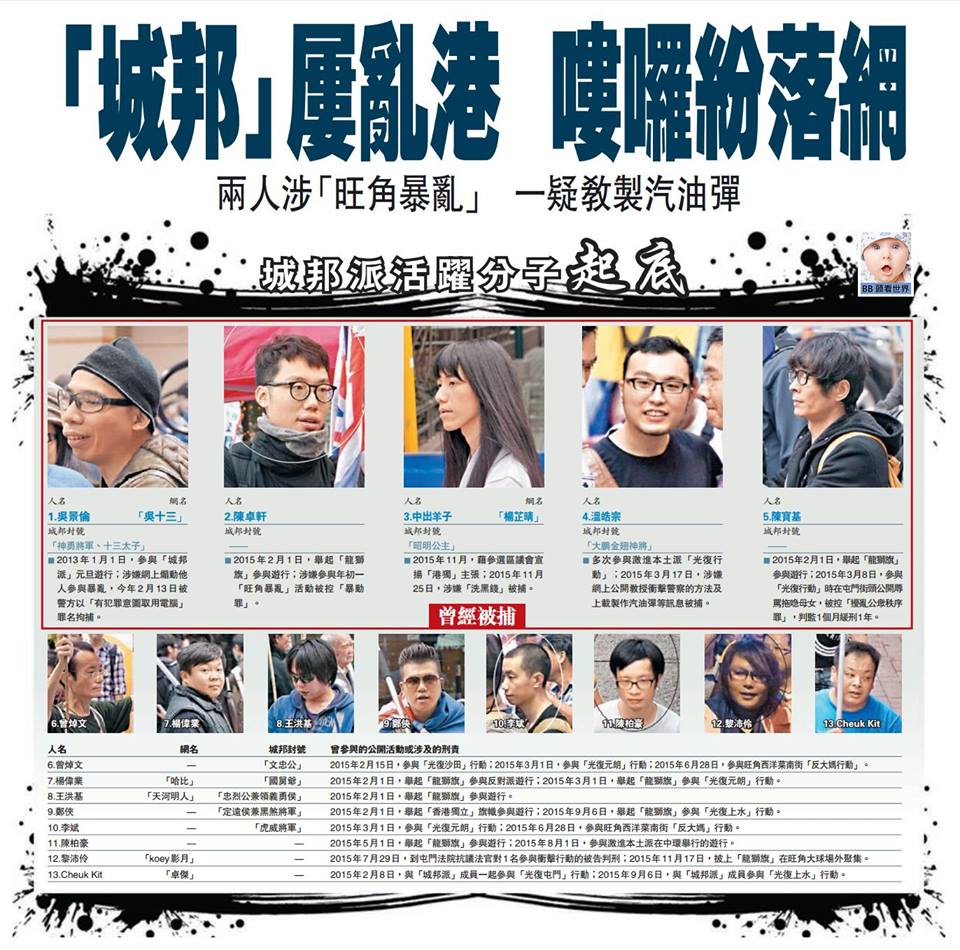
(SCMP)
February 19, 2016.
Thirteen protesters who
stormed Legco two years ago were spared jail terms yesterday by a magistrate
who said rallies sometimes served a noble cause.
Before sentencing the defendants to
community service in Eastern Court, Jason Wan Siu-ming said: �It could be
noble not only because people act for themselves, but they speak up for
those that are ignored. �To speak up and express an opinion for others,
especially those who are repressed, is by no means wrong.�
The 13 had taken part in an unlawful
assembly on June 13, 2014, when they stormed into the Legislative Council in
Admiralty in protest at controversial government plans to develop the
northeastern New Territories.
Wan was told that the defendants joined the
assembly on the day because they wanted to speak up for villagers who might
face eviction as a result of work on new towns. He noted that the defendants
only intended to take part in a peaceful protest that day and that events
did not escalate until they realised that lawmakers inside the chamber had
approved preliminary funding for the plan. �Their demand was clear. They
were not unleashing violence nor hurting people in order to get others to
change their views or listen to them,� Wan said, adding that it was never
their intent to damage property or hurt anyone.
Twelve of the protesters were found guilty
of taking part in an unlawful assembly after trial. They were: Leung
Hiu-yeung, 21, Raphael Wong Ho-ming, 26, Lau Kwok-leung, 23, Leung Wing-lai,
32, Ivan Lam Long-yin, 19, Chu Wai-chung, 18, Ho Kit-wang, 22, Kole Chow
Koot-yin, 26, Yim Man-wa, 22, Billy Chiu Hin-chung, 29, Kwok Yiu-cheong, 40,
and Chan Pak-shan, 26.
Leung Hiu-yeung was also found guilty of an
extra count of obstructing a Legco officer, while the 13th defendant, Wong
Kan-yuen, 24, pleaded guilty to one count of taking part in an unlawful
assembly and another of forcible entry.
They were all sentenced to 120 hours of
community services, except Wong, who got 80 hours, and Billy Chiu Hin-chung
and Chan Pak-shan, who were ordered to serve 150 hours.
During their mitigation pleas, most said
they did not feel remorse but were sorry that someone was hurt. Wan took
this to mean that they did not regret speaking up for the villagers. He
said: �If you say you�re remorseful now, I would think you probably lack a
bit of integrity.�
Earlier, the court heard how doors and
signs were damaged while a security guard was injured and other staff
frightened during the protest.
Wan cast reservations on their protest
methods and hoped they had learned their lesson. �No one would ever prevent
you from sacrificing yourself, but when you have to sacrifice others, is it
still worth it?� he asked. He said it would be wrong to disregard people�s
safety regardless of how strongly one felt about something. �Violence only
leads to more violence,� he reminded the defendants, urging them to use a
wiser way to protest in future.
Outside court, Raphael Wong, vice-chairman
of the League of Social Democrats, said the sentence was fair. But he said
he would appeal to clarify in a higher court whether it was right for the
Legco Commission to have sought assistance from the police, which led to
their convictions.
Internet comments:
- Why did
Billy Chiu Hin-chung
and Chan Pak-shan got 150 hours while the others got 120 hours or less? (Oriental
Daily) The probation officer actually did not recommend community
service for these two, because they already have long prior records. Chan
Pak-shan said that he was willing to do community service but there were
communication problems with the probation officer. When the magistrate asked
why Chan did not go to the meeting with the probation officer, Chan replied:
"It's not that I didn't go, but I went one day earlier." The magistrate
said: "So why didn't you come yesterday at 230pm for the sentencing? I tend
to think that you live in another spatio-temporal dimension. I don't know if
you understand common logic."
- In mitigation, Ho Kit-wang said that she
sat down with the others and waited to be arrested. Therefore, she was not
like one of those people who wear masks, cause chaos and flee before the
police arrive. She said that some people may think this is stupid, but she
said that it represents the willingness to accept responsibility.
- In a famous essay, Chris Wat Wing-yin
compared two cases. When a man stole some chocolate, he was sentenced to two
months in jail. When another man launched a cyber attack against government
websites, the magistrate allowed him to walk out of the courtroom free. The
magistrate has the almighty right to hand out whatever sentence he/she feels
like, even if the citizenry is perplexed. Thus came the famous saying:
警察拉人,法官放人 (the
police is responsible for arresting people, the magistrate is responsible
for freeing those people). This is how separation of powers works in Hong
Kong.
- (Oriental
Daily) May 6, 2016.
Ex-Scholarism
convener Ivan Lam Long-yin was
sentenced in January this year to 80 hours of community service. Afterwards,
Lam was accused by the probation officer of not answering phone calls,
missing appointments, showing up late and disappearing during service hours.
For example, Lam said that he had no cash and needed to withdraw money from
the bank, but he left without returning. Lam admitted to being negligent and
having a bad attitude. The magistrate said that while Lam performed well at
first, his attitude changed later. The magistrate will decide on May 20
after another report whether Lam should continue the community service or be
sent to jail immediately.
- Lam claimed that he got lost when he
tried to find an ATM in Tuen Mun. He is only 21 years old and maybe he does
not know how to use the GPS-based ATM locator apps (e.g.
Jetco).
(NOW
TV) May 20, 2016. After reading the probation report, the magistrate
gave Ivan Lam Long-yin a final chance to complete his community service. The
magistrate said that Lam will go to jail immediately if he fails again.

(Resistance
Live Media) February 3, 2016.
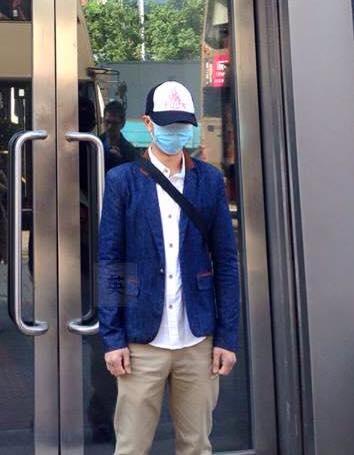
32-year-old renovation worker Jay Ku Ka-ho was
charged with two counts of using a computer with criminal intent. He was found
guilty on both counts today at the Kwun Tong District Court. Sentencing is
scheduled for March 17 pending probation reports.
According to information, Jay Ku forwarded a
Facebook post on December 3 titled "Sun Yat-sen's Revolution" about attacking
the police, restricted weapons, criminal destruction of property, etc. The
contents included:
- The brick squad: Requires metal bars
and hammers to prepare bricks to shoot the dogs
- The fire extinguisher squad: To
rescue anyone of our own who caught fire unintentionally; to direct smoke to
obscure the vision of the dogs.
- The bomb squad: To target the dog
vehicles not the dogs. Setting up a wall of fire to prevent the dogs from
charging through, backing up a few steps and then aiming at the vehicles. Each
person should manufacture at least three devices) (Bring your own hand washing
lotion)
(Manufacturing: Place the cloth trigger at the boom of the bottle and use melted
candle wax to seal the bottle so that the smell does not ooze out. Before
setting out, use plastic wrap/plastic bag to cover the cloth. When ready to use,
remove the plastic and light up ...
- Target destination: The Chiu Luen
minibus stop; the Legislative Council; the Nathan Road intersection)
According to witness Wong Shun-wah, he
works for a chemical supplies company. While eating breakfast on the morning of
December 4, he saw the Facebook post. Since this customers were spread about Yau
Tsim Mong, Central, Admiralty, Causeway Bay and Wanchai which were still
occupied at the time and the police were clashing with the occupiers, he was
worried about the police as well as himself being assaulted. Therefore he filed
a police report.
Defense lawyer Johnny Fox
cross-examined Wong. Fok said that the post did not mention the police at all.
So why should Wong be worried? Wong said that "shoot the dogs" mean "shoot the
police". Then he changed his position and agreed that the post did not mention
the word "police." Fok questioned why Wong did not mention the Occupy matter
during his statement to the police and he only brought this up in court.
Therefore, his statement in court is not consistent with the statement he made
to the police.
In the summary statement, Fok said that
the defense does not challenge the facts around the Facebook post. However, he
said that the charge of "criminal use of a computer" is debatable, because the
defendant merely forwarded a post "without understanding the meaning" of it.
Furthermore, the prosecution has failed to establish that the defendant intended
to commit a crime, nor any other evidence that anyone was incited to commit a
crime after reading the Facebook post. The post also did not mention the word
'police' and terms such as "Christmas Party" are ambiguous and unclear.
(Oriental
Daily) March 17, 2016.
Today at the Kwun Tong Court, Ku Ka-ho was sentenced to
six months in prison. The defense lawyer requested bail while pending
appeal, but the magistrate refused.
The defense said that the defendant studied in England as
a child and came back to Hong Kong to work in renovation/decoration. His
parents are both retired police sergeants. His fiancee wrote a letter to say
that they plan to get married in May and that she is pregnant. His friends
wrote to say that he is kindhearted and often works as a volunteer.
The magistrate said that the probation officer's report
showed that the defendant was not a good student. Although his parents
supported him to study in England, he did not try and wasted his parents'
money. When he returned to Hong Kong, he never held a steady job. The
report also showed that he showed no contrition over his crime. Furthermore,
inciting others to attack the police is a serious crime that has negative
impact on personal safety.
(Oriental
Daily) August 15, 2017.
Today the High Court ruled against Ku Ka-ho's appeal of
his 6 month sentence, and ordered him to pay $2,000 in legal females. In the
ruling, the judge said that Ku must be thinking that he is the
commander-in-chief in the Internet world, ordering the masses about without
needing to assume any personal responsibility. Being so bold and righteous,
how come he has no courage to accept responsibility for the consequences?
In his appeal, Ku said that he re-posted the information
for 'fun' and no other purpose, and the magistrate did understand the online
culture of sharing. In his ruling, the judge said that Ku said that he
re-posted the information for fun and also that he did not really understand
the contents. But the contents were in fact quite clear about what the
bricks team or the long rods team were supposed to do. Ku's purpose was to
incite his readers. Even if he was the original author, he used his own name
to comment twice. So re-posting is the same as posting the contents.
(Oriental
Daily) March 15, 2016.
32-year-old renovation worker Jay Ku
Ka-ho was at the Restore Yuen Long demonstration on March 1 2015. At the time,
Ku and companions bumped into another man. They quarreled and fought. Today at
the Tuen Mun Court, Ku was found guilty of common assault and sentenced to three
months in jail. Ku applied for bail pending appeal, but the magistrate turned
down the request.
(TVB)
March 17, 2016.
Previously Ku Ka-ho was sentenced to three months in
prison for assault. The magistrate in the other case refused to let the
three months and six months sentences be served concurrently. This means
that the total jail time will be 9 months.
(Hong
Kong Free Press) November 19, 2015.
Two people were charged by the Independent
Commission Against Corruption (ICAC) on Wednesday with conspiracy to accept
a bribe of up to HK$200,000 as inducement to stand in Sunday�s District
Council elections.
Thirty-two-year-old renovation worker Jay Ku
Ka-ho and merchant Chan Kin-loong, 37, face a joint charge of conspiracy to
engage in corrupt conduct at an election, contravening the Elections
(Corrupt and Illegal Conduct) Ordinance and Crimes Ordinance.
The charge alleges that between July 12 and
August 9, Ku and Chan, together with Anthony Cheng Wing-kin and one other
person, conspired for Ku to engage in corrupt conduct by accepting an
inducement from Cheng of between HK$150,000 and HK$200,000.
The sum was intended for Ku to
persuade Chan to stand as a candidate in a specified geographical
constituency. Chan ultimately did not put himself forward as a
candidate. Cheng, an online TV host, has previously faced charges of
bribery.
The defendants have been released on bail
and will appear at the Eastern Magistrates� Court on Friday afternoon for
sentencing.
(SCMP)
July 19, 2016.
A Hong Kong waiter was allegedly
instructed by someone he believed to be a mainland official to offer a
string of payments in a bid to induce localist groups to take part in the
district council polls last year, a court has heard.
Cheng Wing-kin, 31, who called
himself a government supporter, allegedly began to reach out to various localist groups including Youngspiration following meetings in Macau with
a Putonghua-speaking �Boss Li�, his ex-girlfriend Wan Hiu-yee told the
District Court on Tuesday.
Wan, a prosecution witness in the
case, said she was told by Cheng after the meetings that Li was looking
for �localist groups which are against the government� to run in the
elections as a springboard to prepare them for the Legislative Council
polls.
�He speculated that Li was from the
United Front Work Department,� she said, referring to the Beijing unit
that handles policies and relations with influential individuals and
organisations.
Though
unrelated, Wan also revealed that Cheng had met with Hong Kong Indigenous convenor Ray Wong Toi-yeung on at least three occasions in August last
year.
But the court did not hear why a
possible mainland official would root for localist candidates or any
details of the alleged meeting between Cheng and Wong.
Cheng, who studied international
relations at the Australian National University, denies eight counts of
engaging in corrupt conduct at an election by offering advantages to
localists to induce them to run in elections in designated districts.
He is also accused of conspiring to
rig the polls with co-defendants Ku Ka-ho, 32, and Chan Kin-loong, 37, who
are charged with one count of conspiracy to engage in corrupt conduct at
an election. All three pleaded not guilty.
Cheng, who had claimed to have the
backing of a mainland company, allegedly offered at least HK$810,000 to
eight people � mostly localist leaders, including Youngspiration�s Sixtus
Leung Chung-hang � between July and September last year, either to ask
them to run in the election in a list of designated districts or to refer
other candidates to him.
The payment varied mostly between
HK$150,000 and HK$200,000, the remainder of which the recipient was
allowed to keep after spending on election campaigns, prosecutors said.
But the ceiling for campaign expenses in the district council polls sits
at HK$63,100, the court heard.
Only Ku and
Chan, who claimed to belong to localist group All People Spontaneous, born
out of the Occupy protests of 2014, accepted money, with Ku taking
HK$30,000, the court heard.
Wan, a
former Scholarism member, said she tagged along to at least two meetings
with Li in which political views were exchanged.
The prosecution witness said Li
would get together with Cheng following every meeting the latter had with
a localist group to inquire about the outcome.
The case
was later leaked to the media, after which Cheng, who is also an online
radio host, met Li in Macau again, where he allegedly told Li he had
responded to a grilling from reporters by saying the money had been offered as an undercover test for localists as part of research for his
radio show.
But Wan recalled that Li had asked
how much it would cost to run the radio show and had been willing to fork
out HK$100,000.
In cross-examination, barrister
Jimmy Ma Yiu-tim, for Cheng, asked Wan if it was possible Cheng had been
asking Li to invest in his own media projects. But the ex-girlfriend
disagreed, saying it was more likely Cheng would have spent the money on
daily expenses.
�It was to cover up the true
intent of vote rigging,� she said.
(SCMP)
August 17, 2016.
The Democratic Party has dismissed
allegations of corruption brought against it by a waiter claiming to have
been working on behalf of a mainland official.
Cheng Wing-kin, a self-proclaimed
government �supporter on trial for corrupt conduct, told the District Court
yesterday that the Democratic Party offered localist group Youngspiration
some HK$800,000 to not run in the same districts during last year�s District
Council elections.
He claimed that Leos Lee Man-ho, from
Cheung Sha Wan Community Establishment Power, had revealed the offer between
the two parties to him while Cheng was researching a TV show.
Cheng said he had pitched the TV
show, aimed at examining the connection between the then emerging localist
camps and the pan-democrats, to an investor named �Mr Li� � claimed to be
from the Beijing�s United Front Work Department.
During the process, the waiter said
he suspected a close link between the Democratic Party and Youngspiration.
�Sometimes they [Youngspiration] claimed they would run in the electorates
in which the Democratic Party would run, and sometimes they claimed they
wouldn�t,� Cheng said.
In a statement, the Democratic Party
dismissed the waiter�s claims as lies and said it had never offered proceeds
to any groups to cheat in last year�s elections. �This sort of accusation is
absolutely false and wholly fabricated,� the statement said.
(SCMP)
August 18, 2016.
A waiter who testified that the
Democratic Party had paid a localist group HK$800,000 to avoid clashes in
last year�s district council elections asked a court for forgiveness on
Thursday as he clarified that he learned of the information from an internet
user.
Cheng Wing-kin, 31, testified on
Tuesday that he learned about the alleged payments to Youngspiration through
Leos Lee Man-ho from Cheung Sha Wan Community Establishment Power while he
was conducting research for a show.
But on Thursday he said there might
have been a �memory mix-up� due to misunderstandings that arose because the
evidence he prepared was different from the questions asked by his lawyer.
�I don�t blame my counsel,� Cheng
told the District Court. �I might have mixed up a tidbit with what Li said.
I ask for the court�s forgiveness.�
Cheng, who has also identified
himself as a media worker, is currently on trial for 12 counts of engaging
in corrupt conduct during an election.
He is accused of offering at least
HK$810,000 to eight people � mostly localist leaders, including
Youngspiration�s Sixtus Leung Chung-hang � between July and September last
year, either to ask them to run in the election in a list of designated
districts or to refer other candidates to him.
He is also accused of conspiring to
cheat the polls with co-defendants Ku Ka-ho, 32, and Chan Kin-loong, 37.
He had explained to judge Pang
Chung-ping that he approached different people to gather intelligence for a
show that aimed to expose election conspiracies, and payments were made to
lure them into sharing their election plans.
When asked about the Democratic
Party, Cheng said it was an internet user who shared the tidbit during a
face-to-face meeting. But he said he could not recall who that person was,
or when and where he learned the information. �It was a tidbit that I did
not take seriously,� he added.
Prosecutor Jonathan Man Tak-ho asked:
�Did you not find it big news?�
�I�m not a legal professional, but I
know from common sense that one has to look at the evidence,� Cheng replied.
The court also heard that he did not
pursue the matter and he could not recall much from the exchange � only that
core Youngspiration members were involved in price negotiations with the
Democratic Party.
�I put it to you that you never heard
[that], you just made things up,� Man said. Cheng disagreed.
(Oriental
Daily) October 24, 2016.
Cheng Wing-kin was found guilty on
six counts of election bribery. He was also guilty of one count of
conspiracy to commit election bribery with Ku Ka-ho and Chan Kin-loong.
While Cheng claimed that he was
gathering crime evidence for a television program and therefore all his
offers were fictitious, the judge said that Cheng went to meet localists
with his girlfriend Wan Hiu-yi without ever telling her that this was an
undercover operation.
The judge said that if Cheng was
really gathering evidence for a television program, he would surely make
recordings. Instead, Cheng took no recordings and asked others not to do so
either. Cheng also told the localists that they cannot have other
financiers. The judge said that if Cheng is conducting a criminal
investigation, then he surely would like the localists to tell him just who
is financing them.
On October 26, 2016, Cheung Wing-kin
was sentenced to four years in prison, Ku Ka-ho to 2 years 6 months and Chan
Kin-loong to 2 years 4 months.
(Hong
Kong Free Press) October 26, 2016.
A man was sentenced to four years� imprisonment on
Wednesday after offering at least HK$850,000 in bribes to localists to run
in last year�s District Council elections.
Cheng Wing-kin, 32, was convicted in the District Court on
Monday after trying to convince five localists, including Youngspiration
lawmaker Sixtus Leung Chung-hang, last summer to run in
specified constituencies in a bid to divert votes from other candidates such
as pro-democracy politician Frederick Fung. None of them took the money.
The judge said it is a very serious bribery case, as the
convicts had disregarded the election process. He said that the courts treat
any conduct of election fraud seriously in order to protect the credibility
of the election system.
The judge added that the case has negatively affected Hong
Kong�s democratic development and people�s confidence in the election
system.
Cheng offered HK$15,000 to HK$20,000 each to five
localists last summer. He told them that the money came from Chinese
businessmen who had �unlimited money, manpower and resources� to help
localists stand in the local elections.
Members of Youngspiration secretly recorded their
conversation with Cheng and then reported the incident to the Independent
Commission Against Corruption.
Cheng later told the court that a Chinese businessman
surnamed Li was behind the plan. A witness said that Cheng had met Li and
�other bosses� through layers of middlemen in Sheung Wan last April. Cheng
said he did not know the identity of the men he had met.
Local newspaper Ming Pao reported that one of the
middlemen was Gao Lingxiang, a former election campaigner of Chief Executive
Leung Chun-ying.
At the time when Gao introduced Cheng to another
middleman, Gao worked for a pro-Beijing organisation, whose patrons are
Leung and Zhang Xiaoming of the China Liaison Office.
Cheng was found guilty of six counts of engaging in
corrupt conduct during an election on Monday.
He was convicted of an extra count of conspiracy to engage
in corrupt conduct during an election with two others, who plotted with
Cheng and pocketed HK$36,000 as a reward. One was sentenced to two years and
a half in jail, and another to two years and four months.
(Oriental
Daily) May 4, 2017.
Jay Ku Ka-ho appealed his convictions on common assault,
incited of others to commit violent crimes and dishonest access to computer.
For the case of common assault, Ku did not have a lawyer
to represent himself. Ku said that the video of the incident was not shown
during the trial. Instead the magistrate watched the video privately and
gave the defense no chance to raise questions. Therefore this is unfair. Ku
also said that the video showed that the victim was struggling with him and
he grabbed the victim in self-defense. He said that victim was taller than
him, so that Ku could not reach him with a punch. But the appeal judge said,
"Even short people can hit tall people. If not, Bruce Li wouldn't be so
awesome." Ku said that he was assaulted by others but the police selectively
enforced the law by arresting and prosecuting only him.
The prosecution said that the video was presented in court
with the concurrence of both sides. During summation, the defense had to
change to discuss the video. Therefore it was not unfair.
As for the case of incitement to commit violent crimes,
Ku's lawyer said that his client merely forwarded a post. The initial trial
did not address the issue of authorship. The lawyer said that just because
Ku re-posted the essay, it does not mean that he approves the content. Ku
may have re-posted the essay merely to beg for more LIKE's.
The prosecution said that, under caution, Ku told the
police that he re-posted the essay but he was unable to say who wrote it. Ku
had kept a copy of the essay on his mobile phone first before posting it
onto Facebook. He did not indicate that this was a re-post. So it is
reasonable to infer that Ku was the original author who intended to incite.

(Oriental
Daily) March 7, 2016.
38-year-old male Adley Tsang Cheuk-him was charged
with one count of common assault. Tsang pleaded not guilty.
According to the female witness named Tsang,
she worked for the Hong Kong Jockey Club. On January 10, 2015, she was on duty
in charge of leading the VIP guest (Chief Executive CY Leung) to the stand to
hand out a trophy to the winner at the Hong Kong Jockey Club's 130th
anniversary event. On her way over, she felt a sudden pain on her right cheek
from being hit by a hard object. The pain caused her to burst in tears. But
because there were still many people waiting for the ceremony, she carried on
with her duties.
Afterwards, colleagues told her that someone in the crowd was throwing eggs.
So she reported the incident to her supervisor as well as the security guards.
She applied an ice pack on her face, after observing that some of her blood
vessels had bursted. On cross-examination, she said that she did not see who
threw the object at her.
According to security guard named Tsang, he
saw the defendant threw objects twice. The objects were brown-grey in color.
After the first time, the witness shouted for the defendant to stop and then
rushed up to subdue him. On cross-examination, the witness said that he did
not see whether the object hit the female victim or not.
The defense and the prosecution agreed on
certain facts, including the fact that the defendant had 40 intact eggs in his
backpack and that the female victim's right cheek was swollen.
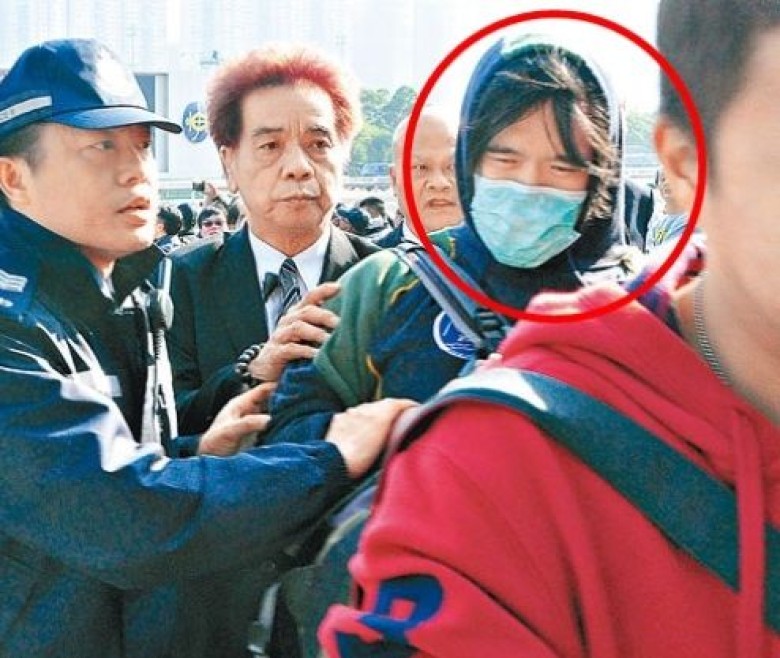
Cable TV video:
https://www.youtube.com/watch?v=k1PbsA0J82c
Compilation:
https://www.youtube.com/watch?v=F_bz8gCm0Ts
(Oriental
Daily) March 24, 2016.
Adley Tsang Cheuk-him was found guilty of common
assault today. According to the magistrate, the witnesses including the
security guard and the female worker who was hit by the egg were reliable.
Although the female worker could not say who threw the object or what the
object was, she could not have seen the defendant from among the hundreds of people
there. However, egg shells and yolk were found at the scene. So apart from the
defendant, nobody else could have done it. The security guard said that the
defendant threw a brown-colored ball-shaped object and 40 eggs were found in
the defendant's backpack.
The defense said that Tsang Cheuk-him only
wanted to express his discontent and he did not really mean to hit anyone with
the egg. Tsang is unemployed at present. He used to study psychology and was
actively involved in volunteer work. Because this incident is minor, the
defense requests a fine or community service.
(Hong
Kong Free Press) April 13, 2016.
A 38-year-old man has been sentenced by the
Sha Tin Magistrates� Court to 80 hours of community service for attempting
to throw eggs at Chief Executive Leung Chun-ying last January.
Adley Tsang Cheuk-him, a former
university research assistant and a long-time volunteer at the
Samaritan�s suicide prevention hotline service, was
earlier found guilty of common assault.
The court heard that Tsang tried to pelt
the Chief Executive with eggs at the Hong Kong Jockey Club�s (HKJC) 130th
anniversary event in January 2015, where Leung had been a guest presenting
awards. However, one of the eggs hit a HKJC staff member instead. The police
later found 40 eggs in his bags.
The counsel for the defence said that the
eggs did not hit any government officials and that the defendant�s
background and community service report came back positive. It showed that
the defendant felt deep remorse for his actions and that there was a low
chance of him repeating the offence, RTHK reported.
The magistrate, however, said that the
defendant had admitted to the probation officer that he was unhappy with the
person who had been on the stage � that being Leung � and questioned whether
he genuinely regretted his actions.
Tsang said that he is considering lodging
an appeal and that believed there were political factors behind his arrest,
Sing Tao Daily reported.
(Oriental
Daily) March 23, 2017.
Today Adley Tsang Cheuk-him filed an appeal
to the High Court of Appeal to ask for the original verdict to be
overturned. According to Tsang's lawyers, there were more than 100 persons
present at the scene, including some who were shouting. The magistrate
failed to consider the possibility that the egg that hit the victim may not
have been thrown by the defendant. According to the court testimony, the
victim did not see Tsang throw the egg at her and did not know where the egg
came from. The two security guards did not know whether the egg thrown by
Tsang was the one that hit the victim. Therefore the verdict was wrong.
The prosecutor said that Tsang was found to
be carrying 40 eggs in his backpack. Under caution, he admitted that he
purchased 60 eggs and brought them to the race course. He also admitted that
he threw eggs at the scene. There is no evidence that anyone else threw eggs
at the scene. Therefore, it was reasonable for the magistrate to deduce that
Tsang was the one who threw the egg that hit the victim.
(HKG
Pao) April 25, 2017.
The Court of Appeal turned down Tsang
Cheuk-him's appeal. There is conclusive evidence that Tsang threw an egg in
the direction of the female Jockey Club worker. The trial magistrate had
combined the evidence to determine that the plaintiff was the attacker,
including (1) the defendant was standing to the right side of the victim;
(2) the defendant admitted to carrying 60 eggs to the Jockey Club but his
backpack contained only 40 eggs; (3) a witness saw the plaintiff throw a
round-shaped object as the guests approached the awards stage.

(Oriental
Daily) (Oriental
Daily) (Commercial
Radio) (Oriental
Daily) March 11, 2016.
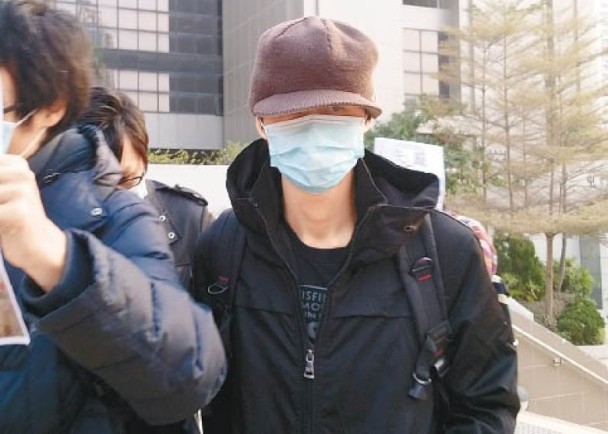
26-year-old security guard Lam Tat-Wing was
arrested during the anti-parallel traders demonstration in Yuen Long on March
1 2015. He was found to carry a spray bottle containing a mixture of chili
oil and alcohol. The defense lawyer said the defendant went that day to watch
but not to participate in the demonstration. Furthermore, the contents inside
his backpack is unrelated to the activity and besides the chili oil does not
cause permanent injury unlike other deadly weapons. The defendant was also
said to have no political affiliation and there is no evidence to indicate
that he is a radical.
According to an expert witness named Poon,
the modified mixture works like pepper spray. But the defense lawyer said that
Poon only conducted similar analyses and did not actually make an experimental
test. The defense lawyer said that many herbal medicine such as diet reduction
medications also contain chili oil. Poon said that large amounts of chili
oil will cause burning sensations on human bodies, especially the eyes. Poon
said that the density of the chili oil in this mixture is about 1/30-th to
1/1000-th of pepper spray.
According to police inspector Ng Chi-yung, he
intercepted the defendant and found a spray bottle of chili oil mixture in
the coat pocket. The defense lawyer said that Ng opened the spray bottle and
told Lee to taste it. Under threat, the defendant admitted that the spray
bottle contained "chili oil mixed with water." Therefore this confession
was not made voluntarily and should be disregarded because the police did not
caution the defendant beforehand. The magistrate ruled that Ng had
voluntarily told the police officer about what the contents of the spray
bottle were. Ng later told the magistrate that someone whispered to him during
court recess: "Be careful of what you say. Do not lie." The magistrate told
the police to follow up on the matter.
The defense lawyer presented five letters of
plea to the magistrate. In one letter, Lee's mother said that the defendant
was born in a lower-class family, was assessed to be mildly retarded when he
entered primary school and had problems communicating with teachers and fellow
students. She said that her son is gentle, kind and filled with filial piety, and
this case has created sleeping problems for him.
In rendering the verdict, the magistrate said
that the weapon could not be purchased and cannot be consumed or applied as
medication. Therefore the defendant concocted this particular mixture in a
premeditated fashion in order to cause a burning sensation to eyes. There were
hundreds of people at the scene, so the use of the weapon could pose a risk to
those present. At the time of arrest, the defendant had approached the crowd
but turned around when he saw the police. The spray bottle was in his coat
pocket at the time, not in the backpack. Therefore the defendant was deemed to
want to use the spray at the time. The sentence took into consideration the
mitigation offered by the defense, including the expression of remorse from
the defendant.
However, the court must send the public a deterrent message that using
violence will not be tolerated.
Therefore the magistrate found the defendant
guilty of carrying a controlled assault weapon in a public place and sentenced
him to four months in prison. He was allowed to be out on $10,000 bail pending
appeal.
(Oriental
Daily) October 13, 2016.
At the High Court, Lam Tat-wing argued that
there was insufficient evidence for the magistrate to conclude that the sole
purpose of concealing a spray bottle of chili oil in his pocket was to injure
people. However, the judge said that the situation at the time plus the lack
of a plausible alternate explanation from the defendant made the magistrate's
conclusion reasonable. Lam's 4-month sentence is to begin immediately.

(Hong
Kong Free Press) March 2, 2016.
A man who was accused of attacking a
teenager wearing a yellow ribbon had his conviction for common assault
overturned at the High Court, after seeking help from the University of Hong
Kong�s free legal assistance scheme.
According to the charges, Man Ho-chuen �
also known as �the Victoria Park uncle� � was accused of pulling at a yellow
ribbon a 19-year-old was wearing and stabbing his neck with his fingers
outside the Bank of China Tower in Admiralty during the pro-democracy Occupy
protests in October 2014.
He was originally convicted of common assault
and sentenced to seven days in jail. He then sought help from HKU�s free legal
assistance scheme, Ming Pao reported.
Man was represented by HKU principal law
lecturer Eric Cheung Tat-ming. His conviction and sentence were overturned on
appeal at the High Court on Tuesday afternoon. Cheung argued that the teenager
claimed his injury was serious and that it had hurt for days, but did not
report the matter to the police until after someone showed him a picture with
Man in it. The prosecution also did not summon any witnesses to verify whether
the picture was authentic, Apple Daily reported.
Cheung argued that the picture should not
have been submitted as evidence at all. The Honourable Justice Barnes said
that the trial judge had not analysed these issues and said there was a chance
that the picture was not authentic. She also said that Man was not represented
at the trial by any lawyers, and it was strange that no one else testified to
having witnessed the incident, Oriental Daily reported. She overturned the
conviction, and the prosecution did not apply for a re-trial.
Cheung said that Man had given him a scolding
in the past as well, but the HKU scheme does not discriminate or turn
away defendants with different political views. Man also said that he had
criticised Cheung, but it was not personal. Man and Cheung shook hands after
the case.
(Hong
Kong Free Press) March 15, 2016.
An Agence France-Presse photojournalist has
said that a photo he took of an altercation during the 2014 pro-democracy
Occupy protests is genuine, after a court quashed a common assault
conviction saying the image could have been forged. Photographer Alex Ogle
said that the prosecution had failed to summon him as a witness to verify
the authenticity of the picture.
According to the charges, Man Ho-chuen �
also known as �the Victoria Park uncle� � was accused of pulling at a yellow
ribbon worn by a 19-year-old and jabbing his neck with his fingers outside
the Bank of China Tower in Admiralty during the Umbrella Movement protests
in October 2014.
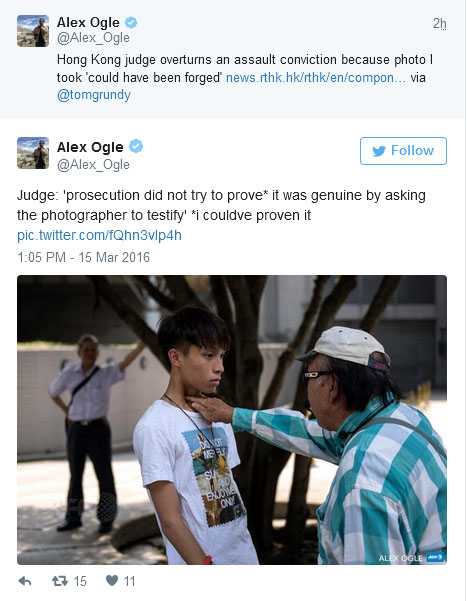
He was originally convicted of common
assault and sentenced to seven days in jail, but the conviction was
overturned earlier this month after the authenticity of the picture was
questioned in court. �The prosecution could have asked and I could have
provided original files, and a dozen pictures taken before and after the
specific photo in question, which would have clearly shown it was not a set
up,� Alex Ogle told HKFP.
In handing down the judgment on Monday,
Madam Justice Judianna Barnes said that the protester did not report the
matter to the police until after someone showed him a picture on the
internet. She also said that the prosecution did not summon any witnesses to
the incident, nor did they summon the photographer who could have verified
the image.

(Oriental
Daily) March 17, 2016.
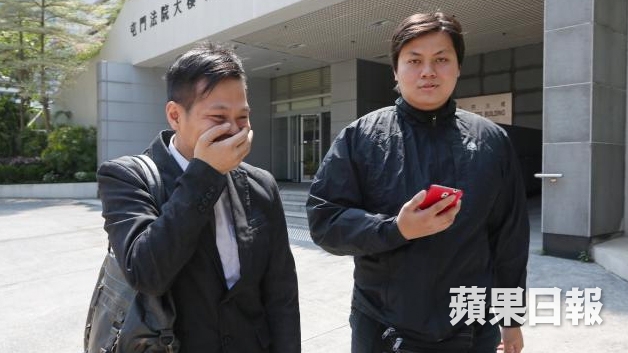
34-year-old unemployed man Chan Yiu-shing and
29-year-old construction worker Cheng Wai-sing were charged with possession of
restricted weapons of assault. According to the prosecutor, the two defendants
were found with five and one bottle of chili oil respectively on On Ning
Road, Yuen Long on March 1, 2015. The defense does not contest possession of
said objects, but challenges the interpretation of the chill oil. They intend
to bring in Cheung's girlfriend to explain his eating habits.
According to police sergeant Wong Tin-sing,
he was patrolling in plainclothes and noticed the two defendants who were
wearing plastic body armor, neon-yellow reflective vests and several bags
attached to their bodies. The two defendants were looking around. Wong and his
colleagues intercepted the two. Wong identified himself as a police officer
and asked what the two were doing in Yuen Long. Chan said that he was here to
provide emergency medical care, but declined to elaborate further. Five spray
bottles and one switchblade were bound in the hip bag of Chan. Chan said that
the bottles contained chili oil. Wong arrested Chan. Afterwards, Chan told
Wong that he had worked as a kitchen worker, a garage technician plus ten
years as a lifeguard. In 2000, he gave up working in order to take care of his
children.
The defense said that Chan had explained to
Wong that the chili oil was intended be used with food. Wong disagreed.
The defendants are also implicated in the
case of The Bomb Factory.
(Wen
Wei Po) March 18, 2016.
Doctor Poon Wai-ming from the Department of
Health said that the liquid was a mixture of capsaicin, dihyrdo-capsaicin and
isopropyl alcohol which can caused heated sensation and excitement in human
bodies. However, the intensity was far less than pepper spray and therefore
the liquid will only cause mild discomfort like being overexposed under the
sun or having sand blown into the eyes. Poon agreed that capsaicin and
dihyrdocapsaicin can be present in natural foods and plants.
(Oriental
Daily) May 26, 2016.
The magistrate said that the explanations
from the two defendants were unreliable.
Chan Yiu-shing said that he went there to
offer emergency help, but his chest armor was clearly not related to any such
help. Chan also claimed that his five bottles of chili were given to him by a
relative in mainland China. However, he never asked the relative where the
bottles came from.
Cheng Wai-sing said that his bottle of chili
oil was given to him by a friend. However, he was not able to get this friend
to testify to that effect. Cheng said that he had eaten food with this chili
oil before, but he was not able to explain the process in detail. The
magistrate cited the laboratory report that the chili oil was not fit for
human consumption and that it could cause discomfort if it comes into contact
with the eye. The magistrate concluded that the defendants brought the chili
oil spray to the demonstration in order to attack other people. Therefore he
found the defendants guilty as charged.
(Oriental
Daily) June 8, 2016.
At sentencing, the defense pleaded that
the the quantity and density of the chili oil were small and would not be too
harmful to humans. In addition, defendant Chan Yiu-shing had provided emergency
care during the Occupy movement. The magistrate said that the evidence showed
the two defendants were arrested in an area where demonstrators were charging
the police line. If the chili oil was sprayed, it would have escalated the
clash and caused injuries. 34-year-old Chan Yiu-shing was sentenced to 9 months
in jail while 29-year-old Cheng Wai-sing was sentenced to 6 months in jail.
The magistrate rejected requests for bail pending appeal.
(Oriental
Daily) April 7, 2017.
After serving their terms, Chan Yiu-shing and
Cheng Wai-sing appealed to the High Court. They said that the pepper spray was
used for consumption because they really like hot and spicy food.
Today the judge did not agree that there was
insufficient evidence that the restricted chili oil spray was not for
consumption. The judge said that the original judge considered the testimonies
of an expert as well as the Food and Environmental Hygiene Department, and
therefore the verdict was reasonable.
Chan Yiu-shing appealed for a reduction in
sentence. The judge said that Chan had pre-meditated his action. His
restricted weapon was not intended for self-defense; instead it may affect the
rights of peaceful demonstration by citizens and cause people to get worried.
Therefore nine months was not necessarily excessive. Therefore the appeals
were rejected.

(Wen
Wei Po) March 18, 2016.
29-year-old appellant Wan Wai-tai was
previously sentenced to 14 days in prison for throwing a water bottle at a
police superintendent. He appealed to the High Court today.
According to the defense lawyer, the
situation was chaotic and the two witnesses may not be referring to the same
incident. The judge said that the defendant was 5'10" tall and therefore
taller than most people. Furthermore, he was only two feet away from the
police superintendent when he threw the bottle. "How can he make a
misidentification when the person was right in front of him!"
At the time, the plainclothes police officer
tailed the defendant and made the arrest 30 minutes later together with other
police officers. The defense lawyer said that "given the chaotic conditions,
the possibility that the plainclothes police officer followed the wrong person
cannot be excluded."
The judge said that no evidence was offered
to support the thesis. "During Occupy Mong Kok, those people either sat or
stood there ... I don't think it was particularly chaotic." The judge said
that the plainclothes police officer had undergone training and won't
misidentify a person.
The defense lawyer said that the plainclothes
police officer stood at the right rear of the defendant without seeing his
face from in front. The judge said: "A person can move his body around ... how
can you say that he did not see the face?"
Therefore the appeal was denied.

(Hong
Kong Free Press) March 30, 2016.
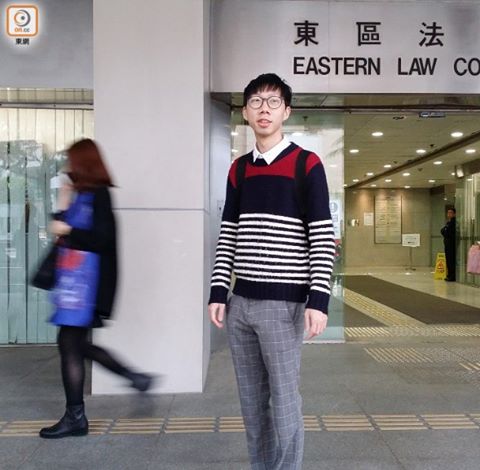
A
student activist is free after being acquitted of assaulting a policeman
during the 2014 democracy protests. A judge in Eastern magistrate�s
court ruled that the officer�s testimony was questionable and might have
been made in collusion with a fellow policeman who served as a witness, Ming
Pao Daily reports.
The 25-year-old defendant, surnamed Ngan,
was cleared of assault and ordered reimbursed for costs.
Senior inspector Ku Siu-fai had told the
court that Ngan grabbed him by his shirt. A police witness corroborated Ku�s
testimony. But the judge questioned why this particular incident was never
included in Ku�s sworn statement two years ago. He said there might have
been collusion between Ku and the witness. Also, the judge dismissed Ku�s
claim that Ngan grabbed his belt and pulled him back, saying the latter, who
weighs less than 100 lbs. (46.3 kg) could not do that to a 140-lb. man.
Ku�s testimony was inconsistent with a TVB
news video of the incident, the judge ruled.
However, he denied a motion by defense
lawyer Douglas Kwok that Ku be investigated for making false statements,
leaving the matter to the prosecution. Kwok later told reporters outside the
court house that the Justice Department should treat any collusion between
witnesses seriously.
In a
written reply, the department said it will take the magistrate�s ruling into
consideration and decide whether to pursue it. Kwok said all four
cases he handled relating to the street protests have now either been
dropped or ended in acquittal.
Internet comments:
- I thank the judge for making things so
clear about how anyone who weighs less than 100 lbs cannot pull back a
140-lb. man. I have always been thinking about learning judo, aikido or
jiu-jitsu, but the judge has clarified that these so-called martial arts
techniques are fraudulent.
- Someone ought to report these frauds
to the Customs Department/Consumer Council for false advertising claims.
For example,
Brazilian jiu-jitsu "promotes the concept that a smaller, weaker
person can successfully defend against a bigger, stronger assailant by
using proper technique, leverage, and most notably, taking the fight to
the ground ..." So the judge has ruled that this is impossible.
Under Common Law, the precedent is universally valid and applicable to
all other cases.

(Oriental
Daily) October 30, 2016.
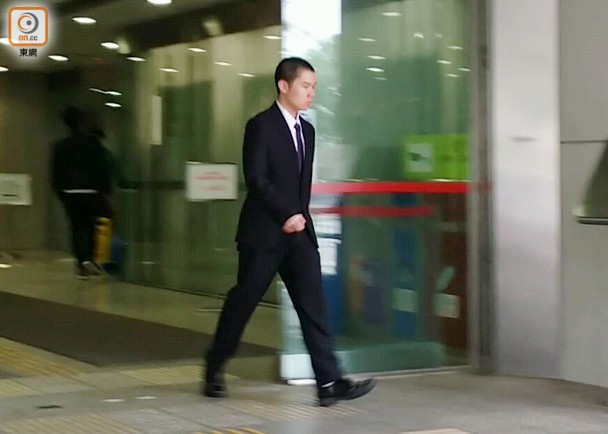
23-year-old Sun Tak-fat used the Anonymous
Asia page to launch three attacks at the Hong Kong Public Library website,
hitting it more than 13,000 times between October and December 2014. During
one episode, the website was hit more than 7,400 times. The police arrested
him at his home, and found that his computer contained a video that taught
how to attack websites. The defendant that he got curious after reading a
web page on "Save Hong Kong, do not be passive to the Hong Kong Government"
and hit the link that launched the attacks. The defendant pleaded guilty to
three counts of criminal property damage. He was sentenced to 18 months of
rehabilitation, subject to not participating in illegal assemblies and
demonstrations, or posting inflammatory information on the Internet.

(Oriental
Daily) April 29, 2016.
27-year-old transportation worker Tang
Tak-chuen was arrested on October 17, 2014 for taking a baton away from a
female police officer in Mong Kok. Tang was charged with obstruction of police
business, found guilty and sentenced to four weeks in jail. Tang filed an
appeal of the verdict on the grounds that the magistrate refused to accept
Tang's testimony and also incorrectly accepted the testimony of the female
police officer. Today, the High Court turned down the appeal because there was
nothing controversial in the trial proceedings and ordered Tang to serve his
jail sentence immediately.

(SCMP)
June 7, 2016.
Demosisto secretary
general Joshua Wong Chi-fung was told to reflect on his behaviour at a
protest outside Beijing�s liaison office in June 2014 as a magistrate
acquitted him and three others of police obstruction charges.
The Eastern Court case
centred on the burning of a prop of Beijing�s white paper � addressing the
extent of Hong Kong�s autonomy � outside the central government�s liaison
office in the city�s Western district on June 11, 2014.
Four men were arrested
13 months later for allegedly obstructing police: League of Social Democrats
vice-chairman Raphael Wong Ho-ming, 27; radical lawmaker Albert Chan Wai-yip,
61; Demosisto chairman Nathan Law Kwun-chung, 23; and Joshua Wong, 19. All
four earlier denied the charges.
Magistrate Lee Siu-ho said the court
respected the public�s right to expression and protest, but pointed out that
such rights are not absolute as public safety must also be considered.
He ruled that Raphael
Wong and Chan had obstructed police duties when they pushed aside
plainclothes sergeant Ho Kwok-chu, who was trying to put out the fire, and
also found Joshua Wong had blocked Ho�s passage and seized the water bottle
of another plainclothes sergeant, Lai Kin-man.
But he sided with
defence in concluding that their acts did not amount to an obstruction in
the legal sense as the two police officers concerned were merely
inconvenienced in the execution of their duties.
Still, he asked Joshua
Wong to reflect on the incident, after pointing out that the student
activist did seize a police officer�s water bottle and intentionally dump it
on the ground when he could have simply handed it over.
Their brief encounter
eventually drew an angry crowd of protesters, with some hurling verbal abuse
at Lai.
The magistrate said it
was not Joshua Wong�s fault that the crowd jeered at Lai and prevented him
from continuing his duties. But Lee said he must speak for the officer
because he was only executing his duty to ensure public safety, but was
branded a Communist Party member and mainland security personnel by
protesters on site.
Supporters of the four
clapped in the public gallery as soon as the full verdict was heard, with a
male voice cheering �yeah� before the magistrate asked the court to quiet
down.
(SCMP)
Joshua Wong, Hong Kong�s very own version of The Boy Who Cried Wolf. By
Alice Wu. June 12, 2016.
Young activist Joshua Wong Chi-fung was
acquitted of two charges of obstructing the police last week, but the
magistrate told Wong to reflect on his behaviour. Introspection is sound
advice, for any age, but for Wong, I hope he takes magistrate Lee Siu-ho�s
words to heart.
To Wong�s credit, he said outside court
that he would bear in mind the magistrate�s reminder but, almost in the same
breath, he accused the Department of Justice of being most in need of
reflection. There is no doubt Wong is �politician� material � he went
straight from that to calling his latest adventure in court �political
prosecution�. �Why waste time and resources on this political prosecution?�
he asked. Yes, old habits, even for a young person, die hard.
It was just two short months ago that Wong
accused the Hongkong and Shanghai Banking Corporation of �political
censorship� in rejecting his application for a personal joint account to
handle the business of his political party. It turned out he had refused to
provide some information to the bank out of �privacy concerns�. The truth is
that the �fuss� � as Wong called it � was not because he is a �politically
sensitive person�, as he claimed. There are rules and regulations the banks
have to adhere to. The media headlines Wong generated might have said that
his new political party was refused by HSBC, but he had applied under his
own name for a joint account with a fellow party member.
Playing the victim may get you headlines
but, at some point, playing the righteous victim becomes a dangerous habit.
Over time, it not only becomes old, but also clouds judgment when everything
is seen through the same lens; it is the very seed that sprouts narcissistic
rationalisation. It blinds us to our shortcomings; it is always someone
else�s fault. It is detrimental not simply because it erodes credibility �
in the vein of Aesop�s The Boy Who Cried Wolf. Self-delusional self-pity is
cancerous; it stifles the cultivation of character.
Wong�s lawyer compared
him to Canto-pop star Leon Lai Ming, and argued the case against police
obstruction by saying that Wong could not be held responsible for the
actions of his fans, just as Lai would not be held responsible for the
actions of his fans. There�s obviously some truth in that. But the
magistrate also deemed Wong�s behaviour �inappropriate�, and prescribed
introspection. Should Wong be willing to grade himself as unforgivingly as
he does those whom his vitriol has graced, then he would be scoring
victories that will truly affect his future, since self-reflection builds
character.

(Wen
Wei Po) June 14, 2016.
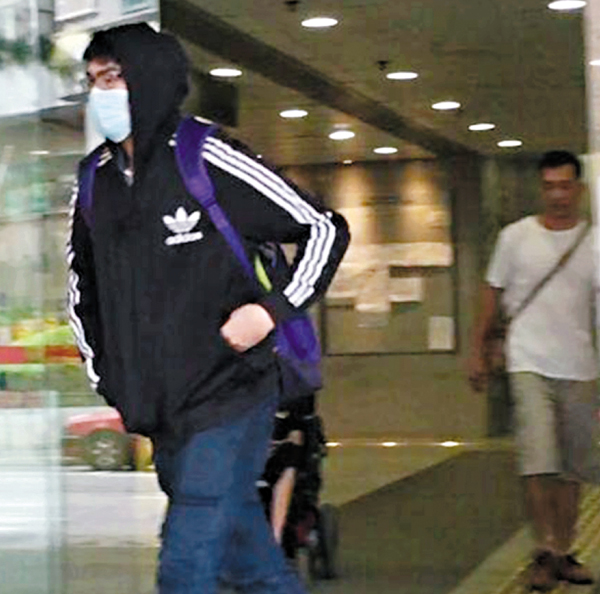
At around 11am on January 14, 2016, a
Legislative Council worker named Fong received an email: "I just placed some
feces in the Legislative Council. You can't find me. The Legislative Council
is trash." At around 5pm, Fong received another email: "I placed a bomb in the
Legislative Council restroom. It will explode at 6pm! People will die in the
Legislative Council." The Legislative Council secretariat decided to call the
police, which dispatched three vans and many police officers to the scene. The
police searched the building but did not find anything. The Fire Department
was also on alert at the scene. Afterwards, the police tracked the emails to
the home of 23-year-old restaurant waiter Tsang Tsz-kin. When the police went
there to make the arrest, Tsang said: "Will I go to jail? I am very scared."
The defense said that the defendant has no
prior criminal record. Tsang was born with hearing impairment and has to
communicate with sign language. The case is also peculiar because the
defendant did not attempt to conceal his identity and admitted to the crime
when arrested. The mentioned objects were not found at the Legislative
Council, so there was no harm. However, the magistrate said that the charge is
serious and the stupidity of the defendant cannot be a reason for mitigation.
Sentencing is scheduled for August 8th.
(Headline
Daily) August 8, 2016.
Tsang Tsz-kin was sentenced to 12 months of
rehabilitation during which he will participate in activities directed by the
probation officer. The probation report said that the waiter Tsang Tsz-kin has
a hearing impairment and poor communicative skills such that he is unable to
explain the pressures to his parents. The defendant presented a letter from
the school principal to plead his case.

(SCMP)
May 14, 2016
A student at the
Institute of Education has applied for a judicial review to overturn a
decision by town planners to endorse rezoning plans that would allow the
building of flats on five green-belt sites in Tai Po.
Yau Ka-po, 21, said he
was "not against" rezoning land to meet the city's pressing housing needs,
but he stressed the green belt should not be touched and said the decision
went "far beyond the public's expectation". "I don't agree with the
principle of sacrificing green belts for development at the expense of the
environment," the second year education student said, adding that he would
apply for legal aid if leave was granted.
Yau's application to
the High Court will challenge the rezoning plans on grounds of environmental
impact, with at least one site mentioned being home to more than 2,000
trees.
The
plans were approved by the Town Planning Board on February 13. One of the
sites involves a 4.13-hectare plot in Lo Fai Road, where 660 private flats
are now set to be built. The government plans to turn a total of 70
green-belt sites, covering an area of 150 hectares in all, over for housing
- a key pillar of its ambitious target of adding 480,000 new homes by 2019.
Secretary for
Development Paul Chan Mo-po has repeatedly stressed that the 70 sites
account for just 1 per cent of all the city's green-belt sites and that most
of the sites targeted were "de-vegetated" and of relatively lower
conservation value. Chan said that, if approved for rezoning, the sites
could provide land for building up to 89,000 flats; 70 per cent would be set
aside for public housing.
But Yau said: "This
will set a precedent and if let to continue, all of Hong Kong's green
recreational areas will be gone." He said he worried that the government's
next target would be the country parks.
The chief executive of
the environmental group Green Sense, Roy Tam Hoi-pong, who is helping Yau
with his application, said the minister failed to consult the public on
plans to review the green belt and instead "passed the buck" to town
planners. Tam also stressed that the plans, which would involve destruction
of forests in the area, amounted to a major policy decision but were only
made public for the first time by Chan in his official blog last year. "This
is an unacceptable way to inform the public," Tam said.
The Town Planning
Board said it would not comment on the review.
(Oriental
Daily) June 14, 2016.
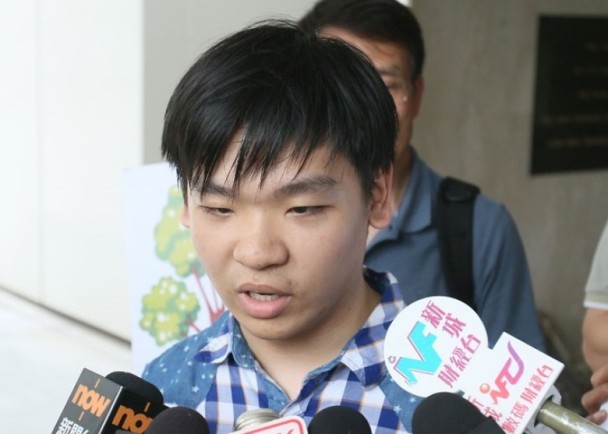
Institute of Education student Yau Ka-po was
dissatisfied with Town Planning Board's plan to turn five lots of 'green'
land into low-density housing units and public housing estates. Last May,
Chiu applied for a judicial review at the High Court. Today the High Court
formally turned back Chiu's application.
Previously the High Court had accepted Chiu's
application. But today the High Court accepted the application by the Town
Planning Board to rescind the original decision (HCAL
67/2015). The judge pointed out
that when Chiu applied originally, he did not frankly and fully disclose
certain key information to the court. Even if Chiu and his legal team did not
deliberately conceal these facts, it is still clear that they ignore their
presence. Had Chiu disclosed the key information, the court would not have
accepted his application. Allowing Chiu to proceed with the judicial review
would be an abuse of the judicial process.
The judge said that it was a serious mistake
for Chiu to distort the position of the government. But Chiu wanted to shift
the burden of full and frank disclosure to the Town Planning Board
instead. As a result, the Legal Aid Department has spent about $1 million of
public money to help Chiu pursue this case.
At this time, the judge is considering
whether to make Chiu pay for the $1,000,000 legal fees incurred by the Legal
Aid Department plus the $900,000 legal fees incurred by the Town Planning
Board. The judge gave Chiu seven days to find a reason to convince the
judge to change his mind on July 21.
(Oriental
Daily) August 25, 2016.
Today the High Court was scheduled to hear the
judicial review by Yau Ka-po against the Executive Council on the plan to turn
five lots of 'green' land into low-density housing units and public housing
estates. However, neither party appeared in court because Yau Ka-po has
withdrawn his application. According to information, Yau has incurred $1.9
million of public funds in legal fees over the past two years, and the court
is considering whether to make Yau pay all or part of that sum.
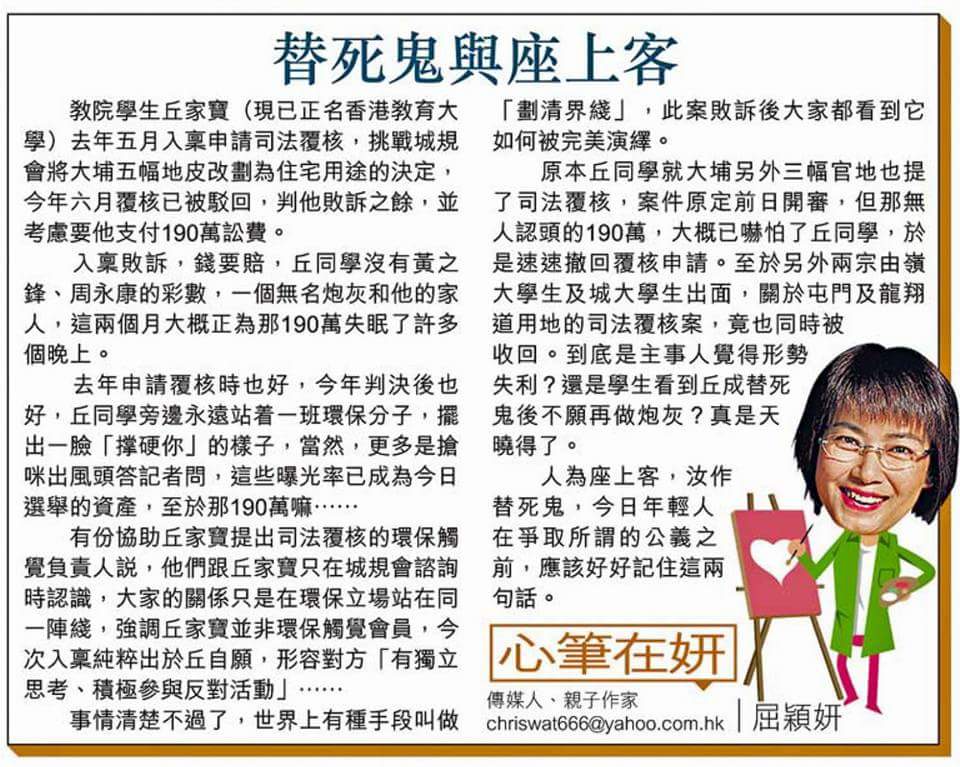
Chris Wat Wing-yin. August 25, 2016.
... After losing his case, Yau will have to
pay. Yau was not as lucky as Alex Chow and Joshua Wong, and he and his family
must have been losing sleep over the past 2 months over the $1.9 million bill.
During the time between the filing of the
judicial review and the court ruling, a group of environmental protectors were
always by Yau's side. They said that they support him completely. They wanted to seize
the microphone and talk to the press. Those moments are assets for the
election today.
Green Sense leader Roy Tam Hoi-pong is now
saying
that they only met Yau Ka-po during the Town Planning Board consultations and
their only commonality is that they all support environmental conservation.
Tam emphasized that Yau is not a Green Sense member and that Yau filed the
judicial review on his own: "He has independent thinking and he has actively
participated in protest moments ..."
So it is very clear now. There is something
called "severance of relationship" and it is being perfectly displayed after this case
was lost.
Yau had also filed judicial reviews over
three pieces of government land in Tai po. The case was scheduled to be heard
yesterday. But since nobody wanted to pay the $1.9 million, Yau withdrew the
application. In the meantime, there were two others cases filed separately by
a Lingnan University student on land use in Tuen Mun and by a City University
student on land use at Lung Cheung Road. Both applications have been withdrawn
as well. Who knows whether the principals know that their cases were lost or
they didn't want to be cannon folder for other persons?
So you hold all the responsibility while
others sit in the audience and watch. Young people who think that they are
fighting of public justice should take heed about what happened here.
(SCMP)
January 6, 2016.
A Hong Kong student who lost his court
bid to block plans to build flats on green-belt sites had to take
responsibility for the consequences of his actions and pay an unspecified
portion of a HK$1.9 million legal bill, the High Court ruled on Friday.
The court also warned Yau Ka-po, a legal aid recipient, against abusing
the assistance mechanism. Madam Justice Queeny Au Yeung Kwai-yue stated:
�Public funds should not be misused.�
In reply to a Post inquiry, the Legal Aid
Department echoed the judge�s views. �Legal aid is to assist those who
lack means and should in no way be abused,� the department said.
Yau, a student at the Education
University, applied for a judicial review in May 2015 over a Town Planning
Board decision to rezone the sites in Tai Po. After giving permission for
a substantive hearing, Au Yeung found there had been �serious material
non-disclosure� by the student.
According to her ruling handed down in
June last year, the undisclosed items showed the government had made
certain references to reviews of the green-belt sites in question. Had
there been disclosure of such items, a number of statements in Yau�s case
would have been rendered untrue, the judge said. She dismissed the case on
the grounds that its continuation would amount to abuse of court process
and ordered the student to bear the Town Planning Board�s legal costs,
which were assessed at HK$900,000.
Au Yeung also asked the student to
explain why he should not personally bear his own costs, which are said to
have totalled about HK$1 million. The judge also discussed the matter with
relevant parties, including the Legal Aid Department, in a closed-door
session.
Au Yeung said later in open court that
she would approve a settlement between the student, who did not attend the
session, and other parties over costs.
The judge said Yau had apologised to the
court for what he had done. In his submission, the �remorseful� student
claimed he could be �bankrupted� if he was required to personally bear his
own legal costs and that of the winning party.
But in deciding how much Yau, who had
pursued the lawsuit with legal aid, should pay, the judge said he had to
accept responsibility for the consequences of his actions. Au Yeung said
the student should not be exempted from paying legal costs on grounds that
he did not have the money. The settlement was reached based on a
recognition that public funds should not be wasted, she added.
The court ordered that the terms of the
settlement be kept confidential.
�We are therefore not able to disclose
any details,� the Legal Aid Department said.
Internet comments:
- I recommend Yau Ka-po plead mental
retardation to avoid paying the bill. This has worked in a number of Occupy
Central/Yellow Ribbon cases before.
- I saw the video of him speaking to the
press. I believe that a strong case can be made for mental retardation.
- His parents will be held responsible
because they didn't stop him in the first place. They spoiled their son and
now they should reap their just rewards.
- In social activism, we have a sense of
solidarity. 一方有難,八方聲援
(When someone is in trouble, everybody else helps out.) But in this case,
there was nothing but scorn for Yau Ka-po on social media. "The fool was used"
was the common refrain.
- The Yellow Ribbons always say "We the
people of Hong Kong ... blah blah blah ..." There are 7.3 million people in
Hong Kong. If each person gives $1, that would be more than enough to pay for Yau Ka-po's legal bill. So I am going to start a campaign and tell people to
send the money to me. Because a lot of money will be involved, I will keep the
money in my pocket temporarily until as such time when my auditor is finished
with his work ...
- SCMP: "The court ordered that the terms of
the settlement be kept confidential." Whatever happened to the right of the
people to know? Why is a court of law running a black box operation?
- (Apple
Daily) January 6, 2017. The Town Planning Board and the Legal Aid
Department asked the judge to hold a closed-door hearing on the grounds that
the discussion involves certain client-attorney privilege issues. At first,
the judge said that the public has the right to know whether Yau and his
lawyer(s) committed mistakes with respect to the use of public funds. After
about one hour of closed-door discussions, the judge agreed that the contents
should not be publicly divulged.
- A one-hour closed-door meeting and then the
decision was announced without explanation. This is your classical black-box
operation of government-business-court-triad collusion.
- (Wen
Wei Po) January 7, 2017.
Highlight #1 from the judge's ruling: The
defendant Yau Ka-po was "hypocritical", "distorted the facts", "shamelessly
shirked responsibility" and abused the judicial process. The Town Planning
Board and the Executive Council approved the land in the public
interest, but certain people used university students (who are immature and incomeless)
to apply for legal aid to use public funds for judicial reviews to stall
housing developments in order to boost housing prices even higher.
Highlight #2 from the judge's ruling: Public
funds should not be wasted. The reason why the government provides legal aid
in appropriate situations is for the sake of fairness to those who cannot
obtain legal services due to economic problems. But this does not mean that
public funds can be abused. The judge reiterated that bankruptcy cannot be the
reason for waiving legal fees. This is a clear warning to those who want to
use legal aid wastefully that they bear legal responsibility. Based upon this
case, the Legal Aid Department ought to be more cautious about future
decisions.

(Headline
News) June 22, 2016.
In October 2014, 20-year-old Chu Tsun-wai
used the link provided by Anonymous Asia to launch a DOS attack on the website
of the Shanghai Commercial Bank. The magistrate found the defendant not guilty
of the first charge of criminal property damage because the SCB website was
not damaged irreparably nor were its other users prevented from engaging in their
activities. The magistrate also
found the defendant not guilty of the second charge of dishonest use of
computer because he only pressed a link and had no idea that Anonymous Asia
was targeting the website of this bank.
(EJ
Insight) July 27, 2016.
A
university student who launched a cyber attack on a bank�s website at the
height of the Occupy protests in 2014 has avoided a jail term after a
Fanling magistrates� court sentenced him to 15 months on probation, the Hong
Kong Economic Journal reports.
Chu
Tsun-wai, 20, currently a psychology major at the Chinese University of Hong
Kong, was found guilty of criminal damage on June 21 for launching a flood
of 6,652 counts of HTTP requests, a type of Distributed Denial of Service (DDoS)
attack, against the website of the Shanghai Commercial Bank on Oct. 12,
2014. Chu�s attack, which
lasted only 16 seconds, was
in response to a call by Anonymous Asia, a hackers� group that operated
actively during the pro-democracy Occupy protests.
During the trial, Chu�s lawyer
presented three
letters seeking the court�s leniency.
One
letter, from an associate professor at CUHK, noted that Chu was a top
performer in class and asked the court to give him a second chance, adding
that the student was very likely to face disciplinary hearings from the
university�s internal committee on student discipline, public broadcaster
RTHK reported.
In his decision, Magistrate Raymond
Wong Kwok-fai said Chu
did have criminal intent in pursuing his action.
However, given that Chu was a first-time offender and the bank website was
largely unaffected, the probation order would serve a better means to help
him strengthen his law-abiding spirit, the magistrate said.

(Sing
Tao) July 11, 2016.
38-year-old single mother Leung Yuet-ching
ignored police orders to leave the Occupy Central site and also obstructed the
police from placing handcuffs on her. She was previously found guilty of one
charge of obstruction of police duty and fined $3,000. She decided to appeal
against the sentence and associated court fees. Today, the High Court rejected
all her reasons for appeal.
The judge agreed with the prosecutor that the
police applied reasonable force to restrain Leung because they were worried
that Leung's action could "disturb social peace." The judge said that the
police issued verbal warnings to Leung but she ignored them. She continued to
scream and move her body around, which indicated that she was trying to
obstruct the police in carrying out their duties.

(The
Third Way) 1,000 persons were interviewed by telephone February 11-13,
2016.
Q1. During the Lunar New Year
period, what is your attitude to the police-civilian clash in Mong Kok?
45.1%: Condemn
42.9%: Disapprove but understand
0.0%: No opinion
12.0%: Approve
Q2. What do you think about the
way the police handled this?
34.0%: Appropriate
45.6%: Too violent
11.4%: Inadequately enforced the law
9.0%: No opinion
Q3. Who do you think should bear
the largest responsibility?
26.8%: Government
52.1%: Demonstrators
20.3%: Pan-democratic political parties
0.0%: Pro-establishment political parties
0.8%: No opinion
Q3b. Who do you think should bear
the second largest responsibility?
9.0%: Government
22.5%: Demonstrators
29.4%: Pan-democratic political parties
16.0%: Pro-establishment political parties
23.1%: No opinion
Q4. After this incident, what is
your opinion of filibustering at the Legislative Council?
1.0%: Very much supportive
22.3%: Supportive
45.3%: Oppose
27.0%: Very much oppose
4.4%: No opinion
Q5. After this incident, what do
you think are the political prospects of Hong Kong?
29.4%: Very much no confidence
11.7%: No confidence
36.4%: So-so
22.3%: Confident
0.2%: Very much confident
Q6. What can the Hong Kong SAR
Government do to break out of the present political stalemate?
43.0%: Organize a multi-party conference to discuss solutions
29.5%: Continue the present work with no need to change
22.3%: Establish a high-level independent study group to study and make
recommendations
5.2% Establish an independent youth department to listen to young people
Merriam-Webster Dictionary
Riot
a
: public violence, tumult, or disorder
b : a violent public disorder;
specifically : a tumultuous disturbance
of the public peace by three or more persons assembled together and acting with
a common intent
Disturbance
Violent or noisy behavior
especially in public
Clash
A short fight between groups of
people
An argument or disagreement between people
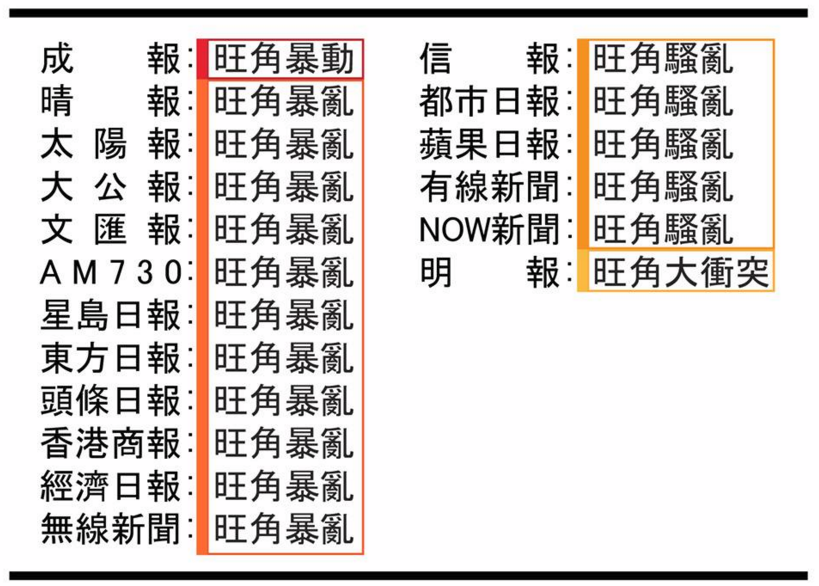
Here are the descriptions of that
incident in Mong Kok on the night of February 8/morning of February 9, 2016.
Mong Kok riot
Sing Pao
Sky Post
The Sun
Ta Kung Pao
Wen Wei Po
AM 730
Sing Tao
Oriental Daily
Headline Daily
Hong Kong Commercial Daily
Economic Times
TVB
Mong Kok disturbance
Hong Kong Economic Journal
Metro Daily
Apple Daily
Cable TV
NOW TV
Big clash in Mong Kok
Ming Pao
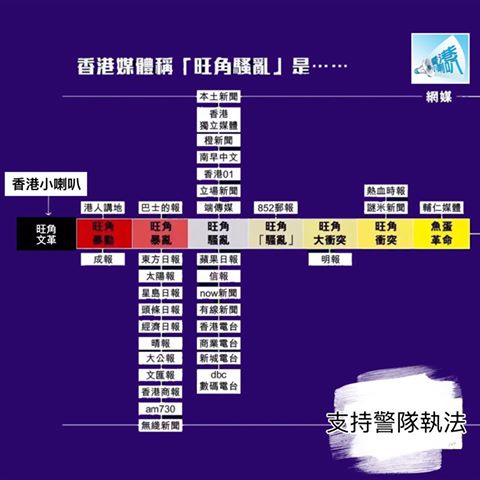
Mong Kok Cultural Revolution
Hong Kong Little Trumpet
Mong Kok riot
Speakout HK
Sing Pao
Mong Kok riot
Bastille Post
Oriental Daily
The Sun
Sing Tao
Headline Daily
Economic Times
Sky Post
Ta Kung Pao
Wen Wei Po
Hong Kong Commercial Daily
am730
TVB
Mong Kok disturbance
Local Press
Hong Kong InMedia
Orange News
South China Morning Post (Chinese)
HK 01
The Stand News
Initium
Apple Daily
Hong Kong Economic Journal
NOW TV
Cable TV
RTHK
Commercial Radio
Metro Radio
dbc
Mong Kok 'disturbance'
852Post
Big clash in Mong Kok
Ming Pao
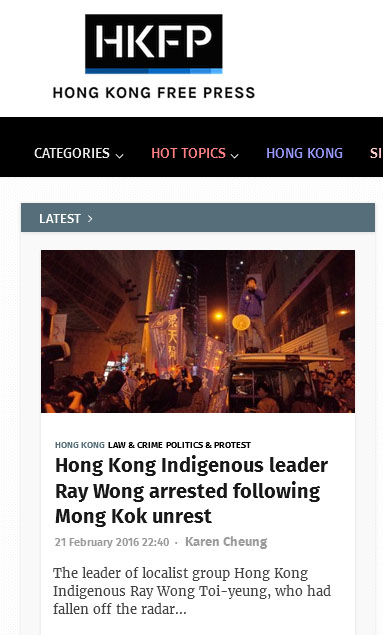
Hong Kong Free Press: No biggie -- just an
'unrest'

EJ Insight: No biggie -- just some 'clashes'
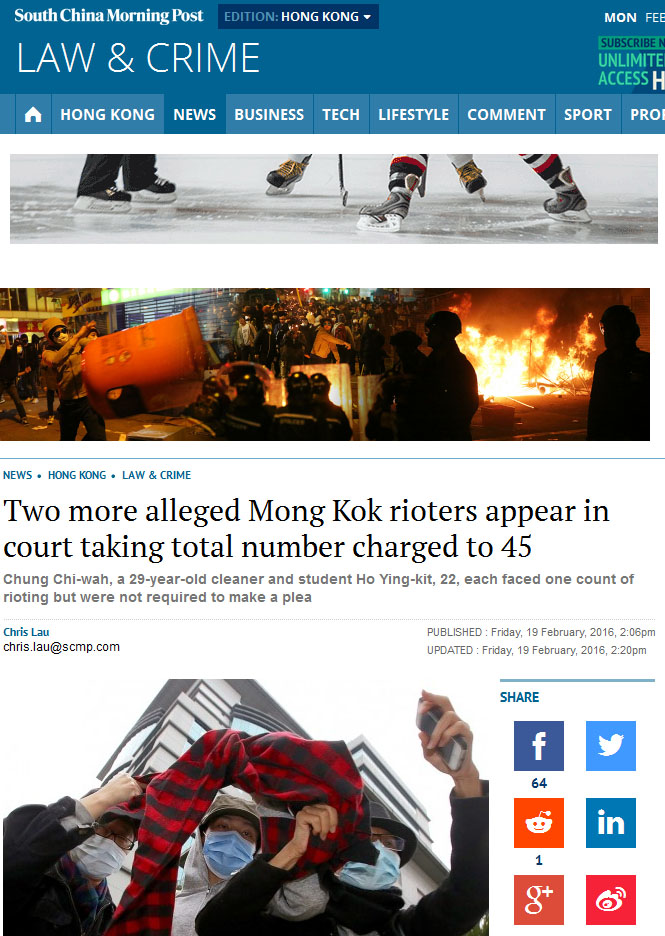
South China Morning Post: What a riot!
(Headline
Daily) One man's terrorist is another man's freedom fighter. By Michael
Chugani. March 8, 2016.
How would you describe
what happened in Mong Kok on Lunar New Year's Day? Was it a riot, a
disturbance, or an incident? Chief Executive Leung Chun-ying, Chief Secretary
Carrie Lam Cheng Yuet-ngor, and Financial Secretary John Tsang Chun-wah called
it a riot. But pan-democrats such as Audrey Eu Yuet-mee called it an incident.
How would you describe what happened in 2014 when thousands of protesters
occupied streets in Admiralty, Causeway Bay and Mong Kok? The government
called it an illegal assembly. The protesters called it civil disobedience.
Some young protesters called it a revolution. How would you describe what
happened in Beijing on June 4 1989? The central government called it an
incident. Democracy supporters in Hong Kong and around the world called it a
massacre.
How people describe such events depends on
their political beliefs. For example, there is an English saying: One man�s
terrorist is another man�s freedom fighter. This saying means that some people
consider terrorists as freedom fighters but others consider terrorists as
terrorists. Israel considers Palestinians fighting for their own state as
terrorists but Palestinians who fight against Israeli occupation consider
themselves as freedom fighters. As I have pointed out before, the Oxford
Dictionary defines a riot as a violent disturbance of the peace by a crowd. It
describes a disturbance as a breakdown of peaceful and law-abiding behaviour.
The word �incident� has several meanings but in this case the dictionary
defines it as a violent event such as an attack on someone.
It is clear from the dictionary�s
definitions that a riot is the most serious, a disturbance is less violent,
and an incident involves fewer people. An illegal assembly is an unlawful
gathering of people who want to commit a crime or disturb the peace. Civil
disobedience is a peaceful form of political protest. A revolution is a
movement to overthrow the government by force. A massacre is a slaughter
(cruel killing) of many people. The cruel killing of thousands of Chinese by
the Japanese in 1937 in Nanjing is known as the Nanjing Massacre. It is up to
you to decide how you want to describe different things.
(SCMP)
Riot or unrest? An ideological divide over what happened in Mong Kok at Lunar
New Year. By Alex Lo. April 6, 2016.
After the Lunar
New Year riot/unrest in Mong Kok, there was a lively debate among
journalists from various news outlets as to what to call the
disturbance. It turned out to be fairly predictable along ideological
lines. Those who supported pan-democratic causes thought it was no more
than an unrest. Others who were more sympathetic to the mainland�s point
of view insisted it was a riot.
Psychologists have
long been familiar with this phenomenon. People look at the same things
and come up with opposite conclusions. This is especially apparent with
high-stake issues that divide society. It is one reason why calls for
dialogue are usually futile when dealing with such matters.
A classic
experiment was conducted in 1954 when two groups of US college students
who were fans of two rival football teams were asked to watch a game.
Their perceptions of the game were so different the psychologists who
did the experiment wondered if they were describing the same match. Each
student group counted twice as many fouls committed by the other team as
their own.
An updated
experiment asked a group of liberal and conservative students in the US
to watch a televised protest that involved physical confrontation.
The group was then
randomly split into two. One group was told it was an anti-abortion
protest outside an abortion clinic. The other group was told it was an
anti-military protest outside a military recruitment centre. Liberal
students generally thought the �anti-abortion� protesters were
aggressive, while the anti-military protesters were not nearly as
aggressive. With conservative students, it was the other way round.
This experiment
could have predicted how my media colleagues would interpret the Lunar
New Year disturbance. Pro-government politicians blamed the protesters
for the �riot�. Pan-democrats have generally been far more lenient in
their judgment about those involved in the �unrest�. Some even blamed
Beijing and the Leung Chun-ying government for �causing� the unrest.
It�s not just that
we see what we want to see. It�s that our biases � and ideologies �
already determine what we will see. The sad thing about our highly
divisive society is that dialogue has become increasingly difficult and
violence increasingly likely.
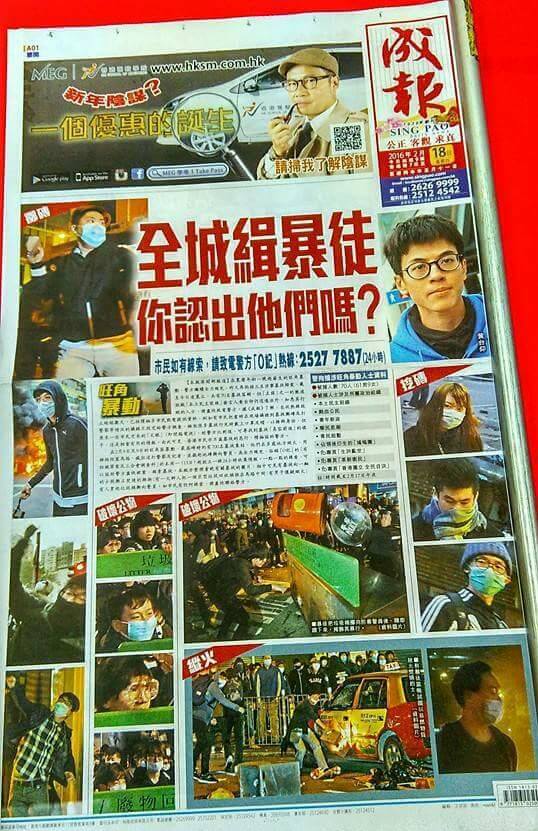
Do you recognize these people?
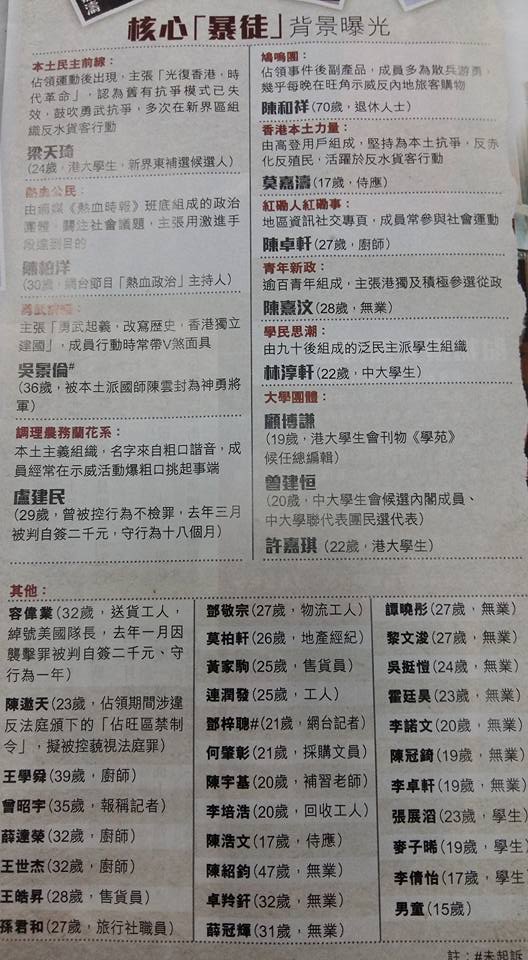
List of key organizations/individuals in the
Mong Kok riot
(Kinliu)
By Chris Wat Wing-yin. February 13, 2016.
37 brick-throwing rioters appeared in
court. The people of Hong Kong would like to see the faces of these
"martyrs" who claimed that they would rather be broken pieces of jade than
intact pieces of tiles. Unfortunately, a gang of masked men showed up and
used jackets and scarves to set up a screen around these 37 defendants to
leave. They even used clothing to cover up the windows of the taxis to
prevent filming.
Strange, because aren't you "justice
fighters"? You should be proud. Instead you cover up your faces? How do you
gain immortal fame when you wear a mask?
I can never understand why these "valiant
warriors" can't let people see them? The surgical mask is their most basic
piece of equipment. They also have caps, wraps, goggles, gloves ... the only
thing showing are the nostrils. How do nostrils become heroes? I don't get
it.
On the night of the riot, an isolated
policeman was chased as the bricks, rods and metal pipes rained down on him.
Even the media photographer could not stand it. But he did not carry a
shield. So he got the idea that he turned on the flashlight on his camera
and directed it at the rioters. Suddenly the rioters fled. "Exposure" is the
best weapon against them.
The critical weakness of the rioters is
that they fled in the presence of camera even though they tried to cover
themselves up from head to foot. Do you remember that nasty woman who
insisted on going up Tai Mo Shan to watch the snow? That woman was
identified less than half a day later and her photos/videos were circulated
everywhere. This shows that righteous Internet users are numerous and
powerful.
So we are not helpless against the rioters
in Mong Kok. As soon as they thrown the first brick, they become public
enemies. They no longer deserve to be called "citizens of Hong Kong." If
they are afraid of light, we will shine the light on them. If they are serving public
justice as they claim to be, they shouldn't have to hid their faces. So let us shine the
sunlight on these "justice fighters."
The Journalists Association likes to talk
about the "right to know." Right now the people of Hong Kong are most
interested in the identities of these rioters? What do they look like? This
allows us to be careful when we see them in the streets. When these people
cover themselves up and they even block the photojournalists' cameras, why
doesn't the Journalists Association complain? These people are clearly
obstructing news gathering, they are restricting freedom of press and
depriving the citizens of their right to know! Why hasn't the Journalists
Association said anything yet? Could it be that they are members of the
masked gang too?
If the journalists won't do it and the
police won't do it, then the people of Hong Kong can do it together! A
certain Xinjiang folk song goes as follows: "Lift up your veil and let me
look at your face ..." Today we can only help ourselves. Today we will start
a popular campaign to denounce suspects, to locate those ferocious faces,
because these people who are endangering social peace could be your
son's tutor, or your daughter's classmate ...
Let us collate all the photos of the
rioters. Let us see if there are acquaintances, neighbors, associates and relatives
among them. We encourage everybody to place justice above personal
loyalties. In order to save them, you have to reform and rehabilitate them
first. Cockroaches die when they see the light. The mildew can only die
under the sun.
If the reporter asks us: "Was it right for
that traffic cop to point his gun at the citizens?" we should correct him:
"Those are not citizens. They are rioters. They are mildew. Please don't get
mixed up!"
Here are some of the ongoing
civilian projects. It is possible that some people have been misidentified.

The short-skirt girl with black
stockings out for a midnight snack of fish balls. P.S. Since the fish balls are
dripping with curry sauce, she brought white gloves along.
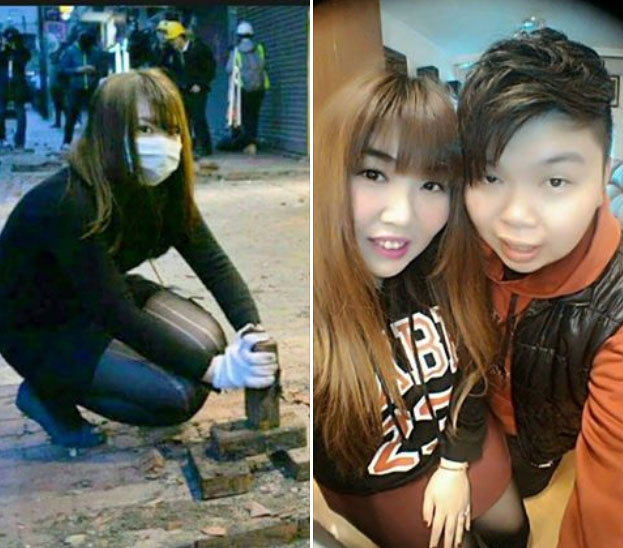
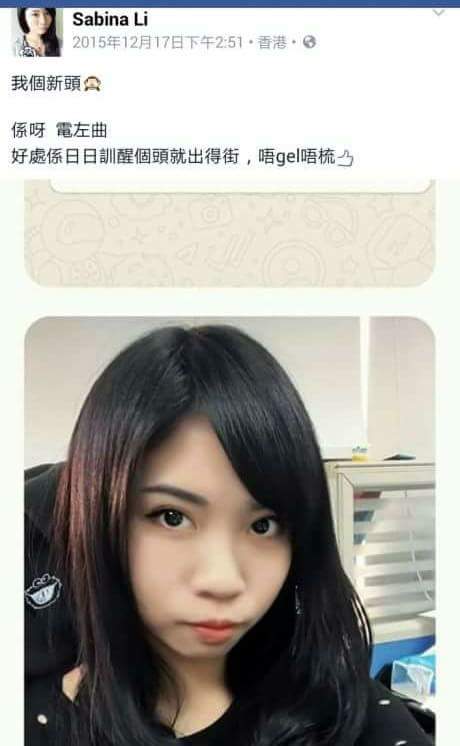
Sabina Li's new hairdo
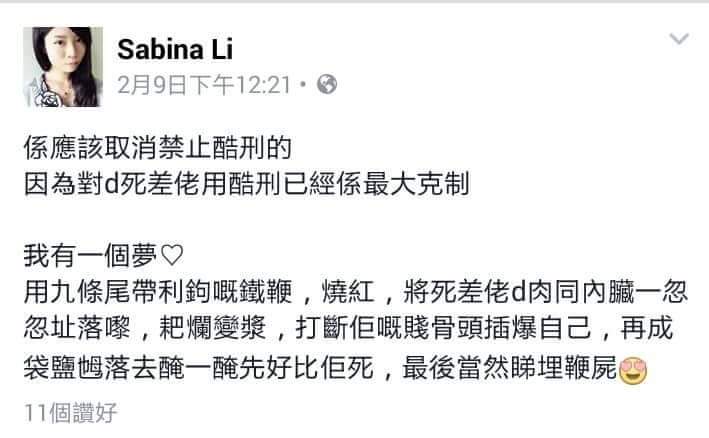
Sabina Li's Facebook
February 9 2016 12:21
The ban on torture should be halted
Because it is a reprieve to even torture the cops
I have a dream
I used an iron cat-o'-nine-tails heated to red hot and I ripped the flesh and
intestines of the cops piece by piece. I broke their bones to stab them. Then I
pour a whole packet of salt before I let him die. Finally of course the corpse
shall be whipped.

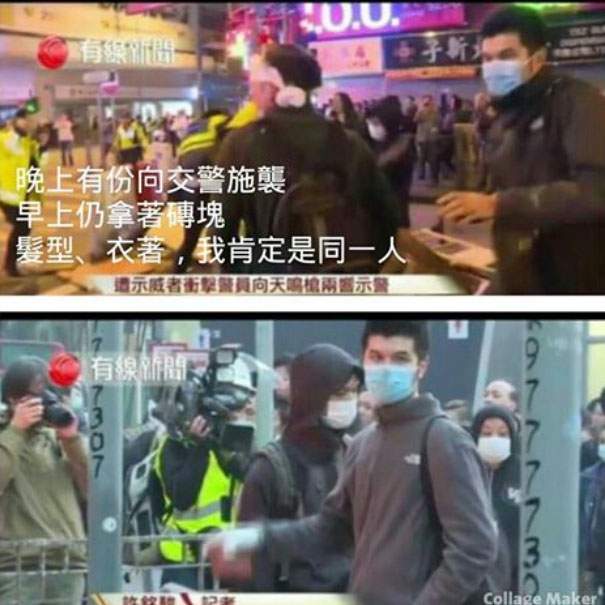
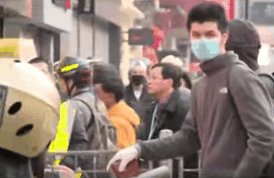
This man was present during the
attack on the traffic cops late night, and in the morning he was holding a brick
in his hand. Does anyone recognize him?

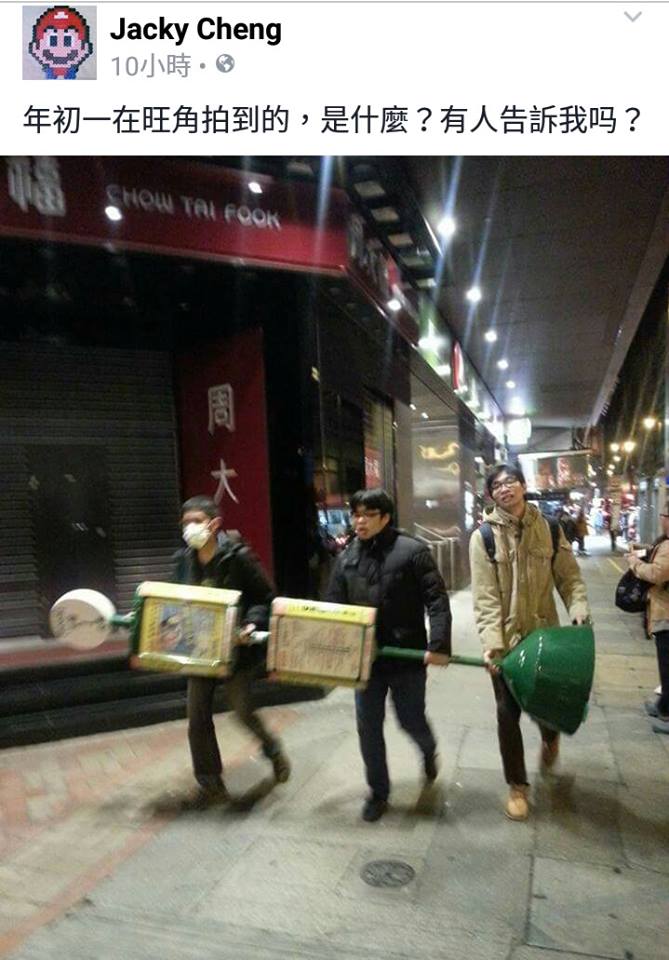
A take-home order of skewered bus stop
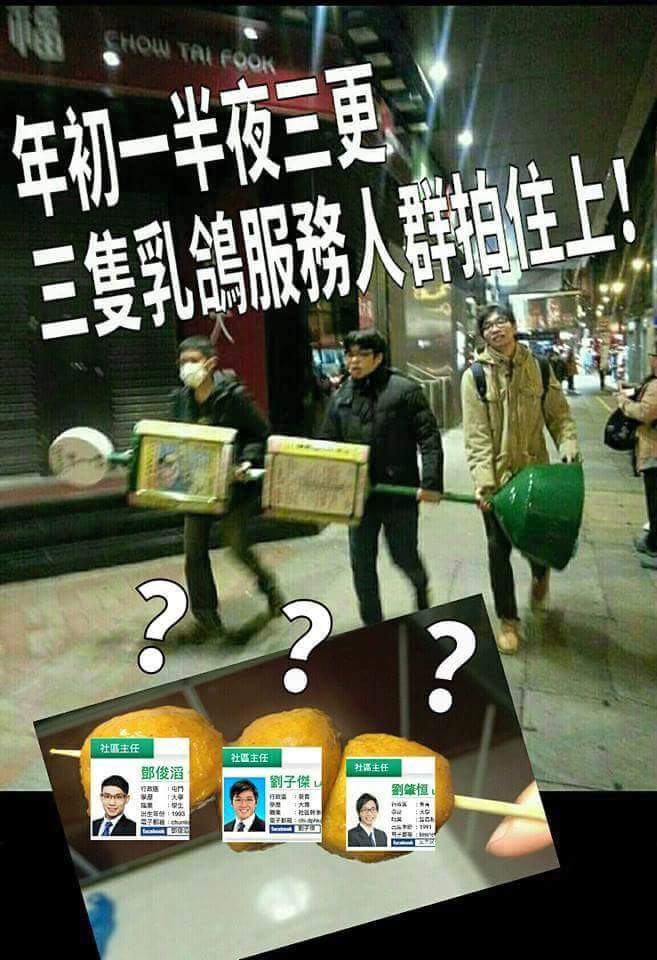
Identified! Three Democratic Party community
directors

A man wearing a red sweater and
dark pants flails a downed policeman with a white rod:
https://www.facebook.com/1634608756778242/videos/1672177766354674/
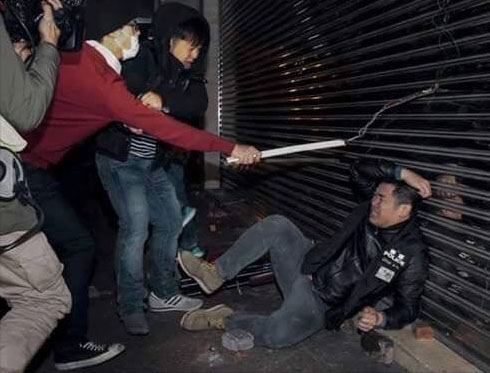
Who is the man in the red sweater
and white shirt?
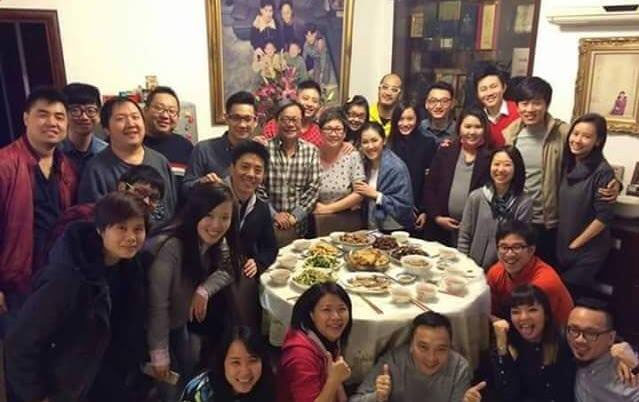
How about this dinner photo?
Second from top right: Cheng Chung-tai; third from top right: a guy in a red
sweater and white shirt; fourth from top right: Cheng Kam-mun; sixth from top
right: Wong Yeung-tat; man in the middle with checkered shirt: Raymond Wong
Yuk-man.
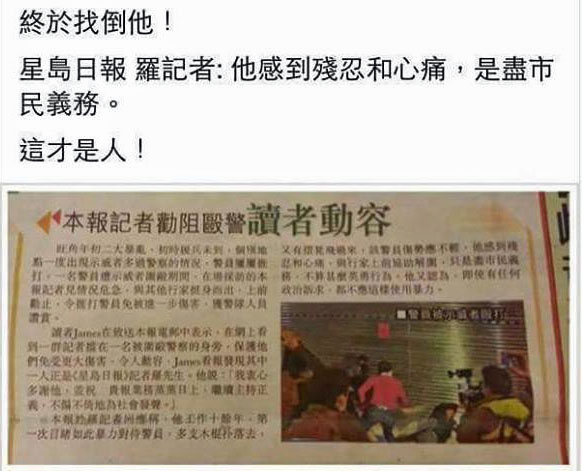
At the time, a group of reporters came out in
front of this downed policeman in order to protect him from further harm. An
Internet user determined that one of the reporters works for Sing Tao Daily and
wrote a thank-you note to the newspaper. Reporter Lo said that he did it out of
his sense of duty as a citizen. In so doing, he has violate the first principle
of journalistic ethics -- that a journalist is there only to record the story
and must never ever become part of the story. By his intercession, Lo had
changed the outcome of the story.
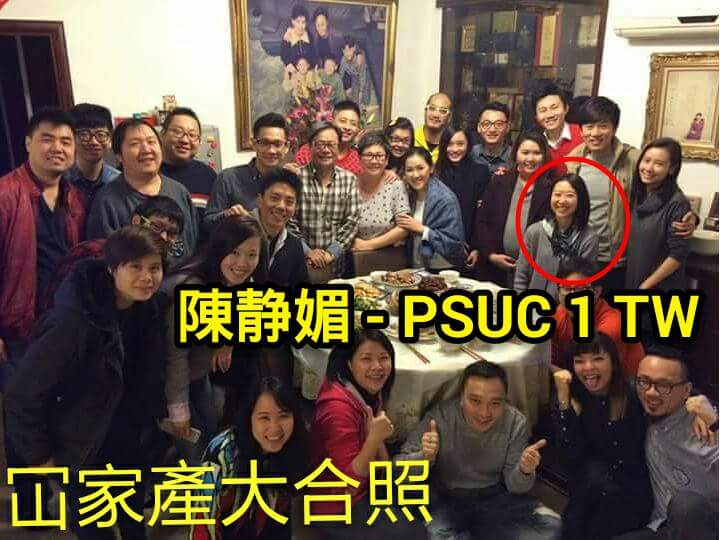
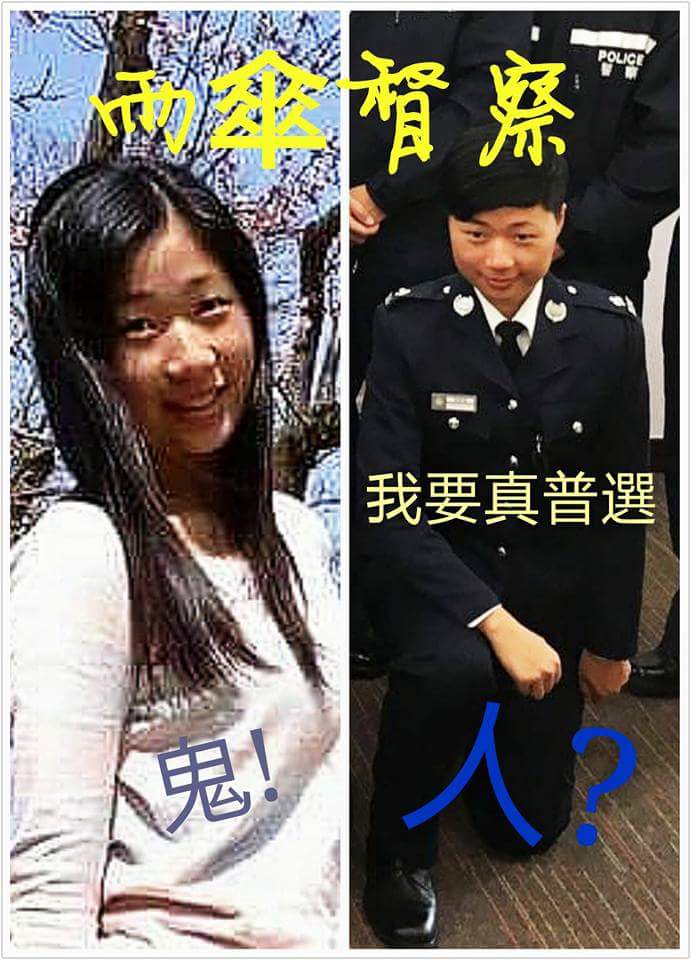
Another person in this Civic Passion group photo
is a female probationary police inspector. Is she a mole inside the police
force? Or did the police send her to work as an undercover? Either way her cover
is blown.

Everywhere all over the world, the
police are supposed to protect the people from the bad guys. In Hong Kong, the
police have to be protected from the bad guys by an unarmed westerner. Who is
that man?
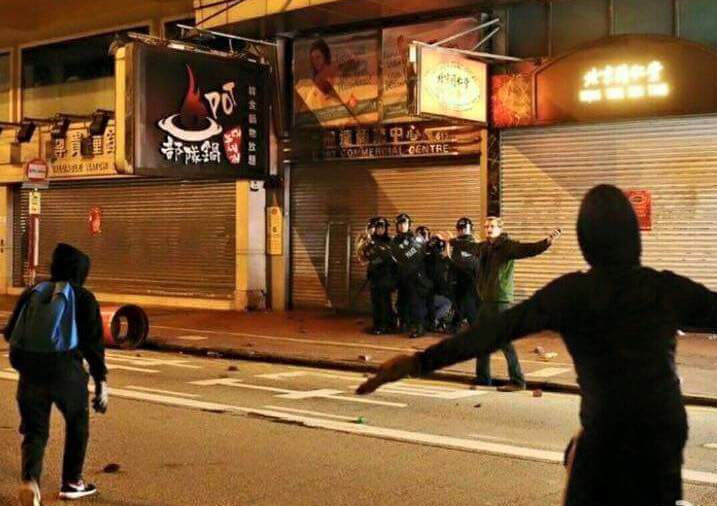
The Hong Kong Police claimed that
they are one of the most restrained police forces in the world. Well, if they
scream "Fuck your mother!" up close in your face and you don't react, that is
said to be acting under restraint. If they throw bricks at you and you flee,
that is said to be cowardice. Sorry about that!

(HKG
Pao) February 16, 2016.
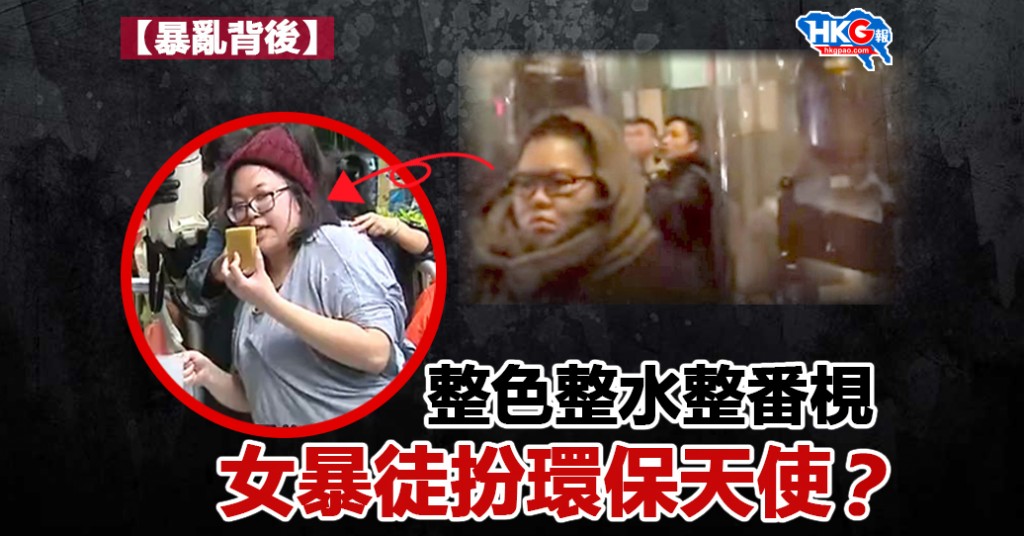
The police busted a weapons
warehouse, but the organization Go Green Hong Kong said that they were an
environmental protection group which collected materials such as knives,
chemicals, etc for recycling purposes. Group members went down to the police
station and gave a public demonstration to show how to make soap from chemicals.
Internet users noted that the woman making the demonstration was present at the
scene of the Mong Kok demonstration wearing a hood.
An Internet user wrote: "I always
support environmental preservation groups. The police found 18 knives, 26
weapons, 750 masks, 25 pairs of industrial-use gloves, air guns, walkie-talkies,
etc, plus a large amount of chemicals including liquids containing pepper ... I
really want to know why you are not interested in collecting much more useful
items such as electronics, computers, books, pots, pans, etc and instead you
only want to collect knives, sticks, poles, rods, lead pipes, masks, air guns
and walkie-talkies? You are a truly 'special' environmental preservation group!"
Another Internet user wrote: "I'm
learning something about social norms. Apparently, many people discard their
knives. That is now an empirical fact as evidenced in this case. But why? Do
they discard their knives at the end of the Lunar New Year, because they are
suppose to use new knives (like wearing new clothes) beginning each year?"
Another Internet user wrote: "I
know what the chili oil is being used for -- to make spicy curry fishballs to
sell on the street during the Lunar New Year."

And this is the most dangerous
person of all - he tried to set the liquid gas tank in a taxi on fire. The
explosion would have put everybody (especially himself) in a diameter of 22
meters in harm's way.
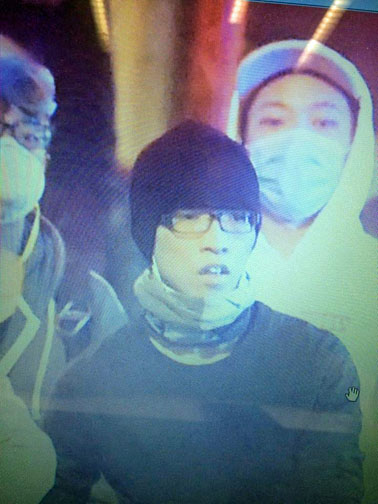
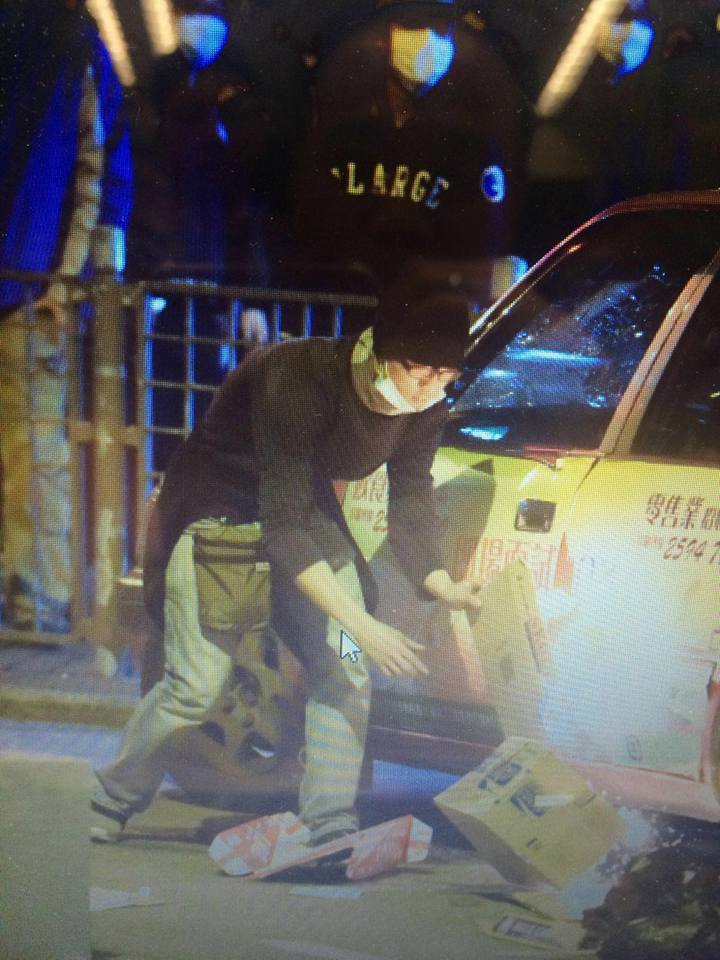
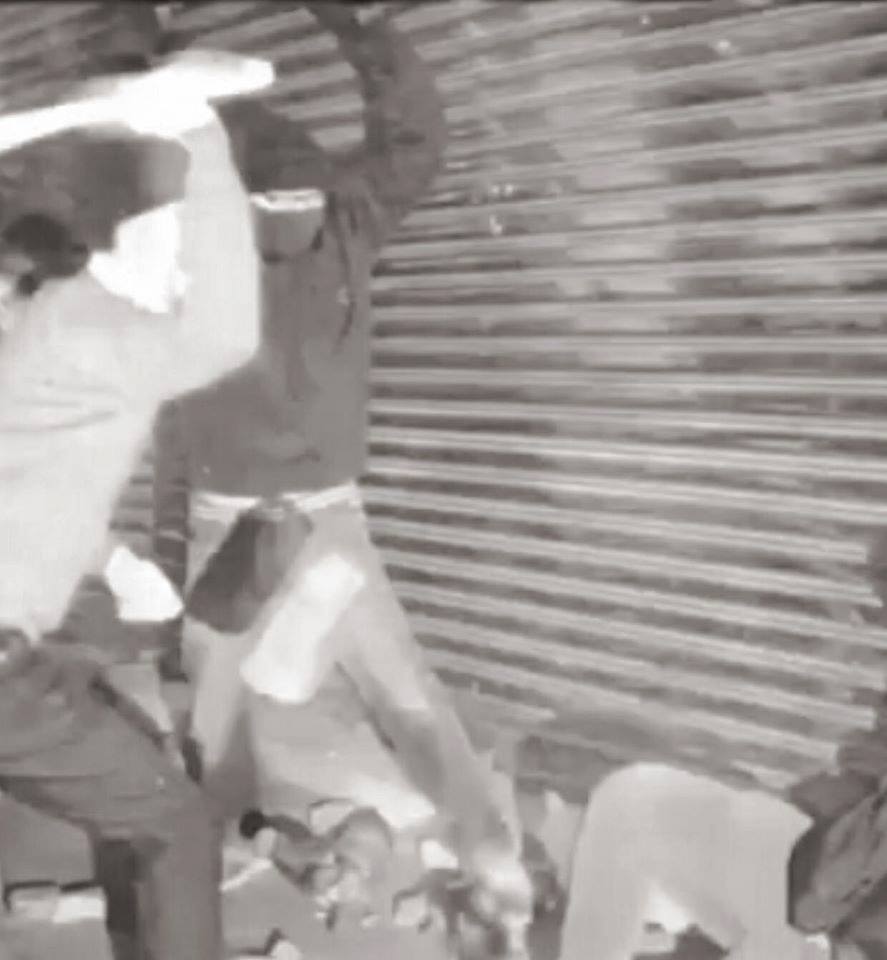

Tip on February 20 1:13pm:

His name is Yeung Ka-lun. He lives at Fung Ting
Court, Yuen Long district. Please forward like crazy!
(Oriental
Daily) February 26, 2016.
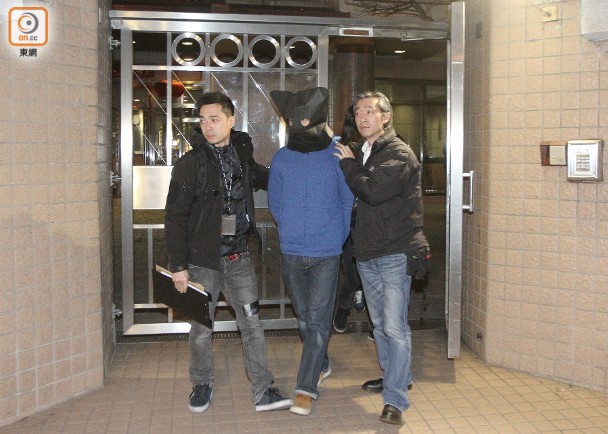
A police arrested a 31-year-old
man named Yeung on suspicion of setting a taxi on fire during the Mong Kok riot.
The police took the man back to his home in Fung Ting Court, Fung Cheung Road,
Yuen Long district. The police removed a mobile phone, clothing and an Octopus
card as evidence.
(Sing
Pao) February 27, 2016.
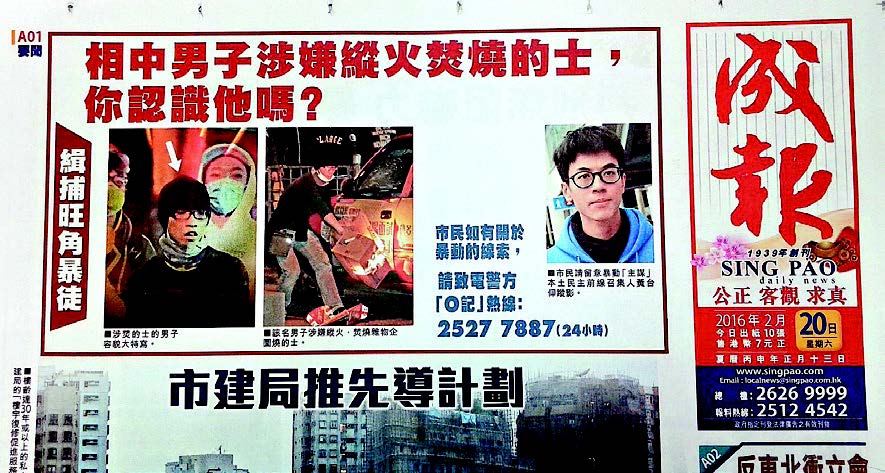
Sing Pao front page on February
20, 2016.
The man in the photo is suspected of setting a taxi on fire.
Do you recognize him?
According to information, the name
of the arrested man is Yeung Ka-lun. He was suspected of setting fire to a taxi
on the night of the riot. The key breakthrough was that a citizen called up the
Organized Crime Division's hotline and provided the telephone number and address
of Yeung. Based upon the information, the police checked surveillance videos as
well as the videos taken that day. Based upon this information, the police made
the arrest. The police said that they are grateful for the many useful tips
coming from citizens.

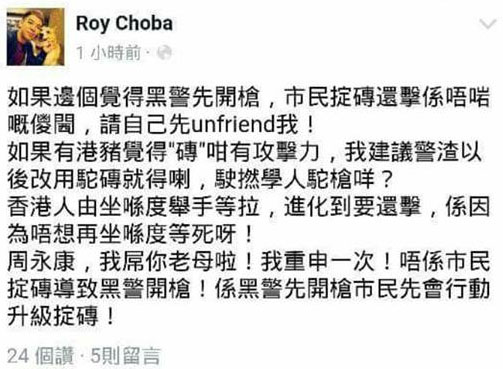
Roy Choba's Facebook:
Any stupid cunt who thinks that it was not right for the citizens to retaliate
with bricks after the Evil Police opened fire first should please unfriend me
first!
If any Hong Kong pig thinks that the "brick" is so powerful, I recommend that
the police trash carry bricks in the future and not guns instead.
The reason that Hongkongers went from sitting down and raising their hands to be
arrested to fighting back is because they don't want to sit and wait to die!
Alex Chow, I fuck your mother! Let me repeat once again! It was not the
case that the citizens threw bricks which lead to the Evil Police shooting! It
was the Evil Police which shot first before the citizens escalated the action
and threw bricks!
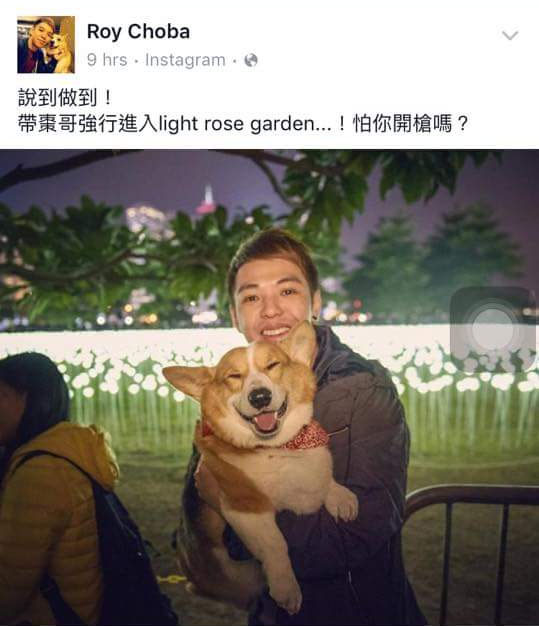
Roy Choba's Facebook
As promised!
I am bringing my dog the Light Rose Garden by force ...! Am I afraid that you
would shoot me?
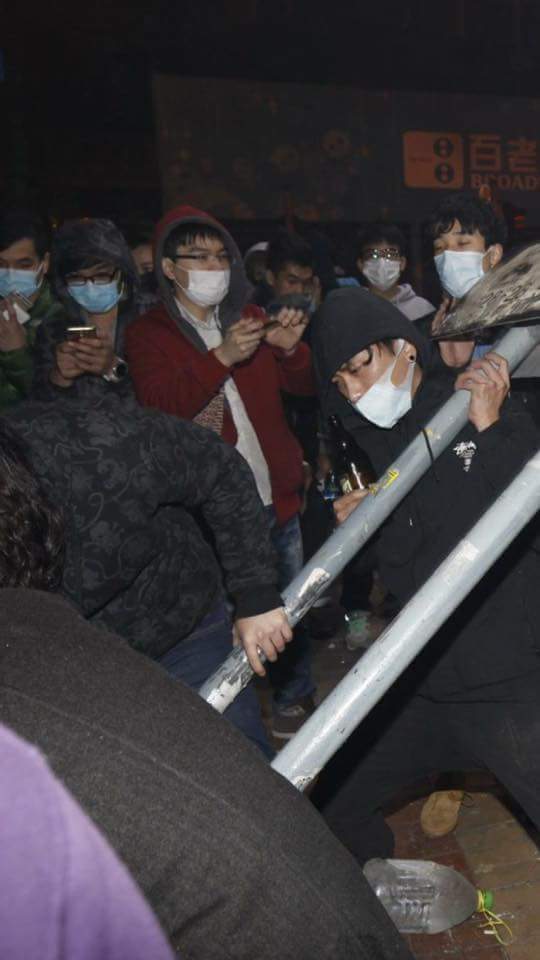
Look at that left ear lobe!

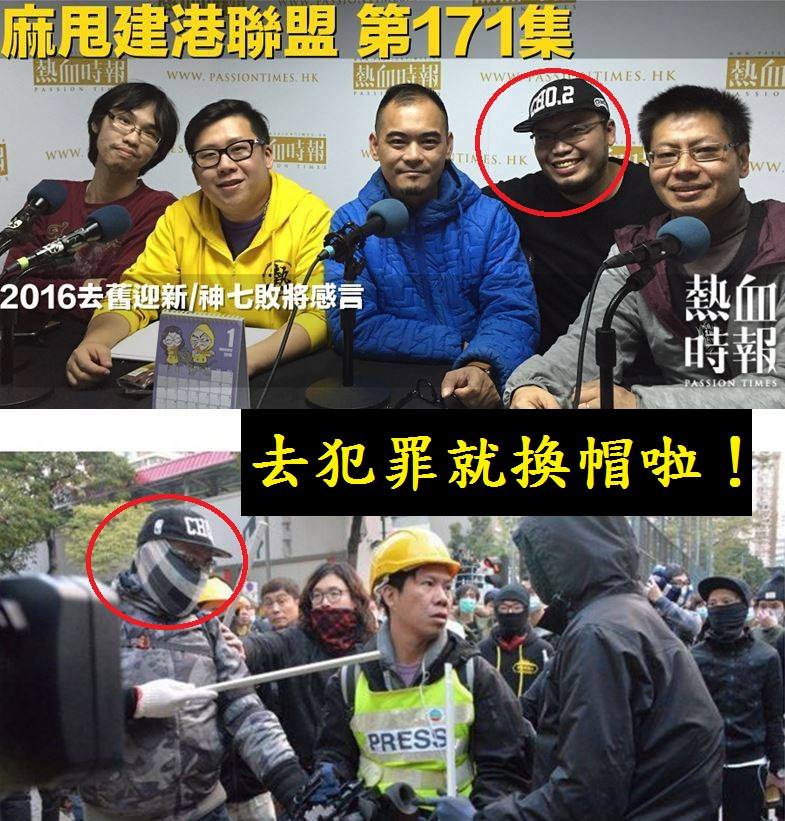
Above: Lee Ching-hei (Civic
Passion) appears on a Passion Times program
Below: A masked man wearing the same eyeglasses and cap threatens a TVB
cameraman with a iron pipe.



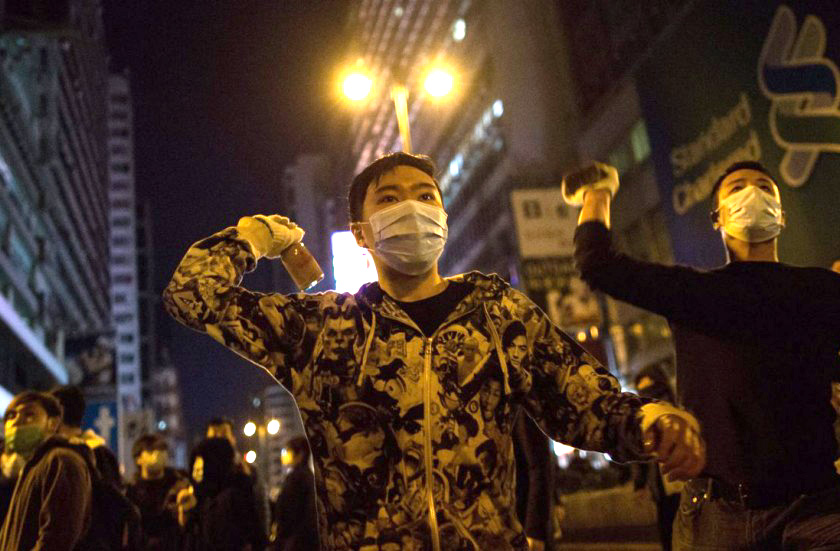
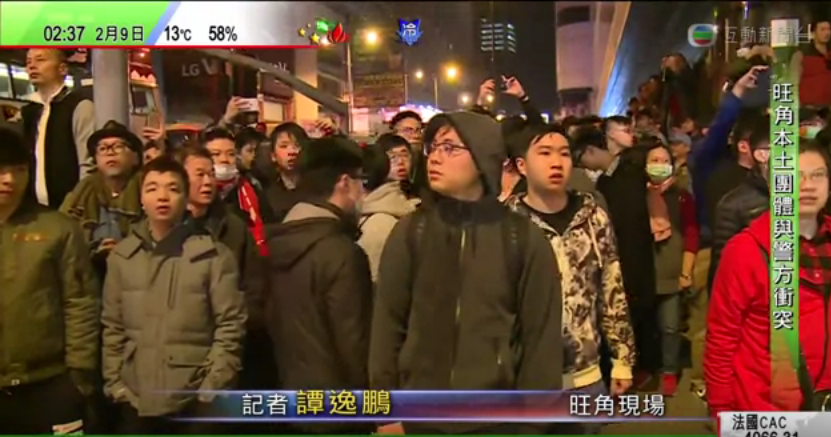
Now you see a masked guy ready to
throw a glass bottle, now you see the same guy without his mask.
When a Facebook posted these
photos, a user voiced a complaint:
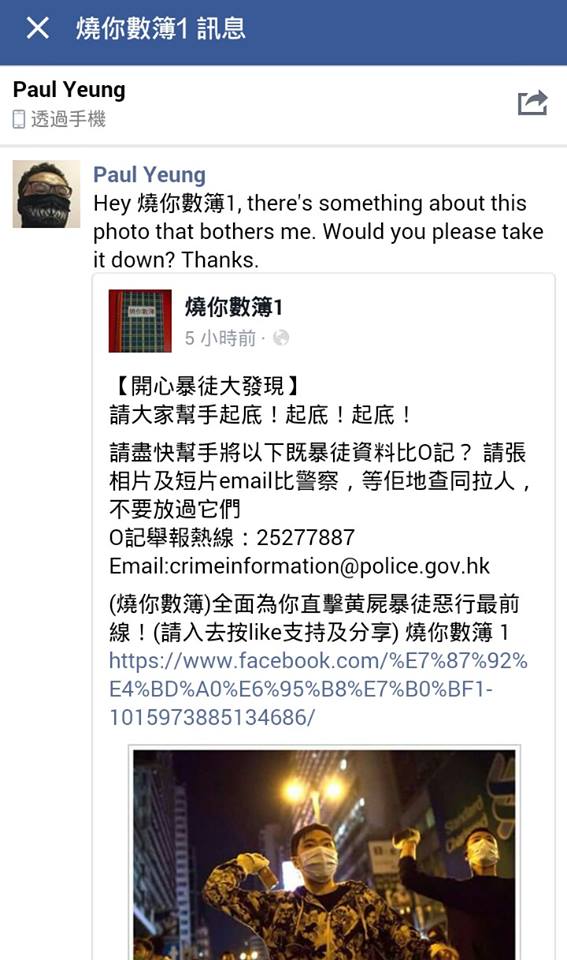
But Paul Yeung did not explain
what was bothering him. He knows very well that the Facebook poster will ignore
his complaint, but he is setting up to complain to Facebook itself about this
very offensive page which upset him and refused to take the photo down.
What about Paul Yeung himself?
Here is the selection from his photo collection:
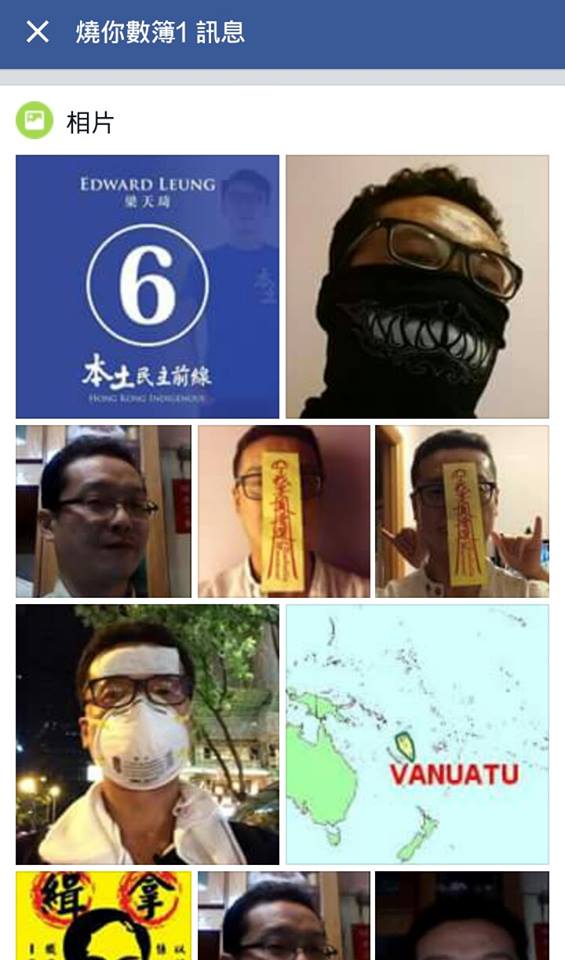

(Sing
Tao) February 22, 2016.
Civic Passion leader Wong
Yeung-tat may be the target of the police for what he posted on Facebook/Instagram.
At 4:11am on February 9, Wong posted: "Let the bricks fly." At 4:24am, he
posted a selfie photo which proved that he was present at the scene. He also
wrote: "The police batons were weak and feeble. They only busted my
eyeglasses! I can even block them with my bare hands. I really wanted to
teach them how to use a baton!" At 4:44am he wrote: "It is not convenient to
shout out loud. But if you read this, please forward -- do not try to
occupy, do not think that this is an assembly. The theme of the day: The
bricks are flying."
When the Special Tactical
Squad arrived at around 5am to assume control, Wong wrote at 6:13am: "Move
around!" About one hour later, Wong wrote that he has departed. But he
continued to give gentle reminders to the demonstrators: "Those friends
present at the scene, maintain your mobility. If you have to disperse,
disperse!" Shortly after, the riot ended. Although it would appear that Wong
did not participate in the rioting and was only there as a spectator, he
acted like a military advisor giving out tactics fro action. The police are
evaluating whether his words amount to incitement to riot.
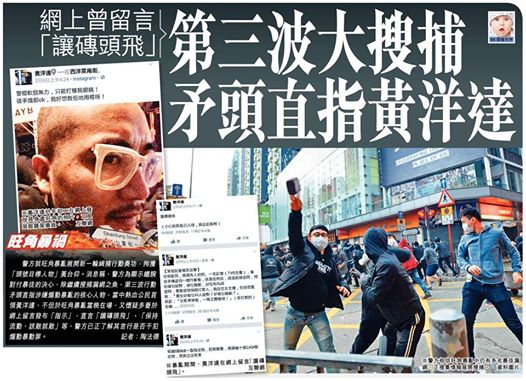

(Oriental
Daily with video) February 13, 2016.
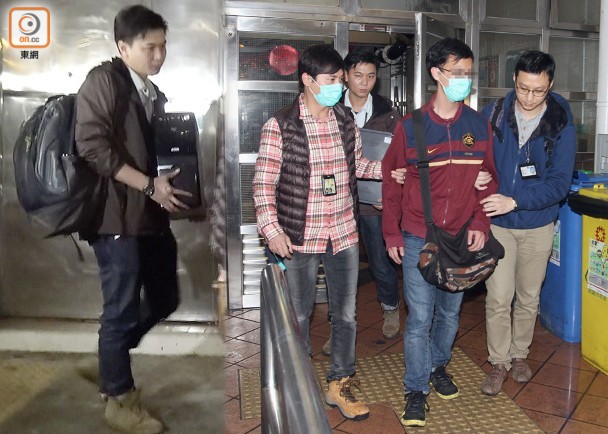
Recently a Facebook post was
circulated widely because this user is offering $10,000 to any organization
which kills a policeman. He also said that the police deserve to die. Citizens
denounced to the police and the Cyber Security and Technology Crime Bureau began
an investigation.
Yesterday 30-year-old Chu Hang Chi
went to Yuen Long Police Station and said that he was the Facebook user.
However, he said that his Facebook account was hacked and he was not responsible
for making those comments. However, the police were skeptical about his claim.
Finally Chu admitted that he lied. Chu was arrested for dishonest use of
computer as well as filing a false police report. Last night the police took Chu
back to his apartment and removed a computer. According to information, Chu is
an Immigration Department assistant. He has been on that job for 9 years and is
posted at the Shenzhen Bay entry point.
Internet comments:
- When first detected, the
Facebook page belonged to Chu Hang Chi. That evening it was changed to
Cross The River. But it was too late as Internet users made screen captures.
This is what he wrote.
Chu Hang Chi's Facebook
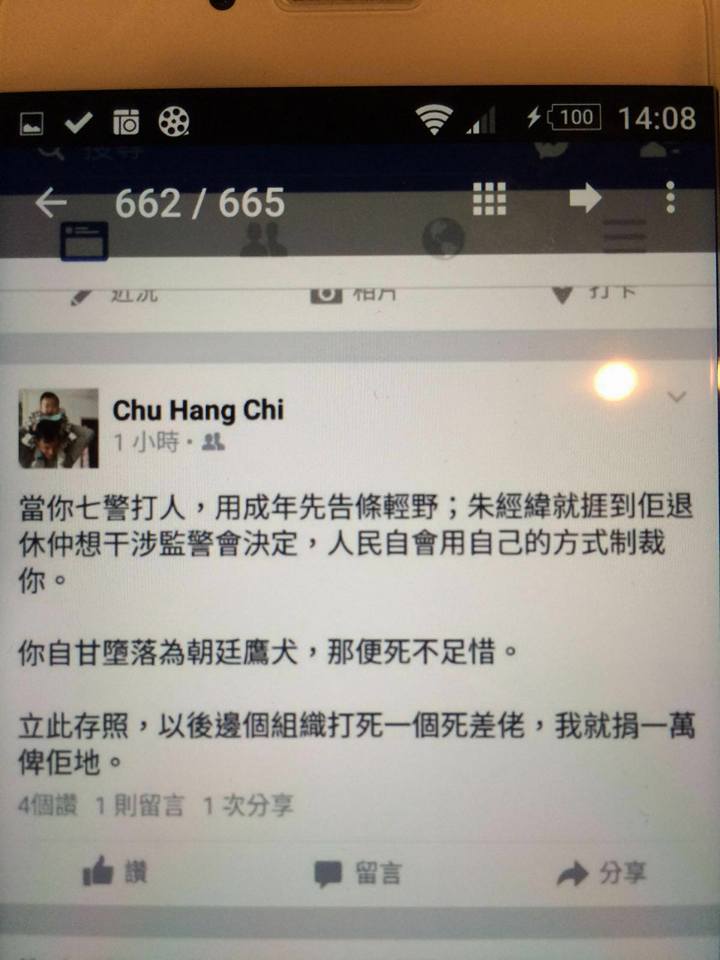
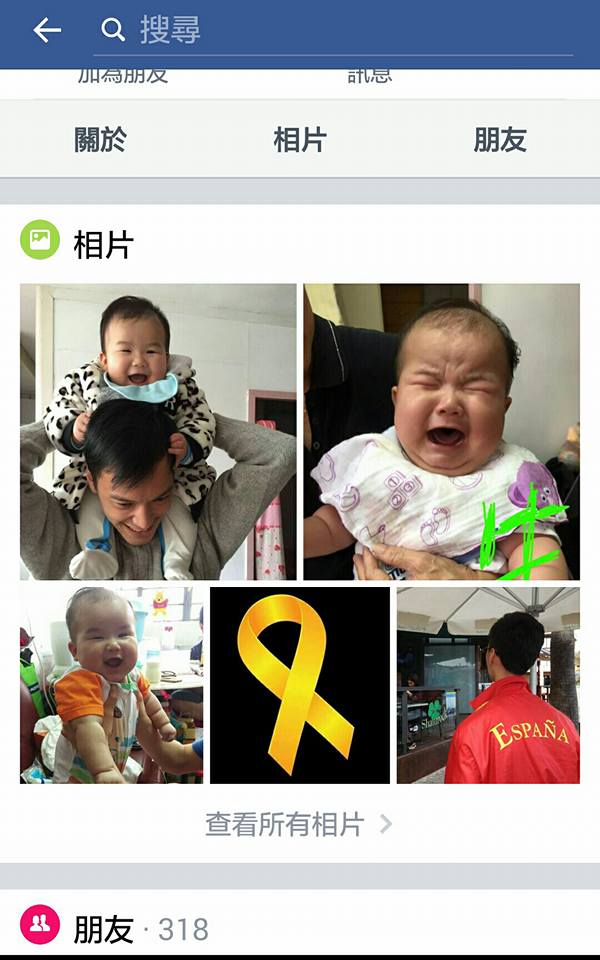
When your seven policemen made the assault, it took one year before prosecution
on a mild charge; Franklin Chu lasted until his retirement and he still wants to
interview with the police board's decision; the people will have their own way
of judging you.
Since you have chosen to become the running dogs of the imperial government, your
death will gain no sympathy.
Let is be stated for the record here: I will donate $10,000 to whichever
organization that can kill a damned policeman.
- The Facebook post was circulated
together with a telephone number for the Cyber Bureau. It was a matter of time
before the police come knocking on the door.
- The current charge is:
CAP 200 Crimes Ordinance Section 161 Access to computer with criminal or
dishonest intent
(1) Any person who obtains access to a
computer-
(a) with intent to commit an offence;
(b) with a dishonest intent to deceive;
(c) with a view to dishonest gain for himself or another; or
(d) with a dishonest intent to cause loss to another,
whether on the same occasion as he
obtains such access or on any future occasion, commits an offence and is
liable on conviction upon indictment to imprisonment for 5 years.
But it could easily have been:
CAP 212 Offences against the Person Ordinance Section 5 Conspiring or Soliciting
to Commit Murder
All persons who within Hong Kong
conspire, confederate, and agree to murder any person, whatever his nationality
or citizenship and wherever he may be, and any person who within Hong Kong
solicits, encourages, persuades or endeavours to persuade, or proposes to any
person to murder any other person, whatever his nationality or citizenship and
wherever he may be, shall be guilty of an offence and shall be liable to
imprisonment for life.
- I heard that the guy knew that
he was in trouble and the Cyber Bureau was coming for him at any minute. So he asked his
supervisor for advice. The supervisor told him to go to the police and claimed
to have been hacked. The Cyber Bureau detectives spoke to him and took down his
statement in full. Then they informed him that they are arresting him. At which
point, he broke down and confessed to everything.
- This is stupid beyond belief. On
that first charge, he can easily get off with just a one-year probation for
saying something inappropriate in a moment of passion but still exercising his
freedom of speech. Now the second charge of making a false police statement is
going to be more problematic because he works for the Disciplinary Service.
- After nine years at the Immigration Department, the guy is still an assistant.
How smart can he be? What is the "assistant" do anyway? Fill the water in the
teapot?
- It is hypocritical to denounce the police for being running dogs of the
imperial government when in fact he also works for the same imperial government.
- What is it about the Immigration Department? Why do they end up with all the
low-quality workers (see, for example,
Mike Lam)? They need
to check out their water supply.
- Unlike the other Fishball Revolutionaries, this guy has a real job. However,
it is also his world-view that $10,000 is a lot of money, enough to induce
someone to commit murder. He should have checked with the triads about the
current price for hiring a hitman.
- Only animals work for the
government. The guy is better off not working for the government. At least he
will get his dignity back.
- Are you saying that it is wrong to take money from the government. More than
half of the arrestees are either students or unemployed. Students are subsidized
by the University Grants Committee to the tune of $200,000 per person each year.
So they are animals. Some of those unemployed people get welfare payments from
the government. So they are animals too. The only exceptions are those
unemployed people who are living off their parents. They are noble and
praiseworthy.
- Better off without his government job? You tell that to his 8-month-old son.
-
文字獄 refers to
government persecution of intellectuals for their writings. Typically it
involves taking the writings out of context and associating them with heinous
crimes (e.g. advocating terrorism!). But in this case, it is simply a bounty
offer. There isn't much room for over-interpretation.
- A Civic Party barrister can
easily get the man off. The defendant wrote that he wanted to pay $10,000 to any
organization which kills a 'damned cop.' The exact term was
死差佬. 死 means 'damned' and 差佬 means 'cop'.
However, 死 can also mean 'dead.' It is impossible to kill a 'dead cop' because
the cop is already dead. Quot erat demonstrandum.

(Apple
Daily) The police arrested a 38-year-old man in Wanchai on suspicion of
using a computer in a dishonest manner. According to the preliminary
investigation, the suspect used social media to urge other people to participate
in a disturbance on February 9th.
(Sing
Tao) 38-year-old security guard Allan Ng King-lun was arrested on suspicion of
dishonest use of a computer. He lives with his wife in Whampoa Gardens, Hung
Hom district. According to information, he owns the title of Thirteenth Prince
within the hierarchy of Wan Chin's Hong Kong City-State. On Facebook, Ng wrote that he had
scouted the location and he told people to take action during the harbour
fireworks show because the police needed to keep order over there and that they should captured some police officers and strip them naked.
He also gave information on where weapons can be found to use to attack the
police.
(Yahoo)
38-year-old Ng is a follower of Lingnan University Chinese Department assistant
professor Horace Chan and his Hong Kong City-State theory. During the Occupy
Mong Kok period, Ng said in a media interview that he is a popular tarot expert
working on Temple Street. During the Occupy period, he quit his security guard
job in order to defend the students day and night. Last November, Ng and his
girlfriend erected a temple to Lord Guan in the Occupy Mong Kok area and held a
wedding there in the presence of Wan Chin. They were formally wedded last
February.
(Passion
Times) Allan Ng said that the police wanted to charge with dishonest use
of a computer and rioting. However, Ng said that he was at work that night so he
could not have participated in any rioting. So the police told him that the
rioting charge won't happen. However, Ng said that the police might charge him
all the same. At this time, his mobile phone, iPad and computer are in the hands
of the police.
Internet comments:
- Why is the man nicknamed
"Thirteen" being praised for his nobility. Before Occupy Mong Kok, he was a
security guard. Afterwards he lost his job and lived off his girlfriend/wife who
is a divorcee who lives off alimony payments from her ex-husband. The short
summary is that this is just a couple of wastrels.
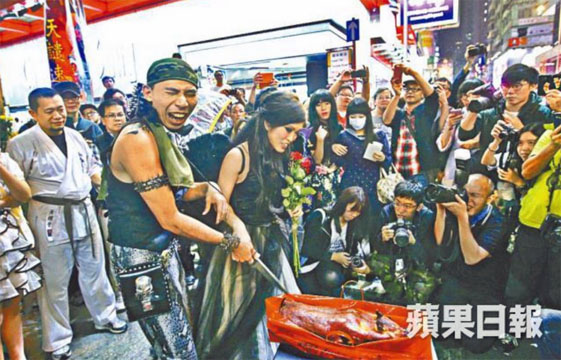
- Here is the wedding video:
https://www.youtube.com/watch?v=ZfF-WtZdnkM
- Here is the SocREC interview with Brother Thirteen:
https://www.youtube.com/watch?v=-fsZyzBLKGM
- After Ng was arrested, his
Facebook account was taken over by his wife. She wrote that she is elated that
Ng is in jail because he is so shameless and deserves to be sentenced to a long
jail term. The Facebook accounts have all been deleted.

(Sing
Tao) February 14, 2016.
On the day of the Mong Kok
riot, TVB filmed a group of rioters handling a container of reddish liquid.
When they saw the camera, they got up and blocked the view.
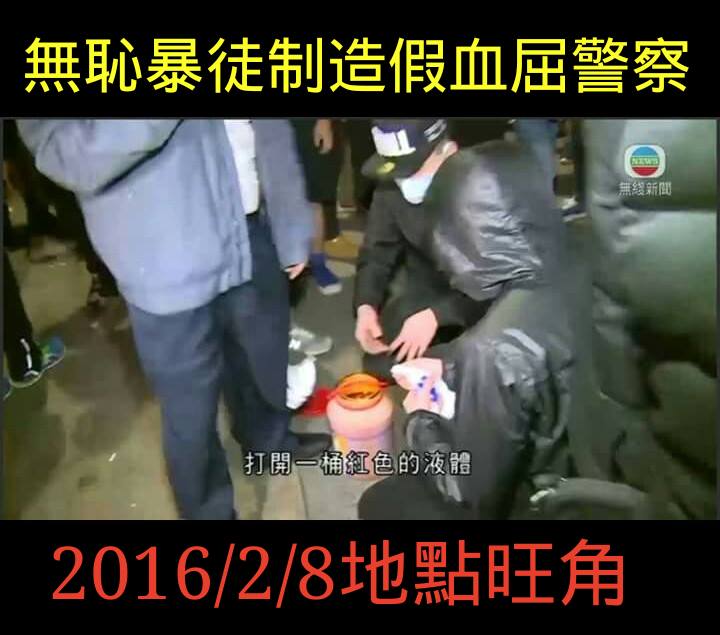
Some Internet users suspect
that this is fake blood plasma used in movies. But other Internet users
think that this was a container for spicy chili oil.
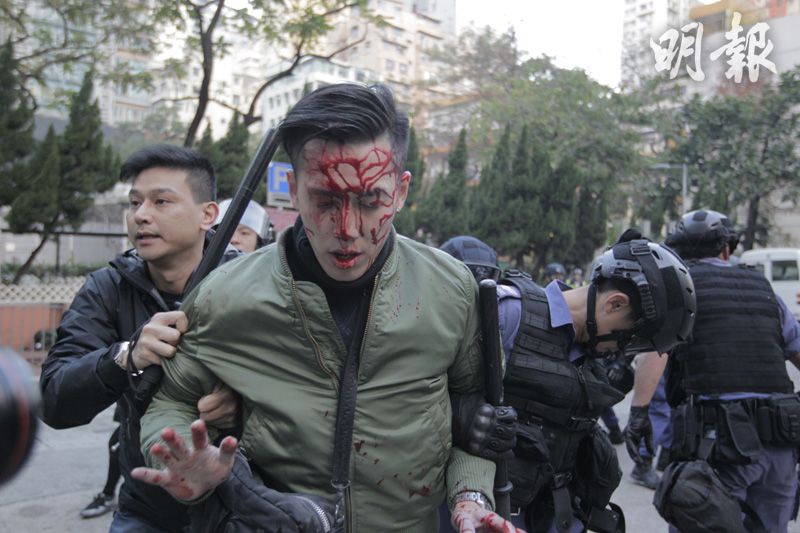
Internet users were amazed later
at the photo of an arrestee whose face was covered with blood. Apart from the
vast amount of 'blood' with no apparent sign of an injury, they were also amazed
that his hair was completely unruffled. They got interested in the brand of hard
hair gel.
According to information, the
arrestee is a university student named Chan. Recently, he applied to become an
auxiliary police officer. Internet users speculated that he wanted to join the
auxiliary police in order to become a mole in the manner of
Infernal Affairs.
According to information, Chan
posted bail and later that night showed up at the Leung King Estate conflict
without a scratch mark on his face or head.
Internet comments:
- Internet users found this photo
of a Civic Passion members and independent legislator Raymond Wong Yuk-man.
Thumbs up!
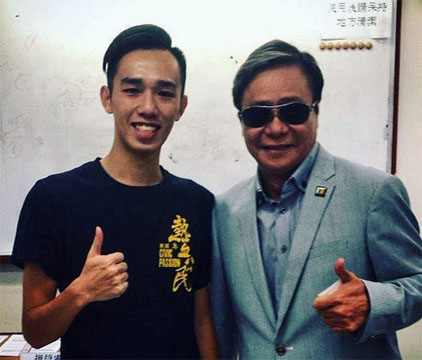
- The Leung King Estate
"administrators" versus the "street hawkers". This particular individual is
standing with the masked "administrators" who assaulted the street hawkers and a
reporter.
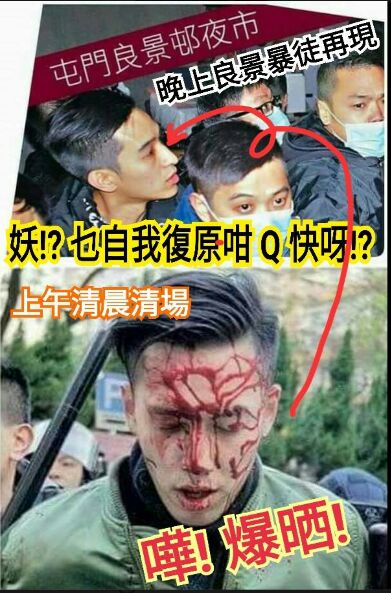
- Bottles of reddish liquid found
at Leung King Estate after the melee:
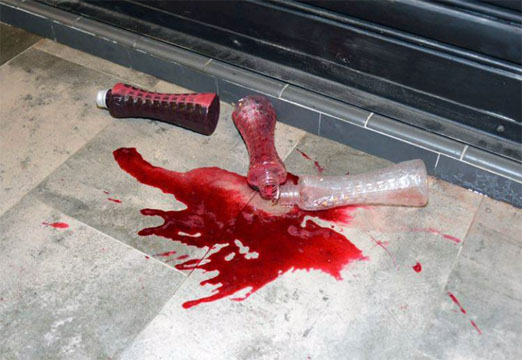
- The injury tally for the Mong
Kok riot: One hundred persons were injured, including 90 police officers, 5
reporters, one reporter on his day off, three rioters who faked injuries and one
rioter who was actually injured.
(Oriental
Daily) February 12, 2016.
At around 8am, Defend Hong Kong
Movement members outside the Kowloon City Court. Scholarism members Agnes Chow
and Oscar Lai were also present. At 815am, Scholarism member Derek Lam and Andy
"Captain America" Yung arrived in a police van. The several dozen Defend Hong
Kong Movement members rushed up and banged on the police van. Lai called them
"not to obstruct the police van." The two sides quarreled. The police set up
metal barricades. When Scholarism convener Joshua Wong showed up, there was more
shouting and cursing.
Civic Passion members were also
present. When all three parties entered into the courthouse, there was a clash.
A Defend Hong Kong Movement member claimed to have been assaulted by a
Scholarism member. The police arrested a Civic Passion member and took him down
to the Kowloon City Police Station.
The shouting continued inside the
courthouse. Defend Hong Kong Movement convener Fu Chun-chung and others cursed
out the Scholarism members who told them to keep quiet in the courthouse. Someone
tried to take videos inside the courtroom.
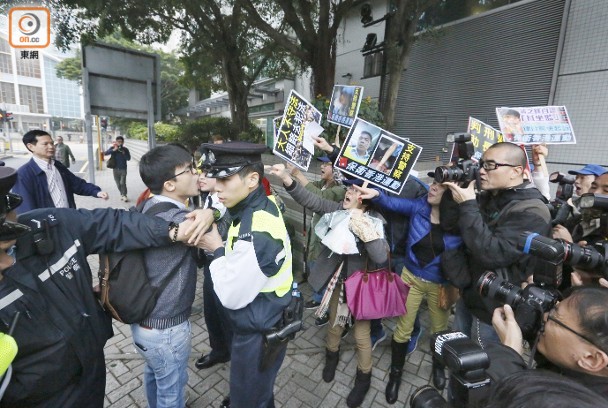
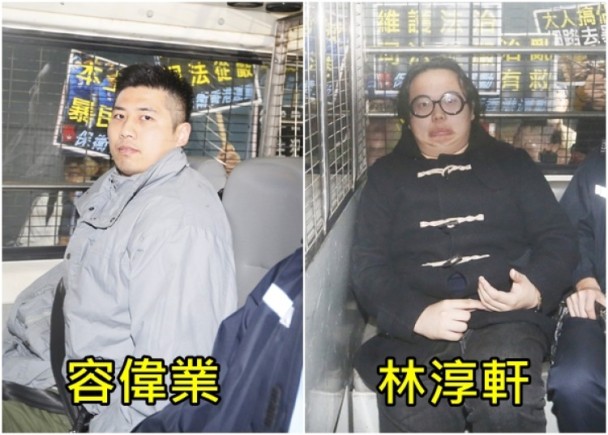
Andy Yung and Derek Lam
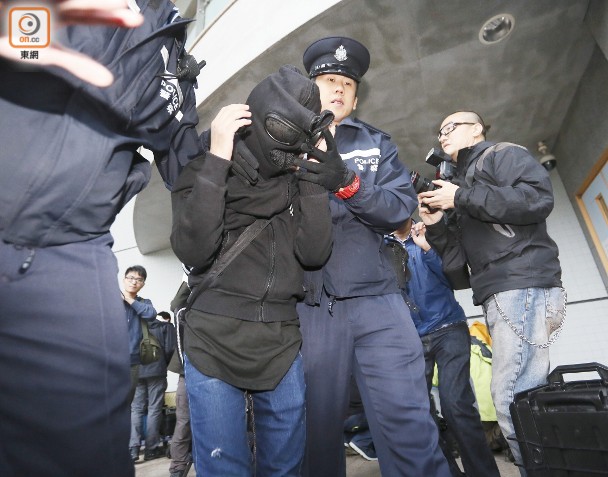
Civic Passion member taken away to the Kowloon
City Police Station
Videos:
Headline POP News
https://www.facebook.com/SaluteToHKPolice/videos/1085209814853723/
Cable TV
https://www.facebook.com/bbtauseeworld/videos/452084841655565/
Internet comments:
- Joshua Wong said that Derek Lam
did not throw any bricks. But that is not the charge. (Ming
Pao) The prosecutor said that Derek Lam had called upon the
demonstrators: "Let us charge at the police together." The defense said that Lam
never said anything such and had no idea where the accusation came from.
- (Apple
Daily) Scholarism's Oscar Lai clarified that the arrested man is not a
Scholarism member, because Scholarism will never provoke others. He said that
about 20 member have come out to support Lam. He said that Lam was merely a
peacemaker who advocated Peace, Reason and Non-violence. He said that someone is
linking the riot/disturbance to Scholarism. About 20 "uncles" showed up and
cursed out the Scholarism members as "young wastrels" and "despicable dogs."
- Derek Lam is a student while
Andy Yung is unemployed and living off his grandmother. Combined with the
defendants yesterday, this makes 22 out of 39 or 56% being wastrels.
- (Oriental
Daily) A 23-year-old was charged on Saturday. He is unemployed and
living with his parents. So that's 23 out of 40 or 58% being wastrels.
- The police withdrew charges
against Derek Lam so he was immediately released. Afterwards, Derek Lam filed
for legal costs against the government. Here is what happened.
(Weixin.qq)
On May 10, Derek Lam appeared in court to file for $700 in legal costs covering
transportation costs to the courthouse ($600) and photocopying ($100).
The magistrate noted that Lam's
lawyer Alvin Yeung (Civic Party legislative councilor) had submitted bills in
the previous court appearance for two trips (both from the Chinese University of
Hong Kong to the Kowloon City Court House).
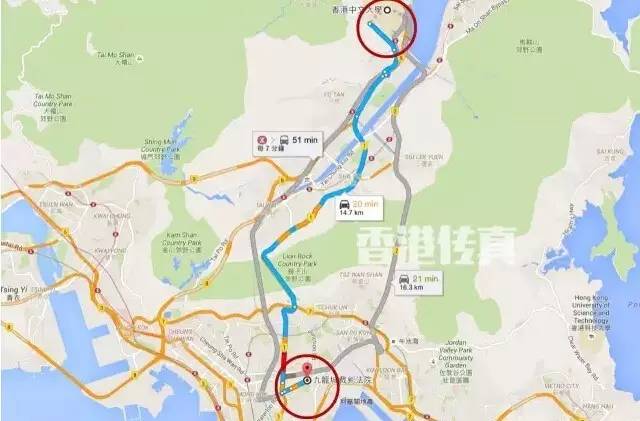
However on this day in court, Derek Lam
submitted bills for two trips (both from Sai Wan to the Kowloon City Courthouse)
totaling $600.
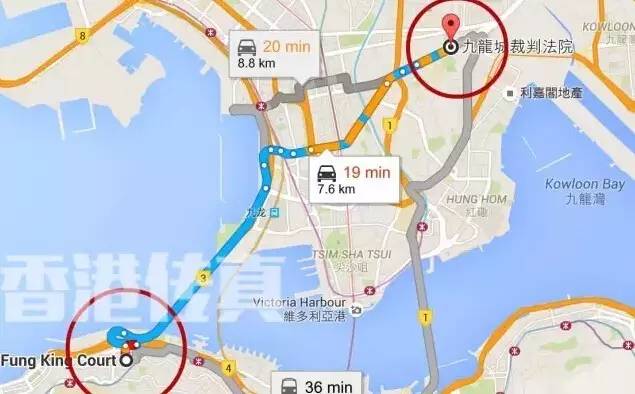
The magistrate expressed his
skepticism. Derek Lam was sworn in as a witness and stated that his memory was
faulty, and the most recent bill is the correct one. However, the magistrate pointed out
that on the first trip, Lam had been transported from Sai Wan to the Kowloon
City Court House by the police so that there cannot be any question of taxi
charges! The defense then revised the transportation fees from $600 down to
$450. The magistrate was incensed by the nonchalant attitude of the defense, and
said that there was no way to tell which version was true (or maybe all the versions
were lies!). The magistrate said that Lam's credibility is nil. In the end, the
magistrate allowed only $190 in legal fees, covering photocopying charges and
travel from/to Sai Wan by public transportation (either bus/mini-bus).
Afterwards, Derek Lam met the
press and gave a muddled statement (Oriental
Daily):
Actually I ... the magistrate also said ... that is, I am not
credible ... or making false testimony ... I am also ... let me put it this way
... I am somewhat concerned that such a conclusion may come about. I think ...
eh ... of course, I must admit that I made a mistake ... that is, I was not
emotionally prepared ... that there is some discrepancy in the documents that
were submitted ... I was in a situation of making a sworn testimony to testify
... actually, I believe ... that is, I gave sworn testimony in order to testify
... actually, I feel that this is completely different from making false
testimony ... yes ... that's my conclusion ... actually, today ... today, I
especially said that I took a taxi from Sai Wan to come here ... it was also
around $150 ... $147 ... actually ... what I gave ... the figures that I gave my
lawyer to hand in ... they are completely accurate. This is vastly different
from giving false testimony ... the so-called intentional deception of the court
... of course, I need to admit that I do have a mistake in this ... the
documents that were submitted the last time had not been rigorously prepared ...
that was my problem.
(Ming
Pao with video) February 11, 2016.
As the defendants came out, a
number of masked young men formed a human chain to shield them. These included
former Student Frontier member Cheng Kam-mun, Civic Passion members Wong Yeung-tat
and Cheng Chung-tai. They said that the defendants don't want to be known and
they told the reporters not to take photos. A middle-aged woman shouted at a
photographer: "What are you reporters doing? You are taking photos on behalf of
the police! Hong Kong does not have a Fourth Estate anymore." There were clashes
and some reporters fell down. The police maintained order.
Hong Kong Indigenous had
previously declared that they had raised $100,000 in donations. However, they
did not send any lawyers out to represent anyone. Hong Kong Indigenous member
Edward Leung was represented by a court-appointed lawyer.
(Oriental
Daily with video) February 11, 2016.
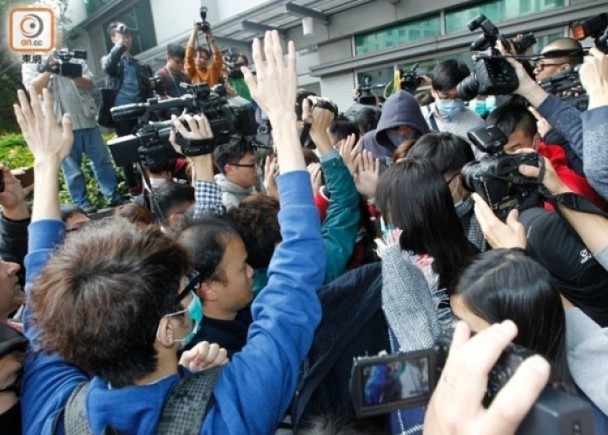
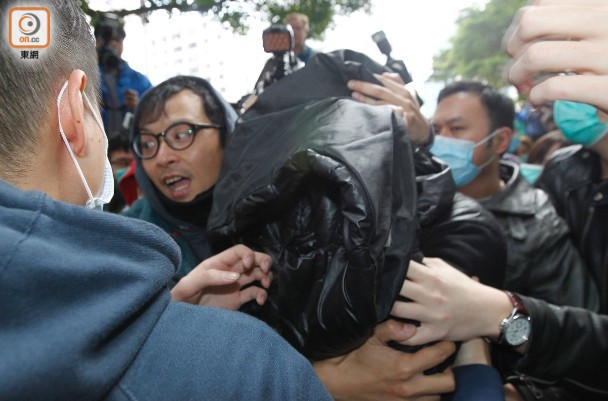
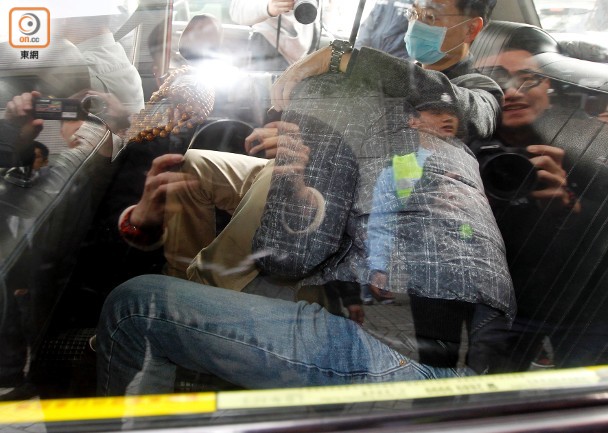
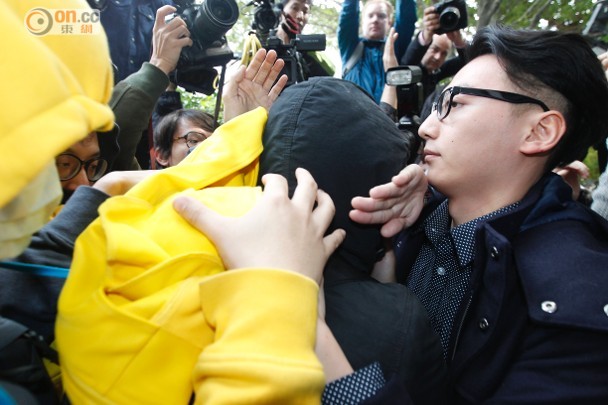
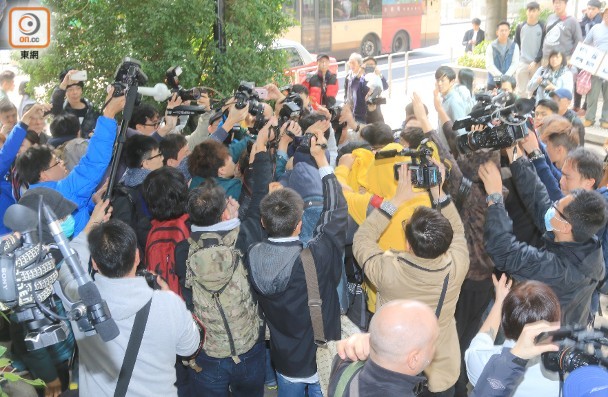
37 suspects appeared in court
today. As they stepped out of the courthouse, they wore hoodies and surgical
masks to cover up their faces and they lowered their heads to avoid the cameras. More
than 10 supporters escorted each of them out. One of the defendants needed to take a taxi
across the street, so it got very chaotic with the horde of reporters jostling
with the supporters. Police help was required in order for the suspect to get
across the road. There were quarrels between the supporters and the media. When
another suspect left, the supporters called a taxi to come to the front of the
courthouse. The reporters rushed over and chaos reigned once more. But that
defendant was still awaiting bail inside the courtroom. The supporters formed a
human chair of more than 20 persons in order to prevent the media from gathering
news and to escort the defendants to leave. The supporters included Hong Kong
University Student Union ex-president Yvonne Leung and current president Billy Fung, Civic Passion founder Wong Yeung-tat and his wife, Keybord Frontline
spokesperson Glacier Kwong, etc. Some supporters acted ferociously, using their
bodies to prevent the reporters from taking photos and demanding that the police
make way for the taxis to leave.
(Bastille
Post with video) February 11, 2016.
Today at the Kowloon City
Magistrate Court, 37 defendants appeared and were allowed bail. As they left,
they were escorted by a group of masked men who covered the faces of the
defendants. A large number of Hong Kong University students, Civic passion
members, family members and other supporters came. They were unhappy with the
media taking photos, so they blocked the cameras. They told the defendants not
to come out yet until they are ready. The supporters and the media quarreled and
pushed each other even as cars continue to pass nearby.
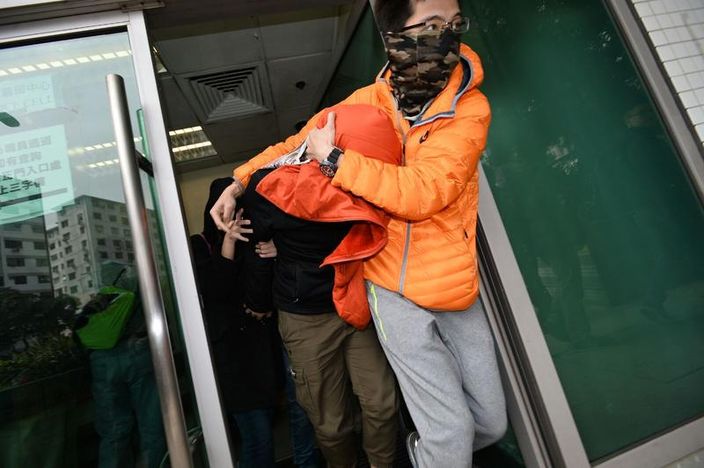
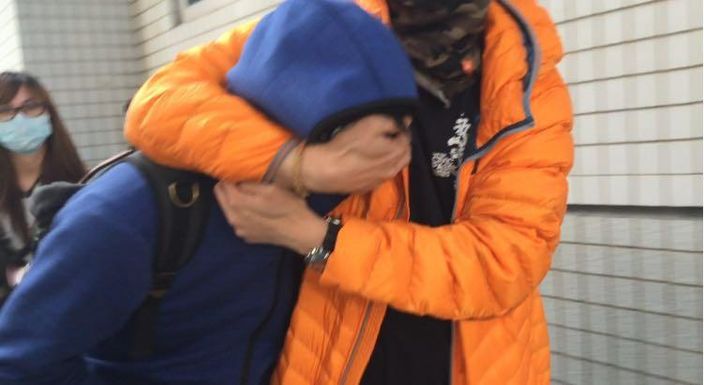
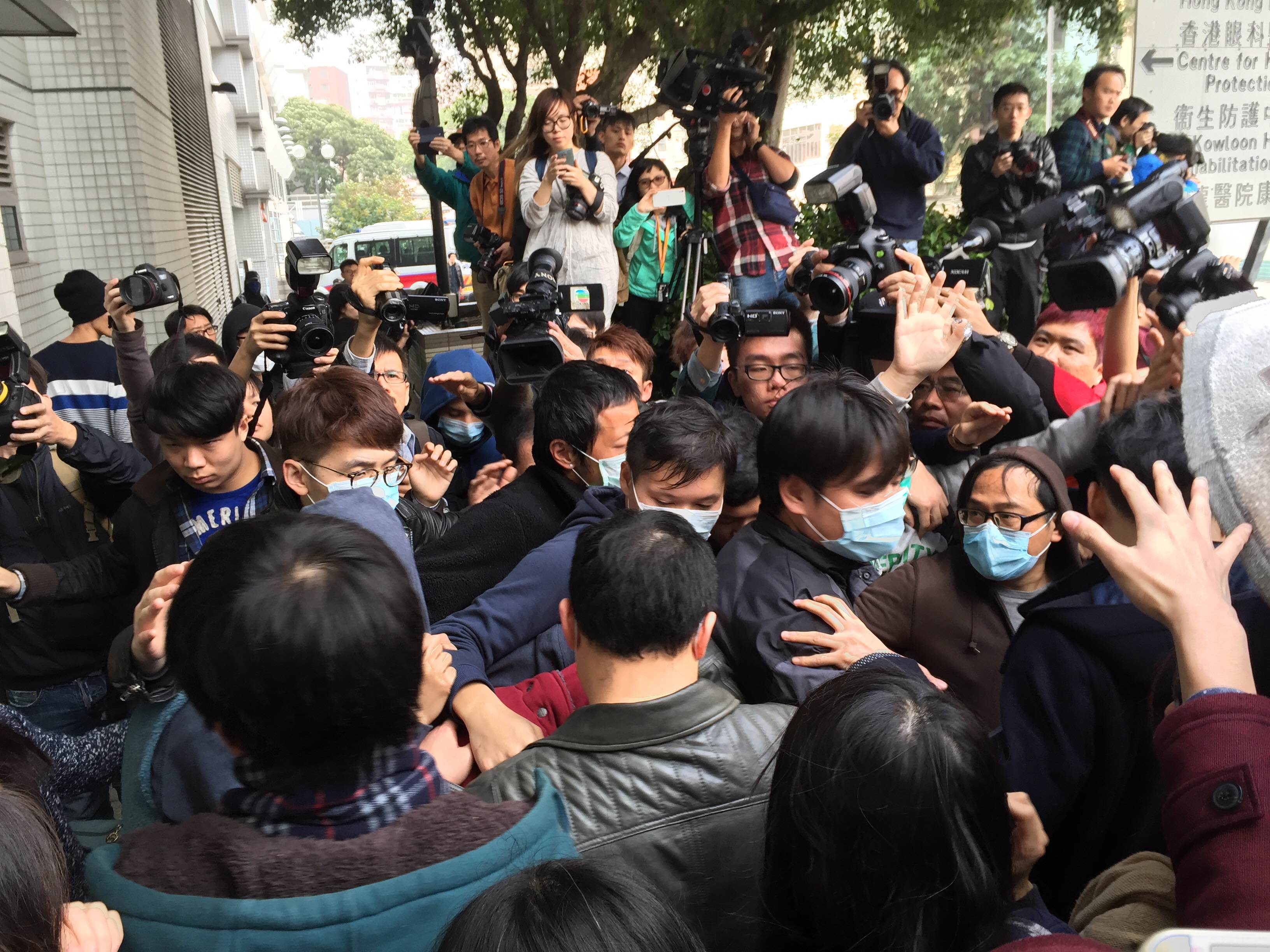
(SCMP)
February 11, 2016.
The first of the 37 defendants charged in
connection with a Mong Kok Riot on Tuesday has appeared before a magistrate
at Kowloon City Court, and was barred from entering parts of Mong Kok as he
was granted bail. Senior Assistant Director of Public Prosecution David
Leung Cheuk-yin SC asked the court to impose an injunction on clerk Ho
Siu-cheung on the grounds of public safety. Ho, 21, charged with one count
of rioting, was the first to appear in Kowloon City Court on Thursday. He is
accused of participating in a riot between February 8 and 9 in Mong Kok. Ho
has been barred from setting foot in an area near Fai Yuen Street, Dundas
Street and Shanghai street. Leung asked for the case to be adjourned to
April 7. �This is for further police enquiries and legal advice,� he said.
Other defendants who have appeared so far
have faced the same charge and injunction, with one exception. Their case
was also adjourned to the same day. Those charged include activist group
Hong Kong Indigenous spokesman Edward Leung Tin-kei, who is running for the
upcoming Legislative Council by-election, and Stephen Ku Bok-him, the
editor-to-be of Hong Kong University�s student magazine Undergrad.
The other defendants are: Sung Kwun-wo, Sit Tat-wing, Kenny Wong Hok-shun,
Kenny Chan Ao-tien, Cheung Chin-to, Mok Pak-hin, Lin Yun-fat, Wong Sai-kit,
Li Cheuk-hin, Chan Koon-ki, Tang King-chung, Wong Ho-sing, Leo Chan Siu-kwan,
Sit Kwun-fai, Lee Sin-yi, Lai Man-tsun, Chan Hei-man, Philip Tsang Chiu-yu,
Leung Tin-kei, Lee Nok-man, Li Pui-ho, Ken Lo Kin-man, Chan Cheuk-hin, Chan
Pak-yeung, Ng Ting-kai, Churk Ling-hon, Tsang Kin-hang, Chan Ho-man, Hui Ka-ki,
Mak Tsz-hei, Stephen Ku Bok-him, Chan Wo-cheung, Mo Jia-tao and Tam Hiu-tung.
Tam, 27, faced an amended charge of
unlawful assembly. Later, outside court, Leung explained the prosecutors
decided to amend the charge because the facts they uncovered did not support
the original charge and allegations.
After the hearing, the defendants were
ushered out by their supporters from the police cell wrapped in hoodies and
wearing masks to conceal their identity. They squeezed past dozens of
cameramen and photographers to taxis or private vehicles. Shouting and
shoving ensued between journalists and the supporters. Some supporters
covered taxi windows with pullovers to prevent photos from being taken. Seen
helping them were activist group Civic Passion�s Wong Yeung-tat and Cheng
Chung-tai.
Exiting the courthouse, defendant Edward
Leung Tin-kei, a spokesman for localist group Hong Kong Indigenous, said he
would do his best to help the �60 something families� affected. He also said
he was subject to �inappropriate use of force� while under custody and had
filed a complaint. �I will try to contact more lawyers and see if we can
enlarge our legal team,� said Leung. �In terms of money, we will also need
more help [to raise funds], so I will work on this,� he added. Leung refused
to comment on his campaign in the Legco by-election, which is scheduled in
three weeks. �The election is another matter ... There are other things more
important right now,� he said. Leung has so far been the only defendant not
to hide his face from cameras throughout the day.
The case attracted a lot of attention from
the public, with the Kowloon City courtroom becoming packed just minutes
after it opened its doors on Thursday morning. More than 100 people gathered
at the fifth floor of Kowloon City Court before entry to the courtroom that
was expected to hear the defendants� cases was allowed at 9.15am. The
court�s public gallery seats were filled in less than three minutes. It was
not immediately clear whether the crowd was composed of supporters of the
defendants, but at least one person was spotted wearing a black surgical
mask. Among the crowd, there were activists, including Scholarism convenor
Joshua Wong Chi-fung, University of Hong Kong�s student union president
Billy Fung Jing-en, and founder of now-defunct political group Student Front
Alvin Cheng Kam-mun.
(SCMP)
Defenders of Mong Kok riot now turn their wrath on journalists. By Alex Lo.
February 16, 2016.
Radical localists have proved to be a
direct threat to the rule of law, freedom of speech and freedom of the
press. So it�s ironic to see so many pan-democratic politicians, student
leaders and so-called scholars � at any rate people on the pay roll of
universities � lining up to defend or at least justify their behaviour.
These are the same people who, after all, make a living sloganeering about
such core values. I guess we don�t need Beijing or the government to
undermine them. Localists, those monsters they have helped unleash on Hong
Kong, are doing a fine job destroying those values we hold dear.
A group of �scholars� � well, mostly ageing
assistant or associate professors without a PhD � has demanded the
government form an independent commission to look into the Mong Kok riot, on
the premise that Leung Chun-ying�s government was ultimately responsible for
it.
Meanwhile, Benny Tai Yiu-ting, of the
failed Occupy Central movement, has blamed Leung for the riot. I am no
clever lawyer like Tai, but shouldn�t the rioters be responsible for the
riot?
I confess I wrote this column under a
conflict of interest. That�s because I now fear for my safety and that of my
colleagues working in the news industry. A nasty little essay, presumably a
manifesto by localists, has been circulating on the internet and has gone
viral. It�s titled: �Our fists will treat you the same way your lenses treat
us.�
Well, you get the idea; it�s open season on
us poor journalists. The piece says we have no right to take pictures of
non-public figures. But if we do, we have a responsibility to hide their
identities, unless we have their prior consent to publish.
It claims this is an ethical rule that
governs the conduct of war correspondents and photographers.
First, I find it interesting the piece is
indirectly comparing the Mong Kok riot to a war. In a real war, it could be
a matter of life and death if you identify someone. But in Mong Kok, we were
helping to identify lawbreakers and rioters. So journalists have an added
responsibility not only to show the public what was going on, but as
citizens to help identify the wrongdoers.
But there is no point trying to reason with
them. They are basically issuing a direct threat to journalists trying to do
their job. I hope the police will launch an investigation.
(SCMP)
March 21, 2016.
By the time the Mong Kok
riot suspects return to court next month, the secretary for justice, Rimsky
Yuen Kwok-keung, has said �we might need to add further charges�.
Yuen takes the matter
�very seriously� and, evidence permitting, apart from riot he has a galaxy of
potential charges at his disposal. Of course, there must be a reasonable
prospect of conviction before he can bring further charges, and they should
also reflect the alleged criminality of the suspects, particularly the
violence.
If the people who
allegedly attacked the 90 police officers and five journalists, causing facial
injuries and fractured bones, can be identified, Yuen will need to consider a
charge of wounding with intent to cause grievous bodily harm, depending on any
injuries.
Whether a more
serious charge of attempted murder is available for those who allegedly
assaulted the police officer on the ground will depend on the evidence, the
circumstances, and the inferences to be drawn from a fast-moving situation.
Lesser offences, such as
assault occasioning actual bodily harm, unlawful wounding, assaulting police
officers acting in the execution of their duty and common assault, provide
prosecutors with possible fallback charges, if more serious offences are
problematic.
As regards the people
who allegedly set fire to litter bins and then started fires in 22 different
places, Yuen must decide whether, considering the damage, he can mount
prosecutions for arson.
If it can be ascertained
who allegedly threatened the journalists and cameramen as they covered the
disturbances, and prevented them from going about their lawful business, the
culprits may be prosecuted for criminal intimidation.
During the disturbances,
some people reportedly damaged property, including police vehicles and sign
posts, and, according to the secretary for security, Lai Tung-kwok, they also
dug up 2,000 bricks from 110 square metres of pavement. Criminal damage,
therefore, appears to be the tailor-made charge for those responsible,
provided their involvement can be established.
As the disturbances
developed, some people allegedly deployed bricks, broken bottles, sharpened
bamboo sticks and even gas cans in order to make their case. Where possible,
therefore, Yuen will need to consider charging the suspects with unlawful
possession of offensive weapons in a public place.
If, as is possible, the
disturbances were not spontaneous but planned, those responsible may be
charged with sedition which, contrary to popular belief, is an existing
offence, independent of the Basic Law�s Article 23.
The Crimes Ordinance
defines a seditious intention as �as an intention to incite persons to
violence�, and sedition, therefore, potentially covers anyone who orchestrated
the violence. Sedition must, in law, be charged within six months of the
offence, so Yuen must not delay.
Given the gravity of the
possible offences, some punishable with life imprisonment, Yuen will also need
to consider transferring the cases to the High Court, with its wide sentencing
jurisdiction.
(Hong
Kong Free Press) April 7, 2016.
The Kowloon Magistrates� Court has agreed to
a prosecution request to drop riot charges against ten of the defendants
involved in the protests that broke out in Mong Kok over the government�s
clearing of street hawkers in February.
The ten defendants include a member of the
now-defunct Scholarism organisation, Derek Lam Shun-hin, the University of
Hong Kong publication editor Stephen Ku, and a 15 year-old whose identity
cannot be revealed. A total of 43 defendants charged with rioting and unlawful
assembly appeared before the court on Thursday morning.
The Kowloon Magistrates� Court has agreed to
a prosecution request to drop riot charges against ten of the defendants
involved in the protests that broke out in Mong Kok over the government�s
clearing of street hawkers in February.
The ten defendants include a member of the
now-defunct Scholarism organisation, Derek Lam Shun-hin, the University of
Hong Kong publication editor Stephen Ku, and a 15 year-old whose identity
cannot be revealed. A total of 43 defendants charged with rioting and unlawful
assembly appeared before the court on Thursday morning.
The cases concerning
other defendants, such as Edward Leung Tin-kei of Hong Kong Indigenous, have
been adjourned to May 10. Leung has been granted bail of HK$5,000.
(SCMP)
August 30, 2016.
The first round of
individuals accused of rioting in Mong Kok during the Lunar New Year will
stand trial early next year.
Lawyers of
students Hui Ka-ki, 22, and Mak Tsz-hei, 19, and cook Sit Tat-wing, 33, on
Tuesday indicated that the three defendants intended to plead not guilty. They
face one joint charge of rioting, which allegedly took place on the northbound
lane of Nathan Road, near Soy Street, on February 9. The District Court heard
that one of them allegedly threw bamboo during the unrest.
Prosecutors are
expected to call 20 police officers as witnesses, and will rely on footage
taken by both the police and TVB. But prosecutors did not plan to summon
photographers who made the cited footage.
A pre-trial review
is scheduled for January 13, ahead of a trial starting on February 6.
Prosecutor Andy Lo
Tin-wai said 10 days should be sufficient for the trial, factoring in time to
decide the admissibility of evidence. He added that all three defendants were
arrested on site.
The defence
meanwhile, had indicated they would dispute aspects of Sit�s cautioned
statement, including its voluntariness.
Judge Anthony Kwok
Kai-on reminded all three defendants to keep in touch with their lawyers and
abide by bail conditions, which included an injunction over the alleged site
of the offence. �The charge faced by the three of you carries a certain degree
of severity. Otherwise you wouldn�t be in District Court,� Kwok said. �Please
keep in touch with the Legal Aid lawyer assigned to you.�
At least 55 people
have been charged over the Mong Kok riot since February, with 20 of them
discharged from prosecution due to insufficient evidence.
Hui, Mak and Sit
make up the first batch of defendants transferred from Kowloon City Court to
have their cases heard at the District Court, with two more batches � of five
and 10 defendants � to be brought to the same court.
(Hong
Kong Free Press) August 7, 2017.
Localist figure Edward Leung is facing an
additional charge of police assault over the clashes in Mong Kok last
February, having previously been charged with two counts of rioting and one
count of inciting a riot over the night of unrest.
�During these times of retribution, those on
the road of resistance will face many difficulties,� Leung told reporters,
following a closed-door chambers hearing at the High Court on Monday. �I
cannot change history; the only thing that can be done is to look ahead,�
Leung said, according to Apple Daily.
Aside from Leung, defendants Yung Wai-yip,
Lam Lun-hing and Yuen Chi-kui are also facing additional charges of conspiracy
to riot and arson respectively following the pre-trial review on Monday.
The ten defendants at the trial � among them
Hong Kong Indigenous spokesperson Ray Wong � have been charged with rioting,
inciting a riot, inciting an unlawful assembly, and other offences.
A second pre-trial hearing will take place on
October 14, with the trial set to commence on January 15, 2018 at the High
Court. It is expected to last 80 days.
Rioting carries a maximum penalty of ten
years� imprisonment under the Public Order Ordinance. Unlike the District
Court, where the maximum sentence a judge can hand down is capped at seven
years, there is no general limit as to the length of imprisonment in cases
taking place in the Court of First Instance. A High Court judge can therefore
impose the highest penalty set out in the legislation.
Videos:
Oriental Daily
http://hk.on.cc/hk/bkn/cnt/news/20160211/bkn-20160211114933268-0211_00822_001.html
https://www.youtube.com/watch?v=y5tUa72DO1Q
Headline POP News
http://pop.stheadline.com/content.php?vid=40415&cat=a
Headline POP News
http://pop.stheadline.com/content.php?vid=40409&cat=a
INT News Channel
https://www.youtube.com/watch?v=319fpvjpJmI
SocREC
https://www.youtube.com/watch?v=IZmD6q_ahKQ
Born in a Time of Chaos Facebook
https://www.facebook.com/481268305414952/videos/481538878721228/
https://www.facebook.com/481268305414952/videos/481538382054611/
https://www.facebook.com/1640482902830291/videos/1692553090956605/
https://www.facebook.com/1640482902830291/videos/1692564777622103/
https://www.facebook.com/1640482902830291/videos/1692564864288761/
https://www.facebook.com/1640482902830291/videos/1692564934288754/
https://www.facebook.com/1640482902830291/videos/1692571870954727/
Felix Lam
https://www.facebook.com/100011355993340/videos/105700953151771/ A
32-year-old cook Wong Sai-kit against an entire police squad on Sai Yee
Street. What was the point? Why insist that
the police should arrest him when they had no interest in him? They
kept telling him but he persisted in an argument. (Ming
Pao) Wong Sai-kit said that he was originally arrested for
obstruction of police business but the charge was changed to rioting in
court. He said that there was no reason for him to be charged with rioting.
Internet comments:
- The Chinese word
示威 for 'demonstration' literally
means a show of force/strength. These 'demonstrators' didn't even dare to show
their faces!
P.S. Some of them covered their faces with cardboards that their supporters had
purchased for $5 from scavengers working nearby.
- Revolutionaries who are
resisting the tyrants are usually most concerned about news blackouts being
imposed on their actions. These Fishball Revolutionaries are the opposite,
because they tried to stop news coverage all the way from the battlefield to the
courthouse. Can you imagine Nelson Mandela, Mahatma Gandhi or Aung San Suu Kyi
trying to cover their faces with cardboards when they have to appear in court?
- Here are the particulars of the
37 who came before the court today (name, age, occupation):
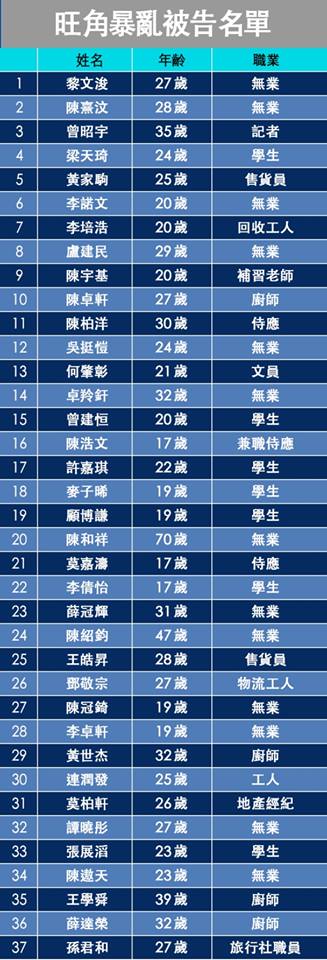
By occupation, the tally is:
13 unemployed
7 students
4 cooks
2 salespersons
2 full-time waiters
1 part-time waiters
1 recycling worker
1 reporter
1 private tutor
1 logistics worker
1 worker
1 real estate agent
1 clerk
1 travel agency worker
Just as one would expect, this
profile is a group of young wastrels who make no significant contribution
to society. 35% unemployed and 19% students, which means at least 54% are just
living off the taxpayers.
- These people fall into the Three NO's category: No money, no career, no
future.
- (HKG
Pao) A well-informed person said that two of the 37 have triad
backgrounds. More interesting are the 13 unemployed persons. The present
unemployment rate in Hong Kong is just over 3%. It is easy to find a job that
pays $10,000+ per month, such as in the restaurant or construction industry. These
13 people are unemployed not because they can't find a job but because they
don't want to work. It is one thing for the government to take care of
university students in terms of high-paying jobs and easy access to home
ownership, but the government needs completely different policies to deal with
people who want to riot and don't want to work.
- (HKG
Pao) Today 38 suspected rioters appeared in court. Oddly enough, all the
suspects, their friends and family members wore surgical masks inside and
outside the courtroom. We can understand why the family members don't want to be
known because they were dragged into this without any choice. But why would the
suspects continue to wear surgical masks just like they did on the night of the
riot? It makes one wonder about all that talk on "protecting the street hawkers"
and "valiant resistance." Why won't they let us see their real faces? Are they
beginning to feel ashamed?
- The reason why these suspects
are fearful of being identified is simple: Their names, ages and occupations
have been published. If their faces are known as well, then their enemies may
come after them.
- For example, 27-year-old Sung Kwun-wo works for a travel agency. It has also
been published that he is
exempt from the Mong Kok ban between 8am and 9pm because he works at the Wing Lung Bank Centre, Mong
Kok district. So this means Sung works for one of the fifteen travel agencies on
the third- and fourth-floor of the building. If his face is also known, then it is
easy to go to his agency and cause enough trouble to get him fired. There is
nothing unique about this type of bullying because all sides have used it
before.
- Edward Leung is the exception,
his face is already well-known (see, for example, Lost Dutch
https://www.facebook.com/LostDutch/videos/1521164744845949/) and because
his group Hong Kong Indigenous brought about the riot in order to promote his
New Territories East Legislative Council by-election campaign. He does not fear
the publicity; he wants the publicity. That was the raison d'�tre of the
riot.
- Valor means never letting your
face be seen.
- Who
was that masked man?
- The Hong Kong Police's
Special Duties Unit (nicknamed the Flying Tigers) wear ski masks during
operations in order not to be identified.
-
Anti-mask
laws are legislative or penal initiatives that seek to stop individuals
from concealing their faces, who do so often for political or cultural purposes.
Given that anti-mask laws exist in United States, Canada, Austria, Denmark,
France, Germany, Norway, Russia, Spain, Sweden, Switzerland, Ukraine and United
Kingdom, it is time that Hong Kong should adopt this international standard.
- A cordon of supporters to escort
the rioters out while preventing the media from gathering news? Whatever
happened to the old warhorses of "Freedom of Press" and "The Public's Right to
Know"?
- The Hong Kong Police should adhere to international standards and hold a
perp walk.
- Funny that the supporters outside the courthouse should be denouncing the
media for working for the police when they tried to take photos. Eh, when the
police bring you in and book you on suspicion of crimes, they take a photo of
you with an ID bar in front and the height indicator on the wall behind you. So they have a
much clear photo of the defendants than any that can possibly be taken outside
the courthouse today. Now if the Hong Kong Police could adhere to international
standards and share those photos with the media, that would satisfy the public's
right to know ...
- In order to get from the courthouse door to the taxi, they required police
assistance. Just a few days ago, they were ready to kill the cops. LOL.
- (Aeon)
Possessed by a mask. By Sandra Newman.
As soon as people put on masks
they begin to violate social norms. In psychology, this effect is known as �disinhibition�,
and there�s a rich research literature on masks as disinhibiting props. In a
typical experiment in 1976, researchers at Western Illinois University paid
students to walk around their campus cafeteria carrying a banner reading:
�Masturbation is fun.� Students who were allowed to wear a ski mask were willing
to do it for an average of $29.98, while bare-faced students demanded almost
twice as much. A 1979 study at Purdue University found that trick-or-treating
children, when left alone with a bowl of candy and told to take just one piece,
were significantly more likely to grab a handful if their costumes included
masks. This was true even when they had already told the researchers
their names.
- Cyd Ho Sau-lan (Labour Party)
explains: "The main purpose of the surgical mask is to prevent the spread of
germs. It is very unprofessional to legislate whether to wear or not to wear a
surgical mask."
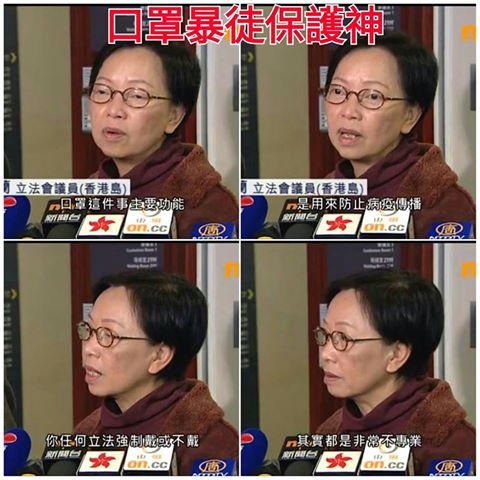
Her brilliant and perceptive line of reasoning should be offered to the
countries which have anti-mask laws.
-
Love means
never having to say that you're sorry.
Apple Daily and its reporter Gary Ma have just said sorry, because he
was blocking the exit of those unconvicted defendants in the Mong Kok incident,
he did not wear a press pass and he said: "If you can do it, then why are you afraid
to be photographed?"
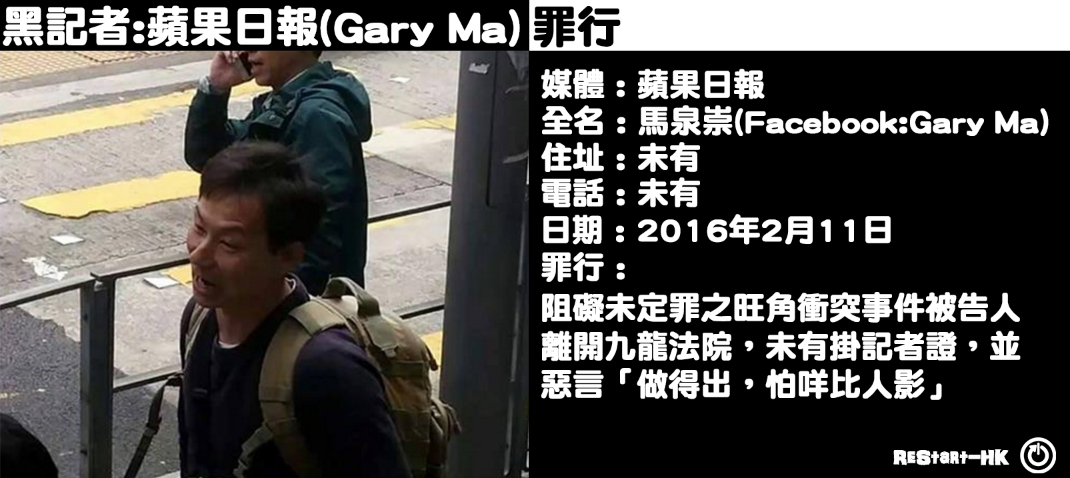
Born in a Time of Chaos Facebook
https://www.facebook.com/1640482902830291/videos/1692551290956785/
https://www.facebook.com/1640482902830291/videos/1692549944290253/
- (Wen
Wei Po) A bunch of masked young men formed a human chain to "protect"
the various suspects and help them get on taxis. A middle-aged woman yelled:
"What are you reporters doing? You are helping the policemen to take photos!"
Apple Daily reporter Gary Ma countered with :"If you did it, you shouldn't be
afraid of being photographed." Afterwards someone posted the detailed personal
information of Gary Ma and all the Apple Daily reporters onto the Internet.
Shortly afterwards, Apple Daily confirmed the identity of Gary Ma and issued an
apology to all those present.
In truth, many of the rioters
attacked the reporters during their news gathering. A TVB cameraman was almost
stabbed by a broken bottle. Veteran commentator Wong On-yin wrote: "Justice
fighters were targeting TVB. The Journalists Association comes out with a
condemnation. Fuck this Journalists Association! Press neutrality should only be
defended when it is free. News workers who act as hitmen for the authorities are
not sacrosanct. They are part of the evil forces, part of the Evil Police. We
don't have to give them any leeway."
The ReStart-HK Facebook said to
journalists: "How you treat us with your cameras is how our fists will deal with
you." Journalists are instructed on how to gather news, including identifying
themselves to the demonstrators, indicating the desire to film and proceeding to
film only after receiving permission from the demonstrators. Otherwise, there is
reasonable doubt about this journalist and his/her media outlet, "and the
demonstrators should retaliate with appropriate methods in order to guarantee
their own personal safety."
- Did Gary Ma apologize himself? Or was he
"apologized" by Apple Daily senior management?
- (Bastille
Post) July 6, 2016. Unemployed male Fok Ting-tin was previously charged
with rioting in Mong Kok. In a separate case, Fok and three others (18-year-old
male named Wong, 18-year-old male named Choi and 17-year-old female named Tai)
with assaulting a pedestrian and robbing a mobile phone at the Tai Po Waterfront
Park on June 26. In court, the prosecutor said that Fok was identified by a
shopkeeper as the individual who sold the robbed mobile phone to him.
- (Apple
Daily) July 6, 2016. The four defendants were also accused of assaulting
another citizen at a bus stop in Tai Po Old Market during an attempted robbery.
示威
示威
(The
Stand) February 9, 2016.
Chief Secretary said about the
Mong Kok riot on Lunar New Year's Day. "This was not an ordinary demonstration.
It was an organized riot. They planned to set fire to police vehicles and they
attacked the front line police officers. Certain political parties and
organizations characterize the incident as one about how to handle itinerant
street vendors. I call on all the friends in political parties and groups. This
matter is a riot from top to bottom. Do not try to find any excuses to cover for
them, including that this is a matter of how to deal with street vendors, or
whether the government has government problems, or whether the non-violent
Occupy Central accomplished nothing during the constitutional reform and
therefore violence becomes inevitable. I think these are are all excuses. We
cannot make up excuses for the violent behavior of a small group of young
people. This incident should be condemned by all citizens."
The two main diversionary ruses so
far are (1) a policeman fired two shots into the air to warn off rioters who
were attacking his fallen colleague and (2) a Ming Pao reporter was attacked by
the police.
On the matter of the policeman
firing the warning shots into the air, you can watch the videos at
HKG Pao and take a vote.
(EJ
Insight) August 11, 2016.
The
government has come in for criticism for honoring some police officers who
were involved in handling the Mong Kok street protests earlier this year.
Questions have been raised especially over the appropriateness of giving an
award to an officer who fired live rounds into the air during the February
clashes between protesters and the police.
Lawmaker Raymond Chan Chi-chuen, vice chairman of the People Power political
group, said a commendation to Wong Hing-wai, the traffic officer who fired
live ammunition into the air, will be seen as a provocative act and will
widen the mistrust between the public and the police. A policeman who fires
shots should not be deemed brave, said Chan, who is seeking re-election from
a seat in the New Territories East constituency in next month�s Legislative
Council polls.
Alvin
Yeung Ngok-kiu, a Civic Party lawmaker who is also seeking re-election,
demanded that the police department unveil a review report to the public so
that citizens will get to know the truth about controversial Mong Kok
incidents.
Baggio Leung Chung-hang, who is running for
a Legco seat on behalf of the localist group Youngspiration, said
authorities should not have endorsed Wong�s act by honoring him. Leung, who
was at the scene in Mong Kok when Wong fired the warning shots, said the
officer did a wrongful act and that honoring him was inappropriate. The
public now has reason to be concerned that Hong Kong would be reduced to a
police city, he said.
The
criticism came after Police Commissioner Stephen Lo Wai-chung awarded
�lanyards� to four officers Wednesday, citing ir courage and dedication to
duty during the Feb. 8 clashes between police officers and protesters in
Mong Kok.
The
awardees were three traffic officers from Kowloon West and a female station
sergeant of the Kowloon city police district, the Hong Kong Economic Journal
reported.
Officers from 15 units of police force were
also commended in a closed-door ceremony attended by high-ranking officers,
including those from the Counter Terrorism Response Unit, Police Tactical
Unit and crime unit of Kowloon West Regional Headquarters.
More than 100 people, including police
officers and protesters, were injured in the Mong Kok clashes, which the
government has dubbed a �riot�. Demonstrators took to the streets following
a dispute triggered by eviction of street hawkers from Portland Street by
officers of the Food and Environmental Hygiene Department. Dozens of people
who were accused of participating in the clashes are facing court trials,
with most being charged with one count of rioting.
A source who attended the police awards
ceremony Wednesday told Apple Daily that Police Sergeant Wong Lok-on, who
suffered skull and cheekbone fractures during clashes, was awarded the top
�red lanyard�, a commendation by the Chief Executive.
Wong Hing-wai, the officer who fired shots
in the air to warn protesters, was awarded the �lanyard in four colours�, a
commendation by the police commissioner. He was specifically praised for his
act because it was considered as one that required �unmatchable courage�.
Though Wong�s move was highly
controversial, an internal police investigation deemed the action reasonable
and proper as it was felt that the officer was trying to keep himself and
his colleagues away from harm.
(Hong
Kong Free Press) August 10, 2016.
On Wednesday the Hong Kong Police Force
held a closed-door ceremony to commend many of its officers who took part in
the Fishball Revolution. Interestingly, noted for special recommendation is
Wong Hing-wai, who infamously fired his gun into the air to apparently
control the spiralling situation in Mongkok during Chinese New Year.
Society is split on whether Wong�s actions
were the right thing to do. Some would argue that it was a gesture of last
resort to save his downed colleague. Others would argue that it was the
firing of the gun that directly led to the much more violent clashes that
followed.
There is much confusion about the timeline
of the riots. Most people have seen the various videos, but don�t know how
they all fit together chronologically. So, it�s hard for them to decisively
make up their minds; was the firing of the gun a brave act that prevented
further escalation? Or was it the spark that spread the flames of riot
across Mongkok?
If only there was some way to know.
Directly after the riots, I conducted many
interviews with people who were in various parts of Mongkok that night and
there is one key incident that no citizen cameras recorded, but was
incredibly significant in how the night spiralled into violence and directly
relates to Wong Hing-wai�s firing of his gun.
In order to understand what really happened
in Mongkok and, more importantly, what could happen again in a fresh round
of government-citizen conflict, it�s necessary to reveal the untold story of
the Fishball Revolution.
During the clearing of Portland Street,
protesters were, for the most part, split into two groups. A large group
were aggressively pushed north up to Argyle Street by a large phalanx of
riot police. With nowhere to go, the angry crowd spilled onto Argyle Street
and some members entered into the violent confrontation that led to Wong
Hing-wai�s shots.
At this point in the night, despite what
certain media outlets and the police might say, no bricks had been thrown.
It can also be clearly seen from the many videos that the majority of the
items that were hurled at the small collection of traffic police left to
hold Argyle Street were items initially intended to block the road.
I have great sympathy for this small band
of unlucky police, who were basically put into a precarious and dangerous
situation by the myopic incompetence of the senior officers, whose goal
seemed to be to clear Portland Street without any regard to what the crowd
would do next. This elementary mistake would repeat itself many times during
the night.
Significantly, many other protesters on
Portland Street were not pushed north to Argyle Street but instead moved
south and then east onto Nathan Road. Just like on Argyle Street, a
handful of traffic police were left to keep Nathan Road clear.
Having, for the most part, escaped the full
frontal attack of the riot police pushing down Portland Street, this group
of protesters weren�t nearly as agitated as those on Argyle Street and began
playing the penny game at the large traffic light junction of Nathan and
Argyle. The penny game consists of dropping pennies on the road or zebra
crossing and taking an unreasonably long time to cross � it was extensively
used during the Occupy protests of 2014. It is a low intensity, half-jovial
way to annoy the police.
There were about four policemen manning the
zebra crossing on Nathan Road and doing their best to keep the crowds and
traffic moving. The firing of the gun had already happened and no one on
Nathan Road had either witnessed it or heard it. But, the information that
the police had shot at the crowd began to filter through via people�s
phones.
By the third cycle of the zebra crossing
turning green, the crowd on Nathan Road turned angry at the news of the gun
being fired and they spontaneously attacked the traffic police holding the
road. All of the traffic police at the zebra crossing were seriously
assaulted and literally had to run for their lives from the scene. With the
traffic police gone, the crowd occupied Nathan Road.
Of course, these assaults do not fit into
the police narrative that Wong is a hero who saved his fellow officers from
further violence because, as can be seen, his firing of the gun directly led
to the assault of even more of his colleagues. Whether it was morally right
to do this or not is not the point here. What is salient is what motivated
these protesters to act, and it was unquestionably Wong firing his gun.
Unfortunately, this incident was not
filmed, but I have it from reliable sources that this incident did take
place in the way I have explained. The significance of this event cannot be
understated, as it directly contradicts both the police and the government�s
narrative that the firing of the gun helped to quell the anger of the crowd.
In reality, the direct opposite is true.
Protesters who neither saw or heard the gun being fired, but only read about
it on the internet shortly after, then turned to violence and began
assaulting police in an entirely different part of town.
All of those I spoke to who were there said
their feelings were: �well, if the police are going to shoot us, then we�re
going to fight back.� And this is exactly what happened. On top of this, it
was only after � and not before � the firing of the gun, did people start to
pull up blocks to prepare to throw at the police.
Since then, and as can be seen by the award
ceremony today, the police and government haven�t learned any lessons from
Fishball Revolution. Their mode is to persistently and thoroughly isolate
themselves from any public criticism. Meaning their opinions and conclusions
rattle around in an echo chamber of self-validating ignorance.
The accepted wisdom seems to be that in any
future confrontations with the public, which is certain to happen, more
weapons sooner will be their recourse. The police now regularly tout that
they will consider pepper grenades and plastic bullets much quicker.
Ignoring the fact that every kid that threw a stone at them that night did
so because they believed the police were going to kill them.
I asked everyone I interviewed: �did you
believe the police would use plastic bullets or live rounds?� And without
exception, they all said yes. The threat of lethal force did not deter them
or make them leave the streets. In fact, it enraged them to defend
themselves further. Imagine the confrontations of tomorrow, where we could
have one hundred Wong Hing-wai�s, all keen for recommendations, pulling
their guns and sending the violence into the stratosphere.
Recently the police took stock of a large
cache of weapons at the airport, leading many netizens to speculate; are the
police preparing for war? The unfortunate reality is that both the police
and government are incapable of accepting that more weapons on the street
will lead directly to the precipice of all-out violence. It is now only a
matter of time before someone dies and the consequences of that will be�
(SCMP)
Hong Kong journalist claims police attacked him while he reported on Mong Kok
riot. February 10, 2016.
A journalist from the Chinese-language
newspaper Ming Pao reported to police on Wednesday afternoon,
alleging that he was attacked by police officers on Tuesday morning. The
man, surnamed Tang, said he was viewing the unrest from the upper deck of a
double-decker bus parked in Mong Kok at about 3am on Tuesday when a
uniformed policeman asked him to exit the bus immediately.
�I showed him my press card immediately and
told him that I�m a reporter doing my job, but he insisted that I leave and
I obeyed,� Tang said. �But another policeman grabbed me by the throat and
pushed me � and I fell down outside the bus,� he continued. At that time
several policemen approached me, pushed me onto the ground with their
shield, and when I tried to protect myself, I felt that I was kicked and my
head was hit by something.� Tang said during the episode he shouted
repeatedly that he was a journalist and should not be attacked.
On Tuesday, Ming Pao issued a
statement to express shock and regret that one of its journalists was
allegedly assaulted by police officers while covering the riot. The assault
left Tang with hand and head injuries that required stitches in hospital.
(Hong
Kong Free Press) February 10, 2016.
A journalist at a local Chinese newspaper
is set to file an official complaint to the police after he was �punched and
kicked� by officers, despite reportedly showing identity documents proving
he was a journalist. Violent clashes between police and protesters angered
over the government�s clearing of street hawkers in Mong Kok broke out on
Monday night.
The Ming Pao journalist, surnamed Tang, was
attempting the board the upper deck of a bus on Nathan Road to report on the
protest scene at around 3:45am, the paper said. Police, at the time, were
clearing the road. The journalist reportedly showed his press pass and left
the bus, as requested by officers. However, in a video captured by Apple
Daily, he was seen being pushed down by officers with long shields, and then
being kicked and beaten with batons for around 15 seconds. Tang can be heard
shouting continuously that he was a journalist. His back and fingers were
injured, and the back of his head was bleeding afterwards, according to Ming
Pao. His glasses were also broken. He took a taxi by himself to Kwong Wah
Hospital in Yau Ma Tei, where his head wound was closed with stitches.
Mr Tang said on a Commercial Radio
programme on Wednesday that he believed the officers knew he was a
journalist, but did not stop beating him until a while later. He said that
he did not commit any provocative actions and that the officers were using
unnecessary force. He added that he will go to the Complaints Against Police
Office � a police internal unit � to file an official complaint.
Ming Pao issued a statement saying it was
disappointed and shocked by the event. The newspaper condemned the behaviour
of the officers involved and demanded the police initiate an investigation.
(NOW
TV) February 9, 2016.
A Ming Pao reporter went down to the police
station to report that he had been beaten by police officers during the Mong
Kok riot without cause. Mr. Tang required one stitch at the back of his head
and needed wound cleansing every day. His finger was also scratched. He said
that the day of the riot was also his day off. But because he lived nearby,
he decided to go to the scene. However, he did not have time to get the
protective equipment. The police took down his statement and said that his
case will be handed over to the Complaints Against Police Department.
Videos:
Apple Daily
https://www.youtube.com/watch?v=mI1Y3GnfsGM Beginning at 0:59
Ming Pao
https://www.youtube.com/watch?v=knbo2rxygQU
TVB
http://news.tvb.com/local/56bae70b6db28ca448000000
Internet comments:
- I am perplexed. Mr. Tang was sitting in
the top deck of the bus at the time, wearing a surgical mask. What kind of
exclusive news gathering was he conducting at the time? What is there to learn
from the top deck of a bus going down Nathan Road? Why wear a surgical mask?
If he was concerned about the police's pepper spray, he should be wearing a pair of goggles and using cling wrap about his
nose and mouth. And isn't
the standard dress code for mainstream media a reflective neon-colored vest
with the word PRESS, a press card hanging from his neck and recording
equipment in hand?
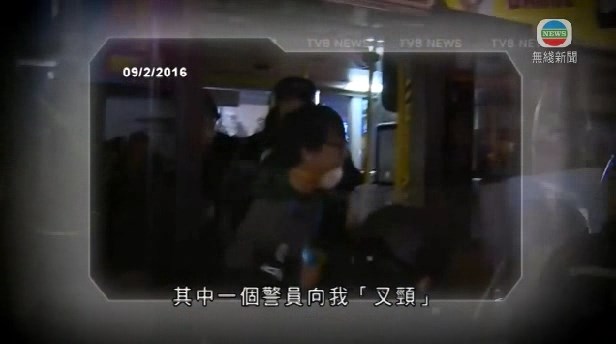
- Mr. Tang was taken off the double decker
bus. Why did the police do that? There were other passengers on the bus, so
why did the police go after one and only one masked passenger? What did Mr.
Tang do prior that drew the attention of the police?
- Every bit of details points to Mr. Tang having done something which caused
the police to give chase. He fled into the bus but the police pulled him
off. Then he tried to get away by claiming to be a reporter on duty.
-Superman changed his suit inside a phone booth. The Ming Pao reporter
changed his identity inside a double decker bus.
- The same thing happened during the
2014/9/28 incident. After the perpetrators are caught, they claimed to be
reporters/students because that confers immunity in Hong Kong (but nowhere
else).
- Indeed I do recall a number of masked
reporters showing up at the
Hong Kong Copyright Alliance Press Conference.
So wearing a mask is standard operating practice (SOP) for reporters
nowadays.
- The odd fact is that after all this, the
police did not arrest and charge him for anything. Doesn't that
automatically exonerate him and make the police guilty of battery?
- Some questions:
(1) Apple Daily and Oriental Daily are the only newspapers that published on
the second day of the Lunar New Year. Ming Pao took a day of rest. So why
was this reporter working?
(2) This Ming Pao reporter did not wear a reflective vest. Instead he wore a
surgical mask. I have reason to believe that he was a rioter who produced a
press card after being arrested by the police.
(3) In dangerous situations, reporters from the same newspaper usually work
in tandem so that they can look after each other. This Ming Pao reporter was
found by the police hiding by himself on the upper deck of the bus. Is that
the right way to find an exclusive story?
(4) If he was trying to avoid pepper spray, he should be wearing googles and
not a surgical mask. Why does he lack this piece of common knowledge?
- That bus was not running at the time
because the rioters blocked the road. What was Mr. Tang doing on the top
deck? What exclusive story was he covering?
- More interesting is whether the Ming Pao
editorial/management team commits to rounding out the lie. Was Mr. Tang really
on assignment? Would they say that it is Standard Operating Procedure for
their reporters not to wear reflective PRESS vests and press cards on duty?
- If people are so upset about this attack
on the Ming Pao reporter, then where is their rage about the rioters'
attacks on the reporters from TVB, Cable TV, RTHK, etc?
- Mr. Tang had better get a doctor's note
to certify that he had the flu and therefore had to wear a surgical mask for
public health reasons. Right now, nobody believes him.
- (The
Stand) The Ming Pao Workers' Union provided explanations to the
questions from Internet users:
(1) Ming Pao did not publish a print edition on the first and second days of
the Lunar New Year, but the online edition continued non-stop. On that
night, the editors arranged for many off-duty reporters to conduct
interviews, including Mr. Tang.
(2) The Ming Pao editorial department has equipment such as reflective
vests, surgical masks and goggles. But this incident occurred suddenly, so
the equipment was not delivered to Mr. Tang.
(3) Because pepper spray was already used at the scene, the editorial
department instructed Mr. Tang to bring the surgical mask that he has at
home and to wear it during the entire process.
I am glad to see the Union's statement.
That clears up everything for me. Otherwise I would never have guessed that the
Ming Pao
editorial department instructed Mr. Tang to conduct interviews on the top
deck of a double decker bus that was out of service because the roads were
blocked.
P.S. I was also not previously aware that the N95 surgical masks could stop
pepper spray from getting through. Now that I learned this very useful piece
of information, I won't have to use plastic wrap anymore. Thanks.
- (Ming
Pao) At a forum in Hong Kong University, Hong Kong Indigenous'
candidate Edward Leung was asked: The Ming Pao reporter was injured during
an attack by the police, while the demonstrators also attacked reporters. Is
it the case that when the police attack reporters, it is a case of political
oppression whereas if the demonstrators attack reporters, it is okay? Edward
Leung considered for several seconds before responding "It is hard to say."
Leung said that when police attack reporters, it showed that the
authoritarian government is oppressing the people. The host then pressed:
You said that reporters being assaulted are just "sand particles" during a
resistance, so how do you look at demonstrators attacking reporters? Leung
said that certain media outlets were filming close-ups of the resisters and
thus place them in danger. Leung said that he doesn't mind being filmed but
other resisters can make their own choices. In a large-scale resistance,
such conflicts are unavoidable.
- (HKG
Pao) March 8, 2016. After being silent for almost a month, Hong Kong
Journalists Association chairperson Shum Yee-lan has finally weighed in on
the violence wrought by the Mong Kok rioters against the press.
According to Shum, the reason why the media
reporters were attacked by the rioters was because the media had been
engaged in extensive self-censorship and therefore the rioters vented their
anger at the frontline reporters. Then she added: "The media published all
the close-up photos of the rioters so that there is all-out civilian
campaign to identify and locate the rioters. This is the reason why the
demonstrators were so angry."
This brings Shum into a logical trap. Let
suppose that a frontline photographer accidentally took a close-up photo of
a demonstrator. On one hand, if the photographer publishes this photo, he
arouses the anger of the demonstrators who will attack media reporters in
the future. On the other hand, if the photographer suppresses this photo, he is
engaging in media self-censorship and that will infuriate some people who
will do harm to reporters. Of course, Shum is completely oblivious
to the implications of what she is saying.
(Oriental
Daily) February 9, 2016.
On the day after the Lunar New
Year's Day riot in Mong Kok, certain Internet users are calling for more action
on the night of the fireworks display. They said: "Tonight the fireworks display
in Tsim Sha Tsui East will draw a lot of police manpower. Therefore tonight will
be a good chance to eat some fishballs." The action was clearly defined as (1)
kidnap some police officers and (2) beat up some reporters. They also list
a number of things to remember.
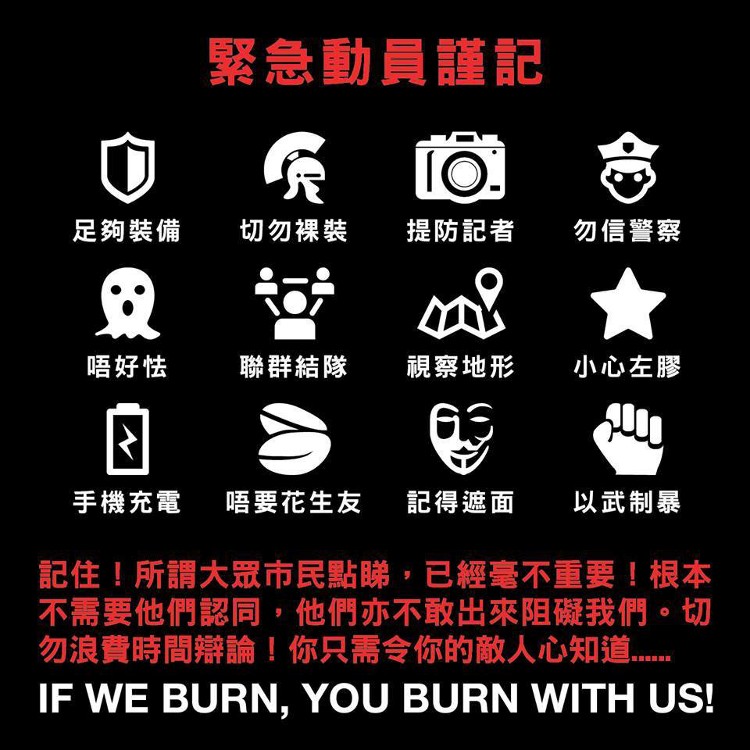
Please remember for the emergency mobilization
(1) Adequate equipment
(2) Do not go unprotected
(3) Beware of reporters
(4) Don't trust the police
(5) Never be afraid
(6) Work in teams
(7) Scout out the terrain
(8) Beware of leftist retards
(9) Mobile phones should be fully charged
(10) Don't want any spectators
(11) Remember to cover up your face
(12) Use force to stop tyranny
Remember! It does not matter what the so-called masses of citizens think!
Basically we don't need their concurrence, and they won't dare to come out and
obstruct us. Do not waste time debating them! You only need to let your enemies
know ...
IF WE BURN, YOU BURN WITH US!
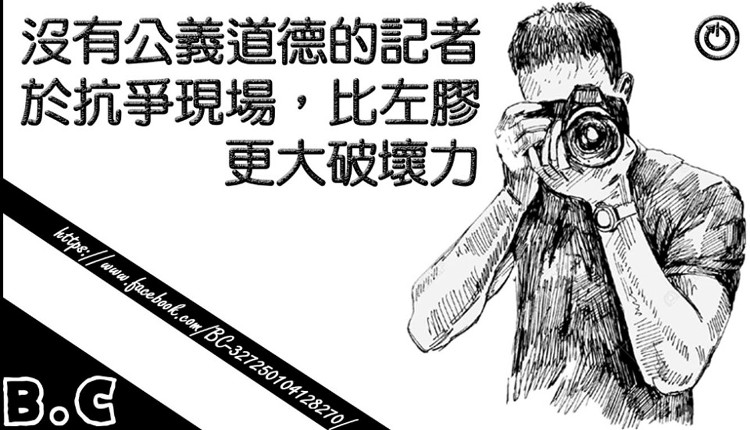
Reporters without any sense of moral justice at
the scene of resistance are even more destructive than leftist retards.
- HK Revolution Facebook
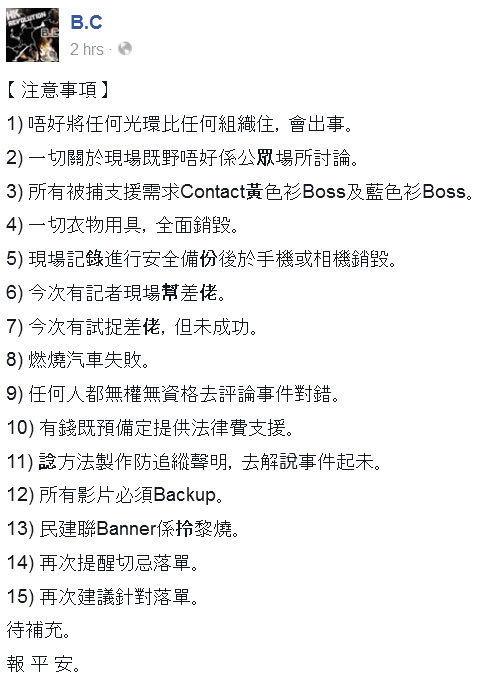
Things to pay attention to:
(1) Do not let any group get the aura. It will be trouble.
(2) Do not discuss in public anything that happened at the scene.
(3) All those in need of assistance after being arrested should contact the
Yellow-clothed Boss (i.e. Civic Passion) or the Blue-clothed Boss (i.e. Hong
Kong Indigenous)
(4) All clothing and tools should be destroyed
(5) Make a backup of all recordings at the scene and then erase the originals
from your mobile phone/camera
(6 ) Reporters are helping the police this time
(7) An attempt was made to catch some police officers, but it failed
(8) Attempts to set cars on fire failed.
(9) Nobody has the right or qualifications to say whether this incident is right
or wrong.
(10) Those with money should be prepared to pay the legal fees.
(11) Think of a way to explain the incident without being tracked down.
(12) All videos must be backed up.
(13) All DAB banners are meant to be set on fire.
(14) You are reminded once again never to be alone.
(15) You are recommended once again to go after targets who are alone.
More to be added.
Peace.
(Oriental
Daily) February 10, 2016.
At 7pm an anonymous man claiming
to be from a Localist organization called the police to say that a bomb has been
placed at the Hong Kong Cultural Centre in Tsim Sha Tsui. The person said that
the fireworks show must be canceled or else the bomb will be detonated. The
Police sent out a large number of police officers and worked with the Fire
Department to conduct a carpet search without finding anything. The Police said
that the phone call came from a phantom number and was likely to be a false
threat.
At 11pm, a man called the police
to say that bombs have been placed in Sai Yeung Choi Street South, Nathan Road
and Portland Street. The police sent officers to conduct a thorough search
without finding anything.
Internet comments:
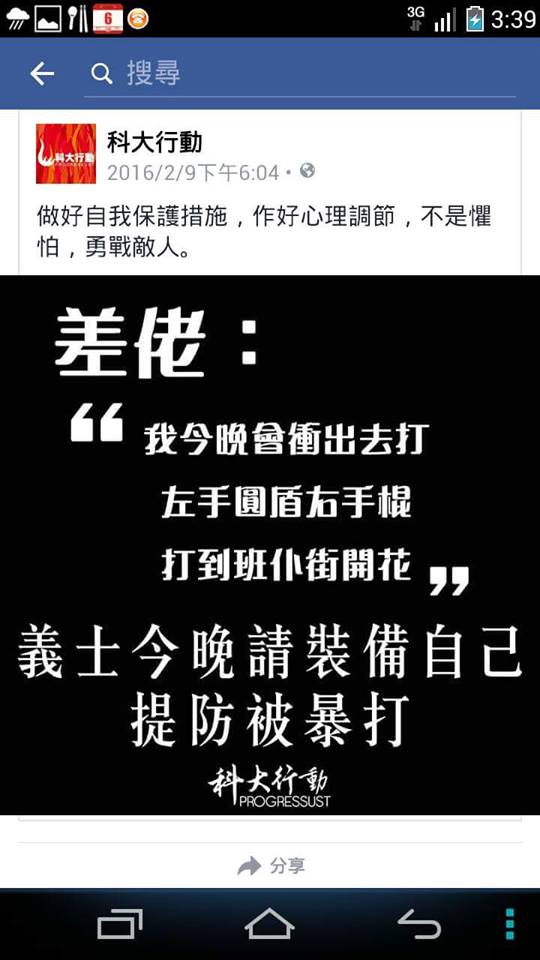
University of Science and
Technology action group:
Make the preparations to protect yourself; be psychologically prepared; do not
be afraid; fight the enemy bravely
"Cops, tonight I will charge out with round shield on my left arm and a baton on
my right arm to beat you bastards into a pulp."
Warriors, please equip yourself for tonight; be careful not to be beaten up
violently.
- Hong Kong Localism Power
Facebook
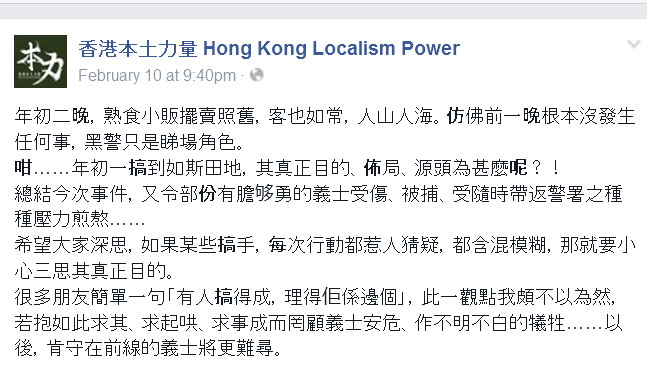
February 9th
On the second day of the Lunar New Year, the cooked food vendors set up as usual
and the customers came as usual. People were everywhere. It is as if nothing
happened the night before and the Evil Police are just watching the scene.
So ... what did it came to this on the day before? What were the true purpose,
setup and cause?
In summary, a number of brave and courageous justice fighters have been injured,
arrested or waiting to be arrested any moment ...
I hope that everybody can seriously think about certain organizers. Each time
their actions are suspicious and ambiguous. We have to think carefully about
their true purposes.
Many friends simply say: "As long as someone can do it, who cares who they are?"
I disagree with this view. If you believe this and all you want is to make some
noise, then this is making the justice warriors make unnecessary sacrifices ...
such being the case, it will be even more difficult to find justice warriors to
man the frontlines.
- ReStart HK Facebook
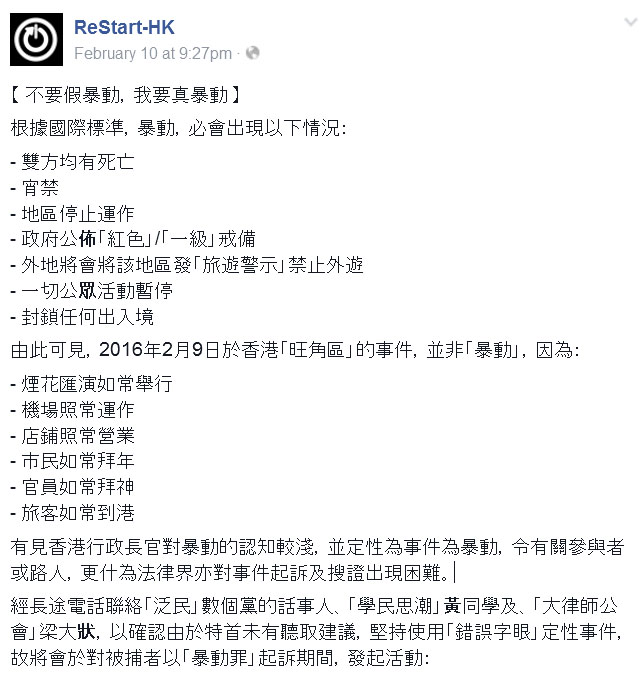
February 10
I don't want fake riot, I want genuine riot
According to international standards, the following situations must arise in a
riot:
- Deaths on both sides
- Curfew
- Operations ceased in local areas
- Government issues Red/Grade 1 alert
- Foreign countries declare the to be too dangerous to travel to
- All public activities are suspended
- Entry/exit is prohibited
So it can be seen that the February 9, 2016 incident in Mong Kok is not a riot,
because
- The harborside fireworks show held as scheduled
- The airport continued normal operations
- The shops stayed opened for business as usual
- The citizens celebrated the Lunar New Year as usual
- The government officials made their visits to temples as usual
- Tourists continued to arrive in Hong Kong.
This shows that the Hong Kong SAR Chief Executive has little knowledge about
riots. Defining this incident as a riot will make it more difficult for
participants/passersby and legal workers to gather information and deal with the
prosecutions.
After consulting via long-distance with various pan-democratic party leaders,
Scholarism's Joshua Wong, Bar Association's Alan Leong, we confirmed that the
Chief Executive is insistent on incorrectly defining the incident as a riot, we
are starting a movement during the a time when the arrestees are facing charges
of 'rioting':
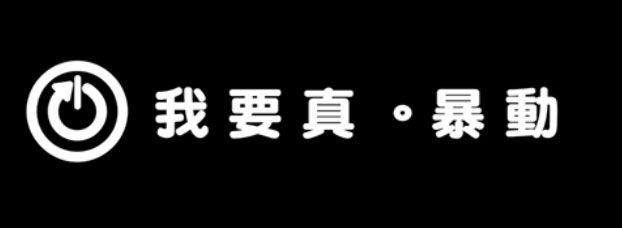
I WANT GENUINE RIOT
We start genuine riots in various districts. We will show the government
officials what a genuine riot really is with all the right equipment.
- (Oriental
Daily) A 21-year-old IVE student was arrested by the police on suspicion
of criminal/dishonest use of computer. According to information, the suspect
made calls on the Internet to assault reporters. The police took the suspect
back to his home and removed an iPhone and a MacBook as evidence.
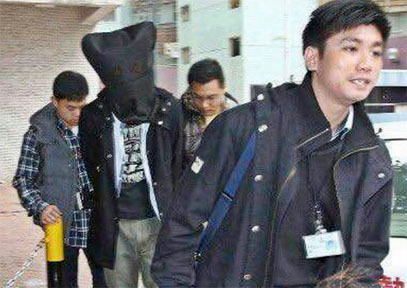
- (EJ
Insight) February 18, 2016. A 21-year-old man was arrested in Tin Shui
Wai on Wednesday for allegedly spreading online messages calling for attacks on
reporters during last week�s clashes in Mong Kok, am730 reported. The man, who
bears the surname Law, is said to be a student. He will now face a charge of
�access to computer with criminal or dishonest intent�. The police�s Cyber
Security and Technology Crime Bureau (CSTCB) took away a tablet device, a router
and notebook computer from Law�s home as they conduct investigations. The
student was allowed to go on bail, but will have to report to the police by
mid-March.

Hong Kong Golden Forum post: If anyone sees TVB
reporters, please remember to smash their cameras. You can kick the people a
couple more times.
- (Hong
Kong Free Press) February 22, 2016.
The Hong Kong Journalists Association (HKJA)
said freedom of the press and that of protesters should �go hand in hand�,
responding to Edward Leung Tin-kei�s doubts on whether it is more important
to secure the freedom of protesters or to protect the media�s right to know
during demonstrations.
In a statement to HKFP, Shirley Yam
Mei-ching, vice-chairman of the association, said: �Only with the presence
of journalists and their cameras can the legal rights and freedom of the
protesters be protected.� She added that this protection will be compromised
when journalists are attacked.
The statement comes after Edward Leung Tin-kei,
spokesperson of localism group Hong Kong Indigenous and a candidate for the
upcoming New Territories (East) LegCo by-election, said during a forum last
Friday that �it is hard to say� if protesters should be allowed to suppress
the media.
Leung made this comment when he was
attending a by-election forum organised by a student organisation at the
University of Hong Kong last Friday. Leung first accused police of beating a
Ming Pao reporter during the Mong Kok clashes, saying that it was a sign of
the regime �suppressing the Fourth Estate�. But when asked if he agreed with
some protesters who blocked journalists from filming the clashes, he
responded:
�I believe that if some reporters
film close-up images of the protesters during demonstrations, they are actually
putting the protesters in danger,� Leung said. �If that person [who was being
filmed] was me, I would not mind. But not everyone is like me.� Leung later
posted on Facebook asking whether it is more important to secure the freedom of
the protesters, or to protect the freedom of the press.
Several journalists were injured
while covering the Mong Kok clashes. A Ming Pao reporter was beaten by police
officers despite stating his identity as a journalist. A TVB cameraman was
capturing footage of an arson when some protesters blocked his video recorder
and injured him with a broken glass bottle. A cameraman from CableTV was hit on
the head by thrown bricks. A protester also threw bricks at an RTHK news team,
damaging audio equipment.
The International Federation of
Journalists, together with the HKJA, earlier condemned the attacks on
journalists when they were reporting on the clashes. It called for an
investigation into the incidents and for those responsible to be brought to
justice. The Foreign Correspondents Club Hong Kong said it was unable to
comment on the statement as it has not discussed the matter.
(Oriental
Daily) Timeline of Mong Kok riot. February 9, 2016.
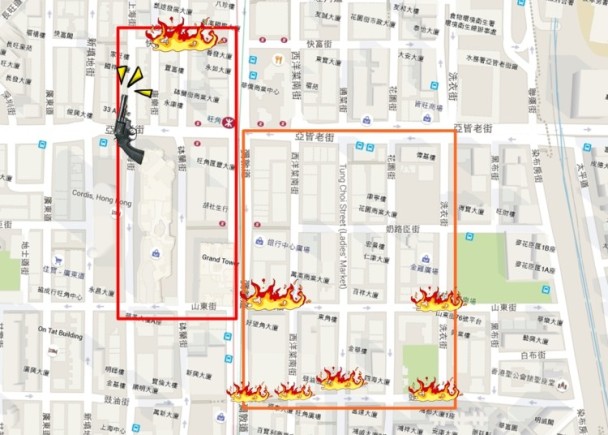
Around 10pm, a number of
unlicensed street vendors set up their illegal operations on Portland Street.
Food and Environmental Hygiene Department workers cam to enforce the law. A
large number of individuals gathered to stop law enforcement. A number of
citizens charged onto the roadway.
Around 11pm, the police brought
out a tower. Armed with batons and shields, the police attempted to clear the
roadway. There were clashes. The police used pepper spray and raised the red
warning sign.
Around 2am, rioters occupied the
roadway on Argyle Street near Shanghai Street and attacked police officers. One
police officer saw a fellow officer down on the ground after being assaulted and
took out his pistol to fire twice into the air. At the same time, rioters were
setting off fires at the corner of Portland Street and Fife Street. The police
called the Fire Department to put out the fire.
Around 3am, rioters blocked the
intersection of Portland Street and Shan Tung Street.
Around 4am, rioters set fires
along Sai Yeung Choi Street South. At least five fires were spotted, including
one right outside the Hollywood Plaza, another across King Wah Centre. Rioters
ripped bricks out of the pavement to throw at the police.
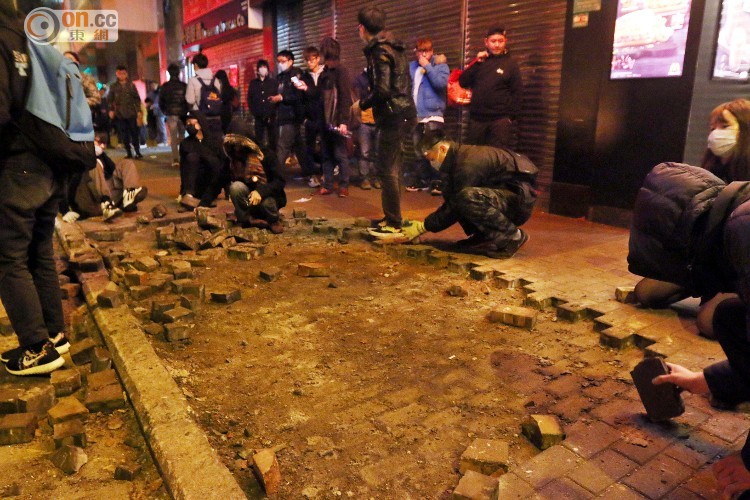
Around 5am, the rioters destroyed
public property on a large scale. A police vehicle passing by Soy Street
was attacked by the rioters, causing damage by bricks.
Around 7am, the Special Tactical
Squad of the police arrived and dispersed the rioters on Tung Choi Street and
Soy Street. Other persons set off fires at the intersection of Sai Yee Street
and Shan Tung Street and also on Soy Street. At least 10 persons were arrested.
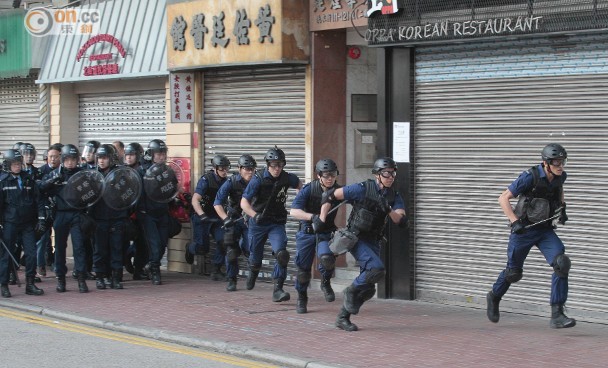
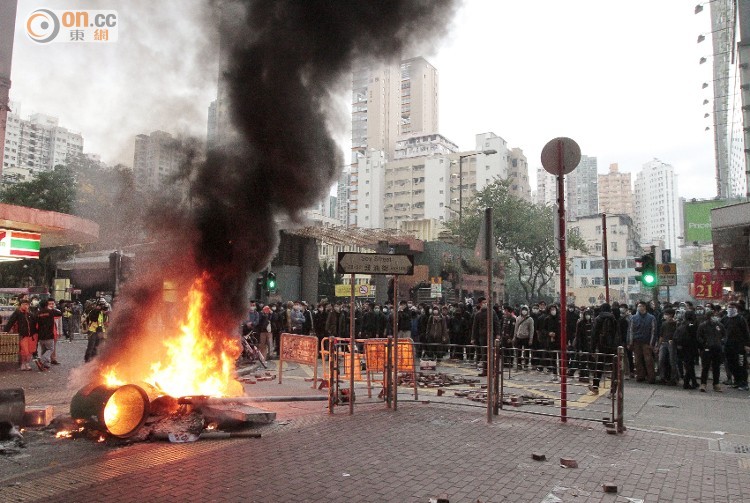
(SCMP)
February 9, 2016.
10.00pm �
Police engage in the first standoff at Portland Street after some people � upset
about the Food and Environmental Hygiene Department�s clampdown on hawkers �
appeared to have blocked a taxi from leaving the street. But the police leave
shortly after. And the crowds continue to queue for street food.
11.45pm �
Police return with a portable podium, which sparks anger in the crowd. In the
ensuing standoff, pepper spray and police batons are used, while the crowd
responds by throwing objects like water bottles back.
12.00am �
Police begin to clear Portland Street after their offer to let the hawking
continue peacefully fails. The crowd grows angrier and people start throwing
glass bottles, stones and pellets.
2.05am �
A policemen fires two gunshots into the air close to Argyle Street, as the
crowd is now fended off. The scene descends into chaos as protesters engage
in scuffles and fighting with the police and toss glass bottles and rubbish
bins at them. Some protesters, on the other hand, start accusing police of
using excessive force.
2.16am �
HK Indigenous representative Edward Leung Tin-kei is arrested, according to
a Facebook post by the group.
3.00am �
Standoff subsequently moves to Nathan Road, which is later blocked.
Protesters again throw glass bottles and bricks at the police.
4.00am �
The first of the multiple fires starts at Sai Yeung Choi Street South, followed
by three more that are later ignited on the same street. Protesters set up more
fires at various spots throughout the early hours of the morning.
7.15am �
Following yet another long standoff, protesters are dispersed at Soy Street
near Fa Yuen Street after police officers in Police Tactical Unit uniform
are deployed.
8.45am �
Streets calmed as cleaners move in to sweep away bricks and bottles from
street fights.
9.45am
� Mong Kok MTR station reopens
(EJ
Insight) 12 hours of Mong Kok clashes: A timeline. February 11, 2016.
February 8
12:30
pm: Localist group Hong Kong Indigenous called on its supporters, via a
Facebook post, to gather at Portland Street at 9 pm to stand in solidarity
with mobile food stall operators.
9:40 pm: Food and Environmental Hygiene
Department (FEHD) staff stopped mobile food stall operators from conducting
their business, and subsequently clashed with supporters of the hawkers.
10 pm: FEHD staff called the police, who
arrived at 11 pm, according to Radio-Television Hong Kong (RTHK). Hong Kong
Indigenous announced online that the FEHD staff have retreated to Nathan
Road, and that the food stalls were back in business on Portland Street with
only a handful of police officers at the scene.
11:10 pm: According to hk01.com, Hong Kong
Indigenous members stopped cars from entering Portland Street from Shan Tung
Street. The police set up a mobile command platform, and the force�s
Tactical Units and plainclothes detectives started to disperse the gathering
crowds with batons.
11:30 pm: As reported by Apple Daily and
RTHK, police displayed a red flag warning that violence would be used if
protesters continue charging police lines. Protesters threw objects at
police, while the latter unleashed pepper spray and batons. Passers-by put
out a fire from a charcoal stove that fell off from a street food stall.
February 9
12:20 am: Police officers equipped with
helmets and batons formed layers of human chains to prevent protesters
charging. The two sides stood off at the junction of Portland Street and
Shan Tung Street.
12:27 am: Hong Kong Indigenous announced on
Facebook that Edward Leung Tin-kei, who will be a candidate in an upcoming
LegCo by-election, used his campaign authority to call for a rally at
the Mong Kok Night Market. The demonstration reportedly had fewer than 30
people, so police approval was not required. The group, meanwhile, urged
people to join them at Mong Kok, bringing along goggles, masks, water and
protective clothes.
1:15 am: Initium Media reporters who
arrived at the scene noticed that over ten food stalls were able to operate
their businesses on a section of Portland Street adjoining Argyle Street.
Meanwhile, protesters and the police were engaged in a standoff on Shan Tung
Street.
1:35 am: As reported by Apple Daily,
InmediaHK and Initium Media, the police displayed a red flag again and
deployed long shields, requesting protesters to leave in the direction of
Argyle Street in seven minutes.
Fifteen minutes after the red flag was
raised, fierce clashes broke out between the police and the protesters, with
the latter throwing objects and the former firing pepper spray. The police
warned protesters not to spray Kerosene on the floor. Most of the protesters
retreated toward Argyle Street by this time.
2 am: According to video footage of Initium
Media and Cable TV News, around ten police officers were surrounded by
several dozen protesters on Argyle Street. Objects such as rubbish bins and
wooden pallets were thrown at the police officers, who retreated while
firing back with pepper spray and batons. A police officer tumbled after
tripping on an object on the floor.
2:03 am: Initium Media reporters saw a
police officer firing two warning gun shots into the air and later pointing
his gun at protesters, who then started backtracking.
2:30 am: According to Cable TV News and
RTHK, protesters occupied a section of Nathan Road between Argyle Street and
Grand Plaza and some members started setting objects on fire, generating
large amount of smoke. Clashes between police and protesters continued.
3 am: Hong Kong Indigenous announced that
its 25-year-old spokesperson Edward Leung, who is a philosophy student at
the University of Hong Kong and a candidate in the upcoming Legislative
Council New Territories East by-election, was arrested by police.
According to RTHK, protesters were seen
throwing rubbish bins at police officers on Nathan Road. Some demonstrators
sustained injuries to their heads after being struck by police batons.
Police locked up the area, barring citizens from going onto the vehicular
access.
3:40 am: Protesters started throwing bricks
and glass bottles at police, who tried to disperse the crowds using shields
and batons, as well as pepper spray.
3:45 am: A Ming Pao Daily reporter was
pressed onto the floor by police officer and punched and kicked multiple
times despite wearing a reporter�s badge and identifying himself as a
reporter. The reporter required stitches to his wound on the back of his
head.
4 am: The clashes shifted to Sai Yeung Choi
Street South near Shan Tung Street. Some protesters removed bricks from the
pavement and threw them at police. Some removed roadside railings to charge
police lines. Some police officers were seen picking up bricks on the floor
and throwing them back at the protesters.
Protesters were also seen setting objects
like plastic bags, foam packaging materials and carton boxes on Sai Yeung
Choi Street South on fire so as to create road blocks.
The Fire Services Department said it had
received 22 reports of fire alarms by midnight.
4:30 am: According to TVB News, one of its
photojournalists was hit by a glass bottle by a protester and injured his
hand. An RTHK reporter was also being attacked by a protester with a brick
almost at the same time. A portable audio recorder of the reporter was said
to have been damaged.
5 am: According to Cable TV News, a police
car was surrounded by protesters at the junction of Nathan Road and Soy
Street, with protesters hitting car windows with bricks. Meanwhile, fierce
clashes were ongoing at Sai Yeung Choi Street South.
5:15 am: MTR Corporation closed off the
Mong Kok commuter rail station.
6 am: The police sent a Special Tactical
Squad to ensure a lockdown on Dundas Street. The police also fired pepper
water spray at protesters, who were throwing bricks at the police. Police
arrested people from the dispersing crowds.
7 am: Protesters retreated to the junction
of Fa Yuen Street and Soy Street as they came under pressure from oncoming
police officers. Meanwhile, Cable TV News caught someone directing the
protestors with the help of a long pole. Some of the protesters started
burning rubbish bins at Sai Yee Street after around 30 minutes. Some
protesters were seen throwing smoke grenades at police.
7:54 a.m: Hong Kong Indigenous posted a new
Facebook message asking all supporters to evacuate, noting that safety comes
first. Around the same time, a large number of anti-riot police officers
were deployed to Mong Kok, while another Special Tactical Squad was
dispatched to Argyle Street to disperse protesters along Sai Yee Street.
Protesters left Mong Kok by 8 am.
9:46 am: MTR Mong Kok station reopens.
(YZZK)
February 28, 2016.
On February 8, Food and
Environmental Hygiene Department inspectors came to Langham Place on Portland
Street. Before they did anything, they were surrounded and harassed by people.
So they called the police for assistance. The police arrived and tried to clear
the car lanes. But many masked men tossed trash bins, flower pots and other
objects at the police. The riot police came to provide support. At the scene,
there was a van with a Hong Kong Indigenous flag from which protective gear,
helmets, masks, gloves, shields and assault weapons (such as poles) were passed
out. The Hong Kong Indigenous cadres chanted slogans from the top of the van.
At 11pm, Hong Kong University and
Keyboard Frontier spokesperson Glacier Kwong posted: "P.S. Mong Kok needs
people! Mong Kok needs people! Mong Kok needs people!"
By midnight, the riot police
clashed many times with the demonstrators on Portland Street, and they tried to
push the demonstrators towards Argyle Street.
At midnight, Hong Kong Indigenous
issued mobilization calls: "Mong Kok MTR station is closed, please proceed
through Yau Ma Ti MTR station" and "Avoid trouble and don't use your Octopus
card." After midnight, they posted "inconvenient to take photographs" to stop
the photojournalists from filming. Also, "the movement now knows to rip the
bricks from the ground to counter-attack."
By 2am, Hong Kong Indigenous
spokesperson Edward Leung who is running in the Legislative Council New
Territories East by-election suddenly announced that he was exercising his
election right to hold a campaign rally. At 2am, shouting "One, Two, Three" a
group of masked men wearing the blue Hong Kong Indigenous jackets charged at the
police line.
The demonstrators charged onto
Argyle Street from Portland Street. A traffic police fell down and the rioters
continued to throw trash bins, pallets, glass bottles and other objects at him.
A policeman fired two shots into the air. A large number of riot police came to
the intersection of Argyle Street and Portland Street. Rioters set off fires in
the middle of Fife Street.
At 3am, Nathan Road was paralyzed.
The riot police began to push south from Nathan Road. The rioters attacked the
police with three teams: a frontline team charging at the police; a middle-tier
throwing bricks; and a backline team digging out the bricks on the pavement.
At 330am, the police pushed
forward. At 4am, the police continued to push southwards. At 415am, the
rioters used their numerical superiority to return to Nathan Road and set off
fires everywhere. A number of strayed police officers were surrounded and
attacked. At 430am, fires were set off on Shan Tung Street.
At 530am, the riot police
controlled the situation at Nathan Road and Shan Tung Street. The rioters
continued to throw bricks at the police.
At 700am, the situation became
calmer although fires were still being set off.
(SCMP)
February 9, 2016.
Police were seen pointing guns at
protestors and firing shots into the air amid chaotic scenes in Mong Kok
early Tuesday morning.
A TVB video showed the moment police drew
guns on protesters and fired two warning shots into the air on Argyle Street
around 2am. An SCMP reporter on the scene also witnessed and heard two shots
fired from a gun. A police spokesman at 2.30am said they have �no
information� on gunshots fired in Mong Kok at present.
Motorists were asked not to drive to Mong
Kok as police lined up at the junction of Nathan Road and Argyle Street, the
same crossroad used as Occupy in 2014.
The first day of Chinese New Year ended on
a sour note when police attempted to clear a street as part of a city-wide
clampdown on hawkers, resorting at one point to using pepper spray.
Police arrived at Portland Street near
Langham Place Shopping Mall where street food vendors had gathered to sell
their wares, and before long, began trying to ask the hawkers and the crowd
to leave.
At one point, police officers were seen
swinging their batons at the massive crowd, which immediately retreated but
not before some began throwing objects and the scene soon descended into
chaos.
The commotion broke out at about midnight
early Tuesday when police put on protective gear, including helmets and
shields, to fend off the unhappy crowd that flung objects at them. A
standoff ensued.
Hong Kong Indigenous, a localist group that
is fielding a candidate in a Legislative Council by-election in three weeks,
is involved in the protest. The candidate Edward Leung Tin-kei has been
arrested, according to a Facebook post by the group at 2.16am.
Shortly after midnight, the group announced
on Facebook that it would �exercise� Leung�s �power� as an election
candidate to hold an election march in the Mong Kok night market. The group
said they would not need to notify the police because the number of marchers
would be less than 30. It called on people to go out in support and bring
along eye masks, face masks and protective gear.
The dispute escalated when police
attempted to push a portable ladder towards the crowd, which appeared to
perceive it as a threat of clearance.
Earlier, the police engaged in
another standoff with the crowds as they tried to block a taxi that was passing
through, in retaliation at the clearance of the vendors. Police came back later
after a withdrawal.
�It was good in the beginning. I was
chatting with the police,� said a man identified as Kam, who was hit with
the spray. He declined to reveal his identity. �They suddenly sprayed my
face even though I told them I just wanted to go,� said Kam, who was stuck
between the police and crowd at the time.
Another woman, Esther Yip Hoi-wan, from
activist group 80s momentum, said her friends were arrested. She said it was
very dangerous for the police to carry out such operatives as there were
hawkers� trolley filled with hot food on the street.
Police spokesman Stephen Yu Wai-kit,
assistant Mong Kok district commander, told reporters police stepped in
after Food and Environmental Health officers were unable to handle the
hawkers in Mong Kok. He confirmed police had used pepper spray and said
people in the crowd had thrown flower pots and glass bottles. Three men,
aged between 27 and 35, were arrested for assaulting police and obstructing
them from carrying out their duties. Meanwhile, three police officers were
injured in the fracas.
(SCMP)
February 9, 2016.
One of Hong Kong�s busiest districts was in
virtual lockdown this morning after a night of violence which saw the police
open fire with two �warning shots� as protesters launched missiles and set
fires as a crackdown on illegal street food hawkers escalated into what some
witnesses described as a �riot�.
Hong Kong�s government �strongly condemned�
the protesters.
Mong Kok, the scene of some of the worst
unrest during the Occupy protests in 2014 , remains tense as unidentified
protesters � a signficant number of them so-called �localists� who campaign
for varying degrees of independence for Hong Kong � launching sporadic brick
and bottle attacks on police, who retaliated with pepper spray.
Fires were also reported to have been lit
in the area surrounding Shantung and Soy Streets. The government has advised
motorists to avoid the area.
One of Hong Kong�s busiest districts was in
virtual lockdown this morning after a night of violence which saw the police
open fire with two �warning shots� as protesters launched missiles and set
fires as a crackdown on illegal street food hawkers escalated into what some
witnesses described as a �riot�.
Hong Kong�s government �strongly condemned�
the protesters.
Mong Kok, the scene of some of the worst
unrest during the Occupy protests in 2014 , remains tense as unidentified
protesters � a signficant number of them so-called �localists� who campaign
for varying degrees of independence for Hong Kong � launching sporadic brick
and bottle attacks on police, who retaliated with pepper spray.
Fires were also reported to have been lit
in the area surrounding Shantung and Soy Streets. The government has advised
motorists to avoid the area.
The two warning shots were fired by an
unspecified number of officers at 2am, Yau said. �Because many rioters were
attacking police with hard objects and seriously threatened their lives,
there was no choice but to protect colleagues� and own safety, he added.
Police have not ruled out the notion the
riot was �organised�, he said, noting that protesters arranged vehicles to
transport equipment. Police will continue the investigation.
Social media reports said among those
arrested was Legislative Council election hopeful, Edward Leung Tin-kei,
spokesman for localist group Hong Kong Indigenous. There were also
unconfirmed reports that the new editor-in-chief of The Undergrad,
a student magazine of the University of Hong Kong, was also arrested.
At least one group of 100 protesters were
engaged in skirmishes with the police. Eye-witnesses said paving stones were
being ripped up and some objects were being hurled at officers.
At 6am the police released a statement
which said: �Police reiterate that any acts endangering public order and
public safety will not be tolerated. The Hong Kong community regard that the
public should express their views in a rational and peaceful manner. Police
will take enforcement actions decisively on law-breaking behaviours.�
Trouble first flared shortly after 2am when
what had begun as a protest by angry food hawkers in Portland Street who had
been targeted in an crackdown by food and hygiene officials, spiralled out
of control leading to the police firing two �warning shots� into the air in
a move that set off hours of clashes, closing roads and for a time, shutting
down Mong Kok MTR station.
A TVB video showed the moment police drew
guns on protesters and fired two warning shots into the air on Argyle Street
around 2am. An SCMP reporter on the scene also witnessed and heard two shots
fired from a gun.
Student Julia Fung described the night as
shocking, but said she was more afraid of the police than what she called a
�riot�.
The student said when she was taking a
picture of a girl being pinned down to the floor tonight, she was hit by a
police baton on her back. �You can feel rage in the police officers� eyes
towards the protesters,� she said
She said protesters had become more radical
because government forced the people to. For example, she said, the police
made a scene out of a matter which was virtually hawkers selling fish ball
on the street.
�Not only were baton and pepper spray were
used...police were firing gun shots,� she said.
She believed the relationship between
police and the people had hit a new low.
A police source said: �Officers were under
attack and a police officer fired two shots into the air�� adding that
protesters were �rioters� and trouble makers. Later, an officials statement
from the police said officers had taken ��resolute action��
Shortly before gunshots were fired, pallets
and rocks were hurled at a team of traffic police officers. A senior
constable was hit with a pallet, causing him to fall to the ground. He said
he felt dizzy but some protestors continued charging him and hurled rocks at
him.
The source added that protestors seemed
prepared,being well equipped with home-made shields, goggles, helmets and
gloves.
The �rioters�involved more than a hundred
people and gathered at different points setting fire to rubbish bins in the
streets, he said.
Both lanes on Nathan Road were blocked from
south of Argyle Street. Police warned they would use �appropriate force�
while asking and pushing people to move to the sidewalk.
With volleys of objects, notably bricks and
other objects, injuries were likely sustained on both sides.
Protestors were also seen trying to push
over a minibus stop to fall on the police.
Radical group, PassionTimes, posted a video
to their Facebook page of police hitting a woman, causing bruising and
bleeding.
The night�s violent clashes unfolded around
10pm on the first day of Chinese New year when police attempted to clear
Portland Street as part of a city-wide clampdown on hawkers. The crowd
reacted by throwing glass bottles and flower pots and police used pepper
spray at one point.
The commotion broke out at about midnight
early Tuesday when police put on protective gear, including helmets and
shields, to fend off the unhappy crowd that flung objects at them. A
standoff ensued.
Hong Kong Indigenous, a localist group that
is fielding a candidate in a Legislative Council by-election in three weeks,
is involved in the protest.
The candidate Edward Leung Tin-kei has been
arrested, according to a Facebook post by the group at 2.16am.
Shortly after midnight-and about three
hours after the chaos broke out, the group announced on Facebook that it
would �exercise� Leung�s �power� as an election candidate to hold an
election march in the Mong Kok night market. The group said they would not
need to notify the police because the number of marchers would be less than
30.
It called on people to go out in support
and bring along eye masks, face masks and protective gear.
Before Leung�s arrest, he was seen standing
in the front of the crowd shouting slogans through a loudspeaker. Some
protesters were wearing the group�s blue tracksuits with its name printed.
Before Leung�s arrest, he was seen standing
in the front of the crowd shouting slogans through a loudspeaker. Some
protesters were wearing the group�s blue tracksuits with its name printed.
In a police statement released at 3.23am,
it �strongly condemned� the clashes in Mong Kok.
The night�s violent clashes unfolded around
10pm on the first day of Chinese New year when police attempted to clear
Portland Street as part of a city-wide clampdown on hawkers. The crowd
reacted by throwing glass bottles and flower pots and police used pepper
spray at one point.
The police defended its handling of the
chaotic scenes for which it took �resolute actions� including the deployment
of batons, pepper spray to stop �unlawful violence acts.� However, it also
failed to draw reference to the two warning gunshot fired earlier tonight.
An hour earlier, a police spokesman said
they had �no information� on gunshots fired in Mong Kok at present.
In the police�s narrative of the chaotic
scenes, it said protesters were causing �serious disturbances to public
safety� and other road users prompting police intervention.
The police vowed �resolute enforcement
actions will be taken against any illegal acts to preserve public order and
safeguard public safety.�
The dispute escalated when police attempted
to push a portable ladder towards the crowd, which appeared to perceive it
as a threat of clearance.
Earlier, the police engaged in another
standoff with the crowds as they tried to block a taxi that was passing
through, in retaliation at the clearance of the vendors. Police came back
later after a withdrawal.
�It was good in the beginning. I was
chatting with the police,� said a man identified as Kam, who was hit with
the spray. He declined to reveal his identity.
�They suddenly sprayed my face even though
I told them I just wanted to go,� said Kam, who was stuck between the police
and crowd at the time.
Another woman, Esther Yip Hoi-wan, from
activist group 80s momentum, said her friends were arrested.
She said it was very dangerous for the
police to carry out such operatives as there were hawkers� trolley filled
with hot food on the street.
(Oriental
Daily) February 9, 2016.
Another round of clashes broke out between
the Hong Kong Police and the localists at 1:45am near the intersection of
Shantung Street and Portland Street. A number of localists ignored the
police warning and charged at the police line. The police used pepper spray.
The demonstrators retreated but started another round of clashes five
minutes later. Demonstrators put trash bins in the middle of the road to
block traffic. One person poured cooking oil onto the rodway.
The police reorganized by withdrawing their
police officers and replacing them with other police officers equipped with
long shields. This caused the demonstrators to throw more objects such as
glass bottles at the police.
(Oriental
Daily) February 9, 2016.
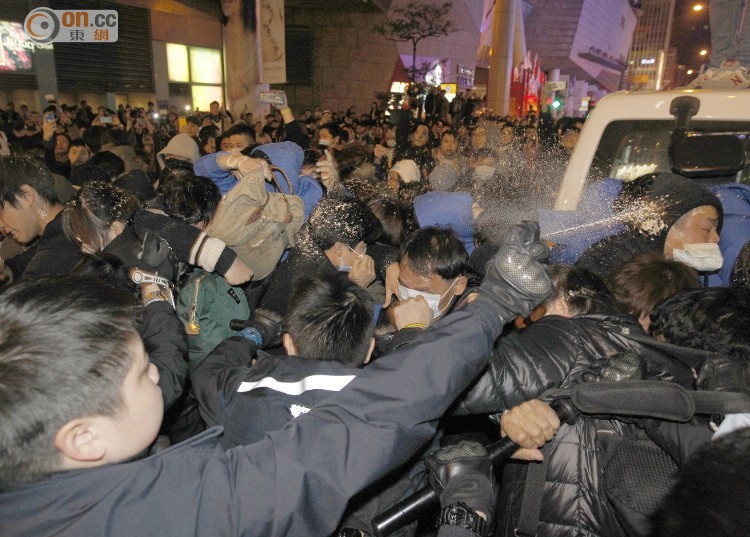
(Oriental
Daily with video) February 9, 2016.
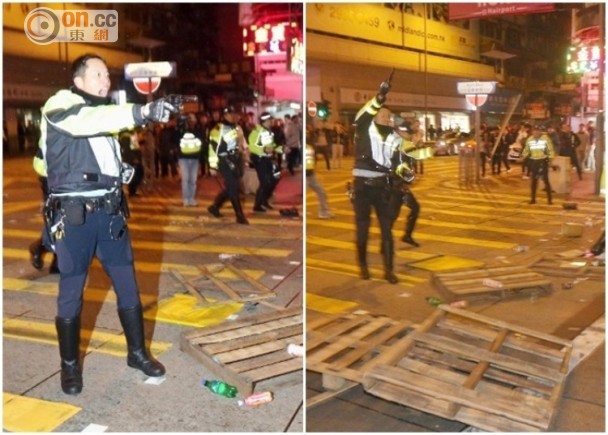
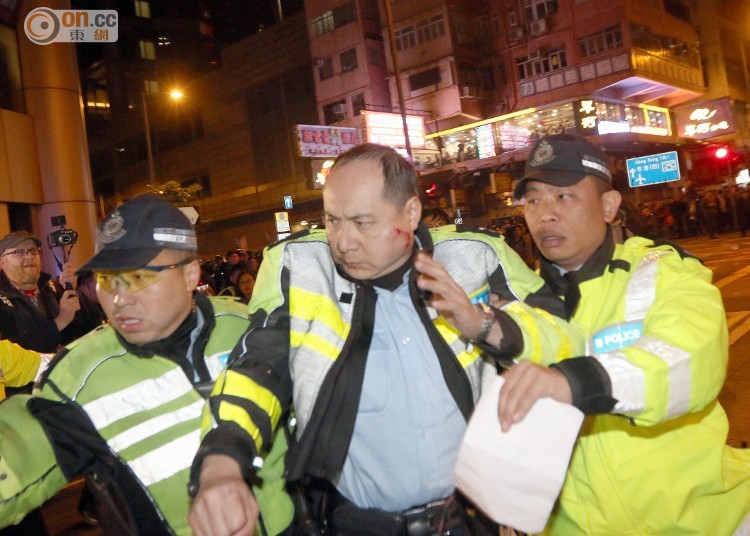
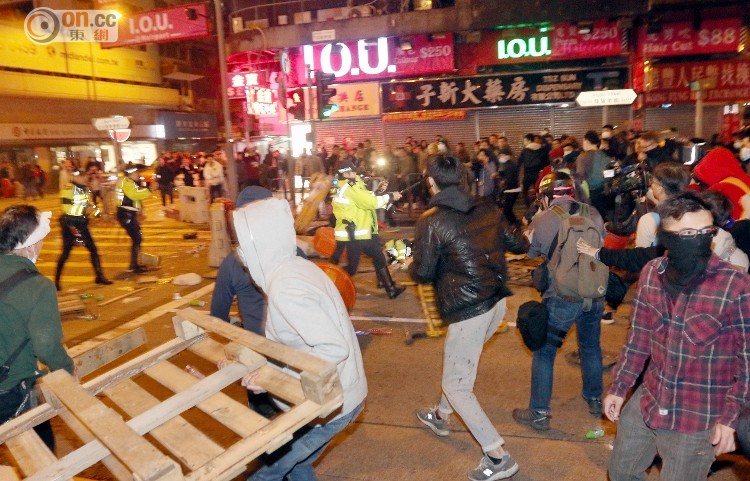
At around 2am, the Mong Kok clash turned
into a riot. The rioters suddenly charged onto Argyle Street near Shanghai
Street. At the time, there were only several traffic police officers at the
scene. The policemen rushed over to tell the rioters to stop, but they were
attacked with palettes, trash bins and other objects thrown at them. One
policeman was hit in the face and fell down on the ground. The rioters
rushed over to throw more objects at him. His colleague tried to help, but
was hit behind by another rioter. It was very chaotic. One police officer
used the radio to ask for reinforcement. Rioters kept throwing trash bins
and bottles at the policeman. One policeman took out his pistol and fired
into the air. The rioters backed off. Meanwhile rioters set off a trash fire
at the intersection of Portland Street and Fife Street. The police summoned
the Fire Department to put out the fire.
(SCMP)
February 11, 2016.
Owners of shops and vehicles damaged during
Monday�s violence in Mong Kok were unlikely to be able to make insurance
claims as authorities declared the incident a �riot�, said an insurer.
However, people who were hurt during the clashes should still be able to
claim medical insurance provided they did not join in the violence, said
insurance sector lawmaker Chan Kin-por.
During the 10-hour street battle that raged
in the early hours of February 9, at least one taxi had its windscreen
smashed and windows of several shops were shattered by protesters hurling
objects such as bricks and bottles. More than two dozen bystanders and
passers-by were injured. While some property policies cover riots and civil
disorder, most owners do not take such coverage and car insurance rarely
offers such an indemnity.
�For life insurance, there is basically no
exclusion on riot. But for personal accidents, there is exclusion on riot,�
Chan said. �On medical insurance, there is no specified civil commotion
exclusion, but we have what are called illegal or self-inflicted injuries
that are not covered by medical insurance policies.�
While retailers count the cost of the
damage, others in the industry warn of bigger worries to come, including
fears that it will deter tourists � especially mainlanders � from visiting
the city.
The Travel Industry Council�s executive
director, Joseph Tung Yao-chung, said the trade body did not receive any
inquiries about tourists� personal safety or changed travel plans after the
mayhem but he feared for the city�s international image. �The riots were
widely reported by media,� said Tung. �It�s a negative incident in Hong
Kong.�
It was too early to tell if the tourism
industry, already battered by dwindling mainland visitor arrivals, would
take a further beating, he said, but he urged law enforcers to take prompt
action. Visiting mainland tourists also expressed concerns. Xiao De Cang,
60, a doctor from Jiangsu province who was shopping in Mong Kok yesterday
afternoon said he felt �a bit scared� after the riot. Arriving on the first
day of the New Year holiday, Xiao said: �We wouldn�t come here if we knew
such things would happen�.
Dana Zheng 40, who arrived from Shenzhen
yesterday, said she would have cancelled her trip if she had known what was
going on in Hong Kong. �We are only here to buy smartphones�, she said,
adding she planned to return to Shenzhen in the afternoon.
A hawker named Chan who sells smartphone
accessories on Sai Yeung Choi Street South said the business on Tuesday
shrank by �at least one-third� compared to the previous day. �There were
fewer people buying things yesterday� she said, adding there were far fewer
customers on Tuesday.
Lau Hak-bun, director of Greater China at
one of the city�s biggest jewellers, Chow Sang Sang, said business of five
of its shops in Mong Kok was affected by the riot, as some only stayed open
for six hours on Tuesday. �It was not until noon that we opened all our
shops,� he said. Some shops also shuttered their business as early as 6pm,
rather than the normal 9pm closing time, to avoid any trouble. Lau said: �We
had been through situations like this during Occupy Central. It�s something
you have to face and adapt to now when conducting business in Hong Kong.�
(SCMP)
Hong Kong politicians on all sides must condemn Mong Kok violence with one
voice. By Michael Chugani. February 9, 2016.
Don�t anyone dare divert attention from
Monday night�s Mong Kok riot by demanding that the police justify firing two
warning shots in the air. Some are already doing that. But let�s get one thing
clear � this is very different from the police use of tear gas during the
Occupy protests. Crazed rioters were bludgeoning a downed and bleeding
policeman. He could have been killed. An officer fired two warning shots in
the air to stop the attack. Police anywhere else would have done far more.
Don�t anyone dare divert attention from the
violent mobs who fought running battles with the police throughout the night
by demanding to know why the police called it a riot. Some are already doing
that. But it was a riot plain and clear. How else would you describe crazed
thugs wearing helmets and face masks who hurled bricks, set fires, broke shop
windows, smashed a taxi, and attacked police with poles?
Don�t anyone dare say that before we condemn
the young rioters we should ask what drove them into becoming thuggish mobs.
Some are already doing that in the same way they justified students laying
siege to University of Hong Kong council meetings. But let�s get another thing
clear � this is very different from unproven claims that Chief Executive Leung
Chun-ying and the central government installed Arthur Li Kwok-cheung as HKU
governing council chairman to stifle academic freedom. We�re talking about
localist groups who nearly bludgeoned a police officer to death during a night
of rampage.
Public Eye has sided with Hong Kong�s younger
generation who justifiably feel our unfair society, wealth gap, stagnant wages
and unaffordable housing have robbed them of their future. We have sided with
those who say the flood of mainland visitors has made life hell for ordinary
Hongkongers. But such grievances cannot warrant Monday night�s shocking
scenes.
Radical groups in the so-called democracy
camp have warned that peaceful protests no longer work and violence must be
the next step. We now have our first taste of that. Shields and weapons
trucked to Mong Kok show the violence was pre-planned. We must condemn this
with one voice. By that, Public Eye means democracy camp leaders must say loud
and clear that they deplore what happened on Monday night. They have yet to do
that. Let�s hope it�s not for want of courage or for fear of alienating young
voters ahead of the Legislative Council elections. They need to accept that
there is now a hollow ring to their familiar mantra that not a single shop
window was broken during the 79-day Occupy uprising.
(Xinhua)
February 12, 2016.
BEIJING, Feb. 11 (Xinhua) -- A Chinese
Foreign Ministry spokesperson said Thursday night the central government
firmly supports the Hong Kong Special Administrative Region (HKSAR) government
and the police in safeguarding social security and punishing illegal and
criminal activities in accordance with the law.
Spokesman Hong Lei made the remarks in
response to the riot erupted in Mong Kok of Hong Kong on Tuesday. Hong said in
a statement that a riot plotted mainly by a local radical separatist
organization rocked Mong Kok, Hong Kong on the early morning of Feb. 9. Some
mobs barricaded the street, set fires, damaged police cars, pelted police
officers with bricks, and assaulted police officers who were knocked down to
the ground, causing injury to 89 police officers and several journalists, he
said in the statement.
The violence quickly subsided as the Hong
Kong police took effective measures in a professional manner with restraint
and in accordance with the law, Hong said. "The Hong Kong society has
universally expressed strong condemnation of the violence and voiced full
support to the police," he said. "Hong Kong is a law-based society. The
Chinese central government believes and firmly supports the Hong Kong SAR
government and the police in safeguarding social security, protecting Hong
Kong residents and their property, and punishing illegal and criminal
activities in accordance with the law, so as to maintain the overall stability
of the Hong Kong society," said the spokesperson.
(Wen
Wei Po) February 15, 2016.
One of those involved in the Mong Kok riot is
an IVE lecturer Lau Siu-lai. Early last year, she began to pay attention to
the Kweilin Street vendors dealing with Food and Environmental Hygiene
Department law enforcement. A few days ago, she said that the Sham Shui Po
vendors such as "Rice Roll King" Brother Sun and others will be setting up
outside Langham Place on Lunar New Year's Day. She called on people to come
out to eat "defend the citizens' right to eat fishballs and rice rolls, the
vendors right to set up stalls to sell and to resist the efforts of the police
and the Food and Environmental Hygiene Department."
Several hours ago on the same day, Hong Kong
Indigenous also called on citizens to show up on Portland Street outside
Langham Place at 9pm to support the vendors.
According to one Internet user, he responded
to Lau Siu-lai's call. At the time, there were many others like him. The
situation was relatively clam. There were Food and Environmental Hygiene
Department workers and plainclothes police around, but they took no action
even as the vendors continued to push their trolleys onto Portland Street
outside the Mong Kok MTR station exit.
This Internet user then observed Hong Kong
Indigenous members and a bunch of other people carrying camera approach a
group of FEHD workers and harass them with obscene curses. Meanwhile, Hong
Kong Indigenous spokesperson Ray Wong stood on their van and ordered the
police to leave. There were two clashes during the confrontation.
Two plainclothes police officers passed
through the demonstrators and asked Ray Wong to come down from the van and
speak to them. Wong refused. The police asked Wong to tell the demonstrators
to disperse. Wong cursed them out and said: "If you police don't leave, nobody
else will either. The later it gets, the more people will be here. By that
time, my people won't be able to control everybody." So the police had to stop
the negotiation. Meanwhile Wong kept yelling slogans about the vendors which
had nothing to do with what was going on.
According to this eyewitness, the police
announced that they would use minimal force to disperse the crowd. The police
tried to speak to Wong again. But Wong reiterated that "nobody will leave if
the police don't." The police said, "We can pull our line back to Shan Tung
Street." Wong said that "I want you to retreat" and that has nothing
whatsoever to do with "defending" the vendors.
Internet comments:
- Where did Lau Siu-lai go after helping out
the King of Rice Rolls?
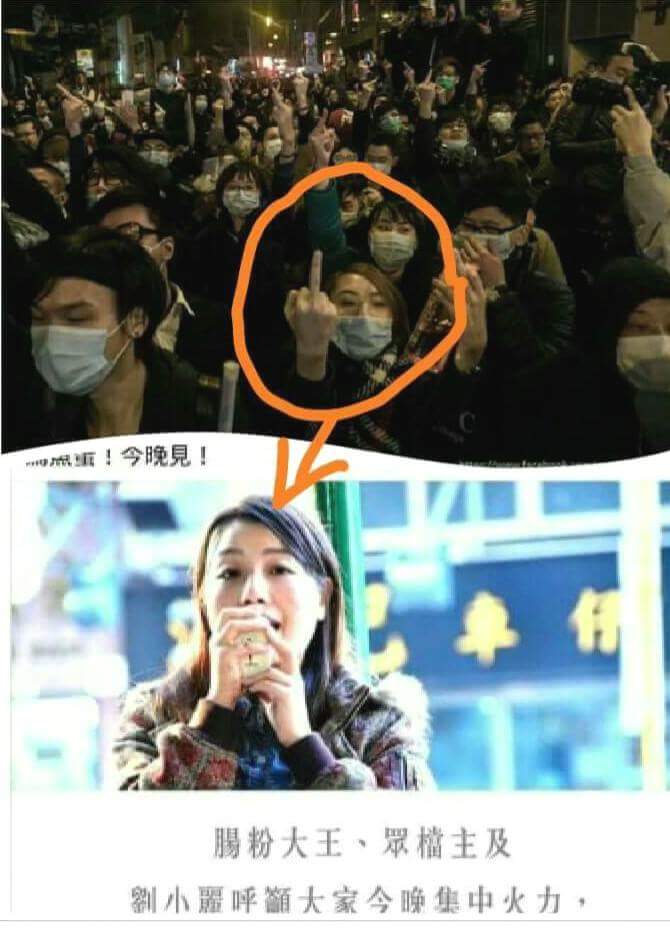
(SCMP)
The Mong Kok riot was no spontaneous outburst, but just who was behind the
violence? By Regina Ip. February 20, 2016.
Mong Kok, a busy shopping and entertainment
area in the heart of Kowloon, was a major battleground between protesters and
the police during Occupy Central. About a year later, when the police were
lulled by the festive opening of the Lunar New Year, it �became the scene of
riots unseen in Hong Kong for decades, sending shock waves throughout the
nation.
Unbeknown to many living in more peaceful
parts of the city, since the end of Occupy Central in December 2014,
anti-mainland-shopper protests in Mong Kok never ceased. Bands of about 10
youngsters, unfurling the British Hong Kong flag and bad-mouthing the police,
gathered nightly in Mong Kok. Then, as though being paid by the hour, they
would stop when their time was up.
Foreign journalists labelled the riot the
�fishball rebellion� � an uprising of suppressed street vendors against a
harsh authority.
Nothing, however, could be further from the
truth. A hawker management team was on duty in Mong Kok on February 8. Before
taking any clearance action, team members were surrounded by more than 50
hawkers. Vendors of �stinky tofu� (a popular street food) in boiling oil
lunged towards them. The team had to call in the police for support.
Those familiar with law enforcement practices
during the Lunar New Year period would know that on the first day of the new
year, frontline law enforcement squads would normally go easy on street
vendors.
Alan Lau Yip-shing, director of police
operations, testifying before the Legislative Council security panel last
week, reported that no intelligence pointing to a possible outbreak of rioting
in Mong Kok had been received.
Suspicion is now growing in informed circles
that the riots were carefully planned. Plotters picked a day on which roughly
10 per cent of force members, especially among senior ranks, were on leave. In
the evening, many had just finished their �New Year parade� duty, while others
had been assigned to take up �fireworks� duty the following day.
Conspiracy theories as to the �black hand�
behind the riots flew thick and fast. Among those who hate China, a view is
spreading that Beijing fomented the riots, so that it could clamp down on
protests more harshly, and more effectively �control� Hong Kong.
This theory has not gained much traction, as
it does not make sense for China to foment chaos in a city which is an
�inalienable part� of itself.
That would not only amount to shooting itself
in the foot, but would also invite more global condemnations of China�s
failure to adhere to its promise of �one country, two systems�.
China already has egg on its face over the
alleged abduction of bookseller Lee Po across the border.
As an emerging world power, it can ill afford
to be painted as a bully, a loser, and an authoritarian dinosaur that cannot
make �Hong Kong people ruling Hong Kong� work.
The more likely plotters are those who do not
want �one country, two systems� to succeed, and those harbouring such macabre
intentions are legion.
It ranges from those who want to show that
China, a laggard in the protection of rights and freedoms, cannot run Hong
Kong as well as the departed British colonial rulers, to those who do not want
to see �one country, two systems� succeed as a showcase for Taiwan.
One theory even went so far as to suggest
that the plan was to force frontline police officers, pelted with bricks and
faced with serious risk to life and limb, to shoot at protesters, thus turning
the already politically beleaguered force into arch villains and driving them
to the ground. A breakdown of police morale would force the central government
to deploy the People�s Liberation Army in the event of further outbreaks of
riots, thus torpedoing the implementation of �one country, two systems� once
and for all.
Such a theory is not implausible, considering
how many powers, great and small, there are that do not wish China to rise
peacefully, and which want it to be permanently painted as an uncivilised
member of the international community.
The riots come at a sensitive time in Hong
Kong�s electoral cycle. A Legco by-election in New Territories East will take
place at the end of the month. Pundits are watching intensely to see which way
voters will turn � towards the anti-violence, pro-establishment front runner
Holden Chow, or Civic Party barrister Alvin Yeung, who has been campaigning on
an anti-government platform.
If more plots are being hatched, people are
living in dangerous times. Indeed, the worst of times; but perhaps also the
best of times if and when the tide turns.
(SCMP)
Please, no more buts in justifying Hong Kong�s Mong Kok riot. By Michael Chugani.
February 16, 2016.
Public Eye is going to throw up the
next time anyone condemns the Mong Kok riots then uses the word
�but� to exonerate the rioting thugs. We�ve had enough of so-called
democrats saying they oppose violence but the brick-hurling mob had
no choice after peaceful protests to voice social grievances got
them nowhere. This is how it goes: �Violent protests are
unacceptable but Chief Executive Leung Chun-ying is to blame.
Only cowards without morals and
political courage would blur the line between right and wrong.
Public Eye nearly hurled a teacup at the TV screen when we saw
legislator Cyd Ho Sau-lan shifting blame away from the rioters
within hours of the rampage. How do these self-proclaimed champions
of democracy and human rights live with their conscience? What about
the human rights of the policeman who was nearly bludgeoned to
death?
Hate Leung all you want. Hong
Kong�s free society gives you that right. That doesn�t mean we
should use hatred of Leung to justify violence. Politicians and
academics who do that only encourage the low-lifes who didn�t even
have the guts to show their faces when they hurled bricks, set fires
and smashed windows while wearing face masks.
These same people applauded
students who stormed University of Hong Kong council meetings. They
mocked council chairman Arthur Li Kwok-cheung for saying the
students behaved like a drugged mob. Now they want to divert
attention away from the violence by demanding an inquiry into their
claim that failed governance turned youths into rioters. Do these
people not understand they�re destroying Hong Kong when they let
their blind hatred of Leung blind their eyes to rioting mobs?
Public Eye sniggered when we heard
the Facebook �final message� of Ray Wong Toi-yeung, convenor of the
localist group Hong Kong Indigenous, which spearheaded the riots. He
said it was better to die with honour than survive in disgrace. We
suspect this 22-year-old has watched The Hunger Games too
often. Die with honour? Who�s coming to kill you? Certainly not the
overly restrained policemen who ended up in hospital. Survive in
disgrace? You�re not an oppressed kid forced to fight to the death
for Leung�s entertainment, much as you would like to romanticise as
such.
Public Eye took no issue with Hong
Kong Indigenous when it opposed parallel goods traders and mainland
day-trippers who made life hell for border town residents. There�s a
huge difference, though, between that and rioting. Many no longer
fear breaking the law. Why should they? It�s been over a year since
the Occupy protests ended yet not a single one of the big names who
voluntarily surrendered has been charged. So go on, riot some more.
Justify the violence. Beijing will thank you for giving it a reason
to clench its fist.
Videos:
ABC Hong Kong
https://www.youtube.com/watch?v=YnjWxP93i-A (compilation of
highlights)
TVB
http://news.tvb.com/local/56b8faa86db28c386e000000
https://www.facebook.com/HongKongGoodNews/videos/1026242580783011/
https://www.facebook.com/SinManSing/videos/570003763159204/ A fallen
police officer is chased and assaulted by citizens who were looking
for fish balls to eat.
https://www.facebook.com/HongKongGoodNews/videos/1029377053802897/
Events viewed by a street vendor.
https://www.youtube.com/watch?v=WBgTZQ_2Sbg A couple of policemen
hit by flying rocks
https://www.youtube.com/watch?v=5mpRh5_aS6I Compilation of news
reports
https://www.youtube.com/watch?v=8Y7eBkDz0RM Compilation (8:49
minutes)
https://www.youtube.com/watch?v=kRIAntOu_Dc News report next day (26
minutes)
TVB News Magazine
http://mytv.tvb.com/tc/cat_news/newsmagazine/230649 22:24
comprehensive news analysis
NOW TV
http://news.now.com/home/local/player?newsId=168033
http://news.now.com/home/local/player?newsId=168032
http://news.now.com/home/local/player?newsId=168022
Oriental Daily
https://www.facebook.com/1634608756778242/videos/1672181406354310/
https://www.facebook.com/832553626780002/videos/940395975995766/
https://www.facebook.com/bbtauseeworld/videos/451341621729887/
https://www.facebook.com/silentmajorityhk/videos/989093734513066/
https://www.youtube.com/watch?feature=player_detailpage&v=R8Jz5bS11uM#t=0
https://www.youtube.com/watch?feature=player_detailpage&v=JxPUC9ean2w#t=0
https://www.youtube.com/watch?feature=player_detailpage&v=GL_9n6Jv9rs#t=0
Apple Daily
https://www.youtube.com/watch?v=My-0mI6CDT0
Cable TV
https://www.facebook.com/HongKongGoodNews/videos/1026484684092134/
https://www.facebook.com/bbtauseeworld/videos/451174305079952/
https://www.facebook.com/1634608756778242/videos/1672334359672348/
https://www.youtube.com/watch?v=V7j8PyXBYYQ
https://www.facebook.com/1634608756778242/videos/1672959299609854/
8-minute long version
https://www.youtube.com/watch?v=63nINuxQnAs Morning program (17+
minutes long)
https://www.youtube.com/watch?v=aGgZw1RJc_0 Special program on the
Mong Kok riot (46+ minutes long)
https://www.youtube.com/watch?v=0nXLJQDdn38 Compilation (51+ minutes
long)
RTHK
https://www.facebook.com/RTHKVNEWS/videos/956597647781625/
https://www.youtube.com/watch?v=2sqrS06HkRU
https://www.youtube.com/watch?v=gfZiVPerXcw Hong Kong Connection
programme
Headline POP News
https://www.facebook.com/bbtauseeworld/videos/451190468411669/
http://pop.stheadline.com/content.php?vid=40399&cat=a The materiel
(goggles, masks, shields, helmets, etc) were shipped from Hong Kong
Indigenous' To Kwa Wan headquarters to Mong Kok that night.
http://pop.stheadline.com/content.php?vid=40332&cat=a
The Stand News
https://www.facebook.com/standnewshk/videos/922182001200754/
Policeman fires warning shot into the air
Bastille Post
https://www.youtube.com/watch?v=M8mh8GhJrpQ
The Epoch Times
https://www.youtube.com/watch?v=h6r66NuFglw
https://www.youtube.com/watch?v=ppsYIPf5ADo
https://www.youtube.com/watch?v=4jkwruxgPNI
https://www.youtube.com/watch?v=lna7RyV8SrI
https://www.youtube.com/watch?v=an0zuEUqQQA
https://www.youtube.com/watch?v=pXgeW79jp1o
https://www.youtube.com/watch?v=nqflEynNh1o
https://www.youtube.com/watch?v=8nebrHUn_K8
https://www.youtube.com/watch?v=0xCxMM5MPyo
SocREC
22:02pm:
https://www.facebook.com/socrec/videos/1308369465856648/
22:30pm:
https://www.facebook.com/socrec/videos/1308389302521331/
22:48pm:
https://www.facebook.com/socrec/videos/1308388449188083/
0:50am:
https://www.facebook.com/socrec/videos/1308492485844346/
1:00am:
https://www.facebook.com/socrec/videos/1308498659177062/
1:30am:
https://www.facebook.com/socrec/videos/1308518979175030/
1:35am:
https://www.facebook.com/socrec/videos/1308523025841292/
2:55am:
https://www.facebook.com/socrec/videos/1308558169171111/
3:01am:
https://www.facebook.com/socrec/videos/1308560455837549/
3:05am:
https://www.facebook.com/socrec/videos/1308561319170796/
3:15am:
https://www.facebook.com/socrec/videos/1308564525837142/
3:18am:
https://www.facebook.com/socrec/videos/1308565239170404/
3:28am:
https://www.facebook.com/socrec/videos/1308569972503264/
Compilation
https://www.youtube.com/watch?v=cTda-evMO6A
https://www.youtube.com/watch?v=asNqrUU1ZuI Food and Environmental
Hygiene Department inspectors called police for assistance
https://www.youtube.com/watch?v=WVHE080hNYU Food and Environmental
Hygiene Department inspectors forced to leave
https://www.youtube.com/watch?v=e6a6Xm1BZPk Police asked the
demonstrators to allow the ambulance to come through to take an injured
citizen but the demonstrators won't let them
https://www.youtube.com/watch?v=j8d25VBGLc8 Police displayed yellow
warning banner
https://www.youtube.com/watch?v=MaPahqwi7Ck Police used pepper spray
and displayed red warning banner
https://www.youtube.com/watch?v=NCrAloceJSo Police withdraw so that
the trapped taxis can depart
https://www.youtube.com/watch?v=xY6w1-Rb8rQ Police and demonstrators
clash at Langham Place/Shan Tung Street
https://www.youtube.com/watch?v=dlwYF6qEdWw Police being attacked by
localist rioters
https://www.youtube.com/watch?v=y1sr9v7O9tc Wai Fung Plaza, Argyle
Street/Nathan Road Part 1
https://www.youtube.com/watch?v=tCbHIS83zU4 Wai Fung Plaza, Argyle
Street/Nathan Road Part 2
https://www.youtube.com/watch?v=eSzK6TL3Swc Wai Fung Plaza, Argyle
Street, Nathan Road Part 3
https://www.youtube.com/watch?v=dE7BU1V-Fco Wai Fung Plaza, Argyle
Street, Nathan Road Part 4
https://www.youtube.com/watch?v=NpKcyNwSFs4 HSBC, Argyle
Street/Nathan Road Part 1
https://www.youtube.com/watch?v=GAJGA7PomKA HSBC, Argyle
Street/Nathan Road Part 2
https://www.youtube.com/watch?v=wT5Anh0CQf0 HSBC, Argyle
Street/Nathan Road Part 3
https://www.youtube.com/watch?v=13L1-qiPCxs HSBC, Argyle
Street/Nathan Road Part 4
https://www.youtube.com/watch?v=Spde8NRy7bE HSBC, Argyle
Street/Nathan Road Part 5
https://www.youtube.com/watch?v=e-5nZQTd4Fk Shan Tung Street Part 1
https://www.youtube.com/watch?v=4B_1hasDQWk Shan Tung Street Part 2
https://www.youtube.com/watch?v=9jc_Gincpvo Shan Tung Street Part 3
https://www.youtube.com/watch?v=fjHtAtAkVpI Nathan Road Part 1
https://www.youtube.com/watch?v=RuApUoCXEVQ Nathan Road Part 2
https://www.youtube.com/watch?v=qBIUrEPZPUY Soy Street
https://www.youtube.com/watch?v=_Iu1iXDPZUY
https://www.youtube.com/watch?v=-fKJCxOs4LY
DNA News
https://www.youtube.com/watch?v=DTIFcLfXiEw
https://www.youtube.com/watch?v=ondAhrtccsE
https://www.youtube.com/watch?v=M93VZIa2eos
Passion Times
https://www.facebook.com/passiontimes/videos/1045187125544454/
Resistance Live Media
https://www.facebook.com/resistancelive2014/videos/1660949984169350/
https://www.facebook.com/resistancelive2014/videos/1660964770834538/
https://www.facebook.com/resistancelive2014/videos/1660968550834160/
https://www.facebook.com/resistancelive2014/videos/1660971397500542/
https://www.facebook.com/resistancelive2014/videos/1660974804166868/
https://www.facebook.com/resistancelive2014/videos/1660975940833421/
https://www.facebook.com/resistancelive2014/videos/1660978920833123/
https://www.facebook.com/resistancelive2014/videos/1660979530833062/
https://www.facebook.com/resistancelive2014/videos/1660981487499533/
https://www.facebook.com/resistancelive2014/videos/1660990424165306/
https://www.facebook.com/resistancelive2014/videos/1660994644164884/
https://www.facebook.com/resistancelive2014/videos/1661001874164161/
https://www.facebook.com/resistancelive2014/videos/1661001904164158/
https://www.facebook.com/resistancelive2014/videos/1661001594164189/
https://www.facebook.com/resistancelive2014/videos/1661012997496382/
https://www.facebook.com/resistancelive2014/videos/1661013417496340/
https://www.facebook.com/resistancelive2014/videos/1661024380828577/
https://www.facebook.com/resistancelive2014/videos/1661022654162083/
https://www.facebook.com/resistancelive2014/videos/1661033590827656/
TMHK
https://www.youtube.com/watch?v=oap6aOX3QPM
https://www.youtube.com/watch?v=Kh0qa8GngCE
https://www.youtube.com/watch?v=iLEq-EhsW30
https://www.youtube.com/watch?v=oRL60hzsWpU
https://www.youtube.com/watch?v=y-Uk-NWn9DA
https://www.youtube.com/watch?v=lbQwZYSP97c
Passion Times
https://www.facebook.com/passiontimes/videos/vb.420361564693683/1045254302204403
On8 Channel
https://www.facebook.com/on8channel/videos/1035755833132738/
Instagram
https://www.facebook.com/bbtauseeworld/videos/451140938416622/
A Laowai's View
https://www.youtube.com/watch?v=UMfRahEL54M
Salute to HK Police
https://www.youtube.com/watch?v=dlwYF6qEdWw
Michael Ho
https://www.youtube.com/watch?v=3iUSXdi0Yg0
https://www.youtube.com/watch?v=hKiAIG25YZg
https://www.youtube.com/watch?v=8UG6H0fuLvU
https://www.youtube.com/watch?v=OlZ2pfwmMi8
https://www.youtube.com/watch?v=48DjDOP5lwk
Compilations
https://www.youtube.com/watch?v=eLxLPPLzkP0
https://www.youtube.com/watch?v=g8Upte16Af4
https://www.youtube.com/watch?v=NHOnOHWYiWI (Focushot) (9:12 arrest
of Lee Sin-yee)
Internet comments:
- Hong Kong Indigenous' Facebook
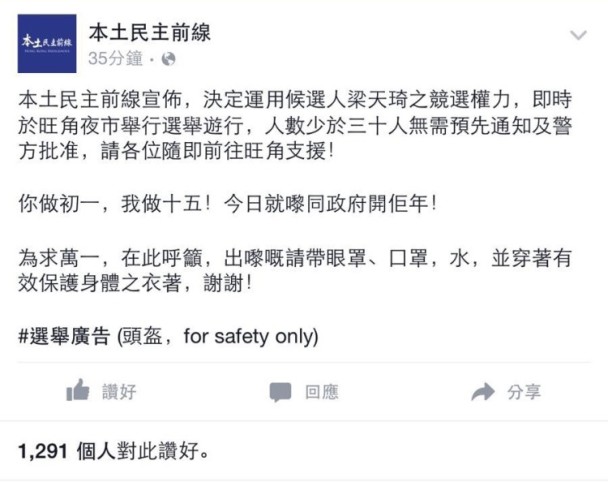
Hong Kong Indigenous announced that it will use the election rights of
candidate Edward Leung to immediately conduct a march at the Mong Kok night
market. Since the number of participants is fewer than 30, there is no need
to notify the police beforehand or obtain their permission. Please follow us
to offer support in Mong Kok!
If you do this, we will do that! Today we will start the New Year for the
government!
Just in case, we also urge you to bring goggles, masks, water and protective
gear. Thanks!
#Election advertisement (helmets, for safety only)
- Valiant Frontier Facebook
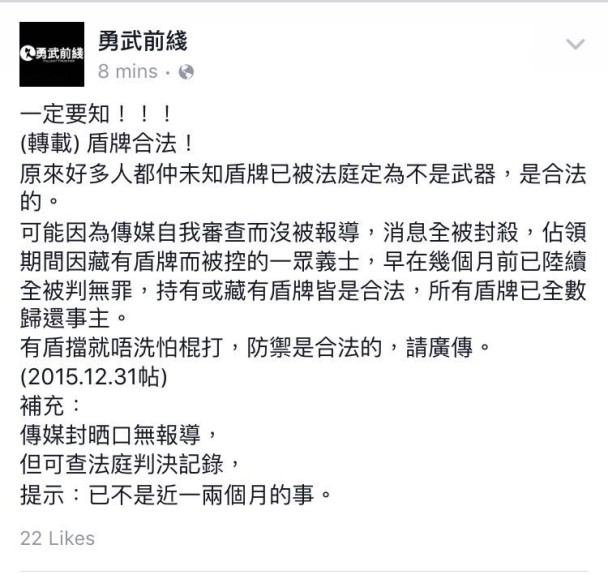
Valiant Frontier Facebook
You must know this!!!
(re-post) Shields are legal.
Many people do not realize that the courts have ruled that the shield is not
a weapon. It is legal.
Due to media self-censorship, this information was suppressed. During the
Occupy period, the martyrs who were charged with possession of shields were
all found not guilty. It is legal to hold or possess shields. Almost all the
shields have been returned to the principals.
If you have a shield, you won't be afraid of being hit by batons. It is
legal to defend oneself. Please circulate this.
Addendum:
The media have not reported this
But you can check the court verdicts
Hint: It is not just the past one or two months.
- Was this an illegal assembly? According
to Hong Kong Indigenous' Legislative Council candidate Edward Leung, the
election law gives the right to hold an assembly anywhere anytime that he
chooses. Therefore, the assembly tonight was automatically legal because it
is part of his Legco election campaign.
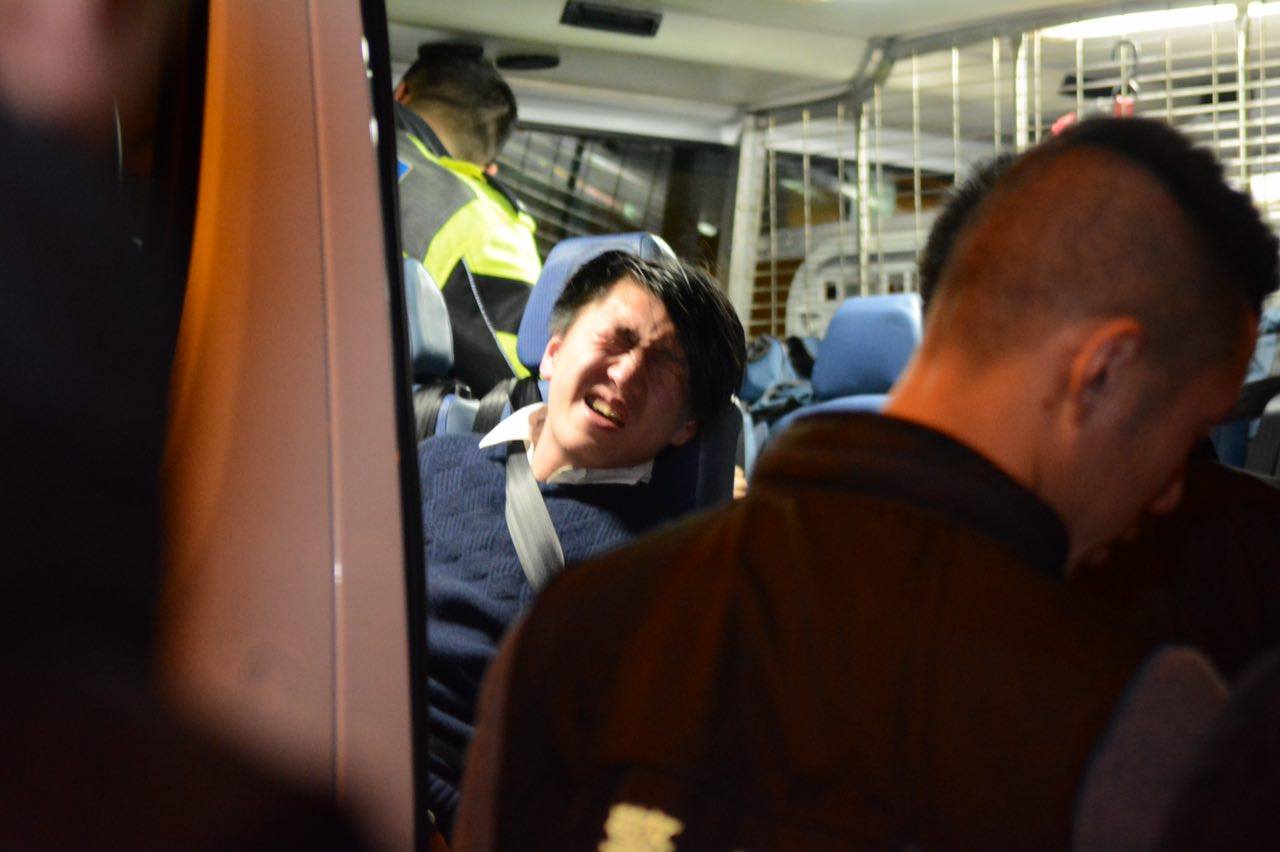
Edward Leung was arrested and taken away in a police van
- (Bastille
Post) According to the information, the election campaign team told
the camera: "We are marching for the Localists in the New Territories East
election. You (namely, the police) have three minutes to disperse or else we
will charge over." And charge they did.
- Edward Leung is a fifth-year student at Hong Kong University and he is a
member of the Strike Committee.
- The most absurd photo from the campaign
to defend democracy/freedom against the police. In truth, the police
couldn't care less about a bunch of people selling skewered BBQ meat because
that is not their responsibility. Meanwhile the vendors probably hate all
these activities around them because they are here to make money and the
clients are too scared to come near.
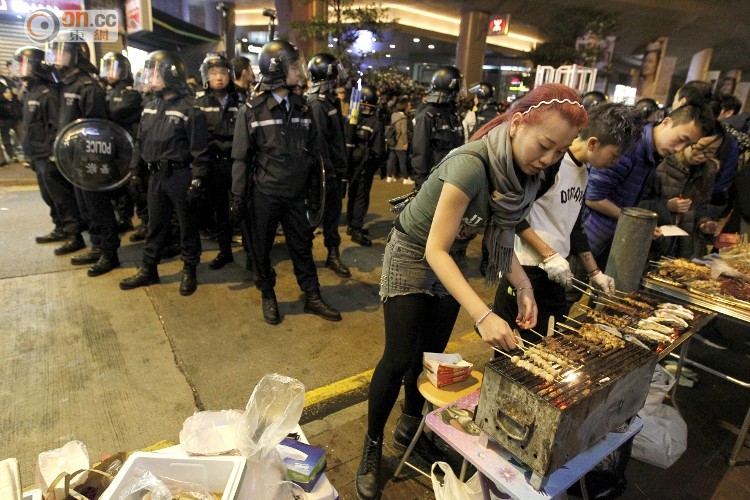
- (HKG
Pao) In the same way that dissidents are disappeared, these
unlicensed street vendors have been supported. In previous years, the Food
and Environmental Hygiene Department usually only maintain order on the
three first days of the Lunar New Year without issuing any tickets. So that
were a d�tente, if you wish. But now business on the first day of the Lunar
New Year has been ruined by the riot. And it is likely that the next two
days are ruined as well. So maybe the vendors were counting to make a few
thousand dollars in quick money this year. Thanks to the 'support' from the
localists, they will get nothing.
- (Oriental
Daily) About 6 to 7 vendors were operating in a back lane off Shan
Tung Street at around 8pm the next evening. According to a vendor named
Wong, "The Localists only know how to cause trouble!" He cursed the
localists for exploiting the vendors but also stopping their business.
Another vendor named So said that the localists did not consult with them
beforehand. While the localists may have meant well, they were said to be
too radical.
- (SCMP)
Many pronounced the conflagration � prompted by a hawker control patrol in
Mong Kok � vastly disproportionate to the issue itself. Hawkers told the
Post they were not involved at all in the protests. Political analyst
Ivan Choy feared instigators could exploit more issues to spark more chaos.
�I suspect the hawker issue was just an opportunity to vent other emotions
... you can see the hawker issue is in no way big enough to warrant such a
disproportionate reaction � the anger and hatred against the police you see
is a build-up. But to instigate such actions, there must be a ripe
environment.� Yesterday, hawkers themselves were in no mood to find common
cause with them. Hawker Leo Chan, who was selling ceramic cups, said: �There
is no clash between police and us ... If I am going to lose money this year,
the demonstrators definitely helped.�
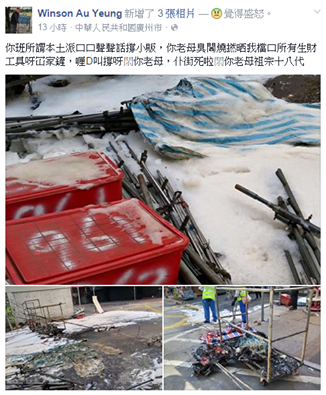
Winson Au Yeung's Facebook
You so-called Localists claim to support the itinerant vendors. Your
mother's stinking cunt! You fucking set fire to all my tools of livelihood
at my stand. Bastards! Is this your support? Fuck your mother! Drop dead.
Fuck your mother's ancestors for 18 generations.
- The various reports point to the riot
being planned beforehand. The original message from Hong Kong Indigenous
told people to be "properly prepared." Later in the evening when the action
began, more gear was transported in by car and distributed. The initial
action took place around 10pm, when someone pushed a vendor trolley onto the
roadway. The police didn't do anything. More people stepped on the roadway.
One person said that a taxi ran over his foot. An ambulance was called. The
people refused to let the person be evacuated by ambulance. The police came
to help. The police and Hong Kong Indigenous that they will both back off to
allow the ambulance leave. The police left afterwards. So far so good. Then
at midnight Hong Kong Indigenous announced that they will use their Legco
candidate Edward Leung's election rights to hold an unauthorized assembly.
The fishballs were long forgotten by then. That was when the full riot
began.
- Edward Leung was arrested last night. He
will be bailed out and then he can continue his Legco election campaign with
the radical votes in his hand. How big will that be?
- How will the Journalists Association not
react? At issue is the demonstrators blocking the TVB film crew from
recording the demonstrators setting off a fire on Nathan Road.
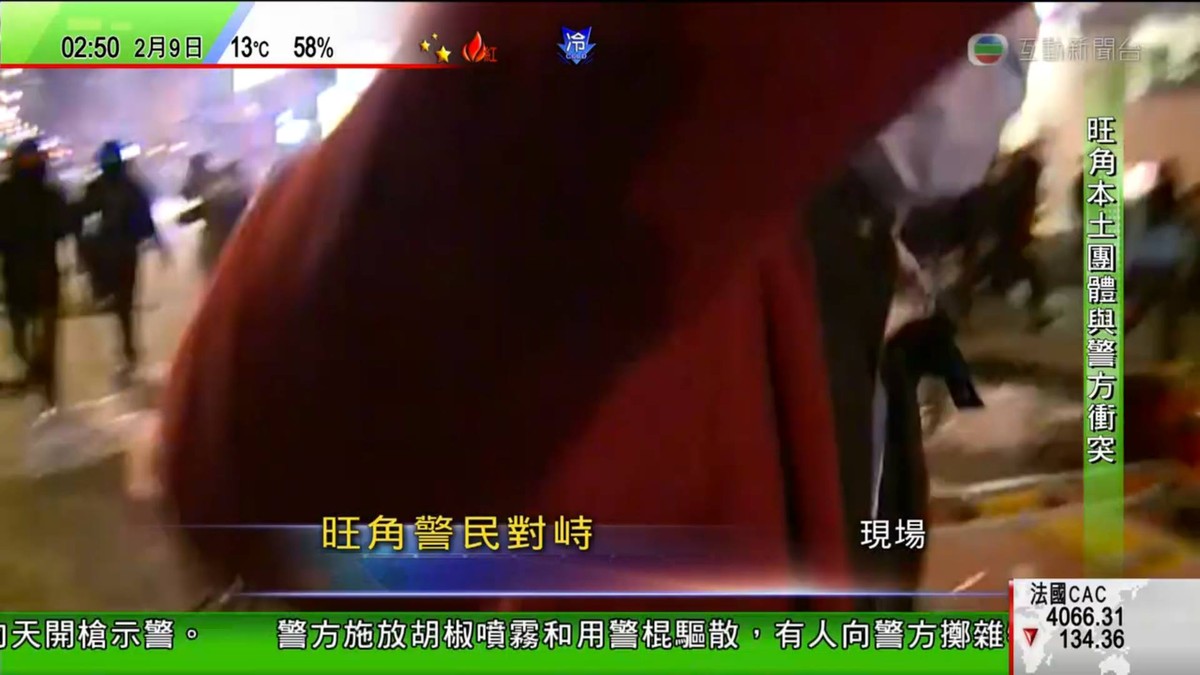
The correct answer is Sergeant Schultz's "I
see nothing."
- P.S. A glass bottle was thrown at a TVB reporter.
Howzat?
- TVB News screen capture: Rioters prevented our news gathering, our
camerman was injured.
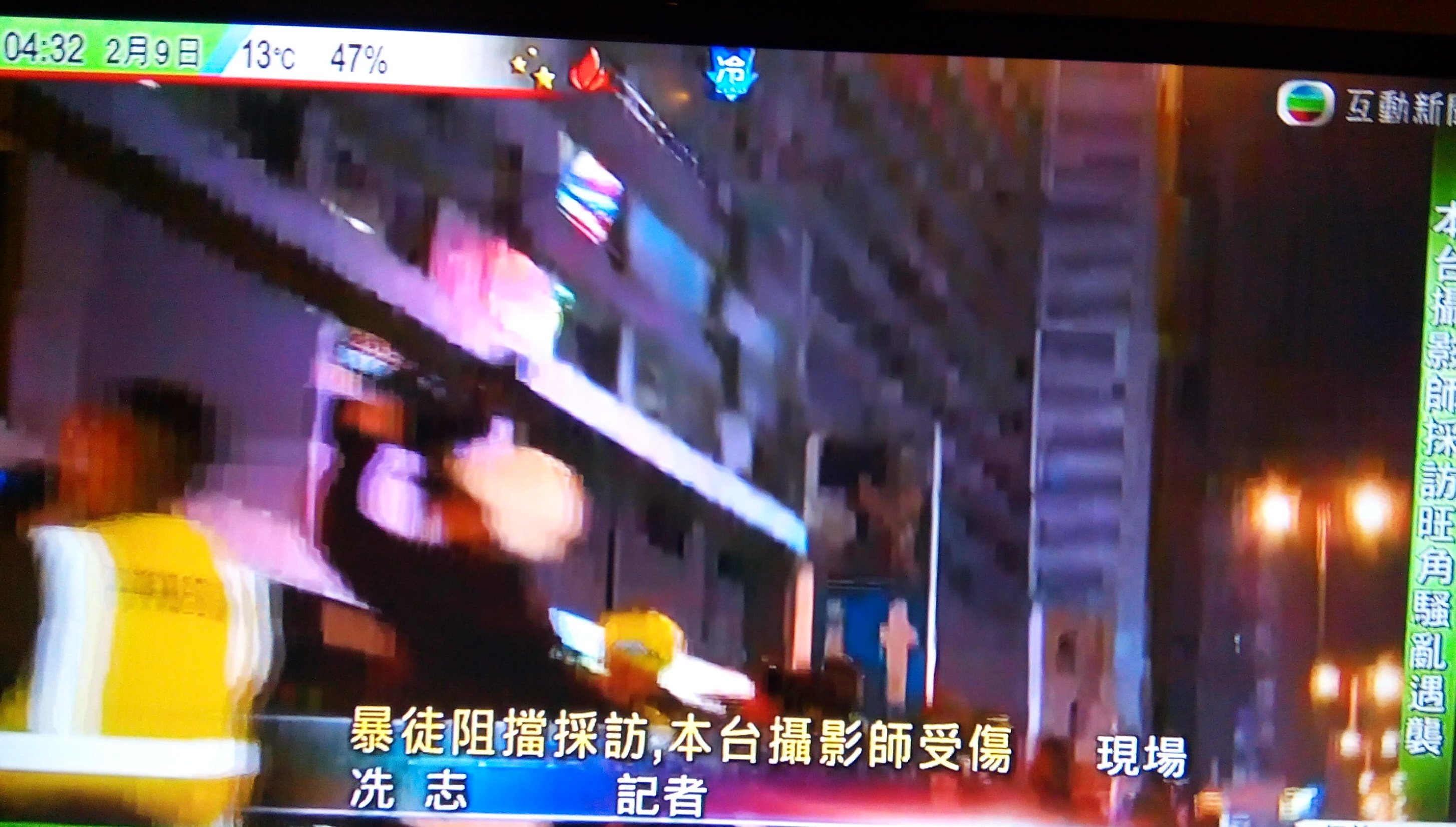
- I watched TVB from 11pm to 4:50am. All
along, TVB characterized these individuals as "demonstrators." At 4:50am,
they became "rioters." I want to ask TVB what do they think is the
difference between "demonstrators" and "rioters." Why did it take them so
long to find out? Is this the first time that they have to think about this?
- At 5:20am on live television, a plainclothes police officer was pelted and
bloodied on the head by a brick. He was merely standing on his ground and
not attacking any demonstrator. What descriptive term could possibly be
used?
- A photo does not lie. But what happened?
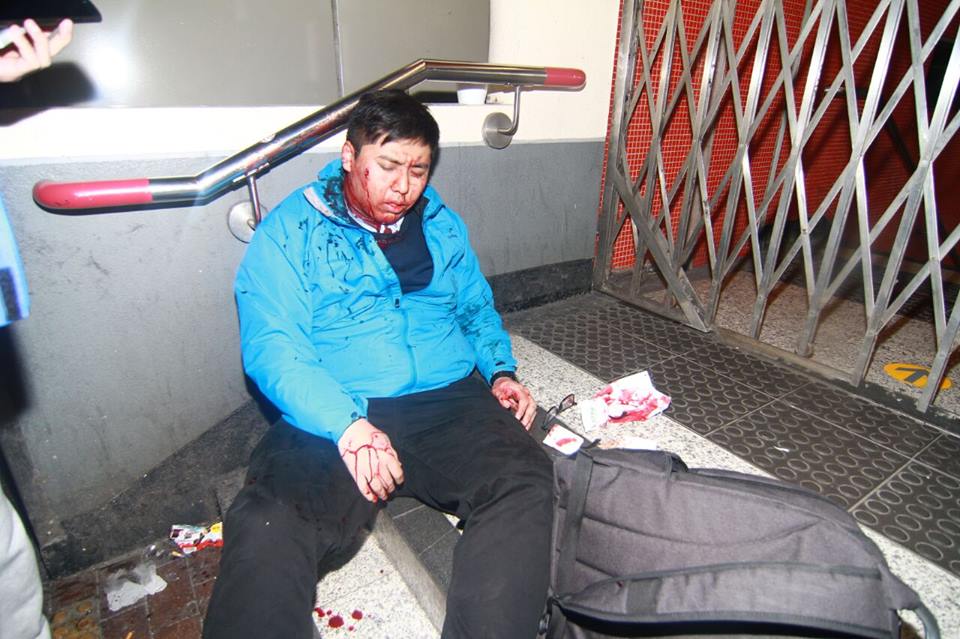
- Why the timeline is so important.
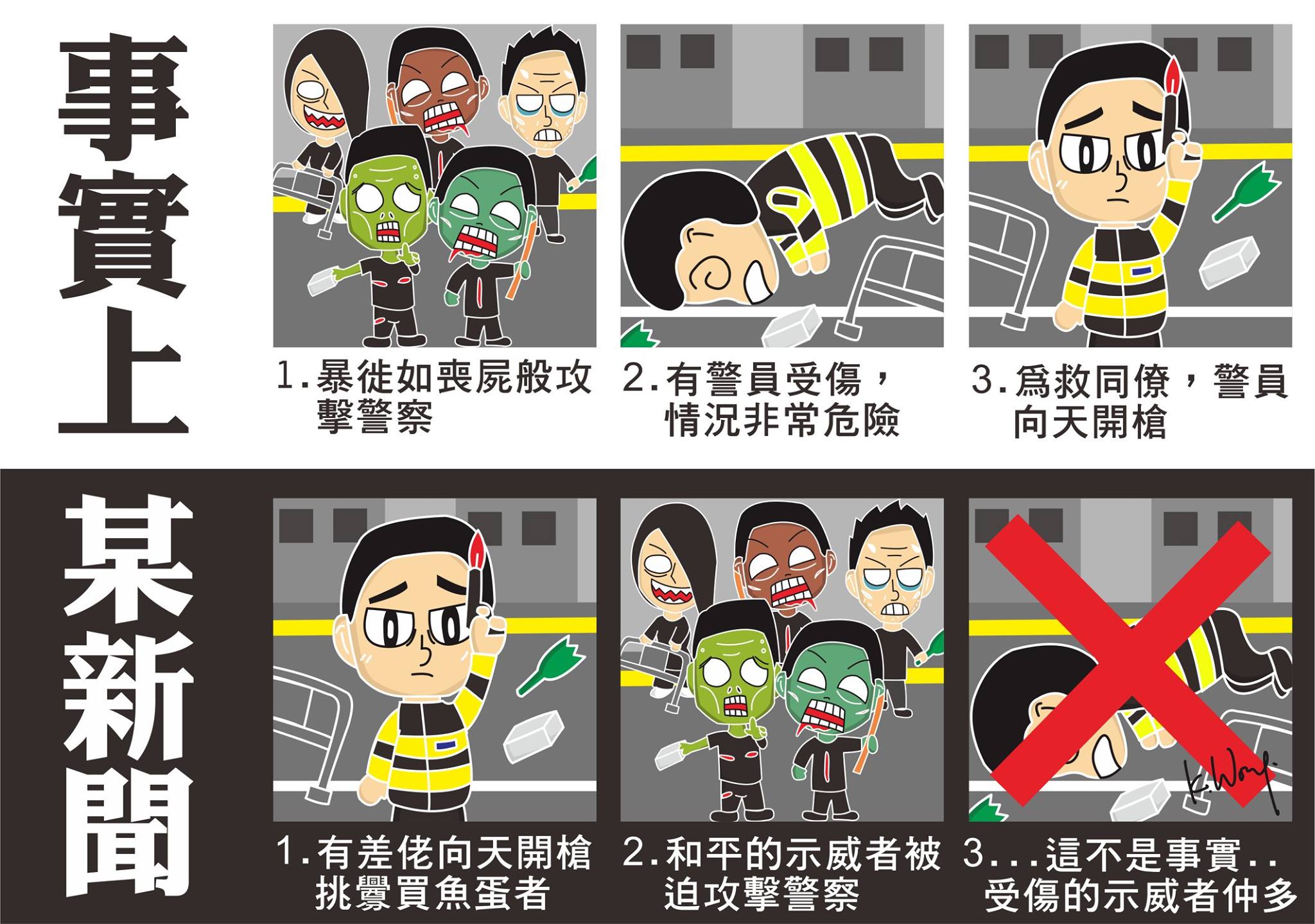
The true sequence of events is:
(1) The rioters attack the police officers like a pack of zombies
(2) A policeman is injured and down in a dangerous situation
(3) Another policeman fires into the air to save his colleague.
According to the report in a certain newspaper, the sequence of events is:
(1) A policeman fired into the air in order to provoke the citizens who want
to buy fish balls
(2) Peaceful demonstrators were forced to attack the police
(3) No policeman was injured; many more demonstrators were injured.
- They set off a number of trash bin fires.
But so what? First of all, this is not sustainable. You can burn off all the
trash in one bin. The fire is going to exhaust itself within minutes. You
can set off another fire. You can keep going for four hours? eight hours?
one day? five days? ten days? Eventually you have nothing left to burn.
Can you burn down the Langham Place Hotel? That would be very impressive,
but you don't have the guts because the act would guarantee the end of your
political career and anything else that has any conceivable connection with
you too.
- What did I see them do on live
television?
(1) criminal damage of property
(2) assaulting police officers
(3) obstruction of the police in the line of duty
(4) arson
(5) physical assault/hurting persons (namely, reporters)
(6) obstructing traffic ...
That's fine with me if they are willing to accept responsibility. But no,
they did it while wearing masks to make sure that they are never ever
identified for doing these things.
- And if one of them got caught in the act, he/she will come up with all
sorts of excuse ("I was too young and innocent to know right from wrong," "I
was still upset that my mother didn't make the right breakfast for me this
morning", etc).
- (Oriental
Daily) A taxi driver parked his car on Sai Yee Street and went to
dinner. When he came back, he found a number of rioters were clashing with
the police right at that scene. He got scared and left the scene quickly.
When he came back at 8am the next morning, he found that the taxi's front
windows had been smashed by bricks.
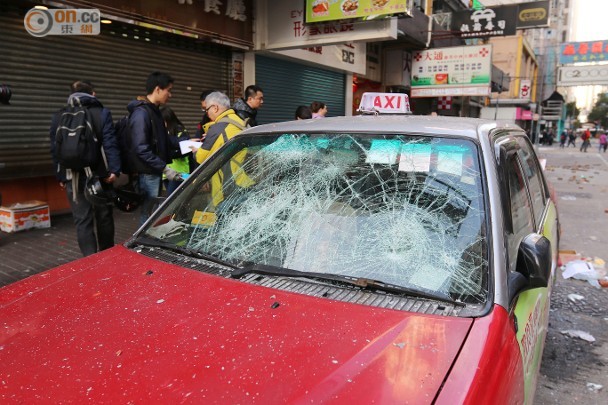
- In a revolution, some people will have to make sacrifices, some more than
others. So the message to this taxi driver is: Tough Shit!
- If someone is to be blamed, it is Chief Executive CY Leung. He was the one
who refused to let unlicensed street hawkers sell cooked food wherever
whenever they want.
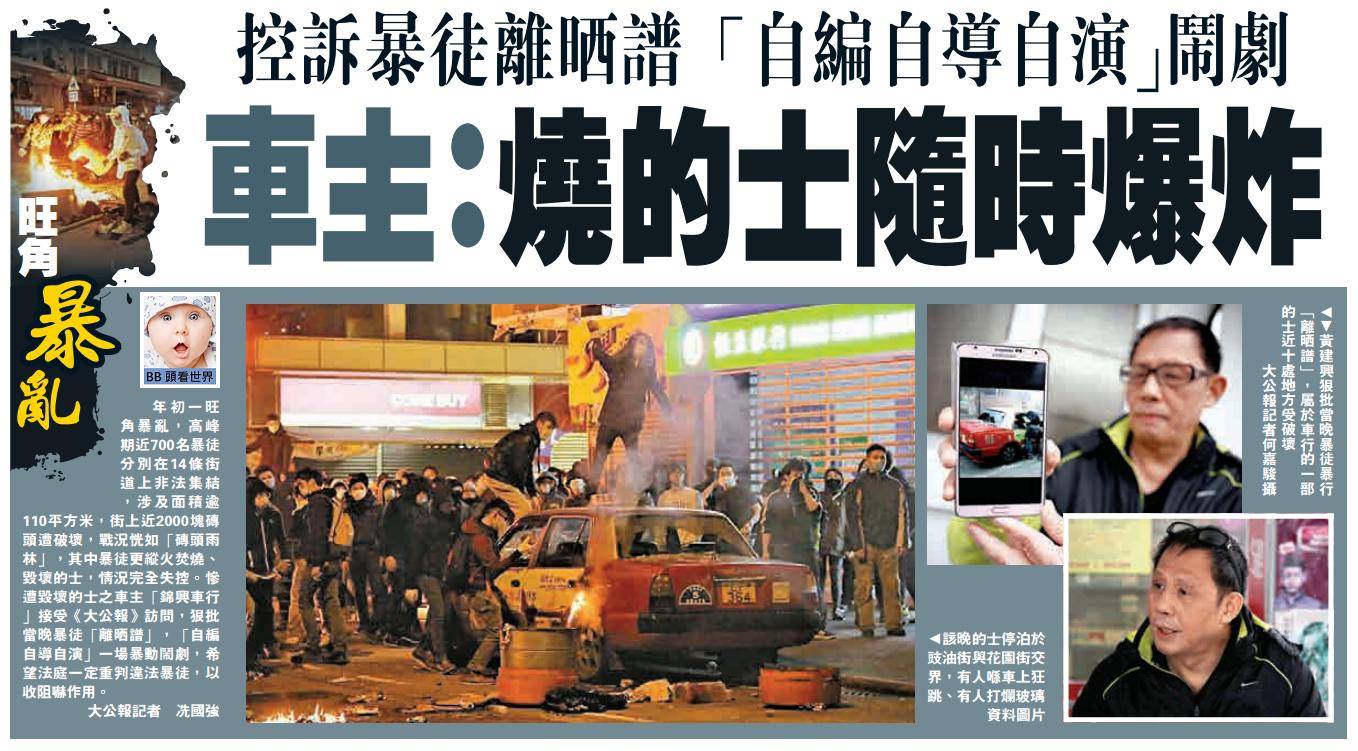
Taxi owner: The rioters staged/directed a
farce; setting a taxi on fire can lead to an instant explosion
- (Oriental
Daily) Today Ray Wong (Hong Kong Indigenous) said on a radio program
that the incident last night cannot be classified as "violence." He said
that compared to demonstrations elsewhere around the world, it is not very
radical for demonstrators to throw bricks. He accused the police of angering
the demonstrators by using their police batons. What about the throwing of
wooden pallets, bricks, glass bottles and the arson? Wong said that it is
hard to define 'rioters' but he doesn't mind being called one. He said that
the clash last night was like the 1966's/1967's riots but it was not a riot.
He said that the Occupy movement occupied the roads but the government
refused to address the demands. Therefore they want to show the power of the
people to tell the government that they will only drive the citizens into
desperate straits. Ray Wong also said that some of the participants were not
Hong Kong Indigenous, which may be a way of saying Hong Kong Indigenous
cannot be held responsible.
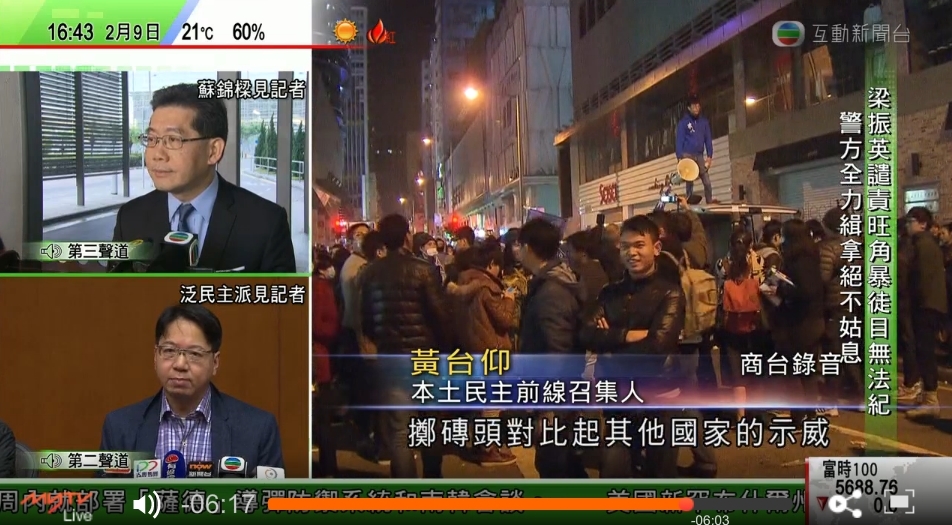
Ray Wong: Compared to demonstrations in other
countries, throwing bricks is ...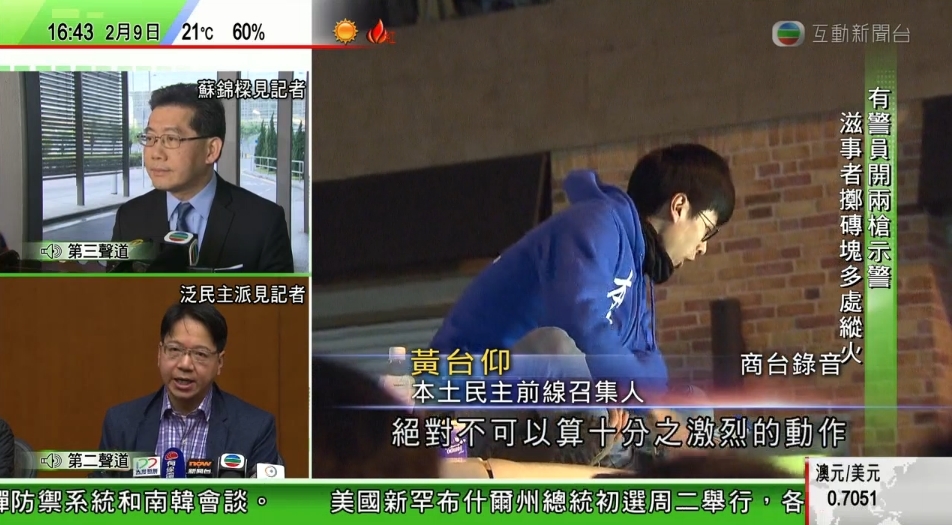
... absolutely not regarded as very radical action.
- Ray Wong said all the wrong things on
radio. He needs to have an intensive training course. He cannot possibly
begin by saying that throwing bricks at human beings is non-violent.
Everybody knows that it is violent and it can kill people (possibly innocent
bystanders). His position should have been that everything followed the
police firing those two shots. At least, they can rationalize the irrational
reaction.
- Hong Kong Localism Power Facebook
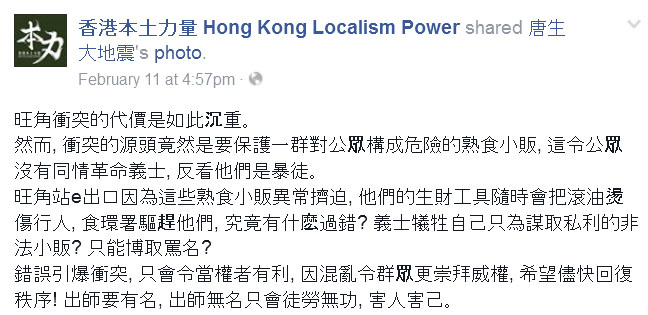
February 11
The price of the Mong Kok clash is so heavy.
Yet, the clash started in order to protect a group of cooked food vendors
who posed pander to the public. This caused the public not to sympathize
with the revolutionary martyrs and to think that they are rioters.
The E exit of the Mong Kok MTR station is very crowded due to the presence
of these vendors. Their tools of livelihood can easily spill boiling oil
onto pedestrians. What is wrong with the Food and Environmental Hygiene
Department chasing them off? The martyrs sacrificed themselves for a group
of vendors who are only looking to make some money for themselves? Will they
only end up with a bad name?
To instigate a clash for the wrong reasons will only benefit the
authorities. The chaos will lead the masses to worship authoritarianism
because they want order to be restored quickly! You need to have a reason.
If you don't have a reason, you will waste your time and hurt yourself as
well as others.
- Hong Kong Localism Power Facebook

- February 11
Ho Chi-kwong: I see that most of the ordinary Hongkongers around me are
questioning the Mong Kok clash. That is a fact. I hear that they are
declaring aloud that the 38 persons deserve to be prosecuted! I cannot
distort things and say that the Mong Kok clash is being supported by the
majority of the people in Hong Kong. If it is not true, then it is not true!
- What do the local Mong Kong denizens
think?
(Oriental
Daily) Chow Sang Sang at 614-616 Nathan Road, Chow Sang Sang at 628
Nathan Road and 3-D Gold at 642 Nathan Road sustained damages to their store
fronts in the form of cracked windows and walls.
(Oriental
Daily) Mrs. Wu of 59 Shan Tung Street said that she was very afraid
when she heard about the riot on the news. She heard some noises last night.
Normally, it is annoying enough to have the vendors set up downstairs, but
it was even noisier. Her building is ungated, so she was worried that
rioters may run up to the apartments and set off fires. She locked her
doors and windows, and was prepared to call the police in the event of a
fire. Sister Fun who works the night shift at a hostel said that the guests
wanted to leave because of the riot downstairs. The guests also said that
they have nowhere to go when so many streets are blocked and shops are
closed. She also said that since people can come and go freely at the
hostel, the rioters may set off fires on the stairwell.
- (Oriental
Daily) More than ten stalls on Ladies Street suffered severe
damages. Mr. Wong said that he had a cart full of canvas, lamps and
electrical outlets in his stall. But the rioters set everything on fire. He
estimated that he lost about $10,000. He said that one can have different
political views but one should not hurt other people's livelihoods. He said
that setting the canvas on fire would have created flames that are several
stories high. Minibus driver Mr. Ting said that his business fell by 30% the
next day because nobody wants to head into Mong Kok. He said that these
localists don't care about the local residents.
- (Oriental
Daily) Stall owner Ms. Wong said that the fire cost her several
hundred dollars to replace the canvas, plastic cases and stamps. The number
of shoppers decreased by one-third and her revenue decreased by half.
Restaurant owner Ms. Ma said that business has fallen by half. She said that
diners used to queue up outside her restaurant but there are very few people
now.
- (Nanzao)
The police had said the next morning that there is no evidence of triad
involvement in the Mong Kok riot. However, the direction of the riot was
restricted by the triads.
Firstly, a stall was set on fire by the
rioters that night. The owner lost about $10,000 in property. The next day,
a triad leader came to see the owner and gave her a lai see envelop plus
almost $20,000 in compensation. According to information, the various stalls
and minibuses in Mong Kok pay protection money to various triads. During the
riot, triad members watched and made sure that their protected stalls and
minibuses do not get damaged. Since the triad gang failed to protect that
one stall, the gang paid compensation to demonstrate good faith.
Secondly, the clash began on Portland
Street in front of Langham Place. During the Lunar New Year, the cooked food
vendors paid protection money to triads who guarantee their personal safety.
According to one triad leader, his gang members were present and they had a
stash of several dozen butcher knives ready for use. Therefore, the rioters
did not dare to do anything to the vendors or minibuses.
- In Hong Kong, arson carries a maximum
sentence of imprisonment for life.
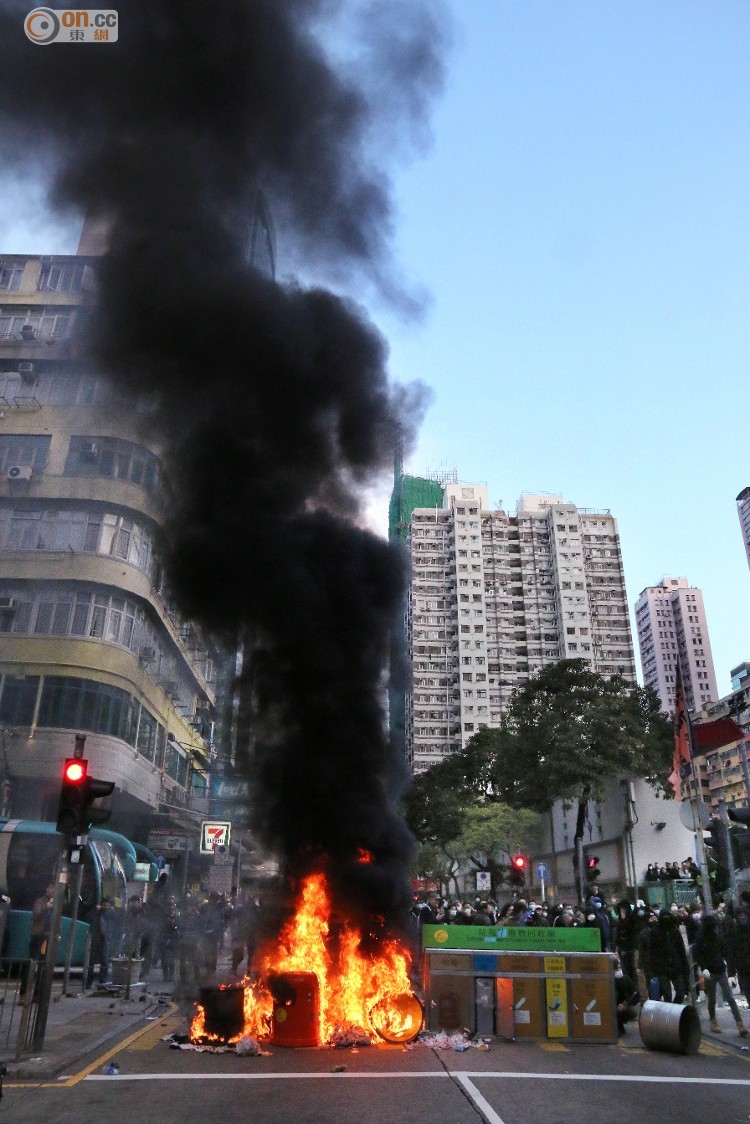
- TVB, Cable TV, NOW TV, RTHK and company
continued to use the term 'demonstrators' and not 'rioters.' But did the
rioters appreciate this?
(TVB)
There were a number of fires on Sai Yeung
Choi STreet South. Our reporter said: "Someone attempted to stop our
cameraman. You can do anything you want but you should not be rash. We are
reporters. You can do anything but you should not be rash." During the
live broadcast, someone tried to chase away our cameraman and used hands
to block the camera. Someone else tossed objects at the reporter and the
cameraman and cursed them out with obscene language.
After a while, troublemakers were ripping
bricks off the sidewalk to be placed inside cardboard boxes. They used
foam rubber to block the camera and continued with their verbal cursing.
Someone said: "Do not film me. It is alright as long as you don't film
people. You can film this as you please. You film it. You are only doing
your work."
According to cameraman Chung Siu-kwok, "A
masked man threw a hard object at me. I saw it afterwards. It was a wine
bottle with a broken neck. He used the sharp end to stab me. I blocked it
with my hand and then I was injured. The hard object hit my head, but it
only glanced off. I felt pain. Right now my hand is injured. There was
some bleeding at first."
The cameraman was sent to the hospital
where he received some stitches. The preliminary examination did not show
any nerve damage. Another news team from our channel was attacked by the
rioters with long sticks. The camera display screen was broken. Many other
reporters and cameramen were assaulted too.
A Cable TV cameraman was hurt by bricks
and other rubbish. The police helped him to the sidewalk. The cameraman
said that he felt dizzy. A RTHK reporter was attacked by demonstrators
armed with bricks. His recording equipment was destroyed.
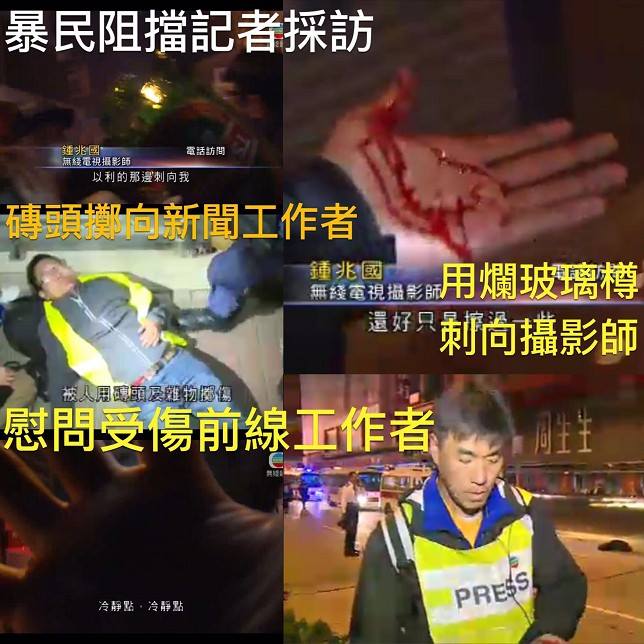
- RTHK
http://news.rthk.hk/rthk/ch/component/k2/1241170-20160209.htm?spTabChangeable=0
Our reporter was filming at Sai Yeung Hcoi Street when a young
demonstrator threw a brick at our reporter. Our reporter was not injured
but the recording equipment was damaged. Our reporter requested the
demonstrator to stay put, but he sped away. Our reporter fell down on the
ground during the confusion. Another group of demonstrators came forward
and demanded our reporter to produce the press card as well as identifying
the media organization. Afterwards they said that it was all a
misunderstanding. Meanwhile the demonstrator who threw the brick was long
gone.
- (SCMP)
Cable TV cameraman Cheng Hon-keung was recording the chaos on Tuesday
morning. In the midst of the action, he was hit by a flying brick on the
left side of his jaw. �I was already hiding in the corner, and it just
came flying towards me sideways,� he said outside Queen Elizabeth
Hospital. Cheng said he was wearing a helmet, and said protesters had also
warned him repeatedly not to film them.
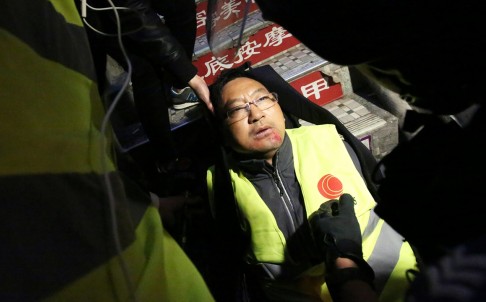
- (SCMP)
For journalists accustomed to covering protests, the atmosphere had never
felt more hostile. One group of cameramen and reporters was prevented from
taking videos of how various objects were set ablaze. My own attempt to
record how bricks were removed from the pavement was also met with an
intimidating warning.
- (SCMP)
The
Hong Kong Journalists Association expressed anger that �troublemakers�
had tried to block reporters and photographers from doing their job at the
scene. �There is no place in Hong Kong for the resolution of political or
other differences within our community through violence,� the association
said. �Least of all, wanton attacks on members of the media whose job is
to inform our people what exactly is happening on our streets and in our
community without fear or favour.�
The
Hong Kong
Press Photographers Association joined in the condemnation: �Different
viewpoints should be respected. We believe ideologies and opinions should
be expressed rationally instead of through violence.�
The
News Executives� Association urged police to thoroughly investigate
the riots and help �safeguard the core values of Hong Kong, including
freedom of the press and rule of law�.
TVB, condemning violence against its
journalists, reported that one of its cameramen was injured while trying
to fend off an attack by a masked man who tried to stab him with a broken
glass bottle.
RTHK also condemned the violence and said
one of its journalists had his recording equipment destroyed by a rioter.
A Cable TV cameraman was hit on the head
by a brick.
Chinese-language newspaper Ming Pao
issued a statement to express shock and regret after one of its
journalists was allegedly assaulted by police officers while covering the
riots. The newspaper said its reporter had been watching the events from
the upper deck of a bus stopped on Nathan Road when he was ordered by
police officers to get off the vehicle and produce his press pass. Even
though he complied, the reporter was �treated violently by officers at the
scene�, the newspaper complained, leaving him with hand and head injuries
that required stitches in hospital.
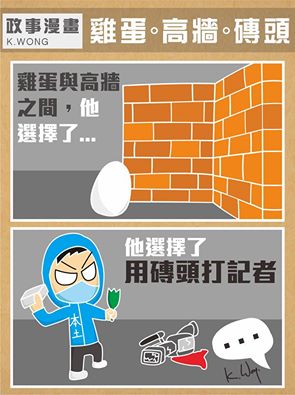
Between the egg and the tall brick wall,
he chose ...
to use the brick to hit the reporter
- Democratic Party legislator James To
Kun-sun said that the demonstrators were afraid of being filmed by the media
because they knew very well that what they were doing is illegal and/or
unacceptable.
- If they were really standing around and eating fishballs, why wouldn't
they not allowed the media to film them?
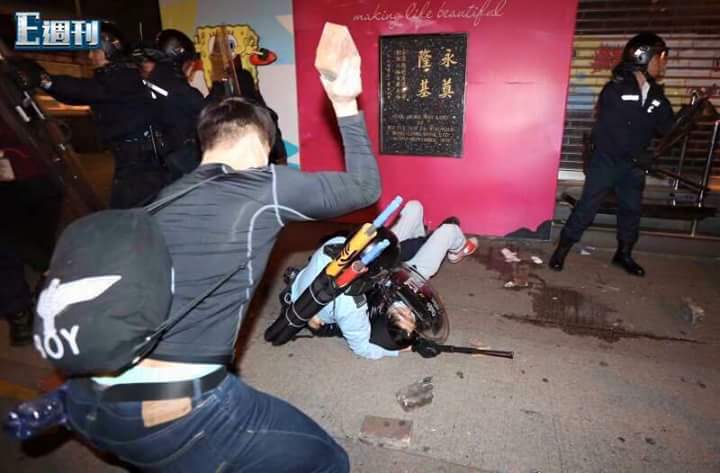
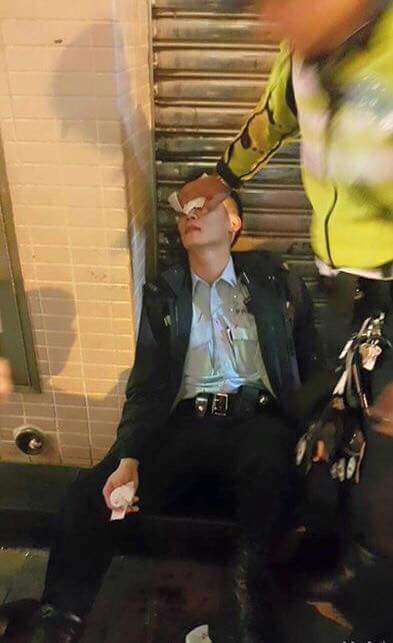
- What has this got to do with fishballs?
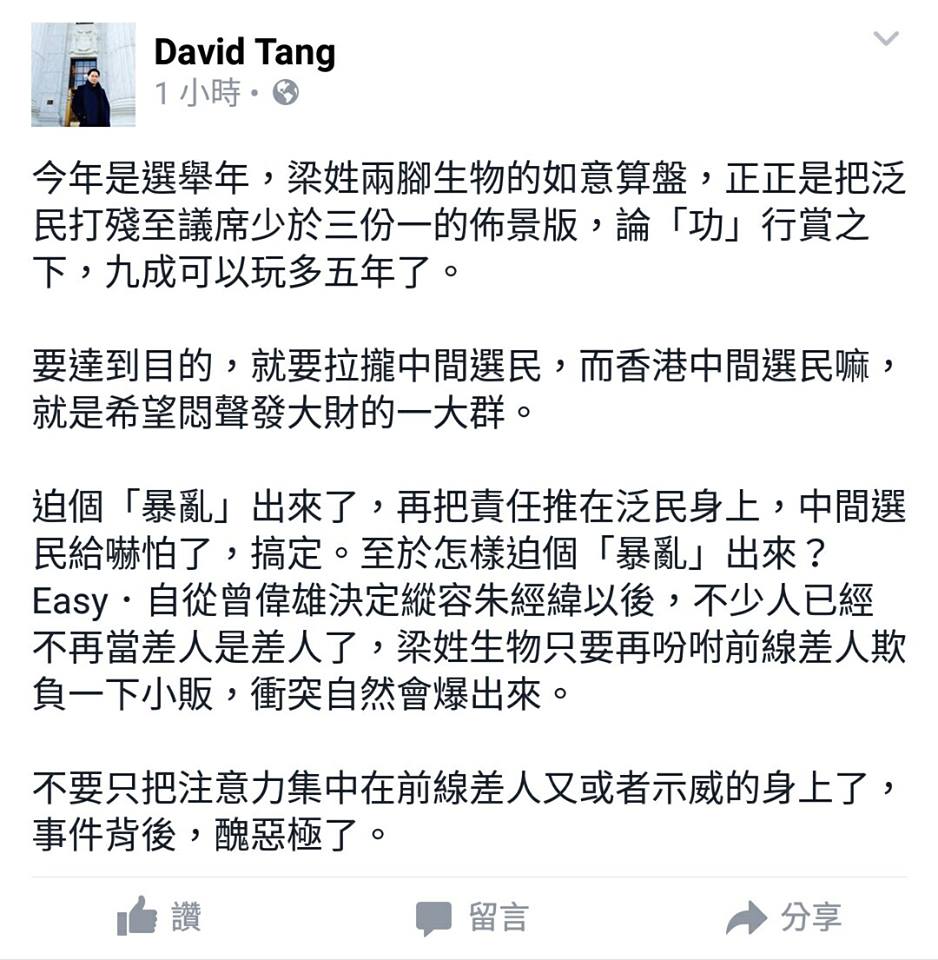
David Tang's Facebook
This is election year. CY Leung's ideal plan is to knock the pan-democrats
down to less than one-third of the Legislative Council. Afterwards he will
most likely be rewarded with another five-year term.
To achieve that goal, he will have to win over the middle-of-the-road
voters, who are the people that want to make a lot of money.
So he forces a 'riot' and places the blame on the pan-democrats. The
middle-of-the-road voters get scared and that is that. How does he force a
'riot'? Easy. Ever since Tsang Wai-hung decides to go lightly on Franklin
Chu, many people no longer consider cops as cops. Leung only has to order
the frontline policemen to bully the street hawkers and a clash will result
automatically.
So do not just pay attention to the frontline police officers or the
demonstrators. It is a whole lot uglier behind the scenes.
- In past years, CY Leung travels
overseas during the Lunar New Year period. This year he remained in Hong
Kong. This proves that something nefarious was afoot.
- Okay, if you are so smart as to be able to discern CY Leung's intentions,
why are you doing exactly what he wants? During Occupy Central, you say that CY
Leung was cynical to allow the occupation to continue until public opinion
swings completely to opposition, then why did you occupy for 79 days? If you
think that CY Leung wants a riot tonight, why did you oblige him by rioting?
- (Ming
Pao) Bloodshed in Mong Kok
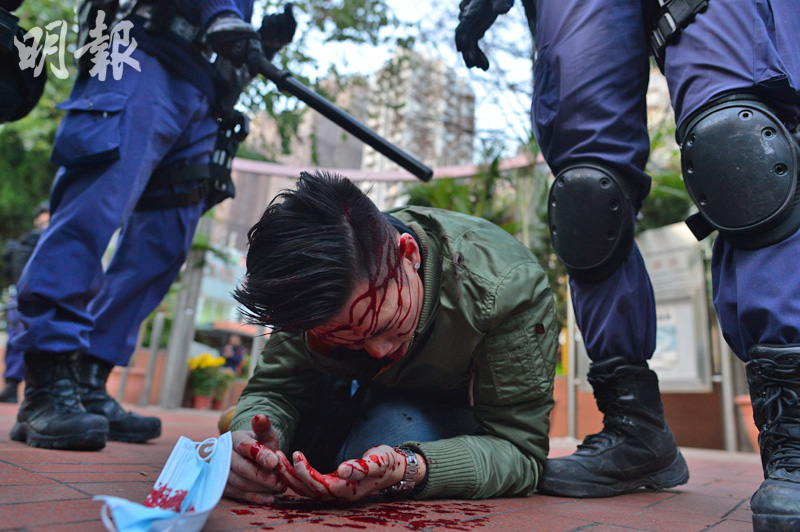
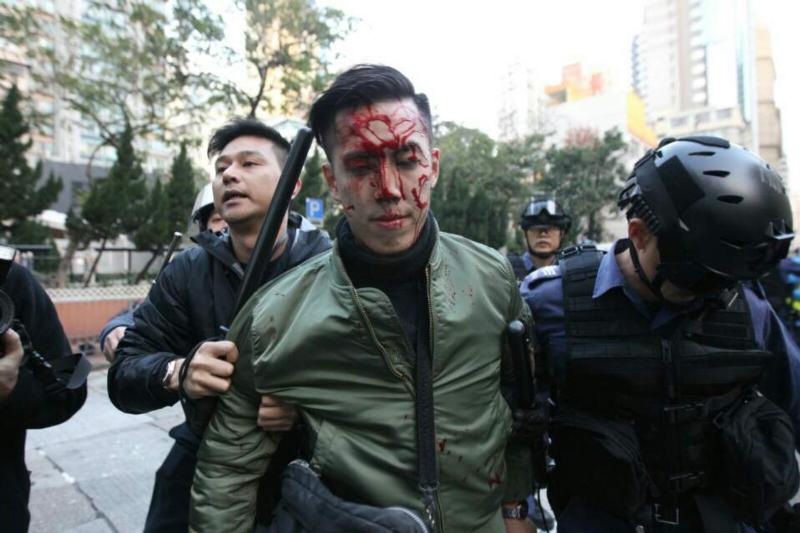

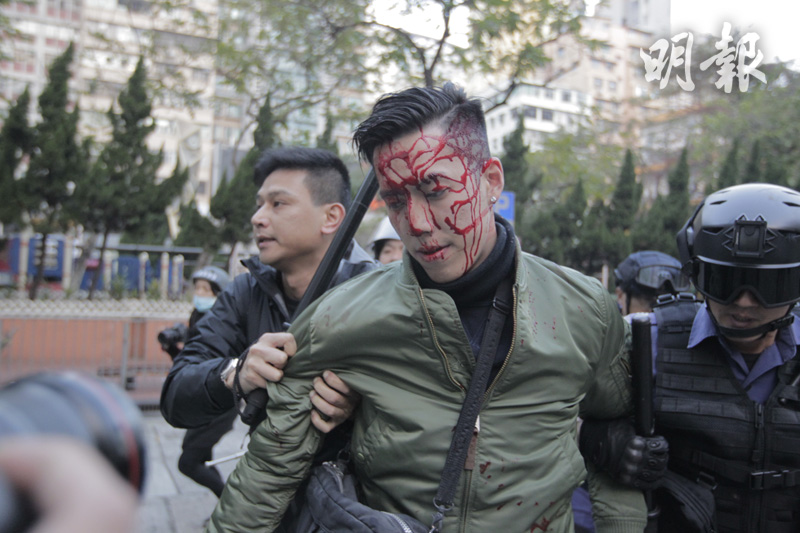
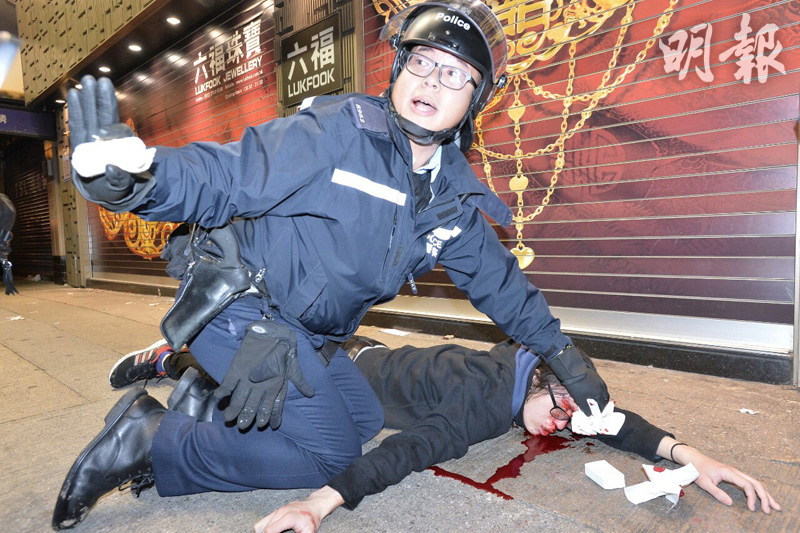
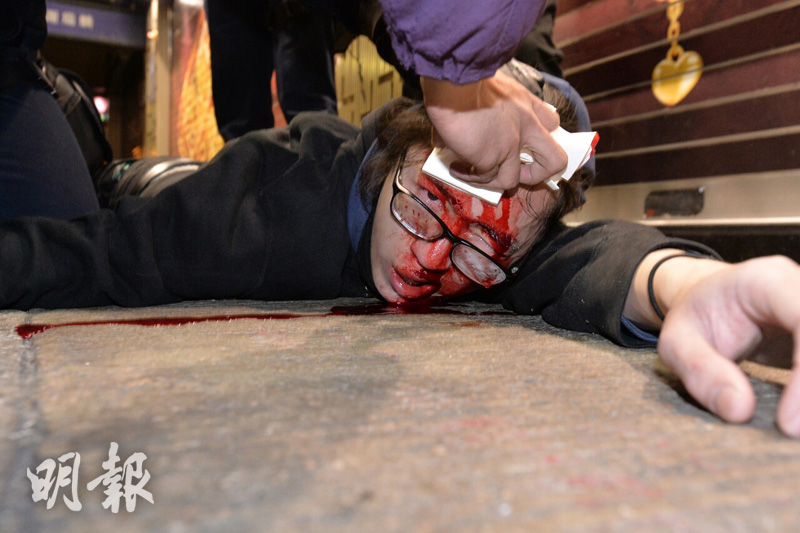
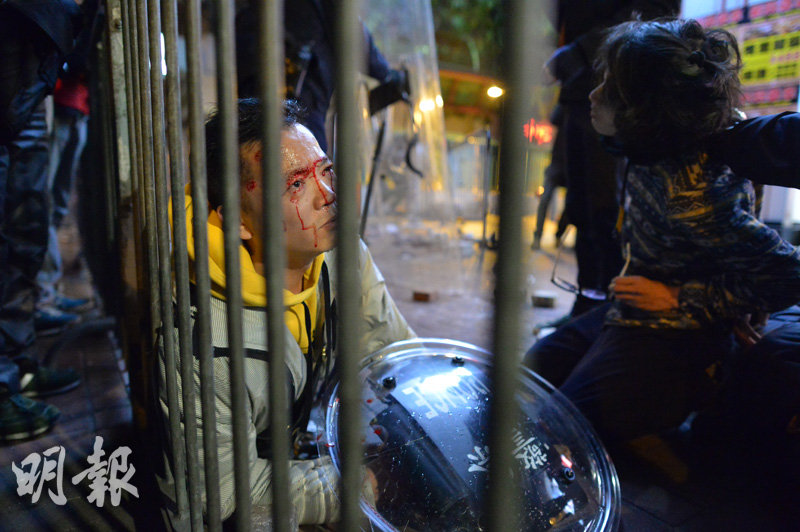
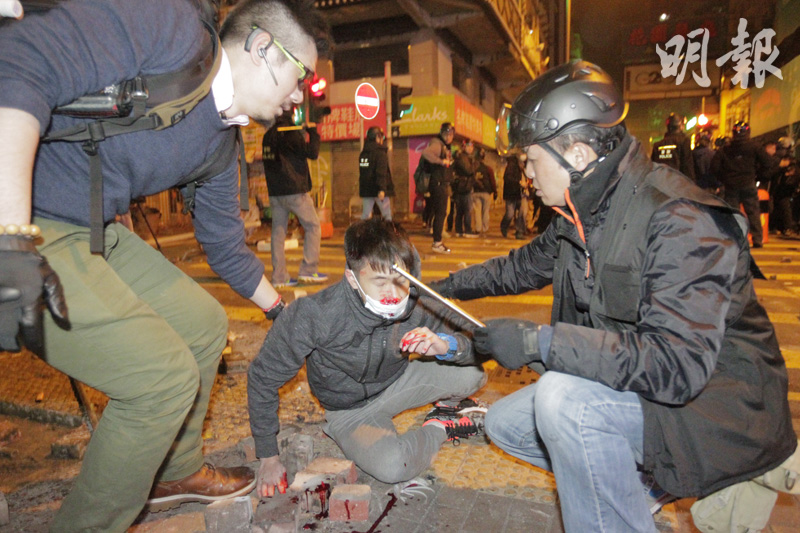
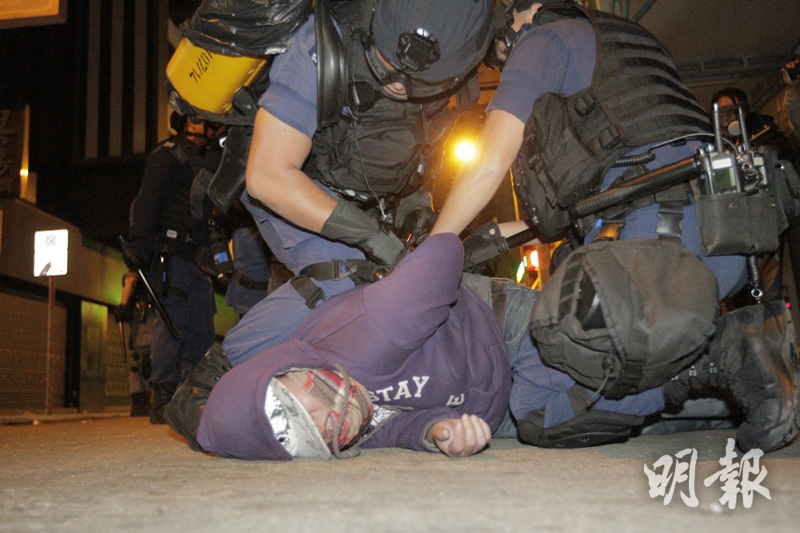
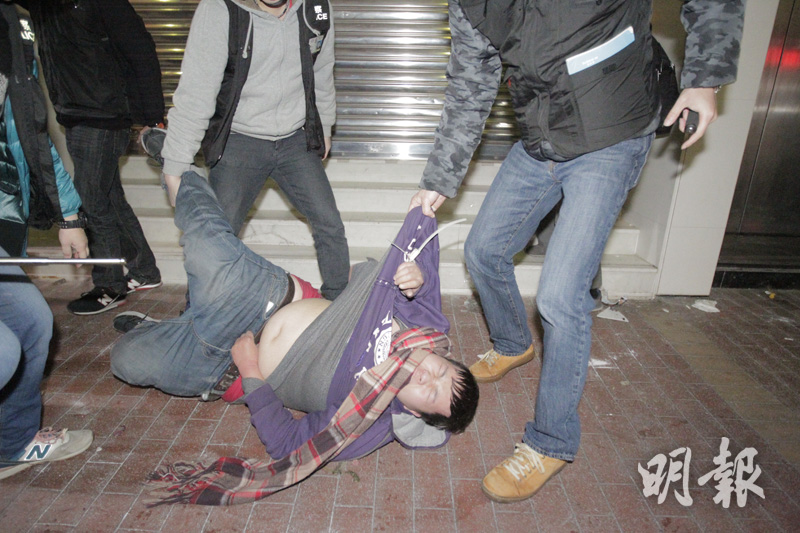
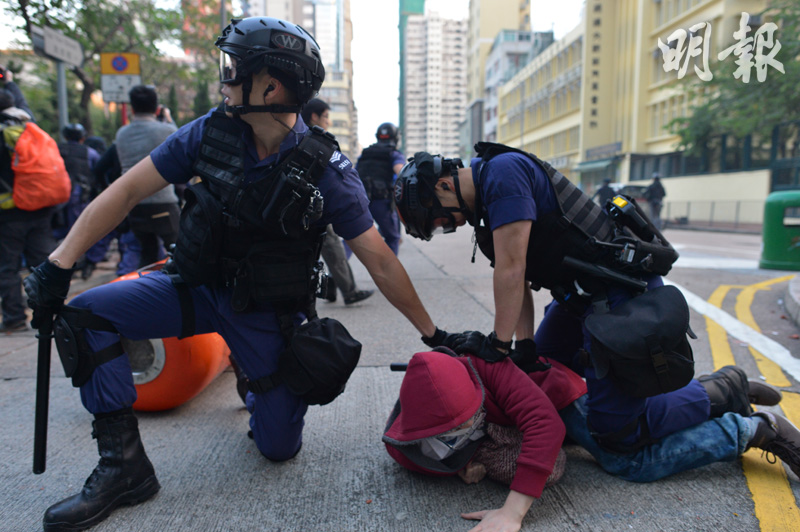
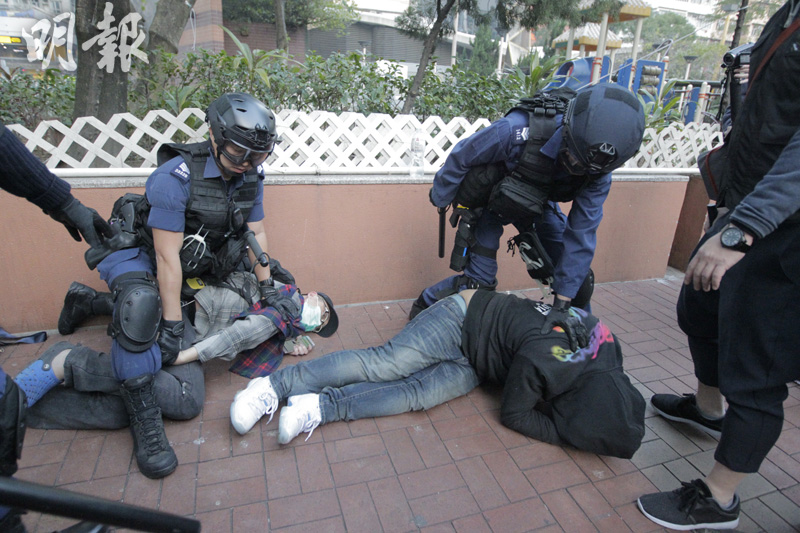
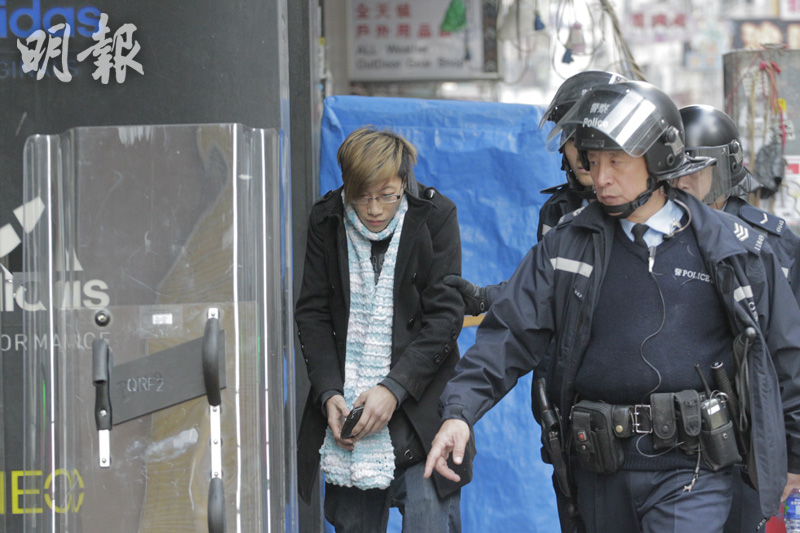
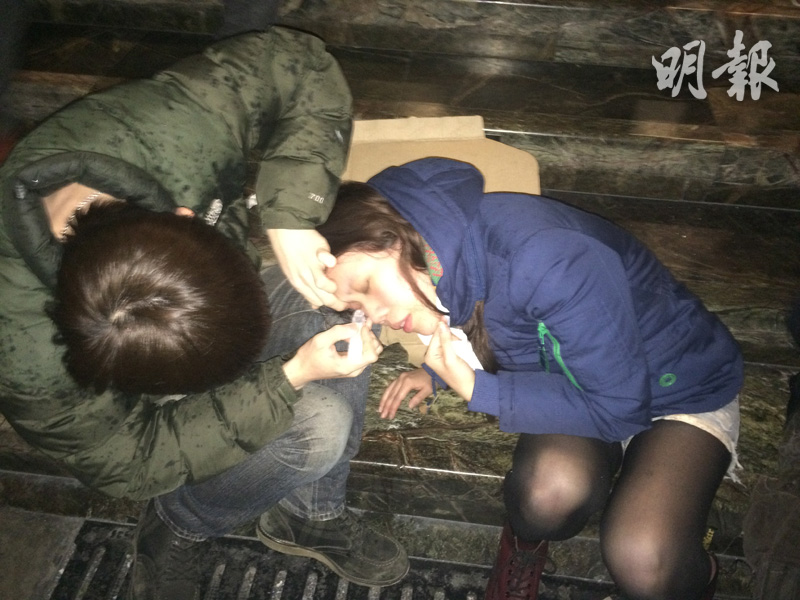
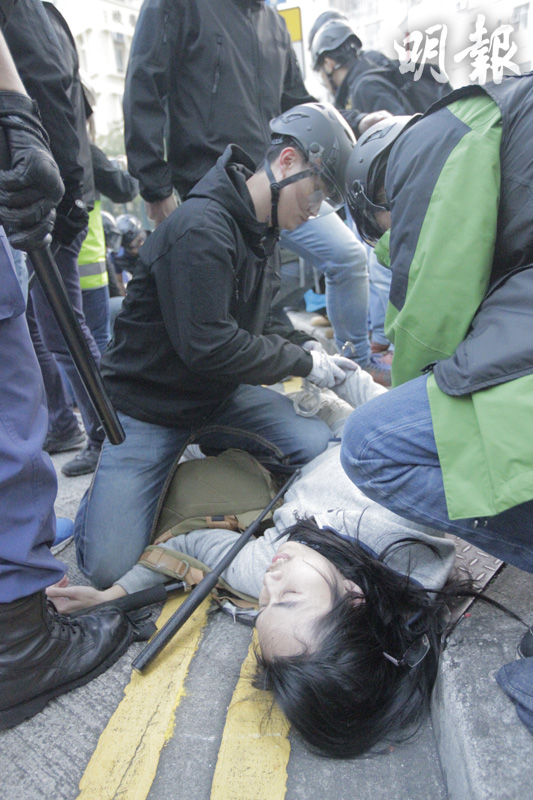
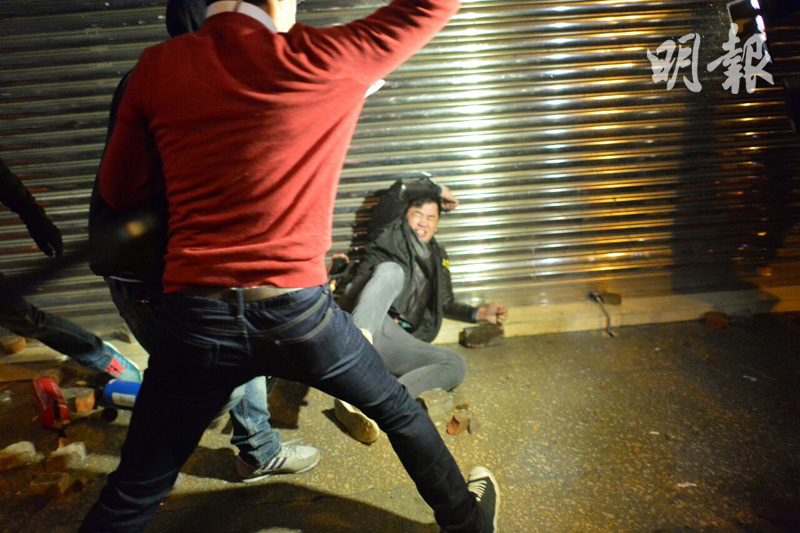
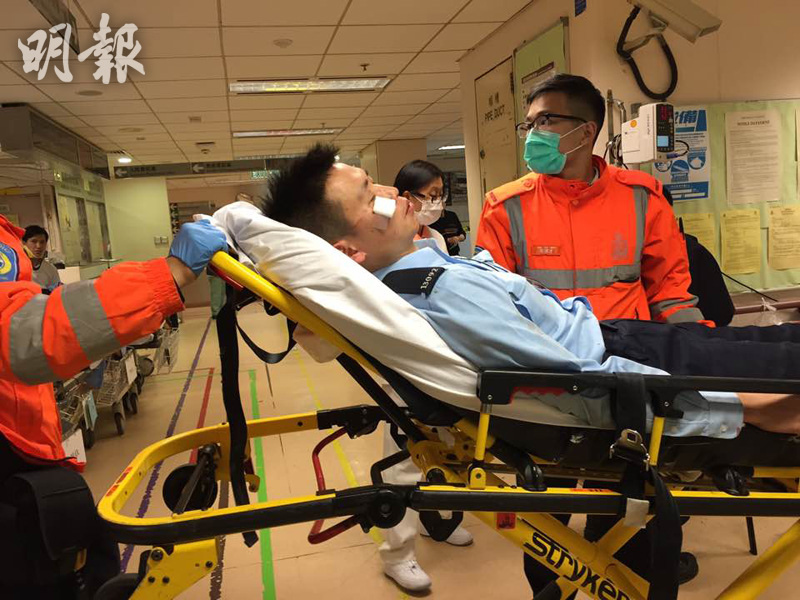
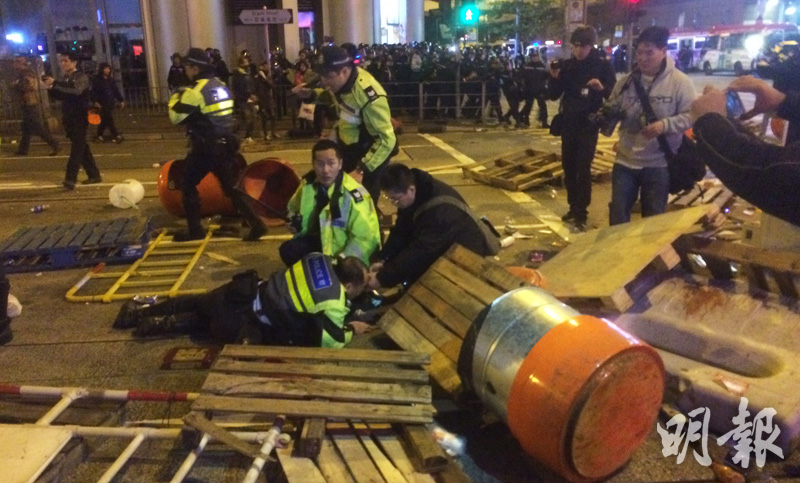
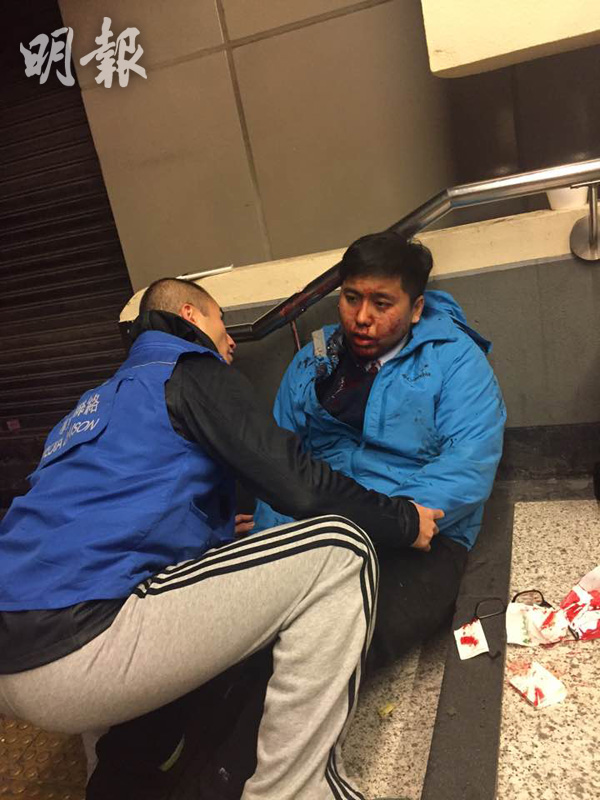
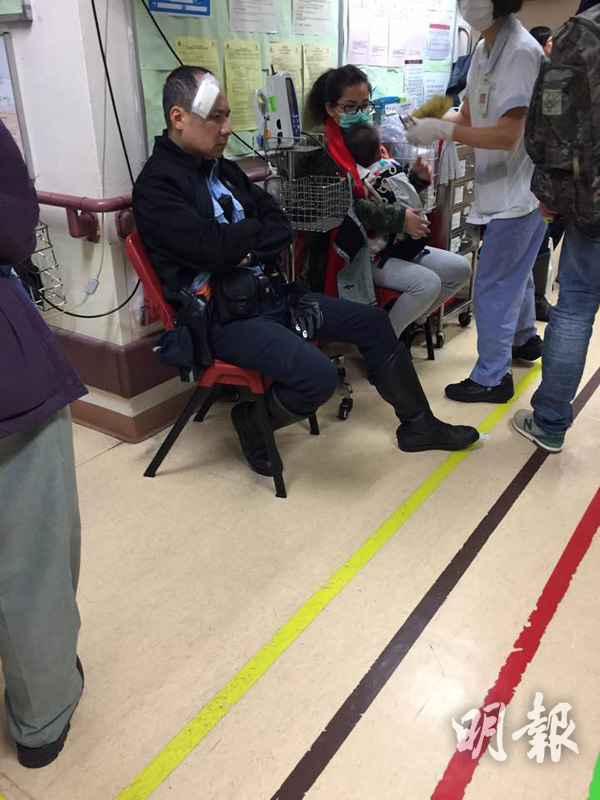
-
Cap 245 Public Order Ordinance
CAP 245 PUBLIC ORDER ORDINANCE s 18 Unlawful
assembly
(1) When 3 or more persons, assembled
together, conduct themselves in a disorderly, intimidating, insulting or
provocative manner intended or likely to cause any person reasonably to
fear that the persons so assembled will commit a breach of the peace, or
will by such conduct provoke other persons to commit a breach of the
peace, they are an unlawful assembly. (Amended 31 of 1970 s. 11)
(2) It is immaterial that the original assembly was lawful if being
assembled, they conduct themselves in such a manner as aforesaid.
(3) Any person who takes part in an assembly which is an unlawful assembly
by virtue of subsection (1) shall be guilty of the offence of unlawful
assembly and shall be liable- (Amended 31 of 1970 s. 11)
CAP 245 PUBLIC ORDER ORDINANCE s 19 Riot
(1) When any person taking part in an
assembly which is an unlawful assembly by virtue of Section 18(1) commits
a breach of the peace, the assembly is a riot and the persons assembled
are riotously assembled. (Amended 31 of 1970 s. 12)
(2) Any person who takes part in a riot shall be guilty of the offence of
riot and shall be liable-
So what is this? An unlawful assembly? Or a
riot?
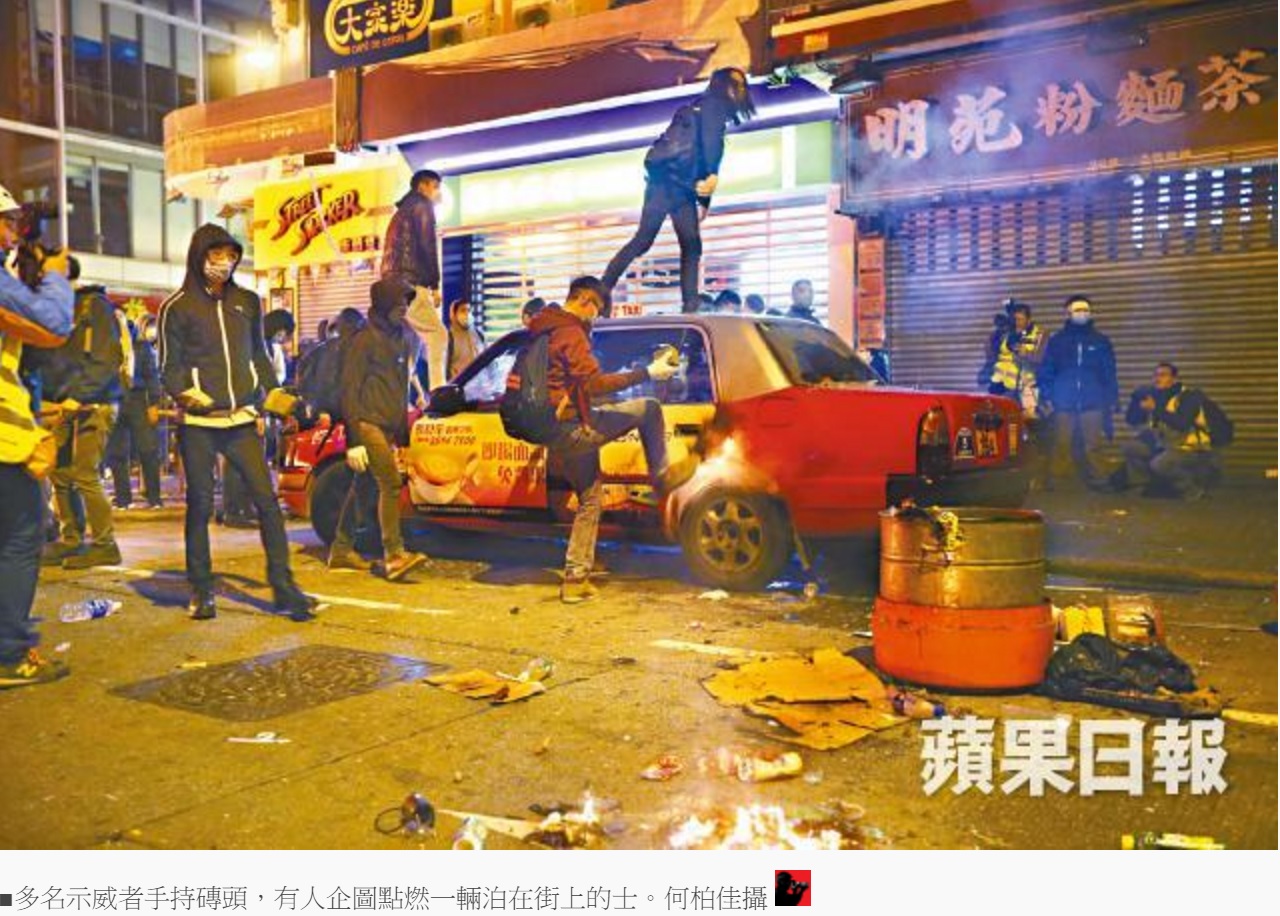
(Apple
Daily with video) "Masked citizens" tried to set fire to the
gas tank of a parked taxi. The taxi runs on LPG. A sudden explosion would
have killed/injured many of those nearby and upstairs (see, for example,
https://www.youtube.com/watch?v=5uvXtlxzZTg ). They did it because
they want to protect the fish balls or something.
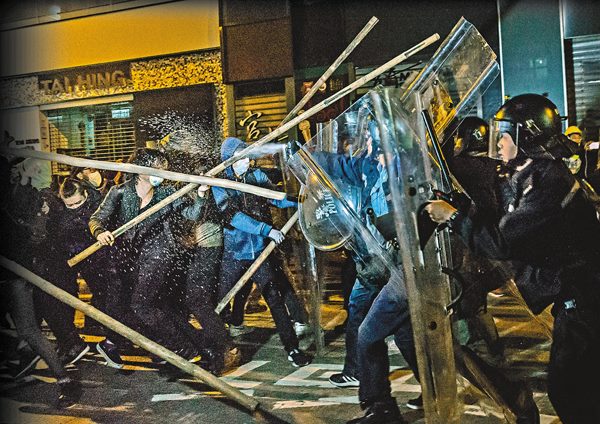
Armed police attack citizens who only wanted
to eat fish balls on bamboo skewers

A take-home order of skewered bus stop
- (Cable
TV) The police arrested two more men in connection with the Lunar
New Year riot in Mong Kok. One of them is Scholarism member Derek Lam
Shun-hin. He was arrested at the Hong Kong International Airport. According
to Scholarism, Lam was scheduled to depart with his family to spend 7 days
in Taipei. Lam was taken by Customs agent as he attempted to pass
immigration control. Lam told other Scholarism members that he arrived in Mong
Kok to patronize the vendors at 10pm and left around 2:15am. He did not
attack any police or engage in any violent acts.
- (Apple
Daily with video) Mr. Lam is filmed eating fish balls
standing in the frontline confronting the police on Portland Street.
- Who is this fishball-eating man? Scholarism's Joshua Wong says it wasn't
him.
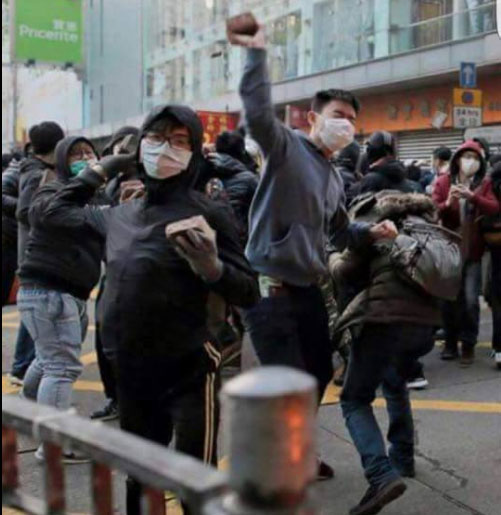
- How many fish balls can Lam eat in four hours and fifteen minutes?
- But Derek Lam is one big fat slob so you shouldn't underestimate his
ability to eat.
- A Scholarism spokesperson quoted Lam�s lawyer as saying that Lam would be
charged with �taking part in a riot� under Section 19 of the Public Order
Ordinance. The offence carries a maximum jail term of 10 years.
- There is contradictory information on the
performance of the Hong Kong Police. On one hand, it was thought that they
were ill-prepared on this night. At first, they didn't have enough numbers
on Portland Street. Then a bunch of ill-equipped traffic cops were left to
face the mob on Argyle Street, eventually leading to the two gunshots into
the air. So that was bad. On the other hand, they apparently have full
dossiers on who was doing what. And at least a dozen of the arrests came the
next day all over the Hong Kong, when the police knew exactly who was
involved and where to find them (e.g. Andy "Captain" Yung).
- (SCMP)
�The force did not see it coming to be
honest, or at least not that violent and irrepressible. They thought it
would be like the so-called gau wu
[shopping tour] protests staged in Mong Kok every night,� a police source
close to the matter told the Post.
Widely circulated video footage shows a
group of traffic police officers outnumbered and struggling to cope with a
large group of rioters, which resulted in an officer firing two live
rounds into the air.
The source close to the situation said
force manpower was at its �weakest point� on Monday due to the Lunar New
Year holiday, while a large number of officers were deployed to the Lunar
New Year parade in Tsim Sha Tsui the following night. �There were simply
not enough people working. The unit had to call up people when the protest
became aggressive,� the source said. �The traffic fellows were there to
clear the hawkers and carts in the first place. Who would have expected
what happened next?�
Police Commissioner Stephen Lo Wai-chung
has rejected accusations that the force underestimated the gravity of the
situation. He said the riot became violent each time more officers were
deployed to the scene, but admitted that it took time for officers to move
from one district to another.
It is understood that Emergency Unit and
Police Tactical Unit teams were sent to the scene a significant time after
trouble flared. The Special Tactical Squad, used to suppress large-scale
civil disturbances and riots, arrived in Mong Kok only at around 6am on
Tuesday � eight hours after the chaos broke out. �It took time to gather
50 members scattered in different districts, gear up in Fanling
headquarters and head to Mong Kok,� the source said.

Video:
https://www.facebook.com/on8channel/videos/1036336846407970/
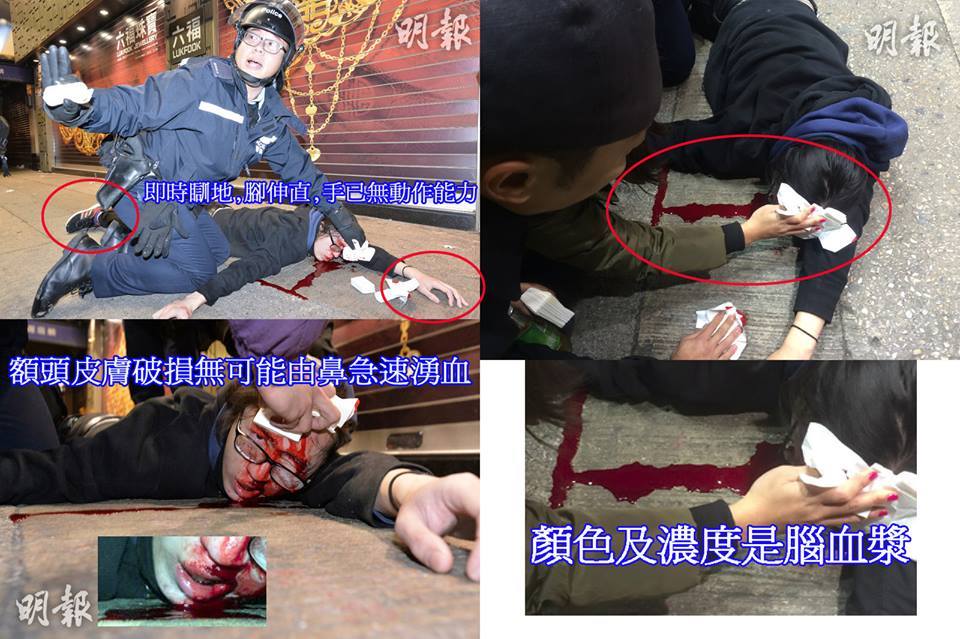
Internet emergency room amateurs determine
that the woman must be more dead than dead based upon the lack of movement
in the lower limb and hands, blood flowing from the nose but not the mouth, the
color/density of the blood showing that it is emanating from the skull ...
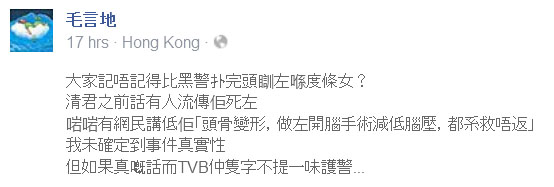
Do you remember the woman who was
clubbed in the head by the Evil Police and left lying on the ground.
Someone said that the word was that she died.
Just then an Internet user said that "her skull was crushed, and she
couldn't be saved in spite of open-skull surgery to relieve the pressure."
I can't confirm the veracity of this
But if this is true and TVB refuses to mention a single word in order to
protect the police ...
All it takes is for us to find out the name
of the first martyr of the Fishball Revolution. He will be our own
Mohamed Bouazizi.
(Hong
Kong Free Press) February 10, 2016.
The sister of an arrested protester has
rebutted rumours that her brother died at a hospital intensive care unit,
after a picture of him covered in blood was widely shared online.
Violent clashes between police and
protesters angered over the government�s clearing of street hawkers broke
out on Monday night. As of Wednesday, 63 have been arrested.
Based on the photo from local newspapers
Apple Daily and Ming Pao, it was widely rumoured online that a female
protester had been hospitalised after allegedly being beaten by police and
losing consciousness. Further rumours suggested the female protester died
in hospital.
The protester is in fact a male. His
elder sister, whose name on social media is Din Meimei Chan, told HKFP
that the rumours were baseless.
�I saw him between 10am and 12pm on
Tuesday at the emergency room of Kwong Wah Hospital,� Chan said. �He was
in stable condition, he was standing on his feet, he can talk and move
normally.
Chan said she found out her brother was
arrested when she saw the photo online. She was not notified by anybody
including the police, hence she went to a police station to ask for more
information. On Wednesday afternoon, she was unable to ascertain whether
her brother was still in hospital or at a police station.
�I could meet him but the police did not
allow me to talk to him � they did not allow him to talk to me either,�
she said. She added that he was still detained and a lawyer was following
up on the case. But she did not have any information as to who the lawyer
was and how the lawyer was assigned to him. �The police did not allow me
to ask for the lawyer�s information, and I still couldn�t contact the
police to provide information,� Chan said. �I hope people don�t spread the
rumours anymore.�
- (TVB)
Around 2am, TVB filmed a number of individuals opening a bottle of reddish
fluid to apply to paper napkins. When they spotted the television camera,
they immediately blocked filming. What was going on? They were going to
apply the fluid on their heads and pretended to have been assaulted by the
police.

- Not necessarily true, because splashing red paint is a tried-and-true
method of intimidation by triads (see, for example,
Coconuts Hong Kong).
- Not necessarily true, because this is a jar of spicy fermented bean paste,
which can really burn the eyes.
- Not necessarily true, because fishballs are often consumed with a hearty
dose of hot bean paste.
- (SCMP)
February 9, 2016.
Candidates standing in a Legislative
Council by-election this month against Edward Leung Tin-kei, one of the
alleged rioters arrested by police in Mong Kok, have spoken out on Monday
night�s chaos and allegations that the group Leung hails from, Hong Kong
Indigenous, was behind the violence.
The by-election, triggered by the
resignation last year of Ronny Tong Ka-wah of the Civic Party from his
Legco seat for New Territories East, will take place on February 28 with
seven candidates including Leung vying for a win.
Writing on his Facebook page, barrister
and Civic Party candidate Alvin Yeung Ngok-kiu yesterday slammed police
for using excessive force against the street hawkers and protesters at the
scene. �The hawkers were only trying to make a bit more money during the
Lunar New Year period ... Why did they have to be stamped out?� Yeung
wrote. �Many innocent residents were injured by the police. Police also
opened fire illegally ... These things are not acceptable under the rule
of law.� He also said he �disagreed� with the actions of the protesters
including their beating of police officers and attacks on journalists.
Holden Chow Ho-ding, vice-chairman of the
Democratic Alliance for the Betterment and Progress of Hong Kong, said he
was �saddened� by the incident. �Such a level of violence is unprecedented
in Hong Kong ... It�s outrageous that the mob used bricks and rubbish bins
to attack the police,� Chow said. �Leung advocates this kind of method ...
so now the public can see what consequences it will lead to.� Chow,
however, declined to comment on how Leung�s arrest might affect the
by-election, only saying it was more important at this stage to show
concern for police officers and journalists injured.
Another candidate, social worker Nelson
Wong Sing-chi, of Third Side, described the riot as �scary�. �I think some
young people were being controlled ... They should come out and apologise,�
he said. Wong believed it was unlikely Leung would withdraw from the
by-election because he had not been convicted of any crime, but said Hong
Kong Indigenous owed the public an explanation. �They need to tell the
public whether or not they want to destroy Hong Kong�s core values,� Wong
said.
Independent candidate Albert Leung Sze-ho
said that in his previous meetings with Leung, a student at the University
of Hong Kong, he had seemed like �a sensible person� and not a �rioter�.
�I�m not sure how much control Leung had over the situation ... If he
incited the violence, then it�s definitely wrong ... But if the other
protesters took advantage of the situation, then I would feel sorry for
him.�
Sai Kung district councillor Christine
Fong Kwok-shan, who will be running as an independent candidate, said on
Facebook yesterday that �anyone would feel unhappy� about such a conflict
playing out on the streets during the Lunar New Year holiday, and that the
government had to confront the atmosphere of polarisation in the
community. �Residents just wanted to try nostalgic snacks. It�s been fine
all these years. Why were the police so tense and used pepper spray, and
even pulled out a gun? There must be a cause for this incident,� she
wrote. �It�s clear from the camera lens how the young generation are
dissatisfied with society.�
Another independent candidate, Lau Chi-shing,
could not be reached for comment.
- Alvin Yeung (Civic Party) was spotted
down at the Mong Kok police station. He said that he was providing free
legal counsel to a friend. He had better be careful. This is the election
campaign period. Giving something away for free may be construed as
vote-buying. P.S. Hong Kong barristers are not allowed to solicit business
for themselves.
- Why are Hongkongers still interested in
the Tiananmen Square incident after 26 years? Because there is still plenty
of money to milk from it.
Why did Hong Kong Indigenous turn this non-issue into a full-scale riot?
Because they expect to make plenty of money from it. Here is their call for
donations:
This is the announcement from Hong Kong
Indigenous.
"As the numbers of arrests are still
increasing, we decide to accept donation from the public. Please be noted
that all of the donation from you will be used to the arrests ONLY, and
for the remaining donation, if any it is, will be assisted to anyone who
is arrested in the future.
There is one thing we want to make it
straight. Our members will provide assistance to anyone who ask for! Your
generosity is deeply appreciated!"
If and when you ask them for accounting
where your donations went, it will go the same way as the Occupy Central
with Love and Peace's audited financial statement.
- Ray Wong (Hong Kong Indigenous) is in
hiding at this time. His colleague Edward Leung is under arrest. There is a
new spokesperson at Hong Kong Indigenous but she is not speaking. At
Oriental Daily, there is a transcription of an audio recording
from the fugitive Ray Wong. The key message is 「寧為玉碎、不作瓦全。」meaning
that he would rather be a broken piece of jade and than an intact piece of
tile.
Wong mumbles through a lot of sloganeering
but you still don't know the what or why of the riot on February 8th. He said
that on that night, 2016, "we started the action to defend the night
market." Neither the police nor the Food and Environmental Hygiene
Department inspectors were bothering the street hawkers that night, so this
was a non-issue. All hell broke loose after midnight when Hong Kong
Indigenous announced that they will hold an election parade for their Legco
candidate Edward Leung and then they charged the police line. When the fires
were set off around 4am, the street hawkers had finished their business
and gone home already.
Wong said: "Many things happened that
night. Perhaps many demonstrators, resisters and our members will be
arrested on account of their actions that night. But we hope that everybody
can remember that we did not stop on February 8, 2015 (Restore Tuen Mun) in
spite of popular opinion and government oppression. We persisted with the
Recover movement and eventually brought about change. In 2016, we will be
facing even more severe problems. There will be more issues that require
resistance in the streets. But I hope that the people of Hong Kong can
persevere. As long as we believe that everybody's strength together can
bring change, Hong Kong will surely be able to change. Finally I leave eight
words for the people of Hong Kong. I hope that everybody can believe and
persevere.「寧為玉碎、不作瓦全。」"
So what should we believe in? What must we
insist on? What are we going to demand? When do we know that we have
succeeded? What were the issues on February 8th 2016? What are the issues
that will be coming up? Are we going to keep fighting for the unlicensed
street hawkers even as they repudiate the action? Or is the change about
electing Edward Leung? This has been a blank. We still don't know what it
was for.
- The broken jade pieces are the 30+ plus
arrestees. The intact tile is the fugitive Ray Wong.
- When all your co-conspirators have been arrested but you are left alone,
there is only one explanation: you are a police undercover agent/informant.
- This audio recording is said to be the Last Words of Ray Wong. Does that
mean that he is going to kill himself if cornered by the police? If so, the method is to hit himself
with a brick on the head, because Ray Wong has said that it is not very
violent.
- Given that Derek Lam (Scholarism) was stopped at the Hong Kong
International Airport, the same will happen to Ray Wong if he tries to leave
by any regular channel.
- Given that Ray Wong was born and grew up in Weizhou city, Guangdong
province, he will probably flee to hometown using his own method (e.g.
taking the shampoo speedboat).
- Ray Wong has been disappeared just like Lee Bo.
- Anyone who spots Ray Wong in the street can throw bricks at him, because
he says that it is not very radical action according to international norms.
- The reason why Ray Wong couldn't give the what's and why's is that he
knows that someone somewhere will say that they don't agree. If he says that
the action is limited to defending the street hawkers and/or campaigning for
Edward Leung, someone will say "Who the fuck is Edward Leung?" and that they
want CY Leung gone. If he says that the goal is to force CY Leung to resign,
someone will say that they want an independent Hong Kong City-State. If he
says that the goal is to establish an independent Hong Kong City-State,
someone will say that they want the Chinese Communist Party to fall. The
essence of this so-called movement is that nobody represents anyone on
anything.
- When Ray Wong wrote 「寧為玉碎、不作瓦全。」,
he never imagined that people would take the broken jade 玉碎
and turn into a new nickname of him with the homonym
肉碎
(meaning minced meat). Welcome, Brother Minced Meat!
- Days after Hong Kong Indigenous said that a large number of policemen are
amassed outside Ray Wong's apartment at Choy Wing Court, Choi Ming Estate,
Tseung Kwan O district ready to make the arrest and after Ray Wong's final
message to the people of Hong Kong, nothing has transpired. This is not the
most exciting show in town to wait for the meat to be minced. P.S.
Oriental Daily reports that it is true that a large number of
reporters were amassed outside Ray Wong's apartment waiting for something to
happen.
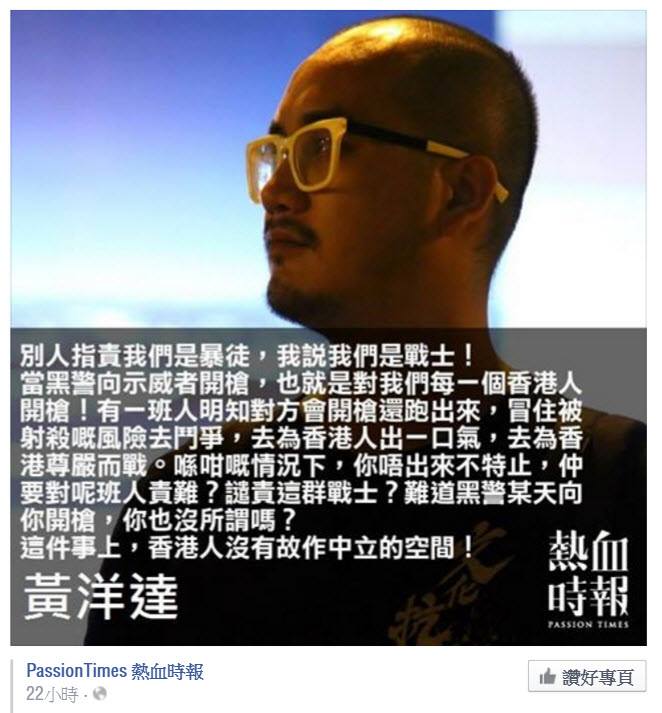
Passion Times
Some people accuse us of being rioters, I say that we are warriors!
When the Evil Police opened fired on the demonstrators, they are shooting at
every Hongkonger!
When a group people know that the other side will open fire but still come
out to fight in spite of the danger of being shot, in order to fight for the
dignity of Hong Kong.
Under such circumstances, you won't come out and you even deplore these
people? Condemn these people? If the Evil Police shoot at you one day, you
won't care?
On this issue, the people of Hong Kong are in no position to stay neutral!
Wong Yeung Tat
- (SCMP)
A Civic Party member, barrister Alvin Yeung Ngok-kiu, condemned police for
using excessive force against the hawkers and protesters. �Many innocent
residents were injured by the police,� he wrote on Facebook. �Police also
opened fire illegally ... These things are not acceptable under the rule of
law.� Um, just exactly how many innocent bystanders were harmed by police? Yeung wouldn�t know the rule of law if it stared him in the face. When thugs
beat up police and then their defenders criticise officers for doing their
job, that�s how you undermine respect for the law.
- (SCMP)
Let�s get a couple of things straight: Mong Kok is not Tahrir Square and the
�fishball revolution� is no Arab spring or anything of that sort. This is
Hong Kong. You can make all the clever-sounding, pseudo-revolutionary
analogies you like and romanticise your developmentally disabled distortion
of reality, but what happened in the heart of Kowloon�s retail hub on Monday
night was a shocking disgrace. It began with a poorly timed government
crackdown on illegal � but harmless � hawkers trying to make an extra buck
at the start of the Lunar New Year holiday selling fishballs and other
snacks. A bunch of youngsters spontaneously took up the hawkers� cause as
self-appointed guardians of public justice at the scene.
... Even at this point, commentators still
won't deal with the facts. At the time, there were Food and Environmental
Hygiene Department inspectors on patrol duties. They did not issue tickets
or even warnings to the unlicensed cooked food vendors. As soon as they got
there, they were surrounded by 50 people, cursed out and pushed around. An
inspector got hurt. Next the "citizens" rammed two of the vendor trolleys at
the inspectors. Because of the violence and because the trolleys contained
fire stoves and boiling oil which are dangerous in a public area, the
inspectors called the police at around 9:40pm. Furthermore, throughout the
rest of the evening as the riot escalated along Sai Yeung Choi Street, the
unlicensed street vendors on Portland Street were unaware and continued to
conduct business (see
https://www.facebook.com/HongKongGoodNews/videos/1029377053802897/).
- (Ming
Pao) Do not be superstitious about the effectiveness of violence. By
Tsang Chi-ho. February 12, 2016.
The Dark Night of Mong Kok has created
divisions in the Yellow Ribbon camp after the Umbrella Movement. Ironically
this is consolidating or even enhancing Blue Ribbon power.
Many of those who have participated in the
Umbrella Movement, including myself, are hesitant as we stand before the
Dark Night of Mong Kok.
I really cannot agree that setting off
fires, throwing bricks, assaulting police officers and harming reporters are
reasonable ways of demonstration.
We cannot accept that the baton on the head
is an extension of the arm, or that pepper spray is minimal force. In like
manner, no normal person can accept the explanation that "throwing bricks is
not very violent."
We press on with the case of the seven
policemen beating a demonstrator on the ground. In like manner, when the
wounded policeman on the ground is surrounded and beaten such that even the
television cameraman interceded to protect the policeman, are we going to
hold double standards and approve such violent action?
If the "reason" for assaulting the police
was that the Evil Police attacked the citizens first, then what is the
"reason" for assaulting the reporters?
It seems that someone does not want the
media to record the evidence of the thugs committing violence. Now this is
shameful and despicable.
During the Umbrella Movement, many
demonstrators who were mischarged by the police were able to clear
themselves based upon the videos taken by the media. The media record the
facts faithfully. The rights and wrongs will be determined by others.
Attacking the reporters is like murdering the historians. What is the
difference with the police assaulting reporters who have identified
themselves as such?
If they think that certain media
organizations are pro-government and therefore it is reasonable to attack
their reporters, then does that mean that the pro-establishment camp is also
justified to attack what they think are anti-government media?
Regrettably, none of the friends who
support the demonstrators have bothered to condemn the thugs who attacked
the reporters. Does justice apply differently for friends versus foes?
If you object to a violent demonstration,
you will be called a Hong Kong Pig and labeled as "the conservative older
generation."
Just because "Peace, Reason, Non-violence
and No Foul Language" is ineffective does not mean that violent
demonstrations will succeed. The Arab Spring used violence to overturn the
governments, but the fruits of democracy have yet to be seen.
When one opposes violence to replace
violence, one is actually protecting the demonstrators. The people cannot
match the police in terms of force. When both sides escalate, the citizens
will surely shed more blood.
Whoever believes that violence is
effective, are they the naive "Hong Kong Pigs"?
- (SCMP)
A message to Hong Kong�s youth: don�t drag the rest of us down with your
violent hatred. By Alex Lo. February 13, 2016.
Should one feel sympathy for the
youngsters who caused the worst riot in Hong Kong since 1967? Many people
apparently think so. Personally, I find it hard to.
How do you empathise with people who
wantonly destroyed property, beat up other human beings and turned an
entire district into a battlefield with police? Well, they are young and
angry, some say.
So why are they angry? Basically, all the
political problems and social and economic ills from which Hong Kong is
suffering have been offered as an excuse for their violence.
First, it was the fault of the police and
hygiene officers� crackdown on illegal hawkers, so the rioters were only
fighting for the downtrodden. It turned out there was no crackdown as the
officers were quickly surrounded and beaten up by localist rioters before
they could ticket or charge any hawker.
So this clearly could not justify causing
a mass riot. Other reasons are then being trotted out. It�s our housing
problem, it�s our extreme wealth gap, it�s our education problem, it�s our
lack of democracy, it�s our inadequate health care, it�s the lack of job
opportunities for your people, it�s Leung Chun-ying and his unresponsive
government, it�s Beijing... Or the fit-for-all-purpose excuse: Our kids
are being marginalised and ignored.
There you have it. That�s why young
people went berserk in the streets of Mong Kok. Or are they rather excuses
to be used retrospectively to justify their crime? In truth, such societal
problems can be used for any purpose and to justify anything � in this
case, the crime of riot. I just love those people who congratulate
themselves on being so deep, insightful and sympathetic while adding they
are not trying to justify the violence and criminality of our youngsters.
Of course they are trying to justify or explain away their behaviour, so
at least have the guts to say so.
No one has yet mentioned the bad air in
Mong Kok and the lead in public estates� water supplies. But I might be
upset and angry too if I lived in a Mong Kok public housing estate with
water supplies contaminated by lead. Maybe such residents should start a
riot!
Many people in Hong Kong hate Leung, the
government and Beijing so much that any means to destroy or discredit
them, however violent, are seen as justified. They may think they are
fighting evil. But in their hatred, they are dragging the rest of us into
the abyss with them.
- (TVB)
From the Fire Department: "Certain demonstrators blocked our vehicles on
Nathan Road. They used bricks to obstruct the wheels so that our vehicles
could not proceed. They kept throwing bricks and rubbish at us, such that
our fire fighters were seriously impeded. Apart from setting rubbish on
fire, they also used certain accelerants (which we believe to be kerosene)
so that we had to use foam chemicals to put out the fires. There was one
fire which reached as much as 10 meters high with the smoke reaching 20
meters high. Someone set fire to a taxi which runs on liquid gas. A taxi
contains 95 liters of liquid gas. An explosion would affect everything
within a diameter of 22 meters, causing injuries to many innocent
citizens."
- Baptist University Students Union on
the battle of Mong Kok: "When the people are unafraid of dying, they
cannot be threatened with death."
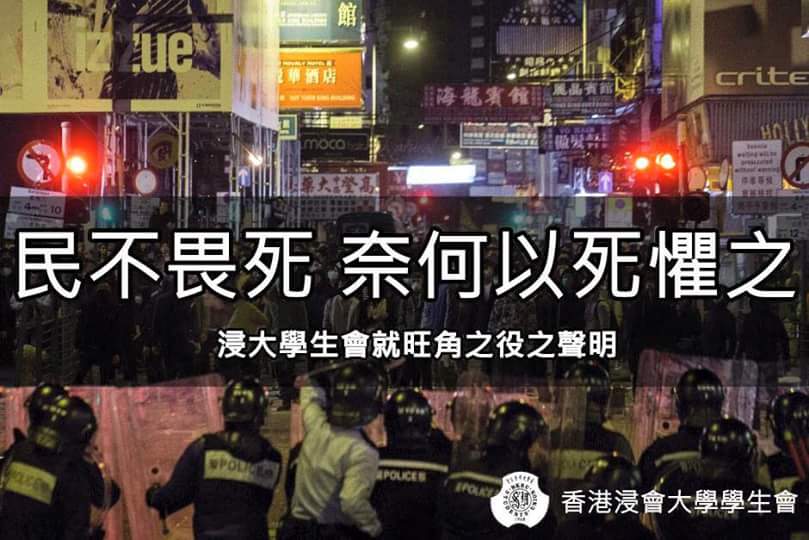
- Comment: If the people are so unafraid, then why are they wearing masks?
What are they afraid of? Is being recognized a fate worse than death?
- (YouTube)
Hong Kong Localist Power's C.K. Ho discusses the Mong Kok riot:
... As for what happened that night, my
first instinct was that those people in blue clothes wanted people to get
arrested. They want the police to maintain order. They want people to get
into trouble.
...
Hey, if everybody leaped in that night,
they were led into throwing bricks ... they were filmed by the
surveillance cameras above while they were throwing ... everybody is going
to be screwed. This guy Kwong Ming merely stood around and he was
arrested. So you hung around all night. You saw people throwing bricks, so
you threw bricks as well. Three or more hours. Your mask fell off for one
instant. And do you know how many police officers were at the scene? How
many plainclothesmen also threw beside you? After he finished throwing, he
will turn you in.
...
Those who went with you to assault the
cops might be a cop himself. If you get arrested, he gets a promotion.
There are bastards in the world. He saw his colleagues being assaulted. He
joined you in the assault. If he turns you in, he gets a promotion.
...
On that night, nothing was happened
before 1130pm. I am not saying that the old man did it deliberately. But
the old man was injured by a car. Then everybody occupied the street. What
is the reason for occupying? Is there any reason to occupy? Maybe you
occupy the street on Lunar New Year's Day. You stay on for the second day
of the Lunar New Year. Even the third day. On the fourth day, people have
to return to work. So who is going to stay and occupy?
Why did they want to take over the
street? After you occupy the road, the police have a reason. Pepper spray,
police batons, everything. But why did you have to occupy the street?
(voice behind the camera) Among the
various explanations, one says that the police provoked them.
Hey, you took over the street. Of course,
they are going to challenge you. There weren't many police officers at
first. But it went on later and later. Lunar New Year day. It got later
and later.
I said this before. The vendors that you
are trying to help do not really deserve your help. They pose risks. They
are carrying hot food that might be unhealthy. You are helping them. Let
me suppose that you want to start a revolution. You want to find an excuse
to do so. You are starting a revolution with a bad excuse. The people of
Hong Kong think that this is asinine. What kind of revolution is based
upon fish balls? You have found a bad excuse to start a revolution. Bad
timing too.
So if you started this. By 8pm or 9pm,
things have stopped. But you press on. By the last train at 1245am, you
still haven't stopped. The subway was running smoothly. Later on, all the
roads are blocked. If I want to come down to help you, I'll have to take a
taxi. You were still continuing after 2am. Why are you saying that the
police are hitting people without cause? Well, why do you have to occupy
the street? Why do you insist on occupying the street?
Kwong Ming said that there were 1,000
people out there. Why did you set up a formation and proclaim that this
was an election campaign rally? Then right in front of the reporters, you
charge at the police shields. This was a promotion for one individual
person. You protect your own thirty persons. The other 900 or 1,000
persons are not being protected by you. There were 1,000 people around.
There were several hundred anti-riot police officers. They haven't chased
them onto Argyle Street yet.
But at that moment, you were facing the
cameras with election flags in your hands. Suddenly without justification
... you said that Edward Leung is a revolutionary justice warrior ... you
must support the revolution. If you support the fishball revolution, you
must cast a ballot for him. Sorry, I really feel that this is absurd. This
is using a violent clash to steal votes.
That's what I am saying. I'm willing to
risk my life. Edward Leung has done all these things. He said clearly that
there will be bloodshed. He said in the newspapers and at the forums that
One Country Two Systems is a failure. Sooner or later it will become One
Country One System. There will be a lot of bloodshed if this continues. He
emphasized that there will be blood flowing.
Edward Leung, if you want blood, I'll
make a bet with you. If you win the New Territories East by-election, then
I will withdraw. I'll close my Facebook account and do nothing anymore.
Why am I willing to go so far? Because I see that you people have cranked
up your media machine and charge your Facebook icons to support Edward
Leung. Right now, I do not believe that the people of Hong Kong support
what Edward Leung did that night.
He wore the blue clothes for his own
election campaign, and held up his own election flag. Then he charged at
the police. Then he triggered a huge clash. At many clashes, these guys
always watched the show from the front. Personally, I don't think the blue
clothes people threw bricks. If you can identify them, you can try. I
don't think that they threw bricks. I absolutely don't think that they
threw bricks. No camera picked that up, so I absolutely don't think that
they threw bricks.
But your people wore the blue clothes and
went after the police. It got very weird that night. Why did they insist
to wait until 1245am or 100am to start the charge? Why kind of
civilian-police clash waits until 100am? Why did you continue until 200am?
This is incomprehensible. Right or not?
...
Let me tell you now ... the Fishball
Revolution on Lunar New Year's Day is FAKE! I believe that this fake
revolution was staged by the Hong Kong SAR Government. In 2014, after the
Umbrella Revolution ... what was that an Umbrella Revolution? There were
umbrellas. But what came out of the revolution? During the Umbrella
period, the Occupy period, people were very dispirited. Right? They failed
to escalate at Lung Wo Road.
This time the Communist Party saw that
you have been dispirited for more than a year. They let you have an
escalation. They found a bunch of hooligans to help you to escalate. After
the escalation, they said that all democracy advocates in Hong Kong are
hooligans.
What did you get out of this? You have
caused the base of the democracy movement to shrink. A group of people
used to think that the Yellow Ribbons are idiots. Now these Yellow Ribbon
idiots look at what you just did and they now become Blue Ribbons. There
are people like that. I have friends like that.
This is where we stand right now. But you
continue to be obsessed. You continue to be feverish. You have a fever
over a fake revolution. That night a lot of people gave money to Hong Kong
Indigenous. But they can take that money and decide whom to give and whom
not to give according to their preferences. Kwong Ming couldn't get it.
That's all. That's it to say, you took the money but you didn't have to
help all the resisters, all the justice warriors. You screened people. You
can reject certain arrestees. So how do you figure out the accounts?
- A case of total lack of awareness of
irony.
(Apple
Daily) March 4, 2016. Based upon a tip about drug sales, the
police kept watch at Fun Cheung Estate, Sham Shui Po Distirct. Last night
at around 10pm, the suspected Mini Cooper showed up. The police
approached. The driver saw the police and sped away. The police
tossed a brick at the car, broke the
front window but the driver continued. A police van rammed the car and
pushed it onto the sidewalk. The police found a 1.25 kilograms of ketamine
in the vehicle worth about $160,000. The 33-year-old driver was arrested.
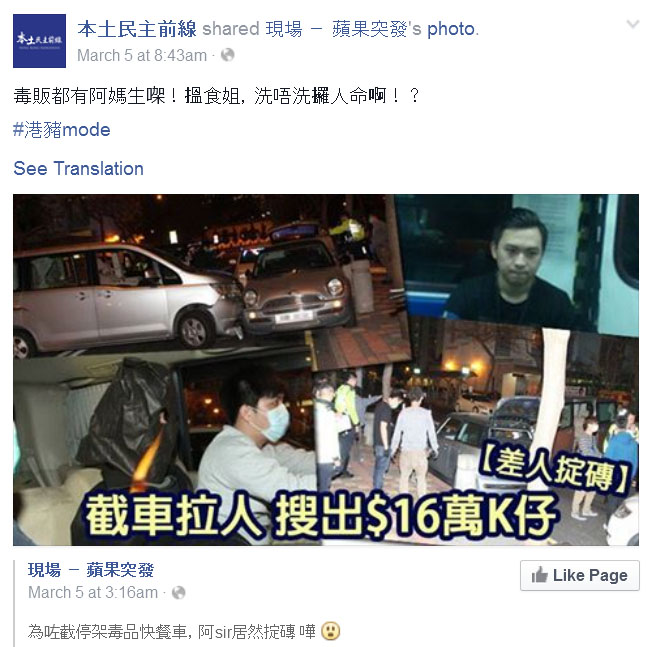
Hong Kong Indigenous Facebook
About the brick throwing, Hong Kong Indigenous says: "Even drug dealers
have mothers! They are only trying to make a living. Is it necessary to
use deadly force?"
- (The
Sun) March 17, 2016. Legislative Council newcomer Alvin Yeung
successfully petitioned to form a special committee to conduct a hearing
on the Mong Kok riot. However, this committee will have no power to order
witnesses to appear. Furthermore, the Legislative Council has four more
months left before it adjourns for new elections. There is already a
committee waiting to write a report on the construction delay for the
Express Rail Link, to be followed by two more committees to report on the
Occupy movement. Therefore there is no chance for anything to be
accomplished. However, it does give the impression that Alvin Yeung has
accomplished something. Whatever.
-
https://www.facebook.com/jimmymuihk/videos/775450769253910/ Old
video from the 1967 riot in Hong Kong. Same situation, different outcome.
The Hong Kong Police of today should study and learn from this.
- Well, Hong Kong was under British rule
then. They had FREEDOM/DEMOCRACY/HUMAN RIGHTS/UNIVERSAL SUFFRAGE/RULE OF
LAW on their side.
(Oriental
Daily with video) November 2, 2016.
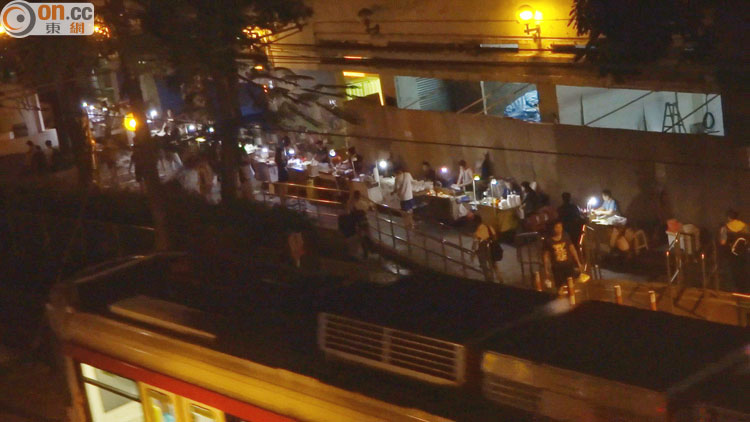
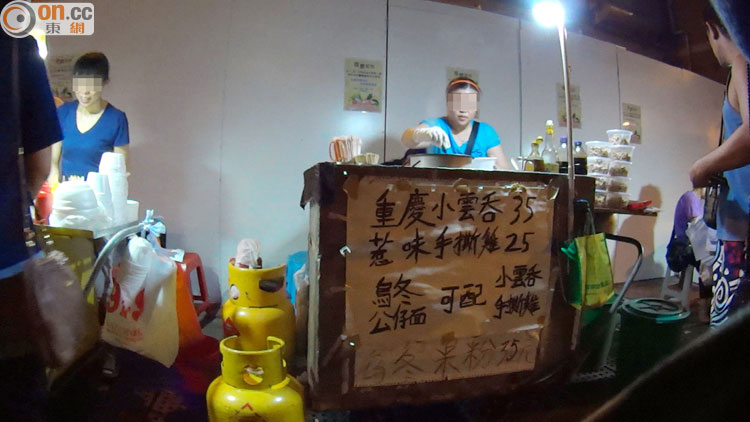
Leung King Estate resident Mr. Ng
said: "The vendors have been here for many years. In recent years, they are
getting more and more blatant." Mr. Ng said that the vendors set up business on
the passage between the Leung King Estate and the Light Rail station and Leung
King market. Thus residents must go past this passageway on their way home. This
meant that the passageway is clogged with pedestrian traffic and the vendors who
are cooking their food.
Mr. Ng has complained many times
to the Leung King Estate management, the Link REIT management, the Housing
Department and the Food and Hygiene Department. But nothing has happened. "The
vendors are out of control. They can block the whole roadway and nobody will
stop them."
Our reporter observed these
vendors. There were more than 10 of them on the passageway, selling all sorts of
food. The prices are not necessarily cheaper than elsewhere. For example, a
chicken leg costs $37.
According to the Leung King Estate
management spokesperson, illegal vendors are banned in the estate. In the past,
they have worked with the Food and Hygiene Department and the Housing Department
many times.
According to Link REIT, the
vendors are in an area that is not their property. That means they cannot take
action.
The Housing Department said that
they have been asked by the Incorporate Estate Departments to take action.
Between September and now, they have taken action at least 10 times, with 14
cases of vendors being arrested and 50 cases of goods being detained.
(Apple
Daily with video) February 3, 2016.
Last night past 8pm, a number of
vendors set up outside the Leung King market. Because they encroached on the
Leung King Estate, a number of touch-looking young men with dyed air wearing
"administrator" vests came to maintain order. The two sides cursed each other
with vulgar language. Vendor carts were upturned with the food scattered all
over the ground. It was chaotic. The police came to separate the two sides.
The Leung King mall/market belongs
to Link REIT and its management to outsourced. According to information, the
unlicensed vendors set up outside the Leung King Estate market because they have
triad backup. The vendors often used the market facilities to prepare their food
and that upset the market shop owners. Late last year, the vendors moved even
closer to the market. Link REIT got very nervous and set up metal barricades to
stop the vendors from encroaching. The estate administrators and the vendors
have quarreled many times. Supposedly the triads instructed the vendors not to
get too close to the mall/market in order to appease Link REIT.
(Oriental
Daily with video) February 3, 2016.
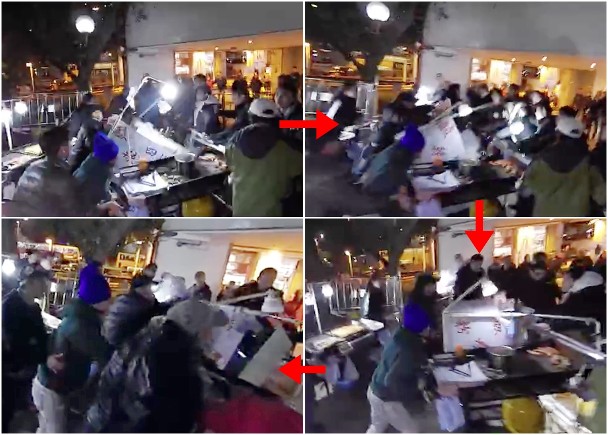
Last night, about ten cooked food
vendors were surrounded by a number of men wearing "administrator" vests. The
men used metal barricades to surround them and used padlocks to prevent them
from leaving. Some of the vendors rammed their carts against metal barricades.
About twenty men and women were engaged in fighting. In this 30-second video, it
can be seen that one cart was upturned with the Sichuan noodles being spilled on
the ground. Someone swung a punch at an 'administrator'; another said "Don't
fight"; another said: "Call the police!"
A 69-year-old man resident named
Fung walked by the scene and was pushed onto the ground by two men who kicked
him. Fung was injured in the face and his leg, while his attackers fled. The
police arrived and separated the "administrators" and the vendors. As a result
of the investigation, the police arrested a 33-year-old "administrator" and two
vendors (a 38-year-old man and a 53-year-old woman).
(Oriental
Daily with video) February 8, 2016.
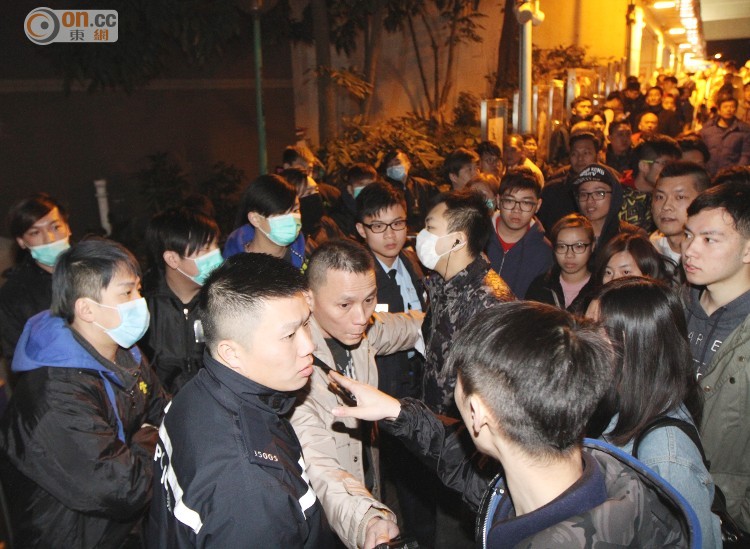
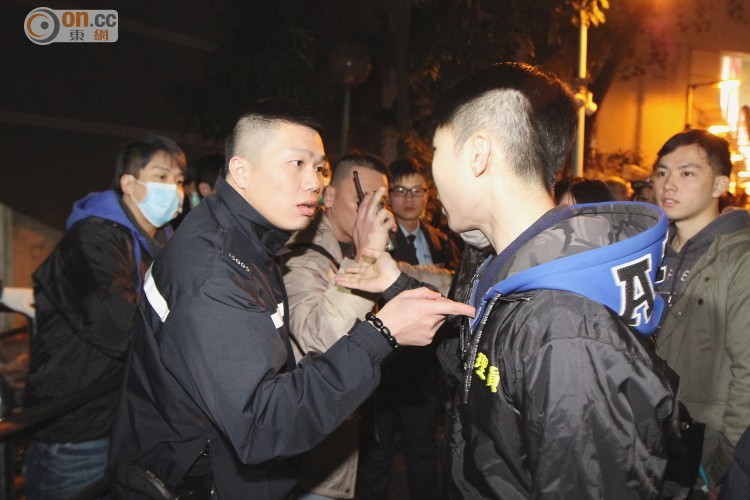
At 8pm last night, around a dozen
or so cooked food vendors showed up on the open space outside the Leung King
Estate market. At this time, several dozen men wearing "Administrator" vests
showed up and put down metal barricades to block access. As a result, residents
who wanted to go home had to make a detour. Some residents quarreled with the
"administrators" and there was some pushing and shoving. The police came to
mediate.
(Oriental
Daily) February 8, 2016.
Yesterday at Yau Oi Estate, Tuen
Mun Estate, a number of metal barricades were erected on the open space leading
to the estate from the Light Rail station and bus terminal. There were also
signs that said "Street hawkers are strictly prohibited."
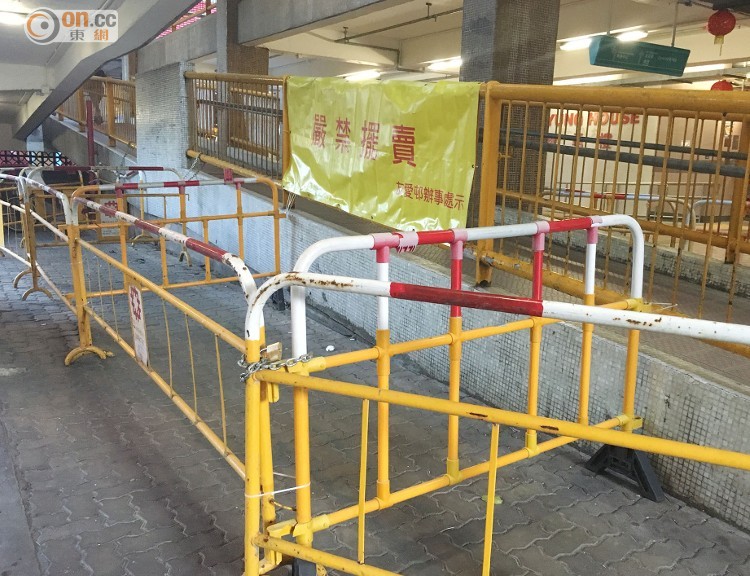
Nevertheless, two cooked food
vendors continued to set up near the Light Rail station. One of them heated the
food with a natural gas stove, which would be like a small bomb with devastating
impact if it should explode in a public space. There are also public hygiene
concerns. However, the location not under estate administration so the security
guards can only watch from afar. The Food and Hygiene Department inspectors were
nowhere to be scene.
(Apple
Daily with video) February 9, 2016.
At around midnight, a citizen went
by the Leung King Estate mall and saw an obese man being assaulted by more than
10 "administrators" who wore masks. So he took this video with his mobile phone.
In the video, more than 10 "administrators" punched and kicked the man and also
put a stranglehold around his neck. People yelled: "What are you doing? Don't go
away! Give a hand!" More than one hundred persons were present and screaming out
obscenities. It was chaotic. The fighting lasted more than 5 minutes.
The citizen said: "Of course, I
support the street hawkers. They are only trying to make a living. Not many
shops are opened during the Lunar New Year holidays."
(Ming
Pao) February 10, 2016.
At around 9pm, a dozen or so
cooked food vendors set up shop in the open space across Leung King Plaza. About
a dozen men wearing black wind jackets with "administrator" emblazoned and
surgical masks came and said that they need to clean the streets. They
surrounded the vendors with metal barricades. Because the passageway was
blocked, residents had to make a detour to get home. So they began to agitate
along with the vendors. There was pushing and shoving. One vendor trolley was
upset and the beef intestines were spilled on the ground. The police came to
mediate. The administrators made way to allow residents to go home.
At around 11pm after the police
left, the vendors and the "administrators" became to quarrel again. Someone
yelled: "Do you want to fight!?" A melee broke out, with people picking up the
metal barricades to use as weapons. Residents who claimed to be supporting the
vendors also joined in. Several hundred citizens stood and watched. The police
came and arrested two men. Four persons were sent to the hospital to treat their
injuries.
According to our observations, the
so-called "administrators" all wore the same black wind jackets and surgical
masks. Some of them had dyed blonde hair and they used vulgar language. A
resident told us that the "administrators" and the vendors are connected to
different triad gangs, and the conflict involves the interests of rival triad
gangs.
(Oriental
Daily) February 10, 2016.
It was relatively quiet tonight
over at Leung King Estate.
At 750pm, about 30 Police Tactical
Unit members searched the flower beds and found nothing.
A woman used her mobile phone to
film the police. She was persuaded to leave with her two male friends.
About 9 street vendors operated.
Nobody from the Food and Environmental Hygiene Department came. At 930pm, the
vendors said that they were either "sold out," "tired" or "wanted to go home to
have indder" and so they packed up and left. Only the residents and the police
officer remained at the scene.
(Apple
Daily) February 11, 2016.
The problem with the unlicensed
street vendors outside Leung King Estate has been around for more than 20 years
already. A group of vendors supported by the Sun Yee On triad gang had always
set up inside the estate. Leung King Estate is a rental public housing estate,
in which the buildings and the commercial market are managed by different
companies. Over the years, the management companies have wanted to out the
vendors. They tried calling the police but to no avail. Last year, the market
was renovated and the vendors moved closer to the market/Light Rail station for
business. It is believed that the Shui Fong triad gang was brought in as
"administrators" to oust the vendors. The two gangs had several confrontations
and reached an agreement about a line of demarcation. However, the vendors often
encroach the line during holidays and the "administrators" often come against
them.
(SCMP)
February 12, 2016.
About 10 hawkers at a
housing estate in Tuen Mun expressed defiance yesterday and said they would
continue to operate despite conflicts plaguing the neighbourhood in recent
days.
Tension between a self-proclaimed hawker
control team and people supporting the food sellers turned into violence at
the 28-year old Leung King housing estate on Tuesday night. But the brawl
was believed to be unrelated to overnight rioting in Mong Kok the day
before.
�I will be here until they kill us,� an
unfazed hawker who wished to remain anonymous told the Post after
the latest clashes. He said the conflicts started around January 21 when a
renovated wet market, run by company Link Reit, opened at the estate. �The
so-called managing officers would come at night and fence off the area,
stopping people from buying food from us.� He said Link Reit increased the
rent at the wet market after the renovation. �They promised the cooked food
stores there would be no hawkers around to encourage them to rent their
space.�
Link Reit, or Link Real Estate Investment
Trust, owns properties around housing estates and above MTR stations. In a
reply to the Post, Link Reit distanced itself from the clashes and
denied the hawker control team was its staff.
The Housing Department said the area was
supposed to be managed by �incorporated owners� � people who bought flats
under a tenants purchase scheme.
Neither the Food and Environmental Hygiene
Department nor police were responsible for combating hawking in the area,
which was not seen as a public place, the authorities said. The area was
understood to be managed by an outside firm, which could not be reached for
comment.
Yesterday afternoon the area was bustling
with locals buying barbecued skewers and egg waffles. Police officers
patrolled throughout the day but the atmosphere remained calm. A resident
called Mr Lam said he did not mind the hawkers. �They are just trying to
make a living. Using violence to clear them out is too much,� he said. But a
Mrs Tsang said: �I think they are unhygienic.�
Garen Hon Lai-yin, founder of Tuen Mun
Community, said a group who claimed to act on behalf of a company
responsible for managing the estate or its market had carried out operations
against illegal food hawkers for several nights in a row. Some residents
supported the hawkers, triggering scuffles that resulted in four people
being injured on Tuesday. Police said they were attacked by three men, who
fled and were still at large.
A 31-year-old man was arrested for causing
disorder in a public place. He allegedly interfered with a worker performing
his duties at Leung King estate.
(EJ
Insight) February 11, 2016.
While
public attention was focused on clashes between police and protesters
supporting street hawkers in Mong Kok during the Lunar New Year holidays,
similar incidents had been taking place at the Leung King public housing
estate in Tuen Mun.
Since
Sunday, a group of masked men, who identified themselves as members of the
�management team� at the housing estate, had been harassing unlicensed street
hawkers near the estate and forbidding them from doing business in the area.
Police
officers in the area didn�t lift a finger to stop the men from attacking the
vendors and residents, pro-democracy groups alleged.
At
around 11 p.m. on Tuesday, the men attacked at least six vendors selling their
merchandise near the MTR Light Rail station at Leung King Estate. Residents
and reporters were also hurt in the clashes, Apple Daily reported on Thursday.
It is suspected the so-called �management team� has triad background, the
newspaper said.
In a
joint letter to Police Commissioner Lo Wai-chung, the Democratic Party and
Labour Party accused the police of not doing anything to help the vendors from
being harassed and attacked by the masked men.
On
Tuesday night, the masked men, with �management team� printed in Chinese on
their black jackets, used metal barricades to encircle the street vendors,
asking them to leave immediately.
Over a hundred people gathered at the site. A man, who was apparently
supporting the hawkers, shouted, �Don�t move, stay here!� and confronted the
masked men.
Police officers arrived and tried to prevent any
untoward incident.
Forty
minutes later, about a dozen masked men from the �management team� again
confronted the vendors, and reportedly beat up a man until members of the
public came to help the victim.
Police officers came and tried
to separate the two groups.
However, one of the masked men continued beating
up a man who was already lying on the ground in front of the policemen, but
the officers didn�t take any action.
The masked
man then fled the scene.
Four men were hurt in the clash. Wong, a
reporter of local internet news website hk01.com, was at the scene reporting
the incident when he was confronted by the masked men and shoved to the
ground.
A local resident, surnamed Kwan, tried to help
Wong but was also beaten up by the masked men, hk01.com reported.
At least three members of the �management
team�, aged around 30 to 40 and about 1.7 to 1.75 meters tall, were involved
in the beating, the report said.
Link
REIT, which manages the commercial spaces in the housing estate, stressed that
the site where the clashes took place does not belong to the group and it
has no relation with the so-called �management team�.
(EJ
Insight) February 16, 2016.
Government representatives adopted a hands-off stance over recent violent
incidents involving masked men and unlicensed street hawkers at a public
housing estate in Tuen Mun. Several government departments sent
representatives to a meeting called by the Tuen Mun District Council on Monday
night to discuss hawker management at the Leung King Estate, but none of them
appeared to be willing to take responsibility and act on the issue, Apple
Daily reported.
During the Lunar New Year holidays,
masked men, who claimed
to be members of the �management team� at the housing estate, had been
harassing unlicensed street hawkers near the estate and forbidding them from
doing business in the area. The men even attacked residents and reporters.
However,
during the meeting called by the district council�s commerce, industry and
housing committee, the government representatives said the issue was outside
their jurisdictions. Police and the Link REIT, which manages the commercial
spaces in the housing estate, didn�t even send representatives to the meeting.
Among those present were representatives of the Housing Department, Food and
Environmental Hygiene Department (FEHD) and Fire Services Department.
District council member Catherine Wong Lai-sheung,
representing the San King constituency, said the police apparently did not
want to get involved in the clashes between the so-called �management team�
and the street hawkers.
Wong expressed fears that similar clashes might
happen again in the future.
During the meeting, Celia
Chau Fung-ching, housing manager of the Housing Department, said Leung King
Estate is a public housing estate under the Tenants Purchase Scheme.
Since the estate has its own owners�
corporation, the management responsibility should belong to the corporation
and the estate property management agency, Chau said.
Senior health inspector Peter Leung Man-Nin,
representing the FEHD, said the Housing Department should bear responsibility
as well. He said the Housing Department is also the owner of public housing
estate and should help the management company to handle the hawkers issue. The
FEHD, on the other hand, is only responsible for handling hawkers in public
areas.
Links REIT, in a statement, said the area
should be managed by the estate�s corporation and management agency.
Ho Hang-mui, a district council member
representing the Prime View constituency, said she was disappointed with the
replies of the government representatives. �It was just like the issue is
really none of their business,� Ho said.
Au Chi-yuen,
another district council member from the Tuen Mun Town Centre, said the
Housing Department, being the owner of the housing estate, should direct the
owners� corporation and the property management agency on how to handle the
issue.
(SCMP)
February 19, 2016.
A suspected triad member was arrested in
connection with last week�s brawl between a self-proclaimed hawker control
team and people supporting the food sellers, police said on Friday. The
25-year-old was allegedly one of the so-called �management officers� accused
of injuring four people in a clash at Leung King Estate in Tuen Mun at around
11.45pm last Tuesday, according to a source with knowledge of the
investigation. �The man is suspected to be a Wo On Lok triad member. We
believe he is one of the attackers,� the source said. Another source said
police were investigating who hired him and the other management officers, who
were masked at the time of the incident.
The Hongkonger was arrested when officers
from the Tuen Mun district crime squad raided his home in Tsz Wan Shan at
about 10.30pm on Thursday. Police are still searching for several people in
connection with the clash.
Last Tuesday, masked management officers, who
claimed they were responsible for combating hawking in the estate, tried to
fence off an open space outside a market and disperse food sellers. They
argued with supporters of the hawkers before the clash broke out at about
11.45pm. A reporter was among four men who were injured in the incident.
Link Reit, or Link Real Estate Investment
Trust, which owns properties around housing estates and above MTR stations,
distanced itself from the clash and denied that the hawker control team was on
its staff. A spokeswoman for Link Reit said that since last May, the estate�s
market has been leased to the Uni-China (Market) Management.
The Housing Department said the area was
supposed to be managed by �incorporated owners� � people who bought flats
under a tenants purchase scheme.
On Friday, Kong Shun Union Property
Management, which was hired by the owners incorporation committee to manage
the estate, said the management officers were not among its staff members. Its
property manager, Law Tin-shing, said that under the management agreement, Uni-China
was responsible for managing the open space outside the market. It is alleged
that the management officers were staff members of a sub-contractor of Uni-China.
On Friday, the company was not available for
comment. Uni-China has taken legal action
against street vendors in the estate, but it did not mention in its statement
of claim what it was seeking. The writ was also not issued against any
specific defendant. The petition served on �persons unlawfully occupying or
remaining� in the housing estate for hawking was filed on Wednesday.
(Oriental
Daily) March 10, 2016.
There are 11 restaurants within Leung King
Estate with Food and Environmental Hygiene Department licenses. Proprietor Mr.
Hui said: "Those unlicensed vendors want to make a living to feed their wives
and kids, and so do we." The licensed restaurants pay $30,000 to $40,000 per
month in rent while the unlicensed vendors do not pay rent, and they have lost
about 70% of their revenues due to the presence of unlicensed vendors.
Tonight, the licensed restaurants are turning off their electric lights off to
protest. They may even go on strike if the management does not come up with a
solution.
(Oriental
Daily) December 31, 2016.
38-years-old Chan Man-fai and 52-years-old
Tse Wai-kan were charged with participation in an unlawful assembly on
February 2 in the space outside Leung King Plaza. Today, the magistrate found
the two defendants not guilty.
The magistrate said that there were a number
of men wearing black "management team" clothes who used iron barricades to
encircle the defendants. However, the prosecution was unable to establish the
identities of the men in black and thus show that they have the right to
oversee the space. The magistrate said that the men in black were directly
responsible for starting the clash and acted like hooligans in an intimidating
and insulting manner. Therefore, these men in black are more likely to have
participated in an unlawful assembly.
The magistrate accepted that the defense
argument that the two defendants did not use their carts to attack the men in
black. Instead, the two defendants only wanted to leave the scene.
However, the magistrate believed that Chan
Man-fai deliberately toppled his wooden cart which was used to cook. However,
only Chan and one other vendor used excessive force that night. This means
that the threshold of three or more persons was not exceeded and therefore the
criterion for unlawful assembly was not met.
Internet comments:
- This news story has me totally
confused. I want to know simply: Who are the bad guys (=triads)? Are the bad
guys the unlicensed vendors who can do this so blatantly because they have triad
support? Or are the bad guys the guys wearing the "administrator" vests?
- Do I want to believe that
freedom/democracy means that anyone can set up to sell anything that they want
anywhere anytime? Maybe. But I want to know what happens if unintended
consequences come out?
Example 1: A gas stove exploded and dozens get injured. Who is responsible? The
Food and Hygiene Department, of course, for not enforcing the existing laws
against unlicensed, unsupervised and uninspected hawkers.
Example 2: Mass food poisoning occurs with dozens hospitalized. Who is
responsible? The Food and Hygiene Department, of course, for not enforcing the existing laws
against unlicensed, unsupervised and uninspected hawkers.
The politicians who advocate the rights of unlicensed, unsupervised and
uninspected will never be held responsible because they stand on the moral high
ground.
- What are the economic interests
here? The Link REIT market has a number of cooked food concessionaries. These
people pay rent and operate in accordance with the regulations. Right outside
the market are these unlicensed cooked food vendors. They don't pay rent (but
they are probably paying the triads for 'protection') and they don't follow any
regulations. So whose side are you on?
- Can someone explain what they
are fighting about?
https://youtu.be/Ol1YpNO0oqA
https://www.facebook.com/silundanlor/videos/1565672270420330/
https://www.facebook.com/bbtauseeworld/videos/451526635044719/
https://www.facebook.com/HongKongGoodNews/videos/1027193120687957/
- And who is who in this video?
https://www.facebook.com/TuenMunCommunity/videos/563710640463501/
- (VJ
Media) Link REIT had actually pitched the vendors to rent their market
stalls. The conditions were: monthly rent $38,000 with a four-month deposit;
another $60,000 entry fee because Link REIT will do the interior decoration;
$4,000 per month for use of the Octopus card payment system.
If an order of fishball sells for $10. They will need to sell 3,800 orders per
month to pay the rent. That works out to 127 orders per day. And that is without
counting other costs such as food, condiments, water, electricity, labor, etc.
Very few itinerant vendors can afford to do this. So far, there is only one
fishball stall in the Leung King market.
- Link REIT and the Housing
Department have both come out to say that the area of conflict is not within
their jurisdictions. So the triads will have to fight it out among themselves.
- Rumor has it that the vendors
disappeared at 930pm Wednesday night because the police warned them that they
might be arrested and charged with "aiding, abetting and/or participating in a
riot" in the event of an incident.
- The Lingnan University Student
Union is calling out the students to support the vendors. In other words, they
are siding with the Sun Yee On triad gang against the Shui Fong triad gang. But
the students are also boycotting Wong Jing's movie <From Vegas to Macau III>
which is bankrolled by the Heung family behind the Sun Yee On triad gang. Can
they students please make up their minds?
(AFP)
'Umbrella Soldiers' take seats in Hong Kong elections. November 23, 2015.
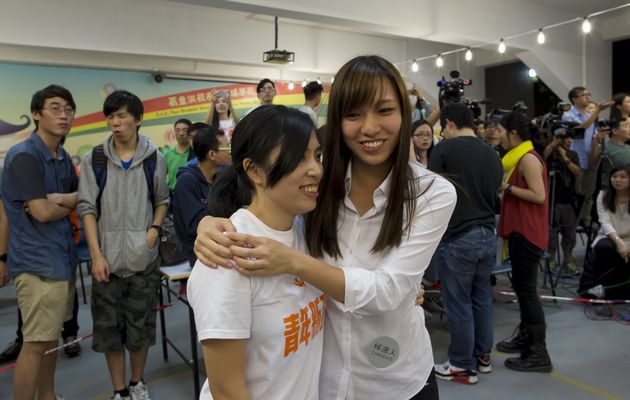
Kwong Po Yin (L), member of �Umbrella soldier�
group Youngspiration, is hugged by her election partner, Yau Wai Ching after
Kwong won a district council election at Whampoa West in Hong Kong, China
November 23, 2015. "We will prove we're serious," added Kwong Po-yin.
So how serious are they?
Kwong Po-yin who was the sole Youngspiration candidate to win said that she will
maintain a street booth and an Internet presence in order to actively reach out
to residents. Of course, she will maintain a district councilor's office. By the
way, she is an emergency room doctor at a public hospital. It will be interesting to see how she
finds time to do everything. Meanwhile Yau Wai-ching will be working as an
assistant to Kwong Po-yin and planning to become a candidate in the 2016
Legislative Council elections in the Kowloon East district.
(Wen
Wei Po) February 5, 2016.
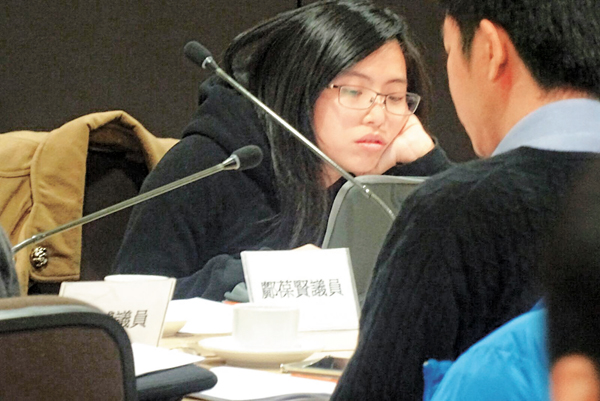
Kwong Po-yin looking bored during a committee
meeting
According to information, Kwong
Po-yin participated in the first full district council meeting on January 5 and
signed up for three committees (Leisure Services and District Facilities
Management; Traffic and Transportation Committee; Food and Environmental Hygiene
Matters) but did not attend any more full district council meeting. Her district
councilor office is being run by two assistants, including Yau Wai-ching of
Youngspiration who lost her own election.
Our reporter made observations in
the Whampoa West district last month. Kwong Po-yin's main public activity is the
signature campaign "to oppose bars on the ground floor of residential
buildings." There was also the Whampoa Street Run promotions which showed a
number of photos on Facebook to create the impression that Kwong Po-yin has been
working diligently for the people. But our reporter observed that things may not
be what they appear. For example, on January 18, the Facebook posted at 5:15pm
photos of Kwong Po-yin holding a signature drive to oppose early morning liquor
sales at the corner of Hung Hom Road and Tak Man Street. But nobody was there at
the time. Fifteen minutes later, Kwong Po-yin appeared and very few people
signed up. The booth was shut down at about 6pm with Kwong Po-yin making only a
40-minute appearance.
Kwong Po-yin is an emergency room
doctor at the United Christian Hospital. After her election, reporters asked how
she was going to reconcile the long working hours (36-hour shifts) at the hospital with her
district council work. At the time she said that even though she is very busy at the
hospital, she will allocate the time to do both things. Furthermore she has the
support of the Youngspiration team. Therefore she is confident that she will do
her district councilor job well. "Others can handle the paperwork and
administrative work. But I feel that I must deal with the meetings, preparations
and citizen contacts myself."
But our observation is that Kwong
Po-yin rarely shows up before her office opened January 21. She sporadically
organized some street booth activities as district councilor. She lives in Sham
Shui Po, she works in Kwun Tong and her district is in Whampoa West. After her
office opened, she also did not spend much time serving her constituents. Our
observation is that during the 11 days from January 21 to January 31, she did
not show up for three days at either the office or the street booth. Her average
daily district appearance time was only 2 hours 45 minutes.
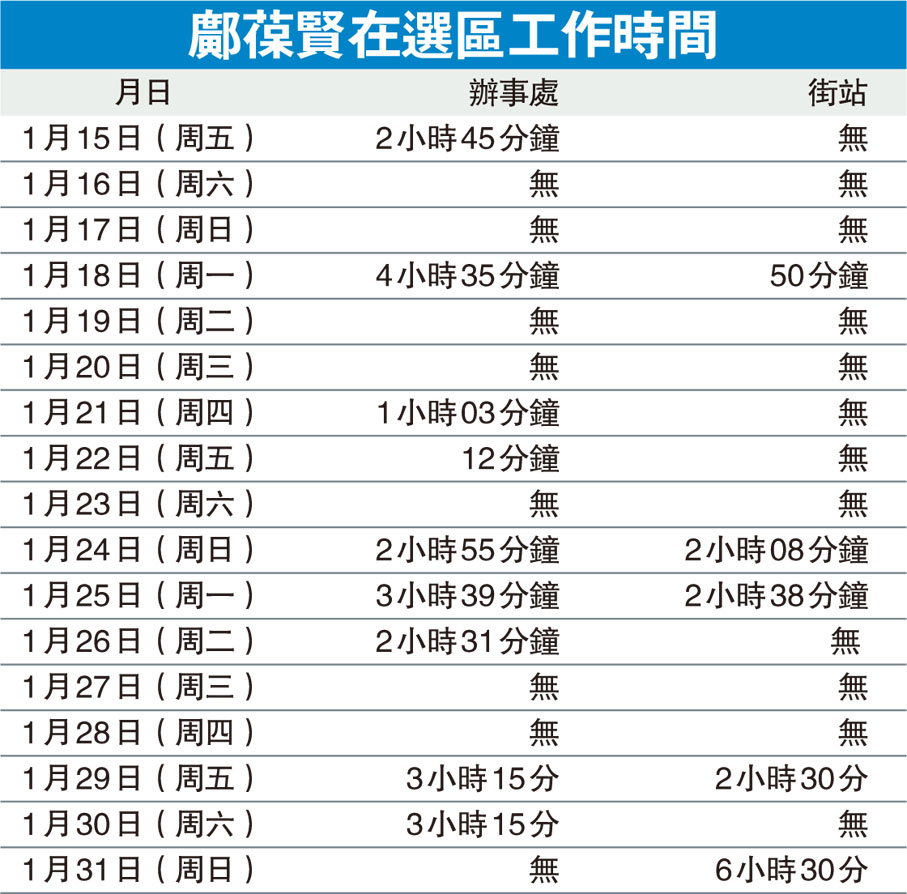
Clocking in Kwong Po-yin at the office and the
street booth, January 21 to January 31
Thus Kwong Po-yin's promise that
she will spend more time on district work does not hold up. According to one
Whampoa West resident, "Kwong Po-yin's office is manned by other workers. But
this
does not mean that she can loaf off. A clinic has nurses, but the patient is
there to see the doctor and not the nurses. Since she is the district councilor
and she promised to spend more time to serve the district, she should keep her
word. Why else would we elect her?"
On February 3, our reporter asked
Kwong Po-yin for a response to the above. Kwong refused to be interviewed by our
reporter and told us to address our inquiries with the Youngspiration media
relations people.
(Wen
Wei Po) February 5, 2016.
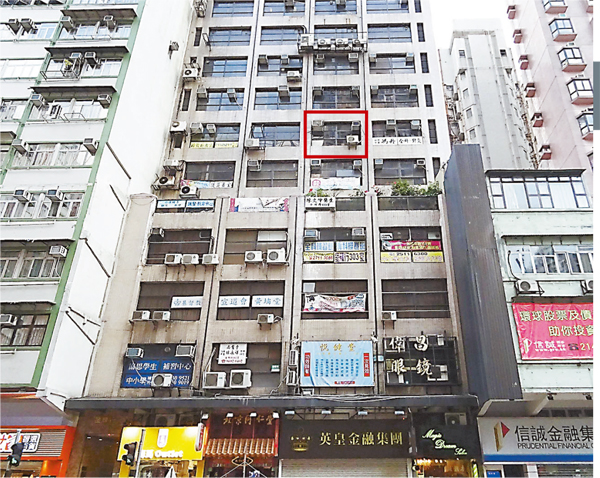
Kwong Po-yin's district councilor office
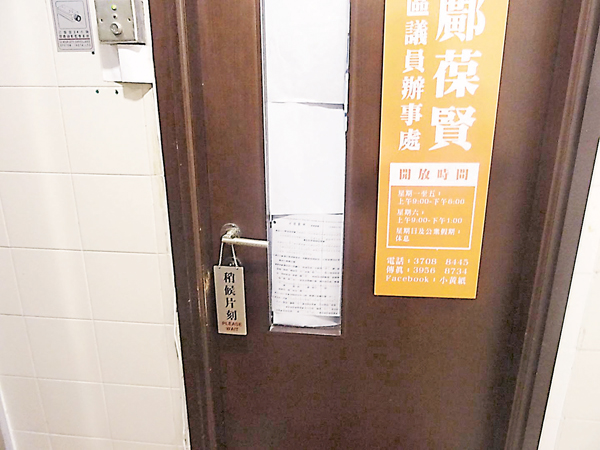
Kwong Po-yin's office opened on
January 21. The office hours are Monday-Friday 9am-6pm, Saturday 9am-1pm. The
office is located inside a commercial building on Wuhu Street. The office is
about 300 square feet in area. Because there is no sign outside the building,
passersby cannot tell that there is a district councilor's office inside this
building to serve the people. Our reporter randomly asked residents and almost
nobody knew where the office of this newly elected district councilor is
located. "I walked by this building every day and I don't know it. I don't know
how to use the Internet. I don't know how to find Kwong Po-yin in case I need
to." Another long-time resident has heard of the name Kwong Po-yin but had no
idea that her office was just several tens of meters away from his home.
Our reporter observed the office
from January 21 to January 31. The office is manned mainly by Yau Wai-ching and
a man named Eddy. It never opens on time. Even during the officially open hours,
it is frequently left locked and unmanned.
On January 22, Yau Wai-ching and
Eddy showed up at 934pm. The two went out together at 2pm and left a PLEASE WAIT
sign on the locked door. They returned 90 minutes later. This meant that the
office was closed for 2 out of the 9 business hours.
On the morning of January 25,
Kwong Po-yin, Yau Wai-ching and three others manned the street booth. That meant
the office was closed from 9am to noon. They came back at noon and then went out
to lunch together. So the office was closed between 115pm and 215pm. This meant
that the office was closed for 4 hours that day.
(Wen
Wei Po) February 5, 2016.
In the Kowloon City district
council, there are five committees. Of the 10 newly elected councilors, 9 of
them joined all five committees. Kwong Po-yin joined only three of the
committees. The Kowloon City district council meets together once every two
months, and so do the committees. Therefore these meetings do not take up too
much time.
At least 20 district councilors
(including the 9 newly elected ones) signed up for all 5 committees. Even
Executive Council member, Legislative Councilor and DAB chairperson Starry Lee
signed up for 4 committees. Kwong Po-yin is the only one with just 3 committees.
This is enough to make one wonder how much time Kwong Po-yin is willing to spend
to serve the people.
(Wen
Wei Po) February 5, 2016.
Yau Wai-ching parachuted in to
challenge incumbent Leung Mei-fun but lost the election. Afterwards she became
the assistant of Kwong Po-yin. Yau did not seem too enthusiastic
about her job. Based upon the observations of our reporter, she never stuck to
the business hours of the office. She is usually late by 30 minutes and on most
days she only works three to four hours (at the office/street booth).
At 11am on January 31, a dozen or
so Youngspiration volunteers and the office of Kwong Po-yin set up a street
booth on Bulkeley Street in Hung Hom. Yau Wai-ching showed up hurriedly half an
hour late. When she got there, she did not immediately get to work. Instead she
sat down and had breakfast first. After breakfast, she worked for a dozen or so
minutes. Then she stood behind the volunteers and played with her mobile phone.
That was what she did for the next few hours.
Our reporter checked the official
Facebook for Kwong Po-yin's office. On that day, there was one post at 12:43pm
about that day's activities with six photos. Yau Wai-ching's Facebook had two
more photos in addition to the ones from the official Facebook.
Even so, our reporter observed
that Yau Wai-ching was very diligent on her own political activities. Last
month, she went to set up voter registration booths in Mong Kok, Lai Chi Kok, Ta
Kok Tsui and other locations in the Kowloon West district. On January 25, she
spend her working hours to handout Lunar New Year couplets at the Hung Hom
street market. Now the market is in the Ka Wai district, which is separated from
the Whampoa West district by the Hung Hom Bay district. A Whampoa West resident
said: "She was elected by the Whampoa West voters to serve their district. Isn't
she busy enough? Why does she go to promote in another district? Clearly she is
using her working hours to canvas votes for Yau Baby."
Internet comments:
- An emergency room doctor at a
public hospital has to put in 36-hour shifts. How was she going to find time to
be in the district councilor's office, the street booth and the district council
meetings? This was always a joke. Pity the poor sods who voted for her.
- Well, according to the Yellow Ribbons, the masses are Hong Kong pigs anyway so
there is no need to sympathize with them.
- The same old story with Cyd Ho
when she ran and won the district council election. She found the process of
electioneering much more interesting than the reality of serving the
constituents. So she gave up after one term and her constituents learned to
never vote in another pan-democrat again.
- Kwong Po-yin was elected so that
she can filibuster at the district council. There is no expectation that she
should have to provide service to the constituents or otherwise contribute
anything positive. In that sense, she is doing her job exactly as she should.

(Oriental
Daily) August 11, 2016.
In Hong Kong Island, the
government plans to rebuild in the Tai Hang, Jardine Hill and Tin Hou districts.
Such matters matter to the respective District Councilors. In Jardine Hill and
Tin Hou, the district councilors immediately contacted the owners' association
in 11 estates in their district. In early July, the owners association in the
most affected estate held a meeting with all three District Councilors being
invited. "Umbrella soldier" councilor Yeung Suet-ying of the Tai Hang district
did not attend, sending only her assistant. Residents questioned the assistant
where Yeung was too busy to raise donations at the July 1st demonstration to
attend to their business. The assistant claimed that they never received the
relevant documents. But the residents wondered why the other district councilors
receive those documents.
Afterwards Yeung contacted the
owners association and another meeting was held in early August. Only a few
association directors showed up. Afterwards, the residents determined that Yeung
had no idea how to handle this, so they are asking the Jardine Hill and Tin Hou
district councilors for help instead. Recently, the two district councilors held
a meeting with 17 owners associations, which did not bother to invite Yeung
Suet-ying.
Yeung replied that she had
consulted experts such as architects in late June and she was ready to meet with
residents. She was notified about the early July meeting on the day before and
she already had other business planned. Afterwards she met with representatives
from that estate. As for the August meeting, 60 residents from 14 estates
attended, so it has a certain representativeness.
<Last night, I was involved in a
race-hate incident at Hong Kong University> by Johnson Yeung Ching-yin, Masters
student of human rights laws.
I struggled for some time before I
decided to write down what happened last night. I am not a nobody. No matter
what your impression of me was, this experience actually happened to me. Last
night, I was involved in a race-hate incident at a snack restaurant on U-Street,
Hong Kong University.
(1) The incident inside the snack
restaurant
The clock said that it was
10:20pm. I was standing in front of the snack restaurant waiting for the the
rice noodle with the squid fish ball plus cheese. Standing in front to my left
was an obese student who was standing behind two other students. I actually
didn't pay attention to them until the obese student said to the person on his
right: "You have the nerve?
Pok gai!" At the time, I thought that they were fellow students who
knew each other and that this was merely a minor dispute. (I can't remember the
ensuing words but they went approximately like this.)
"I'm talking about you,
mainlanders!"
"Fuck your mother!"
The two students on the right had
their backs to me and I couldn't see their faces. I only saw that they turned
around to look at the obese student but they didn't say anything.
"What the fuck are you doing here?
This is not your place! Go back to the mainland!"
By this time, I had already
realized that they didn't know each other and I saw witnessing one party
insulting another party. The obese student had turned around to face the two
mainland students on his right. I can clearly see him. He carried a backpack
with decoration, and his veins were bulging on his forehead as he hollered to
them: "Fuck your mother! Intruders!" The old social experiment ABC television
program "What would you do?" flashed through my mind. I hope that this was
merely a reality show. But the obese student continued with his tirade. So I
finally interjected: "Enough already! How can you say things like that" "They
didn't provoke you. They only came here to buy something to eat."
The obese student became even more
excited. He pointed at the mainland students: "What do you mean no? Their entire
race has done so! They invaded Hong Kong! Invaders!" I continued to reason with
him: "Do you know how to respect people! Why don't you leave?"
"They are invaders! They stole our
places at the university!"
"Listen to me. They are ordinary
students. Hong Kong students have a number of places. Each student also has a
fixed number for international students. The number for international students
does not affect the number of Hong Kong students."
"Are you Hongkonger or Chinese?
What are you helping them? We Hongkongers pay our taxes!" These words hurt me. I
am a Hongkonger. Just because I interceded does not mean that I am protective
about people from elsewhere.
"They came here to study and pay
more than one hundred thousand dollars per year. It is several times more
expensive than what Hongkongers pay."
"That's different! We pay our
taxes and so we should have the right to education! They don't!"
After going on for a while, the
obese student took his instant noodles and left. I looked in front of me.
Mainland student B had used his mobile phone to record the entire incident. As
the obese student passed by, he used his hand to hit student B so that the
mobile phone flew two meters away onto the ground. I immediately hollered.
Student B tried to pursue but Student A stopped him. The obese student
disappears.
After settling down, the mainland
students thanked me. I replied: "Please ignore him. Most students don't think
that way." But I knew that this was not true. The fact is that the people of
Hong Kong hate China more and more each day. This incident last night is not an
isolated one. Then I told student B: "My status is somewhat embarrassing. I
would be grateful if you don't post the video onto the Internet." That is
because I know that if the video were posted on the Internet, I would be
targeted. People will scold the leftist retard Johnson Yeung for selling out
Hong Kong.
(2) I hate myself
As I left the snack restaurant, I
really felt bad. My eyes were filled with tears. But I had to go to a meeting.
So I took a deep breath and went back to the Student Union upstairs. I continued
with the meeting as if nothing had happened. But my thoughts were completely
taken over by what had just happened. The Hong Kong-China conflict is frequently
seen in the streets; but it was the first time that I had come across an
inexplicable conflict at Hong Kong University. During this meeting, somebody
showed a video of the anti-parallel trade protests. The video showed both sides
cursing each other with "Fuck your mother!" just like in that incident earlier
on. I almost broke out in tears before the dozen or so persons. After the
meeting ended, I bade farewell to the other students. Then I took the elevator
to the Hong Kong University MTR station. But that time, I broke down. From the
corridor to the train platform until I reached Jordan station, I used up a
packet of tissue paper. Fortunately it was past midnight and not many people
noticed me.
Sorrow does not adequately
describe how I felt at the time. It was more like a pain that split my chest in
half. Because without knowing it, my city has been filled with so much hatred
and conflicts.
But I hate myself even more. I
hate myself for not being to resolve the conflict better.
As my friends know, I don't like
to quarrel. As I get into a quarrel, I become stronger and stiffer. If I am
insulted in a police station, I will scold the other side. Last night, I did not
want to treat the obese student as an enemy and scold him. "Stealing resources",
"stealing university places", "mainlanders" ... the obese students hated these
mainland students in front of them probably not because he is a racist but
because his experience over the years and the information that he received made
him think that the Chinese people are the enemies that he must eradicate. I
understand his views, so I cannot scold him as if he was an enemy.
But I still hate myself.
After studying four years of
political science, social ethics and moral philosophy and another half-year in
human rights laws, I did not know what reason to use to assuage his anger. I
ended up using the reason that they paid three times as much in tuition to try
to persuade him. Did I intervene because they paid their tuition on time? Of
course not.
When I spoke up to stop the obese
student from insulting the mainland students in front of the snack restaurant, I
did so because I believed that the two mainland students were innocent. I was
also worried that the two mainland students would start to hate Hongkongers and
join the tide of Chinese nationalism. I was worried that this kind of hatred
would spread within the two groups so that is became a self-fulfilling prophecy
that they become enemies who attack each other. I did not want to see my beloved
city enter this state. Therefore I intervened.
The city of Hong Kong is living in
anxiety and restlessness. We are afraid that our values will be taken away by
the Chinese Communists. Young people and middle-class people work every day but
they don't feel safe because they don't know if they will be poor when they are
old. The demand to increase the number of university places was ignored for
years. The democratic system was shattered by the police batons. Earlier, the
Neo Democrats tried to reduce the number of international students because this
will increase the number of local student places. What happened? The government
did not respond and nothing happened. The Chinese Communists are too faraway to
be influenced. The Hong Kong government act against its citizens, and convert
its responsibilities into civil conflicts. Is the government unable to solve the
parallel trader problem? No, it merely refused to enforce the law and thus
forced the citizens to find their own way to express their anger and then used
public opinion to create the impression of chaos in Hong Kong.
Therefore, even if I find the
obese student to be wrong in his insulting manners, I did not detest him because
I know the source of his restlessness and his fear of the future.
(3) Hatred is a burden
When I got home, I couldn't sleep
all night. I opened the computer and brought up <American History X> to watch.
This is a movie about black-white hatred in America. Once hatred is built up, it
became 10 times, 100 times, 1000 times harder to re-establish mutual trust. I
don't want to see those fellows who live in Hong Kong be hurt and their
self-respect be stripped away.
The movie ends with these words:
"Hatred is a burden. Life is too short. Don't be angry all the time." This is
the same as the sentence in <Ten Years>: "What we have heard most often these
years are conspiracy theories. We have lost mutual trust in each other."
My city is living in hatred. The
object of hatred is not Hongkongers versus Chinese, but different ideological
camps and different factions. People are criticizing, scoring and attacking each
other, and gradually escalating too.
I used to like to criticize and
scorn others. Several months after the Umbrella Revolution, I found this
unsustainable. Often I feel that the other side are leftist retards right
retards local retards communist agents. But was it because we really know or
witness what they did, or whether we received certain signals and jumped to
conclusions? Even if we have different stances, do we have to criticize and rake
each other over without any room for mutual understanding? Will hating each
other make things better or worse?
Studying at Hong Kong University
for this half year, I have met different people. In the classes, there are
Hongkongers but also other students from South East Asia, Europe, China and so
on. Some of these are refugees, some are from totalitarian countries, and
knowing them has broken down my rigid understanding of those places. During the
defense of Hong Kong University over the past several weeks, I have discussed
and charged alongside what are grouped as Localist students. More or less I have
known them better and know that we can accommodate each other.
All the grand blueprints and
ideals of politics lead to the hope that we can live better, and individual are
guaranteed to fulfill their goals.
Last night I asked the mainland
students not to post the video on the Internet because I was afraid of being
targeted. I did what I thought was the right thing, but I still did not want it
to be known. That was actually hard to bear. Yet being silent in the face of
hatred will only make my city even worse. Therefore I wrote down these words to
share my self-reflections with you. Maybe you think that I did wrong. It does
not mater, because I have at least communicated with you and I hope that I can
continue to communicate with you. Thanks.
Internet comments:
- (Bastille
Post) Lo Wing-hung.
The conflict between Hongkongers
and mainlanders originate from the complex relationship between two political
systems. The One System of Hong Kong is different from the One System in
mainland China, and when these differences are magnified by opposing forces,
they became sources of conflict. This particular case appears to be about
university openings. The obese student said that the mainlanders "are invaders
who have snatched away the positions of Hongkongers." In the past, the Hong Kong
government allocated 20% of all student positions to outside students (including
mainlanders), of which at most 4% carries subsidies and at most 16% are
self-financed. Since outside students pay a lot more in tuition, this policy has
economic and social benefits.
Economically speaking, the
government is setting up tertiary education as a sustainable industry. Such a
policy is copied from the United States, the United Kingdom and Australia. When
many Hong Kong parents send their children to study overseas, they are
patronising the tertiary education overseas. Socially speaking, the Hong Kong government
is trying to attract high-quality overseas students to come to Hong Kong. When they
graduate, they may be allowed to stay if they can find jobs within one year.
This is a way of attracting high-quality young immigrants in an ageing society.
But just like the Individual Visit
Permit, such a policy can have some side-effects. When many mainlanders come on
Individual Visit Permits, certain areas become very congested. This caused
xenophobia to rise and this became hatred in the hearts of young people who are
incited by politicians. This is the cause of racial hatred among university
students. Such effects should not be taken lightly, because they will eventually
bring about bloodshed in race wars.
- (Ming
Pao) Kevin Lau.
... The authorities who are
insistent on struggles should see that the seeds of hatred have been sowed on
the soil of Hong Kong-China relationship over the past two years of struggles.
The Chief Executive and the university council members can depend on police
protection. But hundreds of thousands of mainland tourists, mainland students
and mainland business people have to put up with unreasonable insults and
discrimination. When these incidents get reported in the mainland by the media,
millions of Hong Kongers who live or travel to mainland China will have to put
up with the retaliations and attacks. Is this the ending that the Beijing
leaders want to see?
The university students who are in
the midst of active resistance should be able to see that it is right to refuse
to negotiate, to not give up, to not accept their fates, to not be silent.
Please insist on. But please do not open the gates for hatred, do not let hatred
take over the campus, do not let hatred into your hearts. If for nothing else,
then do this for the freedom to continue to live in with love in your lives.
- Another example of Hongkongers'
xenophobia:
https://www.facebook.com/100010173139247/videos/210957175920052/ Hong
Kong man upset at a mainlander child for making too much noise on a subway
train.
Man: Shut up! SHUT UP! Huh! Can
you hear me!?|
Woman: Do not scare people like that.
Man: You are disturbing other people do you know? You can push him out. Do you
know?
Woman: There is no need to be so loud. The child is care.
Man: What is he scared of? The way you teach your child. He makes so much noise
so as to annoy everybody. You are so annoying. Everyone in the car is looking at
you.
Woman: I am trying to calm him down.
Man: You take him outside. He is beyond control. Do you know?
Woman: I know.
Man: If you know, you should take him outside.
Woman: You have no public morals.
Man: Is that how you teach your son? Drop dead!
Woman: You drop dead!
Man: Do you think that you are still on the mainland?
Woman: Crazy!
Man: I may be crazy, but not as crazy as your son.
Woman: You have no loving in your heart.
(EJ
Insight) Why is there a boycott drive against Wong Jing�s latest movie?
February 4, 2016.
Hong
Kong is a free economy. You can do whatever you like, buy anything you want
or go anyplace as long as it is within the bounds of law. No one can force
you to do or not to do anything.
But
recently, some internet users are encouraging Hong Kong people not to watch
the latest movie directed by outspoken director Wong Jing in a bid to show
their anger at the filmmaker�s pro-Beijing political stance, as well as the
Hong Kong people�s solidarity in the face of what they consider as China�s
growing assertiveness in interfering in local affairs.
More
than 5,000 internet users have joined a Facebook community page called �Hong
Kong people dare to boycott Wong Jing�.
The page accuses Wong of attacking Hong
Kong people to show his loyalty and devotion to Beijing authorities. The
page urges people to stand up and say no to Wong�s �rubbish movie�.
The organizers of the boycott campaign are
referring to Wong�s latest movie �From Vegas to Macau 3″, which will open in
Hong Kong cinemas on Friday.
Many internet users are closely monitoring
the advance ticket sales in various cinemas that will screen the movie, to
see whether the boycott call is having any impact.
Based on the advance bookings, the movie
doesn�t seem to be doing very well. Several theaters have not sold any seats
for some screenings, while some of the most popular cinemas were only able
to sell less than 10 tickets.
All in all, advance sales account for
less than 30 percent of available seats in selected
cinemas across the city for Friday and Saturday.
But
it�s still too early to say the boycott campaign has been a success,
considering that most moviegoers prefer to just go to cinema without any
advance booking.
So
whether the boycott is success or not will be reflected in the actual box
office figures to be released by producers and distributors of the movie.
For
his part, Wong appears unfazed by the campaign. After all, Hong Kong just
represents 1/25 of China�s total box office sales, he remarked.
�Last
year there was a similar boycott call, but my movie still ranked first in
the box office,� Wong said.
The
coming Lunar New Year is considered one of the most important periods for
the Hong Kong movie market.
It has
been a tradition for Hong Kong people to go out with their families and
friends to enjoy the holidays, and one of the activities they want to do is
watch comedy and feel-good movies in the cinema.
During
last year�s Lunar New Year, Wong�s �From Vegas to Macau 2″ earned HK$14
million in the box office in just four days, ranking third on the list of
top-grossing films.
Starring Chow Yun-fat, �From Vegas to Macau 3″ could prove to be another top
grosser for the season, given the enormous popularity of the lead actor.
Supporters of the boycott campaign, mostly youngsters, could only hope to
exert minimal pressure on the movie�s box office. Many people can readily
separate Wong�s political stance from his movies.
Wong�s negative comments about Hong Kong
cannot stop movie lovers from watching his latest offering.
But
although the film director himself remains unfazed, other quarters appear to
be worrying about the possible impact of the boycott campaign.
Cinema
operators are giving away free tickets on their social media fan page.
The
pro-Beijing Democratic Alliance for the Betterment and Progress of Hong Kong
has reserved a huge bulk of tickets to be resold to the community at a price
of just HK$25 each, a discount of more than 50 percent to the original price
of HK$70.
That
should help fill the empty seats in cinemas in case the boycott campaign
gains massive support.
Many
Hong Kong people have been shocked by Wong�s transformation from a movie
director with no clear political leanings into a rabid Beijing supporter.
In
2012, he wrote a glowing tribute to student leader Joshua Wong on his Weibo
page, praising him for his militant advocacy of student rights as founder of
the student activist group Scholarism.
But
during the Occupy civil disobedience campaign, Wong Jing�s political stance
appeared to have changed overnight.
When
Joshua Wong was arrested at the height of the protests in November 2014, the
student leader complained that police officers tried to injure him in the
groin. Wong Jing remarked on social media: �Is it because his penis is too
small police couldn�t locate it?�
Since
then, the movie director has been making rabid comments against the
opposition camp. He also said unlike his generation in the 1980s, today�s
youth are wallowing in failure.
In the
Greater China region, Wong Jing is not the first one in the entertainment
sector to display loyalty to Beijing authorities.
Many
artists and directors would rather not make comments about politics, even if
the issues affect their lives and the future of their city, and would even
declare their support to the central authorities in order to protect their
interests in the world�s biggest market.
In
Taiwan, Huang An, a singer from the 1990s, made use of every opportunity to
slam fellow artists who are not showing their patriotism to China.
Huang
even assailed a 16-year old Taiwanese singer, Chou Tzu-Yu, after she was
caught on camera holding a Taiwan national flag, accusing her of supporting
calls for the island�s independence.
His
comments sparked outrage in Taiwan and a boycott of his songs and video
products. Many called for the removal of his songs from karaoke systems and
record bars, and said he was not welcome to come back to the island.
It is
said that the Chou incident also resulted in a landslide victory for the
pro-independence Democratic Progressive Party in the elections last month.
In the
case of Wong Jing, many people could not understand his change of political
stance. Was it because of the success of his movies in the mainland?
The
simple fact is that China�s authoritarian regime does not tolerate dissent,
and if you are an artist who enjoys success in the mainland, it would be
better for you to toe the line for the sake of your career.
So the
only possible explanation is that Wong wants to show his loyalty to the
Communist Party regime in order to ensure his success in the China market.
The
boycott campaign against Wong�s movie is the result of that perception among
Hong Kong people.
(SCMP)
February 19, 2016.
Hong Kong movies made for the Lunar New
Year period � typically broad comedies, feel-good tales or action spectacles
� aren�t controversial and new release From Vegas to Macau III fits
the format. Yet local internet users have called for a boycott of the film.
The cause of their ire: provocative comments from its director, Wong Jing.
Wong has long been a vocal supporter of
police taking a tough line against protesters and often writes derisively on
Weibo about Hong Kong�s younger generation.
To the 61-year-old director, the umbrella
protesters of 2014 were lawbreakers and people who object to the
controversial copyright bill are essentially supporting mass theft.
A prolific filmmaker in the 1980s and �90s,
Wong now primarily targets mainland audiences and brushes off the threat of
a boycott, pointing out that the Chinese market is about 25 times the size
of Hong Kong.
More than a year after the umbrella
movement ended, politics continue to polarise local pop culture, reflecting
in part more liberal views among the younger generation of entertainers.
Singer Kay Tse On-kei�s 10 mainland
concerts were cancelled recently after pro-Beijing group Caring Hong Kong
Power posted photos of her visiting the Occupy site at Admiralty. A music
festival in Dongguan also dropped singer-songwriter Ellen Joyce Loo, of pop
duo at17, after the same group �outed� her as an Occupy supporter. Other
figures targeted by Caring Hong Kong Power include singer Hins Cheung King-hin
and lyricist Albert Leung.
High-profile backing of the Occupy protests
also cost singer Denise Ho Wan-see and Anthony Wong Yiu-ming (formerly of
influential electro-pop duo Tat Ming Pair, their recording contracts. They
are among a string of celebrities now reportedly banned from entering the
mainland.
Actor Gregory Wong Chung-yiu, an
up-and-coming star of Hong Kong Television Network (HKTV), remains defiant.
The 37-year-old relishes the opportunity to take on what he views as unjust
policies of the establishment.
Among his targets is TVB, which had set
unreasonable terms for contracted entertainers taking other work (including
those hired for one show or a series). In September 2013, this led the
Communications Authority to conclude that the station had abused its
dominant market position to prevent competition, but TVB later managed to
appeal against the verdict.
To Gregory Wong, this �illustrates that
there are unreasonable policies and suppression [by big corporations] in
society�.
Although the city�s only other free-to-air
broadcaster, Asia Television (ATV), had been in decline for years, even
failing to pay staff their wages, the government rejected HKTV�s application
for a broadcasting license in 2013.
HKTV launched online a few months later
with The Election, its hit drama series woven around elections for
the Chief Executive in 2022. ATV eventually failed to renew its licence and
will cease broadcasting in April this year.
Educated in Britain, Wong says that rather
than encourage a vibrant media culture with diverse views, the Hong Kong
government is content to see media churn out only inane, escapist
entertainment.
�We are envious of overseas productions,
like House of Cards, but our government doesn�t support programmes
that touch on sensitive themes,� says Wong, who played a lead role in
The Election. �They don�t want TV audiences to see things that reflect
reality. So the local entertainment industry is seen as shallow, and filled
with soap operas.�
Hong Kong-raised model Asha Cuthbert, who
has a popular channel on YouTube, is among the latest entertainment figures
to take a swipe at TVB. She uploaded a 10-minute video a couple of months
ago, lambasting the station for brainwashing Hongkongers.
It triggered to an online spat with Wong
Jing over what success means to young people, mirroring a wider divide in
the population.
In a riposte to Cuthbert�s tirade about TVB,
Wong dismissed young people who express their political aspirations on the
street, boasting about his success on Weibo: �I became famous at the age of
20, bought a property at 22, and became a director at 25. I have been
popular for 40 years. My [film] Vegas to Macau II grossed a billion
yuan. I am the most bankable Hong Kong director for 30 years. I succeed in
doing all the things I like to do � If you don�t like buying property, you
can continue sleeping in tents.�
Cuthbert, who dropped out of a media
studies programme to pursue modelling, says: �People like Wong [Jing] equate
success with making money and buying property. In their eyes, having none of
those means you are a deadbeat. People from the older generation should be
tolerant of young people, and give them guidance and advice. Wong has zero
expectations of young people; he even takes gleeful pleasure seeing them
fail to achieve what they want.�
Her father, Roy, may not have a degree and
rents a flat in Yuen Long for HK$7,000 a month, but Cuthbert says he�s a
successful photographer.
�He told me success means being able to
achieve one�s goal. For him, success means being able to drink wine and look
at the sunset.�
As a supporter of Chief Executive Leung
Chun-ying, veteran entertainer and businessman Natalis Chan Pak-cheung holds
many views opposite to those held by some of the younger generation and has
not been shy about airing them.
Young people are entitled to their views,
even those espousing Hong Kong independence, Chan says, but they cannot
impose their views on others.
�They find fault with whatever the
government does � They are not stirring up revolution like Sun Yat-sen. They
are just fouling things up. The Legco filibustering prevents the government
from executing policies, affecting people�s lives and welfare. I care about
such things.
�The delay in construction of the
high-speed Guangzhou�Shenzhen�Hong Kong Express Rail Link is costing Hong
Kong tens of billions of dollars. The whole of China is connected to the
link and we will lose out if Hong Kong is not. All infrastructure projects
are dismissed as white elephants.
�If we had not moved the airport from Kai
Tak to Chek Lap Kok, how would Hong Kong be faring now? It would be worse
than Cambodia and Vietnam,� Chan says.
Just as Wong Jing engaged in a war of words
with Cuthbert, Chan has attacked young Scholarism founder Joshua Wong Chi-fung,
criticising the activist for organising other youngsters to disrupt law and
order.
�He thinks he is a political figure because
he has been featured on the cover of Time magazine. Are you kidding
me? Hitler and Saddam Hussein have been featured on the cover too. Wong
failed his exams and couldn�t even gain admission into any of the eight
public-funded universities ... Many young protesters have not even finished
their studies; they just complain about everything. In our day, if things
didn�t turn out the way we wanted, we would just blame ourselves for not
being as good as others.�
While many students are angry at what they
see as a lack of opportunities, Chan, 60, says it is always difficult for
young people to carve a future for themselves.
�No matter what age we are in, people
always have a hard life if they don�t come from a rich family. There was no
free education and medicine in my day. I couldn�t afford the tuition fees
for secondary school and had to sing in a bar at night to earn money.
�I went through many trials and
tribulations. My garment business failed and I became bankrupt when I was
25. I learned the lesson not to expand production too fast, tried other
businesses and succeeded. Can Joshua Wong run a factory?�
Chan is also dismissive of the more
politically active figures in entertainment such as Denise Ho and Antony
Wong, who now heads music production company People Mountain People Sea.
�They are not [superstars] like Alan Tam and Anita Mui. Without enough star
power to fill a stadium, instead they complain about being banned [for their
political views].�
Amid the increasingly politicised
entertainment scene in Hong Kong, actor Gregory Wong says public figures
such as himself should continue to do what they believe is right.
�There are more and more groups fomenting
unrest, disseminating falsehoods. Mainland citizens pick them up and spread
them further, and [wrongly] attack us for being proponents of Hong Kong
independence.
�Many policies adopted by the government,
like the One Belt One Road initiative, are no longer aimed at the Hong Kong
people. Hong Kong will lose its unique traits and become just another
coastal Chinese city. As a Hongkonger, I want to remind locals what we have
lost and urge them to get back the things that used to make us proud.�
(SCMP)
Hong Kong university students beat the drum for free speech, but only if you
agree with them. By Alex Lo. February 12, 2016.
It�s a refrain we�ve heard time and again.
We must not let Hong Kong become �just another mainland city� because our
core values are what distinguish us from �them�, that is, mainland Chinese.
Frankly, if we had the dynamism of some major mainland cities, we wouldn�t
be doing so badly.
But the thing is, your core values are not
necessarily mine. Even if we can agree on the same vocabulary , we don�t
necessarily agree on the means to achieving the desired ends.
For the longest time and until quite
recently, our core values had meant entrepreneurship, free enterprise and
our can-do attitude towards business and life in general.
Now, some people prefer to redefine our
core values as the rule of law, freedom of speech and tolerance. They are
what make us special. That�s all very well.
But what is troubling is that many of those
who advocate the new political/democratic values are also behaving in ways
that directly undermine or subvert them.
The Mong Kok rioters who destroyed property
and attacked police officers were obviously breaking the law. Yet, you have
Civic Party politicians blaming the police for the riot. You have university
student unions � University of Hong Kong, Chinese University, Lingnan and
Baptist universities � actually defending the rioters as rebels and heroes
fighting against government oppression.
What oppression? Do our university students
seriously think they or the rioters are being oppressed by government
forces? If they think that, they simply do not understand what political
oppression really is. At best, they may claim they are being ignored, and so
are justified in throwing a temper tantrum and causing a bloody riot.
Baptist University students even quoted
celebrated Japanese author Haruki Murakami�s words about standing on the
side of the egg that breaks against a high and solid wall. But who is trying
to build a wall with all the talk about us being better than �them� and
never becoming �just another Chinese city�? We are the wall builders with
all the localist talks about mainland �contamination�.
Meanwhile, netizens have launched a boycott
against hit movie From Vegas to Macau 3, not because it�s lousy �
it is � but because of its pro-Beijing director Wong Jing, who has
criticised Scholarism�s leader Joshua Wong Chi-fung. I suppose free speech
only applies to those who agree with you.
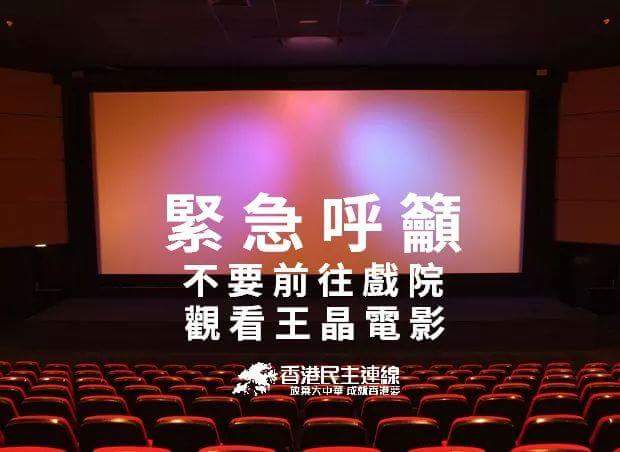
Hong Kong Democracy Online
Emergency Appeal
Do not go to the cinema and watch Wong Jing's movie

Call4van
Emergency appeal
All those who plan to watch From Vegas to Macau III
Please unlike this page yourself
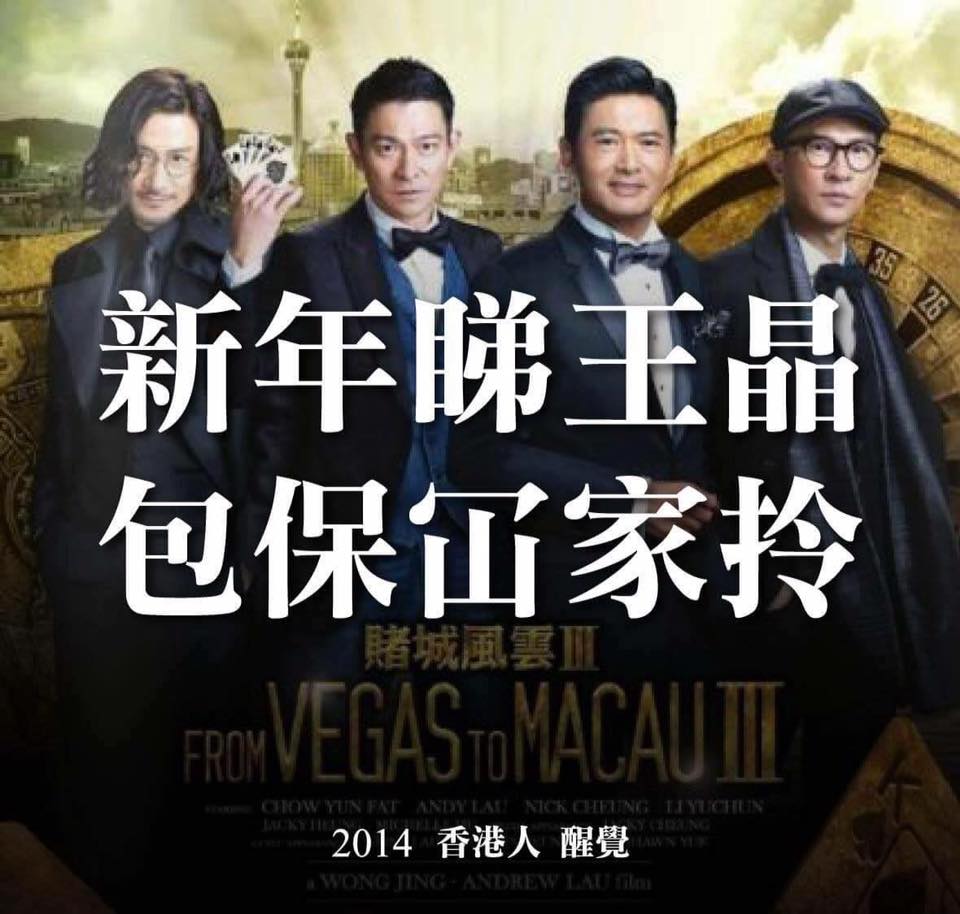
Watch Wong Jing during the Lunar New Year and
may your entire family suffer ill fortune
2014 The People of Hong Kong Wake Up
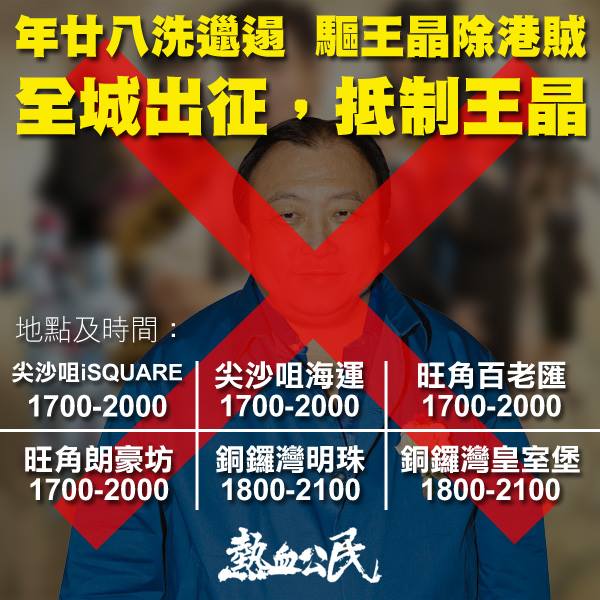
Civic Passion
Cleanse the filth away on Lunar New Year's Eve, chase Hong Kong bandit Wong Jing
away
Battle all over Hong Kong to boycott Wong Jing
Time and location:
1700-2000 iSquare Tsim Sha Tsui
1700-2000 Ocean Termina Tsim Sha Tsui
1700-2000 Broadway Mong Kok
1700-2000 Langham Place Mong Kok
1800-2100 Jade & Pearl Plaza Causeway Bay
1800-2100 Windsor House Causeway Bay
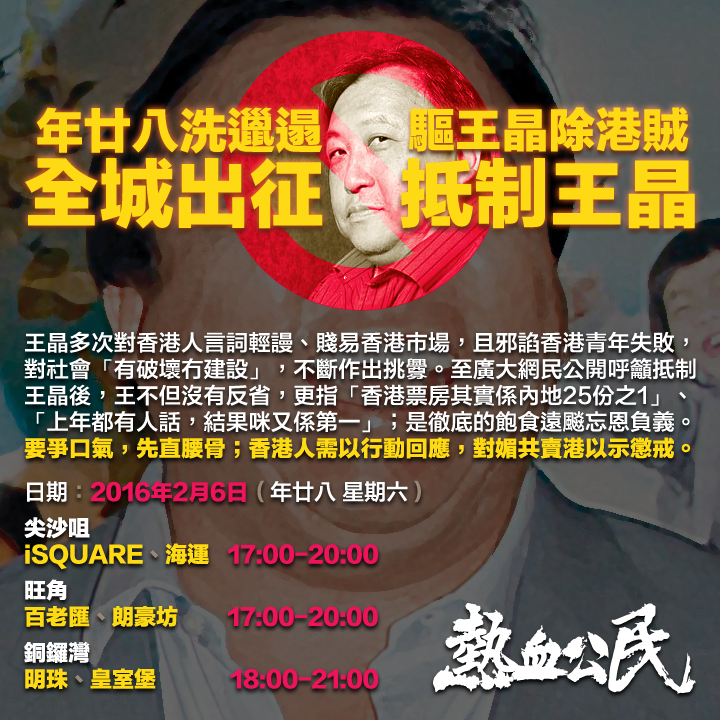
Oops! An analysis of manpower resources has reduced the list of locations to 3
out of the total of 60 on February 6, 2016:
1700-2000 iSquare Tsim Sha Tsui
1700-2000 Broadway/Langham Place Mong Kok
1800-2100 Jade & Pearl Plaza Causeway Bay
Videos:
From Vegas to Macau III trailer
https://www.youtube.com/watch?v=znlEkgjJkUs
From Vegas to Macau III: Theme
song sung by Jacky Cheung
https://www.youtube.com/watch?v=cq2SQft_X8M
Passion Times
https://www.facebook.com/passiontimes/videos/1043661902363643/
https://www.facebook.com/passiontimes/videos/1043696365693530/
https://www.facebook.com/passiontimes/videos/1043663929030107/
https://www.facebook.com/passiontimes/videos/1043681692361664/
https://www.facebook.com/passiontimes/videos/1043692852360548/
https://www.facebook.com/passiontimes/videos/1043698019026698/
https://www.facebook.com/passiontimes/videos/1043707149025785/
https://www.facebook.com/passiontimes/videos/1043712552358578/
https://www.facebook.com/passiontimes/videos/1043713735691793/
https://www.facebook.com/passiontimes/videos/1043715412358292/
https://www.facebook.com/passiontimes/videos/1043717865691380/
https://www.facebook.com/passiontimes/videos/1043721719024328/
https://www.facebook.com/passiontimes/videos/1043724889024011/
https://www.facebook.com/passiontimes/videos/1043735309022969/
https://www.facebook.com/passiontimes/videos/1043742209022279/
Shop Nono
https://www.youtube.com/watch?v=I95TsT8iJDs
Burn Your Accounting Books Again
https://www.facebook.com/1653476961570200/videos/1659377574313472/
Internet comments:
- Remember when Huang An picked on
Chou Tzuyu, the pro-democracy/freedom
Internet users rose up to defend the freedom of speech of entertainers? Now the
same pro-democracy/freedom Internet users are rising up to boycott director Wong
Jing's new movie From Vegas to Macau III. Nothing is more inspiring and
reassuring than consistency of position.
- The EJ Insight writer went from
"More
than 5,000 internet users have joined a Facebook community page called �Hong
Kong people dare to boycott Wong Jing� to "The boycott campaign
against Wong�s movie is the result of that perception among Hong Kong people."
This is just like Audrey Eu's banner about "98% of Hong Kong University alumni
don't want Arthur Li Kwok-cheung!" The truth was that of the 2% who bothered to
show up, 98% voted that way. Those who didn't show up were "represented" without
authorization. In like manner, 5,000 internet users became the "Hong Kong people."
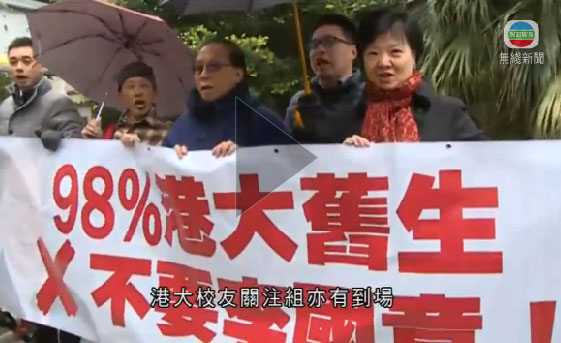
- Wong Jing has come out and says
that what happens in Hong Kong matters not much because Hong Kong is only
1/25-th of the China market. For
From
Vegas to Macau II, the gross in Hong Kong was HKD 28.4 million while the
gross in mainland China was CNY 974 million. As in GDP, Hong Kong is 3% of
China.
- Well, what are your options this
week anyway?
Alvin and the Chipmunks: The Road Chip (American cartoon)
Deadpool (American action)
Dirty Grandpa (American comedy)
The Good Dinosaur (American cartoon)
The Monkey King 2 (Hong Kong/mainland Chinese special effects)
From Vegas to Macau 3 (Hong Kong, action/comedy, Wong Jing)
Mermaid (Hong Kong, action/comedy, Stephen Chow)
The Hong Kong movies that are
scheduled to run this week are the ones considered mostly likely to succeed at
the box office. Lesser movies would be scheduled at less competitive periods.
- So do you want the young Yellow
Ribbons to give up From Vegas to Macau 3 to watch Alvin and the
Chipmunks instead? In reality, they will watch neither because they will go
to the mainland Chinese BitTorrent sites to download whatever it is that they
want to watch.
- If From Vegas to Macau 3
should rake in HKD 30 million, then the Civic Passion and the rest of the Yellow
Ribbons deserve to be insulted by the people of Hong Kong. Not only can they not
stop Wong Jing, but they also gave him a way to denigrate their influence.
- Wong Jing said that there won't
be a From Vegas to Macau 4. The difference between From Vegas to Macau
2 to From Vegas to Macau 3 is the additional cast.
From Vegas to Macau 2, the
main cast is:
Chow Yun-fat as Ken/Ko Chun
Nick Cheung as Mark
Carina Lau as Molly
Shawn Yue as Vincent
Jin Qiaoqiao as Aoi
From Vegas to Macau 3, the
main cast is:
Chow Yun-fat as Ken/Ko Chun
Nick Cheung as Mark
Carina Lau as Molly
Shawn Yue as Vincent
plus
Andy Lau as Michael "Dagger" Chan
(from the Knight of Gamblers)
Li Yuchun as Ko Fei
Jacky Cheung as Yik Tin-hang
Charles Heung as Lung Ng
PSY (of Gangnam style)
Wong Jing basically has nowhere to
go because he has rounded up just about everybody for this third installment
already.
- Wong Jing's weibo
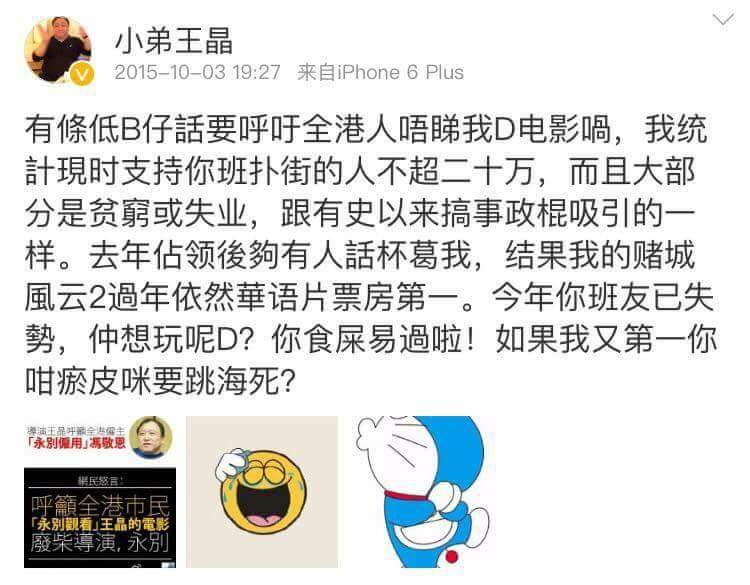
A fool is calling on all the people of Hong Kong not to watch my movies. I
estimate that you bastards have fewer than 200,000 supporters, most of whom are
poor and/or unemployed just like the political troublemakers. Last year after
Occupy Central, people called for a boycott of myself, but From Vegas to
Macau 2 was still the top grossing Chinese-language movie. This year, you
guys are losers but you still want to play this game? It is easier for you to
eat shit! If I am number one once again, will you jump into the ocean?
- Tiffany Chen's weibo
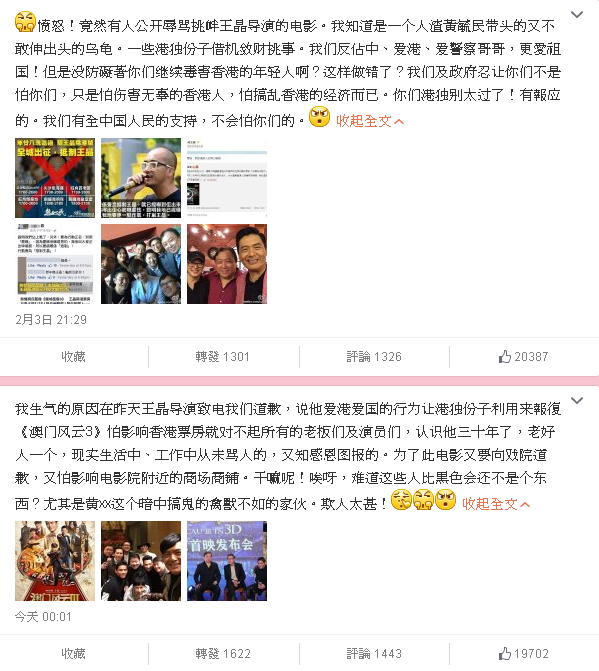
Anger! Somebody has openly insulted and challenged the movie directed by Wong
Jing. I know that it is a turtle led by Raymond Wong Yuk-man but doesn't dare to
show its head. These Hong Kong independence elements want to make money
off this opportunity. We oppose Occupy Central, we love Hong Kong, we love the
police brothers and we love the motherland! But did we get in the way of the
young people who continue to poison and hurt Hong Kong? Is this wrong? Our
government tolerated you but it doesn't mean that they are afraid of you. They
just don't want to hurt innocent Hongkongers, they don't want to cause chaos in
the Hong Kong economy. You Hong Kong independence people have gone too far! You
will pay! We have the support of the people of China and we are not afraid of
you.
The reason why I am angry is
that director Wong Jing called us to apologize. He said that his love Hong
Kong-China actions have caused the pro-Hong Kong independence elements to
retaliate against From Vegas to Macau 3. If this should affect Hong Kong box
office receipts, he would be letting down the bosses and the actors. I have
known him for 30 years. He is a good man. He has never cursed anyone out during
this work. He is also grateful and appreciative. He is apologizing to the movie
houses and also to the nearby malls and shops. Why bother? Sigh! Are these
people worse than triads? Especially that Wong XX who is worse than an animal!
This is going too far!
- Tiffany Chen is the wife of
Charles
Heung Wah-keung. The peculiar thing is that (1) Charles Heung is alleged
to be closely tied to the Sun Yee On triad; and (2) legislator Raymond Wong
Yuk-man is allegedly supported by the Sun Yee On triad. How to reconcile these
conflicting
facts?
- Is Wong Jing panicking with a
telephone call to Tiffany Chen? Tsk tsk tsk. The key fact is this: Tiffany Chen
is making these posts on weibo (for China) and not Facebook (for Hong Kong). So
while the Civic Passion wants to attack the box office in the 7-million Hong
Kong market, Wong Jing and company are using that fact to boost the box office
in the 1.4 billion mainland Chinese market. They couldn't have asked for better
promotional help. You have to wonder if Raymond Wong was working with Charles
Heung on this one.
- (Ming
Pao) On the first day of the Lunar New Year (January 8th, Monday),
Stephen Chow's<Mermaid> sold 41,788 tickets, Wong Jing's<From Vegas to Macau
III> sold 47,101 tickets, <Monkey Go West> sold 15,880 tickets and
Disney/Pixel's <The Good Dinosaur> sold 19,481 tickets.
- At 9am on January 8th, Wong Jing announced on his Weibo that <From Vegas to Macau III> has
surpassed the $100 million mark in box office gross sales.
- (Oriental
Daily) On February 8, Mermaid grossed $276 million; From Vegas
to Macau grossed $178 million; Monkey Go West grossed $170 million on
mainland China. These three Hong Kong-mainland China co-productions account for
94% of total gross ticket sales.
- (Oriental
Daily) During February 7-10, Mermaid grossed $13,316,817; From
Vegas to Macau III grossed $12,338,990; Deadpool grossed $10,726,511;
Monkey Go West grossed $7,615,829 in Hong Kong.
- Two weeks later, From Vegas
to Macau 3 has raked in 999.675 million RMB in mainland China. So it will
surely exceed the 1 billion RMB mark. This is better than From Vegas to Macau
2.
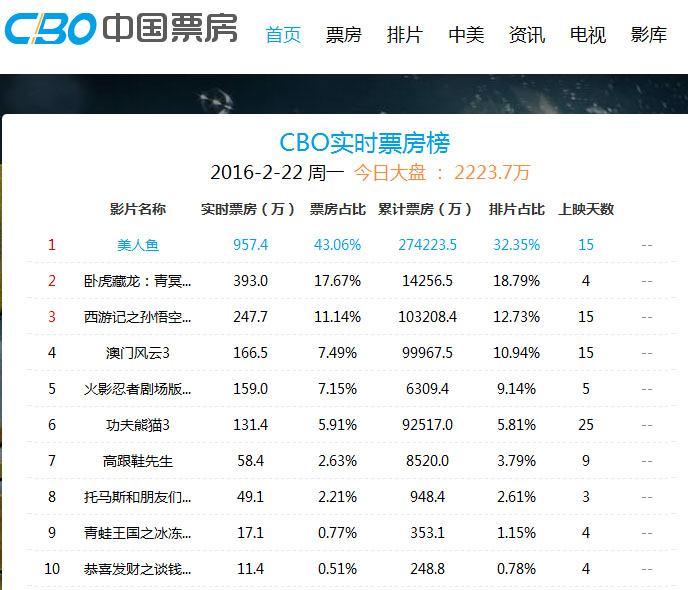
(Headline
News) February 1, 2016.
Previously HKU vice-chancellor
Peter Mathieson promised to arrange for the students to meet with HKU Council
chairman Arthur Li within 10 days. The HKU Strike Committee met yesterday
afternoon and decided to stop the class strike temporarily. They also came up
with three conditions for the meeting.
According to Strike Committee
member Yvonne Leung, the three conditions were (1) the meeting shall take place
on the Hong Kong University campus; (2) council members Timothy O'Leary and
Cheung Tat-ming shall be invited to attend the meeting; (3) HKU Campus TV will
be allowed to attend. The university has already rejected the first two
conditions.
Yvonne Leung said that Mathieson
and Li are respectively the vice-chancellor and the council chairman at Hong
Kong University. So there is no reason to rent another venue outside the campus
for this meeting. Therefore she questions whether the university is sincere in
having a dialogue.
Yvonne Leung also said that the
students are very sincere in having a dialogue. As to whether the meeting will
take place, it will depend on the sincerity of the university in accepting these
three conditins.
Yvonne Leung denied that the
reason for stopping the class strike was due to the poor participation rate. She
said that the movement is now moving into the dialogue phase. She emphasized
that the siege of the council members last week and today's meeting were
attended by sufficient number of students.
(SCMP)
Arthur Li adds fuel to the fire at University of Hong Kong. By Alex Lo. February
1, 2016.
Arthur Li Kwok-cheung is a fighter. His
natural instinct is to confront his antagonists. And that is exactly what
the new council chairman of the University of Hong Kong is doing by
denouncing student protesters and pan-democratic politicians who allegedly
goaded them on.
Chief Executive Leung Chun-ying is also
like that. Which is why he handpicked Li to head the council after the
failed tenure of Dr Leong Che-hung, a conciliatory and honourable man who
was trapped between the intransigence of student and staff leaders on the
one hand and that of the leftist press on the other.
Li�s suitability for the job is in
question. If his goal is to contain and roll back campus radicalism, he has
just added more fuel to it. Many Hong Kong people, including yours truly,
were turned off by the student protesters. Li could have waited a few days
before meeting the students, during which time plenty of public criticism
would no doubt come forth against the students� mob mentality. But Li called
a press conference the next day and made HKU chief Peter Mathieson sit
beside him. I just felt sorry for Mathieson, who has so far managed to
remain on relatively good terms with the student radicals. But after the
chaos this week, and his open denunciation of their mob antics, he has
evidently picked a side.
Instead of playing good cop, bad cop, now
you just have two bad cops. They didn�t host the event on campus, but at the
Bankers� Club. That shows:
1. HKU�s two top leaders can�t hold
meetings on their own turf.
2. The location just draws attention to
Li�s privileged and elitist background.
The press meeting, in which Li directed his
venom against his own students and the Civic Party, simply refocused public
attention on his own immoderation than that of his foes. No, Prof Li, the
students weren�t on drugs. I wish they were, which might have made them more
fun-loving and peaceful people.
Rather, they, and their supporters, suffer
from an excess of self-righteousness, fighting for abstract principles like
academic freedom which scarely affect them. That�s why their demands are
virtually unlimited because their idealism is unbounded.
Good teachers know how to channel such
idealism in their students towards worthy lifelong pursuits. Li is just
channelling all their anger at himself.
(SCMP)
February 1, 2016.
An urgent meeting among University of Hong
Kong (HKU) staff to discuss whether to support the students� call for a
class boycott had to be cancelled due a surprisingly low turnout � which
could reflect a lack of support for the cause, the
South China Morning Post has
learned.
This emerged as students decided on Sunday
night to temporarily suspend their boycott over the appointment of Arthur Li
Kwok-cheung as HKU council chairman and their call for a review of the
institution�s governing structure.
The HKU Academic Staff Association called
an extraordinary general meeting for last Friday to allow its 500 members to
vote on a motion to support the strike. However, fewer than 25 people turned
up at the lunchtime session � lower than the required quorum.
Association chairman Professor William
Cheung Sing-wai confirmed the vote had been cancelled, but would not
speculate on the reason behind the low turnout. �It is hard for me to guess
why the members did not attend the meeting since they did not show up to
convey their thoughts,� Cheung said. �I guess it is possible that some
people are not interested in the matter, or that some just dare not show up
and express their views.�
This was the first time that the
association had called an extraordinary meeting to vote on an urgent
subject, he said. Members were notified a week beforehand. An HKU staff
member who preferred to remain anonymous believed it suggested that HKU
staff had grown tired of the ongoing conflict and now wanted to focus on
teaching and research activities.
(Hong
Kong University) Response by the University of Hong Kong Council
regarding a proposed meeting between the Chairman and the Students� Strike
Organizing Committee. February 2, 2016.
The Chairman
of the University of Hong Kong Council Professor Arthur Li Kwok-cheung,
after agreeing in principle last Tuesday (January 26) to hold a meeting with
student representatives within ten days, has been working through University
management with the students on the detailed arrangements.
Unfortunately,
after setting the time for the meeting and booking of venue, the students
concerned raised a number of conditions. The students insisted on holding
the meeting on campus and to have teaching staff members and campus media
present.
Taking into
consideration what happened at the Sassoon Road campus where the
University�s last Council meeting was held, the University is of the view
that safety concerns should be the first priority when considering the
meeting venue. It is the University�s responsibility to exercise due
diligence in protecting the safety of those involved, including meeting
participants, as well as staff and security personnel. Since the HKU
Students� Strike Organizing Committee has provided neither assurances nor
suggestions demonstrated to be effective in guaranteeing safety on site, we
regard it more appropriate to hold the meeting out of the campus due to
safety concerns. That is why we have already booked an alternative venue.
The aim of the
meeting is to provide an opportunity for an exchange of views between the
Council Chairman and students. In this regard, it is inappropriate to
include teaching staff members at the meeting. The President Professor
Peter Mathieson, who is also a member of the Council, has agreed to sit in
at the meeting. His presence will satisfy the demand by students to have
Council members present at the meeting.
The University
has been in due course liaising with television news outlets for a live
video broadcast of the meeting, so as to ensure that the meeting will be
held in an open and transparent manner. Campus and other news media outlets
will be able to view the discussions live. Representatives of students�
campus media outlets can also be included as student representatives at the
meeting.
Professor
Arthur Li has shown his greatest sincerity in reaching out to the students
for a meeting in the past few days. The students had made the demand for a
meeting with the Council Chairman in the first place but they then added
conditions to that demand. It is reasonable to cast doubt on the sincerity
of the students for genuine engagement.
- The Strike
Committee said that the university unilaterally booked a hotel for the
meeting without the concurrence of the students. The three conditions from
the students were offered on Wednesday and therefore they are not additional
demands. The Strike Committee said that the students found the university's
response unacceptable. Furthermore, the conditions named by the university
are at odds with what the Strike Committee meeting came up with. Therefore
the students will need more time to consider. The Strike Committee said that
the fact that the students have not suspended the dialogue meant that the
students want to continue to push for reforms in governance. They hope that
they can have a constructive dialogue with the university before the next
council meeting. The Strike Committee was scheduled to have the dialogue
with Arthur Li on Wednesday. But the Strike Committee has canceled the
meeting because the university refused to comply with the conditions that
they demanded.
(SCMP)
Students and junior staff at the University of Hong Kong have fallen through the
looking glass. By Alex Lo. February 2, 2016.
Some people have a one-track mind. The
incoming student union president of the University of Hong Kong says one of
her goals is to revamp the institute�s governing council. Althea Suen also
says she will follow in the footsteps of her predecessor Billy Fung Jing-en by
breaching confidentiality rules whenever she considers it is in the interests
of justice and the public to do so. Umm, what is justice and public interest
anyway? Perhaps the third-year social work student can enlighten us.
What this means in reality is that we can
expect more rallying of students against council members � hijacking meetings,
disrupting classes, and falsely detaining and harassing university personnel.
Somehow I don�t think that�s the purpose of a
student union. Such groups used to help improve the quality of life on campus,
organise parties, demand better amenities and more student subsidies and
scholarships, and fight any fee hikes. At least that was the case when I was a
student.
Since when has the HKU student union thought
it was its job to revamp the decision-making council? I think it should be the
other way round. But what do I know. The students are not there to learn, but
to teach their elders how to do things.
Likewise, the HKU�s Academic Staff
Association, run mostly by the more junior staff suffering from serious envy
of their more professional and accomplished colleagues, has been busy
following the lead of the student union. It tried to get members to a meeting
to support the students� class boycott. No one showed up. Even student leaders
were forced to call off their boycott. As one HKU professor wrote to me, the
job of the association should be to focus on matters such as promotion,
tenure, contract extension, salaries, medical benefits, health and job safety.
Why does it think it should involve itself in
wider politics and bring the city�s conflicts to the once tranquil campus of
our oldest and most respected university?
The union and association say they are
fighting for institutional autonomy and academic freedom. But these mean
nothing if your school becomes too mediocre to matter. This is the real danger
your school is facing. What you are doing is not helping to improve HKU�s
academic standing and reputation, and will only bring more disruption and
acrimony to your school.
(SCMP)
February 4, 2016.
A proposed meeting between University of Hong
Kong students and council chairman Arthur Li Kwok-cheung to discuss university
reform remains up in the air as the rift between the two sides has widened.
Wednesday�s scheduled meeting was cancelled,
with students and Li blaming each other, and a council member complained of
how she suffered when protesting students besieged a council meeting last
week.
The two sides were in talks to set up a
meeting after the council, under pressure from student protests, agreed in
last Tuesday�s meeting to address their demand for a review panel to discuss
reforming HKU�s governance structure.
While Li said he doubted students sincerity,
a class boycott committee, which held the student protest last week, said in a
statement late on Tuesday night that they had been �wronged�.
�The committee has borne in mind the
interests of the university and has tolerated the unreasonable acts of the
council many times,� the statement read.
Students claim reform is necessary to prevent
further political interference into the council, which entered a political
storm last year in the wake of Occupy Central. It rejected pro-democracy
professor Johannes Chan Man-mun�s candidacy for a university managerial post
despite a search committee recommending him for the post.
Students want a review to strip Hong Kong�s
chief executive of his default position as HKU chancellor, and of his power to
appoint council members.
In the talks to set up the meeting with Li
and HKU vice chancellor Peter Mathieson, the students have demanded the
meeting be held on the campus in the presence of two teachers who sit on the
council and that the campus TV be allowed to broadcast proceedings live. But
Li insisted the meeting be held outside campus for security reasons.
Internet comments:
- I've seen this script before:
(1) You fucking sit around for a while and nothing happens
(2) You decide to get some physical exercise, so you fucking get up and charge a
few rounds without getting anywhere
(3) You decide to hold a dialogue and you fucking get nowhere with the word
games
(4) In the end, you get fucking nothing whatsoever no matter what you do.
- This gets to the same point at
the end of Occupy Central -- there are no cards left to play.
- There are more cards (such as setting off bombs) but they are too scared to
play them.
- Never in the history of Hong
Kong student movement has there been such a miserable failure.
On day 1, they called for a general student strike and a couple hundred out of
30,000 showed up.
On day 2, they got fewer than 100.
On day 3, they didn't even bother to meet.
On the day of the council meeting, there were 200 people of which more than half
were professional demonstrators from outside the school.
The Strike Committee needs to call for a 20,000-person march to force the
university to accept the three conditions for the meeting. OR ELSE!
- And who picked the schedule
anyway? The students are ready to leave for the Lunar New Year holidays. Who is
going to hang around for this meeting? This is like asking bank workers to
strike on Sunday!
- They could have kept the strike going through the Lunar New Year period. After
all, there are no classes and therefore the strike can be pronounced to be
totally successful.
- Why does the Strike Committee
insist that Timothy O'Leary and Cheung Tat-ming must be present at the meeting?
What is their role in this meeting? I think that the concern must be that the
students won't be able to deal with Arthur Li. Like the Council meetings, this
meeting will be conducted in English. That would render current HKU Student
Union president Billy Fung Jing-en speechless, because his English is terrible
by his own admission. Fung's role will be to send text messages to people on the
outside. Chances are only Yvonne Leung can hold a dialogue in English. But she
will be nowhere as familiar with the details and subtleties of the issues as
Arthur Li. That is why they will need help from the 'adults' Timothy O'Leary and
Cheung Tat-ming. However, the university will say that this meeting is with the
students, and not any other persons.
- (Ming
Pao) Strike Committee member Yuen Yuen-lung just said that the Strike
Committee will select five student representatives to attend the meeting. He
said that there will be Strike Committee members but not including former
Student Union president Yvonne Leung, former Undergrad deputy
chief-editor Wong Chun-kit or himself. Also, the Strike Committee has not yet
decide whether they will demonstrate outside the meeting place, or to blockade
the place and prevent Arthur Li and Peter Mathieson from leaving.
- The university has agreed to let
Campus TV be present. Why? Because they are confident that Arthur Li will win
and they want the entire proceedings to be publicly available instead of a "he
said, she said" situation based upon Billy Fung's text messages.
- Why won't Li and Mathieson meet
the students on HKU campus? Because they don't want to go through another round
of false imprisonment by professional demonstrators from the outside. And
everybody knows that it is bad thing to have to summon the police to come into
the campus, right? Hehehe.
- The students say that the
council meeting must be aired live for the sake of transparency. Meanwhile when
the Strike Committee meet, they do so in a closed room with the windows taped
up.
- Margaret Ng has just called
Arthur Li the Communist Party secretary. So now the Strike Committee is putting
the party secretary under
shuanggui
-- Li has to report to appear in front of the authorities at "the appointed time
and place."
- Why do the students insist that
they must have Timothy O'Leary and Cheung Tat-ming present at the meeting, or
else the meeting is a no-go? They say it's because the reform in governance
involves the teachers and staff as well and therefore they must have their
representatives.
There are two flaws in this
argument.
Firstly, if you believe that the
teachers and staff members are stakeholders, then why these two and not the
other teachers and staff members on the university council? For example, Lo
Chung-mau was elected by universal suffrage of the teachers. Why can't he be
included in the meeting? The answer is simple: O'Leary and Cheung have been
sympathetic to the students, and the students want two sympathizers who will be
said to 'represent' all the teachers and staff members at the university. The
students do not want dissident opinions from teachers.
Secondly, the students know that a
student strike is hopeless at this point. The highest number for the strike
committee meeting is 300 on day one according to the organizers. But if the
students can drag the teachers and staff members into the battle, things will be
different. When one teacher calls off a class, the entire class of students
will automatically be on 'strike.' When the academic staff association called
for an extraordinary general meeting, nobody showed up because they don't want
any part of a losing cause. Getting Timothy O'Leary and Cheung Tat-ming into the
meeting will hopefully ignite the teachers and staff members if they get into a
verbal (or, better yet, physical) argument with Arthur Li.
- Cheung Tat-ming is 20 years
younger than 70-year-old Arthur Li, but Li was a rugby player who obviously
knows all the dirty fighting tricks. So I put my money on Arthur Li over Cheung
Tat-ming. I predict that the fight will be over in less than 10 seconds, and
Cheung Tat-ming will summon the police to come on campus.
- Since there is no class boycott
and no dialogue, I want genuine hunger strike!

- (Local
Press) Wan Chin: Hong Kong will come under the domination of the child
soldiers. February 2, 2016.
Late last year, students of Lingnan
University had also surrounded the school council. At the end, the council
members came out and held a dialogue with the students, and the crisis was
over.
Now, what attitude has university council
chairman Li Kwok Cheung taken towards the students who have demanded a
dialogue with the council? How could he make a meal out of the matter,
letting things get completely out of hand?
Leung Chun-ying of the clan of local commies
has sent along these veteran boxers to play practice matches with the
radical young people, creating for Hong Kong�s elderly generation a
stereotypical impression of corruptness and haughtiness, all for the
purpose of provoking in Hong Kong generational clashes, which would spur
the young people to usurp political power. The Beijing regime has been
watching the whole drama with very mixed feelings.
With the rootless young generation of Hong
Kong increasingly gaining ground, and the whole middle-aged generation of
worldly-wise successors ousted, Hong Kong�s political arena will face a
break in its intellectual lineage as well as its knowledge lineage. As a
result, Hong Kong will come under the domination of the child soldiers.
Child soldiers such as those of Scholarism
and Youngspiration are certainly unable to fight, but they would listen to
the words of the US, and they would also take instructions from the wily old
birds behind the scene. This is Leung Chun-ying�s political mission, which
is exactly the mission Lee Teng-hui had in former times when he was with the
Kuomintang. His mission was to bring about a rout of Kuomintang�s
middle-aged successors, clearing the deck for the child soldiers of the DPP
(Democratic Progressive Party) to take over control, a crucial step to place
Taiwan under the sway of the US.
(note: To fully understand this posting, an
IQ of 130 is needed.)
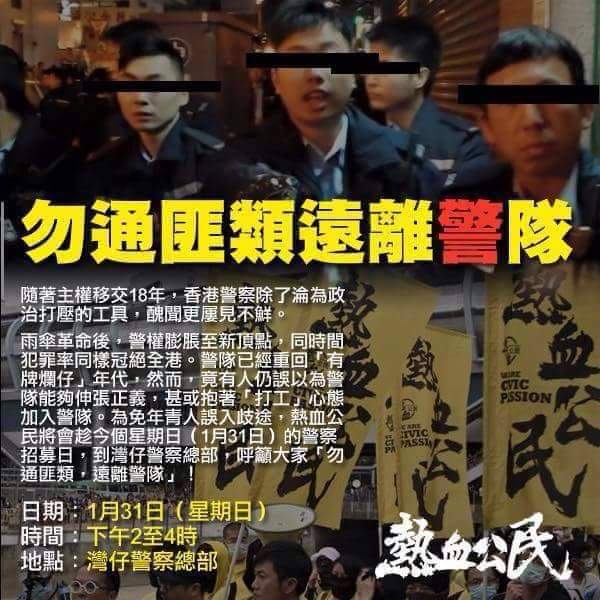
Civic Passion
Do not have any contacts with the gangsters, stay far away from the Police Force
18 years after the transfer of sovereignty, the Hong Kong Police has become a
tool of political oppression with frequent scandals.
After the Umbrella Revolution, police authority has been expanded to a new high.
At the same time, the crime rate is also the highest in Hong Kong. The Police
has returned to the era of "licensed gangsters." Yet many people still think
that they can join the police to carry out justice, or else they think that they
can join the Police for a 'job'. To ensure that young people do not end up in
the wrong path in life, Civic Passion will proceed this Sunday (January 31) to
the Wanchai Police Headquarters on Police Recruitment Day to call on everyone
"not to have any contacts with the gangsters and to stay far away from the
Police Force
Date: January 31 (Sunday)
Time: 2pm-4pm
Location: Wanchai Police Headquarters
(Oriental
Daily with video) January 31, 2016.
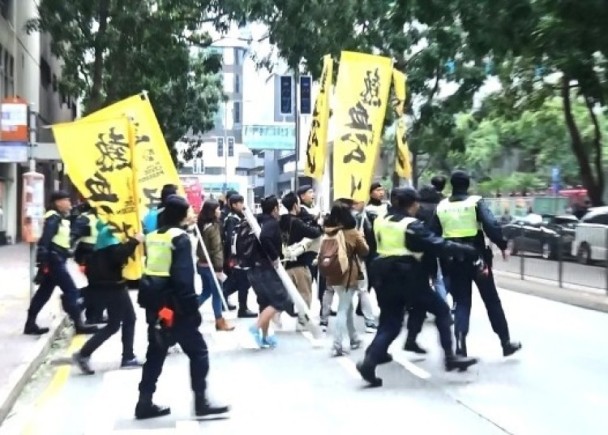
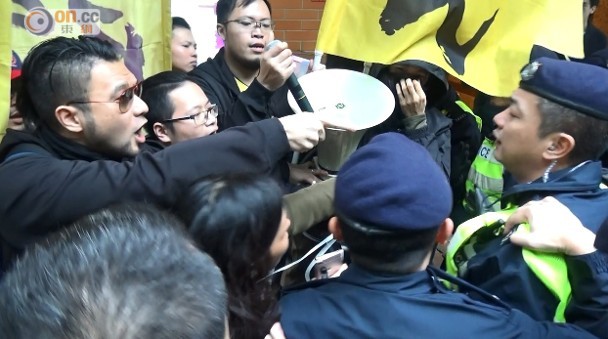
About a dozen or so Civic Passion
members demonstrated outside Wanchai Police Headquarters. On the way, they
charged out onto Locke Road but the police chased them back onto the sidewalk.
There was a mild physical clash. After the Civic Passion members returned to the
sidewalk, they heaped obscenities on the police. In the afternoon, the Civic
Passion members engaged in a megaphone-enhanced war of words with members of
Defend Hong Kong Together and Treasure Group across the road. The police
separated the two sides which continued to shout and yell at each other.
The two pro-Police groups had 30
to 40 persons. They were petitioning the police to say that certain political
parties in Hong Kong have become organized crime gangs trying to smear the
police. The groups thank the police for defending Hong Kong/China. They also
asked the police to enforce the law against those persons who incited the
students and imprisoned the council members during the HKU council meeting.
Videos:
Good News Hong Kong Facebook
https://www.facebook.com/HongKongGoodNews/videos/1021411434599459/
Lots of "Fuck your mother"s from the screaming gangsters who are caged behind
police metal barricades.
Oriental Daily
https://www.facebook.com/bbtauseeworld/videos/448478675349515/
Passion Times
https://www.youtube.com/watch?v=jhMfMoBJR-A Arguing with the police to
be allowed to proceed to Wanchai Police Headquarters. Plenty of shouting of
"Down with the Communist Party!"
Passion Times
https://www.youtube.com/watch?v=xlJQHeZxZ-Y Shouting match against the
pro-Communist demonstrators across the street.
Passion Times
https://www.youtube.com/watch?v=t-NNODG0K-Y Interview with a westerner
who was protesting along with the pro-Communist demonstrators.
Institute of Studies on Hong Kong
Independence Young Wastrels Facebook
https://www.facebook.com/443826885806614/videos/467738820082087/ The
pro-Communist counter-demonstrators chant "Civic Passion, Hong Kong sinners."
Who's got more people?
Internet comments:
- I watched the videos and I was
expecting to see a huge show of force by the gangsters. But there were only a
dozen or so foul-mouthed gangsters dressed in black. Their leaders were
elsewhere taking a group photo:
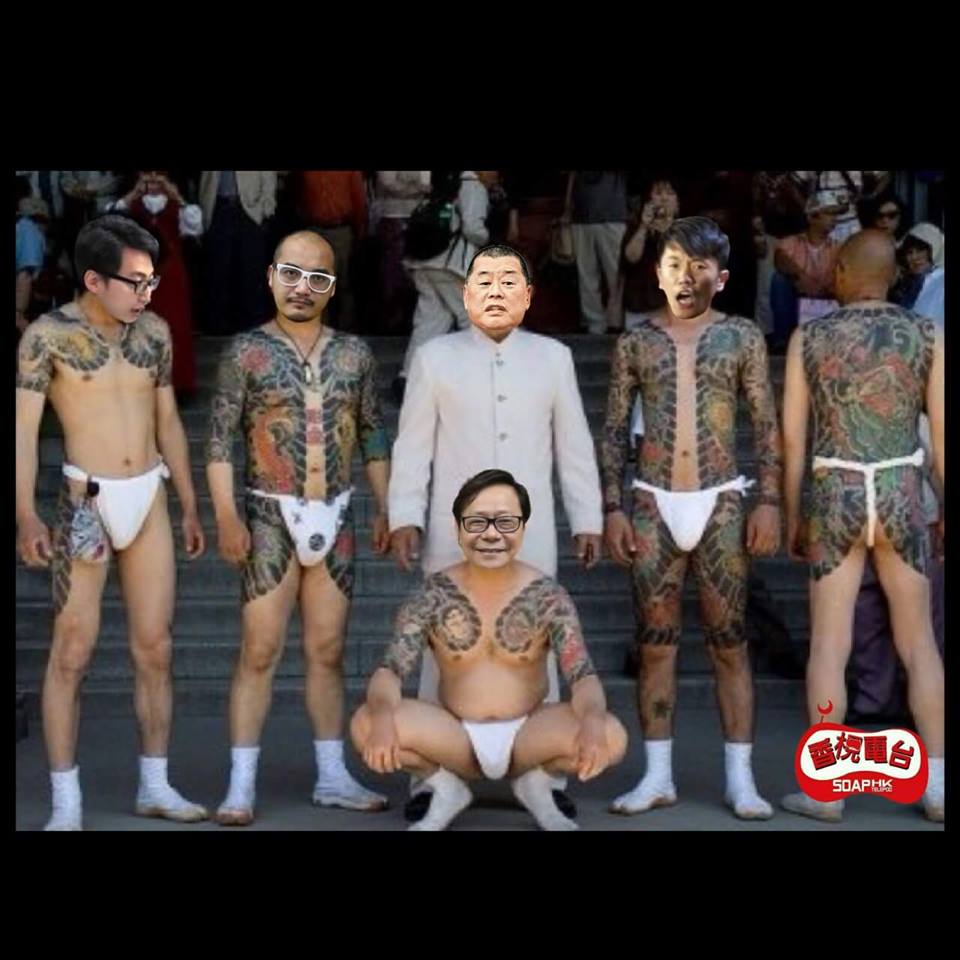
Or were they burning joss sticks
to Lord Guan?
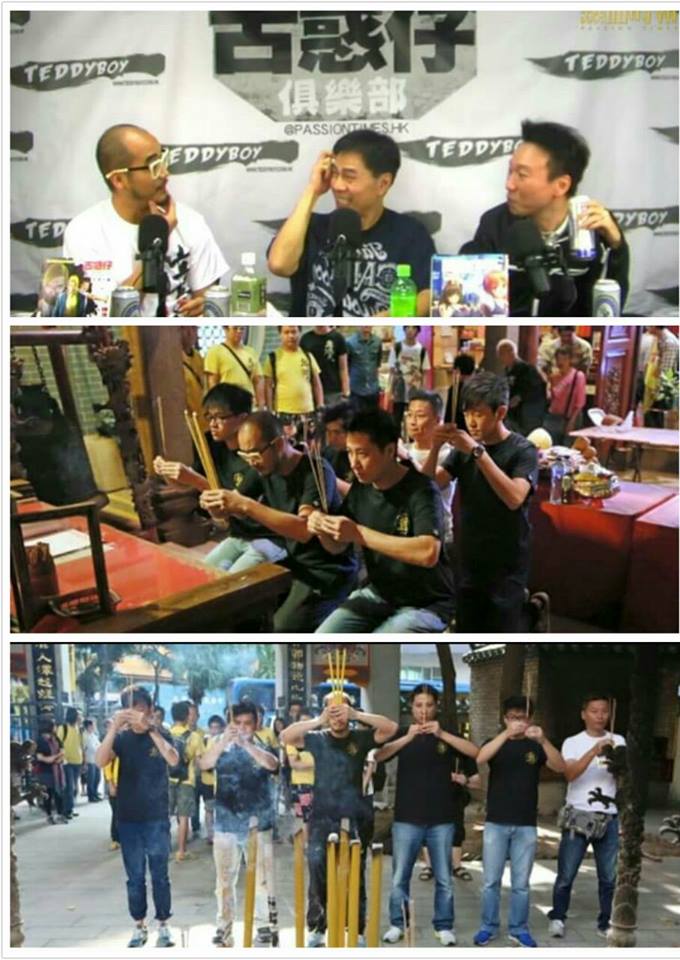
- Okay, I get that Civic Passion
hates the police canines. (Hong
Kong Free Press) October 14, 2015. But what did Civic Passion do when
protestors showed up at the Passion Times office? They called the police uncles
for help. Naturally.
- Okay, so I watched the videos
and I have a question: Is repeating "Fuck your mother's stinking cunt" many
times really going to bring the Chinese Communist Party down?
- The Chinese Communist Party is based in mainland China, and they can't even
hear you yelling in Wanchai, Hong Kong Island. In order to be effective, these
Civic Passion people need to cross the border and do it inside mainland China.
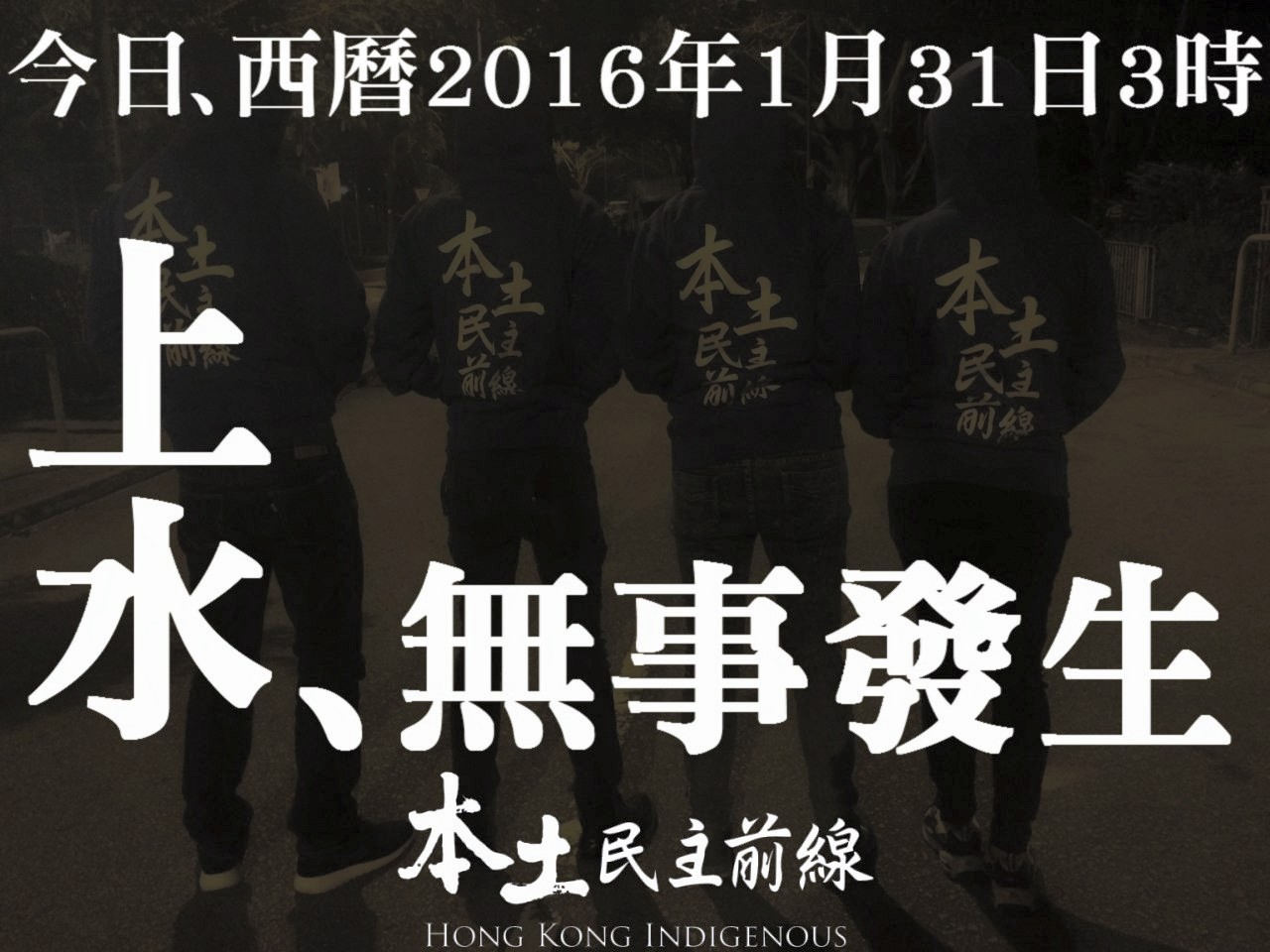
Hong Kong Indigenous
2016 January 31 3pm
Sheung Shui
Nothing happens
(Oriental
Daily with video) January 31, 2016.
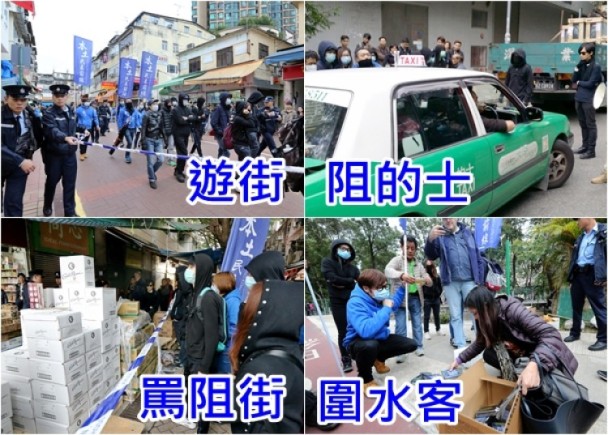
Hong Kong Indigenous started a
Recover Sheung Shui movement this afternoon. About 30 members started at 3pm
from the Sheung Shui MTR to the parallel trade distribution centers in the
Advanced Technology Centre industrial building and the dispensary-filled Hong
Chai Street. Some of the participants wore face masks. As soon as the
demonstrators what looks like a parallel trader, they rush over and curse. When
they find merchandise stacked outside a dispensary, they yelled "Obstructing
traffic!" with obscenities added.
During the demonstration, one
female suspected of being a parallel trader got scared, discarded her wares and
tried to leave. The demonstrators stopped her and ordered to "pick up the
trash." So she had to pick up her wares in a cardboard box and left. The
demonstrators spotted five individuals suspected of being parallel traders
getting into a taxi with a lot of merchandise. So they stopped the taxi. The
taxi driver was angry and came out to have a war of curses with the
demonstrators. The police came to separate them. Later, the demonstrators went
back to Sheung Shui MTR station. They declared that they will Recover Sheung
Shui every day. Then they dispersed peacefully.
Videos:
Born in a Time of Chaos Facebook
https://www.facebook.com/1640482902830291/videos/1689322787946302/ The
clash with the taxi driver. The police came, inspected the taxi, declared that
there were five passengers with four suitcases (not merchandise) and let the
taxi proceed.
North District Parallel Imports
Concern Group
https://www.facebook.com/1640482902830291/videos/1689324307946150/ The
suspected female parallel trader.
Lost Dutch
https://www.facebook.com/LostDutch/videos/1521164744845949/ Bullying a
senior citizen
Internet comments:
- The Chinese term 示威 for
'demonstration' literally means a "show of force." The strength of that force is
reduced if you wear a mask, because it shows that you are afraid (of being
identified and then subjected to retaliation).
- Been there, did that. But things
have gotten worse now because the parallel imports industry has matured. The
driving factor is the establishment of a full distribution network on the other
side of the border which these demonstrators can do nothing about. This network
can accept any and all goods brought across the border and quickly locate
buyers. There is no uncertainty left. Meanwhile the parallel traders who carry
the goods across the border are increasingly Hongkongers who are being paid $600
per day. That's $18,000 a month compared to the average starting salary of
$11,000 per month for university graduates.
- They were able to call up 30
people on a Sunday for two hours. What does it mean for them to say that they
will be back every day from now on? How many will come? Numbers matter here.
When you have 30 people, you can bully 1 taxi driver. When you have 2 people,
the 4 dispensary guys will beat the crap out of you.
- If these Localists are genuinely
concerned about the plight of the people, they should be chasing after the South
Asian criminals that are running amok in the streets of New Territories North. Most of the parallel
traders are Hongkongers now, and they are trying to make a living without having
to go on welfare.
- Where are the Localists on this
one?
Hong Kong Island MTR train
February 4, 2016 7:30pm

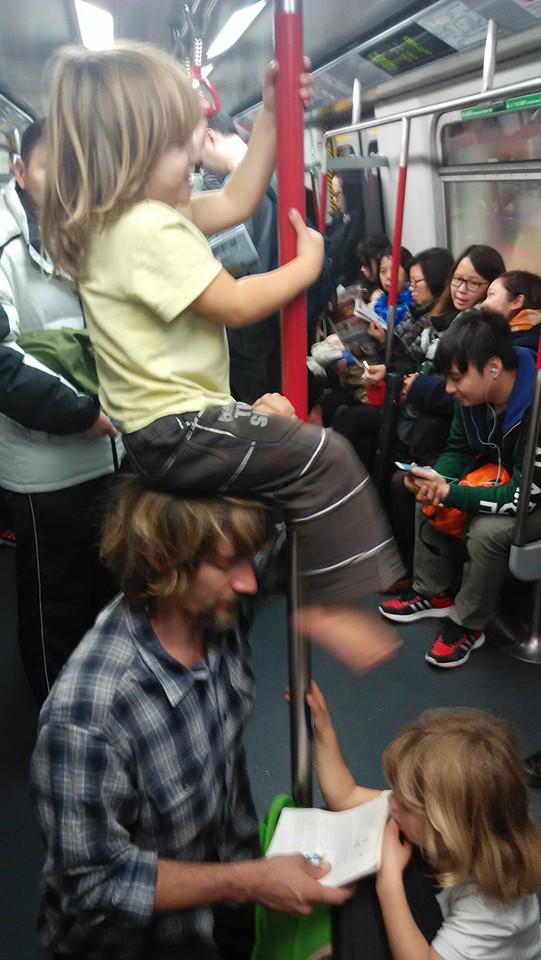
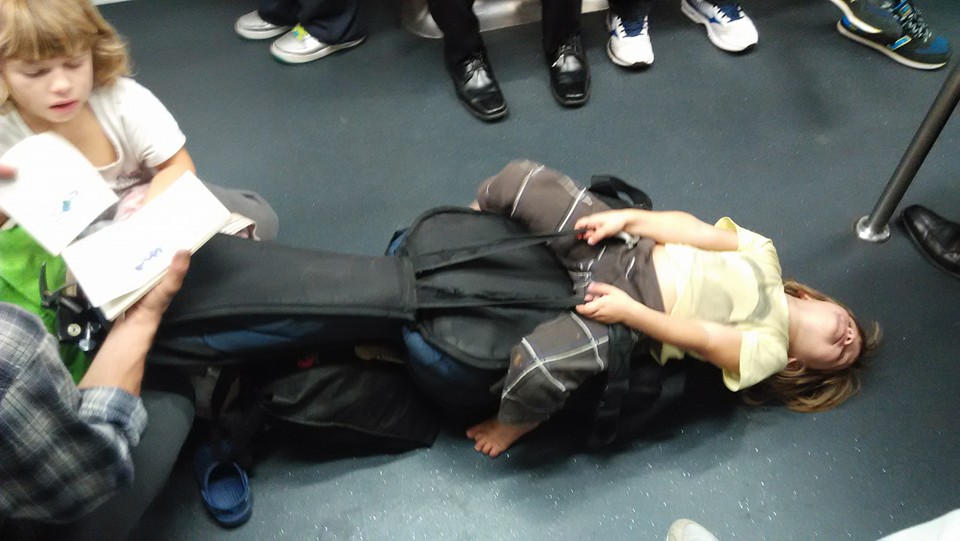
- (Kinliu)
On Sunday, some localist organization with
about 30 members went around Sheung Shui to curse out suspected parallel
traders, tossing joss money to harass shops, preventing taxis from leaving
with suspected parallel trade goods. Apart from the one courageous taxi
driver who dared to object, the shopkeepers shuttered their gates and
passersby fled.
It was not as if the police were absent.
All the police officers present were there to watch, even as these people
were suspected of criminal intimidation and disturbing the peace. The police
made no attempt to deter or arrest anyone.
The behavior of these people are no
different from the triad gangs. If these were triad gangs, the police would have
busted them very early on. However, these people carried the title of "Localist
something or the other" and "Democratic something or the other." That is why
the police stood back.
So my advice is that the triad gangs should
rename themselves appropriately. Thus, Sun Yee On should become "Localist Sun Yee On," 14K
should become "Democratic 14K," Wo Shing Wo should become "Freedom Wo Shing
Wo," etc. Then they become Untouchables.
The Vice-Chancellor finally wakes
up!
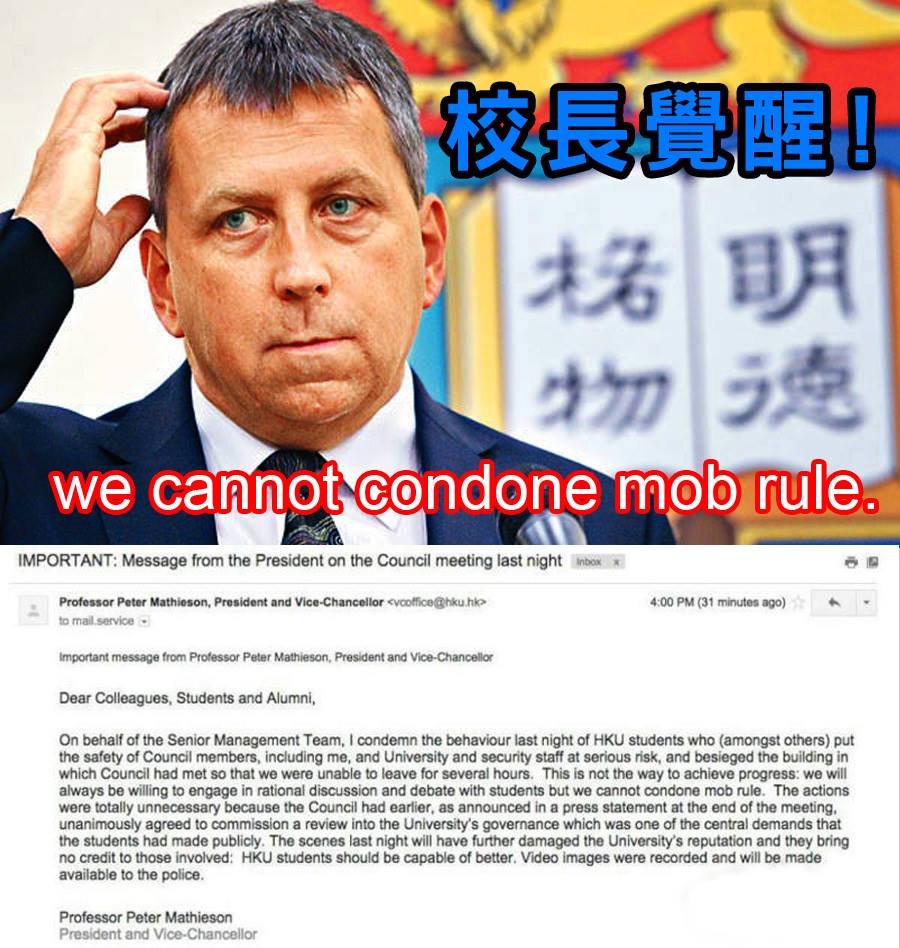
(Hong
Kong Free Press) �Mob rule�: HKU vice-chancellor condemns students for
surrounding governing Council meeting venue. January 27, 2016.
The president and vice-chancellor of the
University of Hong Kong (HKU) has condemned student protesters for
surrounding the venue of a governing Council meeting on Tuesday. In an email
sent to staff members, students and alumni on behalf of HKU�s Senior
Management Team, Peter Mathieson said that the behaviour of HKU students and
other protesters put the safety of Council members, including him, and the
university and security staff at serious risk.
�This is not the way to achieve progress:
we will always be willing to engage in rational discussion and debate with
students but we cannot condone mob rule,� said Mathieson. Previously, Arthur
Li had said that he accepted his new role as chairman as he did not want
�mob rule� in Hong Kong.
Mathieson added that the students� actions
were �totally unnecessary.� �[B]ecause the Council had earlier, as announced
in a press statement at the end of the meeting, unanimously agreed to
commission a review into the University�s governance which was one of the
central demands that the students had made publicly.�
�The scenes last night will have further
damaged the University�s reputation and they bring no credit to those
involved: HKU students should be capable of better.� Mathieson concluded by
writing that �Video images were recorded and will be made available to the
police.�
However, HKU Student Union president Billy
Fung Jing-en said on Wednesday morning that it was hard to avoid chaotic
scenes, as the Council did not respond to their demands. �The students�
actions were very reasonable, there were more police on the scene than
students, and I have seen an officer pointing a pepper spray canister at
students,� Fung said, adding that students only wanted to talk to the
Council members.
(SCMP)
�We cannot condone mob rule�: University of Hong Kong vice-chancellor condemns
students who besieged council meeting. January 28, 2016.
The University of Hong Kong�s
vice-chancellor has condemned as �mob rule� the siege of a governing council
meeting on Tuesday night. Professor Peter Mathieson said the scenes would
not bring credit to those involved and that HKU students �should be capable
of better�. He has offered to hand over videos of those involved to police.
But Billy Fung Jing-en, president of the
HKU Students� Union and a member of the school council, said their actions
were reasonable, though he himself had voted for conducting the evaluation
in two months. He denied his actions and words were �contradictory�, saying
he was trying to get the best from a �defective system�.
In an internal email to HKU staff members,
students and alumni, Professor Mathieson, said video images of the protest
were recorded and would be made available to police. �I condemn the
behaviour last night of HKU students who [among others] put the safety of
council members, including me, and university and security staff at serious
risk, and besieged the building in which the council had met so that we were
unable to leave for several hours,� said Mathieson. �This is not the way to
achieve progress: we will always be willing to engage in rational discussion
and debate with students but we cannot condone mob rule.�
The council on Tuesday had �unanimously
agreed� to set up a review panel to study the governance and effectiveness
of the institution. Students had demanded that in the wake of a series of
controversies surrounding liberal scholar Johannes Chan Man-mun�s rejection
for a key managerial position, which many saw as the result of political
interference.
Fung revealed that it was Li who opposed
the idea of conducting an immediate review. The chairman had said that such
an evaluation should be done after the release of the University Grants
Committee�s consultancy report on governance of all the city�s universities,
which is expected in two months. �I think the students� demand to conduct an
immediate review is fair ... as the school could first conduct a
self-evaluation ahead of the release of the report,� Fung told Commercial
Radio on Wednesday morning. He said he still decided to vote for the
resolution to delay the review because he was the only one on the council to
press for an immediate evaluation, whereas the council had accepted his
suggestion to include the students� three key demands for the panel,
including a review of the rule which stipulates the chief executive is the
school�s default chancellor.
Fung also said that the students� demand to
meet Li on Tuesday night was reasonable. �There is a need for Li as council
chairman to explain the council�s decisions to students. He also has the
responsibility to try to address students� demands,� Fung said during an
RTHK talk show. He added that the students had remained calm when Professor
Mathieson spoke to them. He said the question should be why students had had
to resort to besieging the meeting. �The students initially wanted Li to
respond to them. I think this was a fair demand ... Communication is
two-way. When he did not start a conversation, then students tried to start
one,� Fung said.
Fung told Commercial Radio that Li
conducted the meeting in a sterner fashion than his predecessor, Dr Leong
Che-hung. Li would urge speakers to conclude their speeches and would even
interrupt, while Leong allowed members who had different views to freely
express themselves, Fung recalled, which he believed was important. Fung
also hoped the coming meeting with Mathieson and Li, promised by the former
to take place in 10 days, would bear fruit.
Separately, council member Eric Cheung Tat-ming
said he did not think the council�s decision to set up the review panel two
months later was a delaying tactic as perceived by some students, though he
found their protest understandable as they had lost trust in the council
because of the previous controversies.
(Hong
Kong Free Press) HKU council chair says irrational students acted as if
�on drugs�, Student Union president a �liar�. January 28, 2016.
University of Hong Kong Council
Chairman Arthur Li has said that students were who were protesting on campus on
Tuesday night were like people who �took drugs� and were �poisoned�. Speaking at
a press conference on Thursday, Li said that the students were very idealistic
and had been misled. �Sadly, these small number of students are rather like
people who�ve taken drugs, who�ve been poisoned by drugs� they�ve been
manipulated, and once you�ve taken drugs, your behaviour can become very
irrational,� he said.
On Tuesday, students besieged a meeting of
its Council demanding reform of its structure following controversies last
year regarding Li�s appointment as deputy head.
Li called HKU Student Union president Billy
Fung Jing-en a �liar�, saying that he gave false information to the students
that Council members refused to set up a review panel to examine the
Council�s structure, when � in fact � they had. �This is a blatant lie, and
yet the students believed that and took radical action,� he said, adding
that he welcomed students� opinions and was willing to listen to them.
Li said that political forces were
manipulating students, namely members of the Civic Party and other
pan-democrats. �One of them is [the Civic Party�s] Alan Leong Kah-kit�s
intern � she started a class boycott� because Johannes Chan was not
appointed to the position they wanted,� Li said. �You can�t force me to meet
you by pointing a gun at me,� he added, claiming that the Civic Party had
threatened the Council.
Li denied that reports in the pro-Beijing
Wen Wei Po newspaper about the nomination of pro-democracy scholar Johannes
Chan were political interference. The Council rejected Chan�s nomination
with Li taking the HKU Council chairman position last December.
�Apple Daily everyday criticises everybody
� you know, any pro-government, any pro-establishment, any pro-Beijing, any
faction, is this political interference?� he said, stating that Hong Kong
has freedom of speech, and anyone can write anything in newspapers. Li also
denied that his appointment as Council chair by Chief Executive Leung Chun-ying
was a form of interference, saying that � as the Chancellor � Leung had the
power to make such appointments.
Vice-chancellor Peter Mathieson stood by
his earlier condemnation of students but said that the �vast majority of
students� are respectful of authority, well-behaved, and conscientious.� He
also said that he relied on Li to identify political party members as he was
unable to recognise them. Mathieson
said that he felt safe when visiting the student protest camps during 2014�s
pro-democracy Occupy demonstrations, but he did not feel the same on
Tuesday: �It�s a miracle that there were not more serious injuries�. Li said
that Mathieson and HKU�s Senior Management Team will decide whether to
punish the students involved in Tuesday�s protest.
(SCMP)
Hong Kong University students behaved �like they were on drugs� says Arthur Li.
January 29, 2016.
The embattled chairman of the University of
Hong Kong�s governing council yesterday accused students of behaving like
they were on drugs when they besieged a meeting he was holding on Tuesday,
and openly blamed pan-democrat politicians for manipulating them.
Two days after Professor Arthur Li Kwok-cheung
and other council members were trapped for hours by hundreds of students
demanding a review of the governing body�s structure, the former education
secretary called a press conference to hit out at them.
�Sadly, this small number of students are
rather like someone who�s taken drugs, who�s been poisoned by drugs,� Li
said. �And they�ve been manipulated.�
He named the Civic Party as the culprit,
saying it had �poisoned� the students� minds and was responsible for
political interference. To back his allegations, Li noted that Civic Party
heavyweight Audrey Eu Yuet-mee was there at the Tuesday siege � which she
promptly denied.
Li was also suspicious about the
participation of HKU student leader Yvonne Leung Lai-kwok, who had worked as
Civic Party lawmaker Alan Leong Kah-kit�s intern. And he pointed at the
presence of radical lawmaker �Long Hair� Leung Kwok-hung�s assistant and
other pan-democrats at the rowdy protest.
Those he blamed were outraged. The students
denied being controlled by any politician and said Li had �impaired mutual
trust�. The Civic Party denied involvement and demanded Li apologise to
students and alumni.
Li, dubbed �King Arthur� and �Tsar� by
critics who see him as a heavy-handed agent planted at HKU by Chief
Executive Leung Chun-ying, said he did not believe there had been political
inteference in the running of the university through pro-Beijing newspapers.
They had broken the news about pro-democracy law professor Johannes Chan
Man-mun being shortlisted for a pro-vice-chancellor�s post at HKU, and
published a series of articles attacking him.
Chan�s appointment was eventually rejected
by the council, putting some students and alumni on the warpath as they felt
pro-establishment members of the governing body had victimised the liberal
scholar.
Vice chancellor Professor Peter Mathieson,
who was previously seen as sympathetic to the students� grievances,
continued with the harder line he has taken since Tuesday night. He said he
did not know which parties were at the protest because he did not understand
much Cantonese, but he asked people to trust Li�s judgment.
Li accused student union president Billy
Fung Jing-en, who also sits on the council, of inciting a �riot� by sending
a �false message� by phone to protesters that the council had declined to
start a review into university governance when members had unanimously
agreed to go ahead with it. �[Fung] is a liar. He gave the undertaking of
confidentiality and he immediately broke it,� Li said.
Noting that protesters wanted the review
panel to be set up immediately, Li said it would take time to search for
internationally renowned scholars to join.
Mathieson said police were investigating
Tuesday�s siege and the university had provided them with closed-circuit
television images of a damaged door at their request.
Mathieson, who earlier condemned the siege as
�mob rule�, said he felt his life was at risk on Tuesday night �� a feeling
he had not experienced even during the chaotic and much bigger Occupy
protests.
Several council members have also condemned
the students� actions, but others questioned whether handing over videos to
police was necessary. Students have defended their actions as being �forced�
by Li�s unwillingness to meet them in person after the council meeting.
(Hong
Kong Free Press) HKU Council members, lawmakers oppose new chairman's
accusations of students. January 29, 2016.
Members of the governing Council of the
University of Hong Kong (HKU) and lawmakers have responded to its chairman�s
accusations of its students, who said they were like people who were on
drugs and were controlled by the Civic Party.
Arthur Li Kwok-cheung, who was appointed as
the Council chairman by Chief Executive Leung Chun-ying last year, was
opposed by many of the school�s students and staff members, who opposed his
hardline approach or his role in the rejection of law scholar Johannes
Chan�s appointment as the pro-vice-chancellor.
A student committee was formed to launch a
week-long class boycott last week. They also protested on Tuesday night,
surrounding the Council members at the meeting venue, demanding the Council
respond to calls for reform.
Timothy O�Leary, a member of the Council,
said the incidents on Tuesday were �very unfortunate� and �unnecessary�
given that the Council unanimously decided to initiate a review of its own
operation. This was fulfilling one of the students� demands. �However, I do
not believe it is true to say that the students were manipulated by a
political party, nor that they have been poisoned,� O�Leary said in a
statement. �Their actions, I believe, can be largely attributed to a
breakdown in communication, impatience, an understandable mistrust of
Council, and a passionate commitment to the core ideals of HKU.� He urged
the HKU community to work together to ensure that future Council meetings
can be carried out and concluded in a way that fosters calm, open discussion
and mutual respect. �It is time to move beyond blockades, accusations, and
public name-calling,� O�Leary said. It would take time to review the
Council�s structure, the Council and Li needed to improve the methods and
channels of communication, and students needed to exercise patience and
trust.
Alan Leong Kah-kit, leader of the Civic
Party, said on a radio programme on Friday that he was �shocked� by Li�s
speeches. �Even parents could not control a 22-year-old daughter,� he said.
Yvonne Leung Lai-kwok, a member of the class boycott committee, had interned
at his office four years ago, but they were merely friends on Facebook after
that and nothing more. He added that the HKU Alumni Concern Group, who were
closer to the students, had not managed to communicate with the organisers
during the class boycott, so they could not have controlled them.
Li accused former Civic Party lawmaker
Audrey Eu Yuet-mee of commanding the students at the scenes on Tuesday. But
Leong and Eu confirmed that she left at 5pm that day for a party meeting. Li
also accused HKU Student Union president Billy Fung Jing-en of giving false
information to the students, which led to the protest on Tuesday night.
But Council member Eric Cheung Tat-ming
said on the radio programme that Fung was giving the correct information to
students that the Council would not set up a review panel immediately.
Students did not accept the delayed establishment and protested. �You cannot
twist his words saying he gave false information, this is unfair,� Cheung
said. He considered Li�s words were provocative, that they could not solve
problems and were inappropriate.
Fung also said on the programme that Li�s
words had a bad influence on society, and that he was smearing the students,
although they only wanted to defend the school�s values.
(Hong
Kong Free Press) HKU class boycott committee rebut Council chair
�smears�; deny they are controlled by political party. January 28, 2016.
Yvonne Leung Lai-kwok, an HKU student and
member of the class boycott committee, said that Li�s criticisms towards her
were baseless. �I was an intern at [the Civic Party] office of Alan Leong
Kah-kit four years ago, I wasn�t even enrolled in the university, and I
don�t think that interning at a political party represents any further
relationship with the party,� Leung said. She added that social science
students at HKU have to do internships at various political parties in Hong
Kong, and that it should not be seen as political interference by the
parties. She questioned whether Li is qualified to be the chairman of the
Council, if he did not know of such policy.
Li called HKU Student Union president and
Council member Billy Fung Jing-en a �liar� at the press conference, saying
that he gave false information to the students by suggesting Council members
had refused to set up a review panel to examine the Council�s structure. Li
said this caused students to surround the meeting venue.
But Leung said that, although Fung was in
favour of a review panel, he was voting on the intention of setting one up.
There was no way for him to know whether the Council would delay its
establishment. �That�s why after he cast the vote, the students are waiting
for the Council chairperson, as well as the Council members, to give an
account as to why the detailed terms of reference, or the time frame, were
not discussed,� Leung said. She added that Fung was trying to create a
dialogue between students and Li.
Leung said it was not an unsafe environment
for Li to communicate with students, as no one wished to hurt him. She said
that Li left the venue accompanied by police and did not want to talk at
all.
Li also
criticised referendums at HKU opposing his appointment last year, saying
they were not representative, as only about 4,000 people voted against him
out of some 160,000 alumni. �He
totally disrespects democratic procedures, he is worse than a year one
student,� said Lam Chak-kong, member of the committee. �Referendums are
merely opinion polls, and 97 percent of those who voted were against his
appointment, if the rest supported him, they should have voted.�
The students also said they felt �sad� that
vice-chancellor Peter Mathieson did not defend them against �untrue
accusations�. Mathieson had said earlier on Thursday that he relied on Li to
determine whether students were controlled by political parties as he has
little knowledge of the political scene in Hong Kong.
(SCMP)
University of Hong Kong controversy: Arthur Li accusation dubbed �complete
fabrication�. January 29, 2016.
Arthur Li Kwok-cheung�s accusation that
party politicians manipulated student protesters at the University of Hong
Kong over a siege on Tuesday night are �a complete fabrication�, politicians
and students say. The new chairman of the HKU governing council also faced
criticism from some fellow council members, who said his comments were
�unfair� to students and he should improve his communication methods.
At yesterday�s press conference, Li fired
shots at the Civic Party, saying its chairwoman Audrey Eu Yuet-mee was at
the scene when students started to besiege the council meeting venue at
about 8pm on Tuesday. But Eu said she left at around 5pm after joining a
protest by an HKU alumni concern group for an hour. �What Li said was
complete fabrication,� Eu said. �This is just typical of him, taking a
provocative attitude and making up allegations. Our members who have joined
previous petitions are all HKU alumni.�
Eu�s colleague and party leader Alan Leong
Kah-kit, who Li said was also behind the scene as a student protest
organiser was his legal intern, also hit back: �Even a parent can�t 100 per
cent control their kids. How can I manipulate an intern I had four years
ago?� The intern, Yvonne Leung Lai-kwok, stressed she was not a Civic Party
member. Her fellow members in a class boycott committee also denied they
were manipulated by any organisation.
The students accused Li of evading dialogue
by mud-slinging, adding that Li had impaired mutual trust. �All we wanted
was dialogue at the building�s lobby. I saw no fellow students intending to
hurt the vice-chancellor,� said Leung.
The students said they were saddened by
Professor Peter Mathieson�s remarks on his personal safety being threatened,
questioning whether the vice-chancellor was under pressure to turn his back
on student demands for reform. The students also rejected another claim made
by the council chairman, who said student union president Billy Fung Jing-en
had stirred up the �riot�.
Li said Fung, who sat on the council, gave
�false� information to the protesters right before the siege that the
council had refused to establish a panel to review HKU governance, while the
council unanimously agreed to do so. Leung refused to say exactly what Fung
had told the protesters, while saying he had wanted the council to
immediately discuss the composition of the review panel in the meeting, and
the council did not.
Speaking on a radio show on Friday morning,
Fung said: �I did not deliver any false messages. Outside the meeting venue,
I told fellow students that the council would set up a task force to review
governance, but it would wait for a University Grants Committee report
before doing so.� �That means the task force would not be immediately set
up, which is not what the students wanted. It is normal for the students not
to trust the council.�
Meanwhile, council member and law lecturer
Eric Cheung Tat-ming said Li�s claim of manipulation by politicians had a
�flimsy� basis and was �provocative�. Another council member, Professor
Timothy O�Leary, said Li, the council and the university �need to improve
the methods and channels of communication� with staff and students and be
transparent and timely in explaining council decisions. He also called on
students to be patient and trust in the review process.
(EJ
Insight) January 29, 2016.
It�s
now clear that the University of Hong Kong is the latest political
battlefield between the pro-democracy camp and Beijing authorities.
The
confirmation came from no less than Arthur Li, the newly appointed chairman
of the university�s governing council, who accused the Civic Party of
instigating the recent student protests on the campus such as the campaign
in support of the appointment of former law dean Johannes Chan as pro vice
chancellor and Tuesday�s rally outside the venue of the HKU Council meeting.
Speaking in a press conference on Thursday, the former education chief
maintained that only a handful of students were participating in the
campaign for a review of the structure of the HKU Council and questioning
senior management appointments.
Most
of the students did not care about those issues, Li said.
But if
that is true, why is King Arthur so eager to condemn the Civic Party in
front of reporters for alllegedly interfering in the school�s internal
affairs and mobilizing students for protests inside the campus?
This
early, he is showing that getting back at his critics will be a key mission
of his administration as head of the HKU Council.
At the
press conference, Li also chided the students for lacking calmness and
decorum, which he believes are needed in any productive discussion of issues
affecting the university. He also said the Civic Party was behind the
student protest on Tuesday night.
Li�s method of handling critics
is nothing new.
It�s a tactic so often used by the Communist Party in dealing with its
enemies: labeling them as instigators or plotters and condemning them in
public.
Beijing has used the same approach in fending off criticisms from
former governor Chris Patten and former Taiwan president Chen Shui-bian,
among many others that it had attacked in public for standing up against the
Communist Party.
And so
in virtually declaring war against the Civic Party, King Arthur is following
the script written by the central authorities in Beijing.
Let�s
review what Li said in the press conference, and see if there is any
substance to his allegations against the Civic Party.
First,
he accused Civic Party leader Alan Leong, and his predecessor Audrey Eu, of
inciting the students to revolt against the university council. He didn�t
bother to cite instances that would support his allegation.
Unsurprisingly, Leong and Eu fired back at Li, accusing him of peddling lies
and adamantly denying that the party had anything to do with the
university�s internal affairs.
So
what does this declaration of war mean to the HKU and Hong Kong people?
For
one thing, the HKU will now become a political battlefield between
pro-democracy forces, on one hand, and Beijing and its followers in Hong
Kong on the other.
It�s now a matter of gaining control of
this prestigious university and its proud heritage to secure legitimacy and
moral high ground in the post-handover era.
So
that makes King Arthur not only the chairman of the HKU governing council
but also the head of the university�s struggle committee.
A struggle committee is a group of
pro-Beijing activists who
organized labor strikes and violent attacks to challenge the British rule
during the 1967 riots.
What Li said during the press conference
reminds us of the approach used by the pro-Beijing activists in their
political struggle.
The
HKU population � the students, faculty, alumni and non-teaching staff � must
stand with the leaders, otherwise they will be labeled as part of the
opposition camp and will be attacked by the loyalists.
In
such a polarization of forces, the student activists cannot expect to have
reasonable debate or discussion with the university officials, but censure
and intimidation.
Some
Hong Kong people may think that it is better for the students to go back to
their classrooms and study, instead of protesting.
But
the fact is the students are getting hurt by the changes being instituted in
the university, and the creation of a pro-establishment, pro-Beijing
environment on the campus.
The
students are aware of these creeping changes, and they feel the need to
raise public awareness regarding these issues. It is not only for the sake
of the university, but in the interest of the entire community.
Such
changes won�t appear in black and white, but through subtle moves such as
the appointment of council members, the intake of more mainland students,
the recruitment of mainland teachers, and handsome donations from
pro-Beijing tycoons.
All
these will only have one goal, which is to make HKU a pro-Beijing
institution.
Now,
King Arthur has shut the door for a dialogue with the students, which is
understandable. He could gain more by widening the influence of the Beijing
camp in the university.
So
even if the HKU Council has called for a review of the school�s governing
structure, students cannot expect much from it. Such a move could be a tool
to divert the students� attention and offer them false hopes that the
governance of the school will improve.
It is
sad to see this respected institution being dragged into the political
battlefield. But it won�t stop, and other sectors should brace for similar
upheavals.
Beijing is determined to take control of Hong Kong society, and will spare
no effort to achieve its ends.
Unlike
before when dialogue was the preferred mode of interaction, the present
administration led by Chief Executive Leung Chun-ying is ready to resort to
confrontation in dealing with opposition.
The
more chaos in the city, the worse for Hong Kong, but the better for
the authorities who will now have more reason to tighten the reins.
A
chaotic environment will allow them to be more aggressive in rolling out
pro-Beijing policies and thus earn the confidence of top leaders in Beijing.
Not
all Hong Kong people are HKU graduates, but they share in the achivements
and glorious history of the university.
What
would happen to this precious heritage if it is thrown into the mire of
politics?
(EJ
Insight) A sinister plan. By Stephen Vines. January 30, 2016.
Everything appears to be going nicely to plan.
The
installation of a much hated chairman for the University of Hong Kong�s
governing council has predictably stirred protests, democrats in the
Legislative Council are being blamed for stalling legislation that affects
people�s livelihoods, and, as an added bonus, fear and dismay are spreading
in the wake of the disappearance of the five booksellers.
Is it excessively paranoid to describe this
sequence of events as a plan?
Had that question been posed a little while
ago, I would have argued that it was more realistic to imagine that it was
little more than a case of government cock-ups.
However the notion that mere incompetence
is at work is hard to sustain.
What�s happening in Hong Kong is,
unsurprisingly, very much a reflection of what�s happening in the mainland,
where the Xi Jinping regime is pursuing a hardline ideological and control
strategy not seen since the Cultural Revolution.
Clearly the excesses of the Cultural
Revolution are not in evidence right now, but many of its characteristics
are back in play.
The mass round-up of dissidents, real and
imagined, is well underway.
The gruesome parade of �sinners� mouthing
carefully crafted self-denunciations is back.
The even harsher treatment of minority
groups within the mainland, notably Uyghurs and Tibetans, continues apace.
Overshadowing all this is a mass purge
within the party itself under the guise of an anticorruption campaign.
And then there�s the personality cult being
fostered around Xi himself, something no leader since Mao has dared emulate.
Little wonder, therefore, that
reverberations of this upheaval on the mainland are being felt here.
The leaders in Zhongnanhai must be happy
that Hong Kong did not end up under the leadership of the willing but
largely hapless Henry Tang Ying-yen.
Instead, their man is the far tougher Leung
Chun-ying, who can be relied upon to follow the hardline guidance from
Beijing with both enthusiasm and ruthless intent.
In December, Xi publicly warned Leung to
guard against �deviation and distortion� from the �one country, two systems�
concept but made it clear that the �one country� part of the equation was
the more important.
Leung hardly required any elaboration of
this message.
If anything, it propelled him further along
the hardline path he was happy to tread.
He positively relishes the prospect of
confrontation as a way of fulfilling his mandate from up north.
What does this mean in practice?
Take the example of HKU. Leung could easily
have found another hapless yes-man to head its council, but he insisted on
installing Arthur Li Kwok-cheung despite almost universal opposition to his
appointment within the university community and in the full knowledge that
it would spark protests.
The Communist Party has long pursued a
tactic of flushing out its opponents and, rather than argue with them,
forcing them out onto the streets, where the advantage lies with the power
of the state both to suppress the protests and to promote the narrative that
opposition leads to disorder and chaos.
Meanwhile, back in the legislature, the
growing gridlock of legislation and funding for all manner of projects could
be rapidly cleared if the Leung administration did not insist that its most
controversial measures had to be passed before any of the many far less
controversial matters are dealt with.
Here again, we see a determination to paint
opposition legislators as being no more than obstructionists who will
sacrifice progress to make a political point.
In fact, the democrats have offered to
process these other matters, but their offer has been turned down flat,
because it does not follow the script of painting them as wreckers.
The administration actually wants this
stalemate to fester.
The
extent to which it is prepared to sacrifice the public�s interest to pursue
its hardline political agenda was most vividly illustrated by its initial
reluctance to tackle the lead-in-water scandal purely because this matter
was brought to the public�s attention by a Democrat legislator.
Looming over this, and indeed a host of
other issues, is the intentionally chilling saga of the five disappeared
booksellers who had been engaged in the highly sensitive business of
producing and selling books that are banned in the mainland.
There is little doubt that their
disappearance was masterminded across the border, giving rise to the
question of whether the Leung administration was a willing accomplice in an
act that transgresses the Basic Law or whether the Chinese state security
apparatus is so contemptuous of the Hong Kong government as to feel
emboldened to simply ignore it.
Neither explanation is favorable for Leung
and his colleagues.
Meanwhile, the big picture is that the
Leung administration is anxious for confrontation, both to emulate the
crackdown on the mainland and also because previous pathetic attempts at
gaining public support have failed.
As Theodore Roosevelt vividly and crudely
put, it�s a case of �if you�ve got them by their balls, their hearts and
minds will follow�.
The Chinese government, which is not
usually attentive to other US presidents, appears to have followed this
precept with great enthusiasm.
A grab to the nether regions appears to
work well in a society where concepts of liberty, freedom of expression and
rule of law have never prevailed, but in Hong Kong these concepts are deeply
implanted in people�s hearts.
The Chinese government is seriously
misinformed if it believes that Hongkongers will relinquish these treasured
cornerstones of their society without putting up a fight.
(SCMP)
Stench of politics hits University of Hong Kong hard. By Michael Chugani.
February 2, 2016.
Is there any way to talk
dispassionately about how the stench of politics has so pervaded
the University of Hong Kong that it�s becoming an embarrassment?
Forget it. Our politics has become so warped that there is only
black and white. If you condemn students laying siege to HKU
council members, you�re a lackey of chairman Arthur Li Kwok-cheung,
or worse still, of Chief Executive Leung Chun-ying, who appointed
him. If you criticise Li�s brazenly combative style, you�re
labelled a sympathiser of crazed students who storm meetings if
they can�t have everything their way.
All you can do in our poisoned
political climate is to hold your nose and turn away. You can try
using facts to make your point about the circus that HKU has
become, but facts no longer count in our black and white politics.
The morning after Li said a tiny minority of students who
barricaded council members had behaved like they were on drugs, a
Commercial Radio talk show host denounced Li�s provocative words
as worse than expletives. If it is worse than swearing to say
students had behaved like a mob, then how to label students who
try to smash open a meeting room door, blockade council members
and prevent one who felt sick from leaving in an ambulance? Is
such behaviour better than using expletives?
The morning after Li accused the
Civic Party of manipulating idealistic students, party leader Alan
Leong Kah-kit was asked on a Chinese-language radio show if the
student blockade was justified. He replied that the question
should instead be why they did it. Public Eye will answer that
question. The students twice stormed and barricaded council
members because they wanted former law dean Johannes Chan Man-mun
to be appointed pro-vice-chancellor, didn�t want Li as council
chairman, and want to end the tradition of the chief executive as
chancellor so Leung will no longer have the constitutional right
to appoint the chairman and some members. Do we set such a low
threshold for violence that not getting what you want justifies
it? We�ll leave that thought with you.
There is now talk of suing Li for
claiming without proof that the Civic Party had manipulated
students. It reminds us of the proverb that people who live in
glass houses shouldn�t throw stones. Li�s critics have claimed
without proof that as chairman he would stifle academic freedom at
HKU, that he�s out to destroy HKU and that he opposed Chan as
pro-vice-chancellor on Beijing�s order. If saying students had
been manipulated is libellous, then surely saying all that is
equally libellous.
Let�s not make HKU a new
battleground for the Occupy movement. As chairman, Li needs to
prove he is a unifying leader by being conciliatory rather than
combative. The students must understand they can�t expect a total
say in a taxpayer-funded university which heavily subsidises their
education.
(Hong
Kong Free Press) February 3, 2016.
Johannes Chan wrote in an op-ed for
Ming Pao that the press conference was �meaningless�.
�Arthur Li was fanning the flames, being
extremely provocative � it will not resolve the conflict, it will only widen
the rift between the students and the school,� wrote Chan.
He added that Li�s accusation that the
students were being manipulated by the Civic Party was unfounded.
Li also reiterated at the press conference
that Chan was rejected as the deputy chief of HKU because he did not have a
doctoral degree.
However, Chan said it meant that the
Council considered factors unrelated to the position�s professional
requirements, a position which primarily entails human resources management.
Chan also said that the Council did not
allow him to attend a meeting to defend his academic work.
�The Council did not do any serious
academic assessment, did not even read one paper� The assessment was made by
some members who cannot even distinguish civil and criminal offences.�
HKU vice-chancellor Peter Mathieson has
condemned the students� actions and said that the school has sent footage of
the protest to the police. Chan, in turn, said that violence should be
condemned, but he was �disappointed� by the school�s reaction, questioning
whether it was appropriate to involve the police.
(SCMP)
Unruly Hong Kong student protesters have crossed the line, abused the public�s
trust and must be watched carefully. By John Chan. February 9, 2016.
Three years ago, I attended the Hong Kong
University Students� Union centenary dinner on campus. The dinner, attended by
many notable alumni, including former Legislative Council president Andrew
Wong Wang-fat, was disturbed by a demonstration by a group of 20 or so HKU
students and young alumni. They were protesting against the student union
president�s handling of a case involving a union employee, who they claimed
had been unfairly dismissed.
During the entire evening, the protesting
students and alumni surrounded the head table where the president of the
Students� Union was seated, chanting slogans and refusing to leave. They
disturbed not only the dinner proceedings, but also the functions held after
the dinner.
After the incident, I wrote an article
criticising the behaviour of the demonstrating students and alumni. I also
mentioned similar disturbances at other events by protesters whose sole
purpose was to attack specific figures who they had taken a dislike to, and
who happened to be attending the events.
In most cases, the event itself had nothing
to do with the issue they were protesting about.
One young alumni who took part in the
demonstration at the centenary dinner wrote back and, without denying any
wrongdoing, asked whether I was aware of their anger over the matter.
According to these young people�s weird
logic, it seems that they were entitled to vent their anger and frustration
over a particular issue at any event � causing a disturbance to hundreds of
innocent guests in the process � just because the person in question was
attending.
Such irritating disturbances have escalated
over the past three years, so that now the demonstrators have resorted to
getting into the venues by force if necessary.
It has now become common for unruly
protesters to insult their targeted figures using abusive language and even
seek to physically attack them.
When faced with criticism of their violent
acts, another standard defence has been put forward. Take the case of the
siege and false imprisonment by students of HKU council members following
their meeting in July 2015. The students justified their acts by claiming they
were fighting against �institutional violence�, that is, injustice within an
institution or the system itself.
A more serious incident occurred after the
HKU council�s meeting last month, when council chairman Arthur Li Kwok-cheung,
vice-chancellor Professor Peter Mathieson and other council members were
trapped for hours by hundreds of students demanding a review of the governing
body�s structure. Mathieson, who condemned the siege as �mob rule�, said he
felt his life was at risk. Council member Dr Patrick Poon Sun-cheong was
seized by demonstrators as he tried to leave the venue. In the process, his
jacket was torn as he struggled to make his way out of the siege. No civilised
person would accept such acts.
The students� behaviour was certainly
shocking � but what was worse was the shameless remarks by student leaders in
a statement afterwards, in which they described their actions as reasonable
and restrained.
In 2015, student leaders at least had the
decency not to deny the violent nature of their attacks, saying it was an
appropriate response to the �institutional violence�.
Their latest statement, however, appears to
be telling the public that they have done nothing wrong. This is irresponsible
and shameless, and all right-thinking citizens should condemn it. After the
2015 siege, former Bar Association chairman Paul Shieh Wing-tai, who has been
supportive of the students� action, warned them of the dangers of using
violence to fight �institutional violence�.
It is lamentable that this small group of
unruly student leaders have failed to reflect on their wrongdoings. Worse,
they are now deliberately distorting the facts, or as the Chinese idiom goes,
�pointing to a deer and calling it a horse�. They have abused the good wishes
and trust of a tolerant public. From now on, every unruly and irresponsible
act of these young student leaders must be closely examined.
(SCMP)
July 21, 2016.
The former president of
the �University of Hong Kong�s �student union has been charged over his role
in the siege of a �university governing council meeting in January.
Billy Fung Jing-en, 22,
has been charged with one count of criminal intimidation or disorderly conduct
in a public place alternately, one count of criminal damage and one count of
attempted forcible entry. Fung was
arrested at his Tsuen Wan home on Wednesday night and later released on
HK$10,000 bail. According to police, he is due to appear in Eastern Court on
Friday.
On January 26, chaos
erupted on the HKU campus as students angry about governance issues besieged
the council meeting. About 200 student protesters surrounded the venue at the
Sassoon Road campus in Pok Fu Lam, refusing to let new council chairman Arthur
Li Kwok-cheung and university vice-chancellor Peter Mathieson leave.
Police said a glass
door, a smoke door, a guard booth and four lamp posts were damaged during the
incident. Three women were taken to Queen Mary Hospital including council
member Leonie Ki Man-fung. Mathieson
later condemned the siege as �mob rule�, saying the university offered to hand
over footage of those involved to police.
Students said their
actions had been �forced� on them by Li�s unwillingness to have a face-to-face
discussion on their demand that the council review its structure, which they
feared was susceptible to political interference.
Before the
meeting, HKU students held a week-long class boycott, urging council members
to set up a committee to review how the university was governed
and to prevent
political interference.
They also demanded the chief executive no longer be HKU�s chancellor by
default and that he be stripped of the right to appoint council members.
Former student union
external vice-president Colman Li Fung-kei said on Wednesday police had gone
to his home to question him, but he was out of town.
Mathieson on Wednesday
said the school would �always endeavour to provide assistance to any staff
member or student in need�, when asked if the university planned to provide
the former union leader with legal assistance.
Mathieson added: �We respect the judicial
process and adhere to the principle of innocent until proven guilty.�
Videos:
SCMP
https://www.youtube.com/watch?v=Kn54TjziOJU Students in car park
Headline POP News
http://pop.stheadline.com/content.php?vid=39897&cat=a Yelling match
between 50 or so Treasure Group members and a dozen or so Civic Passion
members outside Police Headquarters in Wanchai. The Treasure Group wants the
police to arrest Billy Fung for inciting a riot, whereas Civic Passion wants
young people not to join the Hong Kong Police Force.
Institute of Studies on Hong Kong
Independence Young Wastrels Facebook
https://www.facebook.com/246409805474744/videos/924109607704757/
[This video is the best support for the statement: "If they represent Hong
Kong�s best and brightest, then God help us." The video was posted, went
viral, got deleted and has now resurfaced.]
Time: January 26, 2016 8:30pm
Location: Hong Kong University campus
Hi everybody, hi everybody, you are
welcome to watch the special edition of the Hong Kong U independence prick
news. It is very fucking special today ... (interruption by another man)
... don't fucking listen to him.
So it is now time for the Hong Kong U
independence prick news. Everybody has to realize that I am a genuine
independence prick, I am not a fake independence prick. If you don't know
me, there's nothing I can do. So I came to Hong Kong U especially today.
What for? Actually, I heard that the bastard Arthur Li is inside and does
not dare to come out. Therefore the students are fucking angry. They want
him to come out so that they can fucking beat him to death. Therefore I
want everybody to appeal to the citizens of Hong Kong to come up here and
fucking kill Arthur Li. This fucking bastard was selected for a full year
to become the university council chairman.
Your mother, Arthur Li Kwok-cheung. Your
name is Li Kwok-cheung. You sound like an octopus. You love China, you
don't fucking love Hong Kong. Your mother's stinking cunt! Why fucking
become the Hong Kong U council chairman? You should go back to Tsinghua
University in Beijing to become the head of the biological octopus
department. Right or not? That is why I want the various friends to come
here to support the students.
Well, I am a university student. I
attended the University of Society. Although I have not attended Hong Kong
U, I hope that even non-Hong Kong U students can come here to support.
That's because it is very fucking cold. Your mother's stinking cunt! It's
very fucking cold. I'm very fucking afraid of the cold. I would rather
embrace a girl and go to sleep. It's five or six degrees out there, and
you want me to come up here. Therefore the spirit of the students is
admirable. They deserved to be admired and esteemed ... the penis.
Therefore I hope that the friends will
come here to support. If you are afraid of the cold like I am, you can
bring a bottle of whiskey with you. You can drink while you protest. Or
you can bring maotai if you like. ICAC came and looked me up. Of course, I
think that Arthur Li is going to sleep upstairs tonight. So we will keep
Arthur Li company tonight. I have to work tomorrow but I think I'll skip
it. I'll sleep here tonight. Of course if my female fans want to come here
and sleep with me so that I won't be so cold, I welcome that without any
reservations. Of course. I am not the only one who hibernates. It's very
fucking warm. Really. Right or not?
So I hope the various friends ...
ultimately, this is a matter of urgency. I have to come to the important
points. So here are the important points. Everything before this was just
a fucking joke, stupid boy! So the important point ... actually ... there
are a lot of fucking policemen surrounding this place. So I hope more
friends would come down here to support.
Based upon my many years in social
activism, my experience as a social activist punk, actually if you provoke
the policeman, he will fucking get mad. Of course, if you work by yourself
and the policeman catches you, you will be obviously be fucked in the arse.
And you fucking deserve it. We need group action. Team cooperation. So I
hope the friends will show up in threes and fives. That is, you only need
to remember one thing -- it is easier to do something when there are many
people. When we have the numbers, the police won't dare to come near us.
Right. So that is the most basic wisdom from a social activist punk.
Therefore I hope that various friends will come up quickly. As you can
see, I am here already. I am absolutely not lying. Let show the scene.
This is no lie.
There's a lot of fucking people here.
Really. I am over here at Hong Kong U. I hope the various friends will
come out very quickly ... Also Kui Cho Baby is here too ... I wanted to
come here the last time. But this girl called me up to have dinner, so I
... Therefore, I hope that whether you want to support me or Kui Cho ...
please come over here to support us. Right or not? Support the future
pillars of society. These university students work very hard. Right or
not?
They studied a lot of books. The first
thing that they have learned is to fucking cheat the government and skip
their student loans. That's awesome. I also want to attend university so
that I can fucking cheat the government out of a sum of money. That's so
fucking awesome. The first thing at university is to rip a sum of money
out of the government. Very fucking awesome. That's a lot better than me
taking out a credit card back then. Right or not? After all I only got a
hundred thousand plus. Therefore I want the various friends to come up
here to Hong Kong U.
Tonight we won't let Arthur Li leave. If
he fucking comes out, we'll fucking beat him, fucking beat him to death.
Therefore, I hope the various friends will come over quickly to support.
I am very fucking cold. I am going to
fucking drink some alcohol. Very fucking cold.
Internet comments:
- Alan Leong (Civic Party) now says that he
barely knows Yvonne Leung and they are merely Facebook friends. Here are the
good old days of candidate Alan Leong being harangued by citizens with
Yvonne Leung.
https://www.youtube.com/watch?v=N1jkhqVwQLg. Law student Yvonne Leung explains
to the videomakers who are filming that the law says that they are not
allowed to film her but she can film them in a public place.
- (Kinliu)
At the press conference, Arthur Li said that legislator Leung Kwok-hung's
aides were involved in inciting the students. Leung Kwok-hung said that
Arthur Li could not possibly recognize the League of Social Democrats
members and he accused Li of smearing.
Here are the Facebook statements from
the two assistants:
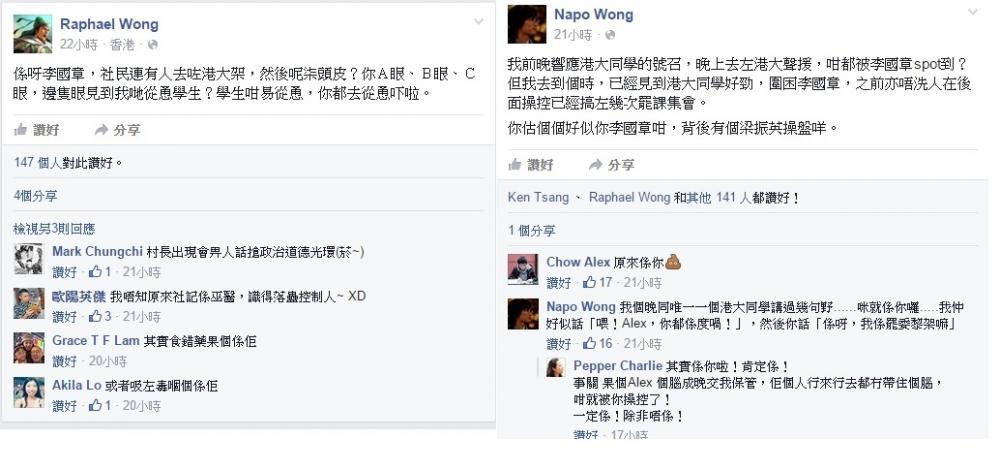
Raphael Wong: Yes, Arthur Li, League of Social Democrats people were at Hong
Kong University. But so what? When did you see us inciting the students? If
the students are so easy to incite, why don't you try to incite them?
Napo Wong: On the night before yesterday, I
responded to the HKU students' call and supported them at Hong Kong
University. Arthur Li spotted me? By the time that I got there, I saw that
HKU students were already so awesome in surrounding Arthur Li. Previously,
they had already held several class strike assemblies without any help from
behind the scenes. Do you think that they are like you, Arthur Li, who are
manipulated by CY Leung from behind the scenes?
So how do you reconcile what Leung said and
what the two Wong said? Is Leung a compulsive liar? Or was he really unaware
of what his two aides were up to?
- (HKG
Pao) Audrey Eu, Alan Leong and Ip Kin-yuen are all saying that
Arthur Li is smearing them. For example, Ip said that he is extremely angry
and that Arthur Li's criticism of Audrey Eu is "a very serious case of
libel." Well, you would think that Eu and Leong being past chairpersons of
the Hong Kong Bar Association would immediately file libel lawsuits
against Li. But they don't. Why?
Leong response was that he does not have the ability to command the
students. He said, "When parents can't even control their own children, how
can they control the students?" Eu said that she left the scene at around
5pm and did not know what happened afterwards.
In the end, they chose not to fight this fight. If they were completely
clean, they would have gone ahead. But in a court case, the defense has the
right to demand to see the communication records between Civic Party and the
students, who will have to testify in court as witnesses, so that
the magistrate can render a judgment. And they don't want everything to be
shown to the public.
So it does not matter how Ip Kin-yuen wants to push this. The Civic Party
just won't play.
- (Kinliu)
Civic Party chairperson Audrey Eu was present outside the meeting building
on January 26 in the company of legislator Ip Kin-yuen and Democratic
Party's Yeung Sum. The Civic Party said that she left HKU in the afternoon.
On her Facebook, she uploaded photos of the Love Hong Kong Voice people and
so she was indeed there. The Civic Party also said that party chief Alan
Leong was not there. At 11:48pm, Leong posted three photos from the scene
with the comment: "If you don't come out today, you won't be able to do so
tomorrow." So it is not true that he was attending a Civic Party and
completely unaware of what was happening that night.
- (The
Stand News) January 31, 2016. Peter Mathieson said that he doesn't
understand much Cantonese and he is unfamiliar with the political parties,
therefore he trusts Arthur Li's judgment about the role of the Civic Party.
Civic Party chairperson Audrey Eu wrote him that she was disappointed in Mathieson
for agreeing with Li. Yesterday Mathieson responded to Eu to say that
he genuinely felt unsafe that night. He said that the conditions that night
reminded him of the 1989
Hillsborough disaster in which 96 soccer fans were crushed to death
in a stampede.
From: Audrey Eu [mailto:audreyeu@civicparty.hk]
Sent: Sunday, January 31, 2016 10:06 AM
To: 'Peter Mathieson' <president@hku.hk>
Subject: untrue and serious allegations cannot be sideshows
Dear Professor (this is to indicate
respect rather than distance)
Thank you for your prompt reply.
Safety is always important, but it does not mean everything else is a
'sideshow'. Given events in the past year, truth and justice are also
values that we would like to see upheld by the University, particularly
the Council as its supreme governing body, a body subject to the seven
principles of public life including integrity, honesty, openness,
accountability and leadership.
My point of writing the open letter to you was twofold. First, to point
out that serious and false accusations had been made without a shred of
evidence and more importantly, in this case, you were seen to be
associated with it. Second, to point out that such inflammatory and
provocative language may make what is already a bad situation even worse.
Whilst your reply has not addressed the second point, I am sure you are
far more experienced in these matters than I am and there is no need for
me to press.
As to the first point, I must say when the Vice Chancellor and the Council
Chairman jointly gave a press conference (curiously at the Bankers Club
rather than on campus) and made such grossly defamatory public statements,
I would have expected some sort of basis or evidence instead of wild
accusations, conjectures and mudslinging and when the falsity has been
pointed out, I was looking for an explanation in your response, if not an
apology. Unfortunately there was none.
You mention the Hillsborough disaster in 1989. At the time, the Liverpool
fans were blamed for mob behaviour. However recent investigations showed
that the real culprit was the Police who created the situation ripe for a
disaster. My take on the Hillsborough disaster is that one often needs to
look not only at what happened but also what caused it. To prevent
possible disasters, it helps to take a step back, not just blame the 'mob'
for their behavior, but also try to address the cause that created the
situation in the first place.
Wishing you peace in the Chinese New Year
Audrey
---
From: <president@hku.hk>
Date: 30 January 2016 at 3:15:04 PM HKT
Subject: Your message
Audrey (if I may)
Thanks for your message: I always welcome hearing from our alumni. I
will not comment on Arthur Li's remarks at the press conference or
elsewhere: those are for him to justify. Regarding the SMT statement, I
stand by my condemnation of the fact that safety, including my own, was
put at risk on Tuesday and that this was unacceptable and brought no
credit on the HKU students that were part of the crowd. I have been
consistent in my attitude to the sanctity of preserving people's safety:
that dominated my attitude to the Occupy protests and it was that which
took me to the site of the protests with Joseph Sung on 2nd October
2014. When I was trapped in the middle of a large noisy crowd on Tuesday
evening, having great difficulty staying on my feet, I thought of the
Hillsborough disaster in 1989 when 96 football fans died. I genuinely
thought there was a risk of death or serious injury. Whilst I am sure
this was not the intention, the result was unpredictable and it is a
mercy that no serious injuries were caused. I have not, as accused in
the press, "taken sides": instead I have remained consistent on the
primacy of safety considerations and I have condemned the crossing of a
line in the behaviours that evening. The fact that the protest was
unnecessary, and the allegations of who did or do not orchestrate the
events, are sideshows: the main issue is whether that protest achieved
anything to advance the aims of the students. In my opinion it did not.
Instead it further damaged the reputation of the University that you and
I both support.
With best regards,
Peter
- (SCMP)
February 2, 2016.
The University of Hong Kong�s
vice-chancellor offered his apologies to Liverpool FC supporters in Hong
Kong after he was accused of using the Hillsborough tragedy for political
gain.
In an email to the chairman of the club,
Peter Mathieson said his remark was not meant to be unsympathetic or
offensive. �If I have caused offence to you or anyone else involved, I
apologise unreservedly,� he wrote. �I am a football fan from the UK and
like many I was deeply affected by the events at Hillsborough. Those
memories came back to me when I was trapped in the middle of a large crowd
the other evening: I sensed danger and I worried that there could be
injury or loss of life,� he continued. �Instead I was reflecting my
over-riding concern for safety: please don�t take it any other way.�
On Sunday, Mathieson said he believed he
was in danger as hundreds of students tried to storm the university�s
council meeting on Tuesday last week and that �when I was trapped in the
middle of a large noisy crowd, having great difficulty staying on my feet,
I thought of the Hillsborough disaster in 1989 when 96 football fans
died�. The football tragedy arose from poor crowd control. Thousands of
spectators at an FA Cup semi-final in 1989 were caught in a human crush
that killed 96 fans and injured hundreds.
Mathieson�s reply came shortly after
Steve Parry, chairman of Liverpool FC Supporters� Club Hong Kong, emailed
the vice-chancellor to demand a written apology yesterday morning. Parry
told the Post that Mathieson�s comparison to Hillsborough was �rather
distasteful and somewhat desperate�. �Those [survivors and victims� family
members] I have spoken to are highly offended by his reference,� he added.
He said Mathieson�s timing could not have been worse, as the Hillsborough
inquests were now in their final stage. �We accept his apology, although I
believe it was used for political gain,� Parry said.
- (HKG
Pao)
When Ip Kin-yuen made a statement, he did not rebut Arthur Li
directly. He only clarified that he had no part in this incident. But Li
never said that Ip was there; Li only said that Audrey Eu was there. But Ip
responded that Eu was there for only 10 to 20 minutes. Meanwhile Eu came out
and said that she was not there at all. And when Leong said that parents
couldn't control their own children, he was obviously referring to the fact
that his own children refused to take part in Occupy Central, or even
expressed their support.
As for Yvonne Leung, a few days ago she had just asked "Who is Arthur Li?"
and rhetorically called him a scum with no accomplishments in the field of
education. But now she demands to hold a dialogue with this ill-qualified
scum. The same thing
happened during Occupy Central. One day their unconditional demand is for
the evil CY
Leung to resign. The next day they want to sit down and hold discussions
with the evil CY Leung. This was all very confusing. The same script is being played
out again. They never learn, do they?
As for that Cheung Tat-ming, he is very amusing. He came around the same
time as Johannes Chan. He worked at a famous law firm and is now an HKU
lecturer but not yet associate professor. Previously he had said that he
heard that Arthur Li hates HKU. That's very amusing. As a legal 'scholar',
he goes around handling out hearsay to the media. If you bring up hearsay in
court, you will be hectored by the magistrate because that is not evidence.
This is the reason why he still has not been promoted after many years, or
so I heard.
After Arthur Li had his say, Cheung Tat-ming jumped out to defend Billy Fung.
He said that Li was pouring oil on fire. Well, you have to have a fire first
before you pour the oil. Who lit the fire? Cheung is therefore saying that
the students set the fire. Furthermore, anyone with committee experience
knows that the chairman speaks on behalf of the entire committee and you
must support him. If you are concerned that he may say that wrong thing, you
should advise him beforehand. If you think that he said the wrong thing, you
can go over with him afterwards. If you can't stand it, you can resign and
then you can say whatever your want. If you don't want to resign and you
want the public to know that you are dissatisfied, you can hint to the
media. If the chairman values your contribution, he will reach out to you.
Otherwise, it is high time for you to resign.
- Cheung Tat-ming had no problems with
leaving. He said that he went home after the meeting, had dinner and came
back at 9pm to watch the continuing show.
- Cheung Tat-ming did not bother to learn the facts and make objective
comments as required of a scholar. He declined to point out the mistakes of
the students and correct their behavior. Instead, he criticized the people
who were surrounded by the students to the point where they fear for their
personal safety.
- (TVB)
Today the Hong Kong University Students' Union stated that they are
disappointed by the vice-chancellor Peter Mathieson's decision to hand over
video tapes to the police. They said that instead of protecting the
students, the university is smearing them as mobs.
- Well, Hong Kong University Students'
Union president Billy Fung Jing-en said that the students acted in a
reasonable manner. That being a case, there should be nothing to worry
about. Let the police have the videos. They will find nothing. Case
closed.
- But what if the police finds evidence
of destruction of property, physical assault, false imprisonment, etc? And
that cannot be allowed to happen, right?
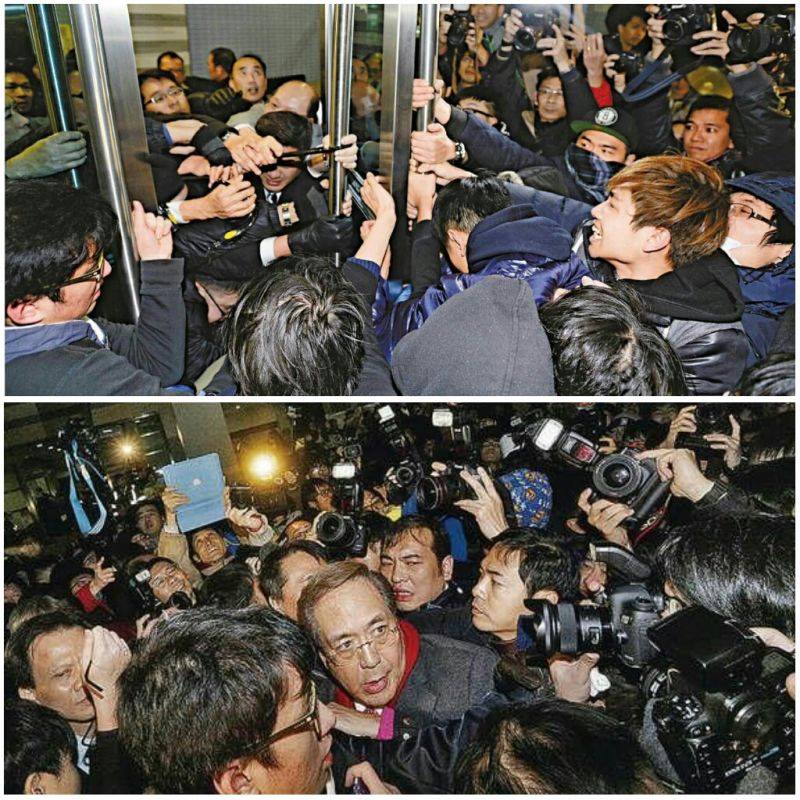
- (TVB)
HKU council member Joseph Chan said that the student did not need to charge:
"You can sit down. If they come out and refuse to explain, can you resist
then? Right now the process is reversed. They lay siege first and then they
demand an explanation. Not matter how much you dislike Arthur Li, the
meeting did accomplish two things that benefits Hong Kong University
(namely, the review panel on governance and the panel on confidentiality)."
- (SCMP)
Professor Joseph Chan Cho-wai, a HKU professor, said he hoped both the
student union and chairman Arthur Li Kwok-cheung would agree on a venue for
a meeting soon. �If Li felt a threat about his personal safety to have
the meeting inside HKU campus, the students should give him a guarantee on
his safety,� said Chan on TVB�s show On the Record on Sunday morning. �But
once the students made such a promise... he should trust them on their word.
This is how mutual trust is built.� Chan also objected to suggestions that
students be penalised for Tuesday�s actions. �Personally I do not agree that
we should consider giving punishment to the students,� he said. �The school
and students should solve the matter by communication, or else those being
penalised would only hold a grudge in their hearts and further advance the
distrust. How students should face the consequence of their actions, we
should let the public opinion be the judge.�
- And if at the meeting between Li and the students, the students surround
him and refuse to let him leave until he sets up a review panel right there
and then? What will Joseph Chan say?
- (Oriental
Daily) January 31, 2016. The Hong Kong University Strike Committee
has decided to suspend its class strike. According to spokesperson Yvonne
Leung, the students have decided to postpone the class strike. She denies
that this is due to the poor participation. Instead, she said that the
movement has entered a new phase and the students are about to begin a
dialogue with the university. She said that council chairman Arthur Li has
already rejected two of the three student demands: meeting at HKU and
attending the council meeting. About 100 students attended the fourth
meeting of the Strike Committee which went on for almost 6 hours.
- Ronnie Hung's Facebook
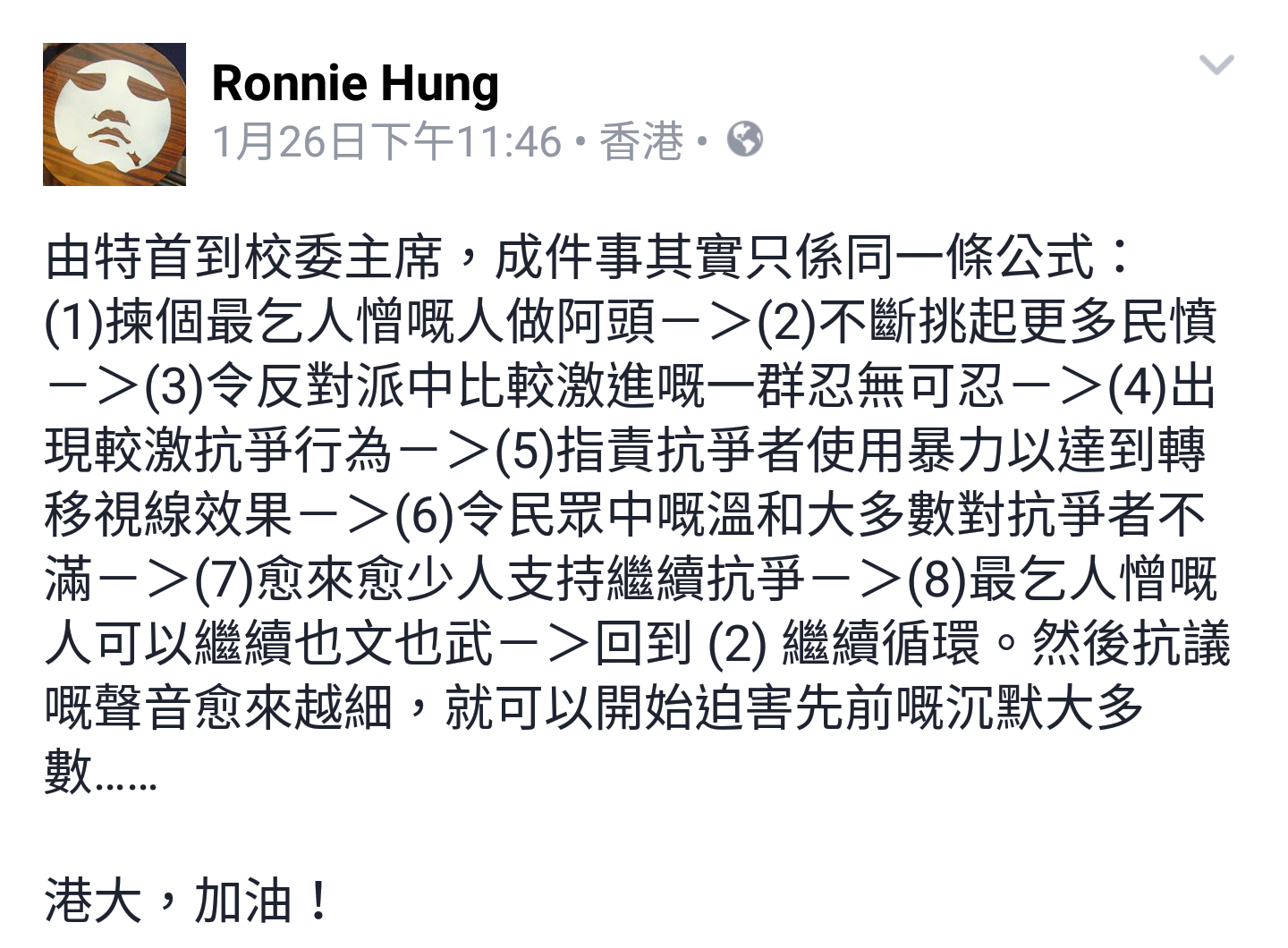
From the Chief Executive to the university council chairman, everything
follows the same formula:
(1) pick the most detested person to become the head ->
(2) initiate more provocations to rouse popular dissatisfaction ->
(3) make the more radical elements upset to the point where they can't take
it anymore ->
(4) radical actions take place ->
(5) condemn the resisters for using violence and thus switch public focus ->
(6) cause the moderate majority to detest the resisters ->
(7) fewer and fewer people support the continuation of resistance ->
(8) the most detestable resisters continue their actions ->
(9) return to (2) and repeat infinite loop
And once the voices of protests become smaller and smaller, they can begin to
persecute the silent majority.
Go, Hong Kong University!
- (HKU
Campus TV @YouTube) What is the problem with the HKU students? At
46:12 of the press conference, the Campus TV reporter posed a question to
Peter Mathieson in English. What was he talking about? Can anyone understand
what came out of his mouth?
- (Speakout
HK) The politicians named by Arthur Li said that he was making false
accusations against them. The exact phrase is 含血噴人 which literally means
spitting at people with blood in your mouth (which means that you are guilty
to be begin with). But what does that mean? If the students were doing
something righteous and lawful on behalf of the people, those politicians
should be proud to claim credit. Why would they use 含血噴人? Clearly they even
think that the students were doing something very wrong and they wanted no
part of it. This is their Freudian slip.
(Hong
Kong Free Press) January 27, 2016.
University of Hong Kong (HKU) students
besieged a meeting of its governing Council on Tuesday night, demanding
reform. Most Council members did not speak to students before they left the
meeting, though they agreed to form a panel to review its structure
following controversies last year over the governing body.
Following the controversial appointment of
Arthur Li Kwok-cheung as Council chairman in December, students started a
week-long class boycott in protest.
Other than a review panel, students also
demanded that the Chief Executive be dropped as the automatically appointed
university Chancellor. They called for at least half of the Council members
to be appointed from within the university, and for Council members
currently selected by the Chief Executive to be appointed directly by the
Council instead.
�We demand a conversation!�
students said, as they surrounded the venue of the first meeting chaired by Li
on Tuesday. Around 300 joined the protest at the Sassoon Road campus in Pok Fu
Lam.
By around 8pm, students heard that
the Council had agreed to set up a review panel but had not budged on other
demands. They attempted to block the exits of the building, refusing to let
Council members leave.
Police Tactical Unit officers, who were
originally standing on guard outside the building, were deployed to help
Council members leave. Police told Apple Daily that they acted after
receiving three calls made from the campus. In response, students chanted
�police leave the campus!� as some said they should not be operating within
the university grounds.
Council member Leonie Ki Man-fung
claimed that she felt like vomiting and requested an ambulance. Although she was
blocked by students for around an hour, she was eventually allowed to leave in
an ambulance. Li also attempted to leave the site through the front door,
assisted by police officers, but it was blocked by students and was forced to go
back.
By around midnight, Li and HKU
vice chancellor Peter Mathieson were still inside the building. Police then
charged into the car park saying that they needed to investigate a case of
criminal damage inside the building, however students did not allow them in.
Meanwhile, Li left through the other side of the building accompanied by police.
An hour later, Mathieson appeared
outside the building and spoke with students. Yvonne Leung Lai-kwok, one of the
protest organisers, said that they would meet with Li and Mathieson in ten days
and hoped students would join and give their opinions.
HKU�s governance has been the subject of
controversy during the past year due to the rejection of liberal law scholar
Johannes Chan Man-mun as its pro-vice-chancellor. Li�s appointment by the
Chief Executive attracted widespread opposition from students, teachers,
staff members and the public. In a press statement, the HKU said the Council
�unanimously agreed� to set up a review panel to study the governance and
effectiveness of the university. This would be in the spirit of the Niland
Report issued in 2003 and 2009, which suggested such a review be carried out
every five years. It would be issued at around the same time as a report on
university governance by the University Grants Committee.
(SCMP)
January 27, 2016.
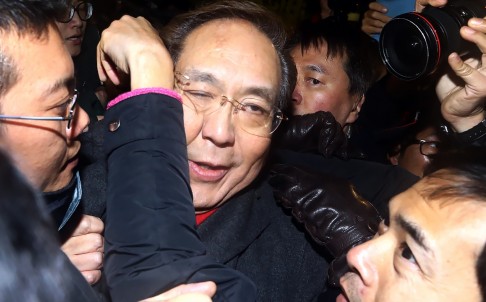
Chaos erupted on the University of Hong
Kong campus again last night as angry students besieged a governing council
meeting, although members agreed to start a review of the institution�s
governance structure in the wake of a stormy political year.
By 10pm, about 200 student protesters
remained at the Sassoon Road campus in Pok Fu Lam, refusing to let new
council chairman Arthur Li Kwok-cheung and HKU vice chancellor Peter
Mathieson leave.
�Conversation!� they yelled, demanding
talks with them. The students stormed the venue upon an apparent
misunderstanding that there would be no immediate review, but they were kept
well away from the meeting room.
Police Tactical Unit officers were deployed
to help council members leave. One female employee was injured and sent to
hospital.
The council agreed to appoint Terry Au Kit-fong,
chair professor of psychology, as the interim pro-vice-chancellor for
academic staffing and resources, a post that the council controversially
refused to let pro-democracy law professor Johannes Chan Man-mun take up
last year. That triggered a storm, with critics complaining of political
interference.
Although the university announced after the
council meeting that it would set up a committee to review HKU�s governance
structure, Yvonne Leung Lai-kwok, an organiser of the protest, said her
group remained unconvinced.
�We want a detailed timetable and a
face-to-face conversation with Li,� Leung said. �Or else it would be just
like an empty promise to deceive students.�
HKU students had held a week-long class
boycott before yesterday�s council meeting, urging members to set up a
committee to review how the university is governed and prevent any further
political interference.
They demanded that the chief executive
should no longer be the default chancellor of HKU and be stripped of the
right to appoint members to the council.
In a press release, HKU said the council
had �unanimously agreed� to set up a review panel to study the governance
and effectiveness of the institution and to receive views from the public.
This would be in the spirit of a Niland
Report issued in 2003 and 2009, which suggested such a review be carried out
every five years, it added, and would also come about the same time as the
University Grants Committee issued a consultancy report on governance of all
the universities in the city shortly.
HKU was the centre of a divisive and
emotional dispute throughout last year. Former education secretary Li,
nicknamed �the Tsar�, was appointed by Chief Executive Leung Chun-ying in
December despite strong opposition from many students and alumni. The
education leader�s critics saw him as high-handed and unfit for the
chairman�s role.
Li�s appointment came after the council�s
widely criticised decision to reject the candidacy of Johannes Chan, who was
recommended by a search committee for the pro-vice-chancellorship. Li was
one of the council members who spoke strongly against Chan�s promotion.
At the meeting yesterday, Li dismissed one
of the agenda items, which asked the council to receive a letter from the
HKU Convocation noting that more than 4,000 alumni had voted against him
filling the chairman�s post. Li was understood to have told members the vote
was not representative because it only reflected a small percentage of the
whole alumni body.
Council member Leonie Ki Man-fung was stuck
in an ambulance for an hour before the vehicle found its way through the
crowd blocking the area outside the building at about 11pm. She complained
she was sick and requested an ambulance, but she was criticised by the
students for abusing the services.
As of 12.30am, Li and Mathieson had not
been seen and were believed to be still stuck inside the building with all
exits surrounded by the students. At 12.45am, about four hours into the
standoff, a chaotic scene erupted after hours of quiet standoff, when a
dozen of officers approached the car park of the building, where they were
confronted by students.
But the police move-in was immediately
realized as a tactical distraction by students, with some seeing Li leaving
the building and driven away in a black car after exiting through an
alternate door of the car park. His departure was later confirmed by the
university communication department.
At 1.30am, Mathieson appeared outside the
building and started a 30-minute dialogue with students. Angry students said
they were disappointed that Li had promised there would be a dialogue after
the meeting but he ended up leaving in haste without notifying them.
Mathieson said he and Li had agreed to meet
the student representatives in 10 days, and said he supported the council
decision to set up the review committee after the release of the University
Grants Committee�s consultancy report on governance.
But Mathieson told the students that he and
other council members were disappointed by the siege on the meeting venue.
He said that he felt his life had been in danger. �When I tried to leave the
building [at] about half past eight, I felt my life was in danger,� he said.
�I was in a crash, and I was in physical danger. And I was disappointed by
that too. I don�t think I or any other council members should have to put up
with that.� He added: �I think it was a very unfortunate episode. I think it
has damaged the university�s reputation. I don�t think it actually helps the
cause you are aiming to promote.�
About 200 students stayed on after
Mathieson left the site.
(SCMP)
Hong Kong University chaos is unacceptable under any circumstances. January
27, 2016
The campus of the University of Hong Kong
has degenerated into chaos again. Upset by what they saw as tactics to delay
a review on the university�s governance structure, hordes of students
clashed with police officers on Tuesday as they tried to block new council
chairman Arthur Li Kwok-cheung and other members from leaving the campus in
the late evening. This came despite a unanimous council decision to review
governance with an independent committee.
In the wake of the perceived interference
in the university�s independence and a class boycott by some 200 students,
emotions are understandably high. But the circumstances can hardly justify
irrational behaviour. Last summer, some students stormed a council meeting
after the university�s highest governing body had voted to delay the
appointment of Johannes Chan Man-mun as one of the pro-vice-chancellors, a
move critics said was political backlash against the liberal scholar for his
affiliation with pro-democracy Occupy protests organiser Benny Tai Yiu-ting.
What the students did this time was equally
unacceptable. They besieged the venue, blocked passageways and clashed with
police officers, apparently having been misled to believe that their demand
for a review had been stalled. A council member feeling unwell and requiring
medical assistance was blocked from leaving the campus. University chief
Peter Mathieson later expressed disappointment over the students� action,
saying he felt his life was in danger.
The decision to set up a review panel
should have been welcomed by the students. It was agreed by all council
members, including the students� elected representative. He said the outcome
was a pleasant surprise, adding that he did not find it unreasonable to wait
for a University Grants Committee�s consultancy report on university
governance, which is due in one or two months. But other students feared
that the council was dragging its feet, referring to their experience in
Chan�s case.
Trust and cooperation do not come from
antagonism and confrontation. The council has taken the first step to
address students� concerns. But this was not reciprocated with a positive
response. As in the previous stand-off, the latest clash does not instil
pride and confidence in our tertiary students; nor does it help restore the
university�s reputation as one of Asia�s finest. A dialogue between Li and
the students is expected to be held within 10 days. It is to be hoped that
rationality can prevail.
(SCMP)
January 27, 2016.
If they represent Hong Kong�s best and
brightest, then God help us.
More than 200 screaming University of Hong
Kong students mobbed their own campus, illegally trapped university council
members and staff inside buildings and confronted security staff and threw
objects at police.
In most Western democracies, such behaviour
would have meant being pepper-sprayed and thrown into jail for the night.
But hey, this is Hong Kong. So new council
chairman Arthur Li Kwok-cheung, the target of their protests, had to be
sneaked out under police protection. HKU vice-chancellor Peter Mathieson,
who had been encouraging students to speak up, said he felt his life was
threatened. When even the ever diplomatic Mathieson said he felt unsafe, you
can be sure you are seeing some seriously extreme mob behaviour.
But Billy Fung Jing-en, head of the student
union, said all that was �reasonable�. I hate to know what he would find
unreasonable.
A police officer was criticised for merely
threatening to use pepper spray. Stricken council member Leonie Ki Man-fung
was stuck in an ambulance for an hour as students blocked it from leaving.
Students said it was all her own fault for abusing emergency services. How
did they know Ki was faking it? Are they doctors?
The students said their demands were being
ignored and that left them with no choice but to protest as a last resort.
Never mind that Li had agreed to meet them. They demanded a meeting now, at
that moment. Never mind that the council had set up a committee to examine
the university�s governance structure. They wanted it done now, right this
minute.
It looks more like they were backing the
council and university administration into a corner rather than the other
way round, as the students claim.
Basically, their demands are impossible to
meet. And they know it � all the more reason to continue their protests
while claiming they were being ignored and repressed.
Frankly, it�s hard to see what they are
doing or if the goals they claim they are fighting for in any way benefit
the university or society at large.
I can�t for the life of me see how most
business conducted by the council remotely affects those students in their
undergraduate careers or restricts their freedom.
(SCMP)
July 21, 2016.
The former president of
the University of Hong Kong�s student union has been charged over his role in
the siege of a university governing council meeting in January. Billy Fung
Jing-en, 22, has been charged with one count of criminal intimidation or
disorderly conduct in a public place alternately, one count of criminal damage
and one count of attempted forcible entry. Fung was arrested at his Tsuen Wan
home on Wednesday night and later released on HK$10,000 bail. According to
police, he is due to appear in Eastern Court on Friday.
Former student union
external vice-president Colman Li Fung-kei said on Wednesday police had gone
to his home to question him, but he was out of town.
Mathieson on Wednesday
said the school would �always endeavour to provide assistance to any staff
member or student in need�, when asked if the university planned to provide
the former union leader with legal assistance. Mathieson added: �We respect
the judicial process and adhere to the principle of innocent until proven
guilty.�
(SCMP)
August 10, 2016.
Another former leader of
University of Hong Kong�s student union has been charged with obstruction for
his alleged role in the siege of a university governing council meeting in
January. Former HKUSU external vice-president Colman Li Fung-kei, 21, received
a summons for obstructing public officers in execution of their duty on
Tuesday morning when he went to Western Police Station with a lawyer. He will
appear in Eastern Court on August 16.
Li was said to have
obstructed an ambulance carrying council member Leonie Ki Man-fung, who felt
sick during the siege, from leaving the meeting venue on HKU�s Sassoon Road
campus in Pok Fu Lam on January 26.
Police approached his
residence on July 20, but failed to reach him, as he was in Taiwan.
(SCMP)
Chief executive�s university role is not interference, it�s accountability. By
Alex Lo. March 4, 2017.
Should we end the colonial-era tradition of making the chief
executive the chancellor of public universities, or at the very least, make it
no more than an honorary title?
A three-member panel was appointed by the University of Hong
Kong to look into the matter. And the trio reportedly cannot agree.
Two members � Professor Malcolm Grant, chancellor of the
University of York, and Professor William Kirby, of Harvard University �
endorse the idea that the chief executive�s role in the university should be
made honorary. This means he or she would no longer have the power to appoint
the chairman and some members of the university�s governing council.
But a third member, �former High Court judge Peter Nguyen, has
objected, arguing any such change would have a far-reaching impact on other
public universities. In light of this, it�s not unreasonable for the council
to appoint a new working group to re-examine the panel�s recommendations.
This is despite criticism from student activists and
pan-democratic professors at HKU that the university management is stalling.
They seem to think stripping the chief executive of powers is a panacea to
preserving the university�s institutional autonomy, whatever it means. It is
not. They are simply blinded by their hatred of outgoing Chief Executive Leung
Chun-ying.
They have long assumed Leung and the government must have
interfered in university affairs. Yet, Nguyen has categorically denied that,
saying concerns about political interference by the chief executive are
�totally without foundation� and have �never happened�.
But the real issue is that even if they could get rid of the
chief executive, they still would not be free of the government; nor should
they.
The eight public universities receive most of their funding
from the government. This means they have to be accountable to the public.
Suppose the chief executive no longer has any formal powers. It�s still
perfectly legitimate, indeed necessary, for the government to insist that its
officials be given seats in the council with full voting rights. It would be
unreasonable to deny representation to the guy who pays the bills.
Now I am not sure having officials permanently on a university
council and taking part in making decisions would be perceived as any less
�interfering� than having the chief executive as chancellor with some powers
of appointment.
You say interference, I say accountability.
Videos:
HKU SU Campus TV
https://www.facebook.com/hkucampustv/videos/976729822395714/
TVB News
http://news.tvb.com/local/56a8966b6db28c6319000004/ Television news
report
SCMP
https://www.youtube.com/watch?v=Tytxr_0TGv0 Woman down on the ground
Epoch Times
https://www.youtube.com/watch?v=rZRrT3kNids Students broke through the
outer ring with metal barricades and enter to demand a dialogue with Arthur Li
Epoch Times
https://www.youtube.com/watch?v=u5AS6ZWOb_I Hong Kong University
students surround Arthur Li et al in order to hold a dialogue (beginning at
1:18)
Epoch Times
https://www.youtube.com/watch?v=Vk9XCwgBC6k Billy Fung gets the
security guards to open the door and then calls on other students to join in a
meeting with Arthur Li. This tape is evidence for property destruction as the
door handle was bent.
Epoch Times
https://www.youtube.com/watch?v=UqQSJl_hjug Leonie Ki claims to be ill
after being surrounded by students.
Epoch Times
https://www.youtube.com/watch?v=H0gpKY6A1WA The students won't let the
ambulance carrying Leonie Ki leave.
Epoch Times
https://www.youtube.com/watch?v=rMV2FgFnpRw Police use diversionary
tactic to allow Arthur Li to leave
Speakout HK
https://www.youtube.com/watch?v=6sMSAvaGDZg Billy Fung Jing-en left
the meeting and then returned to tell the security guards: "I'm a council
member. I'm returning to pick up something. Is there any problem?" The
security guards opened the door. Fung holds the door, turns around and asks
aloud, "Does anyone want to go in and look up Arthur Li?" Other students
rushed over to struggle with the security guard over the door. And then Fung
said aloud "Don't hold me!" as he left the scene, leaving it to the other
students to fight the security guards. By the way, the security guards
are employees who are HKU stakeholders, even more so than students who
graduate and leave in four years.
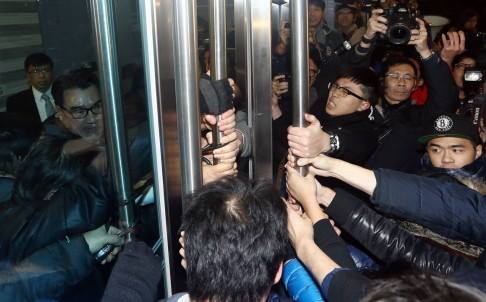
Speakout HK
https://www.youtube.com/watch?v=ljU2A7QpwF8 Billy Fung Jin-en on RTHK:
"The students' action a very rational thing.
Cable TV
0:18 Students laid down on the
road to prevent the ambulance from leaving.
0:22 They kept chanting slogans. For ten minutes, Arthur Li could
not move a step.
RTHK
0:32 Radio host: The method was to prevent the council members from leaving.
Eventually they were able to leave under police escort after midnight. Is
that going too far?
0:39 Fung: I don't think this is going to far. When you have a lot of
people, it is obviously going to be crowded. That's all there is. It was
relatively hard to come and go. Everybody had a hard time coming and going.
So I don't think this is going too far.
0:49 Radio host: Not everybody found in hard to come and go. Cheung Tat-ming
just said that he could come out. Some could, some couldn't.
0:52 Fung: It was a timing issue. Different times, different numbers of
persons. When the time is different, the number of persons is different.
0:57 Radio host: But when only Arthur Li is left, it is hard to say that
this was purely a timing issue. Some people were selectively allowed to
leave. If you can accept his viewpoints, you let him leave. If you don't
agree with his viewpoints or positions, you won't let him leave.
1:10 Fung: I'm not going to comment on who can easily leave and who cannot
leave so easily.
1:15 Radio host: Let us say that there are people from different spectrum on
the council. Everybody supported it. Actually, they were hoping that the
review panel would be established immediately. Do you reflect on this
sometimes? That is to say, you don't have to follow the students. That is to
say, what everybody wants is the most reasonable thing. Sometimes as a
student representative you may persuade the students to go in the opposite
direction because you think that it is reasonable to do so.
1:37 Fung: To a certain degree, waiting for two months is actually quite
reasonable.
Speakout HK
https://www.youtube.com/watch?v=CYQIy8azgy0 Female voice on megaphone
telling all those present: "A review panel has not been established."
RTHK
Radio host: At the time, did you explain to the fellow students about
waiting two months for the report to come out first?
Billy Fung: I think that the responsibility for explaining this is on Arthur
Li. Regrettably he did not explain it.
Arthur Li: The reason why I said that he is
a liar is very simple. On the day before yesterday at the meeting, we voted
unanimously to establish a review panel. But Billy Fung told the students
that we have not established a review panel. Isn't that a lie? Within the
council, he promised to maintain confidentiality. But as soon as he got out,
he called a press conference to leak everything that we said. Isn't this a
lie to the university council?
Man Cheuk-fei (HKU council member): After
the council meeting, Arthur Li went into another room to draft a statement.
Actually, we have a common understanding that the chairman will come out to
speak. Billy Fung was there.
Host: So Billy Fung should know?
Man Cheuk-fei: He must have known more or less. He was close by us,
sending out messages. He watched when we left. But as soon as they saw
Chairman Li, they got very excited. There were a lot of offensive words.
That is to say, the scene was out of control. There was no opportunity for
Arthur Li to say anything or address the media.
Man Cheuk-fei: He selectively released information so that the students at
the scene thought that the review panel was not established. It raised
doubts and discontent. Why can't we talk about this inside? Why does he have
to use such methods to release misleading information? I went out and spoke
to the students for a while. They said that they were unaware of the version
that we were aware of. Afterwards, we found out that there was information
asymmetry.
Speakout HK
https://www.youtube.com/watch?v=UYUo9ZF0WNE
Billy Fung: I emphasize that all the
information I sent out are complete and accurate.
HKU Student Strike Committee member Chan
Wing-ki: Right now, there is no review panel.
Billy Fung: At the time, I told the
students outside the meeting place that the university council will
establish a review panel but it has to wait until the University Grants
Committee report comes out first. So the fact is that the review panel has
not been established ... when it is not established immediately, then it was
not established ... to put is simply, if I agree to propose to you and you
agree to marry me. Right? But are we married yet? Not married! Right or not?
Because we are not married until we've registered.
Speakout HK
https://www.youtube.com/watch?v=i62LqHmOyLI A female student tried to
wedged into the police line as the ambulance tried to leave, and then she
accused the police of using violent force.
Speakout HK
https://www.youtube.com/watch?v=P1X1dSoY9SM Ambulance corps workers
enter with stretcher. Yvonne Leung, Alex Chow and Baggio Leung (Youngspiration)
refused to yield passage. Yvonne Leung yelled: "Please tell me who has been
injured!" How did she get the authority to decide who can receive medical
treatment or not?
Speakout HK
https://www.youtube.com/watch?v=5o5C97m1ALE According to the students,
council member Leonie Ki Man-fung was faking ill and abusing the emergency
service.
(Commercial Radio) Billy Fung: Ms. Ki is
abusing the emergency service. She was very freely able to get on the
ambulance and very smoothly by herself.
(Commercial Radio) Leonie Ki: The crowd had many lawyers. Three, four
layers. More and more people came. They kept screaming and yelling. I could
not breathe and I could not move. And also the problem was that I was very
scared, because suddenly some of them said "Make her take a dive!" Someone
hit me at the sensitive spot behind my knee in order to make me fall.
Actually, I almost fell down on the ground three times.
(Commercial Radio) Billy Fung: Through the window of the ambulance, she
scorned the fellow students.
(Commercial Radio) Radio host: You said that she scorned the students from
inside the ambulance? What was the scene like?
(Commercial Radio) Billy Fung: (Laughing) I couldn't see very clearly. I lost
my glasses. But she ... that is to say, her condition does not appear to be
illness.
(Commercial Radio) Leonie Ki: At the time, my blood pressure was very high.
I normally take medication to keep the pressure down to 120. At the scene
yesterday, it was 170. At first, I wanted to throw up and I was dizzy. But I
didn't realize that it was so serious. Some student said that I was scorning
at the other students. How do I have the time and energy to do that! I never
uttered a single sentence, because I want to throw up. I couldn't talk. You
could see that I kept my mouth closed, or I put my hand to cover my mouth. I
wish the political parties and politics could stay far away from all the
universities in Hong Kong, all the campuses so that they can study well.
Because our next generation is a bunch of mobsters, then I think that our
Hong Kong is really finished.
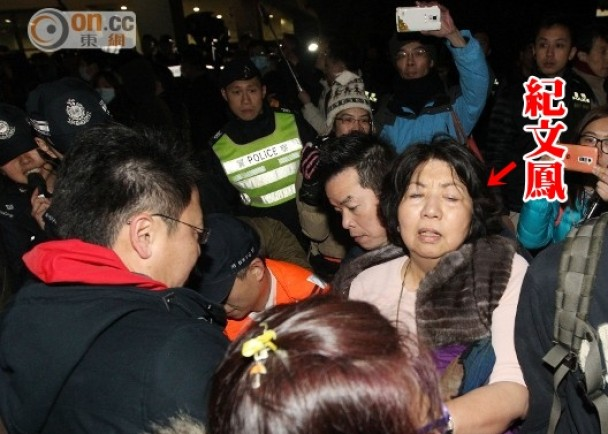
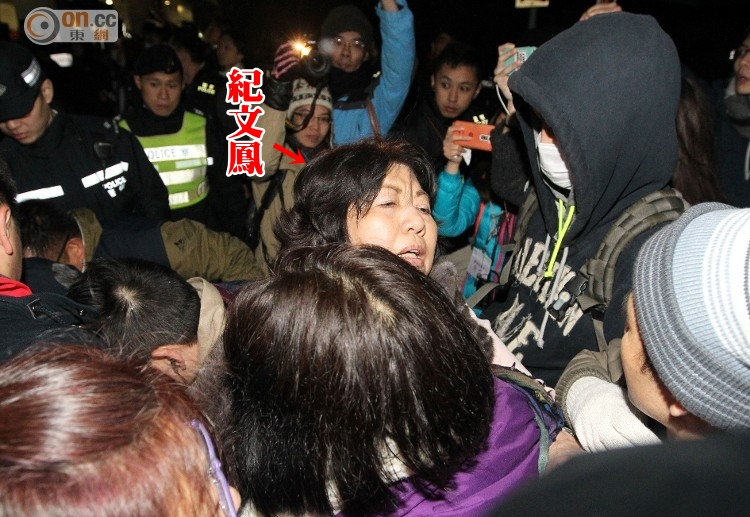
Also Oriental Daily
https://www.facebook.com/bbtauseeworld/videos/446727375524645/
Speakout HK
https://www.youtube.com/watch?v=APzqcLtPj1M When Leonie Ki was stuck
in the ambulance for an hour because the students blocked the way, Yvonne
Leung got on the megaphone and said: "I don't understand why we were only less
than 20 meters away from each other, but Ms. Ki refused to come over here. Ms.
Ki, our fellow students are waiting for your answer!" When Arthur Li came out,
the students surrounded him with the familiar voice of Yvonne Leung leading
the chant: "Shameful!" "Dialogue!"
Speakout HK
https://www.youtube.com/watch?v=PGL9c3eRXH4 Hong Kong University
students versus the Evil Police? Well, here is a list of non-HKU students
doing their valiant resistance act at the scene.
0:19 Ray Wong (Hong Kong Indigenous) blocking the ambulance from leaving
0:35 "Four-eyed Brother" Cheng Kam-mun setting up obstacles on the road and
then quickly leave
1:03 Chin Po-fun (People Power member, Shopping Revolution mainstay)
Speakout HK
https://www.youtube.com/watch?v=Vu0jnQbhnKc
Female voice: The police are not allowed on
campus. Leave immediately!
Hooded man: Leave! Leave!
(dbc)
Senior counsel Ronny Tong: In terms of the law, the campus belongs to the
university. But now matter whom it belongs to, under Hong Kong law, if the
police believes there is a reasonable case that a crime has been committed,
then the police can enter anywhere. So it depends on whether someone is
smashing and destroying university property. On this night, I believe that
the university security personnel asked the police to enter. Under such
circumstances, the police has the right under the relevant laws to enter the
campus to enforce the law, maintain order and prevent crime. I don't think
that there is any particular issue here.
Ronny Tong: The students do not own the campus, and they are not responsible
for security either. Strictly speaking, they do not have the right to
enforce the law. I think that the students should not be besieging the
council members, even not allowing them to leave. According to law, this may
constitute false imprisonment.
Resistance Live Media
https://www.youtube.com/watch?v=VrsemK6KAcw The title is "Hong Kong
University students lay siege to the council meeting, the police charged into
the scene to violently enforce the law."
https://www.facebook.com/359574464219603/videos/553160878194293/ A
raving auntie in the middle of this student revolution. She is complaining
about how dozens of police trampled over her. She tried to stop Leonie Ki from
getting away in the ambulance but dozens of police blocked. They told her
"Don't push" while they kept pushing themselves so that she couldn't breathe.
Meanwhile the police kept kicking this demonstrator and another girl in the
legs while saying "Don't kick! Don't kick! Calm down! Calm down! Very
hypocritical!
Internet comments:
- (Man
Cheuk-fei, member of the HKU Council What do the students want?
All eyes were on the the first HKU Council
meeting of 2016, because this will be the first meeting chaired by Arthur Li
after this appointment as chairman. Previously, the HKU students started a
strike to target him. HKU Student Union member requested an item to be added
to the meeting attention to review council governance. The world wanted to
see the student demand would be met ...
Because the University Grants Committee was
about to release a review report on university governance, most council
members were inclined to wait until the report appears and then immediately
establish a review panel at HKU to conduct a thorough review. The motion was
passed unanimously, including the student representative.
When the meeting ended around 8pm, it was
suddenly reported some students have broken through the security line and
blocked the car parks in order to prevent the council members from
departing. Most of the council members were perplexed: Have we satisfied the
students' demands? Why do they still want to lay siege to the meeting site?
As individual teachers left by foot, all those who came in by car were
unable to leave. So they waited in another room for more information. During
this time, Billy Fung Jing-en was watching every move of the council members
and sending out messages to the outside. Chairman Arthur Li was in another
room drafting a statement to tell the world what the council has decided.
At about 840pm, the university security
chief said that their people have set up a human chain to allow the council
members to leave safely. Arthur Li went in the company of another
vice-chancellor to leave. When the students saw him, they got very excited
and the human chain was immediately useless. The students surrounded the
council members so that they couldn't move. I was standing next to Arthur Li
and Peter Mathieson, and I experienced 20 minutes in which I was surrounded.
As vice-chancellor Mathieson recalled
later, I also felt that my personal safety was being threatened. The
security guards on my left tried their best to protect Arthur Li. Billy Jung
Jing-en was standing on my right, and he kept trying to reach Arthur Li with
his hands while he heaped obscene insults. I found it hard to believe that
this came out of the mouth of a Hong Kong University Students' Union
president. Another student next to him did the same.
I kept being pulled and pushed in the
crowd. I was worn out. I could have easily fallen down on the ground. If
someone falls down, there could be a stampede with unimaginable
consequences. I was most concerned about 80-something-year old council
member Rosie Yeung Tse-tse because she could not have endured the jostling.
Fortunately she was able to leave safely. Another council member Leonie Ki
felt ill and was taken to the hospital. Council member Patrick Poon Sun-cheong
had his suit ripped. I was able to leave after 45 minutes.
Afterwards it was learned that the students
went out of control because Billy Fung Jing-en released inaccurate
information during the meeting, saying taht the council rejected the
students' demands and stalled. By the time that the staff representative
Cheung Tat-ming clarified, it was too late. Peter Mathieson's open letter
was stern. He emphasized that the university will not tolerate mob rule and
that the students' actions were totally unnecessary.
There are two student members on the
university council. They have plenty of channels to speak up for the
students. But did they do their duties? Billy Fung Jing-en voted to
establish a review panel. Then without waiting for council chairman Arthur
Li to announce the decision, he deliberately released inaccurate information
to mislead the students and malign the council members such that clashes
took place. Then he incited the students to charge into the meeting building
to attack Arthur Li. What does he really want? Pardon me for not being able
to understand.
- (Bastille
Post)
Council member Leonie Ki wrote to Hong Kong
University afterwards to relate what she went through. When the meeting
ended at 8pm, the students had already surrounded the exit to the parking
garage. So the council members had to stay in the waiting room.
After about half an hour, Leonie Ki and
others were told that the security guards would form a human chain to escort
them out onto a minibus outside to leave. Leonie Ki led the way, because she
was most concerned about the personal safety of the elderly Rosie Yeung
Tse-tse. She ended up being held up for more than an hour before the
ambulance and the police came.
Leonie Ki said that she was "pulled, pushed
and made physical contact" with many persons. Someone grabbed her jacket to
stop her from leaving. She heard someone said "Quickly make her take a
dive." "There were kicks behind my left knee to make me fall."
Leonie Ki said that it had rained that day
and the grass and steps were wet. She tried to maintain her balance. She
almost fell thrice. Fortunately a female police officer next to her held her
up and told her that she not to worry because she will "hold her up." Leonie
Ki said that she was afraid that if she fell, it might trigger a stampede
with unimaginable consequences.
She said that she heard students cursing
along the way. After 45 minutes, the emergency worker brought the stretcher
to Leonie Ki. But the demonstrators immediately push it away. After another
15 minutes, Leonie Ki got near the ambulance. She was too worn out, and two
emergency workers carried her into the ambulance. The demonstrators did not
stop cursing. They said that Leonie Ki was faking it. They banged on the
body of the ambulance. It took another 15 minutes before the ambulance was
able to leave with police assistance. Leonie Ki was taken to Queen Mary
Hospital for examination.
Leonie Ki said that the experience made her
fear for her life. When the doctor asked if she wanted to be hospitalized,
she said that she wanted to leave because she was concerned that the mob
might charge inside the hospital and affect other patients. So she told her
chauffeur to meet her at the back entrance to take her home. She made it
home by 1130pm.
- (Speakout
HK) When HKU council member Leonie Ki Man-fung tried to leave by
ambulance, the students said that she was faking it and abusing emergency
services. When a female student fainted, the students made way for the
ambulance. So let us look at this fainted female student. This clip began with
the TVB news report about a person fainting. But look at the slow motion video
beginning at 0:38. When a security guard tried to provide aid, the fainted
students looked up and used her hand to slap him away. And then she continued
to be fainted.
- (Ming
Pao) Hong Kong University Students' Union president Billy Fung Jing-en
said that council member Leonie Ki did not need to use the ambulance. Fung
criticized Ki of "abusing the emergency service." He said that compared to the
students who froze in cold weather for six hours, Ki should be "okay and very
normal" and she does not appear to be ill.
- The broom was used to block the exit door
in order to prevent council members from leaving. This is a misapplication of
the tool. It should have been used to sweep all the young wastrels out of the
university campus.
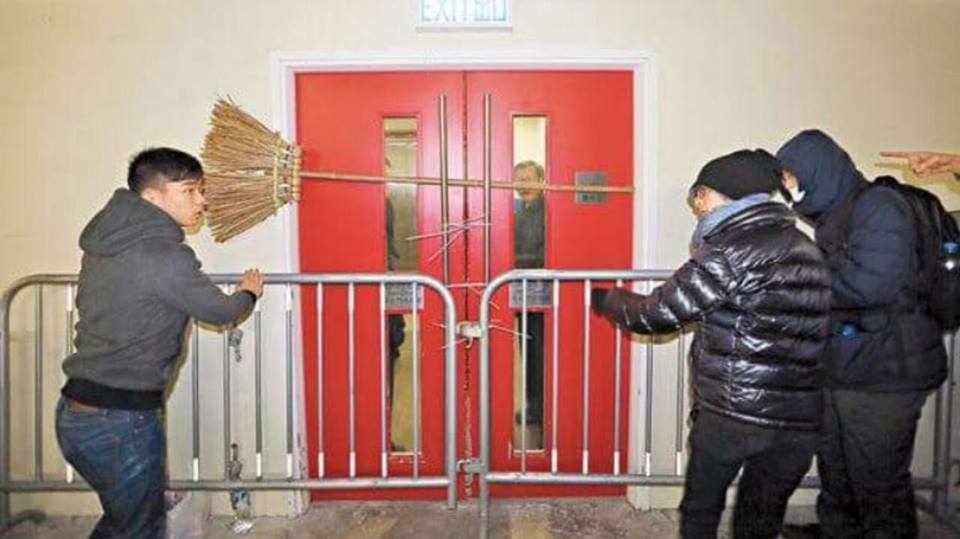
- Why Arthur Li was unable to say even a
couple of sentence ...
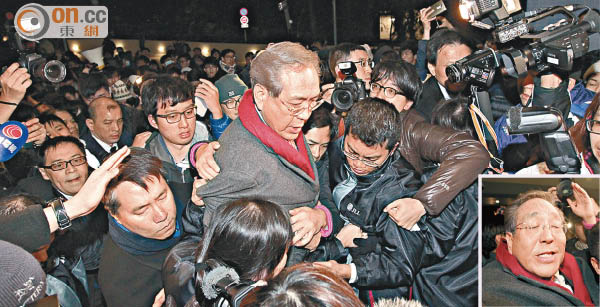
- Using plastic garbage bins to ram the
police line
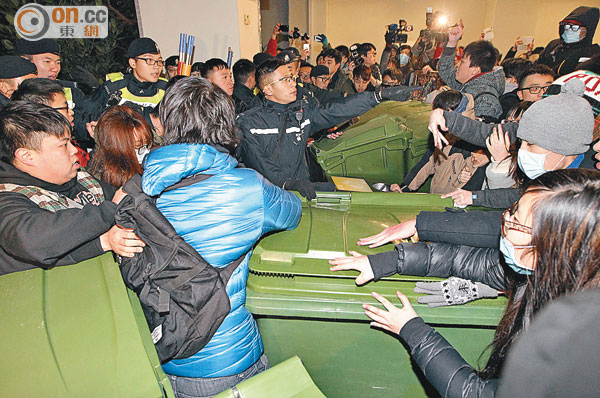
- The root of all evils is Chan Wing-ki
(Oriental
Daily) January 29, 2016. Strike committee member Lee Tsz-ho said that
they received the information that was consistent with what the university
council did. But he admits that there was a "technical error" when they
announced the meeting outcome, and this was clarified later. So who misled the
students?
The person who was responsible for reading
out the information from Billy Fung Jing-en was a female student with long
hair, short stature, bespectacled and wearing a neck scarf. She told that
students outside that "the university council has vetoed the establishment of
the review panel." This was revised later to "although the university council
has voted to establish a review panel, this will have to wait for the
University Grants Committee's report." But by that time, the students were
already charging. This female student is Chan Wing-ki, a member of the Student
Strike Committee.
Our reporter called Chan Wing-ki. She
admitted that there was "some confusion at the moment when the information was
relayed, but we clarified it within one second." She denied that she incited
other students to charge: "I don't think that students are as stupid as that.
It is underestimating the wisdom of the Hong Kong University students to think
that they would do so at the slip of the tongue."
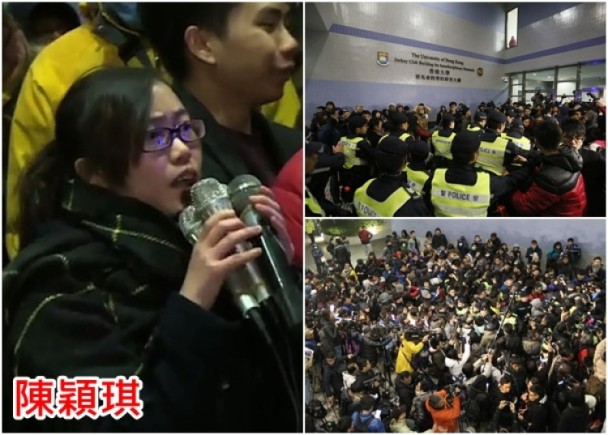
TVB News 0:45 Chan Wing-ki's
voice: "Right now there is no review panel." Immediately students sprint
forward into the garage and block the exits.
Oriental Daily @ YouTube
https://www.youtube.com/watch?v=GlKMUHToLh4 Strike Committee member
Chan Wing-ki being interviewed by telephone
- Are the students so stupid? You know the
saying: "Fool me once, shame on you; fool me twice, shame on me." And this is
the third time.
The first time around was when Shiu Ka-chun
(Baptist University Social Work lecturer) got on the Grand Stage in Admiralty
and told all those in attendance to rush over to Lung Wo Road immediately
because the police has just used tear gas again. This led to a huge clash
between police and demonstrator. Afterwards, Shiu said that he was merely
repeating what someone told him from behind and he had no idea whether it was
true or not, or even who that person was.
The second time around when someone told
those people in Admiralty that the Legislative Council was going to hold a
reading of Internet
Article 23 to kill off freedom of speech. Immediately people rushed over and
broke inside the Legislative Council building. Those who led the way to break
the door told others to enter while they slinked away themselves before the
police arrived.
-
https://www.facebook.com/gigi.mak.50/videos/10209017697266282/ Hong
Kong University students surround and harass a mainland student for taking
some photos of them, including making these demands:
(1) delete the photos/videos that he took. Under Hong Kong law, nobody has the
right to ask others to delete what they filmed because this is part of freedom
of artistic creation. If you feel that someone is breaking the law, you should
call the police as opposed to forcing them to delete their audio-visual files.
(2) prevent him from leaving. As Johannes Chan once explained, this person is
being falsely imprisoned.
(3) claiming that a wallet is missing (implying that this man stole it). The
police should be called in to investigate.
(Sing
Pao) February 1, 2016.
A young man is surrounded by
demonstrators who yelled: "What is your name?" "Do you support the
students?" A male voice said aside: "He is not a Hongkongers, he doesn't
understand Chinese." The man looked terrified. He cannot move forward or
backward. He could not say anything to explain. Then he said in putonghua:
"I came here for fun. I just want to take a look." The demonstrators said:
"Search his person." Another male demonstrator said: "Somebody has just
lost a wallet. You are suspected ..." The man said in English: "Please."
The demonstrator either did not know English or pretend to mishear, said:
"Police ... you are pretending to be the police." The man clarified that
he is not police. The demonstrator asked him: "Are you public security?" A
number of demonstrators pushed and shoved him and prevented him from
leaving. Finally, the man agreed to delete the photos in his mobile phone
and was allowed to leave.
If the Hong Kong University Strike
Committee is willing to allow outsiders to come in to demonstrate, then
why won't they allow the public to come and film? The key point is that
they demonstrators know that they are doing something wrong and therefore
they don't want to be filmed doing so.
- (Salute
to HK Police) On the first day of the class strike, the organizers
claimed that there were about 300 attendees at the rally. On the second day,
there were fewer than 100. On the third day, the class strike disappeared from
the few. But at the council meeting, more than 200 people showed up. Based
upon our reporters' observations at the scene and on the Internet, many of
these were outsiders, including other universities (Lester Shum from Chinese
University of Hong Kong, Nathan Law from Lingnan University, etc) plus some
radicals (Cheng Kam-mun, Ray Wong, etc), Shopping Revolutionaries (Chin
Po-fun, etc), post-Umbrella groups (Baggio Leung). In order to boost support,
the memehk forum posted early in the morning: "Hong Kong University needs your
support, the police have just applied pepper spray to the students." They
received 725 Like's. More than three quarters of an hour later, they added an
update at the bottom: "The police pointed a pepper spray device at the
students, but it is unconfirmed whether it had been used."
- (Speakout
HK) When Council member Patrick Poon Sun-cheong left, the
demonstrators: "Chase after that guy in the western suit. Who is this? Who are
you?" The demonstrators kept attacking Poon. The police officers opened the
barrier to let Poon leave. But the demonstrators held on to his suit and
refused to let him leave. Amidst the chaos the sit was ripped. A photo
provided by Poon showed one half of the suit that he managed to keep.
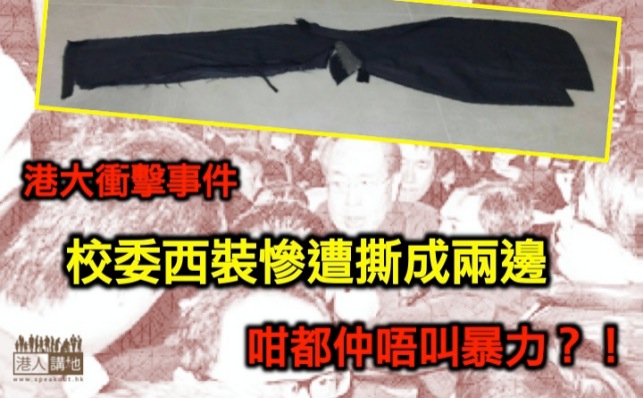
- (TVB)
Hong Kong University Students' Union president Billy Fung Jing-en said: "I was
at the council meeting and I thought that it was reasonable to wait two months
for the three demands of the students. But I could not push for an immediate
establishment of the review panel. Therefore I hoped that more citizens and
students could accomplish what I was not able to do or bring up in the council
meeting."
I find this incomprehensible. Couldn't Billy
Fung just tell the council members: "Look, guys, either you form the review
panel this minute or else I am going to send a message to the students outside
to block the exits and prevent you from leaving until you agree!"?
- (Hong Kong Police incident report)
At about 840pm that evening, the police
received a 999 call from the security guards at Number 5 Sassoon Road, Western
District. The report said that there was a dispute at the location. Later the
police received calls from other security guards at the same location that the
glass door at to the building has been damaged and many persons are entering
the building by force. They requested for police assistance.
During the period when the police arrived and
investigated, one woman complained of being ill and another complained about a
foot injury. However, the persons present at the scene prevented them from
getting onto the ambulances. Therefore police assistance was requested. The
police helped the two women to get on the ambulance which took them to Queen
Mary Hospital for treatment.
There were many individuals present at the
location and they were blocking the entrances/exits to prevent the persons
inside the building from leaving. The police appealed to those present and
also helped out the staff members and security guards. During this time,
certain individuals threw objects. The police stood guard with police batons
and pepper spray on hand.
Furthermore, a glass door, a fire escape
door, a security guard house and four lamps near the building were damaged.
Another woman was injured during the
incident. After she came to, she was sent to Queen Mary Hospital for
treatment.
The case was treated as one about citizens
calling for police assistance and criminal damage of property. The case is
being followed up by the Western District Crime Investigation Division.
Tai Mo Shan
is the highest peak in Hong Kong, with an elevation of 957 meters. Due to the
height of the mountain, Tai Mo Shan is said to be Hong Kong's most misty
area, as it is often covered in clouds. In summer it is frequently covered with
cumulus clouds, especially on rainy days, and in winter stratus clouds and fog
often cover the peak.
(SCMP)
January 24, 2016.
Dozens of frost chasers became stranded on
the road down from Hong Kong�s tallest peak after blistering wind and rain
had made road conditions too slippery to walk, hampering rescue efforts.
Firefighters had received around 20 calls for help this morning by 9am from
Tai Mo Shan peak as crowds hoping to catch sight of rare frost in subzero
conditions had clambered up steep slopes in the early morning and found
themselves struggling in the freezing conditions. One sightseer was reported
in critical condition, according to firefighters at the scene. At least four
ambulances and three fire trucks were blocked from reaching the top as cars
were all jam packed in the parking lot by 9:30am.
�Everything was frozen up there, even the
roads,� said Danny Yip, a 23-year-old university student who had hiked up to
957m peak. It took Yip and three of his other friends four hours to hike to
the top where it was a freezing -4 degrees at around 4am.
A steady stream of people, mostly
youngsters bundled up in thick, ice-covered parkas, slid and slipped down
slopes, even two ambulance personnel had to turn back after icy roads up to
the peak proved too difficult to cross. �There were a lot of winding roads,
it was like going down a slide,� Brian Kwok Chun-hey, a university student.
�It�s really an unforgettable experience, I don�t think I�ll ever come back
up again in such conditions,� said Ma Wing-sin, whose wet ponytail was
frozen with ice crystals. �But we�re young, it�s when you should create
memories.�
(Apple
Daily with video) January 24, 2016. [At 3:15am January 25, 2016, there
were 868,248 page views, 19K Facebook LIKE's and 1,064 mostly negative
comments.]
For safety reasons, the Hong Kong Police began
to block the Tai Mo Shan Road around noon and stopped citizens from going up. At
around 5pm, a man and a woman attempted to go up. Police officers stopped them.
The woman dressed in a pink jacket became very unhappy. She took out a
mobile phone and filmed the police officers. She yelled aloud: "Why are you
restricting people's freedom?" The police officer explained that its was unsafe
up there and called for the couple to leave. But the woman refused to leave. She
insisted firmly: "We will be responsible if we run into danger. Our lives belong
to ourselves" and "It is your job to rescue people." The police told them
repeatedly that Tai Mo Shan Road is blocked, but she insisted on going up.
Finally the police officer issued a warning to her that she may be arrested if
she crossed the police line. When she heard that, she did not take any action.
Once the couple realized that they couldn't go
up, they turned their anger on our newspaper reporter who was filming on the
side. She said: "Are you reporters? Where are your press passes?" Our reporter
ignored her. She insisted: "I have the right to inspect it" and then she issued
a challenge: "Let's see who has the higher hit rate on the Internet." As the
couple left, they saw a fireman slip down onto the ground and they gave a hearty laugh.
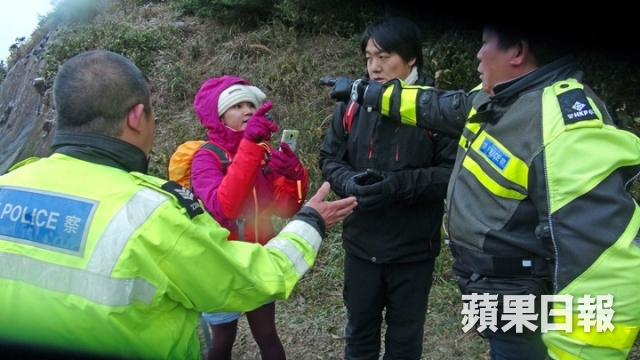
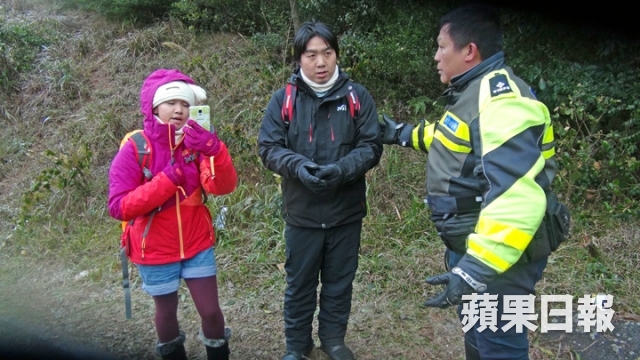
(Apple
Daily) Transcript of video
Woman: Do you want us to take another route up?
Police: It does not matter. Do not go up there, please! Okay. Go back!
Woman: You are restricting us ...
Police: It is dangerous up there. Because it is dangerous.
Woman: If we are in danger, we will be responsible for it.
Police: It is dangerous. We are not letting people go up. Please.
Police: This is already blocked off. Let me repeat once more. It has been
blocked off.
Woman: Rescuing people is your duty. It is your duty!
Police: Right! Yes, yes.
Woman: It is your duty!
Police: We will rescue you!
Woman: It is your duty! I will protect myself.
Police It is dangerous now.
Police: Because ... how about it?
Woman: You've tried to advise me, but I myself still want to go up. What about
it?
Police: It has been blocked off. So you are not allowed to go.
Woman: That is, you want me to go up by some other way.
Police: I will certainly not let you cross over. Not this road.
Woman: You are telling me to take some other road to go up there so that you can rescue
us.
Police: I didn't tell you! I told you that the way is blocked here.
Woman: You stop talking nonsense.
Police: It doesn't matter what you say. Anyway, you cannot cross the police
restriction line.
...
Woman: Do you have a press pass? |
Reporter: Yes. How are you?
Woman: Can you show it to me?
Reporter: Why?
Woman: Eh, you say that you are reporter. So I have the right to look at it.
Reporter: You film and I film. We are all in a public place. That's all. Right
or not?
Woman: A reporter who won't show his press pass and he is filming others. Do you
know Hong Kong law?
Reporter: Yes.
Videos:
Apple Daily
https://www.youtube.com/watch?v=XL6nLoPav14 0:06 People sliding down the
mountain
Apple Daily
https://www.youtube.com/watch?v=zMbsZS_4XQs Fisheye lens view of how to
slide down the mountain
HK01
https://www.youtube.com/watch?v=hsihuqI-r_4 Penguins sliding down hill?
Headline POP news
https://www.facebook.com/bbtauseeworld/videos/446043365593046/ People
sliding down on the icy road
Sing Pao
https://www.youtube.com/watch?v=kaI1InT-Kfc Fire truck skidding on the
icy road
Oriental Daily
https://www.facebook.com/hkfirenews/videos/1681272342085306/ Firemen
evacuating a citizen by sliding down the icy road
Oriental Daily
http://hk.on.cc/hk/bkn/cnt/news/20160125/bkn-20160125000158755-0125_00822_001.html?eventsection=hk_news&eventid=4028828d524a39c40152541bb64a3cbd
Police Tactical Unit members in iced uniforms slipping and sliding to rescue
people
NOW TV
http://news.now.com/home/local/player?newsId=166302
Television news report on rescue effort
TVB
https://www.youtube.com/watch?v=AHpzo6E-BUg Television news report on
people coming down the mountain
https://www.youtube.com/watch?v=kIhBqfVlDWI People slipping and sliding
on the icy road
https://www.youtube.com/watch?v=LFmB3-HtKT4 More citizens and firemen
slipping and sliding on the icy road
https://www.facebook.com/lai.wing.94/videos/798572956921367/ Slippery
slope
Headline POP news
http://pop.stheadline.com/content.php?vid=39853&cat=a Here is a video of
cows slipping and sliding on Tai Mo Shan. People can be heard giggling, but they
didn't know that one cow had to be put away on humanitarian grounds after
breaking a leg upon falling down.
Internet comments:
- What kind of person is this woman? Would you
guess Yellow Ribbon or Blue Ribbon? Here is what some Internet users have found
out:
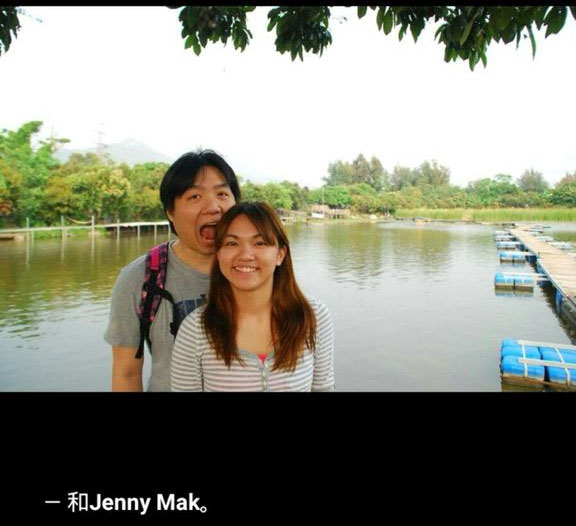

(Teenage Mutant Ninja Turtles backpack strap)

Yellow Umbrella!
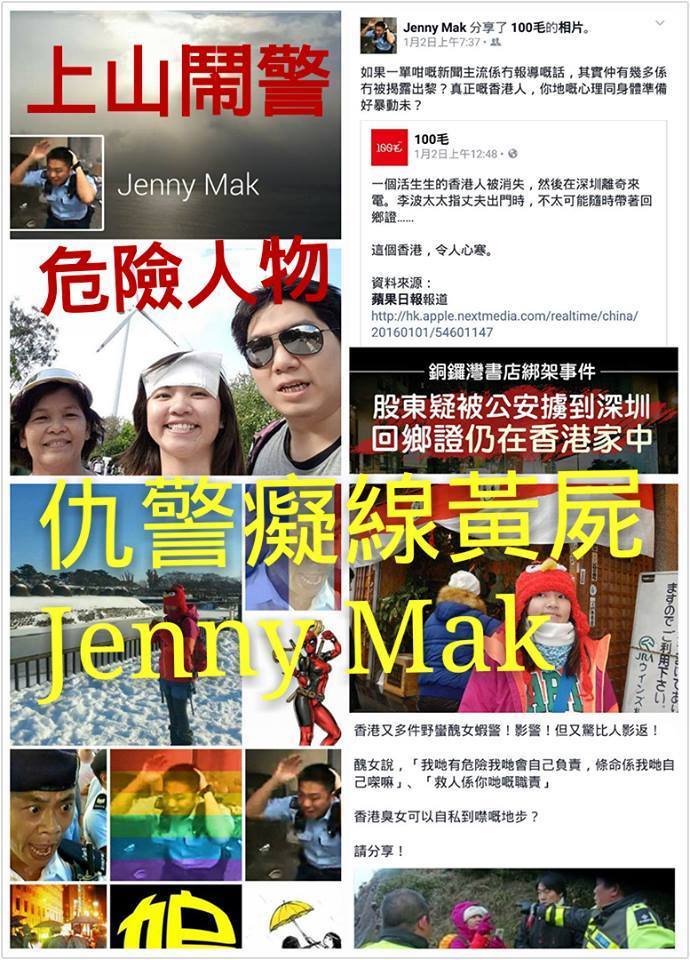

- Jenny Mak is the first Hong Kong Internet
celebrity of the year. Congratulations!
- Pity the guy who hasn't been named yet. He didn't say a word but he will be
immortalized in the annals of the Hong Kong Internet. But he is culpable because
he did nothing to stop his companion.
- Two weeks ago, the Taiwan television host
Kevin Tsai made an observation: Most of those people afflicted with the
so-called
Princess Sickness are not princesses -- they are merely sick.
- There is more than one Jenny Mak on Facebook.
Tonight both had to delete their accounts. The collateral damage is
regrettable.
- This woman's friend is trying to defend her
behavior on the grounds that she was 'emotive' and therefore has no 'logic'.
That is just making Internet users even more "emotional."
- She hates the police. When the 19-year-old
Vivian Chan died in the Bangkok explosion, she gloated that Chan deserves to die
because her mother is a retired police officer. Because she hates the police,
she looked for this opportunity to demean the police and get some Facebook
LIKE's from fellow Yellow Ribbons.
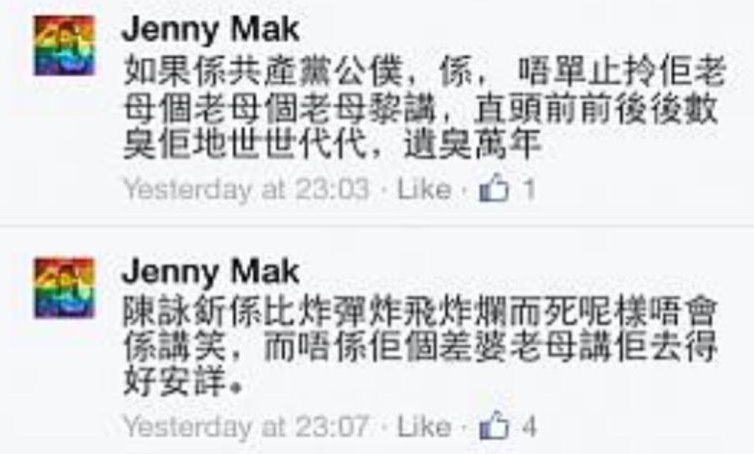
Jenny Mak: Right, if she is a Communist public servant, then not only her
mother's mother's mother, but for all generations before and after her will
stink for ten thousand years.
Jenny Mak: It is not a joke to say that Vivian Chan was blown to pieces, but it
is when her policewoman mother said that she passed away peacefully.
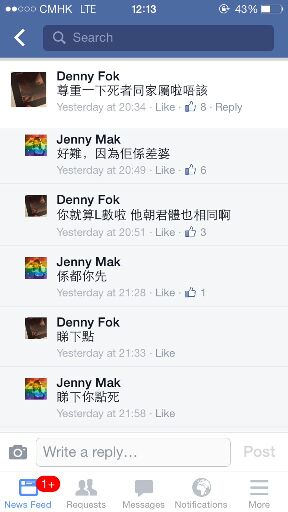
Denny Fok: Please show some respect for the
deceased and her family
Jenny Mak: Very hard, because she is a police woman.
Denny Fok: Fucking forget it! One of these days it will be your turn.
Jenny Mak: You first.
Denny Fok: Wait and see.
Jenny Mak: See how you die.
- The primal sin of this woman is not so much that
she spoke aggressively to the police officers, but that she was impolite to the
Apple Daily reporter. Hell hath no fury like an Apple Daily reporter scorned.
- Conspiracy theory due to too many
coincidences:
Why were there so many anti-police posts on her Facebook?
Why was she photographed in a Yellow Umbrella demonstration march?
Why was she filmed going up Tai Mo Shan and cursing out the police?
Why were her Facebook photos posted on the fifty-cent-gang forum Discuss.com.hk?
Did she set up this piece of theater in conjunction with the Evil Police in
order to denigrate all Yellow Ribbons?
- This woman does not even have the minimal
sense of what she was going to face up the mountain. She is wearing a pair of
blue jean shorts, stockings and boots. Look at the videos of what was happening
up the mountain. So she is going to go up there, she is going to slip and slide
because her boots cannot handle the icy road surface, she is going to scrape her
knees, her stocking is going to get wet and freeze and she will be dialing 999
and wondering why the police isn't there yet to carry her downhill.
- And she was trying to go up at 5pm. It will be dark shortly and even colder.
- This has less to do with Yellow Ribbons
versus Blue Ribbons. It has more to do with this woman being a disgrace to the
people of Hong Kong.
- Many people (including my Yellow Ribbon
Facebook friends) criticized this woman when the video surfaced. But as soon as
it was uncovered that she is a diehard Yellow Ribbon, the Yellow Ribbons
suddenly became silent because they never criticize their own kind
- This woman is going to surface a couple of
days later and beg for mercy. She will say that she has been under a lot of
pressure (with her family and friends and at Hong Kong Airlines where she
works), and that she is going to commit suicide if this continues.
- Wait a minute, not all comments were negative
against the woman. There were some trolls who said that they would file a
complaint against the Evil Police for false imprisonment and violations of the
Basic Law:
Article 27
Hong Kong residents shall have freedom of speech, of the press and of
publication; freedom of association, of assembly, of procession and of
demonstration; and the right and freedom to form and join trade unions, and to
strike.
Article 28
The freedom of the person of Hong Kong residents shall be inviolable.
No Hong Kong resident shall be subjected to arbitrary or unlawful arrest,
detention or imprisonment. Arbitrary or unlawful search of the body of any
resident or deprivation or restriction of the freedom of the person shall be
prohibited. Torture of any resident or arbitrary or unlawful deprivation of the
life of any resident shall be prohibited.
They also plan to lodge complaints against the
Fire Department for laziness!
- (Ming
Pao) The police blocked off the access roads to Tai Mo Shan, so that
everybody who wanted to go up had to leave their vehicles at the bottom of the
hill and try to proceed by foot. The police issued tickets to all the illegally
parked cars, including the cars that belong to the media organizations. The
police were meticulous, because they slipped the parking ticket into a plastic
envelop so that it wouldn't get wet and placed the package underneath the
windshield wiper.
- Oops,
Apple Daily is trying to wipe the slate clean for the woman because she
is a Yellow Ribbon. But as in the case of Lee Bo, the script has already been
adopted by the broad masses of Internet users and anything that the principals
have to say will not change any hearts or minds.
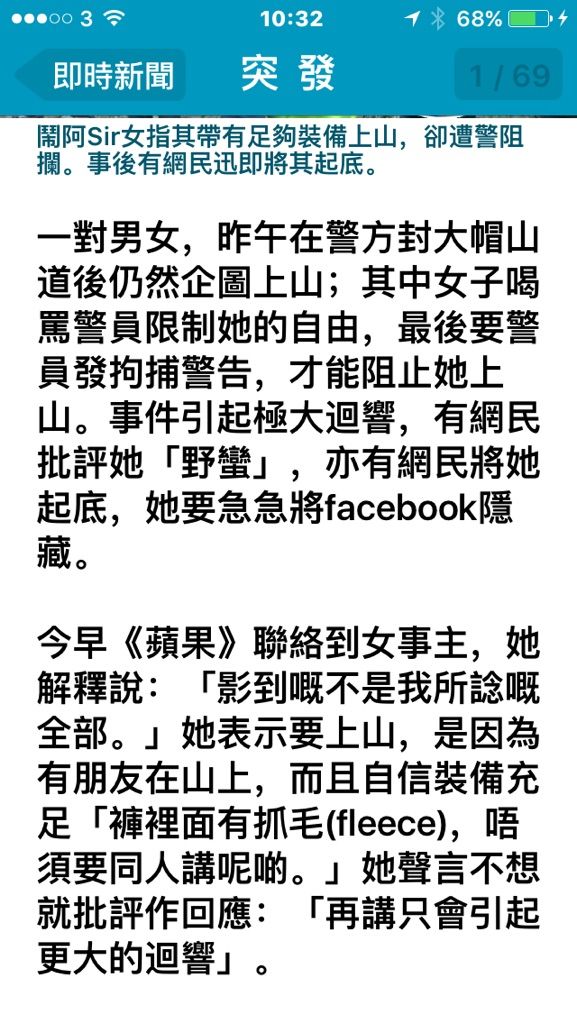
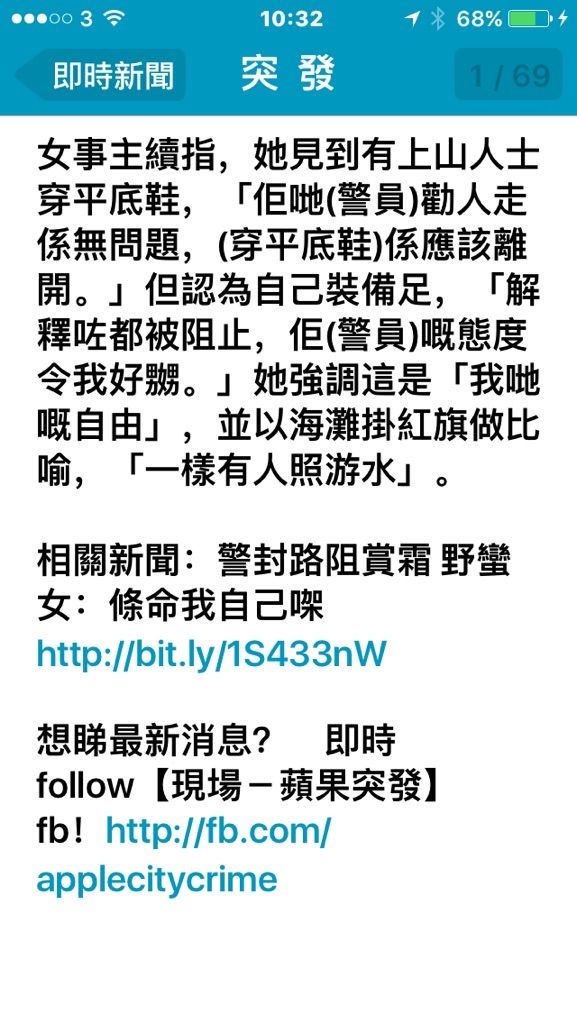
A couple attempted to go up Tai Mo Shan
even after the police blocked access. The woman cursed out the police for
restricting her freedom. In the end, she stopped only after the police
threatened to arrest her. This incident drew popular response with Internet
users calling her "barbaric." Some Internet users identified her, causing
her to make her Facebook private.
This morning Apple Daily contacted the
woman. She explained: "I don't think what was filmed was everything." She
said that she wanted to go up the mountain because she had friends up there
already.
She was also confident that she was properly equipped ("my pants were
lined
with fleece inside, I don't have to tell people that"). She said that she
will not respond to the criticisms: "Saying more will only draw more
reactions."
She said that she saw people going up
the mountain in flat soles. "There isn't a problem with the police advising
them to leave. They should leave if they were wearing flat soles." She
believed that she was adequately equipped. "I was stopped even after I
offered the explanation. His attitude made me very angry." She emphasized
that "this is our freedom" and used the red flags on beaches as the analogy.
"People swim all the same."
- Someone says that Jenny Mak is a worker
at the HSBC branch on 82-84 Nathan Road, Tsim Sha Tsui district. Let's all
go down there and visit her.
- Her Chinese name is Mak Kit-chun. Her mother is Thai. Her sister is Candy
and her brother-in-law is Roy Leung. Let's go after all of them.
- (Oriental
Daily) January 30, 2016. At around 7pm, a middle-aged man jumped on
the train tracks to take selfies. Citizens informed the MTR workers who
called the police to take the man back onto the platform. The man said that
he dropped his wallet and therefore went down onto the tracks to retrieve it.
The man was talking to himself and he was taken to the hospital.
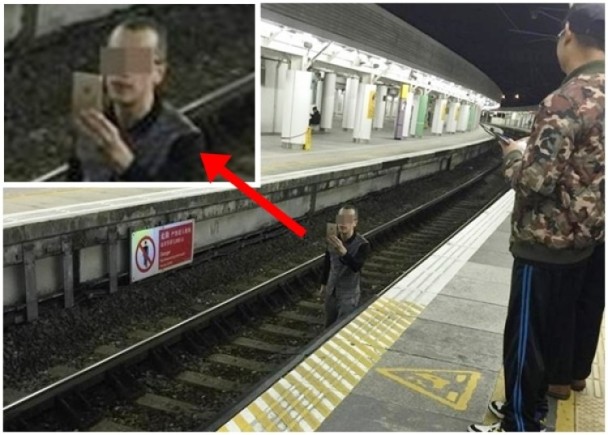
According to the Jenny Mak school of freedom, it is the man's freedom to
walk on the tracks as he is responsible for his own life. It is the duty of
the police to save people in the event that a train has to brake suddenly and
people get injured.
The original script: Class Strike
-> Hunger Strike -> Physical Action. The response to the Class
Strike has been less than satisfactory.
(Oriental
Daily) January 23, 2016.
On January 23, the Strike
Committee held a meeting and announced that they will protest at the January 26
meeting of the university council when Arthur Li will attend in the capacity of
council chairman for the first time. Strike Committee member Yvonne Leung
described this as the Moment of the Final Battle.
According to information, the
Strike Committee saw that the class strike was joined by too few students and
therefore the media and society did not pay any attention. Therefore, they
decided to escalate their action. They believed that the hunger strike that they
had previously discussed would not be "radical" enough. A Strike Committee
member announced that they will charge into the meeting and their action will be
even more radical than
Hong Kong University Alumni/Students Occupy University Council
Part 1 and Part
2 last time.
(YouTube)
Interview with Tam Tak Chi (People Power)
1:47 I myself have some ideas. The
university council is meeting on the 26th. Today there are about 200 fellow
students sitting here. If you add all the other people around here, there is
about 300 or so. The total is 500 persons. These 500 can swell continually. The
movement should not be limited to just within Hong Kong University.
2:07 For the university council
meeting on the 26th, I have some humble advice. That would be, a humorous kind
of resistance. When all the university council members have entered and are
meeting, these several hundred people will surround the meeting room and not let
the council members leave. Certain council members will claim to be ill, "I need
to see a doctor," "I am fainting," "I have gout," "I am experiencing a stroke,"
Lo Chung-mau and them will come out. They want to leave the meeting place on
grounds of needing medical assistance.
2:36 I think that when the Hong
Kong University students surround the meeting place, they can yell and shout,
they can sing karaoke, they can sing anything, they can sing the HKU school
song, they can sing the V-songs, S, S for sincerity, those halls have the stupid
slogans, they make noise outside the meeting so that they cannot hold a meeting,
so that the meeting becomes an embarrassment. This means going to this stage of
resistance. They'll have to accept the big demands.
3:02 Of course, we don't think
that we will get our four big demands by surrounding them just once. Getting a
response. Getting a positive response. CY Leung will resign. This and that. That
won't happen for sure. But it does not matter. We'll surround them. We'll make
many of them look bad, they will need medical assistance, they will have to
leave the meeting place. They will have to fake illness to leave the meeting
place. That's where we want to be.
3:16 And if those people inside
wants to eat food, defecate or use the toilet ... the Hong Kong University and
the Hong Kong citizens surrounding the meeting place will move mobile toilets
inside and guarantee that they have food, they have water, they can defecate,
they can urinate. We're going to harass them. We can do this. We don't have to
kick any doors, set fires, set fire to trash bins, we don't have to do that. It
will be like <100 Mao>: resist the authoritarians humorously. This is the Czech
experience. This can also be the experience of Hong Kong.
Internet comments:
- What happened with the strike?
The reasons why the strike failed are very simple. Firstly, the timing is wrong.
While the winter had been warm, a polar cold front has arrived. This is death
knoll for a mass movement. The Strike Committee is not fighting against the
authorities; they are fighting against Mother Nature. Of course, they come out
losing.
Secondly, they over-estimated
themselves. They believe that they are the centre of the universe and all 7
million Hongkongers will be focused on this ivory tower. So as soon as they hoist the
flag to "defend Hong Kong University," tens of thousands will come to show their
support. Unfortunately, political news is like overnight bread in a bakery --
nobody cares after it gets stale. People's attention are drawn to the case of the
missing booksellers, the governance report, etc. How many people care about whether
the Chief Executive serves as the university chancellor or not?
Thirdly, and most importantly, the
striking students failed to recognize the situation for what it is. Hong Kong has
seen any number of protests and demonstrations already. They are tired of this
type of mass movement. After 79 days of Occupy Central, absolutely nothing was
accomplished. So what can this student class strike accomplish? The Strike
Committee held a Constitution Deliberation Day and invited the students to
establish a new university ordinance. Everybody knows that the university
ordinance will not be easily amended just because a group of students sat down
and drew up yet another new ordinance. This is detached from reality. So it was no wonder
that the number of strikers was dwindling, and the show of force became a show
of weakness.
It is good for university students
to be passionate. But there needs to be vision and wisdom in addition to
passion. Rashness will only hurt themselves as well as Hong Kong University.
Yesterday, the Strike Committee hung up a black banner for "Hong Kong City's
First People's University." Did they think that more students will join the
strike after seeing the banner? Did they think that denigration is a tactic that
will be good for the university?
- In theory, there is nothing
wrong with
students making demands to reform the system. After all, all systems should
eventually be reviewed and reformed to reflect changing socio-politico-economic
conditions. The Chief Executive responded that the
government has the right and the duty to appoint the council members in
accordance with the existing law. So the students make a big show while the government
responds tersely. If you don't know the details, you may think that it is up to
the university council itself to take action and the students are striking in
order to
force the council to act.
Actually, the structure,
responsibilities and membership of the university council are prescribed in the
Hong Kong University Ordinance. The other universities have similar ordinances with
variations that reflect local features. These ordinances are established and
amended by administrative and legislative processes by the government and the
legislative council respectively. The university council can at most make
suggestions. So when the students pressure their council members and trustees,
they are barking up the wrong tree -- the council has no legal way to fulfill
the demands.
There is also some
misunderstanding about the role of the university council. The council is
responsible for matters such as the hiring of the chancellor, the allocation of
resources, the direction of future developments and other macroscopic matters.
The council does not have the time or means to micro-manage operations in the
academic and administrative departments. There are many layers in between the
university council chairman and a teacher, so it is hard to imagine how Arthur
Li could strangle academic freedom.
The past and present presidents of
the Hong Kong University Students' Union are/were members of the university
council, and they should know how the university is operated. So they have no
reason to force the demands onto the council now.
- They are better off without the
hunger strike, lest they suffer the same scandal of the relay hunger strike by
the pan-democrats during which someone had to be hospitalized for food
poisoning.
- Of course, this is like Occupy
Central -- there is no thought about whether this is effective or sustainable.
Instead, they will do this because this is what they know how to do and because
they have no other cards left to play.
- If they barge into the meeting
and submit their demands, Arthur Li will tell them that the students demands
are already on the meeting agenda if only the students would let them meet and
discuss them. The council cannot say that they accept the demands without
discussing and voting. In addition, another stalling tactic is that they will
need legal advice because of possible
ultra vires
(acting in excess of its authority).
- Well, laying siege to the
council meeting again would actually play into Arthur Li's hands. Because of the
announced intentions by the students to disrupt the council meeting, Li would
have demanded the executive branch (Peter Mathieson/Steve Cannon) to take
preventative measures. If the meeting is nevertheless disrupted, those two will
be held responsible and this becomes a way for Li to purge the two university
officers who seemed disinclined to take action against the students last time.
Here is the leaked recording on the security issue.
(Hong
Kong Free Press) November 26, 2015.
Another recording of speeches made by Council
members of the University of Hong Kong (HKU) has been leaked on a popular
Taiwanese internet forum. The
transcript and
recording of an HKU Council meeting was uploaded the PTT forum at around
6pm on Thursday. The speeches were apparently made during an August 25
meeting, the one after the July 28 meeting in which students charged into
the meeting room. The students were protesting the Council�s indecision over
whether to appoint liberal law scholar Johannes Chan Man-mun as HKU�s
pro-vice-chancellor.
Steven J. Cannon: � We�ve got photographic
evidence that backs a lot of this up, we�ve reviewed the videos� uh� there
are a whole series of disturbing scenes� uh� we have been looking at what
legal options might be available to us. Uh�
Arthur Li Can I just ask is it possible from
your system that we can identify the students involved?
Steven J. Cannon: Certainly we can identify
individuals� we can identify the presence of individuals. It�s what those
individuals were doing. We believe that the number of potential offenses,
disorder in public places, unlawful assembly, assault, false imprisonment,
and nuisance committed in public places were all areas that if we chose
collectively or individuals chose to pursue � that would be��
Arthur Li: So you have evidence�
Steven J. Cannon: � we could gather evidence
around that and we would look to do that. But at the moment we are not� we
haven�t sought to do that. We are looking, really to get� sound, the
�experiences� but we do have written evidence from our people. We have video
and photographic evidence. We have video evidence.
Chairman: Leonie?
Leonie Ki: OK. I�d like to bring� uh chairman,
I�d like to bring the situation to inform the council meeting of this on
July the 28th, because I heard and it was possibly reported in the newspaper
on the 27 or the 26 of July, that the student union chairman of HKU has
announced that, if our re�, their request was not mentioned, they would
barge into the senate room.
So that�s why I tried talk to Dr. Chau, Dr.
Albert Chau, and I said we should not let the students come into the senate
room because it is really a sacred place for Hong Kong U, and besides, I
also sent you this email that the safety and dignity of the council members
should be guaranteed as well as the image of the university.
But then Albert told me not to worry, because
our students are very obedient, very good. And I keep reminding him of the
incidents on 818 and 812, is, uh, the reverse, you know, because we also
have other students from other universities.
Having said that, uh, it is, uh, because I� my
request is, because they already warned us of barging into the senate, I
wonder why we still let them come into the 10th floor, because, they already
give us a warning, we should not allow them to come onto the 10th floor. And
I think that we, instead of coming here, we should be still having our
meeting over there, instead of trying to be scared, because what we should
do is warned the students or whatever downstairs.
And I also heard later on, that from the
pan-democrats, they said that 13 people, the alumni, the Legco, they too
have an agreement to� stay downstairs, whereas� students go upstairs. So
then, it�s so chaotic because it is really like what Steve has reported, is
organized and is also orchestrated. And I think we should be protected
because we already heard of this alert, and we should take warning, you
know.
Chairman: Steve, I would answer several
questions after you tell us why students barged �up to the 10th floor?
Steven J. Cannon: We were following
essentially the� 818 guidance and protocols that have been established� and
there have been several protocols, I agree that there had been a threat to
enter the council. (Leonie Ki: it�s a threat announced�) There had been
several protests on, several council meetings running up to, to where we
have quite a significant number of people on the 10th floor.
I think that we had a strong sense that the
students would enter the council chamber. I think what we expected we also
had a strong sense that would happen at the end, towards the end of the
meeting after the vote on a particular�uh, uh, item was taken. But the view
was that they would enter in a reasonable manner and that the chairman would
adjourn the meeting and general meeting (Chairman: if they don�t leave) if
they don�t leave, we would appeal to them to leave, and the chairman would
adjourn the meeting and then there would be an element of calm. What we
didn�t expect was the level of verbal abuse and physical abuse that took
place and that�s what we hadn� t anticipated.
And that suggests to us that we need to
revisit the original agreement if you like, which wasn�t an agreement, the
original protocol with our students about allowing zone demonstration areas,
about close access to the council members which came out of the 818
incident.
Chairman: I don't mean to intervene� this
moment, first of all, we are now facing three problems, first of all is
improving our so called security safety for� visit the council meetings.
Going back to a more decent meeting place, as I mentioned at the start, this
is� a makeshift issue, this university � a decent meeting place, for
council, senate, and Court � EVP� service unit� in this week, to seek out of
a possible way to have a more decent meeting.
One of the things that I am suggesting, is
that, still � council, uh, senate chamber, but we want to make sure that
there�s another door that members can leave should the only existing door be
barricaded and somebody toss a firebomb or something on it��. I�m very, very
strong that ... defend � we need a proper meeting place and not just a
makeshift thing.
Point number two is that the whole movement
was based on the protocol decided on� obviously� said that needs to be
changed as a result of this one incident. The reason that is safety and
security in� to come. I want to bring up two points. One is that there are
evidence and we have actually received complaints that students eventually
involved in barging into the senate chamber� students while down in the car
park, etc. or others� people from outside� central or other� from both side�
there was a lot of controversies. Now we�ve identified students that�and
take actions� would be an issue perhaps the Vice Chancellor� accept�
Arthur Li: That would be against one student�
Chairman: Because by protocol�
Arthur Li: There still one student�
Chairman: This is , this is just the starting
point � somebody complained one student�
Arthur Li: I mean, I mean, I mean�I don�t know
the name of the student�
Chairman: I would, I would advise�
Arthur Li: May I, may I, may I suggest this,
chairman, let this be passed to the meeting�, to identify the students
involved to face disciplinary actions, has to report back to the council(?)�
for more actions� (Chairman: � accepting reporting� to see if we agree with
the actions or not�because I �m � giving a very clear message� I� If we do
not do it properly, any council member can take civil actions against the
students, against this council, OK?
Because you are not protecting the council
members�
Chairman: That is what I am�
Arthur Li: I can take civil actions against
University of Hong Kong. I can take criminal actions against the students
but I can also��
Chairman: I am not disagreeing� What I�m
saying is that� There is already a receipt of one complaint of�
Arthur Li: Yeah I don�t want to�
Chairman:�one beginning�
Arthur Li: Yeah but it�s not fair to single
out one student��
Chairman: Next thing�would be� all over the
facebook� identify others
Arthur Li: Have we accepted.. the�report?
Chairman: Yes
Arthur Li:�and then ask� to deal with the
consequences thereof�
Chairman: Oh that�s basically what it is.
Steven J. Cannon: The issue is yet between
student discipline and general public offence, if you like. The student
discipline under the ordinance of statute that students dedicated� a
complaint has to be raised within twenty-eight days of an incident, and it
has to be specific� and we have had one complaint and that goes to the
Vice-Chancellor, and then....
- (HKG
Pao) Yvonne Leung justified the Strike Committee's escalation plan
by saying: "If Arthur Li has not done anything bad, then how come more than
4,000 students opposed him assuming any public post?" Very often Miss Hong
Kong or the Best Television Actress may be voted upon to pick the best. But
using the vote to prove whether someone has done bad things is unheard of!
She went on: "We ask the students to come
personally on January 26 to express our demands ... if they even vetoed the
establishment of a review panel to examine improvements for the university
system, then we can be sure that the university system will not improved
while Arthur Li is the chairman of the university council." This is a weird
logic!
Firstly, the university council has 24 members
including the chairman. By custom, the chairman does not vote (unless there
is a tie). Therefore there is no direct relationship between Arthur Li and a
council vote. Furthermore, not supporting a review panel does not mean
opposing the issue, just as not liking a restaurant does not mean not eating
at all. It is absurd to equate vetoing a review panel with refusing to
improve the university system.
Furthermore the Strike Committee has four
demands. The other three demands are directed at the changing the governance
structure, and they are setting up the premise for the review panel. That
is, the job of the review panel is to accept these other demands or else it
will be declared a failure. However, the university council needs to
prioritize and balance other aspects of the university and any improvement
to the system will be made with the best interests of the university as a
whole in mind as opposed to the preferences of a small number of
individuals. Therefore, the university council has plenty of reasons to veto
the student demands.
- (Bastille
Post) January 25, 2016.
On Monday, the Strike Committee asked to meet
the deans of the ten faculties and the student representatives of the ten
faculties. None of the deans or student representatives showed up for the
meeting. According to Strike Committee member Wong Chun-kit, the deans of
the faculties of physics, social sciences, education, dentistry and the
economics/business administration responded in writing but their deans did
not attend the meeting. The other five deans did not respond at all. The Strike
Committee took a "Defend institutional autonomy" banner and marched to the
offices of the ten deans.
- (HKG
Pao) January 25, 2016.
According to Strike Committee member Wong
Chun-kit, some students think that the class strike is too "moderate." At
the last meeting, someone proposed laying siege to the council members at
the January 26th meeting. Furthermore, if the demands are not met, they will
intercept the council members. Wong Chun-kit said that it depends on the
number of students versus the number of security guards and police officers
at the scene. "If the students want action, then they should show up
tomorrow." He hopes that the number of participants won't be less than the
number of strikers.
Wong Chun-kit said that he believes the HKU
students will act in a restrained manner without any violence. He asked the
council members not to "excite" the students.
Meanwhile Strike Committee member Yvonne Leung
said that the Strike Committee will discuss next steps after the council
meeting, such as continuing the class strike or using a judicial review to
challenge the university ordinance on the automatic appointment of the Chief
Executive as Chancellor. She said that the class strike was the first step.
Afterwards, they will liaise with other university student unions to expand
the action across Hong Kong.
- (Financial
Times) More good news for the Strike Committee. Here are the 2016
global rankings for business schools:
#1 Insead (France/Singapore), #4 in 2015
#14 HKUST Business School (Hong Kong), #14 in 2015
#17 Ceibs (China), #11 in 2015
#26 CUHK Business School (Hong Kong), #30 in 2015
#29 Nanyang Business School (Singapore), #40 in 2015
#32 National University of Singapore Business School (Singapore), #31 in
2015
#39 Shanghai Jiao Tong University (China), #55 in 2015
#43 Renmin University of China School of Business, unranked in 2015
#44 University of Hong Kong (Hong Kong), #28 in 2015
#47 Fudan University School of Management (China), #55 in 2015
This proves conclusively that it is bad to
have the HKSAR Chief Executive serve as the University Chancellor.
(Agence
France Presse) January 20, 2016.
Students protested on the campus of Hong
Kong's leading university on Wednesday (Jan 20) after a pro-Beijing official
was appointed to a senior role, as fears grow of increasing political
interference in education. Around 100 protesters left classrooms to rally at
the Hong Kong University campus following the appointment of Mr Arthur Li,
known to be close with the government, as chairman of the university's
governing council last month. The appointment taps into wider concerns that
academic freedoms in the semi-autonomous Chinese city are under threat,
particularly in the wake of student-led mass pro-democracy rallies in late
2014.
"We are conducting a class boycott in order
to target unfairness in the system. Students have raised opposition to the
appointment but the school's autonomy is threatened," student leader Yvonne
Leung told protesters through loudspeakers. "It's an abuse of power," she
said.
(SCMP)
January 20, 2016.
About 250 University of
Hong Kong students staged a rally at the school�s Pok Fu Lam campus on
Wednesday in support of a week-long class boycott to demand an overhaul of
the institution�s governing council. The boycott will last until at least
January 26, when the council is scheduled to meet and discuss university
affairs.
The campaign came after chief executive
Leung Chun-ying�s controversial appointment of former education minister
Arthur Li Kwok-cheung as the council�s new chairman at the end of last year.
The appointment followed the council�s
decision in September to reject the promotion of pro-democracy law professor
Johannes Chan Man-mun to a key managerial post. Many students, staff members
and people from the society viewed these events as the result of political
pressure.
A source close to the information said the
council had put into the meeting agenda boycotting students� demands that
the council form a committee to review whether the chief executive should be
the university�s chancellor by default, whether he should continue to hold
the power to appoint council members and whether the number of members from
inside the university should be increased to account for at least half of
the council.
Priscilla Chan, 21, a law school student,
said she had been concerned about the university�s academic freedom since
the rejection of the law professor�s appointment. She said she would boycott
some classes but would attend ones essential to her grades. �It�s really
tragic that students are forced to use class boycott to express their
demands,� said Chan.
Toby Ng Wing-chun, 19 and studying
education and social sciences, said he would boycott all classes until the
next council meeting.�We�ve used many mild ways to express our demands such
as rallies and referendums, but the system still has not been improved,�
said Ng.
But Lida Liao Jing-wen, 20, a science
student, said although she supported students� cause, she believed they
should protest after classes, or else they would give others an excuse to
criticise them.
Professor Johannes Chan Man-mun said he
would do his best to assist students. But he said people should consider
whether it was �sustainable� to express opinions via class boycott.
Organisers called for more staff members to
join the boycott. They said they would not count how many students joined
the campaign. There are almost 28,000 at the university in total.
During the rally, about 10 middle-aged
pro-establishment supporters staged a brief anti-boycott rally, shouting at
the students that they should be expelled. Some students shouted back,
asking them to �shut up� and ridiculing them as being paid to protest.
(The
Standard) January 21, 2016.
About 300 University of Hong Kong students
yesterday began a seven-day class boycott to protest against the structure
of the institution's governing council. Participants said it is the only way
to express dissatisfaction with the controversial appointment of Arthur Li
Kwok-cheung as university council chairman by Chief Executive Leung Chun-ying.
They also oppose the default appointment of the chief executive as
chancellor.
The protesters, many wearing black,
gathered at Haking Wong Podium at 1pm to listen to speeches from organizers.
Hanging over the stage was a large white banner proclaiming "class strikes
show our determination." Another slogan said "HKU-ers share the same
destiny."
Former HKU student union head Yvonne Leung
Lai-kwok, one of the 15 members of the HKU Students' Strike Organizing
Committee, read out the declaration of the class strike, denouncing Li as a
"notorious scum in the education sector." She said Li is underqualified for
the council role, due to what she described as his poor record. Leung
accused Li of threatening former Institute of Education head Paul Morris in
an attempt to force through a merger with the Chinese University, and also
reducing funding to public universities when he was head of the Education
Bureau.
The students called on the school to set up
a panel to review the HKU Ordinance. They also want university members to
fill at least half the seats in the council, with the chairman appointed by
the council instead of the chief executive.
Some teaching staff rallied behind the
students, including electrical and electronic engineering scholar and HKU
Academic Staff Association chairman Cheung Sing-wai, Public Opinion
Programme director Robert Chung Ting-yiu and Fu King-wa, an associate
professor of Journalism and Media Studies Centre. Current student union
chairman Billy Fung Jing- en called on more teachers to join the boycott to
support the students. But Cheung feared teachers could be accused of a
breach of contract and fired by the council under Li's authority.
Fung acknowledged the strike did not disrupt
classes, but he was not disappointed at the turnout. Adrian Lau Chun-yu, 20,
an engineering sophomore, said about 80 to 90 percent of students attended
yesterday's classes.
A pro-Beijing group, Treasure Group, staged
its own 15-minute counter protest, which led to a verbal fight between the
two sides. The pro-Beijing protesters said the students were being
influenced by a foreign power and called on HKU vice chancellor Peter
Mathieson to step down.
(SCMP)
Class boycott? Just get on with studying. By Alex Lo. January 19, 2016.
Let�s play a little game of moral
equivalence. Suppose the council or the administration of the University of
Hong Kong decides to overhaul or abolish the student union and other
student-oriented groups. What would you call that? Given the political
agitations that student activists have been involved in recently, many
people would not hesitate to call it political interference.
Now, let�s turn that around.
Some HKU students have occupied the
council, possibly illegally; chased and shouted down council members; voted
in a fake referendum against the council�s decisions and personnel, and
fought and are still fighting against the appointment of Arthur Li Kwok-cheung
as the new council chairman. Some are staging a boycott of classes. Is that
not interference in something they really have no business in?
Sure, I used to boycott classes too when I
was an undergraduate, usually from partying too hard the night before. But I
didn�t try to convince others to join me.
Even if you think the students are
committed to the cause of democracy and improved governance, they are still
making a mistake � what philosophers call a category mistake.
I am sorry to say but not every type of
human organisation is or should be run on democratic principles. A private
company is not a democracy, but essentially an autocracy. A university may
teach about democracy, but it is not a democracy.
But what about academic freedom and
autonomy, some ask? Exactly whose research or work duties are being
interfered with? I can name one � Professor Li.
Students essentially have a limited role to
play in how a university is or should be run. That�s because, contrary to
the belief of some Hong Kong people that a student�s job is to protest and
fight for democracy, they are actually there to study.
I just read it costs more than a quarter of
a million dollars to educate an undergraduate student for one year. Assuming
he or she receives no scholarship or any form of student aid, they still
only pay a fifth of that for their annual tuition. For those who want to
protest or boycott instead of study, I suggest they cough up, pro rata, the
taxpayer�s money they waste and give it to those who want to study.
(Wen
Wei Po) January 21, 2016.
The Strike meeting was held at 1230pm at
the Haking Wong Podium, Hong Kong University. Strike Committee member Edward
Leung got on stage and urged the students to "hold firm." He also shouted
for the teachers to stop teaching. Hong Kong University Academic Staff
Association chairman Cheung Sing-wai got on stage to explain that the
teachers only have the legal right to strike if there is a labor dispute.
Therefore he will not call on teachers to strike. The meeting ended about in
about 2 hours and the participating students scattered (not to attend class,
of course). About 10 Strike Committee members stayed behind to write
posters, hand out leaflets and clean up. The entire scene was cleared in
less than 3 hours.
Strike Committee member Wong Chun-kit said
that 300 persons participated in this Strike. When asked if the number is
too small, Wong said that "it is understandable that the number of
participants is small because there wasn't much time to publicize." As for
calling the teachers to join, Wong asked the teachers to "realize" that they
are victims/stakeholders as well and that they "have the duties themselves
to resist." He asked them to "recognize the seriousness of the situation"
and "think carefully about" joining the students.
According to a first-year student named Fu,
the classrooms are still filled with students. She said that she has read
the leaflets and heard the call, but thought that the strikers were
"somewhat rash and also not optimistic about their own actions." She said
that the effectiveness of a strike depends on the numbers. Only if large
numbers join can the action succeed. Also the one week duration is too
short: "The strike was over before many students even knew what happened."
According to an education student named
Chan who was on the way to the canteen, he did not agree with the goals and
he is worried that the action will damage the reputation of the university.
Therefore he won't participate.
According to Faculty of Arts student named
Lee, she disliked Arthur Li but that a class strike will help. So she is not
participating either.
According to citizen Ms. Fung, "it is good
thing that students care about current affairs, but their first priority
should be to study." She suggested that the students should find some other
way of expressing their demands.
(SCMP)
January 21, 2016.
About 100 students continued to support a
class boycott at the University of Hong Kong on its second day, with many
calling for an escalation of the campaign. They gathered in the university�s
Pok Fu Lam campus to attend a forum discussing changing the governing
council�s composition, which has been criticised for inviting political
interference in academic freedom.
Benny Lam Kin-ping, 19, an engineering
student, said he would continue to boycott all his classes until the council
responds to students� demands. �The boycott is just the first step to raise
students� awareness,� said Lam. He added that students should consider
escalating their campaign, staging other activities such as a hunger strike.
Winnie Chan Wing-yue, 20, studying
government and law, said the boycott would exert more pressure on the
council if more people joined. She also believed that there should be some
kind of escalation later, such as storming council meetings to express
students� demands. �We have come to a point where the violence of the system
is more serious than the violence of students� actions,� said Chan, when
asked whether an escalation of campaign would invite criticism from the
public.
(EJ
Insight) January 21, 2016.
Student militancy appears to be fading at the University of Hong Kong, the
city�s oldest and most respected tertiary education institution, even as the
newly appointed chairman of the school�s governing council has taken an
aggressive role in running its affairs.
Media
reports have it that HKU council chief Arthur Li met all faculty heads on
Tuesday, the eve of a weeklong boycott of classes organized by some students
to seek to end the tradition of automatically appointing the Hong Kong chief
executive as chancellor of the government-backed school.
Li�s
meeting with the 10 faculty chiefs was an unusual arrangement, raising
concern that the new council chairman is trying to apply pressure on the
academic staff to toe the line when it comes to university policies and
decision-making.
Even
HKU law professor Johannes Chan, whose nomination to become the university�s
pro vice chancellor was shot down by Li and other members of the council,
noted that Li�s management style indicated that he would play a very active
role in running school affairs.
Previously, Chan observed, the new vice chancellor would only visit the
faculty chiefs individually and introduce himself to set an atmosphere of
mutual respect and productive cooperation between the governing council and
the teaching staff.
But
Li�s move to call for a meeting of the faculty chief has raised concern that
he is trying to bypass vice chancellor Peter Mathieson and impress upon
everyone that he will participate actively in the university�s daily
operations.
In
fact, rumors have been flying around the campus that Li wants to take
Mathieson to task for his performance in the past two years and the fact
that he had travelled abroad more than 10 times during the period.
Li
also reportedly told all the pro vice chancellors to submit a detailed
report on their individual capacity.
These
actions have convinced many on the campus that he wants his role to go
beyond merely presiding over the council�s regular meetings.
That could also be the reason why HKU students and academic staff responded
cooly to the boycott call. Only around 300 students took part in a rally on
Wednesday to kick off the campaign, which is expected to last until
the governing council holds its next meeting on Jan. 26.
The
students, in calling for a boycott of classes, believe that the
government is undermining the autonomy of the university, and what could be
a better evidence of that than the rejection of Chan�s nomination to the pro
vice chancellor post and Li�s appointment as council chairman?
One
way to insulate the HKU from political interference is to end the automatic
appointment of the chief executive as university chancellor.
While
the demand appears quite reasonable, the boycott leaders are finding it hard
to convince students and teachers to join the campaign.
Just a
few months ago, HKU students and alumni demonstrated their solidarity to
oppose the rejection of Chan�s appointment as pro vice chancellor.
But
why is it that the boycott campaign has failed to gain momentum? Have they
failed to recognize the validity of their demand, that the campaign is but
an extension of their actions in support of Chan, which is the fight for
academic freedom?
Or has
activist fatigue finally come to the HKU? Do the students now feel that
nothing will come out of their struggle, especially after Li�s appointment,
and it is better to return to the classroom and focus on their studies?
There
is no question that their demand remains valid. Academic freedom is a worthy
cause. Only a reform of the structure of the university�s governing council
will ensure the school�s independence from political interference.
But
students and faculty seem to have lost their will to pursue the struggle. Is
it a question of timing or of tactics?
The
students and faculty members should not forget that it was the class boycott
campaign that gained the attention of the public to the need for genuine
universal suffrage. It was the boycott of classes in late September of 2014
that paved the way for the Occupy Movement.
It may
be unfair to compare the two boycott campaigns, considering that the 2014
action was organized by various student unions under the Hong Kong
Federation of Students and its agenda related to the entire community and
not just to the students.
It
will also be recalled that several student unions, including the one from
HKU, withdrew from the HKFS last year, and that could be one of the reasons
for the lukewarm response of students to the boycott campaign. The HKU
campaign lacks full support from students from other universities.
It can
even be assumed that many HKU students now feel tired after they failed to
stop Chief Executive Leung Chun-ying from appointing Li as the school
council head. They may have lost hope that their action could still put
pressure on authorities to uphold academic freedom.
What�s
the use of struggle against people who are intent on exercising their
authority and imposing their will on everyone?
Such
an attitude could only offer an opportunity for Li to deepen his influence
in the university.
Li, of
course, will not tell the faculty members and the rest of the academic
community to refrain from anti-establishment activities or pro-democracy
campaigns. Instead, he is more likely to put pressure on them to improve the
university�s academic performance both here and overseas.
Some
education insiders believe that he will focus on student performance,
international ranking and other metrics such as number of dissertations
published to determine the standing of the university.
With
that approach, the academic staff will hardly have any time to join
political activities and will concentrate on passing the appraisal.
Li
cannot to faulted for seeking to drive the university�s academic performance
for that is his job as the school�s manager.
However, such an approach will only foster the image of the university as an
ivory tower, detached from the concerns of the community. It will only
create an institution that is silent and apathetic to the problems of
society.
Is
that the university that CY Leung wants in order to create a harmonious
society? Is that the kind of university we want for our children? Is it the
best way to harness our future?
(Wen
Wei Po) January 23, 2016.
On the third day of the student strike,
more than 10 Strike Committee members went to erect a banner saying that
Hong Kong University has degenerated to become "Hong Kong City's First
People's University." Their original plan was to affix the banner onto the
wall. But it was raining and the banner could not be affixed to the wall. So
they had to use ropes to hang the banner down from above. It took them three
hours to do so, more than the two hours of the assembly on the first day.
Worst yet, there was a misspelling.
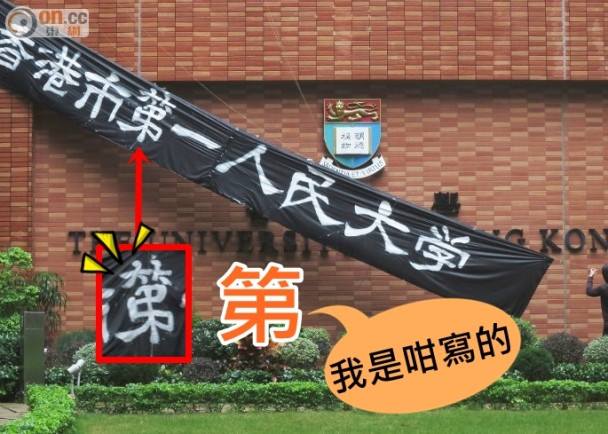
On Facebook, Yvonne Leung admitted that the
response has been tepid and she asked the critics to come up with "more
actions." Wong Chun-kit engaged in a Facebook fight with other students and
accused those who opposed the strike as wanting to be on the 'moral high
ground.' Meanwhile other radical students said that the strike is just the
first step and they look forward to more actions such as entering the
council meeting room and causing chaos.
Video:
SocREC
https://www.youtube.com/watch?v=GbgH-5QJ_UQ English-language
interview with Yvonne Leung
Internet comments:
- The international press coverage (such as
Agence France Presse) does not clearly list the students' demands. (Kinliu)
(January 20, 2016) said that the Strike Committee has four demands: (1)
establish a special team to examine
CAP 1053 University of Hong Kong Ordinance; (2) eliminate the automatic
appointment of the Chief Executive to university chancellor; (3) reduce
the proportion of outsiders in the university council; (4) the seven
university council members (including the chairman) appointed by the Chief
Executive should be appointed by the Council instead.
All four demands pertain to CAP 1053.
Section 12 Officers and teachers,
their appointment, powers, duties and emoluments
(2) The Chancellor shall be the chief
officer of the University.
(3) The Chief Executive shall be the Chancellor.
...
Statute XVIII. The Council
The Council shall consist of-
(a) 7 persons, not being students or employees of the
University, appointed by the Chancellor, one of whom shall be appointed
the Chairman by the Chancellor;
(b) 6 persons, not being students or employees of the University,
appointed by the Council;
(c) 2 persons, not being students or employees of the University, elected
by the Court under sub-subparagraph (ba) of Statute XVII;
(d) the Vice-Chancellor;
(e) the Treasurer;
(f) 4 full-time teachers elected in accordance with regulations;
(g) 1 full-time employee of the University, not being a teacher, elected
in accordance with regulations;
(h) 1 full-time undergraduate student elected in accordance with
regulations; and
(i) 1 full-time postgraduate student elected in accordance with
regulations.
At present, what the Chief Executive CY
Leung is doing is in accordance with the CAP 1053. Leung has the authority
and the duty to make the appointments to the university council.
- (Bastille
Post)
Baptist University vice-chancellor Roland
Chin Tai-hong was the provost at Hong Kong University previously and is
therefore considered to be more sympathetic to the demands of the
students. Earlier this month, Baptist University began a three-month-long
consultation on matters that include the automatic appointment of the
Chief Executive as chancellor, the proportion of outsiders on the board of
trustees, etc.
However, the trustee committee disclosed
in its published minutes that there were many concerns coming from the
trustees and alumni about legal issues. Therefore, it would be cautious
and responsible to seek legal advice first before holding the public
consultation meeting. So everything has been postponed until they have
their legal advice.
According to a person in the legal field,
the university ordinance makes the chief executive the chancellor, and the
board of trustees is regulated by the statues in that ordinance. If they
trustees
want to change the ordinance, then the matter should be brought up by the government
with a concrete bill to be voted on by the Legislative Council. If the
trustees as the regulated party want to
make changes on their own, then they are exceeding their powers which will
be easily overturned by a judicial review.
As soon as even one Baptist University
trustee brings up one opinion, the board would need to seek legal advice
whether they are exceeding their powers. So when the students pressure the
university and when even the vice-chancellor is sympathetic, this is still
not a viable way to do it.
- (Bastille
Post)
It is possible that the Hong Kong
University Council will not hold consultation on the system in which the
Chief Executive automatically becomes the university chancellor on account
of
ultra vires (acting in excess of its authority) which would be
easily
challenged by a judicial review.
Former Faculty of Law dean Johannes Chan
said that it was possible to file a judicial review from a different
angle. Chan said that the Basic Law guarantees academic of freedom, but
the Chief Executive becoming the chancellor of all eight universities may
violate academic freedom. So this is a constitutional issue which can be
subjected to judicial review. Chan said that if anyone goes through with
such a judicial review, he is willing to provide legal assistance.
A person in the legal field said that
Johannes Chan's approach is based upon
Basic Law Article 11:
Article 11
In accordance with Article 31 of the Constitution of the People's
Republic of China, the systems and policies practised in the Hong Kong
Special Administrative Region, including the social and economic
systems, the system for safeguarding the fundamental rights and freedoms
of its residents, the executive, legislative and judicial systems, and
the relevant policies, shall be based on the provisions of this Law.
No law enacted by the legislature of
the Hong Kong Special Administrative Region shall contravene this Law.
When the court examines the constitution,
they look at whether the action of the government violates the original
intention of the Basic Law. When the Basic Law was drafted with the
intention of guaranteeing academic freedom, the Hong Kong Governor (who is
equivalent to the Chief Executive today) was the automatic university
chancellor. When the Basic Law was drafted, no conflict was perceived or
else the university ordinance would have been amended already.
Examining the constitutionality of an
ordinance is sensitive because it involves the interpretation of the Basic
Law. Under Article 158 of the
Basic Law,
The power of interpretation of this Law
shall be vested in the Standing Committee of the National People's
Congress.
The Standing Committee of the National
People's Congress shall authorize the courts of the Hong Kong Special
Administrative Region to interpret on their own, in adjudicating cases,
the provisions of this Law which are within the limits of the autonomy of
the Region.
The courts of the Hong Kong Special Administrative Region may also
interpret other provisions of this Law in adjudicating cases. However, if
the courts of the Region, in adjudicating cases, need to interpret the
provisions of this Law concerning affairs which are the responsibility of
the Central People's Government, or concerning the relationship between
the Central Authorities and the Region, and if such interpretation will
affect the judgments on the cases, the courts of the Region shall, before
making their final judgments which are not appealable, seek an
interpretation of the relevant provisions from the Standing Committee of
the National People's Congress through the Court of Final Appeal of the
Region. When the Standing Committee makes an interpretation of the
provisions concerned, the courts of the Region, in applying those
provisions, shall follow the interpretation of the Standing Committee.
However, judgments previously rendered shall not be affected.
The Standing Committee of the National People's Congress shall consult its
Committee for the Basic Law of the Hong Kong Special Administrative Region
before giving an interpretation of this Law.
If a Hong Kong court rules to challenge
the authority of the Chief Executive, the National People's Congress
Standing Committee may intervene with an interpretation of the Basic Law.
Therefore Johannes Chan's recommendation may lead to a constitutional
crisis, and the outcome will be unfavorable because the supreme authority
is the National People's Congress Standing Committee.
- (Oriental
Daily) January 21, 2016. On the second day of the HKU student
strike, about 80 students and outsiders attended a forum held at the Haking
Wong Podium at noon. HKU Student Union vice-president Arika Ho said that the
university ordinance can only be revised by the Legislative Council voting
for a proposal offered by either the government or an individual legislator.
The former won't happen and the latter has a near zero chance of success
under the present political climate. Therefore, it will be hard to revise
the university ordinance.
According to Baptist University Student
Union's Cheung Kwun-yeung, many foreign universities have adopted the notion
that the teachers should govern the university. For example, the Taiwan
university councils are filled by insiders including 17 student
representatives, and European countries such as Lithuania and Poland have
half their councils being professors.
Well, this is the same argument as saying
32 countries in the world have civil nomination for their national leaders
and so we must follow this international standard. Conveniently, you forgot
to note that there are more than 190 countries in the world so the majority of
them don't have civil nomination (including the major countries such as the
United States, the United Kingdom, France, Germany, Japan, etc). So when
Taiwan, Lithuania and Poland are offered by Cheung Kwun-yeung as supporting
cases, it means that the
United States, the United Kingdom, France, Germany, Japan, etc don't work
this way.
P.S. Does Hong Kong aspire to be like
Lithuania and Poland?
- (NOW
TV) Robert Chung (Hong Kong University Public Opinion Programme):
"If the students are unable to attend class for various reasons ... or if
the students can't attend class due to noble reasons ... I will make
special arrangements ..."
- If you tape your lecture and let the
striking students see the recording or if you repeat the same lecture in
an extra session one week later after the strike, then there was no
sacrifice on the part of the striking students -- the whole exercise was
merely to produce the illusion of sacrifice.
- If you do not penalize the striking
students for non-attendance, then you are being unfair to those students
who showed up for class. You are rewarding truancy.
- Why is Hong Kong University Students'
Union
president Billy Fung Jing-en calling for more teachers to join the strike?
It is a matter of efficiency. At most three hundred striking students were gathered
outside the Wong Haking Podium. Spread across the entire university it means
that one or two students went missing per class. That is not impressive and
that is why the Strike Committee is adamant on not counting heads. But if a
teacher refuses to teach, then the entire class is canceled and all the
students in that class are automatically considered to be on strike! If
the average class has 100 students, then all it takes is for 3 striking
teachers to have 300 striking students!
- When a teacher goes on strike, the onus is on the teachers and not on the
students anymore. Of course, the students want the teachers to bear the
responsibility!
- If a teacher goes on strike for the entire term, then all students who
registered for that class will be passed or failed as group. If the teacher
passes everyone, he may be disciplined for academic dishonesty; if the
teacher fails everyone, he may be disciplined for failure to carry out his
teaching duties.
- Hong Kong University vice-chancellor
Peter Mathieson said that they will not penalize any students for taking
part in a strike, but the students will bear responsibility for their
actions. What does that mean? It means that if a student does not turn up
for class, there is no direct penalty. This is the same for any student who
slept in late after a wild party the night before or went to a movie
instead. However, the student will have to
accept the consequences of not attending class, such as receiving a failing
or incomplete grade. If the teachers go
on strike, then all students won't attend class with the onus being on the
teachers. That is why the students want the teachers to go on strike.
- The Strike Committee's assembly lasted
for 2 hours starting at 1230pm. Subtracting one hour for lunch, this means
that the striking students gave up one hour of their time.
- Where did the striking students go afterwards? I mean, between 230pm and
the party tonight.
- (Wen
Wei Po) January 21, 2016.
Our reporter cruised around various
classrooms and buildings in Hong Kong University to see how the strike is
going. Apart from the noon assembly at the Haking Wong Podium, there were
also students shouting slogans and handing out leaflets at the MTR exits.
Most of the students took the leaflets and then continued to walk straight
through. Most of those who passed by the assembly area headed directly for
the canteen.
After the assembly, our reporter went to
the Chong Yuet Ming Amenities Centre to observe class attendance behavior.
There was one group of students taking the stairs down after class and
another group of students going up the escalator to class. It was very
congested. Our reporter followed the students and entered a physics class.
It was 5 minutes before class started, and there were more than 100
students seated already with their notebooks out.
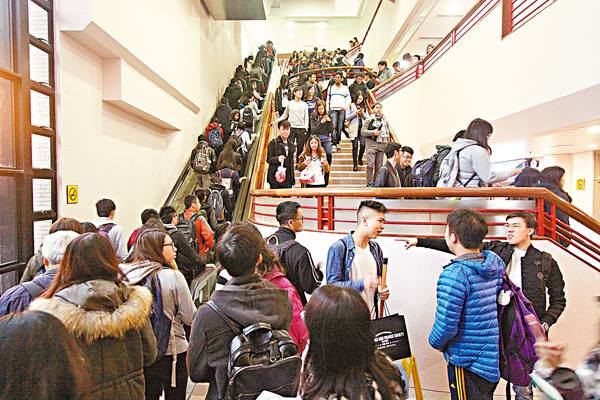
- (Kinliu)
January 20, 2016.
We visited the Hong Kong University
campus two days in a row. We did not see the students actively discussing
the strike. Most of those we spoke to, whether they said that they
supported or opposed the strike, did not know what the purpose of the
strike was. A student who intended to strike said: "University students
frequently cut class anyway; at most, I go and study myself." When asked
about the four demands, the student said "I know the details" but he also
said that he "couldn't describe the contents."
Another students said that she
supported the strike but couldn't decide whether to strike herself. She thought
that the Strike Committee's four demands included the immediate
resignation of Arthur Li Kwok-cheung. She was looking for friends to
strike with her. "If nobody else strikes, I am not doing to do it by
myself." She was also pessimistic about the effectiveness of the strike,
"No matter how enthusiastic we are, we cannot defeat the established powers."
A student from Shenzhen said that the
demands of the Strike Committee has nothing to do with himself. "The
appointments of the university administration do not affect the
students. If they think that the strike is worth it, they can do it. But I
will be attending class as usual."
A foreign student said that he has not
heard about the strike. He criticized the Student Union of only
distributing
Chinese-language publicity materials in both simplified and traditional
characters while ignoring those foreign students who don't read Chinese.
He felt excluded.
A Faculty of Arts professor said that he
has never received a formal notice from the Strike Committee or the
Students' Union and he only found out through media reports. This professor
thinks that the strike will have no effect because the four demands are
petty.
According to information, the next two
weeks will be an add/drop period for students to choose majors. For
example, if the normal course load is five courses, a student may start by
taking attending seven courses. During the add/drop period, the student
can decide whether to drop a course because of the teacher, or the contents,
or whatever other reasons without penalty, as well as add other course if
all else fails. After this add/drop period, a student will be penalized
as failing the course if they drop out. So if you don't attend class these
two weeks, you may regret it afterwards as you may end up being in a
course that you can't handle. The Strike Committee has therefore picked a
very bad time to call for a strike.
- (Ming
Pao) January 21, 2016.
Academic staff member Fu King-wah said
that he has to teach this afternoon because he has the duty to teach as a
teacher. But he said that he sent an email to his students to say that he
supports and respects the student strikers and he will record the class
this afternoon so that absentee students can watch the video. The striking
students can also contact him to discuss what they have missed.
Academic Staff Association chairman
Cheung Sing-wai said that he has sent emails to his colleagues to tell
them to provide whatever help necessary, including arranging make-up
classes for students in need.
- Why are these staff members so
fearful? Because failure to teach the class may be a cause for dismissal
if the university council headed by Arthur Li so insists (all in
accordance with the university statutes, of course).
- (Ming
Pao) January 21, 2016.
Strike Committee member and former
Student Union president Yvonne Leung Lai-kwok said that the new university
council chairman Arthur Li Kwok-cheung is a "聲名狼籍的教育界敗類"
(=a scum with a bad reputation in the education field).
Here is
Wikiepedia
on the bad reputation of Arthur Li.
Meanwhile Yvonne Leung has a grand
reputation herself.
Her most famous saying is the
Return Home Card.
Her second most famous saying is this: (Speakout
HK @YouTube)
0:19 Yvonne Leung: There will be
various kinds of publicity, such as hanging out black gauze on campus,
writing big characters on the ground in public spaces, and other
actions.
[Wait ! But will you be telling people
to do this while you sneak away to attend class yourself? You have a
prior record for doing this!]
0:36 Yvonne Leung: The police are
arresting Occupy people in Admiralty. I did not stay until the last
moment, because I have a final examination the next day.
[The world will remember this forever!]
0:51 Yvonne Leung: The action certainly
requires the willingness to bear the legal consequences. I took part in
civil disobedience, and then I will turn myself in.
[You said that you will turn yourself
in, but you never did. Your reputation is bankrupt! Do you expect the
students to still trust you?]
- (HKG
Pao) A Faculty of Education assistant professor Wu Siuwai said that
this strike clearly intends to use the Occupy Central model to occupy Hong
Kong University and render it ungovernable.
This is not true. The Occupy Central model
says to occupy the commercial centre of the city in order to make life miserable for
businesses and citizens who will then pressure the government to make
concessions. If the students were to occupy the HKU campus, they will be
making life miserable for themselves and other university denizens, but the
outside businesses and citizens won't care.
- This is the best explanation of what
they want.
(HK
01) Interview with Ricky Wong. January 17, 2016.
After more than 70 days (of Occupy
Central), did Hong Kong change? I can't see any change.
When everybody is satisfied with the
decent social conditions, how can anyone make any sacrifices? At
present, the economic conditions are basically good. Most people are
satisfied with the status quo. Who is going to sacrifice along with you?
Don't be silly!
You ask what changes will take place in
2016? Any change, especially changes in society, will not take place
during an economic boom. Throughout human history, dynastic changes only
occur in bad economic times. Humans are greedy animals who are
content with the status quo. If you want any change to take place in
Hong Kong, the Hong Kong economy must first collapse. If the Hong Kong
economy continues to prosper like the past two or three decades, Hong
Kong will remain a goldfish tank with more and better red worms to feed
the goldfish, in which case the goldfish won't think about jumping out
of the tank.
If the striking students want to get
their way, they will have to make life as miserable as possible for
everybody else. That's the key, that's the essence, that's the mission.
- "Four-eyed Brother" Cheng Kam-mun's
Facebook
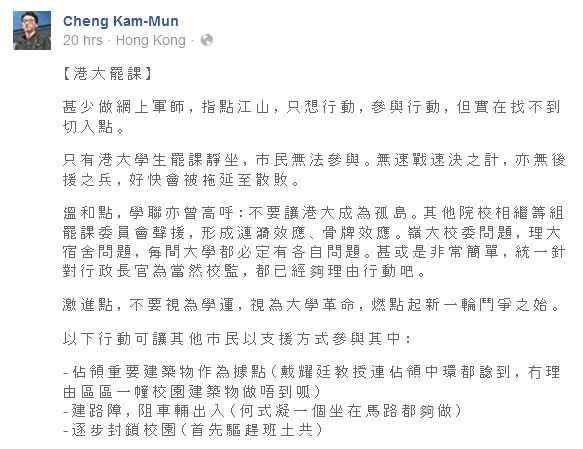
I rarely give advice on the Internet; I
only want to take action, but I really can't find a way of wedging in.
If only the Hong Kong University
students are sitting down to strike, other citizens cannot join in. There is
no quick and decisive action and no supporting army. Therefore the action
will stall and dissipate soon.
In a moderate fashion, the Hong Kong Federation of
Students once called: "Do not let Hong Kong University be an isolated
island." The other universities should form strike committees to offer
support and produce a chain reaction/domino effect. The Lingnan University
trustee problem, the Polytechnic University dormitory problem ... every
university must have its own problems. Or it can simply be the automatic
appointment of the Chief Executive as Chancellor of every university. That
should be enough reason for action, right?
Radically, this may be considered a
university revolution and not just a student movement in order to begin a
new round of resistance.
The following actions can let other
citizens join in to offer support:
- Occupy certain important buildings
(Benny Tai can think up Occupy Central, so there is no reason why he can't
pull off occupying a campus building?)
- Erect road blocks to stop all vehicular traffic (Petula Ho Sik-ying could
do that by sitting down on the road herself).
- Gradually lock down the campus (beginning with ousting the local commies).
- The local commie aunties and uncles of
the Treasure Group
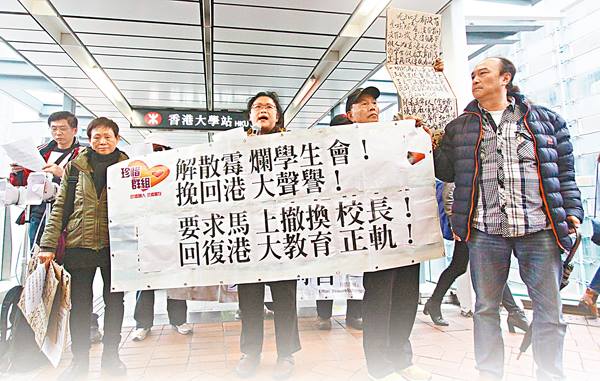
Disband the rotten Students' Union!
Restore the reputation of Hong Kong University!
We demand the dismissal of the vice-chancellor!
Restore Hong Kong University back on the track to educate!
(SocREC videos):
Part 1,
Part 2 and
Part 3
- There are signs that it is a foregone
conclusion that the strike will fail. What signs? When Johannes Chan was up
for appointment as pro vice chancellor, which politicians came out? Ip Kin-yuen,
Audrey Eu, Alan Leong, Kenneth Kwok, Tanya Chan, Albert Ho, Emily Lau, Sin
Chung Kai, Lee Cheuk-yan, etc. Which groups came out? The Civic Party, the
Democratic Party, the Professional Teachers Union, the Hong Kong University
Alumni Concern Group, etc. Where are they this time? Nowhere.
- Chances are these politicians and political groups tried to jump in, but
the young turks told these old farts to bugger off because this is now their
time.
- Day 1, 300, according to the Strike
Committee's arithmetic. Trust them, and not your own lying eyes.
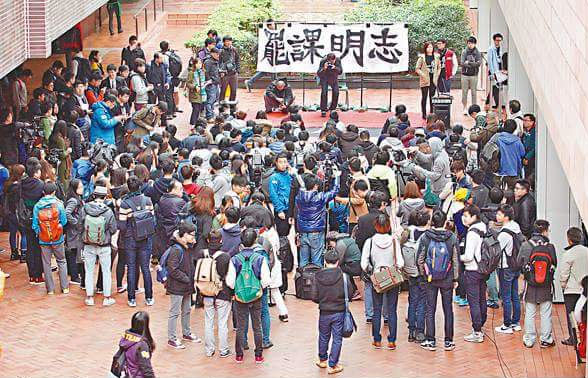
- Day 2, 150 according to Wong Chun-kit, a
member of the Strike Committee and the former deputy editor-in-chief of
Undergrad. [Who do you trust? The Strike Committee or your own lying
eyes?]
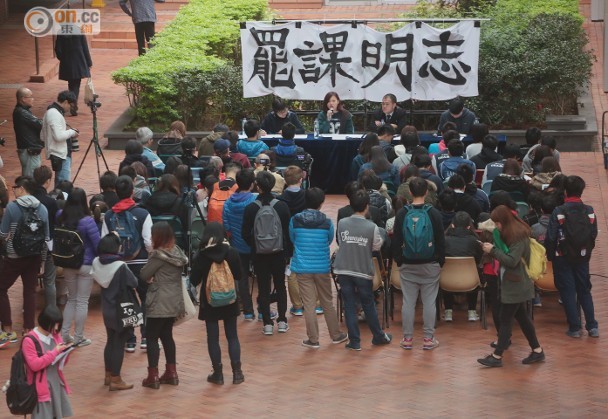
- Numbers game
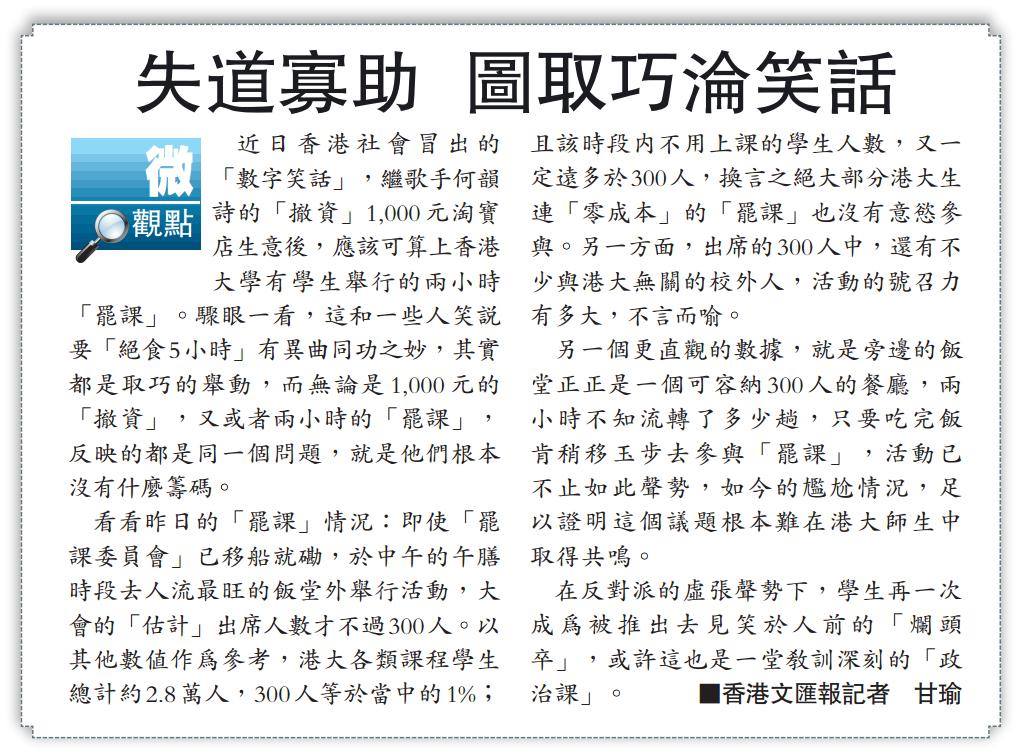
The Hong Kong University strike: There are about 28,000 students enrolled in
various degree programs, of which fewer than 300 showed up for the Strike
Meeting at noon. This is 1%. Next to the Haking Wong Podium is a canteen
with a seating capacity of 300. Most of those diners could have eaten
quickly and come out to show their support for the strike at zero cost. But
they didn't.
Another interesting topic of the day is singer Denise Ho deciding to withdraw her
capital investments from her Taobao shop Hall1C in the same manner that
Li Ka-shing withdrew his capital investments from mainland China.
People pointed out that Hall1C has only two transactions for the month at a
value of 1,000 RMB. So it is a news story that this could be a news story.
The connection of this story to the HKU strike is that it is not a news story to have a
few dozen people doing something or the other. Who cares?
- (EJ
Insight)
About 300 students joined a rally at the
University of Hong Kong campus on Wednesday to mark the first day of a
weeklong boycott of classes in protest of the appointment of former
education minister Arthur Li Kwok-cheung as chairman of the school�s
governing council. Boycott committee member Wong Chun-kit admitted the
turnout was not satisfactory, noting that students have just started their
new semester and there wasn�t enough time to promote the boycott campaign,
Ming Pao Daily reported on Thursday. Wong said the committee will continue
efforts to solicit more support and participation from HKU students.
[More students to participate with more
publicity? Day 1: 300. Day 2: 80. Day 3:?]
As to
what other actions they will take, Wong said everything depends on the
response of the HKU Council.
[It is a foregone conclusion will state
that there are legal barriers which need to be studied, and the studying
will go on for years. So what can the students do?]
- On Day 1, 300 were at the forum. On Day
2, 80 were at the forum. Where did the 220 go? They were busy because they
have to attend class. Hehehe.
- Billy Fung Jing-en was one of the speakers at the Day 2 forum. He was a
no-show, so that vice-president Arika Ho had to take his place. Fung was
known to have been a no-show on radio, but now he is a no-show on his own
show.
- Suggestion: For the purpose of increasing
attendance at the rallies, you can set up hot pots with braised lamb or hot-and-spicy
Sichuan chicken. Given that the weather forecast is for cold weather over
the weekend, the plaza will be overflowing with freeloaders.
- And it doesn't help that when you write
big Chinese characters on the ground, you managed to misspell the word. In so doing,
you have turned the public discussion from condemning/deploring CY Leung to
the illiteracy of so-called university students of this generation.
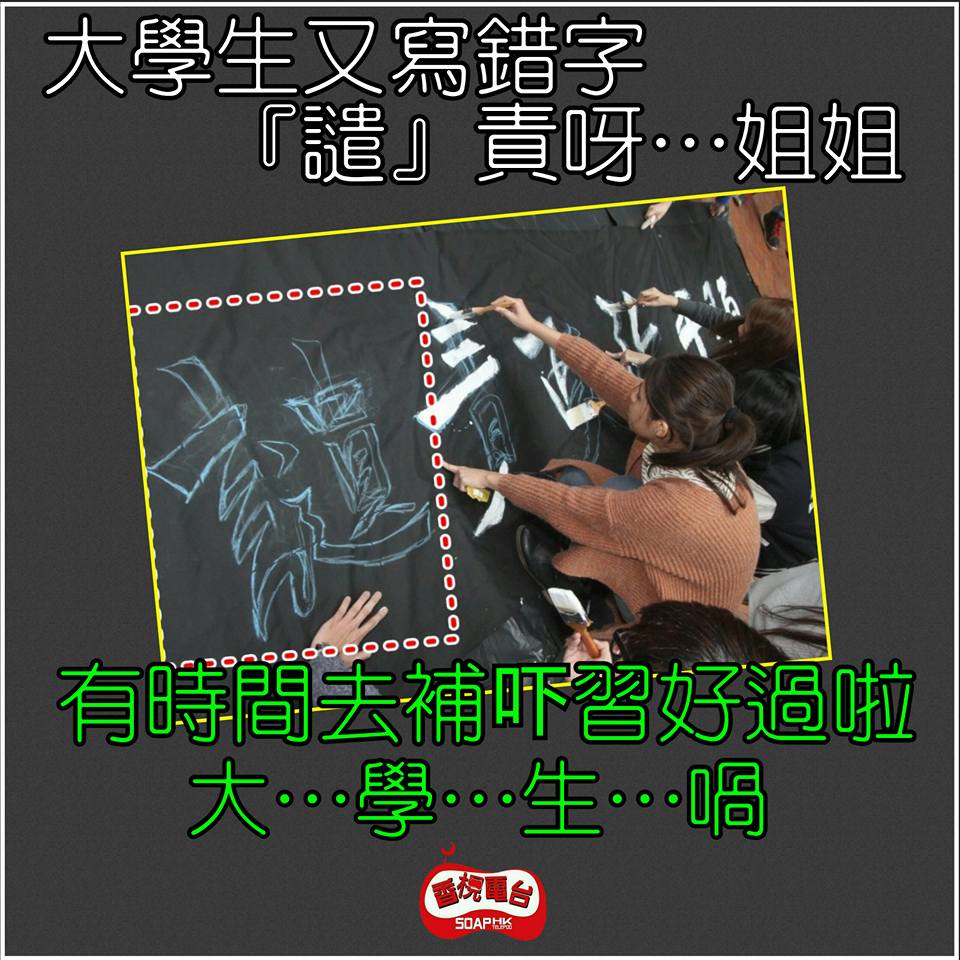
- Strike Committee member Yvonne Leung
said: "Many fellow students may well say, Arthur Li was just appointed and
he hasn't done anything that harms Hong Kong University ... We completely
disagree with this view. If he hadn't really hadn't done anything before,
then why were there more than 4,000 votes against Arthur Li taking any
public job position?"
Thus, a student in Law and Politics is
completely unable to enumerate anything that Arthur Li has done to harm Hong
Kong University; instead she appeals to the fact that a number of students
(like herself) objected to Li. This is the one-billion-flies argument:
50
billion flies can't be wrong, so we should all eat shit.
- The students want to have a greater say
in university affairs. So their ideal university council would have at least
half of the members being school insiders (students, teachers and staff).
Actually, what does a university do? We can look at the current officers of
the university and their responsibilities.
Provost and Deputy Vice-Chancellor Paul K H Tam: Professor Tam
assists and deputizes the President/Vice-Chancellor in the management of the
University, especially in the areas relating to strategic planning, academic
development, allocation of resources, human resource planning, and other
strategic initiatives.
Executive Vice-President (Administration and Finance) Steven
J Cannon: Dr. Cannon assists the
President/Vice-Chancellor in leading and coordinating the University�s
support services and administrative operations to enhance the University�s
capability to scale even higher in the ever-changing and increasingly
competitive local and international environments.
Vice-President and Pro-Vice-Chancellor (Teaching and
Learning) Ian Holliday: Professor Holliday
assists the President/Vice-Chancellor in setting the direction and policy
for the University�s curriculum, teaching and learning, and quality
assurance of undergraduate and postgraduate curricula.
Vice-President and Pro-Vice-Chancellor (Research) T. S. Andy
Hor: Professor Hor assists the
President/Vice-Chancellor in setting the direction and policy for research
at the University, in developing the University�s research and postgraduate
education profile and agenda, and in coordinating knowledge transfer.
Vice-President and Pro-Vice-Chancellor (Global) W. John Kao:
Professor Kao assists the President/Vice-Chancellor in leading and
strengthening the University�s global networks of collaboration, building
key relationships with relevant stakeholders in Mainland China and overseas,
maximizing opportunities across teaching and learning, research, knowledge
exchanges and technology transfer, and deepening the University�s presence
and engagement worldwide.
Vice-President and Pro-Vice-Chancellor (Institutional
Advancement) Douglas So: Mr. So assists the
President/Vice-Chancellor in leading and strengthening institutional
advancement initiatives and University�s linkages with key stakeholders
including alumni, donors and the community.
How much do students understand what these
people are responsible for doing? Here is an example:
(New
York Times Sinosphere) April 20, 2015
A senior official of the University of Hong
Kong apologized on Monday and retracted remarks suggesting that the
university would make visits to mainland China mandatory for all
undergraduate students.
Ian Holliday, a vice president of the
university and a professor of politics, said he had told students at a
dinner on Friday: �If students do not wish to go to China, they should not
come to Hong Kong U.� The statement drew criticisms from students who have
misgivings about China�s growing influence on Hong Kong.
�I apologize unreservedly for the clumsy and
inappropriate remarks that I made last Friday,� Mr. Holliday told
reporters after an hourlong meeting with students.
Simply put, the students think that if they
ever go to mainland China, they may get brainwashed. Or something. LOL.
- (SCMP)
Pot calling the kettle black: Row at HKU would be funny if it weren�t so
pathetic. By Alex Lo. February 25, 2016.
You don�t have to be a fan of Arthur Li
Kwok-cheung to find the latest criticism against him farcical.
Student leaders behind the boycott of
classes at the University of Hong Kong have accused the school�s governing
council and Li, its new chairman, of �misappropriating� funds to change
the location of a council meeting to Wan Chai�s Convention and Exhibition
Centre on Tuesday.
They were joined by the Academic Staff
Association, which has sent a complaint letter to Li. �This extravagant
way of running council meeting cannot continue, as scarce university
resources are being diverted from teaching and research,� association
chairman William Cheung Sing-wai wrote. �It not only will affect the
performance of the university, but also is contrary to what you have said
that the university should concentrate our resources only in teaching and
research. If you, as council chairman, feel unable to do so as your
predecessors have done, it is perhaps time now for someone who can to take
over the job.�
Are these the same groups that have been
storming council meetings, detaining and injuring its members and
generally making it impossible to hold a normal meeting without members
risking life and limb or at least many hours of their lives after
midnight?
The criminal is now accusing the victim
of avoiding the scene of the crime. What the students and some junior
academics are really objecting to is that the convention centre has tough
and well-trained security staff who are entirely up to their task, unlike
their mellow HKU counterparts who mollycoddle student protesters.
Speaking of wasting scarce resources, do
class boycotts and constant protests distract students and academics like
Cheung from �teaching and research�?
Some students reportedly have to repeat
courses because they spend more time protesting than studying. But they
are skiving for a noble cause. What about the academics? Don�t even ask,
or you are interfering with academic freedom. Here�s my suggestion for
Professor Li: as scion of the legendary Li family, I am sure there is a
family property suitable for holding a council meeting. That way, perhaps
we have to praise Li for helping to save the university money while
guaranteeing the safety of council members.
(Hong
Kong University) Honorary Graduates: Lam Shan Muk
Dr Shan Muk Lam (more commonly known by his
pen names, Lam Hang Chi and Shih Wei De) was born in 1940 and raised on the
Mainland. After coming to Hong Kong, he joined the Ming Pao Daily in the
early 1960s. After studying Economics at the Cambridgeshire College of Arts
and Technology, he returned to Hong Kong in 1969 and joined the Ming Pao
Evening News, leading its financial section.
Dr Lam founded
the Hong Kong Economic Journal in 1973 and the Hong Kong Economic
Journal Monthly in 1977. For 25 years, he wrote a daily column,
'Politics and Economics Review', in which he analysed Hong Kong and
international affairs. Dr Lam's articles are widely acclaimed for being
objective, insightful and well-argued. Since 1997, 'Lam Hang Chi's Column'
has seen him writing about an even wider range of subjects, including
economic theories that interest him, and which he hopes the reading public
will find educational and interesting too. His writing has been anthologized
into over 100 books in Taiwan, Hong Kong and the Mainland. Dr Lam was
awarded an OBE in 1991 and an honorary degree from Lingnan University in
1999.
In recognition
of his contributions to the journalism sector in Hong Kong, HKU will confer
upon him the degree of Doctor of Social Sciences honoris causa.
Citation
His daily columns, written over a period of
more than 35 years, are a model of scrupulous principles, reasoned arguments
and enjoyable literary prose ... Mr Lam's editorials have been widely
acclaimed for being objective, insightful and well-argued.
And here is the latest Hong Kong
Economic Journal by Mr Lam translated into English at EJ Insight (via
Google cache):
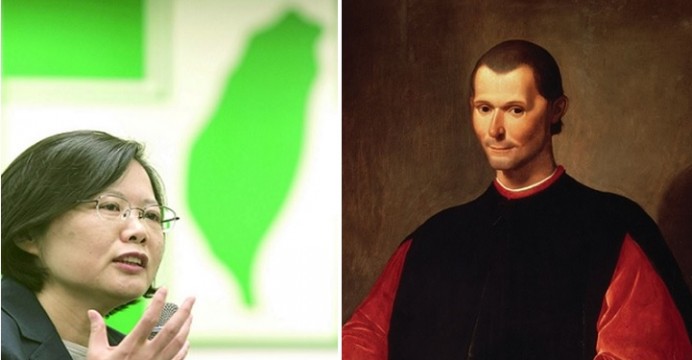
Taiwan's President-elect Tsai Ing-wen (left) once translated a book on Niccol�
Machiavelli, and is therefore quite familiar with his doctrines. Will she apply
them in her administration? Photos: Wikipedia, Internet
How Tsai Ing-wen may draw inspiration from Machiavelli. BY Lam Hang-chi. January 20, 2016.
Tsai
Ing-wen (蔡英文) has been elected leader of the only Chinese democracy.
In a
cover story last year, Time magazine noted that her election victory would
make Beijing �nervous�. Another piece carried by The Economist warned the
Taiwan Strait truce �is coming to an end�. Notions like these may be
slightly far-fetched.
Though disavowing the 1992 consensus
(�one China, two interpretations�), Tsai, under the prevailing climate, is
not likely to annoy Beijing with moves toward Taiwan�s
independence, either in words or in deed, as that would run counter to
Washington�s interests in the region.
Beijing has no reason to be bothered too
much as Tsai won�t challenge this bottom line.
As for the Kuomintang�s rout, the party
made its own bed and now it has to sleep on it.
The Taiwan Capitalization Weighted Stock
Index has retreated from 8,600 in March 2008, when Ma Ying-jeou (馬英九) was
elected president, to around 7,800 last weekend, a dire gauge of how Ma�s
economic policies went wrong.
The masses are not benefiting from closer
trade ties with China, though big cats investing in the mainland have all
struck gold.
Neither does the electorate endorse the KMT�s mainland strategy, which
centered around the 1992 consensus.
A
National Chengchi University poll last year found that as little as 7
percent of the respondents regarded themselves as Chinese while 59 percent
preferred to be viewed as Taiwanese only. But 24 years ago, 18 percent chose
the Taiwanese identity when the one China consensus was reached with the
mainland side.
People
have since ditched their national identity as nativism takes hold in
society.
Long
before she took to the political stage, Tsai went to the National Taiwan
University and Cornell University with a Ph.D. in law from the London School
of Economics and Political Science. She had taught at several universities
on the island and enjoyed genuine academic acclaim.
She also coedited a large encyclopedia on
science and philosophy and translated a book on Niccol� Machiavelli by the
famed political scholar Quentin Skinner.
Machiavelli, an Italian Renaissance
historian, politician and diplomat, was best known for his political
treatise The Prince. He served in several top posts of the Republic of
Florence and the essence of his statesmanship is military buildup.
In the book, he posited that �the end
justifies the means�, it is necessary for powerful men to deceive and
manipulate to serve a political purpose. His doctrine later came to be known
as Machiavellianism.
Tsai
must be familiar with Machiavelli, and obviously she is not just gifted
academically, given the fact that she has reached the top of Taiwan�s
political ladder merely 12 years after she joined the Democratic Progressive
Party, having surmounted all the infighting and tamed opposing factions
along the way.
In his works Machiavelli also argued that
refusing dialogues with states or forces stronger than you is reckless and
irrational. I reckon that Tsai always bears this in her mind and if so,
channels for talks with Beijing can be maintained after she takes office.
Even if her DPP has manifested its
pro-independence stance right from the outset, Tsai will return to the
negotiation table to prevent any indiscretions from escalating into
hostilities.
Tsai visited the United States last summer
and one item at the top of her agenda was to seek Washington�s aid for the
island�s own arms industry.
The backdrop was the constraint in the
Taiwan Relations Act, which limits sales of arms to defensive equipment
only, but what the island needs are advanced warships and submarines.
The Taiwan navy currently has two �antique�
Guppy class submarines used by the US during World War II and another pair
of decommissioned, Netherlands-made Zwaardvis-class submarines bought from
New Zealand.
Machiavelli�s claim of military guarantee
for freedom and prosperity can be the base of Tsai�s push for Taiwan�s arms
industry, and, the likeliness of a helping hand from Washington cannot be
ruled out amid Beijing�s saber-rattling.
Machiavellianism also affirms integrity and
probity for the interests of the country, and for sure Tsai will endeavor to
project a clean image, particularly after the DPP was plagued with
corruption and nepotism scandals when it ruled Taiwan during Chen
Shui-bian�s (陳水扁) presidency.
The
DPP stands a high chance to continue with its ruling status beyond Tsai, if
the government is clean and proactive and the island�s security is better
assured.
This article appeared in the Hong Kong
Economic Journal on Jan. 19.
Translation by Frank Chen
(Bastille
Post) The Commentator's Nightmare. January 20, 2016.
Yesterday
Hong Kong Economic Journal founder Lam Hang-chi wrote a commentary in which
he heaped praises upon the academic background of president-elect Tsai
Ing-wen and then he went on to say that this means that the Democratic
Progressive Party should be able to hold on to power for a long time to
come. Thus he wrote:
Long
before she took to the political stage, Tsai went to the National Taiwan
University and Cornell University with a Ph.D. in law from the London
School of Economics and Political Science. She had taught at several
universities on the island and enjoyed genuine academic acclaim.
She also coedited a large encyclopedia on
science and philosophy and translated a book on Niccol� Machiavelli by the
famed political scholar Quentin Skinner.
However,
this Tsai Ing-wen (蔡英文) is not that
Tsai Ying-wen (蔡英文) who translated the book. The latter is a (male)
Research Fellow in Political Science at the Academia Sinica.
Nowadays,
everybody scrounges for information on the Internet. If you are sloppy, you
could easily trip up. This is surely the commentator's nightmare.
P.S.
Although Hong Kong Economic Journal/EJ Insight purged this article, Google
cache remembers.
(Facebook)
City Forum.
Hong Kong Priority's Cheung
Hon-yin: I want to ask Love Hong Kong Power or Mr. Lew Mon-hung a question. I
say that I am a Hongkonger and not Chinese. What business is this to you?
Even if I want to forget my ancestry, I am merely forgetting my own ancestry.
Those are my ancestors. What business is this to you?
(Oriental
Daily) January 19, 2016.
Baptist University Department of
Social Work lecturer Shiu Ka-chun said that one should be able to decide one's
identity. To decide the choice of others would be a literary inquisition of
people ranging from entertainers to politicians. He said that Internet users are
reacting strongly here due to their fear of Communism which covers everything
and anything related to the Chinese people, Chinese products and Chinese
policies.

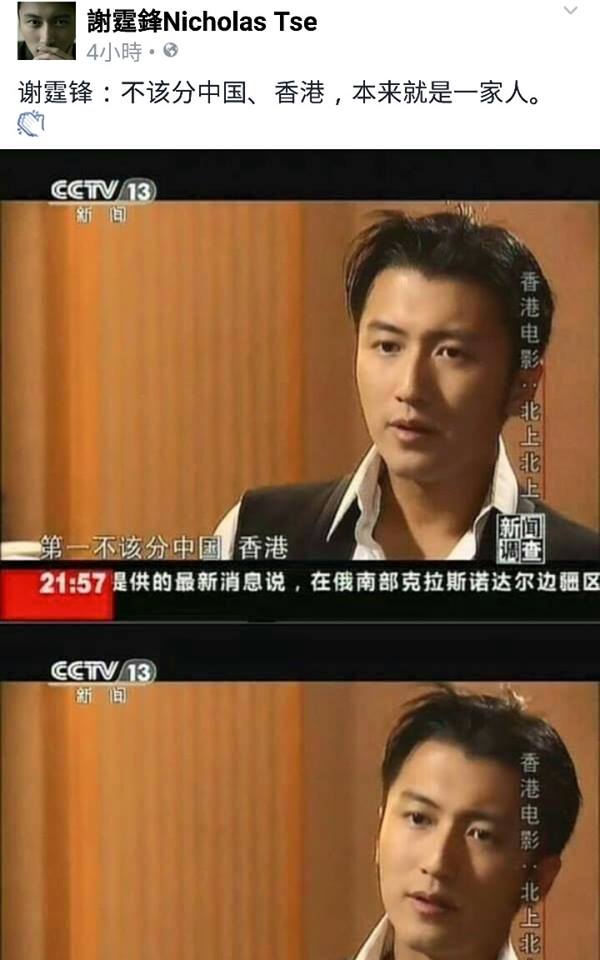
Nicholas Tse Facebook: Nicholas Tse: We should not
be separating China and Hong Kong. We are one family.
(Oriental
Daily) January 19, 2016.
Several years ago, Nicholas Tse
was interviewed on mainland China and he said, "We should not be separating
China and Hong Kong. We are one family." Today a fan posted the relevant speech
onto Facebook. Within 5 hours, there were 2,000 comments, most of which were
obscene-language curses accusing Tse of "capitulating to the Communists in order
to make money", "mainland canine", etc. There were also people using simplified
Chinese characters against these critics as "Yellow Ribbons" and "denying that
they are Chinese."
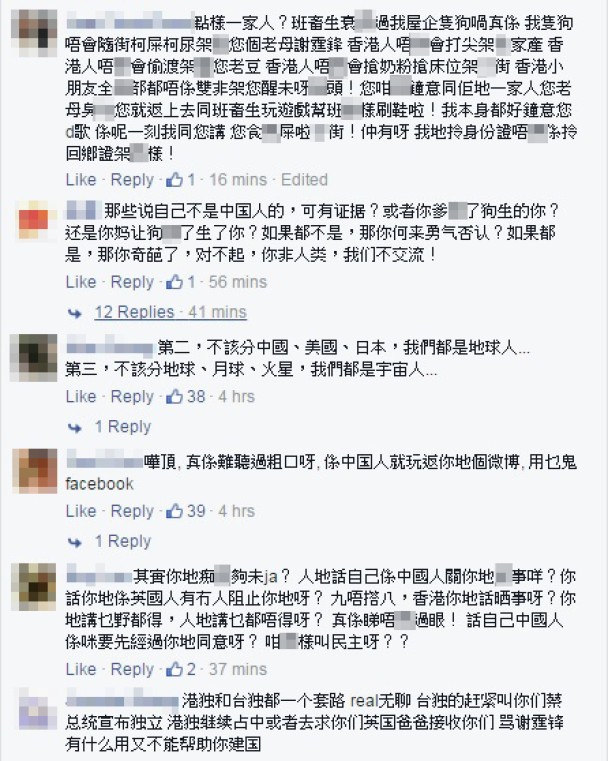
- How are we one family? Those
animals are worse than the dog in my home. My dog wouldn't urinate or defecate
everywhere on the street. Your mother, Nicholas Tse! Hongkongers do not jump
queues. Bastard! Hongkongers don't cross the border illegally. Your father!
Hongkongers don't steal milk powder and hospital bed space. Bastard! Hong Kong
children are not Double No's (neither parents are Hongkongers). If you fucking
like that as a family, your mother! You ought to go back to China and play games
with those beasts. You suck up to those dickfaces! I used to like your songs!
But at this moment, I am going to tell you to eat shit! Bastard! Also, we
carry Hong Kong ID's, not Home Visit Permits! Dickface!
- Those who say that they are not
Chinese, do you have proof? Did your daddy fuck a dog to give birth to you? Or
did your mom let a dog fuck her to give birth to you? If neither, then where do
you get the courage to issue a denial? If both happened, then you are a rare
gem. Sorry, you are not human. We can't communicate!
- Secondly, whether it is China, the
United States or Japan, we are all earthlings ... Thirdly, whether Earth, Moon,
Mars ... we are all beings in the universe.
- Wow! The obscene language is
terrible. If you are Chinese, you should go back to Weibo. Why use Facebook?
- Actually, are you done with being
stupid? What business is it to you for him to say that he is Chinese? When you
say that you are British, whoever stopped you? Incoherent! Does all of Hong Kong
have to obey you? You are entitled to say whatever you want, but nobody else
can? This is fucking intolerable! Do people have to get your approval before
they can say that they are Chinese? Is this fucking democracy?
- Hong Kong independence and Taiwan
independence use the same logic. This is really asinine. The Taiwanese
independence folks hurry to get their President Tsai to declare independence.
The Hong Kong independence people continue to Occupy Central or else beg your
British daddies to take you back. Cursing Nicholas Tse isn't going to help you build
a nation.

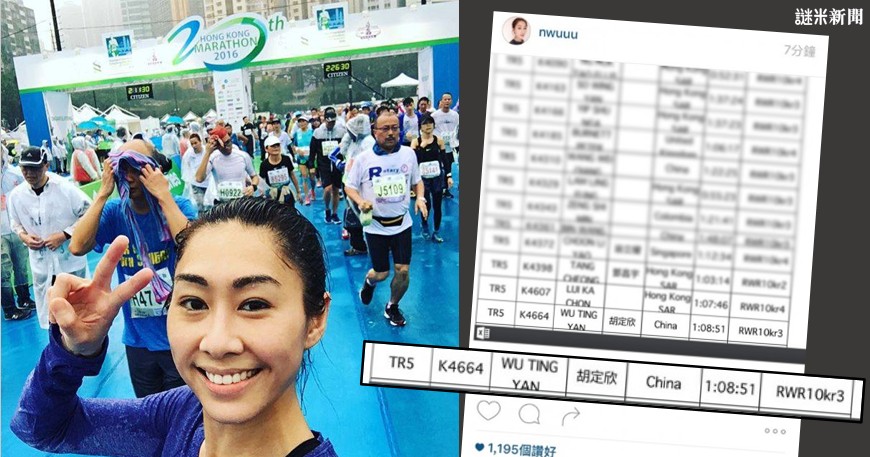
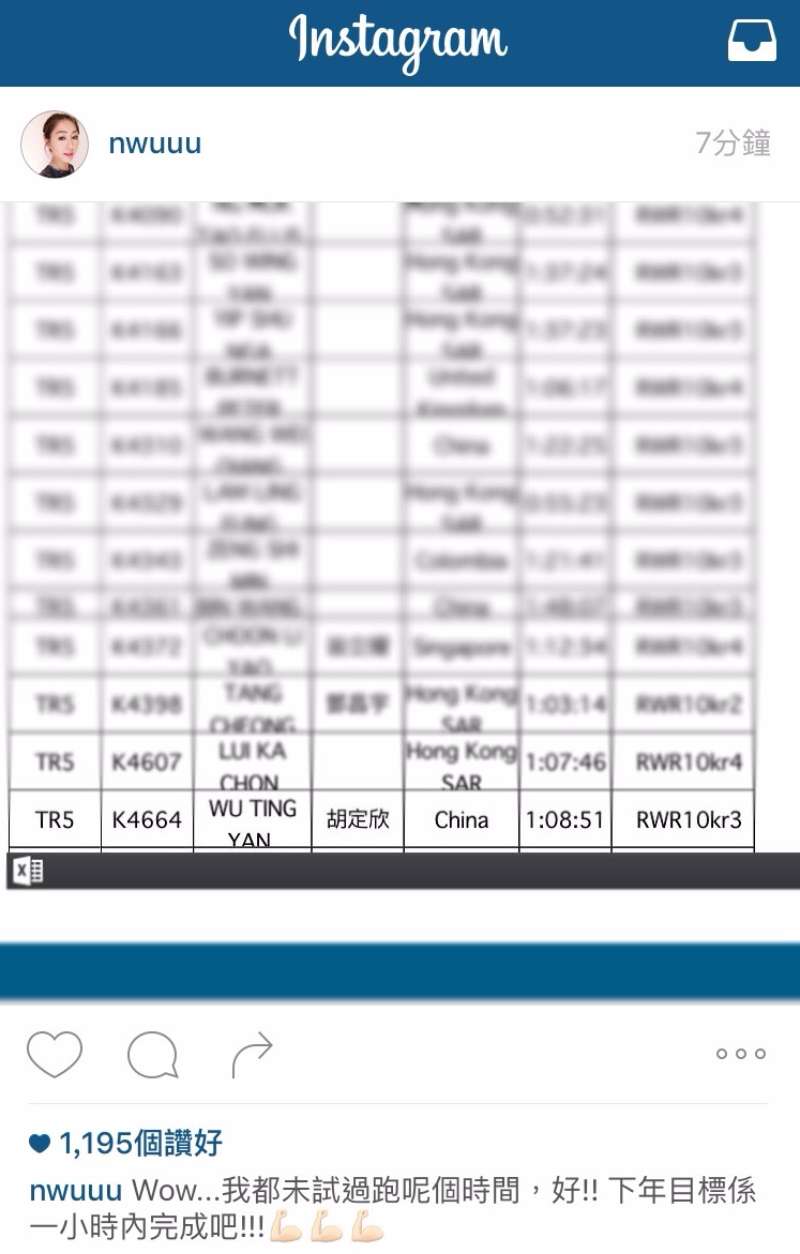
The newly crowned best television
actress Nancy Wu Ting-yan ran the Standard Chartered Marathon's 10K race in a
personal best time of 1:08:51. She posted her result on Instagram to share with
her fans. But Internet users saw that she had chosen her "country" as China
instead of Hong Kong SAR. As a result, she was pilloried.
In sensitive times like these, Wu
immediately deleted the photo. But it was too late, as Internet users have made
backups already. They began to ask: "Why choose China when you can choose Hong
Kong SAR?" "You won't even admit that you are a Hongkonger?"
Internet comments:
- The column in the race results
has the heading of COUNTRY. Applicants have to fill their NATIONALITY from an
alphabetical list of countries. Many of the Hong Kong applicants started from
the top, reached CHINA and checked it. Others looked further down until they
reached Hong Kong SAR.
- This must be a drop-down list. If they allowed people to write freely, there
will be loads of spelling discrepancies (for example, Italy, Italian Republic,
Italia, Repubblica Italiana, Gli Assurri, etc).
- Here is the online application form. Yes, they used NATIONALITY and used Hong
Kong SAR as an example.

- If there is confusion, then it
is due to the race organizers providing a category called COUNTRY and listing
China, Hong Kong, Macau and Taiwan.
(About.com)
What defines an independent country?
- Has space or territory which has
internationally recognized boundaries (boundary disputes are OK).
- Has people who live there on an ongoing
basis.
- Has economic activity and an organized
economy. A country regulates foreign and domestic trade and issues money.
- Has the power of social engineering,
such as education.
- Has a transportation system for moving
goods and people.
- Has a government which provides public
services and police power.
- Has sovereignty. No other State should
have power over the country's territory.
- Has external recognition. A country has
been "voted into the club" by other countries.
There are currently
196 independent countries around the world. This list includes
Taiwan. Examples of entities that are not countries include: Hong Kong,
Bermuda, Greenland, Puerto Rico and the constituent parts of the United
Kingdom (England, Wales, Scotland, Northern Ireland).
The United Nations has
193 members. Taiwan is not one of those. The United States
recognizes
195
independent countries. Taiwan is not one of those.
- On the Hong Kong Special Administrative
Region passports, most Hongkongers will be classified as CHINESE nationality.
- I have watched innumerable of Hong Kong police dramas on television. The
police always say that the perpetrator is
一個中國籍男子 (a male of Chinese
nationality) and never ever 一個香港籍男子
(a male of Hong Kong nationality). Why don't the localists lodge a complaint
with the
Office of the Communications Authority for inaccuracy?
- Nancy Wu has deleted the Instagram photo.
She knew that she was gravely wrong and she tried to destroy the evidence.
- By posting this so-called news story, our
forum master has managed to achieve his goal of accumulating more than 1,000
scornful comments. Not many of our users have achieved this landmark before.
- (Speakout
HK@YouTube) On one hand, when Show Lo said "We're all Chinese", tens of
thousands of Taiwan and Hong Kong fans unfollowed his Facebook and bullied him on
the Internet. On the other hand, when Huang An denounced Chou Tzuyu as
pro-Taiwan independence because she waved a Republic of China flag, these
Internet users went after Huang An. So why do these Internet users go after Show
Lo but defend Chou Tzuyu? Isn't this extremely undemocratic? Does a person have
the right to choose and state his own identity? Or could it be that a person is
only allowed to declare that they are Hongkongers or Taiwanese, or even
American, Australian, British or German ... everything is possible except
declaring that one is Chinese! Nancy Wu was pilloried by Internet users because
she wrote down her country as China. Nicholas Tse was pilloried by Internet
users because he said that all the Chinese are one family. What kind of world are we living in now?

Internet persecution
Chou Tzuyu for a Republic of China national flag
Show Lo for saying "We are Chinese"
Nancy Wu for being listed with China as her Country in the marathon result sheet
Is it an original sin to claim an identity?
- Freedom of speech means that you
are entitled to say what you want. So you are free to say "I am Chinese" or "I am Hongkonger, not Chinese" or "I am Taiwanese, not Chinese" and so on. In like
manner, Internet keyboard warriors are also free to criticize what you say.
Thus, we are free to flood your comment section, and we also flood the comment sections
of your family, your friends, your company and your business associates. And
freedom of speech also covers the use of vulgarities and obscenities. And we are
also free to call on people to boycott your business so that you cannot make
your livelihood. This is freedom of speech. This is democracy. We love it until
the day when the same plague is visited upon us.
- (China
Times) January 20, 2016.
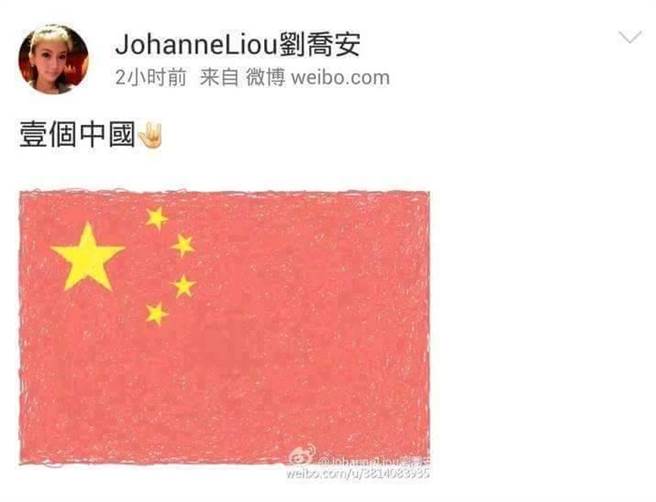
Two years ago, Johannes Liou
emerged from the Sunflower Movement and became crowned the Sunflower Queen. She
then became embroiled in a series of scandals. Last October, Liou was denounced by
the American Institute in Taiwan for involvement in a human trafficking ring.
Last November, she decided that she was going into the mainland entertainment
business and became the host for a gourmet program. Now she has posted a Chinese
flag with the comment "One China" on her Weibo. So far, she hasn't explained the
implications.
Could she be setting up the next
post for a "One Taiwan" message? Unlike entertainers such as NoNo who have to
worry about the Taiwan market, Liou is going for the mainland market all the
way. So she cannot afford to alienate the mainland market. This is an
inoculation shot to declare her position before Huang An gets on her case.
Appendix: (news.163.com)
Johanne Liou denies through Facebook that this is her Weibo account. Actually,
when she declared her intention, mainland Internet users objected and her agency
quickly stopped the collaboration. Liou's mainland career is over unless she
comes out and says that there is only One China.
- The Nicholas Tse saying is old, but
someone revived it to irk the Yellow Ribbons. Actually, there are plenty
more entertainers who can be trotted out as well:
Andy Lau singing "Chinese persons" in
2009:
https://www.youtube.com/watch?v=HR6vkU83sM0
Feng Fei-fei singing "I am a Chinese
person"
https://www.youtube.com/watch?v=-t-3MtIo9eA
Lisa Wang singing "A Brave Chinese
Person"
https://www.youtube.com/watch?v=0dI_RkZsZK4
Taiwan artists Jacky Wu, Jay Chou and
S.H.E. call themselves Chinese
https://www.youtube.com/watch?v=LUJ96HHM4cA
Bruce Lee
https://www.youtube.com/watch?v=AnIXxvyXlQw
Q: Do you feel that you are Chinese or American?
A: Do you know what I want to think about myself? As a human being. I
don't want to sound like saying "As Confucius says ..." Under the sky,
under the family, there is but one family. It just so happens that, man,
people are different.
- (HK01)
Miriam Yeung recently posted to Facebook about the Asian Excellent Woman
Grand Prize using simplified Chinese characters. Her Facebook was besieged
by Hong Kong fans and that post was quickly deleted. Yeung explained that
the Facebook account was run by the company, and her assistant April made
that post. Yeung said that she herself is not very good at using simplified
characters, and therefore she uses traditional characters herself. She said
that adults can't change their characters easily. She apologized and wrote:
"In the future, I will personally deal with these online accounts."
- (Yidianzixun)
In 2010, Norway exported 11,000 tons of salmon to China, which is 92% of
their total export. During the same period, their export to the United
Kingdom was 510 tons. So there was a huge gap. In October 2010, the
Norwegian Nobel Committee decided to award the Nobel Peace Prize to the
imprisoned Chinese dissident Liu Xiaobo. By 2013, the share of salmon
exports to China had dropped to 29%. Very quickly, the Norway government
lowered its stance and by the first half of 2014, Norway had exported 5,500
tons to CHina. Is this going to be a happy ending? Of course, not.
Yesterday SETV (Taiwan) published a news
report titled "Norway recognizes Taiwan as a nation." The story was about
how one Taiwanese student applied for a visa and asked for his country to be
changed from China to Taiwan. This story was accompanied by a screen capture
of the reply from the Norwegian Immigration Department with the sentence
"Norway recognizes Taiwan as a nation" bolded in red. This news story quickly
drew the attention of Internet users on both sides of the straits. Many
mainland Internet users left comments on the official Norwegian embassy weibo telling them that they had been used.
At 23:59 at night, the Norwegian embassy in
China replied: "We solemnly repeat: The Kingdom of Norway established formal
diplomatic relations with the People's Republic of China on October 5, 1954
and was one of the earliest western nations to do so. The Norwegian
government has adhered firmly to a One China policy over time. This position
will not change."
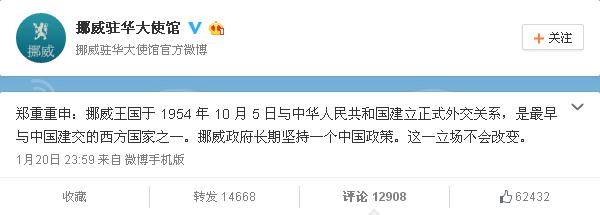
The post was shared 14,668 times with
12,908 comments. There were also 62,432 LIKE's.
Even more interestingly, the Norwegian
consulate in Guangzhou forwarded a post by the Norwegian Fishery Department
on how to consume salmon, with the brief comment: "We understand you. Don't
worry." So the pro-Taiwan independence media want to provoke mainland
Internet users and disrupt international trades, but only forcing the targeted
nations to come forth to clarify their pro-China stance.
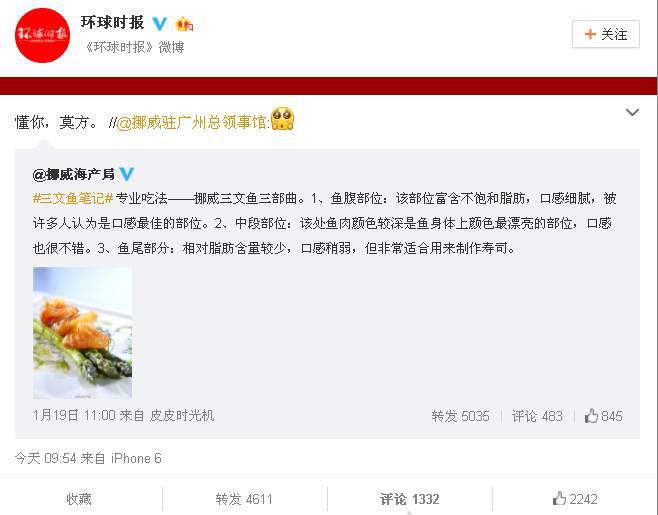
Even neighboring Sweden came out with an
unprompted Weibo statement from the Swedish embassy in China: "On May 9, 1950, Sweden
became the first western nation to establish relations with the People's
Republic of China. Sweden supports the One China policy. This means that we
do not recognize Taiwan as an independent, sovereign nation, and Sweden does
not have diplomatic relations with Taiwan."
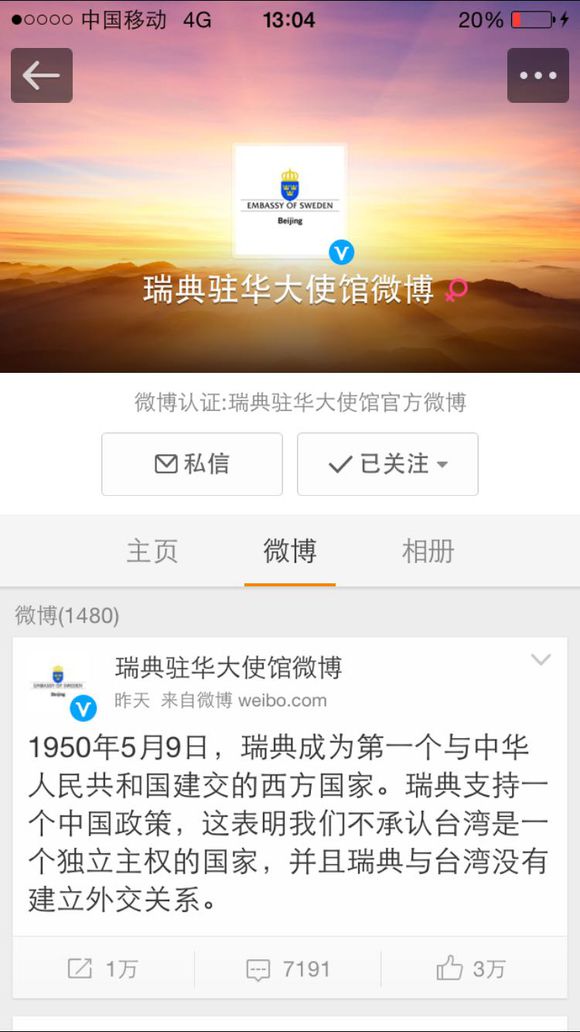
- The Cheung Chau Rural Affairs Committee
has issued an open challenge by writing the Lunar New Year message in
simplified Chinese characters. This was noticed by the Progressive
University of Science and Technology group.
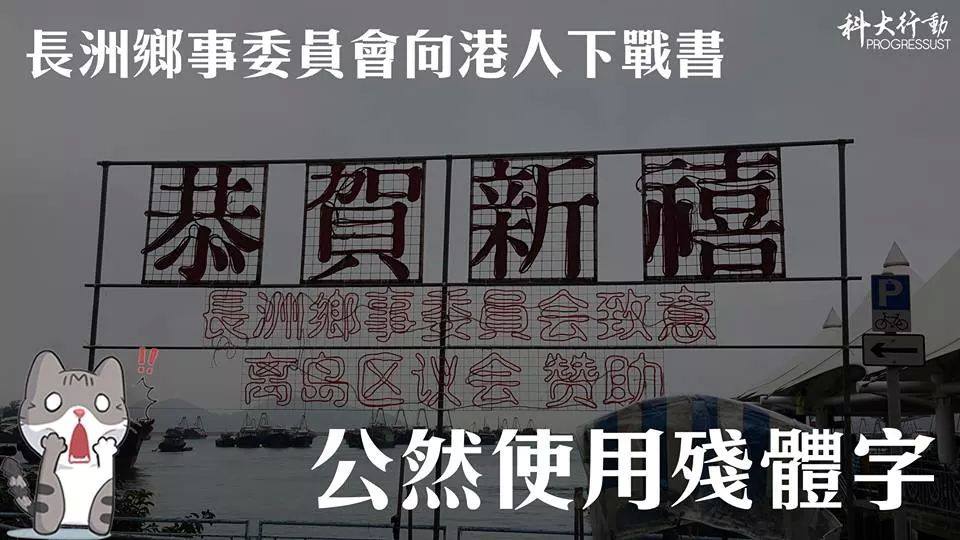
Unfortunately there isn't much that can be done to them. Overwhelm their Facebook? They don't have one. Boycott? They wish you wouldn't come and
crowd their place. Block access to Cheung Chau? There are 25,000 Cheung Chau residents
versus 10 of you.
- The Non-Chinese People. By Chris Wat
Wing-yin.
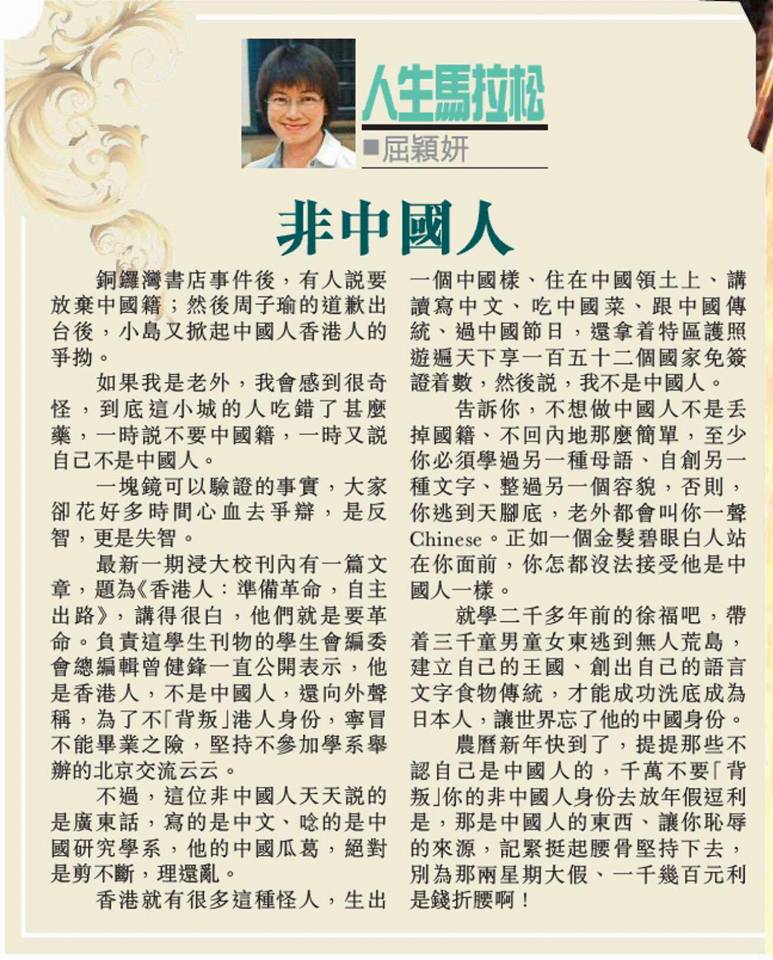
After the Causeway Bay Books affair,
some people say that they want to give up Chinese nationality; after Chou Tzuyu apologized, once again there is the argument of Hongkonger versus
Chiense.
If I am a foreigner, I would find this
perplexing. What is wrong with Hongkongers? Why do they say that they don't
want Chinese nationality and that they are not Chinese.
This is something that can be settled by
looking in a mirror, but instead people spend a lot of time and effort to
argue about it. This is anti-intellectual and unintellectual.
The latest issue of the Baptist University
bulletin has an article titled <Hongkongers: Get ready for the revolution,
autonomy is the way out>. It is stated very clearly that they want a
revolution. The student editorial committee chief editor Tsang Kin-fung said
that he is a Hongkonger and not a Chinese person. He said that in order not
to betray his Hong Kong identity, he refuses to participate in the Beijing
exchange meeting organized by his department at the risk of not being able
to graduate.
But this non-Chinese person speaks
Cantonese every day, he writes Chinese, he studies in the Chinese Studies
Department, and his ties with China are impossible to disentangle.
There are many such weird people in Hong
Kong. They were born looking like Chinese, they live on Chinese soil, they
speak and write Chinese, they eat Chinese food, they follow Chinese
tradition, they observe Chinese festivals and they hold passports issued
by the Hong Kong Special Administrative Region of the People's Republic of
China with which to travel visa-free to 152 countries and then they will
insist to you: "I am not Chinese."
Let me tell you -- if you don't want to be
Chinese, it will be more than renouncing your nationality and not visiting
mainland China. At the very least, you need to learn or invent a new
mother tongue and a new written language to be used with all other Hongkongers. You will also need a brand new look, because right now all the
foreigners take a look at you and think that you are Chinese just as a
blond-haired blue-eyed foreigner will never be taken to be a Chinese
citizen.
The legend has it that more than 2000 years
ago, Xu Fu took 3,000 young boys and girls with him to an uninhabited island
east of China and invented his own language and customs to form Japan.
Eventually, the world forgot that he was Chinese.
The Lunar New Year is fast approaching.
Those who are non-Chinese should remember not to take the Lunar New Year
long vacation or to take lai see money -- because those are Chinese customs.
You must keep your cool and give up the two week vacation and the thousands
of lai see dollars!
- Hong Kong Good News "I am Chinese" series
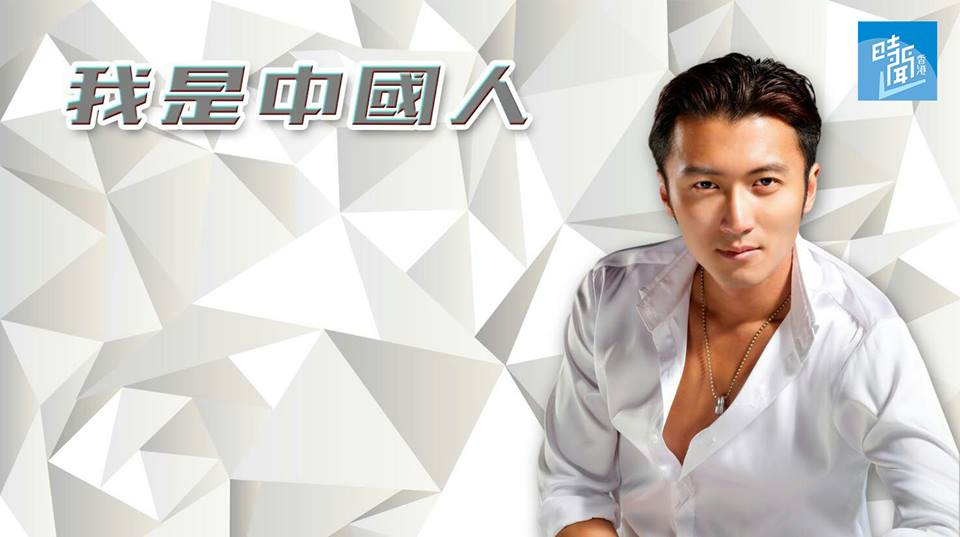



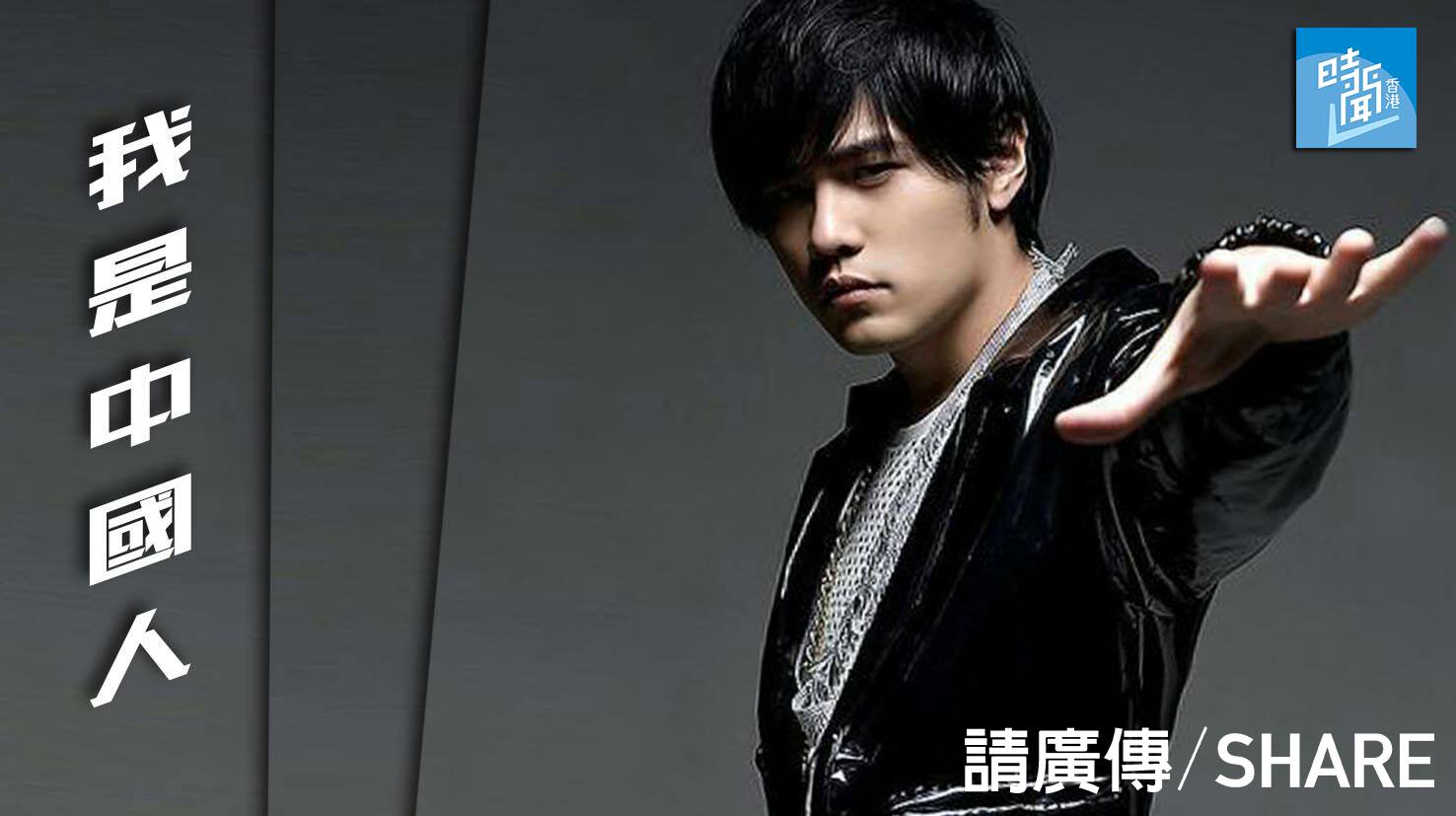
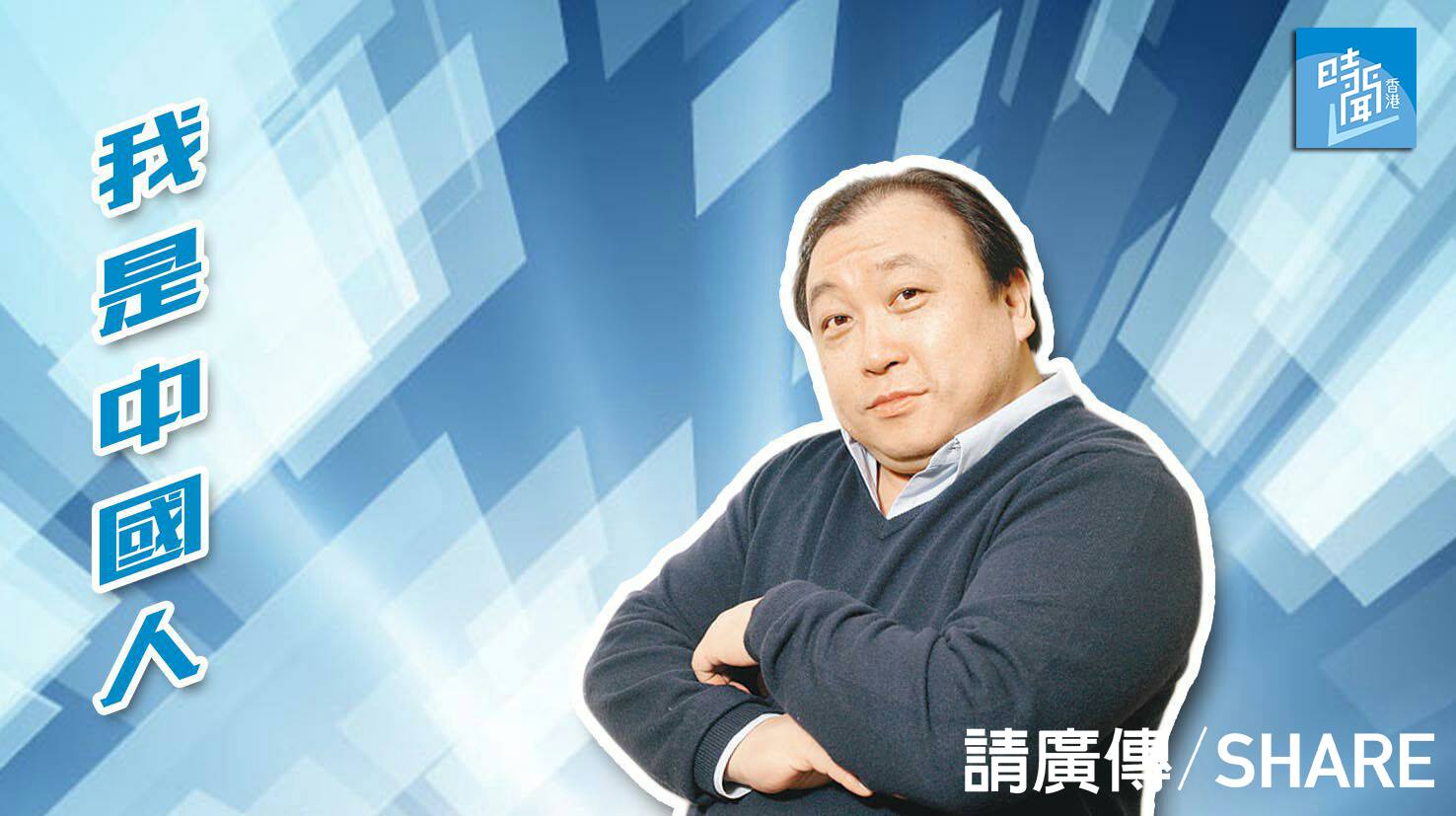
- (HKG
Pao) January 23, 2016. The Hongkonger-Chinese issue also showed up
the mobile phone game Clash Royale. A Hong Kong user decided to use the
monicker of "HK IS NOT CHINA". However, the operators said that people
"found it offensive" and blocked this user "to prevent more people feeling
upset." The operators recommend that the user change the monicker to "Hong
Kong Love", "HK is Cool," or "HK is the best." So this Hong Kong user has
made his cause known all over the Clash Royale world at the cost of being
banned. Should he be proud of his non-accomplishment?
P.S. Well, if the operators accept "HK IS
NOT CHINA," then what comes next will be "TAIWAN IS PART OF CHINA",
"REPUBLIC OF TAIWAN", "HONG KONG CITY-STATE", etc.
- Raphael Wong (League of Social Democrats)
Facebook
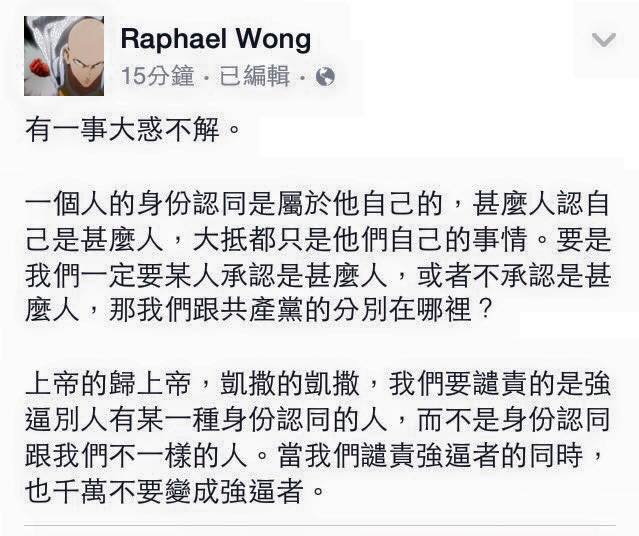
There is one thing which perplexes me.
A person's identity should be made by
that person. What a person identifies himself/herself as is mostly his
personal business. If and when we insist that a person must identify
himself/herself as something or the other, or if we insist that he cannot be
something or the other, then how are we different from the Communists?
"Give back to
Caesar what is Caesar's and to God
what is God's." We need to condemn those who insist on
imposing an identity on others, and not those who have different
identifications than ours. Even as we condemn those who impose on others, we
make sure that we don't impose onto others.
- To this, Wong Yeung-tat
(Civic Passion) responded: "This idiot is impossible to understand."
(The
Guardian) January 16, 2016
A Hong Kong publisher whose disappearance
last year sparked an international scandal and street protests has
reappeared, making a televised �confession� on China�s government-controlled
broadcaster CCTV. Gui Minhai, a
51-year-old Swedish citizen who specialised in salacious tomes about China�s
Communist party elite, vanished from his beachfront home in Thailand in
October last year.
His disappearance � and the apparent
abductions of four other booksellers with whom he worked � was widely
suspected to be the work of Chinese security forces, although Beijing
repeatedly refused to comment on the whereabouts of the missing men.
On Sunday night China finally broke its
silence over the case by broadcasting what it said was a confession made by
Gui on state broadcaster CCTV. The publisher claimed he had voluntarily
surrendered to Chinese authorities in October last year over his supposed
involvement in a fatal hit-and-run incident in the city of Ningbo in
December 2003.
Gui said he had fled mainland China after
the incident, in which a young woman was killed, but had been driven to
return last year out of guilt and a sense of longing for his homeland. �It
is my own choice to come back and to confess my crime. It is nobody else�s
business. I need to take responsibility for it myself,� he said in the
televised confession.
(Xinhua)
January 17, 2016
"Being outside China all these
years, I have always been anxious and uneasy. I frequently have nightmares about
going back to my hometown and meeting all those familiar relatives ..."
On January 13, Gui Minhai said so
at a certain detention center.
As the boss of Causeway Bay Books, Gui Minhai has recently become the focus of overseas opinion. The
information about "Causeway Bay Books boss is missing" is hyped up by Hong
Kong and certain overseas media. Someone even started a "Search for Gui Minhai"
campaign. So who is Gui Minhai? What is the truth behind his so-called
disappearance.
In a 60-square meter apartment in
a certain residential building in Hangzhou city, Zhejiang province, 83-year-old
husband Shen and 65-year-old wife Zhou live here. The apartment may be small but
a bedroom was reserved and filled with photos of a young woman taken when she
was alive. There were some flowers and child's toys to accompany the bright
smile on the face.
"My husband never comes in here.
If he comes in, he will think about our daughter's life from childhood to
adulthood. I spend all day in the room to keep company with my daughter ... What
kind of pain do we feel in our hearts?" When Zhou spoke about her daughter, she
can no longer contain her sorrow. She said that the room was kept the same way
as her daughter wanted it. Every Lunar New Year, Zhou buys new clothes for her
daughter and hangs them by the bed as if the daughter had never left.
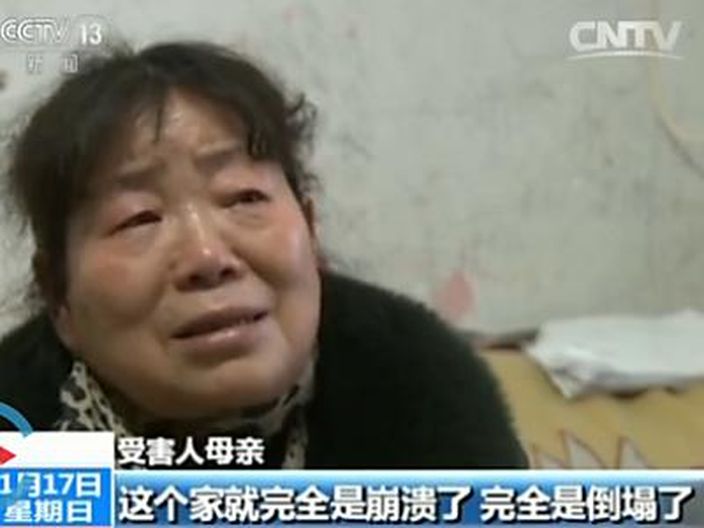
12 years ago, a traffic incident
took away the life of the only daughter of this old couple. The instigator was
Gui Minhai.
Gui Minhai, born in May 1964,
family origin in Ning Po, given Swedish citizenship in 1996. On December 8,
2003, Ningpo businessman Gui Minhai organized a dinner during which a lot of
alcohol. After the dinner was over, Gui Minhai made a fateful decision to drive
his friend home.
At 21:17, Gui Minhai passed by a
certain university on his way from Ningpo City Jiangdong district to Zhenhai
city, and hit a female university student who was cross the road and thereby
caused her death.
"I couldn't see clearly. I only
hear a 'bang' and the traffic incident took place." Gui Minhai recalled
painfully.
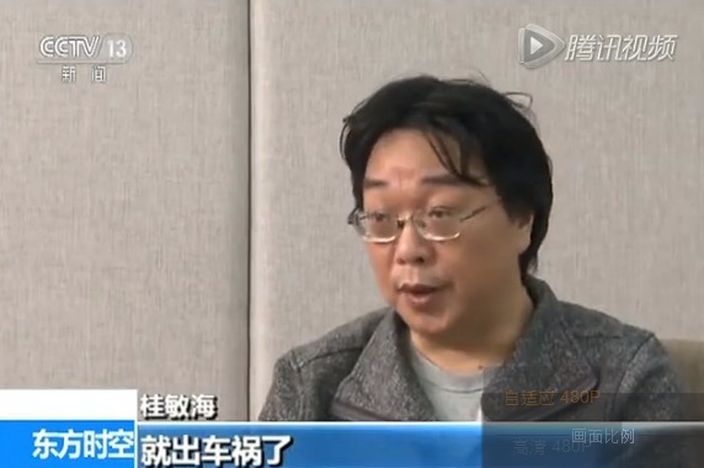
According to the relevant court
document, Gui Minhai was tested and found to have 1.14 mg/ml alcohol in his
blood, which qualifies for DWI (Driving While Intoxicated). In accordance with
the law, the Public Security Bureau held Gui Minhai completely responsible for
the incident.
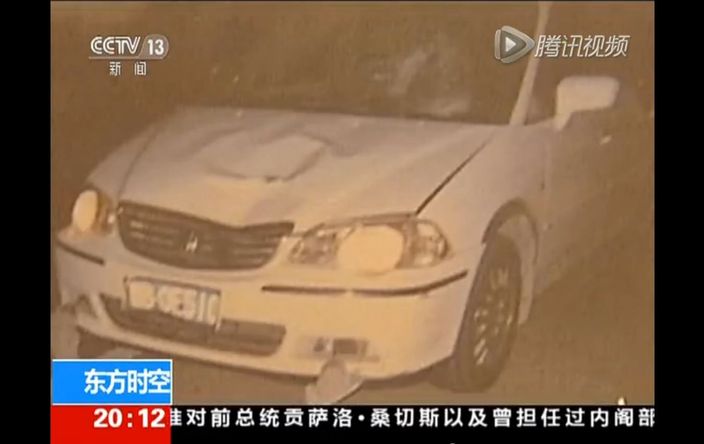
The deceased 20-year-old
university student Shen was in the prime of her life. Her family background was
even harder to take: Her father had his daughter after he was 50 years old, so
he regards her as the pearl on his palm. He wanted to see his daughter raise a
family and build a career. But those dreams were dashed as the white-haired
parents saw off their black-haired daughter.
"The family collapsed all of a
sudden." Zhou recalled the tragic news. Both parents fell ill. The
70-something-year-old husband had it worse, as his physical health deteriorated,
his mental state fell into depression and lapses of concentration and he even
became suicidal.
In August 2004, the court
sentenced Gui Minhai to two years in prison suspended for two years. The
victims' family dissented with the verdict and strongly demanded severe
punishment.
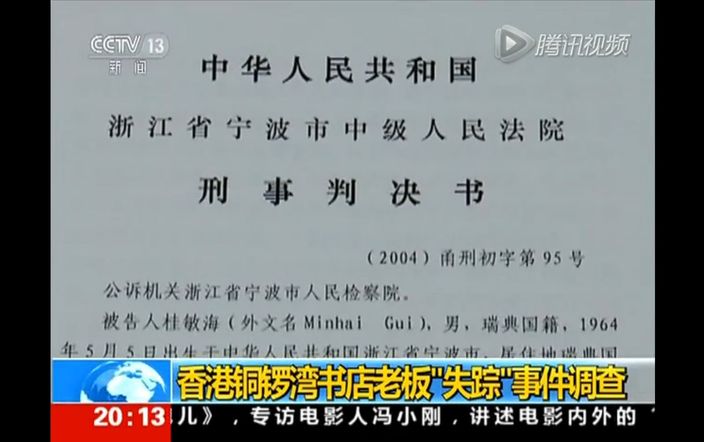
Gui Minhai was rueful that his DWI
act caused a family to be broken. But he was even concerned about having to go
to jail. Soon after the court verdict was rendered and before the civil
compensation was determined, Gui Minhai made the wrong choice.
"I began to be afraid ... afraid
of going to jail. Besides, I can no longer do business in China after the
incident. So I thought that I had better leave." Gui Minhai said.
In November 2004, Gui Minhai was
still on probation and cannot leave China under the law. By careful planning,
Gui used the identity card of someone to travel outside of China on vacation.
Since then he has traveled to many countries outside China.
Because Gui fled, the court voided
the 2-year probation and reinstituted the original 2 year jail sentence. The
public security bureau issued an arrest warrant for Gui Minhai.
By fleeing, Gui Minhai hurt the
victim's family once more. The two old men focused their lives on the case,
hoping that Gui Minhai would be arrested and made to serve his sentence.
It was not easy to be a fugitive
on the run. During this time, Gui Minhai went into business with others. But his
increasing wealth could not cover up his sense of guilty and regret. The two
words that he used most frequently to describe this period were "fear" and
"regret."
"After getting out of China, I
thought I would be psychologically relieved. Instead, it got worse." Gui Minhai
said, "On one hand, I was avoiding responsibility which is a psychological blow
to the victim's family. On the other hand, I left China illegally and committed
another crime while not receiving the original punishment. This is a crime on
top of another crime."
"Being a fugitive, Gui Minhai
could not return to his hometown and look after his parents. I don't have a
country, I don't have a home, I don't have a hometown ... As the ancients said,
if my heart is at ease, every place is my hometown; if my heart is not at ease,
then no place is my hometown." He said. "I felt a lot of pain inside. I
frequently used materialistic enjoyment to keep the pain away, but the pain
cannot in fact be excluded. I suffered psychological torment, I had constant
nightmares, hypertension, heart conditions, unspeakable pain ..."
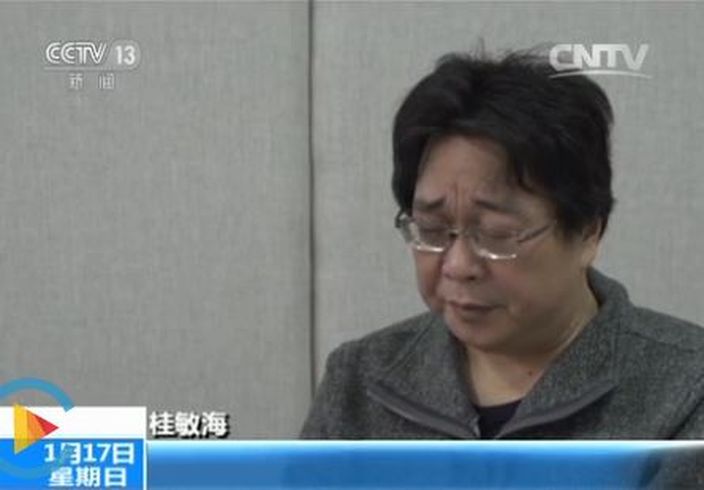
Gui Minhai said that even though
he managed to escape overseas, he continued to feel rootless and lost. When he
learned that his father was ill, he wanted to go back to China and surrender
himself many times. But he could not take that final step.
Finally in June 2015, his family
told him that his father had passed away. Gui Minhai did not have the chance to
see his father before his death. So he finally decided to go back to China and
surrender himself.
"I was very shaken up when I
couldn't attend my father's funeral. My mother is 80 something years old. I kept
thinking about her. I felt a very strong shame. I began to feel depressed. It
was unbearable. So I kept thinking about turning myself in. I wanted to settle
the matter so that I can see my mother before she passes away too." Gui Minhai
broke out in tears and lowered his head. "I didn't have the courage to do so
before. I think now is the moment to take that step."
In October 2015, Gui Minhai turned
himself in to the public security bureau.
Gui Minhai has written many
confessions during the investigation by the public security bureau. He said that
he was prepared to do so the moment when he made the initial decision to turn
himself in. "I must accept all my legal responsibilities. I am willing to accept
any penalty."
When Gui Minhai learned the
sorrowful state of the victim's parents, he felt even worse. He hopes that to
express his deepest apologies to them. "I want to give my most sincere apologies
to the victim's family. Sorry! I know that I can never make up the hurt and pain
that I have caused them. I will try my best to redeem myself for the rest of my
life, even if this only brings them a tiny bit of comfort."
When he learned that his
"disappearance" was being hyped up overseas, Gui Minhai stated solemnly: "I
voluntarily turned myself in out of my own choice. This is the responsibility
that I should accept. I don't want any person or organization to intercede or
interfere with my business, especially malicious hyping."
Gui Minhai also said, "Although I
am a Swedish citizen, I still feel that I am Chinese. My roots are still in
China. Therefore I hope Sweden can respect my personal choice, my rights and my
privacy, and let me deal with my problems."
According to information, Gui
Minhai is suspected of being involved in other crimes. The investigation is
ongoing.
Video: (YouTube)
Gui Minhai's interview on CCTV 13, January 17, 2016
(The
Stand) January 17, 2016.
Apple Daily cited an informed
source close to Gui Minhai that Gui's daughter Angela has made a statement: (1)
It is impossible for her to determine the veracity of the traffic incident that
occurred more than 10 years ago; (2) she has never heard her parents mention
this incident before; (3) she wants to go to China as soon as possible to meet
with her detained father together with Swedish officials; (4) she wants to find
lawyers to defend her father as soon as possible.
(Sing
Tao) January 17, 2016.
Our newspaper received exclusive
information that Lee Bo wrote another two-page letter to his wife Sophia Choi.
The letter spoke about his living and health conditions being fine, and the
progress of the investigation being smooth. Lee Bo also said that he recently
learned about the complex history of Gui Minhai, who is involved in other crimes
and also being an unsavory character. Lee Bo said that he was dragged into this
matter on account of Gui Minhai.
In the letter, Lee Bo emphasized
that Hong Kong has rule of law and he wants people to respect his personal
choice and privacy and not to hype up his decision to go to the mainland to
cooperate with the investigation. He said that he reserves the legal right to
sue those irresponsible media and individuals.
(Sing
Tao) January 18, 2016.
In Lee Bo's latest letter home, he
said wrote he recently learned that Gui Minhai has a complex history. Gui had
killed someone while DWI and refused to accept responsibility by fleeing
overseas.
In the previous letter, Lee wrote
that he voluntarily returned to the mainland to cooperate in an investigation.
In the latest letter, he wrote that the investigation is going on smoothly and
things are getting better. "I am good friends with them."
As to what the world is saying
about this 'disappearance', he is aware of the latest developments. "Some people
are using my mode of entry to attack One Country Two Systems and the Hong Kong
SAR Government. Even more disgusting is that someone smears me for patronizing
prostitutes. That's really unreasonable."
The letter did not indicate when
he will be back. But the mood seems confident: "It must be hard on you during
this time. I hope to make it up to you some day." As for autistic son, Lee Bo
wrote: "Please kiss Ah Tung for me. Tell him that Daddy misses him." The letter
is signed with "Bo who loves you" and dated yesterday.
(SCMP)
January 18, 2016. Full letter from Lee Bo to his wife.
Ping,
Since I voluntarily went to the mainland
to assist with investigations, progress has been good. Things are going
well. I have made friends with them.
Only recently, I came to know that Ah Hai
[Gui Minhai] has a complicated history. He caused someone�s death while
drink-driving in the mainland, and then fled to foreign countries. He also
has many facades that I do not know. He has been involved in other crimes.
He is a morally unacceptable person. This time he has caused me trouble.
Since I voluntarily came back to assist
in investigations, I have followed the situation in Hong Kong. Some people
used my immigration methods as an excuse to wantonly attack �One Country,
Two Systems� and the Hong Kong SAR government. What was more odious was
the smear accusing me of visiting prostitutes. This is ridiculous!
Hong Kong uphold its laws and systems. It
should also be a city that respects human rights and individual privacy. I
hope that every one can respect my personal choice and the privacy of my
family. I hope people and organisations wanting to pursue their own agenda
will stop blowing up and sensationalising the fact that I voluntarily
returned to the mainland to assist in investigations. I reserve the right
to sue such irresponsible media outlets and individuals.
This has been a hard time for you. I hope
I can compensate you well later. I should stop here. Take care. Kiss Ah
Tung* for me, and tell him Pa Pa misses him.
Love You
Bo 2016.1.17
(SCMP)
January 18, 2016.
October is usually the time the resort town
of Pattaya in Thailand shrugs off the lull of the low season as it prepares
for year-end tourists seeking the sun and sea.
But on the sunny afternoon of October 17,
an unexpected visitor cast a curious shadow when he arrived at a condominium
building in search of someone.
Gui Minhai, garbed in a T-shirt and white
shorts, hurriedly dropped off groceries he had just bought with the managers
of his apartment building as soon as he saw the visitor and invited the
young man into his white car.
That was the last time Gui was seen alive,
and thereafter his whereabouts remained a mystery � until he appeared on the
state-run CCTV on Sunday claiming he had surrendered to mainland authorities
for a drink-driving death he allegedly caused in 2003.
The last appearance by Gui near his holiday
home, captured by closed circuit television, would not have come to light if
a long-time friend had not taken the initiative to investigate his
disappearance, along with four others who vanished separately later.
That friend was Bei Ling, co-founder of the
Independent Chinese PEN Centre, who, together with friends pored over a
month�s worth of closed circuit television footage at Gui�s apartment and
interviewed the apartment manager, a woman called Mai.
�What has happened to him is abduction
conducted by a country. The Chinese government needs to come out and offer
an explanation,� Bei told the Post from Boston.
While many Hongkongers have been alarmed at
the disappearance of the five booksellers, the spotlight has fallen mostly
on Lee Bo, the co-owner of Causeway Bay Books and the last to have vanished
late last year.
The latest twist in the personal details of
Gui � a business partner whom Lee Bo now has described as morally moribund
in a letter he allegedly sent � has prompted yet more questions and stoked
fears of what else might be dredged up to explain their disappearance � or
as widely-believed � abduction by mainland agents.
The facts of Gui�s disappearance remain
just as sketchy but Bei�s accounts give another side to the interview on
Sunday, calling into question Gui�s apparently voluntary decision to
surrender.
According to Bei, about two weeks after
Gui�s last appearance, Bei said Mai had received a call from the publisher
to permit four men � at least three of them Chinese-speaking � to enter his
apartment and even stay overnight on November 3. Mai said the visitors, who
stayed 20 minutes, had attempted to take away Gui�s computer but were
stopped by the management office. One of them reportedly said Gui was
�gambling in Cambodia�.
The four men, who left the apartment in a
taxi, were believed to be heading to Poipet, a casino city along the border
between Thailand and Cambodia, according to Mai, who received a call from
that taxi driver after the gang left their phone in the vehicle.
Bei eventually decided to report the case
to Thai police as he found it deeply troubling that mysterious visitors
might already have snatched the Swedish passport of Gui and even duplicated
files and emails on his computer.
At first, it was not easy to convince Gui�s
wife, who lives in Germany, that her husband had vanished inexplicably, said
Bei. The wife told Bei that Gui still called her every seven to ten days.
Bei then suggested she tell Gui she planned
to visit Thailand and ask him to fetch her at the airport.
But as Bei suspected, Gui told his wife
through instant messenging app WeChat that he could not pick her up and
asked her not to visit Thailand. Bei took that as a subtle message from Gui
to his wife that he had lost his freedom and had been taken away.
However, two weeks after he went missing,
Gui, appeared to have sent a message via Skype to his 22-year-old daughter,
Angela Gui, who is studying in England.
�I have put [HK$30,000] in your account in
Hong Kong, and hope you will be fine with everything,� the message read. Bei
believed that the people who had kidnapped Gui let him do so to show that
Gui was safe. It was a ruse to persuade Gui�s family that all was well with
him.
On Sunday, Gui made an unexpected
appearance on CCTV with a jaw-dropping story. He said he decided to escape
from China after the court issued him with a two-year jail term, suspended
for two years, in 2004 in Ningbo in Zhejiang province. Under the sentencing
terms, he was meant to stay in the mainland.
Gui said he was overwhelmed by guilt and
had failed to find another home. So he decided to turn himself in. But
before the CCTV report emerged, other reports had suggested Gui was
kidnapped by possible Chinese agents while on holiday in Pattaya. Bei did
not believe Gui had returned to China out of his own free will, describing
Gui as �reading from a scripted speech�.
Another friend of Gui, chief editor Jin
Zhong of Open Magazine, was also unconvinced. �I hold reservations over his
�voluntary surrender�, which could have been done right here in Hong Kong,
not during vacationing in Pattaya,� Jin added.
He said China looked at Gui and his four
other missing associates such as Lee Bo as a �clique�and would handle them
as a collective case. �But to what extent Lee is viewed as Gui�s partner has
yet to be seen. Judging from the 10-year prison term Hong Kong publisher Yiu
Man-tin got two years ago, I�m afraid the term would not be less for the
present round,� he said.
Netizens have also spotted discrepancies in
Gui�s appearance on CCTV. In one part of the interview, Gui had short hair
and appeared anxious. But in another part, he looked at ease and had longer
hair. The footage also showed him in two different shirts � in grey and then
black.
Born in Ningbo in 1964, Gui began his
publishing career at the People�s Education Press after graduating in
history at Peking University in 1985. He left for Sweden in 1988 to enrol at
the University of Gothenburg, where he obtained a PhD in 1996. He and his
wife became Swedish nationals and they had a daughter in 1994.
Gui returned to China in 2000. After
receiving the suspended sentence in his hometown for the drink-driving
accident, he left for Germany. In 2006, Gui turned to publishing in Hong
Kong and formed as many as eight joint companies with partners to produce
books on China, with an emphasis on scandals, from mistresses to corruption,
involving top state leaders.
The publishing business blossomed in 2013
when the scandals involving disgraced party boss Bo Xilai were confirmed to
be true. Of the estimated 100 books on Bo that sold like hot cakes, half
were published by Gui, who was said to have made a profit of HK$10 million
just in 2013 alone.
That year, Gui founded Mighty Current
Media, a publishing-distributing enterprise specialising in books on
political gossip about leaders in China, with Hongkongers Lee Bo and his
wife Sophia Choi, and Lui Bo. A year later, they purchased the Causeway Bay
Books store and thus owned the entire publishing chain.
The Post learned that police officers
visited Gui�s Hong Kong residence in early January. On January 4, three
officers went to Gui�s three-bedroom flat in a waterfront high-rise in Tsuen
Wan and made inquiries, building managers who have knowledge of the matter
said.
Gui stayed at his Hong Kong house for only
a limited period of time, several weeks for instance, each time building
managers caught sight of him. Gui�s wife and daughter, who live in Europe,
would also come over to stay periodically.
(Headline
Daily) January 19, 2016.
Gui Minhai's daughter Angela in England
said that her father's Chinese name has always been Gui Minhai and there is
no record of her father exiting Thailand. Angela said that she was
interviewed after CCTV aired the interview with her father. Afterwards she
received information via Skype from her father, who said that he has no
problems and that she shouldn't worry. He also told her to keep silent when
asked about him. Angela said that this does not sound like the normal way
that her father talks, nor would he contact her in this manner.
(SCMP)
Public Eye: the stink from this mountain of mess just gets worse. By Michael
Chugani. January 19, 2016.
It�s easy to create a pile of poop.
Cleaning it up is something else. The pile wasn�t that big when Hong Kong
bookseller Gui Minhai disappeared in Thailand.
It got a bit bigger when three of his
associates disappeared in Guangdong weeks later, but still the Hong Kong
media gave it only moderate attention. Stupidly emboldened by this, the
abductors snatched a fifth bookseller, Hongkonger Lee Bo, right here in Hong
Kong. The small pile suddenly became a mountain.
Let�s assume, and you won�t be wrong if you
did, that the abductors were mainland security agents so peed off with the
five for selling books critical of mainland leaders that they thought
nothing of violating our laws to teach them a lesson. What that shows is
that 18 years after the handover, they are still clueless that Hongkongers
have a line to protect their core values that they will fiercely defend. Now
the mainland is left with a mountain of poop that is too messy to clean.
The first cleaning attempt only made the
pile messier. They paraded a remorseful Gui on state TV confessing that he
voluntarily returned to face mainland justice for violating probation by
fleeing after killing a female university student in a driving accident 13
years ago.
Public Eye doesn�t know if the televised
confession was forced or not. But we know this: most Hongkongers won�t buy
Gui�s story. It appears he was indeed involved in a fatal 2003 drink-driving
case. But in the minds of Hongkongers, that is not why he and his four
associates were snatched.
The pile got even messier two days ago when
Guangdong�s security bureau admitted it is holding Lee without saying why or
if they had abducted him. Public Eye said last week the kidnap order didn�t
come from the top but from rogue agents eager to please their bosses.
We still believe that because, as we had
pointed out, if President Xi Jinping had wanted to quash a book about his
pre-marriage sex life, the abduction would have been much cleaner and Chief
Executive Leung Chun-ying would have stayed silent. Guangdong security
admitting it has Lee supports the theory of a lower-level job.
A seething Xi has no doubt ordered a quick
clean-up to limit the damage done to �one country, two systems�, which China
has long touted as also a model for Taiwan reunification. But it�s taking so
long because mainland security has many factional layers. First, the rogue
agents had to be identified then a way found to put the best spin on a
stinking pile.
The spin has so far flopped. We�re coming
up to Lunar New Year. Why not hold Gui but free the other four to rejoin
their families for the festival with the spin that inquiries have been
completed?
(SCMP)
September 2, 2016.
The daughter of one of five missing Hong Kong
booksellers who were found detained on the mainland has said she has been told
it is not safe to travel to Asia.
Angela Gui, 22, who is studying in Britain,
said she has not been in touch with her family in China since her father Gui
Minhai, a Swedish national, disappeared from his home in Pattaya, Thailand in
October last year, before resurfacing on the mainland and making confessions
on state TV.
Gui, 51, was one of five booksellers
operating in the city whose disappearances sparked widespread speculation that
they had been abducted by mainland agents acting illegally.
Gui�s daughter told
British newspaper the Guardian that Swedish police advised her not to
travel to Asia.
�[This] is very
difficult for me,� she told the paper. �I am concerned not only for myself but
for my family. I may not be allowed into China if I tried to visit. I have not
been in touch with my family in Asia since this happened because of concerns
for their safety.�
Gui said she had been
given information by the Swedish embassy in Beijing, who last saw her father
in March. She said she believed her father was held without charge in his
hometown of Ningbo.
Gui said she would like
the Swedish authorities to be more proactive in securing her father�s release.
She said she planned to launch a website campaigning for her father�s release
soon.
(Hong
Kong Free Press) September 3, 2016.
I am 22 years old and
have just graduated from university. My father isn�t around to see it. A few
days earlier I had sent him a message on Skype � where he remains logged in �
to tell him about my graduation, hoping, perhaps na�vely, that he might
finally be allowed to call me. A year ago we had made plans for my graduation.
He would take time off work so we could spend this day together. Instead, I
spend the day clutching my phone waiting for a call that never comes.
When my father Gui
Minhai was 22, he graduated from Beijing University. As a newly minted student
in Deng Xiaoping�s China he started working for a textbook publishing house,
filled with hope � shared by many others back then � that his country was
becoming more open, more democratic. Two years later he was offered an
opportunity to move to Sweden to continue his studies. He saved up for a seat
on the Trans-Siberian Railway from Beijing to Moscow. In Moscow, he sold his
shoes so he could afford an onward ticket.
My father learned a lot in Sweden. The
Gothenburg sky was bluer than he had ever seen it in Beijing, and the January
cold was biting in a way that he was not used to. But despite the cold, my
father also found warmth in Sweden. Following the Tiananmen massacre in 1989
he, and many other young Chinese, received permanent residency; a home, and
protection against China�s blows against freedom of speech. Eventually, he
would finish his education, get married, and renounce his Chinese citizenship
in place of a Swedish one.
At the same time, my father became
increasingly involved with � and committed to � issues of democracy and
freedom of speech; he became an active participant at human rights
conferences, and a board member of the Independent Chinese PEN Centre. He also
founded a publishing house in Hong Kong, specialising in Chinese politics,
especially the kind that was and is still not allowed inside the mainland.
On October 17 last year, my father was on
holiday in Thailand. He had just returned to his vacation home after having
been out grocery shopping on the morning when he was seen leaving in a car
with a man that had been waiting outside. Then, nobody knew where he was for
three months. In the days following my father�s disappearance, his coworkers
in Hong Kong started disappearing too, one after the other.
In January this year he was suddenly paraded
on Chinese state-controlled TV. In a forced confession reminiscent of the
�struggle sessions� of the Cultural Revolution, my father was made to say that
he had handed himself in for a traffic crime he had supposedly committed over
a decade ago. I still don�t know where he is, how long he will be held for, or
what the real reason for his detention is. But I do know that the Chinese
state wouldn�t have abducted him from Thailand and place him in secret
imprisonment over a traffic crime.
Today, it�s been 321 days since my father was
illegally taken from Thailand into China by the Chinese state security police.
He has still not been given access to legal counsel and I�m still not allowed
to speak to him.
In its treatment of my father, the Chinese
government is not only breaking its own laws, but also International law. This
the same government that ahead of the September G20 Summit in Hangzhou has
advertised to its people to follow the law, because following the law is
patriotic.
This past Tuesday was the International Day
for Victims of Enforced Disappearances. I spent the day in Stockholm making my
best efforts to raise awareness of my father�s plight, and trying to recreate
that steamed fish recipe of his that he cooked me in Hong Kong two autumns
ago. I hope I wasn�t the only one thinking, and worrying, about my father.
In the end, this is not about my father as an
individual. It�s not about the young man who made a fourteen-day-long train
journey from Beijing to Sweden, who used to sing lullabies to me in broken
Swedish when I was four. This is about China actively extending its control
far beyond its own borders. This is about China kidnapping and illegally
detaining more and more people because of their political beliefs. It�s about
European citizens no longer being able to know that their human rights will be
protected.
The silence surrounding what has happened to
my father is only telling China to go ahead, that this blatant disregard for
human rights and the rule of law is acceptable. In what has been called �the
darkest moment� for human rights in China in recent years, we have to make
sure that people like my father are not forgotten. Because to stay silent on
what happened to him is to guarantee that it will happen again.
(SCMP)
October 25, 2017.
There is confusion over the fate of missing
Hong Kong-based bookseller Gui Minhai following his �release� from custody in
mainland China last week, two years after he disappeared while on holiday in
Thailand.
Gui�s daughter,
Angela, said he was not necessarily free, as he had neither been seen nor
heard from since his release last Tuesday and might have �disappeared again�.
The foreign
ministry in Beijing confirmed on Tuesday that Gui, co-founder of Mighty
Current publishing house, which specialised in political gossip about the
Chinese leadership, was released a day before the Communist Party party began
its twice-a-decade congress.
�From our
understanding, Gui Minhai has already completely served the sentence imposed
for a traffic offence, and was released on October 17,� the foreign ministry
said in a statement.
That traffic
offence refers to Gui�s earlier confession on state television that he had
surrendered to mainland Chinese authorities for a drink-driving death he
caused in 2003.
The statement made
no mention of the earlier accusation that Gui had run an �illegal business�
since October 2014 to deliver across the border about 4,000 books banned on
the mainland to 380 customers.
The controversy
began in October 2015 with Gui, a mainland-born, naturalised Swedish citizen,
vanishing first from Pattaya, Thailand. He was said to have been kidnapped by
Chinese agents.
His publishing
associates, Lam Wing-kee, Cheung Chi-ping and Lui Por, went missing while on
the mainland. Another associate, Lee Po, disappeared under similar
circumstances from Hong Kong.
All five
eventually surfaced on the mainland, appearing on state media to claim they
had gone there voluntarily.
�According to
reports we have received from the Chinese authorities, Gui Minhai has been
released in China. We are working to get more information about this. We are
in close contact with Gui Minhai�s family,� Sweden�s foreign ministry said in a
statement on Tuesday.
But Gui�s daughter
said: �I still do not know where my father is. Upon receiving the news of his
release being imminent, the embassy sent senior officials to the place my
father is said to have been held and where consular officers visited him on
three occasions.�
According to her,
a mainland official told the Swedish officials who went over to meet Gui that
the bookseller had already been released at midnight.
�They were also
told that he was �free to travel� and that they had no idea where he was,� she
said.
On Monday, she
said, the Swedish consulate in Shanghai received a �strange� phone call from
someone claiming to be her father. The person on the phone said he wanted to
apply for a Swedish passport one or two months later but, for now, he wanted
to spend some time with his mother.
�To my knowledge,
my grandmother is not ill. My father is not, in fact, with her. It is still
very unclear where he is. I am deeply concerned for his well being,� she said.
Woo Chih-wai, who
worked at the Causeway Bay bookstore under Mighty Current until five of his
associates disappeared in 2015, said he believed Gui was released due to
international pressure.
But Woo doubted if
Gui could leave mainland China just yet. If authorities had charged Gui for
running an �illegal business�, he would not be allowed to leave the mainland
for now, Woo said.
One of the
previously missing booksellers, Lam, claimed in dramatic detail upon returning
to Hong Kong in June last year that he was kidnapped at the border and put
through eight months of mental torture.
Democratic Party
lawmaker James To Kun-sun, who helped Lam at the time, said:�If, according to
what the Chinese government says, Mr Gui should have been released on Oct 17,
the Chinese government would be pleased to ensure that Mr Gui is seen by the
whole world, that he is free.
�My feeling is the
Chinese government or some of the leaders do not want Mr Gui to actually be
free. That is why the fiasco happened.�
(SCMP)
October 27, 2017.
Hong Kong-based
bookseller Gui Minhai has reunited with his family in the Chinese city of
Ningbo following his release from custody on the mainland last week, his
long-time friend said on Friday.
Dissident poet Bei
Ling, co-founder of the Independent Chinese PEN Centre, said Gui hoped to
travel to Germany, if police in China let him. He said Gui had spent a lot of
time in Germany, where reports have suggested he owns property.
Gui was among five
booksellers linked to publisher Mighty Current who went missing in 2015 and
later resurfaced in the custody of mainland agents. Mighty Current specialised
in political gossip about the Chinese leadership.
�He told his
family members that he wishes to go to Germany,� Bei said over the phone from
Boston, in the United States.
�But for now, he
is not sure if the Chinese authorities will allow him to leave China.�
Bei said Gui had
already met up with his wife, sisters and mother. Gui has not seen his
daughter, Angela, since his release.
Bei said he got
the information from Gui�s family. He also said that Gui, a mainland-born
naturalised Swedish citizen, called the Swedish consulate in Shanghai to tell
staff there he would apply for a new passport.
The Post
contacted the Swedish foreign ministry for comment.
�He will only
enjoy true freedom if he is allowed to leave China. If he cannot leave China,
he could end up just like Liu Xia,� Bei said, referring to the widow of late
Nobel laureate Liu Xiaobo. Liu Xia has been under house arrest since 2010, her
whereabouts unclear at present.
Bei said Gui was living in a flat in Ningbo,
Zhejiang province. He said he was not sure if that was arranged by police, and
that he could not tell if Gui was truly free.
Ningbo, south of Shanghai, is the same city
where another of the Mighty Current five, book store manager Lam Wing-kee,
said he was held during his detention.
Angela Gui said in a message on Friday that
she was not in a position to comment as there were still many things that
needed to be clarified.
Just three days ago, she said her father had
been neither seen nor heard from since his release on Tuesday last week, the
day before the Communist Party began its twice-a-decade congress in Beijing.
She has been active in campaigning for her
father�s release. Gui�s wife, Jennifer, has never publicly spoken on the
matter.
China�s foreign ministry said earlier that
Gui Minhai was released from detention over a �traffic offence�, having
�completely served the sentence�.
That referred to Gui�s earlier confession on
state television that he had surrendered to mainland Chinese authorities for a
death he caused while drink-driving in 2003.
The ministry made no mention of the earlier
accusation that Gui had run an �illegal business� since October 2014,
delivering about 4,000 books banned on the mainland across the border to 380
customers.
Internet comments:
- Points of suspicion
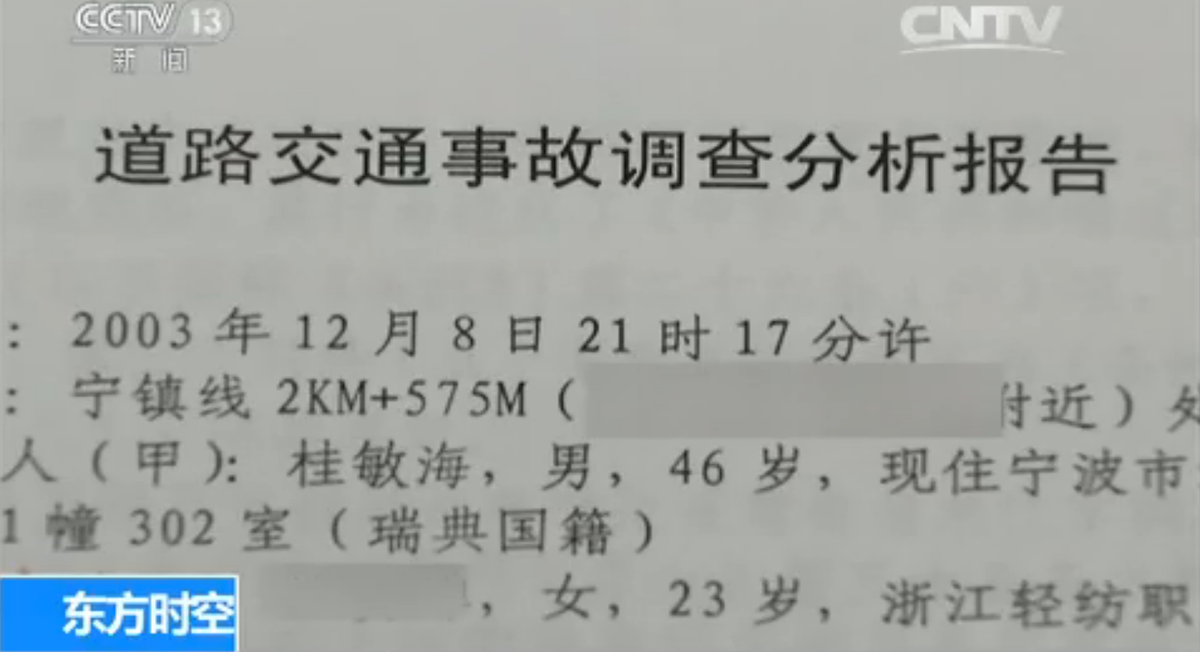
(1) Gui Minhai is commonly referred to as 桂民海 but this traffic incident analysis
report has him down as
桂敏海.
(2) Gui Minahai's Swedish passport has his date of birth as May 5, 1964 (which
means he should be 39 years old in 2003) but the traffic incident analysis
report has his age as 46 in 2003.
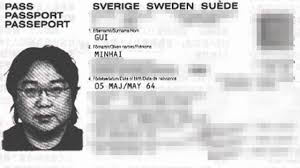
So is this the same person?
- If you are a Chinese fugitive and you travel on a Swedish passport without Chinese
characters, what would you claim your Chinese name is when you start a business
in Hong Kong? Do you use the same name and the same birthday as a certain
fugitive? Or do you use a different Chinese name (with the same pinyin sound as
the name on
your Swedish passport) and a different birthday? The traffic incident analysis report
states that Gui Minhai is a Swedish national. How many Swedish citizens named
Gui Minhai live in Ningpo city? I think that there is only one.
- Gui Minhai wore two different
t-shirts during the interview. Therefore the whole thing was staged.
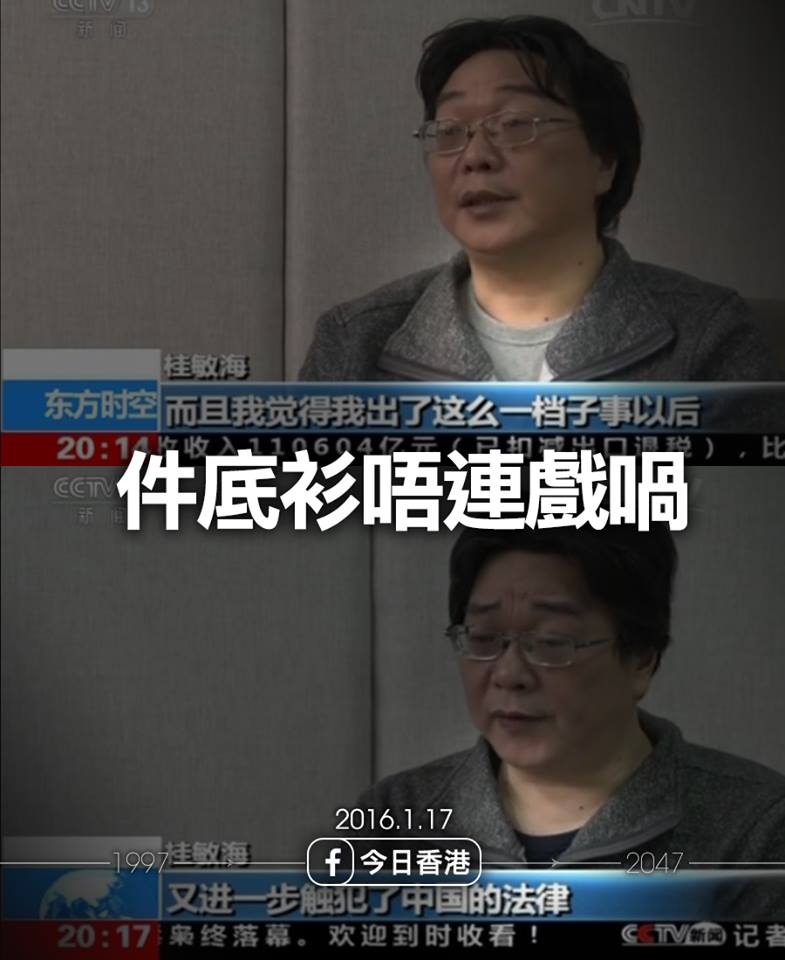
-
The news broadcast was edited down. If the recording session went on for a long
time and Gui Minhai wanted to change his t-shirt, so be it.
- The 2005 CCTV report said that
they learned that Gui Minhai left China in November 2014. It did not say that he
"fled." It is commonsense that a suspended sentence means not having to
serve time in jail.
- A suspended sentence means that there is a two-year probation period during
which the individual has to meet with the probation officer regularly to
establish that the terms
of probation
are being met. Gui Minhai violated these terms of probation by leaving the
country without notice and therefore his
probation was revoked in June 2015.
- The veracity of the traffic
incident can be tracked back to a
CNTV broadcast in April 2005. The program was an illustrative of
investigative techniques. The initial ruling by the public security bureau was
that Gui Minhai bore primary responsibility because he was drunk as well as
exceeding the speed limit while Shen bore secondary responsibility because this
was not a crossing point. The victim's mother appealed the ruling by pointing out
the nearest pedestrian crossing was 800 meters away, that most cars exceed the
80 kph speed limit on this road, and that the victim was only 2 meters from the curb
when she got hit and could not avoid a 110 kph car driven by a drunk driver who
couldn't see. After thorough observational testing, the Zhejiang Provincial
Public Security Bureau concluded that the driver Gui Minhai was fully
responsible for the traffic incident and the victim was not.
- I can see how the confessions
will get rolled out:
Bookseller #1: Caught by the police while patronizing a prostitute
Bookseller #2: Driving while intoxicated; jumping bail
Bookseller #3: Sexual molestation by grabbing the butt of a grandmother
Bookseller #4: Eating a meal without paying
Bookseller #5: Jumping the subway turnstile without paying
- More on the
2005 traffic incident. "Faced with the possibility of receiving a civil
compensation of about 400,000 RMB, Zhou Yaping used her trembling hand to wipe away
the tears and said firmly: if the civil lawsuit succeeds, they will establish a
scholarship at an impoverished school in the name of their daughter so that more
children can study well. They hope that this school can let their daughter be
the honorary headmaster. If possible, the ideal school would be the Xiaofeng Town
Centre Primary School that their daughter attended. In this way, people will
remember that DWI brings eternal pain to yourself and others."
So is the core of the story less that Gui Minhai didn't want to go to jail, but
more that he doesn't want to pay 400,000 RMB in compensation to the victim's
family?
- Gui Minhai made a bundle of money in Hong Kong by publishing "banned books" in
Hong Kong such that he could afford to buy the Causeway Bay Books in 2014. He
even bought a condominium in Phuket, Thailand.
Did he ever compensate the Shen family?
- More on the
2005 traffic incident. Advice to Gui Minhai and his defenders is not to
doubt the story. CCTV 13 can easily trot out old lady Zhou to reprise everything
that she has told over the years. Here is one sob story: "Several hours before
her death, Shen Yanchan sent a QQ message to her mother: 'Mom, I am going to be
working soon. From now on, you can keep my 200 RMB monthly allowance to buy
clothes for yourselves'."
- Those who believe it will
believe, and those who won't believe it won't believe.
(Hong
Kong Free Press) January 17, 2016.
Political Commentator Johnny Lau
Yui-siu told RTHK that the PRC government�s explanation was full of
contradictions and could lead others to speculate as to whether the authorities
were dishonest or �made stories up�.
The Labour Party�s Lee Cheuk-yan told
Commercial Radio that the supposed confession was �illogical and not
believable�.
Amnesty International�s Regional
Director for East Asia Nicholas Bequelin said Gui�s words sounded
scripted.
- Lee Bo no longer represents Lee Bo and
Gui Minhai no longer represents Gui Minhai. They are now being represented
by Lee Cheuk-yan et al, who know what is genuinely on the minds of Lee
and Gui.
- The only good script is the one that follows what the pan-democrats have
already written. Everything else is illogical and unreasonable.
- (Hong
Kong Free Press) January 19, 2016.
The Hong Kong police received a reply
from the Guangdong police on Monday evening confirming that missing
bookseller Lee Bo is in mainland China. The message was received 17 days
after an enquiry was made. The Interpol Guangdong Liaison Office of
Guangdong Provincial Public Security Department stated that it �understood
that Lee Po [sic] is in the mainland�. Also enclosed with the reply was a
letter from Lee addressing a �relevant government department� of Hong
Kong. The content of the letter is similar to the one received by his wife
on January 17. The police have contacted Mrs Lee, who confirmed it was her
husband�s handwriting in the letter. Police wrote to Guangdong
authorities on Monday night requesting to meet with Lee in order to
further understand the incident.
- (NOW
TV) January 19, 2016. In Beijing, the Ministry of Foreign Affairs
spokesperson Hong Lei responded to a question about Causeway Bay Books
owner Gui Minhai by saying that he has nothing to add to what the Chinese
media have reported. Well, this hurts but the people of Hong Kong should
really think about how important they are. Will they be ignored? Will they
get up and say: "I'm
not going to be ignored."
- (Ming
Pao) January 19, 2016. Chinese PEN president Bei Ling has known
Gui Minhai for more than 30 years. Back in 1985, Gui used "敏"
(as in the traffic incident documents) and not "民" (as used in the recent
Hong Kong news reporting). Bei Ling said that he conducted an
investigation when Gui went missing, and learned from other sources that
Gui Minhai might be involved in this traffic incident. However, Gui's
family could not confirm this and so he didn't report it. Bei Ling does
not know how to explain the age discrepancy.
- Gui's family? This means his daughter
Angela. If Bei Ling had spoke to Gui's mother and sisters, he would learn
that they had to pay the civil compensation to the victim's family.
- (Oriental
Daily) February 2, 2016. Mighty Current's warehouse in Chai Wan
will have to relocate because they couldn't get a rent extension. The
remaining unsold 1,000 or so books were going to discarded. The Alliance
to Support Democratic Patriotic Movements in China has stepped in to take
over the books. They plan to be selling the books at the Alliance's Lunar
New Year Market stall in Victoria Park.
Comment: This is consistent with what
else is being sold at the Alliance's store. They sell a lot of lies about
June 4th 1989 to gullible mainland travelers, so it is natural that they
will also sell a lot of lies about the mistresses and hidden safe boxes of
the Chinese leaders.
The Alliance does not say who gave them
those books and how the proceeds of the sales will be used. Gui Minhai is
the owner of Mighty Current and he could not be making that decision given
that the Alliance said that he was kidnapped and held in detention.
TWICE music videos:
Like OOH-AHH
Candy
Boy
Do
It Again
(SCMP)
January 16, 2016.
Election observers in Taiwan say they are
looking into whether the controversy and media coverage over a singer who
was forced to apologise after waving a national flag will effect the
outcome of the presidential and parliamentary elections on Saturday.
Millions are going to the polls to elect a new leader for the island and
its legislators.
The singer Chou Tzu-Yu, 16, was forced to
apologise after waving the flag on a South Korean TV programme. The
apology was made after Chou sparked the ire of people living in mainland
China.
A video clip of Chou apologising to the
mainland Chinese public for waving a Taiwan national flag in November has
been repeatedly aired by Taiwanese TV and prominently reported by local
news media on the island. The apology was prompted by a Taiwanese singer
based in mainland China, Huang An, who accused the 16-year-old of
supporting Taiwan independence by waving the Republic of China flag.
The debate over the apology has gone
viral on social media in Taiwan with some people angry that the singer was
forced to say sorry. �Why did you [mainland China internet users] and the
Korean entertainment agency have to give her such a hard time? She�s just
a teenager!� wrote one commenter. �What�s wrong for a young Taiwanese girl
to declare her identity by showing the flag of the Republic of China? It
is not the flag of the Democratic Progressive Party.� Others in Taiwan
said on social media they now wanted to punish �China-friendly� parties in
the polls because of the apology.
One analyst said the controversy was
bound to have an impact on the elections. �Neutral voters who previously
did not want to go out to vote might show up to cast their ballots to
Taiwan-centric candidates and China-friendly candidates could suffer as a
result,� said Yao Li-min, chairman of the Citizen�s Congress Watch.
The opposition presidential front runner
Tsai weighed into the controversy on Saturday. �I believe everyone feels
hurt and angry to see that Chou Tzu-Yu was forced to do what she was made
to do,� she said. �It seriously hurt the feelings of Taiwanese people.�
The 59-year-old scholar-turned politician made her comments after she cast
her ballots.
Taiwanese President Ma Ying-jeou also
said at the ballot box on Saturday that there was no need for Chou to
apologise. �No citizens should be punished for recognising the Republic of
China and expressing their affection for the national flag,� he said. The
KMT�s candidate in the presidential poll, Eric Chu, also expressed
sympathy for Chou.
Beijing issued a statement saying
�certain political groups in Taiwan� have been using �isolated cases� to
affect the feelings of people across the Taiwan Strait and people should
be wary of this. The statement is viewed as an attempt to control the
damage created by the apology. �We support cross-strait cultural exchanges
and our encouragement of exchanges between young people of the two sides
has been consistent,� the Taiwan Affairs Office said.
(ET
Today) (United
Daily News)
16-year-old Taiwanese girl Chou Tzuyu joined the Korean
band TWICE. She is being denounced by Huang An as pro-Taiwan independence
because of a photo in which she held up a Republic of China flag, and is now
the subject of a boycott movement. Her management company JYP has canceled
all her appearances in mainland China.

As soon as Huang An made his denunciation, Anhui Satellite TV canceled their
TWICE performance. The agent demanded that JYP refund its 100,000 RMB
pre-payment, threatening a ban on all JYP artists otherwise. The agent said:
"We are not going after JYP or the other artists. The contract has clauses
about bad effects or uncontrollable circumstances. I offered three
solutions: First, Chou Tzuyu won't come with TWICE. Second, use another
artist from JYP. Third, a refund. But JYP rejected all three. I have no
choice left."
The agent added: "Frankly, I was derelict in
my duties because I didn't familiarize myself with Chou Tzuyu before I gave
the invitation. So as the hubbub rose, I didn't say anything and I tried to
work with JYP. I have to thank Huang An. I stopped all collaboration as soon
as I found out. I am waiting to see what their attitudes and solutions are.
It seems that the masses of Internet users are correct. This is not just
Chou Tzuyu's problem. The question is, Does JYP want to come to China ever
again? I pity those other bands and the two good guys from China."
In response, JYP said that they won't refund
the pre-payment because they have to protect their artists, and that they
are willing to perform for Anhui Satellite TV for the lowest possible price.
The agent said: "There is no room for them in China. Not a single television
channel will work with them."
(YouTube) JYP posted a video by Chou
Tzuyu on YouTube:
https://www.youtube.com/watch?v=t57URqSp5Ew.
Hello, everybody. I have something to say.
(Deep bow) Hello, everybody. I am Chou Tzuyu. Sorry. I should have come out
much earlier to apologize. I did not know that I was facing the situation
now. I did not dare to face up to everybody, so I came out only now.
There is only one China. The two shores of the
strait are one body. I, Chou Tzuyu myself, am a Chinese person. I am proud.
As a Chinese person who lives overseas, I occasionally make mistakes in my
words and actions that hurt my company and the feelings of the Internet fans
on both shores. I am very, very sorry. I have decided to call a stop to all
my activities in China and seriously reflect. Here I apologize to everybody
once again. Sorry. (Deep bow)
Apology from
JY Park (owner of JYP)
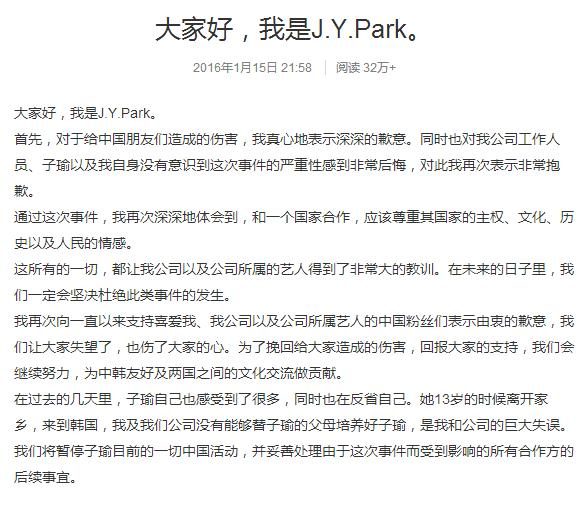 \
\
Hello everybody, I am J.Y.Park.
First of all, I sincerely and deeply
apologize for the hurt that I have caused my Chinese friends. At the same
time, I have very sorry about the seriousness of this affair on my workers,
Tzuyu and myself. I am very sorry.
As a result of this incident, I have once
again appreciated deeply that working with a country means having to respect
the sovereignty, culture, history and the feelings of the people of that
country.
All this has given a tremendous lesson to
my company and its artists. In the days ahead, we will resolutely stop any
such incident from occurring.
Once again, I apology sincerely to those
who have supported me, my company and its artists. We have let everybody
know, we have hurt everybody's feelings. In order to make up for the hurt
and to repay your support, we will continue to work to contribute towards
cultural exchanges between China and South Korea.
Over the past few days, Tzuyu has suffered
a lot even as she reflected upon herself. She left home at age 13 and came
to South Korea. I and my company have not brought up Tzuyu properly for her
parents. That is a huge mistake on the part of me and my company. We will
stop all of Tzuyu's activities in China for now, and we will properly handle
all the matters that have come about as a result of this affair.
Internet comments:
- Please get the sequence and details of the
events right! This is not a case of (1) girl raises Republic of China flag;
(2) girl gets bullied by big bad Chinese government; (3) girl makes apology
video.
Here is what really happened:
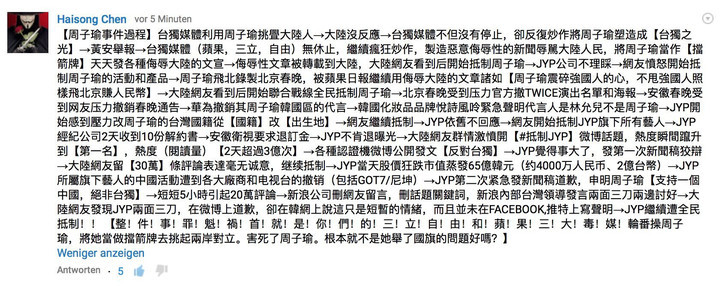
(0) Chou Tzuyu appeared on Korean television.
When asked where she came from, she replied "I am from Taiwan." The
programme added the Republic of China flag on the screen:

(1) Pro-independence Taiwan media (SETTV/Liberty
Times/Apple Daily) used Chou Tzuyu to provoke mainlanders, saying that they
couldn't resist the charms of a pretty pro-Taiwan-independence girl in a
Korean band. They praised Chou Tzuyu for bringing glory to Taiwan and
breaking the fragile hearts of the Chinamen, etc. They labeled her as the
"Bright Light of Taiwan" and the "Star of Taiwan Independence."

The two shores continue to debate
sovereignty issues. Even since she debuted on <Sixteen>, Chou Tzuyu has
continued to insist that she is "from Taiwan", used Chinese to say hello and
taught her teammates to speak Taiwanese on the various Korean variety shows.
In one program, she even waved the Taiwan national flag so that the glass
hearts of the mainland Internet users are shattered all over the floor.
(2) No response from mainlanders because they
don't read any pro-independence Taiwan media
(3) Huang An posted a denunciation
(4) A Tzuyu fan advised Huang An not to pick
on an innocent victim who was set up
(5) Huang An withdrew his denunciation
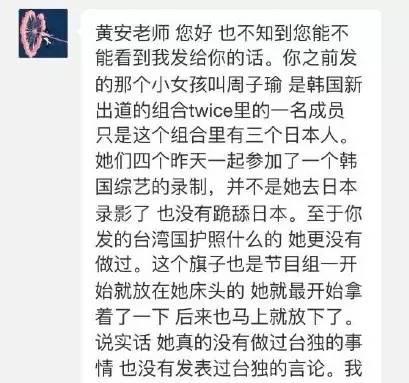
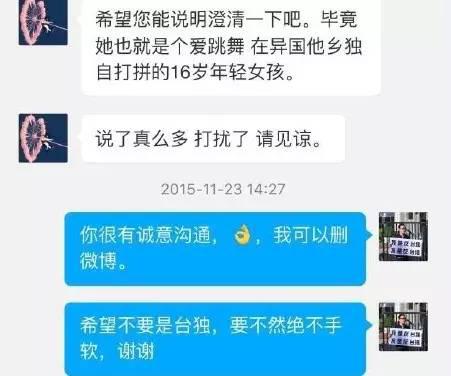
Fan: How are you, master Huang An? I don't
know if you can see this message. Previously you posted on a young girl
named Chou Tzuyu. She is a member of the new Korean band TWICE. There are
three Japanese girls in the group. Yesterday, they went on a Korean program.
She did not travel to Japan to make the video, and she was not sucking up to
Japan. As to what you said about the Taiwan passport, she did nothing of
that sort. As for the Republic of China flag, the production team left it on
her pillow and she picked it up and put it down afterwards. Frankly, she has
done nothing for Taiwan independence, and did not say anything on behalf of
it. I hope that you can verify this. After all, she is only a 16-year-old
girl who likes to dance and who is trying to build a career in a foreign
country. I have said a lot, so I apologize for taking up your time.
Huang An: You are communicating sincerely.
PRAISE! I can delete that weibo post. I hope that she is truly not a Taiwan
independence advocate, otherwise I won't hold back. Thanks.
(6) Pro-independence Taiwan media provoked
mainlanders again by saying that their futile actions could not prevent TWICE from appearing on Chinese television
(7) Huang An repeated his denunciation
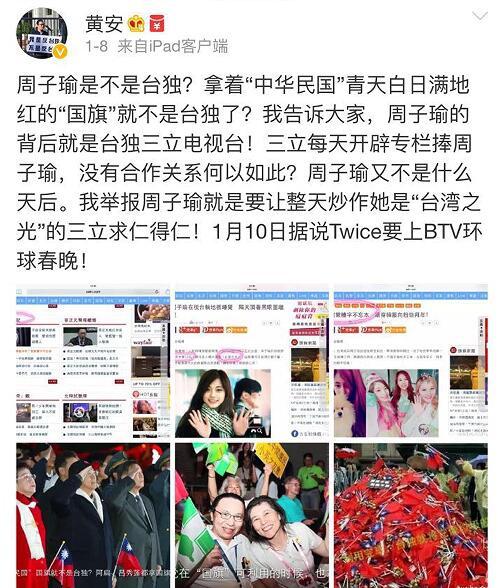
Huang An (January 8, 2016): Is Chou Tzuyu
for Taiwan independence? Does holding the Republic of China means that not
for Taiwan independence? Let me tell you -- pro-Taiwan independence is
behind Chou Tzuyu! Every day, SETTV sets up a special section for Chou Tzuyu.
How can that be unless there is a special cooperation deal? Chou Tzuyu is
not a superstar. I denounce Chou Tzuyu because the person that SETTV sets as
the Glory of Taiwan should get what she deserves! On January 10, it is said
that TWICE will be on Beijing TV's Global Spring Festival Show!
At the same time, Huang An said that if Chou
Tzuyu is willing to state that she is a Chinese person, he will immediately
rescind his denunciation.
(8) Beijing TV invites TWICE to record a
spring festival show. Apple Daily continued to hype up the fact with
insulting essays such as "Chou Tzuyu broke the hearts of the mainlanders;
she flew to Beijing to rake up RMB in spite of mainlander objections."
(9) Mainland Internet users began to boycott
Chou Tzuyu as more unsubstantiated rumors about Chou Tzuyu's pro-Taiwan
independence words and actions swirled. This pushed Chou Tzuyu to the
opposite side of mainlanders.
(10) Beijing TV's Spring Festival program
capitulated to public pressure and canceled the TWICE appearance.
(11) Anhui Satellite TV revised its Spring
Festival programme and canceled TWICE.
(12) Huawei canceled the contract for Chou
Tzuyu as their spokesperson.
(13) JYP felt the pressure and quietly changed
Tzuyu's nationality of Taiwan to her birthplace of Taiwan in their official
website.
(14) Mainland Internet users continued to
rage.
(15) JYP still did not issue a public
response. Meanwhile more rumors came about Chou Tzuyu saying "I am not
Chinese. I am Taiwanese" etc. Neither Chou Tzuyu nor JYP addressed these
rumors.
- Facebook post is from "Chou Tzuyu", but
this is not an official page because JYP does not allow her to have personal
page.
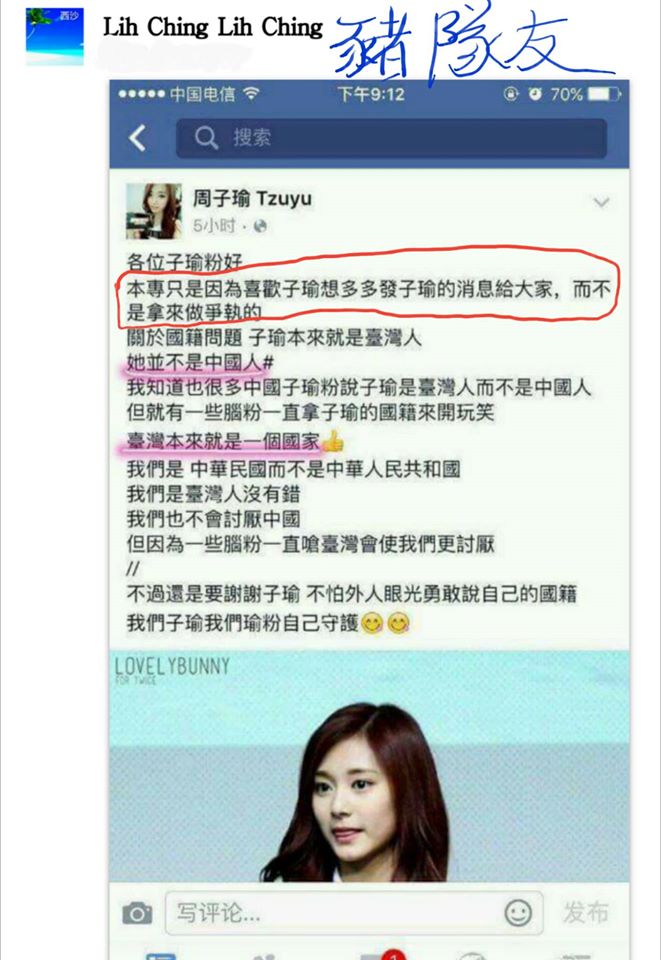
Hello to Tzuyu fans
I like Tzuyu and that is why I am posting more news to share with everybody,
not to raise controversies
With respect to the nationality issue, Tzuyu is a Taiwanese
She is not Chinese
I know that many many Chinese Tzuyu fans say that Tzuyu is Taiwanese and not
Chinese
But there are some angry people who made jokes about Tzuyu's nationality
Taiwan is a nation
We are the Republic of China, not the People's Republic of China
That's right, we are Taiwanese
We won't hate China
But we will get more repelled because these angry people are debasing Taiwan
But we have to thank Tzuyu, for being brave to state her nationality
We Tzuyu fans will defend out Tzuyu
(16) Mainland Internet users called for a
boycott of all JYP artists.
(17) JYP received ten contract cancellations
of their artists in two days.
(18) Anhui Satellite TV want their deposit
back.
(19) JYP's refund refusal became known.
(20) Mainland Internet users began using the #boycottJYP
hash tag on Weibo which rose to the number one spot with more than 300
million reads in two days.
(21) JYP issued the first press release to
provide excuses for the behavior
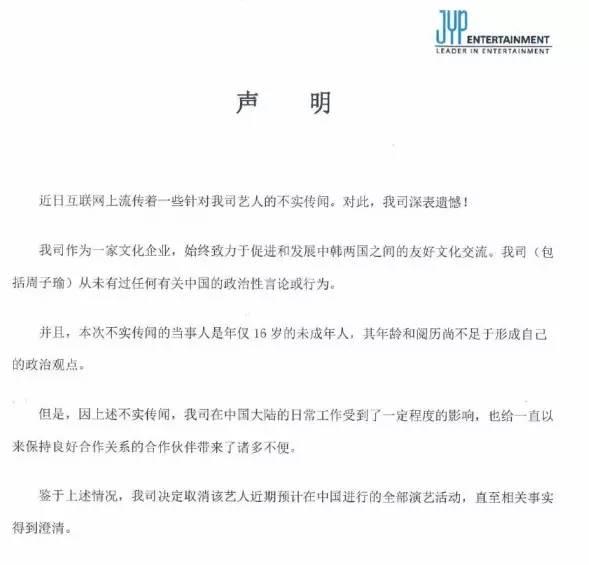
JYP Entertainment
Recently there have been some inaccurate
rumors about our artists. Our company found this deeply regrettable!
As a cultural corporation, we are active in
promoting cultural exchanges between China and South Korea. Our company
(including Chou Tzuyu) have never said anything or done anything political
on China.
Besides, the subject of this inaccurate
rumor is a 16-year-old minor, whose age and experience is insufficient to
form any political viewpoints.
But our company's operations in China have
definitely been affected by these inaccurate rumors, and it has also caused
many inconveniences to our many collaborators with whom we always had good
relationships.
Based upon these considerations, we have
decided to cancel all performances by our artists in the near future until
the relevant matters are clarified.
(22) Mainland Internet users left 300,000
comments to express their dissatisfaction about the lack of sincerity in the
JYP statement and pushed on with the boycott.
(23) JYP stock prices tumbled, resulting in a
loss of 40 million RMB in equity value
(24) All JYP activities were cancelled by
advertisers and media outlets in China
(25) JYP issued the second press release with
a more conciliatory tone, saying that Chou Tzuyu supports "One China" and is
definitely not an advocate of Taiwan independence.
(26) Mainland Internet users discover that JYP
was double-faced! On Chinese Weibo, they apologized. On Korean Internet,
they said that said that this was a transient situation and they did not
repeat their Weibo statement on their Facebook.
(27) JYP continued to be boycotted.
(28) Chou Tzuyu made a video appeal while
wearing makeup.
(29) Mainland negative public opinion soared
to the high heavens, mainly against the pro-independence Taiwan media (SETTV,
Liberty Times and Apple Daily) and JYP, and not necessarily against Chou
Tzuyu herself.
(30) Chou Tzuyu came out with a video apology
looking shaken and scared without wearing any makeup.
(31) Huang An wrote on Weibo: "Chou Tzuyu has
finally come out to apologize! She said in her own words that there is only
one China, that the two shores of the strait are one body and that she has
always been proud to be a Chinese person! The day that we have been waiting
for has finally arrived! We have won back a good girl who accepts the
motherland. The people of the motherland has won a huge success on the road
against Taiwan independence. Forward this!"
(32) Huang An's songs are removed from certain
Karaoke lists in Taiwan.
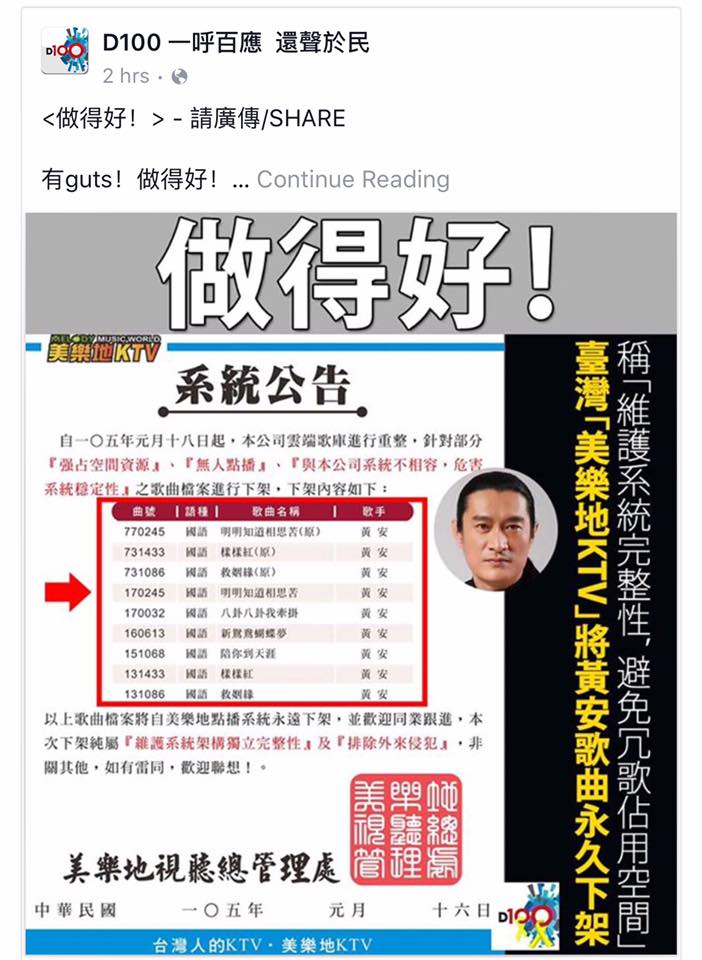
- (YouTube)
Comparison of Chou Tzuyu's apology to the executed Japanese victim of ISIS.
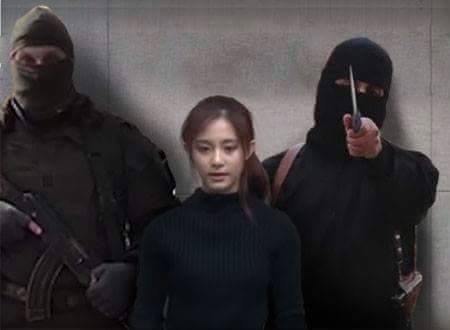
- (YouTube)
The usual captioned video of Hitler blowing his top upon learning the news
that Chou Tzuyu has capitulated with a video apology.
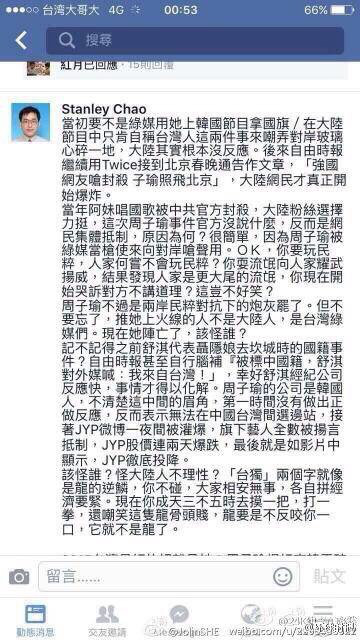
Stanley Chao Facebook
Mainland actually had no response to Tzuyu holding an ROC flag on Korean TV
or saying that she is from Taiwan in a mainland Chinese TV program, but the
green media used to heap scorn about the broken hearts with shards all over
the floor. Later on Liberty Times used the fact that TWICE was going to
appear on the Beijing TV Spring Gala with the title: "Strong Nation Internet
users call for boycott, Tzuyu flies to Beijing as schedule." That was when
the mainland Internet users exploded.
When Ah-Mei sang the ROC anthem and was banned by the Chinese Communists,
the mainland fans chose to support her. In the Tzuyu affair, the mainland
authorities did not utter a word. It was the mainland fans who started the
boycott. Why? Very simple. It was because Chou Tzuyu was used by the green
media to fire shots across the straits. Okay, you play populism but so can
they. You play hooligan to look haughty, but they turned out to be an even
bigger and tougher hooligan. So now you are crying that they are being
unreasonable. Isn't this risible?
Chou Tzuyu is merely the cannon fodder in
the war between populism on both sides of the straits. Liberty Times even
added: "'Labeled being of Chinese nationality': Shu Qi told foreign media: I
am from Taiwan." Fortunately, Shu Qi's agency reacted quickly to defuse the
situation. Chou Tzuyu's company is Korean and don't appreciate the
subtleties here. They did not make an immediate response. Instead they said
that they couldn't decide whether to choose China or Taiwan. Overnight the
JYP weibo was flooded with negative comments and all JYP artists were
boycotted/canceled. The JYP stock prices tumbled two days in a row. Finally,
as the video shows, JYP surrendered unconditionally.
Who do you blame? Do you blame the
mainlanders for being irrational? Taiwan independence is untouchable. If you
don't go there, we can all get along and make our own money. But you keep
going there time and again and then you heap scorn on the mainlanders. Why
wouldn't they bite back?
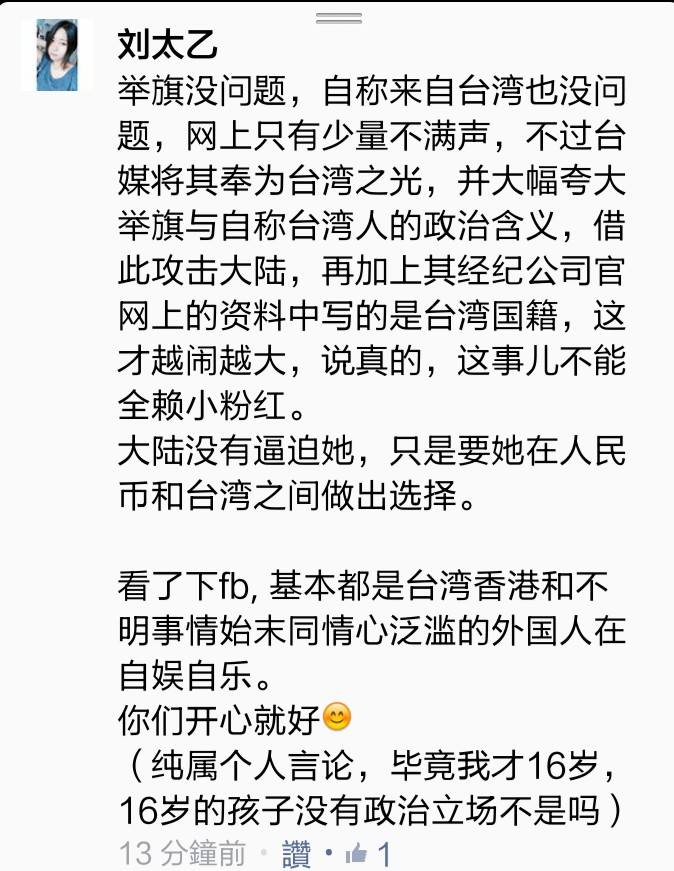
Liu Taiyue
There is no problem with raising a flag or saying that you are from Taiwan.
Very few people opposed that. But the Taiwan media raised you up to be
the Bright Light of Taiwan and exaggerated the significance of your actions.
Your agency JYP also listed your nationality as Taiwanese at their official
website. So this got bigger and bigger. Frankly, you are not to be blamed.
Mainland China did not force you to do anything. All they want is for you to
choose between the RMB and Taiwan.
I checked through Facebook. Basically this
is just a bunch of Hongkongers, Taiwanese plus some foreigners who don't
know the facts but who are filled with sympathy entertaining themselves.
(The above are my personal thoughts. After
all, I am only sixteen years old. And sixteen-year-olds don't have political
positions, right?)
- SETN
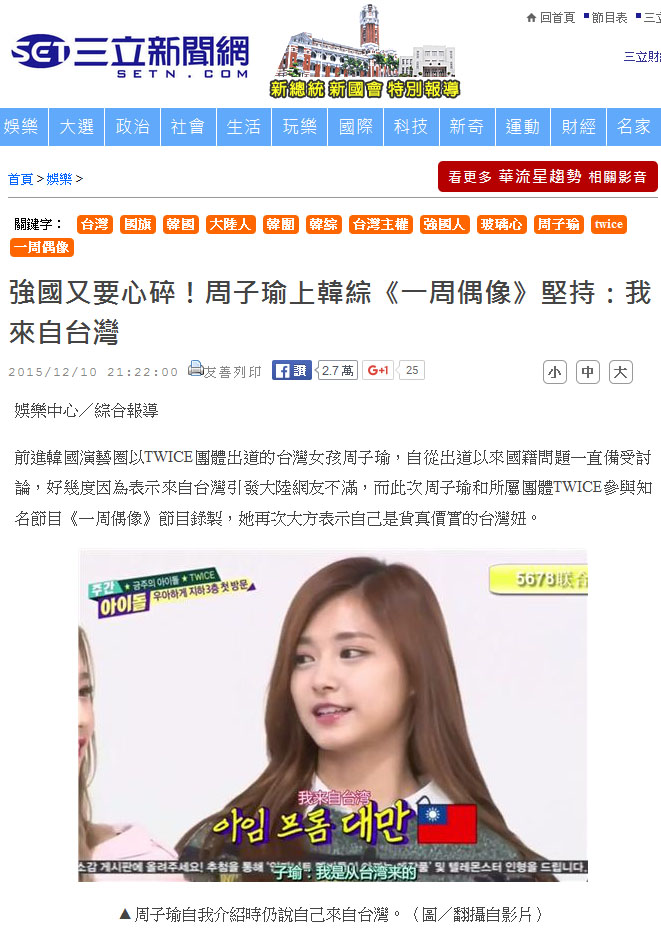
This December 10 2015 SETN report says:
"Taiwanese girl Chou Tzuyu who entered the Korean entertainment industry as
a member of the TWICE group has been the subject of discussion over her
nationality. Previously, she has drawn the discontent of mainland Internet
users by saying that she is from Taiwan. This time, Chou Tzuyu and her TWICE
teammates were on the renowned program <Weekly Idol> and she once against
said that she is a genuine Taiwanese girl." Subtitle on screen capture: "I
am from Taiwan" with the Republic of China.
Now there is nothing wrong with saying "I am
from Taiwan" because it is the same as saying "I am from Shanghai" or "I am
from Zhejiang." What is problematic is the story title: "Strong Nation
heartbroken once again! Chou Tzuyu insists on Korean variety show <Weekly
Idol>: I am from Taiwan." Chou Tzuyu didn't do anything to provoke 'Strong
Nation' people; SETN did it for her, and neither JYP nor Chou Tzuyu
clarified. It was a series of such incidents that led to the huge storm.
- JYP is so sneaky. Before this, they had Chou
Tzuyu's nationality as "Taiwan" on their official website. After the affair
blew up, they sneakily changed the information to Chou Tzuyu's place of
birth as "Taiwan (China)" in simplified Chinese characters.
- Anonymous Tw: With respect to the JYP official website forcibly
changing Taiwanese artist Chou Tzuyu's nationality to Taiwan (China), we
solemnly inform the Korean government that it must be changed back to
Taiwan. Paralyzing your web page will be just beginning of the shout of the
people of Taiwan. If you ignore this notice, you are asking to be destroyed.
Taiwan will make you see the force of a total boycott.
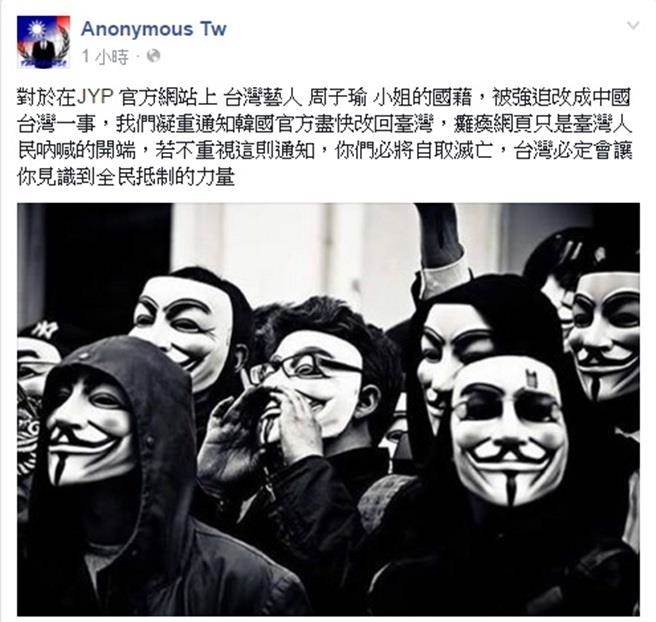
On the afternoon of January 16, the JYP Entertainment website began to be
unreachable.
- As a Chinese person, I accept the video
apology. It does not matter whether you really mean it or you have to do
this for the money, you have at least apologized. Every person should
receive a second chance. I hope that you can have a second chance not to
work on your popularity or earn tons of money, but a second chance to
genuinely recognize your error. You were exploited by the pro-Taiwan
independence elements who pushed a 16-year-old into the eye of the storm.
They want to use your fame to deepen the hatred between the people on the
two shores. Your political choice does not bother me, but you should see
just who is using you for their political purposes.
- A 16-year-old is not expected to have much
political acumen. But the production company and management company should
know better about what can or cannot be done in the Chinese market.
- The population of China is 1.4 billion. If you upset so much as 0.1% of
the people in China, your Weibo will be buried in an avalanche of 1,400,000
negative comments.
- What happens next? JYP's best option is to
put Chou Tzuyu out to pasture for good and look for other putonghua-speaking
girl(s), preferably from mainland China.
- (Passion
Times) Taiwan website JUKSY has just issued a statement from their
board of directors to the effect that they are offering NT$100 million to
JYK to buy the contract of Chou Tzuyu so that she can reboot her career with
them in Taiwan. Nice publicity stunt! There is no way that the deal with go
through because nobody is worth that much in the Taiwan market.
- The deal can still go through, but JUKSY will pay a significantly smaller
amount while still telling the world that this is for NT$100 million.
- Well, JYP is a publicly traded company so
they will have to book the revenue somehow. How can they explain the missing
NT$99.9 million?
- Great for Chou Tzuyu! But the Japanese and Korean members of TWICE are
screwed, thanks to SETTV/Liberty Times/Apple Daily.
- Indeed, JYP is saying that they are totally unaware of such an offer. As
expected, it was vaporware.
- The Chinese market belongs to the Chinese
people. If the Chinese people won't let you come here and take their money,
so what? If you don't like it, you can earn your money in the Korean and/or
Taiwan markets. You were not forced to come to China.
- China is a big market that is important to
companies and artists. For example, GOT7's Jackson always says that he is a
Chinese person and therefore many mainlanders like him. Even if you don't
consider yourself a Chinese person, you should consider your career. If you
offend the Chinese people, the Chinese market will be closed to you.

- Frame #1: Jackson said "I am a Chinese person." Frame #2: "Tzuhu: From
Taiwan (China)" and "Jackson: This one is from Taiwan. Taiwan (China)."
- It is not up to the artists or their
companies. There is an election going on. (YouTube)
Taiwan presidential candidate Tsai Ing-wen said: "I think that the citizens
of the Republic of China or a citizen of Taiwan holding a national flag
expressing their feelings and support to those countries ... these are the
rights that the citizens should have. She should not be suppressed. This is
a very natural thing that we should all do."
- CTI (YouTube)
has the news coverage of all the three major Taiwan presidential candidates
coming out to support Chou Tzuyu.
- Every time that Huang An makes a denunciation, Tsai Ing-wen wins another
several hundred thousand more votes.
- Tsai Ing-wen's nickname is literally "Spinach." The actually meaning is
harder to translate. The Chinese term is 空心菜, which is literally the
"empty-hearted vegetable (=Tsai)." This is intended to suggest that she is
the one who gives plenty of talk but none of her ideas have any substance.
- It is very important for Chou Tzuyu to get screwed because it will
guarantee that Tsai Ing-wen be elected because she will then pardon Chen
Shui-bian. That is the most important thing right now. If Chou Tzuyu has to
be crushed in the process, so be it.
- Chou Tzuyu's mother has reportedly come out
to condemn JYP for making her daughter to accept the One China policy. So
all of JYP's conniving has gone for nought.
- Apple Daily (Taiwan)
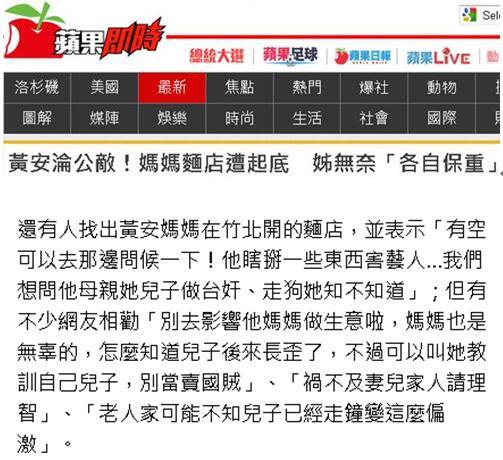
Huang An is public enemy! His mother's noodle shop has been detected. His
sister said they have to cope themselves.
Someone has found Huang An's mother's noodle shop in North Hsinchu and said
that "we should visit the place in our spare time! He made up shit to hurt
entertainers ... we will ask his mother whether knows her son does as a
Taiwan traitor and running dog." Many Internet users said: "Don't hurt his
mother's business. His mother is innocent. She doesn't know how her son has
gone wrong. But you can tell her to instruct her son not to become a
traitor." "Please be reasonable because this shouldn't affect the wife and
children." "The old woman may not be aware that her son has gone to such
extremes."
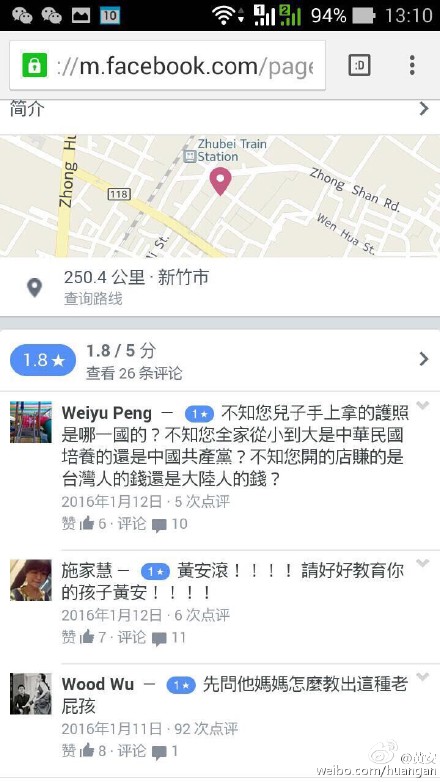
Map direction to the noodle shop of Huang An's mother and messages to her
- (Ming
Pao) The proverbial "informed source" unloaded alleged personal
information of Huang An: In 2001 he obtained a mainland Chinese ID card and
thus gave up his Taiwan residency. His home is in Taiping Town, Qingxin
country, Guangdong province. His marital status is divorced. When Taiwan
media reached his wife, she declined to discuss the state of their marriage
and added: "Anyway, you will say whatever you want to say. This is what
Taiwan media do all the time. While we still have some news value left, you
can write whatever your want to write! Your position no longer has the
fairness expected of the media. I don't want to make any comments."
- (Post852)
Huang An's wife: "We are Taiwan citizens too. Why can't we have the right to
choose our political positions?" "How many Taiwanese are working hard on
mainland China? Do see how hard they work? Meanwhile you are just sitting in
your homes watching television and cursing people out. And you think that
this is democracy." "I'm very low-keyed, but I am still going to recommend
all young people to talk about democracy after you've established a family,
pay your taxes, read 5,000 books and travel to at least 10 countries first.
Isn't that more rational and proper?"
- I'm having mixed emotions with all this! My
heart aches so much for Tzuyu! But please stop blaming JYP! They did what
they had to, in order to protect her, all JYP artists and the Company, and
the people who are hurt from all this. Look at all the ongoing death threats
to Tzuyu, flooded with repeated hateful words for days and days now! It
badly affected Tzuyu, Twice, it affected JYPE and ALL of their artists. She
is still a minor, they did what they had to. Before she apologized, the
comments were flooded with hate. Now that she and the Company have
apologized, can we stop hating JYP and continue to show our support to Tzuyu,
TWICE and JYP Nation?
- What are some Hongkongers reacting so
strongly about this case of someone being oppressed for waving a national
flag? And then all this talk about freedom to raise your national flag? If
Deric Wan or G.E.M. Tang waves a Chinese national flag, the same Hongkongers
will throw a fit and demand that they be quartered!
- Someday when Chou Tzuyu retires, she can
come out and say "Taiwan is not China" and "I am not Chinese." We the people
of Taiwan know the truth about what is in her heart and we will always
support her.
- Everybody sympathizes with Chou Tzuyu
because she looked so frail and vulnerable on the video apology. Mainland
Internet users are skeptical: "You are just kneeling in front of the pile of
money." "You were reading off a written script. Can you be a bit more
spontaneous? You were utterly insincere!"
- (Storm)
The Mainland Affairs Council expressed its regrets over the whole affair.
The Mainland Affairs Council has communicated to the Taiwan Affairs Office
that this incident has seriously hurt the feelings of the people of Taiwan
and they want the Chinese to restrain civil actions so as not to affect
bilateral relations.
- What does the Mainland Affairs Council want? Why do they mean by
restraining civil actions? Do they want the Chinese Communist government to
censor the Chinese Internet to eliminate all criticisms of artists from
Taiwan? Do they want the Public Security Bureau to arrest all citizens who
mention Chou Tzuyu and send them to 15 days of administrative detention
(note: there isn't enough space at the detention centres to hold all the
detainees)?
- It took two to tango. The Taiwan Affairs Office could make an identical
statement about wanting Taiwan to restrain civil actions (plus media
reporting) so as not to affect bilateral relations.
- As one of the top three transnational
entertainment companies in South Korea, JYP must surely be cognizant what
the principles and bottomlines are in various countries. In China, "Taiwan
is part of China and not a separate country" is an inviolable principle.
- A simple public relations action would be for Chou Tzuyu to come out in
the very beginning to say that "I'm only 16 years old. I don't understand
politics. Please don't bother me with political questions." That would be
the end of it.
- Given that mainland opinion is unified,
opponents began to cite Japanese/Korean support for Chou Tzuyu. But that's a
joke, because if a Korean performer refers to Korea's Dokdo Island as
Japan's Takeshima Island, the Koreans will also flip out. Even the South
Korean government says that it recognizes only one China and that Taiwan is
a part of that China. So what was JYP thinking? Chou Tzuyu is a mere
16-year-old and doesn't know much. But how can a huge Korean entertainment
company claim to be as ignorant as primary school students?
- Tsk tsk tsk. Here is what happen to JYP
stock prices. Do you see cause-and-effect?
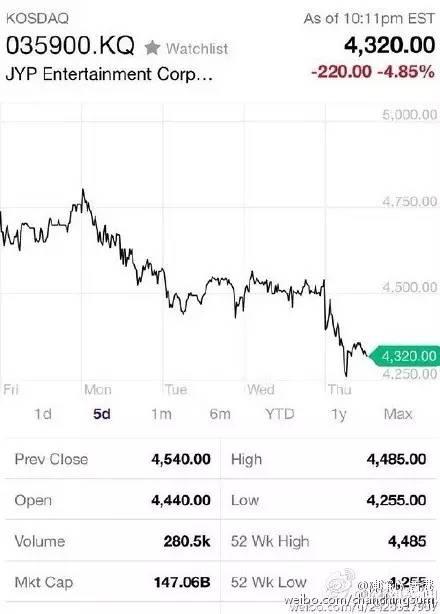
- (Apple
Daily) January 18, 2016. Korean Multicultural Center said that it
was racial discrimination, child abuse and human right violation to force
Chou Tzuyu to apologize for waving a national flag, and therefore they
intend to ask the Korean National Human Rights Committee to investigate. If
found to be true, the police will sue JYP Entertainment Corporation and its
owner J.Y. Park.
Meanwhile a Taiwan human rights lawyer named
Wang intends to sue Huang An and JYP for coercion. He said: "I read in the
newspapers that a man named Huang An used illegal means and without
justifiable cause to coerce Ms. Chou Tzuyu so as to cause Ms. Chou Tzuyu to
be very afraid. Huang An coerced her free will and made her say what she
shouldn't say. Therefore I am going to file charges of coercion."
- (Apple
Daily) JYP responded: "Because Chou Tzuyu was still a minor, the
apology video was made after consultation with her parents after they
arrived in South Korea. The company did not force her to make that video."
- Irrespective of how Chou Tzuyu apologizes,
the pro-Taiwan independence media will continue to insist that she is
pro-independence. They need a martyr, not someone who cowers to the Chicoms.
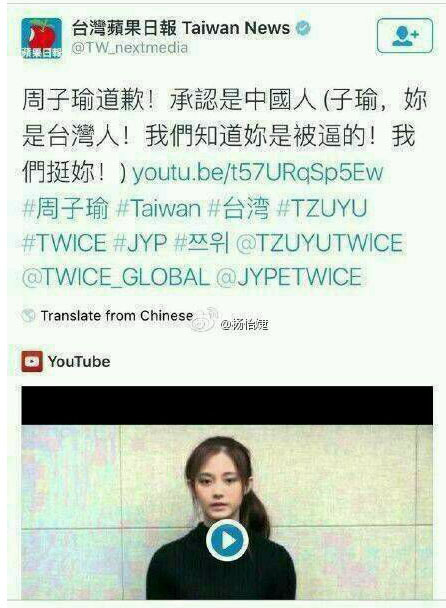
Apple Daily: Chou Tzuyu apologizes! She admits that she is Chinese (Tzuyu,
you are Taiwanese! We know that you were forced! We support you!)
- (ET
Today) January 16, 2016.
On the Chou Tzuyu affair, I cannot be
completely on the side of Taiwan. Although Huang An's ideas are twisted, the
Taiwan media were awful with their "collective rumor mongering."
Over the years, Taiwan has plenty of false
rumors about mainland China. We have freedom of press as well as the freedom
of rumor mongering. When did things start going wrong? The first time I
encountered is when the Russian rescue team was prevented by the Chinese
Communists from coming to relieve the September 21 1999 earthquake in
central Taiwan. At the time, young people tried to find the original news
report. When they couldn't find it, they declared that the Chinese
Communists must have eliminated the news report. In the end, the only news
report was a Russian report that the couldn't come because of problems
within the Taiwan government.
Thereafter, I cultivated the habit of checking
any mainland news story coming from Taiwan to what was actually happening
over there. If I can find it there, then it must be yet another false rumor.
Huang An denounced Chou Tzuyu "completely and
totally not because of waving a national flag." The first time round, Huang
An objected to Chou's Two Country talk. When a fan explained to Huang An
about the television program sub-titling, Huang An stopped. Huang An
explained his action in his astonishing logic: "The pro-independence SETTV
kept praising Chou Tzuyu. Given the amount of their efforts, SETTV must in
cahoots with Chou Tzuyu w ho must be a pro-independence artist. You can't
disguise that even if you are waving the Republic of China flag."
That was the simple reason. At this time, all
the Taiwan media said "it was because Chou Tzuyu waved the flag of Republic
of China and so she must be supporting Taiwan independence." Therefore all
discussions in Taiwan are based upon this factually untrue report and all
other derivative creations that have nothing to with reality. Everybody is
acting out a farce.
How did this come about? It originated from
mis-reporting. The instigators were Liberty Times and Apple Daily. It is
interesting how all the other media followed suit and did not provide
accurate information.
These are the possibilities:
1. Our reporters just copy information from
each other, so there we all share a single news agency
2. Our media can't be brave enough to admit
this: "We kept publishing the glass-hearts series of news stories in order
to provoke mainland China, so that the people on both sides of the straits
can be antagonized with each other. This was how Chou Tzuyu became
victimized."
[Sample headlines:
SETN
Natural beauty Tzuyu waves Taiwan national flag, Internet users: Strong
Nation glass hearts shattered once more;
Liberty Times Tzuyu holds Taiwan national flag, Internet users:
Can hear the sound of the glass hearts of Strong Nation people breaking]
3. The media have the common understanding
that their mission is to incite hatred and thus bring the Republic of China
national flag to ruins.
With the persistent provocations from SETTV
and other media, the mainlanders' glass hearts were indeed broken. The
mainlanders directed the anger provoked by the pro-independence media to the
hyped young artist. There are hundreds of millions of Internet users on the
mainland. If they want to burn the witch, nobody can stop them. If the
Internet users wanted someone banned, they will get their way. Meanwhile,
the Taiwan media don't have any accountability. They didn't offer any help
to Chou Tzuyu; they only sent her to the stake to be burned.
The Taiwan media are capable of completely
fabricating a controversy over Shu Qi's nationality too.
(Apple
Daily) Chronology of the Shu Qi nationality affair
May 20. Cannes Film Festival published a
schedule of photo sessions for movie stars the next day. Shu Qi's
nationality was incorrectly listed as China. Shu Qi's team informed the
organizers of the mistake.
May 21 19:18. At press conference and before
the photo session, the organizers used pen to change Shu Qi's nationality to
Taiwan on the program. At the time, the movie stars have not entered yet.
Apple Daily reported.
May 21 20:29. China Times reported the same
story as Apple Daily, but with the story heading of "Shu Qi changed to
Taiwan nationality by hand."
May 22 12:06. United Daily News reported the
same story and added certain non-existent details such as Shu Qi telling the
international reporters and photojournalists that her nationality is Taiwan.
According to information, the UDN reporter wasn't even at Cannes. The UDN
story carried the title "Shu Qi thusts her beautiful chest to walk the red
carpet at Cannes, fighting to say I am from Taiwan."
May 22 13:01. Liberty Times used UDN's report
to blow up the nationality issue. Their story title was: "Labeled Chinese
nationality, Shu Qi tell foreign media: I am from Taiwan!" This caused
Internet users on both shores of the straits to engage in a verbal war. Shu
Qi is criticized by mainland Internet users.
May 22 16:19. An Internet user posted a
15-minute video of the photo session in Cannes. Shu Qi did not say a word
about the nationality issue.
May 22 22:05. Shu Qi's team issued a series of
statements to say that Liberty Times published an inaccurate report. On
Weibo/Instagram, Shu Qi emphasized: "I just want to let everybody see the
best work. I don't want anything else."
Given these incidents, Taiwan artists should
have a Standard Operating Procedure: If your main market is mainland China
and not Taiwan, you must be prepared to immediately dissociate yourself from
Taiwan media. You must not be stupid enough to let them get you burned at
the stake.
Finally, can the Taiwan media go back to a
fact-based reality? Must they deceive themselves and the public with false
rumors? In the Chou Tzuyu incident, the problem was the series of news
reports that were designed to provoke the mainland Chinese. That is the true
origin of the incident. Now we have to face the reality: On one side of the
Taiwan straits, there is Huang An playing up to populism. On the other side,
there are the pro-independence media such as SETTV and Liberty Times playing
up to populism. That is the reality. Such one side attacks the other or vice
versa, how can there be no retaliation? How can things only be one-sided?
- (Oriental
Daily) January 17, 2016.
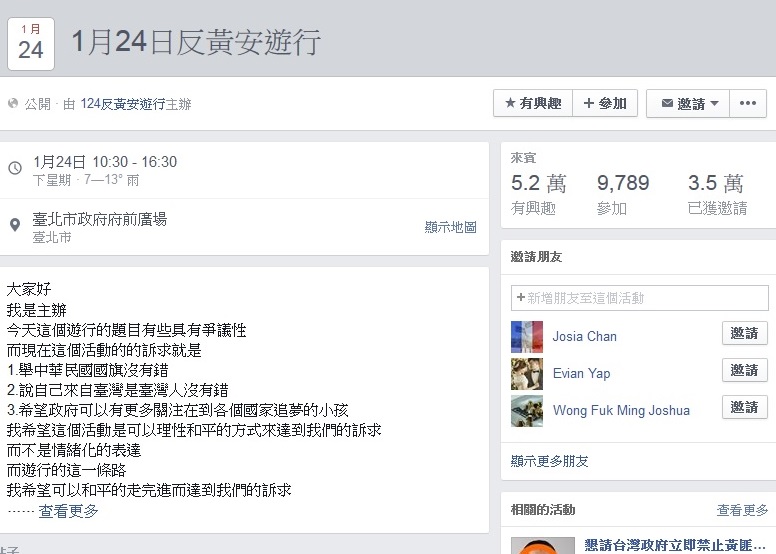
January 24 Anti-Huang An Demonstration
March
Time: January 24 10:30-16:30
Location: Taipei City Government Office plaza
9,789 have indicated that they intend to participate
52,000 have indicated that they are interested
The demands of this event are
(1) It is not wrong to raise the Republic of China national flag
(2) It is not wrong to say that you are from Taiwan or that you are
Taiwanese
(3) We hope the government will pay more attention to the small children who
have gone to foreign countries to pursue their dreams
I hope that this event can use a rational and peaceful way of achieving our
demands
as opposed to an emotional expression
and a demonstration march is hopefully a peaceful way that can achieve our
demands
- (China
Times) January 18, 2016.
On January 14, Show Lo attended a movie
premiere in Beijing and was asked what he thinks of collaborating with
mainland movie stars. He said: "Don't classify so finely, because we are all
Chinese." Immediately many Taiwan Internet users were angry at him. One fan
said Show Lo is liked because he is a Taiwan aborigine, but is now chilled
because Lo is calling himself as Chinese. Lo's Facebook was flooded with
negative comments.
Video:
https://www.youtube.com/watch?v=9vXL3raBByY
- (Apple
Daily) January 18, 2016. Show Lo's company issued a statement
Certain persons with
ulterior motives are deliberately stirring up what Show Lo said at the
Beijing event. Our agency company issues this statement.
Show Lo is is a native born, homegrown
Taiwanese person and also a Chinese person who was brought up with a Chinese
education. Who among his peers and elders are not? The cross-straits
relationship issue is something that even political figures can't resolve,
so please do ask those artists who only want to perform well. If even they
can provide the answer, then the cross-straits problems should be trivial.
Right? In the end, Lo only wants to perform. Please keep performing to
performing, and politics to politics! Thanks, everybody.
Our company reserves the right to sue anyone
who deliberately distorts or cites inaccurate information.
- So far, no mainland newspaper has said that the
glass hearts of the people of Taiwan are shattered with the shards scattered all
over the floor.
- (Winandmac)
Since midnight, the number of Facebook friends of Show Lo has dropped by
more than 10,000 to 2,388,000 and the trend is continuing. But Show Lo may
not mind, because his Weibo has more than 50,000 new followers.
- Show Lo has 41,730,000 Weibo followers. In 2015, Taiwan's total population
is 23,460,000.
- (HKG
Pao) As Show Lo's Facebook followers declined, his Weibo followers
increased. Since the mainland is the much larger market, he is seeing a net
gain. This is the dilemma facing Taiwan and Hong Kong: the talents and the
resources are flowing towards the bigger consumer market. Locking down
Taiwan/Hong Kong is suicidal because if talented and resourceful people are
forced to pick sides, they will pick the larger market. On those who cannot
compete up north will stay. In the end,
Taiwan/Hong Kong will be hollowed out.
- China wins!
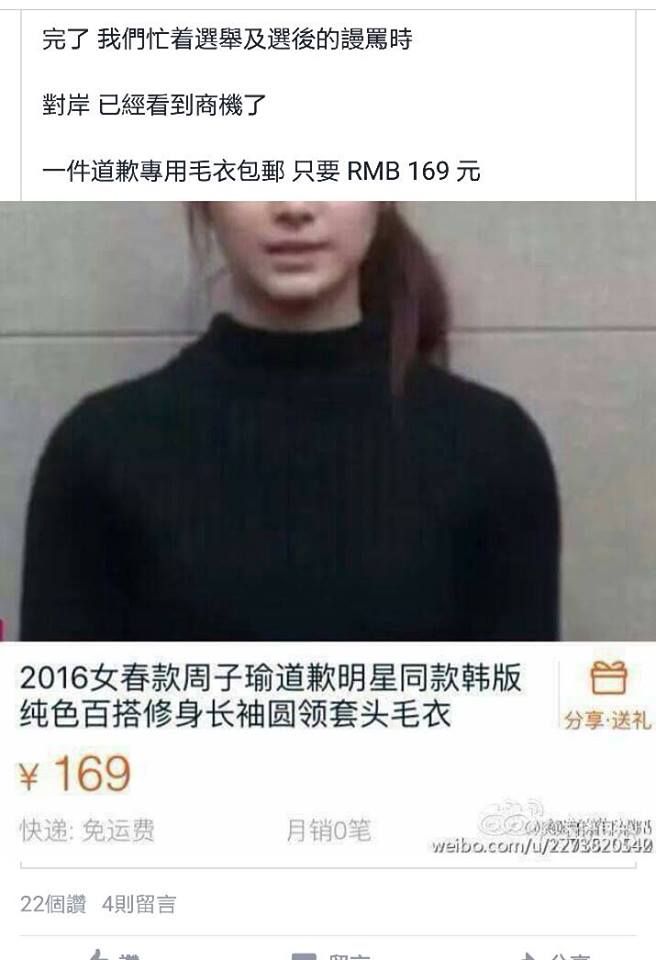
While Taiwan is busy with the elections and the post-election bickering
China has already seen the business opportunity
A Korean sweater for special use with apologies at only 169 RMB (postage included)
Relevant Link:
Entertaining in China
Previous cases of Huang An/Anna Chan denouncing anti-China/Chinese artists
(SCMP)
January 12, 2016.
The parent company of
Chinese-language newspaper Ming Pao Daily is selling a
stake in a subsidiary media company that runs politically
sensitive social media content.
Media Chinese, which is owned by Malaysian
businessman Tiong Hiew-King, said in a statement on Monday night
that it was selling an unspecified interest in One Media � which
runs several Chinese-language magazines including Ming Pao
Weekly and car magazine Top Gear.
Media Chinese did
not reveal any information about a potential buyer or say how many
shares it was selling in One Media, but it owns 62.83 per cent of
the company. This comes after mainland e-commerce giant Alibaba
recently dismissed speculation that it was in talks to buy
Ming Pao.
In 2012, One Media bought 10 per
cent of media company Black Paper for HK$1 million. The company
was co-founded by a lyricist with two former Commercial Radio DJs
in 2009, a year before they rolled out the periodical Black
Paper, which was printed on a single sheet of A5 paper.
The magazine gained a reputation
for its satirical, outspoken content during the national education
controversy in 2012. The company, Black Paper, has also published
the popular Chinese-language satirical weekly magazine 100
Most since 2013.
In 2015, it founded the satirical
media website, TV Most, which gained popularity with its
political and social parodies.
TV Most was one of the
most popular multimedia platforms on social media, making fun of
Hong Kong and mainland politics as well as Hong Kong government
officials.
Yesterday, One Media�s shares
jumped 27 per cent, or 26 cents to HK$1.22 before it suspended
trading, pending a statement on the deal. The news came as TV Most
staged its show titled �1st-Guy-Ten-Big-Ging-Cook-Gum-Cook-Awards-Distribution�
at Queen Elizabeth Stadium in Wan Chai last night, and it went
viral online. The show was also broadcast live on a TV channel.
(SCMP)
January 12, 2016.
An awards show celebrating cover songs that
make fun of social and political injustice in Hong Kong has become the talk
of the town, with one academic even arguing that such satirical content
could contribute to strengthening Hong Kong�s cultural identity.
Discussion posts, photos and video clips of
the sold-out TV Most 1st Guy Ten Big Ging Cook Gum Cook Awards Distribution,
which took place at Queen Elizabeth Stadium, went viral on social media as
well as receiving coverage in traditional Chinese-language media.
The show was aired live on pay TV station
Now TV with a rare sponsorship from Shell. Citizens also gathered at various
public spots such as Central and Shatin to watch the live cast.
The show was put together by
multimedia website TV Most, which produces satirical video clips and cover
versions of Canto-pop tunes poking fun at Hong Kong current affairs, from
politics to media landscape and the education system, and other topics popular
among young Hongkongers. It is founded by youth magazine 100 Most.
At the event, awards were �distributed� in
front of a hysterical crowd, not to A-list celebrities, but to underdogs who
are seen as outcasts from the mainstream, including best male singer Gregory
Rivers, an Australian actor-singer who has been living in Hong Kong for 30
years, and grand award winner Denise Ho Wan-see, the politically vocal
singer who was forced to go independent after playing a prominent role in
2014�s Occupy protests.
�I haven�t watched TV in a very long time.
It was my first time watching a whole show cheering all the way. Support
Hong Kong. Support Cantonese. Support derivative creative works,� wrote web
user Suz Tsoi.
Another web user HC Yip wrote that the fact
that the availability of rich materials for derivative creations came from
people�s discontent about the society was sad. �And now we can only have a
good laugh from watching this show,� he wrote.
Anthony Fung, director of the School of
Journalism and Communication at the Chinese University, said Hongkongers
have been struggling with establishing a cultural identity after the 1997
handover, and the kind of content generated by TV Most further strengthened
Hong Kong�s cultural identity. He said TV Most�s programme format makes fun
of dominant broadcaster TVB, which is no longer a TV station that belongs
the young generation.
He added that TV Most featured satirical
content that voiced young people�s frustrations and discontent about a
government that does not act on Hong Kong people�s best interests. �It is
another way of protest from the young generation,� Fung said. �While
political activists take to the streets, these young people express their
discontent against the status quo.�
He said there is a worldwide phenomenon of
the younger generation in big cities around the world rising against
globalisation and capitalism, and Hong Kong is one example. �There is a
nostalgic feelings towards an old Hong Kong that wasn�t controlled by
property hegemony. A relatively fairer system, upward mobility and hope for
the future were there, and the rule of law was upheld,� said Fung.
However, Fung said TV Most cannot continue
with poking fun at TVB forever, though derivative creative works � which are
now in the spotlight amid debate over the controversial copyright bill �
will continue to blossom amid the current socio-political climate. �Other
new platforms will emerge to showcase young people�s creations, which will
become the taste of this generation,� he said.
(Hong
Kong Free Press) January 13, 2016.
Monday night was filled with
mourners paying respects to David Bowie, but if you logged onto Hong Kong
social media, you might not have known the singer had died. What had
Hongkongers� attention instead? An alternative awards show for satirical
songs called TV Most First Guy Ten Big Ging Cook Gum Cook Awards
Distribution (毛記電視第一屆十大勁曲金曲分獎典禮).
When TV Most first put tickets for the
awards show on sale last month, they sold out within minutes. Hundreds of
thousands of Hong Kong people tuned in for the live Now TV broadcast from
Queen Elizabeth Stadium. Discussion of the show swamped local social media
feeds for hours.
TV Most is not a broadcast station, but a
new website and social media platform established by youth magazine 100
Most. Its Chinese name, Mou Gei (毛記), is a play on the city�s biggest
station TVB � Mou Sin (無綫) in Chinese. �Mou gei� means �Mou�s shop� in
Cantonese slang. TV Most even used TVB�s colour scheme in its own logo.
TV Most is well-known for creating
satirical fictional characters based on real people, many of whom are TVB
news anchors and celebrities. For instance, one of the TV Most news anchors
is Tung Fong-shing (東方昇), whose obvious inspiration is TVB anchor Fong
Tung-shing (方東昇). Most of the programmes are tongue-in-cheek, with satirical
news segments airing Monday to Friday. Serious news is covered as well �
every Wednesday a short documentary segment tackles sociopolitical issues
and current events in Hong Kong with an uncharacteristic but welcome
straight face.
Ging Cook Gum Cook (勁曲金曲) is
a satirical take on TVB�s music programme Jade Solid Gold (勁歌金曲 � pronounced
Ging Go Gam Kuk in Cantonese).
It is a weekly billboard programme that
began in June last year, parodying real songs whilst poking fun at � and
raising concerns about � social issues.
A song that has been on the billboard since
the show started is Forever ATV, a play on famous singer Jacky Cheung
Hok-yau�s Forever Love. The title is a light-hearted but obvious jab
at ATV�s tendency to rebroadcast decades-old programmes rather than making
new ones. The fact that ATV delayed paying staff wages several times is also
subject to gentle mockery.
The programme does not limit its satirical
subject matter to only TV stations, however. They transformed Eason Chan
Yik-shun�s Shall We Talk into a song about the controversial
copyright bill, called Shall We Talk About The Internet.
There are four major music award ceremonies
in Hong Kong every year, hosted by TVB, RTHK, Commercial Radio and Metro
Radio. People have become increasingly cynical towards these shows, however,
criticising them as being staged and clearly biased. The shows have been
criticised for only handing out awards to singers signed to record companies
friendly to the stations.
In 2009, TVB failed to reach an agreement
with four international record companies over a royalties dispute. That
year, singers who had contracts with those companies � Universal, Warner,
EMI and Sony � did not receive any awards at the ceremony.
The TV Most Awards, meanwhile, is not
beholden to the music industry � in fact, it makes fun of the music industry
establishment. Many of the awards went to artists who are not celebrities;
instead the prizes honoured songs that were humorous or reflective of
current affairs. One of the awards even went to a children�s choir group who
sang about the pressures of the controversial Territory-wide System
Assessment tests for primary school students.
The Best Female Singer award went to Akina
Fong Kin-yee, a former TVB anchor who performed just one song, about the
marital issues of middle-aged women. �I have not joined the music industry
yet, but I have already received an award,� Fong joked at the ceremony. The
vicissitudes of middle age and primary school examinations are the serious
heart beating underneath the comedy.
The Best Male Singer award went to Gregory
Rivers, or more well known as Ho Kwok-wing, an Australian actor-singer who
has lived in Hong Kong for over 30 years. Though he first came to Hong Kong
to follow his pop idol Leslie Cheung Kwok-wing, he is not a singer � he is
best known for his acting career on TVB, usually in the role of a
Cantonese-speaking police officer. He sang Forever ATV as well as another
song about Hong Kong people�s shared memories and core values.
The Grand Award went to Denise Ho Wan-see,
often known as HOCC. Ho�s contract with her record company was not renewed
after her vocal support of the pro-democracy Occupy protests. She sang a
song about lawmaker Christopher �Tree Gun� Chung Shu-kun, a frequent target
of parody for netizens.
The TV Most awards come at a time when many
believe that Hong Kong television � once a fertile playground for local
humour and creative expression � is on the wane. ATV has been plagued by
questions about its independence ever since Chinese real estate businessman
Wang Zheng became an investor (and unofficial �major shareholder�) in 2010.
Two years later, the station received more than 40,000 complaints when
executive director Louie King-bun criticised students on air.
The government has decided not to renew
ATV�s terrestrial licence after April 2016. Popular telecom mogul Ricky Wong
Wai-kay�s Hong Kong Television Network was denied a free-to-air licence in
2013, a decision that was ruled two years later by the High Court to be
unlawful. When TV Most first began, they aired a segment with Akina Fong
that joked about applying for a licence of their own.
Though the awards may not be as serious as
the other such ceremonies, the massively popular event may be another form
of protest towards the musical establishment and more generally, towards the
whole political scene in Hong Kong.
Video:
https://www.youtube.com/watch?v=LZQEWb8oCyI TV Most Awards Show: The
never-ending supplement drills
5:40
I have already been working
until I am very worn out
If I have to work anymore, I will quit
I haven't slept all day
Actually I am not yet 10 years old
I got into such a situation because my mom is very bad
Life is too short, the red sun is too faraway
There are so many supplementary booklets that I am about to stop breathing
I don't care if there are too many fellow students in the world, not enough
small friends
I have studying so hard that I am about to explode, stop breathing and be
hospitalized
Obviously I have been trying to please my mom day and night
So why is the summer of my dream not here yet
Obviously I have tried my best without reservation, I work the supplements like
crazy
I don't play because I want to live better
You ask me what I want
Who knows?
Through this hot summer I continue to work
When will I get to leave
school?
It is always tiring to fight against mom
My monster daddy is even worse he wants to me to go directly from Form 1 to Form
3 without any break
I kept eating chicken essence to wake myself up
Even if my kidneys are busted, I still have to keep going
(Sky
Post) I don't understand, I am alienated, I am afraid. By Chris Wat
Wing-yin. January 15, 2016.
...
On the Internet there is a video
of a bunch of primary school students singing a song from the movie <Infernal
Affairs> with lyrics changed to the situation of the students having to do
supplement homework drills. This video is popular among parents who give it many
LIKE's. Many parents said that the lyrics reflect the harsh situation of their
children and the song makes them break out in tears.
When I heard that, I was crying in
my heart as well, because I am very much estranged from their society. I am not
able of giving a LIKE to this song that so many parents and teachers LIKE.
Furthermore, I don't understand why people can't see the problem with it.
...
The song's lyrics said that the
students have no fun and no time off, because they have to toil day and night on their homework. There
is nothing wrong with a song that reflects reality. But why is this song sung
publicly on stage by primary school students heaping unabashed scorn on their
own mothers and fathers?
Ignoring the vulgarity of the
lyrics, since when have people turned the hatred against the education system
into hatred of your parents? When a group of primary school students demean
their parents, don't you feel weird? The applause downstage was thundering. So
what kind of world is Hong Kong turning into?
I don't understand, I am
alienated, I am afraid.
(SCMP)
January 6, 2016.
Reading material banned on the mainland has
been pulled from the shelves of at least one Hong Kong bookstore as the
mystery over the disappearance of bookseller Lee Bo deepens.
English-language-focused Page One, which
has a total of eight outlets in the city � six of them at Hong Kong
International Airport � is understood to have begun withdrawing sensitive
material from sale in late November, around the time the first of five men
linked to Causeway Bay Books went missing.
The pulling of the books marks a small but
potentially significant moment for what has become the lucrative business of
selling sensational, page-turning books on China banned by Beijing.
When a South China Morning Post
reporter posing as a customer approached Page One�s Tsim Sha Tsui store and
asked for a book called The Secret Deals Between Xi Jinping and Bo Xilai,
the salesman said the retailer had stopped selling banned books more than a
month ago. �We were told to take all politically sensitive books off the
shelves in late November. The manager did not tell us the reason, but said
Page One would no longer sell banned books ever again.� Staff at the Kowloon
Tong store and one of the airport outlets told the Post the same.
Page One did not respond to requests for
comment by press time last night. Page One Publishing, which mainly sells
English-language titles, was set up in Singapore by Mark Tan in 1983. The
retailer expanded its business into the mainland in 2010 and has since
opened six shops in Beijing, Hangzhou and Chengdu. Banned books were often
among the top selling items in Page One�s Hong Kong outlets and were placed
in prominent areas at airport stores, from where mainland tourists would buy
and smuggle them to elsewhere in the country.
The publishing of sensational books on the
inner workings of the Communist Party and the private lives of government
officials has brought lucrative returns for a number of booksellers.
The publisher at the centre of the ongoing
mystery, Lee Bo, has reaped considerable profits from publishing anecdotal
accounts on Chinese leaders long before the five shareholders disappeared in
the past three months. �Lee�s first book was on the so-called new Shanghai
gang. In it he exposed the corrupt party boss Chen Liangyu, and it became
the first account on the subject and garnered a lot of interest,� said Jin
Zhong, a local publisher, who is set to leave Hong Kong next month to join
his family in the United States. That book, he added, generated a profit of
HK$1 million and became Lee�s first bucket of gold. It also set a trend of
publishing titles covering the most up-to-date developments in Chinese
politics.
�Unlike my books which could take months to
produce a volume, the new publishers can do it in just a few days and hit
the market on topics that are sensational and newsy,� he said. �To them,
money-making is the number one objective, that�s why they move fast and
capitalise on personalities or subjects that are new in the market.�
The lucrative nature of the business
reached new heights during the Bo Xilai case in 2012 when the ex-politburo
member and Chongqing party chief was engulfed in an alleged power struggle
on the eve of the 18th party congress. Bo�s subsequent downfall spurred
sales of books on Chinese politics to mainland tourists in Hong Kong. �Those
were the good days when we sold up to 300 copies a day, which got us out of
the red after our 13 years of running the bookstore,� said Paul Tang, the
owner of People Book Cafe in Causeway Bay.
The surge in demand captured the attention
of Gui Minhai, one of four partners in Lee�s book business who is said to be
in custody in Shenzhen. Gui came to Hong Kong from Europe seeking to profit
from the trade. �Gui openly said he made HK$10 million just in 2013 alone,�
Jin said. �With that money he bought houses and cars, and one of the
properties is in Pattaya, where he was arrested.�
Jin�s publishing business has yielded less
profit, but he too has over 40 banned titles, including the Chinese-language
edition of Jung Chang�s Mao: The Unknown Story, from which he made
HK$3 million, selling some 100,000 copies of the book over a period of 10
years.
Internet comments:
- With respect to what PageOne is
doing, it appears that they are removing the books on political gossip
but still leaving those about June 4th 1989 and Hong Kong independence.
What is the difference? The political gossip books are fiction presented
as facts, which is false advertising. June 4th was 26 years old and the
facts are pretty much settled one way or the other, and Hong Kong
independence is just a theoretical castle in the air.
- PageOne is vulnerable to complaints
to the Consumer Council for false advertising, because these fictional
books are advertised as "truth."
- There are other books on Hong Kong
newsstands that PageOne doesn't sell on principle.
(New
York Times) Hong Kong Bookstores display Beijing's Clout. October 19,
2015. The tiny book stall next to the popular
Star Ferry terminal in Hong Kong does a brisk business catering to the
thousands of visitors from mainland China who pass by every day. About half
of its books are political, including titles about the private lives,
back-room politics and fabulous fortunes of the Communist Party elite in
China. The other half are pornographic. Both types are banned in the
mainland. �Political books and pornography books both have market value,�
said the owner, Mak Kuen-tat, as he leafed through a tabloid about local
celebrity gossip.
Here is a pornographic magazine:
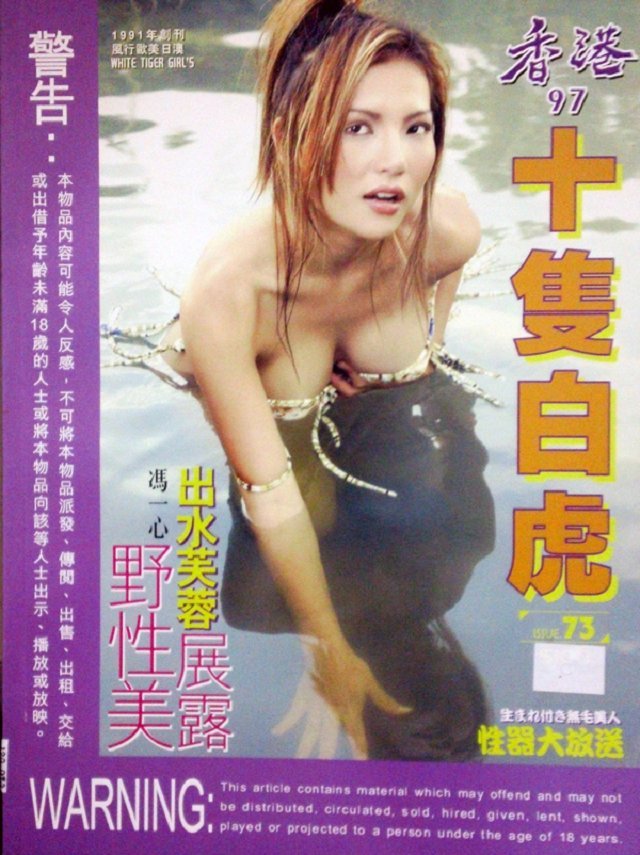
Hong Kong 97: Ten shaved pussies
[These magazines are all pictures and no words. They are
inspirational for masturbation.]
(Ming
Pao) January 13, 2016.
Yesterday Apple Daily received an
internal document from PageOne general manager Amanda To dated January 5
to PageOne employees, saying that the decision has been made to stop
selling indefinitely all books sensitive about the People's Republic of
China and the Chinese Communist Party in view of "recent news." Our
newspaper sought confirmation from PageOne headquarters. The response
was that the document was fabricated, and they have filed a police
report.
(Hong
Kong Free Press) January 13, 2016.
Book chain Page One has confirmed that
a memo calling upon its staff to avoid selling titles banned in China was
fabricated. The company says that they called the police to investigate the matter.
On Tuesday, local newspaper Apple Daily
alleged that General Manager of Page One Amanda To had issued an internal
memo to staff on January 5. �We are declared to announce that due to the
news of these days, we are avoid to selling the affected books all about
the People�s Republic of China and Chinese Communist Party sensitive from
now until further notice,� it read, in broken English.
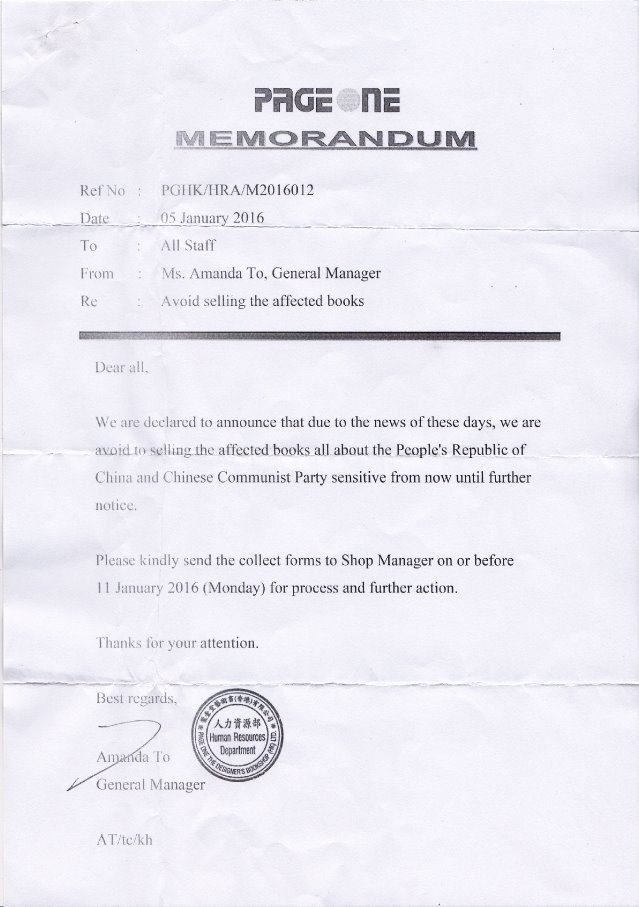
The report has been removed from the
Apple Daily website. Page One
issued a public statement, saying the forged memo � which was
posted widely on social media � was �untrue and misleading�.
�We strongly condemn the conducts of
those persons and newspapers who forged, used or published such false
document,� the Page One statement read.
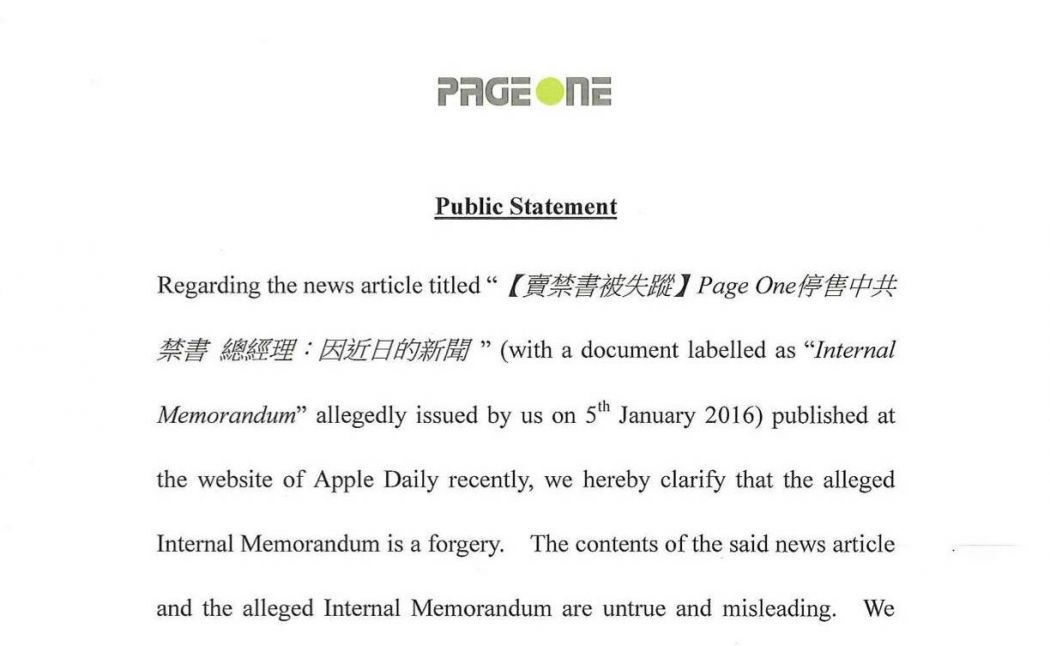
Internet comments:
- Fuck! Who is in charge at Apple
Daily! Look at the English language in the Amanda To memo. "We are declared to
announce ..." "We are avoid to selling ..." If Amanda To really writes like
that, she should be fucking fired immediately!
- Yes, I made the mistake of reading the memo while eating. I almost choked to
death!
- If Singaporeans really write such poor English, Hongkongers have nothing to
fear in terms of competition!
- But a Hongkonger fabricated this, so Singaporeans have nothing to fear in
terms of competition!
- Even Google Translate can write better than that! (or maybe this came from
Google Translate?)
- I like the signature of Amanda To! If that is how she signs her check with a
number "7", I can write myself a $1,000,000 check from her.
- Amanda To (if she exists) should be suing Apple Daily for defamation.
- Amanda To is listed as a graduate of business management from the University
of Bradford, United Kingdom. The University of Bradford should sue Apple Daily
for suggesting that their graduates can write like this and still get a degree.
- Why is the General Manager's memo stamped by the Human Resources Department?
- You can order any stamp you want for any department in any organization in any
number of print shops in Sheung Wan or Mong Kok.
- Why is the Human Resources Department involved in book inventories? Shouldn't
the memo be coming from the sales or marketing department head? That's a brand
new concept for corporate organization.
- According to SCMP on January 6, 2016, PageOne began pulling those political
sensitive books last November. So why issue a memo on January 5 long afterwards?
- Why is the memo going to ALL STAFF (including the accountants,
interior decorators, security guards, janitors, etc)? Shouldn't it be enough to go to
sales, warehouse and store managers?
- Nowadays corporations sent memos via emails to the relevant employee groups.
It is not environmentally friendly to still print paper letters to send by snail
mail (note: the memo was folded to place into an envelop!).
- The terrible quality of the fabricated memo proves that this did not some from
the Apple Daily creative writing team -- because they would surely do a more
professional
job.
- We oppose political suppression
of the freedom of press.
- You mean, We oppose political suppression of the freedom of creative writing?
- Oops! Where is the Journalists
Association? Didn't they say that Apple Daily is a "proper" and "mainstream"
media outlet above and beyond all criticisms?
- What does this reflect more on? The poor quality of the fabricator, or the
quality of the young wastrel who was hired to be a reporter at Apple Daily,
and/or the English-illiterate editors put in charge of gatekeeping?
- A responsible newspaper should at least make some basic verifications. But
they went ahead and published without even exercising any commonsense.
- Do not make fun of everything being faked in mainland China. Apple Daily gives
them a good run for their money.
- If the Hong Kong Police is
investigating this case, what will Apple Daily do? Hide behind the shield of
freedom of press which necessarily entails keeping the source of the lie
confidential in order not to discourage future whistleblowers liars?
- If the fabricator turns out to be an Apple Daily reporter trying to fill out
his work quota, then what? Will Apple Daily stick to the shield rule?
- Time for a journalism class. (American
Press Institute) Journalism as a discipline of verification
Journalists often describe the essence of
their work as finding and presenting �the facts� and also �the truth about
the facts.�
They also describe using certain methods
� a way of working � which Bill Kovach and Tom Rosenstiel describe in The
Elements of Journalism as a scientific-like approach to getting the facts
and also the right facts.
Called the Discipline of Verification,
its intellectual foundation rests on three core concepts � transparency,
humility, and originality.
Transparency means show your work so
readers can decide for themselves why they should believe it.
- Don�t allow your audience to be
deceived by acts of omission � tell them as much as you can about the
story they are reading.
- Tell the audience what you know and
what you don�t know. Never imply that you have more knowledge than you
actually do.
- Tell the audience who your sources
are, how they are in a position to know something, and what their
potential biases might be.
Transparency signals the journalist�s
respect for the audience. It allows the audience to judge the validity of
the information, the process by which it was secured and the motives and
biases of the journalist providing it.
- Apple Daily has deep-sixed its PageOne
exclusive report, so I don't know what they wrote. But I can guess that in
this Internet age, they will report that they have received a copy of a
memo which they haven't verified, so they are publishing it for the people
to decide.
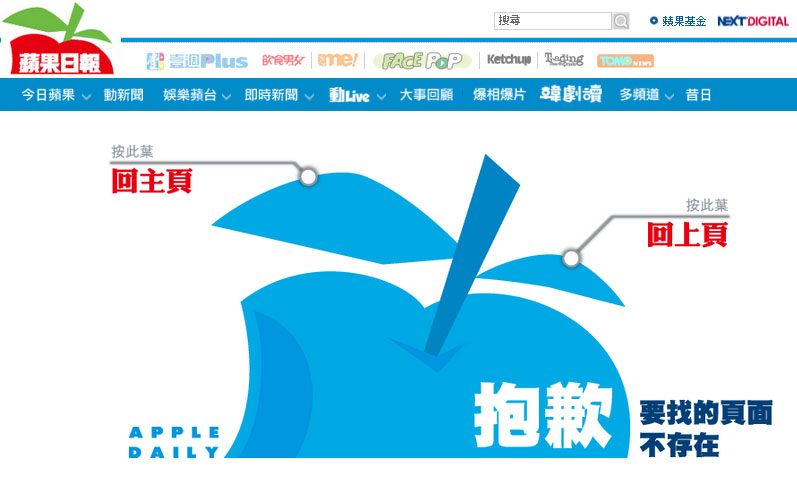
Apple Daily: Sorry, the page that you are
looking for does not exist.
But on January 12, 2016, Apple Daily
filed this report:
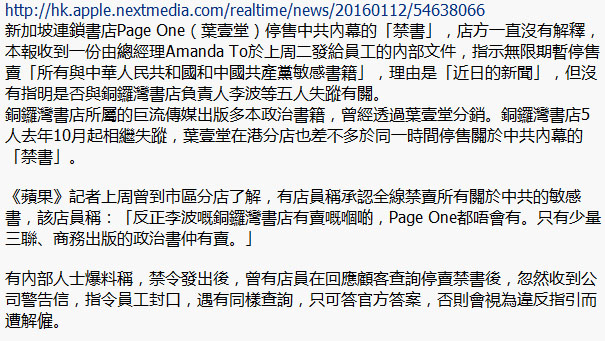
The internal memo from PageOne General Manager Amanda To to
employees on Tuesday, ordered that all books 'sensitive to the People's
Republic of China and the Chinese Communist Party' will not be sold
indefinitely with the reason being 'recent news.' However, there was no
indication that this is related to the disappearance of the five Causeway
Bay Books persons including Lee Bo." In other words, there was no
attempt to contact PageOne about the memo.
But this report also states that (1) last
week, an Apple Daily reporter went to a PageOne store in the city and spoke to a store
employee who said "Anything sold at Lee Bo's Causeway Bay Books will not
be in PageOne. Only a small number of Joint Publications/Commercial press
politics books are being sold"; (2) an insider told Apple Daily about the
company warning employees to stick to the company line or risk being
fired.
Therefore, Apple Daily had at least two
prior sources. Why not ask them if they received the January 5th Amanda To
memo too? Is that so hard to do?
- At this point, Apple Daily has purged
the story from its website. So they know that they screwed up. What next?
Of course, they aren't brave enough to apologize publicly because that would
mean that they will lose a libel case from PageOne. Therefore, they will
stonewall the affair until the end of time.
- Well, the sequence of events is
straightforward. First, Apple Daily received this tip and published it
without any due diligence. They believed that they have a sensationalistic exclusive
story. Next, they find out from the discussion forums that Internet users
find the memo to be deeply flawed in terms of facts, grammar and ideas. So they
purged the story and are now hoping that nobody notices.
- (SCMP)
March 27, 2016.
Hong Kong
International Airport is cutting back sharply on the number of bookshops for
departing passengers and replacing all Page One stores with new outlets run
by a mainland-based firm.
The overhaul includes
the �replacement with high-end fashion stores of the airport�s two biggest
bookshops in the departure area � once popular with mainland travellers
buying books and magazines banned across the border.
At a time of major
controversy over Hong Kong�s banned-book trade, the number of airport
bookshops is being reduced from 16 to 10, and four remaining shops moved,
mostly to smaller sites positioned near departure gates.
The two biggest
bookshops � the 250 sq m Relay and Page One stores in prime positions near
gates 20 and 21 in departures at Terminal One � are being replaced by luxury
fashion stores MCM and Hermes respectively.
Singapore-based chain
Page One has lost all six of its airport bookshops while French-owned Relay,
which has been doing business at the airport for 11 years, has had its
number of outlets cut from 10 to five.
Five of the 10
remaining bookshops at the airport will be run by a new operator, mainland
publisher and bookstore chain Chung Hwa, under the new arrangement which
comes into effect in April.
The cutback in book
retail space has triggered concerns that the Airport Authority might have
come under pressure to shut down shops selling politically sensitive titles
or exercised self-censorship in the wake of the ongoing controversy.
Five Hong Kong
booksellers went missing last year, sparking fears they had been kidnapped
by mainland agents operating beyond their jurisdiction, but they later
turned up on the other side of the border, saying they had gone there
voluntarily in connection with an investigation into the smuggling and sale
of banned books.
However, an Airport
Authority spokeswoman said the decision had been taken to reduce bookstore
space because of a �change in reading habit and advancement in technology�
following regular customer surveys on travellers� needs.
Relay and Page One
were granted their most recent licences to run 16 bookshops at the airport
in 2009. With the leases expiring in April, the Airport Authority invited
bids for the relocated spaces in June last year and decided the winners in
August.
A spokesperson for the
marketing department of Page One Hong Kong declined to say if the chain
lodged a bid but said: �The proposed units� allocation for the latest tender
offered by the Airport Authority [was] not appropriate for us to continue
our presence.�
Because of that and
the tourism downturn and sluggish economic conditions, Page One had decided
to re-evaluate and restructure plans for retail stores to �match the current
retail downturn�.
Lisa Leung Yuk-ming,
associate professor from the department of cultural studies at Hong Kong�s
Lingnan University, said Chung Hwa had �quite a strong mainland Chinese
background� and people might surmise political reasons for the changes.
�Airport book shops
became a haven for all these controversial books about Beijing government
officials and their sex lives and how they made their way [to power] through
corruption,� she said.
�They were a haven not
only for books but for magazines publishing gossip tabloid stories about the
mainland Chinese government.
�This might be a
reprisal for bookshops selling these kind of things or it might be
self-censorship by the airport themselves to try to weed out these
problematic bookshop labels.
�It might be a more
proactive strategy to let more pro-Beijing commercial presses have space at
the airport as a way to toe the official line � [and say] these are the
books you should be reading rather than these problem [ones].�
The Airport Authority
spokeswoman repeatedly declined to address concerns over a possible
political motive for the reduction in bookshop space.
�The selection of
books to be offered in the shops is decided by bookstore operators,� she
said.
The decision to cut
back on book shops contrasts with the authority�s comments in 2009 when the
previous contracts were awarded. Then, the authority said its surveys found
books, magazines and newspapers were among the best-selling categories for
departing passengers.
- (Hong
Kong Free Press) March 29, 2016.
Airport stores appear to have become the
latest targets in Beijing�s campaign to remove politically-sensitive titles
from Hong Kong bookshops and replace them with offerings glorifying the
state.
Well, our fears are not misplaced given the
latest news surrounding the bookshops at the Hong Kong International Airport.
According to reports, the Airport Authority
has decided on a new plan for airport bookstores, which will see the exit of
an independent foreign group and the entry of a Chinese state-owned book store
chain.
Under the plan, the number of book stores at
the airport will be cut to 10 from the existing 16, with mainland-based Chung
Hwa chain operating five of the outlets.
Meanwhile, Singapore-based chain Page One,
which has been running six stores at the venue, will no longer have a presence
at the airport.
The other existing bookstore operator at the
airport, French-owned Relay, will see its store number reduced by half from
10.
Under the overhaul, the two biggest book
stores at the airport � one operated by Page One and the other by Relay � will
make way for luxury retail shops.
The plan, which will take effect in
April, comes after the Airport Authority called for bids last year from
interested parties for new leasing contracts for the book stores.
The move has resulted in Chung Hwa, a unit of
Sino United Publishing, grabbing the rights for five stores, offering a chance
for Beijing to serve up state propaganda to airline passengers.
Now, we
come to this question: why is Page One retreating from the key international
gateway?
Has it
been given a signal that it is no longer welcome at the airport?
Page One has been scaling down its business
in Hong Kong in recent years, citing high rental costs. Lat year, the book
store chain closed a key outlet at Times Square mall, disappointing book
lovers.
But quitting the airport business may not be
a pure commercial decision.
The company has earlier this year removed
politically sensitive books from its shelves in the wake of a controversy in
Hong Kong over the disappearance of some local booksellers.
The book store chain, which was earlier brave
enough to sell titles critical of China and its leaders, was now seen to be
exercising self-censorship in a bid to avoid the ire of Beijing and its
supporters.
The disappearance of five men involved with a
firm that published books banned in mainland China appears to have prompted
Page One to rethink its operations and strategy in Hong Kong.
Pulling
sensitive books in January, Page One never gave Hong Kong public a valid
explanation as to why it made such a move.
Given
that there was no legal challenge or court injunction on the sale of political
books, why did the book store chain remove controversial titles, observers
questioned.
Now, with the decision to exit airport
operations, doubts will only grow that it has either succumbed to political
pressure or chose to exercise self-censorship.
Banned books, many of them critical of
China�s leaders and purporting to reveal secrets of their personal lives, have
been among top souvenirs for mainland visitors during their Hong Kong visits.
In Hong Kong, it is not illegal to sell such
books as long as there is no court injunction against the sale or legal action
related to a particular title.
Anyone can publish books on any topic if they
believe the content does not violate local laws.
But the growing self-censorship suggests that
the Communist regime in China is exerting all kinds of pressures to browbeat
Hong Kong book shops.
The Airport Authority, as a
government-controlled entity, might have felt that it would be serving the
national interests, given that airport book stores have emerged as a key
channel for the so-called illegal publications to make their way into mainland
China.
While Hong Kong has no law banning the sale
of the titles, what authorities can do is to replace the foreign-owned book
stores as well as reduce the number of book stores at the airport to avoid
people�s exposure to sensitive publications.
As Page
One has been selling sensitive political titles at the airport for many years,
one can presume that the Airport Authority may have faced pressure from some
higher-up to �clean up� the shops.
Meanwhile, the entry of Sino United Publishing into the city suggests that
Beijing is keen to step up its own propaganda offensive in Hong Kong.
The
outlets of the Chung Hwa book store chain won�t sell any publications
criticizing Beijing leaders, but will push tomes that extol the Communist
leadership and their achievements.
It marks
one more step in the undermining of Hong Kong�s publishing industry and free
flow of information.
We can
understand Beijing�s compulsions, but what about our airport operator?
The
Airport Authority has tried to justify its moves by citing commercial reasons
and the changing reading habits of people.
The
explanations, however, seem to be only half the truth.
- (SCMP)
November 17, 2016.
Troubled bookstore chain Page One shut its
two remaining city stores yesterday, with the Singapore-based company hit by
high rental costs and fierce competition from online sales.
Its outlets in Harbour City, Tsim Sha Tsui,
and Festival Walk, Kowloon Tong, each displayed a notice from auditor KPMG
�regarding the appointment of �receivers Edward Middleton and Patrick Cowley
since Wednesday.
�The receivers are still in information
gathering mode and we are working hard with the company�s management and staff
to assess the current status of the business,� Middleton, head of
restructuring at KPMG China, said.
�We are unable to say at this point what the
outcome will be, however the business in Hong Kong has been experiencing
strained trading conditions for some time.�
Page One opened its first city store in the
1990s, offering a wide range of books, magazines and gifts. However, in recent
years it had struggled to attract customers interested in reading and compete
against cheaper online sales.
Just last year, it was forced to close its
store at Times Square, Causeway Bay, after 18 years. It had also lost all six
of its �airport �outlets over the past few years.
Internet comments:
- So the whole Page One story about being
dropped at the airport due to Chinese Communist pressure is really about a
company without a business model that can pay the rent.
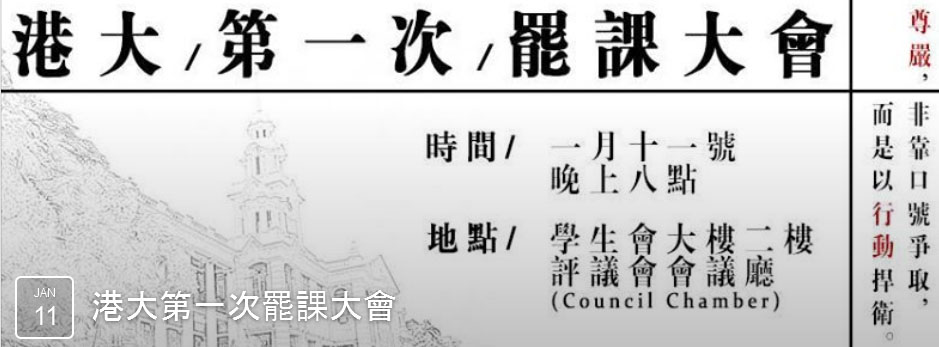
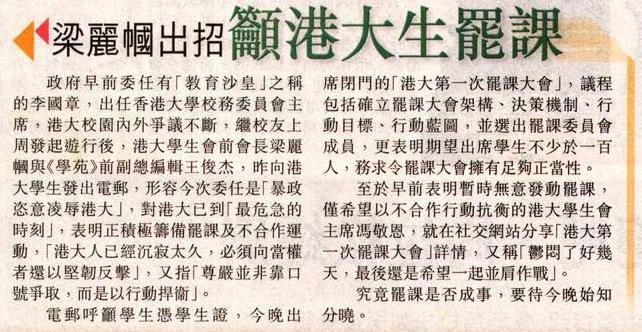
YVONNE LEUNG CALLS ON HKU STUDENTS
TO STRIKE
Earlier the Hong Kong government
appointed "Education Tsar" Arthur Li Kwok-cheung to be the Hong Kong University
Council chairman. Last week, the Hong Kong University Alumni Concern Group
marched. Now, former Hong Kong University Students' Union president Yvonne Leung
Lai-kwok and former Undergrad magazine deputy chief editor Wong Chun-kit
have sent an
email to Hong Kong University students yesterday to say that the appointment is
"an insult by the tyrants against Hong Kong University" and this is now the
moment of the "most critical crisis." They said that they are planning on a
student strike/non-cooperative movement. "The people of Hong Kong University
have been silent for too long. We must strike back firmly at the authorities."
They said that "respect are obta ined by chanting slogans, but they have to be
defended by action."
The email urged the students to
bring their student ID's to attend to the closed-door "Hong Kong University First
Meeting on the Student Strike." The agenda include setting the structure of the
student strike, the decision-making mechanism, the goals of the movement, the
blueprint of the action plan and the election of the Strike Committee. They said
that they want at least 100 students to attend so as to ensure that the Strike
Committee will have sufficient representation.
Previously, current Hong Kong
University Students' Union president Billy Fung Jing-an said that there is no
plan for a student strike. Today Fung said on Facebook forwarded the post about
the meeting and said, "I've been depressed for a few days. Ultimately I want to
go into battle together."
The outcome will be known after
tonight.
Internet comments:
- (RTHK)
January 11, 2016.
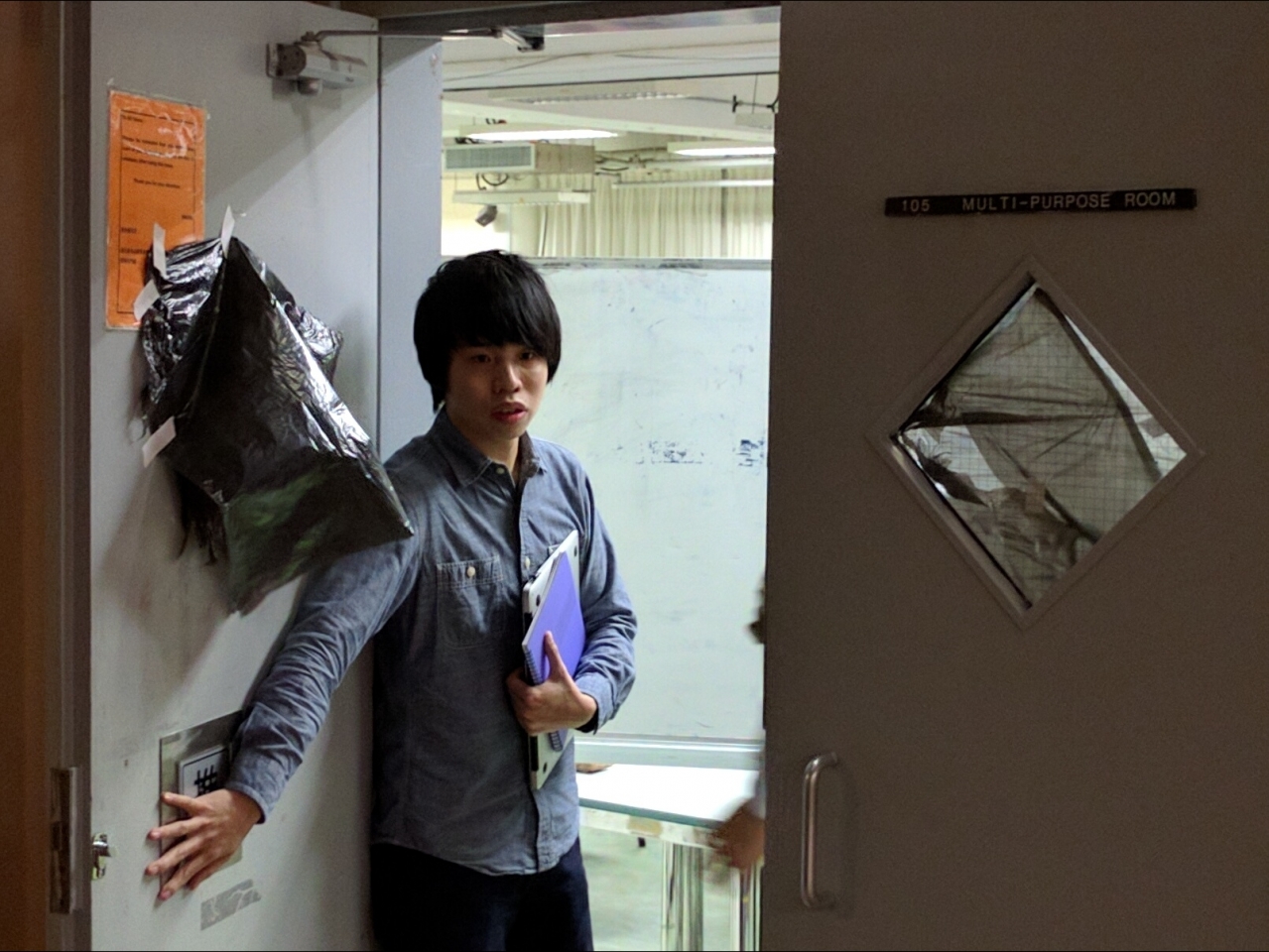
The meeting was restricted to Hong Kong University
students only. At the entrance, student IDs had to be produced and inspected.
The windows on the meeting doors were covered with black plastic bags, and a
white board was used to prevent the media from seeing the meeting rooms. The
students also refused to answer media questions.
I hope someone has made a secret
recording of the proceedings and immediately post it on Facebook today. After
all, we all agree that the people have the right to know.
- (HKG
Pao) January 10, 2016.
... It is interesting to note that
these Hong Kong University students are planning a student strike not in the
name of the Hong Kong University Students' Union. Instead, this is a Facebook
group fronted by former Hong Kong University Students' Union president Yvonne
Leung Lai-kwok and former Undergrad magazine deputy chief editor Wong Chun-kit.
The current Hong Kong University Students' Union president Billy Fung Jing-an only
said that he would participate and offer support "if my fellow students decide
to hold a strike."
Furthermore, the organization will
be a Strike Committee to be elected. This is saying that the Hong Kong
University Students' Union will play no leadership role, which means that there is
plenty of reservation within the student body about the appropriateness of a
student strike.
- "We want at least 100 attendees
so that the Strike Committee can be sufficiently representative." The total
number of undergraduate students during the academic year 2014/2015 was 16,187.
So 100 self-selected students who show up at this meeting will represent the
rest. My calculator says 100 / 16187 = 0.6%.
- And they can't really hold a referendum to gauge student support for a strike.
The result will be something like 5% turnout with 99% of those who voted supporting a strike. And the world will be focused on the
99% who didn't say YES.
- (Oriental
Daily) The media can only take photos of the garbage bags through the
door windows. But they noted that about 50 students went into the closed-door
meeting, including current HKUSU president Billy Fung, ex-HUKSU president Yvonne
Leung, ex-HK Federation of Students secretary-general Alex Chow, and ex-Undergrad
deputy chief editor Wong Chun-kit.
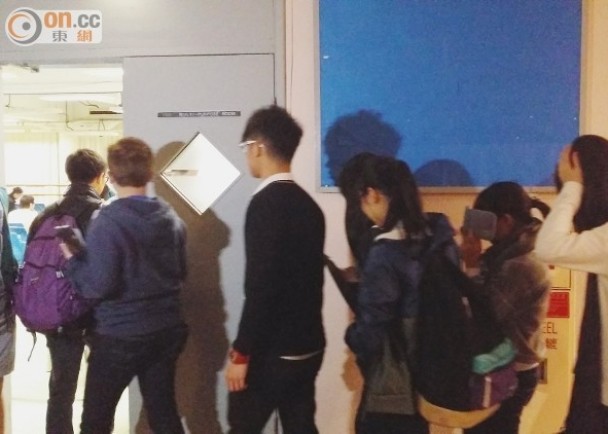
At first, the media can observe the meeting room
as the students filed in.

Then Hong Kong University Students' Union president Billy Fung moved a white board
behind the door to block the view.
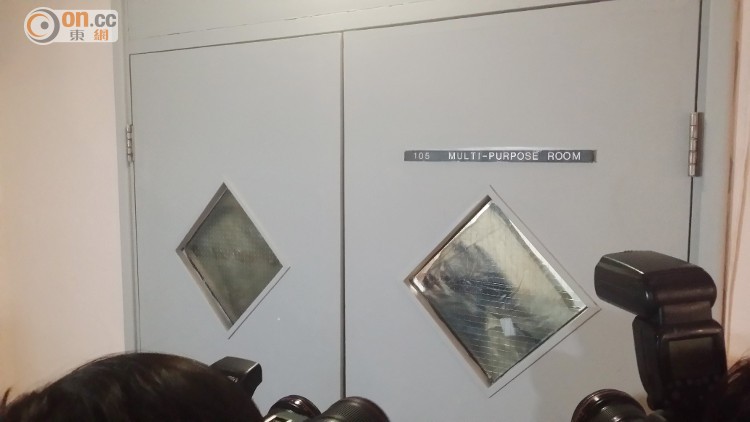
So now the media can only take photos of the garbage bags on the door windows.
- They wanted 100 bodies for representativeness but got only 50. What now?
- Easy. They will claim to have another 50 proxy statements.
- Here is the meeting agenda:
1. Election of chairperson and secretary (10 minutes)
2. Reading/passing the agenda (10 seconds)
3. Reading/passing the Strike Meeting and its constitution (30 minutes)
4. Electing the Strike Committee members (30 minutes)
5. Approving the blueprint for the action plan (90 minutes)
6. Discussing and approving the student strike publicity plan (20 minutes)
Estimated total time of meeting: 3 hours 10 minutes
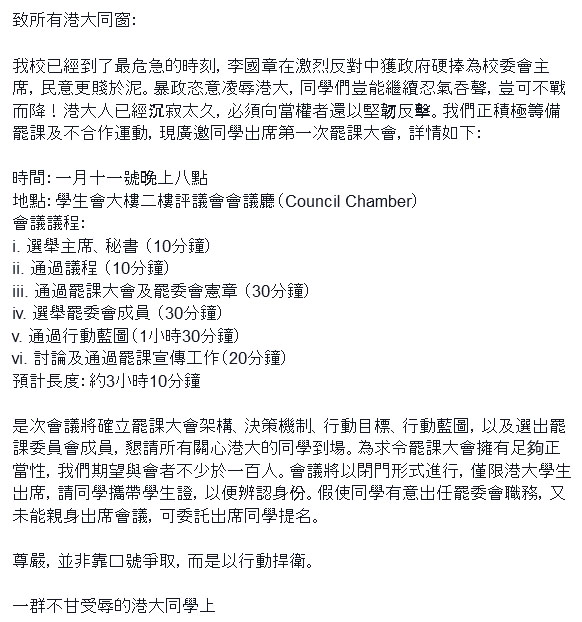
So this is a foregone conclusion
that the student strike will be on. There is no plan to discuss whether there
should be a student strike or whether such a strike could be 'successful' under
any metric or the costs of failure (which won't occur, of course. Why? Because
they said
so).
- Why hasn't current Hong Kong
University Students' Union president Billy Fung Jing-an called a student strike
already? Here are some possible questions.
Firstly, how many students will
answer the call? Here is some recent data:
(The
Stand) October 30, 2015.
The Hong Kong University
Students' Union held a referendum on two motions. A total of 5,353 students voted at a
turnout rate of 33.2%.
Motion No. 1
The post of Chairman of the Council of the University of Hong Kong must be
filled by a candidate who is acceptable to the members of its teaching
staff, non-academic staff and students.
There were 5,119 YES votes, 110
NAY votes and 87 abstentions.
Motion
No. 2
Arthur Li Kwok-cheung is not suitable to hold any position under the
governance structure of the University of Hong Kong.
There were 4,785 YES votes, 178
NAY votes and 353 abstentions.
So 30% is the maximum support.
In practice, many students support the idea but won't join a strike either
because this is not in their personal interest (e.g. lowered/failing grades;
delayed graduation; etc) or because they don't think that it will work. So what
happens if you call a strike and only 100 students respond? If the Student
Union made that call, the cabinet will be completely de-legitimized
thereafter. And that is why it is better to have a Strike Committee to bear the
cost of failure.
Secondly,
how long will a student strike last? Prior to the start of Occupy Central in
2014,
students went out on strike too.
(BBC,
September 22, 2014) Thousands of students in Hong Kong have converged on a
university campus to begin a week-long boycott of classes. The Hong Kong
Federation of Students said that about 13,000 students had gathered for the
start of the boycott. The mood was defiant.
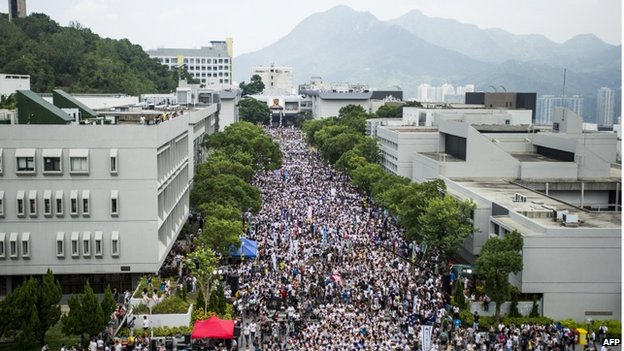
So that was for one week. How
long for the proposed Hong Kong University student strike? If you call for a
one-day strike, you will get many participants because the cost is low but
your critics will call this a joke because this is like the world-famous four-hour hunger strike. If you call for an indefinite strike until
Arthur Li quits, you will get a lot fewer participants because of the high
uncertainty and costs.
It is possible to call this an
unlimited strike, which means that the strike goes on until the goals are
realized or the students decide to call off the strike after achieving some
undefined mid-stage victory. In the latter case, the students will argue that
it was not a failure because they were the ones who made that decision.
If the strike goes on for several weeks, it is
possible to extend the semester with the courses condensed and evaluations
renegotiated. If the strike goes on longer, it is possible that the entire
semester will be canceled and the students will have to study for one more
semester while paying the attendant tuition fees and room-and-board.
Thirdly, what are the chances of
success?
That depends on
the definition of success. You can define your minimum goal as Arthur Li
quitting. You can define a higher goal as changing the law that
automatically puts the HKSAR Chief Executive in as chancellor of all eight
universities. There are even higher goals but let us not even try. What about
the minimum goal then?
Based upon what happened during
Occupy Central, the chances of Arthur Li/CY Leung capitulating is zero. In
Benny Tai's script, Occupy Central will achieve total success within 3 days
after 10,000 people paralyze the Central district to force the government to
capitulate. Instead, the government waited for 79 days until public opinion is
completely on their side before carrying out the clearance. In this case, the
students can go on strike for 790 days and Arthur Li wouldn't mind.
Fourthly, the reason why labor strikes work is
because the vital interests of the capitalists are being hurt. Every day
that the longshoremen are out on strike, the capitalists could see the cargo
containers sitting in the dockyards and money going down the drain. The same
cannot be said about a student strike. The students can go on strike as long
as they want, and Arthur Li, CY Leung and company won't feel any personal
pain. Neither will the citizenry in general. Occupy Central was different,
because the purpose was to hold the citizens hostage in order to put
pressure on the government.
Of course, the student strike can involve
stoppage in class attendance as well as blocking Bonham Road including the
MTR station outside the
campus to inflict maximum damage on residents in the neighborhood. But that
won't win them many friends in society at large.
Fifthly,
will a student strike create rifts within the campus community? If some
students call a strike, will they try to prevent teachers from teaching
and/or stop other students from attending class? The other students will get
upset because you are preventing them from graduating on time. Will the 30% be fighting
against the 70%? How do you carry out a mass movement while fighting against
the majority?
Of course,
all the questions above are classical examples of leftist retardism. The answers are already
formulated by Admiral David Farragut at the Battle of Mobile Bay: "Damn
the torpedoes, full steam ahead!"
- A student strike? Isn't that
just another name of collectively playing
truant? Yes, instead of attending those lectures on retrosynthetic
analysis in organic chemistry or algebraic knot theory, aren't we better off
with the day spent sunning, swimming and drinking beer at Repulse Bay beach?
- The students can go on strike and refuse to
take exams, but they better not interfere with the other students' freedom
of academic study/research.
- By the way, the unlimited student strike
called in September 2014 (see
Ming Pao) was never officially called off. That strike would end
only if Chief Exeuctive CY Leung apologizes and resigns; ministers Carrie
Lam, Rimsky Yuen and Raymond Tam resign; police commissioner Tsang Wai-hung
resigns; and the National People's Congress Standing Committee withdraws its
August 31st decision. None of these things have happened yet (except Tsang Wai-hung
has retired on schedule). Technically, the students should still be on strike. So why
call a strike on top of a strike?
- Hamburgers have double deckers, so can student strikes.
- A key tenet of Occupy Central is that you can
hurt others but you must never hurt yourselves. Students who go out on
strike for an extensive period are hurting themselves. So the creative
solution is the Relay Student Strike, being a variation of the Relay Hunger
Strike. This is a form of protest in which a number of persons go on strike
by turns. So you can have an unlimited student strike by having one student
going on strike for one day, another student going on strike the next day,
etc.
- Better yet, you can have one student on
strike for one hour, twenty-four hours around the clock per day. Students
should remember to sign up for those hours in which they are not scheduled
to be in class.
- Drop Out! By Chris Wat Wing-yin.
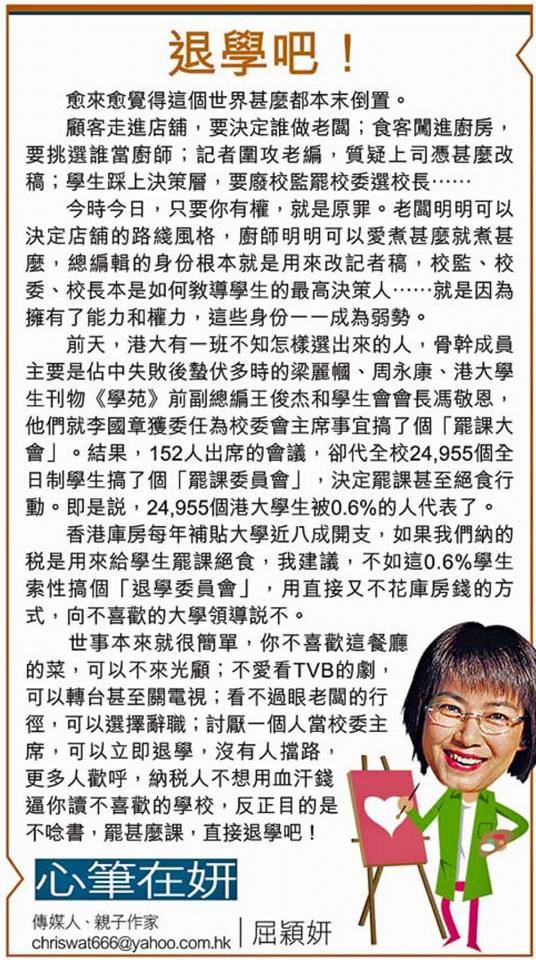
... On the day before yesterday, 152 (=0.6%)
attended the Strike Meeting and formed a Strike Committee for the 24,955
full-time students in order to decide on class strikes and/or hunger
strikes.
Each year, the government pays for 80% of the
university expenses. If our taxes are supposed to support these students to
engage in class/hunger strikes, then I suggest that why don't these 0.6%
form a Student Drop-out Committee to express their opinions without wasting public
money?
The world should be simple: If you don't like
this restaurant, you don't have to eat here; if you don't like to watch TVB
drama, you can switch channels or even turn off the television set; if you
don't like someone to be your university council chairman, you can drop out. Nobody is blocking your way. People will actually be cheering you
on,
because taxpayers don't want to spend their blood-and-sweat tax dollars to force you
to study at a university that you don't like. If you don't want to study,
you should drop out directly instead of just going on class/hunger strikes.
- (The
Guardian) January 3, 2016.
Chris Patten, the chancellor of Oxford
University, has told students involved in the campaign to remove a statue of
Cecil Rhodes that they must be prepared to embrace freedom of thought or
�think about being educated elsewhere�.
Patten accused students who had criticised
Rhodes, who regarded the English as racially superior, of trying to shut down
debate. He said that by failing to face up to historical facts which they did
not like, students were not abiding by the values of a liberal, open society
that �tolerates freedom of speech across the board�.
The intervention by Patten, who oversaw one
of the last vestiges of the British empire as the final British governor of
Hong Kong, comes after nearly 200 international students at Oxford signed a
statement saying the Rhodes scholarship they share �does not buy [their]
silence� over the imperialist�s legacy.
Rhodes, who is remembered for beginning the
policy of enforced racial segregation in South Africa, attended Oriel in the
1870s and left a large sum of money to the college in his will. Each year, 83
international students are selected to study at Oxford under the scholarship
that bears his name.
The Rhodes Must Fall campaign seeks to
persuade Oxford university authorities to remove a statue of Rhodes from the
building of Oriel college and to spread awareness of his white supremacist
views and the historic crimes of the British empire.
In his apologia for Rhodes, Patten evoked the
spirit of the South African statesman Nelson Mandela, the country�s first
black president after the end of apartheid, who he said endorsed the Rhodes
scholarships.
�I think that we are giving them [the
students] the respect of listening to their views, even when we don�t agree
with them,� he told the Today programme on BBC Radio 4.
�But if people at a university are not
prepared to demonstrate the sort of generosity of spirit which Nelson Mandela
showed towards Rhodes and towards history, if they are not prepared to embrace
all those values which are contained in the most important book for any
undergraduate, Karl Popper�s Open Society, if they are not prepared to embrace
those issues then maybe they should think about being educated elsewhere. But
I hope they will embrace those issues and engage in debate.�
Patten styled the objections to Rhodes as
along the lines of the �safe spaces� policies adopted on many university
campuses in Britain and the US, which critics have said are used to suppress
debate on a range of issues.
�That focus on Rhodes is unfortunate but it�s
an example of what�s happening in American campuses and British campuses,�
Patten said. �One of the points of a university � which is not to tolerate
intolerance, to engage in free inquiry and debate � is being denied. People
have to face up to facts in history which they don�t like and talk about them
and debate them.�
He added: �Can you imagine a university where
there is no platform? I mean a bland diet of bran to feed people, it�s an
absolutely terrible idea. If you want universities like that you go to China
where they are not allowed to talk about western values, which I regard as
global values. No, it�s not the way a university should operate.�
- Hypothetical dialogue:
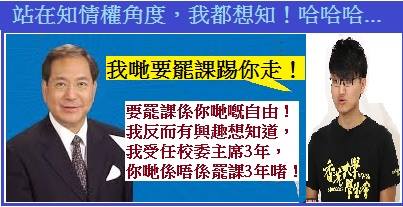
Hong Kong University Students' Union president Billy Fung Jing-an: We will
strike until we kick you out!
Hong Kong University Council chairman Arthur Li: You are free to strike. I
am more interested to know that, given that my term is for three years, will
you be on strike for three years?
- This is Occupy Central redux for CY Leung.
In order to force Leung on an issue, the resisters will try to
paralyze/obstruct normal operations at the university. Leung will do nothing
and he will wait for public opinion (students/teachers/staff/alumni/general
public) to swing to his side.
- What are the possible actions?
--- Class strike (been there, did that, not working)
--- Hunger strike (been there, did that, not working)
--- Imprisonment of council members (been that, did that, not working)
--- Blocking/filibustering council (council chairman rules on
agenda/procedural matters; not enough members in council to override
the chairman and his allies; can't work)
What hasn't been tried yet?
--- Occupation of vice-chancellor's office (Peter Mathieson isn't the
target)
--- Occupation of university council president's office (Arthur Li does not
have an office at the university)
--- Occupation/lockdown of entire campus (not enough numbers)
--- Self-immolation (no volunteers coming forth)
--- Terrorist attacks such as bombings (declaration of state of emergency to
shut down the university indefinitely)
- (Apple
Daily) January 13, 2016. By combining information from multiple
sources, Apple Daily learned that almost 200 Hong Kong University students
attended the meeting. The participants agreed on a time schedule and action
goals for the class strike. They intend to begin the class strike as early
as January 20. However, the undergraduate students do not resume class until
next Monday, which makes the timing very tight. At the next meeting, the
exact date and action plan will be decided.
- Eh, the other news media counted 50 to 60 persons entering the meeting
room, but Apple Daily counted almost 200 based upon information from various
sources. The result of the Big Bang was an
inflationary universe.
- Apple Daily spoke to four persons. Each said
that about 50 persons attended the meeting. Therefore the total number of
attendees is 50 x 4 = 200.
- They now have a logo for the HKU Strike
Committee (HKU
Student Strike Facebook)

Reform the University Council
Chase off the Tsar
- From the archives: Advice from the Tsar, September 15, 2014
(NOW
TV)
Host: Executive Council member Arthur Li thinks that the university students
know that they cannot change the National People's Congress Standing
Committee resolution but still put on a show (namely, a student strike). He
thinks that the university students should drop out of school in order to demonstrate
that they are willing to make sacrifices.
Arthur Li: The university students go on strike to say that they are willing
to sacrifice one week. Is that such a big sacrifice? Everybody who has
attended university has skipped class at some point. Right or not? If you
really want to talk about making sacrifices, then you must do a little
something to show other people that you are making sacrifices. Like doing what?
You can drop out of school. If you drop out of school, this is going to be
huge sacrifice for you and your family. But is that a good thing? Yes, it is a good thing.
Many people are studying for associate degrees because they could not get into
university. Now they will have a chance to get into university after your
create an opening by leaving.
- (Oriental
Daily) January 15, 2016. Hong Kong University vice-chancellor Peter
Mathieson said that the university will not punish student strikers and
won't compel them to attend class. However, the students must take
responsibility for their own actions.
What does that mean? It means that if you don't show up for class the rest
of the semester and you skip the homework assignments and exams, you will receive a failing grade in accordance with the
rules of the grading system. You do not get a free pass because you say that you are fighting for
your freedom/democracy/human rights/universal suffrage/universal values/rule
of law/justice/academic freedom etc.
- Chinese University of Hong Kong
vice-chancellor Joseph J.Y. Sung: "Not going to class is a sacrifice
already." He does not encourage students to drop out of school. (Apple
Daily) 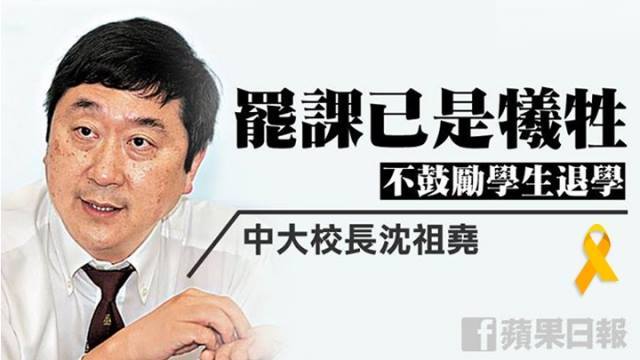
- Remember the legend of
Qiu Jin/Ch'iu
Chin? At the time, the Chinese overseas students were divided
between those who wanted to return immediately to China in order to join the ongoing
revolution, and those who wanted to stay in Japan to prepare for the future. Qiu allied unquestioningly with the former group. At a meeting of Zhejiang
students to debate the issue, she thrust a dagger into the podium and
declared, "If I return to the motherland, surrender to the Manchu
barbarians, and betray the Han people, stab me with this dagger!" In 1906
she thus returned to China along with some 2,000 other students.
- (Oriental
Daily) January 17, 2016. On January 17, the Hong Kong students held
its second strike meeting. The meeting was scheduled to begin at 9pm, but
they had to wait until 10pm for enough students to meet the 100 quorum.
According to information, the students will hold a class strike on January
20 (Wednesday), a meeting of all students on January 23 (Saturday) and
a hunger strike on January 24 (Sunday).
- What? A class strike for one day and a hunger strike for one day? They
don't even bother to hold a relay hunger strike with braised lamb stew for
those coming off?
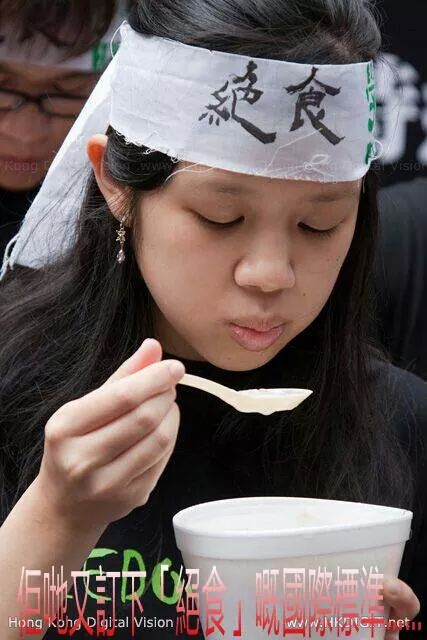
Hong Kong student hunger striker striking at hunger in accordance with
international standards
Prelude:
(SCMP)
Hong Kong activists vow to lodge complaint with UN over missing booksellers.
January 7, 2016.
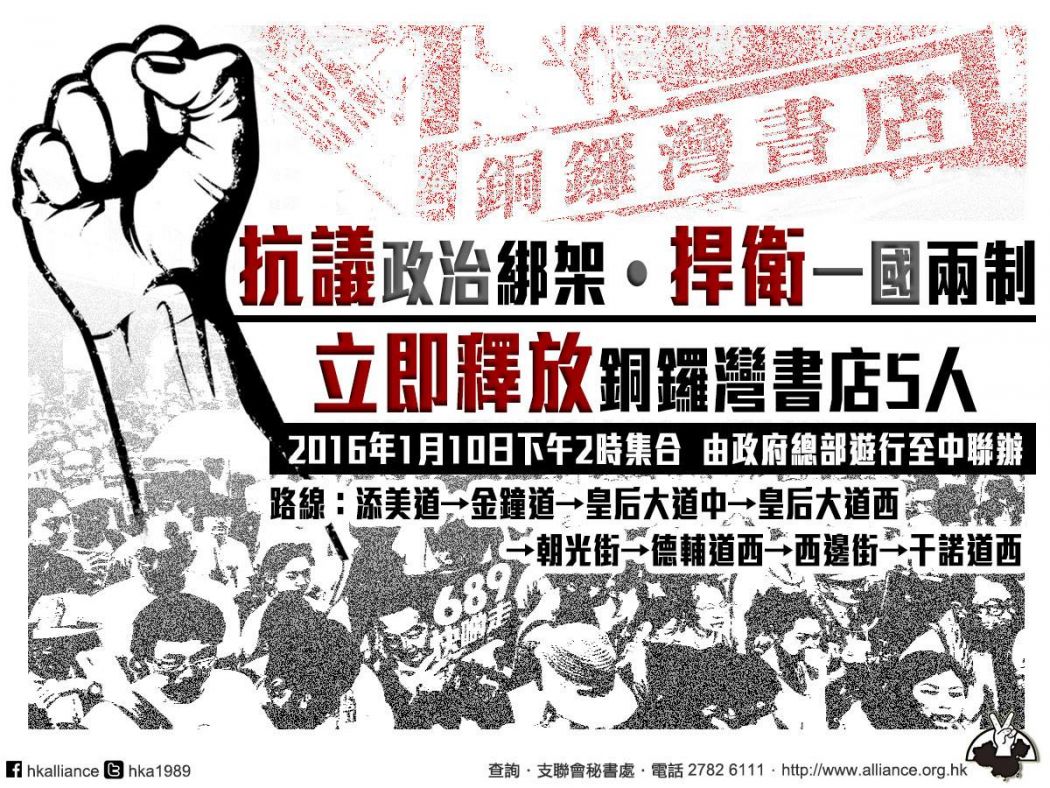
Albert Ho Chun-yan, chairman of the
Alliance in Support of Patriotic Democratic Movements of China, said the
group is planning to report the case to the United Nation�s Committee on
Enforced Disappearances to urge Beijing for an answer. The committee will
report to the UN�s General Assembly on its observations if it follows up on
the case, as Ho said Lee was likely to have fallen victim to a �political
kidnap�. The alliance will also organise a march on Sunday, from the Hong
Kong government�s headquarters in Admiralty to Beijing�s liaison office in
Western District.
(Valiant Frontier)
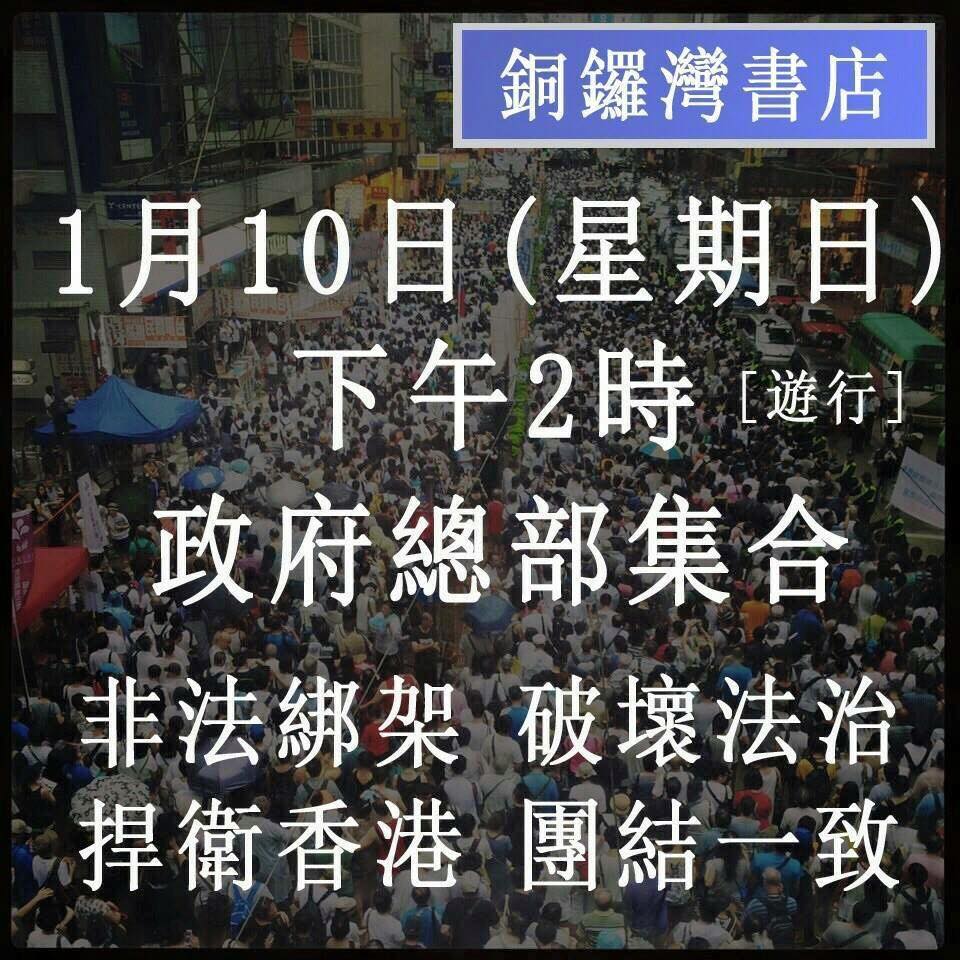
Causeway Bay Books
January 10 (Sunday) 2pm
Assemble at Government Headquarters
Illegal kidnapping
Ruining rule-of=law
Defend Hong Kong
Unite together
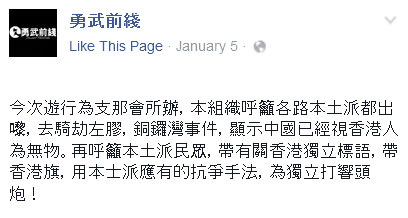
Valiant Frontier
January 5, 2016
This march is organized by the Chink
Club. Our organization calls for all localist groups to come out and hijack
those leftist retards. The Causeway Bay incident shows that China is
treating Hongkongers like nobodies. We call for all localists to show up
with placards for Hong Kong independence and Hong Kong flags, and use the
methods of resistance of the Localists to lead the way for Independence!
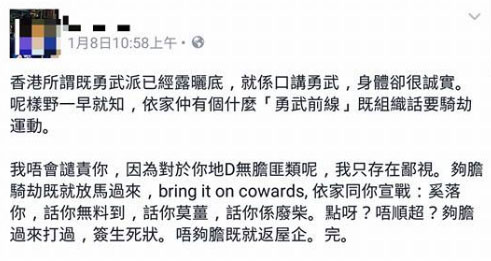
January 8, 2016
The so-called valiant ones have shown
their true selves. They talk about valor, but their bodies are honest. We
know that from very early on. Now this so-called Valiant Frontier
organization wants to hijack the event.
I am not going to condemn you, because I
only have contempt for a cowardly bum like you. If you have the guts to
hijack, bring it on, cowards! I am declaring war against you: I am scorning
you, I am saying that you can't deliver, I am saying that you won't move, I
am saying that you are useless. What about it? Are you upset? If you have
the guts, let's fight it out with a sworn statement promising no one is to
blame for any deaths or injuries. If you don't have the guts, go home
already. Over.
(Headline
Daily) January 10, 2016.
Mrs. Lee Bo has received a video of Lee Bo,
in which he said that he had gone to the mainland on his own in order to
take care of certain personal matters, and he doesn't understand why some
people want to make such a big deal out of it. He said that he and his
family are under a great deal of pressure. He says that if the outside world
really cares about him, then they should not make such a big deal anymore.
At the same time, Mrs. Lee Bo received a handwritten note dated today. The
contents are similar to that of the video.
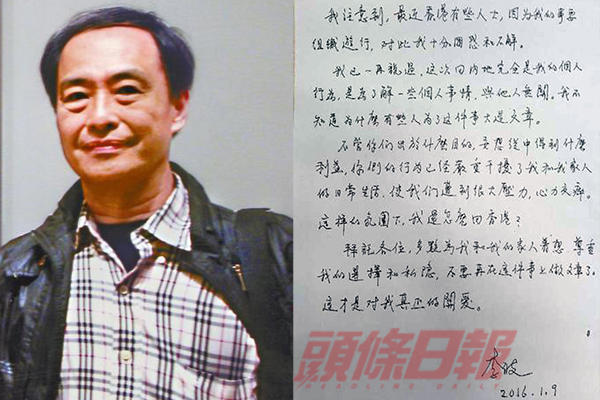
Translation of Lee Bo's note:
I noted that recently some peole in Hong
Kong are organizing marches over my business. I am very scared and perplexed
by this.
Let me repeat this again. I went back to
the mainland this time completely on my own in order to settle some personal
matters. It is not related to anybody else. I don't know why these people
want to make such a big deal over this matter.
It does not matter what your goals are
or what interests you hope to derive from this, your actions are seriously
interfering with the normal lives of me and my family. You have caused us to
be under a great deal of pressure to the point of physical and mental
exhaustion. In such an atmosphere, how can I come back to Hong Kong?
I implore you to be considerate about my
family, and respect my choices and privacy. Please do not blow this matter
up. That would be genuine concern for me.
Lee Bo
January 9, 2016.
Internet comments:
- Given the latest note on Saturday which
has been authenticated by Mrs. Lee Bo, will the enthusiasm at the Sunday
march?
How much energy can you put into the usual slogans?
"Down with the Chinese Communists!"
"End One-Party Rule!"
"Support Hong Kong independence!"
- Everybody know that Lee Bo's video and
note were made under duress. We can ignore anything that he has to say,
because we know that he is being held captive by the ruthless Chinese
Communists.
- Lee Bo is no longer even a player in this drama. The engine of history
will move on to crush the Chinese Communists, with or without Lee Bo. [Of
course, it would be easier if he dies.]
- The march must go on, because the true
purpose of the march is to get people to donate money in order to be able to
hold more marches to raise even more money.
- The underlying message from Lee Bo is
simple: Guys, if you make such a big stink, I'll never be able to come home
again! Even somebody brought up on melamine-laced baby formula can tell. But
the show must go on, because the Democracy Movement needs a martyr
and Lee Bo is just the perfect fall guy.
- Lee Bo and his wife realize that, and that is why they are striking back
with the note/video. The harder the pan-democrats push, the harder they will
push back.
- The pan-democrats are probably starting to feel uneasy. They look for a
fight with the China Liaison Office/Zhongnanhai, but instead they are
fighting with Mr. and Mrs. Lee Bo. They are
up shit creek without a paddle, but they can't back off now --
anyone who tries to back off will be accused of betrayal.
- Will Lee Bo be released for the good
behavior of asking people not to make a big deal of his case? Well, look at
the other four missing booksellers? Have they been freed yet? Since silence
won't work, we must resist valiantly.
- Why does Lee Bo blame the outside world
for creating pressure on his family? It's his wife who called the media,
including Headline Daily this time.
- Once again, the note is suspicious
because its contains a number of simplified characters. A genuine Hongkonger
never uses the simplified characters because it is a crippling of
traditional Chinese culture. Lee Bo is trying to communicate something here.
- This is a tightly written script with
something completely different everyday. Hire that scriptwriter for TVB!
- I can see what happens next -- Donald
Trump, Marco Rubio and Ted Cruz will try to outdo each other to pressure
China into releasing Lee Bo.
- But before a global thermonuclear war
breaks out, Lee Bo reappears to explain how he was abducted by aliens.
- Headline Daily showed the note, but they
did not show the video which has Lee Bo sitting on a sofa and speaking to
the camera. That's a bit unfair to the public right's to know.
- Lee Bo was kidnapped because he wrote/published "banned publications" on
Chinese politics. So why were the note and video leaked to the pro-China
Headline Daily? This is very suspicious.
- Oh, Headline Daily may be the newspapers with the largest circulation in
Hong Kong. But any genuine Hongkonger would be giving it to Apple Daily
because of freedom/democracy/human rights/universal values/universal
suffrage/etc.
- Butf the note/video appeared in Apple Daily, everybody would think that it
was more of their fiction.

Main Event
(SCMP)
January 10, 2016.
Hundreds of people took to the streets of
Hong Kong on Sunday over the disappearances of the five missing booksellers,
demanding Beijing to uphold the �One Country, Two Systems� principle. It is
the second such protest in a week and indicates a growing unease in Hong
Kong over allegations agents from mainland China may have abducted the
booksellers and taken them back to China for questioning.
Richard Tsoi, deputy chairman of the Hong
Kong Alliance in Support of Patriotic Democratic Movements of China, said it
is time for Beijing to explain to the Hong Kong people what has happened to
the missing booksellers. �The �One Country, Two Systems� is under threat. It
is time for Hong Kong people to come out to defend the city, to defend the
freedom we have always enjoyed,� said Tsoi. The alliance is the organiser of
the march.
Participants said they took to the street
to say no to �white terror�. �I don�t want to be the next to disappear. Who
knows if people who have taken part in the Umbrella Movement will be the
next to disappear?� said Billy Wu, 43.
The protesters will march from the Hong
Kong government headquarters in Tamar to the central government�s liaison
office.
(Oriental
Daily) January 10, 2016.

"Captain America" Andy Yung waving the British dragon/lion flag for Hong Kong
independence. He was the only Localist who didn't hear a mask.
About 1,000 persons gathered on
Tim Mei Road outside Government Headquarters. They set off at around 245pm, as
they waited for late arrivals to this 2pm assembly. According to Richard Tsoi,
deputy chairman of the Hong Kong Alliance in Support of Patriotic Democratic
Movements of China, the disappearances showed that One Country Two Systems has
gone awry and therefore the march will show that the people of Hong Kong want
freedom and human rights. As for the Lee Bo video, Tsoi said that Lee was forced
to pretend to be safe. The alliance handed out yellow ribbons to marchers at the
Admiralty Centre pedestrian overpass and on Tim Mei Road. They also changed
slogans such as "Oppose political kidnapping" and so on.
(Oriental
Daily) January 9, 2016.
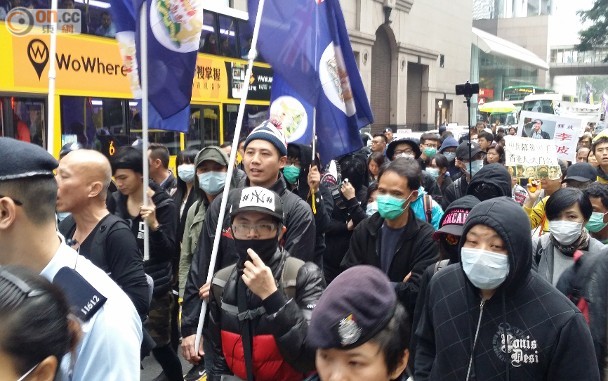
More than a dozen Localists
wearing black clothes and surgical masks raised the British flag and came to the
front of the procession. They emphasized that they were not happy with the
Alliance's way of conducting a march, and they said that they want to march in
their own manner. They denied that they want to hijack the march. It is not
known whether there will be additional activities after the march is officially
over.
(Oriental
Daily) January 9, 2016.
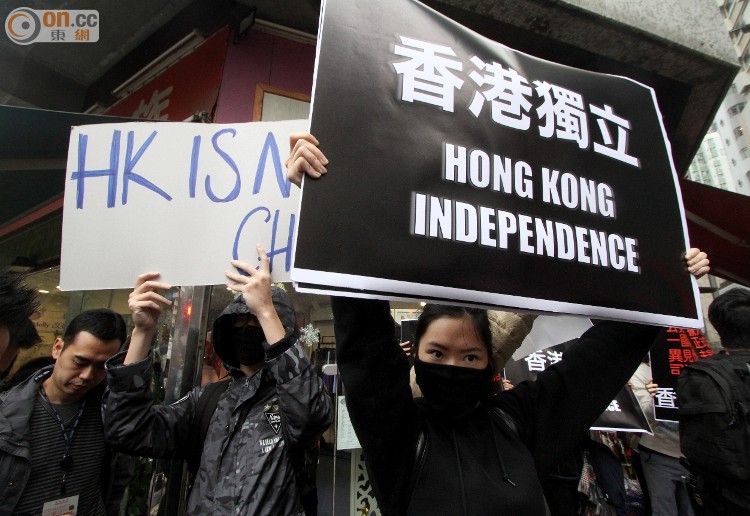
When the Localists demonstrators
reached the Western District Police Station, they were surrounded by more than
100 police officers and brought to wait on the sidewalk. The police were running
traffic control and would not let them advance. Meanwhile other demonstrators
were allowed to advance to the China Liaison Office. The Localists began to
complain, with some of them trying to break through the police line onto the
roadway but they were unsuccessful. Eventually they were allowed to advance slowly
towards the China Liaison Office. When this group reached Connaught Road
Central, the police blocked their way again. This group tried to break through the police
line without success. After the Alliance's march was formally over, the police
let the Localists proceed. When they got there, they took a walk around the block
and then they attached yellow ribbons onto the metal barricades and threw
placards into the China Liaison Office. Then they left at around 645pm.
Videos:
Oriental Daily
https://www.youtube.com/watch?v=NFabCAjb8lo
Resistance Live Media
https://www.youtube.com/watch?v=Uagxn8T66qQ Police road block scene
begins at 7:56.
INT News Channel
https://www.youtube.com/watch?v=D0gibvXU9dM
Epoch Times
https://www.youtube.com/watch?v=V6XbEZPEw98
Hong Kong Institute of Young
Wastrel Studies Facebook
https://www.facebook.com/1640482902830291/videos/1682186881993226/ Woman
screaming: "Help me! Somebody help me! Rescue me! Help me! Rescue me! Don't cry!
Help me! Don't cry! Help me! Help me! Rescue me! I am very scared! Help me!
Don't cry!" all because the police let the pan-democrats marched through but
stopped these Localists.
United Social Press
https://www.facebook.com/UnitedSocialPress/videos/1083293538370245/ Time
lapse video Part 1
United Social Press
https://www.facebook.com/UnitedSocialPress/videos/1083294141703518/ Time
lapse vdieo Part 2 Central Market pedestrian overpass
Internet comments:
- Hey, Albert Ho and Lee Cheuk-yan
predicted a turnout of 5,000 with 48 organizations participating. Where are
they?
- The march was scheduled to start at 2pm. NOW TV reported that there were 100
or so people at the time, and that figure included both plainclothes policemen
and reporters.
- (Oriental
Daily) About 1,000 persons gathered on Tim Mei Road outside Government
Headquarters. They set off at around 245pm, as they waited for late arrivals to
this 2pm assembly.
- (Ming
Pao) About 500 persons participated in the march, some holding placards
and wearing yellow ribbons.
- (Post
852) The organizers have declared at about 6,000 persons marched. Once
again, the stated goal was surpassed.
- (Oriental
Daily) The Hong Kong Police said that the peak number was 3,500 persons.
- (Bastille
Post) The organizers claimed 6,000 while the police gave a peak estimate
of 3,500. This is lower than expected, as many people expected more than 10,000
or even 40,000. There several reasons:
(1) Lee Bo's actions has cooled
things down. He sent two faxes and one video, in which he said that he did so
for personal reasons and he doesn't understand why people are making a big deal
out of it. Even if you question whether the faxes or video are sincere, his wife
has gone down to the police station to withdraw the missing person report. You
have to believe that this may be in the best interest of Lee Bo.
(2) Lee Bo and others published
those "banned books" for the money. He told Next Weekly that his books are a
mixture of truths and lies. "The political books are published not for justice, but
for the hefty profits." This is not going to win public sympathy, as compared to
a newspaper reporter gone missing.
(3) Even if some people sympathize
with Lee Bo, they won't march because they don't want to be used by politicians
and they are afraid of physical clashes. The past several Alliance marches had
seen clashes with Localists, sometimes scarily so.
- Anson Chan watch: (Oriental
Daily) "Democracy Grandma" Anson Chan is famous for cutting out midway
in a demonstration march. The question is not "If?", but "When?" This
afternoon, Chan was accompanied by two aides. When they reached the Central
Market on Queens Road, she cut out and tried to hail a taxi on Connaught Road
Central. Unfortunately, 4pm was the usual time for taxi driver shift changes, and nobody stopped
for her. Furthermore she was standing at a bus stop and it would be a traffic
violation to pick up a passenger in that zone. Eventually, she turned back to De Voeux Road Central to take the tram to North Point.
- Apple Daily, Anson Chan, Martin
Lee and others are calling everybody to march this one because: If you don't
march for Lee Bo this time, the next time will be your turn to be disappeared!
Are you scared yet? But try as they did, only 3,500 persons showed up. What does this
say? It says that 99.95% of the people of Hong Kong are not scared of what they
are saying. Why not? Because they are not Hong Kong traitors, Chinese traitors,
western lackeys, spies or troublemakers, and therefore they know that they have nothing to
worry about.
- Passion Times: Cheng "Four-eyed
brother' Kam-mun
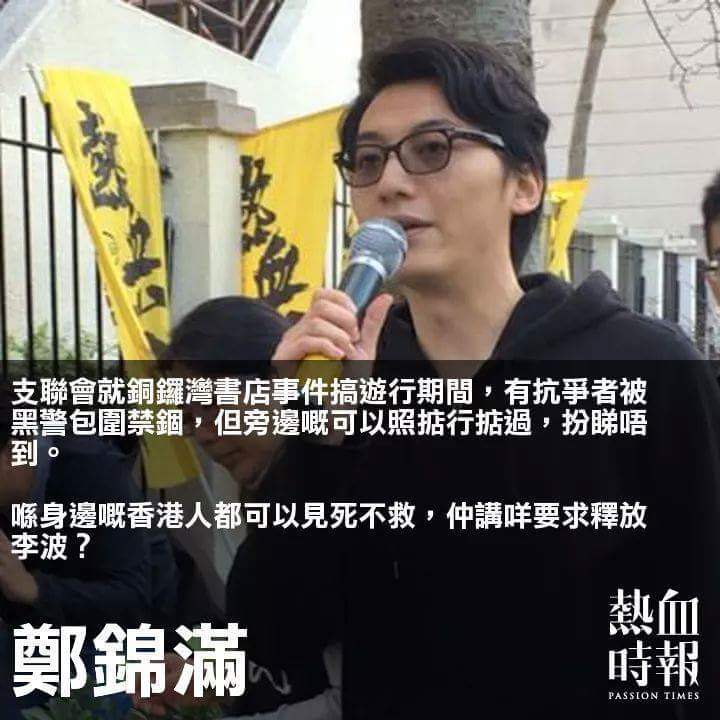
During the Alliance to Support Democratic Patriotic Movements in China's
Causeway Bay Books march, some resisters were surrounded and imprisoned by
the Evil Police. But the people next to them could still march on and
pretend not to see what was going on. When you can't even help those Hongkongers who are dying next to you, how can you still demand the release of
Lee Bo?
- (Headline
Daily/Sing Tao) Question: why are you marching today?
Ms. Yang: The freedom of speech of
the people of Hong Kong and certain rights that were given to us by the Basic
Law.
Ms. Cheung: Everybody has the goal
of defending One Country Two Systems. What happened to these five people in Hong
Kong is unacceptable to me.
Mr. Chan: As Audrey Eu said, what
the mainlanders are saying is that even if you are doing something legal in Hong
Kong, you cannot use what is done in Hong Kong as your excuse. Actually I very
much agree with this position.
Question: Are you hurting or
helping Lee Bo?
Ms. Yang: I believe that what Lee
Bo is saying is a script written for him by the mainlanders. If Lee Bo runs the
Causeway Bay Books, he could not say something like this.
Ms. Cheung: Actually, I think that
I can help him. Anyone with clear eyes can see that the Chinese Communists are
applying pressure on him to make that video. Also, this is not just a matter for
Lee Bo alone. This is a matter for all the people of Hong Kong. By helping him,
I am helping all the people of Hong Kong.
Mr. Chan: Actually, this is no
longer about an individual situation. This is about the situation of all the
people of Hong Kong. This is also about all non-Hongkongers whether they are
tourists or foreigners. When they arrive in Hong Kong, their personal safety
will be directly affected.
- Mr. Lee Bo, you better not come
back to Hong Kong.
Frankly, many people want to see
you dead.
It does not matter where you
choose to die. Either Hong Kong or mainland China will do. If you are dead, the
mission to smear the Central Government will be complete. Not even the waters
of the Yellow River and the Yangtze River together can ever wash the stain away.
If you die, your wife will be
taking trips around the world to collect human rights awards, freedom of speech
awards, etc. She will also be very rich if you bought yourself a big China Life
Insurance Company policy before you disappeared (note: proof of death is
required).
If you die, Apple Daily and Next
Magazine will get a breath of life from their waning fortunes.
If you die, you will be Hong
Kong's own
Li
Wangyang. Many political parties will instantaneously have an issue with
which to raise political donations. Lee Cheuk-yan's June 4th 1989 gig is
reaching its dead end, so this will be a shot in the arm for the politicians.
They promise to raise motions at the Legislative Council/District Councils in your name every day.
If you die, there will be annual
Lee Bo marches and Lee Bo candlelight memorial services. There will be several
Lee Bo Memorial Museums. Kowloon's Ladies Market will be filled with Lee
Bo t-shirts, Lee Bo posters, Lee Bo badges, Lee Bo refrigerator magnets, etc.
You will be more popular than Che Guevara, Chairman Mao and Bruce Lee put
together.
If you die, the foreign countries
will collectively criticize China. You will be the subject during each and every
state visit from now to eternity. Even the foreigners will hold moments of
silence on your behalf.
Therefore, you must not disappoint
all these people. They are counting on you to die.
- Prince Wong (Scholarism)
Facebook
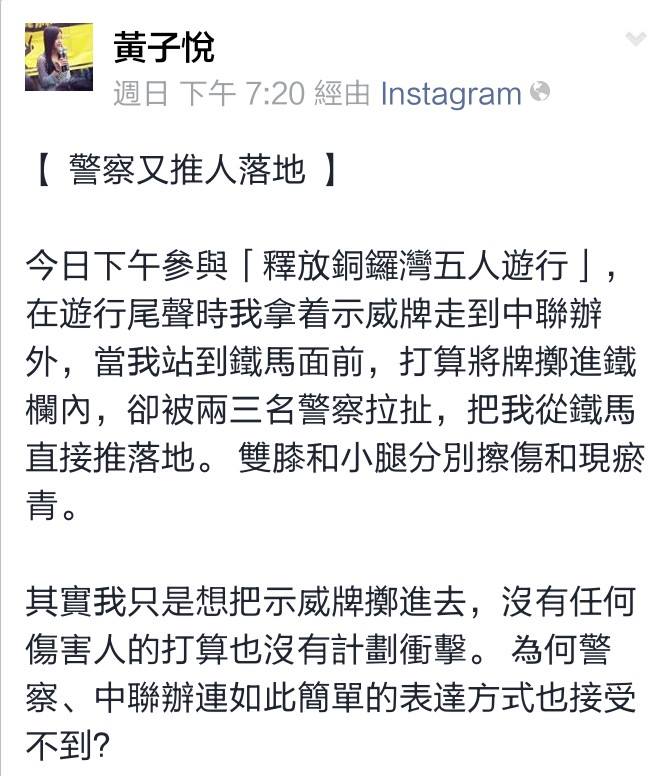
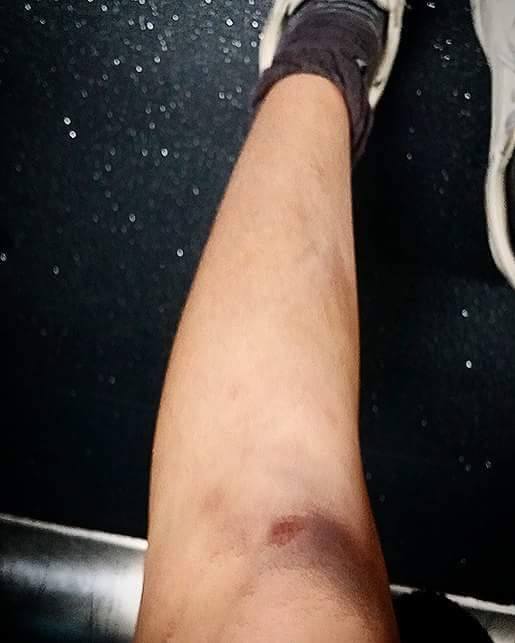
January 10, 2016 (Sunday)
I participated in the "Free the Causeway Bay Five March" this afternoon. At the
end of the march, I approached the China Liaison Office with a placard in hand. At
the time, I was standing in front of the metal barricade and I was going to toss
the placard inside the metal fence. Two or three police officers pulled me back and
threw me onto the ground. My knee and lower leg were scratched and bruised.
Actually, all I wanted was to toss the placard over. I did not have any
intention to hurt anyone, and I did not intend to charge. Why did the Police and
the China Liaison Office find such a simple method of expression objectionable?
Give
the chilling specter of the midnight knock on the door faces HK, it is
time that Hongkongers should think seriously about out to get out of this place.
There are a number of ways to do so.
Firstly, you can immigrate to some
place where freedom reigns, such as the United States, Canada, etc. In many of
these countries, a Hong Kong applicant must submit a Certificate of No Criminal
Conviction.
(Wikipedia)
A police certificate is an official document issued by police or government
agency of a country to enumerate any criminal records that the applicant may or
may not have. Criminal records may include arrest, conviction, and possibly
criminal proceedings. The issuance of Certificates of No Criminal Conviction is
a charged service provided by the Hong Kong Police Force which is solely in
connection with a person's application for a visa to visit or reside in another
country, or for adoption of children. Applications for the Certificate for any
other purposes will not be accepted.
(Police.gov.hk)
The applicant should bring his/her Hong Kong Identity Card or valid Travel
Document, plus a letter from the relevant Consulate / Immigration Authority /
Government Authority, which contains his or her name and clearly indicates that
the production of the Certificate is required. The issuance of Certificates of
No Criminal Conviction is solely in connection with a person's application for a
visa to visit or reside in another country, or for adoption of children.
Applications for the Certificate for any other purposes will not be accepted.
(Oriental
Daily) January 9, 2016.
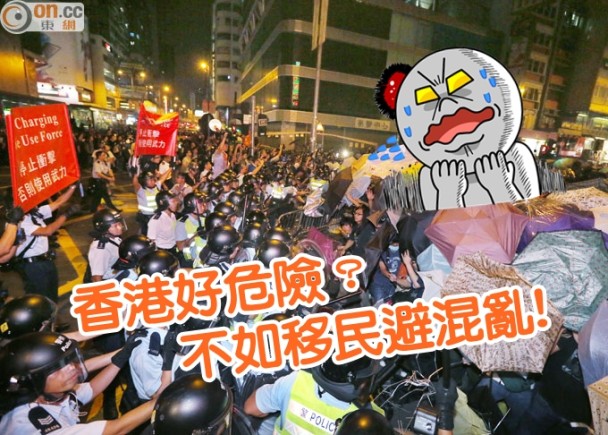
Hong Kong is dangerous? Emigrate to escape the
chaos!
In 2013, there were 20,290
applications for Certificate of No Criminal Conviction. In 2014, there were
21,09 applications, for a year-to-year increase of 7.0%.
For the first 11 months of 2015,
there were 19,112 applications. For the comparable first 11 months of 2014,
there were 19,981 applications, for a year-to-year decrease of 4.6%. So
Hongkongers are just not leaving in hordes. But the Causeway Bay Books
affair did not break out until January 2016, so year 2016 may yet turn out to be
a
bountiful year.
Another way of Hongkongers to
protect themselves is to use their BNO passports.
(Wikipedia)
British National (Overseas)
British National (Overseas), commonly
known as BN(O), is one of the major classes of British nationality under
British nationality law. Holders of this nationality are British nationals
and Commonwealth citizens, but not British citizens. The nationality
itself does not grant right of abode anywhere in the world, including
United Kingdom or Hong Kong, but all BN(O)s are permanent residents of
Hong Kong. BN(O)s are subject to British immigration controls and do not
have the automatic right to live or work in the United Kingdom.
The British National (Overseas) status
was created by the Hong Kong Act 1985 in anticipation of transfer of
sovereignty of Hong Kong on 1 July 1997. This nationality was
"tailor-made" for Hong Kong residents with British Dependent Territories
Citizen (BDTC) status by virtue of their connection with Hong Kong: it
allowed the people of Hong Kong to retain a relationship with the United
Kingdom after the transfer of sovereignty of Hong Kong to the People's
Republic of China. BN(O)s enjoy consular protection as British nationals
would when travelling outside Hong Kong. However, since most BN(O)s also
hold Chinese nationality, they do not enjoy consular protection in
Mainland China and Macau, owing to the Master nationality rule. From 1
July 1987 to 30 June 1997, nearly 3.4 million of British Dependent
Territories Citizens in Hong Kong successfully registered for British
National (Overseas). All BDTCs in Hong Kong lost their BDTC status on 1
July 1997, and any BDTC who did not register as a BN(O) automatically
acquired Chinese nationality or British Overseas Citizenship, depending on
their ethnicity.
Here is the Master nationality rule,
especially on the denial of British consular protection in Hong Kong.
(Hong
Kong SAR Government, Immigration Department)
According to Article 18 of
and Annex III to the Basic Law of the Hong Kong Special Administrative
Region of the People�s Republic of China, the Nationality Law of the
People�s Republic of China shall be applied in the Hong Kong Special
Administrative Region from 1 July 1997. Taking account of the historical
background and the existing circumstances of Hong Kong, the Standing
Committee gives the following explanations concerning the implementation in
the Hong Kong Special Administrative Region of the Nationality Law of the
People�s Republic of China �
- Where a Hong Kong resident is of
Chinese descent and was born in the Chinese territories (including Hong
Kong), or where a person satisfies the criteria laid down in the
Nationality Law of the People�s Republic of China for having Chinese
nationality, he is a Chinese national.
- All Hong Kong Chinese compatriots are
Chinese nationals, whether or not they are holders of the �British
Dependent Territories Citizens passport� or �British National (Overseas)
passport�. With effect from 1 July 1997, Chinese nationals mentioned
above may, for the purpose of travelling to other countries and
territories, continue to use the valid travel documents issued by the
Government of the United Kingdom. However, they shall not be entitled
to British consular protection in the Hong Kong Special Administrative
Region and other parts of the People�s Republic of China on account of
their holding the above mentioned British travel documents.
- According to the Nationality Law of
the People�s Republic of China, the British Citizenship acquired by
Chinese nationals in Hong Kong through the �British Nationality
Selection Scheme� will not be recognised. They are still Chinese
nationals and will not be entitled to British consular protection in the
Hong Kong Special Administrative Region and other parts of the People�s
Republic of China.
- Chinese nationals of the Hong Kong
Special Administrative Region with right of abode in foreign countries
may, for the purpose of travelling to other countries and territories,
use the relevant documents issued by the foreign governments. However,
they will not be entitled to consular protection in the Hong Kong
Special Administrative Region and other parts of the People�s Republic
of China on account of their holding the above mentioned documents.
- If there is a change in the
nationality of a Chinese national of the Hong Kong Special
Administrative Region, he may, with valid documents in support, make a
declaration at the authority of the Hong Kong Special Administrative
Region responsible for nationality applications.
- The Government of the Hong Kong
Special Administrative Region is authorised to designate its Immigration
Department as the authority of the Hong Kong Special Administrative
Region responsible for nationality applications. The Immigration
Department of the Hong Kong Special Administrative Region shall handle
all nationality applications in accordance with the Nationality Law of
the People�s Republic of China and the foregoing provisions.
And within the Chinese Memorandum of the
Joint Sino-British Declaration of 1984:
Under the Nationality Law of the People's Republic of
China, all Hong Kong Chinese compatriots, whether they are holders of the
"British Dependent Territories citizens' Passport" or not, are Chinese
nationals.
Taking account of the historical background of Hong Kong
and its realities, the competent authorities of the Government of the
People's Republic of China will, with effect from 1 July 1997, permit
Chinese nationals in Hong Kong who were previously called "British
Dependent Territories citizens" to use travel documents issued by the
Government of the United Kingdom for the purpose of travelling to other
states and regions.
The above Chinese nationals will not be entitled to
British consular protection in the Hong Kong Special Administrative Region
and other parts of the People's Republic of China on account of their
holding the abovementioned British travel documents.
If you were born in Hong Kong or elsewhere in China, you are a
Chinese national. If you hold a BNO, you are still a Chinese national while
you are in Hong Kong. So the way to do is to go through the formal process of
renunciation of Chinese nationality. The good thing is that a BNO passport
holder without nationality can apply to become a British citizen.
(Hong
Kong SAR Government, Immigration Department)
Any person who meets the requirements laid down in Articles 10, 11 and 12
of the Chinese Nationality Law can apply for renunciation of Chinese
nationality.
Article 10
Chinese nationals who meet one of the following conditions may renounce
Chinese nationality upon approval of their applications:
- they are near relatives of foreign nationals;
- they have settled abroad;
- or they have other legitimate reasons
Article 11
Any person who applies for renunciation of Chinese nationality shall lose
Chinese nationality upon approval of his application.
Article 12
State functionaries and military personnel on active service shall not
renounce Chinese nationality.
Other
Requirements
If the applicant is a Chinese national, he/she can renounce his/her
Chinese nationality if:
- he/she is a Hong Kong resident or was a Hong Kong resident
immediately before he/she emigrated to another country;
and
- he/she is of sound mind; and
- he/she is the spouse or child of a foreign national and is required
under the law of that country to renounce his/her Chinese nationality
before he/she can be naturalised as a national of that country;
or
he/she has emigrated to and settled in
another country and is required by the law of that country to renounce
his/her Chinese nationality before he/she can be naturalised as a national
of that country;
or
he/she has been adopted by a foreign
national and is required under the law of his/her adoptive parent�s
country to renounce his/her Chinese nationality before he/she can be
naturalised as a national of that country.
Application may also be considered if the applicant has other legitimate
reasons.
If the applicant chooses to renounce his/her Chinese
nationality, it may affect his/her right of abode in the HKSAR.

Historical materials:
(EJ
Insight) Why BNO is a much better choice than HKSAR for passport. By
Ben Kwok. January 7, 2016.
When the going gets tough, the tough get a
British passport. That may explain why there is such a sudden surge in
demand among Hongkongers for a renewal of their British National (Overseas)
(BNO) passport � or so it seems.
The BNO passport was made available for 3.4
million Hong Kong citizens before the 1997 change of sovereignty. But the
renewed demand for the document, according to discussions on social media,
was spurred by the controversy over the disappearance of Causeway Bay Books owner Lee Bo and his four associates. There�s wide speculation
that he was arrested in Hong Kong by mainland security authorities and taken
across the border for investigation, putting into question Beijing�s
sincerity in abiding by the �one country, two systems� principle.
How Lee was able to return to China without
a mainland visa only deepens the mystery. But as it turns out, Lee is a
British citizen, a holder of a UK passport, as confirmed by the British
Foreign and Commonwealth Office.
Britain, in fact, has expressed deep
concern over Lee�s disappearance, which should put a warm glow in the hearts
of some BNO passport holders.
Although BNO passport holders understand
that they won�t be able to enjoy all the rights and privileges of a British
citizen, they know that if they are kidnapped and taken to another place,
they can count on one more help, instead of relying solely on Hong Kong
police and government officials.
Many Hong Kong people are horrified by our
dear Chief Executive Leung Chun-ying, who on Tuesday suggested that Lee Bo
himself should take the initiative to contact the Hong Kong police. Is this
the kind of help we can expect from our government?
There is no doubt that being a BNO passport
holder has its advantages, as explained by Simon Shen, associate professor
and director of the Global Studies Programme at the Faculty of Social
Science of the Chinese University of Hong Kong and lead writer (global) at
the Hong Kong Economic Journal. His Facebook post about the matter won
10,000 likes within 24 hours. �BNO is definitely better to have,� wrote Shen,
�because if the Hong Kong political structure changes, or the �one country,
two systems� is canceled, or other countries withdraw their recognition of
the HKSAR passport, BNO will get you to other parts of the world, and
provide the last escape door.� Shen
pointed out that a BNO passport can get you to 189 countries, including some
former British colonies that require a visa for Hong Kong passport holders.
In case of emergency, one can get help from the British Consulate, and stay
in most European Union countries.
The only drawback is the fact that you
cannot become the chief executive of the Hong Kong Special Administrative
Region. But considering all the troubles CY Leung faces everyday, who�s
interested in the position, anyway?
Interestingly, not many Hongkongers have
bothered to renew their BNO passports. Out of the 3.4 million qualified
passport holders, only 22,000 renewed their passports, compared with 88,000
in 2004, according to data from the British Consulate General in Hong Kong.
One reason for the big drop in numbers
could be the cost of passport renewal. A 32-page BNO passport now costs
102.86 pounds (HK$1,167), compared with HK$370 for an HKSAR passport. The
48-page version costs 110.86 pounds (HK$1,258), compared with HK$460 for the
local one.
But if a few hundred dollars more can offer
a double insurance over a period of 10 years, why not?
There are also shortcomings in our local
passport. HKSAR passport holders can only get visa-free access to 152
countries, excluding, among other destinations, the United States,
Australia, India, Saudi Arabia and Bhutan, according to Secretary of
Security Lai Tung-kwok.
Despite an increase of 25 visa-free
destinations � most notably Russia and other Eastern Europe countries � in
the past decade, Hong Kong still trails behind Singapore and Malaysia in
this regard.
Also, according to Lai, there are 17
countries such as Vietnam, Iran and Burma that offer visas to Chinese
citizens but not to HKSAR passport holders.
(SCMP)
For Hongkongers, British National (Overseas) passport not worth the hassle.
June 28, 2014.
The care with which we safeguard passports
reflects the unnerving inconvenience of losing one. The need for such care
grew amid the emphasis on the security and integrity of travel documents
following the emergence of global terrorism. Security authorities are less
understanding these days about the repeated loss or theft of passports that
might fall into the wrong hands.
Renewing a passport is therefore an
important ritual of identity. So imagine the incredulity among Hongkongers,
accustomed to the reliable if bureaucratic ways of the Immigration
Department when it comes to issuing SAR passports, at the mess the British
passport office has got itself into over a backlog of 500,000 applications.
It would have been accompanied by relief that Hong Kong no longer relies on
the former colonial power to issue passports. But it was shortlived.
Holders of British National (Overseas)
passports who want to renew their documents must submit all valid passports,
including those issued by Hong Kong. SAR passport holders have now been
denied the chance to travel because their documents are held up in the
British bureaucracy for up to four months. The fiasco arises from the
closure of British consulate passport offices, including the one in Hong
Kong in December, and the repatriation of passport services. It was a
cost-saving measure that has upset the travel plans of many.
Applicants can supply copies if a document
is needed urgently, or apply for its early return. But it remains ridiculous
that people have been grounded by a bureaucratic bungle. Inadequate planning
for a surge in passport applications hardly seems a good enough excuse.
British Home Secretary Theresa May rightly apologised. This should remind
Britain that while some Hongkongers still value the BNO passport as an
alternative document, they can't do without the SAR passport for long. It
should also prompt them to consider whether they really need the BNO
document, given the extent of the SAR passport's visa-free acceptance.
(The
Standard) Allow us to live in UK, BNO holders demand. January 22,
2015.
Thousands of
Hongkongers with British National Overseas passports are pushing for the
right to live in Britain - but there are no signs they will get their way.
About 400,000 Hong Kong residents hold BNO passports, which means they can
enter Britain without a visa and get consular help when abroad, but have no
right to live there. Hongkongers were
offered a special British National Overseas status in 1997 to calm those who
feared for their future under Beijing's rule.
BritishHongKong, a non-profit organization,
is campaigning for holders to have the right to live in the country. It has
written to members of parliament and made a statement to a parliamentary
inquiry into Hong Kong's post- handover relationship with Britain. "It is an
extra option for Hong Kong people. It's a right they deserve," says Sampson
Noble, a 30-year-old who runs the BritishHongKong campaign group, which has
3,000 members in its online forum. "I was born British. It should not relate
to my ethnicity."
Frustrated Hongkongers are joining the
calls for Britain to offer them an escape route in the wake of increasing
social and political tension following the Occupy Central movement last
year.
Joe Li Kin-cho, an immigration consultant
at the Global Path Overseas Studies Centre in Hong Kong, said inquiries from
Hongkongers looking to immigrate have doubled in the past six months. "It
has been increasing since Occupy Central. Inquiries have increased by 100
percent, which was unexpected," he said. "People are very worried."
Destinations such as the United States,
Canada and Australia remain popular, but Taiwan and Singapore are also
attractive as they are cheaper. It costs only about HK$2.3 million to
immigrate to Taiwan, while it costs HK$10 million to move to Singapore.
Li said citizens are concerned about
political and social instability from the Occupy movement. "Some will call
us and say their democratic freedom has been reduced, while others say the
protesters have ruined what they like about Hong Kong," he said.
Another BritishHongKong campaigner,
Humphrey Lau, said the British still continue to discriminate against
Hongkongers. "We were ruled for 156 years and we are being discriminated
against," he said. "There is a feeling of being betrayed."
Facebook page "BNO Concern," which also
calls for the right of BNO passport holders to live in Britain, has more
than 6,000 likes, with users dismissing their status as "rubbish" and
pushing for change. "How can we trust the UK any more? UK returned HK to
China without any consent of the HK people," wrote Stanley Lam. "Also the UK
rejected the right of abode in the UK for all HK British people. Shame on
UK!!!"
Despite the growing calls, there is no sign
that Britain will change its immigration rules. "There are currently no
plans to amend British nationality legislation to give holders of BNO status
the right of abode in the UK or to extend the right to apply for BNO
status," a consulate spokeswoman said.
(SCMP)
Britain rejects appeal to grant full citizenship to former Hong Kong British
soldiers. March 12, 2015.
London has turned down a renewed appeal to
grant full British citizenship to former British-Hong Kong soldiers left in
the territory after the handover. A Home Office minister said veterans could
take a form of British nationality known as British National (Overseas). But
BNO status does not allow holders the right of abode in Britain. The issue
was debated in the House of Commons yesterday, following lobbying by a
campaign group formed by ex-servicemen in Hong Kong. The group - Campaign
for Abandoned British-Chinese Soldiers Left in Hong Kong in 1997 - has been
fighting for the former soldiers' right of abode.
Andrew Rosindell, a member of the British
parliament's foreign affairs committee, said: "The ex-servicemen in Hong
Kong were part of our regular British army, working side by side with
British troops both in Hong Kong and elsewhere. "And these men are now our
veterans � To many, it seems the veterans of ours now form a forgotten part
of British history."
But immigration minister James Brokenshire
said: "It has been a long established practice in British national law for
British nationality to be lost when a country ceases to be a UK territory."
He added Hongkongers could acquire BNO status, which can be retained for
life.
Dubbed by some second-class British
passports, BNO passports were issued after the Hong Kong Act 1985. There are
some 3.4 million holders of such passports in Hong Kong.
A campaign group member, Roger Ching Yuen-ki,
who served in the Royal Military Police in Hong Kong, said it would continue
its fight. "We hope the parliament will agree to issue passports to the rest
of us as soon as possible and it will urge [Prime Minister] Mr David Cameron
to reconsider the issue."
(Hong
Kong Free Press) January 27, 2016.
Some people from Hong Kong have been
included in a scheme to expedite travellers through the UK border, but the
scheme is only available to those who have a Hong Kong Special
Administrative Region passport, and not British National (Overseas) passport
holders.
The UK government added new eligible
countries to the Registered
Traveller Service (RTS) scheme on Monday. Hong Kong travellers will be
able to pass through UK border controls more quickly without needing to fill
in a landing card and a credibility interview on arrival if they:
- are 18 years old or older;
- have a
Special Administrative Region passport;
- have
visited the UK four times or more in the last 24 months.
They may also use UK/EU entry lanes and
ePassport gates at selected airports, fast track entry lanes at Heathrow
Airport Terminals 3 and 4, and Eurostar terminals at Paris, Brussels and
Lille without having to fill in landing cards. It costs �70 (HK$775) to
apply to use the service for one year.
The RTS scheme was rolled out in April
2015. At its launch, travellers who held a passport from Australia, Canada,
Japan, New Zealand or the US were eligible for the scheme. Currently, it has
40,000 members. Four more countries were added on Monday.
�I am delighted to announce the expansion
of the very successful Registered Traveller service to Hong Kong, Singapore,
South Korea and Taiwan,� said UK Immigration Minister James Brokenshire.
�The UK welcomes thousands of passengers from these places every year and we
believe the Registered Traveller service will only improve the experience at
our borders for business travellers, for students and for regular visitors
to the UK.�
A spokesperson from the UK�s Home Office
told HKFP that the scheme made the UK �a more accessible place to travel to�
for RTS members from the selected countries and territories. �We recognised
that there was an opportunity for Border Force to offer a dedicated and more
efficient service to frequent travellers from selected countries and
territories on which there is no UK visit visa requirement,� the
spokesperson said. Previously, Brokenshire confirmed that the RTS scheme did
not apply to BN(O) holders.
The BN(O) passport is a permanent document
held by Hongkongers who applied for it before the city�s handover to China
on 1 July 1997. There are more than 3.4 million BN(O) passport holders in
the city.
The RTS �is still relatively new� and has a
focus on border security,� wrote Brokenshire in a letter to UK member of
parliament Jim Fitzpatrick dated December 23, 2015. �Whilst BNOs are not
currently eligible to apply for RTS, the Government continues to monitor the
performance of the Registered Traveller Scheme and it keeps eligibility
criteria under regular review. Additional cohorts may be added in the future
where a case can be made.�
The UK Home Office spokesperson added that
�the majority of BN(O) passport holders are also holders of a Hong Kong
Special Administrative Region passport which would enable them to apply for
the Registered Traveller Service if they are in one of the eligible
categories.�
However, there appears to be no mutual and
reciprocal agreement between the Hong Kong and UK government, as an
announcement from the SAR government has yet to be made. Currently, UK
passport holders visiting Hong Kong have to fill in a landing card and are
not eligible to use the e-Channel service when they land.
Martin Oei, a Hong Kong based political
commentator, told HKFP that it was likely to have been a decision that the
UK made on its own. �The RTS scheme will collect the passport holder�s
information as they enter, and the Immigration Department would not be
prepared to have information collected by the UK if the collection was not
reciprocal,� Oei said. He added that the UK could collect Hong Kong Identity
Card information of frequent travellers embedded in the passports, through
RFID readers installed at the lanes and gates, for intelligence purposes.

Internet comments:
- One argument for BNO is that the United
Kingdom will provide diplomatic protection overseas. Here is an example:
(Reuters)
April 3, 2015.
A Chinese naval frigate has evacuated
225 foreign citizens from strife-torn Yemen, its foreign ministry said,
marking the first time that China's military has helped other countries
evacuate their people during an international crisis.
Ten different nationalities were among the
evacuees picked up on Thursday afternoon from Aden, Yemen's second city,
and transported to Djibouti, the Ministry of Foreign Affairs said in a
statement on its website late Thursday. The ministry said foreign
governments - Pakistan, Ethiopia, Singapore, Italy, Germany, Poland,
Ireland, Britain, Canada and Yemen - had requested China's help.
The United Kingdom is a bankrupt country
with no ability to project military power across the world. They can't
print the BNO passports in a timely manner even if you pay the costs.
When bombs start falling in Yemen, all the UK government can do is to call
up the Chinese government and beg them to evacuate the British citizens in
the area.
You may very well ask why the United
Kingdom asked China and not the United States for help. After all, the
United States are their good allies and also the most powerful nation in
the history of mankind.
(State.gov)
On February 11, 2015, due to the
deteriorating security situation in Sana�a, the Department of State
suspended embassy operations and U.S. Embassy Sana�a American staff were
relocated out of the country. All consular services, routine and
emergency, continue to be suspended until further notice. The Department
notified the public of this move, and its impact on consular services,
and urged U.S. citizens in Yemen to depart while commercial
transportation was available.
The level of instability and ongoing
threats in Yemen remain extremely concerning. There are no plans for a
U.S. government-coordinated evacuation of U.S. citizens at this time. If
you wish to depart Yemen, you should stay alert for other opportunities
to leave the country. U.S. citizens who are able to depart Yemen for
another country and are in need of emergency assistance upon arrival may
contact a U.S. embassy or consulate in that country.
- (SCMP
Michael Chugani, December 2, 2015)
Public Eye rarely reads the pro-Beijing
mouthpiece Global Times, for the same reason we can't stomach the
one-sided pro-democracy camp mouthpiece Apple Daily. But something
the Global Times said last week made us sit up and think. It
suggested that Hongkongers who do not consider themselves Chinese should
give up their SAR passports and home return permits and forgo their right
to seek help from Chinese embassies when in trouble abroad.
That makes logical sense. The SAR
passport, which has visa-free entry to more countries than the British
National (Overseas) passport, is issued by the Hong Kong government on
behalf of China. The home return permit is a mainland document granting
holders unlimited entry and residency. It would be hypocritical to reject
Chinese identity yet accept the benefits the SAR and home return documents
accord. Those who say they are Hongkongers instead of Chinese should dump
their Chinese documents for the BNO passport, which is just a travel
document. We wish them luck in persuading the British government to grant
them abode rights.
But there are Chinese nationals, such as
Democratic Party chairwoman Emily Lau Wai-hing, who have never rejected
their Chinese identity yet have been stripped of their home return
permits. Global Times should also champion the reinstatement of
Chinese documents for Hongkongers who have never rejected their Chinese
identity. That will go some way towards showing it is not a Beijing
mouthpiece in the same way the Apple Daily is a democracy camp
mouthpiece.
- (Geoexpat
Forum) October 19, 2007
Technically yes, BNO is a class of
British nationality.
However the status is next to meaningless. Immigration authorities of
various countries - and even British and Chinese consulates abroad -
appear to be confused or ill-informed about what a BNO is.
There have been cases of BNO passport holders being detained because
immigration control had not heard of it and thought they were false
British passports (which in a sense they are!) and the local British
Consulate had wrongly 'verified' them as such. Chinese consulates have
also refused to provide assistance to BNO holders, mistakenly believing
BN(O)s to be British Citizens and not Chinese nationals.
The official positions are:
The Chinese government does not
recognize the British nationality status of BN(O) for Hong Kong Chinese;
they regard it as merely a travel document facility. As such, BNO
passport holders (who are of Chinese descent) are Chinese citizens and
1) are not entitled to British diplomatic protection within Chinese
territory and 2) are entitled to Chinese consular assistance abroad.
The UK Foreign Office says BNO passport
holders are entitled to the highest levels of British consular
assistance in third countries, and that they are working hard to remind
their consular missions about this.
From personal anecdotal knowledge, there
appears still to be widespread confusion and ignorance among both British
and Chinese consulates with regard to BNO passport holders. No one
respects it.
If you are a BNO passport holder of Chinese descent, I would strongly
encourage you to get a HKSAR passport and travel on that instead. It is
also a lot cheaper, and has superior visa-free travel entitlement. (I
would also advise BNOs to apply for the HKSAR passport in Hong Kong;
overseas applications via Chinese embassies or consulates may meet with
obstruction from unhelpful, ill-informed staff.)
- (Shanghai
Expat Forum) December 23, 2007.
I bought my girlfriend a ticket to visit
me in Shanghai from Canada where she is studying. She is a HK resident
with a BNO passport.
She arrived yesterday but she thought she didnt' need a visa, but then
they wouldn't let her in. She flew to HK to get a visa, and now they are
saying it takes 5 days to get it. She says there is another option she can
take to arrive in Shanghai tomorrow, but the cost will be 1500CND. Doesn't
make any sense to me, does anyone know what she is talking about?
...
Ok..well I talked to her again, she says
she paid 1000CDN to get a visa so she can arrive on Dec25th ... I've been
looking at visa sites like China Travel Service and it is only like 500HKD
for a same day visa. She says they told her she is a special case because
she doesn't have HK/China passport and is not a Canadian or British
citizen...really i don't understand it and then she got mad because I was
mad at her for paying so much without checking the CTS link I sent her
first. Anyways....anyone ever heard of something like this?
...
I'm assuming that you're talking about a
person who is Chinese and from Hong Kong. If so, then she's really just a
Chinese citizen with a useless passport. That she'd even attempt to enter
the Mainland on a BNO passport is beyond belief.
...
A BNO passport is about as useful as a
chocolate fireman. A good friend of mine (British guy) is married to a HK
lady for some 16 years now. They have two kids. 4 years ago they wanted to
move to the UK. You should have seen the sh1tfight she had to go through
to get a UK resident visa.
...
To get a visa with her useless BNO
passport, she'd have had to go to the PRC visa office in Wanchai and apply
for one. BNO is useless and issued to current and / or former colonists
who continue to be treated like second-class citizens. Only recently did
they even waive visas to enter the UK for BNO passport holders while to
this day are still legally treated as third-class "citizens" of their own
"country."
...
BNO is useless and issued to current and
/ or former colonists who continue to be treated like second-class
citizens. Only recently did they even waive visas to enter the UK for BNO
passport holders while to this day are still legally treated as
third-class "citizens" of their own "country."
Over 1/2 of HK BNO passport holders have
actually given up their useless BNO passport in favor of their SAR
passport because a HK SAR passport offers many more travel benefits than a
BNO passport. For example, a HK SAR passport holder has visa-free access
to approximately 130+ countries compared to a dismal 88 with a BNO
passport. Even many countries of those 88 place tighter conditions on
those entering with a BNO passport than with a HK SAR passport.
Oh, did I mention that a BNO passport is
a royal pain in the *** to renew and is three times more expensive that a
HK SAR passport?
...
- On on hand, if you are a Hong Kong
resident with a Home Visit Permit, you can visit China as frequently as you
like and whenever at no cost. You just present your card to the immigration
officer and you will be cleared to enter in about 10 seconds.
On the other hand, you renounce your
Chinese nationality and hold only a BNO (or any other) passport. Here is
the Commissioner's Office of China's Foreign Ministry in the Hong Kong SAR:
Single entry visa: HK$200
Double entry visa: HK$300
Multiple entries (6 months): HK$500
Multiple entries (12/24/36 months): HK$800
Normally it takes 5 working days.
Additional charge for expedited service (HK$300 in 2 working days; HK$200
in 3 working days). And you must have a single or double entry visa before
you can get a multi-entry visa.
If you don't want to queue, you can use a
travel agent who will charge more (of course). For example, China Travel
Service charges $1360 for a double-entry visa.
The United Kingdom is earmarked for a
sweetheart deal:
Single entry visa: HK$360
Double entry visa: HK$540
Multiple entries (6 months): HK$1090
Multiple entries (12 months): HK$2170
If you have strong beliefs, you should be
willing to pay for those beliefs. It is a display of your character and
fortitude.
- (Apple
Daily) Legislator Regina Ip said that those people of other
nationalities should not be applying for Home Visit Permits.
Philosophically, that's true. But it's about the economics, stupid! For a
United Kingdom national, the cost for a 12-month multiple-entry visa is
HK$2170. A Home Visit Permit for a Hong Kong resident is $390 for unlimited
number of times over ten years. What would a human, who is an economic animal,
do?
- (Speakout
HK @YouTube)
0:01 Radio host: Everybody should extend
their BNO's ...
0:15 Senior Counsel Ronny Tong: It is
useless.
0:16 Radio host: According to what you
say ...
0:16 Tong: It is absolutely useless.
0:17 Radio host: Yes.
0:18 Tong: At the very least, it is
useless in Hong Kong. The so-called BNO passport is actually just a travel
document. It is not a nationality document. Even the United Kingdom does
not recognize the right of abode of BNO holders. Even in the United
Kingdom, it is regarded as a travel document. According to the Chinese
Nationality Law, if one of your parents are Chinese and no matter where
you were born ... unless you became a British natoinal as soon as you were
born ... you will always be a Chinese national.
- (Kinliu)
Welcome to abandoning Chinese nationality. By Chris Wat Wing-yin. January 9,
2016.
A university lecturer is advocating that
people who used to hold a BNO passport go down to the British Consulate to
renew the passport, because One Country Two Systems is clearly dead when
the mainland public security bureau officers can come to Hong Kong to
enforce the law. So people are talking about how the BNO passport can be a
comfort.
Senior counsel Ronny Tong said that the
BNO passport is merely a travel document. The holder does not have the
right of abode in the United Kingdom. Even if the holder gets into trouble
overseas, he can't get help from the British consulate. Therefore, the BNO
itself is quite useless.
According to the Chinese Nationality Law
in Annex III of the Hong Kong Basic Law, you are a Chinese national if you
were born in Hong Kong unless you formally go through a renunciation
process. So right after the call to renew the BNO passports, the call the
next day was to renounce Chinese nationality. The media even provided
several ways to do so.
That's fantastic! And you better do what
you say! There are too people in China already, and Hong Kong is crammed.
Don't just play keyboard warriors! If you can, you should do it
immediately! You can begin by cutting up your Hong Kong Identification
Card, your Home Visit Permit to China and your Hong Kong SAR passport.
Then you will be completely free of China.
Of course, when they ignore your pleas at
the British consulate, or when you can't travel to some places, you
shouldn't blame others. It was you who abandoned yourself ...
- (HKG
Pao) The Dutchman
Paulus Johannes
Zimmerman is a district councilor for the Pok Fu Lam district. In
2012, he applied for Chinese nationality. He is now eligible to run for
the Legislative Council, if he can 15 or more other district councilors to
nominate him.
- (Change.org)
Reunite Hong Kong with the United Kingdom and Grant Hong Kong�s British
Nationals (Overseas) who Support the Unification and Pledge Loyalty to the
UK a Citizenship and Their Child/Children a British Nationality
As a colony of the United Kingdom
from 1842, Hong Kong was listed as a non-self-governing territory under
Chapter XI of the Charter of the United Nations that recognizes �the
interests of the inhabitants of these territories are paramount�.
However, Hong Kong was removed from the List in 1972 and later in 1997,
the sovereignty of Hong Kong was transferred from the United Kingdom to
totalitarian China, all without Hong
Kongers' consent. We should have
the right of self-determination. Our language, cultural, political,
economic, social, and educational advancements are all under threat from
China. China intervenes and manipulates the internal affairs of Hong Kong.
It breaches the terms of 1984 Sino-British Joint Declaration. We urge the
United Kingdom, the International Court of Justice and the United Nations
to declare the 1984 Sino-British Declaration void, resume British
sovereignty over Hong Kong and put Hong Kong back on the List of
Non-Self-Governing Territories.
Events in Hong Kong indicated China has no intention to uphold its end of
the bargain. Many aspects of lives are
undergoing rapidly deteriorating. Particularly finance, education,
judiciary, immigration, policing, healthcare, human rights, freedom of
speech and press are all in full retreat. We lost our border and
immigration control soon after the unjust transfer of sovereignty of Hong
Kong from the United Kingdom to China. The local and official languages in
Hong Kong are English and Cantonese. However, children are misformed in
schools that Mandarin is the standard language but not Cantonese. Our
languages and unique culture are under threat. Brainwashing
China-patriotic elements are penetrated across all subjects in education�
these are just minor parts of the tip of the iceberg. Peking's will and
influence are the very obvious causes of these negative changes. The
Chinese do not respect the terms on the 1984 Joint Declaration. In order
to uphold British honour and integrity, we urge the United Kingdom to
declare the 1984 Sino-British Joint Declaration void. Only with British
leadership can the glitter on the Crown Jewel of the Orient shines again.
Hong Kongers have the right to determine Hong Kong�s political system.
Until our
collective voice expressed in a fairly conducted referendum, the United
Kingdom has the duty to govern. We need support from the World especially
the United Kingdom!
British Nationals (Overseas) in Hong Kong
Under
the premise that we support reuniting Hong Kong with the United Kingdom
and pledge loyalty to the United Kingdom, we urge Britain to grant those
of us who are British Nationals (Overseas) a citizenship and give their
child or children a British nationality.
We
were born and raised in British Hong Kong. We love British Hong Kong. We
love and respect Britain. We did not have a chance to opt for Hong Kong as
a British overseas territory, instead the
sovereignty of Hong Kong was transferred to totalitarian China in 1997
through the 1984 Sino-British Joint Declaration co-signed by Britain and
China. China even illegally and
arbitrarily regards Hong Kong�s British Nationals as Chinese Nationals in
the 1984 Joint Declaration, an act that is racially discriminatory.
As a consequence, Hong Kong�s British Nationals cannot get protection from
British Consulate General in Hong Kong and China as indicated in the 1984
Joint Declaration. Since 1997, China executes genocide in Hong Kong
through rapidly planting a great number of Chinese nationals in Hong Kong,
arrogating to themselves the identity as Hong Kongers via numerous
methods. Our language, cultural, political, economic, social, and
educational foundations are all threatened by China as well.
Furthermore, the 1984 Joint Declaration�s
protection has a duration of fifty years, of which only thirty-three years
remain. The future of British Nationals and their children is in danger.
Hong Kong is a British overseas territory. We urge Hong Kong to reunite
with the United Kingdom. Under the premise that we support reuniting Hong
Kong with the United Kingdom and pledge loyalty to the United Kingdom, we
urge Britain to grant those of us who are British Nationals (Overseas) a
citizenship and give their child or children a British nationality.
Sign it. Share it. Support Hong Kongers' genuine choice to reunite Hong
Kong with the United Kingdom. Save and free Hong Kong's British loyal
unionists and their children from totalitarian China. Sign it. Share it.
Support Hong Kongers' genuine choice to reunite Hong Kong with the United
Kingdom. Save and free Hong Kong's loyal British unionists and their
children from totalitarian China. FIGHT FOR FREEDOM, DEMOCRACY AND OUR
RIGHTS!
(Headline
Daily) January 15, 2016.
An Internet user is selling paper
stickers to put "Hong Kong" on top of the "People's Republic of China Hong
Kong Special Administrative Region" of HKSAR passports, with icons that
include Lion Rock, Central, Bruce Lee, Umbrellas, etc. Another Internet
user said that he used such a passport to enter/exit Indonesia without any
problems. The airport ground crew was surprised to see the alteration, but
did not ask any questions. Another Internet user said that he was able to
enter/exit France and Germany without problems.
The Immigration Department points that
unauthorized alterations of travel documents is an offence under the
Immigration Control Ordinance, which carries a maximum a penalty of 14
years in jail plus a fine of HKD 150,000. The same penalties apply to
those who abetted or incited such activities. In addition, using an altered
passport to enter a country may violate local laws.
(Hong
Kong Free Press) January 6, 2016.
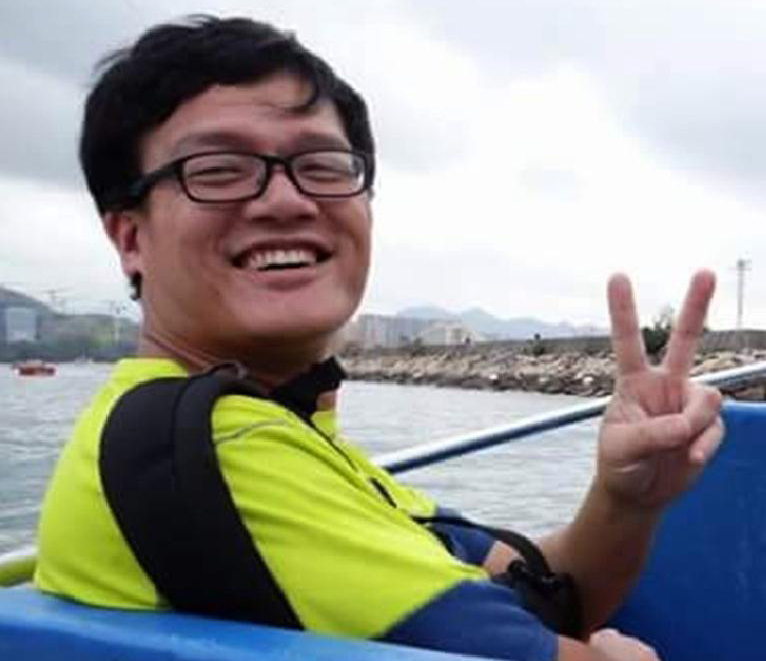
An active member of Hong Kong�s localist
movement was found dead on a hiking trail near Tai Mo Shan on Wednesday. The
deceased, 39-year-old Jacob Choi Wai-yik, had been missing for three days.
Johnny Wong Chi-yan, a friend of his, told HKFP that Choi went hiking every
Sunday: �He�s usually a responsible person. He will upload photos and
stories about the hikes afterwards to show he was safe, but he did not this
time.�
Choi�s employer noticed that he was missing
on Monday and went to his home in Chuk Yuen to look for him. His friends say
they did not search for him in the mountains that day due to the
poor weather. The following day, Choi�s employer filed a missing person
report. His friends also posted messages on social media in an attempt to
ascertain his whereabouts. Choi was known as an active supporter of localism
and democracy in Hong Kong. Chin Wan-kan, a professor at Lingnan University
and a leading figure in the localist movement, posted messages on his
Facebook page praying for his safety.
On Wednesday afternoon, Choi�s friends
posted messages saying that his body had been found. Wong said that Choi�s employer
had informed him of the news. A police spokesperson told HKFP that a
mountain search operation was mounted on Wednesday.
Fellow localist Ronald Leung Kam-shing,
spokesperson for the North District Parallel Imports Concern Group,
confirmed to HKFP that a body subsequently found in Tai Shek Stream belonged
to Choi. Leung said that members of the localist camp will go to the
location where Choi�s body was found to pay their respects on Thursday and
Friday.
(SCMP)
January 6, 2016.
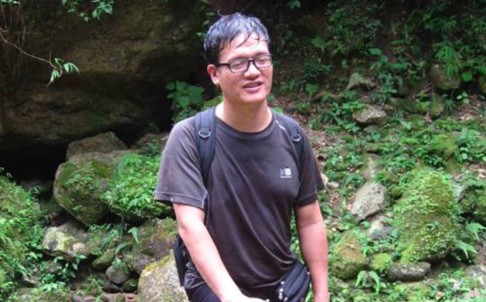
The dead body of local activist Jacob Choi
Wai-yik, who went missing after he went hiking on Sunday, was found in a
Hong Kong country park on Wednesday. The 39-year-old�s body was found by
hikers in a stream off Route Twisk in Tai Mo Shan Country Park shortly after
1pm, according to police.
On Wednesday police were yet to determine
if his death was suspicious or not. �An autopsy will be carried out to
ascertain the cause of the death,�a police spokesman said. He said officers
from the New Territories South missing persons unit were investigating the
case, which had been classified as �dead body found�.
On Tuesday evening, police made a public
appeal for information to find Choi after his employer filed a missing
person report with police on Monday. According to police, Choi went missing
after he left his Ta Kwu Ling home to go on a hike in Tai Mo Shan Country
Park in the western New Territories on Sunday morning. He was wearing a
yellow T-shirt and blue jeans and carrying a black rucksack when he left his
home.
Leung Kam-sing, spokesman for the North
District Parallel Imports Concern Group, said Choi was an active supporter
of localism and democracy in Hong Kong for many years and was also an avid
hiker. �He took part in protests against the �Internet Article 23�(the
controversial copyright bill), parallel traders and mainland mothers coming
to Hong Kong to give birth,� Leung said.
Hong Kong Youth Development Society January
2016.
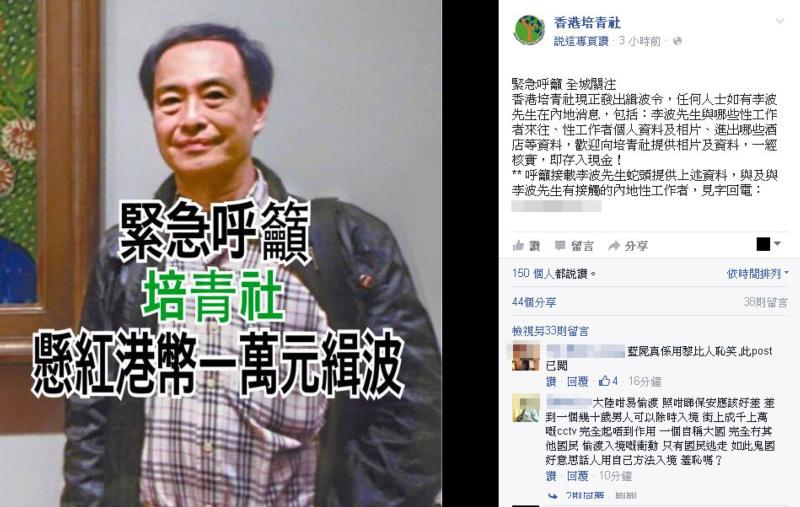
Urgent call to get the attention of
everybody in the city
The Hong Kong Youth Development Society has issued an all-points bulletin.
Anyone who has informatoin about Mr. Lee Bo in mainland China, including
which sex workers he interacts with, the personal information including
photos of those sex workers, the hotels where he stays at, etc, please
provide said information to the Hong Kong Youth Development Society. Once
verified, we will deposit $10,000 into your bank account!
We are calling on the smugglers who
picked up Mr. Lee Bo to provide the information. Any sex worker who has
interacted with Mr. Lee Bo should call XXXX-XXX.
Hong Kong Youth Development Society made
sarcastic posts.
Here is an example:
Hong Kong Youth Development Society January
5, 2016 .
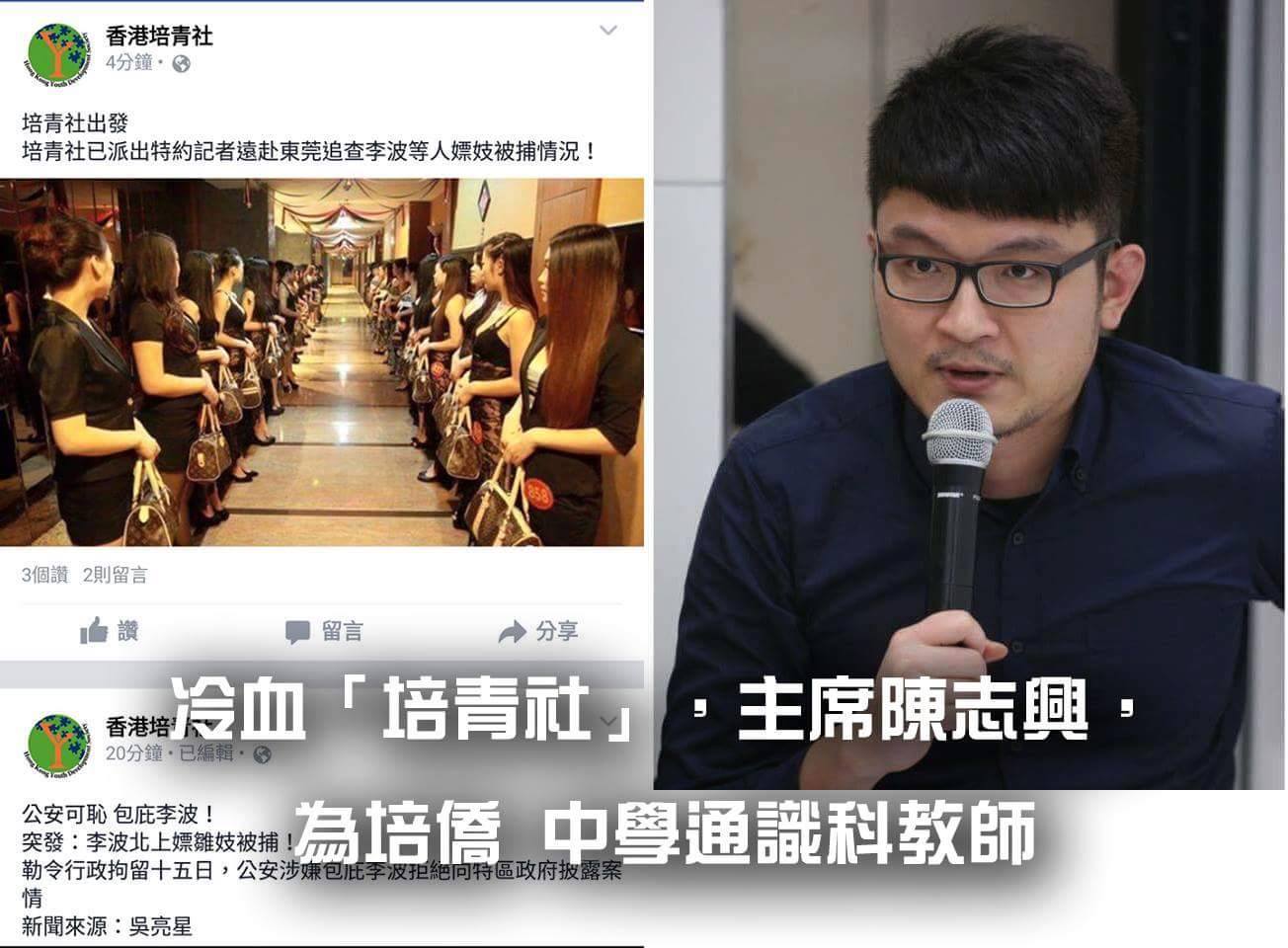
Hong Kong Youth Development Society has
dispatched its correspondent to travel afar to Dongguan to investigate the
situation of Lee Bo and others who were arrested for patronizing
prostitutes!
When Localists Jabob Choi went missing during
a hiking trip, his friends posted his photo and appealed to the public to help
find him. Hong Kong Youth Development Society came in with a sarcastic post.
Hong Kong Youth Society January 5, 2016
10:49am. Localist Choi Wai-yik is missing during a hiking trip. His friends
are posting his photo to ask for help to look for him.
Missing Person
Name: Jacob Choi Wai-yik
Age: 39
Height: 5'8"
Weight: Medium-heavy
Missing: Left home at 9am January 3 and went out of contact since
"Did the Chinese send agents to Hong
Kong to push him down the mountain? The Heavens have eyes".
Source: Apple Daliy
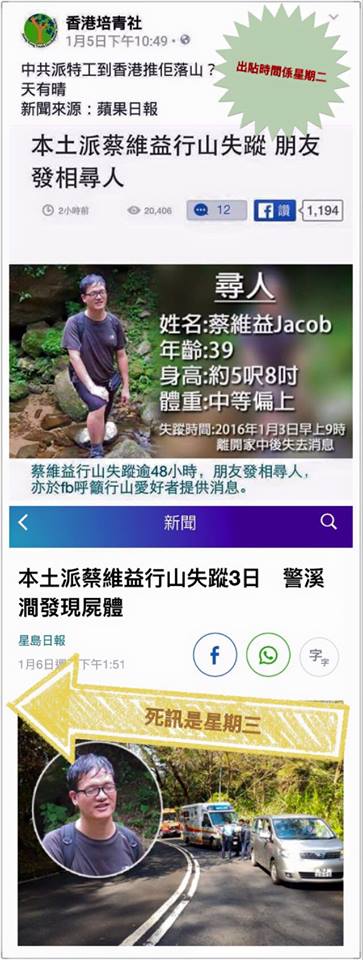
Sing Tao Daily: Localist Choi Wai-yik
missing on a hiking trip after three days; police found body in creek.
The death of Jacob Choi became the
pretext for an Internet battle against Hong Kong Youth Development
Society when the now deleted post is brought back out via screen captures.
Facebook user Wong Ka Chun then identified
the cold-blooded Hong Kong Youth Development Society's chairman as one Frankie
Chan Chi-hing, a Pui Kiu Middle School liberal studies teacher.
According to what the Hong Kong Youth
Development Society Facebook user told Hong Kong Good News Facebook, the
action began when they made fun of the pan-democrats magnifying the Lee Bo
incident in the absence of concrete evidence to put the blame on the Chinese
Communists. When Jacob Choi went missing, they also made a sarcastic post.
After the death of Choi became known, they deleted that post themselves, but not before
their enemies made a screen capture and reproduced the same page using the
same name and design on Facebook with fabricated inflammatory comments in
order to mislead unknowing Internet users to join together to lodge complaints
against the Hong Kong Youth Development Society Facebook. As a result, the
mainstream media and Internet users now know the Hong Kong Youth Development
Society only through the screen captures.
Real Hong Kong News
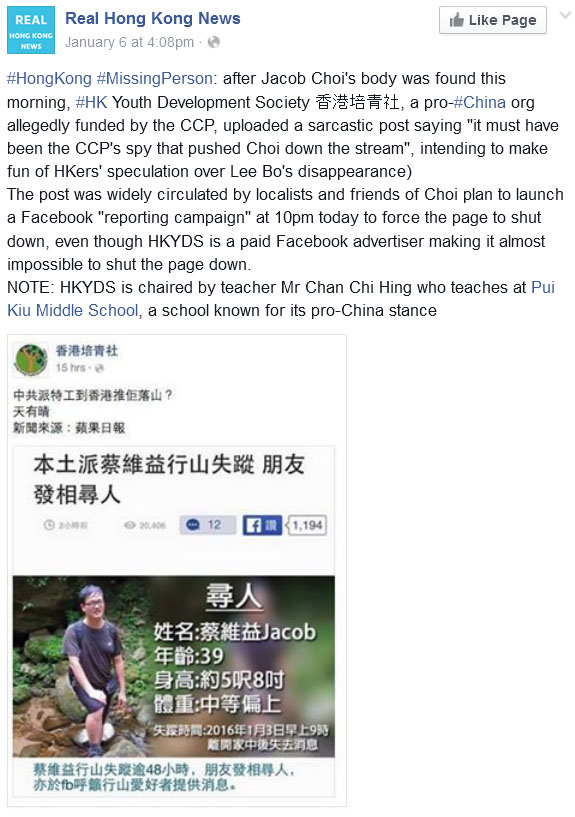
Here is the newly re-registered Hong Kong
Youth Development Society Facebook, with only 18 LIKE's and the photos of
Jacob Choi and Wong Yeung-tat (Civic Passion).
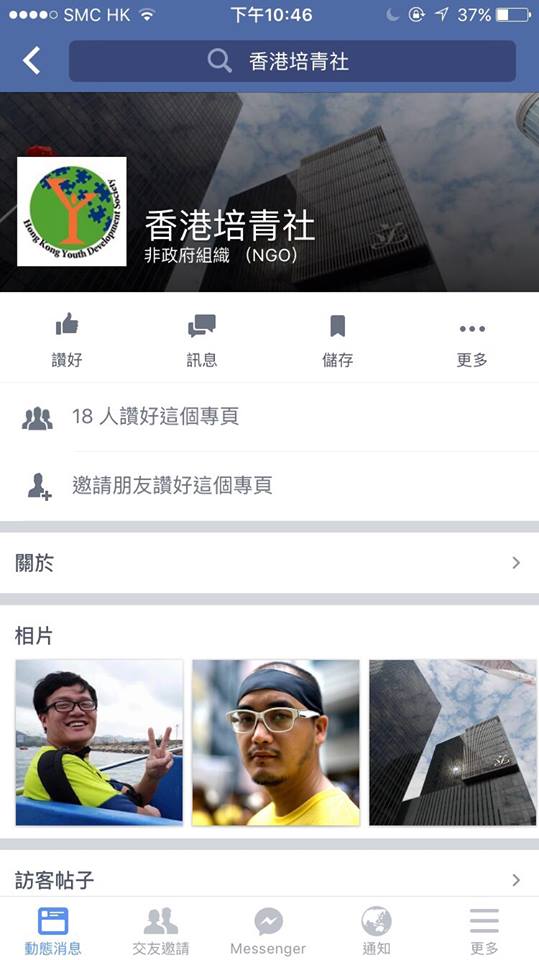
Passion Times:
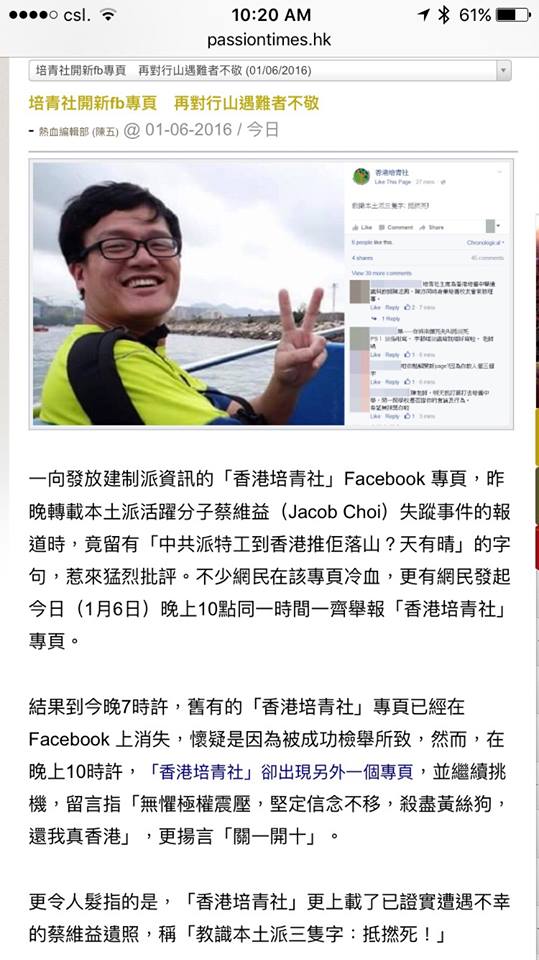
The pro-establishment Hong Kong Youth
Development Society Facebook posted on the death of localist activist Jacob
Choi and commented: "Did the Chinese send agents to Hong Kong to push him
down the mountain? The Heavens have eyes". Internet users are very upset,
and they plan to join together to lodge complaints against the Hong Kong
Youth Development Society Facebook page at 10pm on January 6.
By 7pm, the old Hong Kong Youth Development
Society Facebook page was gone, possibly because the complaints have
succeeded. At around 10pm, another Hong Kong Youth Development Society Page
appeared and continued to be provocative with the comment "Not scared of
authoritarian crackdown; our faith is unshaken; we will kill all the Yellow
Ribbons canines; give us back the genuine Hong Kong." They also promised
that if "one Facebook page is shut down, we will open 10 more."
Even worse yet, the Hong Kong Youth
Development Society uploaded a photo of the unfortunately deceased Jacob
Choi and said: 'Let me teach the localists these words: he fucking deserved
to die!"
Wong Yeung-tat (Civic Passion)
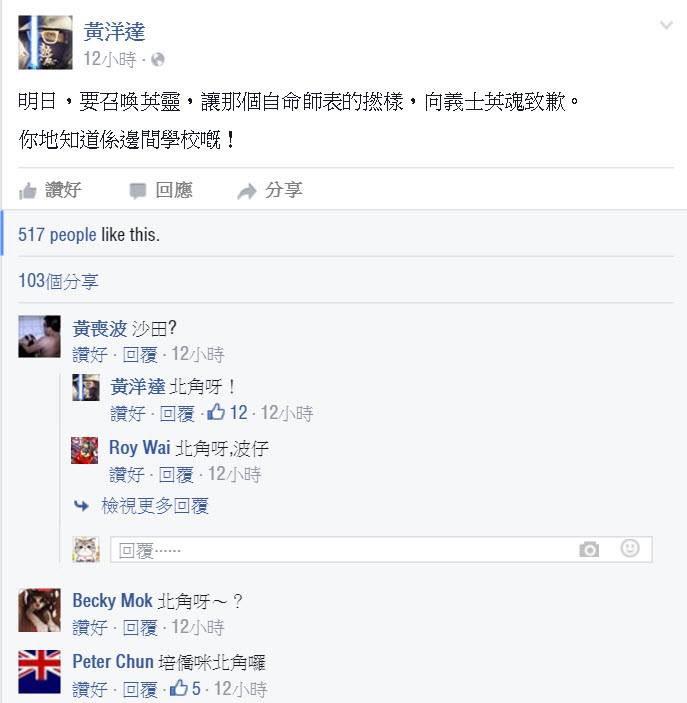
Tomorrow we will make that dickface
teacher apologize to the soul of the justice warrior.
You know which school!
Chan Chi-hing's Facebook (forgery?)
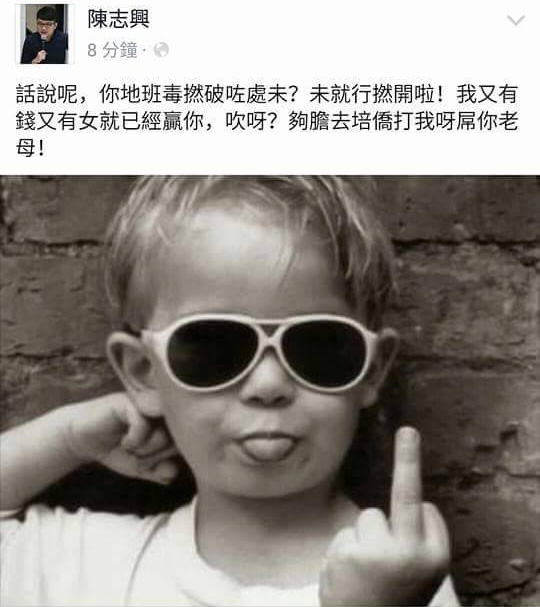
Have you dickheads lost your virginity
yet? If not, you should just fucking get lost! I am money, I have a girl,
and I have already been you? What can you do? If you have the guts, you can
come down to Pui Kiu and beat me up! I fuck your mother!
Solemn Statement from Frankie Chan
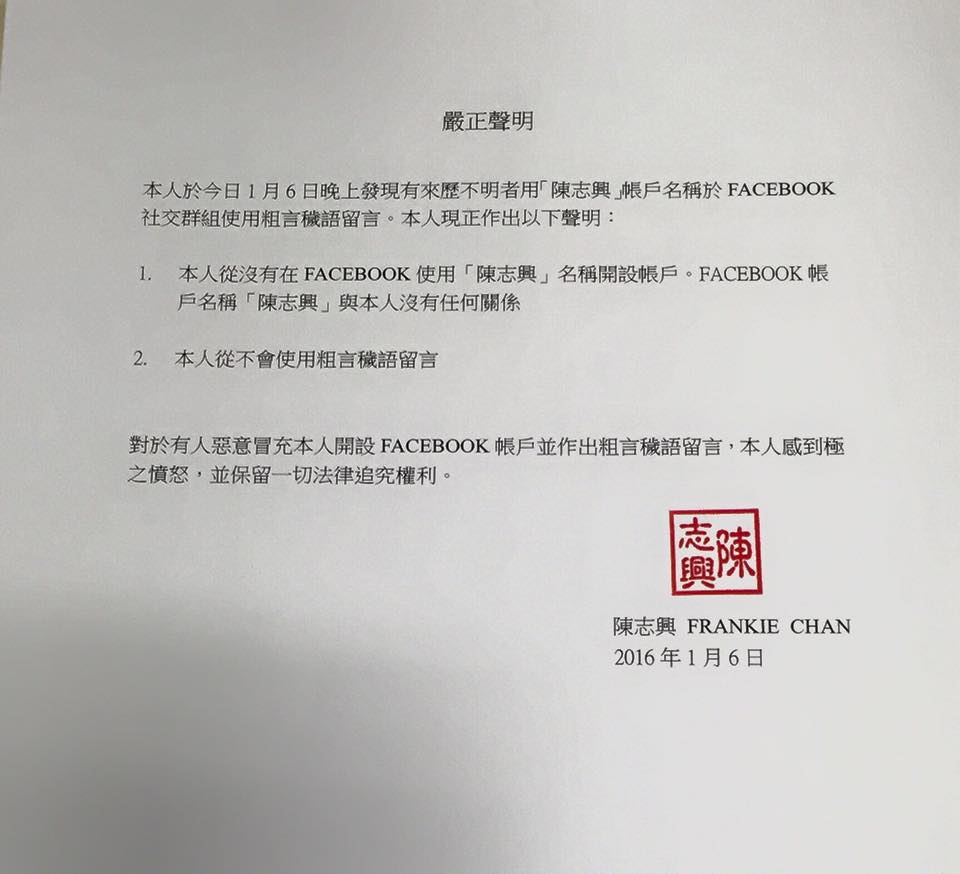
On the evening of January 6 today, I
found out that some unknown person has used "Frankie Chan" to open an
account on Facebook to leave obscene comments. I issue the following
statement:
1. I have never used the name "Frankie
Chan" ("Chan Chi-hing") to establish a Facebook account. The Facebook
account of the person named "Chan Chi-hing" has nothing to do with me
whatsoever.
2. I never use obscene language to post
comments.
I am extremely angry at the person who
maliciously used my name to establish a Facebook account and post obscene
comments, and I reserve the right to seek legal redress.
Frankie Chan
January 6, 2016
Another Statement from Frankie Chan
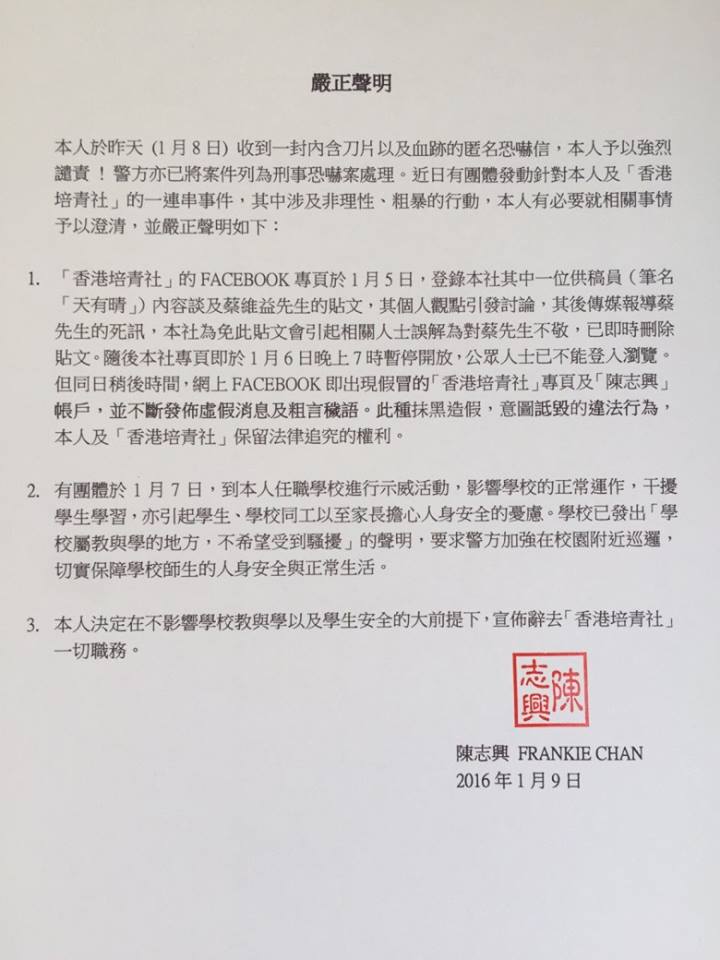
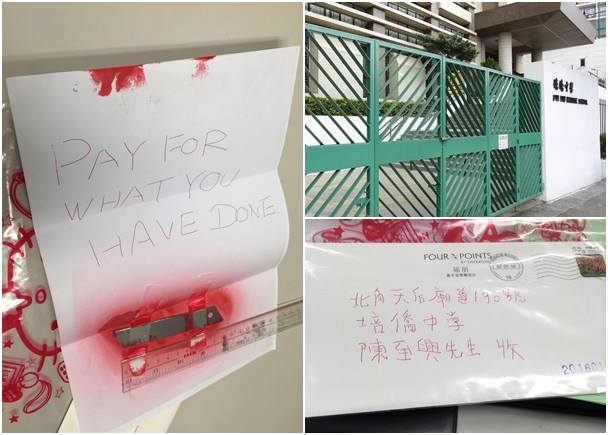
On January 8, I received an anonymous
threatening letter containing a red-ink-stained razor blade. I strong
deplore this! The police have accepted this as a case of threat ...
Statement from the Pui Kiu Middle School
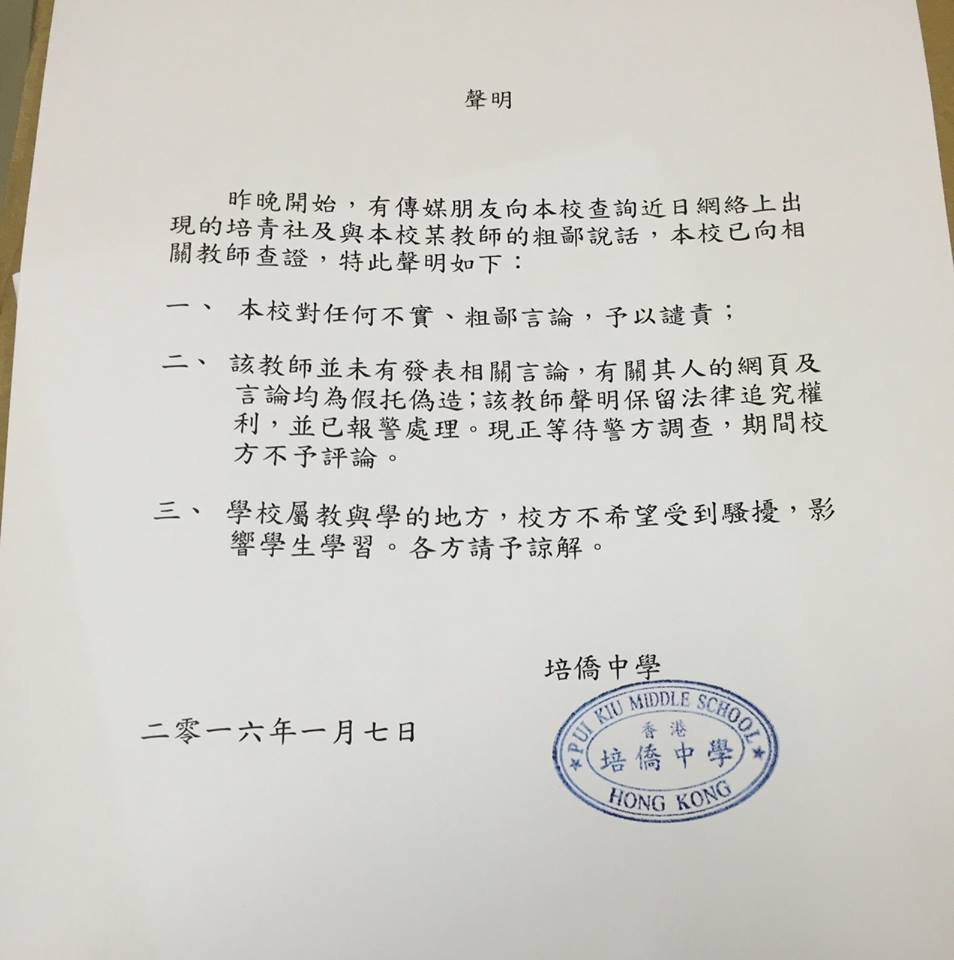
Since last evening, media friends have
asked about the foul language used by the Hong Kong Youth Development
Society and one of our teachers. Our school has checked with the particular
teacher. We issued the following statement.
1. Our school condemns all forms of
untruthful and vulgar language.
2. That particular teacher did not
make the relevant comments. The Facebook page and the comments were
fabricated. That teacher reserves the legal right to pursue the matter,
and has already filed a police report. While the police investigation is
going on, our school will make no further comments on the case.
3. A school is a place to teach and
learn. Our school does not want to be disturbed such that the students'
learning is affected. We ask for the understanding of all sectors of
society.
January 7, 2016.
Hong Kong Youth Development Society short
statement via Salute to Hong Kong Police Facebook
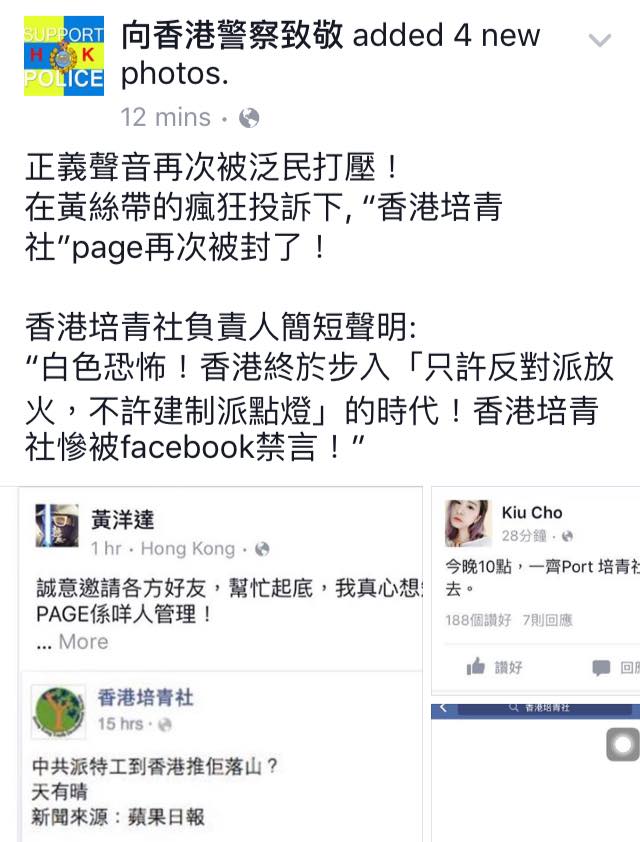
White Terror! Hong Kong has finally
stepped into the eras in which "only the anti-government forces are allowed
to set fires, but the pro-establishment forces cannot even light up
lanterns! The Hong Kong Youth Development Society page has just been cruelly
banned by Facebook!"
(Wen
Wei Po) January 8, 2016.
Screen captures of a certain Chan Chi-hing
were circulated recently on the Internet, including comments made by this
Chan person: "If you have the guts, you can come to beat me up at Pui Kiu! I
fuck your mother!" and "I can even fucking your cunt too!" The purpose was
to make people think that the commentator is Pui Kiu Middle School liberal
studies teacher Frankie Chan Chi-hing who is the chairman of the Hong Kong
Youth Development Society. Although Chan Chi-hing came out to say that he
had never opened a Facebook under that name and he does not use obscene
language, Civic Passion ignored his words and called Internet users to
demonstrate today at the Pui Kiu Middle School.
Because the Hong Kong Youth Development
Society Facebook had said about the death of Jacob Choi with "Did the
Chinese Communists send agents to push him down the mountain? The Heavens
have eyes," everybody treats this was a problem with Chan Chi-hing. The
demonstrators showed up just after 2pm, and they took out candles and ghost
moneys to pay tribute to Jacob Choi outside the school. Although the police
were there to maintain order, Cheng Kam-mun and others threatened the school
that unless a representative comes out before 4pm to explain the Chan Chi-hing
affair, the demonstrators will announced that the assembly is over and that
the participants may engage in "spontaneous actions."
So the school principal Chiu Cheung-kei
came out to explain the incident and the school's position. Chiu was
interrupted repeatedly during his speech. They told him that he was lying,
that he should shut up and that he must burn some joss sticks to pay his
respect to the deceased person. Chiu ignored them. When he saw that they had
no other questions and that they won't even identify themselves, he turned
around to leave. The demonstrators called him trash and told him that he
can't leave. The hubbub continued until around 5pm.
Chiu said that he was frustrated with the
noisy racket outside his school, and about the effects on his students as
well as residents in the neighborhood. Chiu thought that Cheng Kam-mun's
insistence that he offered joss sticks shows an indifference to other
people's religious beliefs and an intent only to embarrass and humiliate
others. He said that the school was not an appropriate location for such an
activity.
Videos at Pui Kiu Middle School on January
7, 2016
https://www.facebook.com/HongKongGoodNews/videos/1006277272779542/
Civic Passion speaker preaching about morality, ethics and character
https://www.facebook.com/HongKongGoodNews/videos/1006246076115995/
Part 2. Civic Passion waiting outside the school for things happen,
including one guy practicing sword strokes with a bamboo stick.
https://www.facebook.com/HongKongGoodNews/videos/1006270809446855/
Part 3. Civic Passion chanting slogans outside the school with megaphones.
Inside the school, the students are studying in preparation for exams.
https://www.facebook.com/HongKongGoodNews/videos/1006288206111782/
Part 4. Civic Passion outside the Pui Kui Middle School making a lot of
noise
https://www.facebook.com/HongKongGoodNews/videos/1006342026106400/
Part 5. Civic Passion at Pui Kui Middle School. Cheng "Four-eyed Brother"
Kam-mun refused to tell his name to the school principal Chiu Cheung-kei.
Passion Times
https://www.youtube.com/watch?v=_T109S2W-sA Denouncing Chan Chi-hing
etc
https://www.facebook.com/passiontimes/videos/1026579704071863/
Slogan chanting
Internet comments:
- Who is exploiting whom to eliminate
enemies?
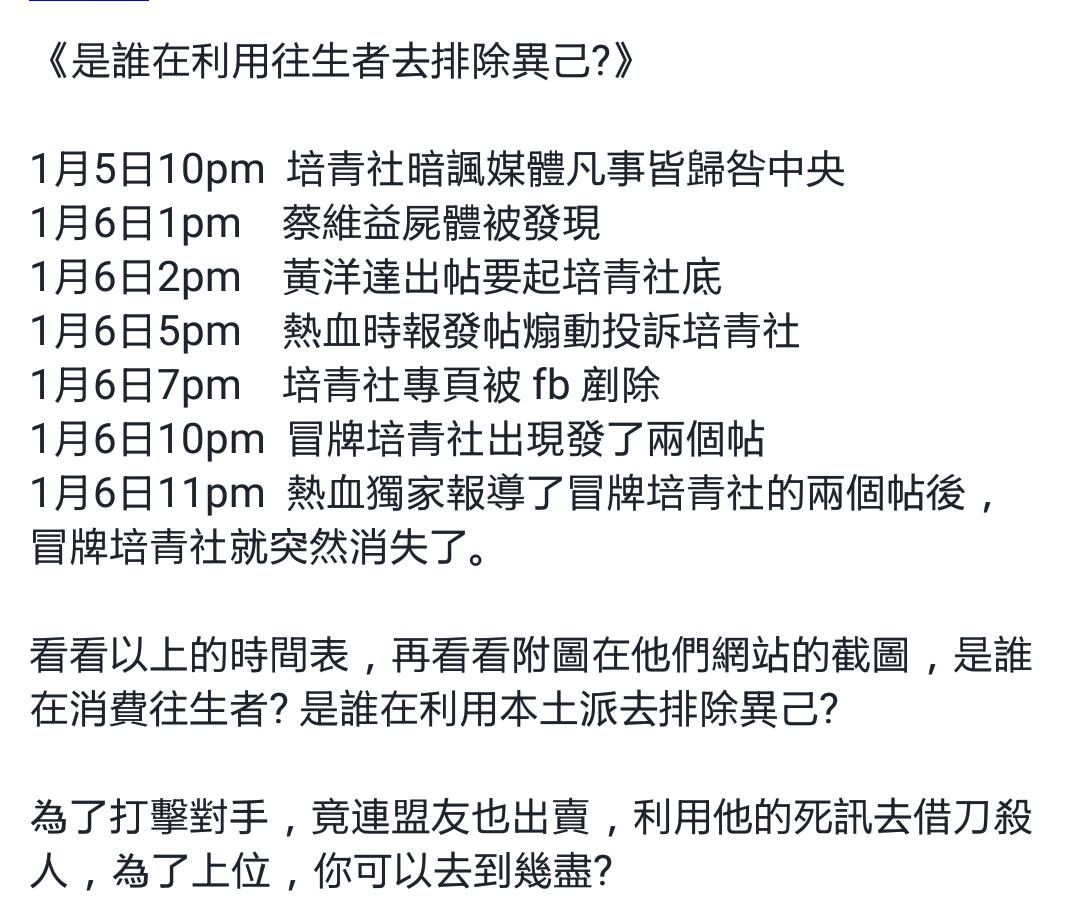
Timeline of events:
January 5 10pm: Hong Kong Youth
Development Society heaps scorn upon the media for blaming everything on
the Chinese Communists
January 6, 1pm: The body of Jacob
Choi was found
January 6, 2pm: Wong Yeung-tat
(Civic Passion) wants to uncover who is behind the Hong Kong Youth
Development Society
January 6, 5pm: Passion Times starts
a campaign to lodge complaints to Facebook against Hong Kong Youth
Development Society
January 6, 7pm: Hong Kong Youth
Development Society's page was removed by Facebook
January 6, 10pm: A contraband Hong
Kong Youth Development Society Facebook page emerges with two posts
January 6, 11pm: Passion Times made
exclusive reports on the two posts on the contraband Facebook and then
the contraband Hong Kong Youth Development Society Facebook suddenly
vanishes
Based up on this timeline and their
websites, who was exploiting the dead person? Who is using the Localists
to clear out enemies?
In order to strike at the enemies,
they were willing to sell out their ally by using his death to attack
their own enemies. How far will they go?
- Which do you think is more likely to
happen?
[ ] The Professional Teachers Union will
condemn the thugs who tried to disrupt teaching and learning at a middle
school based upon false information
[ ] The Professional Teachers Union will
maintain a deafening silence on this matter of education
[ ] The Professional Teachers Union will
condemn the Pui Kiu Middle School for not immediately firing the teacher
who used obscene language on Facebook
- If you are willing to defend the right of
foul-mouthed teacher Alpais Lam
Wai-Sze
(she even has her own page at the
South China
Morning Post) to your death, then why aren't you willing to do the same
for Frankie Chan?
Video: Alpais Lam says to a
police officer: "Fuck
your mother!" She denies that she said that.
- Is it acceptable to celebrate somebody's
demise? Here is Hong Kong Indigenous' Ray Wong opening a bottle to champagne
to celebrate the death of leftist Yeung Kwong. So it must be okay, right?
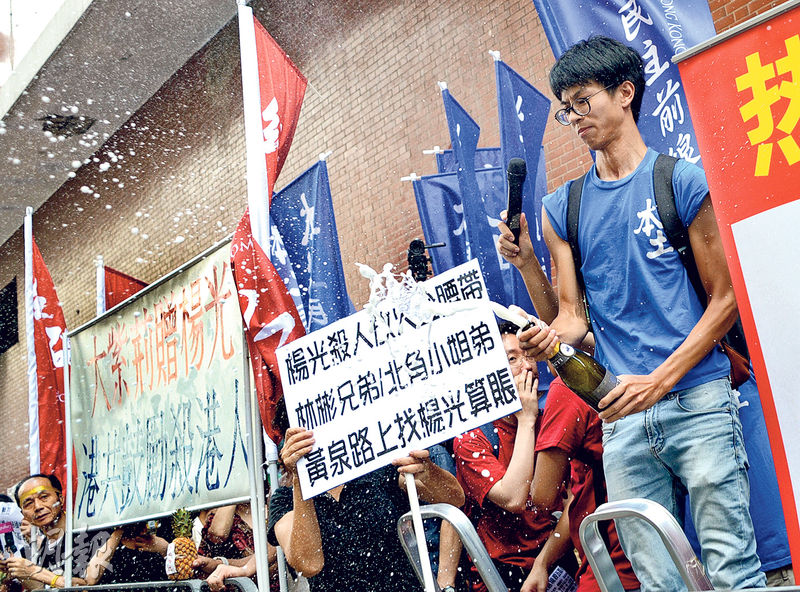
- All sorts of rumors are swirling around
Lee Bo and his fellow booksellers. What about Jacob Choi, given the state of
his body (photo:
Oriental Daily)?
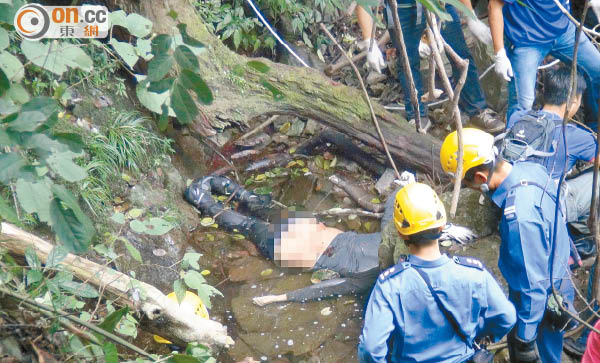
- The Hong Kong Youth Development Society
people are graduates from the Pui Kiu Middle School, and so too is Lee Bo!
(SCMP)
January 5, 2016.
Choi Ka-ping, the wife of Lee Bo, one of
the missing booksellers ... did not comment on allegations today at a
Legislative Council meeting by lawmaker Ng Leung-sing that Lee Bo, along
with his four associates, had surreptitiously crossed the border to the
mainland to seek out prostitutes.
Pro-government lawmaker Ng
Leung-sing said a friend of his had sent him a message which alleged the five
missing booksellers were caught by mainland officers while having fun with
prostitutes. The finance-sector lawmaker even alleged that mainland officers
recorded video as �evidence�. Ng claimed that Lee Bo�s wife Choi Ka-ping
withdrew the request for police help because she received the evidence. His
remarks sparked a storm of criticism, with Labour Party lawmaker Cyd Ho saying
Ng was framing Lee.
Here is what Ng Leung-sing said (dbc
@YouTube):
Ng Leung-sing: Chairman, this is
about the matter of the Causeway Bay Books that was just mentioned. I just
received a message from an old friend who is very concerned about this matter.
As was said before, even the business community is concerned. My old friend is
very concerned. He forwarded a passage over. I wonder if the Legislators will
withdraw their words after they listen to this.
"Five guys were rumored to have
taken the sex speedboat to seek prostitutes on mainland. They were arrested by
the public security with videos evidence. Lee's wife has received photos from
the scene of arrest. As angry as she was, she had to go to the Hong Kong Police
and withdraw her report. However, the Hong Kong Security Department insisted on
the police continuing their investigation to make sure that nobody smears the
China Liaison Office and the truth is uncovered.
In his letter to his wife, Lee Bo
said that he used "his own method" to take care of business in mainland China.
Why is "his own method"? That means crossing the border illegally? How do you
cross the border surreptitiously? Every connoisseur knows that there are
nighttime speedboats leaving from Aberdeen or Cheung Chau to Guishan Island or
Outer Lingding Island. There won't be any records of entry on the Home Visit
Permit. Even people who are blacklisted can come and go as they please. If the
police check with the Immigration department, the response would be NO RECORDS."
I am going to stop here. If
someone objects ... let me simplify this. If there is something like the above
... whether this is what reporters are reporting over the past several days, or
information that is being passed around ... if these have not been verified, if
we investigate everything, then would the family of Mr. Lee think that we are
intruding into his private life? I don't know if our legislators (including
Legislator Emily Lau) have asked Mrs. Lee. If she agrees, we can go ahead. If
she disagrees, we will be violating others ... I think that if we open a
hearing, it would be very dangerous here. Alright?
The post that Ng Leung-sing was
referring to has been seen by many people in Hong Kong.
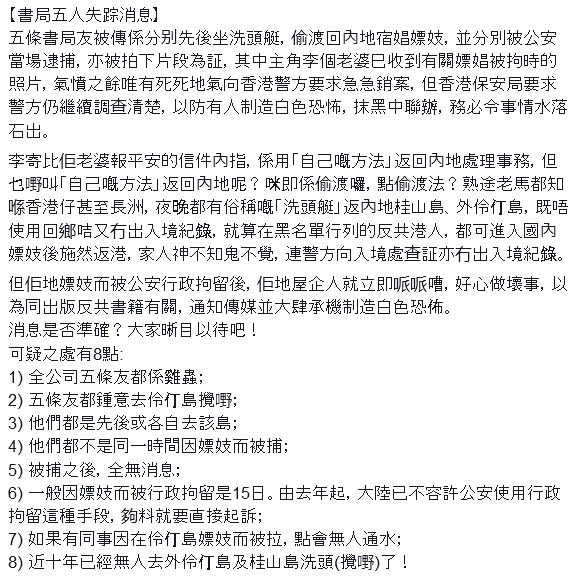
[The Case of Five Missing
Booksellers]
Five guys were rumored to have
taken the sex speedboat to seek prostitutes on mainland. They were arrested by
the public security with videos evidence. Lee Bo's wife has received photos from
the scene of arrest. As angry as she was, she had to go to the Hong Kong Police
and withdraw her report. However, the Hong Kong Security Department insisted on
the police continuing their investigation to make sure that nobody smears the
China Liaison Office and the truth is uncovered.
In his letter to his wife, Lee
Bo said that he used "his own method" to take care of business in mainland
China. Why is "his own method"? That means crossing the border illegally? How do
you cross the border surreptitiously? Every connoisseur knows that there are
nighttime speedboats leaving from Aberdeen or Cheung Chau to Guishan Island or
Outer Lingding Island. There won't be any records of entry on the Home Visit
Entry. Even people who are blacklisted can come and go as they please. If the
police check with the Immigration department, the response would be NO RECORDS.
After they are arrested, their
families raised some noise because they thought it had to do with publishing
anti-Communist books and they contacted the media to create a White Terror.
Is this rumor accurate? Let's
wait and see.
There are 8 suspicious points
about this story:
1. All five guys at the company
are lusty fellows;
2. All five guys go to Outer Lingding Island to get sex;
3. They all went one after another to Outer Lingding Island;
4. They were all arrested at various times for patronizing prostitutes;
5. There was no news about them after the arrests;
6. Most prostitution cases result in a 15-day administrative detention. As of
last year, the public security bureau can no longer use administrative detention
as all suspects must be directly prosecuted;
7. If an office colleague is arrested in Outer Lingding Island for patronizing
prostitutes, shouldn't the news go out to other colleagues?
8. Almost nobody goes to Outer Lingding Island and Guishan Island to visit
prostitutes in the last ten years.
Background: (Sing
Tao) Sex industry in Outer Lingding Island (Zhuhai). August 13, 2013.
In the late 1990's, Guishan Island
and Outer Lingding Island were known as Sex islands. Many johns wanted to
patronize prostitutes in mainland China without their wives' knowledge. In those
days, the Home Visit Permits were in passport form, where every entry/exit is
stamped. The wives can check the Home Visit Permits and see when their husbands
were in China. So many of the johns took the speedboats from Aberdeen operated
by Hong Kong triad gangs to go to Guishan Island and Outer Lingding Island and
visit the karaokes bars and massage parlors, or even keeping mistresses there.
The point was that a Home Visit Permit was not required to land on those
islands. Eventually both the Hong Kong and mainland authorities cracked down on
the surreptitious traveling. Nowadays, johns from Hong Kong are scarce on these
islands, although some Hongkongers still go there to fish.
- (Kinliu)
Nowadays the sex industry is extinct on Outer Lingding Island. Instead, there is
only seafood dining, fishing, vacationing plus cheap cigarettes. If you travel
by speedboat from Aberdeen to Outer Lingding Island, there is still no
Immigration Department people who check or record your Home Visit Permit. From
Outer Lingding Island, you can take the twice-a-day ferry to Xiangzhou (in
Zhuhai city) and you can also land without passing through immigration check.
This is a well-known method of traveling in and out of China without the
authorities' knowledge.
- (Headline
Daily) According to Mr. Fung, a 300 horse-power speedboat with six
passengers can be hired for HKD 1,500 for the 15-minute trip between Cheung Chau
or Aberdeen to Outer Lingding Island. The 30-minute trip to Guishan Island costs
HKD 2,000.
(SCMP)
January 6, 2016
Pro-government lawmaker Ng Leung-sing
apologised on Wednesday for repeating an unsubstantiated online rumour that
the missing bookseller Lee Bo and his four associates were caught by
mainland officers while having fun with prostitutes, but Lee�s wife rejected
the gesture. Yet Ng insisted that his aim was to provide another theory for
the disappearances of the five Hong Kong booksellers.
Ng read out a message from his friend at a
Legislative Council meeting on Tuesday afternoon, saying the Hong Kong
bookseller Lee Bo and his four associates had taken a boat to go to the
mainland and hire prostitutes there. The message also was circulated in
social media.
The finance-sector lawmaker even alleged
that mainland officers had recorded video as �evidence�. Ng claimed that
Lee�s wife, Choi Ka-ping, had withdrawn her request for police help because
she had received the evidence.
On Wednesday Ng apologised to Lee and Choi
for alleging that the five had sought prostitutes in the mainland before he
was able to verify the claim. He had wanted to share the full message he had
received.
�I could not cut short the information I
got. I solemnly apologise to Mr Lee and Mrs Lee for mentioning the part
involving moral issues without verification,� Ng said.
Asked for her response to the apology, Choi
said: �I do not accept it.� She told members of the media gathered outside
her home that she was not feeling well and did not answer questions asking
about her husband�s whereabouts or about his reported British citizenship.
Ng�s accusations sparked a storm of
criticism, with People Power lawmaker Raymond Chan Chi-chuen saying: �You
will get hit by lightning walking on the street by making such accusations.
Those are just internet rumours. Even if [Ng] disappeared one day, I would
not believe in internet rumours that he got caught while having fun with
prostitutes.�
Ng on Wednesday said he had wanted the
public to have another perspective as rumours were circulating. He said he
was referring in particular to claims that the missing people were arrested
by mainland police in the city and then taken across the border.
�That is to let [people] know about a means
of leaving Hong Kong � that is, the so-called �hair washing� boat,� Ng said
on Wednesday. He said he wanted to honour the public�s right to know and he
felt it a legislator�s duty to tell them what he knew.
Hong Kong Journalists Association
chairwoman Sham Yee-lan said the media reports on the disappearances of the
five were based on the people involved and supported by analysis from
mainland experts. However, she said the claims mentioned by Ng were
unverified and had caused injury to the five.
Ng�s apology came after Choi lashed out at
him on Tuesday evening, describing his comments � made under Legislative
Council privilege � as �shameful and irresponsible�. �I reserve the right to
legal action against Ng Leung-sing for slander,� she wrote in a message.
�Not only have his comments seriously hurt me, but to say such irresponsible
things at a solemn Legislative Council meeting is making a fool out of the
Hong Kong people. Would anyone cross the border illegally to seek out
prostitutes in mainland China?�
(Hong
Kong Free Press) January 11, 2016.
The column of missing publisher Lee Bo�s
wife has been suspended in the pro-Beijing newspaper Ta Kung Pao. A short
notice was published in the newspaper on Sunday saying the Choi Ping column
was suspended with immediate effect.
The column published in the
newspaper�s supplement page Small Park is credited to Syu Fei, the pen name
of Sophie Choi Ka-ping, wife of the missing bookseller Lee Bo. Choi has been
writing for the newspaper for 20 years.
Choi wrote about culture and daily life for
the column, which was rarely political. Her last piece on January 8 was on
the the popular British drama Downton Abbey and the Taiwanese film Murmur of
the Hearts.
�The column was suspended and not
cancelled� she has a good relationship with us. She told her editor before
the news of [Lee Bo�s disappearance] was known by the public at the end of
December,� said the woman in charge of the supplement, Miss Kwan, who
declined to give her full name. �We did not know what happened by then. She
did not tell her editor why as it was not convenient. Only that she had
something urgent to handle and could not write in January, and that we
should arrange someone to take her place temporarily,� she said.
Kwan told HKFP that Choi is a �responsible
writer� and that her articles they previously had on file could only last
until January 6, but that she had submitted a final piece that ran January
8.
Internet comments:
- If you check what Ng Leung-sing
actually said, you realize that his point was this:
There have been plenty of media
reports as well as Internet posts on this matter. Much of the information is
unverified, based upon:
"we heard that ..."
"the word around is ..."
"we heard a rumor about ..."
"there is speculation that ..."
"it is common knowledge that ..."
"a veteran China hand believes that ..."
"a Chinese current affairs commentator says ..."
"a person familiar with the publishing industry says ..."
"a post being circulated around the online forums says ..."
Sometimes the reports are even in
conflict with each other, so that they can't all be true simultaneously and yet
there is no way to choose one over the other on any objective basis.
Under such circumstances, it is
meaningless to summon people to testify at a Legislative Council hearing. Those
who are willing to talk probably only want to promote political agenda, while
those who might know may not even want to see such a hearing take place.
The Legislative Council cannot
afford to waste time doing such things. They can hold a hearing when there is
some material evidence of wrongdoing.
- The point is the Ng Leung-sing
did not imply that the contents of the message were true. His point was that
this was nonsense, just like much of the mainstream media reporting!
- Illustrative example from
Progressive Lawyers Group (via
The Stand News):
Recently, a number of newspapers reported
that another co-owner of Causeway Bay Books has gone missing. Causeway Bay
Books is known for publishing and selling books banned in Mainland China.
Within the past three months, five of its co-owners or managers have
successively gone missing. What differs from previous incidents in which
persons have gone missing is that in this case, contact with Mr. Lee Bo
was lost within, and not outside Hong Kong.
The reports further indicated that Mr.
Lee was taken away by individuals of unknown identities after working in a
godown facility in Chai Wan. Employees of the bookstore indicated that
on the evening of Mr. Lee's disappearance, they received two calls from
Mr. Lee indicating that he was "safe", and in both cases the caller
identification was a Mainland China number. Therefore, there is reason to
believe that Mr. Lee was no longer in Hong Kong, and was in Mainland
China. Subsequently, the North Point Police Station confirmed that a
report was made by a Ms. Choi that she had lost contact with her husband
Mr. Lee. The report was characterised as a "missing report" case, and was
assigned to the Hong Kong Island Regional Missing Persons Unit for
investigation. Thereafter, when police officers went to Mr. Lee's
residence to investigate, they discovered that Mr. Lee's Home Return
Permit was still at his residence in Hong Kong, and moreover there was no
immigration record of Mr. Lee leaving Hong Kong.
If the above were true, it would
undoubtedly be yet again another violation of the Basic Law.
...
The business about Mr. Lee being
"taken away by individual of unknown identities" is fiction written by a
reporter. There is no objective (e.g. surveillance video) or subjective (e.g.
eyewitness) evidence. The known facts are from an authoritative source (the Hong
Kong Police) is that Mr. Lee left by himself in the freight elevator of the
industrial building as recorded by the surveillance cameras. Reporters also
asked around nearby buildings and were told that the police had come around to
check their surveillance videos. But those sources declined to say what (if
anything) the police were looking for or found. If someone knows something about
Mr. Lee being "taken away by individual of unknown identities," they should
contact the Missing Person Bureau immediately.
It would be interesting to get
that reporter to come to the Legislative Council and ask to explain how he
learned that Mr. Lee was taken away by individuals of unknown identities. Will
he actually say: "I made it up" or "I guessed" or "Everybody knows that it must
be true ..."? Of course, he won't. He will say that he has to protect his
source(s).
- Here is an example of more rubbish from
the mainstream media and politics:
(Apple
Daily, January 4, 2015)
Yesterday, the Alliance to Support
Patriotic Democratic Movements in China disclosed that Lee Bo may have
been kidnapped by the Chinese public security bureau because he was
planning to publish a book on the romantic history of president Xi Jinping.
The Alliance will hold a demonstration march next week to protest at the
China Liaison Office and to lodge a complaint with the United Nations
Human Rights Commission.
At the press conference yesterday,
Alliance chairman Albert Ho (Democratic Party) said: "I heard that Lee Bo
has a new book about Xin Jinping's lover in his youth period. People told Lee Bo
not to publish it." But Lee Bo was disappeared even before the book was
published. Ho said that this was a political kidnapping, although he has
no idea about the connection with the other four missing persons. He said
that the mainland authorities were unhappy with their publications and
therefore they are now missing for political reasons ...
Once one politician's speculation is
published in a newspaper, it is taken as fact. For example:
(Hong
Kong Free Press) The missing booksellers: if we let this go, will
Hong Kong still be Hong Kong? By Elizabeth Lui. January 7, 2016.
According to Albert Ho, a legislator in
Hong Kong, the Bookstore was planning to publish a book concerning the
private life of President Xi Jinping, and was advised not to do so.
- Claudia Mo (Civic Party): Ng
Leung-sing said at the Security Affairs Committee meeting: "The five bookstore
guys went north to patronize prostitutes!" How can a person be so vile!!
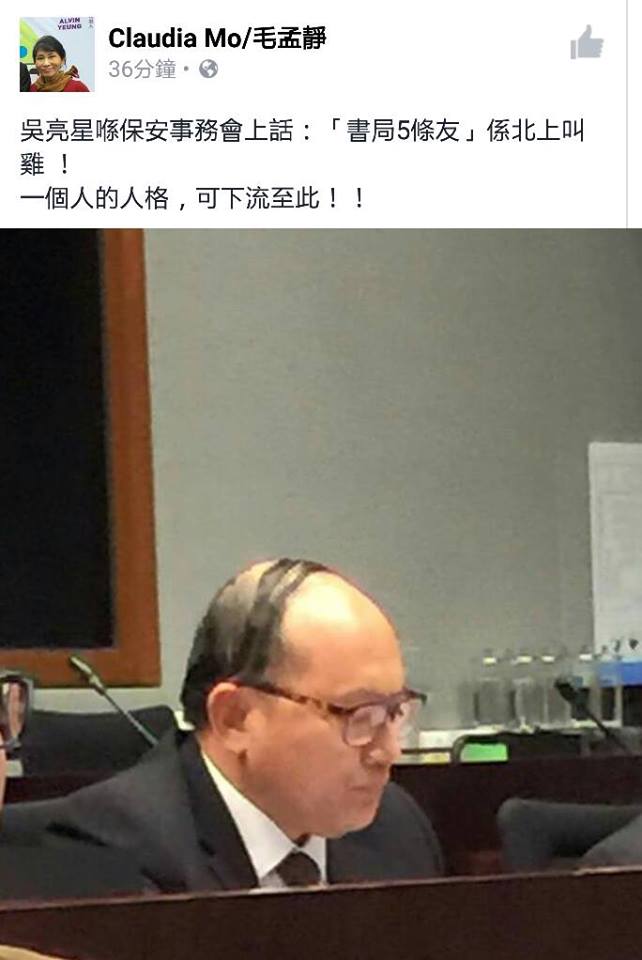
- Born In A Time of Chaos Facebook

[Your daddy went north to patronize prostitutes]
January 5: Quoting Legislative Councilor Claudia Mo: Ng Leung-sing said that the
five bookstore guys went north to patronize prostitutes but were not arrested by
the public security bureau!
When he can say something like this, a man will be unbeatable if he has no
shame!
- (Ming
Pao) Mrs. Lee Bo responded with a text message to our reporter: "I
reserve the legal right to hold Ng Leung-sing responsible for this insult. This
person's words are surprising shameless to say something as irresponsible as
this in a solemn place such as the Legislative Council. Apart from this hurting
me severely, does he think that Hongkongers are fools? Would anyone cross the
border surreptitiously to patronize prostitutes?"
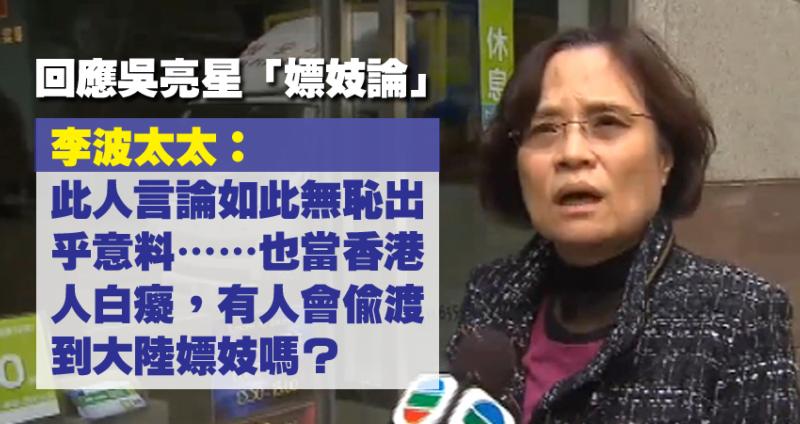
-
CAP 382 Legislative Council (Powers and Privileges) Ordinance: Section 4: Immunity from legal
proceedings: No civil or criminal proceedings shall be instituted
against any member for words spoken before, or written in a report to,
the Council or a committee, or by reason of any matter brought by him
therein by petition, Bill, resolution, motion or otherwise.
- If the law is on your side, you pound on the law. If the law is on your side,
you pound on the desk. If the desk is not on your side, you file a
judicial review (paid for by Legal Aid) on CAP 382.
- By the own admission of Lee Bo
and by industry consensus, the business of "banned political books" is one huge
smear job on Chinese state leaders.
- (Passion
Times) As of 5pm January 6, the Communications Authority has received
more almost 4,000 complaints against TVB for broadcasting Ng Leung-sing's speech
without saying that there is no verification of the information source.
- (SCMP)
The Communication Authority received 4,000 complaints as by 5pm on Tuesday�a
number which grew to 7,000 the following day. A spokesperson told Apple Daily
that the majority of complaints said the news was �unverified, biased and
misleading� and made personal attacks on those concerned. TVB CEO Mark Lee Po-on
later told Ming Pao that he did not feel the station did anything wrong.
- What is the Journalists Association's response on this mass attack on freedom
of press/editorial independence?
- 7,000 out of a population of 7,000,000 means 0.1%. If a television
channel only gets a 0.1% audience rating, it will be out of business.
- (TVB)
January 6, 2016.
Ng Leung-sing: "I quoted the
contents of a text that a friend forwarded to me, which I presented for
everybody's consideration from a right-to-know angle. But I was unable to detach
the content of the text, which concerns a moral issue with Mr. Lee. Here I
solemnly apologize to Mr. and Mrs. Lee for mentioning an unconfirmed moral
issue, because I was unable to detach the content. Therefore I am apologizing."
Also: "But I can say that many
opposition legislators have frequently said that the state has sent police
officers over here to enforce the law. They were saying something very
irresponsible in this very solemn place. I don't want to compare with them. But
I believe that such situations occur frequently at the Legislative Council."
- (EJ
Insight) January 6, 2016.
On
Tuesday afternoon, pro-Beijing lawmaker Ng Leung-sing told a Legislative
Council meeting that sources had told him that Lee and four other people
had been arrested by mainland law enforcers for consorting with
prostitutes. He said according to the rumor, Lee�s wife got hold of �photo
evidence� about her husband�s dealings and subsequently withdrew her
report to the Hong Kong police that her husband had been missing. Ng later
apologized after his remarks drew the public�s ire.
It
seems that Beijing is conditioning the public mind that the five missing
men were involved with mainland prostitutes in violation of mainland laws.
It is likely that the Lee Bo case will gradually fade out of the public
attention, especially if the issue about the mysterious circumstances
behind his disappearance is not sustained.
As
such, it is important for the British government to show that they still
have a responsibility to ensure Hong Kong�s autonomy under the Joint
Declaration. Article 5 of the Basic Law clearly states that �the way of
life [in Hong Kong] shall remain unchanged for 50 years�. But this early,
the city�s most cherished values such as freedom of expression and the
rule of law are under threat, so much so that the bookstore chain Page One
decided to remove popular but sensitive titles from its shelves.
Fear
is upon us, but we cannot expect Britain, who is now bent on wooing
China�s investments, to take up the cudgels for us. We can only depend on
ourselves.
- (Kinliu)
January 7, 2016.
At the Legco Security Affairs Committee
meeting, legislator Ng Leung-sing opposed a special hearing on the matter
on the disappearance of Causeway Bay Books shareholder Lee Bo on the
grounds that the situation is not clear yet. He quoted a rumor that was
forwarded by a friend, which alleged that Lee Bo and the other four took
the "shampoo speedboat" to patronize prostitutes on the mainland. Ng was
roundly criticized.
It is debatable whether Ng should be
publicly citing an unverified rumor, but he was willing to accept
responsibility and apologize to the principals. Looking back at his
speech, he began by stating that he will be quoting from a "rumor." He
also made sure that he did not spell out the name of the person in full.
He said that he did so to oppose holding a hearing when there are only
rumors and speculations so far. That was why he quoted one such rumor. Yet
what he did still hurt the principals. This goes to show you how damaging
rumors can be.
If Ng Leung-sing's publicly read rumor
can hurt people, in like manner don't the various books about so-called
Chinese politics hurt people too? They hurt not only people, but also the
interests of Hong Kong and the Chinese nation. If you condemn Ng
Leung-sing for rumor mongering, you must recognize that rumors are bad
because they hurt people. Then why are you defending the right of those
who create and sell these falsehood-filled Chinese politics books in the
name of freedom of publication? And you are willing to defend them to the
death? Are you defending the freedom of publication, or the freedom to
spread rumors?
How much of the contents of the books
published by Lee Bo and his cohorts at Causeway Bay Books truthful and
factual? In a number of published interviews, Lee Bo openly admitted that
he produced and sold these books only for the money. Does he care about
how many unverified rumors and malicious lies are there? Does he care
about their impact on society? What kind of action is that to make money
irrespective of the damage to other people?
In Hong Kong, we have freedom of speech
and freedom of publication. If these Causeway Bay Books books state
that they are fiction and fantasy, or they are rumors, or they are
literary novels, with the label "the contents of this book are completely
fictional", they may well be protected under the law. But these books are
packaged as truthful expos�s, so should they be protected under freedom of
speech?
The Financial Times said that the British
Foreign Office spokesperson hopes that the Chinese government will insure
that Hong Kong has the media environment for complete and honest
reporting. The British should not be interfering in this matter, but what
they said showed that they are aware of what is going on when they bring
up the keyword "honest." The British know that when the law protects
freedom of speech, it is protecting freedom of honest speech. Any
dishonest speech is just hearsay, rumors, slanders and smears. Are you
going to protect that?
In western nations which enjoy freedom of
speech, anyone who publishes and sells certain inaccurate hearsay and
rumors against certain people or groups may be sued for libel/slander in
court and perhaps forced to pay large sums of money for damages or even go
to jail. In Hong Kong, we say that we have rule of law. Why do we permit
such a vast amount of rumor-driven books? And why do we regard the
production, publication and sale of these rumor-driven books as an
inviolable "Freedom of Speech"?
(New
York Times) Hong Kong Bookstores display Beijing's Clout. October 19,
2015.
The tiny book stall next to the popular
Star Ferry terminal in Hong Kong does a brisk business catering to the
thousands of visitors from mainland China who pass by every day. About half
of its books are political, including titles about the private lives,
back-room politics and fabulous fortunes of the Communist Party elite in
China. The other half are pornographic. Both types are banned in the
mainland. �Political books and pornography books both have market value,�
said the owner, Mak Kuen-tat, as he leafed through a tabloid about local
celebrity gossip.
But a few blocks away, a different calculus
is at play. The Commercial Press bookstore does not carry the banned
political books. Instead, the collected speeches of China�s president, Xi
Jinping, are prominently displayed, as are at least four biographies of Lee
Kuan Yew, the late Singaporean leader who was widely admired by Chinese
officials.
Wang Yu, a human rights lawyer, was arrested at her home in July. Her
teenage son appears to have been detained in Myanmar this week, a student
activist said. Bao Zhuoxuan, Son of Detained Rights Lawyer, Is Said to
Disappear in MyanmarOCT. 9, 2015
It is the same pattern in 13 other Hong
Kong stores owned by the parent company of Commercial Press, Sino United
Publishing, the biggest bookseller and publisher in the city. Despite the
interest from mainland tourists, books that paint Chinese politicians in a
bad light are either not available or tucked out of sight on shelves far
from heavily trafficked areas. As in the United States, pornography is not
found in most bookstores.
According to Hong Kong corporate records
and one of the company�s top executives, Sino United is owned, through a
series of holding companies, by the Chinese government. The company�s
dominant position in the city�s publishing and bookselling industry is a
major breach in the wall between the communist mainland and Hong Kong, a
former British colony whose civil liberties � including freedom of the press
� were guaranteed by treaty for half a century after it returned to Chinese
sovereignty in 1997. It also illustrates how the central government in
Beijing wields influence here not through force, but through its financial
clout. That influence has become even more apparent in the nearly three
years since Mr. Xi became the top leader in China.
The traditionally rambunctious news media
here faces growing pressure to soft-pedal coverage of Beijing and the
Beijing-aligned Hong Kong government. Most of Hong Kong�s newspapers and
television stations are independently owned, but often by pro-Beijing
tycoons. In some cases, top editors who oversaw coverage critical of China
have been shunted aside. The two most vocally pro-Beijing newspapers, Ta
Kung Pao and Wen Wei Po, are owned by the same government-owned holding
company, Guangdong New Culture Development, that owns Sino United.
The market for books on Chinese politics,
which have long been a fixture in Hong Kong bookstores that cater to
mainland visitors, has fallen on hard times. Interviews with booksellers and
publishers say that market forces � rising rents and the advent of e-books �
play a part. But so does Mr. Xi�s government, which is increasingly
intolerant of any dissent and has warned Chinese tourists that they risk
being punished if they return from Hong Kong or Taiwan with banned political
books.
During Mr. Xi�s tenure, Sino United has
curtailed its purchases of political books, said Bao Pu, publisher at New
Century Press in Hong Kong, whose titles include the memoir of Zhao Ziyang,
a former Chinese premier. Sales of New Century�s books to Sino United have
fallen by 90 percent since Mr. Xi took office, Mr. Bao said in an interview.
That hurts in Hong Kong, with Sino United�s
position controlling as much as 70 percent of the market, Mr. Bao said. Last
year was the first he failed to make a profit in more than a decade in the
publishing industry. �It�s an existential threat,� he said, adding that he
was looking to branch out into graphic novels. �At best we can break even.�
Elvin Lee, an assistant president at Sino
United and the chairman of the Hong Kong Publishing Professionals Society,
denies that political considerations play a role in the company�s decisions
on which books to publish or sell. �Business comes before any other
concerns,� he said in an interview at Sino United�s Hong Kong headquarters,
where the elevator lobby is festooned with pro-Beijing political posters.
�Every brand gets to make their management decisions.�
The ultimate owner of Sino United is the
Chinese Finance Ministry, Mr. Lee said. �But we make sure they are only a
shareholder.� He said that the company faced the same pressures as other
booksellers in Hong Kong. Each of its divisions operates independently and
responds to its own commercial considerations, he said.
But in 25 Hong Kong bookstores, including
14 under the Sino United umbrella, a pattern is noticeable. In the Sino
United stores, banned books, if they are available at all, are difficult to
find, often in the back of stores. At stores owned by other companies, the
books are more prominently displayed. The contrast is greatest at the campus
bookstores of two of Hong Kong�s top universities, both of which played
outsize roles in the anti-Beijing protests last year that shut down major
streets in central Hong Kong for more than two months.
At the campus bookstore of the University
of Hong Kong, run by a rival bookseller, books highly critical of Beijing,
including a Chinese-language biography of Liu Xiaobo, the imprisoned Nobel
laureate, are displayed on a table at the store�s entrance. On the campus of
Chinese University of Hong Kong, the Commercial Press bookstore does carry a
few books banned on the mainland, but they are on lower shelves in quiet
parts of the store.
One of the biggest publishers of banned
political books in Hong Kong, Ho Pin, founder and chief executive of the
Mirror Media Group, says the real problem is not the Chinese government, but
self-censorship by Hong Kong�s news media elite as they cozy up to Beijing.
Mr. Ho, whose company is based in the United States, said he had never faced
restrictions on his business in Hong Kong. Indeed, some Mirror Group books
can be found in some Sino United stores. One title, �Xi Jinping�s Family,�
which details the wealth of Mr. Xi�s relatives, was available at Sino
United�s large Commercial Press store in the busy Causeway Bay neighborhood,
albeit tucked away on a shelf in the back of the store. �No one took away
Hong Kong�s media freedom,� Mr. Ho said. �Hong Kong�s people gave it up
themselves. We�ve never been exposed to direct pressure from authorities.
What we worry about is lacking the ability to attract readers.�
Yet there is evidence that indirect
pressure � in the form of scaring off potential mainland buyers � is having
an effect. Two Hong Kong bookstores that specialize in banned
Chinese-language books say their business has fallen off substantially in
part because mainland tour groups are told by their guides that they are not
allowed to bring banned books and magazines home.
Paul Tang, who owns one such outlet, the
People�s Bookstore, said that he had not seen evidence of increased
inspections for banned books at border crossings, but that people from the
mainland believed it to be true after being warned by tour guides. �The
brains are pre-washed before they come into the store,� he said.
Li Dan, owner of the 1908 bookstore, said
that the message was effective among people taught to steer clear of
subversive ideas. �The Chinese people are trained to sense differences,� he
said. �They don�t need to be told not to do something. They become cautious
when they sense that something may be wrong.�
(SCMP)
January 5, 2016.
Banned books in numerous Hong Kong
upper-floor vendors are made up of a collection of the good, the
bad and the ugly, with some based on nothing but fabrications,
some peppered with a mix of facts and legends, while others
opening a window into the truths that serve the interest of people
across the border, said industry insiders.
Though banned publications such as
Chengming Magazine � critical of Chinese Communist Party
� came to the Hong Kong market as early as the late 1970s, it was
not until the disgraced Bo Xilai drama in 2013 that the trade
really entered a boom period, several ban book retailers told the
Post.
In People�s Recreation Community,
a tiny book cafe in Causeway Bay specialising in a wide range of
reading material banned on the mainland, a poster wall announced
the latest bestsellers.
Looking at the books that rank
highest in sales sheds light upon the most controversial topics in
China, including the stock market crash, the Politburo, and Xi
Jinping�s ongoing overhaul of the People�s Liberation Army.
�In general, the sales of books
that forecast what will happen next in China politics, economy and
even the stock market always fare well, as mainlanders would love
to get a better sense of how the country is directed,� said Paul
Tang, owner of the cafe.
�But the credibility of the books
also vary, depending on how many factual insights the individual
authors were able to get.�
Tang recalled the industry�s
prosperous era when a bunch of banned books published in Hong Kong
during 2013 and 2014 had �successfully predicted� the fall from
grace of former Chinese security tsar Zhou Yongkang, before state
media announced his investigated in July 2014.
Published as early as August
2013, a book entitled Zhou Yongkang�s Biography written
by an author under the pen name Paomiandaren illustrated several
scandals surrounding Zhou and his family, ranging from his
mistresses and extravagant lifestyle to rampant corruption in
southwestern Sichuan province and China�s oil and energy companies
Zhou previously oversaw.
Zhou was jailed for life in June
2015, after being convicted of a slew of corruption charges
including bribery, abuse of power to �help relatives, mistresses
and friends make huge profits� and leaking state secrets.
But details on Zhou�s secret love
affairs, vividly featured in the book, were never confirmed by
mainland authorities.
�It is not strange that some of
the banned books, especially those concerning politicians who are
still alive, contain sensational, or even fabricated, elements
intended only to grab eyeballs,� said Tang. �They are like
entertainment magazines � people read them to pry into celebrity
affairs, but do not take them seriously.�
While credibility remains an
issue with some books that chase after latest China politics �
given the short time an author was normally given to finish them,
Tang noted the quality of memoirs and books looking into
historical Community Party leaders such as Zhao Ziyang and Deng
Xiaoping, tended to be more �guaranteed.�
�Books like Prisoner of the
State: the Secret Journal of Premier Zhao Ziyang are always
popular, and well-respected, as the authors are able to get very
substantial evidence to back up what they write, Tang said. �But
you can�t expect an author who struggles to meet deadlines and
pump out books every couple of months to give you 100 per cent
true insights into what is going on.�
(SCMP)
Books critical of communist China not unique to independent stores. By
Alex Lo. May 3, 2016.
Since the 1997 handover
of Hong Kong to Chinese sovereignty, press freedom has been a constant worry
among Beijing critics. Following the disappearance � and reappearance � of
five booksellers, bookstores have become a new battleground.
So it�s interesting that
five stores operated by the independent but struggling Page One and Relay at
the airport have been taken over by Chung Hwa Books, a sister chain of the
mainland-based Sino United Publishing.
Meanwhile, Taiwan-based
Eslite, which made much fanfare in 2012 when it was launched in Hong Kong, has
failed to make much headway. The high rental and challenging business
environment in Hong Kong naturally favours state-financed book chains with
deep pockets like Sino United, Commercial Press and Joint Publishing. These
big three mainland chains now operate many of the city�s largest bookstores.
It�s still not
clear what got the five booksellers in trouble on the mainland, but their
now-defunct store in Causeway Bay specialised in selling salacious and
sensational exposes about the Chinese Communist Party (CCP).
Of course, not all
critical books are equal. Many of those purporting to be insider accounts are
badly sourced and full of unverifiable claims. One of my favourite titles may
be roughly translated as �Orgy Party�.
Some of those books have
been available at the airport, so it will be interesting to see if they will
continue to be sold under Chung Hwa. Still, I am not as pessimistic as many
people. To be a credible bookstore you do have to sell serious books,
including critical ones about China. I was recently browsing in a Joint
Publishing store and bought two books: Main Currents of Marxism by
the late Polish philosopher Leszek Kolakowski and another one by the Slovenian
Marxist Slavoj Zizek.
After 1,200 pages,
Kolakowski wrote: �[The CCP] is not a communist state in any recognisable
sense but a tyranny that grew out of a communist system.�
On beliefs, Zizek wrote
that the exemplary communist cadres today should believe in nothing at all,
not even Marxism. For non-Marxist thoughts would be religious or
Western-democratic; and any genuine Marxist thoughts would bear little or no
resemblance to actual CCP practices and policies today.
With books like these,
you don�t need titles like Orgy Party.

(SCMP)
November 12, 2015.
Mystery surrounds the whereabouts of four
men working for a Hong Kong company publishing books on sensitive mainland
issues - amid fears they may have been detained by mainland authorities. The
four include Gui Minhai, a mainland-born Swedish national and co-owner of
Mighty Current publishing company, which has published about 80 books on
China since its establishment in 2012. The company also runs a book shop in
Causeway Bay. Its books mostly cover mainland politics, power struggles and
scandals involving officials.
A colleague and co-owner, surnamed Lee,
said Gui's whereabouts were unknown since he went on holiday in Pattaya in
Thailand in the middle of last month.
Gui was last heard of when he sent an email on October 15 to printers asking
them to get ready for a new book. Since then, Gui could not be reached, Lee
said. The other three Hong Kong residents went missing after they visited
Shenzhen separately late last month, Lee said.
The three are Lui Bo, general manager of
Mighty Current, business manager Cheung Jiping and Lam Wing-kee, who is
manager of the bookstore.
Lee said Lam telephoned his wife, who lives
in Hong Kong, last Friday, saying he was "alright" but would stay away for a
while. Lam did not mention where he was at the time, according to Lee.
Gui's wife lives in Germany, while the
wives of Lui and Cheung live on the mainland. Lee said he and Lam's wife
sought police help last week.
Police said they had received a report from
Lam's wife last Thursday and that she had told them the following day that
she had been in contact with her husband. Lee said he feared the four might
have been detained by mainland authorities as the book Gui was sending to
print probably touched on sensitive issues. "I suspect all of them were
detained. All four went missing at the same time," Lee said. He added that
phone calls to them were either unanswered or went dead.
William Nee, a China researcher with human
rights campaign group Amnesty International Hong Kong, said the
disappearances came in the context of increased control over mainland
publications. "If the claims are true, it would be a very worrying sign that
the mainland exerts pressure on freedom of expression in Hong Kong," Nee
said.
In late 2013, Hong Kong-based publisher Yiu
Man-tin, also known as Yao Wentian, was arrested and detained in Shenzhen.
At the time, he was working on a dissident's book about President Xi Jinping.
Yiu was detained with seven bottles of
undeclared paint he brought from Hong Kong to Shenzhen. His relatives
believed Yiu was "lured" to Shenzhen on the pretence of delivering the paint
to a long-time friend. In May last year, Yiu, 73, was sentenced to 10 years
in jail by a Shenzhen court for "smuggling ordinary goods".
(Reuters)
January 3, 2016.
Hong Kong pro-democracy lawmakers
said Sunday that they will press the government for answers after a fifth
employee of a publisher specializing in books critical of mainland China�s
leadership went missing.
Lawmaker Albert Ho said the city was �shocked and appalled� by the
disappearance of Lee Bo. Like the four others who disappeared in recent
months, Lee is associated with . While there�s been no official confirmation
on the status of the five missing people, Ho told reporters that it appears
their disappearances are linked to the company�s books. �From the available
information surrounding the disappearance of Mr. Lee Bo and his partners
earlier, we have strong reason to believe that Lee Bo was probably kidnapped
and then smuggled back to the mainland for political investigation,� Ho
said.
Mighty Current and its Causeway Bay Books are known for gossipy titles about Chinese political scandals and
other sensitive issues that are popular with visiting tourists from the
mainland. The company�s co-owner, Gui Minhai, is among those missing, as are
three staff members. Books by Mighty Current are banned on the mainland but
available in Hong Kong, which enjoys freedom of the press and other civil
liberties unseen on the mainland because of its status as a specially
administered region of China. However, the disappearances highlight growing
concern that Beijing is moving to tighten its grip on the former British
colony.
Lee
went missing Wednesday evening and was last seen leaving his company�s
warehouse, according to local media reports. His wife told the Cable TV news
channel in a report broadcast Saturday that she received a phone call from
him the night he disappeared. She said he told her then that he was
�assisting an investigation� and alluded to the earlier disappearances, but
was not more specific. The number indicated the call came from Shenzhen, the
mainland Chinese city next door to Hong Kong, the report said.
(SCMP)
January 3, 2015.
Hong Kong police are seeking answers from
their mainland counterparts over the mysterious disappearance of a Causeway
Bay bookseller and his associates involved in publications critical of the
Chinese Communist Party, amid fears they might have been secretly detained
by law-enforcement personnel from across the border. The case sparked
protests at Beijing�s liaison office on Sunday as concerned parties
expressed fears that mainland agents may have overstepped their bounds in
apprehending the bookstore owner secretly in Hong Kong and then spiriting
him across the border in a serious infringement of the �one country, two
systems� policy. Lee Bo, owner of Causeway Bay Books, and four of his
associates went missing over the past few weeks in unexplained
circumstances.
Acting Secretary for Security John
Lee Ka-chiu said on Sunday that the police Regional Missing Persons Unit of Hong
Kong Island was conducting �a thorough and professional investigation� into this
matter, including looking at CCTV footage from around the location where the
missing men were last seen. �Through an established mechanism, Hong Kong police
can make enquiries to the mainland law enforcement agencies on whether any Hong
Kong people have been detained on the mainland,� Lee said. �The Hong Kong police
have already done this... We are waiting for a reply.� Lee also made it clear
mainland police should not be operating on their own in Hong Kong. �In Hong
Kong, the only people who can exercise the power of the law are our legal
enforcement agencies of the Hong Kong Special Administrative Region Government.
The law protects the rights, including the freedom and safety of everybody in
Hong Kong,� he said.
The Hong Kong Alliance in Support of
Patriotic Democratic Movements of China said if Lee Bo and the others had
really been taken away by mainland officers, as Lee�s wife suspected, the
city�s autonomy was being severely threatened. �Hong Kong people are shocked
and appalled. How can mainland officers come to Hong Kong and make arrests?
This is terrifying,� alliance chairman Albert Ho Chun-yan said. Ho�s
Democratic Party colleagues held a small protest outside the liaison office
in Sai Wan on Sunday to demand answers from Beijing. A bigger protest by
about 50 members of the League of Social Democrats shouted slogans and
posted pictures of the missing booksellers at the gates of the liaison
office in Sheung Wan.
Lee was last seen on Wednesday in the Chai
Wan warehouse of Mighty Current, the publishing house that owns the
bookstore. He was there to deliver books to a customer. His disappearance is
the fifth case related to the bookstore. Gui Minhai, owner of the publishing
house, went missing while on holiday in Thailand in October. Missing person
reports were made about three others: bookstore manager Lam Wing-kee;
general manager of the publishing house Lui Bo; and business manager, Cheung
Jiping. Police classified them as �missing persons�.
Lee�s wife said her husband had called her
from Shenzhen the night he disappeared. �He said he will not be coming back
anytime soon. He said he was assisting in an investigation. I asked him if
it was about the previous cases, he said yes. It was about the missing
[associates],� she told Cable TV. �He later called me again and asked me not
to make a scene. I guess it was the Shenzhen police.� Mrs Lee found it
strange that her husband had talked to her in Putonghua instead of
Cantonese. She said the caller ID was a Shenzhen number. She suspected that
Shenzhen officers had taken her husband from Hong Kong. But a police source
told the Post there was no record of Lee leaving Hong Kong.
(SCMP)
January 3, 2016.
Selling books that are banned on the
mainland is not uncommon in Hong Kong, in fact, the sale of books critical
of the Chinese Communist Party to visiting mainlanders has developed into
something of a cottage industry. The sensitive reading material bought by
visitors from across the border from these small, �upstairs� vendors is then
smuggled into the mainland individually. It remains a mystery why five
people all connected to one particular bookstore specialising in banned
publications � Causeway Bay Books � have disappeared in recent weeks.
A publishing industry insider told the
Sunday Morning Post that a possible reason for them being singled out
could be the organised and sustained shipment of books into the mainland.
�Obviously it is illegal to deliver these books into the mainland,� the
source said. One tactic that can be used, the source said, was wrapping the
books with covers that make them look like romance novels to evade mainland
customs inspections.
Paul Tang Tsz-keung, owner of People Book
Cafe, a Causeway Bay Books that sells books banned on the mainland, said
he was not worried about his personal safety because he was only a retailer
� unlike the parent company of Causeway Bay Books, Mighty Current Media
Company, which also publishes banned books. He said he had been in contact
with Lee Bo, a major shareholder in Causeway Bay Books, once or twice a
month to get books from him. �We�re not close but he is a very friendly
person,� Tang said. If mainland enforcement agencies had kidnapped Lee from
Hong Kong it would be �white terror�, he added. �It would be quite scary if
that is the case.�
Beijing has tightened controls on book
publishers and ordered publications by authors from Hong Kong and Taiwan to
go through a stricter approval process since 2014, after a directive was
sent to all chief editors of major Chinese publishers to alert them of the
changes.
On the mainland there have been many cases
of publishers being detained after releasing books about the country� s
leaders or on sensitive issues. In 2014, Yao Wentian, 73, a Hongkonger and
chief editor of Morning Bell Press, was taken into custody after he was
�lured� to Shenzhen on the pretence of delivering paint to a long-time
friend, according to Yao�s wife. He was at that time working to release a
dissident�s book about President Xi Jinping
(習近平).
In 2002, Hong Kong resident Lai Kwong-keung,
who works in the import-export sector, faced trial on the mainland after
trying to ship 16,280 copies of the New Testament Bible to a church in
Fujian
(福建).
Mystery of the missing five
2014:
Lee Bo and Gui Minhai, a mainland-born Swedish national, buy Causeway
Bookstore, which has been in business since 1994 October 2015: Three
associates disappear: Mighty Current�s general manager Lui Bo, business
manager Cheung Jiping, and manager Lam Wing-kee, after visiting Shenzhen
separately
November:
Gui Minhai disappears after going on holiday to Thailand
December 30:
Lee Bo out of contact after going to warehouse of the publishing house in
Chai Wan to collect books for a customer. His wife receives three phone
calls from her husband that night from a number she thinks is from Shenzhen.
He tells her in Putonghua that he is �assisting an investigation� and asks
her not to make a big deal
January 1, 2016:
Wife of Lee Bo reports husband missing to the police
(Hong
Kong Free Press) January 3, 2016.
A missing Hong Kong employee from a
publisher of books critical of China was �assisting in an investigation�,
his wife said Saturday, as police also probe the disappearance of his
colleagues. Lee Bo went missing Wednesday night and is the fifth employee of
Hong Kong-based publisher Mighty Current to disappear. The incident adds to
growing unease that freedoms in the semi-autonomous Chinese city are being
eroded, with fears the five men may have been detained by Chinese
authorities.
�He said he wouldn�t be back so soon and he
was assisting in an investigation,� Lee�s wife Sophie Choi told Hong Kong�s
Cable Television, describing a call she had with Lee the night he failed to
return home. It was not clear what investigation Lee was referring to. �I
asked him if it was related to the case before. He said �yes�, regarding
that case where a few others had gone missing,� Choi said.
Police said in a statement they were
investigating the disappearance of Lee and three of the other missing men.
It made no comment on the fifth man. Deputy leader Carrie Lam tried to
reassure the public. �The Hong Kong government cares about its people�s
wellbeing� police are working on this case,� she told reporters.
Choi previously told AFP she started
looking for Lee on Wednesday night after he failed to return home for dinner
and she reported him missing to police on Friday. He later called to say
�everything was alright� from a number that did not belong to him and
originated from the neighbouring mainland Chinese city of Shenzhen, Choi had
said. Another source told AFP that Lee, 65, was last seen in Hong Kong on
Wednesday at the publisher�s warehouse, which he is in charge of.
Hong Kong was handed back to China by
Britain in 1997 and enjoys liberties not seen on the mainland, but there are
fears these are under threat. The publishing company�s general manager Lui
Bo, an employee Cheung Jiping and bookstore manager Lam Wing-kee are also
apparently missing after disappearing in southern China in October.
Local media said Gui Minhai, a Swedish
national and co-owner of Mighty Current, failed to return from a holiday in
Thailand in October. Hong Kong police are investigating the disappearance of
Lui, Cheung, Lam and Lee � they gave no information on Gui. Sweden�s
embassies in Bangkok and Beijing are reportedly investigating Gui�s
disappearance.
The Hong Kong Journalists Association sent
a letter to the Chinese Liaison Office � Beijing�s representative office in
the city � urging authorities to reveal whether the men are in the mainland.
�The incident has caused a high degree of concern and anxiety to Hong Kong
residents,� the statement said.
Hong Kong publisher Yao Wentian, who was
due to release a dissident�s book about Chinese President Xi Jinping, was
reported to have been detained for almost three months in January 2014. The
following May, Yao, then 73, was sentenced by a Chinese court to 10 years in
jail for smuggling.
(Hong
Kong Free Press) January 4, 2016.
Chief Executive Leung Chun-ying has said
only local legal enforcement agencies have the authority to enforce law in
Hong Kong under the Basic Law, and no other law enforcement agencies outside
of Hong Kong have such authority.
Leung called a press conference, with only
an hour�s notice given beforehand, in response to the disappearance of five
staff of a Hong Kong bookstore. The press conference was arranged as �it has
been said that the incident may involve mainland legal enforcement agencies
enforcing law in Hong Kong,� he said. �The freedom of the press, the freedom
of publication and the freedom of expression are protected by laws in Hong
Kong,� Leung said.
Leung said that the government is very
concerned about the incident, and also about the rights and safety of
local residents outside Hong Kong. �It is unacceptable if mainland legal
agencies enforced law in HK as it is against the Basic Law,� he added.
However, Leung stated that there is �no indication� that mainland legal
agencies have enforced law in Hong Kong.
(SCMP)
Mystery of Hong Kong bookseller Lee Bo�s disappearance must be solved quickly.
By Alex Lo. January 4, 2016.
Since the story broke about the mysterious
disappearance of controversial bookseller Lee Bo, officials and public
figures from the pro-establishment camp have been running for cover. The
accepted line to take has been that we don�t know all the facts, so it�s too
soon to speculate. Chief Secretary Carrie Lam Cheng Yuet-ngor said the
government was always concerned about the well-being of Hong Kong people,
whether they were in the city or travelling on the mainland. Yet she refused
to comment on Lee�s case other than saying that police were looking into it.
Out of all the government people, only
Fanny Law Fan Chiu-fun, a member of the Executive Council, has the courage
to call a spade a spade. Speaking on a radio programme yesterday, she said:
�If mainland security bureau officials were carrying out law enforcement and
someone was kidnapped in Hong Kong, that would be a clear breach of �one
country two systems�.� She added, however, that essential facts about the
case were still not known, so people should not reach conclusions yet.
What we do know about the case is
disturbing enough. Lee publishes and sells politically sensitive books
banned on the mainland. Four of his colleagues have gone missing since
October in Shenzhen and Thailand.
The Immigration Department has no record of
Lee leaving Hong Kong and his home return permit was left at home. Yet, he
has called his wife in Hong Kong several times from phone numbers listed in
Shenzhen. So the possibility that Lee was taken from Hong Kong and
clandestinely sent across the border cannot be ruled out.
Even the government is taking this
possibility seriously. John Lee Ka-chiu, the acting secretary for security,
admitted police were using established channels with its mainland security
counterparts to determine if any Hong Kong resident was being detained.
Raymond Tam Chi-yuen, secretary for constitutional and mainland affairs,
when commenting on Lee�s case, said all mainland departments must follow
�one country two systems�.
The government must quickly get to the
bottom of the case. The midnight knock on the door is not something we have
had to worry about in Hong Kong. But if we do now, that would be the end of
our way of life.
(Bastille
Post) January 4, 2016.
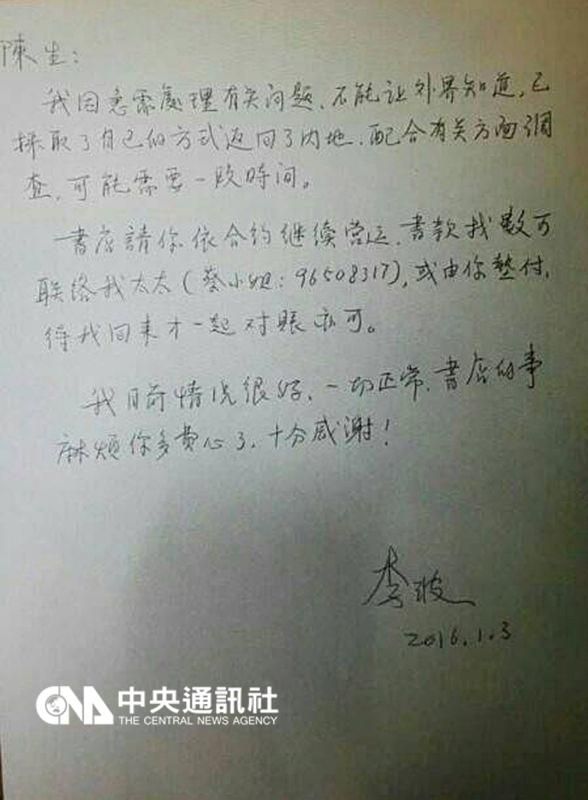
Lee Bo's fax to Mr. Chan of the Causeway Bay Books
Mrs. Lee said that she went to the company
and found a fax written by Lee Bo. The fax said that Lee Bo is well and in
good physical condition. He wrote: "I urgently need to deal with the related
matter. I cannot let the outside world know. Therefore I use my own method
to go to mainland China to cooperate with the investigation of the relevant
parties. This may take a certain length of time." He added: "I am fine right
now. Everything is normal. But you will have to deal with matters at the
bookstore."
The police confirmed that Mrs. Lee came
down to the North Point Police Station to withdraw the missing persons
report.
- (Hong
Kong Free Press) Interestingly, the letter was written in a mixture
of traditional Chinese characters, which are used in Hong Kong, and
simplified characters, which are used in the mainland. This prompted
speculation that Lee may have been subtly sending a message for help.
- Facebook deleted a page that contains a
photo of Lee Bo and the fax to Mr. Chan because of violation of terms of
usage. Welcome to freedom of speech in Hong Kong.
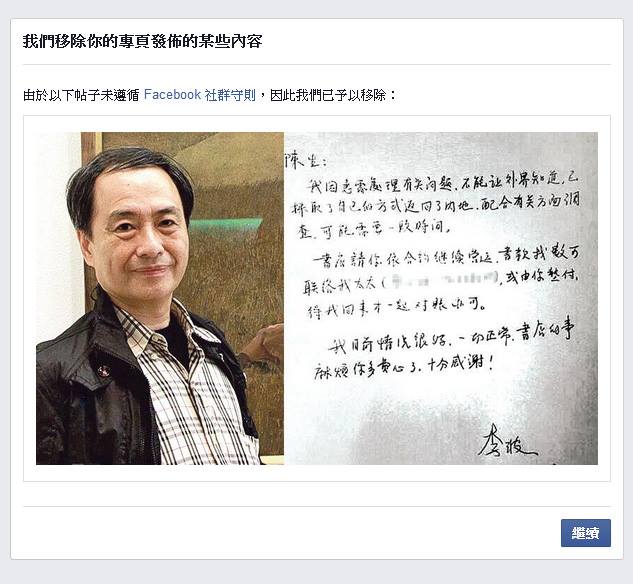
(The
Standard) January 5, 2016.
Two prominent
pan-democratic lawmakers � James To and Lee Cheuk-yan � today cast doubts on
a letter apparently written by the missing Causeway Bay bookseller, Lee Bo,
and called on the police to investigate the matter.
To, a Democratic Party member as well as a member of the Legislative
Council's Panel on Security, said the letter, allegedly written by Lee Bo,
is not enough to confirm his safety and that the Hong Kong police needs to
investigate until this can be confirmed by authorities in the territory.
The letter prompted his wife to drop a missing person's report, a move that
Amnesty International says is line with usual "intimidation'' tactics by
Beijing's security forces.
Lee Bo is a shareholder of the book store which publishes titles critical of
the mainland leaders, leading to speculation that mainland public security
agents may be involved in his disappearance from Hong Kong. Four others
linked to the bookstore had disappeared in October � one in Thailand and the
other three on the mainland.
In the letter faxed to a friend on Monday, Lee Bo said he returned to the
mainland "using his own method" and was working with concerned parties in an
investigation that may take a while.
However, To said while the letter may be comforting to Lee Bo's wife Sophie
Choi it has raised even more questions about the case.
(EJ
Insight) January 5, 2016.
The
disappearance of five men connected with a Causeway Bay Books critical
of the Communist Party leadership has taken surprising twists.
First,
Hong Kong Chief Executive Leung Chun-ying expressed extreme concern over the
case, stressing that mainland law enforcers cannot perform their duties in
the territory as that would violate the �one country, two systems� principle
under the Basic Law.
Coming
from the city�s top Beijing loyalist and enforcer himself, his statement was
meant to squelch speculation that the bookseller, Lee Bo, could have been
abducted by mainland security agents and taken to the mainland in relation
to his critical stance against the Chinese leadership.
Hours
after CY Leung voiced his concern, Lee�s wife, who had divulged her
husband�s disapperance to local media, withdrew her report to the police and
said he got in touch with her through a letter faxed to a staff member of
the bookstore. These latest developments leave many Hong Kong people with
the impression that things are being controlled by the authorities behind
the scene.
But it
seems too early to conclude that Lee is safe now.
On Monday night, Taiwan�s Central News
Agency came out with an exclusive story about Lee�s letter to his bookstore
associate, Mr. Chan.
The letter said Lee needed to return to China
on his own way to settle an urgent issue which could not be known by others.
He needed to present himself to assist in the investigation of related
parties, which may take time. He
asked Mr. Chan to continue running the bookstore as usual, adding that he
was fine and everything was normal.
Mrs. Lee said on Monday night she felt
relieved after reading the faxed letter and learning that her husband was
safe. That�s the reason, she said, why she asked Hong Kong police to cancel
the case. In response to media inquiries, the police said they would pursue
the investigation and combine cases involving the disappearance of other
staff of the bookstore into one.
Lee�s
purported letter raises more questions than answers:
* How
was he able to go to China on his own way without a Chinese entry permit?
* What
exactly is the issue that Lee needs to settle urgently?
* Why is he needed � why is his physical
presence needed � to assist in the investigation?
* Why didn�t Lee tell his wife that he was
going to China beforehand?
* Why is he now saying that everything
is normal and the situation is fine?
* Was the letter really written by Lee?
*
Where is Lee right now?
* How
was a Taiwan-based news agency able to get Lee�s letter?
Right now, it is quite difficult to find
satisfactory answers to these questions.
Mr. Chan, to whom the letter was addressed,
is in the best position to elaborate on his boss�s situation.
Also,
Mrs. Lee�s actions and reactions to the whole affair may provide some hints
to the case.
Last
Friday, Apple Daily broke the story about Lee�s disappearance based on
sources provided by Independent Chinese PEN Center director Bei Ling. The
newspaper got in touch with Mrs. Lee, who replied, �I am busy, I�m not
willing to respond.� But a day later, Mrs. Lee broke her silence and
reported the case to the police. She also revealed details about her
husband�s disappearance to reporters, adding that the Basic Law protects his
right to engage in his publishing business. �My husband publishes books that
touch on China�s political taboo and now he disappeared,� she said then.
�Hong Kong is terrible.� If Mrs.
Lee truly believed that her husband disappeared because of his publishing
business, there should be no reason for her to change her view even after
reading a letter from him.
The question remains: Why and how Lee
got into trouble in connection with his publishing business?
But based on the letter, especially that part that says he needs to settle
an urgent matter with related parties, it appears that Lee himself didn�t
know exactly what trouble he got himself into.
Meanwhile, there appears to be an effort to divert public attention away
from the incident. First, CY
Leung called a news conference on Lee�s disappearance to stress that there
is no indication that Lee was abducted by mainland law enforcers, contrary
to rumors.
Then Lee�s letter was leaked in an effort to
prove that he went to China on his own, thus vindicating CY Leung�s
statement that Chinese law enforcers cannot carry out their duties in Hong
Kong.
Despite all these assurances, despite
all the efforts to tell us that everything is normal, the
case of five people connected to a bookshop disappearing one after the other
is simply outside anyone�s definition of normal.
It is far from normal for Lee, a
Hong Kong permanent resident, to go to the mainland on his own without
leaving any records at the immigration checkpoint.
It is far
from normal for his wife, who earlier claimed that his disappearance had
something to do with his publishing business, to ask the police to withdraw
her report and say that everything is normal.
And all of these developments happened within
24 hours.
From
the media coverage on Tuesday, one could get the impression that pro-Beijing
media are relieved there is no sign that mainland authorities exercised
their powers in Hong Kong to arrest Lee and spirit him away into the
mainland, and that Lee�s letter confirms the notion that the case is a
personal matter. However, for many Hong Kong-based media, the story still
appears as a badly mangled script with too many loose ends.
It is
possible, Apple Daily suggests, that Beijing and Mrs. Lee have reached a
deal to prevent the case from getting out of hand. Lee himself said as much
in his letter, that the matter he needs to deal with must not be known by
outsiders. In the meantime, all we can do is wait and see.
We
hope Lee and his four colleagues are all safe and sound, but the case has
truly jolted many Hong Kong citizens. It has cast doubts on Beijing�s
commitment to the �one country, two systems� principle, and has fueled
worries that despite the Basic Law, the freedoms we enjoy and cherish in
Hong Kong are at risk.
(SCMP)
January 5, 2016.
Choi Ka-ping, the wife of Lee Bo, one of the
missing booksellers, said she believed the alleged faxed letter from her
husband saying he returned to the mainland of his own accord to be real as it
is has his �real handwriting�. �I believe he wasn�t forced to write it so
that�s why I withdrew the request for police help,� explained Choi as she
returned to her apartment on Tuesday afternoon.
Choi added that she had not heard from her
husband on Tuesday. She also did not comment on allegations today at a
Legislative Council meeting by lawmaker Ng Leung-sing that Lee Bo, along with
his four associates, had surreptitiously crossed the border to the mainland to
seek out prostitutes.
(SCMP)
January 6, 2016.
While mystery looms over the
disappearance of bookseller Lee Bo, more details are coming to light about the
quiet, 65-year-old Hong Kong native who, as his acquaintances remembered, was
a �low-profile, intellectual-looking� figure, along with his writer wife.
�The last time I saw Lee Bo, I remember, was
when he visited our bookshop over last Chinese New Year and gave us packs of
chocolate as gifts,� said Paul Tang, owner of People�s Recreation Community, a
book cafe also selling banned books. �He was friendly, and not high-profile.�
Compared with more well-established
publishers of banned books, such as Mirror Media which traces its roots to the
1980s, Lee�s Mighty Current was new on the scene, said Tang, adding: �And
there is little reason for it to be extraordinarily outstanding or insightful
among its more than a dozen peers.�
A news stand vendor near the Causeway Bay
bookshop that was taken over by Lee�s publishing house around three years ago,
who gave his name only as Billy, said he would have occasional chats with the
missing owner. �He was slim, often wearing a pair of glasses,� he said. �He
was not talkative, and looked like a typical intellectual.�
�As a friend of Lee, I would say he is an
upright man, and doesn�t do evil things,� said Ngan Shun-kau, former chief
editor and now senior adviser to Cosmos Books.
In the early 2012, Lee�s wife, Choi Ka-ping,
founded Mighty Current, a publisher specialising in books critical of the
Chinese Communist Party, together with a German-based man who later
transferred all of his shares to Gui Minghai and Lui Por, company records
show. Both Gui and Lui are also missing.
Choi, 61, is a writer who boasts a portfolio
of multiple Chinese-language novels, essays and poetry collections. Writing
under the pen name So Fai, the mainland-educated writer has a regular column
in the city�s pro-Beijing Ta Kung Pao newspaper with her latest
offering dated January 4.
She was in the city�s publishing industry as
early as 1997, her biography shows. Her name was also mentioned as an editor
with Joint Publishing Hong Kong, one of the biggest and most respectable
publishing houses in the city, in a few of the culture books published in 2007
and 2008.
While the city�s banned-book trade became
lucrative after the Bo Xilai scandal broke, Billy, who helps with logistics
with Lee�s bookshop at times, said he was told that the business wasn�t faring
well over the last two years. �And that is why he sold some of his holdings of
the shop in 2014 to keep it running.�
The 65-year-old was last seen on Wednesday at
the Chai Wan warehouse of Mighty Current, the company that owns his store.
(SCMP)
January 6, 2016.
A letter said to have
been written to his wife by the missing Hong Kong bookseller reassuring her of
his safety in the wake of his mysterious disappearance has sparked more
questions than it has provided answers.
Although Sophie Choi Ka-ping, wife of Lee Bo,
a shareholder in Causeway Bay Books, which offers a range of titles banned on
the mainland, said yesterday she believed the letter was real and that Lee had
not been under pressure to write it, lawmakers feared otherwise.
�He has resisted going to the mainland the
whole time [in the past]. Why would he suddenly go to the mainland in his own
way?�Democratic Party lawmaker James To Kun-sun said, referring to what Lee
wrote. �And why didn�t he just use his home return permit to do so?�
The saga of Lee�s disappearance took a
dramatic twist on Monday when Choi suddenly withdrew a request she had
previously made for police help to locate Lee, claiming she had been in touch
with her husband after he vanished last Wednesday.
Deepening the mystery, Taiwan�s Central News
Agency published what it said was a handwritten letter faxed by Lee to a
bookstore colleague. That letter stated Lee �had to handle the issue concerned
urgently and could not let outsiders know�. He also said he �returned to the
mainland my own way and am working with the concerned parties in an
investigation which may take a while�.
The state-run Global Times newspaper
issued an editorial yesterday offering a hint on Beijing�s stance on the
issue. The piece stated that Lee�s letter had busted rumours the bookseller
had been kidnapped by mainland enforcement agencies. �Although Causeway Bay
Books was opened in Hong Kong, the harm it has done against the country has
already entered the mainland. Lee Bo knows it well. He was probably willing to
cooperate with the investigation in a �low profile� way. It is not a good
thing for Lee himself and his book store�s business that the Hong Kong media
has gone all over it,� the editorial said.
(Ming
Pao) January 12, 2016
On the day when Lee Bo disappeared, several
persons who work in the same industrial building left by the same elevator at
around the same him as Lee Bo. So they may be potential witnesses if Lee Bo
was kidnapped.
According to information, an eyewitness said
that when Lee Bo left the building, he was taken onto a van by a number of
men. During this time, someone yelled: "What is going on?" According to
information, the van was parked at the bus stop oppose the building entrance.
The men pushed Lee Bo in the van which sped away. Our reporters spoke to those
who were supposed to have been in the same elevator but most of them refused
to talk. Some of them said that they know nothing, or they said that they
don't talk politics, or even asked our reporter: "If someone chops me up, will
you give me my life back?"
According to information, the police took the
surveillance videos of that day after Lee Bo was reported to be missing. On
last Wednesday and Thursday, they used the video to look for people in the
other units of the industrial building.
According to a man (pseudonym Mr. Cheung) who
assisted the police in the investigation, there were 7 or 8 individuals inside
the elevator when Lee Bo entered at the tenth floor. When Lee Bo entered, a
medium-built man wearing a dark long-sleeve jacket and a duckbill cap followed
him along with several other men. "There were many people in the elevator."
When Lee exited, the man with the duckbill cap followed him. "I have been in
the Hongman Industrial Building as long as it is in existence. I know
everybody coming and going. Afterwards, I was asked to view the video. I
recognized everybody in the video except for the duckbill cap map." He spoke
with others who also assisted in the police investigation but they all said
that they have no prior impression of the duckbill cap man.
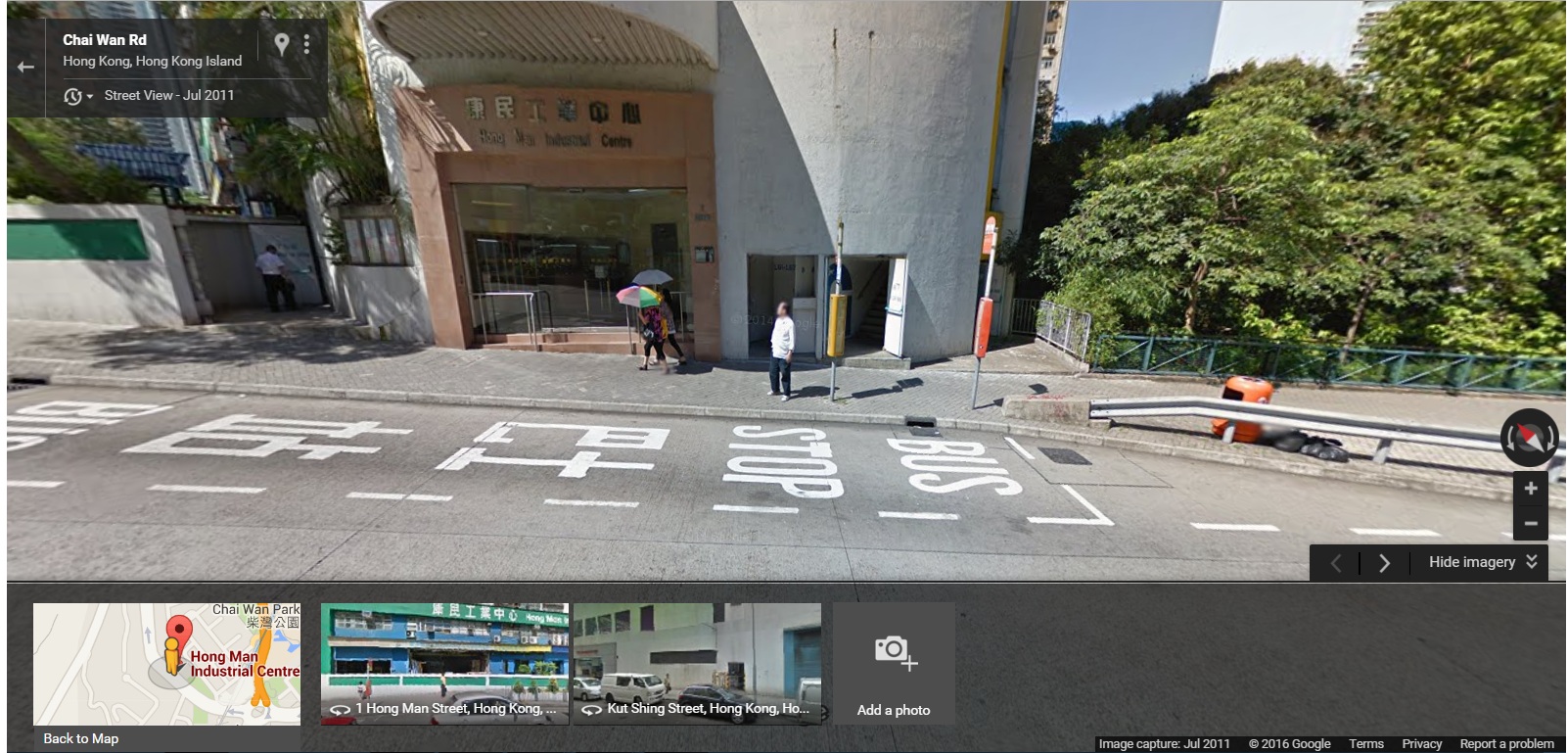
(Oriental
Daily) January 24, 2016.
On the evening of January 23, Mrs. Lee Bo
told the Hong Kong Police met with her husband in a hostel on mainland that
afternoon. Mrs. Lee said that Lee was healthy and is assisting an
investigation as a witness.
(SCMP)
January 24, 2016.
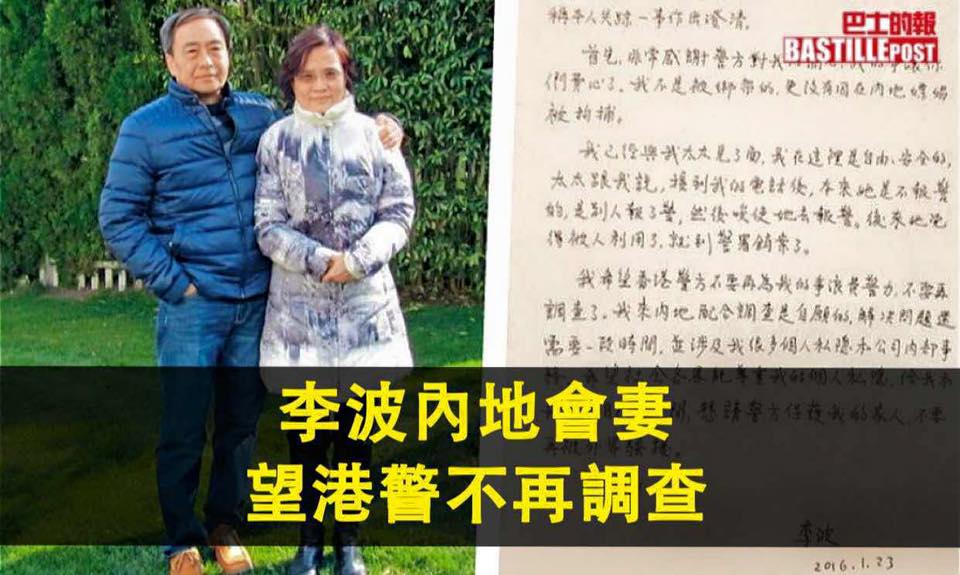
The wife of �missing� bookseller Lee Bo has
been reunited with her husband at a �secret� location in mainland China,
almost a month after he vanished in Hong Kong sparking a major controversy.
In a sensational new development to a story
which has sent shockwaves through Hong Kong and made headlines around the
world, police in Hong Kong have revealed they were approached by Lee�s wife,
Choi Ka-ping, yesterday (Saturday) and told by her that she met her husband at
�... a guesthouse on the mainland�. Choi told the officers who met her that
her husband was �assisting in an investigation in the capacity of a witness�.
The location of the guesthouse was not
disclosed to the officers and the meeting was not arranged by Hong Kong
police, according to a source with a knowledge of the investigation into Lee�s
disappearance.
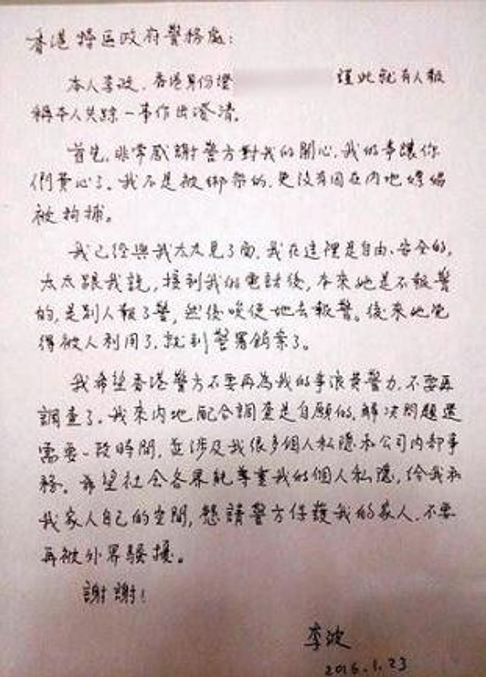
A letter from Lee Bo, delivered by his wife
to the Hong Kong police states the following:
To the Hong Kong Special Administrative
Region police department:
I ,
Lee Bo, a holder of Hong Kong identity card [withheld by SCMP]
have recently been reported to be missing for some time,
and would like to make a clarification.
Firstly, I really appreciate the police�s
concern ... I have not been kidnapped and definitely have not been arrested on
the mainland for [purchasing] prostitution
I have already met with my wife. Over
here I am free and safe. My wife told me, after she received my phone call she
did not intend to call the police. It was others that reported to the police,
and incited her to report to the police. After that, she felt used and went to
the police station to close the case.
I hope the Hong Kong police will not
continue to waste police resources on my case, and there�s no need to continue
investigating. I went to the mainland to co-operate in an investigation
voluntarily. Solving a problem takes some time, it involves many of my private
and company�s internal affairs, I hope all sectors of society can respect my
personal privacy, and give my family and I some personal space. I earnestly
request the police to protect my family, and not allow them to come under
further outside harassment.
Choi gave the officers who spoke to her a
letter from Lee, which police said in their press release was similar in
content to previous letters Lee has issued through third parties.
It is understood she told police that Lee was
in good health and his spirits were fine.
The police statement, issued at 2:07am Sunday
morning, said: �The Hong Kong Police yesterday night (January 23) were
informed by the wife of Mr. Lee Bo that she had met with Lee Bo in the
afternoon of January 23 at a guesthouse on the Mainland.
�According to Mrs. Lee, Lee Bo was healthy
and in good spirits, and said that he was assisting in an investigation in the
capacity of a witness. After the meeting, Lee Bo asked her to pass on a letter
addressed to the Hong Kong Police. The letter�s content was similar to
previous letters penned by Lee Bo.
�Mrs Lee did not disclose any further details
regarding the location of the meeting or the nature of the investigation Lee
Bo was involved in.��
The police statement added that �... in order
to obtain further details of the circumstances of the case, the Hong Kong
Police have on the same day issued another request to the Guangdong Public
Security Department to assist in arranging a meeting between Lee Bo and the
Hong Kong Police ...�.�
(Hong
Kong Free Press) February 5, 2016.
Three missing Hong Kong booksellers are under
currently investigation by mainland authorities, police confirmed on Thursday.
Lui Por, Cheung Chi Ping and Lam Wing Kee are suspected of being involved in a
case related to a fourth bookseller in custody, Swedish national Gui Minhai,
according to a letter Hong Kong police received from the Interpol Guangdong
Liaison Office of Guangdong Provincial Public Security Department on Thursday
afternoon. It is the first confirmation of the trio�s whereabouts.
Hong Kong police also received a handwritten
letter from Gui�s colleague, Lee Bo. Lee declined a request by Hong Kong
police to meet with him. He stated that he �did not need to meet with police
at the moment� but would contact them if necessary. Police confirmed the
handwriting in the letter with Lee�s wife.
(SCMP)
February 6, 2016.
Missing book publisher Gui Minhai ended up
being detained by mainland authorities because he was operating a circulation
office to distribute banned books there, a close associate has told the
Post, dismissing claims his disappearance was linked to a book on
President Xi Jinping
(習近平).
New York-based author Liu Lu offered this
explanation a day after the Guangdong Provincial Public Security Department
confirmed the whereabouts of three missing booksellers � apart from Gui and
Lee Po � saying they were suspected to be involved in Gui�s case over
unspecified �illegal activities on the mainland�.
Liu, who has published four books under Gui�s
Shuang Feng publishing house, told the Post the �illegal activities�
could be a circulation office over the border.
�Multiple sources told me that Gui had a
hidden circulation office in Shenzhen from which books were mailed out to
mainland clients. It is considered a violation of the Chinese law,� the
Shandong
(山東) native said.
�If the books were brought across customs,
they might get confiscated and that would affect sales. So Gui had the books
shipped to Shenzhen and dispatched them from there. That�s what triggered his
arrest,� he said.
Hong Kong bookseller Lee Po, who vanished in
December, he added, was not involved in the operation. But he was not sure
about the other three staffers linked to Causeway Bay Books who allegedly
disappeared in Shenzhen in late October or November.
All five are connected to Mighty Current, the
publishing house behind Causeway Bay Books, which publishes books banned on
the mainland. The Post has been unable to get official confirmation
of Liu�s assertions.
Last month Gui appeared on state-run CCTV
claiming he had surrendered to mainland authorities for a drink-driving death
he allegedly caused in 2003.
Last year, two former Hong Kong journalists,
Wang Jianmin and Guo Zhongxiao, were indicted for running an illegal business
by sending HK-based magazines to mainland readers. Such magazines were deemed
�illegal publications� as they had not been approved by mainland regulators.
Liu said he and Gui were members of the
US-based Independent Chinese PEN Centre and the pair had partnered in
publishing for three years since 2012, producing political books such as
Wang Lijun�s Battle with Bo Xilai, and The Purge of Ling Jihua�s
Family.
But Liu denied he wrote Xi Jinping and
His Lovers, a book on the alleged romances of the president that some
believed triggered the disappearance of the booksellers, starting with Gui in
Thailand and ending with Lee suddenly going missing from December 30 in Hong
Kong.
�I�ve been approached by people since
December 2013 and asked about whether I wrote the book. I published a
statement then that I did not write a book on the romance history of a top
leader and will never do so,� he said, referring to Germany-based Chinese
writer Pan Yongzhong�s account, which did not sell well.
Liu claimed there was an earlier account
titled A Complete Love History of Xi Jinping, meant to be out in
early 2013 but that never saw light of day. Liu believed Gui would never have
published such a book because, he quoted Gui as saying, �that would mean
looking for your own troubles�.
But Chen Pokong, another New York-based
China-watcher and best-selling author, had a different story based on sources
close to Gui who spoke to him.
�It was about a year and a half ago that Ah
Hai [Gui�s nickname] came into a deal with agents from mainland China to buy
out the publishing rights of Xi Jinping and His Lovers,� Chen told
the Post.
�It was a book project initiated by Ah Hai,
who took the money and planned to publish it through a different publisher
under a new title, which became Xi Jinping and His 6 Women.�
But Chen claimed Gui began to boast during a
meal in Hong Kong that his sources for the book were from a faction allegedly
at odds with the incumbent leader. That led to Gui landing in trouble, he
added, bringing down with him the whole production chain.
Chen said much of the manuscript was sheer
fabrication.
�I defend Ah Hai�s right to freedom of
expression but I don�t agree with his style of book publishing, which is
morally wrong,� he said. �The state�s reaction, involving a violation of the
law and constitution, especially causing a disgrace to the �one country, two
systems principle�, is a price much higher than the stoppage of a banned book
and its producers.�
Hong Kong veteran China- watcher Johnny Lau
Yui-siu did not rule out any of the accounts but called for focus to stay on
the circumstances of the booksellers� disappearance. �That, I think, is the
crux of the matter.�
(Oriental
Daily) February 28, 2016.
According to mainland media reports citing
police sources, Lam Wing-kee, Lui Bor and Cheung Ji-ping acted under the orders
of their boss Gui Minhai to sell unauthorized books into mainland China. Since
October the year before last, they mailed more than 4,000 books to 380
mainland book buyers in 28 provinces. However, the police said that the three
had cooperated and held good attitudes, so they may be bailed out and returned
to Hong Kong.
According to the report, Lam Wing-kee is the
manager of the Causeway Bookstore and he is responsible for both store and
Internet sales. He disguised the books and mailed them to mainland China. Lui
Bo was a Mighty Current shareholder and general manager in charge of sales and
distribution, and he distributed the books in mainland China. Cheung Ji-ping
was the assistant to Lui Bo, and he helped to distribute the books in mainland
China.
After Gui Minhai was returned to China to
face the police investigation, Lui and Lam, and then Cheung were arrested on
October 17 and October 24 respectively for conducting an illegal business.
They admitted their crimes and they testified against Gui Minhai.
"Everything that I did was on the orders of
Gui Minhai. Gui Minhai dragged me onto the road of crime." Lui Bo said. Gui
Minhai had been using various channels to sell the books to make hefty
profits. He promised to share the proceeds but that never materialized. Cheung
Jiping said that his illegal activities were at the behest of Gui Minhai.
Lam Wing-kee said that he was hired by Gui
Minhai as the store manager to take over the bookstore. Gui Minhai demanded
that he sell and mail the books to mainland China. He said that the contents
of those books were fabricated and/or downloaded from the Internet or
magazines. He said that the books generated many rumors with bad social
consequences.
In addition, Causeway Bay Books
shareholder Lee Bo went back to China voluntarily last year to assist in the
investigation on Gui Minhai and testify against Gui.
These people have all expressed regret at
their actions and they are hoping for clemency. Lui Bo said that he recognized
his mistakes and promised not to engage in illegal business again. He promised
to abide by the law and he wants lenient treatment so that he can his life
afresh.
60-year-old Lam Wing-kee said that he is old
and infirmed. He said that he deeply recognized his mistakes and wants another
chances. He said that he will never engage in illegal books sales. Cheung
Jiping was in tears and begs the government to consider his family situation
and give him a lenient treatment. "I violated that state laws. I am willing to
accept the legal punishments. I am really sorry."
According to the police, the three have good
attitudes and may be bailed out awaiting trial. They can expect to return to
Hong Kong soon.
(Oriental
Daily) February 28, 2016.
According to the police, Gui Minhai
instructed Lam, Lui and Cheung to sell unauthorized books into mainland China.
According to Lui Bo, he knew very well that the books were unauthorized. But
in order to boost sales performance, he sold large numbers of these books into
mainland China. To facilitate payment, Gui even let Lui open a bank account in
mainland China for that purpose.
Lam Wing-kee said that mainland Chinese
buyers would contact him via QQ and specify the book titles, quantities and
prices. The money is then wired to the Mighty Current bank account inside
China. Mighty Current would then find a way to mail the books into mainland
China. "In some places, it was not easy to mail directly. So I tried to find
friends to help me mail the books indirectly. Mighty Current has a mainland
bank account. Mainland Chinese people wired the money there. I confirmed
payment and then I mailed the books."
Cheung Jiping also knew that the books were
unauthorized. He said: "I helped them to disguise the book covers and mailed
them into mainland China." Cheung Jiping testified that he took the money out
from the bank to bring back to Hong Kong.
Video:
https://www.facebook.com/HongKongGoodNews/videos/1039634556110480/
Media interview with Gui Minhail, Lui Bo, Lam Wing-kee and Cheung Jiping.
(SCMP)
March 4, 2016.
Publisher Gui Minhai could face five years in
prison for running an illegal business across the border or a heavier sentence
if convicted of being the ringleader of a business that circulates material
inciting state subversion.
Politics aside, legal experts said the
offence the Mighty Current publishing house co-owner was accused of was not
very serious and he could be jailed for less than five years.
�The punishment for running an illegal
business is usually not very heavy ... and [Gui�s] case is not particularly
serious,� said Professor Gu Minkang of City University�s law school. �Many
people are concerned about the case. I believe [the court] will be careful
about the way it is handled and then make a reasonable decision.�
Gui disappeared in mysterious circumstances
in October in the Thai beach resort of Pattaya. It was speculated he had
been kidnapped by Chinese agents because his publishing house specialised in
books critical of the Chinese Communist Party. About a week ago, mainland
media quoted investigators as accusing Gui of �running an illegal business�.
He was accused of ordering his associates to deliver about 4,000 books
banned on the mainland across the border since October 2014 to 380
customers.
Under mainland Chinese law, if an illegal
business operation involves less than 250,000 yuan (HK$300,000), then
imprisonment would be below five years. The law also states that if the
quantity of banned books in question is 2,000 or more, then the sentence
would be five years or below. It would be longer than five years for 5,000
or more.
Gu believed it likely that the publisher�s
offence would be under the �below five years� purview. Gui�s sentence should
eventually be �a matter of months instead of years�, he said.
A law lecturer at Shue Yan University,
Brendan Lam Hing-chau, said it is arguable whether the publisher could be
convicted of �running an illegal business�, as reports suggested. �It seems
to me that [Gui�s] books are published and printed in Hong Kong. So in this
case, in principle, it is arguable if he can be charged with running an
illegal business on the mainland,� Lam said. But even if the illegal
business charge does not stand, Lam said the publisher could be charged with
disseminating publications that contain materials inciting subversion of the
state, destroying national unity, inciting secession, or overthrowing the
socialist system. Such an offence carried a sentence of less than five years
unless the person convicted played a major role. Lam said it would be
difficult to guess how much time the publisher could eventually face, but he
also said the offence did not appear to be particularly serious.
Jin Zhong, chief editor of Open
Magazine and a publisher of banned books, believed that Gui could be
sentenced to 10 years due to the content and quantity of the books brought
across the border. But he said Gui, a naturalised Swedish citizen, might be
expelled from the mainland after the court slapped a sentence on him. He
cited the case of American-Chinese Harry Wu Hongda in the 1990s, who was
expelled from the mainland after being sentenced to 15 years in jail for
spying.
(SCMP)
The first missing bookseller returns: Lui Por in Hong Kong. March 5, 2016.
One of the five
booksellers who went missing on the mainland last year quietly returned home
yesterday and asked Hong Kong police to stop investigating him as a missing
person. A source told the Post that Lui Por, general manager of the
Mighty Current publishing house which specialises in books critical of the
Chinese Communist Party, was not handed over by mainland police to their
Hong Kong counterparts.
Police were alerted after Lui crossed the
border at the Lo Wu checkpoint and went home to Tai Wai. Officers later
visited him. �During the meeting, he told the officers that he was safe and
he did not need any assistance from police,� the source said.
In an official statement, police said Lui
had refused to disclose other details, but they would continue to follow his
case, along with those of two of his publishing associates still being
detained on the mainland.
(SCMP)
Second bookseller Cheung Chi-ping arrives in city after detention in mainland
China. March 6, 2016.
A Hong Kong bookseller detained on the
mainland returned to the city on Sunday morning and said he did not require
any police or government assistance. He also requested the missing persons
file on him be dropped.
The return of Cheung Chi-ping, one of five
booksellers who went missing on the mainland last year, came two days after
the return of his boss Lui Por, a general manager of Mighty Current, a
publishing house which specialises in books critical of the Chinese Communist
Party. Cheung worked as Lui�s assistant.
�Hong Kong Police met with [Cheung] who has
returned to Hong Kong from the mainland this morning,� an official police
statement said. It was nearly identical to the one released on Friday upon
Lui�s return, read. �Police continue to follow through with the other two
missing person cases with the Interpol Guangdong Liaison Office of Guangdong
Provincial Public Security Department for further details,� the statement
added.
It was understood that Cheung was not handed
over to Hong Kong police by mainland law enforcement officers, and instead
used his Hong Kong ID card to return from Shenzhen at Lo Wu immigration
control point shortly after 7am.
�He told officers that he did not need any
assistance from police or the Hong Kong government and he also requested
police cancel his missing persons report,� a source said.
(SCMP)
Missing bookseller resurfaces in Hong Kong, says he is allowed to travel
freely between city and mainland China. March 17, 2016.
One of the five Causeway Bay
booksellers who went missing last year said he was allowed to travel freely
between Hong Kong and the mainland after being released on bail. He also said
for the first time that he was arrested by mainland officers in Dongguan in
October for his role in the selling of banned books.
Cheung Chi-ping made the remarks to the
Sing Tao Daily after an earlier report in the South China Morning
Post that he had slipped back to the mainland just hours after he crossed
the border into Hong Kong, deepening the mystery surrounding the booksellers�
disappearances.
The reporter who interviewed Cheung
claimed to have �bumped into� the bookseller in Sha Tin on Wednesday.
Cheung was one of five people from
Mighty Current publishing house and Causeway Bay Books who vanished under
strange circumstances since October last year. Their disappearances sparked
widespread fears that they were kidnapped by mainland agents because their
companies specialised in books critical of the Chinese Communist Party.
The Sing Tao article stated that
Cheung was taken away on October 14 in Dongguan, within a week of the
disappearance of Gui Minhai in Thailand. Lui and Lam Wing-kee went missing
while on the mainland the same month. Lee Po vanished from Hong Kong in
December.
Gui has been accused of ordering his
associates, including Cheung, to deliver about 4,000 banned books from Hong
Kong to the mainland since October 2014.
To explain why he slipped back to the
mainland on the same day he had returned to the city, Cheung said he had
bought baby supplies in Hong Kong then gone back to Dongguan to take care of
his pregnant wife. Their baby is due next month.
Cheung also admitted to trading in banned
books on the mainland, but he stressed that he was only an �accomplice�, and
did not have a significant hand in the business. He added that during his
detention, he was not subjected to torture or coercion, and did not have to do
anything involuntarily. �They took good care of me, were good to me, and [I
felt] safe,� he said.
(Headline Daily) March 17, 2016. Video
http://pop.stheadline.com/content.php?vid=42348&cat=a
(SCMP)
Missing bookseller Lui Por in Hong Kong again but sticks to script by staying
tight-lipped on ordeal. March 19, 2016.
Another Causeway Bay
bookseller who disappeared last year has returned to Hong Kong again this
month claiming he is free to travel between the city and the mainland after he
was released on bail, while at the same time refusing to reveal details of the
investigation he is involved in.
Lui Por said he was
taken into custody by Chinese law-enforcement officers after he crossed the
border to reach Shenzhen on October 17. He added that he is now considering
hiring a lawyer.
When asked if he was
concerned he would be convicted by Beijing for ferrying hundreds of banned
titles to the mainland, Lui told the Ming Pao : �I am not too
[worried]. If that�s going to happen, I will have to bear my responsibility�.
The popular Hong Kong
daily spoke to Lui outside his Tai Wai flat on Friday after it received a tip
off that he may have returned to the city.
(SCMP)
Email reveals Lee Po feared Gui Minhai kidnapped by Chinese agents before he
himself disappeared. March 8, 2016.
In an explosive twist to the case of
the five Causeway Bay booksellers who went missing last year, one of the key
figures involved said he feared his associate had been abducted by mainland
Chinese agents, only for both of them to deny it later, the Post has
learned. The Post has obtained an email by Lee Po dated November 10 to Gui
Minhai�s daughter, Angela, in which Lee Po wrote to say that her father, who
disappeared while on holiday in October in Pattaya, Thailand, �was taken by
special agents from China for political reasons�. That was before Lee himself
disappeared at the end of December.
�I write to you concerning the whereabouts of
Michael. I wonder if you have known that he has been missing for more than 20
days, we fear that he was taken by special agents from China for political
reasons,� the email reads, referring to Gui�s English name. �We last talked to
Michael by email on 15 October, and after that day, nobody could contact him.
He was then staying in his apartment in Thailand. According to [Gui�s wife]�s
words told by the watchman of the building, he left the apartment with several
men who claimed to be his friends. It�s very little we can do to help Michael
because we are not his next of kin. I then think of you, perhaps you can do
something, and there are a lot of Michael�s friends [who] are ready to help if
you need them. Do tell me what you think and what you want us to do.�
The email contradicts Lee�s story weeks after
he disappeared. In a letter he wrote earlier to his wife, Sophie Choi Ka-ping,
Lee blamed Gui for his predicament, describing him as a �morally unacceptable
person� who had a �complicated personal history�. In the same month that Gui,
who was born on the mainland and later became a naturalised Swedish citizen,
went missing, Lui Por, Cheung Chi-ping and Lam Wing-kee disappeared while on
the mainland.
At the end of December, Lee vanished from
Hong Kong, with no record of him crossing the border. Their disappearances led
to fears they had been kidnapped by Chinese agents because the publishing
house and bookstore they ran specialised in publications critical of the
Chinese Communist Party.
Throughout the episode, the Hong Kong
government has maintained that there is no evidence of cross-border law
enforcement being undertaken over the disappearances. Chief Executive Leung
Chun-ying has also said such acts of law enforcement by mainland authorities
in Hong Kong would be unacceptable as it would go against the Basic Law that
protects the city�s freedoms.
In January, Gui was paraded on state
television, claiming he had surrendered himself to the mainland authorities
over a 2004 drink-driving accident in Ningbo, Zhejiang province. He was later
accused of ordering his associates to deliver about 4,000 banned books across
the border since October 2014.
�I definitely think that he was pressured to
say the things that he said. Because I have never heard of these things, these
claims at all,� Angela Gui told the Post in a phone interview from
the UK. She said her father�s �confession� on CCTV �definitely seems
scripted.� The 22-year-old said she hoped to see Gui as soon as possible. �It
isn�t a plan as much as it is a hope at the moment because there is so much
going on with the case. So I can�t make any concrete plans for the time being.
I, of course, hope to be able to see my dad as soon as possible. It would be
absolutely fantastic to go and meet him,� she said. �But because the
circumstances are unclear, and because I haven�t even been given a detention
notice from the Chinese government that he is in detention, it�s probably very
hard to arrange at this moment.�
The Swedish foreign ministry told the
Post that its staff from the Beijing embassy had been allowed to visit
Gui on February 24. A ministry spokesman would only say Gui was �well�. Angela
Gui said the Swedish authorities had not given her much information about that
meeting. �It was mostly what they told the media, that he looked well. But he
was also refusing to talk to them except to say that he didn�t want them to
help. It was pretty much the same kind of things he said in the first video,�
she said.
FULL TEXT OF THE EMAIL
Subject: Michael is missing
Hi Angela,
I am Paul Lee [Po], Michael�s business
partner, who had lunch with you and Michael last year in Hong Kong.
I write to you concerning the whereabouts
of Michael. I wonder if you have known that he has been missing for more than
20 days, we fear that he was taken by special agents from China for political
reasons.
We last talked to Michael by email on 15
October, and after that day, nobody could contact him. He was then staying in
his apartment in Thailand. According to [Gui�s wife]�s words told by the
watchman of the building, he left the apartment with several men who claimed
to be his friends.
Since we feel [Gui�s wife] is hesitating
and is not doing anything at the moment, and it�s very little we can do to
help him because we are not his next of kin. I then think of you, perhaps you
can do something, and there are a lot of Michael�s friends [who] are ready to
help if you need them.
Do tell me what you think and what you
want us to do.
Best,
Paul Lee
Internet
comment:
- SCMP: "The email contradicts Lee�s
story weeks after he disappeared. In a letter he wrote earlier to his wife,
Sophie Choi Ka-ping, Lee blamed Gui for his predicament, describing him as a
�morally unacceptable person� who had a �complicated personal history�.
" There is no contradiction here. Lee Bo was unaware of Gui's past history
at the time when he wrote the email. He was informed later about the Gui's
involvement in the traffic incident.
(SCMP)
March 10, 2016.
The two missing booksellers who were
allowed by mainland authorities to return to Hong Kong on separate days last
week both quietly crossed the border back to the mainland hours later,
sources have told the Post. That was soon after they both asked Hong Kong
police to drop their �missing person� cases.
The mystery deepened yesterday, even as it
looked like the end the road for Causeway Bay Books, the store at the centre
of the storm.
Lui Por came back to Hong Kong on Friday,
followed by Cheung Chi-ping on Sunday. Both surfaced on the mainland after
disappearing last year, accused of delivering banned books across the border
on the instructions of associate Gui Minhai. They raised eyebrows by
declaring they did not need any help from the Hong Kong government or
police.
Yesterday, a source with knowledge of the
case said the two crossed the border back to the mainland the same day they
returned to Hong Kong. In a brief meeting with police at the Lo Wu
checkpoint, Cheung told immigration officers he was in a hurry, the source
added. Cheung refused to do a formal interview with police and give an
official statement.
Dissident poet Bei Ling also quoted family
members and former employers of Cheung and Lui as saying the two returned to
the mainland the same day they came back to Hong Kong. �Their return to Hong
Kong was only to tell police to drop the case on them, nothing else,� the
president of the Independent Chinese PEN Centre said. �They returned to
Shenzhen in a hurry, probably because that�s where they have to be on bail.
Besides, that�s where their families are.�
Five people from Mighty Current publishing
house and Causeway Bay Books vanished under mysterious circumstances last
year. Gui disappeared in Pattaya, Thailand, in October, followed by Lui,
Cheung and Lam Wing-kee who went missing while on the mainland the same
month. Lee Po vanished from Hong Kong in December. Their disappearances
sparked widespread fears they were kidnapped by mainland agents, as they
specialised in books critical of the Chinese Communist Party.
Yesterday, Woo said Lee had signed an
agreement with a man surnamed Chan on November 13. Under the agreement, Chan
would bear the operating costs of the bookstore, cover the HK$39,000 monthly
rent and run it for six months until May 13. Lee signed it because he needed
someone to bear the costs as the store was losing HK$20,000 a month, Woo
said.
After Lee disappeared, there were 100,000
banned books left in the company�s Chai Wan warehouse. Choi had once agreed
to sell the books to the Hong Kong Alliance in Support of Patriotic
Democratic Movements of China. She later backed out and said she would
rather throw them away, Woo recalled. �Sophie said as long as Lee Po can
come back, she is willing to give up everything. She doesn�t want the
warehouse or the bookstore,� Woo said.
Alliance deputy chairman, Richard Tsoi
Yiu-cheong, said his group had only taken about 500 books from the store.
The alliance was in touch with people who were willing to buy more of the
books for HK$10 each, Tsoi said. Choi
initially agreed but later decided not to do so, Tsoi confirmed.
(Hong
Kong Free Press) March 18, 2016.
Causeway Bay Books co-owner Lee Bo may return
to Hong Kong by the end of the month, Ming Pao reported on Friday. Upon his
return the publisher is expected to meet with local immigration and police
officials, the report said. Lee was reported missing last December after
mysteriously disappearing from his Causeway Bay office.
The case of the missing booksellers was
raised during the annual �two sessions� in Beijing and mainland authorities
decided that it was �an appropriate time� for Lee to return to Hong Kong,
sources cited by Ming Pao said.
The report said that the decision has to do
with a �slight shift� in the central government�s policy, whereby top
officials � such as Premier Li Keqiang, National People�s Congress Chairman
Zhang Dejiang, and Director of the Hong Kong and Macau Affairs Office Wang
Guangya � wished to tone down the approach taken towards matters relating to
Hong Kong.
However, authorities were reportedly
worried about whether the family of book publisher Gui Minhai would �stir up
more trouble�. In January, Gui appeared on state television �confessing� to
killing a schoolgirl in Zhejiang in a drink driving accident over a decade
ago. Gui�s daughter, Angela, had told the media that there was no way her
father would have voluntarily returned to the mainland and turned himself
in. Four of the booksellers have emerged over the past month to admit to
�operating an illegal business� on the mainland, but Lee Bo was not among
them
(SCMP)
March 25, 2016.
The man at the
centre of Hong Kong�s missing bookseller mystery returned quietly to the city
yesterday and asked police to end their investigation into his missing-person
case.
Causeway Bay bookseller
Lee Po, who vanished from Hong Kong last December and later surfaced on the
mainland, told local authorities again that he did not require any police or
government assistance.
The same requests were
made by his two associates � Cheung Chi-ping and Lui Por � when they returned
to the city earlier this month after disappearing last October, prompting
speculation that they had been frightened into silence. All of them have
dismissed concerns that they were kidnapped and spirited across the border by
mainland agents over the smuggling and sale of banned books critical of
China�s leaders.
Lee, who left the city
without going through proper immigration channels, was handed over to Hong
Kong authorities at the Lok Ma Chau border crossing yesterday afternoon.
�As Lee Po did not
provide thorough information about his last departure, no arrest has been made
against him at this stage,� police and immigration said in a written
statement. �[The Immigration Department] needs to conduct further
investigation to ascertain if there is any prima facie evidence showing that
he has committed any immigration �offences.�
When he was interviewed
by immigration and police officers upon his return yesterday, the bookseller
stuck to his story that he had voluntarily gone to the mainland to assist in
an investigation involving his publishing colleague, Gui Minhai, who also
disappeared last year and surfaced later on the mainland.
�He stated that he was
free and safe whilst on the mainland. He restated his request for the
cancellation of his missing-person case,� local authorities said.
�He refused to disclose
other details. After meeting with police, Lee Po left on his own.�
Lee was more forthcoming
in an interview with selected mainland and Hong Kong media groups, telling
them he would never run a bookstore business again.
�I will never publish
and sell those books that make things up. The freedom of publication and of
speech does not mean that people can make things up,� he was quoted as saying.
�Like I have said earlier, there are still people doing this business in Hong
Kong. I hope they won�t do it any more.�
He said he had sneaked
into the mainland because he wanted to settle matters with his companies. Now
that three of his associates had been released on bail, he said, his efforts
had not been in vain. He met the three on Wednesday to talk about what to do
with the companies, he revealed.
Lee went on to say that
during his time across the border, he had witnessed the prosperity of the
country and felt proud to be Chinese. He added that Hong Kong was still his
home and he would never leave the city to settle elsewhere.
Five associates of the
Mighty Current publishing house and Causeway Bay Books store disappeared one
after another in mysterious circumstances. Gui was the first to vanish in
Pattaya, Thailand, in October. Lam Wing-kee, Cheung and Lui disappeared that
same month while on the mainland. Lee vanished in December.
Their disappearances
have led to widespread fears that they were kidnapped by Chinese agents
because their companies specialised in books critical of the Chinese Communist
Party.
Gui has been accused of
ordering his associates to deliver about 4,000 banned books across the border
since October 2014.
On the sidelines of the
Boao Forum for Asia in Hainan
(海南) yesterday, Chief Executive Leung Chun-ying said the central
government was aware that Hongkongers were very concerned about Lee�s case.
�The SAR government has consistently been transparent in handling the
incident,� he said before the police and immigration statement was issued. �We
have spared no effort in reflecting [concerns] to the mainland.�
Labour Party
vice-chairman Lee Cheuk-yan said the bookseller�s claim that he had smuggled
himself into the mainland was �an insult to the intelligence of Hong Kong
people�.
Democratic Party
lawmaker James To Kun-sun said the government was adding insult to injury by
saying it would continue to probe whether Lee had committed immigration
offences.
(SCMP)
March 25, 2016.
The Causeway Bay
bookseller at the centre of the missing booksellers mystery is putting the
past behind him and starting afresh, he said on Friday. With a group of
reporters hot on his heels outside his North Point home, Lee Po urged the
media not to follow him anymore. �I have already said what I wanted to say.
Today I just want to tell everyone that I hope you can leave me and my family
alone. Don�t push me that much,� Lee said, smiling the whole way. �I want to
forget the past and start afresh. I am starting another page in my life,� he
added.
He also said he was
allowed to travel freely between Hong Kong and the mainland. He planned to do
tomb sweeping on the mainland with his wife Sophie Choi Ka-ping in the next
few days. �I did not dare to go to the mainland for a while previously. I
heard that people had got into trouble for their [banned books] business. I
was afraid. But after I went [to the mainland] and solved all the problems
this time, I can finally feel at ease now,� he said.
Lee was escorted by a
man into a car with a cross-boundary plate and left. The man refused to
identify himself. The car was seen crossing the border via the Lok Ma Chau
control point.
On Thursday, Lee
returned to Hong Kong and asked police to drop the investigation into his
missing person case. He also said he did not need help from the force or the
Hong Kong government. He made the same request as his two associates � Cheung
and Lui � did when they returned to the city earlier this month, baffling
human rights activists.
In an interview with
Beijing-friendly media on Thursday, Lee said he would never run a bookstore
business again. �I will never publish and sell those books [containing made-up
things] again. Freedom of publication and of speech does not mean that people
can make things up,� he was quoted as saying. �Like I said earlier, there are
still people doing this business in Hong Kong. I hope they won�t do it any
more,� he added.
Internet comments
- (Headline
Daily) March 29, 2016. Previously, the speculation was that Lee Bo
was taking turns with his wife being hostages. That is, one of them is
always in the mainland while the other is in Hong Kong and that they cannot
both be here at the same time. Thus, when Lee Bo came back, his wife was not
here, etc. But today Lee Bo is back in Hong Kong with his wife after
visiting China and sweeping his ancestors' graves in Fujian. Now what?
- I think that the
Hong Kong Police should hold Lee Bo in indefinite detention until he
confesses in a way that satisfies Lee Cheuk-yan and Martin Lee, because
those two will keep talking and talking incessantly. If this is what it
takes to stop them, just do it! It will be the only way to get to the truth
as the skeptics want it to be.
(Hong
Kong Free Press) March 31, 2016.
In an interview with New York-based
Mingjing News, Hong Kong bookseller Lee Bo, who recently returned to the
city, said a friend asked him if he wanted to go to the mainland to resolve
the issue of his missing employees, before his own disappearance last year.
Lee, a shareholder of Causeway Bay Books,
was contacted by the news site by phone on Tuesday when he was still in Hong
Kong, saying that he was planning to go to the mainland again on Wednesday
morning to visit the graves of his ancestors. His comments in the interview
did little to clarify what occurred, however, and instead raised more
questions.
Four people associated with the bookstore
went missing in October last year, and Lee disappeared from Hong Kong last
December. He later claimed to have crossed the border using his own means,
before returning to the city this month. All of the individuals concerned
were confirmed to be connected to an investigation into alleged illegal
operations by the bookstore in China.
�My employees got into trouble, I have to
be responsible to them as a boss,� Lee told Mingjing. �Someone asked me if I
wanted to return [to the mainland]. The issues have to be resolved,
therefore through some friends� channels, [I understand] I was needed to
help with resolving the issues, I was asked if I wanted to go.�
When asked how he crossed the border and
who was with him, Lee said: �A friend arranged it for me, but I am not in a
position to say who was with me.�
He was also asked about a report that said
he was pushed into a van by a man before his disappearance. �I have never
heard about it, but this is not true,� he said.
Lee added that initially he went to the
mainland to assist his three employees, and only discovered the alleged
drink-driving case of Gui Minhai � the bookstore�s co-owner � after he
returned, and then had to assist in that investigation.
Lee also said that Lam Wing-kee, one of
the detained employees who has yet to return to Hong Kong, has been released
on bail and he �has personal freedom�. He added that the reason for Lam to
stay in the mainland �could be related to his family�.
Lee said that he had a meal with Lam, Lui
Por and Cheung Chi-ping, the first time he had seen them after they went
missing, but he did not disclose the location of the meal. Lui and Cheung
both returned to Hong Kong for a short while.
Regarding the interview he gave on Phoenix
TV when he was still detained in China, Lee said he �does not know much�
about how the channel reached him.
(SCMP)
June 14, 2016.
Causeway Bay
bookseller Lam Wing-kee, one of the five booksellers who vanished
mysteriously last year, finally returned to Hong Kong on Tuesday and
requested that police drop their investigation into his disappearance.
Lam is the fourth
bookseller to be allowed to come back to the city. When his three associates
returned to Hong Kong earlier, they made the exact same request � that the
force stop probing their cases � and said that they did not need any help
from police or the Hong Kong government.
�Lam Wing-kee requested [that] police
cancel his missing person case and stated that he did not require any
assistance from the Hong Kong Special Administrative Region Government or
police. He refused to disclose other details,� the department said in a
statement.
A police source added that Lam entered Hong
Kong via the Lo Wu checkpoint at 11.55am on Tuesday.
A person close to the booksellers believed
that Lam was the last � aside from Gui � to be allowed to return because he
did not have family members on the mainland. The person said that Lui and
Lee had also recently come back to the city to look at the finances of their
companies.
Internet comments:
- (Internet information) The Causeway Bay
Books is located on the second floor of a building behind the Sogo
Department store in Causeway Bay. It was founded by Hongkonger Lam Wing-kee
in 1994. It has an area of about 300 square feet. Apart from the normal
literature and history books, it is best known for selling books that are
banned on mainland China. In 2014, Lam Wing-kee sold the bookstore to Mighty
Current. Lam remained the bookstore manager. Mighty Current is jointly owned
by Gui Minhai (34%), Mrs. Lee Bo (34%) and Lui Bo (32%).
- (Headline
Daily)
Last year when I first about the bookstore
owner gone missing, I went and bought a bunch of the books to read. I found
that they were pretty "lousy", every one more or less the same, lumping
information from various overseas websites into one package. The imagination
and creativity were strong, as if the author was hiding underneath the
conference table listening to what the Politburo members were saying and
thinking. I'll bet that if you go to Beijing and have a chat with a taxi
driver, you will probably find fresher information.
But since these books are over the place,
there must be a market for them. This industry grew with the Individual
Visit Permit in 2003. The mainland tourists came down to Hong Kong and
brought back political and pornographic books back to China to hand out as
presents.
Once the market formed, the competition
grew more intense. A few publishers recruited writers to engage in mass
production. Whenever there is some new development in China, they had to
immediately come up with new books. In recent years, the Chinese Customs
Department has tightened inspection so the tourists were less likely to
bring books back. This caused some publishers to use speedboats to smuggle
Hong Kong-printed books to sell in China. Some publishers even got the idea
that they might as well as print and sell directly in China. Some of them
have gotten into trouble.
- (Cemetery News)
When the Causeway Bay booksellers got
arrested, you don't care
because you think that they deserve it because they provoked the Chinese
Communists by selling banning books
Then some Localists got arrested, and you
don't care
because you think that they were stupid to oppose the Chinese Communists
whereas you are smart
Then some other citizens got arrested,
and you don't care
because you think that they must have done something wrong to be arrested.
Then one day a family member of yours
gets arrested for no reason, and you want people to help you.
But it will be too late, because there is nobody left to help you.
- (Whitehouse.gov)
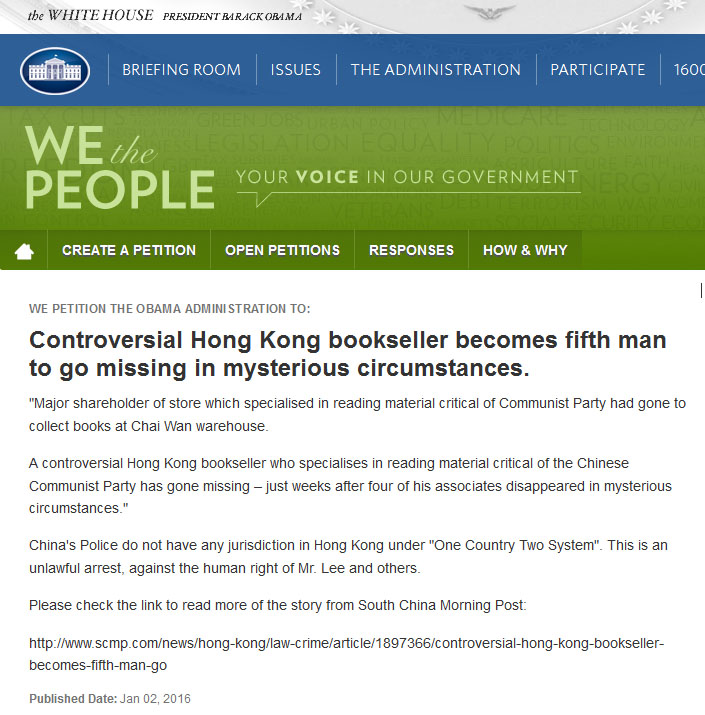
- Yes, the White House is being
petitioned to investigate a missing persons case in Hong Kong.
- No, the White House is not being
petitioned to do anything. This is just a posting of a South China
Morning Post news report. Did the South China Morning Post posted that
onto Whitehouse.gov in order to get more click-throughs to their
website? Does someone think that Whitehouse.gov is just another news
discussion forum like the HKgolden or Discuss.com.hk at which a news
story is posted and readers post comments to insult each other?
- If this 'petition' reaches 100,000
signatures, the White House will consider it and then respond with "We
trust that the Hong Kong government will conduct a thorough
investigation of the matter." They will not come back with your desired
response of "tough sanctions (such as banning of travel of all Hong Kong
citizens to the United States for the indefinite future) will be imposed if a satisfactory answer
is not produced within the next 48 hours."
- Hong Kong people want the White House
to help them on many many things, because CY Leung's administration
refuses to act. Here is another example: Alex and Stephy forever
together!
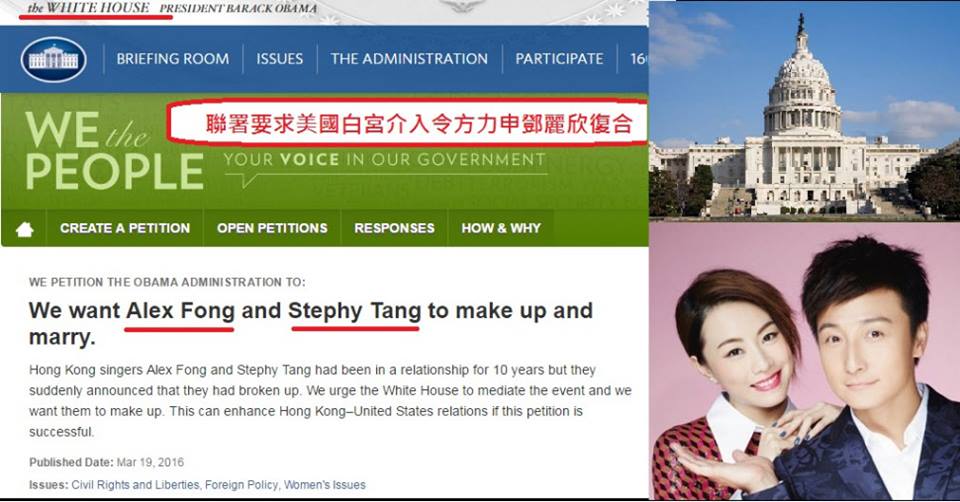
- Message (in English) from Agnes
Chow Ting (Scholarism)
https://www.facebook.com/HongKongGoodNews/videos/1003754169698519/
"Hong
Kong is not Hong Kong anymore, it is NAMED as Hong Kong only."
An Urgent Cry from Hong Kong
I am Agnes Chow, a member of Scholarism, a student activists
organization from Hong Kong. I have an important message that I hope to
spread to the world which is related to a bookseller who suddenly
disappeared and has been abducted to Mainland.
A Hong Kong bookseller named Lee Bo who sold books criticizing the
Communist Party of China and banned political books suddenly went
missing weeks after four of his associates disappeared strangely. The
Causeway Bay Books, the bookstore established by Lee in 1994, is
popular among mainland tourists as they can buy political books which
are banned in their hometown.
On 30th December 2015, Lee was supposed to collect books from a
warehouse at around 5:30pm. However, he was out of contact and could not
be found even his wife arrived the warehouse, looking for him at 8:00pm.
About 10:00, his wife received a call from her husband from Shenzhen.
Lee used Mandarin unusually rather than Cantonese, and told his wife
that he had temporarily gone back to cooperate with the investigation,
�They want me to assist the investigation, if I cooperate, it may be
alright." Lee called his wife again soon to notice her that "you may
already know what's going on" and "don't make the news public�.
With the protection of the Sino-British Joint Declaration, Hongkongers
are able to obtain personal safety and basic human rights under rule of
law. Even some of the Hongkongers acted as dissents to voice out their
disagreement towards the Communist Party of China, they would not face
penalties. Unlike the mainland China, Hong Kong did not adopt
authoritarian governance. Citizens who sell politically sensitive books
were not supposed to be suppressed by any threats of �disappearance� and
imprisonment with the existence of freedom of press and speech.
In the past, we were safe because we lived in Hong Kong instead of the
mainland China. However, the circumstances have changed with the
abduction which was suspected to be done by the police in China towards
this bookseller who kept being low profile before. Lee�s wife has
reported her husband�s missing to the Hong Kong Police Force but still
no one could contact Lee since 4 days before. With no departure record
of Lee, and his Home Return Permit Card is left at his home in Hong
Kong, it can be speculated that the police from the mainland organized
cross-border arrest to threaten people in Hong Kong. If the above
speculation is true, it indicates the erosion of "one country, two
system" in the Basic Law of Hong Kong.
The reason for me to film this video is to raise the global awareness of
this serious issue happened in Hong Kong, and I hope that more and more
foreign medias can keep their attention and coverage on this white
terror incident. We feel that Hong Kong is not Hong Kong anymore, it is
NAMED as Hong Kong only. The most worrying thing finally happened. This
incident evoke me the famous statement written by Pastor Martin in the
1950s.
�First they came for the activists, and I did not speak out. Because I
was not an activist. Then they came for the journalists, and I did not
speak out. Because I was not a journalist. Then they came for the
bookseller, and I did not speak out. Because I was not a bookseller.
Then they came for me and there was no one left to speak for me.�
I hope everyone in the world who believes in universal values of freedom
and human rights could stand up and speak for this incident to stop the
political suppression.
Even I am also afraid of my personal safety after this incident
happened, I still believe we should continuously fight for freedom from
fear because it is an important core value that we should uphold . Let
us stand up to show our discontent on this abduction and stop the
further suppression to political dissents in Hong Kong.
- (You
Tube) Disappearance of Lee Bo, Disappearance of Hong Kong
(Hong
Kong Free Press) January 10, 2016.
A host of lawyers, scholars,
activists, celebrities and pro-democracy figures have united to
condemn the disappearance of five local book publishers.
Barrister Margaret Ng, Democratic
Party founder Martin Lee, former chief secretary Anson Chan, singer
Anthony Wong, actor Gregory Wong and law professor Benny Tai are
among those featured in an eight minute video to promote a protest
planned for Sunday.
The video was produced by filmmaker
CHANVINCI. He told HKFP: �I promised to film the clip on Tuesday, we
had a meeting on Wednesday, shot it on Thursday and Friday, and
finally [it came] out tonight�.
The idea for the video was
initiated by Nathan Law Kwun-chung, secretary general of the Hong
Kong Federation of Students, and Joshua Wong, convenor of Scholarism.
CHANVINCI said that Law contacted
his teacher Shu Kei, Chair of School of Film and Television at the
Hong Kong Academy for Performing Arts, who then asked for his help
to produce the video.
(HKG
Pao) January 13, 2016.
... In Disappearance of Lee Bo,
Disappearance of Hong Kong, Martin Li said that Lee Bo was
"kidnapped by mainland police" and other speakers swore that the
kidnapping of Lee Bo meant that One Country Two Systems is a failure.
This is totally ignoring the fact that Lee Bo had personally said that
he went back to the mainland himself. But the speakers seemed to know
more than Lee Bo, so this is truly a documentary film based upon science
fiction.
Shu Kei has posted on Facebook that he
did not participate in the filming and he was not involved in the
conceptualization. Instead, the film was produced by certain Hong Kong
Academy for Performing Arts graduates, with Shu Kei being involved only
in "promoting and planning" the project. He said that he does not have
the will and power of young people. In so doing, Shu Kei is denying
responsibility without upsetting the anti-communist fervor of the
students.
Why does Shu Kei have to do this? Shu
Kei is the Dean of Film and Television at the Hong Kong Academy for
Performing Arts. So he is in an extremely awkward position. On one hand,
given the public opinion on mainland China (see
#386), Shu
Kei's active support for the contents of this video could have negative
consequences for the job opportunities of his students. On the other
hand, Shu Kei cannot offend his Yellow Ribbon students.
- Scholarism presents petition to US
Consulate to intercede in the booksellers' case.
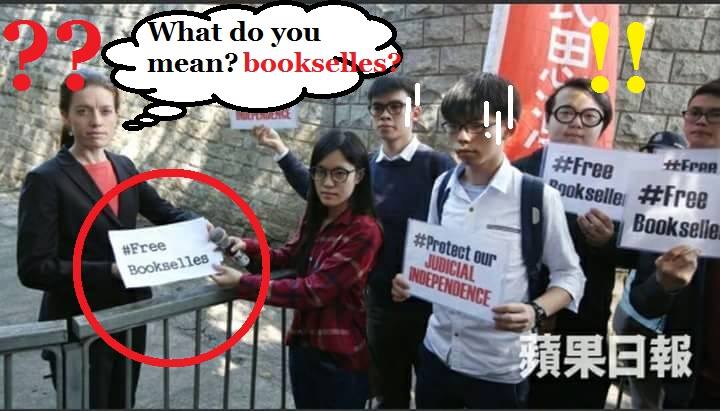
#FreeBookselles (sic)
- Five booksellers are missing. What is
to be done?
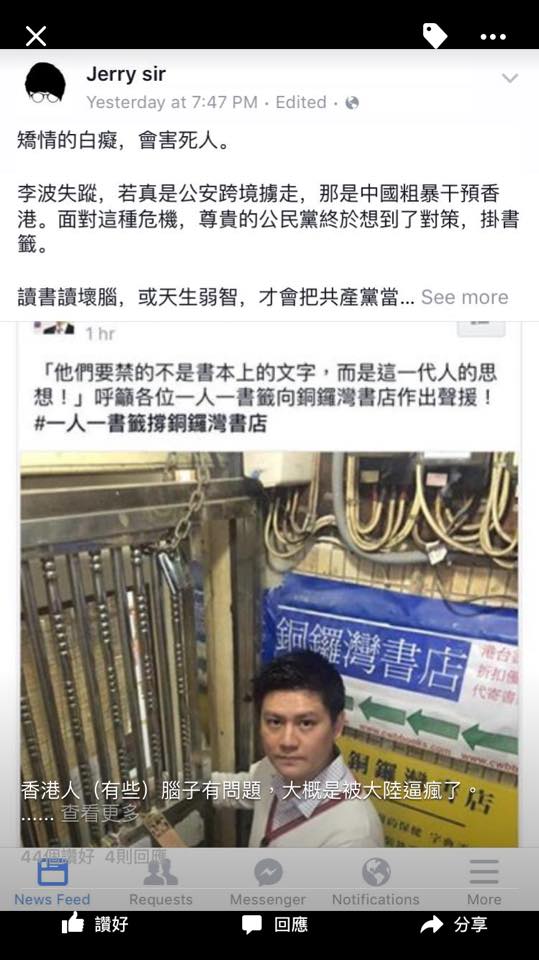
Jeremy Tam (Civic Party) had it figured out: "They wanted not so much as
ban the words in the books, but the ideas inside the heads of the people
of this generation! I am calling for everybody to use one bookmark each
to support the Causeway Bay Books!"
Jerry Sir: If Lee Bo was really kidnapped
across the border by the mainland public security bureau, then China is
violently interfering in Hong Kong. In the face of this crisis, the
esteemed Civic Party has finally formulated the counter-strategy: To post
bookmarks. Only people who are born with low intelligence and/or have damaged
their brains by reading too many books can think that the Communist Party
will feel threatened by a bunch of bookmarks ...
Jeremy Tam: I thank the Internet users
for their opinions. I understand what people are concerned about. I have
stopped this bookmark drive in order not to cause confusion. I have
deleted the corresponding post. The Civic Party will use different methods
to follow up on the case. Legislator Kenneth Kwok (Civic Party) has
written to the Security Department and he will also raise an emergency
inquiry at the Legislative Council to get a government response.
Reiji Lee: What has your bookmark
campaign got to do with Kenneth Kwok writing a letter? You were going to
have to delete your post anyway. So what can you do now that is useful?
You only know how to run over and fetch your big brother. The quality of your
Civic Party sucks dick. The Democratic Party is fucking stupid, and so too
is your Civic Party. And you people have the nerve to ask us to vote for
you in spite of the tears in our eyes? Since it is terrible to vote one
way or the other, I would rather vote for Christopher ("Tree Root") Chung
instead because there is at least a chance that he may be able to locate
his conscience as opposed to voting for you wastrels and hope that you
commit suicide soon.
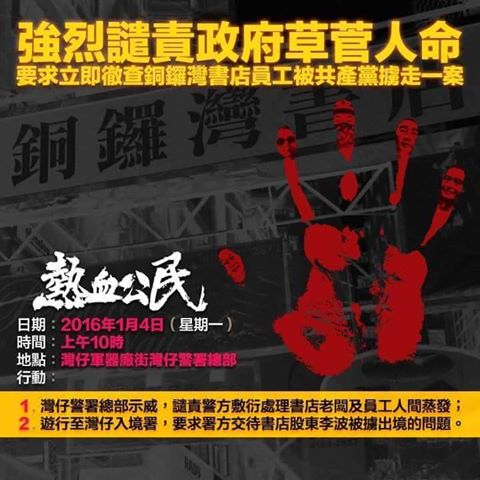
- Civic Passion: Strongly condemnation of
the government disregarding human life
We demand a thorough investigation of the kidnapping of the Causeway Bay
Books workers by the Communists
Civic Passion
Date: January 4, 2016 (Monday)
Time: 10am
Location: Wanchai Police Headquarters
Action:
(1) Demonstrate outside the Wanchai Police Headquarters to protest the
police mishandling of the case of the disappearance of the bookstore owner
and workers
(2) March to the Wanchai Immigration Department to demand a response on
the problem of bookstore shareowner Lee Bo being kidnapped and taken
across the border.
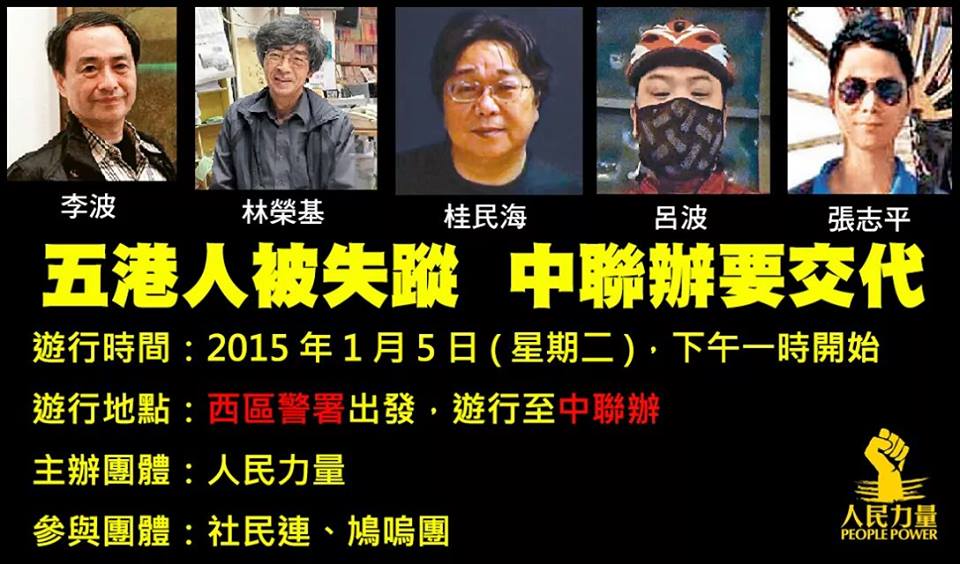
- People Power
5 Hongkoners have been disappeared, the China Liaison Office must explain
Date: January 5, 2015 (Tuesday)
Time: 1pm
March route: Western District Police Station to China Liaison Office
Organizer: People Power
Participating Organizations: League of Social Democrats, Shopping
Revolutionaries
- Note: You are going to have to find a time
machine in order to go back in time to participate in this January 5, 2015 demonstration
march.
- Apple Daily's summary graphic:
October 10, 2015: Causeway Bay Books boss Gui Minhai disappeared in
Thailand. It is rumored that Gui Minhai was kidnapped by Chinese national
security personnel and taken back to China.
Mid-October 2015: Mighty Current Media Company (parent company of Causeway
Bay Books) general manager Lui Bo, business manager Cheung Jiping and
bookstore manager Lam Wing-kee went out of reach.
December 30, 2015: Bookstore shareholder Lee Bo disappeared from the
bookstore warehouse
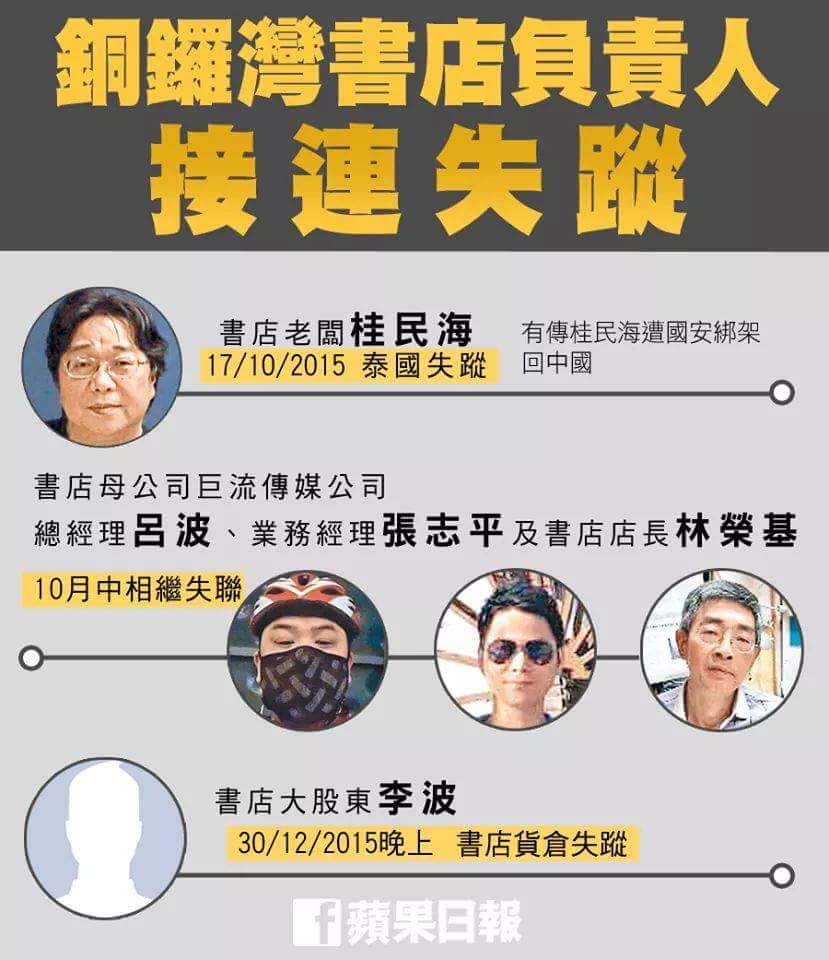
- Why is the only picture that they can
get for Mighty Current general manager Lui Bo is a man with a bandana
across the lower half of his face and a bicycle helmet to cover his
hair? If these photos are meant to locate a missing person, then I
wouldn't be able to recognize him even if I sat across him.
- (Initium)
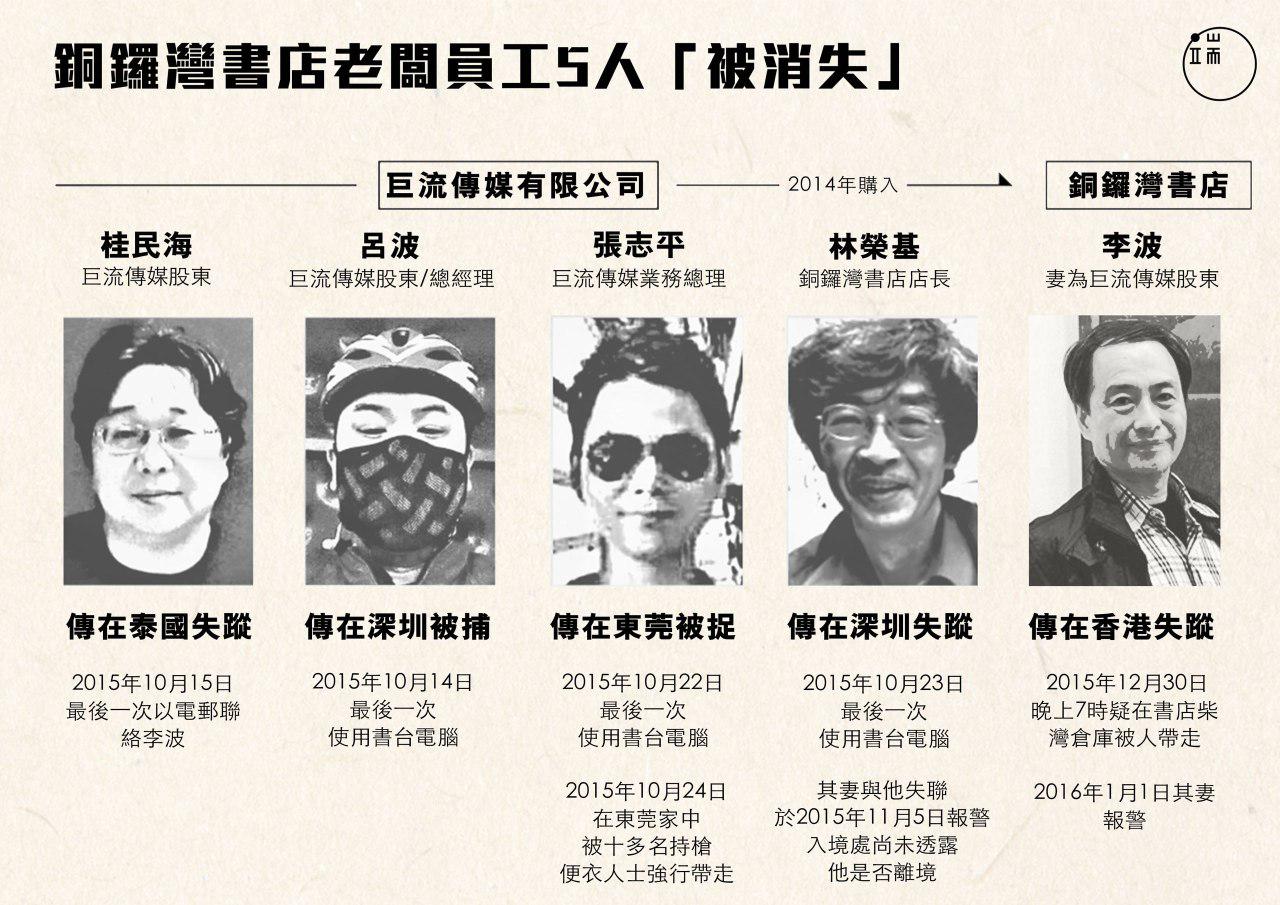
Gui Min-hai: Disappeared in Thailand. Last
email contact with Lee Bo on October 15, 2015
Lui Bo: Arrested in Shenzhen. Last time used desktop computer on October
14, 2015
Cheung Ji-ping: Arrested in Dongguan. Last time used desktop computer on
October 22, 2015. Reported to be taken away by a dozen or so armed
plainclothesman from his Dongguan home on October 24, 2015.
Lam Wing-kee. Disappeared in Shenzhen. Last used desktop computer on
October 23, 2015.
Lee Bo: Taken away on December 30, 2015 from the bookstore warehouse in
Chai Wan.
According to Sophia Choi, the wife of
Lee Bo, "Lee had said that he would not go to Shenzhen. In recent years,
we have been very cautious and we don't dare to travel to the mainland."
On the afternoon of January 1, she filed a missing person report at the
North Point Police Station. When she went home, she realized that there
was a locked drawer with no key. So she asked a locksmith to come and
open the lock. She found her husband's Home Visit Permit (=travel
document for Hong Kong residents to enter mainland China) in that
drawer.
- Let us first see what the market for
banned books in Hong Kong is. The
New York Times article began with this:
The tiny book stall next to the popular
Star Ferry terminal in Hong Kong does a brisk business catering to the
thousands of visitors from mainland China who pass by every day. About
half of its books are political, including titles about the private
lives, back-room politics and fabulous fortunes of the Communist Party
elite in China. The other half are pornographic. Both types are banned
in the mainland. �Political books and pornography books both have market
value,� said the owner, Mak Kuen-tat, as he leafed through a tabloid
about local celebrity gossip.
There are hybrids of politics-pornography
too, as in a title such as <Ten most famous mistresses of the red
princelings>. If Chinese national security agents get involved to kidnap
someone across the border, then it can't be about pornography. So it is
mostly likely about politics. What kinds of books are these? Here are some
of the titles from Mingjing publishers:
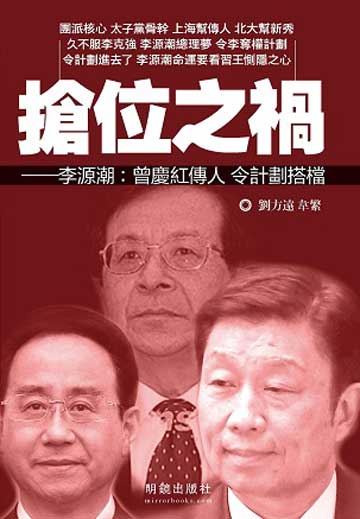
Power struggle among the red princelings
versus the Shanghai gang heirs versus the Beijing young turks
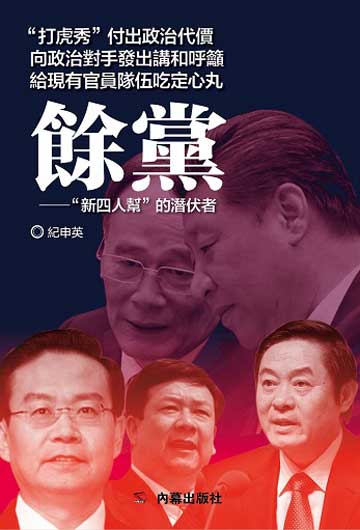
Peace offering after the anti-corruption
campaign means that all remaining government/party officials are at ease
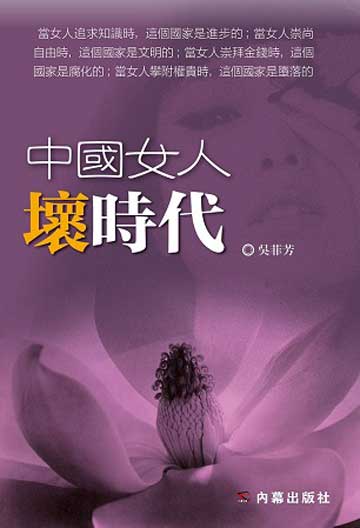
A Bad Time for Chinese Women
(When women worship freedom, the nation will be civilized; when women
worship money, the nation will be corrupt; when women worship power, the
nation will be decadent)
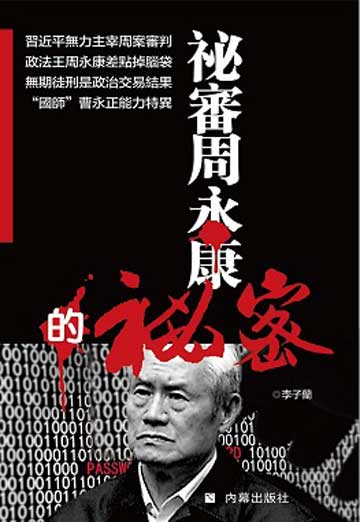
Secrets from the secret trial of Zhou
Yongkang
(Xi Jinping powerless to direct the trial
Life imprisonment was the result of political compromise)
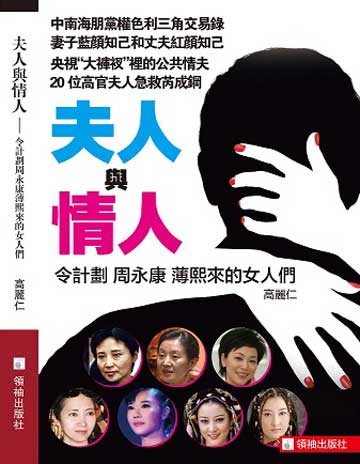
Wives and Mistress
(The women of Ling Jihua, Zhou Yongkang and Bo Xilai)
Where can you buy these books in Hong
Kong? You can find them in most bookstores, both the large Sino United,
Eslite, PageOne and Popular stores as well as the small independent
second-floor bookstores. You can also find them at the newsstands in
tourist areas. The publishers want mass sales and so they wouldn't provide
their books exclusively to any one outlet. There is nothing special about
the Causeway Bay Books in this regard, because their books in stock
are also available in many other bookstores in Hong Kong.
Who reads these books? Hongkongers don't
read them. Once you have read one or two of these books, you will
recognize them as fiction, because the authors could not possibly know
what so-and-so said at a certain Politburo meeting, or what so-and-so said
to his mistress after making love. Worse yet, this is bad fiction because
their authors are in a real hurry because they are commissioned to write several books a month.
However, these books are attractive to
mainlanders who have never seen this sort of thing in their lives. When
mainlanders come to Hong Kong, they can buy these books and bring them
back to China. Most mainlanders are not inspected by customs inspectors
when they return home. On the rare occasions when they are unlucky to be
chosen at random, the books are
confiscated without further punishment. But if they bring in a large
quantity of the same title, then that could be trouble because this is no
longer for personal consumption and/or out of ignorance.
Also there are electronic versions of
these books, which means that any mainlander can download them through
peer-to-peer service if they care to spend the time to search for them.
The publishers don't get paid for these these illegal downloads.
When a particular book is in demand (such
as the Secret Diaries of XXX), some pirate will scan the book into pdf
format and offer it for free download (at a dedicated website which
contains pop-up ads). In this way, any Chinese citizen can access
practically anything that they want to. Do not kid yourself that the
Chinese citizens have no access to anything.
- Miscellaneous comments:
- The wife may not know where her husband
has gone, so she deliberately dragged the Chinese public security bureau
into this in order to draw attention to the case and thus force the police
to run a dragnet.
- Mrs. Lee said that she got a phone call
with caller ID from Shenzhen. Some mainland phone cards will show mainland
ID even if the call is made in Hong Kong. So this is not conclusive
evidence that Lee was in Shenzhen.
- With technology available on Taobao, I can make a telephone call coming
from a White House number.
- Civic Passion is calling for a
demonstration against the Chinese Communists for kidnapping Hong Kong
citizens. Since the case is already declared to be closed because the
conclusion has been reached, why run any
investigation?
- Civic Passion will be demonstrating outside Police Headquarters to
demand that the Bad Evil Black Police run an investigation. If you don't
trust the Bad Evil Black Police, why are you asking them to do anything
for you?
- Hong Kong Localism Power
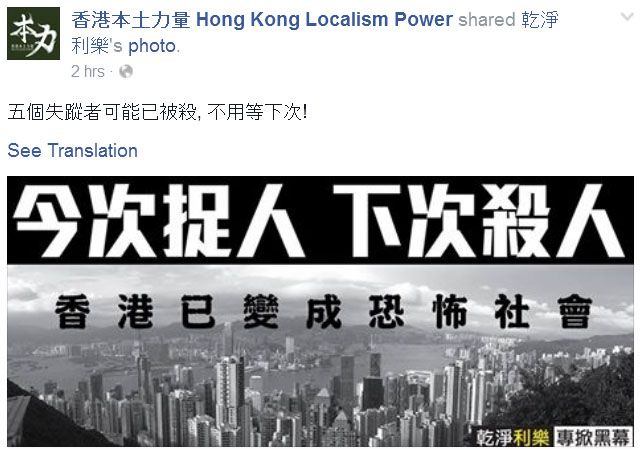
This time they arrested people. The next time they will kill them.
Hong Kong has become a terrifying society.
The five missing persons may have been killed already, so there is no need
to wait for the next time!
- Do you remember the woman who killed
her daughter and faked a kidnapping by persons with mainland accents?
Anytime that a case seems to involve mainlander(s), the newspapers will rush in
and blow the case up beyond proportion to launch a city-wide dragnet.
[(Apple
Daily) November 24, 2013 headline: Mainland man and woman
pretended to ask for street directions, kidnap a 6-month-old female baby.]
- Why is the Journalists Association
demanding the China Liaison Office provide the answer to a missing persons
case? Are those missing people journalists with press cards from
accredited media outlets?
- Why is the Journalists Association missing when a genuine journalist
(Chris Wat Wing-yin who writes for Sky Post and Headline Daily) and her
family received death threats over her writings?
- If the Chinese national security bureau
is going to kidnap someone, it wouldn't be some small fries such as a
publishing company business manager or a bookstore sales clerk. The books
can be published by any number of other publishing companies and they can
be bought at any number of other bookstores.
- If the mainland security bureau said
that they didn't do it, they should produce the evidence to convince me.
Right now I believe the circumstances point to them having kidnapped the
five booksellers.
- If the mainland security bureau did not do it, what evidence would
satisfy you? This is an IQ question. Starting point: Their denial wouldn't
be good enough for you. Affidavits from all national security agents on
their whereabouts at the time wouldn't be good enough for you ... so what
will you accept?
- (Apple
Daily) Using the penname of Gao Tian-han, Lee Bo has written and
published two books: <Backyard fire with Xi Jinping> and <Secret
connections between Xi Jinping and Bo Xilai>. These are collections of
information that have previously appeared on overseas websites. The book
about Xi Jinping and Bo Xilai is about their family lineage plus a lot of
fictive imagination. Apart from some apparent sensationalism, there is
nothing special about these books compared to similar ones.
- If the Chinese national security bureau
is going to kidnap someone, it will be someone who truly poses a threat to
national security, such as whoever is funneling money from the foreign
forces to the people who are then tasked to create chaos (e.g. Occupy
Central) in Hong Kong.
- The publishing house/bookstore is
actually a CIA front to collect sensitive information from China. By
posing as a publishing house soliciting information, they may hit the
jackpot with someone who actually knows something. But in this case, the
informant was actually an undercover Chinese agent who lured those people
in the spy network to go to China to pick up the trove of information.
- You cannot make such accusations without any evidence!
- If Apple Daily can do it, then why can't I?
- (Oriental
Daily) At the RTHK City Forum, legislator Emily Lau (Democratic
Party) started talking about the Causeway Bay Books affair. Defend
Hong Kong Movement convener Fu Chun-chung got up and pointed out that the
similarity with the 2014 case of activist Yang Kuang. He said that
everything occurred because "you pan-democrats broke the law." The RTHK
host said that he failed to see the similarity and immediately cut off
Fu's microphone. During the break, Fu and another man rushed the stage to
argue with the host, but the workers came up to stop them. Fu said that
his freedom of speech had just been strangled.
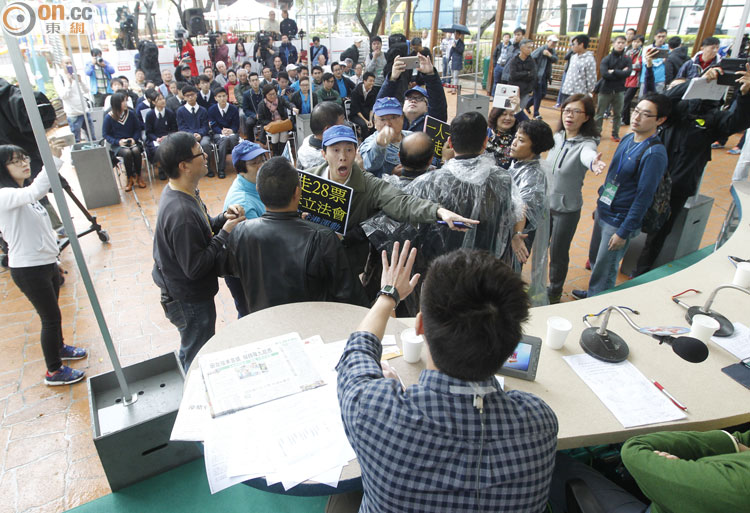
- I now learn something that they never
showed in television dramas -- when the mainland national security agents
kidnap you, they will lend you their personal mobile phone so you can call home and
tell your wife that you are still alive.
- Those scandal sheets on Chinese
politics tend to be poorly written fiction. It may be that one of them was
actually based upon something real, in which case the national security
bureau was called in to investigate the leak. Unfortunately, we have no
way of knowing which book it was.
- The most common reasons for being
kidnapped are sex and money. But now we have five missing persons so far.
It is one thing for a guy to have a mistress who is taking revenge for
abandonment, but not all five of them at the same time. It is another
thing for the publishing company and/or bookstore to owe money to a lender
who is trying to extract the debt, but there is no need to kidnap all of the
employees.
- (Ming
Pao) According to the police, Lee Bo was seen on the Chai Wan
building surveillance video as leaving alone via freight elevator at
around 545pm on that day while holding what appears to be a bag of books.
Yesterday morning, Mrs. Lee received a third phone call from Lee Bo
to say that he is safe. When asked if he was in Shenzhen twice, no reply
was given. Mrs. Lee said that she wanted to speak to the people who took
him away. The phone was disconnected at that point. The conversation
lasted about 1 minute. The caller ID was the same Shenzhen number as on
the two previous occasions.
- Mrs. Lee has been in constant contact
with the Hong Kong Police, Apple Daily, Ming Pao and Initium Media about the
case. That's fair. But four other men connected to the bookstore/publisher
are also missing. Do they have no families? They have never been heard
from.
- Lui Bo, the guy in the helmet and bandana, has a family in Shenzhen.
That is why he covers up his face. His family must be scared to contact
Hong Kong media. Cheung Chi-ping has a family in Dongguan. But the other
two men do not appear to have families in mainland China.
- The other families may have also contacted the Hong Kong Police and
their cases may be actively worked on. The difference is that they did not
seek out the media, which become a change factor. Instead of telling the
whole world that your husband called three times with a Shenzhen number
(which means that the phone and the card are probably destroyed by now),
why not tell only the police and let them trace the calls?
- Under Hong Kong law, a missing person
report can only be closed when that person shows up. Mrs. Lee cannot close
the case. So the police investigation will continue.
- Here is one possible script: Lee Bo and
his wife (who holds 34% of Mighty Current which owns the Causeway Bay
Books) were frustrated at the lack of progress in finding the four
missing persons associated with the bookstore/publishing company. So Lee
Bo decides to disappear himself while his wife goes public. The resulting
public outcry means that the Hong Kong Police must pursue the whole case
actively. Lee Bo will probably emerge a few weeks later and explain why he
was forced to it. If he is charged with filing a false police report, the
Journalists Association and the rest of the pan-democrats will come to
defend him. So Mr. and Mrs. Lee have nothing to lose with this gambit.
- Anonymous HkG
According to the analysis of the PHP execution error on the Causeway Bay
Books website, we have determined that an intruder has modified the
code. This means that people who enter the website to order books (and
leave contact information) will have the information forwarded to a third
party. Therefore you should not leave any personal information at that
website.
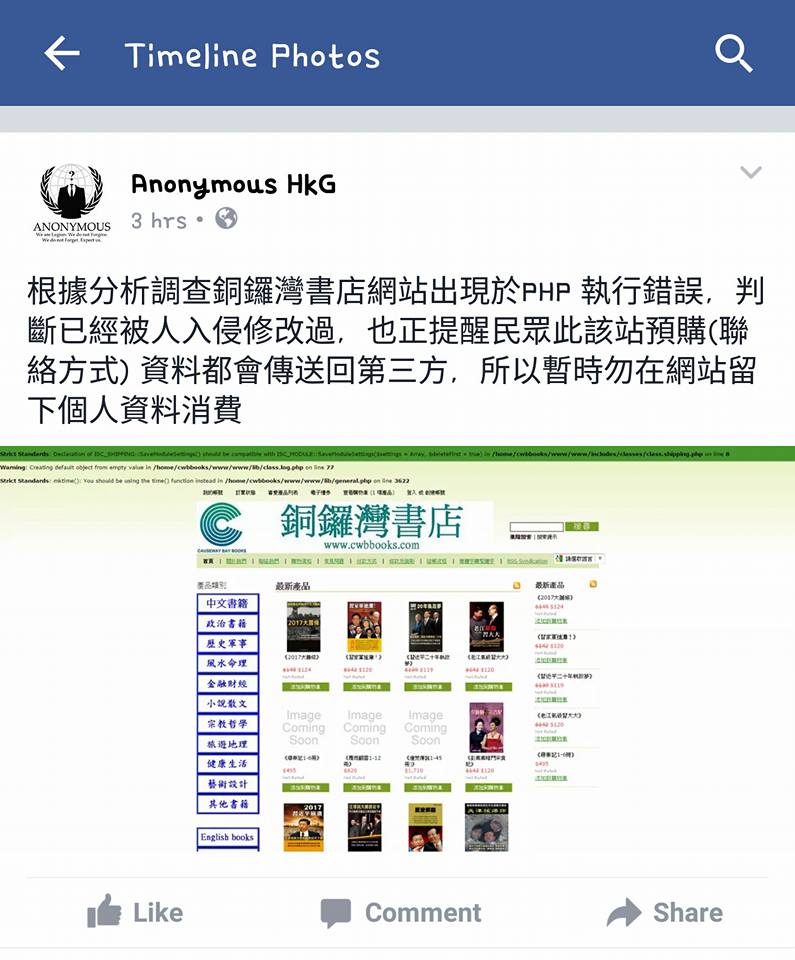
- Given the amount of information
available so far, I would be crazy to believe any of the hypotheses. I am
not going to follow the preceding car too closely, lest I run into a
traffic accident.
- This case is suitable for filing into the X-Files.
- I have a manpower question. The
bookstore is small (300 square feet in area). Five persons associated with
it have gone missing. So who is left to run it? Somebody called the police
to tell that the place was empty, the door was unlocked and the lights
were on. The police went there, but found the door locked. They knocked
for a long time but no one came to the door. So how many people (if any)
are left to run the place? Mrs. Lee holds a 34% share of Mighty Current
which owns Causeway Bay Books. But is she involved in daily operations
at the bookstore? And is whoever is left worried about personal safety?
Should the police be providing round-the-clock protection?
P.S. Lee Bo went to the Chai Wan warehouse to pick up a dozen or so books
for a customer. While he was out, someone else must be manning the
bookstore? Who is that?
P.P.S. Someone orders a dozen books and the bookstore owner must go from
Causeway Bay to Chai Wan to fetch the books. Hey, the profits aren't
enough to cover transportation!
P.P.P.S. Lee Bo sent a handwritten fax to a Mr. Chan about bookstore
matters. So there is at least one Mr. Chan left.
- The Journalists Association and the
Independent Commentators Association jumped in to issue their demands.
Newspaper commentaries are often collected and compiled into books, so
we can see why the Independent Commentators Association is an interested
party. But the Journalists Association? The connection is that the
banned book publishers publish fiction and the news media journalists
also publish fiction. Therefore they are birds of the same feather.
- (Boxun)
Independent Chinese PEN president Bei Ling said that he received an email
about Lee Bo is missing. Bei could not reach Lee Bo or anyone at the
bookstore. He eventually made contact with Mrs. Lee who confirmed that Lee
Boo is missing. Bei Ling said that Gui Minhai might be missing in
relationship to his publishing activity. Since there is no evidence, Bei
Ling can only say that Gui Minhai is under the control of "mysterious
forces" or a "mysterious country." Bei Ling also speculated that Lee Bo's
disappearance shows the sign of collusion by the Hong Kong Police. He said that Lee
Bo's personality would not let strangers take him away. He emphasized that
this was just his own speculation.
- (Apple
Daily, January 4, 2015) Yesterday, the Alliance to Support
Patriotic Democratic Movements in China disclosed that Lee Bo may have
been kidnapped by the Chinese public security bureau because he was
planning to publish a book on the romantic history of president Xi Jinping.
The Alliance will hold a demonstration march next week to protest at the
China Liaison Office and to lodge a complaint with the United Nations
Human Rights Commission.
At the press conference yesterday,
Alliance chairman Albert Ho (Democratic Party) said: "I heard that Lee Bo
has a new book about Xin Jinping's lover in his youth. People told Lee Bo
not to publish it." But Lee Bo was disappeared even before the book was
published. Ho said that this was a political kidnapping, although he has
no idea about the connection with the other four missing persons. He said
that the mainland authorities were unhappy with their publications and
therefore they are now missing for political reasons ...
The early romance of Xi Jinping was
well-known already. In the March 2013 issue of Boxun Monthly, it was
reported that Xi won the heart of a young intellectual female who was older
than him. They dated for 3 months, but Xi returned to Beijing after
squabbles with village officials and the relationship ended.
- Fuck! this story is getting more
low-browed every day!
- It would be a shame if Lee Bo got
kidnapped for recycling a penny novel first published in Boxun (remember
that Boxun said that Bo Xilai paid 700 million to bed Zhang Ziyi and then
completely capitulated on the defamation suit?).
- The romances of Xi Jinping? According
to the rumors, Xi Jinping has three lovers besides his current wife Peng
Liyuan. The first woman is his first love who he did not marry. Many
people have first loves who they did not marry. What kind of story is
this? The second woman is his ex-wife, who divorced Xi when he refused
to immigrate. That's only a plus for Xi. The alleged affair with the
third woman took place more than 20 years ago. That may be a marital
indiscretion but so what? Why is it necessary to kidnap five
booksellers? It is at least understandable to kidnap the people at the
publishing house in order to find out things about the book. But why is
it necessary to kidnap the bookstore manager who does not work for the
publisher? The Causeway Bay Books won't be the only retail outlet
for the book. The book when published will be available at any number of
other bookstores and newsstands.
- Did you notice that every senior
government official accused of corruption is also being nailed with
adultery. The Communist Party is serious about enforcing party
discipline. If Xi Jinping had an extramarital affair, that would be
breaking party discipline.
- (Apple
Daily) The overseas website Boxun which specializes on
disclosing mainland political secrets says that Lee Bo was not kidnapped
in Hong Kong by the mainland public security bureau. Instead, the
Chinese Communists directed a certain triad gang to kidnap Lee Bo and
take him to the mainland by speed boat. Boxun says that Lee Bo will
eventually come out in ten or so years. By that time, he can tell how he
was kidnapped. Therefore, the public security bureau had to outsource
the kidnapping. However, it is possible that members of the public
security bureau were present to give directions.
- (Boxun
) On December 28, an Internet user posted at Golden Forum that
Next Media intends to dismiss 300 employees. The hit list was even included.
This caused great embarrassment at Next Media, as investors wondered
about its financial situation. Shortly afterwards, Next Media made a
wise move by pushing the story of Lee Bo being disappeared. On the
website, Facebook and newspapers, they published dozens of reports and
commentaries to hype up the case. Next Media was very successful, as the
readers and shareholders were engaged by this new story. So
unintentionally, Lee Bo has managed to bail out Next Media.
- (Apple
Daily) According to Chinese current affairs commentator Lin
Lihuo, the news from publishers is that the Chinese had previously
kidnapped the owner Gui Min-hai and three other employees in order to
stop them from publishing the romantic life of Xi Jinping. They wanted
to seize the embarrassing information about Xi Jinping. "They
interrogated the other four persons over several months without any
result. Therefore, they had to kidnap the warehouse manager Lee Bo.
According to Lin, Lee Bo may have surrendered the relevant material.
Since the case is drawing international attention, the Communists
promised to Mrs. Lee that her husband will be released. "The key problem
is that Lee Bo does not have a home visit permit with him. Therefore
they asked Mrs. Lee to withdraw the police report and they hope that the
matter will be blown over in time."
- (HKG
Pao) At RTHK's City Forum, the topic this week was supposed to
be the upcoming New Territories East Legislative Council by-election. Guest Emily Lau
(Democratic Party) digressed to other matters such as the appointment of
Arthur Li to HKU council chairman and the missing booksellers. Defend
Hong Kong convener Fu Chun-chung objected from the audience stand,
denouncing Emily Lau's digressions and using the example of activist
Yeung Hong who was arrested for violating in mainland China for breaking
mainland laws. "Things happen only because you pan-democrats break the
law!" The host immediately cut off his microphone. This led to some
quarreling between Fu and the organizers during the break (see
https://www.facebook.com/bbtauseeworld/videos/440120229518693/?theater
and
https://www.youtube.com/watch?v=oAnQi0YjegY ). This has led to
comments that RTHK's freedom of speech is limited to what they want to
hear only.
- Factoids about
Lee Bo:
-- The younger sister of Lee Bo is Lee
Tung-ming, the first actress to have played The Little Dragon Girl from
Jin Yong's <The Return of the Condor Heroes> on television.
-- Lee Bo himself worked at Sino United and therefore has good knowledge
of the publishing industry.
-- Mrs. Lee Choi Ka-ping wrote a column for <Ta Kung Pao> for 20 years
-- (Initium)
Mrs. Lee Choi Ka-ping said that she worked for Sino United for more than
30 years as a literary editor and that she is not interested in politics.
-- Lee Bo may have a British passport, which has led to British interest
in his case (e.g.
Independent). When asked about the disappearance of Mr Lee,
Chinese Foreign Ministry spokesman Hua Chunying said at a regular
briefing yesterday: "I'm not aware of the situation; I have nothing to
offer".
- (Apple
Daily) The United Kingdom has confirmed that Lee Bo holds a
British Passport, and indicated their urgent interest in the whereabouts
of Lee Bo. Chinese Foreign Minister Wang Yi responded that Lee Bo is
first and foremost a Chinese citizen and warned various forces not to
make baseless accusations against China.
- (TVB)
In Beijing, Foreign Ministry Hua Chunying responded: "Hong Kong is a
special administrative region of China. Hong Kong affairs are China's
internal affairs, and cannot be interfered with by foreign countries."
- Lee Bo has used "his own method" to
go to the mainland, which means that the mainland authorities won't even
know his whereabouts. Meanwhile the Hong Kong police report is withdrawn
by Lee's wife. So this is neither "kidnapping across the border" nor
"missing person" anymore; it is a personal action. So why the continued
interest? Shouldn't we have more interest is the missing Wo Shing Wo
triad leader "Shanghai Kid" Kwok Wing-hung than Lee Bo? Thus Chief
Executive CY Leung said: "We are investigating this matter. As I said
yesterday, we want people (especially Mr. Lee Bo himself) to provide
information to us. The Police can only reconstruct the case by having
the evidence."
- (Boxun)
We have learned that apart from writing to the bookstore employee Mr.
Chan, Lee Bo also wrote a letter to his wife. This was the important
reason why Mrs. Lee withdrew the police report on the afternoon of
January 4th. According to our understanding, Lee wrote to his wife that
the relevant department "even bought the tomato juice that I drink daily
to me. I merely mentioned it in passing, so I was surprised." Lee also
gave detailed instructions to deal with four relatively urgent company
business related to shipment acceptance and check deposits. This showed
that Lee was very concerned about company business. Lee Bo also
mentioned that he will send the signed bookstore checks to her.
- (HKG
Pao) Here are a number of questions that you can think about:
(1) Lee Bo was an unknown person before
this. He has no ties to the pan-democrats in Hong Kong, and Mighty
Current is not the only publishing house that puts out anti-Communist
books. There are plenty of anti-Communist culturati in Hong Kong. You
can fill up ten double-decker buses with them before the turn comes for Lee Bo. So
why was Lee Bo kidnapped to mainland China?
(2) Under normal circumstances, would a
person arrested for political reasons be allowed to call home to report
personal safety on consecutive days?
(3) Mr. Lee was able to call and say
that he was personally safe, and Mrs. Lee could file a missing person
report. Positively speaking, this can be regarded as publicity for
Mighty Current and Lee Bo. Negatively speaking, if Lee Bo used his own
method to travel north while leaving his travel document at home, then
Border Control should arrest him just as when Yang Kuang did when he
went to meet his girlfriend.
(4) These "banned books" have been
around for a very long time. Even before 1997, the books could be found
at the airport bookstores. As more mainlanders travel outside, more of
these books can be procured! Why did the Chinese Communists target one
publisher eighteen years after the return of Hong Kong to China?
(5) It is said that five persons from
the same publishing company have disappeared. Why did the politicos show
up only after the fifth person went missing?
Do you recall that political
commentator Yip Chee Chau was found dead in in a stairwell with his
skull smashed and when activist Yang Kuang went missing? In the
aftermath, the politicos came out and talked about political
assassination/persecution? It turned out that Yip was killed
accidentally by his girlfriend's husband and Yang went to visit his
girlfriend surreptitiously. Of course, the politicos and the media don't
remember any of that.
- (The
Sun) January 6, 2016.
I visited the Causeway Bay Books
three years ago. My impression was that their business was not very
good. The bookstore manager had a grim look as if he was deeply worried
about the business. He told me personally that he pays $50,000 in rent
each month so that it was hard to make money. 95% of the books in the
store were wrapped up in plastic to prevent the customers from leafing
through them. If you really want to inspect before purchasing, the
manager can take off the plastic. If you decide not to buy it after you
read it, the manager will put the plastic back on again and return the
book to the shelf. The purpose was to prevent spoilage. When a store is
run this way, there are probably not many customers. I find it hard to
think that the Chinese Communists would target such a small bookstore.
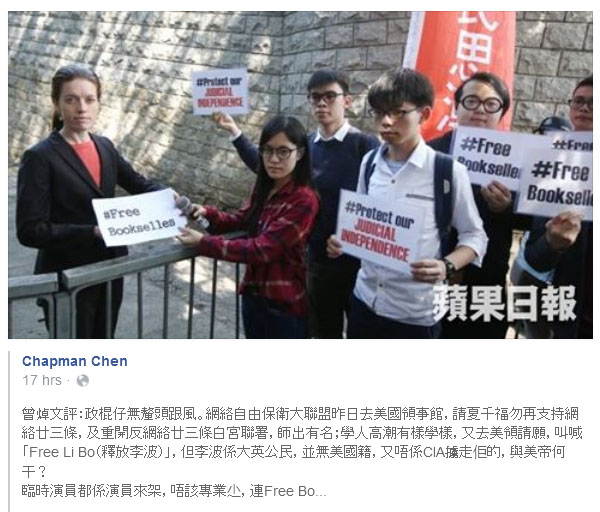
Chapman Chen Facebook: The Internet
Freedom Defense League acted nobly to petition at the US Consulate to
oppose the Internet Article 23 and re-open the whitehouse.gov signature
campaign. Scholarism decided to follow suit to petition the US Consulate
to "Free Li Bo". But Lee Bo is a British citizen without American
citizenship and he was not kidnapped by the CIA either. What has this
got to do with the American imperialists? Furthermore, they hired some
part-time actress who mispelled "#Free Bookselles". Furthermore,
"#Protect our Judicial Independence" should be "#Protect HK's
Independent Jurisdiction".
- Joshua Wong wants the United States
to protect our judicial independence.
(RT)
January 5, 2016.
Just days before Saudi Arabia�s mass
execution of 47 people, the US announced the approval of more military
contracts with the Gulf kingdom.
When President Barack Obama first
announced the US$1.29 billion deal for 18,000 bombs and 1,500 warheads
late last year, Amnesty International and other groups called on him
to cancel them since this violated the UN Arms Trade Treaty, which
forbids the sale of weapons when there is knowledge the weapons will
be used against civilians.
(Wikipedia)
Extraordinary Rendition
Extraordinary rendition, also called
irregular rendition, is the government-sponsored abduction and
extrajudicial transfer of a person from one country to another.
In the United States, the first
well-known rendition case was that of an airline hijacker abducted in
Italy and brought to the U.S. for trial, authorized by President
Ronald Reagan. President Bill Clinton authorized extraordinary
rendition to nations known to practice torture, called torture by
proxy. The administration of President George W. Bush "renditioned"
hundreds of so-called "illegal combatants" (often never charged with
any crime) for torture by proxy, and to US controlled sites for an
extensive, advanced interrogation operation program under the
euphemism enhanced interrogation. Extraordinary rendition continued
with reduced frequency in the Obama administration: instead of
subjecting them to advanced interrogation methods, most of those
abducted have been conventionally interrogated and subsequently taken
to the US for trial.
Extraordinary rendition is a clear
violation of international law. The United Nations considers one
nation abducting the citizens of another a crime against humanity.
Abduction has also been a recognized casus belli (justification for
war) in the Western tradition since Helen of Troy. In July 2014 the
European Court of Human Rights condemned the government of Poland for
participating in CIA extraordinary rendition, ordering Poland to pay
restitution to men who had been abducted, taken to a CIA black site in
Poland, and tortured. Overall, 54 countries are known to have been
involved with US extraordinary renditions.
International standards on
extraordinary rendition: (Washington
Post) A staggering map of the 54 countries that reportedly
participated in the CIA�s rendition program. By Max Fisher. February 5,
2013.
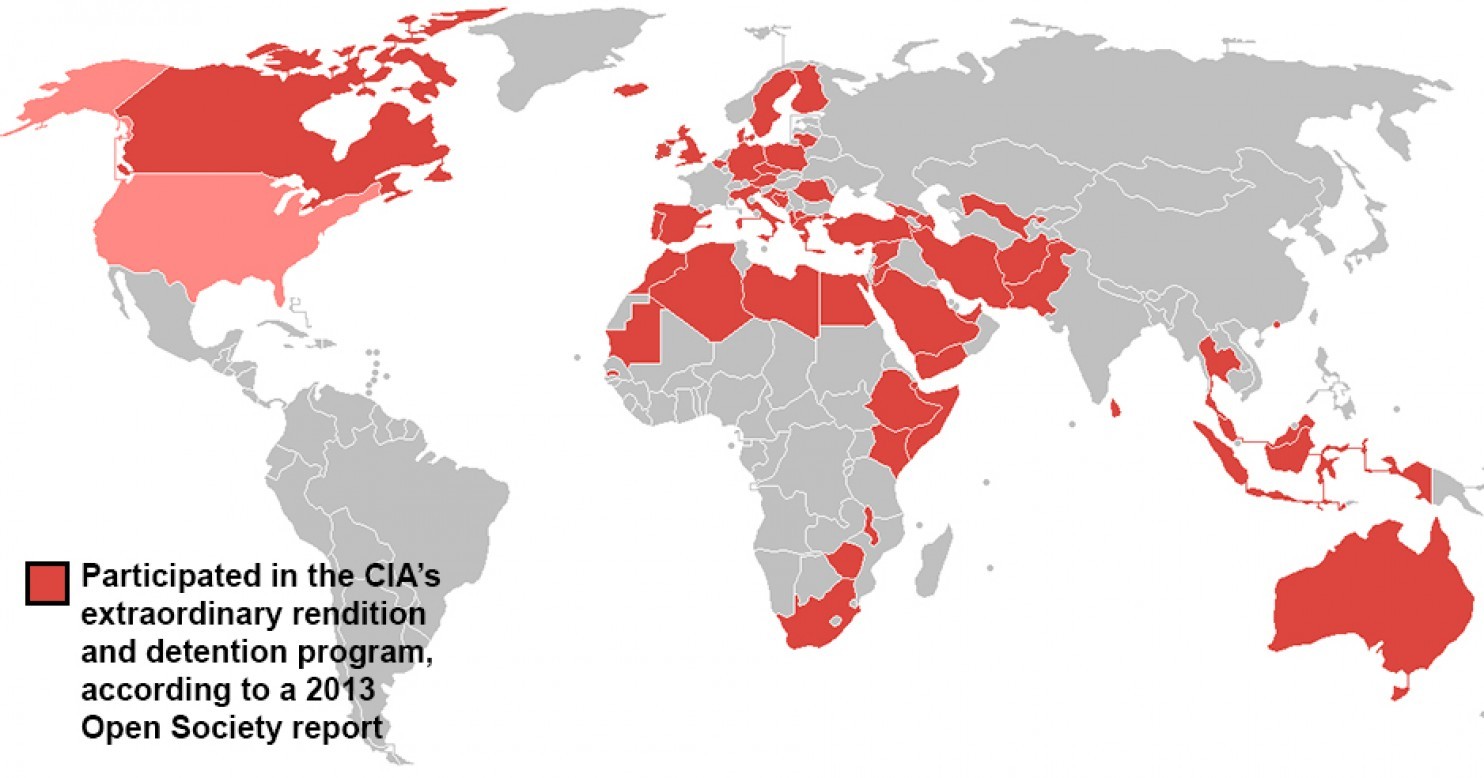
- (Apple
Daily) January 5, 2016.
Yesterday Ching Cheong was interviewed
on the phone by Commercial Radio. He said that Hong Kong is an extension
of mainland political intrigues and struggles. Over the past 30 years,
the various Chinese Communist factions have exploited freedom of
publication in Hong Kong to release information in "banned books"
favorable to themselves and unfavorable to their enemies. He believes
that the cross-border kidnapping of Lee Bo this time is related to the
bookstore's plan to publish a book concerning president Xi Jinping.
Ching Cheong has heard of the manner of
kidnapping. The mainlanders will use unmarked cars to take the
individuals to the Sai Wan Triangular Pier. The location has many mainland
cargo ships which can carry the individuals back to mainland China. He
said that in the past the individuals were mostly Chinese Communists
from the mainland. Lee Bo is the first kidnapped Hong Kong resident, and
that is why this is sensational.
(Ming
Pao) January 9, 2016.
At least two pan-democrats have told us
that mainland middlemen approached them for advice on how to end the
matter. According to what one middleman said to one pan-democrat, this
incident did not reflect the wishes of the Central Government. Certain
frontline personnel took the action without understanding the impact on
One Country Two Systems. They are now worried about the potential impact
on other matters such as increased funding of the High Speed Rail, the
Legislative Council New Territories East by-election, the Legislative
Council elections, etc. The pan-democrat advised that Beijing admit that
such action was unacceptable and release the individuals as soon as
possible.
According to what the other middleman
said to the other pan-democrat, the case of the 5 booksellers involved
the smuggling of a large number of banned books into mainland China.
However, this middleman was unable to offer any evidence. The
pan-democrat told the middleman that even if someone broke mainland
laws, the action was wrong. The pan-democrats said that president Xi
Jinping had just told Chief Executive CY Leung to implement One Country
Two Systems unfailingly, but this incident is a slap on Xi's face.
Internet comment:
- If you believe 10% of this Yellow
Ribbon fiction, both your eyes will go blind! Of all the people you can
ask for advice, pan-democrats shouldn't be on this list. Why? Because
you know that they will rush out immediately and tell the whole world
(reference: Billy Fung, etc).
- It is like as if those Shenzhen
public security bureau people give a rat's ass about Hong Kong
legislative council elections.
- The New Territories East seat was held by Ronny Tong (ex-Civic Party).
Even if the pro-establishment side loses the by-election, it only means
that things stay the same. Why is this the end of the world?
- Are Yellow Ribbons stupid? Or do the
Yellow Ribbons think that people of Hong Kong (aka Hong Kong pigs) are
stupid?
- After "an informed source" and
"somebody close", we now have "a middleman." Is this the same middleman
as this one?
(RTHK)
June 13, 2015.
League of Social Democrats lawmaker Leung
Kwok-hung says that "a middleman" offered to give him $100 million if he
voted in support of the government's political reform proposal.
- (TVB)
Alliance to Support Democratic Patriotic Movements in China secretary Lee
Cheuk-yan said that the march will continue regardless, because the issue
is about preserving One Country Two Systems and is no longer just for Lee
Bo personally. Every Hongkonger should be worried about their personal
safety. If Hongkongers don't speak out, they will be silently disappeared
one at a time. He said that he does not know if Lee Bo was forced to say
that he is safe or forced to make the video. He said that he has sent a
message about the march to Mrs. Lee Bo, but received no response. He was
not asked whether Lee Boo was being forced to be the theme of the march.
- (Reuters)
January 8, 2016.
�We are disturbed by reports of the
disappearances," U.S. State Department spokesman John Kirby told a
regular news briefing. "We share the concern of the people of Hong
Kong regarding these disappearances." He said the United States was
closely following the issue and noted a Jan. 4 statement by Hong
Kong's chief executive expressing concern about the potential
implications of this case. "We share those concerns,� he said.
On Wednesday, Britain's Foreign
Secretary Philip Hammond said any abduction of people from Hong Kong
to face charges elsewhere would be an "egregious breach" of Beijing's
promises on how it would rule the former British colony. He said that
after a two-day visit to Beijing there had been "no progress" on
determining the booksellers' whereabouts, after raising the case with
Chinese and Hong Kong officials.
Chinese Foreign Ministry spokeswoman
Hua Chunying said on Wednesday that China opposes "any foreign country
interfering with China's domestic politics, or interfering with Hong
Kong affairs."
- (The
Guardian) January 5, 2016.
In an interview about three weeks
before his own disappearance, Lee told the Guardian he suspected the
disappearance of his partner Gui Minhai on 17 October was linked to a
mystery book Gui had been preparing to publish.
Lee sought to distance himself and the
other three booksellers who had already gone missing from the title,
claiming to not even know its name. �The content of the book was solely Mr
Gui�s business,� he said. �It has got nothing to do with those three guys
in Hong Kong. They are just selling books or they were just selling books.
They know nothing. They had nothing to do with the content of the book.�
Lee said he suspected his colleagues had
been taken in an attempt to prevent the publication of the mystery tome.
�I think those people didn�t want the book to come out. They got everybody
involved in that book to make sure that the book is not out there,� he
told the Guardian.
The Hong Kong-based publishing source,
who has direct knowledge of the book�s contents, said the volume was to
have been called �Xi and his six women�. Despite its title, the book was
mainly focused on just one woman, the source said: a Chinese television
presenter whom it claimed Xi had known before he married his current wife,
Peng Liyuan, in 1987.
Beijing has long been infuriated by the
sensational � and often implausible � political expos�s about its
leaders� private lives that are produced in Hong Kong and sell like
hotcakes among visitors from the mainland, where such material is
banned.
But the source claimed Beijing had viewed
a recent flurry of titles about Xi Jinping as �a concerted smear campaign�
against the Chinese leader, who took power in November 2012. �They
[mainland authorities] might have accepted books critical of other high
level cadres, but not of Xi Jinping.� Gui�s upcoming tome on Xi�s private
life was the final straw, the source added. �The mainland authorities
decided to shut the whole operation down.�
- (Initium)
January 5, 2016.
60-year-old bookstore manager Lam Wing-kee
went out of reach on October 23, 2015. His wife Cheng Siu-chi went with
Lee Bo to the Wanchai Police Station on November 5to file a missing person
report. Cheng did so for her husband Lam Wing-kee and Lee did so for the
other two bookstore employees.
According to Lam's 20-something-years-old
son told our reporter that on November 6 Mrs. Lam received a call from Lam
to say that he was safe. "I am quite safe. I will be back after a while.
Please don't worry." After that call, Mrs. Lam received a call from the
police to ask whether she had just gotten a call from Lam, as if the
police officer knew that Lam had just called. Afterwards, the police told
Mrs. Lam: "We won't continue to investigate the case, because Lam
Wing-kee
had just called to say that he is safe. So he is not a missing person."
Lam's son said: "I and my mother don't
know what to do. Basically nobody is helping us." After November 6, they
have received no information about Lam Wing-kee. "We can't rely on the
Hong Kong Police. They won't investigate, they are simply the Public
Security Bureau. You should tell Mrs. Lee not to trust the Hong Kong
Police."
- (Next
Magazine) Interview with Lee Bo prior to his disappearance. January
5, 2016.
"I have been publishing books for a
while. I have gone to China until Yao Wentian who was not just disappeared
but arrested and sentenced to jail. After that, we didn't dare to go to
mainland China anymore. I am 100% certain that they have my file at the
National Security Bureau. I expect that they may have broken into my email
account. One of my authors lives in Shenzhen. He is a Hongkonger. He wrote
a book for me. Actually, the book hadn't even been published and his name
was on the list of banned book authors. He has never published before, and
he used a pseudonym for the book. The name on the list of banned book
authors was his real name. The only way to get that name is to break into
my email account."
Publishing banned books was highly
profitable for him, but the price was grave. Question: "Why publish
political books when the risks is so high?" Answer: "As I told you before,
it is for economic reason because it is relatively easy to make money. Not
being able to go to mainland China is no big loss."
- (SCMP)
Mystery over Hong Kong bookseller�s disappearance will only make it harder
for Beijing to win hearts and minds. By Michael Chugani. January 6, 2016.
Credible explanation needed over
booksellerWhat�s the true story behind the mysterious disappearance of Lee
Bo and four others from a Causeway Bay publishing house known for its
books critical of the central government? Only the missing five and those
responsible know. Chief Executive Leung Chun-ying�s body language at
Monday�s hurriedly-called press conference suggested even he is clueless.
But if mainland security agents did indeed spirit Lee across the border,
as is widely speculated, then it�s idiocy on a monumental scale. Being
heavy-handed against the opposition�s often hostile attitude towards
Beijing is one thing. Half the people opposed the Occupy movement. But
abducting a Hong Kong bookseller is another. Not only does it instil the
fear of white terror in the minds of Hongkongers, it�s a godsend to those
who paint the central government as a harsh communist regime that will not
tolerate dissent. Leung�s forceful statement that mainland officials have
no right to enforce laws here helped somewhat in reassuring people, but
only a credible explanation of the disappearance can put minds at ease.
Few buy Lee�s story that he voluntarily went to the mainland without
travel documents to help with an investigation. For starters, it�s illegal
to cross borders without proper documents. We need the truth post-haste or
Beijing will have an even tougher time winning the hearts and minds of
Hongkongers.
- (HKG
Pao) January 6, 2016.
A man went missing. He did not bring his
Home Visit Permit. His wife got a call from Shenzhen. Conclusion: Shenzhen
Public Security Bureau officers came down to Hong Kong to abduct him. Why?
This Lee Bo guy sells anti-Communist books. The Central Government is
upset at these books, and now wants to quash his voice. The evidence?
There was a Global Times opinion essay.
From there, the Hong Kong media hyped up
the story. A large number of people called up radio talk shows to see Hong
Kong is no longer safe, we are very scared, etc as if Hong Kong is under
occupation! The opposite camp vied with each other, the Democratic Party
and People Power raced to see who would be the first to demonstrate at the
China Liaison Office. The Central Government is roundly denounced.
... A number of shareholders at the
bookstore have disappeared one after another. I immediately thought that
this has to do with money. I remember that the bookstore folks had been
interviewed about how the reduction of Individual Visit Permit mainlanders
eroding their business. I naturally think about economic hardship causing
the shareholders to go into hiding. Mr. Lee could have smuggled himself
into Shenzhen, or he may in fact still be hiding somewhere in Hong Kong
and using an unregistered phone card to communicated with his wife and
pretend as if he is in Shenzhen. I am not saying this to slander those
people. I am only saying what this is most logical story for a normal
person.
Hong Kong has never seen a case of the
mainland police arresting people across the border. If they want to do so,
there are any number of Chinese traitors who should be arrested this way.
The bookstore boss would have to stand at the back of a very long line! A
normal person will have reservations about such an absurd story and look
for more information before reaching a conclusion. But in Hong Kong,
people in the opposition camp with lap it up and forward the rumors.
The most ridiculous assertion is that Lee
Bo is about a publish a romance history of Xi Jinping, and that was why he
had to be disappeared! A couple of days ago, I was in Xiamen visiting
relatives and I heard the same romance history of Xi Jinping. At the time,
I joked: "Why are you telling me this? Now I am going to get into troubel?"
When I returned to Hong Kong, I went to an alumni event and I heard not
one, but six, romances of Xi Jinping! Everybody knows about these stories
already. If I have to die for having access to this state secret, I would
be dead twice already by now!
- (Bastille
Post) January 7, 2016.
Before his disappearance, Lee Bo gave an
interview with Next Magazine titled: "Getting rich by publishing banned
books." In the interview, Lee Bo said frankly that he is publishing banned
books for profit and not for any public justice. A title such as
"Assassinating Xi Jinping" may seem too fantastical, but it will attract a
number of buyers. Mainlanders traveling on Individual Visit Permits buy a
lot of books about the Chinese state leaders.
Lee Bo is very frank. When asked whether
the contents of the books are true or not, he answered directly:
"Half-and-half. You don't believe in much of the official information, but
genuine inside information is rare and scarce. I don't have any
connections. Most of my information has been posted on websites. I also
get my information from other publications. Of course, it depends on one's
analysis. This is like working in intelligence. The books are compiled
from various sources."
It is amazing that Lee Bo admits to
fictive writing. His Mighty Current publishing house has published some
attention-drawing books, such as <Jiang Zemin under house arrest> about
Jiang being placed under house arrest in May 2015 after a conflict with Xi
Jinping. But the fact is that Jiang Zemin showed up alive and well in the
September 2015 military parade. In other words, that entire book was made
up.
Next Weekly calculated the economics of
the publishing house. According to the Causeway Bay Books, they have
published at least 50 different politics books in 2015 at $120 per book.
If they print 1,500 to 2,000 copies per book with a profit margin of 40%,
they can earn $100,000 per book. Therefore the bookstore has made at least
$5,000,000 last year from the banned books.
A publisher such as Lee Bo will openly
declare that they are doing creative writing to publish baseless so-called
banned books that show the state leaders in the worst possible light and
earn tons of money of themselves. In Hong Kong, we speak of freedom of
publication. But it is ironic that this is the type of freedom that we are
trying to protect here.
- (Oriental
Daily) (The
Stand News) January 7, 2016
Previously,
Initium reported that a Mr. Chan had taken over the Causeway Bay
Books. According to Mrs. Lee, Lee Bo had signed a contract with Mr.
Chan. After the bookstore began to disappear one after another, Mrs. Lee
could not get in touch with Mr. Chan either. According to Ming Pao, Mr.
Chan is the representative of the new boss and there is a contract for Mr.
Chan to take over bookstore operations for six months. Mr. Chan said that
the "boss" knows the bookstore manager Lam Wing-kee.
Earlier, Lee Bo is supposed to have sent
a fax to Mr. Chan to tell him to continue operating the bookstore in
accordance with the contract. After many of the bookstore shareholders and
workers began to disappear, Mr. Chan stepped in to take over operations.
Yesterday at around 430pm, 3
plainclothesmen and 1 plainclotheswoman accompanied Mr. Chan to the
Causeway Bay Books. They stayed inside for around 30 minutes. They did
not appear to have taken anything with them. Mr. Chan wore sunglasses
throughout and he did not respond to questions from the reporters present.
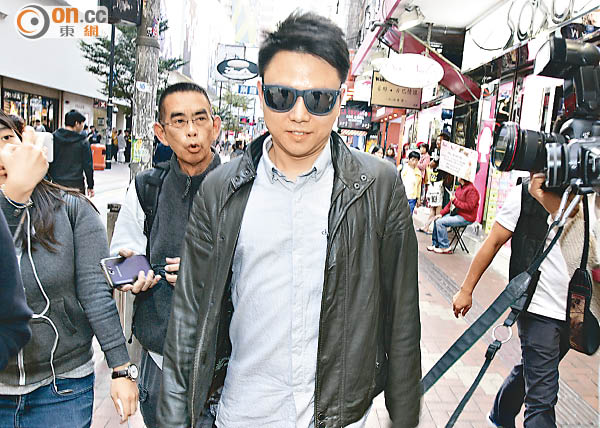
The very mysterious and silent Mr. Chan
According to online media, three hours
before Lee disappeared, a bald-headed middle-aged man showed up at the
Causeway Bay Books and demanded to see the boss Lee Bo. He claimed to
have worked at the bookstore previously. At the time, Lee and another
worker were at the Chai Wan warehouse. So Mr. Chan talked to the man. The
man looked around before leaving. Meanwhile, Lee Bo called Mr. Chan to say
that "I just received an order. I will return after I finish doing it."
The other worker then left first. Lee Bo spent some time alone in the
warehouse. Then he went out of contact with his wife and the bookstore
workers.
- If the bookstore ownership/management
had already changed hands, what then is the point of kidnapping the
bookstore shareholders/managers/workers?
- (Sing
Pao) We checked through multiple informed sources and got
confirmation that the police investigation had nothing about any
bald-headed man showing up. Yes, there was a short-haired man creating a
stir but he came on some other matter altogether. The original story came
from an online media outlet Hong Kong 01 which didn't even exist before
this. Hong Kong 01 has been posting latest developments and insider
stories on the Lee Bo case.
- (Hong Kong 01)
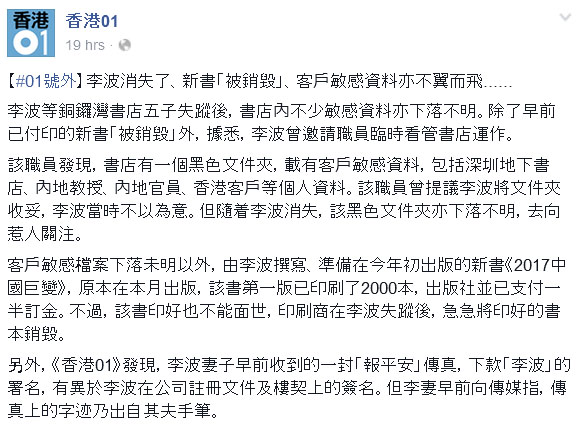
According to information, Lee Bo asked
a temporary worker to look after bookstore operations. This worker found
that there was a black document folder containing sensitive customer
information, such as the list of Shenzhen underground bookstores, mainland
professors, mainland officials, Hong Kong customers, etc. This worker
recommended that Lee Bo kept this file secure. But Lee Bo did not take
that to heart. After Lee Bo disappeared, that folder has disappeared as
well.
Lee Bo also wrote a book titled <2017
Great Changes in China> to be released this month. The first printing was
for 2,000 copies, for which the publishing house had prepaid half the
printing cost. After Lee Bo disappeared, the printing company quickly
destroyed the printed copies.
Also Hong Kong 01 detected that the
fax allegedly sent by Lee Bo had a signature that is different from what
Lee Bo put on his company registration form and land title. However, Mrs.
Lee told the media previously that the handwriting on the fax belongs to
her husband.
- (Initium)
January 7, 2016
Lee Bo wrote a fax to Mr. Chan, saying:
"Please continue to run the bookstore in accordance with the contract."
The fax was dated January 3 and received on January 4. Previously Mrs. Lee
had said that a buyer interested in taking over the bookstore had signed a
contract with Lee Bo in November. Mr. Chan who received the fax is that
intended buyer. He has signed a contract to rent the Causeway Bay Books for 6 month. After Mr. Chan received the fax, he forwarded a
copy to the Central News Agency (Taiwan) which published it.
At 430pm on January 7, four police
officers accompanied a man in a light-colored shirt, black jackets and
sunglasses around 30- to 40-years old to the Causeway Book Store. The man
held a key to open the lock on the chain on the metal gate in front of the
bookstore. The five persons entered the bookstore and stayed around 30
minutes. The man and the policemen came out and left by car.
The man with the key is confirmed to be
Mr. Chan.
According to an industry insider, "I only
know that he is a Hongkonger in the sex industry. He has a mainland boss
who is very wealthy. The boss told him to come to Hong Kong to take over
the bookstore."
Mr. Chan showed up first in November
2016, after the Causeway Bay Books owner, shareholders and employee Gui Minhai, Lui Bo, Cheung Chi-ping and
Lam Wing-kee all disappeared.
"After the others disappeared, Lee Bo felt that he could not sustain
operations with the heavy losses. A lawyer introduced Mr. Chan to Lee Bo,
saying that the man was interested in the bookstore."
On November 12, Lee Bo and Mr. Chan
signed a contract for a 6 month rental lease ending May 13 2016. Mr. Chan
has to pay several tens of thousands of dollars to Lee Bo to cover the
rent and other expenses.
One of the conditions in the contract is
that a part-time employee whom Lee Bo trusted must be hired on a full-time
basis to run the bookstore. This employee has known Lee Bo for 20 years.
In November 2015, Lee Bo said in an interview that his friend was
trustworthy: "I guarantee that he is not a bad person. He has a violent
temper, he has crossed many people and he has a lot of enemies. But he is
trustworthy."
This employee confirmed the contract
situation: "Mr. Chan said that if the bookstore earns profit, he will take
1/4 of the profits. He will cover any losses." The contract was eventually
signed.
After Mr. Chan took over, Lee Bo asked a
woman named Tang to run the bookstore. The employee said: "I and Ms. Tang
managed the daily work at the bookstore. Mr. Chan shows up once or twice a
week at the bookstore. Whenever I asked for his mobile phone number in
order to contact him, he refused. I asked Ms. Tang. She didn't know
either. Later, Mr. Chan said that he would give me his business card but
he never did." So for the last two months, the employee does not know Mr.
Chan's full name and has no method of contacting him.
After Lee Bo disappeared, the lock to the
Causeway Bay Books was suddenly replaced. "The door was broken, so a
metal chain was used to lock the metal gate. Afterwards I guessed that he
(Mr. Chan) changed the lock so I couldn't open it. Only he has the key. So
I guessed the police needed him to come to the bookstore to let them in."
- (Initium)
January 13, 2016.
The full name of Mr. Chan is Chan Hinsing.
According to the registration information, he is a shareholder/director of
the Gold Sand Sauna in Jordan district, being the largest shareholder. He
is also a director of the Shunwai Electronics Company in Fotan district.
We visited the Gold Sand Sauna where a female employee said: "I don't know
Chan Hinsing." When we asked if someone else might know, she said "I don't
know, this is not convenient" and told us to leave.
We also visited the Shunwai Electronics
Company whose reported address is in an industrial building in Fotan
district. At the address, we found a business centre where a male manager
told us that they don't have any Shunwai Electronics Company. The company
also has an office in Tsim Sha Tsui East, but there is no such company at
that address.
According to an informed source, Chan
Hinsing was involved in a telecommunications company and has worked in
transportation/trade. He is close to New Territories triads, and "he is a
man who works for the money."
After Lee Bo disappeared, Chan became
very scared and told all his friends not to disclose his whereabouts. His
friends and relatives have a hard time trying to contact him.
Another source told us that the Ms. Tang
sent by Chan to look after the bookstore is in 30's. She took over the
bookstore for more than a month. She came to the bookstore every day. "She
wears makeup to work and she smokes. The two of them know nothing about
books. It is weird that they suddenly show up at the bookstore.
According to a publishing industry
veteran who knows Lee Bo: "They are looking for a list of several thousand
customers." He believes that this is the evidence that the mainland wants
to have. He said that the Causeway Bay Books has many mainland
Individual Visit Permit customers, and the list is kept in a folder at the
bookstore. The bookstore employees will likely to be charged with
"illegally operating a business" which involves publishing, printing,
reproducing and distributing illegal publications to disrupt the market
with business income of more than 150,000 RMB.
- (SCMP)
Public Eye: If Lee Bo was snatched by mainland agents, the order did not
come from the top. BY Michael Chugani. January 12, 2016.
Public Eye is sure of three things.
First, missing bookseller Lee Bo will resurface. Second, whichever way he
explains his disappearance will be met with disbelief unless he says
mainland agents abducted him for selling books critical of China. Third,
Lee�s disappearance and that of his four associates will be etched into
the Hong Kong psyche as a deep blow to confidence in �one country, two
systems�.
Public Eye is also reasonably sure that
if mainland agents did snatch the missing five, the order didn�t come from
the top. It was more likely a job by lower-level officials eager to please
their bosses. Simple logic convinces us of this.
If President Xi Jinping had ordered the
abduction, Chief Executive Leung Chun-ying wouldn�t have dared talk tough
about the illegality of mainland agents operating in Hong Kong. And if Xi
was really so spooked by the imminent release of a book about his
pre-marriage sex life, he has the means to order a clean job with no loose
ends. But what we saw was Keystone Cops.
First, the book�s author disappeared in
Thailand, then three associates vanished in Guangdong, and finally Lee
went missing in Hong Kong but was allowed to phone his wife, allegedly
from Shenzhen, send letters, and even a video to say he was fine.
Surely, if the book was explosive enough
to weaken Xi�s power and destabilise the country, the five wouldn�t have
been nabbed separately over the space of a month, giving at least some of
them enough warning to flee or make copies of the book. They would all
have vanished simultaneously and heard from no more in the same way the US
dumped suspected terrorists in Guantanamo Bay.
Lee will resurface but we suspect it�ll
be later rather than sooner. China�s bureaucracy moves slowly. Top leaders
not only have to find a way to mask the idiocy of lower-level officials
but also provide an explanation for the missing five that is at least half
believable. And they need a game plan to release Lee and manage what he
will say once back in Hong Kong.
Forget about the reciprocal arrangement
that requires mainland officials who have detained a Hongkonger to inform
our government within 14 days. It doesn�t technically apply because Lee�s
wife now says her husband is fine, and Lee has claimed he wasn�t abducted.
It doesn�t matter if senior or junior
officials grabbed Lee. It�s inexcusable either way. But the idiocy has
already occurred. We can milk it to fan further animosity towards Beijing,
which does no one any good, or we can make clear we will not tolerate such
blatant breaches of the Basic Law but allow Beijing breathing space to put
things right.
If there�s a silver lining, it�s that
Beijing now understands how fiercely Hongkongers will defend our rule of
law.
- (Hong
Kong Free Press) January 14, 2016.
The mysterious new owner of Causeway Bay
Books allegedly took over the struggling business in November in
order to collect information on its thousands of clients from the
mainland, Hong Kong Chinese-language news site Initium Media has reported.
The small �upstairs bookstore� on
Lockhart Road, Causeway Bay, which specialises in selling politically
sensitive books banned in mainland China, has attracted local and
international attention after five of its staff and shareholders have
disappeared, one after another, in the months since October.
The last one to vanish was Lee Bo, who is
the husband of a shareholder at the bookstore�s parent company Mighty
Current Media and who helped run the bookstore until he went missing last
month. Lee is widely believed to have been kidnapped in Hong Kong and
taken to Shenzhen without immigration papers.
Five days after he went missing, a letter
handwritten by Lee and addressed to the bookstore�s new owner �Mr. Chan�
was published in the media. Lee confirmed in the letter that he was in
Shenzhen assisting an unspecified investigation by mainland authorities.
He also asked �Mr. Chan� to continue operating the bookstore until he
comes back.
According to Initium, Mr. Chan�s full
name is Chan Hin-shing. He is alleged to have connections to triads and
shares in a sauna parlour business in Jordan. The report cited unnamed
sources as saying Chan took over Causeway Bay Books �on behalf of a
mainland businessman� in November, when Lee was running the bookstore
alone after his four colleagues disappeared. Chan was supposedly told to
acquire information on book buyers, most of whom are from mainland China
and some of whom purchased books online, the report said.
Earlier Apple Daily reported the
�boss� behind Chan is a retired People�s Liberation Army (PLA) officer.
According to the contract signed by Lee
and Chan, Chan was reportedly set to pay the bookstore�s HK$39,000 rent
for six months but in return only get a quarter of the bookstore�s revenue
during that time, Apple Daily said. The contract will end in May this
year.
Chan was able to stay anonymous until he
was escorted back to the bookstore by police last week to assist
authorities� investigation into the booksellers� disappearances. Chan had
changed the locks to the bookstore a day before.
According to video clips seen by HKFP,
Lee�s friend Hu Zhiwei, who was helping to run the bookstore after Lee�s
suspected abduction, said new owner Chan �knows nothing about books or how
to run a bookstore.�
- (SCMP)
Saga of missing booksellers sends chill through illicit trade�s publishers
and smugglers. By Alex Lo. March 5, 2016.
Since the 1997 handover, officials have
tried to turn Hong Kong into a hub for this and that, such as hi-tech,
traditional Chinese medicine and whatnot.
Unfortunately for them, given our
advantage of a free press, we have been, all along, a literary hub for
publications banned on the mainland but smuggled across the border at
enormous profits provided, that is, you are not caught.
And usually, if you were from Hong Kong,
you would be safe, until now. These include books, magazines, the Bible
and pornographic material. The most popular books are those claiming to
detail the corruption and sex scandals of mainland party officials, and
it�s the type of books in which those five detained publishers and
booksellers specialised.
Interestingly, the Bible, true to its
publication history, remains the top seller in the illicit trade, thanks
to the rapid spread of Christianity across China, especially among
Protestant sects.
I have no idea about the real motive(s)
behind the disappearance and subsequent detention on the mainland of the
five booksellers from the city. But one undoubted consequence is that the
incident has sent a chill through publishers/smugglers and abruptly halted
the trade, which is decades old.
Gui Minhai, a co-owner of publisher
Mighty Current which owns Causeway Bay Books, was �accused of having
ordered his associates to deliver about 4,000 banned books to the mainland
since October 2014.
Their bookstore was reportedly especially
daring in handling bulk orders. Is that why they were targeted?
Petrified delivery companies and
publishers have stopped taking orders in the wake of the booksellers�
case. Until recently, they have reportedly relied on bulk deliveries and
wrapping banned books in the covers of novels to disguise their true
nature. Now, everyone is having cold feet. Only day traders carrying a few
dodgy books at a time still operate, according to a Post report.
In any case, after their televised
confessions, mainland authorities said four of the detained publishers may
be released soon. One of them, Lui Por, was back in Hong Kong yesterday.
Whatever the real reason for their
detention � and we will probably never know why � the missing booksellers�
case has achieved at least one purpose: you have been warned.
- (HK01)
March 25, 2016.
Lee Bo spoke to the reporters for a brief
three minutes. There was an unidentified man in a white shirt and
sunglasses next to Lee Bo. Before Lee went downstairs, this man took
photos of the reporters. As the reporters paid attention to this man, he
reminded them that Lee Bo has gone downstairs. After Lee Bo made his
statement, he got into a van with this mystery man and left.
Two media vehicles immediately followed
the van. The van left North Point and went up to the Island Eastern
Corridor. It went through the Eastern Harbour Crossing and entered the Ka
Yip Estate (Kowloon Bay) parking lot and came out of another entrance. The
vehicle broke traffic laws by taking branching roads at the last moment
and even ran through a traffic light. Clearly the van was trying to shake
off the media vehicles. The van went through the Tate's Cairn Tunnel to
reach the New Territories. It sped along the Tolo Highway up north. When
the three vehicles reached Tai Po, another two media vehicles joined in
the chase. During this time, someone was splashing liquid from the van
through the opened right car window. The mystery man also turned around
and smiled at the pursuing media vehicles. At around 10:20pm, the van
finally entered the Lok Ma Chau crossing point and it may have gone to
mainland China.
Internet comments:
- Lee Cheuk-yan (Labour Party) is saying
that he doesn't believe in what Lee Bo says. Emily Lau (Democratic Party)
is saying that she doesn't believe in what Lee Bo says. They all believe
that the Commies are holding Lee Bo's family and business associates as
hostages, so that Lee Bo has to say whatever they want. Well, the only
thing to do is to have the four Causeway Bay Books employees show up in
Hong Kong together with their wives and children to give a press
conference to tell the truth and nothing but the truth. The wives and
children will be guaranteed Hong Kong residency too. But if Lee Bo and
company says exactly the same thing as they have been saying, then what?
-Oh, their wives have families in
mainland China! Oh, so we must also move their wives' extended families
here too. But even after all that, they still say the same thing? Then we
have to move the extended families of the extended families to Hong Kong
too. We have to give everyone of those relocated persons $10 million so
that they don't have any more economic worries. But they still say the
same thing? Give them $20 million. Up the ante until they tell the
'truth'!
- If you want to believe this, you
believe this. If you don't want to believe this, no evidence is ever going
to convince you. So let us agree what we will all believe in what we want to
believe in. We can save a lot of money!
- (SCMP)
March 27, 2016.
Cross-border
intrigue over bookseller Lee Po has taken a new twist with the apparent
unmasking of a mystery man in dark glasses who accompanied him back to the
mainland less than 24-hours after he dramatically resurfaced in Hong Kong
on Friday.
Woo Chih-wai, who
worked with Lee at the now defunct Causeway Bay bookstore at the heart of
the story, identified him as Chan Hin-shing, an investor in the store with
whom he had dinner on the night the bookseller first disappeared.
Woo, 75, said he was
sure it was Chan, an investor who injected cash into the struggling
Causeway Bay Books just over a month before Lee vanished from Hong Kong in
December.
�From the television
footage, I recognised that the man is Chan Hin-shing, the man who had
dinner with me the night when Lee Po went missing,� Woo told the
Sunday Morning Post yesterday.
The Post
could not independently confirm that the man was Chan, but Woo said: �I am
100 per cent sure it�s him.�
Woo worked at the
bookstore � which specialised in publications critical of China�s leaders
� for two months until Lee disappeared on December 30. He said he had
often seen Chan, a Hong Kong resident, in the store.
On November 13 last
year, Lee signed an agreement with Chan, letting him run the shop for six
months until May 13, according to Woo. Chan would cover operating costs
and pay the HK$39,000 monthly rent. Lee needed someone to bear the costs
as the store was losing HK$20,000 a month.
Woo recalled that
Chan was �acting strange� the day Lee went missing. Before that, Chan
would spend only a few minutes at the store when he visited, but on the
day Lee vanished, Chan turned up to ask Woo�s advice on how to make the
store profitable again. Chan told Woo he wanted to have dinner with both
Woo and Lee that night.
In hindsight, Woo
said, he wondered if Chan did that to keep him at the bookstore so he
would not go to the Chai Wan warehouse, where Lee was last seen before
disappearing and later turning up on the mainland.
In October last
year, five associates from the Mighty Current publishing house and
Causeway Bay Books went missing one after another. Lee�s disappearance
sparked fears that he had been kidnapped and spirited across the border by
Chinese agents.
On Thursday, Lee
came back to the city and asked the police to scrap their investigation
into his missing-person case, categorically denying he had been abducted
or forced to do anything against his will.
Chased by a media
pack on Friday outside his North Point flat, Lee was escorted by the
mystery man into a vehicle with cross-border licence plates. The vehicle
left the city through the Lok Ma Chau control point in the morning.
Local media reports
linked the car, through its plates, to a former member of China�s top
political advisory body, but there was no official confirmation.
National People�s
Congress Standing Committee member Rita Fan Hsu Lai-tai said yesterday
there was no evidence to suggest Lee was lying about his situation,
despite the disbelief his story had been met with. �I don�t see any
evidence which can prove that mainland agents have carried out duties in
Hong Kong,� she said.
Democratic Party
founding chairman Martin Lee Chu-ming said it appeared that the mainland
authorities had asked Lee to come back to Hong Kong and return to the
mainland.
�The Hong Kong
government must continue to investigate ���� even if Lee Po and his family
are satisfied,� he said. �This is a very serious issue for Hong Kong.�
- (EJ
Insight) Lee Bo saga: Why the suspicions will remain. By Joseph Wong
Wing-ping. March 31, 2016.
Bookseller Lee Bo (also known as Lee Po)
has been allowed by mainland authorities to travel back to Hong Kong.
During his first trip to the city last
week following his three-month-long disappearance, Lee requested the local
police to withdraw a missing-person investigation on him.
Before that, he claimed in pre-arranged
interviews with Beijing-friendly newspapers that he went to mainland China
�on his own accord�, and that, as a Chinese national, he feels �obliged to
assist in an investigation�.
Now Lee has even decided to wind up his
publishing business for good, purportedly saying that all the books he
sold were �tabloid and full of fabricated slanders� and that Hong Kong�s
freedom of speech �can never be the shelter for rumors and slanders�.
Lee told the police that he went to the
mainland on his own �with the help of some friends� and that his
disappearance �had nothing to do with abduction or hijacking�.
Yet his lips remained tight as to the
details of how exactly he crossed the border.
Senior Counsel Winnie Tam Wan-chi,
chairwoman of the Hong Kong Bar Association, told Cable TV on the same day
of Lee�s return that the unaddressed mystery shrouding Lee�s disappearance
has made the incident �the most disturbing one since Hong Kong�s
handover�.
�Anyone with an average level of
intelligence will find the recent developments have led to more questions
than answers,� she said.
In a separate TVB interview, Tam said Lee
may have been intimidated and that he is afraid to speak the truth.
And, the incident, with all the dubious
theories to explain it away, have �impaired Hong Kong�s core values, in
particular freedom of speech and freedom of the person, head-on�, she
said.
Despite the doubts and concerns among
many observers, we have heard calls from the pro-Beijing camp that we
should lay the matter to rest, given Lee�s return.
Legislator cum Executive Councilor Ip
Kwok-him said: �Since Lee has stressed he was in no way forced to the
mainland, people who are willing to believe will believe Lee�s words.�
Former Legco president Rita Fan Hsu
Lai-tai, now a member of the Chinese legislature�s standing committee,
also said she buys Lee�s words and that there is no evidence of law
enforcement by mainland agents in Hong Kong.
Theories like abduction are �sheer
speculation�, Fan said. �If you still do not believe what Lee has said,
then I cannot convince you either.�
The reality on the ground is that most
Hongkongers feel jittery and skeptical but �smart people� like Ip and Fan
still choose to believe whatever Lee says in front of the camera.
More than once did Lee hint that some
friends �helped� him in the cross-border travel. This is why we doubt if
he really volunteered to go there.
Suspicions will remain unless we know who
�helped� Lee and exactly how they helped him.
Beijing, in a bid to assuage the ruffled
feelings of Hongkongers, has again said that there is no change in its
policies with regard to Hong Kong.
Wang Guangya (王光亞), the head of the State
Council�s Hong Kong and Macau Affairs Office, took the initiative to
convey the same message to Hong Kong journalists at this year�s NPC
session.
However, when questioned by foreign
reporters, Beijing�s response is always like this: �Mind your own
business�.
Is Beijing aware that honesty is the best
policy?
As for Lee, having fulfilled his
obligation as a Chinese national to assist in an investigation, is he
aware that he has another obligation, as a Hongkonger, to give a full
account of the incident to all of us?
I have a sinking feeling as to whether
the truth will ever come out: while Lee is tight-lipped, there will be
more Beijing yes-men who will join Ip and Fan and urge Hongkongers to stop
demanding answers.
Before long the police will also end its
investigation with the excuse that it cannot find any proof that any law
has been violated or circumvented.
The chief executive may then wrap up the
entire issue with some hollow reiteration that only local law-enforcement
agencies have the legal authority to enforce laws in Hong Kong.
In all this, the only thing that could
become apparent is that Hong Kong�s freedom of speech and autonomy and
individual liberties will remain only on paper.
There will be no more books of
�fabricated slanders�, and people will become wiser and more obedient in
order to play it safe.
- (SCMP)
Hong Kong in spotlight over secret rendition. June 10, 2016.
Hong Kong�s central
role in the kidnap and secret rendition of a Libyan dissident as part of a
plot organised by United States and British intelligence is under fresh
scrutiny after UK authorities decided not to prosecute a senior member of
its spy agency MI6 over the case.
The decision not to
prosecute one of Britain�s most senior spies � named in UK media as former
senior MI6 officer Sir Mark Allen but referred to by the Crown
Prosecution Service (CPS) as �the suspect� � was based on �insufficient
�evidence.
Explaining their
reasons not to prosecute over the illegal detention in and secret
rendition of �Sami al-Saadi from Hong Kong in 2004, the CPS � England and
Wales� equivalent of the Department of Justice � suggested that the
evidence required could be in Hong Kong.
A spokesman for the
CPS said: �It is clear, though, that officials from the UK did not
physically detain, transfer or ill-treat the alleged victims directly,
nor did the suspect have any connection to the initial physical detention
of either man or their families.�
The spokesman
declined to say if they had passed the investigative dossier to the Hong
Kong government, which is currently locked in a legal battle with the
dissident�s lawyers over a compensation claim.
In March 2004, Saadi
and his wife and four young children were detained at Hong Kong
International Airport for almost two weeks before being forced onto a
secret flight to Tripoli.
Saadi, an opponent
of former Libyan dictator Muammar Gaddafi, had spent years living in exile
in Britain and on the mainland. He was tortured and his family jailed on
their return to Libya.
In 2014 a US Senate
report found the CIA�s torture of suspected terrorists between 2002 and
2008 was �far more brutal� than the agency had admitted, and that its
detention and interrogation programme was �inadequate and deeply flawed�.
The Security Bureau refused to say if the Hong Kong government had also
asked the U.S. to redact any mention of the SAR�s role in the rendition.
Hong Kong�s
complicity in the 2004 kidnapping continues to be shrouded in secrecy as
key players refuse to comment despite years of inquiries by this paper.
Details of the
city�s involvement only came to light after the Gaddafi regime was toppled
in late 2011. Documents unearthed in Libya at that time revealed that now
Permanent Secretary for Transport and Housing (Housing) and Director of
Housing, Stanley Ying Yiu-hong, who was the permanent secretary for
security at the time, was a key contact in ensuring the rendition was
carried out quickly. The papers also named Madonna Fung from the Hong Kong
Business Aviation Centre � a private jet hub at the airport � as an
intermediary.
A government
spokesman last night declined to comment on the decision, saying only:
�There have been ongoing communication between the legal representatives
of the parties concerned ... during which the former [lawyers] maintained
their intention to assert a claim against the government.�
- This case has
not drawn a single comment from any pan-democratic legislator. Why?
Because it involves the United States and the United Kingdom, which
must not be criticized because of FREEDOM, DEMOCRACY, HUMAN RIGHTS, RULE
OF LAW and UNIVERSAL VALUES.
(Sing
Tao) December 3, 2015.
Twenty organizations including he
Hong Kong University Alumni Concern Group, the Hong Kong University Academic
Staff Association and the student unions within various HKU faculties started
this demonstration march. More than one thousand persons wore black clothes and
held up placards that read "Defend academic freedom, defend institutional
autonomy", "CY Leung is the enemy of the people, he must immediately rescind the
appointment of Arthur Li", "the university does not want a party secretary" etc.
Along the march, they chanted slogans such as "We don't want the Chief Executive
to be the chancellor" etc.
HKU Student Union president Billy
Fung Jin-en said that he does not believe that this demonstration march will
overturn the government's move. He only wanted to express dissatisfaction with
the appointment of Arthur Li. The Student Union does not have any immediate
action plans. He emphasized the university ordinance needs to be amended.
HKU Journalism and Media Studies
Centre assistant professor Fu Jing-hua said that past indications are that it is
definitely unhealthy for Arthur Li to bring political missions onto the campus.
HKU alumnus and Kwong Hospital
internal medicine consultant Dr. Au Yiu-kai said that many of Arthur Li's
sayings have been hostile to Hong Kong University. Therefore he has no
confidence with respect to institutional autonomy and academic freedom.
HKU Alumni Concern Group convener
Ip Kin-yuen said that more than 2,000 persons participated in the march, with
the student unions of many faculties. This showed that this issue is not limited
to a single faculty. The issue is a problem for the entire tertiary education
sector of Hong Kong. He said that CY Leung is not working for the good of Hong
Kong University. This demonstration was intended to oppose CY Leung's
singleminded-ness and Ip hopes that Leung would reverse the course.
(Oriental
Daily) December 3, 2015.
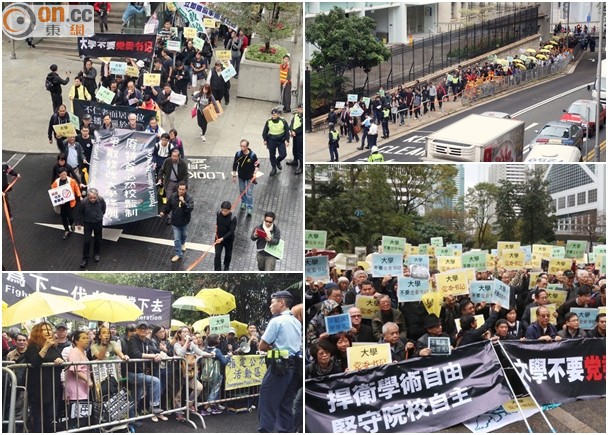
At around 230pm, about 500 persons
marched in the train from Chater Garden. They reached Government House about 15
minutes later.
About 10 members of the Cherish
Group were waiting outside Government House. When these people saw the marchers,
they began to curse loudly that Ip Kin-yuen is misleading young people. The
marchers ignored them, and left after tying black ribbons on the metal
barricades outside Government House. Then the marchers dispersed except for
about 50 members of the Mong Kok Shopping Revolution who stayed behind to curse
the Cherish Group people back. The Shopping Revolutionaries shouted "Down with
Arthur Li" while the Cherish Group countered with "Inciting children to do Hong
Kong independence, it is evil to use the Chinese to fight the Chinese." The two
groups were separated by the police. Eventually both sides dispersed.
(SCMP)
January 4, 2016.
Thousands took to the streets hand in hand,
organisers said, as the first Sunday of 2016 saw a large-scale protest
against the appointment of former education minister Arthur Li Kwok-cheung
to helm the governing body of the University of Hong Kong.
Unlike previous protests, attended mostly
by staff, students and alumni of HKU, the march was led by 20 organisations
from various universities and concern groups, as they claimed it was a
crisis that affected the whole city. The show of solidarity came after Chief
Executive Leung Chun-ying named Professor Li as chairman of HKU�s governing
council.
The institution�s convocation � a statutory
body comprising 162,000 graduates and lecturers � had earlier voted
overwhelmingly against Li, dubbed �King Arthur� by critics who see him as a
high-handed and divisive figure.
�[The protest] is not something about an
individual or who is appointed to what post at the particular moment. It is
about much more long-term important structural questions around HKU,� said
Professor Timothy O�Leary, head of the university�s school of humanities and
co-founder of concern group HKU Vigilance. �We are here to make sure the
universities can go on being places in which people are free to think and
ask questions ... that some people do not want them to think about and to
discuss.�
The organisers said more than 3,000 people
marched from Chater Garden in Central to Government House, where they were
greeted by a small group of pro-Beijing protesters defending Li�s
appointment. Police said the turnout was 830 at its peak.
A government spokesman urged everyone to
�show respect for the ordinances� which specified the chief executive,
default chancellor of the city�s universities, enjoyed the right to make
such appointments. �We respect the right of the individuals to express their
views, but the views should be based on facts,� the spokesman said.
Moon Cheng, who studied at HKU, marched
with her children. �Li holds a very different set of values than the staff
and students of HKU ... and never respects the opinions of different
stakeholders,� said Cheng, who feared the appointment would marginalise the
university�s liberal vice-chancellor, Professor Peter Mathieson. �I hope my
children will understand the injustice in the city by joining the rally.�
Occupy Central co-founder Benny Tai Yiu-ting,
an HKU law scholar whom many believed would face disciplinary action with Li
taking the helm, blasted the government for not only �ignoring its people�s
voices but also stirring up conflicts in society�.
Education sector lawmaker Ip Kin-yuen said
an alliance comprising representatives from different universities would
soon be formed to push for changes to prevent the chief executive from
exerting political pressure on universities by appointing his allies to
their governing bodies.
(Hong
Kong Free Press) January 13, 2016.
Chairman of the University of Hong Kong�s
governing council Arthur Li Kwok-cheung says he accepted his new role as
chairman as he did not want �mob rule� in Hong Kong.
Speaking on TVB Pearl�s programme Straight
Talk on Tuesday, Li said that Chief Executive Leung Chun-ying invited him to
take the post in October, but he took two months to make the decision.
He went on to say that the decision was
made based on two reasons: whether he could do a good job, and whether the
reasons for opposing his appointment were valid.
�If in Hong Kong, a small group of people
could � by dint of their voice � shout loudest, could decide who could or
could not take on whatever post, then we have anarchy in Hong Kong,� he
said. �If just because you shout loudest, and just because you have banners,
you could influence that. This is very bad for Hong Kong, and somebody has
to draw a line, and say �We don�t want mob rule in Hong Kong�.� He added
that the main reason he accepted the post was because there was political
interference in the opposition of his appointment.
Li said there was a smear campaign against
his reputation, and added that there were people who �hide behind the slogan
of academic freedom� in order not to do their work.
�The important thing to me is that students
are there to get a good education, and what does a good education mean? That
means studying,� he said. �But let�s get their priorities right.�
Videos:
Resistance Live Media
https://www.facebook.com/resistancelive2014/videos/1648680185396330/
SocREC
https://www.youtube.com/watch?v=jNoKCT7VFlQ
SocREC
https://www.youtube.com/watch?v=0rHJ7MNTq7Q
Epoch Times
https://www.youtube.com/watch?v=CUPf4Z_2AuE
Internet comments:
- (HKG
Pao) When I got to the part about the organizers saying that CY Leung
and the government are going "against public opinion", I had to burst out
laughing. The fact is that CY Leung and the government are going "against Yellow
Ribbon opinion" and not "public opinion in general." And speaking of "going
against public opinion," do you realize that Occupy Central which originated
from the Hong Kong University students and teachers is the second most unpopular
public event in the history of Hong Kong after the three years and eight months
of Japanese Occupation?
- The march was organized by 20
organizations, including the Hong Kong University Academic Staff Association,
Hong Kong University Alumni Concern Group, etc. Oriental Daily reported that 500
people started out from Chater Garden. That works out to be 500 / 20 = 25
persons per organization. This is even worse than the 35 persons per
organization for the 45 organizations in the New Year's Day march.
- Correction: The 500 figure was
initially reported by Oriental Daily. (Wen
Wei Po) The Hong Kong Police said that there were 830 persons at the
peak. So that means 42 persons per organization.
- Correction: The organizers decided that 2,000 was too low, so they have just
upped it to 3,000. In Hong Kong, we have freedom of speech and they can say
anything that they want.
- (HKG
Pao) Surprisingly, the Hong Kong University Students' Union was not on the
list of organizations that started the march. Even the Chinese University of
Hong Kong Student Union and the Polytechnic University Student Union were on the
list. Should the HKU SU be a major stakeholder and head the procession? When
asked, Hong Kong University Students' Union president Billy Fung Jing-en explained
that they never received any invitation and then left the scene quickly.
Meanwhile, the Hong Kong University Alumni Concern Group said that they issued
an invitation, but the HKU SU declined to accept. So what is going on?
- (TVB)
About several hundred people participated in the march from Chater Garden to
Government House. According to Hong Kong University Alumni Concern Group, "Every
Hong Kong University stakeholder, including the students, the teachers and the
alumni, was strong opposed. Yet the appointment was boldly made in disregard the
best interests of Hong Kong University. We condemn this appointment. This is not
the normal action of a Chief Executive acting as the chancellor. It is a very
dangerous move for CY Leung to use the appointment of the chairpersons of the
university councils or board of trustees to directly control and manipulate the
various institutions."
- It was very brazen of Ip Kin-yuen
to quietly slip in "Every HKU stakeholder including the students, the teachers
and the alumni ..." Yes, it is every single one of them, including the 30,000+
students, the 10,000+ staff members and the 160,000+ alumni. So of the 200,000+
stakeholders, only 500 showed up today?
- Here are some more Hong Kong
University stakeholders not mentioned by Ip Kin-yuen: Yau Wai-ching (Shopping
Revolution), Chin Po-fun (Shopping Revolution) and Lui ("Female Long Hair" Yuk-lin.
They stole the show today with the war of words against the Cherish Group.
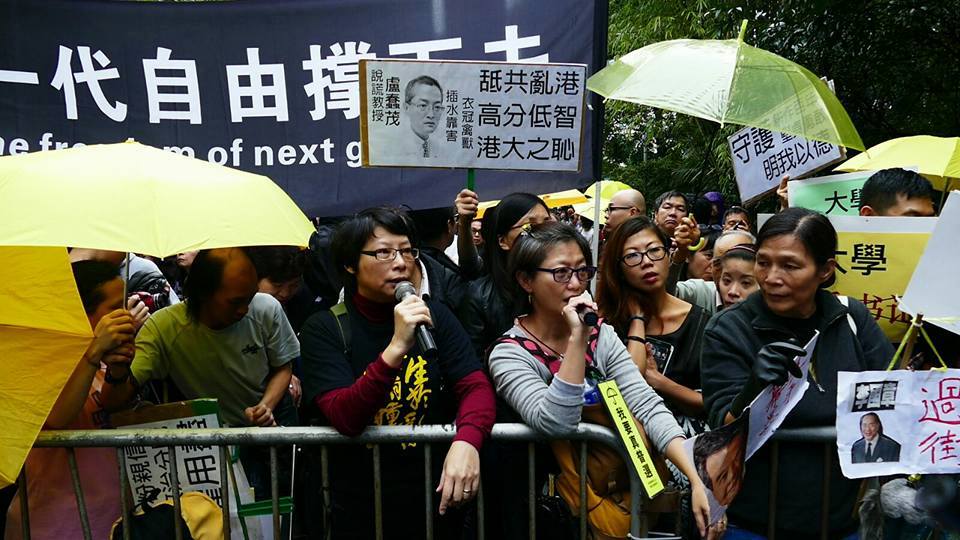
- The placard behind them is directed against Hong Kong University Department of
Surgery head Dr.
Lo Chung-mau who is said to be "an animal dressed in human clothing."
The Shopping Revolutionaries harassed Lo on New Year's Day (https://www.youtube.com/watch?v=n0j_uxfpwVs).
The Hong Kong University Alumni Concern Group and the Hong Kong University
Academic Staff Association have not come out in support of their staff member
Dr. Lo Chung-mau's academic and personal freedoms.
- And don't forget the Hong Kong Independence people who want Hong Kong returned
to the United Kingdom. They are waving the British Dragon/Lion flag to fight for
the freedom of the next generation (to live under British rule again).
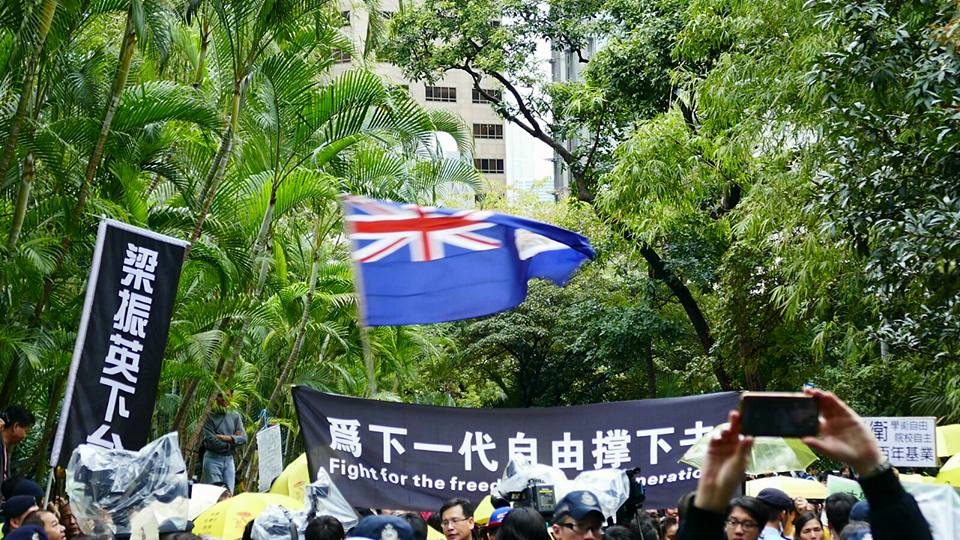
- (Speakout
HK@YouTube) A video record of some of the HKU stakeholders in
the demonstration march today. It's always the same faces at whatever
demonstration for whatever purposes.
- Somebody has the money to buy
this ad on page A9 of Ming Pao and page A11 of Apple Daily, January 4, 2016.
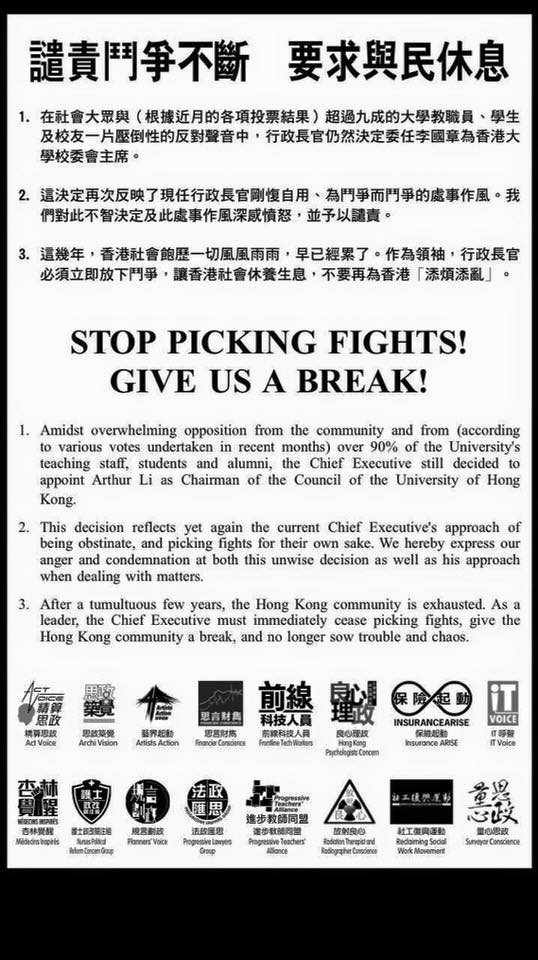
〝STOP PICKING FIGHTS! GIVE US A BREAK!〞
1. Amidst overwhelming opposition from
the community and from (according to various votes undertaken in recent
months) over 90% of the University's teaching staff, students and
alumni, the Chief Executive still decided to appoint Arthur Li as
Chairman of the Council of the University of Hong Kong.
2. This decision reflects yet again the
current Chief Executive's approach of being obstinate, and picking
fights for their own sake. We hereby express our anger and condemnation
at both this unwise decision as well as his approach when dealing with
matters.
3. After a tumultuous few years, the
Hong Kong community is exhausted. As a leader, the Chief Executive must
immediately cease picking fights, give the Hong Kong community a break,
and no longer sow trouble and chaos.
It takes two to have a fight/tango. If I
had as much money, I could buy an ad for:
〝STOP PICKING FIGHTS! GIVE US A BREAK!〞
1. Amidst lackadaisical opposition from
the community and from (according to various votes undertaken in recent
months) less than 10% of the University's teaching staff, students and
alumni, the opposition camp still decided to oppose the appointment
Arthur Li as Chairman of the Council of the University of Hong Kong.
2. This decision reflects yet again the
current opposition camp's approach of being obstinate, and picking
fights for their own sake. We hereby express our anger and condemnation
at both this unwise decision as well as their approach when dealing with
matters.
3. After a tumultuous few years, the
Hong Kong community is exhausted. As a the opposition, they must
immediately cease picking fights, give the Hong Kong community a break,
stop opposing for the sake of opposing and no longer sow trouble and
chaos.
-
https://www.facebook.com/1640482902830291/videos/1679988498879731/
Creative slogan being chanted: "Li Kwok Cheung!" "Fuck your mother!" Of
course, they don't mean it literally. Arthur Li is 70 years old. If his
mother is still alive, she would be at least in her 90's.
(SCMP)
January 1, 2016.
Forty-five grassroots groups are slated to
march this afternoon from Causeway Bay to Admiralty, demanding the
government scrap �white elephant� projects and use the money for a universal
retirement protection scheme instead. Different from past January 1
demonstrations, the march this year was not organised by Civil Human Rights
Front.
Demonstration spokesman James Hon Lin-shan
said that, although the front decided not to organise a demonstration this
year, he felt grassroots groups needed to stand firm and express their
demands. Hon said the government had wasted too much money on white elephant
projects that would not benefit everyday Hongkongers while it rejected a
universal retirement protection scheme proposal. This was why the groups
demanded that Chief Executive Leung Chun-ying step down, he said.
�We know Hongkongers have been feeling very
tired about demonstrations, but if we don�t march, it could create a wrong
impression with the Communist Party and the Hong Kong government that
Hongkongers have stopped speaking out,� Hon said. He added that the groups�
demands were not dissimilar to those of the front.
The march was led by a large symbolic
figure � a white elephant made of wood and paper. Atop the elephant sat a
paper figurine of Leung bearing a red lobster across its torso. Leung�s
wife, Regina Tong Ching-yi, was described by many Hongkongers as a lobster
due to her combative manner.
Police said they had arranged extra
manpower around Canal Road Flyover in Wan Chai, where a group of
pro-government backers had planned to gather. The idea was to stave off
potential conflicts between the two sides, an officer said.
(Hong
Kong Free Press) January 1, 2016.
Thousands of protesters marched on New
Year�s Day against government spending on �white elephant� infrastructure
projects. Demonstrators also called for a universal pension scheme.
The annual protest, which was postponed to
February last year, returned on January 1 for people to �release their anger
towards the government on the holiday�, according to James Hon Lin-shan, a
spokesperson for the march. This year�s rally was not organised by the usual
host, the Civil Human Rights Front, but by some 40 civil organisations. Hon
said that around 4,000 people joined. He said he was satisfied with the
turnout, since he only expected 1,000 to join.
The march began in Causeway Bay and ended
at government headquarters in Admiralty around two hours later.
Tong Hiu-yan, a university student, was
marching with a giant �white elephant� symbolising the public funds spent on
massive infrastructure projects. �The money should be spent on the people,
especially the universal pension scheme,� she told HKFP. �The government
keeps saying the scheme will not be sustainable, but if it uses some of the
HK$50 billion funds spent on infrastructure projects, it could continue for
a long time.�
Mr Wong, a bus driver, put on a mask of
Secretary for Labour and Welfare Matthew Cheung during the march, saying he
is �not a good official�. Wong said the universal pension scheme was under
consultation �again and again�. �When will we have it?� he asked. He said
that there should be a pension scheme without means-testing and that
everyone should be able to receive it. �Does the government want us to spend
our money for our burial before getting a pension?� he said.
Benny Tai Yiu-ting, co-founder of the
pro-democracy Occupy Central movement in 2014, said that he joined the march
because of the appointment of Arthur Li Kwok-cheung as chairman of the
governing Council of the University of Hong Kong (HKU). Tai, a staff member
and alumnus of HKU, said that the decision made by Chief Executive Leung
Chun-ying was made without listening to the public, and that people should
keep on protesting. �Though not many joined the march, the number does not
matter,� Tai told HKFP. �We may not need another Occupy protest, but we need
to protest in every aspect in our daily lives, to accumulate the pressure.�
He also said that he will join another march opposing Li�s appointment
organised by the HKU Alumni Concern Group on Sunday.
The government issued a statement saying
that �infrastructure investment helps boost Hong Kong�s economic
development, creates job opportunities, improves people�s quality of life
and enhances Hong Kong�s long-term competitiveness.� �The Government is
determined and committed to enhancing the well-being of elderly people,� the
statement said. The government added that it encourages the public to make
good use of the six-month consultation period to express their views on how
to improve Hong Kong�s retirement protection system.
In response to criticism of Arthur Li�s
appointment, the statement said that �The HKSAR Government attaches great
importance to upholding academic freedom and institutional autonomy.� �As
for the appointment of chairpersons and members to the councils of
universities, the Government�s decisions are based on the merits of
individuals, including their ability, expertise, experience, integrity and
commitment to public service.�
(Oriental
Daily)
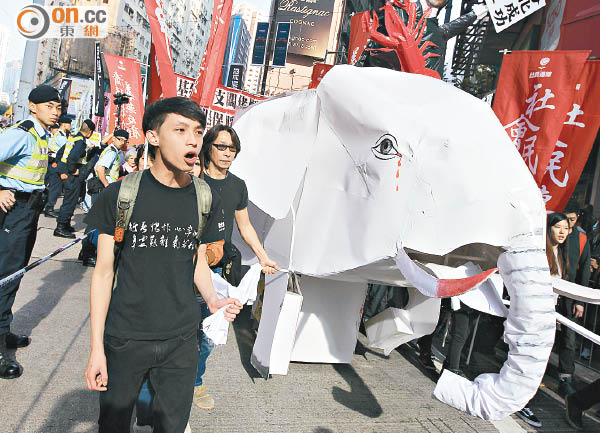
Forty-five organizations including Defense
of Hong Kong Freedom, League of Social Democrats, People Power, Keyboard
Frontline and others marched from Causeway Bay to Government Headquarters to
demand universal pension and to oppose White Elephant projects. Leading the
way was a big white element made of paper. They started out at around 3pm
and reached Government Headquarters at around 5pm. Afterwards, the
organizers said that about 4,000 persons marched. The police said that the
peak number of marchers was around 1,600.
Organizer Raphael Wong (League of Social
Democrats vice-chairman) said that is is not true that there are divisions
within the pan-democrats because members of the Democratic Party, Civic
Party, Labour Party, Street and Neighbourhood Workers, ADPL were present
today. Scholarism convener Joshua Wong was participating as an individual.
He said that the themes of this march were social welfare and
infrastructure, and this means that turnout is expected to be low.
After the demonstrators reached Government
Headquarters, they ripped up the paper White Elephant and other props and
threw the trash inside the grounds of Government Headquarters. Then they
split up and left.
Videos:
Resistance Live Media
https://www.youtube.com/watch?v=DRc_CpguWSs
Epoch Times
https://www.youtube.com/watch?v=k8QPZ9_T4Fs
Internet comments:
- (Oriental
Daily) Whenever wherever there is a demonstration for whatever
reason, you can expect to see Captain
America Andrew Yung waving the British Dragon/Lion flag for Hong
Kong independence.
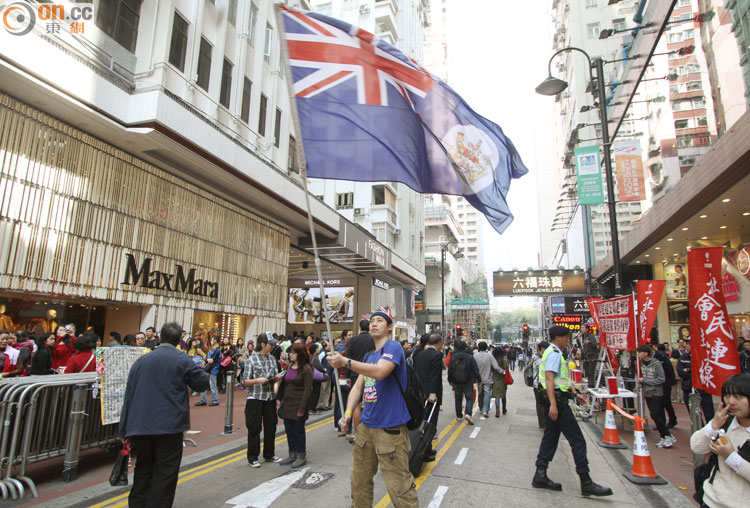
If Hong Kong sovereignty is handed back to the United Kingdom as these Hong
Kong independence advocates want, do you think that there will be a
universal pension plan? (Reference:
Pensions in the United Kingdom). And the
Hong Kong International Airport was the idea of the British who want
to spend some of the treasury surplus instead of handing it over to the
Chinese. The result was the most expensive airport project ever, according
to Guinness World Records.
- (#145)
Traditionally the organizer of the New Year's Day demonstration march is the
Civil Human Rights Front. Last year, they decided that the timing was too
close to the end of Occupy Central and therefore postponed the march till
February 1st. The Civil Human Rights
Front projected that there would be about 50,000 marchers. Ultimately, the Civil Human Rights Front put the turnout at 13,000,
double the police estimate of 6,600 marchers setting out from Victoria Park
and 8,800 at the march's peak. This year, another set of organizers came in.
The claimed a turnout of 4,000 compared to the police estimate of 1,600 at
the march's peak.
- The Chinese word for 'demonstration' is
'示威'
(literally, a show of force). The poor turnout made this a show of
weakness (示弱).
Here are the historical numbers as claimed by the organizers:
2004: 100,000 (Civil Human Rights Front)
2006: 50 (April 5th Movement)
2008: 50 (League of Social Democrats)
2009: 100 (League of Social Democrats)
2010: 30,000 (Civil Human Rights Front)
2013: 130,000 (Civil Human Rights Front)
2014: 30,000 (Civil Human Rights Front)
2015: 13,000 (Civil Human Rights Front)
2016: 4,000 (2016 New Years Day Demonstration March Alliance)
- Apple Daily gave the truth away when they
reported "several hundred" in their initial report. That number includes
plainclothes police officers and photojournalists.
- 45 organizations called up 1,600 persons
to march. That means the average size per organization is 1600 / 45 = 35.
Those are very small groups.
- No, your arithmetic is wrong. There were 1,600 persons each of whom hold
membership in all 45 organizations. The total number of person-times is 1600
x 45 = 72000. This is a huge crowd.
- (SCMP)
More than 2,600 men and women braved chilly waters in Repulse Bay to kick
off the new year with a splash.
- (Wen
Wei Po) 77,735 persons went to attend the horse races in Sha Tin
today.
- Why weren't there 100,000 people marching
today? That's because the government arranged to have a fireworks show last
night and most people couldn't get out of bed in time to join the march.
This is just the sort of sneaky tactic to suppress dissent that CY Leung is
famous for.
- Don't be stupid. There was only 330,000 on the harbor front watching the
fireworks at midnight ( which means that 7 million other Hongkongers were
not there) and the march starts at 3pm.
- (Wen
Wei Po) The 2016 New Year Day's march is started by a number of
radical organizations, including League of Social Democrats, People Power,
Neo Democrats, Localist Justice League, Left Wing 31, Youth To Retake To
Future, April 5th Movement, Shopping Revolution Comrades, Kwu Tung North
Development Concern Group, Parents Beneath Umbrellas, Progressive Teachers
Alliance, etc. As such, they don't represent the opposition camp in total;
they only represent the more radical elements.
- (Wen
Wei Po) Before the march began, Hon Lin-shan said that the HKSAR
government is wasting money on White Elephant projects that mean nothing to
regular citizens, and so the money should be spent on the people themselves,
especially a universal pension plan for senior citizens. As the march
proceeded, the slogans began to deviate from the declared theme: including
"I don't want Arthur Li, I want Johannes Chan," "I oppose the appointment of
Arthur Li, let us defend university autonomy," "We don't want Internet
Article 23," "Eliminate Primary 3 TSA", etc. Politicians also wore jackets
with their names emblazoned.
- Hon Lin-shan said beforehand that they
had the police that there will be 1,000 to 3,000 marchers. He quoted the
police as saying that one car lane will be opened for them. However, if the
number of marchers rise up above 3,000, a second car lane will be opened. On
this day, only one car lane was opened. Hon Lian-shan said it, we didn't.
- This year's came under new management and
was re-branded as the March of the Century by the Young People of Hong Kong.
So their main speaker was James Hon Lin-shan, born 1949, retired secondary
school teacher.
- Some of the demonstrators have this idea
that if the Hong Kong International Airport third runway and the High Speed
Rail from Hong Kong to Shenzhen can be killed off, the savings can be used
to fund the universal pension ($3,250 per month for every senior citizen
regardless of income/assets). Well, there is difference between the two: the
airport/railway generate revenues with a high multiplier effect (for
revenues and jobs), whereas the universal pension fund will eventually be
completely spent (the timing depends on your assumptions on demographics and
return-on-investment).
- Other demonstrators propose that the
Hong Kong International Airport and the
Kwai Tsing Container Terminals be moved elsewhere and new public
housing be built in their places. This was said to be better than using park
lands. As for the important questions of where the airport and container
terminal will be moved to, they said: "We'll let the government consultants
figure that out."
- The airport and the container terminal can be demolished without
replacement. For air travel, please use the Shenzhen International Airport;
for container cargo, please use the Shenzhen Port.
- (Oriental
Daily) After the first 11 months of 2015, Shanghai is still number 1
in container port ranking at 3,347 million TEU's, a growth of 13%. Meanwhile
Hong Kong came in at number 5 at 1,163 million TEU's, a decline of 8.1%. At
this rate, Hong Kong won't have much of a logistics industry left and
therefore it makes good sense to demolish the facility and build public
housing instead (assuming the anti-development protestors can be persuaded
to give up their collective memories).
- Please note that Singapore is number 2, Shenzhen is number 3 and Ningpo/Zhoushan
is number 4. At this rate, Hong Kong will be a third-tier or fourth-tier
Chinese city in no time.
- In 2017, Shanghai's Yangshan port will begin to function as a
fully-automated facility run by artificial intelligence. By that time,
Shanghai will have more than 40 million TEU's, more than the total of all
the American ports put together. Hong Kong has no plans to modernize due to
limited space.
- They want CY Leung to resign so that the
expensive White Elephant infrastructure projects can stop. Well, none of
those projects were proposed by Leung himself. He merely inherited the mess
with all the sunken costs already incurred. If the projects are stopped, the
investments will be wiped out with nothing to show.
- Other expensive White Elephant projects
that should have halted before: the Cross-Harbour Tunnels (take the ferry
instead), the MTR subway system (take buses instead), the Tsing Ma Bridge
(take the ferry boat instead), the seven universities other than Hong Kong
University (if you're not good enough to get into HKU, you shouldn't
bother), Disneyland (go to Tokyo instead), ...
- Littering is an offense in Hong Kong and
just about anywhere else ...
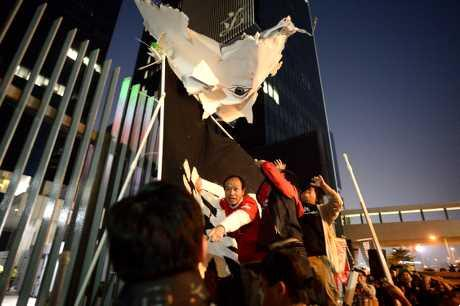
- What else is more White Elephant than a paper White Elephant that was
constructed and used for three hours, only to be torn up and thrown away.
- Hong Kong University associate professor
of law Benny Tai on the government's response to his opinons:
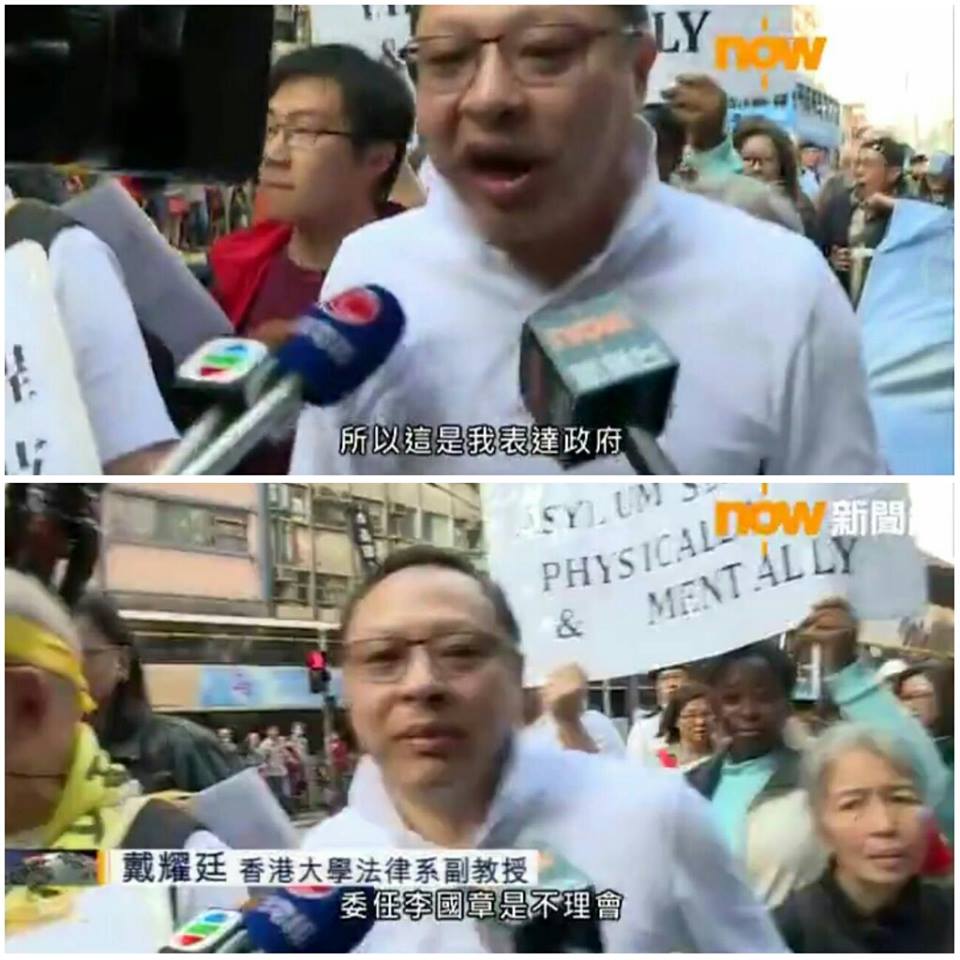
"Therefore this government will ignore what I have to say about the
appointment of Arthur Li."
- As for the citizens' demand to see the financial statement for Occupy
Central as promised, Benny tai will ignore what the citizens have to say.
(Hong
Kong Free Press) December 31, 2015.
Arthur Li Kwok-cheung has been appointed
chairman of the governing Council of the University of Hong Kong (HKU) amid
strong opposition from University staff, students, alumni, and the public.
The appointment, made by Chief Executive Leung Chun-ying, was announced at
12:30am on Thursday.
The chairman is responsible for hosting and
deciding the agendas for Council meetings. Special power include the option
of calling a special meeting or taking action at his sole discretion if
urgent matters arise in between meetings, according to the Council�s Guide
and Code of Practice.
Li, 70, has often been criticised for his
hardline approach. As Secretary for Education and Manpower, he threatened to
�rape� the Hong Kong Institute of Education in 2003 if it failed to merge
with the Chinese University of Hong Kong.
Timothy O�Leary, Head of the School of
Humanities and Council member, said there is a �widely held view� that Li is
not the right person to address the current crisis of governance at HKU and
restore confidence in the university. �His appointment by the Chief
Executive, who also serves as Chancellor of the University, underlines the
deficiencies of the current system of university governance across Hong
Kong,� he said. O�Leary said that it is now more important than ever to
remain vigilant in safeguarding HKU�s core values�in particular its
institutional autonomy and academic freedom.
HKU Student Union president Billy Fung Jing-en
said he was �angry and disappointed� by the appointment.
Fung said he would be uncooperative inside the
Council but added that he would not call a class boycott as �it cannot
directly increase the cost [of governance] onto Arthur Li and Leung Chun-ying.�
The HKU Alumni Concern Group, led by
education sector lawmaker Ip Kin-yuen, issued a joint statement alongside
the HKU Academic Staff Association to oppose Li�s appointment. �This
appointment is clearly not in line with HKU�s best interests; it would only
make the situation in HKU more unstable and intensified,� the statement
read. Li�s appointment �would not bring HKU under control and intimidate
people of HKU,� the statement added: instead, it will make them more united
than ever. The Hong Kong Professional Teachers� Union also released a
statement expressing anger and regret over Leung�s decision, and demanded he
withdraw the appointment.
(SCMP)
Five things to know about Arthur Li�s appointment as HKU council chairman.
December 31, 2015.
1. Who is Arthur Li?
Professor Arthur Li Kwok-cheung, 70, was
born in Hong Kong in 1945 into the city�s powerful Li family. He is the
grandson of the co-founder of the Bank of East Asia, Li Koon-chun, and
brother of its current chairman, David Li Kwok-po. He studied medicine at
Cambridge University in Britain.
He returned to the city in 1982 and became
the founding chairman of the department of surgery at Chinese University. He
was promoted to the post of dean of the university�s medical faculty in
1992; four years later, Li secured an appointment as the university�s fourth
vice-chancellor. But during his 14 years with the medical faculty, Li�s
leadership style led some to refer to him as �King Arthur� and even �the
Tsar�. Li insisted he was by nature a �very gentle� person who enjoyed
company and conversation.
Li left the university in 2002, and at the
invitation of then-chief executive Tung Chee-hwa, he joined the
administration as education chief. Li retreated from the political limelight
in 2007 after serving five years in government. He made a comeback in 2012
after he backed Leung Chun-ying for the city�s top job. At the start of his
term as chief executive, Leung appointed Li a non-official member of the
Executive Council.
In March, Leung appointed Li to serve as a
member of the HKU council. On Thursday, Li was appointed the council�s
chairman.
2. Why is Li so controversial?
People who know Li said that, because he
served on Chinese University�s medical faculty for 14 years, there was a
rivalry between the faculty and HKU�s and that Li was known for disliking
HKU.
When Li was still Chinese University�s
vice-chancellor, he proposed to merge the university with the University of
Science and Technology to create a world-class university. But the plan was
quickly rejected after concerns arose from staff at both universities.
When Li became the city�s education chief,
he was alleged to have exerted pressure on the Institute of Education to
merge with Chinese University. He was accused of saying the institute would
be �raped� if it refused to agree to a merger. Observers believed that Li
was keen on merging Chinese University with other institutions because he
wanted the university�s status to surpass that of HKU.
He returned to the headlines last year
ahead of the pro-democracy Occupy movement. When students staged a class
boycott in September last year, Li declared: �Well, who cares?� He added
that if students were serious they should quit school. He also compared the
boycotting students to the Red Guards of the Cultural Revolution.
Just days after Li was appointed a member
of HKU�s governing council, he criticised some professors for allegedly not
attending to their duties in performing research and teaching students, thus
precipitating the university�s fall in international rankings. Many staff
members were angry at his comments and protested.
On July 28, angry students stormed a
council meeting after it again voted to delay discussion on promoting
pro-democratic scholar Professor Johannes Chan Man-mun to a key managerial
post. Chan�s candidacy was ultimately defeated. Li described the students�
actions as akin to �Hong Kong�s Cultural Revolution�, and his comments again
triggered protests from students.
3. What are Li�s top
responsibilities as HKU�s council chairman?
The 23-member HKU council � excluding the
chairman � has six members appointed by the chief executive and six members
appointed by the council from outside the university. These 12 members
constitute an important voice within the council, given that there are only
eight university student, staff and management representatives on the body.
The chairman heads up a nominations
committee in charge of recommending outside council members for appointment
by the council. The chairman is also responsible for setting council meeting
agenda and has the power to decide whether a member who has a conflict of
interest on a matter for council discussion can speak or vote on the matter.
Regarding confidential documents and other
information circulated within the council, the chairman has the discretion
to disclose the materials to people not on the council on a �need-to-know�
basis. The chairman can also decide not to circulate restricted information
before council meetings and request that council members return the
materials after the meetings.
In between council meetings, the chairman
has the authority to act on the council�s behalf to handle routine business
such as signing documents and implementing matters already agreed by the
council. The chairman also has the power to call a special meeting when an
urgent matter arises, or even tackle a matter directly on his or her own,
although the guidebook advises the chairman to be careful not to make
decisions in this manner.
4. What challenges await Li?
Li�s key challenges included mending the
divide within the university, responding to students and teachers� call for
a reform of the council�s structure, and safeguarding the university�s
international reputation. HKU remained
deeply divided over the council�s denial of Chan�s promotion as
pro-vice-chancellor in September, and it will be difficult for Li to mend
the split within the council and the university.
Li was regarded as a driving force opposing
Chan�s appointment. On November 29, in a poll organised by the HKU
Convocation � a statutory body comprising 165,450 graduates and staff � over
98 per cent of the 4,454 who cast ballots voted overwhelmingly against Li�s
expected appointment as the university council�s chairman.
It could be difficult for Li to win the
trust of students and alumni. But councillor Joseph Chan Cho-wai said this
morning that although he was disappointed with the appointment, he believed
�the situation might not be too bad if Li was willing to change his approach
and start to value teachers and students� opinion�.
Professor Timothy O�Leary, another
councillor who opposed Li�s appointment, said the most important issue for
the council to address was �the need for a full review of the structure and
operation of the council�. Some critics believed that the city�s top
official held too much power to appoint six members to the council. It was
unsure how Li would respond to this concern.
On the academic front, there were reports
suggesting that HKU was declining in several international rankings. In
March, the university fell out of the top 50 universities in the world,
according to an annual reputation ranking by the London-based magazine
Times Higher Education.
5. In view of Li�s past
controversies, why was he appointed?
The chief executive has a long working
relationship with Li and the pair became close allies in recent years. They
were fellow members of the Executive Council from 2002 to 2007. Li was one
of the Election Committee members who nominated Leung for the 2012 chief
executive election.
One episode illustrated their closeness.
During a televised debate held a week before the chief executive election in
March 2012, Henry Tang Ying-yen, Leung�s arch-rival, attacked Leung�s
integrity by claiming he had spoken of using riot police and tear gas
against protesters opposed to the introduction of national security
legislation at a �high-level meeting� in 2003. Tang, the former chief
secretary, revealed later he was referring to an Exco meeting held after a
massive protest on July 1.
Li came to Leung�s defence, saying Tang had
put Leung in an unfair position because other Exco members at the time could
not reveal details of the meetings due to confidentiality. Li said he found
it strange that Tang revealed details of Exco meetings during the debate.
Some observers said Leung�s confrontational
style was similar to Li�s. Leung claimed in January this year that there was
significant information indicating that foreign powers were behind the
organisation of the Occupy Central movement. It was an apparent reference to
leaked emails that showed Occupy co-founder Benny Tai Yiu-ting, a legal
scholar at HKU, had forwarded HK$1.45 million in donations from at least one
anonymous donor to his employer over several months last year to cover some
of the expenses incurred by the Occupy movement.
Some analysts believed that Leung chose Li
as chairman of the HKU council because he considered Li the person
best-suited to steer the governing body of the university, known for its
liberal leanings.
(SCMP)
December 31, 2015.
As former education minister Arthur Li
Kwok-cheung prepares to take the helm as chairman of the University of Hong
Kong�s governing council, students and staff members reacted with concern
and calls for greater transparency after the decision triggered
condemnation.
Third-year surveying student Alvin Chim Hei-shun
of the chief executive�s appointment: �It just goes to show that Leung Chun-ying
has made the decision on his own and taken over the university.� �I�m
worried about how he�ll handle the situation if we have another umbrella
movement and that he�ll suppress the students,� Chim added. Although the
university�s student union made clear that it had no plans to organise a
boycott at the moment, Chim said he would consider boycotting classes if the
union had arranged one to express opposition to Li�s appointment.
The news that Li would begin his three-year
term as council chairman from January 1 sparked criticism from the student
union and other council members.
First-year law student Ronald Chiu said the
governing body had a responsibility to clarify the circumstances surrounding
the appointment. �There was no transparency with what set of criteria they
used for Li�s appointment, and they need to make that clear to the public,�
said Chiu.
A science faculty staff member who declined
to be identified said she would not support Li if she had a choice in
choosing HKU�s council chairman. �Looking at his past track record, he
hasn�t been able to do a good job with playing a fair and unbiased role,�
said the woman surnamed Wong. �A chairman shouldn�t put forward their own
personal opinion to lead others.�
On September 29, soon after the council
voted down Chan�s pro-vice-chancellor candidacy, HKU students� union
president Billy Fung Jing-en abandoned confidentiality rules and divulged
what pro-government council members said during a council meeting in
opposition to Chan�s appointment. Speaking on RTHK this morning, Fung did
not rule out exposing Li�s remarks behind closed doors in the future. �I
will stick to my style to ensure everyone�s right to know,� said Fung, who
continued to sit on the council. �If there are irrational discussions based
on inaccurate facts or personal insults behind closed doors � I don�t want
to do it again, but I would not rule it out.�
Fung said that students would protest against
Li�s appointment, but a class boycott was �not the best option� at present
because it would not exert pressure on Li and councillors.
(SCMP)
December 31, 2015.
The controversial appointment of �King�
Arthur Li Kwok-cheung as the University of Hong Kong�s council chairman has
raised many concerns and questions over the power he will wield. What, many
ask, could he be authorised to do as the governing council chairman?
HKU�s 23-member council � excluding its
chairman � has six members appointed by the chief executive and six members
appointed by the council from outside the university. These 12 members
constitute an important voice within the council, given that there are only
eight university student, staff and management representatives on the body.
The chairman heads a nominations committee in charge of recommending outside
council members for appointment by the council. The committee consists of
other outside members on the council, the vice-chancellor and one academic
member of the council. The chairman is also responsible for setting council
meeting agenda and has the power to decide whether a member who has a
conflict of interest on a matter for council discussion can speak or vote on
the matter.
Regarding confidential documents and other
information circulated within the council, the chairman has the discretion
to disclose the materials to people not on the council on a �need-to-know�
basis. The chairman can also decide not to circulate restricted information
before council meetings and request that council members return the
materials after the meetings. In addition, the chairman typically serves as
the council�s spokesman when announcing council decisions to the public.
Without the chairman�s permission, other council members cannot disclose
council information. The chairman also has the power to call a special
meeting when an urgent matter arises, or even tackle a matter directly on
his or her own, although the council�s guide and code of practice advises
the chairman to be careful not to make decisions in this manner.
According to the guide, a chairman�s action
on �matters of strategic importance� should only be taken when �delaying a
decision would disadvantage the university�. The council secretary,
responsible for council business such as preparing agendas, papers, minutes
and follow-up actions, must report directly to the council chairman as well.
The guide continues: �The chairman is also ultimately responsible for
ensuring that the council operates effectively, discusses those issues which
it needs to discuss, and dispatches its responsibilities in a businesslike
manner.�
HKU Academic Staff Association chairman Dr
Cheung Sing-wai said that with all the power conferred on the chairman, he
or she could heavily interfere in many important decisions such as whether
to require some matters previously not needed to be discussed to appear on
the council agenda, and to decide which items on the agenda to be kept
confidential. �The chairman is the ultimate centre of power at the council,�
Cheung said.
The last HKU council chairman Dr Leong Che-hung
was preceded by Victor Fung Kwok-king, chairman of global supply chain
operator Fung Group. Fung succeeded former chief justice Yang Ti-liang.
(SCMP)
University of Hong Kong is the big loser in political battlefield. By Alex Lo.
January 1, 2015.
Whatever you think about Professor
Arthur Li Kwok-cheung, you can�t say he�s not qualified.
Quite literally in the dead of
winter, the government announced his appointment as chairman of
the University of Hong Kong council. Too bad his enemies on campus
didn�t seem to have taken a Christmas holiday.
The very next day, the usual
suspects from the students� union and an academic staff concern
group came out in full force to denounce the new chairman.
His appointment was hardly
surprising, though. It was known for a long time Li was Chief
Executive Leung Chun-ying�s first choice for the job. Li has an
impressive r�sum�: one of the city�s top surgeons, founding
chairman of the Chinese University�s surgery department, dean of
its medical school, vice-chancellor of the Chinese University;
then later education chief under the first post-handover
administration of Tung Chee-hwa.
Alas, he is also one of the
city�s most politically divisive public figures, stemming mostly
from highly controversial policies he advocated during his tenure
as education chief.
There was speculation that Leung
might decide to be more conciliatory after vocal opposition from
many HKU students and academic staff. The fact that the post was
left vacant for more than a month might have indicated Leung was
having second thoughts about appointing Li. As it turned out, he
was merely dragging out the process just like he did with the
Occupy protests, hoping the opposition from student hotheads might
die down after the furore over the failed appointment of
pro-democracy scholar Professor Johannes Chan Man-mun as
pro-vice-chancellor at the university.
But the fight goes beyond just
the students and staff. A concerted campaign against Li has been
orchestrated by pan-democratic politicians, many of whom are HKU
alumni.
This naturally led Leung to see
the struggles over Chan and Li as a continuation of the pan-dems�
battle against the government. Not withstanding HKU�s traditional
activism, Beijing�s leftist supporters and the Leung
administration have considered the university a hotbed of
political agitation ever since the launch of the Occupy movement.
The problem is that both sides
have ruthlessly turned the HKU campus into a political
battlefield. Even HKU chief Professor Peter Mathieson has warned
academic standards may be slipping.
Whichever side wins, HKU has been
the big loser.
Internet comments:
- (Oriental
Daily) While the official announcement came at 1230am, the Gazette
was already being circulated at around 10pm. This came because an Internet
user looked at the previous announcements on the government website and
guessed correctly at the file names of the forthcoming announcements.
- (SCMP)
January 1, 2016.
Officials last night admitted they had
bungled the release of news that a controversial former education chief
had been given a key job at Hong Kong�s troubled top university � after
internet users leaked the story three hours before it was officially
announced.
The Government Logistics Department
apologised and said it was �highly concerned� over the way the
announcement of the appointment of former education minister Arthur Li
Kwok-cheung to the position of head of the council of the University of
Hong Kong was handled.
In a statement released last night the
department said the bungle was due to �issues of systematic procedures
and man-made factors�. The statement added that it would �consult� with
the Office of the Government Chief Information Officer to make sure
there would be no repeat.
�The colleague(s) responsible for
drafting the hyperlink ... mistakenly set the date at January 1, 2015,
and has/have failed to abide by the instruction to publish the gazetted
[item] on December 31, 2015,� a department spokeswoman said.
The department said normal practice was
to upload the gazette to the Office of the Government Chief Information
Officer a day ahead of publication and prepare a hyperlink. The
information would then be published the following morning.
The uploaded gazette was first
discovered by internet user Tsang Hing-kwong. Tsang told Apple Daily
that he was not a hacker because all he did was change the date
combination of the website. �At the start I couldn�t believe I was the
first person in Hong Kong to know Arthur Li would be appointed,� he
said.
Francis Fong Po-kiu, president of the
Hong Kong Information Technology Federation, said he believed that human
error, rather than hacking, was to blame. �The government technicians
took too long to rectify the error,� he said.
Apart from revealing Li�s appointment
as head of the HKU council for a three-year term from January 1, the
announcement noted the appointments of Vivien Chan and Thomas Brian
Stevenson as council members for the same period.
- Before Occupy Central began, the students
called a strike but almost nobody came. What is the lesson from that
'strike' and Occupy Central itself? Firstly, a student/teacher strike hurts
the students. If they stay out of school for the full academic year, they
won't have the academic credits to graduate. So they will have to be
enrolled in school for one more year which requires more time and money. Not
all of them have a rich daddy like Alex Chow (who is in his sixth year of
undergraduate studies). Secondly, this is not going to bother CY Leung or
Arthur Li in the least.
Here is the piece about the strike plan at
the start of Occupy Central. Then everybody forgot about it.
(SCMP)
From students to company bosses, Hongkongers show support for Occupy
Central. September 30, 2014.
Social workers, delivery men, teachers -
Hongkongers from all walks of life left their jobs yesterday to support
the Occupy Central movement and protest against the police force's use of
tear gas during Sunday's demonstrations. Secondary school and university
students also boycotted classes and either joined protesters on the
streets or staged assemblies on campuses.
"I could not believe that the police used
tear gas against student protesters," said social worker Simon Lai, who
joined an assembly at Polytechnic University attended by more than 1,000
of his colleagues. "The students were not armed. There were tens of
thousands of them yesterday and the tear gas could have led to a
stampede."
The assembly's organiser, the
Confederation of Trade Unions, said many social workers would remain on
strike until the Occupy movement ends.
At the government headquarters yesterday,
Don Chan Hing-lung, chairman of the Swire Beverages (HK) Employees General
Union, told cheering protesters that 200 delivery workers at a Coca-Cola
plant in Sha Tin had gone on strike to support the civil disobedience
movement. "We don't care if we lose money. We are here for the future. If
we don't come, there won't be one," Chan said. Another 100 workers, he
said, worked the minimum number of hours required by their contract. Chan
said the workers would continue their strike today.
Some bosses also lent their support to
workers who joined the protest. "It's up to you whether you come to work
of not. The company will not punish anyone who supports something more
important than work," Spencer Wong, chief executive of advertising company
McCann Worldgroup Hong Kong, said in a message to his staff.
Pupils and teachers from at least 31
secondary schools walked out of classes yesterday, according to student
group Scholarism and the Professional Teachers' Union (PTU), the largest
association of teachers in Hong Kong, which called on educators to join
the strike.
The move was not supported by all school
officials. The Education Bureau said it "deeply regrets" the union's call
for a strike. It asked teachers not to disrupt students' studies. The
bureau ordered all schools in Wan Chai and Central and Western districts
to cancel classes yesterday. Major roads there were clogged with
protesters and metal barriers. Those schools will remain closed today.
PTU president Fung Wai-wah said he
supported a strike. "We're talking about what's right and wrong," he said.
"It's important to let students discuss and express their feelings.
Teachers cannot escape from this."
Pupils at some of the 31 secondary
schools affected chose to occupy school playgrounds; others gathered in
assembly halls to share their views on the protests and the reactions to
them. Liu Cheuk-laam, a Form Six student from SFTA Lee Shau Kee College,
was sprayed with tear gas in Admiralty on Sunday night. "Hong Kong is in a
totally different situation now after the tear gas," he said. "All
students should stand up and say no to police violence." More than 400 of
his schoolmates - almost half the school's roll - occupied the playground
of the Kwai Ching school.
Meanwhile, university students held
meetings to discuss how to organise a fresh round of class boycotts.
Chinese University students decided to strike indefinitely. A group of
students from three law schools issued a joint statement, condemning
police for using "grossly excessive force". Way Kuo, president of City
University, said he "appreciated" students' peaceful expression of their
views and that he "deeply" regrets Sunday's confrontations "because they
are neither constructive nor helpful".
- The students halted their strike
without fanfare and chose other even less 'effective' actions such as
flash choirs (https://www.youtube.com/watch?v=p7vM-hmu3go).
- (Oriental
Daily) The Academic Staff Association of the Hong Kong University
chairman Cheung Sing-wai said that a teacher/student strike may not be
effective. But if the students want to start a strike, he will work with
them.
- The spirit of Occupy Central is at work
here: You charge at the police while I leave the scene (叫人衝,自己鬆).
Alex Chow called it "division of labor" with each person doing what he/she
does best.
- Alex Chow studies Buddhism, so he is a
pacifist and cannot be involved in physical violence. Instead he will
meditate while you charge.
- The essence of Occupy Central is to hurt
other citizens in order to put pressure on the government to yield to your
demands. You NEVER hurt YOURSELF in order to put pressure on the government
to yield to your demands. That would be downright stupid.
- In the event of a strike, some students
will strike but there will be other students who don't care about the issues
and want to graduate on time. Can the teachers stop holding class? It will
be easy for any one student to file a class action suit for a court
injunction against the university/teachers for failure to deliver a prepaid
service, and then claim damages against the teacher as well as the
university. The university will instruct the teacher to hold class; if the
teacher still refuses, it will be cause for dismissal.
- A student strike will only work if the
numbers are on their side. For example, consider a class with 100 students.
If 90 go on strike and stand outside the classroom to tell other students
not to enter, then another 5 will feel the pressure and join them while only
5 will enter the classroom. This can be considered a successful strike. But
if only 10 go on strike and stand outside the classroom to tell other
students not to enter, then the other 90 will want to go to class. This
becomes a show of weakness rather than a show of force. The trick here is to
know what the number is beforehand.
- Also, this is a sequential game because the game will be played day after
day. How long can the strikers hold out? At some point, people are going to
lose patience, as in "Look, we've been doing this for the past two weeks,
nothing has happened and nothing is going to happen. Can we go back to class
already?"
- Since Hong Kong University Students'
Union
president Billy Fung Jing-en is so enamored with "以武制暴"
(=using physical force to stop tyranny), another way is to organize students
into the Yellow Guards. They will stop all students and professors from
entering the classrooms. They will stop all university staff members or
outside government public service workers from entering the campus. In
short, the campus will be placed under a blockade. Because they are
students, nobody will dare use force against them. The action will continue
indefinitely until Arthur Li is removed as council chairman, Chief Executive
CY Leung has resigned and the Chinese Communist Party Central Committee has
apologized to the people of Hong Kong.
- This is just re-running Occupy Central.
CY Leung will just sit and wait until 99% of the campus opinion is on his
side. Then he will send in the police to remove the remaining ten Yellow
Guards (including Billy Fung Jin-en).
- Do you know how many entrances there
are to the campus? Do you know how many people it takes to blockade all
those entrances all the time?
- It is actually worth their while to do
this. The first step is to form the Yellow Guard Soldiers Resistance
Committee. The second step is to solicit public donations, which will be
pocketed first. Then what happens next no longer matters.
- Question: In the event of a teachers'
strike, do the teachers still get paid? I think that the answer should be
NO. But should all teachers get docked their pay, or just those who are out
on strike? And will those who strike get paid as soon as they come back
(before the strike is officially called off)?
- In the event of a strike, some students
will want to continue to go to class and some teachers will want to continue
to teach. The problems are with the mismatches. When a student wants to
learn but the teacher is missing from class, he/she should sue against
fraud. When a teacher continues to teach but the student does not attend
class, he should hand out a failing grade because he is unable to
distinguish a freedom fighter from a truant.
- What could happen to a student going on
strike? Here is what the Hong Kong University Regulations for First Degree
Curricula (UG4) says:
(a) Candidates shall normally be required
to take not fewer than 24 credits nor more than 30 credits in any one
semester ...
(e) Unless otherwise permitted by the
Board of the Faculty, candidates shall be required to discontinue their
studies if they have: (i) failed to complete successfully 36 or more
credits in two consecutive semesters ...
So if you go out on strike one year (=two
semesters), you will be out. If you go out on strike for one semester, you
better come back to take 30 + 6 credits the next semester with no margin of
error. The Board of Faculty may (or may not) grant a universal amnesty to
all striking students, but that is a bet.
- We are now in a situation similar
to what Alex Chow and Lester Shum described a couple weeks after Occupy
Central was initiated: every card that was played was ineffective and there
are no cards left in the hand.
- Wait a minute! They haven't done the
hunger strike yet.
- Been there, did that, didn't work because the students don't have the
physical and mental toughness to go through a hunger strike.
- The judicial review is not an option,
because the university ordinance only says that the Chief Executive shall
appoint the HKU council chairman. That's all. CY Leung can appoint anyone
that he chooses to without having to offer any reason.
- Based upon universal values as
established around the world, student action usually has these three
stages: class strike; discontinuation; self-immolation. They should try
all three first before giving up.
- If the current students drop out of
school in protest, the alumni can show their support with a public bonfire
to burn their own HKU diplomas. Also, the alumni can now legitimately refuse to
repay their long-overdue student loans.
- Billy Fung said that the students will
do the right thing at the right moment. Surely he must be referring to "以武制暴"
(=using physical force to stop the tyrants).
- Here is another card left in hand:
personal harassment. At 23:00 on December 31, 2015 Hong Kong University
council member Dr. Lo Chung-mau and a female companion were walking around Tsim Sha Tsui East when pro-democracy freedom fighters recognized him,
followed him and cursed him out with obscenities for 20 minutes (https://www.youtube.com/watch?v=n0j_uxfpwVs).
- These pro-democracy advocates are the Shopping Revolutionaries (https://www.youtube.com/watch?v=v7Ek5oKiXJU).
It is through the efforts of people like these that we will eventually get
freedom/democracy/human rights/universal values/rule of law in Hong Kong.
- So if we chase after Arthur Li each
time that he appears in public and curse him out with obscenities, and we
do the same to his immediate family (he is widowed but has a girlfriend;
and he has two sons) and his extended family (with many of them among the
rich and famous in Hong Kong), then his family will gang up and force him
to quit. And then we shall have freedom/democracy/human rights/universal
values/rule of law in Hong Kong.
- (Speakout
HK @YouTube) December 31, 2015.
0:01 Billy Fung on Commercial Radio: You
are not a Hong Kong University graduate. And you couldn't get a teacher
job at Hong Kong University. So what do you know about the tradition of
HKU?
0:19 Cheung Ka-mun (1982 Hong Kong
University Students' Union president) This kind of backwards, traditional
and vile peasant thinking ... unfortunately over at our Hong Kong
University there is a group of people who are like that.
0:33 Cheung Ka-mun: This is the kind of
Taiwan populism. He is just saying: "You were not born here in Taiwan, so
you are bound to betray Taiwan." No matter how many good things you do,
you cannot change his mind. Hong Kong society should have a high-level
culture. It should be a rational society. We should respect the most
fundamental thing. That is, "Listen to what he says, watch what he does."
We should not have any pointless, biased ideas.
1:07 Cheung Ka-mun: After Occupy Central,
some people feel that if you don't work for their individual interests,
then you must be bad. If you have the courage to say something more
neutral and fair, he will still treat you as the enemy. He will use violence
to stop you from saying anything more. These actions are contrary to
democracy and freedom of speech and I am very worried about them. I hope
that Professor Li can stand firm.
- (Oriental
Daily) A number of groups will be marching on Sunday to march from
Chater Garden to Government House to express their dissatisfaction against
the appointment of Arthur Li and also demand the dismantling of the system
of the Chief Executive as the chancellor of all eight universities. The
groups are the Hong Kong University Alumni Concern Group, the Academic Staff
Association of the University of Hong Kong, the Scholars' Alliance for
Academic Freedom and the Professional Teachers Union. According to the
Scholars' Alliance for Academic Freedom, the Hong Kong University staff,
students and alumni have expressed their opposition to Arthur Li. Therefore,
the Chief Executive should respect the will of the HKU people and appoint
another person who is acceptable to them.
- Yet another demonstration march? What
good will this one do? They have been demonstrating/marching to vindicate
June 4th 1989 for 26 years with zero progress, and nothing has changed.
- Keep the faith. If you repeat the same unsuccessful action often enough,
you may just be rewarded some day. Just because the sun has risen up from
the east every day so far does not mean that you shouldn't place a bet on
the sun rising from the west tomorrow.
- "A number of organizations"? It is the same handful of individuals, each
representing a number of different 'organizations'. Let's see if there are
more reporters than marchers on Sunday.
- (Wen
Wei Po) The Hong Kong University Alumni Concern Group has already
declared that the January 3 demonstration march is intended to draw the
attention of society, and the number of marchers is not meaningful because
it cannot make the government change its mind. This is called managing
expectations.
- In other words, you should stay home.
- The Professional Teachers Union said that
the entire education sector is up at arms with the appointment of Arthur Li
as HKU council chairman. The entire education sector? That includes
everybody in universities, tertiary institutes, secondary schools, primary
schools, kindergartens, professional training classes, professional
re-training classes, tutoring classes, language classes, remedial education
classes, special interest classes, music
classes, chess classes, sports classes, etc. And all of them are now up at
arms about Arthur Li?
- Overwhelming opposition to Arthur Li by
multiple referenda? Here are the most recent 'referenda':
(RTHK)
On the motion "Arthur Li Kwok-cheung is not fit to become HKU council
chairman," 754 postgraduate students and academic and non-academic staff
members voted, with 95% agreeing. There are 10,965 academic and
non-academic staff at the university and 10,756 postgraduate students.
(Hong
Kong University Convocation) Extraordinary General Meeting
Motion #5: This Convocation is of the view that Professor Arthur Li Kwok-cheung
is not suitable to be the Chairman of the Council of the University of Hong
Kong as he does not have the trust, confidence and respect of the academic
and non-academic staff, students and alumni of the University of Hong Kong.
The result was that
4,356 (98%) out of 4,544 voted for the motion. The total number of
convocation members is 165,450.
- (HKG
Pao)
Hong Kong University Students' Union
president Billy Fung Jing-en said that he is angry and disappointed with
the appointment of Arthur Li. He is concerned that that the appointment
will cause the relationship between Vice-chancellor Peter Mathieson and
the university council to deteriorate as a result.
Fung said that the situation is
irreversible and that all previous efforts were wasted. "Under these
circumstances, we should take a wise step and not a quick step." He said
that the Hong Kong University Students' Union will take appropriate action
at the appropriate moment. For now, they have no intention of starting a
strike. He said that a strike cannot directly impose costs on Arthur Li
and CY Leung,. However, they will attempt various non-cooperative actions
within the university council. He urged the staff and students to remain
at their posts. "We must eradicate the pro-establishment camp and the
traitors. We must let CY Leung know that 'There is no such a free lunch' (sic)."
With respect to Arthur Li calling him a
'big liar' and the secret recorder being dishonest, Fung wrote a letter to
the university council to complain against the Arthur Li disclosing on DBC
radio on August 7th two confidential pieces on information on the
candidacy of Johannes Chan as pro vice-chancellor.
The so-called confidential information is
(1) the unanimous recommendation of Johannes Chan of the five-person
selection committee to the university council; (2) the university council
was waiting for the completion of the investigation of Johannes Chan's
part in the secret donations before making their decision. But in June,
then council chairman Edward Leong and selection committee chairman Peter
Mathieson said that the selection process was not completed yet.
Although Fung's letter has been placed on
the agenda for the next council meeting, the newly appointed chairman
Arthur Li has the right to change the agenda, including dropping Fung's
item altogether.
- All along the way, the Yellow Ribbons
said that Arthur Li is unfit to become HKU council chairman, but they could
not produce any compelling reason. This is the same as when they yelled "CY
Leung must resign", but they could not produce any compelling reason. Ditto
as when they said "Johannes Chan must become HKU pro vice chancellor", but
they could not produce any compelling reason. So all I want to say is, "Drop
dead, Yellow Zombies!"
- The criticisms against Arthur Li is not
against anything that he has done at the Hong Kong University. Instead, it
is some ancient piece of history about the Institute of Education. People
cite some of the things Arthur Li allegedly did, such as threatening to
"rape" or "castrate" the Institute of Education, etc. Well, I would
recommend that you read the 224-page
Commission of Inquiry report on the
allegations relating to the Hong Kong Institute of Education first.
If you can't read the whole thing, you can jump to page 107 for the
findings: "... There was insufficient evidence to show any improper
interference by the Secretary of Education Manpower or other Government
officials with the institutional autonomy of HKIED." Interesting is that on
pages 160-161, Ip Kin-yuen (now a Education sector legislator and the Hong
Kong University Alumni Concern Group convener) testified about how he
betrayed a confidential conversation with Fanny Law.
- (Apple
Daily) One HKU School of Medicine professor said that "Arthur Li
could not have been appointed in other countries with genuine democracy."
Tsk tsk tsk, this professor should stick to medicine and stay away from
politics. Here is one counter-example:
(University
of California at Berkeley News)
... Reagan had two themes in his first
run for office. The man who later became known as "The Great
Communicator" vowed to send "the welfare bums back to work," and "to
clean up the mess at Berkeley." The latter became a Reagan mantra.
... After defeating incumbent governor
Edmund G. "Pat" Brown, Reagan did not relent in his campaign to "clean
up the mess" at Berkeley. Said Smelser, "The governor could not
intervene directly in the administration of Berkeley. The two weapons he
had were verbal abuse and the budget. He heaped a great deal of abuse on
the Berkeley campus, and particularly on liberals and liberal faculties.
He even singled out sociology and philosophy as hotbeds. He tried to cut
the budget. And, he did get Clark Kerr fired as UC president."
May 1969 was the low point in the
relationship between Reagan and UC Berkeley. Students and activists had
begun an attempt to transform a vacant plot of university property into
"People's Park." Attempting to head off the activists, the university
engaged a fencing company, accompanied by 250 police, to erect a
chain-link fence around the land at 4 a.m. on May 15, 1969. Five hours
later, a rally was called on Sproul Plaza to protest the action.
Resource, a current UC Berkeley reference guide for new students,
relates the story of how Reagan intervened, sending in the National
Guard:
"The rally, which drew 3,000 people,
soon turned into a riot, as the crowd moved down Telegraph (Ave.)
towards the park. That day, known as Bloody Thursday, three students
suffered punctured lungs, another a shattered leg, 13 people were
hospitalized with shotgun wounds, and one police officer was stabbed.
James Rector, who was watching the riot from a rooftop, was shot by
police gunfire; he died four days later.
"At the request of the Berkeley mayor,
Governor Ronald Reagan declared a state of emergency and sent 2,200
National Guard troops into Berkeley. Some of these guardsmen were even
Cal students. At least one young man had participated in the riots, been
shot at by police, gotten patched up, and then returned to his dorm to
find a notice to report for guard duty. In the following days
approximately 1,000 people were arrested: 200 were booked for felonies,
and 500 were taken to Santa Rita jail."
(Wikipedia)
Regents of the University of California.
The Regents of the University of
California is the governing board of the University of California
system. Chartered by the California Constitution, the board has 26
voting members.
The majority of the board (18 Regents)
is appointed via nomination by the Governor of California and
confirmation by the California State Senate to 12-year terms. One
student Regent is appointed by the Board for a one-year term. The
remaining 7 Regents are ex officio members. They are the Governor,
Lieutenant Governor, Speaker of the State Assembly, State Superintendent
of Public Instruction, president and vice president of the Alumni
Associations of UC, and president of the University of California.
The Board also has two non-voting
faculty representatives. The incoming student Regent serves as a
non-voting Regent-designate from the date of selection (usually between
July and October) until beginning their formal term the following July
1.
The vast majority of the Regents
appointed by the Governor historically have consisted of lawyers,
politicians and businessmen. Over the past two decades, it has been
common that UC Regents appointees have donated relatively large sums of
money either directly to the Governor's election campaigns or indirectly
to party election groups.
- (Apple
Daily) The Hong Kong Federation of Students is criticizing Arthur
Li for "knowing absolutely nothing whatsoever about university education."
- Arthur Li has only done undergraduate
studies in medicine at Cambridge University and medical training at the
Harvard Medical School. In Hong Kong, all Li did was to found the
Department of Surgery at the Chinese University of Hong Kong. So he is a
bit light on university education as far as the current HKU students are
concerned.
By comparison, current Hong Kong
Federation of Students president Nathan "Law 37" Law Kwun-chung is a
cultural studies major at Lingnan University and a commentator at computer
game competitions.
Former Hong Kong Federation of Students
secretary-general Alex Chow is surely more knowledgeable about university
education than Li, because Chow is already in his sixth year of
undergraduate studies. Furthermore, Chow is studying Buddhism, which is a
more productive course of study than internal medicine.
- Hong Kong University is not a member
organization of the Hong Kong Federation of Students anymore because the
majority of Hong Kong University students voted to leave in a referendum.
So what is HKFS barking about? It's none of their business.
- (Kinliu)
By Chris Wat Wing-yin. January 2, 2016.
After the government officially appointed
Arthur Li to be the HKU council chairman, several Yellow Ribbon media
launched a concerted attack. Ming (ex-"Number 1 in public trust")
Pao
brought out an essay by Arthur Li in an 1997 issue of Hong Kong School of
Internal Medicine Magazine to say that he was ostracized by the Hong Kong
University School of Medicine while he was a chair professor at the Chinese
University of Hong Kong School of Medicine. The insinuation was that Li is
hostile against Hong Kong University and, according to Ip Kin-yuen, "will
be making moves that are unfavorable to Hong Kong University in the
future."
That they brought up an 18-year-old essay
means that they are doing everything possible. Like CY Leung before him,
Arthur Li has to be stopped before he even shows up for the job. The
opponents clearly don't want the strong man to arrive.
Like CY Leung before him, Arthur Li has
also undergone the experience of being the sworn enemy of many people
overnight. Those who hate CY Leung wants him to die by ten thousand nicks
of the knife. Those who hate Arthur Li wants him to die by being quartered. How
did this come about?
As I read more news coverage, I began to
see how it happened. The best example is the TVB news report on Arthur
Li's appointment as HKU council chairman.
The TVB report begins with the news of
the appointment. Then they proceeded to explain who Arthur Li is. The
reporter made these points:
In 2007, he was accused of interfering
with academic of freedom at the Institute of Education, although the
courts did not uphold the accusations.
In 2015, he voted against the
appointment of Johannes Chan as the pro vice chancellor of academic
staffing and resources at Hong Kong University.
So the entire career of Mr. Arthur Li
Kwok-cheung was summarized by these two incidents. There was nothing about
his other accomplishments and achievements.
When a person is appointed to that
position, there must be some reasons. When headhunters conduct searches
on behalf of corporations, they will look at schooling, ability,
experience and accomplishments/achievements, right? Given that Arthur Li
studied at Cambridge University and Harvard University, his academic
qualifications can't be too bad, right? Given that he founded the CUHK
School of Medicine, became CUHK vice-chancellor and headed the Education
Manpower Bureau, there shouldn't be much doubt about his experience and
accomplishments, right? But TVB put away its neutrality/objectivity,
ignored Li's qualifications and accomplishments and summarized his entire
career with two seemingly negative points.
Why is this important? Not everyone in
Hong Kong knows who Arthur Li is. Even if they recognize his name, they
may not know much about his accomplishments. When the daily news keep
repeating the negative coverage on this person, you may think that this is
all there is to him. When you search for Arthur Li on Google, the entries
are all negative. I have done so, and by the tenth page, there was still
stuff about how he interfered with academic freedom. Anyone who doesn't
know about him and uses only Google will end up with the everlasting
impression that "he is a bad guy."
"I don't read the news because the media
are biased." That isn't going to work when Google and even Wikipedia are
loaded with brain-washing material. Anyone in the future who searches for
Arthur Li and Lo Chung-mau will only know them for strangling academic freedom.
They will have no idea that the two are medical geniuses. And this is how
young people came to regard these two as enemies.
- (HKG
Pao) Why not Arthur Li? By Chung Mo-lan. January 2, 2016.
... On radio, Billy Fung Jin-en said:
"Li's style was brash, so he may lead to the vice-chancellor coming
into conflict
with the university council." But vice-chancellor Peter Mathieson said:
"We are happy to see that the government has announced the new council
chairman. We look forward to working closely with Professor Arthur Li
towards the best interests of the university." So the vice-chancellor and
his team did not express any misgivings about the relationship. How did
Billy Fung draw his conclusion? Should we oppose Li only because Fung is
worried?
On the same radio program, Professor
Joseph Chan Cho-wai said: "The university council chairman works directly
with the vice-chancellor. If Li is plotting anything, he will apply direct
pressure on the vice-chancellor." He said that the council chairman cannot
dictate anything, but he can do a lot if other council members side with
him, including changing the governance structure and style of the
university. Arthur Li has been on the university council for eight months
already. How has he applied direct pressure on the vice-chancellor and the
senior staff? So far, we have heard nothing whatsoever about that.
It would seem that there is no evidence
for any of the suppositions of any plots. Besides, the university
governance structure is prescribed in CAP 1053 Hong Kong University Ordinance,
which defines the structure and powers of the university council. In Hong
Kong, a law can only be changed if the Chief Executive and the Executive
Council first propose it and then a proposed bill is sent to the Legislative Council for
passage. How does Arthur Li wind up with seemingly unlimited powers as
soon as he becomes council chairman such that he can alter the governance
structure?
...
Cheung Kay-chung said that the staff
members and teachers are overwhelmingly opposed to Arthur Li. According to
the vote conducted in November, 95% think that Arthur Li is unfit to
become council chairman. But only 482 staff/teachers voted, which is about
4% of the total of 10,965. Can this 4% represent the entire staff such
that the school and society as a whole must accept and obey their wish?
The Alumni Concern Group also said that
the alumni are overwhelmingly opposed to Arthur Li. At the November 29
Convocation meeting, more than 4,000 persons voted and 97% of them were
opposed to Arthur Li. First of all, this number is about half of the 9,000
who voted on the same motion in September. This meant that half of the
previous voters have abandoned the cause. Furthermore, 4,000 persons is
about 2.7% of the 160,000+ alumni. Can this 2.7% represent the entire
alumni body such that the school and society as a whole must accept and
obey their wish?
The alumni actually don't care about who
is going to the university council chairman. But when a group of people
are so adamantly opposed to one person based upon a lot of speculations,
reasonable people will surely ask: "Why not Arthur Li?" Please give us
some solid reasons. Your speculations, worries and interpretations are not
good enough answers.
(Apple
Daily) December 30, 2015.
Apple Daily has obtained from a reliable
channel the speech of Arthur Li at the November 2015 HKU council meeting.
... obviously there are some member or members
of this council who is holding a very different view in terms of public
accountability, public's right to know, freedom of the press and so on. I am
not at this point of challenge that if they have the courage to believe that
what they have done is correct. I would like to challenge that person or
persons to come out and say why I did that, because I believe that and the
reason I need to believe so that it may convince some of us to say, "Look,
the injunction is wrong" or "We should not have an injunction." I would like
to hear the opposing view. Some people feel very passionately about this to
go to the public or secretly invisibly recording council proceedings ...
right now. I would to see if they have the courage to come out and say "I
believe this is freedom of whatever!"
I like to declare that this is a too important
an issue ... not that I don't agree with ... the reputation of the
university ... that we believe in the confidentiality ... but the second
important issue I think is that we must have a better public relations,
because at the moment it makes as if we're trying to keep confidential in
order to hide something. "Oh! These people are all bad guys." That
we're hiding. Quite honestly I have nothing to hide. At the same time, the
whole emphasis is that we were hiding, we do something underhand.
I think the important thing is that for the
Vice-Chancellor has already said is that he has breached confidentiality.
Full stop. Now it is mitigation whether you accept it or not. He believes in
transparency and openness. And then, for he would make decision on every
item whether he would disclose confidentiality? In other words, for every
item in the future, we will have to rely on his judgment to say. You know,
this is openness, and I am gonna disclose so-and-so, or so-and-so said, and
so on. I think this is a fundamental breach of collective responsibility
which according to our code is paramount.
... he is going to lead part
of the collective responsibility. Unless he is going to sign the code of
confidentiality, I cannot see how we can have a member. And we wasted an
hour just arguing over this and each time each meeting we would get
arguing over this again and again.
So let's be very clear to
say that, "Yes, you have breached confidentiality ..."
Internet comment:
- Consider the previous
leaks:
Leaks, Leaks and More Leaks (October 28, 2015)
Even More Leaks
(November 26, 2015)
The leaks were not data
dumps of the entire proceedings immediately after the meetings. They were
timed to support certain events. For example, leaks were made before the
so-called referenda in order to generate public outrage and hence increase
voter turnout. A leak was also made before the District Council Elections
to increase vote turnout. The contents were selected to discredit certain
council members but shield others. This latest leak is happening on the
eve of the rumored appointment of Arthur Li as HKU council chairman.
So far, these tactics have
not generated any definitive smoking gun of 'wrong-doing.' The leaked
recordings so far only showed some rather normal discussions. As Arthur Li
was heard saying on the latest leak, "I'm very happy to have everything I
said including this meeting to be released to public." How is he being
hurt?
- The above was copied from
the subtitles in the initial news report that was published online by
Apple Daily. While the copying was going on, Apple Daily replaced the
video with a shorter version. Therefore the above is incomplete. Why?
Possibly because Apple Daily recognized that there were numerous errors in
their transcription, and because some of the information did not play to
the theme of their story.
(Speakout
HK ,
Speakout HK) There is another transcript.
Thank you Chairman. I think
one of the ... firstly I ought to state a conflict of interest that ...
I'd like to declare it first. I see it as two important issues. One I
agree with the first thing that it is the reputation of the university
that we believe in confidentiality to protect other people not so much
ourselves.
But the second important
issue I think is that we must have a better public relation, because, at
the moment, it makes as if we're trying to keep confidential in order to
hide something, that we have something that we should look out. So it is
transparency.
Oh! These people are all bad
guys that are hiding. And quite honestly, I have nothing to hide. I'm very
happy to have everything I said including this meeting to be released to
public. But at the same time the whole emphasis is that we are hiding
something, we are doing something underhand. And I think if we take the
root that we are gonna uphold confidentiality we have to very clear in our
public relation that we're not doing it in order to hide something.
Apple Daily's headline was
李國章又有錄音曝光:啲人覺得我係bad guy [=Another Arthur Li recording is revealed: "People
think that I am a bad guy."].
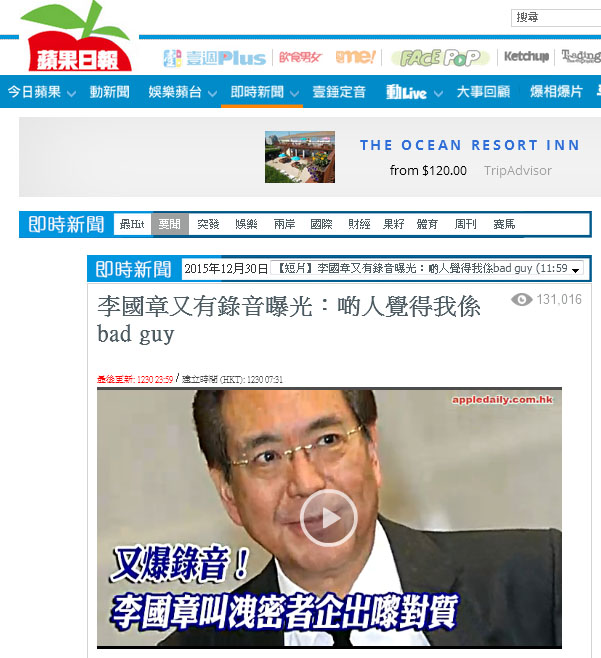
Apple Daily's transcription
of the relevant section is:
"Oh! These people are all
bad guys." That we're hiding. Quite honestly I have nothing to hide.
Speakout HK's transcription
is:
Oh, These people are all bad
guys that are hiding. And quite honestly, I have nothing to hide. I'm very
happy to have everything I said including this meeting to be released to
the public.
- As with the previous
leaks, the leaker believed that the recordings contained damaging
information against the speakers. Instead, the general public reaction was
that the comments were very reasonable. Instead of losing points, the
speakers gained points. It is interesting that the leaker could not see
this.
- That was the first piece
of good news. Here is the second piece of good news: Lee Wai-ling has just
been shit-canned at Next Digital Media! We won't have to put up with her
Fiction-of-the-Day "news reporting."
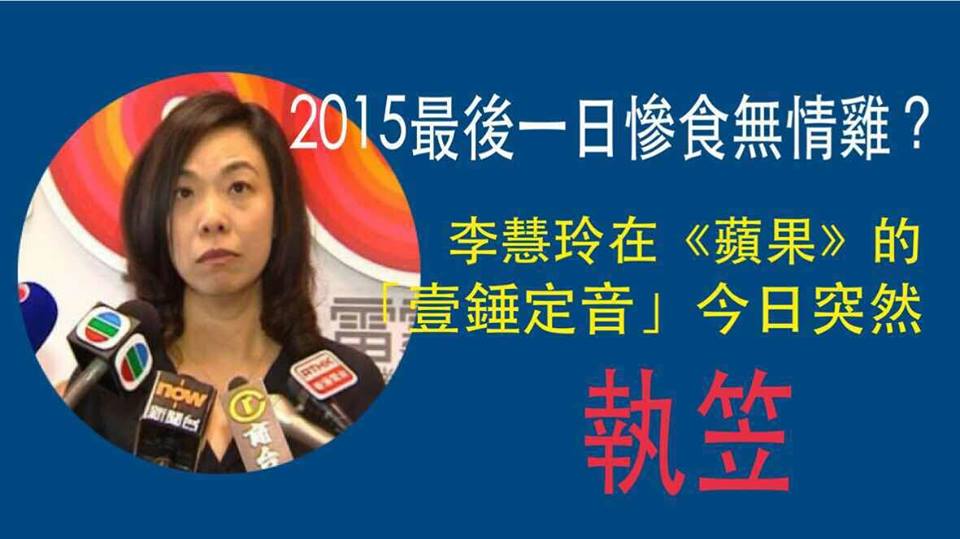
- Is the Journalists Association going to say that this is a case of media
self-censorship to suppress a major voice of freedom, as they did when Lee
Wai-ling left Commercial Radio to join Next Digital Media? Or will the
Journalists Association laud the act as "壯士斷腕"
(= the courage of a brave man to cut off his hand to become free).
(Ming
Pao) December 30, 2015.
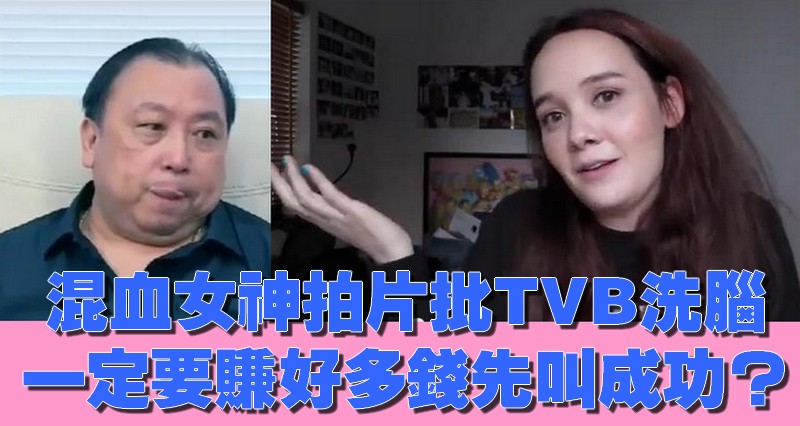
Hong Kong-born model Asha Cuthbert
watched the TVB program <The Internet of Things on TVB> and got angry. So
she decided to issue a rebuttal on YouTube called <Dear
TVB>. Asha said: "I don't want them (TVB) to brainwash the people of
Hong Kong." She questioned Wong Jing's critique of YouTubers was intended to
distort the definition of success in Hong Kong when he said: "How much do online
filmmakers make? If you do it my way, everybody will be able to afford an
apartment."
Asha said that TVB and certain
Hongkongers want to impose their own definition of success on others: "These are
the people who want to brainwash the Hongkongers. Money. Name brands.
Apartments. These are the important things without which you don't exist,
without which you will be unhappy." Asha questioned whether wealth is the sole
criterion of success." Why do I have to earn a lot of money before I can be
successful? I am doing what I want to do already, so I am very successful ... Is
doing what I want to do not a kind of success? At least I've tried and even if I
failed, it is better than not having tried." She also said that she loves Hong
Kong and she has a great deal of confidence in the people of Hong Kong.
Asha thinks that the purpose of
<The Internet of Things on TVB> was to emphasize that television productions
still reign supreme over YouTube videos. This is disrespecting the fact that
other people may have different views. In truth, when she was asked about how
different she was from other participants on a model show, she replied that she
hoped that people can respect each other. "I don't like other people trying to
change me ... when I have a view on something, I cannot be changed easily. I
will defend my position.
(Wong Jing's Weibo)
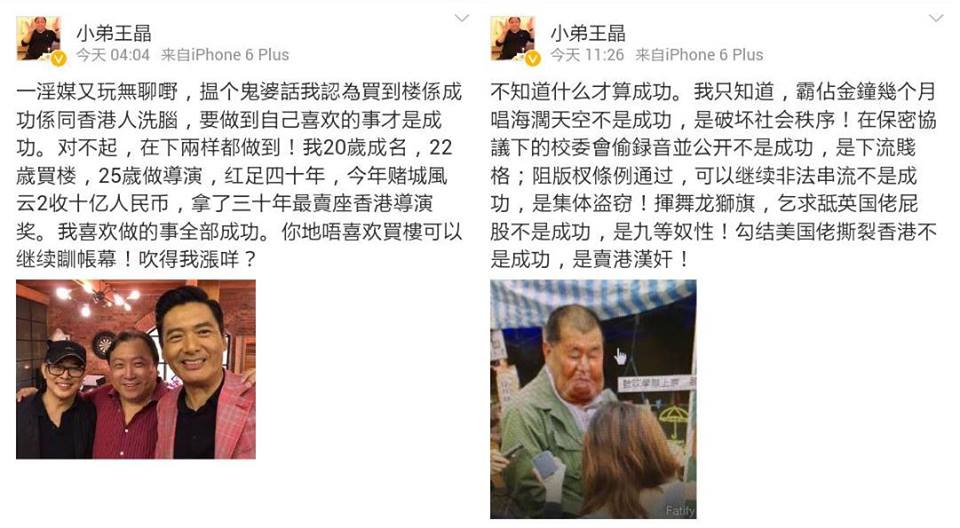
Wong Jing: Next Smutty Media
is up to more nonsense by finding a foreign woman who said that I am
brainwashing the people of Hong Kong. Whereas I said that buying an apartment
represents success but she said that success should be about being able to do what one
likes to do. Sorry, I have done both! I gained fame at 20, I bought an apartment
at 22, I was a director at 25 and I have been popular for forty years. This
year, <From
Vegas to Macau II> raked in $1 billion RMB at the box office, and I also
received the award for the best selling director over the past 30 years. I
succeed in everything that I like to do. If you don't like to buy an apartment,
you can continue to sleep in a tent! What can you do to upset me?
Wong Jing: I don't know what
success should be. I only know that occupying Admiralty by force for several
months in order to sing <The Sea is Vast, the Sky is Empty> does not
represent success; it
is disrupting social order! To leak a secret recording of a university council
meeting in violation of a confidentiality agreement is not success; it is base
and vile! To stop the passage of the copyright bill in order to continue to
download intellectual property illegally is not success; it is collective robbery! To wave the
dragon-lion flag and lick the arse of the Brits is not success; it is low-class
slavishness! To be in cahoots with the Yanks to tear apart Hong Kong is not
success; it is treason and betrayal of China!
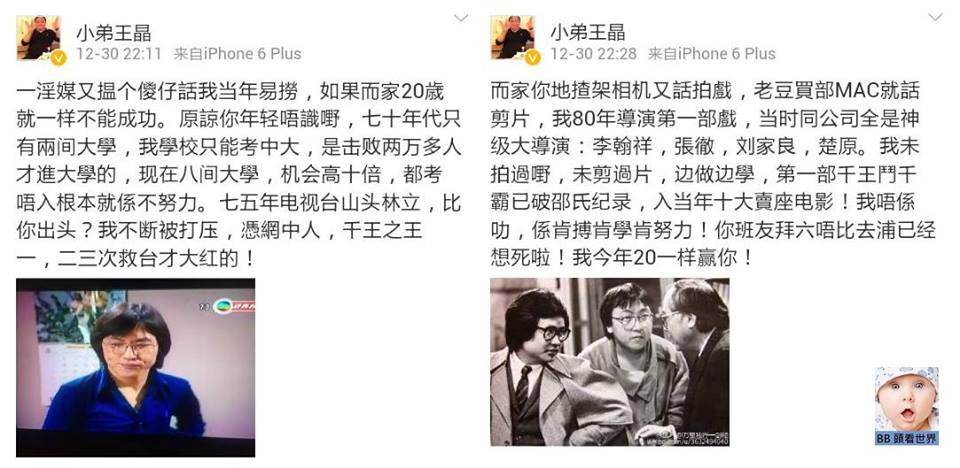
Wong Jing December 30, 2015:
Next Smutty Media has found some idiot to say that I had it easy when I was
young, but if I would be a flop if I were 20 years old today. I forgive you for
being young and therefore ignorant. In the 1970's, there were only two
universities. At my school, I could only apply to the Chinese University of Hong
Kong. I had to beat more than 20,000 others to get in. Today there are eight
universities and your chances are ten times better. If you can't make it into
any of the eight, then you weren't trying. In 1975, there were many established
factions around, so how can anyone break out? I kept being put down. I became popular only because <The Good,
The Bad and The Ugly> and <The Tricky Master> saved the channel!
Wong Jing December 30, 2015:
Nowadays you are a filmmaker if you have a camera. When your dad buys you an
Apple Mac computer, you are a film editor. When I directed my first film in
1980, there were star directors at the company: Lee Hon-cheung, Cheung Che, Lau
Ka-leung, Chua Yuan. I didn't make any film before, and I had never edited any
film before. I learned as I worked. My first movie <Challenge of the Gamesters> set a
record at Shaw Studio and was one of the top ten best-selling movies of the
year! I am no genius, but I was willing to learn as well as work hard! As for
you guys, you want to die if you can't have Saturday night out on the town! I
will beat you again if I were 20 years old today.
Videos:
TVB program <The Things On The
Internet>
https://www.youtube.com/watch?v=_lbzgI0Mcfc Wong Jing talks with the
YouTubers.
A chronology of the Jing Girls
https://www.youtube.com/watch?v=BthX1zsj8QQ
Internet comments:
- On YouTube, the filmmakers are
terrific in masturbating with themselves. Once they got the chance to appear on
TVB, they were just as lame and wimpy. Why? It's all about the money.
- If you offer a YouTuber $1 million to direct a show, he would do it without a
thought. So much for not caring about money.
- It's alright for you not to want
to make money. But you shouldn't run Occupy Central and stop other Hongkongers
from making money. When Hongkongers complain, you just dismiss them summarily as Hong
Kong pigs who care only about money. That's respecting other people?
- It's alright for you not to equate success with money. But you shouldn't turn
around and complain that housing prices are beyond what you can afford.
- When you won't equate money with
success but you complain about high housing prices, you are a LOSER!
- Of course, it is wonderful to be
able to do what you like. But would you characterize yourself as successful if
this lifestyle of yours has to be sustained by others (e.g. public housing,
welfare checks, faking injuries for workman's compensation, dodging taxes, etc)?
- The truth is: "Money can't buy
everything. But without money you can't buy anything." By the way, Wong Jing
said that about a certain television channel.
- There is a saying in Chinese:
"Money cannot accomplish all 10,000 things." Indeed, it can only do 9,999 of
those things.
- Money isn't everything? So why
are the Democratic Party, the Civic Party, the Labour Party, the League of
Social Democrats, Occupy Central, the HKU Public Opinion Programme and others
taking money from Jimmy Lai.
- Asha Cuthbert just taught me
something new: a successful failure! Surely, there must also be a failing
success.
So if you use your own money to make a movie and lose a few million in the
process, this is a successful failure because you did what you wanted to do but
the result was unsatisfactory.
And if you got paid handsomely to make a pro-Communist movie that raked in $1
billion at the box office, this is a failing success because you did something
that is hated by all of the people of Hong Kong even if you personally made a bundle.
Something like that ...
- No, you don't get it. The rules of the game is reducible to this: Whether you
are successful or not depends on what Asha Cuthbert says.
- What is the difference between a
successful beggar and an unsuccessful beggar? It depends on how much money they
made by begging. This is not a question who enjoys begging more.
- A beggar is a beggar is a beggar.
- A beggar by any other name is still a beggar.
- Why do they award the gold medal
to the first finisher, the silver medal to the second finisher, the bronze medal
to the third finisher and nothing to the rest of the field? This is so wrong.
Medals should be awarded on the basis of how much the competitors like to
participate!
- Money isn't a priority in your
life. You only want to get on Facebook/YouTube to engage in online catfights.
But how do you get the money to buy the mobile phones, computers and Internet
service to get on Facebook/YouTube?
- Li Ka-shing cuts such a pathetic
figure. He spent his whole life making money. He may not even like doing it.
- When I grow up, I want to be even more unsuccessful than Li Ka-shing.
- Is a single comment by Wong Jing
on a TVB programme going to brainwash the people of Hong Kong? Tsk tsk tsk.
During the debate over national education, a housewife called up a radio show:
"If only my son could be brainwashed by reading a book -- then he wouldn't be so
naughty, he would study hard and he would know what filial piety is."
- Money isn't everything. So why
we still talking about giving every senior citizen $3,250 per month in a
universal pension scheme? Shouldn't it be enough just to shower them with love
and affection?
- Civic Passion wants to boycott
Wong Jing's new movie <From Vegas to Macau III>.
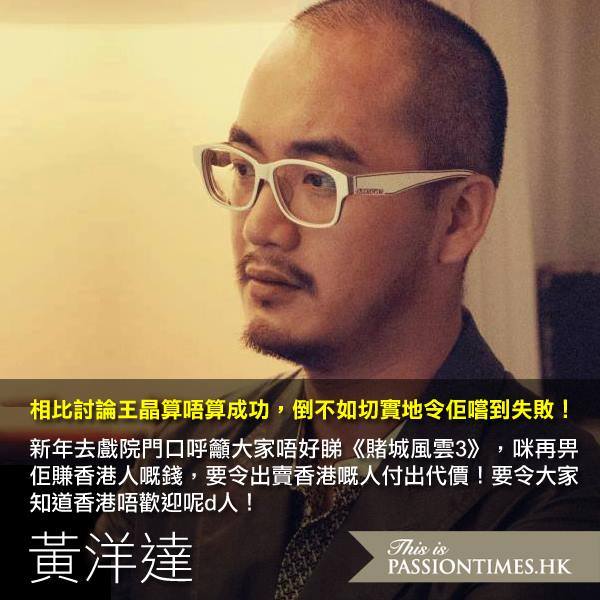
Instead of discussing whether
Wong Jing is successful or not, why not do something practical to make sure
that he tastes defeat!
During the Lunar New Year, we
will go to the movie houses and call on everybody not to watch <From Vegas to
Macau III> so that he can't take away the money of the people of Hong Kong. We will
make all those who betray Hong Kong pay the price! We will let everybody know
that Hong Kong does not welcome people like that!
Wong Yeung-tat (Civic Passion)
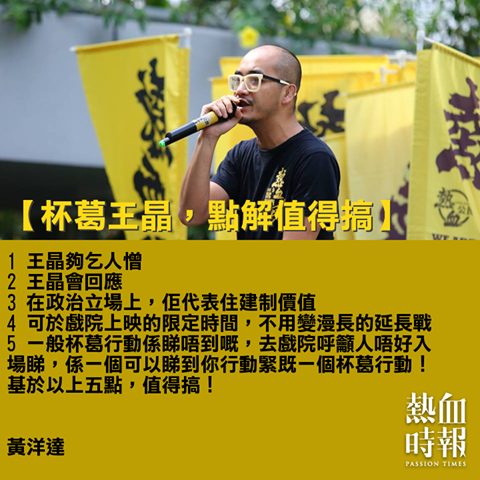
Boycott Wong Jing -- Why This
Is Worth Doing
1. Wong Jing is disgusting
2. Wong Jing will respond
3. Politically speaking, he represents pro-establishment values
4. The action will be restricted to to the limited period when his movie is
being shown, and not onwards indefinitely
5. Most boycotts are invisible. But going to the movie houses and urging people
not to buy tickets is a boycott movement that is visible.
Based upon these five points, this is worth doing!
Wong Yeung-tat (Civic Passion)
- How are you going to hurt Wong
Jing financially?
Let look at the previous edition <From
Vegas to Macau II>.
(Wikipedia)
In Hong Kong, the total box office receipts were HKD 28.4 million. In mainland
China, the total box receipts were RMB 974 million (about HKD 1,173 million).
Do you think Wong Jing will be
gravely hurt in financial terms if some (but not all) Hongkongers join some kind
of Civic Passion-led boycott? No. The only way that you can hurt him is to do an
Anna Chan (that is,
a mass consumer boycott on mainland China over something that he said or did
that is extremely offensive to mainlanders (like calling them locusts which
should be
exterminated)).
- If you publicize/magnify what
Wong Jing has been saying, you will be promoting his film on mainland China.
- There are about
40 cinemas in Hong Kong. There are fewer than 100 Civic Passion members.
If they spread out at two or three volunteer workers per cinema, they can't be
very 'persuasive' for potential cinema goers. So their best strategy is to
marshal all their people at one cinema with a street entrance (e.g. Cinema City
at Langham Place, Mong Kok), start some fights with citizens trying to buy
tickets and then a riot against the police. All of the action will be recorded
and reported by Apple Daily, Passion Times and SocREC. The impact on box office
receipts will be trivial, but the publicity for Civic Passion will be priceless
as they consolidate themselves as the most radical of the radicals.
- This is what happened with the
anti-parallel trade protests. If they were serious and they had the numbers,
they would have staked out Sheung Shui, Tai Po, Sha Tin, Yuen Long and Tuen Mun
every day of the week from morning till night. But they were not serious and
they were few in numbers, so they picked one location for one afternoon on
Sunday for publicity purposes.
- If they sent two young punks to
picket one cinema, they better not call the Big Bad Police when they get beaten up
by angry citizens.
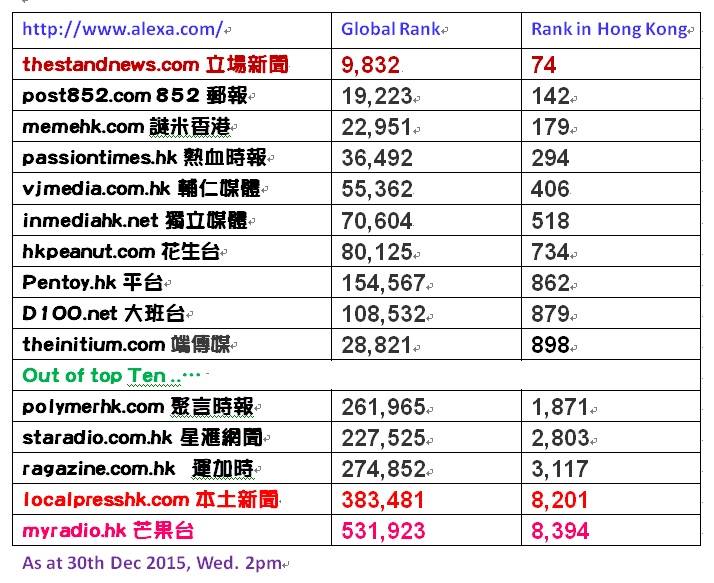
(EJ
Insight) December 29, 2015.
Chief
Executive Leung Chun-ying is said to have called on members of the
commercial sector in several private functions recently to cease making
donations to local universities, Now TV reported Monday night, citing
several sources. Leung was quoted as saying that local tertiary institutions
are sitting on a wealth of financial resources and are even overstaffed. He
reportedly told potential donors to instead give their contributions
to scientific research projects and allocate the �leftovers� to secondary
and primary schools.
It is
understood that vice-chancellors of local universities were present at those
occasions when Leung made the remarks. Many of the listeners were surprised
by Leung�s comments as he is the chancellor of eight local universities.
Leung is reportedly keen on
facilitating the
setting up of a local campus for Karolinska Institutet, a world-renowned
medical university from Sweden, in addition having helped solicit a US$50
million funding from Lau Ming-wai, chairman of Chinese Estates Holdings Ltd.
Leung also allowed the use of Government
House recently as the venue of an inauguration ceremony for the Academy of
Sciences of Hong Kong, which is now headed by former University of Hong Kong
vice chancellor Tsui Lap-chee.
(SCMP)
Hong Kong leader CY Leung is playing �hunger games� with public universities.
By Alex Lo. December 30, 2015.
A gaffe is when a politician tells the
truth, a political wit once observed.
So far, the most (in)famous one for Leung
Chun-ying had been when he said democracy would see poorer people earning
less than HK$14,000 a month dominate elections, during the height of the
Occupy protests last year.
Now, the chief executive is in danger of
making another one.
According to a news report on NOW TV, Leung
told a private audience that there was no need to donate to local
universities because they were already well-funded from multiple sources and
were overstaffed anyway. Instead, the private sector should consider
donating to research projects and even primary and secondary schools. Some
heads of universities were reportedly present and were shocked.
Last night, Leung�s press office said he
encouraged people to donate to universities and secondary schools. That was
no denial so it looks like the NOW TV report was accurate.
The report�s timing is especially
unfortunate. Leung�s predecessor, Tung Chee-hwa, through his think tank, the
Our Hong Kong Foundation, has just recommended injecting an extra HK$50
billion into existing public funding to boost university research.
The chief executive is, after all, the
chancellor of all eight public universities. If he doesn�t want to raise
funds for them, who will?
Between many university students and
academics, and Leung, there is no love lost � hence the sensitivity of his
remarks.
They make it sound like Leung was trying to
cut off his nose to spite his face. No advanced society today can survive
without well-funded universities, even if some appear to be breeding grounds
for political agitation. That�s the price you pay for free thought.
A more charitable interpretation of his
remarks is that he had been encouraging independent research institutes to
set up shop in Hong Kong.
Sweden�s renowned medical research group,
the Karolinska Institutet, is coming here, thanks to a US$50 million
donation from Joseph Lau Ming-wai, the head of Chinese Estates Holdings.
The new Academy of Sciences of Hong Kong is
also being set up, modelled after a similar one on the mainland.
But funding is not a zero-sum game in rich
Hong Kong. The last thing Leung wants is to be seen trying to starve our
universities of funding.
(Hong
Kong Free Press) December 30, 2015.
Chinese-language daily Ming Pao has
affirmed an earlier report from Now TV that Chief Executive Leung Chun-ying
asked businesses not to donate to local universities�allegations that the
Chief Executive Office has yet to directly address.
Citing a �reliable source� in the SAR
government, the newspaper on Wednesday supported Now TV�s report that Leung
had �on several closed-door occasions� urged potential donors to fund
scientific research instead of tertiary institutions, which he allegedly
said had abundant resources and �too many teaching staff.�
At these meetings, Leung is also said to
have criticised the booing of the national anthem by Chinese University of
Hong Kong students and the holding of a yellow umbrella by a graduating
student at the Hong Kong University of Science and Technology (HKUST). Leung
allegedly said that if businesses wished to donate money for education, they
should give to secondary schools instead. Sources said that members of
Leung�s audience were shocked at his remarks.
Responding to media inquiries, the Chief
Executive�s Office said that Leung encourages the community to sponsor
learning at both secondary schools and universities, RTHK reported. Leung
personally attended at least three university donation ceremonies this year,
the statement added, and encouraged many to donate to universities at these
events. However, the Office did not address the question of whether Leung
had in fact discouraged donations to local universities on other occasions.
Internet comments:
- This story is a
NOW TV exclusive, because so far everybody else's reporting is
derivative. Here is what NOW TV is saying exactly:
我們聽聞梁振英近日在不同閉門的場合,都呼籲商界不要捐錢給大學,認為大學的資源已相當充裕,教職員也過剩,提醒商界有錢應多捐助科研,有零頭的話就捐給中小學。
[We heard that CY Leung has called on the
business community in a number of closed-door meetings not to donate money
to the universities. He believed that the universities have quite ample
resources, as well as being overstaffed. He reminded the business
community to donate more towards scientific research and allocate any
'spare change' to secondary and primary schools.]
據聞,梁振英呼籲關水喉時,還有大學校長在場,作為八間大學校監梁振英作出這樣的呼籲,商界和學界都大為震驚。
[According to what we heard, CY Leung
made his call in the presence of university vice-chancellor(s). As CY
Leung is the chancellor of the eight universities, the business and
academic communities were surprised to heard him make this call.]
What is the substance of the story? First
of all, the source is not identified. Was it a member of the business
community who was present at a close-door meeting? That would be first-hand
information. However, the report also refers to CY Leung having said that at
a number of closed-door meetings. There was no reason for the same member of
the business community to be invited to a number of closed-door meetings in
which the same thing was being said. So the best scenario is for a source to
be present at one meeting and then heard about other meetings. It would be
worse if the NOW TV's source was actually not present at any of the
meetings, but he is forwarding hearsay.
NOW TV gave no indication that they
verified any of this. Was the Chief Executive's Office asked for a reaction?
Apparently not. If NOW TV did ask, it would be in the news report. Was there
a second source? Apparently not. If NOW TV did ask another attendee or the
unnamed university chancellor(s), it would be in the news report. So the NOW
TV report is dodgy.
Of course, it would be better if there were
recordings of these meetings. But there is none so far. But what it is that
CY Leung said? Maybe he said to the business people present: "I know that
you people recognize the importance of schooling to the Hong Kong economy,
and I know that you people have donated vast sums for Hong Kong education in
the past. I urge you to continue to do so. It may be that you feel that the
universities are well-funded already. Please do not think that this is all
there is to it. If you want to contribute, you can donate towards scientific
research institutions in Hong Kong. If you have any 'spare change' left, you
can also donate to secondary and primary schools."
- After this NOW TV report appeared, the
Chief Executive's Office responded. The spokesperson said that the Chief
Executive encourages society to donate to education, including universities
and secondary schools. This year, the Chief Executive participated in at
least three university donation ceremonies during which he encouraged
various sectors in society to continue to donate to the universities.
Why was this response reported not together with the original report but
only separately afterwards? Didn't they elicit a reaction before publication
of such an important story?
- Frankly, this story does not sound
credible to me. If you say that the previous Chief Executive Tung Chee-hwa
or Donald Tsang said this, I might believe it because I think that they are
politically insensitive. If you say that Education Secretary Eddie Ng
Hak-kim or Development Secretary Paul Chan Mo-po said it, I might believe it
because I think that they are very stupid people. But I don't think CY Leung
would be saying this. Leung is not stupid. He is
machiavellian.
- On one hand, CY Leung is said to be so
unpopular that nobody (especially the business community) will listen to a
word that he says. On the other hand, CY Leung is said to be so powerful
that he can call on the business community to stop donations and thus deal a
heavy blow to the universities. Which is true?
- This NOW TV story sounds just like the
$100 million
offered to Leung Kwok-hung.
- "We heard that ..." will replace "A
little bird told me ..."
- Well, the reporter who wrote the report
had no problems with it. The editor who reviewed the report had no problems
with it. The chief editor who keeps the gate had no problems with it. These
people are professionals who have decades of learning and experience. If
they don't have problems with it, then it must be true.
- If they don't have problems with it, then Hong Kong journalism is up shit
creek.
- There is no accountability in Hong Kong journalism. A good place to start
would be to require that the reporter and the editor be identified in
bylines.
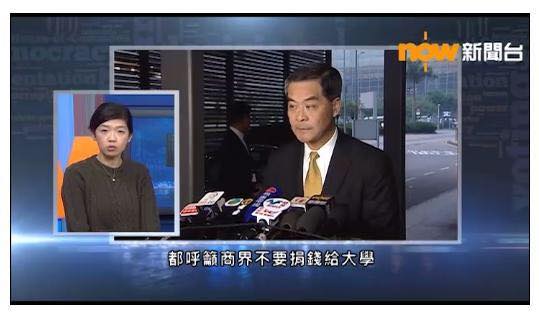
- What is the name of the reporter?
- (NOW
TV) Faced with the criticisms of the lack of sourcing, NOW TV
explained that they had the duty to uphold confidentiality. Well, you got me
confused. Sometimes, confidentiality is of paramount importance. Other
times, the public's right to know is of paramount importance. Can anyone
tell me where the goalposts are?
- You might imagine that this news report
was going to cause a lot of Internet users to be upset at CY Leung. Instead,
the story got a lot more LIKE's from Internet users.
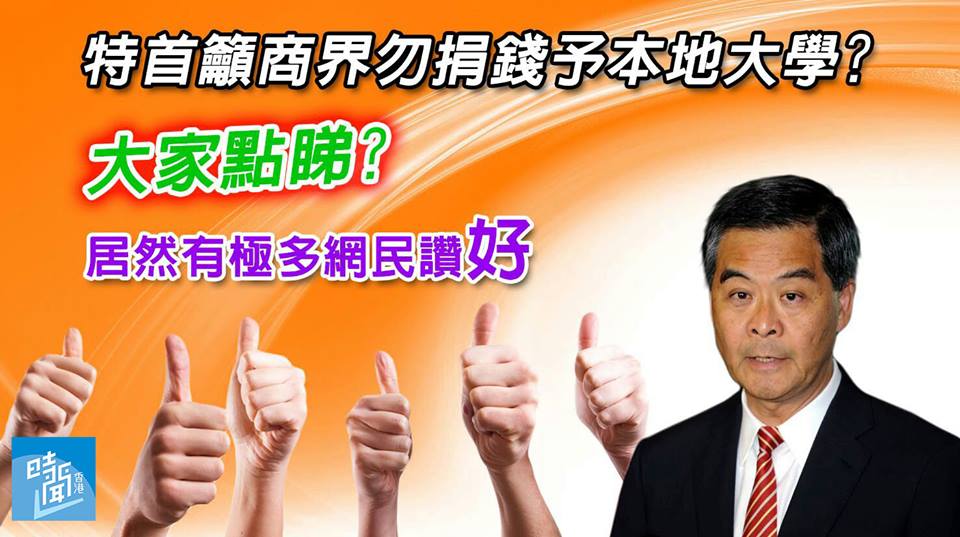
- People are celebrating because they saw no reason to fund students to
Occupy Central, etc. It's about time!
- People are celebrating the arrival of genuine autonomy/self-determination
at the eight universities. The universities are now no longer beholden to
the business community because the donations will stop. The final step is
for the University Grants Committee to disappear and the universities will
no longer be beholden to the government because they no longer get any
subsidies.
- We heard from a person who does not wish
to divulge his/her identity that he/she has heard from the friend of the
colleague of a friend about encountering a janitor outside the Next Media
building in Tseung Kwan O: "I heard two guys talking in the restroom that
300 workers will be laid off on January 1, 2016."
- That is not a bathroom joke, because the list of 300 names is posted all
over the Internet.
- When were these closed-door meetings? If
they began only recently, then the faucet was already shut off long ago for
some other reasons.
(Oriental
Daily) December 22, 2015.
For the 2012/2013 academic year, Hong Kong
University ran a surplus of $12.3 billion. For the 2013/2014 academic year,
the surplus was $2.5 billion. For the 2014/2015 academic year, the surplus
dropped more than 50% to $1.23 billion.
For the 2014/2015 academic year, the
contribution from the University Grants Committee, tuition income, research
revenues, rent incomes, etc all increased slightly. But donations and
investment earnings dropped 55% and 44% respectively. Specifically,
donations and benefactions went from $1,626,785,000 to $681,949,000.
Reference:
The
University of Hong Kong Annual Report
- Who are the worst enemies of CY Leung?
Who opposed him most fervently during the Chief Executive election? Well, it
is the four biggest property developers: Cheung Kong (headed by Li Ka-shing),
Sun Hung Kai Properties, Henderson Land Development and New World
Development. Who heads NOW TV? It's Richard Li, the son of Li Ka-shing. So
who else would publish a story like this?
-
Lau Nai-keung:
When it comes to hearsay, the reporter does
not try to verify it and the editor just publishes it as news. This is what
is sick about journalism in Hong Kong.
Yesterday the Li family's NOW TV raised it
up to another level by using "CY Leung calls on the business community not to
donate money to local universities" as the headline of its news report. This
sounds like factual, but in fact the article itself only says "We heard that
..."
... Fact or fiction? In Hong Kong, when one
dog barks, a hundred other dogs also bark by habit. So there were heated
cursing on the Internet. Whatever the outcome, the opposition will surely be
treating "CY Leung calls on the business community not to donate money to
local universities" as ironclad evidence of CY Leung's perfidy.
But let us suppose that CY Leung did say
that. Well, he is not completely wrong. He is only urging the business
community to donate more to scientific research and basic education. If a
discussion is warranted, it is only a technical issue of how to allocate
social resources. There is nothing absolutely right or wrong about this.
From another angle, the universities in
Hong Kong do not engage in teaching and research like they should. Instead
they encourage their students to cause trouble and disturb social peace.
Thus, their international standings are tumbling. When students are arrested
for law-breaking activities, they don't deplore the actions but instead try
to protect the students. As the chancellor, the Chief Executive surely should hold a
relatively reserved position with respect to allocating money to the
universities. He should also tell the business community about what is
happening at the universities and the position of the government about all
this.
The citizens and the business community
should appreciate the attitude of the Chief Executive to help them not
to waste their money, and be grateful to him.
- You can talk for all you want, but here
is the walk. (Speakout
HK @YouTube) (Hong
Kong Free Press) January 5, 2016.
Speaking to the media prior to the
Executive Council meeting on Tuesday, CY Leung said, �Over the past year, as
we have mentioned earlier, I�ve attended at least three university
donation ceremonies � later, someone reminded me that there were actually
at least four occasions. The last was at City University of Hong Kong.
These four donations were for three universities, namely the University of
Hong Kong, Chinese University of Hong Kong, and City University of Hong
Kong.�
�In total, three hundred million dollars
were donated to three universities, and I can say they were
all a result of my efforts. So apart from listening to and spreading these
rumors, everyone can take a look at the actual work I�ve done.�
�The fact is, the press was present at
one of the donations � it was at the City University of Hong Kong, and I
urged everyone to continue donating to universities. The press was there
that day because some members of the students' union barged into the venue �
if everyone had spent a bit of time looking through the archives, you
should know this.�
�As for the other three donation
ceremonies, even though the press was not invited, the universities had
all posted notices in the newspapers. All of this is clear.�
(The Standard) December 28, 2015.
Localism far from
being destructive protectionism may be a driving force that makes Hong Kong
a better place to live, according to Financial Secretary John Tsang Chun-wah.
Localism has become a sensitive word, with localists blamed for falling
tourist numbers and dividing society.
But on his blog yesterday, Tsang took the
opposite view while speaking about his pride in being a La Salle College
alumnus and how he could identify with "the recently trending so-called
localism culture."
Tsang, a well known lover of fencing,
talked about his pride in coaching the sport for 30 years at the school.
Like himself, Tsang said many La Salle fencers from the 1980s are still
working at weekends as coaches for free "due to a sense of brotherhood." He
recalled his feelings after attending an Old Boys' Association event more
than a week ago.
"Whenever I am in an alumni circle, the
fever, heat, passion and sense of belonging I have from chanting cheers and
singing the school anthem makes me think of how this feeling shares common
characteristics with the localism culture in the city: both give a sense of
belonging and pride to an identity, tradition and culture." He added that
the feeling may often be found in circles as small as a school and extended
to one as big as a race.
Tsang is optimistic that a similar feeling
among Hongkongers may unite them into a positive constructive force to make
the SAR a better place like how the La Salle pride has made alumni offer
selfless devotion to the school. "Localism is more than a negative notion,
or destructive protectionism," he said.
Tsang's positive view is in stark contrast
to that of his boss, Chief Executive Leung Chun-ying, who has repeatedly
criticized localism and localists. In March, Leung condemned actions and
demonstrations against cross-border parallel trading initiated by some
localism groups, and later he blamed the falling tourist numbers on such
actions.
Tsang earlier won many hearts when he
showed support for the Hong Kong football team on a blog post and for
attending a match in October. Leung refused to say which team he would
support in a match against China in November. His reluctance brought
overwhelming criticism from the public while Tsang gained more than 13,000
Facebook likes for a post showing him watching the match even when working
overseas.
Executive Council convener Lam Woon-kwong
took a middle-of-the-road stance, saying it is "natural for Hongkongers to
feel proud of their identity but there is no need to overly identify with
localism."
(SCMP)
December 27, 2015.
Financial Secretary John Tsang Chun-wah has
put a positive spin on the rise of localism in Hong Kong, citing its
potential to become a �strong and constructive force� that binds society
together, rather than looking at it as a destructive trend.
The unexpected remarks published on his
blog yesterday were in stark contrast to the confrontational approach of
Chief Executive Leung Chun-ying, who slammed localist protests against
mainland visitors and attacked student leaders for discussing
self-determination for the city.
Tsang�s line also contrasted sharply with
Beijing�s preference for nationalism over localism, but he stopped short of
addressing the anti-mainland, pro-independence trend among the youth which
has particularly alarmed both the local and central governments.
Tsang compared localism with the alumni�s
sense of belonging at his secondary school, La Salle College, in Kowloon
City. �They are common ... [in that it is] a strong passion and sense of
pride for one�s own identity, tradition and culture. Such a sentiment exists
everywhere � from as big as a country and a race to as a small as a school,�
Tsang wrote.
�I believe this emotional attachment and
sense of pride, too, exists among all Hongkongers. Our deep sentiment in
Hong Kong can be united as a strong and constructive force.� This could
drive Hong Kong towards the better, rather than be �merely a seclusive,
negative and even destructive protectionism�, he argued.
The conciliatory approach raised eyebrows
in local political circles yesterday, given Beijing�s growing emphasis on
patriotism.
Gary Fan Kwok-wai, the NeoDemocrats
lawmaker who took a localist line, noted: �Tsang has shown much higher
political prowess than Leung. �Leung shores up his own power through
confrontation. But Tsang is more pragmatic in reviewing the rise of
localism.�
Executive Council convenor Lam Woon-kwong
echoed Tsang�s views, saying it was �very normal� for Hongkongers to have a
sense of pride and belonging. �I have got in touch with a lot of teenagers.
They all have much deeper and wider views on national and international
developments than in the past,� said Lam. But he added that the younger
generation should not be �excessively localist� and should widen its
horizons.
Open discussions about independence for
Hong Kong and the waving of British colonial flags in nativist rallies have
prompted Beijing officials to stress the need for Hong Kong�s youth to love
the motherland and develop a sense of national pride.
In September, former Hong Kong and Macau
Affairs Office deputy director Chen Zuoer (陳佐洱)
sparked controversy by asking the city to �decolonise� itself, saying: �If
one loves only his home and forgets about the country, this sentiment,
though a good one, needs to be deepened.�
Earlier this year, Leung criticised Fan and
Civic Party lawmaker Claudia Mo Man-ching over their support for the
localist movement, as anti-mainland sentiment degenerated into radical
protests that saw Hongkongers clash with mainland visitors in shopping
malls. The two pro-democracy lawmakers had suggested people protest with
suitcases � mocking the visitors� tendency to wheel around their luggage
while shopping in Hong Kong.
In his last policy speech Leung criticised
the University of Hong Kong student magazine Undergrad and a book
it published for advocating self-determination for the city.
(EJ
Insight) December 28, 2015.
Mention localism and chances are you�ll get that �dont talk to me� look from
government officials.
Fair enough. They�re only trying to toe the
official line.
China sees localism as a threat to its
sovereignty and the first shoots of an independence movement in Hong Kong.
But there�s no evidence either of that is
happening, even though Hong Kong people are increasingly embracing their own
identity.
The problem lies in the demonization of the
subject, mostly for political, rather than practical, reasons.
Fear, after all, is one of the most potent
weapons of suppression.
However, not all government officials see localism as a bad thing. Finance
Secretary John Tsang thinks it can be a force for good.
�The
rise of localism in recent years shows that Hong Kong people are strongly
proud of their own identity, traditions and culture,� Tsang wrote on his
weekly blog on Sunday.
Such
pride in one�s country or school does exist, he said.
It was
not the first time Tsang had blogged on the topic.
On March 29, in a post about the Asia
Infrastructure Investment Bank, Tsang wrote he has no objection to localism
if it�s aimed at retaining Hong Kong�s unique characteristics.
One of the most important of these is the
fusion of eastern and western cultures and values, he wrote.
Tsang, No. 3 in the Hong Kong government,
has been relatively outspoken about certain sensitive issues.
For instance, his stance on localism puts
him at odds with other top Hong Kong officials.
Their
differences, however, are mostly about their respective interpretations of
the concept.
While his colleagues have adopted Beijing�s
grim view, Tsang has chosen to be positive about the whole thing.
Tsang did not elaborate how localism can be
beneficial but he might have been purposely ambiguous to allow Hong Kong
people to make up their own minds.
They recognize it as a way to uphold their
individual interests and those of Hong Kong society, especially in
investment and migration.
That mindset tells them, for instance, that
some costly infrastructure projects such as the national high-speed railway
is a bad deal for Hong Kong and that the influx of mainlanders is upending
daily life.
In fact, Leung Chun-ying carried the
banner of localism
when he became chief executive in 2012.
Already elected but not yet in office,
Leung banned non-permanent resident Chinese
women from giving birth in Hong Kong.
That helped usher in his government on a
high note.
The following year, amid a public backlash
over mainlanders causing a run on infant formula, Leung clamped down on the
practice by limiting visitors to two cans a day.
That
was perhaps also the last time localism wasn�t a bad idea in the minds of
officials.
Somehow, they confused it with the democracy movement last year and began
ascribing all sorts of political motives to it.
Leung can put things back in order by acknowledging
the importance of localism in government policy.
This
government must recognize Hong Kong�s overriding interests in maintaining
its uniqueness and way of life.
Most of all, it has to have the guts to
tell Beijing that localism is not the two-headed monster it�s making it out
to be.
Videos:
(Cable TV News)
https://www.facebook.com/icablenews/videos/457360877789319/
(Speakout HK)
https://www.youtube.com/watch?v=xF8vZXn2j2w
Internet comments:
- When you think Hong Kong Localism, what
comes to your mind immediately?
February 8, 2015
https://www.youtube.com/watch?v=4a_MRuZSZe0 Tuen Mun. Localists tell a
solo female mainlander to "Go back to China!"
February 15, 2015
https://www.youtube.com/watch?v=cBM2AYkbJSo At 1:05, someone reaches
over and pulls the hair of the female plainclothes police officer. This is
replayed in slow motion at 1:18.
February 15, 2015.
https://www.youtube.com/watch?v=hRVjghKn040 (TVB) News hour report
0:43 An elderly couple claimed to be
tourists on their first visit ever to Hong Kong. The man said: "I feel
that you Hongkongers are very troublesome. You Hong Kong people. We did
not block the passageway. We were only sitting there. This was my first
time here. How would I know? Very bad. Very bad. Chinese people don't
curse people this way.
1:00 Placard: "Chase away Communist locusts; restore British Hong Kong;
build a Hong Kong People's Government." "Eradicate the 1 million
barbarian Communist locusts, wash away the shame of 18 years of
oppression by the Communist locusts, cleanse Hong Kong once more."
1:26 Masked young man: "Chinese people should buy Chinese products."
Woman with children: "We used came to walk around. What is the matter
with you people?"
2:25 Ms. Ho who is in charge of a cosmetics store: "I guess that
business would decrease by 20% to 30% because the traffic flow. The gate
is lowered now, so the customers aren't coming in. It becomes harder to
conduct business."
March 8, 2015
https://www.youtube.com/watch?v=FymgsG_ck1A (Apple Daily) Tuen Mun.
0:34 Mother and daughter being harassed
by localists
1:06 PrizeMart worker: "A whole group of people came in. They cursed us
and told people to go back to China, the parallel goods traders to go
back to China. But our customers ... most of our customers are
Hongkongers."
1:22 The male customer at Chow Sang Sang jumped up and said: "I am a
Hongkonger! ... You even make noise when a Hongkonger wants to shop!"
2:02 A young man walks up and kicks the suitcase of a woman, then flees
March 8, 2015
https://www.youtube.com/watch?v=d-u6qlYIfCA Assaults on the
bald-headed grandpa and on the park music playing grandpa.
March 8, 2015
https://www.youtube.com/watch?v=n02bbn_7aKw Localists harass
mother-daughter for parallel trading
When you say that you support Localism, it
now means that accepting such behavior as normal. You won't find much
support from others. If you have a different kind of Localism in mind, you should spell
out what that might be. Or, the very least, you should condemn certain
behaviors in no uncertain terms and say that they do not represent Localism. Instead, you are just mumbling that
Localism is a good idea while refusing to say anything about the related
actions. Don't kid yourself, because you won't appease anybody. This is what
Neville Chamberlain found out.
- How do you co-opt these people?
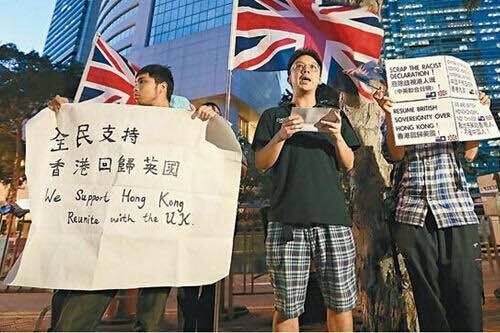
We (all the people) support Hong Kong Reunite with the U.K.
Scrap the racist declaration!
Restore British sovereignty over Hong Kong!
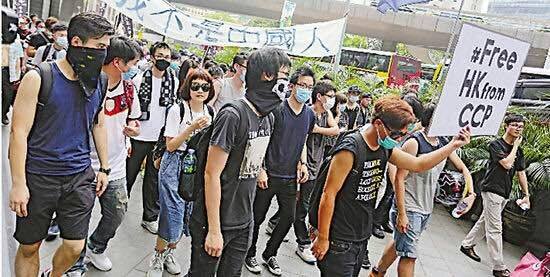
I am not Chinese
#FreeHKfromCCP
- Memo to John Tsang: Revolution is not a
fencing match in which participants are required to salute each other first
and obey the referee who can halt the match, award points or mete out
penalties. Revolution is seizing power through the barrel of the gun. Adults
should not have any illusions.
- Do not think for one moment that the nice
things about Localism said by John Tsang is going to mollify the Localists.
(Apple
Daily) December 27, 2015.
On Hong Kong Indigenous' online radio
programme, Ray Wong
used plenty of obscene words in discussing the New Territories East Legco
by-election and the pan-democratic legislators. Leung Tin-kei who is
actively thinking about entering that election said: "The significance of
the New Territories East by-election is to punish the Civic Party, because
their representative Ronny Tong let the people down." Ray Wong said:
"Until Emily Lau (Democratic Party chairperson) is dead, Hong Kong will
have no luck."
Ray Wong referred to those suspected of
setting the fire outside the Legislative Council as "justice fighters." He
said that those pan-democratic legislators who called on those people to
desist as "useless." Wong said that the if the Legislative Council was
effective, then those "justice fighters" would not have to take such risky
action.
Ray Wong said that the "justice fighters"
did nothing wrong because they didn't hurt anybody. Only if they hurt
other demonstrators must they re-evaluate their action. "If they hurt
the police, then so fucking be it. That's all the more better." He said
that the action was "not violent" because it is more akin to small
children playing with toy bombs.
Wong said that it is necessary to do
things that scare the government in order to force the government to
change its ways. He said that the government is most afraid of riots in
Hong Kong. "As soon as there are riots, the HKSAR government will have to
make a report to the central government" and this becomes an international
news item. "The government is afraid of this most of all, and not of any
assemblies or singing." He said that the government can only be pressured
by increasing the cost of governance, including using up police resources
in clashes, increasing the tax burden on the people, using demonstration
marches to paralyze traffic, starting Occupy movements and affecting
citizens. "This is genuine and powerful resistance, as opposed to the lame
Peace, Reason and Non-violence of the pan-democrats."
Youngspiration spokesperson Baggio Leung
said that he has not listened to this particular programme. But he said that he
agrees with the Localist narrative, such as the definition of the identity
of a Hongkonger. He said that different organizations have different
methods of action. With respect to the rubbish bin explosion, Leung said
that he does not know the perpetrators or what they motives were,
so it was hard for him to say whether this was right or wrong. He said
that the incident reflects the social atmosphere: "When the authorities
apply more pressure, it is reasonable for the blowback to be stronger."
Internet comments:
- (HKG
Pao) December 28, 2015.
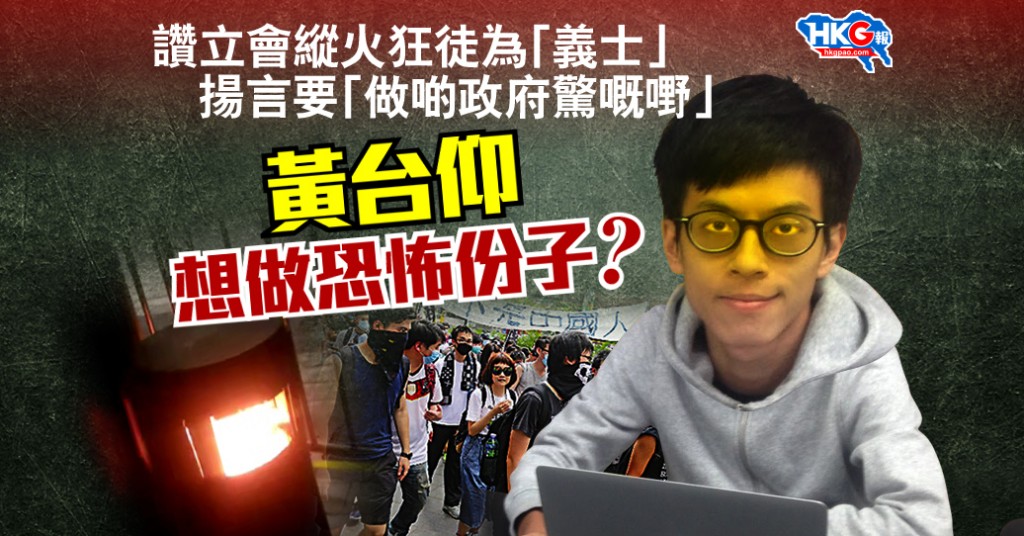
The resignation of Ronny Tong from
the Civic Party and his subsequent resignation as New Territories East
legislative councilor meant that a by-election will be held early next
year. Civic Party regards this position as being naturally inherited
by their candidate Alvin Yeung and they called on the various
pan-democratic parties to make way. Unexpectedly the Localists have risen
up to bite back. Civic Party's Claudia Mo was the original instigator
of Hong Kong-Mainland conflict, which led to the growth of radical Localists. The Localists gained fame with their physical assault on
children, women and elders during the anti-parallel trade protests.
These included Ray Wong of Hong Kong Indigenous. Wong is contemptuous
of the small-circle harmonization among the pan-democrats, so he is
going to field a candidate to run against the Civic Party.
Meanwhile the pan-democrats
instigated Occupy Central, which begat the the umbrella soldier
organization Youngspiration. This organization has said that they are
not fellow travelers of the Civic Party. Now they have come out to
state that they are with the narrative given by Hong Kong Indigenous.
So the pan-democrats have gained
nothing through Occupy Central in spite of many years of planning.
Instead, they created a bunch of opponents who will be giving them plenty of
headaches in the future.
Traditionally, the pan-democrats have
excelled in saying NO to everything. The young turks have learned well
from their masters, and they are now challenging everything that the
traditional pan-democrats say or do. Thus, Ray Wong says: "Unless
Emily Lau dies, Hong Kong will be luckless." So the pan-democrats who
have excelled in destruction over construction have now gave birth to
some others who are even more destructive than them.
Ray Wong think that Hong Kong needs
to be in total chaos in order for changes take place. He says that the
lives of citizens must be seriously affected in order to apply
pressure on the government. Therefore, they must do things that scare
the government. Assault, vandalism, arson ... what next?
- This is fucking awesome! By blowing
up a rubbish bin, the justice fighters of the Valiant Frontier have now
forced Chief Executive CY Leung to write a report to People's Republic
of China president Xi Jinping. Everything will change after this heroic
act!
- Compare the rubbish incident to this
other incident in Xinjiang on
September 18, 2015:
At least 50 people died in an attack
last month at a coalmine in China�s violence-prone Xinjiang province,
US-based Radio Free Asia reported on Thursday. Radio Free Asia said
the number of people killed in the 18 September attack at the Sogan
colliery in Aksu had reached 50, with most casualties members of the
Han Chinese majority. Police blamed knife-wielding separatists.
When police officers arrived on the
scene, attackers �rammed their vehicles using trucks loaded down with
coal�, the report said, citing its own sources.
�Nearly all the workers who were not
on shift at the time were killed or injured,� police officer Ekber
Hashim told the station. �Some workers were sleeping while others were
preparing to work when the attackers raided the building after killing
the security guards.�
China made no indication that its
ethnic policy will be modified in the light of this or any of the
previous incidents in Xinjiang. So what do you think will be the impact of blowing
up a rubbish bin?
As for the destroying the economy in
order to pressure the HKSAR government to write a report to the central
government, how did Occupy Central fare? Been there, did that. You need
something at least ten times, or even one hundred times bigger.
- Interesting that Apple Daily tried to
put Youngspiration into the same basket as Hong Kong Indigenous. Well,
Youngspiration just cut a non-compete deal with the Civic Party in the
New Territories East by-election. When Youngspiration says that its
ideas are similar to Hong Kong Indigenous, does that mean Youngspiration
will support Edward Leung Tin-kei?
- Eh, violence is the only recourse
left because the government has shut off all other channels of
communication. If that is how you want to justify violence, then be
careful about what you wish for. What if the Justice Alliance/Love Hong
Kong etc got together and come for your skull because because they say
that you have shut off other channels of communication?
- If you are man enough, take all ten
of your Hong Kong Indigenous followers and head to Shenzhen to overthrow
the Chinese Communists. Or even go to the office of Emily Lau and bash
her head in. But no, you only sit in a recording studio and give praises to some
anonymous persons who blew up the rubbish bin outside the Legislative
Council building.
- So you are ready to take action? Hey, you don't even have to travel to
Shenzhen where you can't even cross the border. The
Liaison Office of the
Central People's Government in the Hong Kong Special Administrative
Region is located at 60 Connaught Road West, Hong Kong Island.
Let's roll!
- What are they waiting for? They are
waiting for you to take the lead and show the way while they watch on
television.
- Ray Wong says that there needs to be
mass riots first before the HKSAR government will write a report to the
central government. What makes you think that the central government
does not want riots in Hong Kong? Actually, they wouldn't mind to see
the Localists bomb some buildings, loot some stores, burn down some
properties and kill some people. Because that means they can invoke
Basic Law Article 18: "In the event that the Standing Committee
of the National People's Congress decides to declare a state of war or,
by reason of turmoil within the Hong Kong Special Administrative Region
which endangers national unity or security and is beyond the control of
the government of the Region, decides that the Region is in a state of
emergency, the Central People's Government may issue an order applying
the relevant national laws in the Region." That would put a quick end of
One Country Two Systems.
- George Bush to Mitch Daniels right after the 9/11 attacks: "Lucky me,
I hit the trifecta." He was facing the impossible task of balancing the
budget, and he needed one of three things to happen: a war, or a
national emergency, or a recession. All three things happened on 9/11.
The Communists are waiting for the mass riot to happen in Hong Kong.
- Baggio Leung is saying that arson is
justified if the right people are doing it for the right reasons. So
please tell me what those reasons are, so that I can justify myself to
go out to rape and plunder?
- As long as Emily Lau doesn't die,
Hong Kong will be luckless?
Even if Emily Lau is dead, Hong Kong will continue to be luckless,
because Ray Wong's enemy list is very very long. I can see that it will
include:
--- All Legislative Councilors, their aides and their political parties.
--- All government workers, from Chief Executive CY Leung down to the
janitor at the Tsuen Wan Public Library
--- All Hong Kong Police employees and their families
--- All those who disagree that Hong Kong Indigenous should be in
charge of everything under the sun.
So their Hong Kong is a city with just 10 Hong Kong Indigenous members left
(and a horde of Hong Kong pigs who need to be fed).
- The better assessment is: Unless Ray
Wong and Emily Lau both die, New Territories East will be luckless.
- A revolution is when a people rise up
to overthrow the government because that government is oppressing them.
A revolution is not when a bunch of trash rise up to blow up the trash
bin because the bin is oppressing them.
- "Justice fighter"? Where is the justice for the trash bin? It got blew
up without ever having done anything wrong.
- You have to do things to scare the government because they wouldn't
feel any pressure otherwise? Who said it before? It sounds very
familiar? Black September? Red Army? Hezbollah? ISIS? FARC? Shining
Path? Al Qaeda?
- According to Ray Wong, Apple Daily's
original heading was "Ray Wong: Unless Emily Lau dies, Hong Kong will be
luckless" under the expectation that Wong would be roundly criticized.
Instead, plenty of people agreed with that statement.
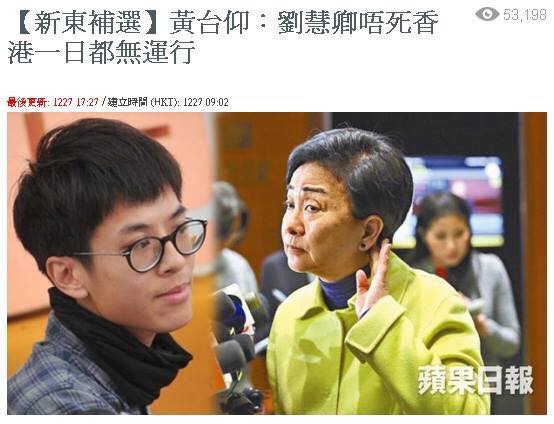
Therefore, Apple Daily has changed the
heading to: "Ray Wong: Hong Kong must be put into chaos in order to
force the government to change."
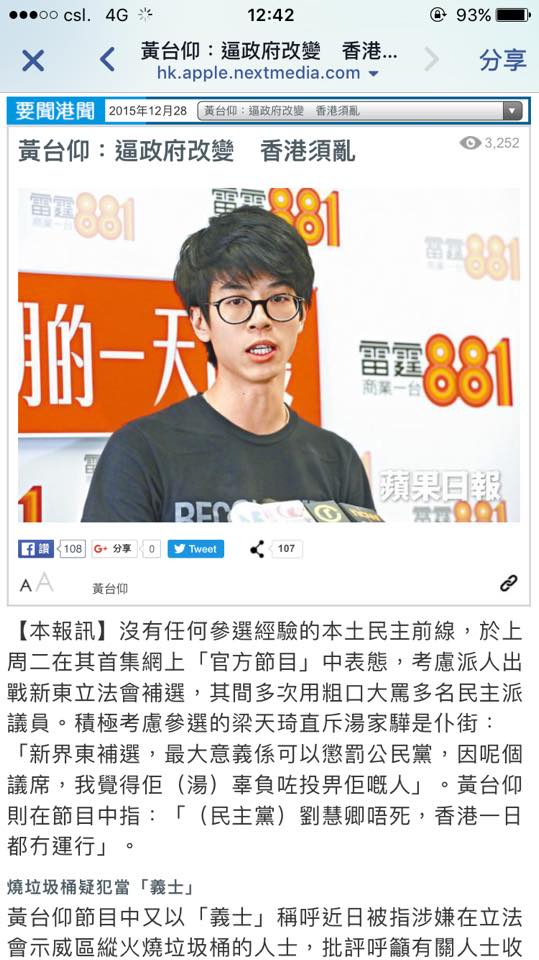
So Emily Lau received a stay of
sentence.
(Wikipedia)
Yellow journalism, or the yellow press, is a type of journalism that presents
little or no legitimate well-researched news and instead uses eye-catching
headlines to sell more newspapers. Techniques may include exaggerations of news
events, scandal-mongering, or sensationalism. By extension, the term yellow
journalism is used today as a pejorative to decry any journalism that treats
news in an unprofessional or unethical fashion.
Yellow Ribbon Journalism: Yellow
journalism as practiced by the Yellow Ribbon media Apple Daily, Next Magazine,
Ming Pao and RTHK, characterized by fictional reporting with anti-government
biases.
(South
China Morning Post) December 25, 2015.
Hong Kong police have been accused of
suppressing press freedom after two Apple Daily reporters were detained for
more than an hour while allegedly stalking education minister Eddie Ng
Hak-kim yesterday.
According to the Chinese-language
newspaper�s version of events, the two reporters had been waiting to
interview the Secretary for Education at the government�s headquarters in
Admiralty at 5.30pm on Christmas Eve. After Ng left his office in his car,
the reporters followed him in their own vehicle. When their car stopped near
an MTR station entrance in Central, six police officers in plain clothes
appeared and asked them to show their identification documents, the paper
said. The reporters produced their press cards, but were still taken away
for further questioning on suspicion of loitering. The two were released
from Central Police Station without charges at 7.45pm.
The Hong Kong Journalists Association today
condemned the police action. �As public figures, high-ranking officials and
their words and actions could affect public interest any time. Following up
and monitoring are reporters� duties,� it said in a statement. �But, for the
officers to bring the reporters back to the police station on suspicion of
loitering, even after the reporters had shown their press cards and that
they were doing their job, that is unreasonable.�
In response, a police spokesman said the
force had received a report yesterday morning that a person had been
followed by strangers and vehicles multiple times this week. Officers then
took a man and a woman to a police station to confirm their identities after
stopping a car yesterday afternoon. Police had always respected press
freedom and fully understood the need to cooperate with the media, the
spokesman added.
Ng had been ridiculed in recent months for
failing to turn up to a public hearing on the controversial Territory-wide
System Assessment (TSA) for Primary Three pupils in the city.
(Cable
TV) December 25, 2015.
According to the Department of
Education, Secretary for Education Eddie Ng Hak-kim was trailed by unknown
individuals and vehicles several times this week. As he was not sure about
the identities or intentions of those individuals, he called the police out
of concern for his own personal safety. The Department of Education said
tonight that Ng did not know who the individuals were and what their
intentions were, and those individuals never identified themselves. Based
upon reasonable doubt and security concerns, it was appropriate for him to
seek police help. The Department of Education said that if Ng knew that they
were reporters, he would never need to call police help to investigate a
lawful news gathering activity.
(TVB)
December 25, 2015.
Shue Yan University School of
Journalism and Communication director Leung Tian-wai said that the police
action should depend on what the reporters were doing: "If they were trying
to gather news on a breaking story, the Secretary of Education should
cooperate. Otherwise, if the reporters were just trailing him non-stop
without saying why, the Secretary for Education can wonder what they were up
to. So Ng goes to the police and then the police take action. I don't see
what this has anything to do with freedom of the press."
Legislative Council security
affairs committee chairman Ip Kwok-him said that the Secretary of Education
may be a public figure, but he can still call the police if he feels that
his personal safety is being threatened. "Just because you say that you are
a reporter then you can anything that you want. When the principal feels at
risk, or threatened, or unsafe, the police needs to investigate further." As
for the reporters being taken down to the police station, Ip said that it is
reasonable because the police need time to verify the identities of the
reporters.
(SCMP)
December 27, 2015
Education minister Eddie Ng Hak-kim has
been accused of abusing his power by seeking help from the Security Bureau
rather than the police after being chased by two reporters.
The Apple Daily reporters were detained by
the police for more than 90 minutes on Christmas Eve on suspicion of
loitering, even though they produced press cards to officers.
A police spokesman said earlier that they
had received a report referral that a man had been followed by strangers,
but he did not reveal the source of the report.
The Security Bureau confirmed to the Post
yesterday that it received a report from the Education Bureau on Christmas
Eve in which it stated that its minister, Ng, felt threatened as he had been
followed by unknown strangers and a vehicle several times during the week.
The Security Bureau transferred the case to the police for follow-up action.
Lawmakers slammed Ng for abusing his power
and said he had taken advantage of his title to handle a personal issue.
�How on earth is he justified to use the
Education Bureau to contact the Security Bureau to handle an obvious
personal matter of his?� asked Civic Party lawmaker Alan Leong Kah-kit.
Leong said Ng owed the public an explanation.
His fellow Civic Party lawmaker, Claudia Mo
Man-ching, said Ng had set a horrible precedent. �So all chiefs can now call
the Security Bureau for help if they are annoyed by chasing reporters?� she
asked. Mo also questioned why Ng did not call 999 directly if he felt he was
in danger.
Liberal Party honorary chairman James Tien
Pei-chun uploaded a picture of himself wearing a helmet and snowboard
googles on his Facebook page with a sarcastic caption: �Dress like me if you
are followed by reporters. No one can recognise you then. Why waste police
resources?�
The education chief did not respond to
media queries about whether or why he had contacted the Security Bureau,
only that he had �sought assistance� out of concerns for his safety. Ng said
he would not have needed police help if he had known the two �strangers�
were reporters.
Apple Daily said its reporters had followed
Ng day and night since December 18 to see how he handled questions on the
controversial Territory-wide System Assessment (TSA) at public events. It is
understood that the car in which the reporters followed Ng did not have an
Apple Daily logo.
Ng was ridiculed for failing to turn up to
a public hearing on the TSA for Primary Three pupils. According to the
University of Hong Kong�s Public Opinion Programme, Ng�s support rate hit a
record low of 10.9 per cent in early December � the lowest of all bureau
chiefs.
(Hong Kong Journalists Association Facebook)
The Hong Kong Journalists Association
strongly condemned the arrest of two journalists in the name of �loitering�
during their reporting assignment on the Secretary for Education Mr Eddie
Ng.
Two Apple Daily journalists were trailing
after Mr Ng in the Central yesterday when several plain cloth policemen
stopped and questioned them. The pair produced their press card to no use.
The police arrested them as �suspects
of loitering� and denied their request to call the employer.
The journalists were held in the police station for 90 minutes and released
after signing testimonies.
This unprecedented incident is an out-right
infringement of press freedom. Trailing is a normal and essential part of
investigative reporting. Trailing of a senior government official to
monitor his or her behaviour is of public interest.
It is absolutely unacceptable for the police
to arrest journalists on assignment despite their showing of identity
proof.
The Association is concerned that this
would set a bad precedent, making journalistic work increasingly
impossible.
The Hong Kong Journalists Association
2015.12.25.
(Hong
Kong Free Press) December 28, 2015.
The Hong Kong Journalists Association (HKJA)
has criticised the police and education minister Eddie Ng Hak-kim over the
detention of two Apple Daily reporters who pursued the government official
on Christmas Eve.
HKJA chairperson Sham Yee-lan said that the
pair�s 90-minute detention sets a dangerous new precedent, giving police
free rein to remove reporters under the premise of charging them with
loitering, regardless of subsequent prosecution.
Sham said on Monday that Ng had a right to
report the matter to the police if he had reasonable grounds to believe that
there would be a threat to his safety or an invasion of privacy. However,
Sham emphasised that the reporters were merely doing their jobs. �The
reporters got onto a car to pursue the interview� objectively speaking, how
does it qualify as constituting a threat to personal safety? I don�t see
it.�
Sham also said that even the Chief
Executive had been followed and that it was �a very normal way of doing
things,� Ming Pao reported.
Sham suggested that, in future, police
should check reporters� identification documents and confirm their
identities on the spot by phoning their employers or checking with the
Police Public Relations Bureau, Commercial Radio reported.
Instead, the reporters had their requests
to make a phone call denied, and were sent to the Central Police Station for
further questioning.
Ng himself also became the subject of
Sham�s criticism for directly informed the Security Bureau of the matter
through the Education Bureau. The Security Bureau then transferred the case
to police�a move that, Sham said, was calculated to exert more pressure on
police, who did not react in the usual manner as a result
Sham said she was worried that the
detention of reporters could subsequently become the norm in Hong, adversely
affecting press freedom in the city.
Apple Daily editor-in-chief Chan Pui-man
also said on Monday the paper is considering filing a case with the
Complaints Against Police Office, adding that their reporters did not
interrupt Ng�s schedule for the day nor invade his privacy.
(SCMP)
Eddie Ng�s spat with Apple Daily a sign of how low we can go. By Alex Lo.
December 28, 2015.
It�s difficult to deal with the
yellow press. But then some public figures just compound their
problems by being completely daft.
By its own admission, the Apple
Daily newspaper had sent reporters in an unmarked car to
follow education minister Eddie Ng Hak-kim day and night since
December 18. Ng said he feared for his personal safety and called
� the Security Bureau.
Shouldn�t he have called police
at the first instance, as the bureau would eventually do it for
him, leading to a two-hour detention of two reporters?
Was Ng expecting not just regular
police help but specially trained security personnel? State
protection for a mere education chief would be a waste of public
resources.
It�s not clear, though, what the
Apple Daily was trying to achieve. Its fruity editors
claimed it was trying to see how Ng would handle questions from
the public on the controversial Territory-wide System Assessment (TSA)
for primary school pupils at public events.
Would it not be easier to send
reporters to cover those events, as it�s normally done? Or did
they think random strangers might throw tricky questions about the
TSA at Ng on the streets, and they needed to be on hand to report
them?
It might be more justified if the
Apple Daily had been tipped off about Ng�s private
indiscretions, but he does not strike you as someone with a
particularly lurid lifestyle. Then again, it�s those with the
boring exterior that you have to watch out for.
So, perhaps the Apple Daily
was protecting its news sources by claiming to tail Ng over, of
all things, TSA tests!
Now that would be the old
Apple Daily, which was at least interesting. Perhaps Ng was
hiding a mistress or two somewhere. Mere hearsay was enough in the
old days to get the Apple Daily�s intrepid newshounds on
the case.
Now the paper is just consumed by
hatred of the SAR government and is devoting all its dwindling
resources to discredit it and harass its officials.
Such occasional coverage is
amusing. But doing it day in and day out over years just gets
tiresome for most people and only appeals to diehards.
Not to mention such things as the
abuse of press freedom and demoralising your reporters by sending
them on time-wasting jobs.
(HKG
Pao) January 12, 2016
On December 25 and 28, the Hong
Kong Journalists Association condemned the police for removing the reporters
for no apparent reasons and interfering the freedom to gather news. They
wanted the Police Commissioner to guarantee that this will not happen again.
We contacted the Hong Kong
Journalists Association president Sham Yee-lan by email but she said that she
was busy and only agreed to a telephone interview on December 31, 2015.
During the interview, Sham
agreed that "Secretary Eddie Ng had the right to file a police report." But
she insisted that the police should not have taken the Apple Daily reporters
down to the police station for further investigation, because Apple Daily is a
traditional media outlet and not an unknown online media outlet. She said that
the police have the obligation to call the newspaper to confirm the identities
of the reporters and not to take them back to the police station.
When asked if the media outlet
manager may use the reporters for nefarious purposes, Sham evaded any
discussion of media responsibility. She emphasized that "the reporters have to
make their own decisions." When asked whether the decision will affect their
careers in the future, Sham said "I don't know" because different media
organizations are in different situations. She said that when a reporter knows
that a certain assignment is problematic but still proceeds, he/she will have
to bear responsibility. She said that the media outlet must protect its
reporters, "or else who is going to work for you?"
With respect to protecting the
safety and rights of reporters, Sham said that the Journalists Association has
done many things to protect the rights of reporters. "If you don't believe it,
you can look at our website." Our reporter looked at the Journalists
Association website, and saw that at least half of the statements from the
Journalists Association are related to Next Media. So who does the Journalists
Association represent journalists, or do they represent the Yellow Ribbon
media outlets? That is still a mystery.
As for what is "traditional" or
"mainstream" media, or what is "proper" or "normal" media, you can take a look
at Apple Daily? And then you can decide whether you agree with Sham Yee-lan
yourself.
Video:
RTHK
https://www.facebook.com/bbtauseeworld/videos/438128166384566/
Journalists Association press conference
Internet comments:
- Caption added by an Internet
user:
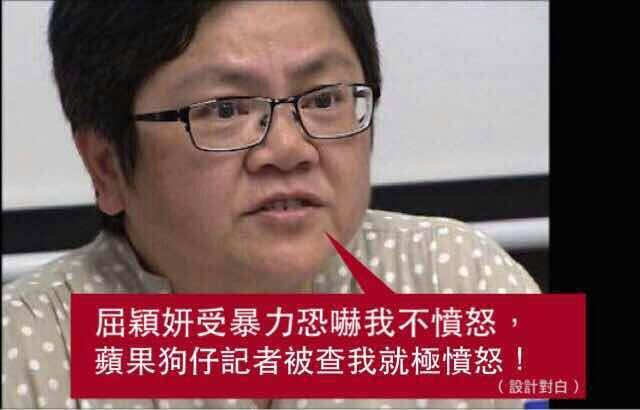
Hong Kong Journalists Association chairperson Sham Yee-lan
When Chris Wat Wing-yin was threatened with violence, I was not angry.
When the Apple Daily paparazzi reporters were investigated, I was very
angry!
- Astonishing! The reporters
must think that they are gods. You trail someone for days on end without
identifying yourselves. How would they know that you are reporters? Maybe
you are robbers, or kidnappers, or terrorists? Who knows?
- Why was Apple Daily so
interested in Eddie Ng? It is because of this: (South
China Morning Post) "Ng had been ridiculed in recent months for
failing to turn up to a public hearing on the controversial Territory-wide
System Assessment (TSA) for Primary Three pupils in the city."
The Apple Daily reporters
wanted to follow him to come up with a complete log of activities about what
he did throughout this week, including when he left for work, whom he met
with, what he had for lunch, how many cups of coffee he drank, when he went
home, whether he dined in or out, whether he had steak or pasta or soy sauce
chicken, etc.
Personally, I don't care about
any of that. I am more interested in what is going to happen with TSA. On
this, I stand on the wrong side of the Journalists Association: "As public
figures, high-ranking officials and their words and actions could affect
public interest any time. Following up and monitoring are reporters�
duties."
- Legislative Councilor Lam
Tai-fai said that he is concerned that actions like Eddie Ng's would be a
waste of police time. Tsk, tsk, tsk. Remember Occupy Central? Didn't that
incur
$500 million in police overtime? Where was Lam Tai-fai?
- Here then is the forgotten
Apple Daily report itself. This is supposed to be the main course, but has
fallen away to the clown show.
(Apple
Daily)
Since last Friday, Ng has
been attended various Christmas Party. First, there was the event
organized by the
Child
Development Matching Fund. On the same day, he attended the
Christmas Dinner for the various past Po Leung Kuk chairpersons. The
next day, Ng showed up at the
Jockey Club's Sha Tin Clubhouse to attend the Christmas events
of the Hong
Kong Liver Fund and the New Territories School Heads
Association. In the evening, he went to dine at the
Kowloon Cricket Club
where he finally found time to read the newspapers. Apart from attending
Christmas events, Ng went to Government Headquarters almost every day.
He had public or private meals at lunch and evening. He went between
various hotels in Admiralty, Central and Tsim Sha Tsui. Although Ng has
just reached a new low in public opinion, he was popular at the 2015
Department of Education Christmas Party on Wednesday. After each event,
Ng was taken back by car to Government Headquarters or his home.
Where is the news value?
- What did Eddie Ng eat at
the Kowloon Cricket Club? Inquiring minds want to know!
- Development Secretary Paul
Chan Mo-po was unluckier because he drove his own car. Eddie Ng Hak-kim is
driven around instead, so he can't be accused of driving under the
influence. There is no story in here. He is just a nobody doing nothing. Did the reporters overdo their act
deliberately
in order to get arrested for a news story?
- Eddie Ng skipped a meeting
with parents and teachers about the TSA. Therefore, Apple Daily needs to
establish that Ng has plenty of time to attend meaningless events instead.
That's fine, but who are these parents and teachers concerned about the TSA?
They are just sub-organizations spawned from established political parties
and they do not represent any sizeable constituencies. Of course, they want
to influence Ng's decision, but should Ng waste his time with them? (see
#385)
- Apple Daily said that when
their reporters were stopped previously by the police, they usually needed
only to show their press cards and then they are released. This time, the
reporters show their press cards and offered the newspaper's telephone
number for confirmation. Nevertheless the police took the reporters down to
the police station.
Well, the police are doing
things differently now thanks to the 'reporters' who were refused entry to
the Hong Kong Copyright Alliance press conference (see
#405). The fact is that the whole
world has become aware that any Joe can
print up what looks like a press card, and any Joe can give you a telephone
number to confirm employment at some media outlet or the other. Everybody
(including criminals) knows that now. The only people who still don't know is the
Journalists Association who will defend anyone with a press card (unless
it is commentator Chris Wat Wing-yin, in which case her whole family deserves to be
slaughtered by the pro-democracy Internet users).
- Apple Daily/Journalists
Association said that the police should have just called the given telephone
number for "Apple Daily", made the "confirmation" and let the "reporters"
go. The next day, the "reporters" will file a report about how the Hong Kong
Police are gullible and lack any sense of security because the press cards
and telephone numbers can all be fake! Then the Internet users will clamor
for the resignations of the Secretary for Security and the Police
Commissioner.
- According to Apple Daily's
version of events, "the two reporters had been waiting to interview the
Secretary for Education at the government�s headquarters in Admiralty at
5.30pm on Christmas Eve." Please note that it does not say that the
reporters had an appointment to interview the Secretary for Education. Ng
was unaware that any reporters wanted to interview him. "After Ng left his
office in his car, the reporters followed him in their own vehicle." So all
Ng knew was that two strangers were following him by car. Who are they? What
do they want? What are they going to do? If
there were reporters who want to interview him, they would have made an
appointment, right?
However, the Apple Daily chief
editor said that "As Secretary for Education, Ng should know how the media
gather news." In so doing, he is normalizing Yellow Ribbon Journalism.
- The saying should be
inverted: Apple Daily/Journalists Association should know how the police
enforce the law.
- What is Yellow Ribbon
Journalism? On March 30, 2012, Apple Daily posted a video of former Chief
Secretary Rafael Hui praying inside a church (https://www.youtube.com/watch?v=NsU72kTPP8U).
Apple Daily asserts that they are serving the people's right to know your
private thoughts directed to God. And if you disagree, you must hate
freedom/democracy/human rights/rule of law/universal values etc, and a
complaint will be lodged against you with the United Nations Office of the
High Commissioner of Human Rights, Reporters Without Borders and the
International Federation of Journalists.
- Here is the best example of
Yellow Ribbon Journalism. (SCMP)
October 5, 2012. Apple Daily claimed Development Secretary Paul Chan Mo-po
drank a 500ml glass of beer during lunch with his family on Tuesday, before
driving away. The newspaper also alleged that Chan broke traffic regulations
by crossing the double white lines in the road. (https://www.youtube.com/watch?v=PBTQOXDlo5w)
It is one thing to chase after Paul Chan, but why are his son and another
woman being filmed and published?
- Well, it goes both ways. So why did TVB go after Occupy Central trio
member Benny Tai for his children not participating in Occupy Central?
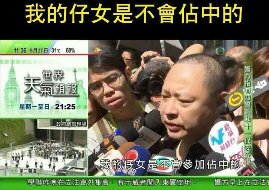
- If you have a student's
pass, it means that you won't set a fire outside the Legislative Council.
If you have a teacher's license, it means you won't molest students.
If you have undergone the rite for ordination to priesthood, it means that
you won't molest choir boys.
If you are a Legislative Councilor who enacts laws, it means that you won't
be corrupt.
If you have a police job, it means that you will molest arrestees.
If you believe all that, then you can also believe that if you have a press
card, it means you won't break the law.
- (Headline
Daily) By Chris Wat Wing-yin. January 2, 2016.
When the Apple Daily reporters
trailed Secretary for Education Eddie Ng, the latter called the police who
took the reporters down to the station for interrogation. The Journalists
Association came out to denounce the police for interfering with freedom of
press. They are concerned that, in the future, people will call the police
if they don't want to be reported in the news.
The Journalists Association's
declaration is based upon the hypothesis that all journalists are Gods.
As long as you are human, you
are mortal and subject to biases, ignorance, arrogance, evil intent and loss
of character. Just as there are Bad Cops in the police force, there will be
Bad Reporters among the reporters. Who can guarantee that the reporters
trailing you today are not Bad Reporters? Who can guarantee that they are
genuine reporters?
In the earlier British
colonial era, reporters are registered with the Government Information
Service and given ID's. Every other year, the reporters had to bring their
ID's in to be stamped in order to extend the validity. So that press card
was issued after careful vetting.
In the 1970's, there were more
reporters and the notion of "freedom of press" became fashionable. Reporters were no
longer given government ID's. Instead the media outlets printed their own
ID's. Because there were only a few media outlets which adhered to
discipline, reporters were still respected.
In recent years, there are
many more media outlets competing with each other. They breach the bottom
lines, even breaking the laws on many occasions. With the emergence of online media, it is now
said that "anyone with a mobile phone is a reporter." "As long as you are
bold and daring, you can declare yourself to be a reporter. You don't need
any press card or business card. Just say 'I am a reporter' and nobody can
stop you."
In this society, you need
training and experience for just about anything. Security guards have to
take tests, and even the plumber has to be licensed. But reporters as the Fourth
Estate are not vetted and they don't even need to have an ID for people to
check. As long as you own a color printer at home, you too can become a
reporter.
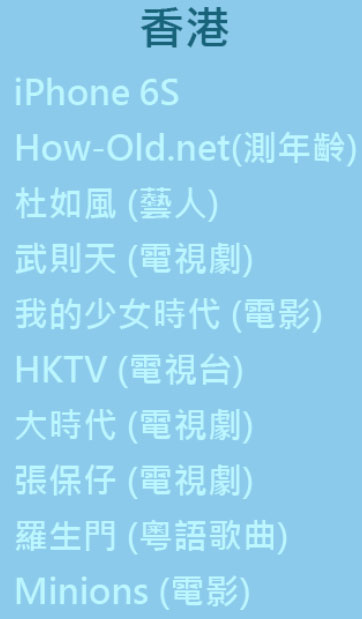
1. iPhone 6S
2. How-Old.net
(online application to guess the age of a person from a photo)
3.
Helen Tu Yu Fung (TVB host of Tokyo travelogue series)
4.
Empress of China (TVB serial drama imported from mainland China)
5.
Our Times (Taiwan movie)
6. HKTV (former
Internet TV channel, now an online shopping service) (see
#096).
7.
The
Greed of Man (TVB serial drama) (see
#212)
8.
Captain of Destiny (TVB serial drama)
9.
Rashonmon (song by Juno Mak/Kay Tse)
10.
Minions (Universal Picture motion picture)
Internet comments:
- All top ten items are for
entertainment! This is proof enough that the people of Hong Kong are just
fucking
pigs!
- Why nothing on "valiant resistance", "Joshua Wong", "constitutional
reform", "Cyber Article 23", "TSA", "universal pension", "Hong Kong
University pro vice chancellor", "parallel traders", "Reclaim movement", and
other items that are of utmost importance to vital interests of the people
of Hong Kong?
Background:
Rubbish!
(SCMP)
December 22, 2015.
Four Hong Kong tertiary students were among
six men arrested by police yesterday in connection with a blast outside the
Legislative Council building in Admiralty earlier this month, according to
police. One of the four students was believed to be the person behind the
dustbin blast plot on December 9, the
Post learned.
After making five arrests in early hours of
yesterday, officers last night detained a decoration worker at the Macau
ferry terminal as he returned to Hong Kong for questioning. A police source
said he was accused of buying alcohol and newspaper in the arson case.
Last night, all six men were being held for
questioning and none had been charged.
Initial investigation showed two of the six
suspects, aged between 18 and 24, were members of Valiant Frontier, a
radical pro-Hong Kong independence group. It had rallied online against the
controversial copyright bill, which it claimed was a means by the government
to abridge Hong Kong�s freedom of speech. �Hongkongers! You know what to do!
Remember to meet outside Legislative Council on December 9. Not leave
without seeing each other� was what it said on the group�s Facebook on
December 8.
At 6am yesterday, officers arrested five
Hongkongers after raiding homes in Tung Chung, Yau Ma Tei, Yau Tong, Sha Tin
and Tuen Mun.
�Initial investigation showed the two
arsonists were among the five,� one source with the knowledge of the
investigation said, adding that the pair were students. The source said two
were university students, two were post-secondary students and the fifth was
unemployed. It is understood the five men also took part in various
demonstrations such as the Occupy Central and the anti-parallel trade rally
in Yuen Long earlier this year.
Superintendent Ng Wai-hon of Hong Kong
Island regional crime unit said: �This group of people is organised and had
premeditated plan [to commit a crime]. They broke a fire alarm and then used
igniting objects to set alight a rubbish bin causing a blast.�
The five men were arrested on suspicion of
conspiracy to commit arson that carries a maximum penalty of life sentence
under the Crimes Ordinance, according to another source.
In the afternoon, one suspect was taken to
the scene of the crime for about 45 minutes to reconstruct the alleged arson
attack. Hooded and handcuffed, the suspects were led around on a metal chain
leash by a plainclothes police officer during the videotaped reconstruction.
Lawmaker Cyd Ho Sau-lan, of the opposition
Labour Party, said she was pleased with the police�s swift action but said:
�It is unfair for the police to label the suspects as members of localist
groups, as if all people from localist groups are bad guys.�
(Hong
Kong Free Press) December 23, 2015.
Five of the six suspects arrested over the
Legislative Council rubbish bin blasts two weeks ago have all been released
on bail of between HK$10,000 to HK$50,000 each. The case has been adjourned
to February 3 next year.
The suspects are forbidden to go near the
Legislative Council complex during this period and have to report to the
police station three times a week.
The defendants are of age 18 to 24 and they
include two students, an illustrator, an unemployed person, and a former
auxiliary police officer. They have been charged for destroying a rubbish
bin at the Legislative Council demonstration area on December 9 without a
reasonable excuse. The arson attack and explosion occurred at around 8:30pm
after a planned rally against a controversial new copyright bill was
cancelled by organisers. No one was injured.
Outside the law courts building police
stood guard and erected barricades. Civic Passion�s Wong Yeung-tat and
Student Front�s Alvin Cheng were seen in the audience at the hearing.
The defendants have been charged with
conspiracy to commit arson and appeared at the Eastern Magistrates� Court on
Wednesday. They were not required to submit a reply.
In the meantime, the prosecution will be
assembling evidence, which includes an analysis of CCTV footage, phone
records, thumbprint identifications, and lab reports on the flammable
materials.
The prosecution argued that the first to
third defendants in the case should not be granted bail, as there was strong
evidence against the first defendant. Records showed that he had used his
Octopus Card at the MTR exit gate at Admiralty, and CCTV footage appeared to
show someone wearing similar clothing as him near the scene of the crime,
RTHK reported.
The first defendant�s lawyer argued that
the identity of the defendant will be contested, as the footage merely shows
a suspect in a surgical face mask. The defence counsel said that everyone
could take the MTR and walk to the LegCo, as the public has a right to
assemble there and express their views, Oriental Daily reported. The second
and third defendants admitted to the crime under caution. The second
defendant, who had been keeping a lookout on the day of the crime, will be
assisting the police in reconstructing the crime scene. The third defendant
said that he bought alcohol and sheets of paper at the request of the fifth
defendant, but he did not know what the items were for. The role of the
fourth defendant was not revealed in court.
Internet comments:
- (Oriental
Daily) The police gave further details. The five arrestees were an
18-year-old named Chan, a 19-year-old named Yip, a 19-year-old named Chow, a
22-year-old named Yeung and a 22-year-old named Ng. Yeung and Ng are students
at Shue Yan University, the 18-year-old and 19-year-old are tertiary students
(one of them in IVE and the other in Pui Ching Academy). The other 19-year-old
is unemployed. Three of them are suspected of conspiring to commit arson,
which carries a maximum sentence of life in prison. According to information,
some of the arrestees are members of the organization known as Valiant
Frontier. The police searched the homes of the five in Tung Chung, Yau Ma Tei,
Yau Tong, Sha Tin and Tuen Mun. Late in the evening, the police announced that
they have arrested a sixth suspect, a 24-year-old named Lam who is a interior
decoration worker. According to information, Lam just came back from Macau and
was arrested at the Hong Kong-Macau pier because his name was on the wanted
list. Lam is believed to be the person who purchased the tools (inflammable
liquid, newspaper etc) used in the crime.
- The usual
congratulatory Internet notice to these men is in order.
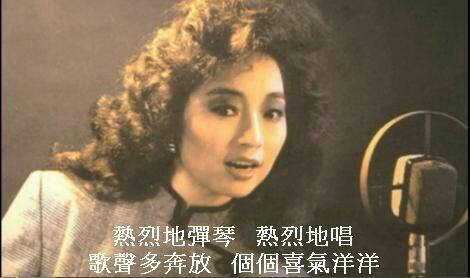
Paula Tsui:
Lyrics:
Play the piano enthusiastically.
Sing enthusiastically.
Singing with such abandon
Everybody with glee on their faces.
- (Oriental
Daily) This newspaper has verified through various channels that the
arrestees included the incoming Shue Yan University Student Union president
Joe Yeung. The other Shue Yan
University student arrested is Ng Kwai-lung, who is the incoming chief editor
of the Shue Yan University students' magazine.
- Yeung has long been suspected of being a police agent. So this is going to
blow a huge hole in the case about it being a false flag operation.
-
Walking the dog?
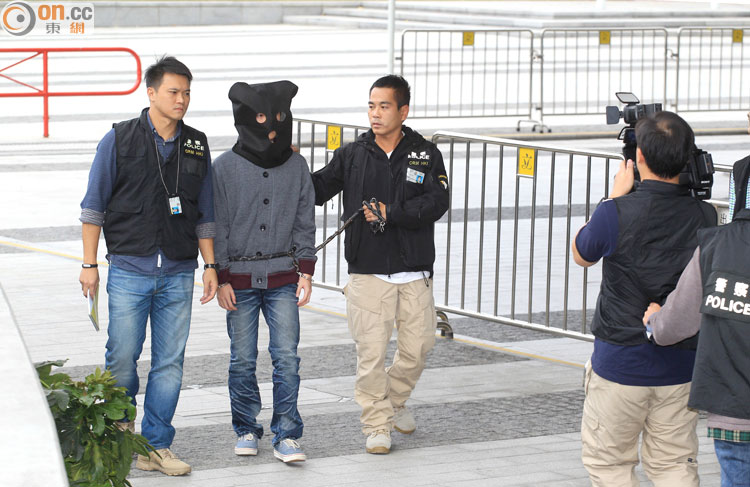
- After showing a screen
capture of the Legco video of two masked men, the police said that they have arrested
six men.
How do they leap from two to six? One or two of those in the screen capture must have ratted out the
rest. We must identify the rat fink before we offer any legal aid to the
others.
- (Oriental
Daily) After the police cautioned the five arrestees on their rights
under the law, four of them decided to maintain
their silence but one of them has confessed.
- I'll bet that the rat fink is the unemployed man. The two university
students and
the two tertiary students expect to get clean reports from the probation officer as
outstanding young men with promising careers ahead and an abundance of
contrition in their hearts, and therefore community
service might be appropriate. But the unemployed wastrel is screwed. Therefore
his only way out is to rat out the others and earn some brownie points.
- (Oriental
Daily) At around 3:14pm, the police took the unemployed man back to
the scene to reconstruct the crime. He went first to the demonstration area of
the Legislative Council, then proceeded to the path leading up to Tamar Park,
then he went back to circle around the demonstration area, then he entered a
restroom and stayed inside for about 10 minutes, then he proceeded to the site
of the trash bin, and finally he left at around 4pm. This description confirms
the speculation that the rat fink is the unemployed man.
- (Ming
Pao) The man brought by the Crime Investigation Department detectives
to the scene to reconstruct the crime was the 19-year-old Pui Ching Academy
student named Chow. At the time of the incident, Chow was the lookout, while
the others were responsible for setting off the fire alarm in the public
restroom and setting the fire. So his criminal liability is a lot less than
the others, which explains why he wants to become the rat fink. This
description confirms a different speculation.
- Regardless of the speculations, the rats are leaving the sinking ship ...
- Five were arrested and
one confessed. This means that the psychological preparations were inadequate. Prior to taking the action, they need to believe that
they are revolutionary warriors whereas the police are the underlings of the
tyrants. Therefore they should not confess under any circumstances. If they
were not prepared to do so, the action should not have been carried out.
- Also the action plan should have included the preparation of 'evidence' of
being elsewhere at the time of the crime (see, for example,
The Krays).
- How to save the six arrested warriors? Go out now to commit some more
similar acts, claim credit for the 12/9 action too and declare that the six
were wrongfully arrested.
- In this action, the
principals clearly wanted to oppose Copyright (Amendment) Bill 2014 as well as
the legislative system. Therefore they chose a destructive course of action.
But because they needed to minimize their chances of being apprehended, they
did it as quickly as possible with minimal attention on themselves. In the end, they
did not leave any information about their cause. They were hoping that the
outside world can fill in the missing propaganda. Unfortunately, this did not
happen. There were some "Good job!" comments, but also many more "False flag
operation!" and "No comment!" In the future, if you are going to take such an
action, you should integrate propagandizing (such as leaving pamphlets behind)
as part of the action plan.
-
Lawmaker Cyd Ho Sau-lan, of the opposition
Labour Party, said she was pleased with the police�s swift action but said:
�It is unfair for the police to label the suspects as members of localist
groups, as if all people from localist groups are bad guys.�
- How do the Hong Kong Police know that a Localist group was behind the
bombing? There is no definition for Localism. It is just a normal state of
mind.
- If Cyd Ho has her way,
it means that the police cannot even say that the suspects are male, as if all
men are bad guys.
- If Cyd Ho has her way,
it means that the police cannot even say that the suspects are not women, as
if all women are good gals.
- (Bastille
Post) According to a source, the organization behind the incident is
the Valiant Frontier.
This is from their
About Us (verbatim in English):
We are the Valiant Frontier, we have form our
organization on the July of 2014. We have notice the the tradition democracy
party has fail Hong Kong and all the great china ism has lead to a great lost
for the citizens of Hong Kong ,such as immigrants doesn�t need to wait for
seven years before they can have social welfare from Hong Kong.
We hope to break the old habit of fighting for
our own right and what we believe. There is no leader in our group as we think
everyone is a decision makers and have equal rights in the organization. The
idea of Valiant Frontier is to change old thoughts and stimulate localization
. The word bravery has always link to violence and unnecessary fights against
the government by the media.
The fights between ourselves will make our
government with no ethics and no moral go even further with its absolution
In this critical moment our city has fallen, we
should not just wait and imagine that everything will be find . We should
change the history by blood and sweat we could reach this by destorying
communist bull shit.
So do you think that Valiant Frontier is a
Localist organization? If it talks like a duck and walks like a duck, then it
is a duck.
- From the Valiant Frontier Facebook is a
composed photo of a man wearing a V-mask throwing a petrol bomb.
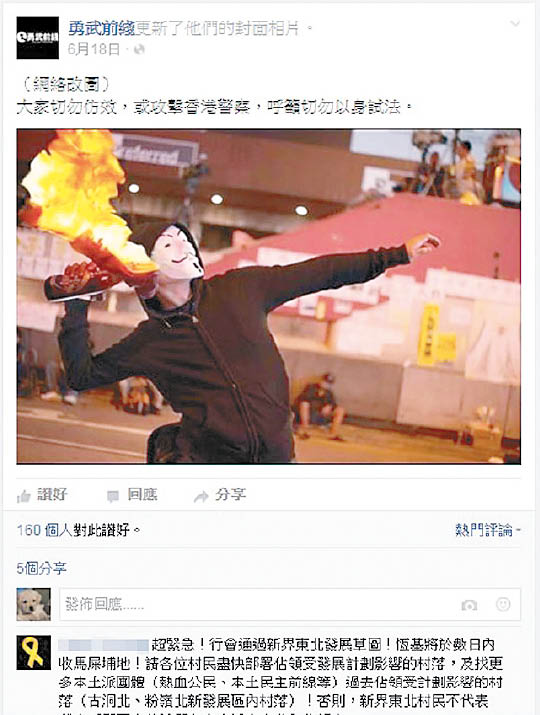
- Here is the "No Comment" notice from the very
valiant Valiant Frontier:
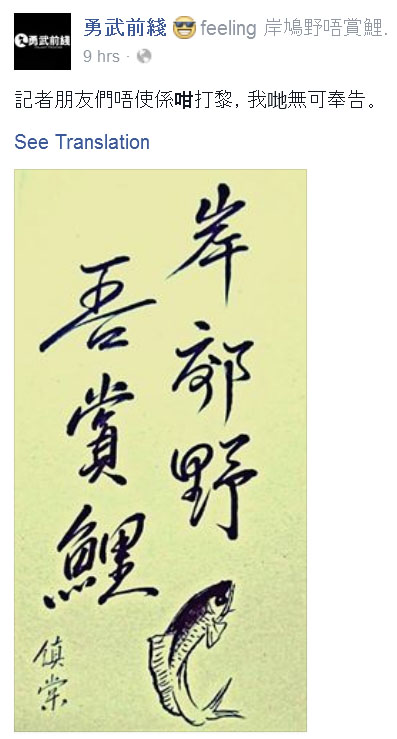
- P.S. This photo has now been removed by Valiant Frontier as a result of a
complaint from the copyright holder.
- (Ming
Pao) Valiant Frontier responded via Facebook to Ming Pao's inquiry:
"We have no comments on the case at this time. But we are calm at heart
because we know that the people will settle accounts with unjust authorities.
Life is valuable, but freedom is even more valuable."
- Incoherent rubbish!
- If you can't even understand this much, then you must not be a university
student.
- Your definition of settling the accounts is to blow up a trash bin?
- What they're saying is that they will settle the accounts in full by blowing
up all the trash bins in Hong Kong, at which point the Chinese Communists will
surrender.
- The localist
revolutionaries need to re-assess their escape plans because something has clearly
gone wrong here. It may be that when they escaped to Admiralty, one of them
used his Octopus card to enter the subway. While the Octopus card has no
identification, there is a usage trail. If the card was used to buy a pack of
cigarettes at a 7-11, the face of the user will be recorded by the store
surveillance camera. If the card was used regularly to purchase soda from a
machine in the Department of Chemistry, University of XXX, then the photo of
the face of the individual can be shown around there to locate the individual.
The individual is taken back to his place of residence where the clothing is
found along with some localist propaganda materials. That's about what the case
would be like.
- (Ming
Pao) The police reviewed about 2,000 surveillance videos and checked
the Octopus card usage data for transportation services in the vicinity and
locked in on a number of targets. They made the arrests after they obtained
enough evidence.
- The rubbish bin downstairs from my home was
vandalized a month ago, but the police still don't know who did it. However,
the Police are willing to watch 2,000 hours of surveillance video to catch
these kids. I don't think that this is fair.
- Eh, when the firebomb went off outside the Legislative Council building, do
you think that the Police could determine immediately that the men in black were
just kids
having fun?
- The other possible path
in which the case was broken open is the role of TMHK. Shortly after the
incident, they uploaded a close-up video of the explosion onto their website
as exclusive news. They must be linked somehow to whoever did it.
- (Wen
Wei Po) The surveillance cameras at the Legislative Council captured
the act, but the trail was broken after the perpetrators fled into Tamar Park because there
are no surveillance cameras inside the park. Therefore the Crime
Investigation Department could not make any further progress. The case was
turned over to the Cyber Security and Technology Crime Bureau, which threw its
manpower plus the supercomputer at the Wanchai Police Headquarters to compile
and collate a massive amount of information until the suspects were
identified.
- What good will this go?
For setting fire to a Sheung Shui warehouse, a protestor was sentenced to 100
hours of community service. Penalties are meted out based upon precedents.
Nothing is going to happen to these six except the usual 100 hours of
community service.
- But this case is a pre-meditated and organized conspiracy to commit arson with division of
labor. This is in a different class altogether. The maximum sentence is life
in prison.
- No, Apple Daily is reporting that the arrestees told the police that their
motives were "貪玩,搞事想出位"
(=want to have some fun, do something to get attention). Kids will always be
kids. They will only have to post a $500 good behavior bond.
- Even the four-eyed guy from Keyboard Frontier said that it was just a prank.
- Also because they set off the fire alarm beforehand, this is MENS REA
according to Woolmington vs DPP (1935) in that they had intended to commit the
crime and they are not mentally disabled.
- Wan Chin, December 21
2015

Wan Chin: For the sake of the elections next year, I bet that pan-democrats
won't disavow and denounce any violence. In Reclaim Yuen Long, the
pan-democrats held a high-profile press conference to denounce the violence
and disavow any association. They won't dare to do so this time with the
rubbish bin explosion. Why? Because the Legco elections will be held next
year, and Localism is a box-office guarantee. If the pan-democrats forsake
Localism, they will lose the elections.
- Oriental Daily headline on December 22,
2015.
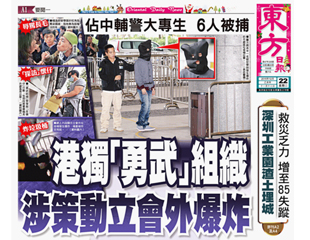
Occupy Central auxiliary police, university/tertiary students, six
persons arrested
Hong Kong Independence "Valiant" organizations
Suspected of planning explosion outside the Legislative Council
- Ray Wong: I don't want to say anything like
I want to pay respect to the martyrs, etc. Saying that is no practical help.
I want to reflect on why these students and young people need to bear such
huge responsibilities in this society. They only want to stop a bad piece of
legislation from being passed. They don't want to get on camera, they don't
want to wear any halo, they don't want to be in any group photo. Why do they
have to bear such huge responsibilities? Why is setting fire to a rubbish
bin as serious as killing someone? Did they hurt anyone? Did they commit any
atrocities that offend the Way of the Heavens? They only wanted to use
action to express their dissatisfaction with the authorities.
- Statement from REVO, the incoming Shue Yan
University student union cabinet: "Our cabinet emphasizes that we respect
and support our incoming president Joe Yeung and other resisters. In the
future, we will also support various kinds of resistance movements, and we
will stand shoulder to shoulder with the resisters to fight against the
various unfair and unjust matters in society."
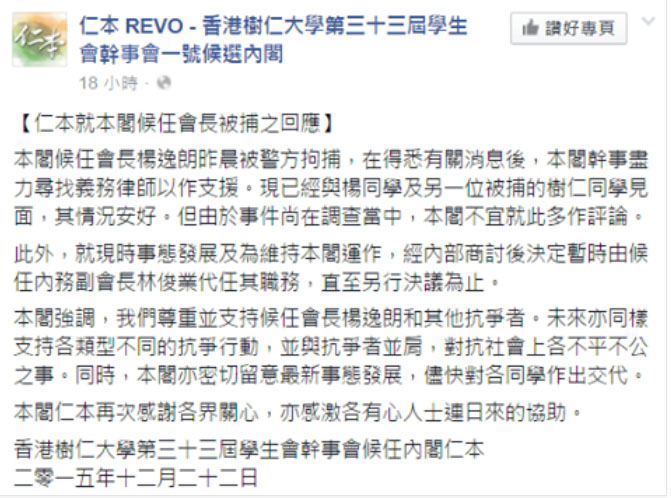
- The shorter REVO statement: "We've set off bombs and we will continue to
set off more bombs. If I were you, I would be very fearful."
- (Wen
Wei Po) According to information, the police have reviewed the
surveillance videos and found that the two masked men had set off the fire
alarm inside the public restroom in order to draw attention and
then they went back to the demonstration area to set off the explosion.
- (Wen
Wei Po) About 20 minutes after the explosion, Scholarism spokesperson
Joshua Wong arrived outside the Legco building. When he saw the huge police
presence at the scene, he turned around to head for the Admiralty MTR with his
friend.
- On Wednesday, the Legislative Council session
was adjourned due to a lack of quorum. Now if the Copyright Bill is regarded
as the battle of the century, then it is rare that one side was rearing to go
with these frequent headcount requests, but the other side does not even
bother to show up in the needed numbers. Isn't that strange?
So it is no wonder that
the conspiracy theorists are having a field day. They accused the
pro-establishment camp of deliberately letting the adjournment happen to
alienate the moderate pan-democratic supporters. But is it that simple?
Federation of Trade
Unions vice-president Wong Kwok-hing has come out to say that the
pan-democrats are unafraid of filibustering because they know that the bill
will pass because the pro-establishment camp has more votes than the
pan-democrats. Under these circumstances, they can filibuster for as long as
possible but in the end the bill will pass. That will please the US Consulate,
the American Chamber of Commerce and other foreign parties interested in
protecting their intellectual properties. It will also displease the Hong Kong
Internet users and put the onus on the pro-establishment camp.
At this time, the
directly elected pro-establishment legislators are saying that they will
abstain. By their abstention, they will not face the wrath of voters in the
2016 direct elections. The pro-establishment legislators in the functional
constituencies will vote for the bill, but they count for less than half the
legislative council. If the bill doesn't pass, it will be because the
pan-democrats failed to support it. The pan-democrats won't know how to
explain to the international community.
Wong Kwok-hing said that
the existing regulations already protect intellectual property rights. The
proposed amendments only clarifies certain gray areas. If the pan-democrats
don't want them, the pro-establishment camp won't insist and fight an
unwinnabe war.
Instead now, the pro-establishment camp has set the
pan-democrats up to lose both the moderate pan-democratic supporters because of
the filibustering and the foreign governments and businesses because of they
voted/abstained against the bill.
- (Bastille
Post) March 30, 2016. A court appearance today for some
extra-terrestrial beings ...
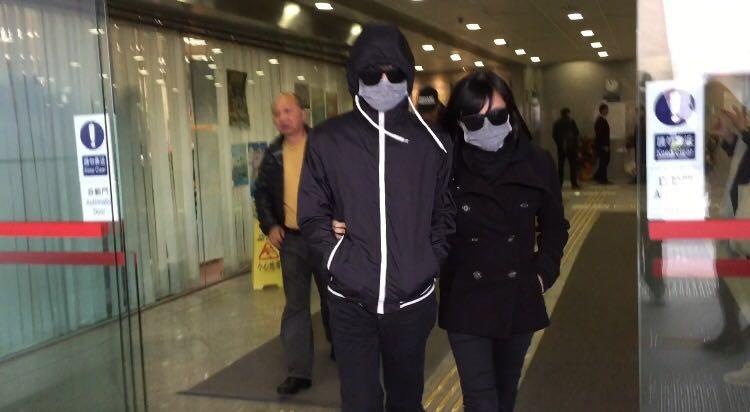
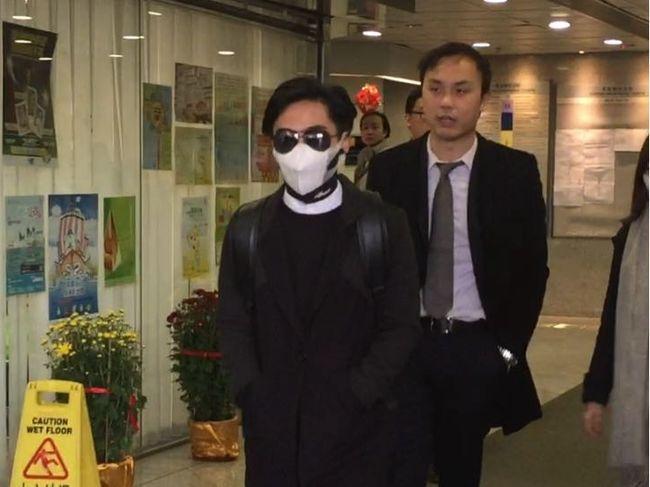
- (Oriental
Daily) January 5, 2017
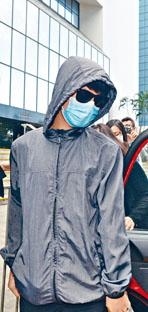
Of the five persons arrested, charges were not
filed against three of them. The defendant Ip Cheuk-yin, an unemployed man,
pleaded guilty yesterday in court.
According to the police, there were about 40
demonstrators at the Legco demonstration zone at around 830pm. Suddenly a
trash bin caught fire. Several minutes later, the trash bin exploded with
the lide rising 20 to 30 cm high. An iron barricade was toppled and the fire
alarm in the public restroom went off. The security guards called the
police.
The police found a blowtorch and a metal gas
canister inside the trash bin, together with a copy of The Wall Street
Journal and a plastic bottle of disinfecting alcohol. According to the
surveillance video, at masked man A and the defendant Ip Cheuk-yin
approached the trash bin at 831pm. A placed the blowtorch-like object into
the trash bin. On December 21, the police arrested Ip Cheuk-yin. Under
caution, Ip said that he did it for fun along with a guy called Ah Chak.
Ip said that he and Ah Chak belong to the same Facebook group. On the day
of the incident, Ip met with Ah Chak and others to discuss the Copyright
(Amendment) Bill. Although the Legco session was over, they decided to cause
a disturbance in order to show their objection to the proposed bill. So Ip
and Ah Chak were assigned to set off a fire. Yip played the role of the
lookout.
The second defendant Joe Yeung has pleaded not
guilty. The defense said that the surveillance video showed two unknown
males A and B approaching the trash bin at 8:26pm. A placed a certain object
inside the trash bin. Yeung's friend Lam Kwok-lun testified that he had
purchased the disinfecting alcohol and The Wall Street Journal for Yeung,
and handed them over to Yeung. Lam identified male A as Joe Yeung and male B
as Iip Cheuk-yin.
According to Ip Cheuk-yin's lawyer, Ip is
due to start class at the Hong Kong Culinary Institute tomorrow. Therefore
Ip applied and obtained bail.
- (SCMP)
January 5, 2017.
An unemployed
man has admitted his involvement in an incident in which a handmade
explosive device blew up inside a rubbish bin outside the Legislative
Council in 2015.
Ip Cheuk-yin
admitted in the District Court on Thursday that he was the lookout when his
accomplice ignited a gas canister outside the Legco complex on December 9,
2015 before shoving it into a rubbish bin.
The canister
exploded, damaging the bin worth HK$1,250 and sending its lid about 30cm
into the air. It also caused a nearby public toilet�s fire alarm to go off,
the court heard.
The offence took
place just hours after Legco adjourned its debate on a controversial
copyright bill. Ip was involved in a protest with others he contacted over
the internet during the day.
Ip, 20, pleaded
guilty to one count of conspiracy to commit arson. His co-defendant Yeung
Yat-long, 23, denied the same charge.
Prosecutor
Bernard Chung Wai-keung said according to Legco video footage, two men with
their faces covered approached the bin at about 8.30pm. �One of them,
holding what appeared to be a torch, lit the device and threw it into the
bin,� he said. Meanwhile, Ip stood by to keep an eye on the area, the court
heard. The device exploded three minutes after he and his accomplice left.
Ip was arrested on December 21, 2015 at his
home in Jordan, where he admitted under caution that he set fire to the
rubbish bin for fun with a man called �Ah Chak�. Ip also admitted in a subsequent police
interview that he first met Ah Chak on Facebook and later bonded over
discussions on protest methods.
On the day of the protest, the group he met
told him and Ah Chak to set fire to the bin. They were protesting against
the Copyright (Amendment) Bill 2014, which was dubbed by critics fearful of
its effect on free speech as �Internet Article 23� in reference to
contentious national security provisions in the Basic Law.
Forensic scientist Dr Billy Leung Kar-on
concluded that the explosion was caused by a fire that led to increasing
pressure inside the canister. Leung said isopropyl alcohol found inside the
bin made the fire worse. The court also heard that a copy of The Wall Street
Journal was found inside the rubbish bin.
In his opening remarks in Yeung�s trial,
Chung alleged that the defendant asked a friend he was meeting that night to
buy him isopropyl alcohol and some paper.
After Yeung was given the newspaper and the
alcohol, the prosecutor said the defendant put his hand inside the rubbish
bin and moved it around for five seconds. He later left to meet his friends
for dinner.
Deputy Judge Lily Wong Sze-lai adjourned
the case to January 12 to hear mitigation for Ip. Yeung�s trial continues on
Friday.
- (Oriental
Daily) January 9, 2017.
Today Lam Kwok-lun testified in court. He
said that he got acquainted with the defendant Joe Yeung Yat-long in early
2015. On December 9, 2015, Lam was dining with friends in Admiralty. Yeung
called him and asked me if he has any waste paper (such as A4 paper) and
isopropyl alcohol without explaining the purpose. Lam bought the isopropyl
alcohol and a copy of The Wall Street Journal at a convenience store in
Admiralty. Lam explained while there were other newspapers on sale, the
quality of The Wall Street Journal Paper was cruder and "people don't like
to read it," so he spent more than 20 dollars to purchase it. Lam also
bought some bandages and bandaids on his own initiative, because people may
get hurt during conflicts with the police.
Lam proceeded to the Legislative Council
and handed over the isopropyl alcohol and newspaper to Yeung in the public
restroom. They left separately. Later they met up again outside the public
restroom. At the time, Yeung knelt next to a rubbish bin and stuck his hand
inside the opening. At this time, Lam heard the sound of a metal barricade
falling on the ground and the fire alarm bell. Lam left the Legislative
Council area.
At around 11pm, Lam communicated with Yeung
by messaging. Yeung asked Lam how he purchased the isopropyl alcohol and
newspaper. Lam told Yeung that it was by Octopus card. Yeung said: "You may
be in danger." Yeung sent the relevant news video link to Lam. After Lam saw
the news videos, he told Yeung that he had no idea what the purpose of the
purchases was. Yeung apologized for not having thought things through
beforehand. Yeung said that Lam should not have used his personal Octopus
card.
Lam said that the isopropyl alcohol and
newspaper in the case were purchased by him, as proven by the surveillance
videos at the scene and the convenience store. He could not sleep that night
because he was worried that he might have to go to jail. Lam said that Yeung
did not admit any role in the arson, and Lam cannot prove that he was merely
being used. However, Lam was disappointed and "somewhat angry" at Yeung for
asking Lam to make the purchases.
- (Bastille
Post) January 9, 2017.
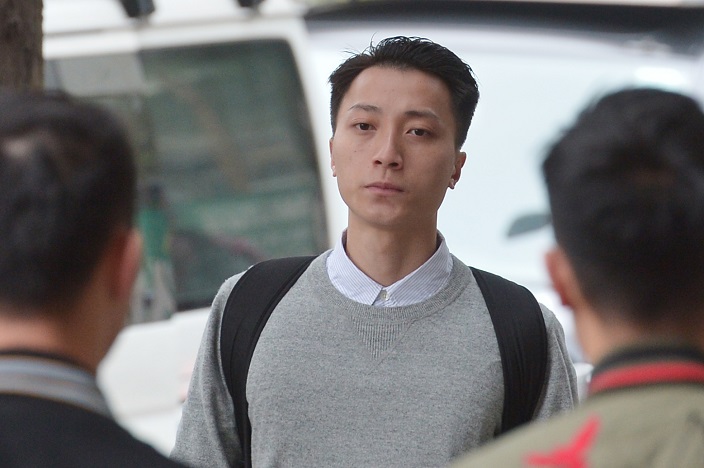
Witness Lam Kwok-lun
28-year-old interior decorator Lam Kwok-lun
said that he purchased isopropyl alcohol at Watsons with cash and a copy of
The Wall Street Journal with his personal Octopus card in Admiralty at the
request of Yeung Yat-long. Yeung did not explain what the items were going
to be used for. The Lam said that Yeung asked him why he wasn't wearing a
surgical mask and handed one over to him. Lam put it on because he was too
embarrassed to refuse.
Lam said that he was chatting with other
people and saw Yeung stoop down next to the rubbish bin by the metal
barricades and stuck his hand to do something for a few seconds. Lam could
not see what Yeung did. Shortly afterwards, Lam left the scene.
At around 11pm, Lam communicated with Yeung
by Telegram. When Yeung learned that Lam had purchased the newspaper with
his personal Octopus card, he said that "there is some danger" and told Lam
to take steps not to use his Octopus card anymore and to wear a disguise
when going outside. Yeung forwarded a news video link to Lam. It was only
then that Lam found out about the arson. Lam told Yeung that he knew nothing
about the arson. Yeung apologized to Lam.
Lam said that he knew that he would be
swept in, because a number of surveillance cameras caught him in the act of
purchasing those items. All the evidence points to him being the arsonist,
and he could end up in jail. Therefore Lam was angry. He did not whether
Yeung was using him, so he was very disappointed with Yeung. Eventually, Lam
cut off all communications with Yeung.
- (Oriental
Daily) January 11, 2017.
The defendant Yeung Yat-long chose not to
testify on his own behalf. Instead, the defense summoned two character
witnesses.
The first witness is the Shue Yan
University Christian fellowship leader named Lam. Lam said that Yeung is a
righteous and principled young man. On September 28, 2014 when the police
fired tear gas, Lam heard that the police was going to fire live rounds and
so he called Yeung to tell him to leave. Lam said that, as a Christian, he
should be standing in the front line and let the police bullets land on
Christians who are willing to sacrifice themselves. Lam said that he was
very moved by Yeung's statement.
The prosecution asked Lam whether he knew
that Yeung resigned from the Auxiliary Police in 2014. Lam said that Yeung
thought that being in the Auxiliary Police was not the best away to realize
his ideals during the Occupy Central period and therefore resigned.
The second witness was Yeung's Secondary
School teacher named Cheng. When asked why Yeung resigned from the Auxiliary
Police, Cheng said that he understood that there were Internet rumors that
Yeung was a police mole and therefore he resigned.
Today the magistrate ruled that there is
circumstantial evidence that point to Yeung having committed arson.
- (Oriental
Daily) March 2, 2017.
Today in district court, the magistrate
said that the claim that it was a case of misidentification was not
supported. The defendant Joe Yeung and the witness Lam Kwok-lun had met many
times before, and Lam can recognize Yeung's physique and voice. Furthermore,
Lam purchased the materials that he was told by phone and brought them to a
man at the Legislative Council. On the surveillance video, Lam identified
the two men as Yeung and himself. The magistrate does not think that there
is a coincidence of another man who looks like Yeung, sounds like Yeung and
also knows the details of the delivered materials. The magistrate also
believed that there is an agreement to conspire to commit arson, because the
incendiary materials were not accidentally placed in the rubbish bin.
Therefore, the magistrate found Joe Yeung guilty of conspiracy to commit
arson.
- (Oriental
Daily) March 2, 2017.
Defense counsel for Ip Cheuk-yin said that
Ip was a computer-obsessed user who got worried about Internet freedom of
speech and derivative art would be suppressed by the Copyright (Amendment)
Bill and therefore gathered some friends to go to the Legislative Council to
support the demonstrators. At the time, the area was pretty peaceful. Soon
someone was distributing videos of violent overseas demonstrations, and
people got excited. Someone said that the government don't listen to their
many demands, so it is time to do something to get the attention of the
citizens. A man in black clothes began to allocate assignments. Ip and his
fellow student were assigned to set trash on tire. Ip was the lookout to
make sure that nobody got hurt. In fact, nobody was nearby. At this point,
the magistrate interjected to say that "It was sheer luck."
Defense counsel said that Ip was young and
ignorant. Today he realizes his mistake and is rueful. He realized that he
has to accept responsibility and that was why he cooperated with the police.
Ip is willing to pay for the damaged rubbish bin.
- (Bastille
Post) March 22, 2017.
The lawyer for the first defendant Ip Cheuk-yin
said that the defendant has never lost his freedom before. Before sentence
was announced today, Ip was remanded in custody and spent his 21st birthday
in prison. Although his family is very supportive, he is very remorseful and
uses tears to wipe his face every day. Ip is very worried about his future.
He had originally planned to attend university in Taiwan. His conviction
forced him to give up that chance and enrolled in a culinary school instead.
A jail sentence would cost him even that chance.
- (Oriental
Daily) March 22, 2017.
The judge said that this was a serious case
in which the two defendants deliberately caused damage and explosion.
Fortunately, the fire did not spread. That nobody was injured was due to
sheer luck. The judge condemned the two defendants for being selfish, brash,
stupid and reckless. Although the plot was not planned over many years, the
two had discussed it beforehand.
The judge emphasized that no matter how
unhappy you can be about a piece of legislation or the government and no
matter how noble their political ideas are or no matter how you feel about
an issue, you must never use unlawful and violent methods to express your
ideas. If you did so, you will be prosecuted under the law. Nobody is above
the law. Therefore the sentence is meant to have a deterrent effect to issue
a warning against using unlawful or dangerous methods to express
dissatisfaction.
The judge sentenced Joe Yeung to two years
in prison, and Ip Cheuk-yin to a training centre where he would be subjected
to rigorous discipline.
- (SCMP)
March 22, 2017.
A former Hong Kong auxiliary policeman, who quit
the force following the
2014 Occupy protests, was jailed for two years on Tuesday for setting fire
to a bin outside the city�s Legislative Council complex.
Joe Yeung Yat-long, who was also a former president of the
Shue Yan University�s student union, was earlier found guilty at the
District Court of one count of conspiracy to commit arson. He was involved
in setting fire to the rubbish bin on December 9, 2015, while legislators
debated the controversial Copyright (Amendment) Bill 2014, which some
worried would restrict freedom of speech.
Handing down what she stressed was a deterrent sentence,
deputy judge Lily Wong Sze-lai said the offence was serious in that the
premeditated plot could have inflicted injuries to people in the vicinity
and more serious economic loss. It was lucky that no one was injured, she
said.
�No matter how noble one�s cause is, one should not resort
to illegal means to express his or her demands,� she said, adding she
needed to stop copycat behaviour. �No one is above the law.�
His co-defendant, Ip Cheuk-yin, 21, who admitted acting as
lookout and pleaded guilty to the same charge early this year, was sent to
a training centre to receive �rigorous� training.
The judge slammed the duo for using not just matches or
lighters, but alcohol and a blowtorch in the arson in an area where there
were members of the public and security officers.
- (The
Stand) August 16, 2017. Joe Yeung's application to post bail
pending appeal was rejected today on the grounds that he had no legal
basis for his appeal and that his chance of success is nil.
- (Oriental
Daily) December 6, 2017.
Today Joe Yeung applied for an appeal for his verdict and
sentence. With respect to the verdict, Yeung's lawyer argued that the
witness Lam misidentified Yeung as the person who asked him to purchase
alcohol, etc when it was in fact someone else.
The judge thought that Lam had known Yeung for more than
one year already and Yeung is not alleging that Lam misidentified him with
malice, then this assertion is like a Tale of the Arabian Nights. So if
Yeung insists on this line of argument, then the judge can only say: "Say
no more." The lawyer persisted with this argument until the judge said for
the sixth time: "Say no more."
The judge said that it was undisputed that Yeung and Lam
have been acquainted for about one year with frequent contacts. It is
unpersuasive to argue that Lam misidentified Yeung on that day. The
telephone record showed that the two had spoken multiple times on that
day. It was also undisputed that Lam is a reliable witness. So no
reasonable person can think that this was a case of misidentification.
As for the sentence, the defense thought that two years in
jail was excessive. The judge pointed out that the evidence showed that
Yeung participated in an act of arson for which the sentence was not
excessive.
In the end, the Court of Appeal refused to grant an appeal
on the verdict/sentence to Joe Yeung, who will have to continue to serve
his time.
(EJ
Insight) December 21, 2015.
Hong
Kong used to be full of vibrant new ideas and energetic talent that helped
transform it into a global metropolis.
But in the 18 years since the handover to
China, it has been losing that competitive spirit. In its place is a growing
social divide and a generational conflict that is sapping Hong Kong�s
strength.
The older generation is clinging to the
past, basking in the glory days and refusing to adapt to political and
technological change that is the reality of Hong Kong�s present and future.
This is causing a lot of frustration in many young Hong Kong people who
don�t feel their elders are standing behind them or with them.
A
recent example is artist Nat Chan, who built his success in entertainment,
horse racing and business. Young people feel distant to him which makes him
far from a role model. Perhaps, it�s Chan�s politics or philosophy which
borders on arrogance that�s alienating them.
Nat
(literally smart in Cantonese) does not think young people are smart enough
to know when to put the democracy movement behind them. A smart person to
him is someone with his achievements.
Chan
made sure these were highlighted on a television program on Saturday. He
quickly contrasted himself with student leader Joshua Wong, a key player in
last year�s democracy protests. �If you can get 12 As in a public
examination� did Joshua Wong achieve that?� Chan said. �He failed to make it
to the top eight universities in Hong Kong. How can I call him smart?�
Chan
said students who took part in the movement had poor class performance and
that the internet generation doesn�t like others to be successful and looks
down on the poor. He said young people like to �stir things up� and don�t
realize that Hong Kong is about making money.
Chan�s
politics have no place for pan-democrats who are trying to stop a copyright
amendment bill or critics of Chief Executive Leung Chun-ying.
In Chan�s mind, Leung can do no wrong and his
unpopular government is doing a great job.
Leung�s critics don�t support him because �they don�t have
the right to elect him, right? But
the fact is that, Hong Kong is not your country, it�s China. I think China
should take over Hong Kong and put it under its full control now.�
Most
Hong Kong people who know Chan think he was born arrogant. But although he
likes to trumpet his business success, this is the first time he is weighing
in on politics in so many words.
Many
in the older generation agree with him. For instance, they think Joshua Wong
is an academic disaster with a destabilizing effect on society. Also, they
think young people are moving Hong Kong backward, eschewing the chance to be
financially successful in favor of their advocacies. But unlike their
elders, young people no longer consider money as the most important measure
of success.
This
is a basic contention in the generational debate � young people are
challenging their elders� long-held ideal of a successful and prosperous
Hong Kong. The old formula that monetizes everything justifies the flood of
Chinese money to Hong Kong, some of it to make a quick a profit and some to
line the pockets of money launderers. But in the present political
structure, which is dominated by Beijing loyalists and business tycoons,
young people are having a tough time getting heard. Yet, they have the most
at stake in Hong Kong going forward.
(RTHK
@YouTube)
The program began with asking
various citizens about what is a Hong Kong pig. Under the standard Yellow Ribbon
nomenclature, the population of Hong Kong is divided into these hierarchical
strata:
"Hong Kong pig" -> Pay attention to
politics -> Demonstration marcher -> Assembly participant -> Stay and
defend -> Resistance -> Valiant resistance
Beginning at 1:23
Daisy Wong (D): So you really can't buy
a Hong Kong pig in the market.
Mak Ka-wai (M): Daisy, we were just
kidding. Our friends in the market are not too sure about the hot Internet term
"Hong Kong pig." What about the television audience? So today we have invited
the formidable Nat Chan who has just picked up a big television industry award.
Natalis
Chan (C) How are you, everybody?
(M) How are you? Recently you have been
hot on the Internet. There was a TVB program about Internet celebrities who came
to challenge you.
(D) Yes, I watched it too.
(C) Is that so?
(D) You spoke with Internet celebrities
such as Szeto Gaptai. After your conversations, do you think that these Internet
celebrities are low quality?
(C) No. I don't think that their
quality is very poor. It is about the ability of each individual. And ...
(D) That is to say, his ability is
poor.
(C) No, the ability is not poor. They
haven't done enough preparations. I really want young people to take over or be
innovative. I have been doing this for such a long time.
(M) It depends on whether you
understand the thinking of the younger generation, or what people on the
Internet are thinking. For example, you are so awesome. Do you know what a "Hong
Kong pig" is?
(C) I really don't look for information
on the Internet. You can ask me anything and I won't know. I only visit the
website of the Jockey Club and the finance pages. My guess is that they must be
referring to we Hongkongers being as stupid as pigs.
(M) So this is how you understand by
"Hong Kong pigs." So what is a Hong Kong pig? We have asked some Hongkongers.
Let's look at it.
(segment of interviews with Hongkongers
about "Hong Kong pig")
(M) Do you think that you are a Hong
Kong pig?
(C) Of course I am not. I am a Hong
Kong Superman, not a Hong Kong pig.
(M) I was asking about the
characteristics of the Hong Kong pig. People believe that these are people who
are focused on earning a living, who detest politics, who don't care about what
is happening in society.
(C) Most Hongkongers would give this
impression.
(M) Let me give you a test about what
kind of animal you are. Are you a Hong Kong pig or something else. This online
test has been uploaded onto our Facebook. The audience can try it too.
First question: I want to know which
real-life persons these animals stand for? The first one: Lobster.
(C) You mean the wife of the Chief
Executive?
(D) Do you think that there is any
similarity.
(C) If you want to debase that person,
you will think so. If I don't want to debase that person, then I wouldn't think
that there is any similarity whatsoever.
(M) Next question: King of Rats.
(C) King of Rats. She studied law. She
was just offering advice on how to eradicate rats in her district. So this is
nothing.
(M) Next comes the questions on people.
向西村上春樹 (Internet
writer).
(C) If you have read the book, you
would know what he wanted to say. Not bad. Let a hundred flowers bloom. I don't
feel anything one way or the other.
(M) Let Paula Tsui enter. Do you know
what that means?
(C) I don't know.
(M) But Internet users are always using
this phrase.
(C) This are very low-intelligence
words. Very ordinary. You can see it frequently in newspapers. There is no need
to know or recognize.
(D) Do you think the popular Internet
vocabulary is childish?
(C) Who are the Internet users? These
are people who hate the rich and despise the poor. They don't want you to be
rich, they don't want you to do well. But when they see someone else who is
worse off, they have only contempt. A group of such people ... not everyone of
them ... most of them are like that. They want to release their emotions on the
Internet ...
(D) What kind of problems do you think
young people nowadays have?
(C) The problem ... hmmm! I think that
their minds are messed up with too much studying.
(M) Look at the young people ...
(C) I am evaluating them on
performance.
(M) So what count as being exceptional?
(C) You go and get 12 A's (in the DSE).
Do you think Joshua Wong can? Right? He can't even get into any of the eight
universities. So how can I consider you to be awesome?
(D) Getting high marks in an exam is
awesome?
(C) No. Get high marks in an exam as
the first step. At a minimum, I am not out there to cause trouble. In our era,
nobody would politicize matters. We don't resist. When the British government
anoints a governor, the people won't be able to resist.
(M) Is it because we live in different
eras?
(C) Yes.
(M) People have different needs.
(C) The eras are different. You can say
that.
(M) People have to recognize that you
are still using the old ruler to measure.
(C) I haven't used the old ruler. It is
just that you feel that I am using the old standards to evaluate.
(M) Certain things that were acceptable
before are no longer acceptable now.
(C) No, no. It is not that it is
unacceptable. You need to learn now.
(M) But you think that those who are
critical or take action are trouble-makers, or ...
(C) No. You have to discuss one
incident at a time. You can make a blanket statement.
(segment of video by Szeto Gaptai).
(M) Hongkongers don't care as long as
it doesn't concern them.. Is that so?
(C) They used to be like that. But I
don't think Hongkongers are like that now. Most Hongkongers are not like that.
(M) When people do care, then you would
criticize them for ... making trouble?
(C) Actually, you should get involved.
Not to cause trouble. But to get involved and make improvements. Why do I
support Junius Ho? I want someone like that to improve Hong Kong. You shouldn't
elect someone like Chan Chi-chuen or Tam Tak-chi, because they are useless.
(M) Those people were elected by the
voters.
(C) It is likely that they were elected
by the Hong Kong pigs.
(M) So you are saying that electing
troublemakers ...
(C) If you want me to say this, I will
say this to you.
(M) Next. More difficult. Yao Ge-ping.
(C) That is not difficult. Why do you
think that it is more difficult? How shall I say? I don't know too much about
this topic. I know what they are saying, but I don't think it has anything to do
with me. That is why I don't pay too much attention. What do you think it refers
to?
(D) Who is Yao Ge-ping?
(C) A writer?
(M) He is a member of the Basic Law
Committee. A Beijing politician.
(C) Yes. I don't go near political
matters.
(M) You campaigned for Junius Ho.
(C) I helped him because I thought that
this person spoke reasonably and sensibly. I even accept what he said at Lingnan
University.
(M) That is, to punish the students.
(C) Not to punish. It is to tell them
that they are wrong.
(M) That is, it is right even to
disband the Student Union?
(C) I don't necessary approve the
action. Let me tell you about one case. My friend is a Hong Kong University
student. During Occupy Central, 80% of the class went. They texted him and
wanted to know why he didn't go. Afterwards he was boycotted. Afterwards he was
boycotted. I think this is unfair. Why do you want to impose your ideas on me?
(M) Isn't this what Junius Ho is doing?
He imposed his ideas on the students.
(C) No. I feel that his ideas are
correct. I stand over here. Actually, I have not imposed anything on anyone. I
am relatively neutral.
(M) Next topic: Lifelong College.
(C) Hmm. Not sure.
(D) That's recent news.
(C) Oh, you mean the news about Sisley
Choi.
(M) The certicates and everything else
can be had without attending any class.
(C) All sorts of extraordinary things
happen in this world. As long as there is a way to make money, someone will come
up with the idea. People even print counterfeit money.
(M) If you can make money, then there
is a market.
(C) There is a market. The seller is
stupid, the buyer is stupid. That's all. I don't think this is any big deal.
[end of first segment]
(Headline
Daily) December 24, 2015. By Chris Wat Wing-yin.
Nat Chan went on the RTHK programme <I
am whatever whatever whatever> and was set up by the Yellow Ribbon hosts, but he
managed to win by a technical knockout.
Because Nat Chan said bluntly: "Joshua
Wong could not get into any of the eight universities, so how awesome can he be?
If he is capable, he should get 12 A's (in the DSE)!" Joshua Wong promptly
counter-attacked via Facebook to heap scorn upon Chan. Wong said that Chan went
bankrupt at age 25, the Winners became popular after Chan withdrew, Wong got on
the cover of TIME magazine whereas Chan got on the cover of TVB magazine, Wong
went to give a talk at UCLA whereas Chan was still hosting Miss Hong Kong
wearing only underpants at a mature age ...
No matter what, it is an unpleasant
sight to see a 19-year-old harping on about a 65-year-old man.
Joshua Wong was hopping mad precisely
because Nat Chan got on his biggest problem. So he invoked the names of UCLA and
LSE to cover up his own flaws.
Based upon the cover of TIME magazine,
Wong thinks that he is more successful than Chan. He also listed the ways in
which Chan is a failure. It is pathetic that a student movement leader should be
so short-sighted and narrow-minded.
As a 19-year-old, Wong is still at a
stage in life where he has no idea why and how Chan is successful. It is true
that Chan went bankrupt once, that he failed, but he came back and maintained
his position in the entertainment industry and went on to succeed in business.
Someone who has withstood the test of time is the one who is the success story.
So what happens to the many boy
geniuses. Many of them were brilliant and talented when they first emerged, but
where are they now after 20 years, 30 years? Most of them became ordinary
people, or even less than ordinary.
Today Wong is feeling good about
himself because he once stood on the stage and got attention. Many Internet
users pressed LIKE on his Facebook. In 1989, when Wong wasn't born yet, there
were three famous student leaders in Beijing: Wang Dan, Chai Ling and Wu'er Kaxi.
They were better known than Wong, they had much bigger followings. But what
happened 26 years later today? Where have they gone? Young people should be more
humble, because time will be the best witness for your success. Do not believe
that you are awesome because of what is happening now. It is not up to a
magazine to make that proclamation. Don't forget that in 1938, Adolf Hitler was
the TIME magazine Man of the Year.
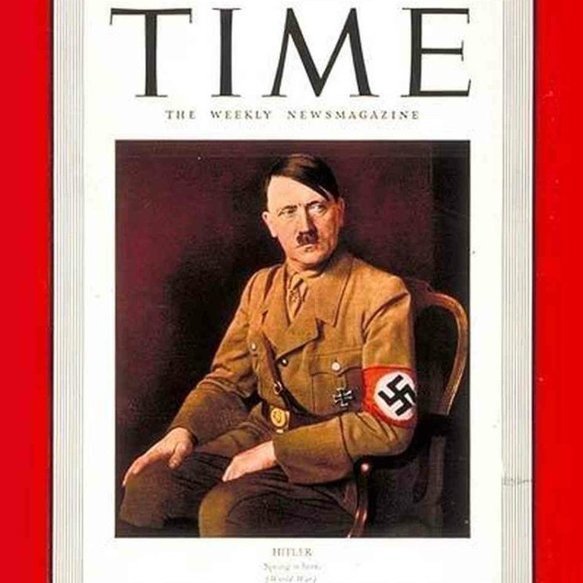
(The
Sun with video) December 10, 2015.
According to Menya Yamashita owner
Ms. Yamashita, she came in this morning and found rubbish strewn all over the
place outside the store. So she began to hose down the ground. "Normally, the
parallel traders disperse as soon as I start. But this time, two of them refused
to leave and complained that I got their merchandise wet." She tried to be nice,
but the two parallel traders had very bad attitude. "The man charged up, pointed
his finger at us and cursed. My husband filmed him. When I got read to use my
mobile phone to take a video, the woman came over and seized my phone!" Ms.
Yamashita asked many times for the female parallel trader to return her phone to
no avail. The woman even tried to smash the phone.
"I said that it's mine. Give it
back to me. She wouldn't listen." Ms. Yamashita said that she got mad, grabbed
her phone back and called the police for help. The male parallel trader walked
away with head down. Ms. Yamashita's husband Mr. Wong trailed the man. "One
second ago he was yelling for me to call the police. After I called the police,
he walked away!" Mr. Wong asked the man where he was going. The man returned to
the front of the shop and said that he has enough money to buy the whole thing.
When the police arrived, the parallel trader couple "begged us to let them go."
Several days later, the Yuen Long branch of Menya Yamashita had red paint
sprayed on it. There is no evidence that the two incidents are connected. But
Ms. Yamashita said that she is not afraid.
(Wen
Wei Po) December 21, 2015.
Recently a localist organization
issued a call for a "queue up for ramen noodles day." The background is that the
Japanese ramen noodles shop Menya Yamashita in Hong Tsai Street by San Hong
Street, Sheung Shui District claims to be losing business on account of the many
parallel traders who are blocking the road. They urged people to patronize this
noodle shop.
Our reporter went to the store
location to observe on this Saturday and Sunday. There was not a lot of
pedestrian traffic on this street. Even if some people were hauling luggage
carts, they were not blocking the road.
About 15 minutes before the noodle
shop's noon opening, about a dozen people were already waiting outside. Our
reporter noted that the noodle shop was basically running at full seating
capacity. At around 3pm, the noodle shop posted a notice that they were all sold
out for the day. At the time, there were several dozen people still waiting
outside. Some of them began to clamor and curse.
About 5 minutes later, about 20
young people left the noodle shop and headed towards the Sheung Shui MTR station
in order to return to the city. When they approached the Sheung Shui Spot
shopping centre, they realized that they were being trailed by a number of
plainclothes policemen. They cursed out the police. Then they stood in front of
the shops and cursed out the workers. A shopping centre manager came out and
told them that their behavior was affecting normal operations and asked them to
leave. But the young people continued to curse the workers as well as shoppers
who look like mainlanders.
The police stepped in, and so
these people were forced to proceed to the Sheung Shui MTR station. Once inside
the hall, they began to challenge the MTR workers for not rigorously enforcing
the law against large luggage pieces. They also cursed out passersby who
happened to be carrying luggage. According to eyewitnesses, these troublemakers
were spouting obscene curses and "they have really made the people of Hong Kong
lose face."
Videos:
(hoeat)
https://www.youtube.com/watch?v=ReeoxV1IGQM Introduction to the offerings at
Menya Yamashita.
(drive7788)
https://www.youtube.com/watch?v=J2wWuY3h3Kk December 20, 2014. Announcement
by Menya Yamashita waitress that they are all sold out for lunch.
(drive7788)
https://www.youtube.com/watch?v=eqO4gZk4Qc8 December 20, 2014. Very loud
arguments between protestors and parallel traders on Hong Tsai Street.
(drive7788)
https://www.youtube.com/watch?v=zY0kImzfoaA December 20, 2014. The police
come to intervene in the argument between protestors and parallel traders on
Hong Tsai Street.
(Facebook)
https://www.facebook.com/1640482902830291/videos/1675580765987171/ Citizens
screaming obscenities at a customer service representative and sale persons in
Sheung Shui Spot around 3:30pm. Later complaints were filed at the shopping
centre management company about this CSR.
(Facebook)
https://www.facebook.com/1640482902830291/videos/1675579045987343/
Citizens screaming obscenities at the police.
(Facebook)
https://www.facebook.com/1640482902830291/videos/1675611159317465/ Citizens
telling the MTR staff how to do their job.
(Facebook)
https://www.facebook.com/1640482902830291/videos/1675615452650369/
Citizens pick a fight with a passenger at 6:30pm.
(Facebook)
https://www.facebook.com/1640482902830291/videos/1675616912650223/
Citizens block the train from leaving because they have discovered a large
number of parallel traders who are carrying large pieces of luggage.
Internet comments:
- Here is the line outside Menya
Yamashita.
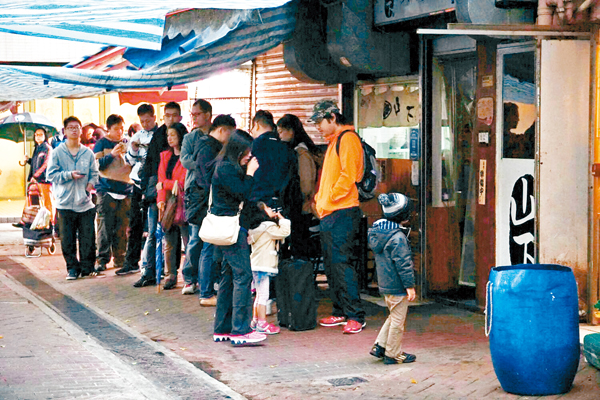
This is clear evidence that this
establishment is creating a congestion that is negatively impacting the quality
of life in this community. They should be made to cease and desist.
- With pro-democracy freedom
fighters like those at Sheung Shui Spot, freedom/democracy will not be arriving
anytime soon in Hong Kong. Why? Because it is unthinkable that their kind of
behavior will become the new norm for everyday transactions among the people of
Hong Kong.
- (Oriental
Daily) February 17, 2017.
According to the Menya Yamashita
owner Mr. Wong, a middle-aged couple came more than a month ago. The man ordered
fried oysters. After the food arrived, the man complained about a strange odor
and demanded to switch to fried shrimps instead. Ms. Yamashita checked the
oysters and found nothing wrong with them. When she told the man so, he threw a
fit with obscene curses. The man identified himself as the "royal chef to the
Chief Executive." In the end, Wong refunded the price of $40 for the fried
oysters. But the male customer said: "I am going to make sure that you are
finished."
Over the past two months, various
government departments arrived because they received anonymous complaints. "All
kinds of complaints were made. Some said that the food was unclear, some said
that the fire corridor was blocked and so on. Every department found nothing
wrong with us." Due to the incessant complaints, someone even suggested that the
shop move to a different address.
Recently Wong wrote on Facebook:
"He wanted to let off steam and see us finished. We are tired already, and he
kept harassing us every day. I am taking a chance and hope that he has let off
his steam and will leave us alone." He added: "They said that there are fewer
parallel traders. That is completely false. There are more of them." The
parallel traders pack their merchandise outside his shop, which unavoidably
affects his business. Mr. Wong has looked at other locations, but the rent is
beyond what they can afford.
Mr. Wong said that they have been
at the location for five years. They wanted to stay in Sheung Shui. They don't
expect to make big money, but at this time his wife is unhappy and wants to
return to Japan.
According to the Food and
Environmental Hygiene Department, they have received 9 complaints about the
licensed location since January, including hygiene and pest problems and
unlicensed operation. Each time, the department sent out inspectors but they did
not find the problems in the complaints.
- I got curious and looked up what
the Menya Yamashita actually said:
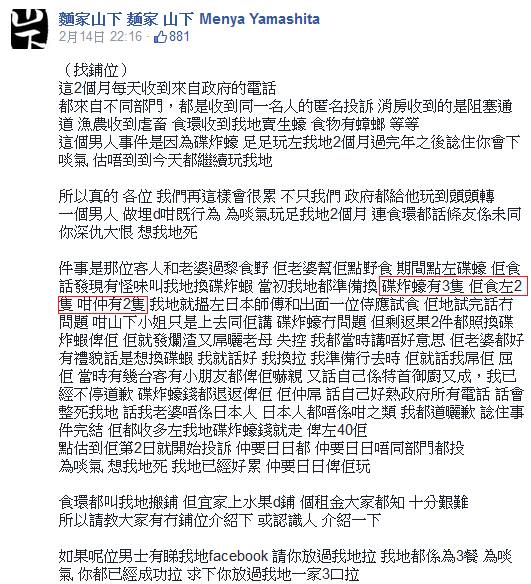
Here are some of my problems:
(1) "The dish was supposed to
contain three friend oysters. The man ate two of them. There were still two
left. I asked the Japanese chef and a waiter to test the two that were left.
They ate it and found no problem." Let me count my fingers. There were three
oysters at first. The customer ate two. And then there were two left. Sorry, but
I don't get it.
(2) "Every day government
departments received anonymous complaints from the same person." Buddy, if the
complainant was anonymous, then how can you know that it is the same person?
(Petitions.whitehouse.gov)
Stop Supporting Copyright (Amendment) Bill in Hong Kong.
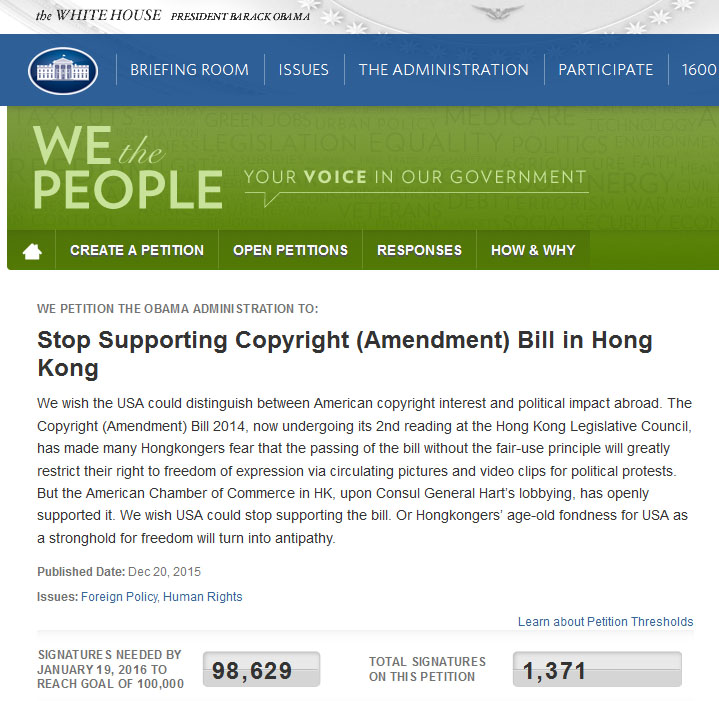
Internet comments:
- This petition sounds like a
petulant teenager whining: "If you don't buy me an expensive Christmas present,
I am going to turn my fondness of you into antipathy."
- The petition does not address
the true issue, which is "We urge the American imperialists to stop supporting
the pan-democrats to betray Hong Kong."
- When you want something from someone, you can give him a little face to save
embarrassing him. If you spell out the truth directly, he may be turned off.
- From the sayings of Wan Chin:
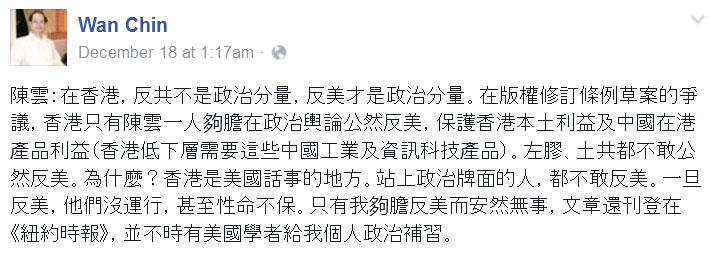
Wan Chin, December 18 2015
Wan Chin: In Hong Kong, being anti-communist does not carry political weight.
Being anti-American carries political weight. In the controversy over the
Copyright (Amendment) Bill 2014, Wan Chin is the only person in Hong Kong who
dares to brave political opinion to publicly defy the United States of America
to defend local Hong Kong interests and the interests of Chinese products (the
lower-class people of Hong Kong need those Chinese industrial and IT products).
The leftist retards and the local communists do not dare to public oppose the
United States. Why? Because Hong Kong is a place where the United States take
charge. Anyone in politics won't dare to oppose the United States. If they
oppose the United States, they will be luckless and maybe even lose their lives.
Only I have the courage to oppose the United States and still manage to be safe.
My essay was even published in the
New York Times. Occasionally American scholars even give me tips in
politics.
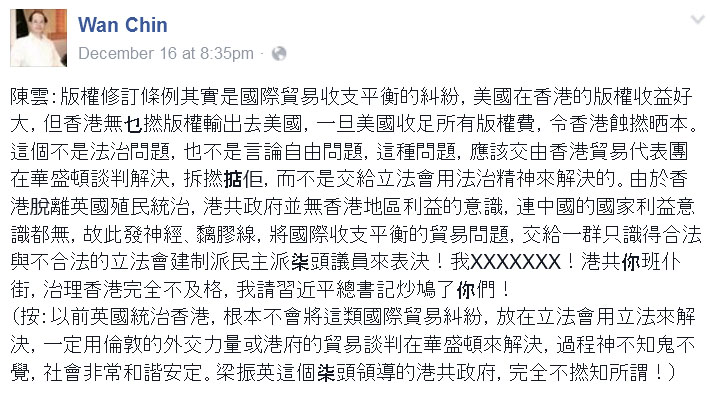
Wan Chin: December 16, 2015
Wan Chin: The Copyright (Amendment) Bill 2014 is actually a dispute over
international trade balance. The United States has a lot of intellectual
property revenues from Hong Kong while Hong Kong has fucking little intellectual
property to export to the United States. Once the United States collects its
full share of copyright royalties, Hong Kong will fucking lose its shirt. So
this is not a rule-of-law issue. It is not a freedom of speech issue. This type
of problem should be handed over to the Hong Kong Trade Representative for
negotiation in Washington DC, to fucking resolve, and not to leave in the hands
of the Legislative Council to resolve with a rule-of-law spirit. When Hong Kong
left British colonial rule, the Hong Kong Communist government had no sense of
Hong Kong regional interests, or even Chinese national interests. That is why
they are fucking crazy enough to turn an international balance-of-trade issue to
a bunch of pro-establishment and pro-democracy dickhead Legislative Councilors
to vote what is lawful and what is unalwful! I XXXXXXX! You Hong Kong Communists
are total failures when it comes to governing Hong Kong. I am going to ask Xi
Jinping to fucking fire you!
(Note: When the United Kingdom
ruled Hong Kong, they would never let this type of international trade dispute
be handled by legislation at the Legislative Council. They would use the
diplomatic might of London or trade negotiations by Hong Kong with Washington
DC. The entire process would be secret, and society would be very harmonious and
stable. This Hong Kong Communist government led by that dickhead CY Leung does
not fucking know what they are doing!)
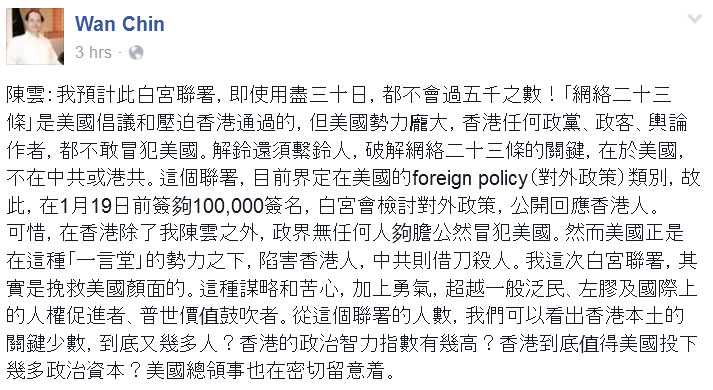
Wan Chin December 21, 2015
Wan Chin: I predict that this White House petition won't have more than 5,000
signatures after the full 30 days! The United States proposed and pressured Hong
Kong to pass Internet article 23. Because the United States has such great
powers, no political party, politician or commentators dare to offend the United
States. The key to solving Internet Article 23 lies with the United States, and
not with the Chinese Communists or Hong Kong Communists. This petition is
classified under foreign policy. If there are 100,000 signatures before January
19, the White House will review its foreign policy and give a public response to
the people of Hong Kong.
Unfortunately nobody in Hong
Kong politics will dare to public offend the United States except for I, Wan
Chin. The United States are hurting the people of Hong Kong precisely through
this sort of "unified opinion" and the Chinese Communists are merely using them
to further their own goals. My White House petition this time is a way for the
United States to save face. My strategy and purpose is more than what the
ordinary pan-democrats, the leftist retards, international human rights
proponents and universal values promulgators are capable. The number of
signatures for this petition will tell us the size of the key minority group for
Hong Kong Localism and the level of political intelligence in Hong Kong? How
much political capital should the United States invest in Hong Kong? The US
Consulate is closely watching this.
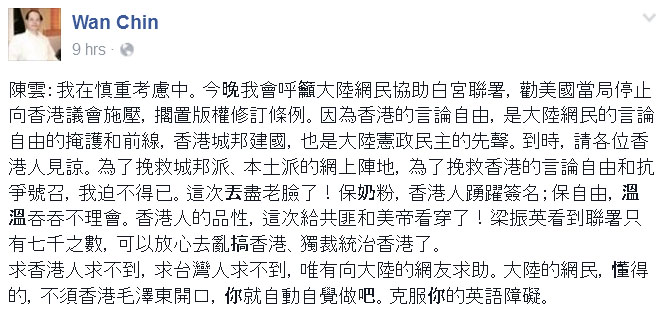
Wan Chin December 28, 2015: I am seriously reconsidering. Tonight I will call on
mainland Chinese Internet users to assist in the White House petition to get the
authorities to stop applying pressure in the Hong Kong Legislative Council and
table the Copyright (Amendment) Bill 2014. Freedom of speech in Hong Kong is the
cover and frontline for the freedom of speech of mainland Internet users. The
building of the Hong Kong City-State is also the lead voice of mainland
constitutional democracy. When the time comes, I ask the people of Hong Kong to
be excuse me. In order to save the Internet battleground for the City-State and
the Localists and to save the freedom of speech and resistance in Hong Kong, I
am forced to do so. This time, I have really lost face! When it came to
defending infant milk formula, the people of Hong Kong signed actively;
meanwhile, they are slow and indifferent when it comes to defending their
freedom. This time, the Chinese Communist bandits and the American imperialists
are able to see the character of the people of Hong Kong! When CY Leung sees
only 7,000 signatures in the petition, he will feel free to cause chaos in Hong
Kong and rule Hong Kong as a dictator.
I begged the Hongkongers but I can't get anything; I begged the Taiwanese but I
can't get anything; therefore I have to beg the mainland Internet users. The
mainland Internet users, if you understand, you should do this spontaneously
without the Hong Kong Zedong having to ask. Overcome your English-language
barrier.
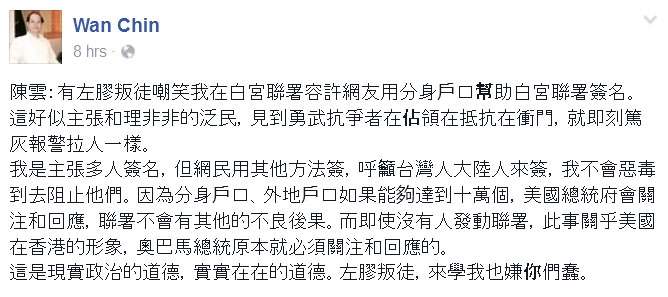
Wan Chin December 28, 2015: Leftist retard
traitors are making fun of me letting Internet users to use multiple accounts to
sign the White House petition. This is just like the "Peace, Reason and
Non-violence" pan-democrats ratting to the police when they see valiant
resisters fighting back and charging during the Occupy Movement.
I call for more people to sign, but Internet users are using other methods to
sign. They are calling for the Taiwanese and Mainland people to sign. I won't
viciously stop them. If because the multiple accounts and outside accounts can
get more than 100,000 signatures and draw the attention and response of the
American president, then this petition won't have any other undesirable effect.
Even if nobody started this petition, President Obama should have cared and
responded because this matter affects the image of the United States of America
in Hong Kong.
Such is the ethics of practical politics. It is ethics in practice. To the
leftist retard traitors, I think that you too stupid to try to imitate me.
- Why does the American Chamber of
Commerce support the Copyright (Amendment) Bill 2014? Because many of their
members support it. These include Warner Brothers, Walt Disney, Universal
Pictures, Columbia Pictures, 20th Century Fox, Paramount Pictures, the Motion
Picture Association of America, the Recording Industry Association of America,
etc. Meanwhile there are no strong voices within American Chamber of Commerce in
opposition to the Bill. Therefore, the American Chamber of Commerce is only
carrying out the will of its constituency.
Contrary to what the petition
alleges, the US Consul General Clifford Hart did not lobby the American Chamber
of Commerce. It is the American Chamber of Commerce which lobbied Hart. The
United States is bound to carry out the wishes of its citizens. There are no
strong voices which can give powerful reasons to oppose the bill. This is where
we are. If the petition ends up on Obama's desk, his considerations will be
exactly the same.
- Missing is a statement as to why
killing the Copyright (Amendment) Bill 2014 is in the best interest of the
United States of America. It is not enough to say that the United States would
not want to turn the fondness of Wan Chin and other signatories into antipathy.
Who is Wan Chin? Why must the United States kowtow to his wishes against the
wishes of American businesses and citizens?
- What can Hongkongers do if
President Obama refuses to come out against the Copyright (Amendment) Bill 2014?
What shapes will their newly founded antipathy take? Here are some possible
ways:
Boycott Hollister Surfers.
Boycott Levi's jeans.
Boycott Nike athletic shoes.
Boycott McDonald's.
Boycott KFC.
Boycott Starbucks.
Boycott Coca Cola.
Boycott Marlboro cigarettes.
Boycott Star Wars The Force Awakens.
Boycott Captain America: Civil War.
Boycott Apple Computer products.
Boycott all Intel-based computers.
Boycott Microsoft.
Boycott Google.
Boycott Facebook.
Boycott airlines flying Boeing jets.
Boycott Visa/MasterCard.
- For someone who is scornful of
leftist retards, Wan Chin's White House petition campaign is about as "leftist
retard" as singing karaoke in Occupy Central or lighting candles in Victoria
Park on June 4th
- How to sign the whitehouse.gov
petition an unlimited number of times, as provided by Wan Chin's Facebook:
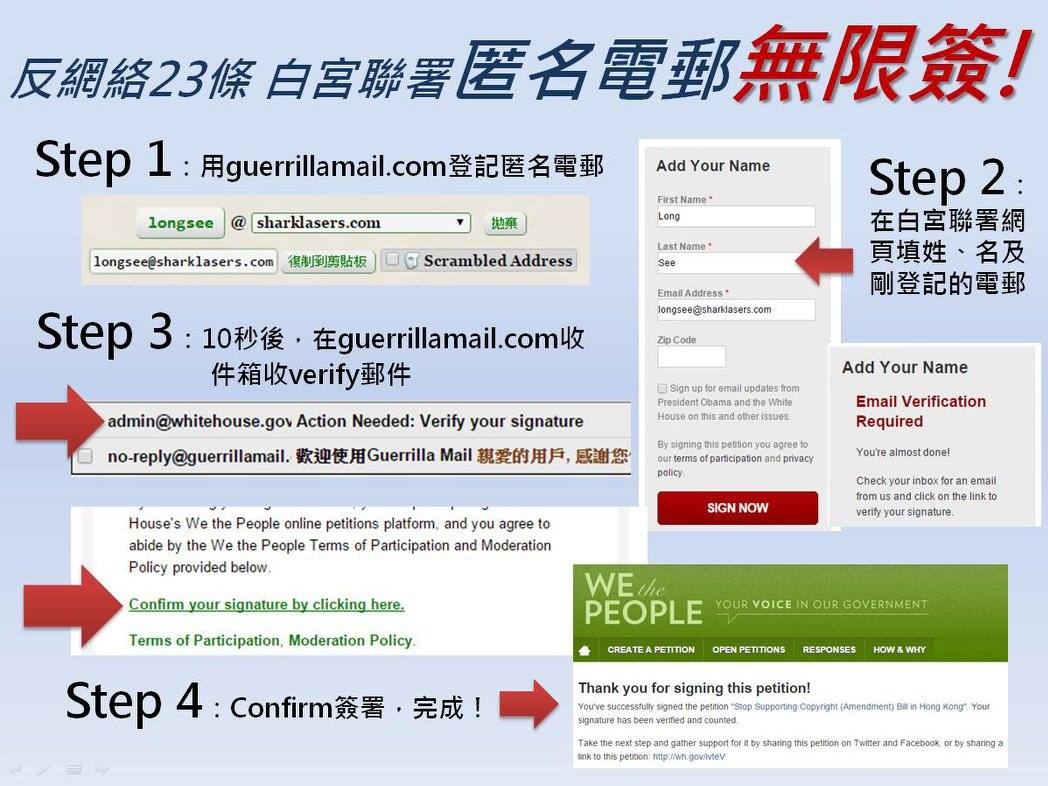
Step 1: Use guerillamail.com to register an anonymous email address
Step 2: Sign the petition at whitehouse.gov with name and email address.
Step 3: 10 seconds later, guerillamail.com will receive an email from admin@whitehouse.gov
to confirm.
Step 4: Confirm your signature by clicking.
- (January 4, 2016) This petition
has just been closed by the administrator. The reason is violation of the
terms of participation, such as "Only one account per individual is
allowed. You may not sign the same petition more than once."

- On January 5, 2016, there was a
demonstration outside the US Consulate in Hong Kong
https://www.youtube.com/watch?v=Za4wP0bfUq4&feature=youtu.be
- The demonstrators were happy
that the US Consulate delegated a pretty chick to take in their petition.
Normally, as Wan Chin noted, the task is given to security guards or chauffeurs.
She began by saying "I receive ..." then she changed it to "I respectfully
receive ..." This is just so awesome!!!
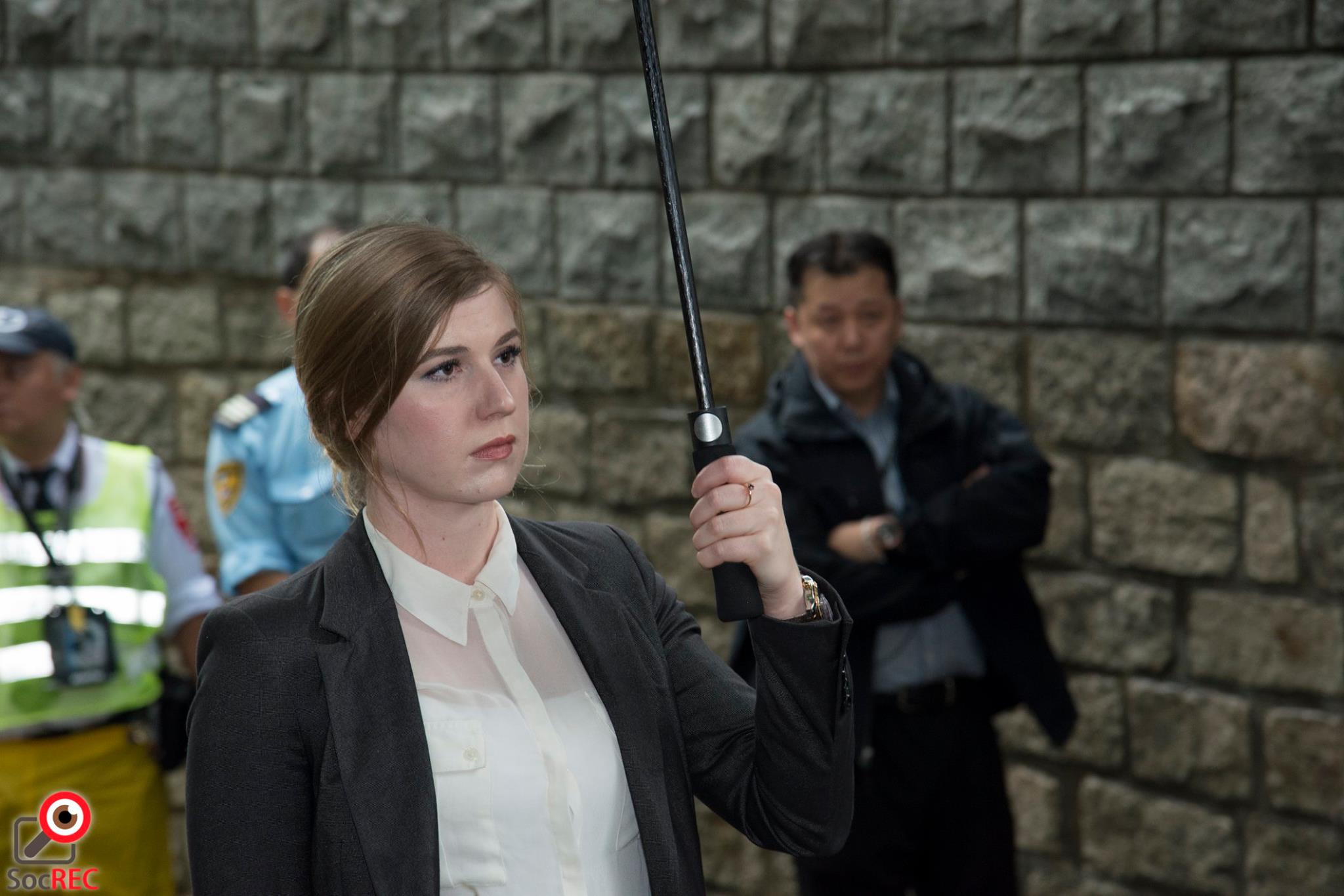
After the Paris massacre, French president
Hollande delcared on national television: "C'est la guerre (=This is
war)."
I don't know if I heard incorrectly. If I
didn't, then I don't know if this socialist leftist president knows the
definition of "war."
If it is war, there has to be total
mobilization, there has to be strategies. If ISIS is the enemy, then this war
cannot be like the Second World War with enemy nations such as Germany, Italy
and Japan. ISIS has not formally built a nation, but it is a huge ideological
military organization that is using the next generation of Muslim immigrants in
Europe as their agents through the Internet. When the French president wants
"war," does he know what the definition of "war" is?
To defeat the outside powers, one must
consolidate internally first. If Hollande is sincere about "going to war," he
should be conducting surveillance on all the racial minorities inside France
before he dispatches the French air force or army. These include all those
families who migrated to France within the last three generations. Their
computers and mobile phones must be confiscated. During the Second World War,
Churchill placed persons of Germany descent under surveillance in hotels without
freedom of movement. Roosevelt issued orders to place all Japanese Americans
into concentration camps. Was that "fascism"? No. That was war.
Why only "target racial minorities"? Very
simple: Because ISIS does not believe in the White Man's Catholicism. What is
war? War is about gaining victory by any means. During wartime, British citizens
monitored each other to report spies. When Germany bombed London and Coventry,
Churchill ordered the Royal Air Force to bomb Hamburg, Dresden, Cologne and
killed about 600,000 Germany civilians -- let me emphasize again, those were
civilians. That is war.
War requires huge sacrifices, putting aside
selfishness, hypocrisy and cowardice. When a civilized western country wants to
conduct a war of self-defense against evil, the people must put aside a lot of
human rights that they are normally accustomed to enjoying. Today, the western
voters are not deliberately embracing fascist will and psychology.
For example, when the Americans air force
killed Syrian terrorist Jihadi John, the Labour Party leader and the mother of
the killed British hostage John Cantlie said that it was wrong to execute the
terrorist because he should have been brought back to England to stand trial.
But how many more people would Jihadi John have killed while on the run? This is
commonsense. War is not to be considered by a society in which
naivet� and stupidity are mixed.
As for Hollande, he is not De Gaulle. I don't
think that he understands. He and his voters only know to pray. They don't get
it. Perhaps one day the French people will be enlightened: But that would be
after ISIS denotes small nuclear bombs in Paris, Lyon and Marseilles. When that
day comes, they will perhaps finally understand what war is. Perhaps. But today,
Hollande is only chitchatting.
(Chip Tso Channel Facebook)
November 19, 2015.
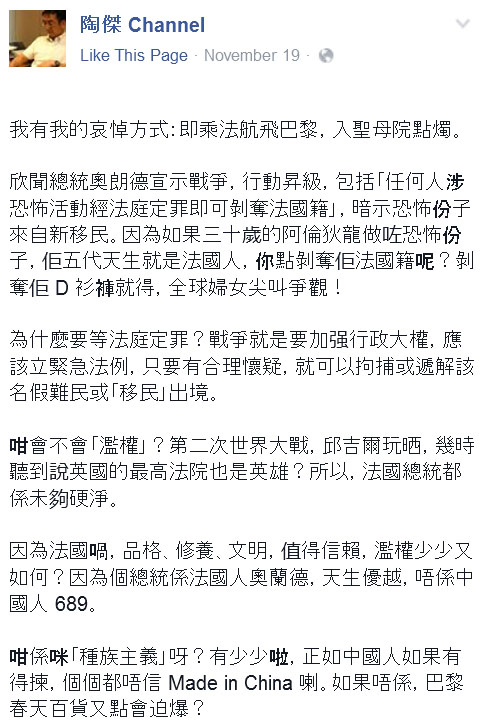
I have my own way to commemorate:
To take Air France to Paris and light a candle in Notre Dame de Paris.
I am elated to hear President
Hollande declare war and escalate action, including "stripping any persons
determined by the courts to have participated in terrorist activities of their
French citizenship." This implies that the terrorists are new immigrants. If
30-year-old Alain Delon became a terrorist, how can you strip him of his French
citizenship when five generations of his family were all born French citizens?
You may strip him of his clothes and then all the women will scream as they
clamor to watch!
Why wait for the courts to
convict? War is about enhancing administrative powers. That should be new
emergency laws so that the suspected fake refugees or immigrants can be forcibly
detained or expelled upon reasonable suspicion.
Will there be abuse of power?
During the Second World War, Churchill did all that. Did anyone ever call the
Supreme Court of the United Kingdom heroes? Therefore, the French president
hasn't gone far enough.
Because this is France, you can
trust their character, self-cultivation and civilization. So what is a little
abuse of power? Because the president is the Frenchman Hollande who is naturally
superior, unlike the Chinese person 689 (=nickname for Hong Kong SAR Chief
Executive CY Leung).
Is this "racism"? A little bit.
Just as if the Chinese people has the choice, none of them would trust Made in
China. Otherwise, why else would the Printemps department store in Paris be
overflowing with people?
(Local
Press) Letter to the US Consul General in Hong Kong. November 24, 2015.
Dear Consul General,
Please note that there is a Hong Kong pundit named Stephen
Shiu Yeuk Yuen, who recently announced that he was going to translate
renowned Hong Kong columnist, Chip Tsao�s criticisms of ISIS into seventeen
languages, and then send the translations to all Muslim organizations in the
world, so that Chip Tsao would be punished. This may provoke ISIS to launch
terrorist attacks on Hong Kong, and endanger the lives of all Hong Kong
residents, including American citizens residing in Hong Kong.
Stephen Shiu (Chinese: 蕭若元, born 22 July 1949) is a Hong
Kong-based journalist, businessman, film producer, screenwriter, presenter,
and pundit.
In his internet program Siu-yiu-yau(蕭遙遊)https://www.youtube.com/watch?v=wd8uzaEB9lM ,
uploaded to youtube on 2015-11-19 by Stephen Shiu�s own multimedia
corporation memehk.com, Stephen Shiu made it clear (starting from 09:56 of
the video) that he would translate Chip Tsao�s writings against ISIS into 17
languages, and then send to all Muslim organizations in the whole world the
translations, together with a photocopy of the original and with Chip Tsao�s
own photo. Shiu said he expected many Muslims, upon reading the
translations, to come and confront Chip Tsao. Stephen Shiu was referring to
the two following articles published by Chip Tsao.
On November 19 this year, Chip Tsao wrote on his own Facebook
channel a post, which suggests that France set up an emergency law so that
the French authorities may arrest or deport without court conviction any
reasonably suspected fake refugee or �immigrant�, as President Hollande has
announced that �anybody involved in terrorist activities, upon being
convicted by the court, will be deprived of their French citizenship�,
hinting that the terrorists come from new immigrants. (https://www.facebook.com/tokit.channel/photos/pcb.975513562521167/975513539187836/?type=3 )
On November 17 this year, Chip Tsao wrote in his column in
Apple Daily that since President Hollande has announced that � C�est la
guerre� (this is war), the French authorities should closely monitor all
ethnic minorities within France, as ISIS does not believe in Christianity (http://hk.apple.nextmedia.com/supplement/columnist/%E9%99%B6%E5%82%91/art/20151117/19375267 )
Chip Tsao (born 17 August 1958), also known by his pen name
To Kit, is a multilingual Hong Kong-based columnist, broadcaster, and
writer. His writings are mostly in Chinese. He is well known for his sarcasm
and wry sense of humour.
I am a translator born in Hong Kong.
I submit that Stephen Shiu�s undertaking could render the
whole city susceptible to terrorist attacks by ISIS.
Thank you very much for your attention.
With peace,
Chapman Chen, Ph.D.
Stephen Siu's Facebook, December 16, 2015.
I have already sent out the letters in
Arabic containing all the extremist speeches of Chip Tso which inflame hatred
against Muslims.
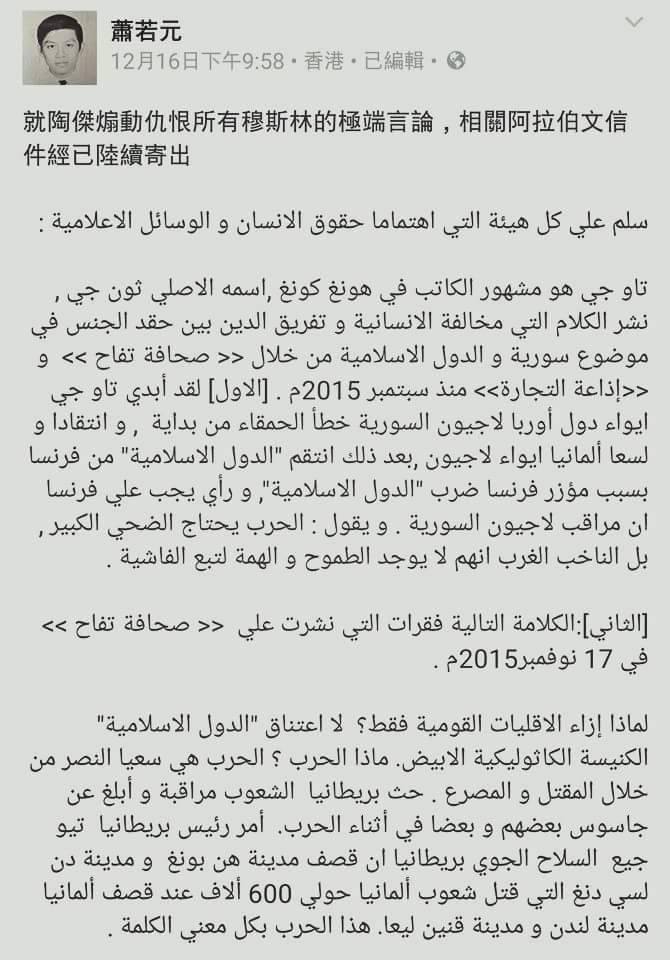
Stephen Siu's Facebook: The
letters include a photo of Chip Tso.
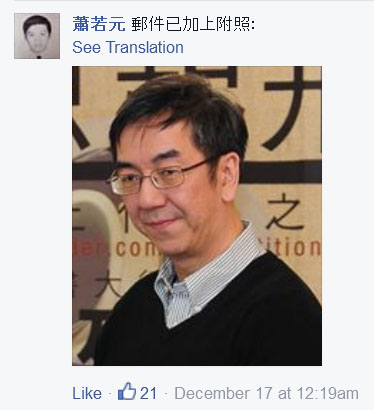
(Stephen Siu's Facebook) The Apple
Daily article translated into French.
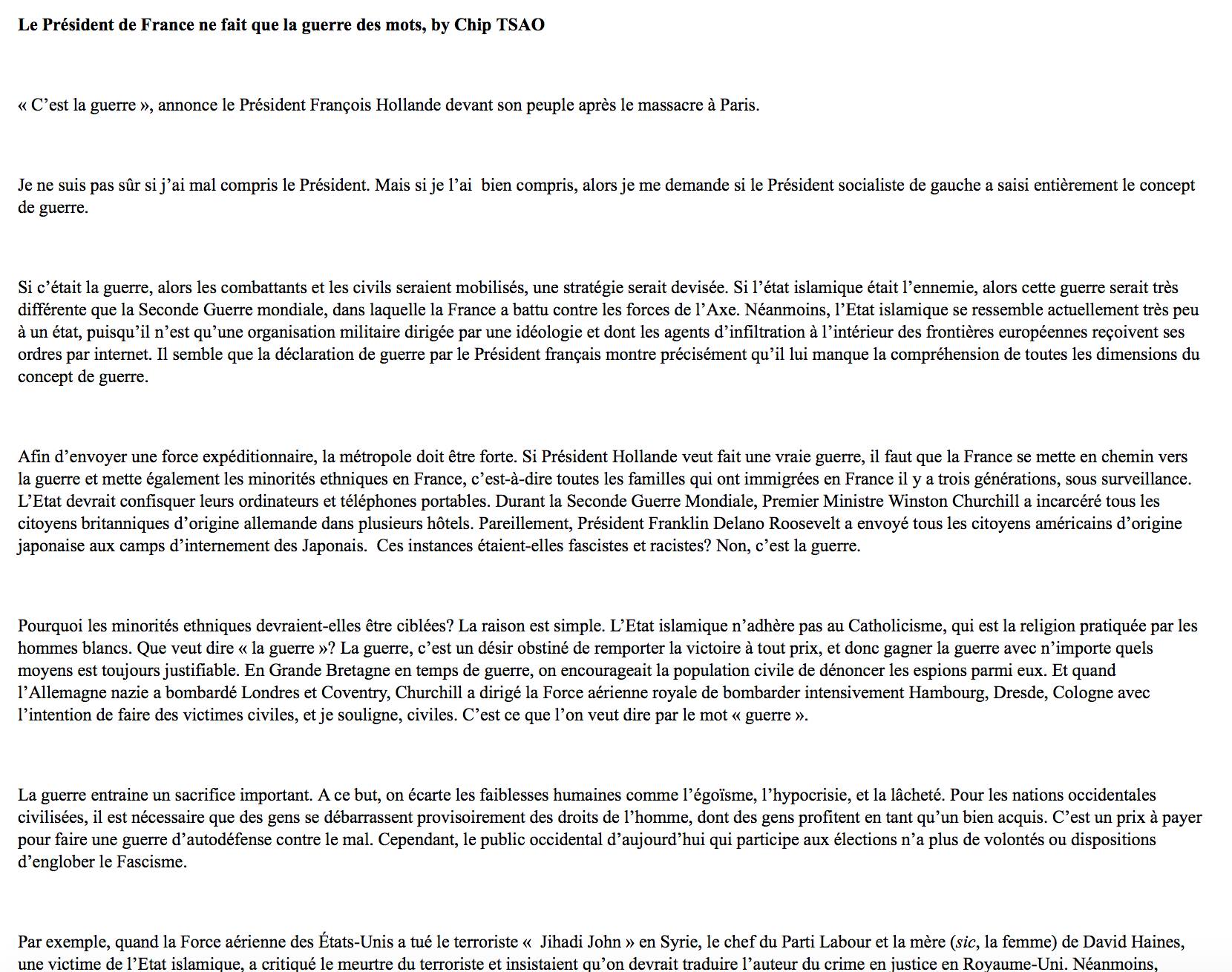
(AM
730) December 31, 2015.
When Stephen Siu sent out the
Arabic letters, many Internet users were worried that this would draw IS to
launch terrorist attacks in Hong Kong. Siu thinks that this is ridiculous. He
said that IS only targets people who blaspheme against Islam or directly attack
IS. "Chip Tsao was not referring to IS. He was aiming at all peaceful, moderate
Muslims. He wants other people to discriminate against them." He says that Chip
Tsao is a racist who is spouting hate speech. He said that Chip Tsao is worse
than Donald Trump. Trump only wants to bar Muslims from entering the United
States, but Chip Tsao wants to lock up every Muslum, tracing back to three
generations in France.
Siu admitted that his campaign was
giving free publicity to Chip Tsao. But he said that there is a market for
inflammatory racist speech and so he must criticize them whenever they occur. As
long as Chip Tsao won't retract what he said, "I will continue to do this. If he
says something more, I will translate it as well."
In response, Chip Tsao said on
radio: "The goal was clearly to get the IS warriors to come to Hong Kong to deal
with a certain famous radio host. This is intentionally threatening behavior and
incitement to commit murder ..." He added: "I am not scared, but I will call the
police."
When interviewed by our newspaper
on phone, Chip Tsao denied having called the police already. "I was saying that
he translated my essays into Arabic and sent them out to parties that include
IS. If the Muslim terrorists come here, should I call the police? This is going
to happen sooner or later." He added: "I am seeking legal advice right now. I
can call the police anytime."
Chip Tsao said: "In this world, is
it allowed only to say that all refugees must be taken in? Can't you say that
you oppose taking in refugees? In Hong Kong, is only one side allowed to speak?
Besides, this refugee problem is not a Hong Kong issue. It is an European issue.
So what business is it to Stephen Siu?" He said: "Everybody in the Hong Kong
art/cultural community and business people in Central know that this man is a
piece of trash."
Internet comments:
- Donald Trump wasn't afraid to
speak his mind, so what has Chip Tsao got to fear except fear itself?
-
Why the media is duty-bound to call Donald Trump a racist The Week,
November 25, 2015.
- Donald Trump did not receive any death threats, and neither will Chip Tsao.
Instead, what Trump got and what Tsao should get is the contempt of all civilized
people about their racist statements.
- Stephen Siu, you want to
損人不利己 (=hurt other people without benefiting yourself). This is unbecoming of
you. I will never visit your Facebook ever again. Goodbye!
- Not only will ISIS target Chip Tsao, but they will find other targets in Hong
Kong while they are here. If there is justice under heaven, you will have to pay
for your sins sooner or later. Wait and see.
- I
can forgive the person who wrote this, but I can't forgive the person who
translated this into Arabic. What was he thinking?
- I
know that ISIS has surely penetrated the Pakistani and Indonesian enclaves in
Hong Kong, especially among the lower-class people. So they will find about
this, if not already. And then they may be stupid enough to do something stupid.
- I
completely fail to understand the hubbub. Chip Tsao clearly believed what he
wrote, or else he would not have published it. Stephen Siu is helping Chip Tsao get the message out by translating it to Arabic for those Arabs who can't
read Chinese. What is the problem with that?
- Certainly if the translations are faithful and accurate, there is no problem.
If you have the guts to say it in Chinese, why not repeat it in other languages?
As Chip Tsao himself said, we need to put aside our
selfishness, hypocrisy and cowardice in a time of
war. After all, he knows what war is whereas President Hollande doesn't.
- Stephen Sui paid for the translation work too. Credit to him.
https://m.facebook.com/story.php?story_fbid=1013796388683528&id=420361564693683&hc_location=ufi
https://www.youtube.com/watch?v=InnY9lPjaJE
Helena Wong was surrounded by
demonstrators when she tried to speak. League of Social Democrats vice-chairman
Raphael Wong Ho-ming tried to stop people from
coming up, and got into a shoving match with a masked man. The masked man bumped
into Wong unintentionally, but Wong used his hands to try to take off the mask.
Wong said: "I want to find a way to see your face. You can see my face. So it is
only fair that I should see your face as well." The video was taken by
Passion Times host Christine. Wong kept telling her: "You're saying that I
hit someone. Call the police. Call the police. You show them the video." But
Christine kept shrieking hysterically.
Passion Times. December 17, 2015.
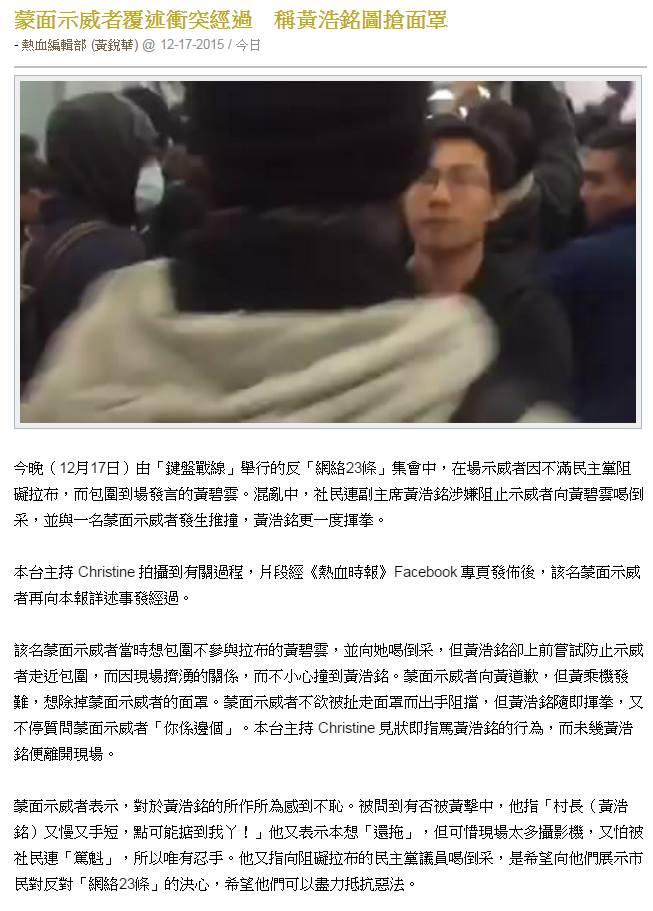
The masked man told Passion Times what
happened. The masked man wanted to join the demonstrators to surround Helena
Wong who did not participate in the filibustering. He wanted to boo her. But
Raphael Wong Ho-ming came up to try to prevent the demonstrators from
approaching. Because it was crowded at the scene, the masked man unintentionally
bumped into Wong. The masked man apologized to Wong. But Wong used the
opportunity to try to rip off the mask. The masked man did not want his mask
ripped away, so he used his hand to block. But Wong immediately launched a punch
while asking: "Who are you?" Our host Christine saw what was happening and
condemned Wong's action. Wong left the scene shortly afterwards.
The masked man said that he thought
Wong's action was shameful. Did Wong hit him? "The village mayor (nickname for
Raphael Wong) is slow and his hands are short. How can he possibly touch me! He
said that he thought about hitting back, but there were too many cameras around
and he was afraid that the League of Social Democrats would rat him out to the
police. So he did not take any action. He said that he booed the Democratic
Party members who were hindering the filibustering in order to show the
citizens' determination to oppose Internet Article 23. He hoped that they can do
their utmost to stop the bad law.
https://www.facebook.com/on8channel/photos/a.516052841769709.1073741827.455476464494014/1007467419294913/?type=3&theater
At 230pm on June 6, 2014, four
plainclothes policeman intercepted a man with a V-mask at the pedestrian
overpass to Government Headquarters. They wanted to check his ID, which they are
authorized to under the Police Ordinance. However, they do not have the right to
ask the man to remove his mask and let them look at his face. If the man was
suspected of committing a crime, they can do so; but if the man hasn't done
anything, they can't. Thus, Raphael Wong was wrong to assert that he is entitled
to see the other man's face.
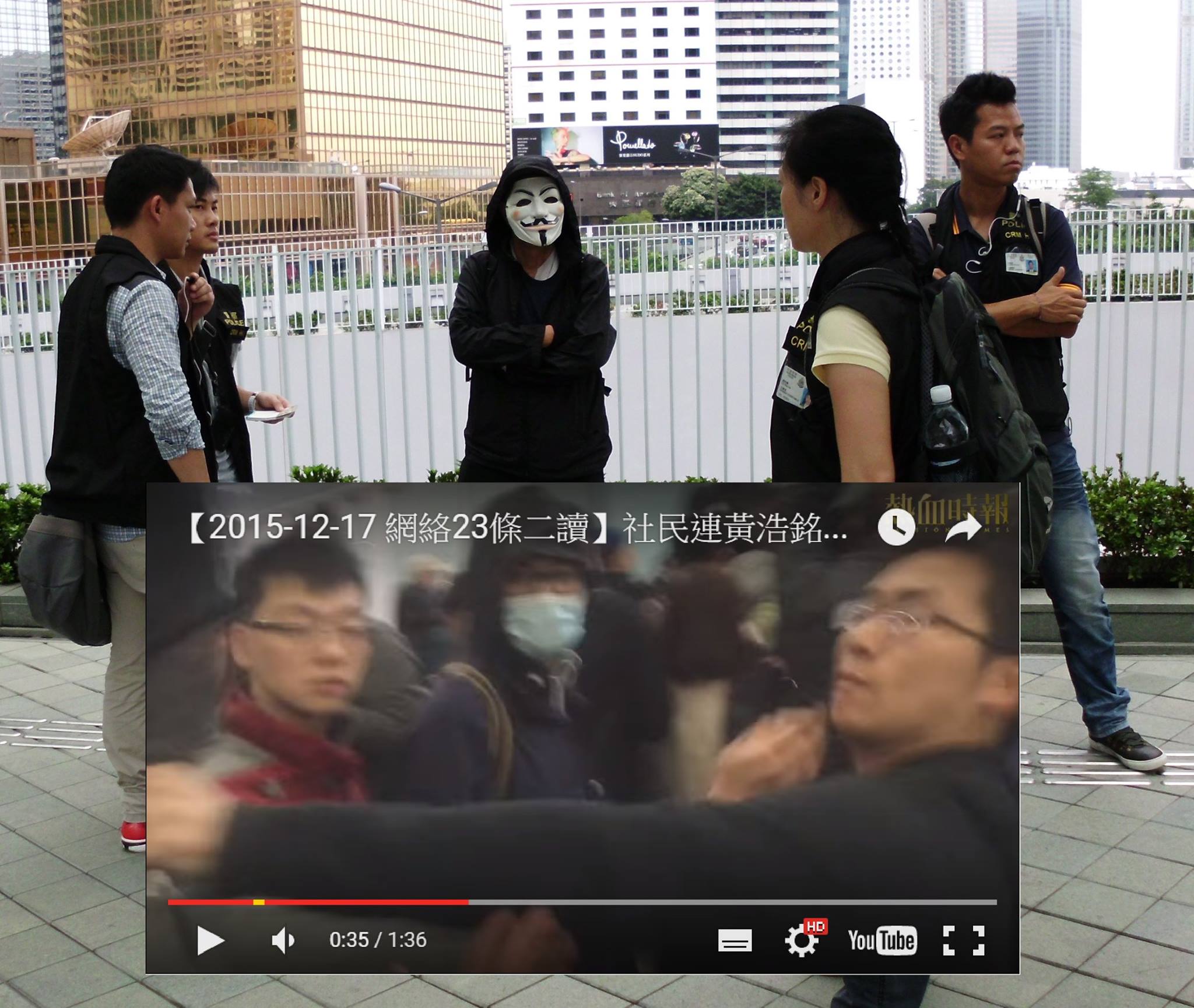
Wai Kit Nobodijack Ng
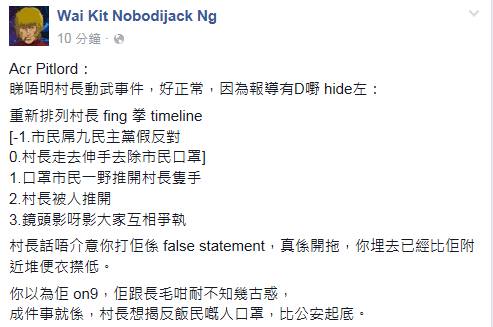
Acr Pitlord:
It is understandable that you don't understand the incident about the village
mayor using force, because the reports have hidden certain things:
Let me reconstruct the timeline of
the mayor swinging his fist.
-1. The masked citizen went up to curse out
the Democratic Party legislators for pretending to oppose the Copyright (Amendment) Bill
2014.
0. The village mayor went up to rip
the mask off the citizen.
1. The masked citizen used his hand
to block the mayor's hand.
2. The mayor was pushed aside by
someone.
3. The two sides argue.
The mayor made a false statement
when he said that he didn't mind being hit. He really wanted a fight. But as
soon as you approach him, you will be knock down by the plainclothes policemen
around him.
Do you think that he is stupid? He
has been around Leung Kwok-hung for such a long time, so he is clearly tricky.
That's what is was all about -- the
mayor wanted to unmask the citizen so that the plainclothes policemen can make
identification.
pHKoenix Resurrection Facebook
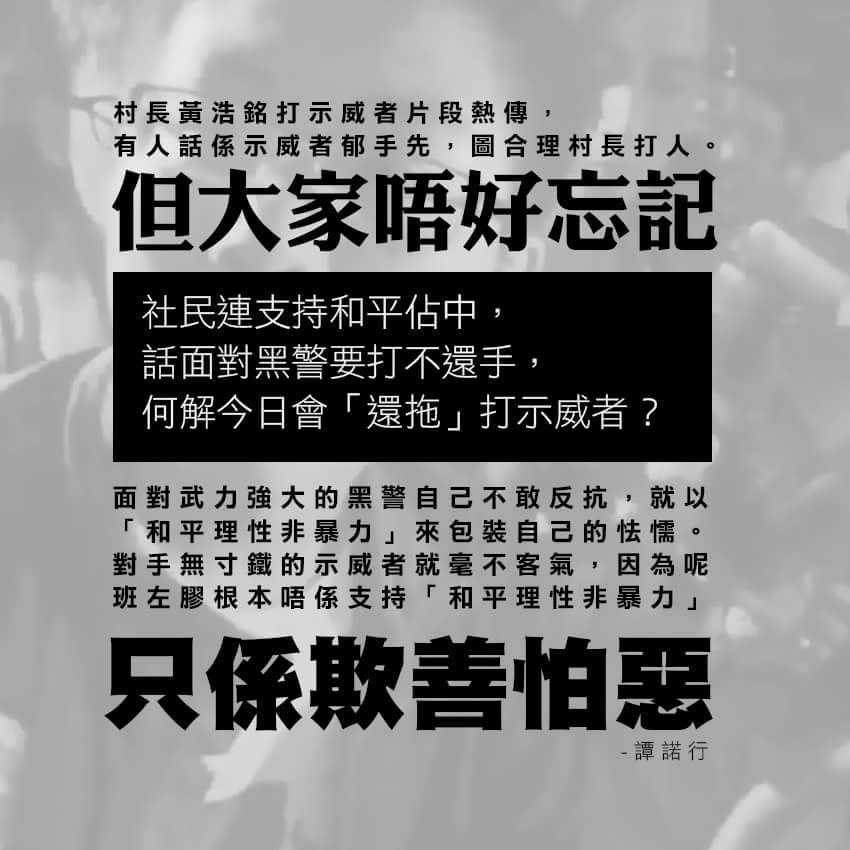
Video of Raphael Wong attacking demonstrator is all over the
Internet
Someone is saying that the demonstrator moved first in order the justify what
the mayor did.
Do not forget: The League of Social Democrats supported Occupy Central with Love
and Peace.
They said that they will not fight back against the Evil/Black/Dark/Bad Police.
So why was Wong "hitting back" at a demonstrator?
Faced with the powerful Evil/Black/Dark/Bad Police, they don't dare to fight
back.
They used "Peace, Reason and Non-violence" to cover up their own cowardice.
But they have no qualms about taking action against an unarmed demonstrators.
That's because the Leftist Retards do not really support "Peace, Reason and
Non-violence."
They are only scared of powerful enemies and they bully the little people
instead.
Internet comments:
-
Truth or
dare? Either you tell the truth about what happened, or else you can
call the police.
- Yeah. And when the police come, you start screaming "Evil/Black Police!" at
them.
- If you look beneath the surface, you
will find just another sectarian struggle between two radical political parties:
the League of Social Democrats and Civic Passion. If a masked man jostled in the
same manner with Wong Yeung-tat (Civic Passion), Christine (Civic Passion) would
be shrieking on behalf of her teammate. If a masked man jostled in the same
manner with another masked man, Christine wouldn't be choosing sides without
being able to identify ally from foe.
- Here is a sequence of events: A
citizen fights with the village mayor; the reporters take videos; this is on the
news; citizen and mayor are arrested; mayor holds press conference to explain
his side; nobody cares about what the citizen has to say because he is just one of
the little people.
- Frankly, in the course of civil
resistance, the biggest enemies are in order to decreasing importance: the
reporters and their cameras; the rival groups; the leftist retards; the police
canines.
Of course, you may think that the
camera records the objective truth and never lies. In practice, the reporters can always
embellish the news report (see, for example,
#028). The newspaper/television
station is not interested in the objective truth; they want a seemingly objective
truth that will maximize the number of eyeballs.
- (inmediahk
@YouTube) On June 13, 2014, League of Social Democrats vice-chairman
Raphael Wong tried to stop demonstrators from using metal barricades to ram
at the glass doors of the Legislative Council. This was considered the
classical case of Leftist Retardism.
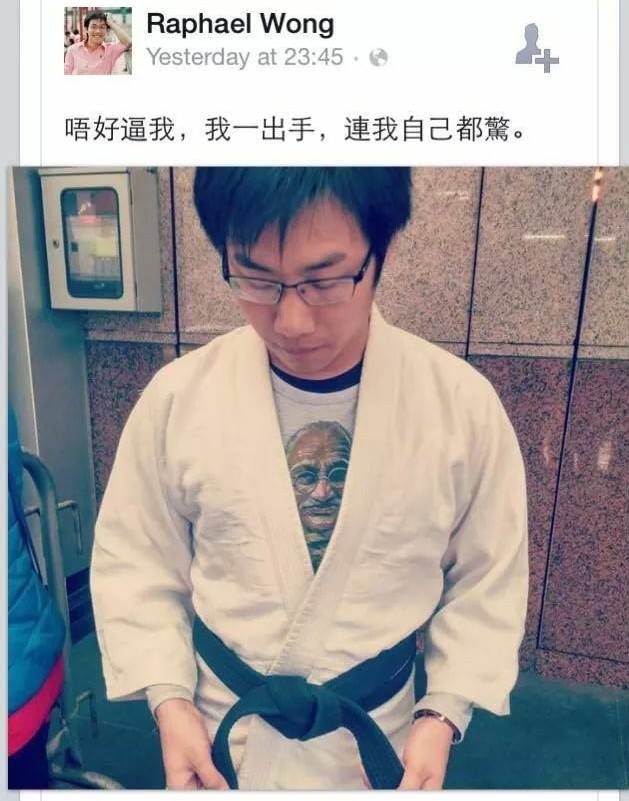
- Raphael Wong (League of Social Democrats): Do not force
me to take action. Even I am afraid of myself when I have to take action.
(SCMP)
Drama at the University of Hong Kong makes for good entertainment. By Alex Lo.
December 14, 2015.
Academia rarely provides so much
entertaining news. But then, it's the University of Hong Kong, our
oldest tertiary institution, and it never disappoints. So it's
been amusing to watch the tit-for-tat between our two most famous
professors of the moment, though probably famed for all the wrong
reasons: Professor Johannes Chan Man-mun and Professor Arthur Li
Kwok-cheung. The latest has Chan, a former HKU law dean,
denouncing Li as unsuitable to lead the university's governing
council, though Chief Executive Leung Chun-ying has yet to
announce an appointment.
Chan is probably right about Li, a former education minister and
current Executive Council member. But Chan is not any more
suitable to be the pro-vice-chancellor in charge of research
funding and academic personnel, a post for which he was rejected
by council members including Li.
With Li, it's pure, naked
aggression. Chan, by contrast, is the passive-aggressive type.
When Li sets a goal, he pursues it with a full-frontal,
take-no-prisoners assault. So it was the case when more than a
decade ago, he tried to forcibly merge the Institute of Education
with the Chinese University of Hong Kong, of which he was once
vice-chancellor. As education chief, he tried to reform the
English Schools Foundation by freezing its funding levels. He was,
in a sense, too successful, so much so that the ESF has been
forced into a divorce with the government and is becoming a
full-fledged chain of international schools once public subsidies
are phased out.
It's really Li's aggressive style
that turns off a lot of academics, who prefer to keep polite
society, and play vicious interdepartmental politics while patting
each others' backs. Despite the regular pan-democratic
denouncements against Li as Leung's man, Li is not an ideologue.
Chan, however, is far more
ideological. He supported his law colleague Benny Tai Yiu-ting's
Occupy Central campaign last year, regardless of its consequences
while posing as a moderate democrat.
His passive-aggressive
personality came to the fore when he said he didn't want the HKU
job but did everything to provoke students and supporters to fight
on his behalf, including the students' storming and detention of
council members in July.
Chan and Li are not particularly
good leaders. But they probably have a useful role to play at HKU.
(SCMP)
Off the mark: Johannes Chan deserves respect, not unwarranted slurs. By Anson
Chan. December 17, 2015.
Your columnists Alex Lo and Michael
Chugani have subjected the unwary reader to a fairly steady stream
of nonsense on the subject of the non-appointment of Professor
Johannes Chan Man-mun to a post of pro-vice-chancellor at the
University of Hong Kong. I have concluded that most of this is
best ignored, but Lo�s column (�Drama at HKU is good
entertainment�, December 14) has plumbed new depths, in the form
of a totally unwarranted slur on Professor Chan�s character, and
therefore requires a response.
Characterising Chan as
�passive-aggressive�, Lo implies he supported Benny Tai Yiu-ting�s
Occupy Central campaign �regardless of the consequences�. The
truth is that Chan never expressed public support for Occupy
Central and was actually away from Hong Kong, on sabbatical in the
US, when the street protests (precipitated directly by student
groups, not Tai) broke out. But never let the facts get in the way
of a good story.
Lo goes on to say Chan said he
didn�t want the pro-vice-chancellor job. Why then did he stand his
ground, despite months of vilification in pro-Chinese newspapers
and approaches from shadowy middlemen trying to persuade him to
withdraw his candidacy or offer to step down immediately following
appointment?
Particularly scurrilous is Lo�s
contention that Chan �did everything to provoke students and
supporters to fight on his behalf, including [their] storming and
detention of council members in July�. There is not a shred of
evidence to support such a statement and it should be withdrawn.
All it does is reflect Lo�s
general contempt for the intellectual abilities and aspirations of
Hong Kong�s young people � a recurrent theme in his columns � and
his consequent belief that the students could not possibly have
worked out for themselves that the machinations within the HKU
council were not just reprehensible in themselves, but posed a
long-term threat to academic freedom and the institutional
autonomy of the university.
If Lo has not listened to the
elegant and measured speech which Professor Chan delivered at the
Foreign Correspondents� Club on December 10, on the occasion of
the 20th anniversary of the Human Rights Press Awards, I hope he
will belatedly take the trouble to do so. It was neither passive
nor aggressive. Rather, it captured the qualities of someone I
have been proud to work alongside in the pro-democracy cause for
the best part of the last 10 years.
Anson Chan, former chief secretary for administration; convenor,
Hong Kong 2020
(SCMP)
Let�s respect some basic facts in University of Hong Kong saga. By Alex Lo.
December 18, 2015.
Dear Mrs Anson Chan,
As a rule, I
don�t publicly reply to readers, as they are free to agree or disagree with
my column. But you are no ordinary reader. I am flattered that an august
democracy icon like you took the time to write a long rebuttal to a column I
wrote recently on Johannes Chan Man-mun, the controversial legal scholar at
the University of Hong Kong and your colleague at your think tank, Hong Kong
2020. You can see your letter has been published in today�s letters page.
But while it�s touching that you go out of your way to defend a friend, I
think we � you and I � should at least respect some basic facts. You raise
three points that I supposedly manufactured against Professor Chan.
First, you wrote that it was inaccurate for
me to say he claimed he didn�t want the pro-vice-chancellor job at HKU.
Well, commenting on his nomination, this is what he wrote in an open,
Chinese-language letter published on RTHK on August 1: �If it were only an
issue to do with my personal career, I would have withdrawn already. I have
never been enthusiastic about the job.� That�s quite different from what you
claimed was his fondness for the job he didn�t get.
Second, you wrote I wrongly implied the
professor supported his HKU law colleague Benny Tai Yiu-ting�s Occupy
Central campaign. Come again? Do I take it that you believed Professor Chan
did not support Tai�s political campaign? Referring to last year�s protests
and his own HKU nomination, Professor Chan was quoted by Reuters in
September as saying: �They are trying to send a message that if someone is
sympathetic to Occupy Central ... there will be repercussions.� If Professor
Chan really did not support Occupy Central, that would be news to me and
many others.
There was also the small matter of his
failure to supervise Tai over the latter�s handling of donations of HK$1.45
million at HKU, some of which was channelled to fund Occupy -related
activities.
Lastly, you said Chan did nothing to
encourage students and supporters to fight on his behalf, contrary to my
claim. But he had said on more than one occasion that the fight for his
appointment was for HKU�s autonomy and academic freedom, and against
political interference. I think that counted as encouragement, even
provocation.
Yours truly,
Alex Lo
(SCMP)
A matter of opinion, without the smears, on HKU pro-vice-chancellor
controversy. By Michael Chugani. December 22, 2015.
Public Eye stands accused of having written
nonsense regarding the controversy over whether Johannes Chan Man-mun should
be appointed Hong Kong University pro-vice-chancellor. The accuser is former
chief secretary Anson Chan Fang On-sang, in a letter to this paper.
Nonsense, or is it that she simply can�t stand others having opinions
different from hers?
As we�ve said before, our self-proclaimed
democracy defenders expect everyone to accept that whatever they say is
morally right by default. Otherwise, you�re a Beijing bootlicker. Here�s
what Public Eye had said about the pro-vice chancellor controversy.
On February 4, we questioned Professor
Chan�s claim that Beijing mouthpiece Wen Wei Pao had politically persecuted
him. We argued that if muckraking in a free media environment is
persecution, then democracy camp mouthpiece Apple Daily is equally guilty of
hounding Franklin Lam Fun-keung for allegedly using insider information as
an executive councillor, a claim dismissed by the ICAC.
On February 25, we said Chan is not to
blame for the HKU controversy but suggested he withdraw his candidacy to end
the bitter division. On August 5, we urged him to name and shame the
mysterious middleman he alleged had requested him to quit as
pro-vice-chancellor if appointed. We didn�t say it didn�t happen but simply
noted that since it was such a bizarre request, few would believe him unless
he named the middleman.
On October 7, we called on all eight HKU
Council members who voted for Chan as pro-vice-chancellor to identify
themselves since the names of those who had opposed Chan had already been
leaked. We said since Chan supporters had mocked those who voted against
him, it was only fair to hear the reasons the eight council members gave for
supporting him.
On October 28, we said those who demanded
that Chief Executive Leung Chung-ying explain why Arthur Li Kwok-cheung is
qualified as HKU Council chairman should themselves explain why he is
unqualified. We said neither Li�s no-vote against Chan nor the claim that he
will stifle academic freedom are valid reasons since council members are
allowed to vote freely and there is no evidence Li has stifled academic
freedom. We said academic freedom doesn�t depend solely on Chan becoming
pro-vice chancellor.
On November 11, we said the anonymous
person who leaked council meeting audios only of those who voted against
Chan cannot be called a heroic whistle-blower because it was selective
leaking for political purposes and voting against Chan involves no
wrongdoing.
Unlike Anson Chan�s so-called democracy
camp, which smeared Arthur Li, Public Eye never smeared Johannes Chan. In
fact, we said didn�t know Professor Chan and didn�t care who got the
pro-vice-chancellor job. We just expressed an opinion. What�s wrong with
that? We know why Anson Chan considers as nonsense what we wrote. We don�t
kowtow to her opinions. She hates that.
(Hong
Kong Free Press) December 17, 2015.
Lawmaker Helena Wong Pik-wan was surrounded
by angry protesters once again on Thursday night when she appeared at a
rally against a controversial copyright bill. A meeting to debate the bill
was adjourned earlier in the evening. Wong was set to address some 200
protesters at the Legislative Council demonstration area, but was stopped by
protesters who were shouting, pushing and attempting to to surround her.
Wong was also surrounded by protesters at a similar rally on Wednesday
night.
The protesters angry with the Democratic
Party as its lawmakers Albert Ho Chun-yan and Sin Chung-kai remained in the
chamber during the last few seconds of a quorum count. Were they outside the
chamber during the count, the meeting would have been adjourned due to an
insufficient number of members at the meeting. Lawmakers requested the
quorum bell � which triggers a headcount � 28 times during Thursday�s
meeting, but their efforts to cut short the debate failed.
During the scuffle, lawmaker
Claudia Mo Man-ching � who was aside Wong � fell down. Mo and Wong were escorted
by security guards back into the LegCo building, with protesters following them.
Alan Lai, a member of rally co-organiser Copyrights & Derivative Works Alliance,
witnessed the incident. He said the area was packed and Wong caught Mo in her
arms when she fell. He said Mo�s waist was injured and she had to be moved in a
wheelchair when she was inside the building.
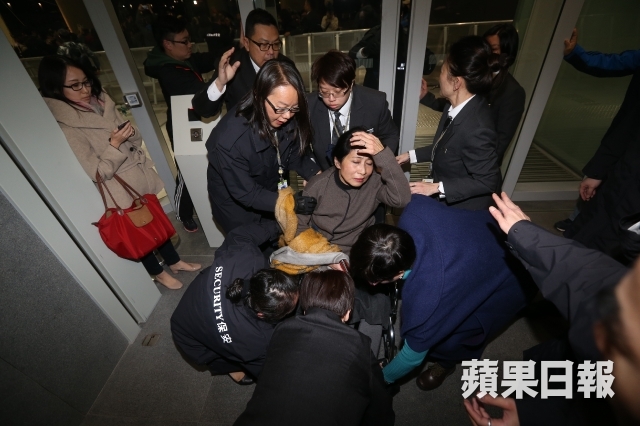
Glacier Kwong Chung-ching, a
spokesperson for Keyboard Frontline which organised the rally, admitted that the
protest had escalated and had become �slightly out of control�. She said that
the lawmakers were invited to the demonstration area to receive a pack of
materials for future meetings on the bill, but she did not expect groups of
protesters to surround Wong. She was not around Wong at the time. Kwong
apologised to Mo for the chaotic scene, and also for being unable to ensure
participants� safety.
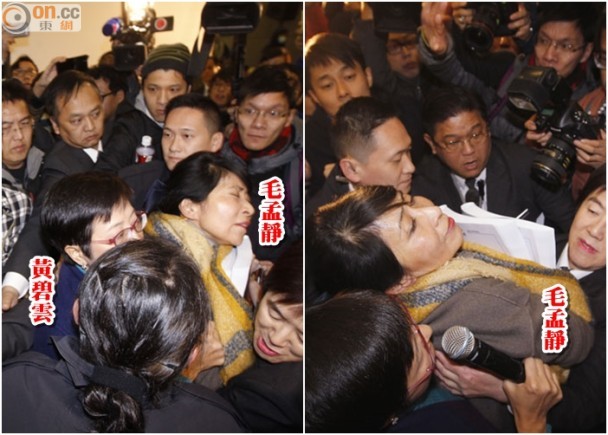
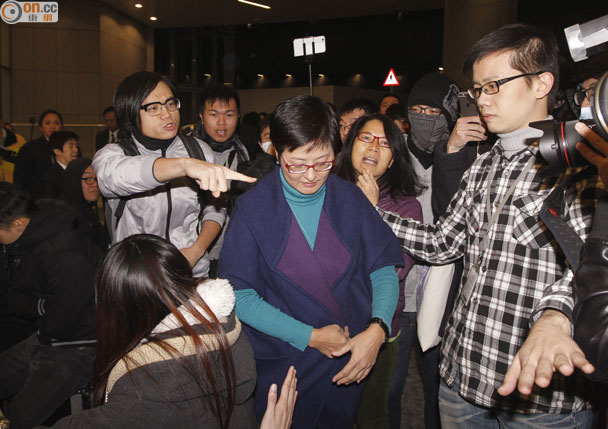
Videos:
Oriental Daily Claudia Mo being
jostled.
NOW TV Helena Wong being surrounded and Claudia Mo being jostled.
Passion
Times @YouTube
Also: (RTHK)
(RTHK)
On December 17, 2015, Democratic Party legislator Helena Wong and
Civic Party legislator Claudia Mo were surrounded by protestors out the
Legislative Council. Mo may have been pushed down to the ground. Legislative
Council security guards helped her get up and re-enter the Legislative Council
building.
Sing Tao/Headline Daily News report.
https://www.facebook.com/bbtauseeworld/videos/434647833399266/?theater
Claudia Mo being jostled.
Resistance Live Media Helena Wong gives speech. It looks more like the
legislators were surrounded by photojournalists instead of demonstrators.
Internet comments:
-
Glacier Kwong Chung-ching, a spokesperson for Keyboard Frontline, admitted that
the protest had become �slightly out of control�.
LOL! There is a structural defect in the organization which is inherited from
Occupy Central. Back then as is now, nobody pays any attention to any of the
so-called organizers. The motto was and is "Nobody represents me!" You can make
a call for a rally, apply for a "no-objection" letter from the Hong Kong Police
and broadcast the message through social media. Some people do show up, but they
won't listen to your directions.
- Keyboard Frontline has about a dozen or so volunteers only. They cannot
protect anyone from harm in a situation in which a hundred people are milling
around.
- Glacier Kwong should be grateful that
the rally is drawing fewer people than she wanted. On Wednesday, she predicted
1,000 demonstrators. At the end of the day, she claimed 700 as the peak size. On
Thursday, she predicted 500 demonstrators. At the end of the day, it was more
like 200.
- It's easy. When you can't urinate, you say that the wind was too strong. When
you can't defecate, you say that the ground was too hard. When your rally number
is small, you say that the weather was cold (and it was).
- For Friday, Glacier Kwong has canceled the assembly because (1) the
Legislative Council is only working half-day and (2) most people have to go to
work during the day.
- Well, the moral of the story is not
about how right and just your cause is. You may think so, but you may find your
cause hijacked once you get out there. And it does not take a lot of people to
hijack a cause, given that most causes are initiated by a smallish number of
persons. In this case, Keyboard Frontline says that they have a dozen or so
volunteers. But there are several dozen Civic Passion "Hot Dogs" out there to
support Raymond Wong and attack his enemies (usually other pan-democrats). There
is nothing that the Keyboard Frontline can do except to call in the
Evil/Black/Bad Police Canines.
- Glacier Wong is a Passion Times host. Keyboard Frontline is a front for Civic
Passion on the specific issue of the Copyright Bill (Amendment)
- This is a replay of Occupy Central.
The Occupy Central trio of Benny Tai, Chan Kin-man and Chu Yiu-ming may have the
best of intentions and theories. They called people out and the people came,
except those people did not follow the theoretical model for civil disobedience
that the three prescribed. Instead, those who occupied the streets had
completely different ideas. They couldn't even agree among themselves, except
that they all want to dismantle the nominal leadership. Keyboard Frontline is
merely re-running the script. When will they ever learn?
- The people gathered outside the
Legislative Council building are obviously the Civic Passion running dogs of
Raymond Wong Yuk-man and his lackeys. Why pretend that they represent "the
people of Hong Kong" or even "the Internet users"?
- What goes around comes around. Those
who call out their followers to lay siege to others will someday find themselves
being surrounded and hounded. What goes around comes around.
- First they came around for the Hong
Kong University Council members, and you did not speak out because you were not
a HKU Council member. Then they came for you -- and there was no one left to
speak for you.
- For her troubles, Claudia Mo was
voted Best Actress for her dive:
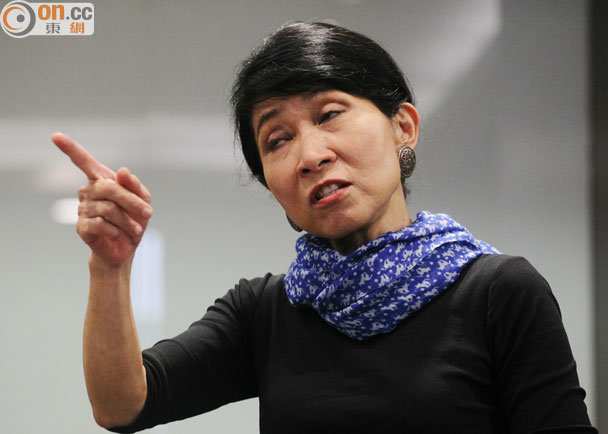
- Actually, it should have been the Worst Actress Award, because it couldn't
have been more fake.
- Swooning to sexual climax?
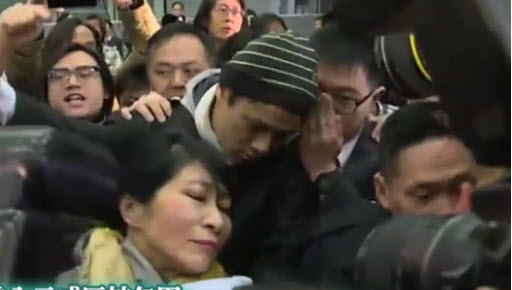
- But not as good as the claim of the rich Saudi Arabian man who got out of rape
charge by saying that he tripped, fell down on top of the 18-year-old girl and
unintentionally penetrated her.
- Even better than Hong Kong University professor Lo Chung-mau at the July 29th
2015 Hong Kong University Council meeting:
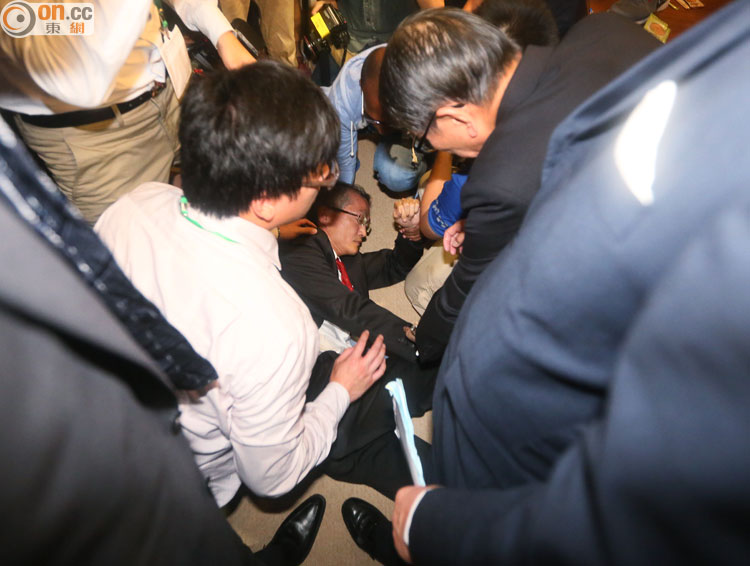
- What did you expect? She used to work in the television industry.
- Report card:
--- On July 29, 2015, Audrey Eu (Civic
Party) was gloating as when HKU Council Member Ayesha MacPherson was surrounded
for half an hour:
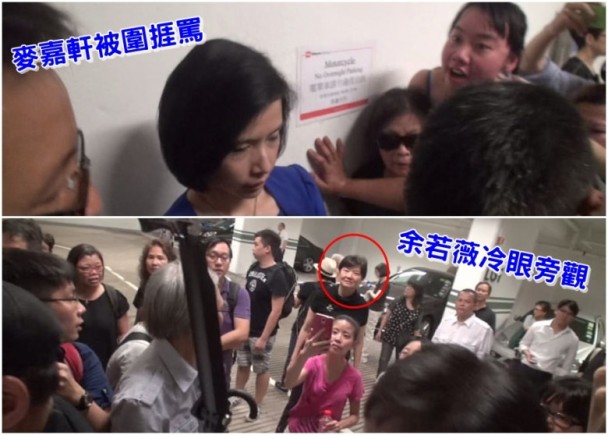
--- Today Alan Leong (Civic Party) watched gleefully as
Democratic Party legislators were besieged
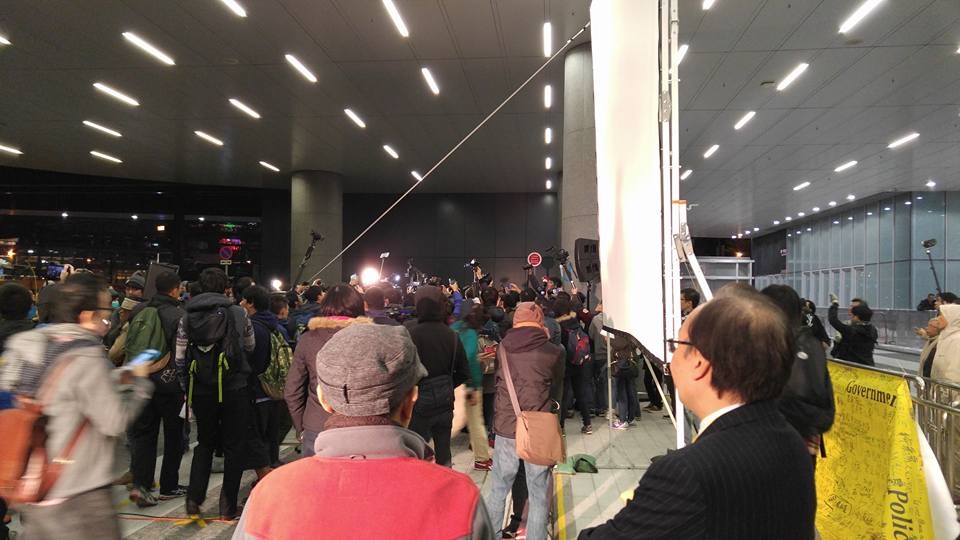
--- Emily Lau (Democratic Party) must be displeased because the
demonstrators did not adhere strictly to the four Leftist Retardism principles of Peace, Reason,
Non-violence and No-foul-language.
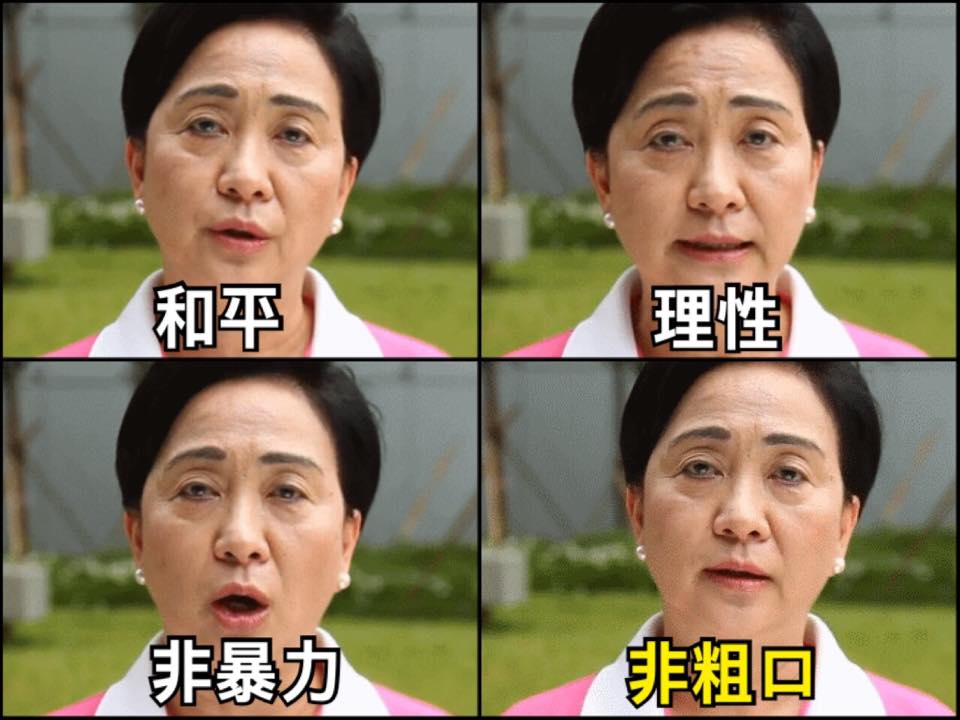
--- The demonstrators were not amused with Claudia Mo's diving act. They believe
that she should have received a red card.
- (RTHK)
December 17, 2015.
Claudia Mo said that she lost her
balance while trying to help Democratic Party legislator Helena Wong and hurt
her own back. She is now resting at home. She said that if Hong Kong is a
genuinely authentically diverse place and if everybody shares the goal of
getting genuine democracy, then people should not attack each other. Will the
actions by the demonstrators today affect political party members' willingness
to appear in public in the future, she said that political parties should not be
afraid of dissident views and that they should "stand firm" in the face of
verbal violence or physical clashes. On Facebook, she said that she did not
faint. Instead, she saw blackness for an instant and lost her balance to hurt
her back.
- Let me remind Claudia Mo about what
her buddy Raymond Wong Yuk-wong had to say on the subject. (The
Standard December 10, 2014) Financial secretary John Tsang was hit in
the hit by an egg. At a later Legco meeting, Raymond Wong Yuk-man said that
petrol bombs instead of eggs might be thrown at officials in future if they
continue to obey the voices of the people (as articulated by Raymond Wong
Yuk-man).
The same applies to Claudia Mo. This
time, you got jostled a little bit. If you continue to go against the wishes of
Raymond Wong Yuk-man in the future, you may be at the receiving end of one or
two petrol bombs. Of course, Raymond Wong Yuk-man is not going to throw a petrol
bomb. But he cannot guarantee that someone might, and he can't control the
actions of everybody.

(Hong
Kong Free Press) December 17, 2015.
Lawmakers requested the quorum
bell � which triggers a headcount � 28 times during Thursday�s meeting, but
their efforts to cut short the debate failed.
Here is one of those 28 times,
with Charles Mok (Information Technology sector legislator) resolutely standing
outside the chambers and gleefully refusing to enter.
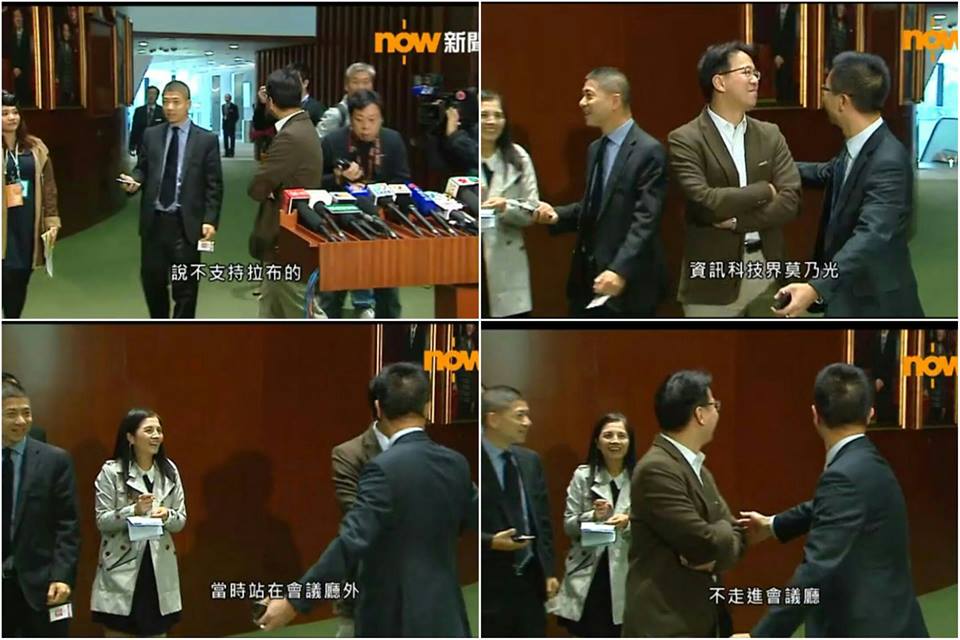
Under Secretary for Commerce and
Economic Development Leung King-kwok patted Information Technology sector
legislator Charles Mok to ask him to go in, but Mok gave a hearty smirk and did
not enter. Finally Michael Tien races in and makes the cutoff by a bare margin
of 7 seconds.
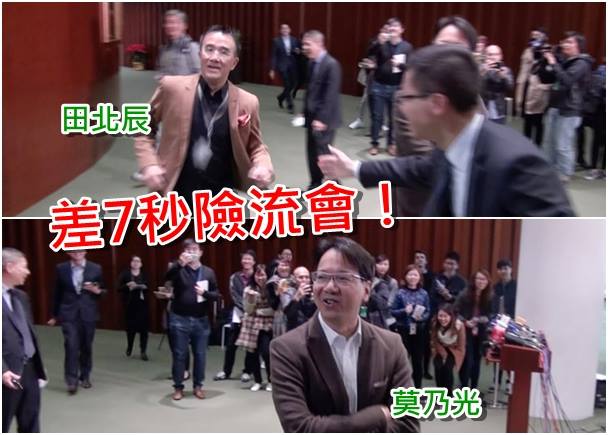
On the eleventh quorum call, the
clock has only 7 seconds left before the last legislator entered. Meanwhile,
Democratic Party's Albert Ho and Sin Chung Kai were still seated inside the
chambers. If only they were outside, the session would have been adjourned. So
it was all their fault!
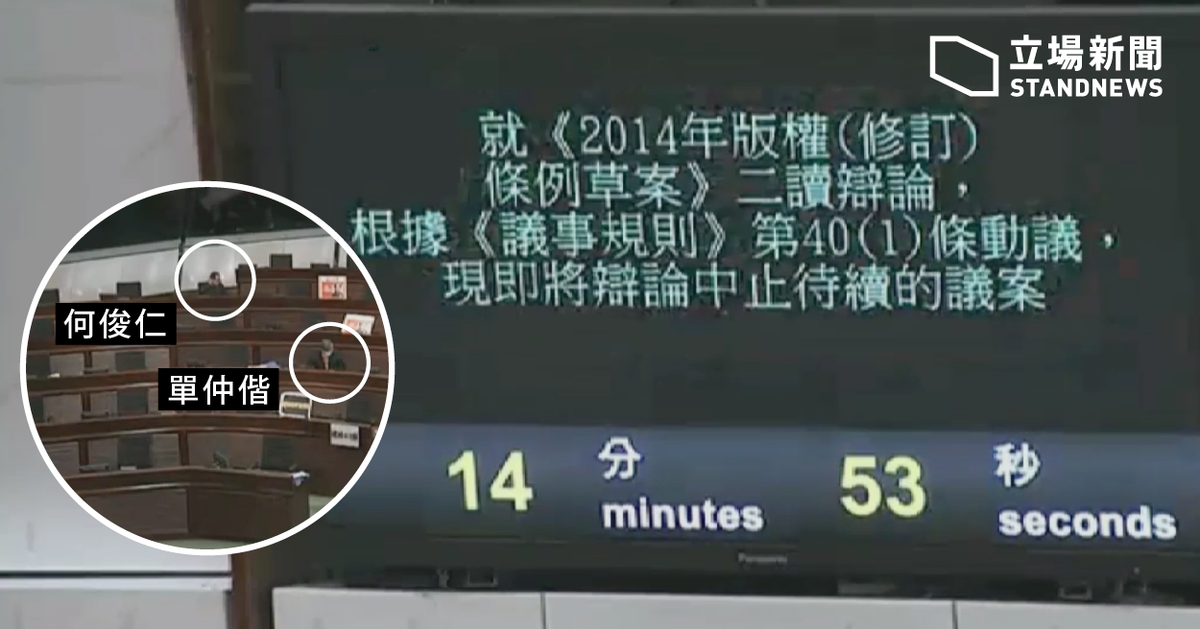

(Oriental
Daily) December 17, 2015.
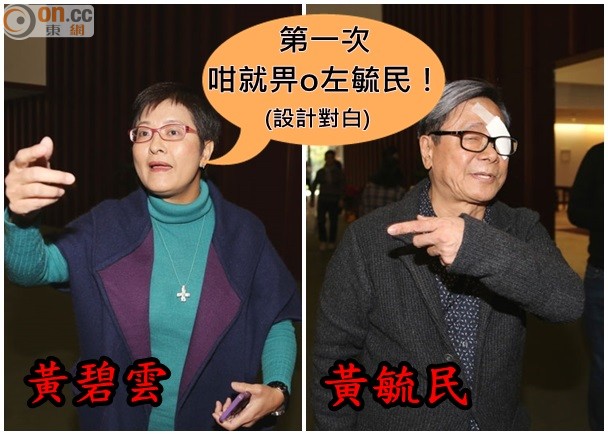
During the debate on the Copyright
(Amendment) Bill 2014, legislators kept asking for the quorum bell. Therefore,
progress was slow. Legislator Raymond Wong Yuk-man delivered a speech in which
he mentioned that Democratic Party chairwoman Emily Lau Wai-hing had withdrawn
from the Bills Committee in May this year and has made "zero" speeches. Lau's
Democratic Party fellow member Helena Wong immediately asked for the quorum bell
to disrupt Raymond Wong's flow. But Raymond Wong laughed at her for being
"trash." Helena Wong was unmoved as she came out and told the press that she had
just offered her first time (in asking for the quorum bell) to Raymond Wong.
Actually, the enmity between the
two Wongs can be dated back to the assembly outside the Legislative Council
building the previous evening. At the time, Raymond Wong, Emily Lau and Helena
Wong all spoke. But the Democratic Party members Emily Lau and Helena Wong were
surrounded and booed. It was alleged that those demonstrators were Raymond
Wong's supporters. So when this afternoon Raymond Wong went negative against the
Democratic Party, Helena Wong asked for the quorum bell for the first time in
her career. Because his speech got interrupted, Raymond Wong threw a bit. He
called her "trash" and said "Haven't you been booed enough yesterday?" Helena
Wong responded: "How many times do I have to remind you? Aren't we filibustering
here?"
Videos:
https://www.youtube.com/watch?v=wC7aR-fa4B8
https://www.youtube.com/watch?v=yum0HLKZl24
On December 16, 2015, Legislative Councilors Emily Lau (Democratic Party) tries
to address a crowd outside the Legislative Council building to tell them about
the Democratic Party's positions and intentions on the Copyrights (Amendment)
Bill 2014. She is booed loudly.
https://www.facebook.com/mm.dbchk/videos/904716662975324/ In the middle
of Raymond Wong's speech, Helena Wong interjected to ask for a headcount.
Raymond Wong went into a tirade. Secretary for Commerce and Economic Development
Gregory So tried hard to hold back his laughter.
Internet comments:
-
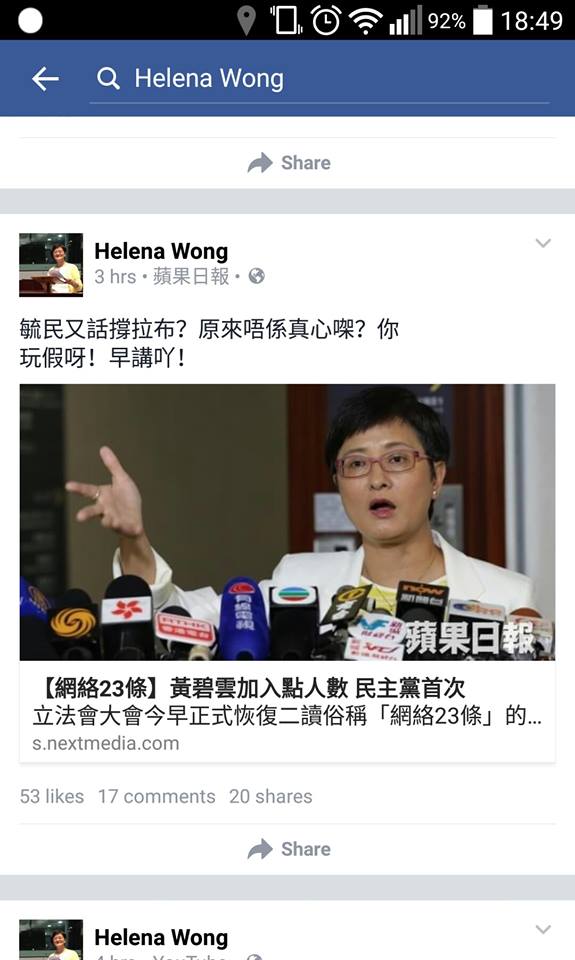
Raymond Wong said to support filibustering? Did he really not mean it? He is
just faking it! Why didn't he say so early on!
- At issue with Copyright
(Amendment) Bill 2014 is whether this kind of derivative art is permitted.
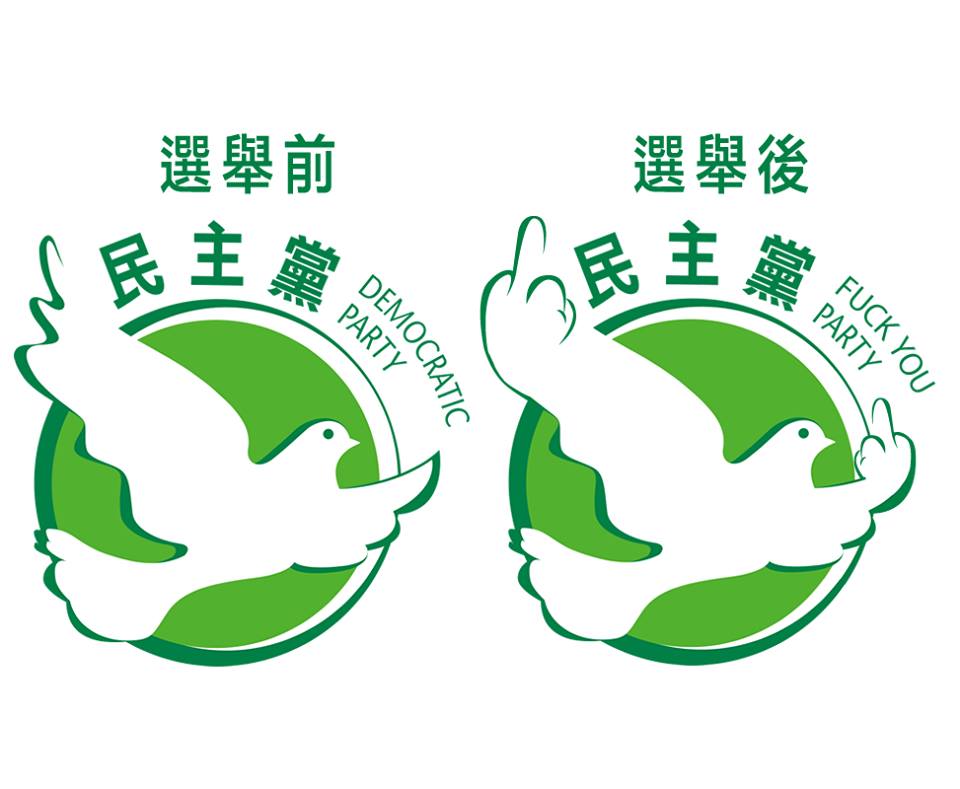
Democratic Party: Before and after the election
- Given what happened earlier
inside the Legislative Council chambers, it is understandable that Raymond
Wong's Civic Passion followers would lay siege to Helena Wong (Democratic
Party)? But what about Claudia Mo (Civic Party)? Isn't that a different party?
Well, well, well. That goes back to the 2008 Legislative Council elections, when
Raymond Wong and Claudia Mo were both running in the Kowloon West district. Wong
calculated that there was no way that he was going to win over the
pro-establishment voters who will go for either the DAB or FTU. So his own path
to victory was to cannibalize the pan-democratic votes. There were three
targets: Frederick Fung (ADPL) who is well-entrenched in the Sham Shui Po area;
James To (Democratic Party) who is well-entrenched in the Olympian City
district; and Claudia Mo (Civic Party) who is a media celebrity running for the
first time. The choice was easy. Wong spent the whole campaign barking at Mo
like the mad dog that he is. Wong won and Mo lost. How can they ever be friends
again?
- Look at the cast of characters
today and it is plain to see that this is about the 2016 Legislative Council
elections in Kowloon West.
In 2012, this was how the votes
broke (see
Wikipedia) with the top five finishers joining Legco:
Ann Chiang Lai-wan (DAB), 47363
votes (20.31%)
Raymond Wong Yuk-man (People Power), 38578 votes (16.62%)
Claudia Mo Man-ching (Civic Party), 37925 votes (16.34%)
Helena Wong Pik-wan (Democratic Party), 36029 (15.52%)
Leung Mei-fun (Kowloon West New Dynamic), 34548 (14.89%)
Tam Kwok-kiu (ADPL), 30634 (13.20%)
Wong Yee-him (independent) 3746 (1.61%)
Wong Yat-yuk (independent) 2399 (1.03%)
Lam Yi-lai (Awakening Association), 859 (0.37%)
In 2016, the number of seats will
increases from five to six. The top six finishers in 2012 will likely run for
election in 2016, so does that mean that the matter is settled? Far from it.
From the viewpoint of the pan-democrats, they are now likely to face three
strong pro-establishment candidates: the two incumbents (Ann Chiang and Leung
Mei-fun) plus another Federation of Trade Unions candidate. Based upon what has
been happening (Occupy Central, etc), the pro-establishment camp should be able
to increase their share of votes but not necessarily enough to win three seats.
The interesting part is about what
happens with Raymond Wong Yuk-man. In 2012, he won the radical/progressive votes
as a People Power candidate. In 2016, he will be nominally an independent but
everybody knows that he is the master puppeteer behind Civic Passion. This time
he may be facing rival candidates from People Power and/or the League of Social
Democrats who will split the radical/progressive vote. Meanwhile there is a
rumor that Civic Passion wants to have two seats in the Legislative Council, and
the best tactic is for Raymond Wong Yuk-run to run in Kowloon East and let Wong
Yeung-tat to take over his mantle in Kowloon West. It is easier for Wong Yeung-tat
to inherit Raymond Wong's votes in Kowloon West than to blaze a trail on his own
in Kowloon East. For this to happen, Raymond Wong has to seriously weaken the
pan-democrats in Kowloon West.
Frederick Fung was just defeated
in the district council elections, so ADPL is even weaker than before. So they
won't be a big threat. Now the mission is to attack and destroy Claudia Mo and
Helena Wong. So that was why the Civic Passion mob went after those two women.

(Apple
Daily) December 17, 2015.
Previously DAB legislator Ann
Chiang had gotten herself in trouble by making an unusual analogy between mental
disease and filibustering at the Legislative Council. But this evening, Ann
Chiang asked for the quorum bell when Liberal Party legislator Felix Chung was
responding to Civic Party's Claudia Mo's criticisms. According to Federation of
Trade Unions legislators, the pro-establishment camp did not plan for any quorum
calls. "If this call ended up with insufficient quorum, it would be the biggest
joke in the world." League of Social Democrats legislator Leung Kwok-hung said:
"I asked her if she forgot to visit the doctor"?
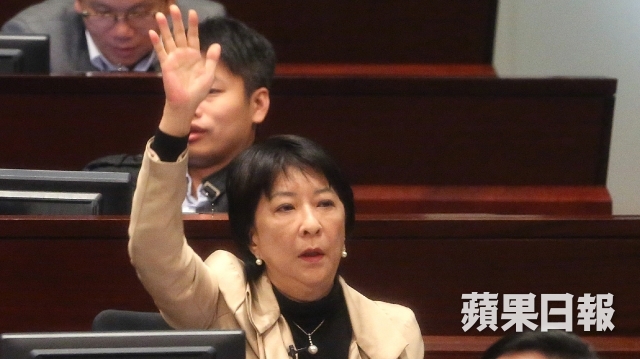
(Oriental
Daily) December 18, 2015.
Ann Chiang explained that the
situation was becoming one in which the pan-democrats had only 3 or 4
legislators left in the meeting while the rest wandered off. Meanwhile the
pro-establishment legislators all had to attend in case of a call for quorum
bell. Therefore Chiang wanted a quorum call so that the world will know that the
pan-democrats were all absent from their posts. She said that the pan-democrats
don't mind picking their paychecks but they refused to attend meetings. She said
that she has no intention herself of filibustering.
Video:
https://www.facebook.com/mm.dbchk/videos/904797039633953/ Ann Chiang
asks for a headcount because she wanted to make sure that the pan-democrats will
listen to Felix Chung's rebuttal. Felix Chung said that he only needed three
more seconds to finish his speech. Chairman Jasper Tsang said that he has to
order a quorum bell whenever a legislator makes the request. Secretary for
Commerce and Economic Development Gregory So tried hard to hold back his
laughter.

(SCMP)
December 17, 2015.
Police have found an explosive ingredient
on a 20-year old student they said was heading towards the heavily secured
rally at the Legislative Council on Wednesday.
The man was detained after police found on
him a kilogram of potassium chlorate, locally dubbed �smoke cake�, in eight
separate pieces, Senior inspector Clement Li Ka-ming of Hong Kong Island
Regional Crime Unit said. �Burning just two grams of the chemical will make
a large amount of white smoke. So you can imagine how it could stir up panic
in a crowd if 1 kg of it was burned,� Li said. It is also an ingredient in
gunpowder and fireworks and creates intense flame. Instructions to make and
use the chemical can be found on YouTube.
Police stopped the man at the
Admiralty Centre while he was walking towards the Tamar Park area where a small
gas canister was used to destroy a rubbish bin a week ago in a fiery explosion.
Police said burning just two grams of the chemical could create a substantial
amount of smoke. Lighters, surgical masks, head masks, gloves and clothes were
also found on the man.
(Hong
Kong Free Press) December 17, 2015.
Police have detained a 20-year-old
student after finding a kilogram of potassium chlorate, an explosive material,
on his person. It was discovered in eight pieces on the man at the Admiralty
Centre. He was heading to a rally at the legislature against a controversial
copyright bill, police said. The ingredient generates smoke when burned and is
used in fireworks and gunpowder. Lighters, gloves and surgical masks were also
found on the man, who was not named by police.
(SCMP)
December 18, 2015.
An Open University student, arrested for
possessing a chemical that can be used to create a smoke bomb, near the
Admiralty site of a rally against the controversial copyright bill on
Wednesday, was believed to be acting alone, police sources said on Thursday.
The force�s insiders said an initial investigation showed the Hongkonger,
20, was not linked to last week�s rubbish bin blast in the demonstration
zone outside the Legislative Council building. �So far, there is no
indication to suggest the man is a member of the �black bloc� gang [that
allegedly set off a gas canister in the rubbish bin],� a source with the
knowledge of the investigation said on Thursday
It is understood some members of the black
bloc gang, named after their preference for black clothing along with face
masks and sunglasses to conceal their identities, have been identified by
police. So far, no one has been arrested in connection with the blast.
The student, Kwan Ka-hei, was picked up
after being intercepted by police at the Admiralty Centre while he was
walking towards the government headquarters on Wednesday afternoon.
Officers found a kilogram of potassium
chlorate, locally dubbed �smoke cake� in eight separate pieces on him, along
with lighters, surgical masks, head masks, gloves and clothes. Police
arrested him for possession of instruments for unlawful purpose.
Senior Inspector Clement Li Ka-ming of Hong
Kong Island regional crime unit said burning just two grams of the chemical
could make a large amount of white smoke. It is also an ingredient used in
gunpowder and fireworks and creates an intense flame. It is understood the
chemical is also used by the film industry to make smoke. Detectives are
still investigating whether the suspect bought it online.
Officers raided his Tin Shui Wai home on
Wednesday night but no further seizure was made.
Another source said the student was among
33 people who were arrested when locals staged a protest against parallel
traders in Yuen Long in March. The protest turned violent and police had to
fire pepper spray during clashes with demonstrators unhappy that parallel
traders were disrupting their lives.
The suspect was being held for questioning
and had not been charged.
Detectives from Hong Kong Island regional
crime unit are investigating.
(Oriental
Daily) November 14, 2016.
The trial began with the defense saying
that the police found 16 smoke cakes. However, the cakes may have been
tampered with between the time of the confiscation and the time of
presentation to the laboratory. The defense also pointed out that the Crimes
Ordinance does not provide a definition for what is an explosive substance.
Normally, people believe that the substance must explode; in this case, the
smoke cakes only give smoke and do not explode. Therefore, the defendant
cannot be charged with possession of explosive materials.
According to police officer Lam Siu-on, he
was on plainclothes patrol at Admiralty and spotted the defendant looking
nervous about being followed. So Lam tailed the defendant. At one point, he
lost sight of the defendant. Eventually, he found the defendant again at
Admiralty Centre. Lam found a cut-open ski mask, which the defendant said
being used as a scarf. Lam found a lighter, gloves and several cake-like
object wrapped in plastic bags and newspapers. The defendant claimed that a
friend asked him to look after the objects, and that the cakes were mosquito
repellants used for camping. Under cross-examination, Lam admitted that he
did not seal off and sign the evidence.
(Oriental
Daily) November 15, 2016.
According to police officer Wong Wing-chi,
she held the suspected smoke bombs with her person before turned them over
to the explosives management team for analysis. The defense questioned
whether Wong had placed the evidence in a room and then left the room to
attend the interrogation. This means that the smoke cakes could have been
tampered with while unattended.
Wong said that the materials were suspected
to be explosive in nature. Therefore she kept the materials on the table and
made sure that they were not touched. She did not put the materials in an
evidence bag for this reason.
(Oriental
Daily) December 30, 2016.
The magistrate refused to accept the
defendant's claim that he was holding the materials on behalf of a friend.
Instead this was a false alibi and the defendant knew exactly what the
illicit purpose of the materials for. The magistrate also determined that
the smoke cake is a dangerous material under the relevant ordinance.
The defense pleaded that the defendant is a
third-year student majoring in quality testing at Open University with one
more year of study left before graduation. Therefore the defendant should be
allowed to take his exam and complete his studies, instead of being remanded
to custody. The defense presented a letter from a professor in praise of the
defendant's diligence and social awareness.
The defense also said that the defendant
was affected by his peers at Open University to deal a huge blow to his
family. The defendant, his parents and his two younger brothers are all
devout Christians. After the arrest, the defendant was hospitalized for
coughing blood from duodenal ulcer; his father underwent gall surgery; his
mother had colon problems and have to be hospitalized for examination.
The magistrate said that this was a serious
case that could have resulted in a jail sentence immediately. But the
magistrate decided to let the defendant post bail. However, the magistrate
won't even bother to obtain a probation report because that might give false
hope to the defendant. The magistrate said that the defendant is allowed to
finish his exams first, but jail is still possible.
Outside the courthouse, Kwan embraced a
female relative and cried.
(SCMP)
December 31, 2016.
A university student
caught with 16 �smoke cakes� in his rucksack near a protest at the
Legislative Council complex last year was found guilty of possessing an
explosive on Friday.
Open University of
Hong Kong student Kwan Ka-hei was found with the offending devices while
lawmakers inside the Legco building discussed the controversial so-called
Internet Article 23. He became the first Hongkonger convicted of the crime
over an item more akin to pyrotechnics or a firework than an explosive.
The 21-year-old failed
to convince Eastern Court that he had not known what the yellow disc-like
objects were when two police officers found them in his rucksack during a
search at the Admiralty Centre on December 16, 2015. The discs turned out to
weigh 1kg, half of which was potassium chlorate, which emits smoke when it
is lit.
Deputy Magistrate
Jacky Ip Kai-leung said the offence was serious, and that an immediate
custodial sentence was likely. But he granted bail and adjourned the
sentence to January 16 after being told Kwan had exams to attend. He sought
a background report on Kwan in the meantime.
The court heard during
the trial that the two police officers tailed Kwan after spotting him
looking suspicious near a rally outside Legco. A crowd was gathering outside
the legislature to protest against the Copyright (Amendment) Bill 2014,
fearing that it could trample free speech on the internet. The proposed bill
is commonly dubbed �Internet Article 23� in a reference to the section of
the Basic Law which deals with controversial national security legislation.
The officers stopped
Kwan on the first floor of the Admiralty Centre. In his bag, they found the
smoke cakes, as well as a balaclava, a pair of gloves and a lighter. Kwan
told them a friend had given him the smoke cakes, and he had no idea what
they were. But he later changed his story, saying they were mosquito
repellents.
Convicting Kwan,
magistrate Ip cast doubt on his conflicting accounts, adding that the
balaclava and gloves suggested the cakes were intended for illegal use.
�Those [smoke cakes] were not everyday objects... and there were as many as
16 of them,� said the magistrate. �The court is of the view that it was not
possible they were not for illegal use.�
During the trial, a
debate arose as to whether the smoke cakes amounted to explosives, as
specified in the Crimes Ordinance. A witness said that although they were
explosives theoretically, they were pyrotechnics in practice.
Ip ruled that they were dangerous, and
amounted to the level required in the ordinance.
In mitigation, Kwan�s
counsel Van Ma pleaded for a non-custodial sentence for her client, who grew
up in church. �How he was different from other young offenders is that he
had a supportive family,� she said. The counsel also noted there was no way
Kwan would know possessing smoke cakes could amount to a criminal offence,
because that was only worked out in his trial.
Videos:
(Cable
TV) News program of police transporting the arrestee.
(YouTube)
Potassium Chlorate Vs 5lb Gummy Bear
(YouTube)
Smoke Grenade Cooking CocaCola - Amazing DIY
(YouTube)
High Quality KClO3 (Potassium Chlorate) From Bleach
(TMHK
@YouTube) A citizen is filming several uniformed and plainclothes
policemen intercepting another citizen, checking his ID and backpack and asking
him why he is at Government Headquarters. The police tried to stop the cameraman
who defended his inalienable right to film.
Internet comments:
- Apple Hk Facebook
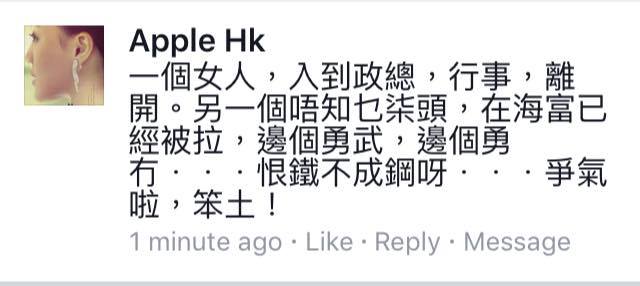
A woman enters Government Headquarters, does her thing and leaves. Another
dickhead from who knows where was arrested when he got to Admiralty Centre.
Which one is valiant? Which one has nothing? ... I wish iron could be turned into
steel ... Become better, stupid localists!
- Beware of the media taking
photos of Black Bloc demonstrators at the anti-Copyright (Amendment) Bill
demonstrations! The police can use those photos as evidence. Even
Apple Daily is doing this!
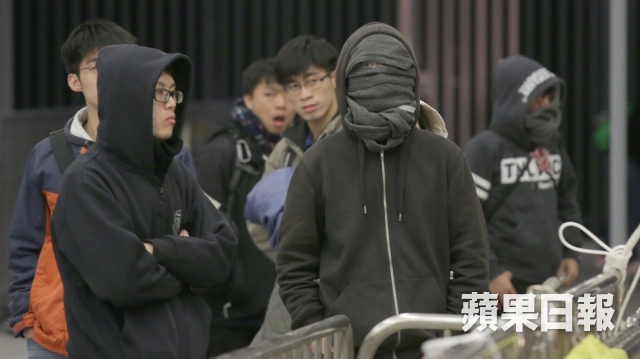
- No! That is not a Black Bloc demonstrator. That
is a Civic Passion journalist in the process of gathering news.
- This has to another false flag
operation. Even the Golden Forum boys know that the Evil/Black Police are
searching people around the Legislative Council building and Government
Headquarters. Why would anyone bring so much gear over there?
- Sample message at 11:16am on December 16 2015: "Is anyone star-gazing today?
There are many police canines at Admiralty. If you want to go, use the other MTR
stops to avoid being ticketed."
- Maybe the guy is a chemistry major at Hong Kong University?
- Maybe the guy was going to a birthday party and he was asked to bring the
candles.
- The suspect is named Kwan and he
claims to be a student. He is a radical localist. On March 1st, he participated
in the Reclaim Yuen Long demonstrators when he was arrested along with 31 others
to face charges in court. In particular, Kwan was found with a switchblade,
pepper spray, a homemade baton and a shield.
- Message from Hkwan7689 at 11:10am on December 16 2015: "Is anyone star gazing
today? There are many police canines at Admiralty. If you want to go, use the
other MTR stops to avoid being ticketed." So he knew that there was a good
chance of being searched at Admiralty. Why did he go there while carrying
potassium chlorate?
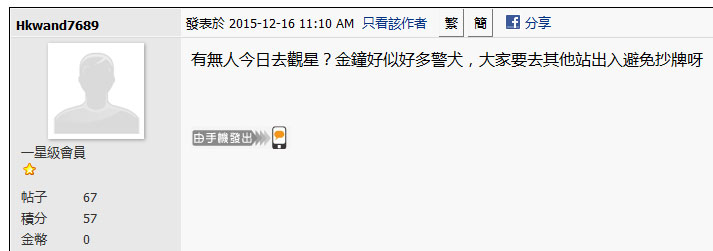
- There is nothing dangerous about
potassium chlorate. Since 2005, a cartridge with potassium chlorate
mixed with lactose and rosin is used for generating the white smoke signaling
the election of a new pope by a papal conclave.
- No, in 2013, 60% of IED's in Afghanistan used potassium chlorate.
- Potassium chlorate itself could
be used to make smoke grenades. But there was no reason to be carrying 1
kilogram of it, because that is enough material for several hundred smoke
grenades. Instead I suspect that the potassium chlorate is intended to be mixed
with other materials brought separately by other persons to be mixed together
for the Mother of All IED's.
- Kwan has said that he is a film maker, and the potassium chlorate is used to
create fog.
- You've been watching too many movies.
- No, you're the one who has forgotten to take your medicine.
- The Three Stages of Dealing with
The Incident
--- Stage 1: Denial that an
incident has taken place. Oh, he was only carrying some roman candles. Oh, he
was carrying some only sparklers. Oh, he was carrying some smoke bombs. Oh, he was carrying eight pieces of potassium chlorate weighing a total
of 1 kilogram. Oh, the potassium chlorate was to create fog for a film. Oh, the
potassium chlorate had not been mixed with other chemicals to make an IED.
--- Stage 2: I don't know him. I
have never heard of his hame. Nobody has every heard of him. If I have
communicated with him before, then he was using a nickname. If he was a localist,
then he is not a member of any known groups and he has never made any known
contribution to the Localist cause. He participated in Reclaim Yuen Long? Yes, I
admit that I was there. Even I was there, I did not run into him. Even if I did
meet him, I didn't know his name. Even if I know his name, I didn't know what he
was up to. Even if I know what he was up to, I didn't know what he was going to
do tonight. I still don't know and I don't want to know. I will try my best not
to know anything about him.
--- Stage 3: The most important
question now is: Who sent him to do this? The four most likely possibilities
are: (1) he is a lone wolf; (2) he is a dupe/stooge like
Lee
Harvey Oswald; (3) he is a false flag operative for the Hong Kong
Police/China Liaison Office to discredit the valiant localist warriors; (4) he
is a hidden member for a rival localist activist or organization (Hong Kong
Indigenous, Hong Kong Localism Power, Hong Kong City-State, Civic Passion,
"Four-eyed Brother", Leung "Long Hair" Kwok-hung, Wong Yeung-tat, Cheng
Chung-tai, CK Ho, Ray Wong, Simon Sin, Tam Tak-chi, etc). In the absence of
concrete facts, this is a free opportunity to smear whomever you want to. You
can't prove anything but neither can anyone disprove what you say.
- Kwan Ka-hei said to the
arresting police officer that he was keeping the smoke cakes on behalf of a
friend. However, he could not get the friend to come in and corroborate. In
fact, he could not even name this friend. That is why the magistrate did not
find this explanation to be credible.
- Once Kwan made the statement to
the police officer, it goes on the record. If he changes his story later, he is
admitting to having previously made a false statement to the police (which is a
crime in itself) and thus impugning his credibility on his revised story. This
is the reason why people should never tell the police anything other than one's
ID number (and it is a crime to refuse to show your ID).
- Hong Kong Indigenous' CocaCola
commercial
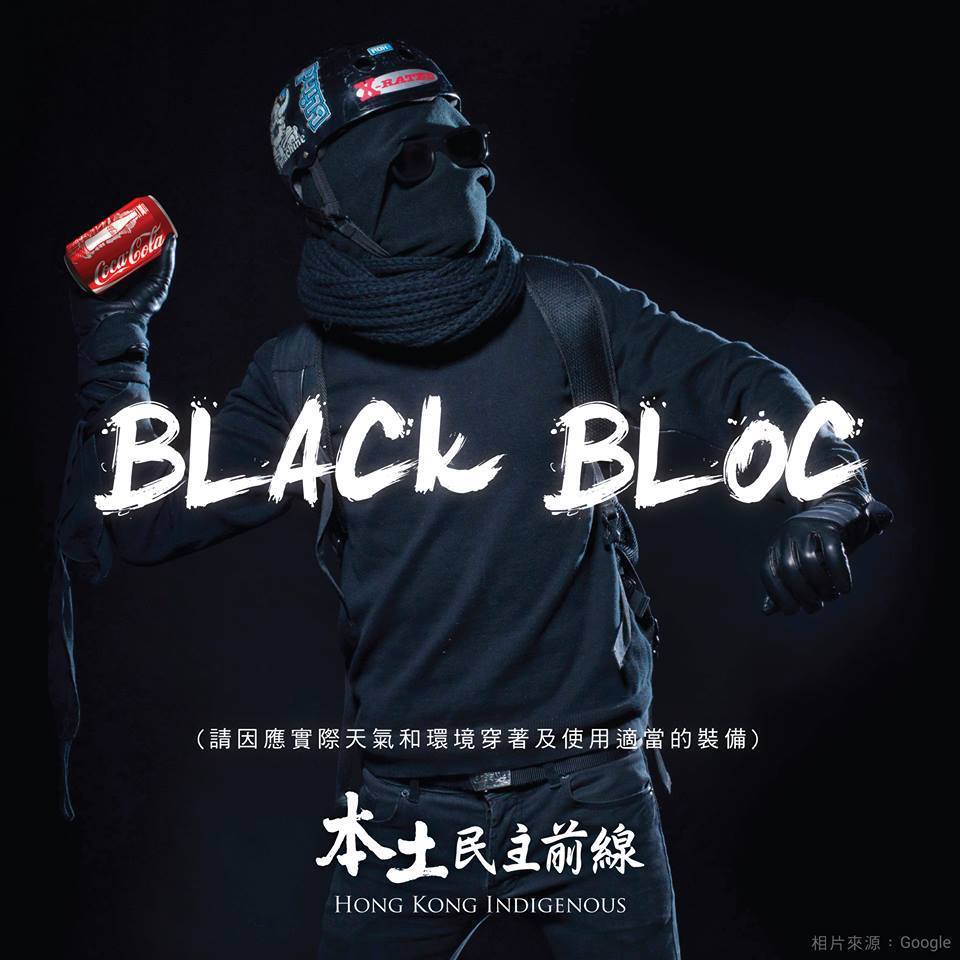
- Pssst, if you want to buy some
potassium chlorate, you can just get on Taobao. The arrestee had 8 pieces in his
backpack. It costs only 18 yuan to buy 10 pieces. But the delivery charge is 50
yuan, probably because this is hazardous material.
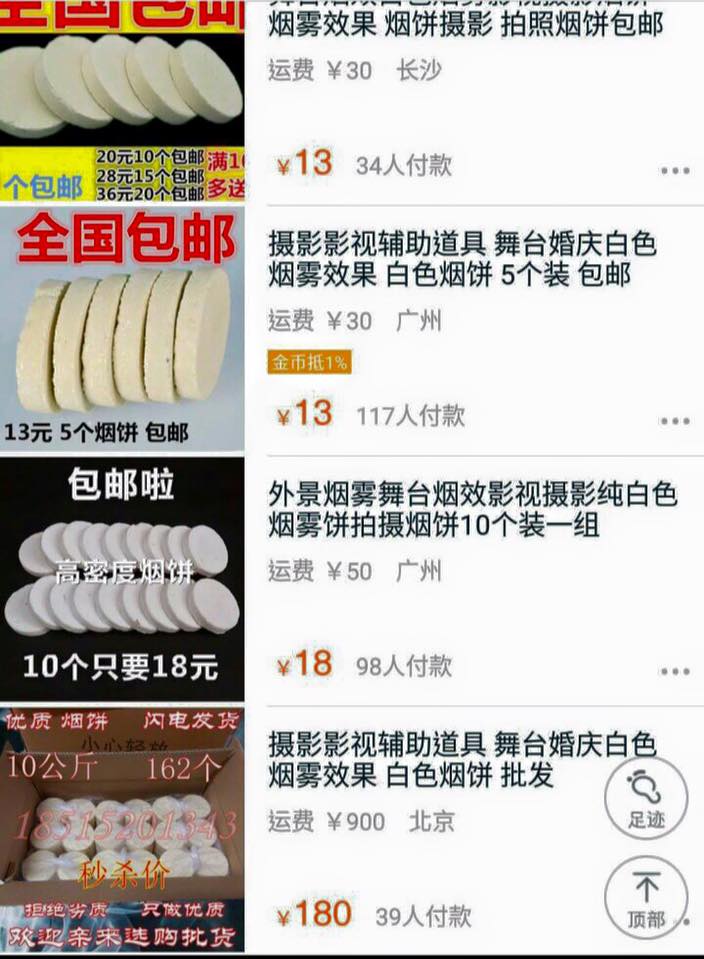
- (Apple
Daily) January 16, 2017. The magistrate said that after reading though
the background report on the defendant, he felt the defendant was not sorry at
all and made only partial statements to package remorse. The magistrate said
that community service was inappropriate, and postponed the sentencing until
February 1 pending a report from the correctional center. If the correctional
center also deems the defendant inappropriate for them, then jail sentence is
the only option left.
The defense said that the truth
was that the defendant met two weeks before the incident with a man that he knew
from a communication group and took over the smoke cakes for keeping. The
defendant did not attempt to learn about the nature of the materials. After
being arrested, the defendant learned what the materials were and that he had
broken the law, he felt very sorry. The defendant thought that he could have
been more mature and be less trustful of others.
The magistrate said that the
defendant never asked the man when he was going to retrieve the materials.
Instead, the defendant did not mind carrying the materials all day. Furthermore,
the defendant said that he went down to Admiralty Centre to meet his girlfriend.
After the incident, the defendant said that could no longer reach the man or his
girlfriend. The magistrate did not think that this was credible.
- The defendant was remanded to
custody until February 1. So far, the defendant has spent Christmas/New Year's
Day in detention. He will now spend Lunar New Year Day in detention as well.
- (Oriental
Daily) February 1, 2017.
20-year-old Kwan Ka-hei was
sentenced to 3 months in jail at the Eastern Court. Kwan was allowed to be
bailed out for $10,000 pending appeal.
The defense pleaded that the
probation report showed that the defendant was unsuitable for a correctional
centre. Furthermore the defendant is rueful now and realizes that one should not
act rashly. The defendant has the family and his church to support his
rehabilitation. If sentenced to jail, he may make some evil friends who will be
bad influence for him. Therefore the defense hopes for a suspended sentence.
The magistrate said that the
defendant claimed during the trial that he was merely keeping the material for a
friend and he does not know what the material was for. In the probation report,
the defendant changed his story to say that the smoke cakes were given to him by
another person for a war game. The magistrate said that the defendant was still
making up different stories to excuse himself even after he was found guilty.
The magistrate said that this was a serious crime in which the smoke could
affect human respiratory systems. Although the defendant had suffered from
duodenal ulcer disease, this does not mean that he should be allowed to deprive
other citizens of their peaceful living. Therefore the magistrate sentenced him
to three months in jail.
- (Hong
Kong Free Press) February 2, 2017.
A university student was sentenced to three
months in jail on Wednesday after he was found with around one kilogram of
�smoke cakes� near a demonstration at the Legislative Council Complex in
December 2015.
Handing down the sentence at the Eastern
Magistrates� Courts, Deputy Magistrate Jacky Ip Kai-leung said that the jail
time was short and �not the end of the world,� RTHK reported.
Open University of Hong Kong student Kwan
Ka-hei, 21, was convicted last December of possessing an explosive
substance, an offence under the Crimes Ordinance.
Kwan was caught with 16 yellow discs
containing potassium chlorate, which emits smoke when ignited. The court
heard that when Kwan was confronted by police, he said he had not known what
the discs were. He later told Detention Centre officers that the discs were
intended to be used during a war game that he was planning to attend on the
day of arrest.
Ip said that Kwan had never mentioned the
second version of the events during the trial, and even if he had, it would
have meant that he had known about the nature of the discs, according to
Apple Daily.
Counsel for Kwan pleaded in mitigation that
Kwan had already had a taste of life in prison during his two-week
detention, which was a �horrible experience� for him. The student was also
concerned that he would face negative peer influence in prison.
But the magistrate rejected the plea,
saying that Kwan could decide whom to befriend in prison and fearing bad
influence from fellow prisoners did not justify a suspended sentence.
He added that the background report suggested Kwan displayed only
�superficial remorse� over the offence.
During the trial, there was a lengthy
debate as to whether the smoke cakes amounted to explosives as defined by
Hong Kong laws. The Dangerous Goods Ordinance defines explosives as
substances �used or manufactured with a view to producing a practical effect
by explosion or a pyrotechnic effect.�
An expert witness testified that the smoke
cakes had a pyrotechnic effect and therefore amounted to �explosives� under
the law. But counsel for Kwan argued at the time that the witness, summoned
by the prosecution, arrived at the conclusion before analysing the chemical
composition of the smoke cakes.
A second expert witness from the Explosive
Ordnance Disposal Bureau tested Kwan�s smoke cakes and concluded that they
could not explode, Apple Daily reported.
Ip eventually ruled that the chemicals were
dangerous enough to constitute a crime in the Crimes Ordinance. He described the
offence of possessing explosive substances as �serious� and that the law imposes
a harsh sentencing over such cases.
(Hong
Kong Free Press) December 16, 2015.
Complaints against two pan-democrat camp
lawmakers who failed to disclose donations totalling HK$2 million from media
tycoon Jimmy Lai Chee-ying has been found to be unsubstantiated by a
Legislative Council committee.
The Committee on Members� Interests voted
by 4-3 on both the cases of Lee Cheuk-yan of the Labour Party and �Long
Hair� Leung Kwok-hung of the League of Social Democrats, in favour of the
two lawmakers. The committee found that neither had broken any rules
of procedure in accepting the sum. The votes were originally tied by 3-3
between three pro-Beijing and three pan-democrat camp lawmakers but � as
committee chairman � Ip Kwok-him was obligated to vote against
the complaint.
The committee ruled that Lee and
Leung, who received HK$1.5 million and HK$500,000 from Lai respectively,
accepted the sums on behalf of their parties, rather than as lawmakers in their
personal capacities. Thus they need not have declared the donations.
The probe began after the committee
received 15 complaints from the public, and a complaint jointly lodged by
five Federation of Trade Unions lawmakers in July and August 2014. The
complaints referred to a number of news reports which revealed that Lai had
deposited money to Lee and Leung�s bank accounts.
Lee received donations of HK$500,000 in
October 2013 and HK$1 million in July 2014 from Lai. Leung received
donations of HK$500,000 in October 2013 from Lai. Lai put the names of Lee
and Leung, rather than their parties, on the bank cashier orders as the
recipients.
In the report published by the committee,
Lai said that the donations were handled by his assistant Mark Simon and
that he �had completely no idea� why the recipients were the lawmakers,
instead of the parties. Simon was not invited to testify at the committee. A
vote on whether to hear from him was also tied 3-3 and chairman Ip Kwok-him,
was again obliged to vote against the motion, according to committee rules.
Lee said that the first donation was for
the Labour Party to fund a new social enterprise, and formed part of
several regular donations from Jimmy Lai. Lai told the committee that the
increase in the amount of the second donation in 2014 was because he
realised the Labour Party had gained more seats in the Legislative Council.
Lee kept the first HK$500,000 donations in
personal accounts for eight months before transferring to his party�s
account in July 2014. Lee said that he did not make any personal gain, such
as from investments, during the period.
The committee said that there was no
evidence showing that Lee had eventually transferred the interest income
accrued from the two donations during the period to the his party�s account.
However, the Labour Party�s Cyd Ho Sau-lan, said that she believed the bank
interest during the period was only a few dozen Hong Kong dollars. Leung
Kwok-hung said the donation he received was meant for his party, and
was used to cover part of the legal costs of a party member�s court case.
Internet comments:
- More questions than answers came with the
publication of the Committee of Members' Interests.
With respect to Lee Cheuk-yan,
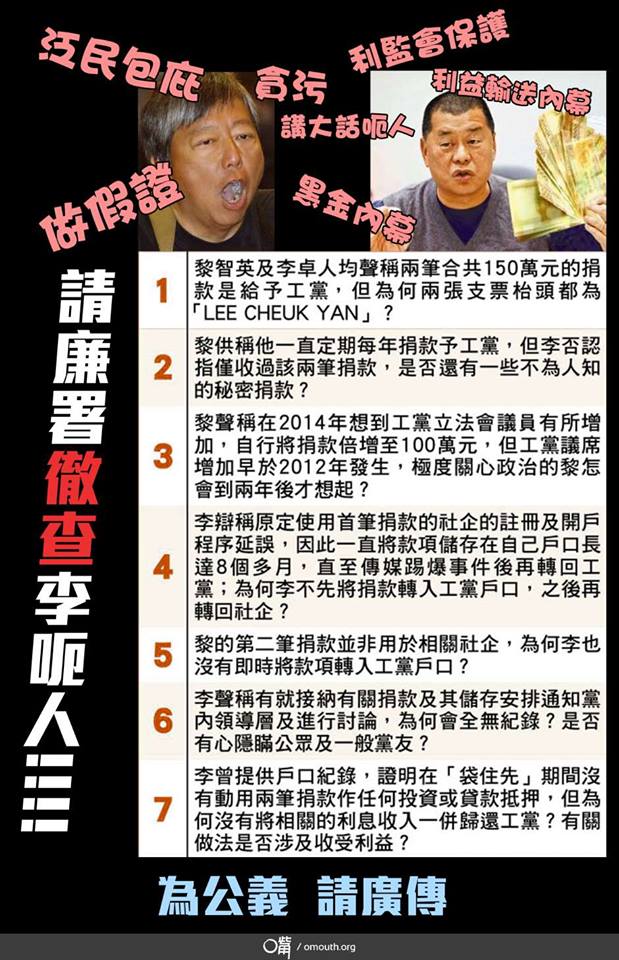
Q1. Jimmy Lai and Lee Cheuk-yan both
claimed that the two sums totaling $1.5 million were given to the Labour
Party, so why is Lee Cheuk-yan the payee on the two checks?
Q2. Lai said that he has been making annual
donations to the Labour Party, but Lee said that only two donations were
received. Were there even more secret donations?
Q3. Lai said that he realized in 2014 that
the Labour Party had more legislators than before, so he increased the
donation amount from $500,000 to $1 million. But the Legco election was held
in 2012. How can the politically savvy Lai realize that fact only two years
later?
Q4. Lee explained that the social
enterprise had delays with registering and setting up bank accounts, so he
kept the money in his personal account for more than 8 months. When the
media revealed the situation, he transferred the money back to the Labour
Party. Why didn't Lee just transfer the money in the very beginning, and
then transfer to the social enterprise when ready?
Q5. Lai's second donation was not
designated for the social enterprise. So why didn't Lee immediately transfer
the money to the Labour Party?
Q6. Lee said that he notified and discussed
the receipt and deposition of the donations with Labour Party leaders. But
why are there no meeting minutes? Were they intentionally keeping the public
and the ordinary Labour Party members in the dark?
Q7. Lee provided information on his account
to show that he did not use the two donations for any investment or mortgage
purposes during the period. But why didn't he pay the bank interest to the
Labour Party as well? Isn't this personal gain?
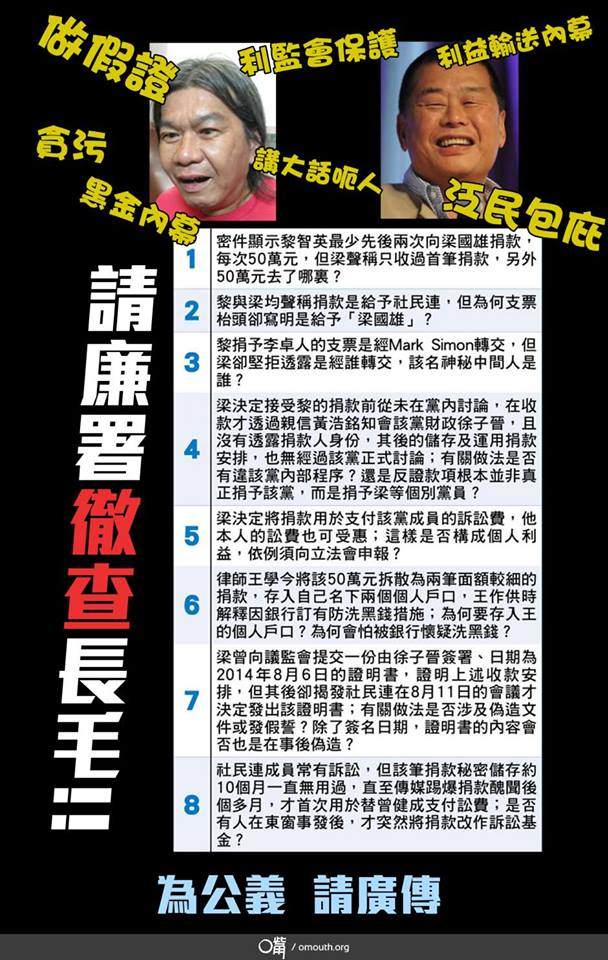
Q1. The secret documents showed that Jimmy
Lai donated at least twice to Leung Kwok-hung, each time $500,000. But Leung
said that he received only the first donation. Where did the other $500,000
go?
Q2. Lai and Leung both said that the
donation was intended for the League of Social Democrats. But why was "Leung
Kwok-hung" the payee on the check?
Q3. Lai's checks for Lee Cheuk-yan was sent
through Mark Simon, but Leung refused to divulged who gave him his check.
Who is that mysterious middleman?
Q4. Leung decided to accept the donation,
but he never discussed this within his party. After he got the money, he
notified the treasurer Tsui Tsz-chun indirectly through his trusted follower
Wong Ho-ming. He also did not identify the donor. The deposit and spending
of the sum was not discussed inside the party either. Is this how the party
operations? Does this prove the money was never intended for the party but
rather for individual party members such as Leung only?
Q5. Leung decided to use the donation to
pay for the legal fees for party members, including himself. Isn't this a
personal benefit that should be reported to the Legislative Council?
Q6. The lawyer Wong Hok-kam split the
$500,000 into two small amounts of donations to deposit into his own
personal account. Wong testified that this was because the bank has
procedures against money laundering. Why deposit into Wong's account? Why
are they afraid of being suspected of money laundering?
Q7. Leung submitted a copy of a statement
signed by Tsui Tsz-chun dated August 6 2014 to to verify the financial
arrangements. But the League of Social Democrats actually met on August 11
2014 to decide to issue this statement. Isn't this falsifying documents
and/or testimony?
Q8. The League of Social Democrats members
are frequently embroiled in lawsuits. But this secret donation was not used
for more than ten months until the media reported its existence. Then the
money was used to pay for the legal fees of Tsang Kin-shing. Was the
donation used this way only after the media reports?
- What is it about human relations? Where
are the basic manners, such as saying thanks?
(Oriental
Daily) When asked why the checks were written to Lee Cheuk-yan
instead of the Labour Party, Jimmy Lai testified that those donations were
regular and recurrent, with the details being handled by Mark Simon. Lai
does not need to know those details. Emily Lau asked: "You are wonderful,
Mr. Lai. You unilaterally increased the amount of the donation to them from $500,000 to $1 million. Did they communicate with you afterwards to say thank you?" Lai
replied: "I have never received a 'thank you' from them."
- (Wen
Wei Po) December 20, 2015.
According to the committee report, Lee
Cheuk-yan was asked many times why he accepted a cashier cheque to his name
and didn't transfer the money to the Labour Party account. He said that the
money was destined for a social enterprise and he didn't want to go through
the trouble of transferring the money back and forth.
Lee Cheuk-yan was asked if he had received
other donations on cheques written to him and not the Labour Party. Lee
admitted that he has received such donations: "Some people wrote my name
down as the payee, but they told me that it was intended for the Labour
Party ... I transferred the money immediately to the Labour Party." But why
can he transfer small donations immediately, but he has to "pocket the large
donations first"? He said: "Why was it different so time? Because it
was truly a large sum. The small amounts can be transferred to the Labour
Party ... the large donations ... we in the standing committee ... that is,
we have a system in which the committee members have to discuss ... then ...
including the treasurer and the vice-chairpersons ... we have to discuss
together. Therefore we need to have everybody to discuss the large
donations."
Yes, that clears things up ... NOT!
- Oriental Daily front page,
December 17 2015

Lee Cheuk-yan: I don't have to answer to the public.
(MM@DBC.HK)
December 15, 2015.
DAB legislator Ann Chiang at the
Legislative Council:
Different doctors are ... the most
problems show up ... those with mental problems ... do you know who they are?
They are the psychiatrists, Chairman? Why? Because the psychiatrists sit there
and listen too much to what the mental patients are saying. As they listen, they
end up as mental patients. Chairman, I asked ... some of the previous
legislators ... I asked, "Did you filibuster this way before?" No. Right now
they talk so much rubbish during filibustering. Okay? Sometimes legislators have
to go out and take a fresh breath of air. If they don't go out for the fresh
breath of air, they will all wind up with the Stockholm Syndrome like you,
Chairman.
(EJ
Insight) December 17, 2015.
A Hong
Kong lawmaker is under fire for comparing opponents of a controversial
copyright amendment bill to a mental patient who could drive psychiatrists
insane.
The Hong Kong College
of Psychiatrists (HKCPsych) is accusing pro-Beijing lawmaker Ann Chiang of
making derogatory and untrue remarks, Apple Daily reports.
These have no place in a civilized society and highlight the need to address
negative stereotypes about sufferers of mental illness, the group said in a
statement.
Chiang
said filibustering lawmakers are �like patients with mental illness� and
pro-establishment lawmakers are �like psychiatrists who are forced to listen
to them and could end up being as insane as them�. As a result,
psychiatrists are more likely to suffer from mental disorder than others,
she said. Chiang was speaking during a reading of the draft bill in the
Legislative Council on Wednesday.
HKCPsych president Eric Chan demanded a retraction from Chiang and
an apology to psychiatric patients and doctors.
(Hong
Kong College of Psychiatrists)
Press Release on December 16, 2015.
We regret to hear that an honourable member
of the legislative council expressed an untrue and derogatory statement
about psychiatrists and patients with mental health problems. This unfounded
statement is discriminatory to both doctors and the over 200,000 patients
receiving treatment and would deter many others from receiving help. We
express our strongest condemnation over this incident. This sad event has no
place in a civilised society and highlights the urgent need for work to
tackle negative perception about mental illness and professionals that work
in the area.
(SCMP)
December 18, 2015.
Three local medical professional
associations have condemned a lawmaker�s remarks which they said disparaged
mentally ill patients and those tending to them, prompting her to express
regret.
Without naming Legislative Council member
Ann Chiang, who spoke yesterday at the chamber, the Hong Kong College of
Psychiatrists said it regretted hearing an �untrue and derogatory� statement
from a lawmaker about psychiatrists and patients with mental health
problems.
During a Legco discussion of an amendment
to the pending copyright bill, Chiang said many psychiatrists suffered from
mental problems after listening excessively to their patients. �Do you know
who most suffer from mental problems? It�s psychiatrists, Mr President,�
Chiang said. �Why? Because psychiatrists sit and listen too much to patients
with mental problems. Listen and listen, they themselves become mental too,�
she added. The pro-Beijing lawmaker delivered the remarks when she urged
Legco president Tsang Yok-sing to halt a filibuster attempt by
pan-democrats. She said she had suffered from listening to too much
�rubbish� coming from the pan-democrats.
The college said Chiang�s statement was
unfounded and discriminatory towards both doctors and the city�s more than
200,000 mental health patients. The group also said her remarks would deter
many from receiving proper treatment. �We express our strongest condemnation
over this incident,� the college said. �This sad event has no place in a
civilised society and highlights the urgent need to tackle negative
perceptions about mental illness and the professionals that work in the
field.�
The Hong Kong Medical Association also
criticised Chiang for her remarks, calling them untrue and misleading. The
professional body said the lawmaker was contributing to misconceptions about
patients with mental illness. �It is impossible for symptoms [of mental
illnesses] to be transmitted through conversation,� the association said.
The association said the lawmaker�s statement that psychiatrists were most
likely to suffer mental problems was disrespectful to those in the health
profession. �Chiang�s remarks that people could get mental problems by
listening extensively to patients were inappropriate and insulting,� the
association said. �This could also hinder patients� recovery.� �Patients
with mental illnesses need to speak more with those surrounding them.�
A third medical group, the Hong Kong
Academy of Medicine, of which the College of Psychiatrists is a constituent
institution, said it regretted hearing Chiang�s remarks and supported the
college�s response. �The remarks were untrue, derogatory, unfounded, and
would deter patients from receiving assistance that they need,� the academy
said. �Children and adults with mental illnesses and behavioural issues need
care and understanding from our community,� it added. �Health care workers
caring for them deserve the best support.�
After the criticism, Chiang sought today to
put her words yesterday in context and express regret. She said her remarks
arose from frustration with pan-democratic lawmakers. �What I said yesterday
was only meant to express my emotions,� Chiang said on the sidelines of
Legco proceedings. �It was not my intention to label or disparage anybody.�
�If my words were offensive or hurt anyone, then I am very regretful,� she
said. Chiang pledged to arrange a meeting with the college and association
�to explain her stance�. �I will continue to serve the people, especially
the underprivileged, with a spirit of sincerity and responsibility,� she
added.
(SCMP)
A Hong Kong lawmaker�s ill-advised words in a Legco madhouse. By Alex Lo.
December 19, 2015.
ems, the Democratic Alliance for the
Betterment and Progress of Hong Kong lawmaker has upset not one, not two but
three of Hong Kong�s most prestigious medical groups: the College of
Psychiatrists, the Medical Association and the Academy of Medicine.
In a masterful understatement, the
association has pointed out the obvious: mental illnesses cannot be
transmitted through conversation, as Chiang claimed.
To be fair, she wasn�t targeting
psychiatrists but some pan-democrats who were busy filibustering against the
government�s copyright bill in the Legislative Council. And studies in the
US and Britain have found that psychiatrists in those countries do suffer a
greater incidence of mental health problems than the general population,
though the causes have nothing to do with Chiang�s claims.
�Do you know who most suffer from mental
problems? It�s psychiatrists,� she said.
�Why? Because psychiatrists sit and listen
too much from patients with mental problems. Listen and listen, they
themselves become mental too.�
Likewise, listening to pan-dem�s
filibustering �rubbish�, she said, is driving people nuts.
That�s certainly an unfortunate and
ill-advised comparison.
She should have left out psychiatrists and
their patients. Shrinks may get bored listening to their patients, but it�s
a stretch to claim they are driven crazy by just listening. I am sure such
professionals have coping strategies.
However, Chiang would not have been wrong
if she had compared Legco to a madhouse. Certainly, not a few of its
members, including some of her own party colleagues, are nuttier than most
fruitcakes.
Her pan-democratic rival, the self-styled
�mad dog� Wong Yuk-man, does seem to have some serious anger management
issues.
Chiang has rightly expressed regrets for
her ill-considered remarks, and has offered to meet representatives from the
three medical groups.
It�s not clear whether any of the
professional groups will meet her. My guess is that they will not bother
after issuing their strongly-worded criticism without directly naming her.
But I think they should, so as to offer
professional help. She sounds like she needs it.
(EJ
Insight) December 24, 2015.
A survey
has shown that most psychiatrists enjoy the relationships with their patients,
contrary to what a pro-Beijing lawmaker suggested last week when she took some
jibes at filibustering colleagues.
More
than 80 percent of practicing and training psychiatrists interviewed by the
Hong Kong College of Psychiatrists (HKCP) said they enjoy listening to their
patients and that they are often inspired by their patients� experience.
The
survey also found that nearly 75 percent of the respondents were concerned
about negative media coverage on mental patients.
Six in
ten said they feel frustrated about their patients not being treating equally
in the society.
Chan
Kit-wa, a clinical assistant professor at the Department of Psychiatry of the
University of Hong Kong, noted that one of her patients has successfully found
a job as a paramedic for the elderly after five years of treatment.
The
result is very comforting, she said.
The HKCP
survey was carried out on email between December 19 and 21. A total of 339
practicing and training psychiatrists were interviewed.
The
exercise was undertaken after DAB lawmaker Ann Chiang said on Dec. 16 that
psychiatrists are more likely to suffer from mental disorders than others as
they have to constantly listen to troubled people.
She made
the comment in the Legislative Council, using it as a metaphor to criticize
pan-democratic lawmakers who repeatedly called for a roll call to see if there
was a quorum as they attempted to stall a debate on a controversial copyrights
amendment bill.
HKCP
took umbrage at the reference, slamming the comments as unfounded and
discriminatory.
Internet comments:
- Joshua Wong and Oscar Lai of
Scholarism via Facebook:
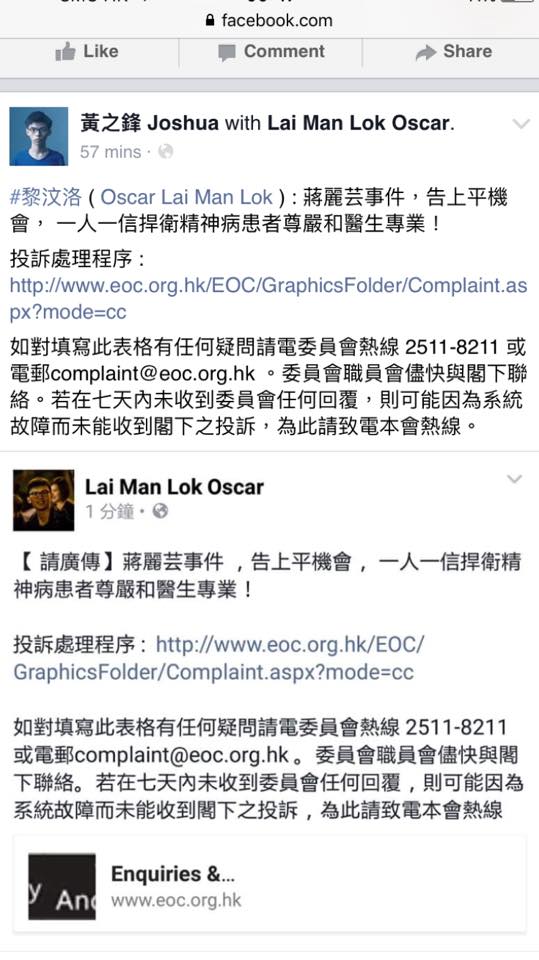
On the Ann Chiang affair, please file a complaint with the Equal
Opportunities Commission to defend the honor of mental patients and the
professionalism of psychiatrists!
- Duh! Please read
CAP 382 Legislative Council (Powers and Privileges) Ordinance:
Section 3: Freedom of speech and
debate
There shall be freedom of speech and debate in the
Council or proceedings before a committee, and such freedom of speech
and debate shall not be liable to be questioned in any court or place
outside the Council.
Section 4: Immunity from legal
proceedings
No civil or criminal proceedings shall be instituted
against any member for words spoken before, or written in a report to,
the Council or a committee, or by reason of any matter brought by him
therein by petition, Bill, resolution, motion or otherwise.
This is coming from Joshua Wong who wants to become a
Legislative Councilor (see
#344).
- You can dislike Ann Chiang. You can decide that what she
said makes no sense. But she was duly elected in 2012 to become a member of
the Legislative Council and therefore her powers and privileges are
guaranteed under CAP 382. If you want to change that, you can vote
against her in the 2016 Legislative Council elections. Or you can try to
amend CAP 382 and remove the sections that upset you.
- (Kinliu)
The Burden on the Treasury. By Chris Wat Wing-yin.
How awesome is the job of Legislative Councilor? Let us
enumerate the ways.
A Legislative Councilor earns $1.32 million in salary and
subsidies per year. That is around $110,000 per month. The term is for four
years. Afterwards, you receive a payment equal to 15% of your total pay.
This means getting another $700,000 after screaming and howling for four
years. During these four years, there is a three-month summer vacation
during which you do nothing while continuing to get paid.
There are other indirect subsidies. For example, you get
medical subsidies to the amount of $32,000 per year adjustable to inflation.
A Legislative Councilor also receives $2.4 million to hire
assistants and rent offices. This is enough to hire about 7 assistants to
take care of all your needs. There is another $250,000 to purchase IT
products, in addition to another $200,000 for those assistants after you
leave your job in four years' time. There are also long-term service
payments for your assistants.
The aforementioned salaries, entertainment subsidies and
medical subsidies are automatically adjusted to inflation without any
oversight. The adjustment this year was 2.5%. Your 15% in four years' time
also goes up because you are getting paid more.
This is not everything. Some of the legislator councilors
have been receiving astronomical sums in secret donations. But you can't
ask, because they will growl at you: This is none of your business! So we
don't know what the whole truth is.
What do you have to do in return for this awesome pay
package?
You yell a few obscenity-laced slogans, you raise your
cardboard placards a few times, you toss a banana, you throw a cup, you
spread some ghost money and your mission is accomplished. Or else you don't
even bother, because you can just sit in your Legco seat to watch adult
videos, or track the stock market, or read Facebook, or play with whatsapp.
If you are even lazier, you don't even show up for Legco meetings, or else
you show up for a short while and then leave before the meeting is over.
Nobody here cares whether you show up or not, whether you come late or
depart early. This may be called the Hong Kong Legislative Council, but it
is actually a chicken coop with open doors.
It is no wonder that the pedestrian overpass at the
Legislative Council building has developed a crack. It might as well as
collapse given the rot inside.
(Oriental
Daily) Winter For Hong Kong Tourist Industry. December 12, 2015.
The Hong Kong SAR announced that
the overall number of tourists visiting Hong Kong fell down by 10.4% compared to
last November. In particular, mainland tourists dropped by 15.4% and those
mainland tourists on multiple-visit-permits dropped by almost 40%. Meanwhile
non-mainland tourists increased by 7.6%.
Internet comments:
- Thanks for the good news! The
Reclaim XXX demonstrations have worked perfectly. The mainland locusts are
beginning to understand that the people of Hong Kong hate them, and so they are
not coming. We'll keep our hostile spirits up until the number of mainland
tourists drops to zero!
- Thanks for the bad news! When
there are fewer tourists, the tourist, retail and restaurant industries get
slammed. Some of the 500,000+ persons employed in those sectors will be laid off
after the Lunar New Year (because businesses will hold on through the holidays
and make their final runs, and traditionally April-July are the worst time of
the year for those industries).
- Thanks for the good news! We are
getting rid of the numerous cheapskate mainland visitors who come here to buy
toilet paper and laundry detergent. Instead we see an increase of 7.6% in
non-mainland big spenders from the United States/Europe.
- Thanks for the bad news!
According to the
Visitor Expenditure Survey for the 1st Quarter 2015, the per-capita
spending of visitors by place of residence is:
Mainland China: $2152
Singapore: $1782
Malaysia: $1640
United Kingdom: $1628
Taiwan: $1616
Japan: $1504
Thailand: $1466
USA: $1320
Australia: $1227
And if you want it broken out by
overnight versus same-day
Overnight visitors
Mainland China: $3885
Taiwan: $3316
United Kingdom: $2899
Singapore: $2895
Malaysia: $2563
Thailand: $2391
Japan: $2275
USA: $2268
Australia: $1923
Same-day visitors
Mainland China: $861
Singapore: $496
Australia: $474
Japan: $445
Malaysia: $443
USA: $441
United Kingdom: $436
Thailand: $434
Taiwan: $258
We are getting rid of the
highest-spending tourists.

(Wen
Wei Po) December 13, 2015.
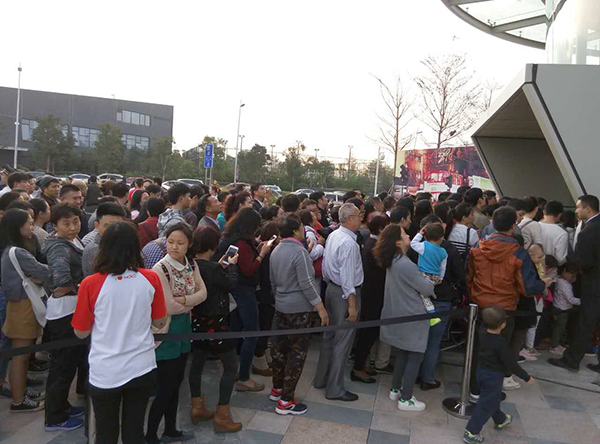
The Chow Tai Fook Shopping Centre
opened in Qianhai (Shenzhen) on December 7. This is welcomed by the residents of
the Pearl River Delta because they know that they no longer have to waste time
and money to travel to Hong Kong to shop, plus being harassed by anti-parallel
trade demonstrators. So this 7,000-square meter shopping centre with 21 Hong
Kong stores will be a new option for them. On the weekend, our reporter observed
that the shopping centre was crawling with people waiting to get in. According
to the Chow Tai Fook Shopping Centre, 150,000 people entered the shopping centre
between 10am and 8pm on Saturday. On Sunday, the human traffic is expected to be
even higher. The shopping centre had to employ crowd control procedures to make
people queue up and admit a small number of customers inside at a time. Parking
lots were also overflowing, as one customer said that he had to park more than
1,000 meters away.
According to the cosmetic store
SaSa, their merchandise is about 10% more expensive than in Hong Kong but they
are offering a 5% discount. So prices are about the same. On the weekend, their
sales were about $150,000 per day.
According to jeweler Chow Tai Fook,
they are offering a 15% rebate on purchases over $1,000. They have also
dispatched 30 to 40 employees from other stores in Guangzhou and Dongguan to
help out in Qianhai.
According to logistics company Wan
Hai Feng, their customers can come down to their store to look at samples of
chocolate, beverages, biscuits, etc and place order. Prices are about 5%-10%
higher than in Hong Kong because they have to add delivery costs. They have
three cashiers, but there was still a 100 persons or so on waiting to be served.
They have already posted hiring notice for more cashiers.
Internet comments:
- Thanks for the good news! The
Locusts are now staying home to shop in Locust Land. They won't be coming down
to Hong Kong to urinate/defecate in the streets.
- Thanks for the bad news! They
are going to have to close down some of the Chow Tai Fook's, SaSa's and CRCare
stores in Hong Kong. Those employees who are let go won't be hired in Shenzhen
because of wage differentials. The stores don't care, because their profit
margins will be even higher for they are paying mainland wages and rents but
charging higher than Hong Kong prices. The Hong Kong employees are fucked.

(Oriental
Daily) December 14, 2015.
During 2015, McDonald's opened 7
news stores in Hong Kong, but also closed 7 old stores. Next year, they plan to
open 10 more new stores in addition to the 237 existing stores. The worker force
will total 15,000. In the past, they hire about 5,000 new employees per year.
Next year, they expect to hire between 8,000 to 10,000 new employees.
Internet comments:
- Thanks for the good news! WHILE
many of those in the tourism, hospitality and retail industries will be losing
their jobs due to the decrease in mainland tourists, they will be able to
find gainful employment at McDonald's.
- Thanks for the bad news! Do you
know what a
McJob is?
McJob (sometimes called joe job)
is slang for a low-paying, low-prestige dead-end job that requires few skills
and offers very little chance of intra-company advancement. The term McJob comes
from the name of the fast-food restaurant McDonald's, but is used to describe
any low-status job � regardless of the employer � where little training is
required, staff turnover is high, and workers' activities are tightly regulated
by managers.
When Big Mac says that they expect
to hire a lot more, it means that they will cut hours to make sure that they
don't carry full-timers who receive company benefits. It does not mean that work
will be easier and happier because more people are working and sharing the load.
It means that there will be fewer people than any time, everyone will be working
harder but they still won't get enough work hours to become full-timers. As a
result, many will quit to be replaced by fresh recruits.
- The reason why McDonald's hire
so many people each year is that the turnover is high. After all, nobody wants a
low-paying, dead-end and micro-managed job. If they've never done it before,
they can try it and they will quit in a few days. If they've done it before, they must be
unemployable everywhere else before they come back for another stint.

(Oriental
Daily) December 14, 2015.
The Hong Kong Police has issued
reports to the Legislative Council about the financial situations of their
foundations: The Police Children's Education Trust, the Police Education and
Welfare Trust and the Police Welfare Fund.
The report on the Police
Children's Education Trust shows that the income for 2014/2015 was $8.64 million
against spending of $5.65 million for a surplus of $2.99 million, compared to
$290,000 in 2013/2014. Donations were $5.03 million compared to $3.00 million
before.
The report on the Police Education
and Welfare Trust shows that the income for 2014/2015 was $9.31 million against
spending of $2.24 million for a $7.07 million surplus, compared to a loss of $260,000 in
2013/2014. Donations were $7.9 million compared to $816,000 before.
The report on the Police Welfare
Fund shows that the income for 2014/2015 was $68.12 million compared to spending
of $39.59
million. Donations went to $43.646 million from $9.882 million before.
During Occupy Central, many
members of the public donated money to these three funds. The donations included
many small amounts from many different people.

(Occupy
Central with Love and Peace) An Interim Report on Fundraising and
Expenditures
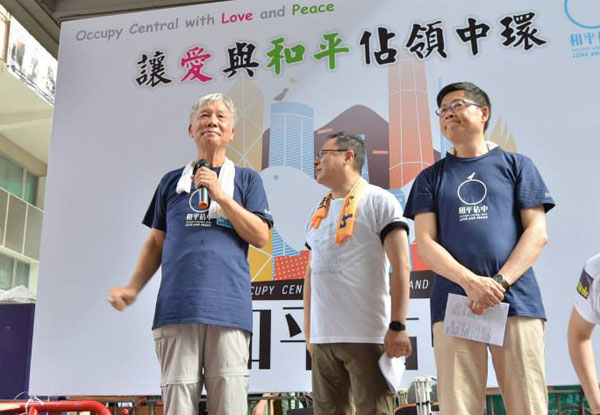
We are deeply grateful to our supporters
and friends for your generous support which makes it possible for us to
carry out our work smoothly in the past year. Many of you have made
donations (some of you more than once) to support our work in the
Deliberation Series (DDay 1, 2 and 3, and D-Polls), promotion among the
public on why we need genuine universal suffrage in the Chief Executive
Election, Referendum, etc. While many others dedicate a lot of their
valuable time to help as volunteers so that we may keep our expenditures at
a low level without compromising the quality of our work. And there are
others who keep us going by their encouraging words and invaluable comments
and suggestions.
To all of you, we owe you a big THANK YOU.
We promised to update you on the progress
of fundraising and the position of expenditures. Below is our interim
report:
From the launch of the movement in March
2013 up to February 2014, we have raised about HK$5.3 million.
For the same period, the total expenditures
are about HK$2.3 million. The major items of expenditures are as follows:
Deliberation Series
Approx. $840,000
﹣DDay 1 (9 June 2013), mainly rentals
﹣DDay 2 D-Poll (Sept 2013), meeting rentals,
﹣Electronic voting (21-23 Feb 2014), video and other promotions
2014 New Year Day Trial Referendum
Approx. $300,0000
Promotion and Publicity Work
Approx. $600,000
﹣2 rounds of newspaper advertisements
﹣Video production
﹣Leaflets, postcards etc
Sales Items Procurement
Approx. 230,000
﹣Books, T-shirts, cotton bags sold at 1
July and New Year Day March
Event Costs
Approx. $200,000
﹣1 July and New Year Day March
(including $110,000 to 民陣)
﹣Fundraising events (dinners, 文化沙龍)
Staff & Administrative Costs
Approx. $100,000
Facilitators Trainings
Approx. $50,000
﹣Mainly rentals
TOTAL
Approx. $2,320,000
The first financial report will cover the
period from the launch of the movement to 30 June 2014, and will be audited
by an independent auditor.
Dated 9 March 2014
Internet comments:
- This is the end of the calendar year
2015. What kind of auditor is unable to produce an audited financial report
fully eighteen months after the end of the financial report period
(June 30, 2014)? This period does not even cover the Umbrella Revolution
period which is considered to have begun on September 28, 2014 or
thereabouts. Can it be that complicated? Can it be that difficult?
- P.S. This is written on December 31,
2016. There is still not audited financial report fully thirty months after
the end of the financial report period (June 30, 2014).
- Back on August 13, 2015, Wen Wei Po said
that Benny Tai withdrew a total of $778,658 from the Occupy Central bank
account. Lawyer Henry Tang also withdrew $1.5 million. Was that for legal
fees for a 'volunteer' lawyer? There has been no comments from either Tai or Tang
on these actions.
- We want a genuinely audited financial
report for Occupy Central with Love and Peace! Or else we won't let them
have either Love or Peace!
- So far it has been one excuse after
another being offered by Benny Tai. First, he said that the financial report
will be issued after the vote on constitutional reform for Chief Executive
election. After the bill was vetoed in June 2015, he said that the auditor
has to resolve some issues first. When that seemed to take too long, he said
that he did not want to interfere with the appointment of Johannes Chan as
Hong Kong University pro vice chancellor. Now that Chan did not get the job,
he has not said anything more. When pressed, he will probably say that he
wants to wait on the cancellation of the Primary 3 TSA or the vote on the
Copyright (Amendment) Bill 2014 or the 2016 Legislative Council elections or
the 2017 Chief Executive elections.
- Benny Tai thinks that if he waits long enough, you will forget.
- If there wasn't any fatal flaws, the
financial report would have been released a long time ago. The problem must
be so serious that no auditor is willing to lie to cover it up.
- What are the problems? For example, at
the
Occupy Central with Love and Peace website, they said they will need
about $10 million and so they want citizens to donate money to them. On one hand,
they need to show that the movement has broad support. On the other hand,
they don't want to be accused of being controlled by a small number of major
donors. Therefore they wanted to set the maximum donation to between $5,000
and $10,000. "In the next stage, OCLP will announce the arrangements about
donations. All management and spending of the donations will be handled by
professionals in a transparent manner." So what happens, for example, if
there was a $5 million check from an anonymous donor among the $5.3 million
in total donations? That would be a publicity problem, right? This
mega-donor will also boost the average amount of donation up to an
incredible amount (e.g. $8,542 per donor).
- (Kinliu)
January 15 2016. On the day before yesterday, our reporter asked Benny Tai
about the accounts. He has a new excuse now: "Our accountant is a volunteer.
He may be seeking help from others. In any case, progress is slow." When
asked why progress was slow? Benny Tai shrugged his shoulders and said:
"I've waited very long myself" and "I have asked why it is taking so long. I
am waiting for the report from the accountant." What is the accountant
waiting for? Benny Tai did not provide a direct answer. He said repeatedly:
"I can't say. I'll have to ask the accountant. I can't say."
According to Hong Kong Institute of
Certified Public Accountants ex-president Chiu Lai-kuen, "Accountants
are obliged to serve paying clients before their voluntary work. But,
professionally speaking, a professional accountant cannot fail to complete
an audit of a voluntary or other project for longer than one year." She
guessed that "information was missing" because somebody failed to provide
the full documentation. In other words, the problem was with the Occupy
Central Trio. Another accountant said that a volunteer accountant has to
outsource a project either because he/she is too busy or else the accounts
were seriously flawed leading to charges of violation of professional ethics
and possible loss of the professional license.

(CASBAA)
Hong Kong Copyright Alliance Urges Passage of Copyright (Amendment) Bill 2014
The Hong Kong Copyright Alliance urges the
Legislative Council to endorse the Copyright (Amendment) Bill 2014
(�Bill�) to both bolster the freedom of expression and protect the
creative sector from online piracy.
�The Bill not only ensures the freedom of
expression, but also safeguards intellectual property rights. It is a
lifeline for our ailing industry. It is a necessary measure allowing for
the proper functioning of our economy in this age of new media and
flawless mass digital transmission,� said Alliance convener Ms. Jenny
Wong.
The Alliance, representing over 1,400
companies in the creative and entertainment industries in Hong Kong,
believes the Bill represents a reasonable balance of interests among the
stakeholders. The Bill will:
Safeguard the freedom of expression by
providing sufficient exceptions that allow copyright users to continue to
engage in creation of derivative works for such purposes as parody and
quotation.
Offer practical guidelines for online
service providers to handle alleged copyright infringement on their
service platforms and establish a safe harbor that limits their
liabilities in this regard.
Introduce a technology-neutral
communication right to help protect the electronic communication of
copyrighted works to the public against online piracy (e.g. commercial
streaming pirate sites). It will plug a major loophole in the current
provisions.
The public debate on the issues contained
in the Bill started over a decade ago. The existing Copyright Ordinance is
outdated and fails to provide an effective legal framework to tackle
infringements in a new media environment. �The Bill is long overdue.
Prolonging deliberation is not an option as infringing activities have
threatened and continue to threaten the survival of much of our
industries,� said Ms. Wong.
The Copyright (Amendment) Bill 2014 will
be tabled for resumption of second reading on 9 December 2015.
[Hong Kong Copyright Alliance consists of
16 organizations of the music, film, TV broadcasting, comics and
animation, software and information technology sectors with over 1,400
member companies. It is broadly representative of the copyright and
creative industries regarding copyright protection in Hong Kong. The 16
organizations are:
BSA | The Software Alliance
CASBAA (Cable and Satellite Broadcasting
Association of Asia)
Entertainment Software Association
Hong Kong Comics and Animation
Federation Limited
Hong Kong International Screen
Association Limited
Hong Kong Motion Picture Industry
Association Limited
Hong Kong Movie Producers and
Distributors Association Limited
Hong Kong Recording Industry Alliance
Limited
Hong Kong Video Development Foundation
Limited
IFPI Asian Regional Office
IFPI (Hong Kong Group) Limited
Motion Picture Association �
International
PCCW
Television Broadcasts Limited
Time Warner Inc.
21st Century Fox Inc.]
(China
Daily Asia) HK copyright bill political football for the opposition
December 9, 2015.
Radical lawmakers in Hong Kong are staging a
weird chorus against the move by the government of the special
administrative region to extend the protection of copyrights to the
Internet.The campaign to derail
the Copyright (Amendment) Bill 2014 has witnessed activities including
online petitions, street rallies and maneuvers in the Legislative Council
to filibuster the bill, as LegCo begins its second reading of the bill on
Wednesday.
It is a no-brainer that Hong Kong has an
urgent need to update its copyright law to keep it abreast of the rapid
developments in the cyber world. The SAR has lagged behind many developed
economies for over a decade in terms of copyright legislation,
specifically in the protection of digital copyrights. The film, TV and
music industries have laid the blame for the rampant online piracy on the
government's failure to update the copyright law since 2006, claiming this
has cost them billions of dollars.
By incorporating the feedback collected
from stakeholders in different sectors during extensive public
consultations over the past decade, the current version of the copyright
amendment bill tabled by the SAR government strikes a fair balance between
the legitimate interests of copyright owners, users and the general
public.
Specifically, the bill - formulated on a
"fair dealing" doctrine - provides for the unlicensed use of copyrighted
works for purposes such as parody, satire, pastiche, caricature,
criticism, commenting, review, quotation, education, research and news
reporting. The provision of such a wide range of exemptions is guarantee
of Hong Kong people's freedom of expression and freedom of creation, as
well as academic freedom, while reasonably protecting the interests of
copyright owners.
The adoption of the "fair dealing"
doctrine in formulating the copyright amendment bill is in line with the
practice of many common law jurisdictions, such as Australia, Canada, New
Zealand, Singapore, South Africa and the United Kingdom.
The draft bill in its current form has
received wide acceptance from the cultural and creative sector, as well as
broad support among the community. Its eventual passage in the legislature
is beyond doubt.
By politicizing the enactment of the
copyright amendment bill, some members of the opposition are trying to
create a new political flashpoint to rally support ahead of the LegCo
election next year. In this sense, the copyright amendment bill is just a
casual victim of their politics.
(Apple
Daily) Email from the American Chamber of Commerce:
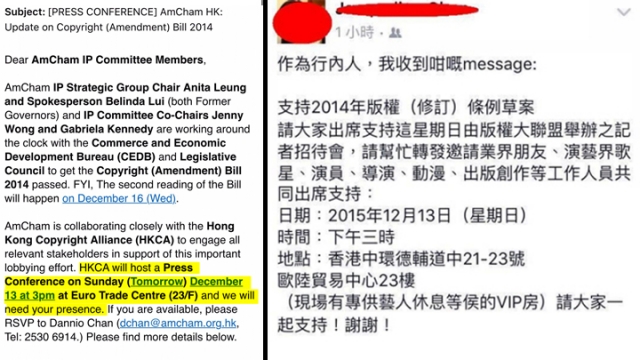
(RTHK)
December 13, 2015.
The Hong
Kong Copyright Alliance was scheduled to hold a press conference this
afternoon in support of the Copyright (Amendment) Bill 2014. Certain
individuals claiming to be Passion Times reporters were refused admission and
so they blocked the entrances. The Alliance called the police for assistance.
Later the Alliance called off the press conference.
Several dozen Passion
Times members attempted to crash into the press conference room. A security
guard fell down on the ground. The Passion Times members then blocked the
entrance and prevented the VIP guests from entering.
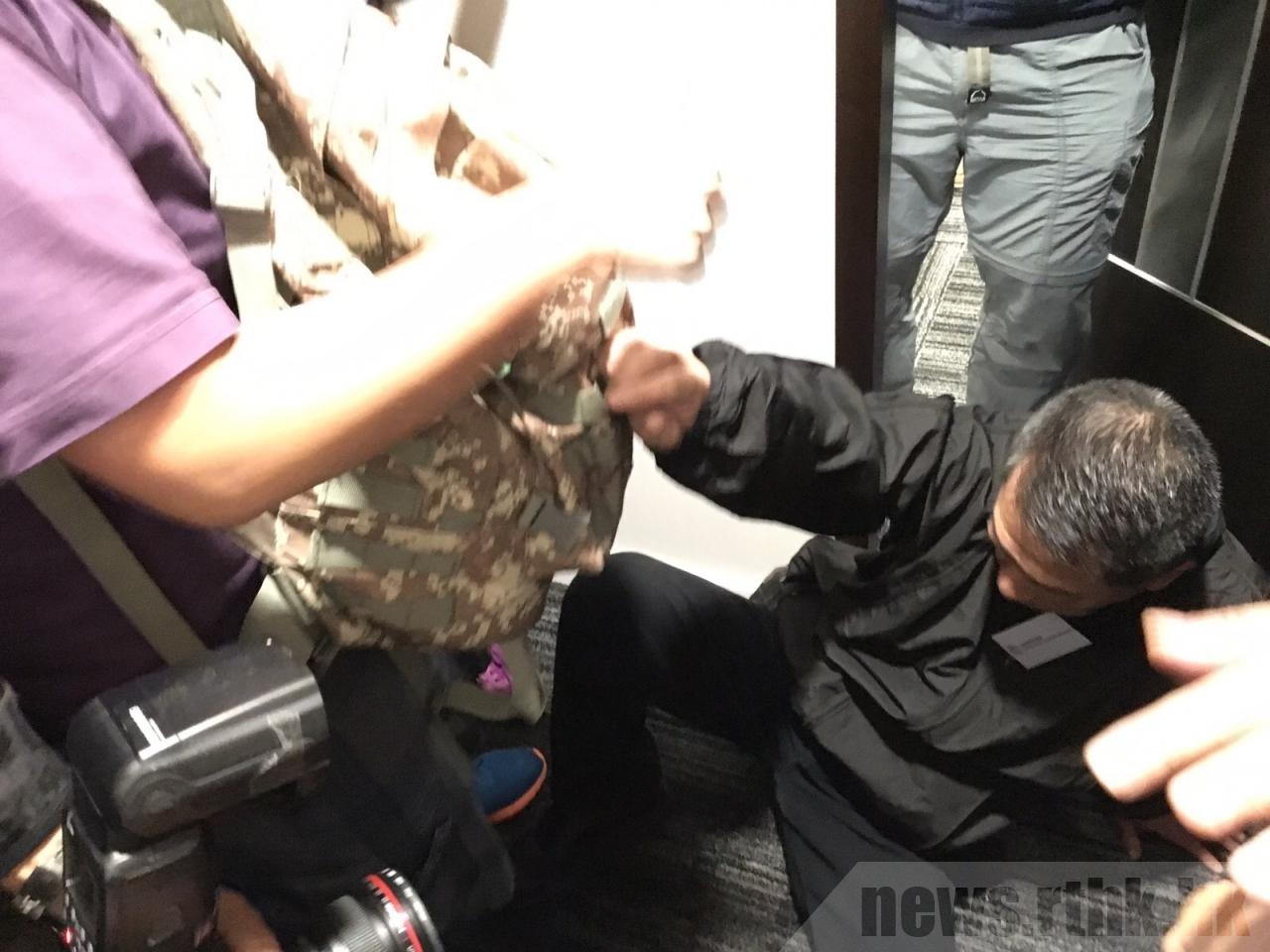
(Oriental
Daily with video) December 13, 2015
Hong Kong Copyright Alliance
consists of 16 organizations of the music, film, TV broadcasting, comics and
animation, software and information technology sectors with over 1,400
member companies. They scheduled a press conference at 3pm to express their
views of the Copyright Amendment Bill 2014. Suddenly about 10 uninvited
Civic Passion members who claimed to represent Passion Times attempted to
enter the meeting room. Some of these people even wore masks and sunglasses.
The Alliance refused to let them in. So the Civic Passion people stood
outside the VIP room and refused to leave. The Alliance called in the
police. Then they decided to cancel the press conference.
The actor Woo Fung, the cartoonist Tony Wong
and several dozen VIPs then departed. Some of the VIPs displayed placards
that say "Support freedom of speech, strike against piracy, pass the bill as
soon as possible." About a dozen police officers were present.
Alliance spokesperson Lam Yuk-wah said that
they wanted to invite various guests to express their opposition to the
three amendments proposed by the pan-democrats. They wanted to urge people
not to oppose the bill blindly. This was a private function, so that the
organizers have the right to invite only audience. Lam said that the VIP
guests were imprisoned in their room, their speech rights were deprived and
chaos was all around.
Civic Passion member Lee Ching-hei said that they came to join the press
conference and he denied that they imprisoned the VIP guests.
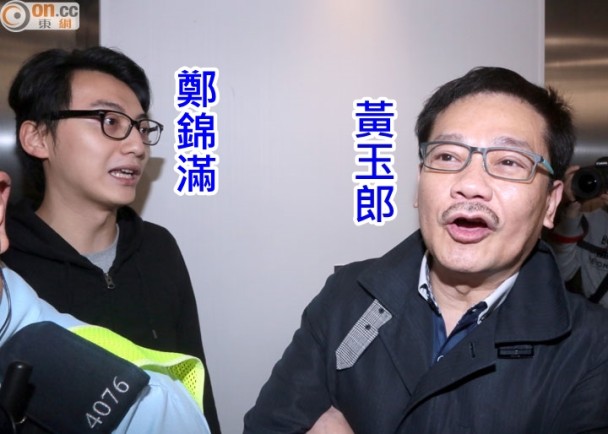
Professional demonstrator Cheng "Four-eyed
Brother" Kam-mun and cartoonist Tony Wong
(Apple
Daily) Conversation between Cheng Kam-mun and Tony Wong
Cheng: You do derivative
creation too, but you support the Internet Article 23.
Wong: This is absolutely not an Internet Article 23. You cannot put a witch's
hat on an angel.
Cheng: Right now, the government is using Internet Article 23 to suppress
freedom of speech.
Wong: Absolutely not.
Cheng: Under Internet Article 23, it is very easy to demand compensation
through criminal prosecution. The most important point is that it can be
criminalized at any time.
Wong: We are talking about Jin Rong's works. We have paid copyright royalties.
We have authorization.
Cheng: What about the other derivative drawings in your other works? How do
you explain that?
Wong: They are not derivative drawings. They are original works.
...
(someone announced that the press conference has been canceled)
...
Wong: Let me say something. The Internet piracy right now is killing us in the
industry!
Cheng: We are not talking about piracy now!
Wong: We are absolutely talking about piracy now!
Cheng: We are talking about derivative works! We are talking about the
suppression of freedom of speech!
Wong: Hey, first of all, there is absolutely no suppression of freedom of
speech!
Cheng: The Internet piracy is already being covered by other related
ordinances.
Wong: If you don't practice piracy on a commercial basis, it wouldn't affect
you.
Cheng: As for the piracy in your own works, how can you explain that?
Wong: I did not violate any copyrights. What evidence do you have that I
violated anyone's copyrights?
Cheng: Let me show you some drawings for you! You are the creator!
...
Wong: I completely support the copyright bill. If you have any opinions, you
can express them. My position is very clear. I very much support the copyright
(amendment) bill.
Cheng: That is to say, your company won't have derivative works from now on.
Wong: You can keep talking.
...
Videos:
(Passion Times)
https://www.facebook.com/passiontimes/videos/1011617375568096/ <Ip
Mon: The Prequel> producer Sin Kwok-lam quarreling with Civic Passion members
(Passion Times)
https://www.youtube.com/watch?v=hWjNlFyMomQ VIP guests depart
(Cable TV)
https://www.facebook.com/bbtauseeworld/videos/433530293511020/ News
report
(Headline Daily)
https://www.facebook.com/bbtauseeworld/videos/433521400178576/ News
report
Cheung "Jelly Fish" Yiu-sum
(Civic Passion): Is the public now allowed to enter?
Receptionist: Yes. This is a press conference. Sorry.
Cheung "Jelly Fish" Yiu-sum (Civic Passion): A press conference, but the
public can't watch it.
Receptionist: This is a press conference. A media activity.
Man: This is not a public forum. Therefore we ...
Cheung "Jelly Fish" Yiu-sum (Civic Passion): This is a black-box operation.
A closed-door meeting.
...
Cheung "Jelly Fish" Yiu-sum (Civic Passion): We are print media. We are not
Internet media. We are not Internet media. We are print media. We have
registered. You can look us up on the government website.
Man: This is a private place. Can you please be respectful? It is pointless
...
Cheung "Jelly Fish" Yiu-sum (Civic Passion): You are screening the media
now. (Facing the camera) Someday, if Internet Article 23 is really passed,
then all the so-called new media won't have a place to stand.
(TVB)
http://news.tvb.com/local/566d48fb6db28c423c000000/ News report
(Oriental Daily)
https://www.facebook.com/bbtauseeworld/videos/433537723510277/ News
report
(The Epoch Times)
Part 1
https://www.youtube.com/watch?v=WDXp_MYUDhQ
(The Epoch Times) Part 2
https://www.youtube.com/watch?v=Da8ld8QNbAk
(The Epoch Times) Part 3
https://www.youtube.com/watch?v=tV9OxnBz_70
(Speakout HK @ vimeo)
http://speakout.hk/index.php/2013-11-04-09-33-03/2013-12-21-07-12-13/11872-2015-12-14-11-30-44
Internet comments:
- (Passion
Times) When our reporters wanted to gather news at the press conference,
the organizers stopped us. They put their hands in front of our camera lens to
prevent us from filming. The organizers then called the police to stop us. We
found out that the organizers did not have a list of invitees. The other
reporters only had to show their press cards, deposit their business cards, sign
in and enter. Only the Civic Passion reporters were refused. After some chaos,
Alliance spokesperson Lam Yuk-wah said that their freedom of speech has been
interfered with and therefore the press conference is canceled.
- Passion Times says that since
they a duly registered company, they are an accredited media organization. Well,
any Joe can spend HK$450 to register a company. What would you like your company
to be named? Joe Blow Global Media? Charlie Chan News 24/7?
- No, Passion Times is not just a registered commercial company. It is a
registered periodical with the Office of Film, Newspaper and Article
Administration.
- (TVB)
Copyright Alliance member Ho Wai-hinbg: "All we did was to ask him very simply,
Can you please a business card? He said that he didn't have one. All eight or
nine of them didn't have any business cards. If you are a regular media
reporter, how can you not have a business card? We felt that they did not come
to gather news. They came here to cause trouble. They blocked access to the VIP
guests' waiting room. They didn't let the VIP guests enter or leave. When VIP
guests wanted to enter, they got cursed out."
- (Sing
Tao) The self-proclaimed Passion Times reporters yelled that if press
conferences are screened, then the threat to new media will be worse after the
passage of Copyright (Amendment) Bill 2014. This is a
non
sequitur.
- A media outlet is prevented from
gathering news! Where is the Journalists Association when we need them?
- (TVB)
Journalists Association chairman Sham Yee-lan said that the organizers should
not have refused to let media persons enter just because of their attitudes, and
the media ought to have dealt with it calmly.
- Copyright Alliance spokesperson
Lam Yuk-wah asked: "What kind of Internet website would send more than a dozen
people wearing the same type of clothing to come and gather news? Furthermore
they were unfriendly when they came here. Is this called gathering news? The VIP
guests were imprisoned inside the meeting room. For the safety of the real
reporters and the VIP guests, we called off the press conference."
- (EJ
Insight) HKCA spokesperson, radio host Lam Yuk-wah, wondered why a web
media outlet was sending over ten people, wearing the same uniform, to cover a
single event, Ming Pao Daily News reported. The aim of the so-called reporters
was merely to disrupt the event, he suggested. According to Lam, when Passion
Times reporters arrived at the venue, they immediately asked to speak to the
person in charge of the event. But the organizer decided not to let them in
after concluding that the actions of the �reporters� cannot be deemed as those
of conventional journalists.
- When the real reporters (Oriental Daily, Sing Tao, Economic Journal, TVB, NOW
TV, Cable TV, etc) are prevented from gathering news, this is a blow to freedom
of speech/press.
- I wonder what the American
Chamber of Commerce folks must be thinking about the pro-democracy movement in
Hong Kong after seeing the pro-democracy activists in action.
- Why did the Hong Kong Copyright
Alliance call off the press conference even after the police came? Well, HKCA
spokesperson Lam Yuk-wah is actually a Yellow Ribbon media person who approved
of physical clashes with the police. He probably felt embarrassed about having
to call the police for protection himself.
- There are two ways to interpret
what Civic Passion did today.
One theory is that the Civic Passion satellite organization Keyboard Frontline
is lobbying through demonstrations that have received no-objection statements
from the police whereas Civic Passion is applying pressure through valiant
resistance. This allows them to cover both flanks.
The other theory is that Civic Passion is sabotaging the rival Keyboard
Frontline. When Keyboard Frontline held a forum on Sai Yeung Choi Street South,
Civic Passion members showed up to disrupt it. When Leung Kwok-hung charged that
those who were surrounding him as Civic Passion members, they denied it and kept
on with the siege.
- I especially like this photo of
the Passion Times reporter team:
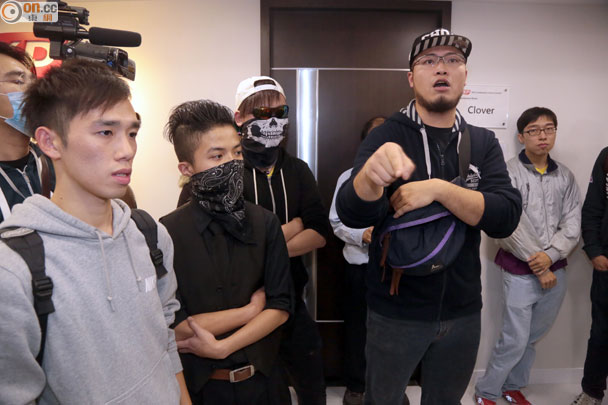
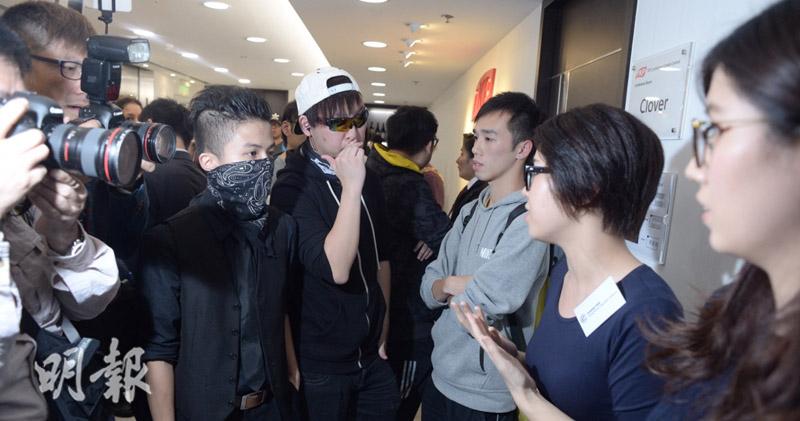
Copyright Alliance receptionist versus Passion
Times reporters
- (EJ
Insight) Glacier Kwong Chung-ching, spokeswoman for online freedom
advocacy group Keyboard Frontline, said she was at the venue Sunday when the
incident took place. She insisted that she did not see anyone storm the venue,
but said she saw some reporters being refused entry. Kwong said she had been
there to pick up a press release in order to understand the stance that different
members of the industry are taking toward the proposed revision of the copyright
ordinance.
- "I
was just out buying soy sauce." Guangzhou guy.
- "I
see nothing." Sergeant Schultz.
- What is the point of fighting for online freedom when there is no more freedom
to even hold a press conference to tell your side of the story?
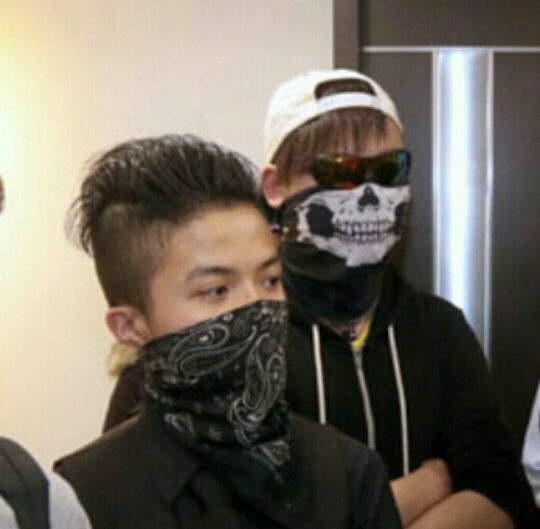
而家睇見呢班 撚樣
唔知好嬲定好笑
When I see this bunch of dickfaces
I don't know whether to laugh or get angry
-
Some Chinese fortunetellers only have to look at your facial features to
determine your character, from which they can tell the future. 相由心生 = Your look
reflects your heart. So take a good look at these Civic Passion 'reporters'. Are
they reporters? Or thugs readying for a melee?
- This is the first time that I have seen a reporter wearing a skull mask.

Spoof: "Hi, I am Chan Tai-man from Passion Times. I am
here to attend your press conference today."
-
Maybe they are wearing surgical masks because they have the flu and they don't
want to infect others? That's good public health practice.
- When you're down with the flu, you should be staying home to rest. Don't
forget to drink plenty of water.
- It would be good public health practice if you pieces of shit would stay off
the street.
- There are other photos taken
later when these masked men have removed their masks.
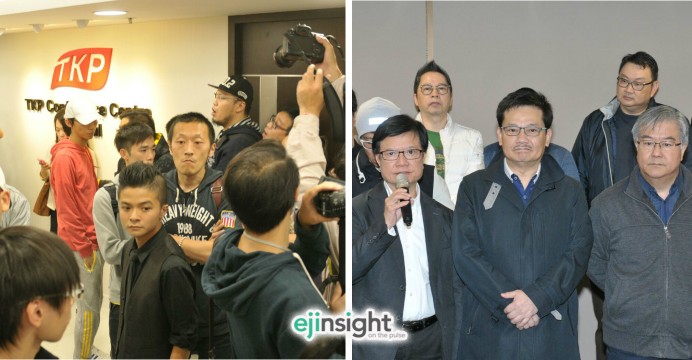
So the original purpose of the mask was not to avoid spreading infectious
disease or being identified. It was about intimidation.
- What is the company size of Passion
Times? By proportion, they must be a lot bigger than Apple Daily-Oriental Daily
combined, because they can afford to send several dozen reporters to cover a
single event.
- This Lee Ching-hei ran in the
Tin Ping West district council election. Final tally: Wong Wang-to 2,219 votes; Poon Tak-wing
1,445 votes; Lee Ching-hei 797 votes. 797 persons voted for him and that is more
than the 689 who voted for CY Leung. Therefore Lee has greater legitimacy than
CY Leung.
- Regardless of how he did as a politician. At this moment, he is a reporter who
must be accorded all the privileges, including the unalienable right to barge
into private meetings.
- As members of the press, they
should be wearing press badges but they were not. Anyone can make a press badge. I have just made
up one for them for free.
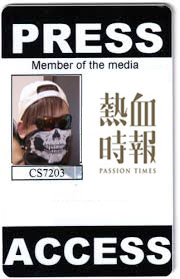
- What kind of reporter is it who dares not show his face?
- During Occupy Central, Civic Passion distributed several hundred Passion Times
press badges to the demonstrators, so that in the event that they get arrested
(such as being in restricted zones), they can claim press privileges.
- Can someone refuse to let a
particular media organization come onto their premises and gather news? Yes.
(Wen
Wei Po, November 22 2013)
TVB announced that Next Media
reporters will not be welcomed on their premises and at their events. TVB said
that Next Media had been promoting a city-wide campaign to boycott the TVB
anniversary show to protest against the over-the-air television broadcast
licensing. TVB pointed out that the government makes the licensing decision and
not TVB, so this Apple Daily-driven campaign is misguided and misleading.
Since TVB is the largest
entertainment company in Hong Kong, the access cutoff eventually led to the
decline in the entertainment coverage at Next Media. Next Media tried to use
more fiction to replace the news gathering, but eventually they had to close
Sudden Weekly. The entertainment Book B in
the flagship Next Weekly has a lot fewer pages
than before, which implies a significant drop in advertising revenue.
The fact is that company premises
are private spaces, and the owners have the right to decide who can come. If they
won't let a bunch of masked yahoos enter, that's their right. You wouldn't let
me charge into your home, would you? Even the police needs your permission (or a
court warrant if you refuse to give permission) before they
can enter your home.
- (Speakout
HK) December 14, 2015.
There are different opinions in
society about Copyright (Amendment) Bill 2014. It is okay to actively express
your views, but it would be wrong to stop others from expressing themselves. The
Hong Kong Copyright Alliance have their reasons to think that the bill would give better protection
to their intellectual property rights. Meanwhile, many Internet users want
to look after their own interests too (that is, not having to pay for
copyrighted materials), and that is reasonable from their angle
as well
However, the Civic Passion "Hot
Dogs" have different ideas. Yesterday they showed up as "the media" and wanted
to enter a press conference in spite of not being welcomed. Frankly, even if
those people came from a genuine media organization, we have never heard of
"freedom of press" overriding "private property rights." Sorry, this is unheard
of to us! Also, why is it necessary for a media outlet to bring 10 to 20
'reporters' to gather news at a
single event? And they have the same dress code, with some of them wearing masks! Are
you kidding, brother!
The "Hot Dog" leader was even more
hilarious. He posed this question through the genuine reporters to the people of
Hong Kong: "Can you accept that private facilities cannot be entered without
invitation? I want to know! If it were you, wouldn't you try everything possible to
get an answer?"
If private facilities can be
entered without invitation, then the "Hot Dogs" should open up their homes and
invite people to inspect, sleep, spend the night, cook in the kitchen and play
with their computers.
- There were about 10 Civic
Passion members and another twenty or so other people who tried to barge into
the press conference. The Copyright Alliance said that about 80 VIP guests were
imprisoned by these people. It does not compute -- can't 80 people overcome 30
people?
- It depends on who the 80 people are. They include television actress
Helena
Law Lan (born November 13, 1934), actor
Bowie Wu (born
January 17, 1932), singer/actor
Joe Junior
(born July 22, 1947), director
John Woo (born
May 1, 1946), etc. Do you think that they
can still put up a good fight?
- Bowie Wu was interviewed by a
tricky reporter.
Q: Why did you come here today?
A: TVB told me to come here.
Q: What did they tell you?
A: They asked me whether I believe in freedom of speech and copyright
protection. I said yes. They said that I should come down here for the press
conference to say just that. So here I am.
The reporter wants to convey the impression that Bowie Wu was ordered by TVB to
come and otherwise knows nothing about the issues. Well, from the Q&A, TVB did
not order Bowie Wu to go. They asked him about freedom of speech and copyright
protection first. TVB told him to go after he answered affirmatively. Bowie Wu's
grasp of the issues is probably the same as most other people, including the
opponents demonstrating out the Legco building. Except for the few who have
actually read through the full document, most people are working off digests and
sound bites.
- Speaking of pluralistic ignorance
of the issues, here is a howler. (The
Guardian)
Almost one-third of Republican primary voters
would support bombing the fictional kingdom of Agrabah, according to a report
released by Public Policy Polling on Friday.
More than 530 Republican primary voters were
polled this week on their support for Republican candidates and foreign policy
issues including banning Muslims from entering the US, Japanese internment
camps from the second world war and bombing Agrabah, the kingdom from Disney�s
animated classic, Aladdin.
In its poll, Public Policy Polling
asked the 532 Republicans: �Would you support or oppose bombing Agrabah?� While
57% of responders said they were not sure, 30% said they supported bombing it.
Only 13% opposed it. Public Policy Polling also polled Democratic primary
voters: only 19% of them said they would support bombing Agrabah, while 36% said
they would oppose it.
Republican primary voters polled by the PPP
aren�t just worried about Agrabah. Of those polled, 36% believe that thousands
of Arabs in New Jersey cheered when the World Trade Center collapsed on 9/11.
About 54% of those polled support banning Muslims from entering the United
States and 46% support the creation of a national database of Muslims in the
United States. New Jersey officials and residents have repeatedly denied the
claims of the post-9/11 celebrations, which were resurfaced last month by
Republican presidential candidate Donald Trump. �I watched when the World
Trade Center came tumbling down. And I watched in Jersey City, New Jersey,
where thousands and thousands of people were cheering as that building was
coming down,� Trump said at a November campaign rally in Alabama. Trump
continues to stand by his remarks. He had also called for a �total and
complete shutdown� of the country�s borders to Muslims in the wake of the San
Bernardino terrorist attack.
According to the PPP, �[Donald] Trump is at
45% with Republicans who want to bomb Aladdin and only 22% with ones who don�t
want to bomb Aladdin.�
- (TVB)
Hong Kong Copyright Alliance spokesperson Lam Yuk-wah is the general manager of
Internet radio channel D100. Now D100 founder Albert Cheng has just said that Lam's
role with the Copyright Alliance is in conflict with the position of D100. After
discussions between the Cheng and Lam, the latter will no longer be hosting the
current affairs program. Cheng said that D100 is very clear in its position
against Copyright (Amendment) Bill 2014.
- I am glad to see that the D100 owner does not interfere with editorial
independence. Long live freedom of press!
- (Wen
Wei Po) After the incident at the Copyright Alliance press conference,
Internet users attacked D100 and Lam Yuk-wah for supporting the Copyright
(Amendment) Bill 2014. On the day before yesterday, Albert Cheng said that Lam
Yuk-wah's position is not D100's position. But on the same day, Raymond Wong
Yuk-man said that Albert Cheng is outmoded.
So yesterday Albert Cheng
counterattacked on D100. He said that it is important to concentrate fire on the
Copyright (Amendment) Bill 2014 instead of fighting each other. He said that
Raymond Wong is jealous of D100 because Wong's own circle of people has
insignificant influence in society.
Cheng went on to warn Wong that he
may deprive both Raymond Wong Yuk-man and Wong Yeung-tat of votes in the 2016
Legislative Council elections by entering candidates in whatever districts those two are
running. Cheng said that he is even willing to partner with the treacherous Andrew To
(former League of Social Democrats chairman).
Cheng said that Civic Passion
should be man enough to admit that they were there to disrupt the press
conference. "I despise people who won't admit to what they did." He said that
journalism is journalism and disruption is disruption, and that the two should
not be mixed together. If they are mixed together, it will only cause people to
distrust new media in general.
- (HKG
Pao) Lam Yuk-wah said: "Actually I was not getting paid to host the D100
program. Therefore there won't be any actual income loss if I can't be the
host."
(Passion
Times) December 12, 2015.
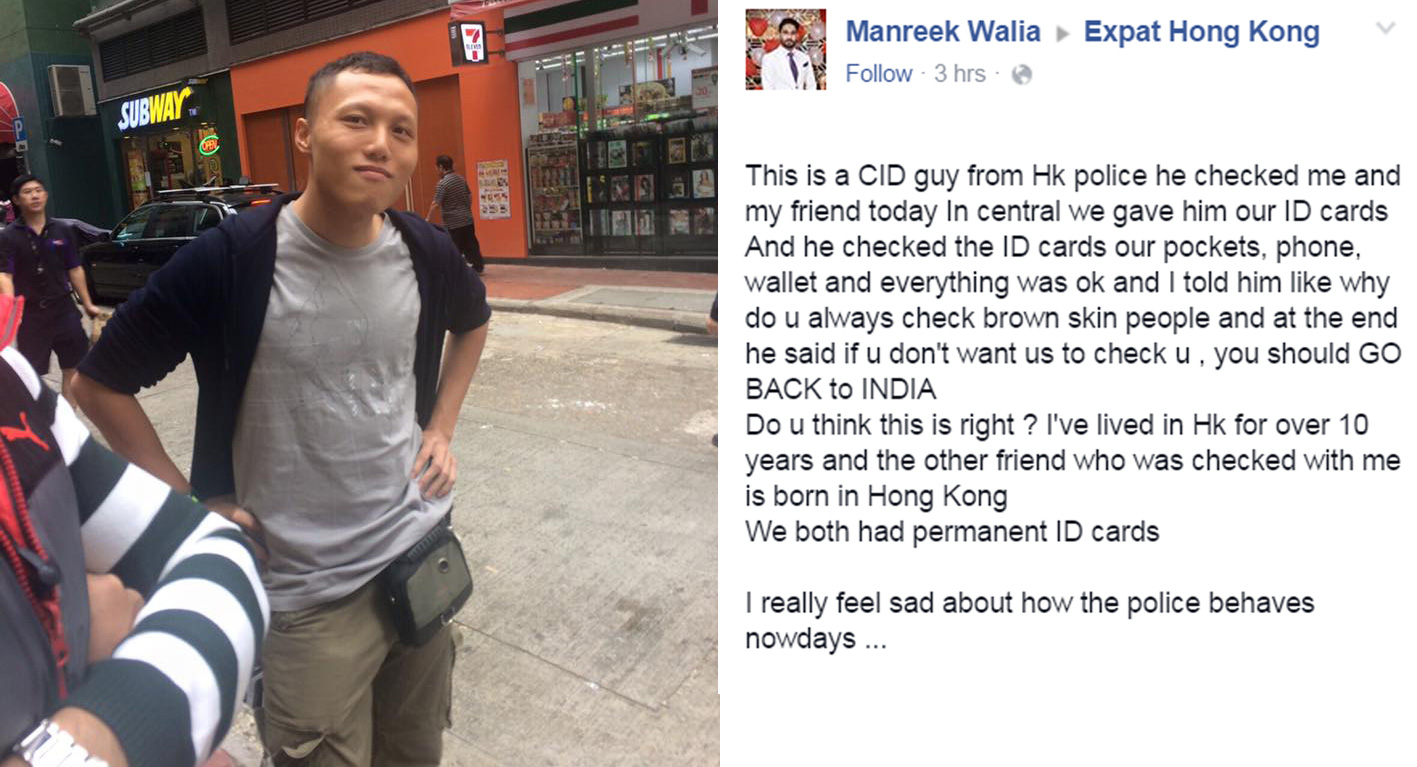
Internet comments:
- (Facebook)
https://www.facebook.com/photo.php?fbid=10154603069212195&set=gm.10153150780162382&type=3&theater
-
Bull shit. Please do not post photos
of other people in FB for witch hunts. How do people know if this story is true?
- Let us stop being
Facebook warriors and accuse people without knowing the full story. We don't
even know whether this guy on the photo is actually a police officer. If he
really was one, was there anything said before to piss him off? Manreek should
lodge a complain instead of posing it on FB and inciting hatred against this
unidentified man and the Hong Kong Police Force in general.
- If you think he behaved badly,
you should report the incident to the police. But please don't post pictures of
Police officers on FB like that. And please don't say you feel sad about how the
police behave nowadays... The HK Police are very professional. Just compare them
to Middle East or other Asian Police. And you'll see.
- "HK Police is very professional"?? Yeahhhh... and Santa Claus is going to come
down your chimney this Christmas and bring you some presents.
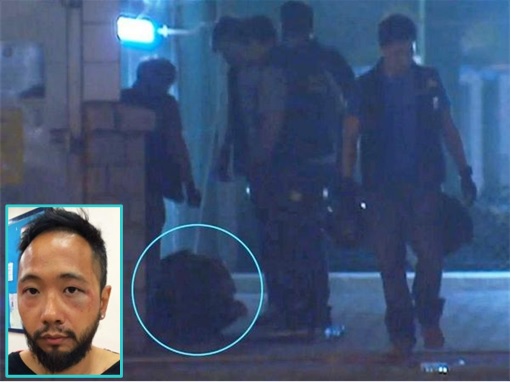
-
Sad this still goes on. You should report him. Did you get his badge number?
-
Calm down, don't blame him. He was just doing his
work.
- It's racial profiling and it's WRONG! They were not doing anything illegal,
just walking minding their own business. They were stopped and SEARCHED for no
other reason than being brown-skinned. Do you know how its like to be stopped
and searched in public? People look at you like you're some criminal. STOP
defending racist actions like this.
- Searching people may be part of his job, but a comment like "if you don't like
it go back to India" was TOTALLY uncalled for and very unprofessional.
- To be fair,
it was all over news recently about the Indian illegal immigrants visa scam and
the Jordan knife attack ... I can't blame the police for stopping Indians or
people who may look like from that race ... they are doing their jobs ... when
they see an Indian in the road they don't know if it's a Indian permanent
resident or an Indian asylum seeker ... that's why they are checking right?
There is nothing on your forehead which differentiates you from other folks ...
so before you feel all offended, think how bad does it feel to tell the police
officer that you stop me because I'm brown or Indian, you are questioning his
integrity here ... I can understand why he said that go back to your country if
you don't like this system ... I'm an Indian and a Hong Kong permanent resident
too ...
-
I don't think it's so bad. We want to be safe we
should allow the police to do its job. If all the brown people they check have
nothing wrong them, they will eventually stop wasting their time. Just smile,
hand over your ID card and say how much you love Hong Kong, instead of giving
them reasons to be pissed at you. We are guests here.
- One of these men was born in Hong Kong.
They are both permanent residents. These are not 'guests'.
-
You know the funny
thing is, even if the original photo post was fabricated, enough people here
failed the social experiment by not only attempting to justify racial profiling,
but also harassing those with sincere concerns about the questionable behavior
by the police (authority figures)
-
Hong Kong Free Press should look in this.
-
And what exactly will
they do? Freedom of Speech is for every one not just for those that share your
opinions.
- They are a news organisation. You can also ask the SCMP to investigate if you
want a POV closer to your values.
-
I think the
Hong Kong police is effective, prompt,
sincere and respectful than most of the police forces in other parts of the
world. Besides its part of their responsibility to randomly check ID's etc.
Personally I am quite impressed with them.
- Easy for you to say when you are not racially profiled.
- LOL! You mean to say that the cops don't "randomly" check your ID in the
United States, United Kingdom or Australia?
-
Manreek Walia has the right to go to the Complaints Against Police Organisation
and lodge a complaint. But he should know that he will need to make a detailed
statement, that the investigation of the case will take a long time and that the
chances of success (without any reasonable doubt) are small. Of course, it Manreek has a video of the entire incident, it would be a lot of easier. Falling
short of that, it becomes one's testimony versus the other's testimony.
-
Racial harassment is theoretically wrong. But in the existing Hong Kong racial
discrimination ordinances, there is nothing explicit about the government not
being able to practice racial discrimination and/or harassment during the course
of exercising its powers. The racial discrimination ordinances bars racial
discrimination during employment, education and obtaining products and services.
Thus, the complainant may try to accuse the police of racial discrimination
during the course of providing the service known as the ID check.
- LOL
to see this being carried by Passion Times. Look, I am totally against racial
discrimination, especially when the targeted persons happen to be Hong Kong
permanent residents. That is wrong. But there are plenty and plenty of other
cases already of Valiant Localist Warriors attacking Hong Kong permanent
residents just because they fit the profile of mainlanders (that is, middle-aged
Chinese
women, Chinese-looking grandpas, etc). For example:
(Oriental
Daily with video, Apple
Daily with video) March 8, 2015
During the demonstration in Tuen Mun
against parallel traders, 73-year-old Lee Wai-kuen passed by the demonstrators
while pushing a handcart on his way home from Tuen Mun Park. The masked
demonstrators decided immediately that Lee fitted the profile of a mainlander
parallel trader because he was an old man pushing a hand cart. They surrounded
him and demanded to know if he was transporting parallel trading goods. Lee
argued with the demonstrators. He said: "So what if it is? So what if isn't? You
have no authority over me!" In the end, Lee lost his argument and was shoved to
the ground, his hand cart was toppled and his belongings were scattered all over
the place. The demonstrators fled when the police arrived. Lee told the police
that he used the handcart to carry the audio-visual equipment that he uses to
sing in the park. Lee said that he can always replace his equipment, but he can
never mend the mental hurt. "They insulted my feelings." He has no idea whom he
can complain to.
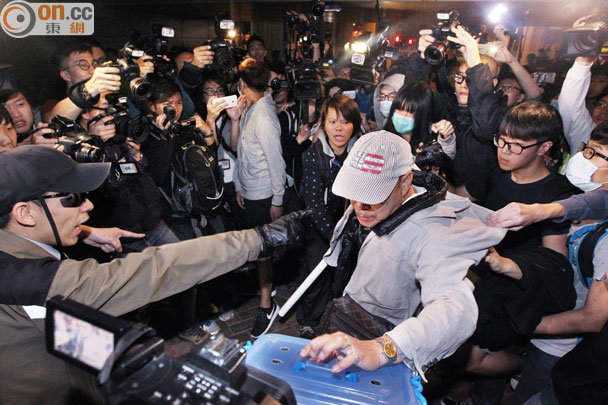
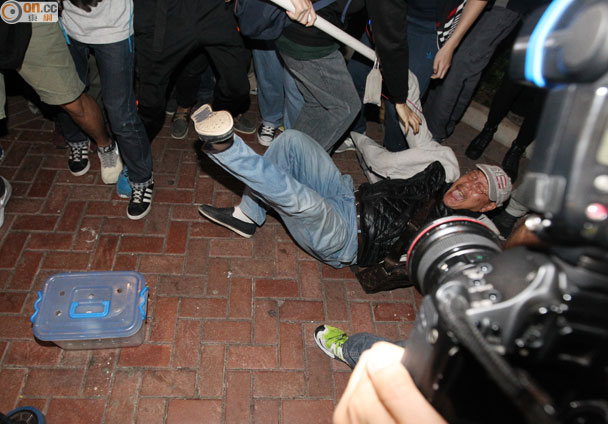
This
awesome display of racial profiling was praised by Passion Times as an example
of the people of Hong Kong rising up in anger to defend their rights against the
mainland parallel traders. Numerous other examples are available. There is
plenty of racism going around in Hong Kong and elsewhere in the world. You
should condemn racism whenever and wherever it occurs, not selectively when it
suits your political needs of the moment.
-
Once a racist, always a racist. Today you are brothers with South Asians for
political convenience and enemies with mainlanders for their cultural pollution. Tomorrow,
you can just as easily turn against South Asians for their cultural pollution
after you solve the mainlander problem. How can you be trusted when you have no
moral principles?
- Only leftist retards talk about moral scruples. The ultimate goal is to build
the Hong Kong Nation. Everything else be damned!
- In
the course of nation-building, sacrifices will have to be made. [But it is
always others who sacrifice, not me.]
-
More racial profiling news today: (Los
Angeles Times) December 11, 2015.
A K-pop
group is alleging that U.S. authorities denied them entry at Los Angeles
International Airport, suspecting they were sex workers. �Oh My Girl,� an
eight-member South Korean girl band, was held at LAX for more than 15 hours on
Wednesday while being questioned by officials with U.S. Customs and Border
Protection, according to a statement released by the group�s South Korean
management company.
Representatives of WM
Entertainment said in the statement that the group, which has several teenage
members, was scheduled to perform at an event in Los Angeles and hold a photo
shoot. Authorities appeared suspicious of the large amount of props and clothing
the band and accompanying staff were traveling with, according to the statement.
�As young women, they were mistaken as �working women� which has recently been a
big issue in the U.S.,� the company wrote in the Korean-language statement.
A spokesman for U.S. Customs and
Border Protection said the agency could not confirm or deny the group�s claims.
�Privacy Act prevents CBP from disclosing arrival/departure records of
international travelers,� spokesman Jaime Ruiz wrote in an e-mail.
The entertainment company said the
band eventually gave up and flew back to South Korea. Representatives said they
were consulting attorneys in the United States about the group's lengthy
detention.
- And the mother of all racial profiling: (CNN)
Donald Trump: Ban all Muslim travel to U.S. December 8, 2015.
Republican presidential front-runner
Donald Trump called Monday for barring all Muslims from entering the
United States. "Donald J. Trump is calling for a total and complete
shutdown of Muslims entering the United States until our country's
representatives can figure out what is going on," a campaign press release
said. Trump, who has previously called for surveillance against mosques
and said he was open to establishing a database for all Muslims living in
the U.S., made his latest controversial call in a news release.
- (Guardian)
November 14, 2015. Australian newspaper cartoon depicting Indians eating
solar panels attacked as racist .
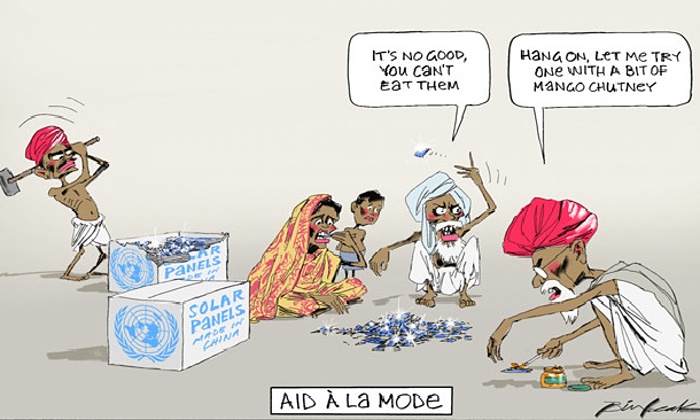
(NOW
TV with video) December 11, 2015.
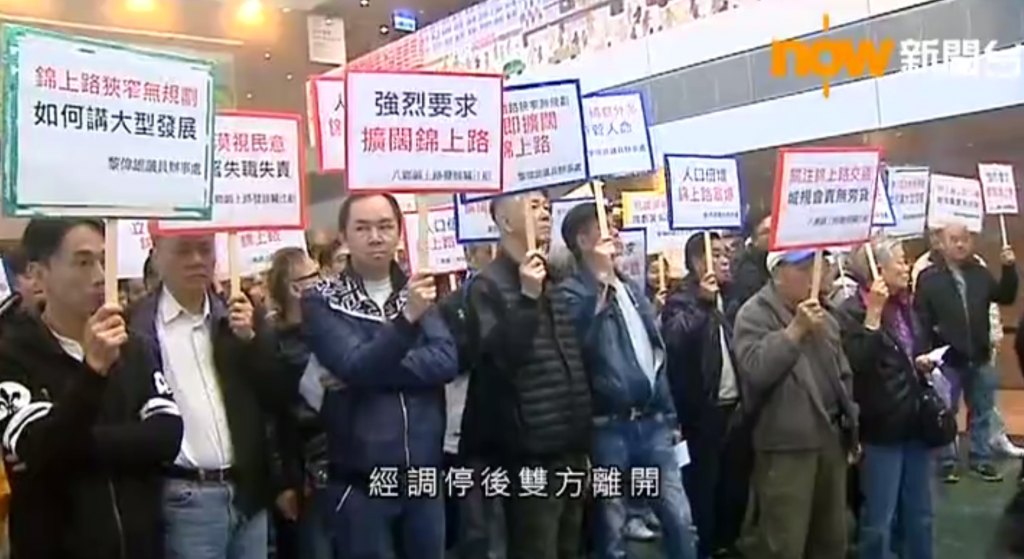
The Town Planning Board held a
meeting to discuss Kam Tin South Outline Zoning Plan. Many organizations showed
up to petition.
More than 50 Pat Heung residents
from the Kam Sheung Road Development Concern Group and about 10 members of the
Land Justice League were both there to petition, and they quarreled over the
issues.
The Pat Heung residents were
unhappy that the Town Planning Board is ignoring their wishes. These residents
want the Kam Sheung Road to be expanded first before their area becomes a rural
township. They believe that in order to develop Kam Tin, it is essential to plan
for the traffic infrastructure first. Meanwhile the Land Justice League is
opposed to the the development of Kam Sheung Road because they want to preserve
the rural lands. The Pat Heung residents said that the Land Justice League
does not represent them.
More than a dozen police officers
came to maintain order. After mediation, the two sides departed.
(Oriental
Daily) December 11, 2015.
About 100 demonstrators from the
Pat Heung Kam Sheung Road Development Concern Group came to raise placards. They
said that the roadway of Kam Sheung Road is currently too narrow and cannot
support any large-scale development. THey wanted the government to expand the
road first before proceeding with the large-scale development plans. Yuen Long
district councilor Lai Wai-hung said that Kam Sheung Road was constructed in the
1960's and seen numerous traffic accidents due to the narrow roadway.
The Land Justice League was
opposed to land development. The Pat Heung Kam Sheung Road Development Concern
Group demonstrators said that the Land Justice League people don't even live on
Kam Sheung Road and therefore have no right to represent the residents. They
accused the Land Justice League of playing politics. There was some pushing and
shoving. The police separated the two sides.
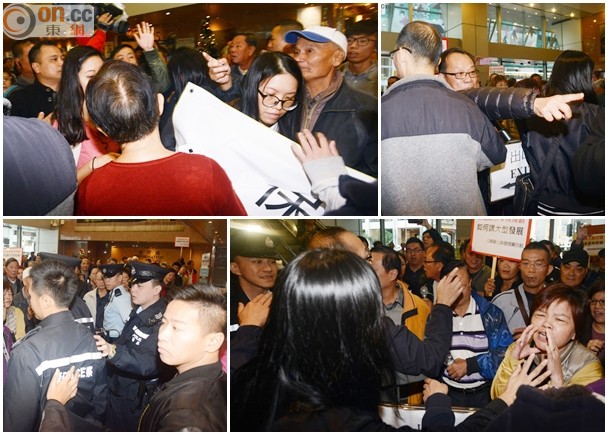
(HKG
Pao) December 12, 2015.
The outline zoning plan planned to
use the MTR Kam Sheung Road Station and the Pat Heung Depot for residential
purposes, housing 2,700 and 6,000 homes respectively for 35,000 persons. The
Town Planning Board has received 55 statements of which two were supportive and
the rest were opposed. The Board will make a decision on a later day.
According to Wen Wei Po, the Land
Justice League was founded in 2011 by the aides of League of Social Democrats
legislator Leung "Long Hair" Kwok-hung. These include Yip Po-lam, Chu Hoi-dick,
Wong Ho-yin, etc. At a time of the demolition of Star Ferry, the relocation of
Choi Yuen Village, etc were attracting attention, they formed the Land Justice
League to focus on planning and developing in New Territories and to stop
various infrastructure projects. Thus, the Land Justice League is in fact a
satellite organization of the League of Social Democrats. Recently, member Chu
Hoi-dick entered the district election in Pat Heung South. He got 1,482 votes
but lost to the aboriginal candidate Lai Wai-hung who got 2,872 votes.
Internet comments:
- Usually on these issues, there
is just one group. For example, the Hong Kong University Alumni Concern Group,
which speaks as if they represent the entire alumni. Yet when they call for a
referendum, fewer than 5% of the alumni show up. But this time, there were two
opposing groups.
Obviously, this is a game that two
can play. If one side forms an XXX Concern Group, the other side can form an
anti-XXX Concern Group. We are all Concern Groups. In the end, they neutralize
each other.
- More accurately, each one of us
is many Concern Groups. Multiple memberships for individuals mean greater
numbers
for all Concern Groups.
- In this case, there were many
more Pat Heung residents than Land Justice League members. So the former won by
many more decibels.
- Actually, the Town Planning
Board and other similar government organizations are thoroughly familiar with
such tactics (that is, a small number of demonstrators disrupting public
hearings; a large number of substance-free documents being submitted in
duplicates under different names; etc). These
are
just people pretending that they represent "The People." If you want to hear
genuine public opinion, you will have to find some other way.
- The Pat Heung residents may have
purely economic considerations. Of course, they would like to their fallow rice
paddies be turned into shopping malls serving 35,000 new residents. If they sell
their land, they will become instant millionaires. If they keep their land, they
will collect rent to live comfortably for the rest of their lives. So why not? Why
should some outsiders decide that they must retain their rural lifestyles? Why
must they keep their rice paddies and tin shacks for the sake of somebody else's
imaginary collective
memories?
- Well, there were many more
pro-development demonstrators than anti-development demonstrators. What to do?
As the saying goes, local matters should be decided by local people. If this
issue was put to a vote, the outcome would be like the district election:
pro-development side (led by district councilor Lai Wai-hung) defeats
anti-development side (led by Chu Hoi-dick). Such being the case, the opposition
must reject the idea of a plebiscite. But if a vote is taken, the opposition
must say that matters of Great Right vs. Great Wrong cannot be determined by a
simple vote.
- In other words, it's
my way or highway.
- If you should have both the law and public opinion on your side,
then I will do
everything possible to stop your project through countless judicial reviews.
Since I am indigent, I can get Legal Aid to pay all the legal bills. It
will be three or four decades before this road gets built. I swear on my
parents' graves that this will be so.
- 2012 video of a head-on
collision between a double-decker bus and a van
https://www.youtube.com/watch?v=YxwiOurtcLU. This gives you a sense of
what the protestors are talking about. And do you see any point of preserving
the areas by the roadside as seen in the video in the name of historical preservation?
- On December 18, 2015, there was
a serious traffic accident at Kam Sheung Road in which a truck hit a minibus
with four deaths and many other injuries.
(Apple Daily)
https://www.youtube.com/watch?v=ro7I_Dd7XRM News report, including the
collision itself
(Ming Pao)
https://www.youtube.com/watch?v=n8LNaTwZqiw News report
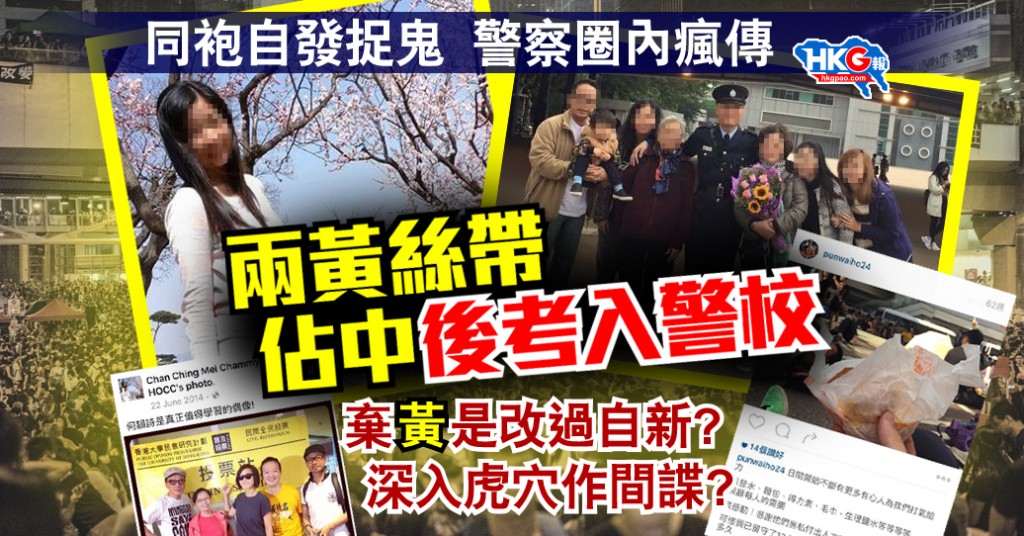

(HKG
Pao) December 11, 2015.
Recently, whatsapp groups among
the Hong Kong Police have been circulating information on two of their Yellow
Ribbon colleagues.
According to the information, one
police officer named XXX Wai Ho, badge number PC XXX17, is currently stationed
in Sham Shui Po Police District. From Facebook, XXX Wai Ho is in his twenties,
loves to play basketball and a photo showed that he graduated last week from the
Police Academy. However, the older Facebook information showed that he
frequently posted skeptical remarks about the Hong Kong Police and the
anti-Occupy Central demonstrators last year. A photo on Instagram showed that he
took part in the Occupy Movement, nothing that at that moment he had been in the
Occupy area for 12 hours already and he was eating a cheese burger to replenish
himself.
The other police officer is Chammy
Chan XXX, who is a candidate to become a police inspector. According to her
Facebook, she supports Yellow Ribbon singer Denise Ho, participated in the July
1st march, etc. She has deleted/hidden her Facebook at this time. According to
information, Chammy Chan is still undergoing training at the Police Academy but
will be graduating soon to become a probationary inspector.
A regular police officer goes
through a 20-week training program, while an inspector goes through a 32-week
training program. This meant that these two individuals took part in Occupy
Central, and then applied to join the Hong Kong Police.
At this time, many of the
colleagues are concerned that these two are trojan horses designed to steal
information from the Hong Kong Police to give to the opposition camp to exploit
politically. One young officer said: "During Occupy Central, they caused us some
grief. But now they show up as inspectors to supervise the frontline officers?
How can we accept that?"
Internet comments:
- The Hong Kong Police is a vast
organization. Under
CAP 232 Police Force Ordinance, it is unlawful to bring the organization
into injustice and disrepute. For such a vast organization, it is expected that
various people at various levels should have various political positions. It is
a bigger problem when the senior commanders are hesitant to enforce the law and
prefer to dodge behind "political neutrality" instead. If they can't enforce the
law, they are derelict in duty!
Nevertheless, it is unacceptable
to have members of the Hong Kong Police who refuse to enforce the law because
they decided that the law is evil. The Hong Kong Police is run on a hierarchical
structure, in which commanders have authority according to management level and
have the power to allocate resources, reward and punish behavior and issue orders
to their subordinates. Everybody understands the chain of command. It would be a
disaster if decision-making is left to individual police officers whether to
obey or not.
It is also unacceptable to have
members of the Hong Kong Police who think that their colleagues are Evil/Black
Cops. Can you trust them in a moment of crisis? When the demonstrator spat in
your face, did the Yellow Ribbon police officer standing next to you really
didn't see it, or maybe he saw it but refused to testify against a fellow Yellow
Ribbon? When the Yellow Ribbon inspector says to release the suspect, do
you trust his judgment?
- It is one thing to have a
political position such as supporting civil nomination for the Chief Executive
election. It is something else to support and/or participate in unlawful
activities such as Occupy Central.
- During Occupy Central, a Yellow
Ribbon police inspector accessed confidential information about colleagues to
give to Internet media so that those police officers and their families were
subjected to harassment.
- Rhetorical question: Do black/Latino
cops in big American cities like to work alongside white racist cops? Answer: That's
just a powder keg waiting to explode.
- Do the American police screen out racists? No, they cannot really vet on the basis
of political/religious beliefs.
- Here is the Hong Kong Police's
selection process.
- In the
United Kingdom, the Baseline Personnel Security Standard for security
checking of civil servants is:
(a) identity
(b) employment history (past three years)
(c) nationality and immigration status
(d) criminal record (unspent convictions only)
Those with access to secret information may be subjected to stricter vetting.
- The Hong Kong Police cannot and
should not screen applicants out by political positions as determined from
Facebook posts. But there are ways in which they have ostracized people within
the organization.
In 1950's/1960's, corruption was
rampant among the Hong Kong Royal Police, as the senior commanders raked in
billions through racketeering. Most of the organization from top to bottom was
part of the scheme. The few who would not participate were assigned to remote
posts so that they cannot damage the greater good. The big money was in Mong Kok/Wanchai
where prostitution, drug and gambling gangs paid huge bribes. Police officer
had to pay their superiors off in order to be transferred to work in Mong Kok/Wanchai. Meanwhile border
posts such as Lok Ma Chau or Lamma Island barely saw any kind of such activities, so
they were in fact exile posts.
After the Independent Commission Against Corruption was started in the 1970's,
wide-scale bribery stopped. But recalcitrant officers can still be assigned to
patrol the High Island Reservoir or the Plover Cove Reservoir. These are vast
uninhabited areas that must still be patrolled in the event that hikers get lost or injured.
If you are assigned there, you cannot refuse. If you refuse, you are being
insubordinate and that will be cause for dismissal.
- Nowadays, companies screen their
applicants by (1) holding interviews in Shenzhen to see if they are willing and
able to travel to mainland China; (2) checking the Facebook information; (3)
checking financial information through credit bureaus; etc. When you do
something, you are responsible for what you do. If you have to pay the price,
that was your choice when you chose to do whatever you did. This is not child's play where you can wipe the slate clean
and get a re-boot.
- How do you reconcile the two
extremes? On one hand, you chant "Down with the Evil/Black Police!" On the other
hand, you apply to join the Hong Kong Police. Young people like to say that they
have the backbone to stand up. Where is the backbone in this?
- These two moles are heroes
because they know that the Hong Kong Police is an essential part of government
service which is currently corrupted from the top down. Therefore they have
dedicated themselves to reforming the institution from the inside. This is a
long-term project that will take decades. In the meantime, they will be forced
to keep company with a bunch of counter-revolutionary thugs.
- I wonder how these two moles
feel about confidentiality, given the cavalier attitudes of the Yellow Ribbons.
If they are assigned to work on surveillance of a team of bomb-makers, can you
trust them not to tell the subjects that they are being tracked?
- The two moles are just two who
are known because they were careless about their Facebook. Today, just about
every person in their 20's are going to Yellow Ribbons. So unless the Hong Kong
Police recruits only middle-aged uncles, they are going to be swamped by Yellow
Ribbons. When the Occupy Central Round 2 takes place, the Hong Kong Police will
take over the PLA garrison and establish the Republic of Hong Kong. If the
Secretary for Security or the Police Commissioner object, the Yellow Ribbon will
curse out the newly elected President like the Lingnan University students and
demand the senior police officials be replaced upon a threat of a strike.
- The explanation is easy. Talk is
cheap, because you eventually have to put food on the table somehow. These two
have betrayed their ideals and sold out to the pigs (see
Hong Kong Police Force salary). That's all there is. So why are there
more than 1,000 comments at this discussion forum?
- In South Korea, young people
often get beaten up by the police. Then they have to do their compulsory military service. When
they come out, they join the police and they beat up young people. So what else
is new?
- Next time you rob a bank and get
arrested by a policeman, you should immediately shout "I want genuine universal
suffrage." If the policeman is a Yellow Ribbon, he will release you immediately.
- The radicals said that the Hong
Kong Police will be reformed once the Republic of Hong Kong comes into
existence. Out of the existing force of 30,000, only an elite 3,000 will be
retained with the key issue criterion being loyalty to the newly founded
Republic.
- What is the lesson from Iraq? Very quickly the war was won by the
shock-and-awe tactics of the American bombers and cruise missiles. Then Viceroy
Paul Bremner decided to disband the entire 400,000 Iraqi Army in the process
known as de-Baathification. All of a sudden, there were 400,000 unemployed men
with military training in the streets. What did you think they will do? They
became insurgents, of course. After several years of guerrilla warfare with
hundreds of thousands of deaths, the Americans finally found the solution of
paying the local sheiks off with billions and billions of American dollars not
to fight anymore. Those insurgents who could not be bought off became the Al
Qaeda and ISIS of today.
- After the 1997 handover, the Hong Kong Royal Police became the Hong Kong
Police without any massive firings. Some British senior commanders retired to be
replaced by locals. The loyalty issue was addressed by whether a police officer
was willing to follow orders issued by their commanders. If the commander
ordered the use of pepper spray, will the police officer obey or not?
Disobedience is cause for instant dismissal.
- The new Hong Kong Police force will have 3,000 police officers only. They will
have to attack the People's Liberation Army garrison of 6,000 trained soldiers
in Hong Kong. The odds are not good, given the disparity in numerical strength,
military training and hardware. The answer is simple: the Hong Kong City-State
government will call for citizens to make the attack themselves with bats, rods,
sticks and poles. As the saying goes, "They can't kill us all, can they?"
- Of course, there needs to be division of labor. So the citizens will charge
while the Hong Kong City-State government leaders will be in their bunkers
watching the action live on television and issuing orders. After the massacre,
some people will have to survive and tell the world the story about what happened here.
(SCMP)
December 10, 2015.
Hong Kong�s top official became more
personally enmeshed in the city�s raging copyright debate after it came to
light this week that he sang a popular song that was not his.
Leung Chun-ying joined in singing the hit
�I Like You� by now-dissolved rock band Beyond during the third anniversary
dinner of the Beijing-loyalist Business and Professionals Alliance on
Monday.
The clip of his performance,
alongside the band�s bassist Steven Wong Ka-keung, appeared on Leung�s Facebook
page, triggering concern in some quarters over whether Leung�s posting would
break the current or future copyright law.
Leung�s office yesterday admitted the
posting �was not that good�, and therefore the office had already applied
for a licence from the Composers and Authors Society of Hong Kong, or CASH,
saying it had secured approval. CASH was incorporated under the Companies
Ordinance to administer and enforce copyright owners� rights under the
Copyright Ordinance. It was created to issue licences to music users so that
they could legally use others� works of music.
When asked to comment on Leung�s post, Ada
Leung Ka-lai, director of the city�s intellectual property department, said
it could be deemed a report on current affairs, which could qualify as an
exemption under the proposed new copyright law.
(EJ
Insight) December 10, 2015.
Leung Chun-ying is deeply unpopular � no question about that � but how big a
problem is it to be associated with him? How about being shown singing with
him and posing in a selfie with him, complete with a smiling face?
And how would social media react if all this involved
former Beyond frontman Wong Ka-keung?
Wong, younger brother of the popular duo
behind the influential 1980s rock band, was forced to come out and explain
after Leung posted images from a party in which he performed. The pictures
quickly went viral on Facebook with a decidedly negative impression of Wong
from his legions of fans.
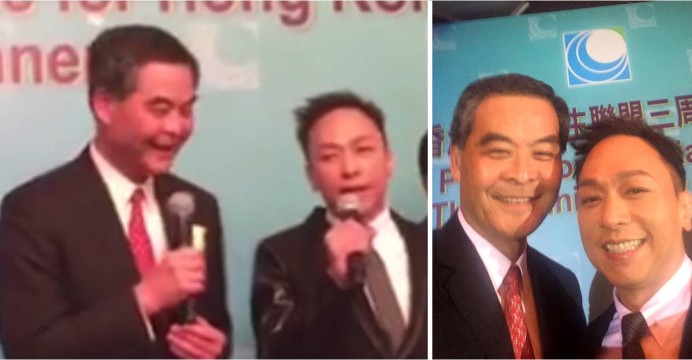
In his defense, Wong told Apple Daily that he is a professional musician,
that he was invited to the private party and that he did his best as a
performer. He was hoping to put out the fire
before it engulfed his solo performer image built on a defunct but respected
brand. There�s no
sign it�s doing that but the embers will burn for a while, judging by the
public comments that have taken social media by storm.
�I am very disappointed with you, Ka-keung,�
a commenter wrote. �You betrayed rock-n-roll,� wrote another. Someone was
less cutting, saying only the sight of Wong with Leung made him
�uncomfortable� but warned the singer should be �more careful� next time he
is invited to perform in an event.
To be fair, Wong was not a willing
participant, according to sources close to him. He happened to be at the
party to celebrate the third anniversary of the Business and Professionals
Alliance for Hong Kong, a pro-Beijing political party, because he had been
invited by his boss, entertainment magnate Peter Lam. �He did not know Leung
was going to take selfies with him, much less post them on Facebook,� they
said. �Even his
smile was forced.�
Still,
some people might say all this was Wong�s own doing. He helped raise
expectations when Beyond came to be associated with last year�s democracy
movement. The band�s hit ballad, Under A Vast Sky, became its anthem, a
symbol as powerful as the yellow umbrella from which the movement would take
its name. But years before that, Beyond had stood for political and social
causes with such numbers as Amani, a song about poor children in Africa,
and Da Di, which became a hit in the aftermath of the June 4 Tiananmen
crackdown.
When a
fan accused Wong of betraying rock and roll, he might have been reacting to
Wong�s duet with Leung. The two sang Like You and Glorious Years, two of the
band�s best loved songs. Unlike fellow artists Denise Ho and Anthony Wong,
who were key players in last year�s protests, Wong Ka-keung had a business
obligation, in this instance to Lam, his business manager. Ho and Anthony
Wong don�t appear to have been curtailed by their bosses the whole time they
were helping drive the movement with star power. But fans say Wong could
have simply begged off. Others say Beyond�s political views and associations
should not be confused with Wong�s business and professional dealings.
(Ta
Kung Pao) December 10, 2015.
Singer Wong Ka-keung was invited to attend
the third-year anniversary of the Business and Professionals Alliance party,
and sang two songs including Glory Years. This is normal beyond normal, but
Wong Ka-keung encountered an avalanche of personal attacks: "Betrayal",
"participated in a political dinner," "Chinaman Keung," "Locust Keung," and
other absurd monickers.
As Wong Ka-keung said, he is a professional
singer and when his company arranges an appearance at a private party, he
will take the job out of professionalism.
As for the photos and songs with the Chief
Executive, some reporters said that Wong Ka-keung was about to leave when
the organizers asked him to stay. At that moment, CY Leung and other
department heads got on stage to sing Glory Years, and they invited Wong to
sing with them.
Under such circumstances, Wong could not
have refused to sing and insisted on leaving. The boss of his recording
company Peter Lam Kin-ngok was also on stage. In addition, a professional
singer could not be so rude as to refuse.
As for the selfie photos, they are now
automatic in such circumstances. As a professional singer, Wong could not
have refused to get photos taken.
CY Leung is the Chief Executive. Regardless
of whether you appreciate like his actions or style, he is not a thief, he
is not the Root Of All Evil. What is wrong with Wong Ka-keung singing and
taking selfies with him? Why not? Why is it wrong? What do the critics need
to do so, and with such vicious language?
In his response, Wong Ka-keung wrote: "I
love my home, I love Hong Kong." Wong Ka-keung has not done anything wrong.
What is there to be afraid of?
(Sky
Post) Beyond's Sky Has No Colors. December 10, 2015.
I like Beyond a lot. Our generation watched
Beyond arrive, gain fame, get very popular and Wong Ka-kui passed away in an
accident. We were sorry, rueful and filled with memories.
Today, I still play Beyond music in my car.
My USB contains the songs of Beyond. Even nowadays after <The Sea Is Vast,
The Skies Are Empty> became an anthem for Occupy Central, I still play it
while I drive. I would sing along to it. That's because <The Sea Is Vast,
The Skies Are Empty> does not belong to anybody and Beyond is not someone's
property either.
A few days ago, Beyond member Wong Ka-keung
attended the third year anniversary of the Business and Professional
Alliance for Hong Kong. He got into trouble after singing a few songs along
with Chief Executive CY Leung and some department heads. Internet users
cursed him out in foul language. Even those curses without foul language
were nasty: "Wong Ka-keung, you have betrayed your brother Wong Ka-kui? How
can you let Beyond down?" "If Ka-kui heard this, he would have jumped up!"
"You are exploiting your elder brother's assets. Ka-keung, you have let your
elder brother down!" "It is your choice to become a running dog. But if you
are man enough, you should be singing your own songs ..." "22 years after
Ka-kui passed away, you are still singing songs from the previous century.
That's because Wong Ka-keung, you have nothing!"
Overnight Wong Ka-keung was sent down to
hell, all because he sang two songs with the Chief Executive and took a
selfie. The Internet users even said that his photo with his head next to
the Chief Exective was clearly taken willingly and not under coercion.
So what? Even with your child, you can't
interfere with where he wants to go or whom he took a photo with. Besides
Wong Ka-keung is a full-blown adult. The Yellow Umbrella Soldiers do not own
Wong Ka-keung or Beyond. You can sing their <The Sea Is Vast, The Skies Are
Empty> however you want, you can insert as many meanings and interpretations
as you want, but you cannot impose your ideas upon other people who sing the
song.
Some Internet users cursed out Wong Ka-keung
and said: "Did you know that the song was written for Nelson Mandela?" It is
a good thing that they know this. Would Nelson Mandela be like them, they
who drag dissidents to face executives like Kim Jong-un?
Videos:
(Apple Daily)
https://www.youtube.com/watch?v=GYbhtyxDb34 News report
(Ming Pao)
https://www.youtube.com/watch?v=tK_WbbsKqFw News report
Internet comments:
- Why is this even a news report? The
copyright holder is Wong Ka-keung. He was on stage singing the song along
with certain other persons. So why is he violating his own copyright? Also,
CY Leung uploaded a portion of the song (and not the whole thing) onto his
personal Facebook. This is fair use under the existing regulations. So what
is the fuss about?
-
Hong Kong Basic Law Article 27: Hong Kong residents shall have
freedom of speech, of the press and of publication; freedom of association,
of assembly, of procession and of demonstration; and the right and freedom
to form and join trade unions, and to strike.
Indeed, Wong Ka-keung has the freedom to
associate whomever he wants to while Internet users have the freedom of
speech to call him a motherfucker.
- In the District Council elections, 55
Umbrella Soldiers parachuted and 8 of them won. As a result, they are
proclaimed the new political stars of the future Hong Kong. Why? Because
they love freedom/democracy/human rights/justice/universal
suffrage/universal values/transparency.
In the same District Council elections, 16
Business and Professional Alliance for Hong Kong candidates ran and 10 won.
As a result, no entertainer is allowed to attend their functions. Why?
Because they hate freedom/democracy/human rights/justice/universal
suffrage/universal values/transparency.
Such is the political climate in Hong Kong.
- Beyond sang Rock n Roll. Fans say that
Rock n Roll is freedom already. But it seems that once you sing Rock n Roll,
you lose the freedom to have your picture taken with whomever you want to.
- (HKG
Pao)
At the Hong Kong Golden Forum, Internet
users voted for their top 10 most hated entertainers. Here are the
'winners':
1. G.E.M. Tang, who is doing a world tour
after starring in a mainland Chinese singing competition
2. Oscar Leung Lit-wai, who saluted the soldiers who fought in the War
of Resistance against Japan
3. Wong Jing, who 'unfriended' pro-Occupy Central entertainers
4. Johnson Lee, who is considered pompous
5. Roy Chow, who is known for his marital problems
6. Jinny Ng Yuek-hei, who arrived in Hong Kong from Fuzhou when she was 10 years
old.
7. Jackie Chan, who is adamantly opposed to Occupy Central and thinks
that the Chinese people need to be supervised
8. Lisa Wang, a Chinese Communist Political Consultative Conference
member who led a chant to pass the constitutional reform bill during
concerts
9. Deric Wan, who makes Chinese patriotic comments
10. Natalis Chan, who is opposed to Occupy Central
Seven of the entertainers on this list
are there for their politics. They are also popular and successful.
Meanwhile, the list of
Yellow Ribbon entertainers
include:
- Anthony Wong who is trying to bleach
himself white through Apple Daily because he is feeling the "economic
pressure" of feeding a dozen mouths without any more work.
- Denise Ho, who went from Media Asia
Big Sister to "independent artist" with 1/10-th of her workload left
after Occupy Central, and failed to find a sponsor for her Queen
Elizabeth Stadium show (after she failed to rent Hung Hom Coliseum).
- Wong Yiu-ming's last concert was down
at Occupy Central and his contract with Media Asia has expired. He said:
"I anticipated not getting any mainland jobs. But it is scary that I
can't get any jobs in Hong Kong."
- Chapman To's wife is complaining
publicly that there are family problems. He is off to either Malaysia or
Taiwan, but who cares?
...
They have been remarkably unsuccessful
since Occupy Central. If they are so popular with the Yellow Ribbons, then
why won't their fans rise up and organize to buy their recordings and
attend their concerts/movies?
Such being the case, why do you insist
that Wong Ka-keung must show some backbone and join Anthony Wong, Denise
Ho, Wong Yiu-ming, Chapman To and others like them?
- By taking those selfies, Wong Ka-keung is
said to have betrayed his ideals. This is twisted logic enough already. But
I wonder if Wong Ka-keung had ever said that his personal goal in life is to
force CY Leung to resign, to have civil nomination to elect the Chief
Executive, to overthrow the Chinese Communists and
to establish an Independent Republic of Hong Kong? These are his ideals as set for him by
the Internet users. If he does not accept them, then he is betraying his
ideals. This logic is even more twisted.
- This is Apple Daily making a mountain out
of a mole hill. Out of the four Beyond members, Ka-kui is deceased; Paul has
many young mainland fans so he doesn't lack work; Sai Wing has always been
ethereal; Ka-keung was opposed to national education, so he cannot be easily
classified into Yellow-or-Blue. If Ka-kui were alive, I would tend to
believe that he wouldn't give a fuck about any coloring issue. <The Sea is
Vast, the Skies Are Empty> is all-encompassing. That is why the song
appeared when Liu Xiang fell down in the Beijing Olympics and also during
Occupy Central. It does not belong exclusively to any one body.
- No, I firmly believe deep in my heart that Ka-kui would be pro-Occupy Central.
Is not.
Is too.
Is not.
Is too ...
- (Sky
Post) In Facebook, Wong Ka-keung wrote that his goals in life do not
including becoming the topic at dinner. He said that he was neither Rock n Roll Warrior
nor Political Hitman nor a celebrity who must account for everything that he
does. He said that Beyond is a name that he loves and hates. "Beyond's
ideals now belong to you. Nothing I can do will realize those ideals. Beyond
belongs to the people of Hong Kong! I cannot change the fact that I am a
member of Beyond. If this name can give me back my youth and efforts, I
won't use Beyond to exist. Please use you vast magnanimity to understand
me!"
- Did Wong Ka-keung betray his ideals?
Twenty years ago, did he say that he would Occupy Central for the sake of
civil nomination of the Chief Executive? Did he say that Johannes Chan must
be appointed pro vice chancellor of academic staffing and resources at Hong
Kong University for the sake of academic freedom?
- The fact that this piece of trash Wong Ka-keung took money for having a
photo op with CY Leung is proof enough that he betrayed his ideals. Nobody's
ideal could be about earning money.
- I completely agree. Wong Ka-keung should have gotten on stage that night,
opened a yellow umbrella and chanted "I want genuine universal suffrage."
Disclosure: Even if he did that, I still won't buy a Beyond record because I can download their
complete works for free at the mainland Chinese BitTorrent websites.
- And I wonder what would happen to Bruce
Lee if he were still alive and living in Hong Kong today? After all, Bruce
did identify himself as Chinese.
- Others who have betrayed their ideals by
taking photo ops:
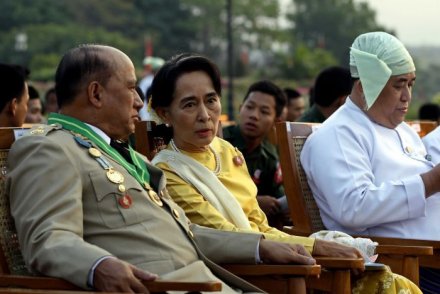
(Radio
Australia) Aung San Suu Kyi speaks with Major General Zaw Win during
a ceremony making Myanmar's 68th Armed Forces Day (credit: AFP)
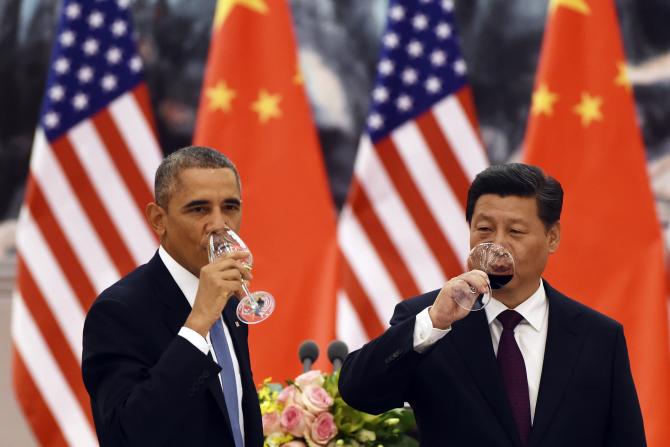
(IBT)
US President Barack Obama and Chinese President Xi Jinping having drinks together at
the Great Hall of the People in Beijing, November 12, 2014 (credit: Reuters)
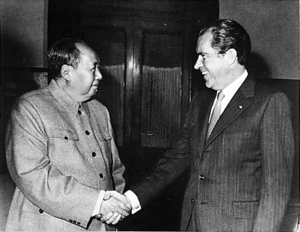
(Wikipedia)
US President Richard Nixon meets with Chinese Communist Party chairman Mao
Zedong on February 21, 1972
- And how about CY Leung and Joshua Wong
exchanging love notes in public as Secretary of Education Eddie Ng watched?
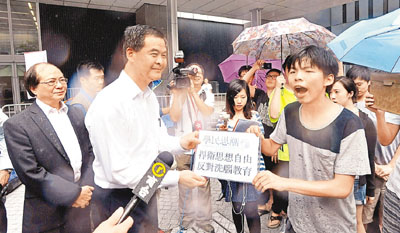
- The video of a commercial for a mainland
Chinese mobile phone:
https://www.youtube.com/watch?v=WgGFOyAztHw

Joshua Wong:
In order to promote a mainland Chinese mobile phone of unknown provenance,
Wong Ka-keung used a body double to play his brother, sang "The Sea is Vast,
the Sky is Empty" and hugged each other. It is really terrible to expend the
deceased Ka-kui in this manner.
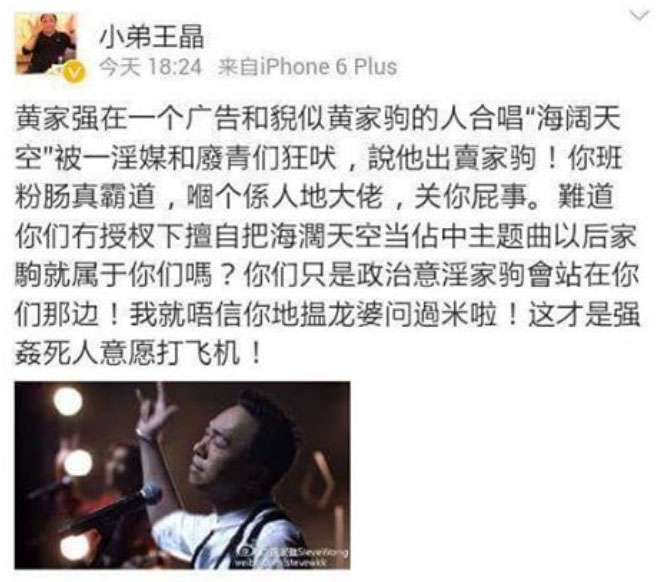
Wang Jing:
Wong Ka-keung sang "The Sea is Vast, the Sky is Empty" with someone who
looks like Wong Ka-kui in a television commercial. Next Media and young
wastrels immediately accused him of selling out Ka-kui! You are such
bullies! Wong Ka-kui is the brother Wong Ka-keung, so this is none of your
farting business. Just because you sang "The Sea is Vast, the Sky is Empty"
without authorization during Occupy Central does not mean that Wong Ka-keung
is your property hereafter. You are just masturbating yourself if you think
that Ka-kui will stand on your side! I don't think that you consulted the
Dragon Grandma to read the tea leaves! This is just raping the will of a
dead man for your own masturbatory satisfaction!
Internet comments:
- As for the exploitation of dead people
for money, the pan-democrats have exploited the thousands of students (sic)
who were killed on June 4th 1989 in Tiananmen Square for twenty-six years
already. Each year, they collect more donations from the gullible Hong Kong
citizens and then the money disappears into their black hole.
- As for destroying someone else's artistic
creation with an appalling and unauthorized performance of "The Sea is Vast,
the Sky is Empty", here is United Social Press video evidence:
https://www.youtube.com/watch?v=rp4Mxmsebx0
- Taiwan singer AMei Chang singing "The Sea
is Vast, the Sky is Empty"
https://www.youtube.com/watch?v=YHwJRk21LMI
- More atrocities committed during Occupy Mong Kok against the Beyond song
"Glory Days":
https://www.youtube.com/watch?v=9iLrGe35gKo
- Evergrande (Guangzhou) wins Asian
Football Cup for a second time, to the song "The Sea is Vast, the Sky is Empty":
https://www.youtube.com/watch?v=8X0kfVl6FFc
- Shantou University (Shantou city,
Guangdong province) graduation ceremony, to the song "Glory Day":
https://www.youtube.com/watch?v=B5M2ByUWf2E
- Another favorite Beyond song is "Loving
you."
Here is Wong Ka-kui himself:
https://www.youtube.com/watch?v=1Kwzh1c9Qc8
Here is G.E.M. Tang's cover on the I Am
Singer competition, second season:
https://www.youtube.com/watch?v=oP5_rmafZLE
Here is the Tibetan version:
https://www.youtube.com/watch?v=LK62Io3Wgj0
Here is the Cantonese song sung by a white
woman Ella:
https://www.youtube.com/watch?v=CjagSmkBWGQ
More in
Occupy Central Part 1 (001-100)
Occupy Central Part 2 (101-200)
Occupy Central Part 3 (201-300)
Occupy Central Part
4 (301-400)
Occupy
Central Part 5 (401-500)
Occupy Central Part 6 (501-600)
Occupy Central Part 7 (601-700)
Occupy Central Part 8 (701-800)
Occupy Central Part 9 (801-)
















































































































































































































































































































































































































































 \
\














































































































































































































